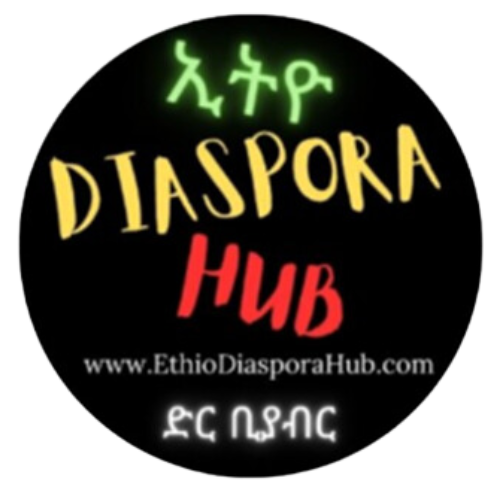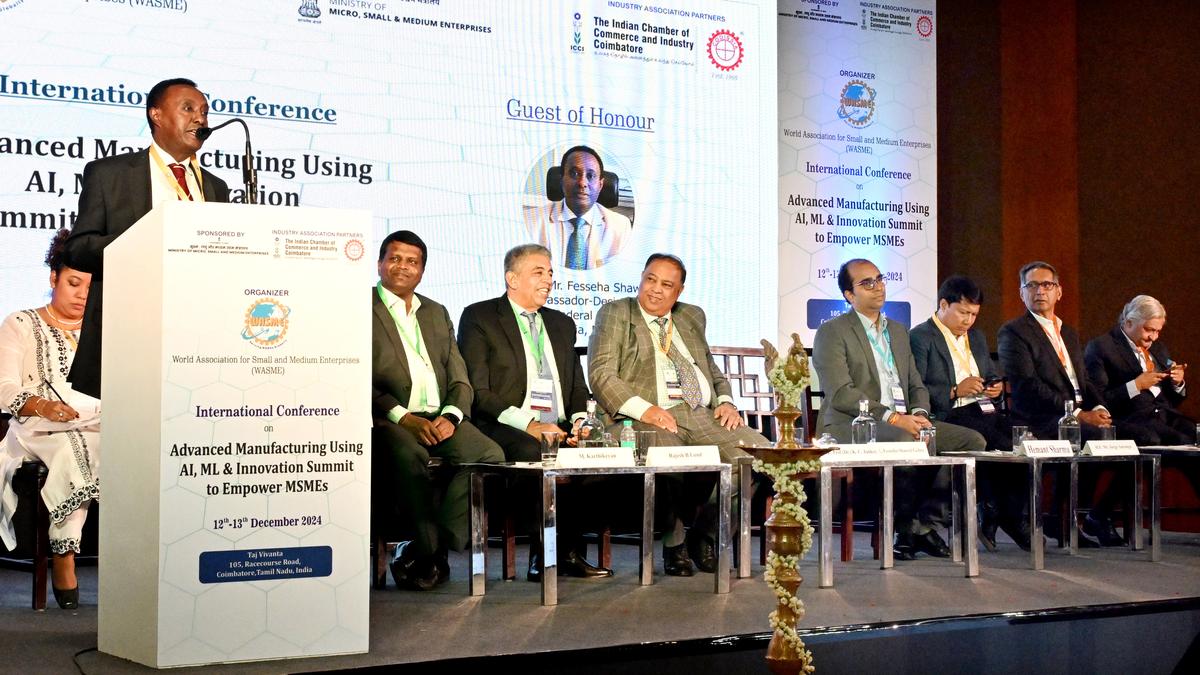መነሻ ገጽ » ዜና
Premium News
News
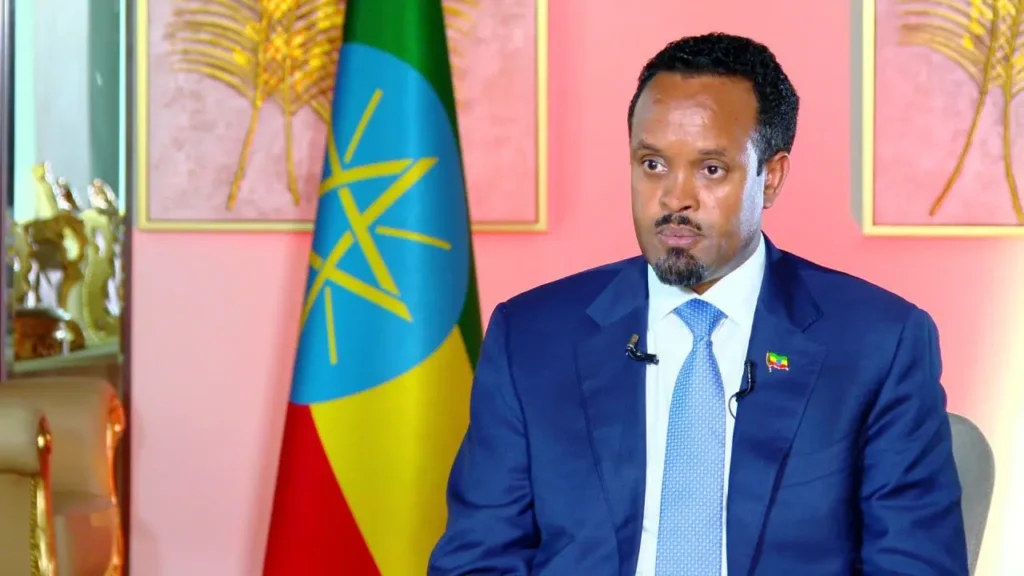
Ethiopia Halts Eurobond Restructuring After Official Creditors Reject Draft Deal
Ethiopia's Ministry of Finance announced on Friday that it cannot proceed with a draft restructuring of its US$1 billion 6.625% Eurobond notes due 2024, after the Official Creditor Committee (OCC) deemed the terms non-compliant with the comparability of treatment principle under the G20 Common Framework. The OCC, co-chaired by Yang Jing and Thomas Rival, informed Finance Minister Ahmed Shide in a January 28 letter that the Agreement in Principle (AIP) reached January 2 with the Bondholders' Ad Hoc Committee falls short. The committee commended good-faith negotiations but warned the deal would deliver a "very low restructuring effort" from private bondholders, risking vastly diverging concessions compared to official creditors. It highlighted the inclusion of Value Recovery Instruments (VRIs), tied to future economic upside, as adding complexity and potential misalignment. The ministry's statement, posted on its official Facebook page, followed consultations with the OCC and IMF to verify alignment with comparability standards and Ethiopia's Extended Credit Facility (ECF) program parameters. Proceeding would contradict the July 2025 Memorandum of Understanding with official creditors and jeopardize macroeconomic stability amid ongoing reforms. Ethiopia defaulted on the bond in late 2023 and is restructuring under the G20 framework, requiring equitable treatment across official bilateral, private, and other creditors. Ethiopia's application for debt restructuring was filed in February 2021, with talks beginning five months later. On September 16, 2021, a creditor committee comprising 12 countries, co-chaired by China and France, was formed. The committee includes Ethiopia's major creditors, such as Denmark, France, Italy, Korea, Japan, and the Saudi Fund for Development. China is the major bilateral non-Paris Club creditor, claiming 30pc of the total external debt stock.
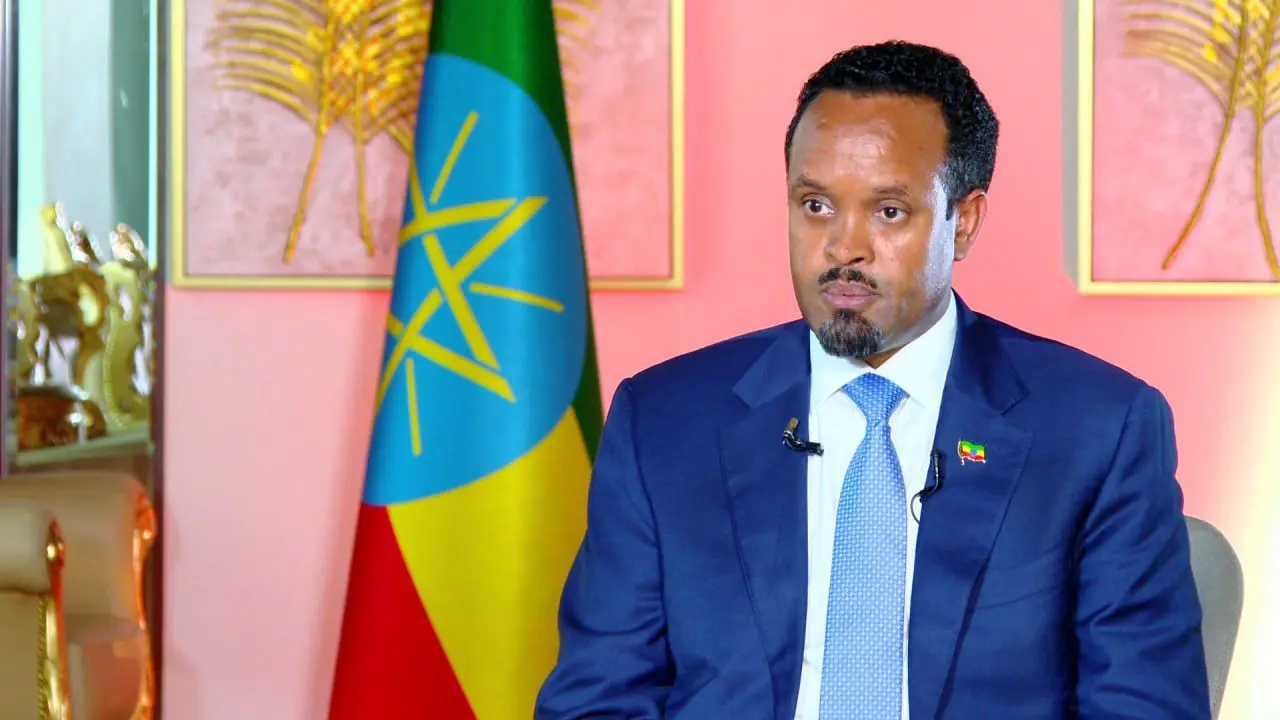

Veriq Launches to Help Ethiopian Businesses Combat Digital Payment Fraud
ADDIS ABABA, ETHIOPIA — As digital payments surge across Ethiopia, local businesses are facing a growing threat: fraudulent or reused payment confirmations. To bridge this trust gap, software engineer Abel Legesse has announced the launch of Veriq, an Android-based verification tool designed to protect merchants from transaction fraud in real time. Veriq tackles the “fake screenshot” epidemic by allowing businesses to cross-check transaction IDs and use smart receipt scanning. By verifying the authenticity of a transfer before goods or services are handed over, Veriq helps eliminate the financial leakage that many small and medium-sized enterprises (SMEs) have come to accept as a cost of doing business. “Many restaurants and service providers lose money every day because they are shown fake screenshots or reused receipts,” said Abel Legesse, Founder of Veriq. “We built Veriq to remove that uncertainty. It’s about giving merchants confidence in seconds, so they can focus on their customers rather than questioning their honesty.”

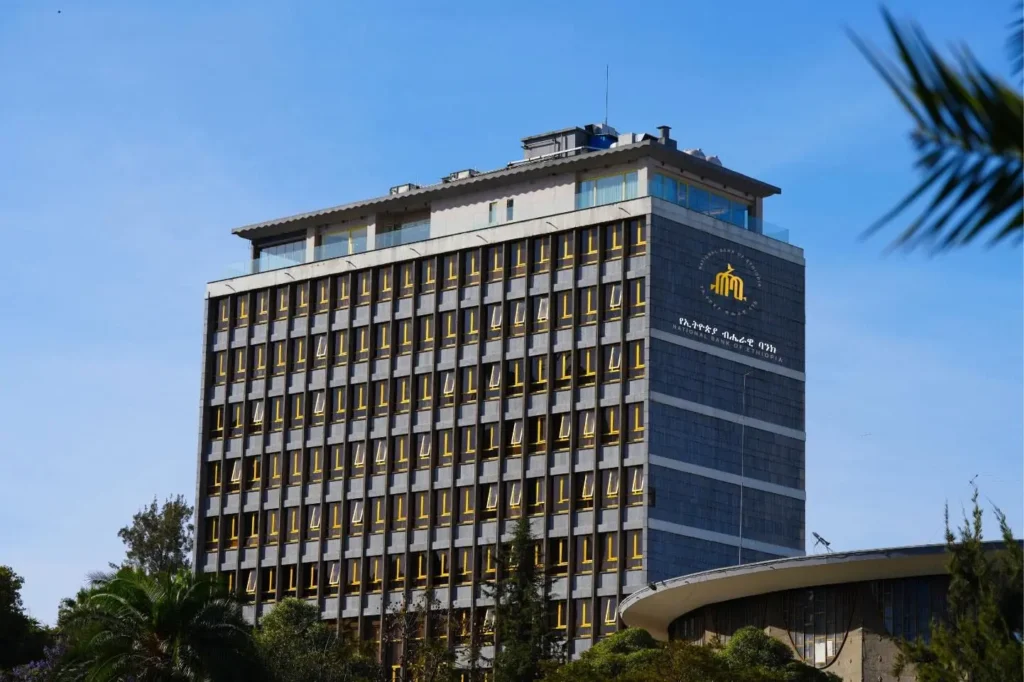
NBE Unleashes Record US$500 Million FX Auction in Bold Signal to Markets
Ethiopia’s central bank is set to inject an unprecedented US$500 million into the foreign exchange market, marking the largest single FX auction in the country’s history and signaling a decisive shift toward liquidity support for growth, trade, and macro-stability. In a notice issued on Monday, the National Bank of Ethiopia (NBE) announced that it will hold a special foreign exchange auction on Tuesday, January 27, 2026, explicitly framed as a monetary policy operation. Commercial banks have been invited to submit bids between 10:00 a.m. and 12:00 noon, with results to be announced at 3:00 p.m. and settlement completed the same day.
A Step-Change in Scale
The US$500 million allocation represents a significant escalation from previous FX auctions, which were typically far smaller and more targeted. The move underscores the central bank’s growing willingness to use market-based tools to address foreign currency shortages, support critical imports, and stabilize expectations in the banking system. Market analysts describe the auction as a strong confidence signal to businesses, investors, and development partners at a time when Ethiopia is pursuing accelerated economic reforms, including foreign exchange liberalization, banking sector modernization, and private-sector-led growth.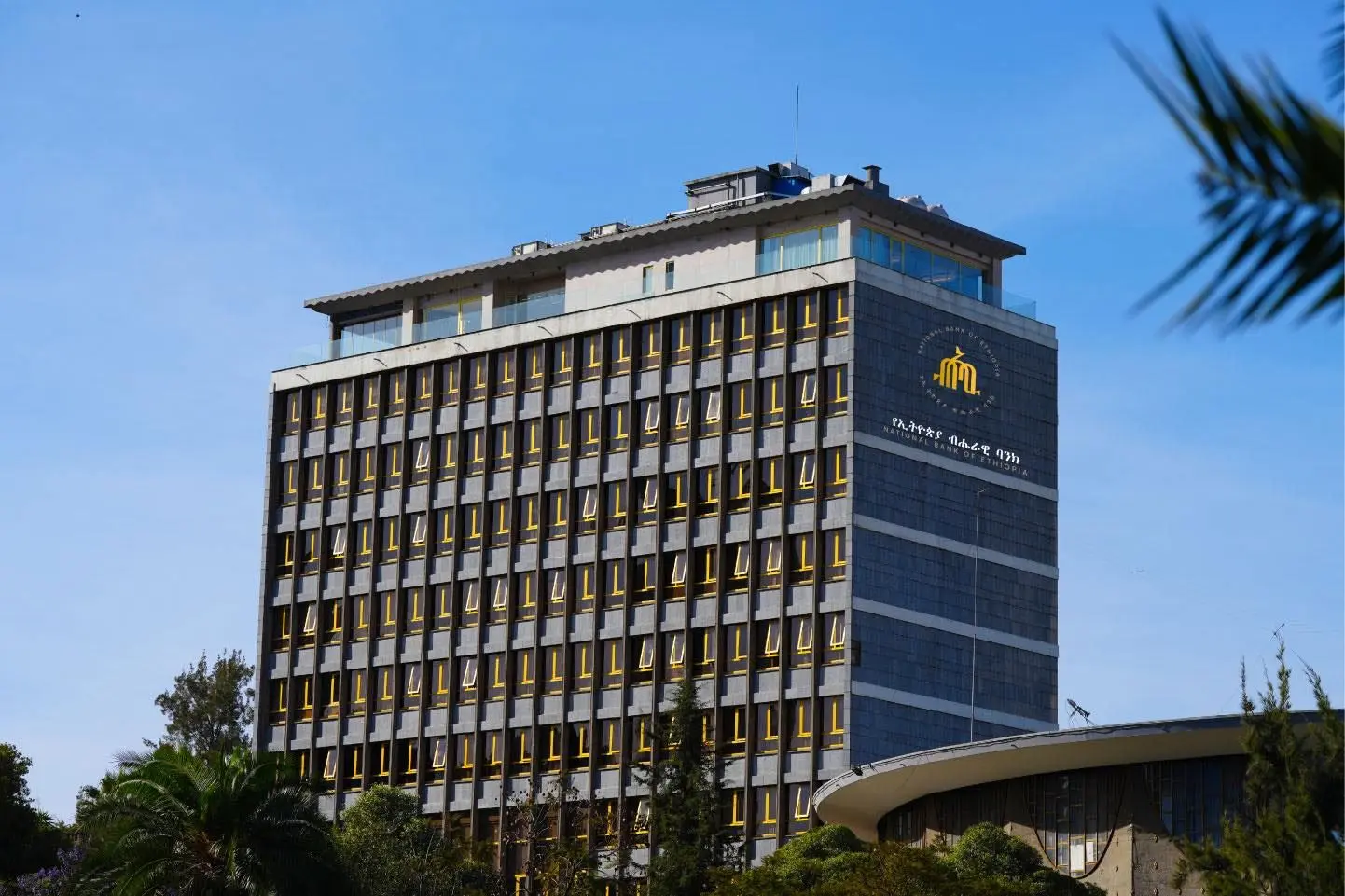
Boost Your Business with us
Make some extra money by selling things in your community. Go on its quick and easy

NBE Aligns Bank FX Pricing With Customs Rates for Letters of Credit
The National Bank of Ethiopia (NBE) has announced a new directive requiring commercial banks to use Ethiopian Customs Commission reference prices as indicative rates for selected foreign exchange transactions, particularly those involving Letters of Credit (LCs). Under the new measure, banks will apply customs reference prices when processing LCs and other approved payment instruments, aiming to reduce pricing discrepancies across the foreign exchange system. The policy builds on Ethiopia’s foreign exchange reforms introduced in July 2016 E.C., which gradually shifted the country away from a tightly controlled FX regime toward a more market-oriented framework. While banks are permitted to negotiate exchange rates with customers within regulatory limits, inconsistencies have persisted between banking prices and customs valuations. According to the NBE, significant differences have been observed between prices used by banks for Letters of Credit and those quoted by the Ethiopian Customs Commission, complicating trade documentation, FX verification, and compliance checks.


Ethiopian Airlines to Suspend Atlanta Passenger Service From February
Addis Ababa — Ethiopian Airlines will temporarily suspend passenger flights between Addis Ababa and Atlanta beginning early February 2026, narrowing the carrier’s U.S. network as it reassesses demand on transatlantic routes. According to schedule data reviewed in mid-January, the airline will operate its final Addis Ababa–Rome–Atlanta service on Feb. 1, with flights ceasing the following day. Ethiopian currently serves Atlanta three times weekly, deploying Boeing 787-8 Dreamliner aircraft, with westbound services operating via Rome Fiumicino. The affected rotations are ET518 (Addis Ababa–Rome–Atlanta) and the return ET519. While earlier schedules had shown the route extending into the Northern Hemisphere summer, booking systems continue to display availability for dates from June onward—signaling a temporary suspension rather than a permanent withdrawal. Atlanta joined Ethiopian’s long-haul network in May 2023, giving the carrier access to Hartsfield-Jackson Atlanta International Airport, the world’s busiest airport by passenger traffic. The route also strengthened connectivity within the Star Alliance, leveraging Ethiopian’s partnership with United Airlines. Despite the strategic appeal, the service has faced competitive pressure on transatlantic flows and softer-than-expected passenger demand, according to industry data. Following the Atlanta pause, Ethiopian’s remaining U.S. passenger operations will be concentrated at Washington Dulles International Airport. The airline operates up to 11 weekly flights from Addis Ababa to Washington, routed via Rome and Lomé, using a mix of Airbus A350-900, A350-1000, and Boeing 787-8 aircraft.

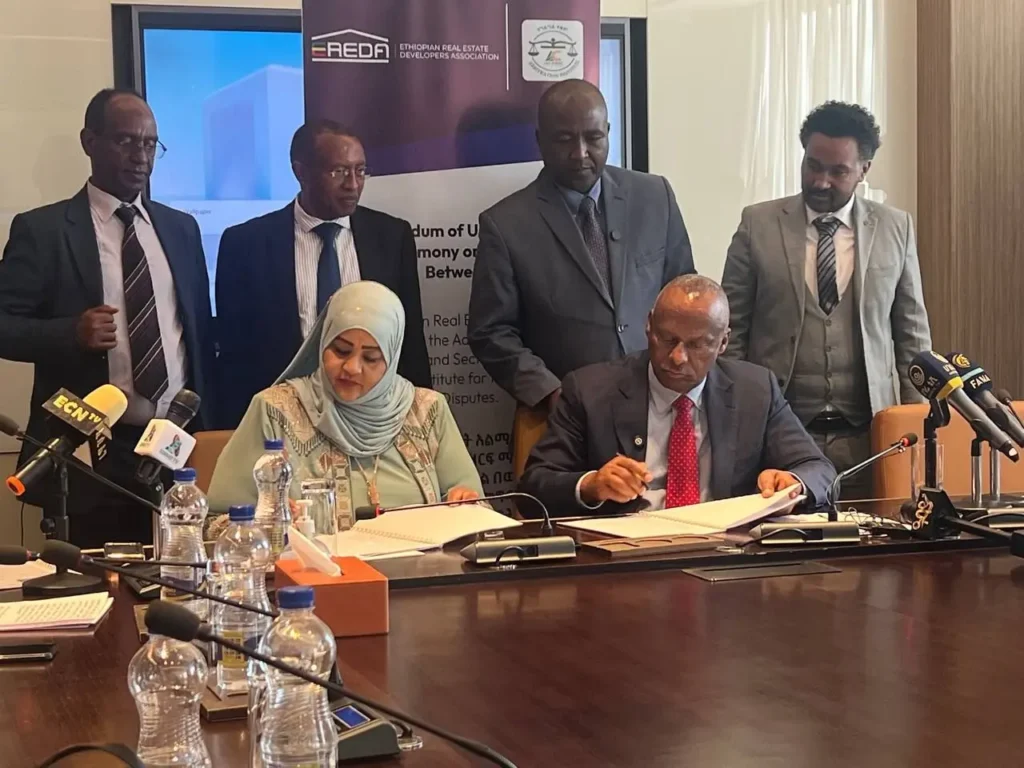
As Ethiopia Tightens Real Estate Rules, Developers Embrace Arbitration
Ethiopian real estate developers are turning to arbitration to resolve disputes with homebuyers as the sector braces for the implementation of a sweeping new law. A nine-month-old lobby group, the Ethiopian Real Estate Developers Association (EREDA), on Thursday signed an agreement with the country’s oldest business membership organization, the Addis Ababa Chamber of Commerce and Sectoral Associations (AACCSA), to tap into the Chamber’s arbitration expertise. The Chamber began offering arbitration services in the 1960s, suspended them during the Derg’s socialist rule in the 1970s and 1980s, and resumed the practice in the 1990s. Both the establishment of EREDA by 29 leading firms and its latest push to promote alternative dispute resolution follow a landmark bill ratified by Parliament last year that seeks to bring order to a historically chaotic sector. Alemayehu Ketema, president of EREDA, which now has about 100 members, said trust and accountability from developers would be essential if they are to help build the 1.5 million homes Prime Minister Abiy Ahmed (PhD) recently said the country needs. He said that under the new legal framework, buyers who have fully paid for their homes should be protected.
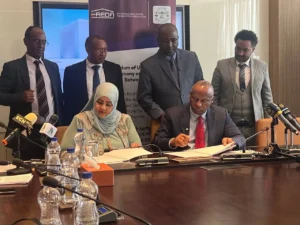
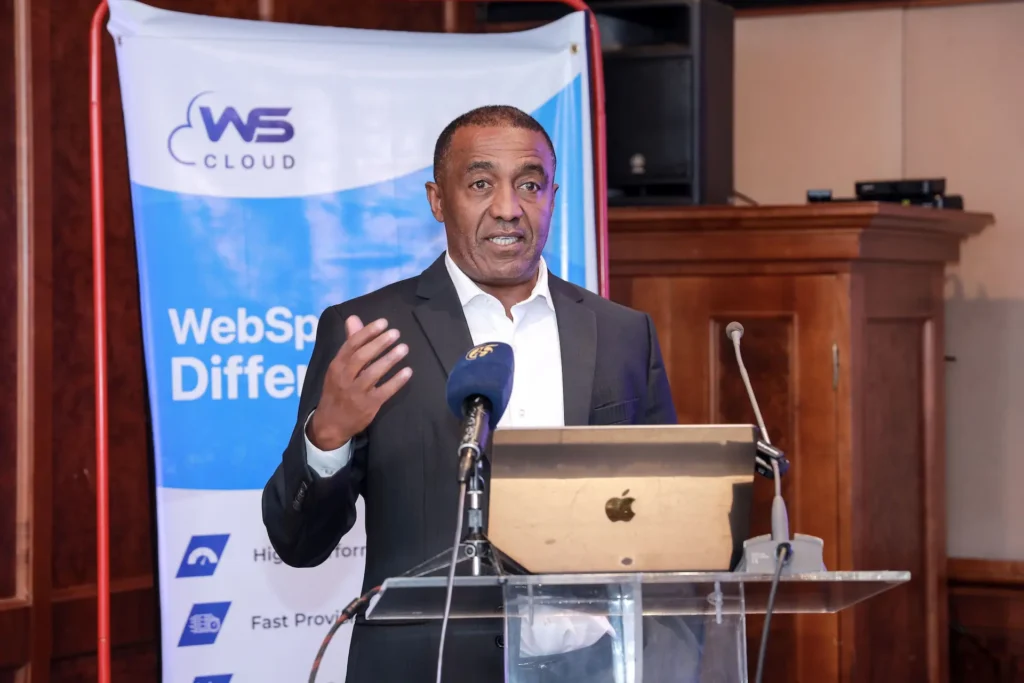
Websprix Launches Sovereign Cloud Infrastructure Amid Ethiopia’s Data Localization Push
Websprix, Ethiopia’s first private internet service provider (ISP), has launched what it calls a sovereign cloud infrastructure, aligning with a national push toward data localization and digital sovereignty under the Digital Ethiopia 2030 strategy. Under the roadmap, the government has made digital sovereignty a priority, calling for homegrown solutions, data localization, and the expansion of sovereign cloud infrastructure, alongside plans to more than double the number of local cloud providers by 2030. The cloud infrastructure was officially launched on Thursday morning at the Sheraton Addis Hotel, bringing together regulators, enterprise clients, and technology partners. It is hosted through a colocation arrangement with Wingu Africa at ICT Park, one of Ethiopia’s most interconnected facilities, supported by multiple power substations and international connectivity routes, and where the ISP is headquartered. Founded in 2011, Websprix has been a pioneer of private-sector internet services in Ethiopia and has grown into a key player in the country’s digital connectivity infrastructure. It was among the first companies to deliver fiber connectivity to condominium housing in Addis Ababa through underground cable deployment, a model that later became more widely adopted. Dawit Birhanu, co-founder and chief executive of the company, said the new service is available to both individual and enterprise customers and is offered through two deployment models: a VMware-based cloud cluster and an OpenStack-based cloud cluster.


IFC Considers $80 Million Loan to Back MIDROC’s Sheraton Addis Expansion and New Hotel Project
Addis Ababa, Jan. 22, 2026 — The (IFC) is considering an $80 million A-loan to support the refurbishment of the landmark Sheraton Addis and the construction of a new adjacent hotel by , according to an Environmental and Social Review Summary (ESRS) disclosed this week. The proposed financing targets two major components: the ongoing remodeling and modernization of the 294-room Sheraton Addis, and the construction of a new 200-key hotel and private villas on 2.5 acres within MIDROC’s existing property in Addis Ababa’s Kirkos sub-city. IFC classified the project under Environmental Category B (Limited), indicating manageable and site-specific environmental and social risks. The Sheraton Addis—commissioned in 1998 and long considered one of East Africa’s flagship luxury hotels—has been undergoing a phased refurbishment since 2023, with completion expected in 2026. The hotel is operated by , which assumed operations following its acquisition of Starwood Hotels & Resorts in 2016. In parallel, MIDROC plans to develop the New Sheraton Addis, to be operated by Marriott under its select-service and extended-stay brands. IFC noted that the construction site is located in a modified urban setting and will not result in physical or economic displacement.

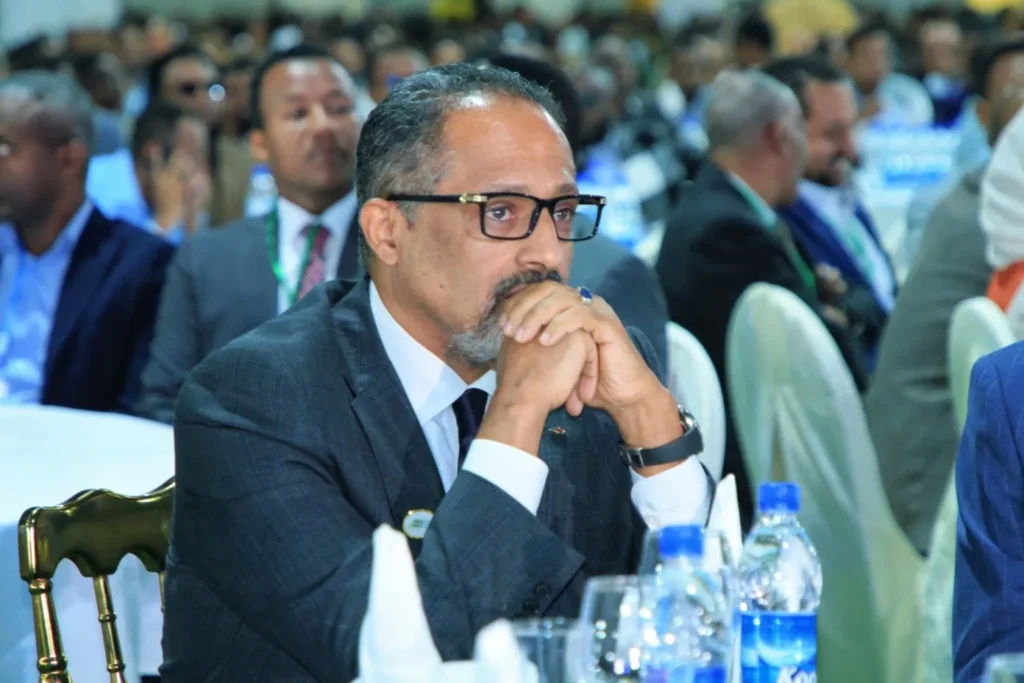
Midroc Investment Group Acquires Historic Wabi Shebele Hotel, Plans Marriott Autograph Collection Renovation
Addis Ababa — MIDROC Investment Group has acquired the historic Wabi Shebele Hotel, marking a major investment in Ethiopia’s hospitality sector ahead of the country’s selection to host the 32nd United Nations Climate Change Conference (COP32). Under the agreement, the hotel will undergo a comprehensive renovation and be repositioned as a Marriott Autograph Collection property, aligning it with international luxury hospitality standards while preserving its historical character. The upgraded hotel is expected to serve international delegates and visitors attending the global climate summit. The acquisition agreement was signed by MIDROC Investment Group Chief Executive Officer Ato Jamal Ahmed and Prince Bedemariam Mekonnen, Board Secretary of Wabi Shebele Hotel Share Company. Speaking at the signing ceremony, Ato Jamal Ahmed said MIDROC is committed to modernizing the hotel’s facilities and services to meet the highest global standards, while ensuring a comfortable and high-quality guest experience. He emphasized that the project reflects the group’s broader strategy to strengthen Ethiopia’s tourism and hospitality infrastructure.
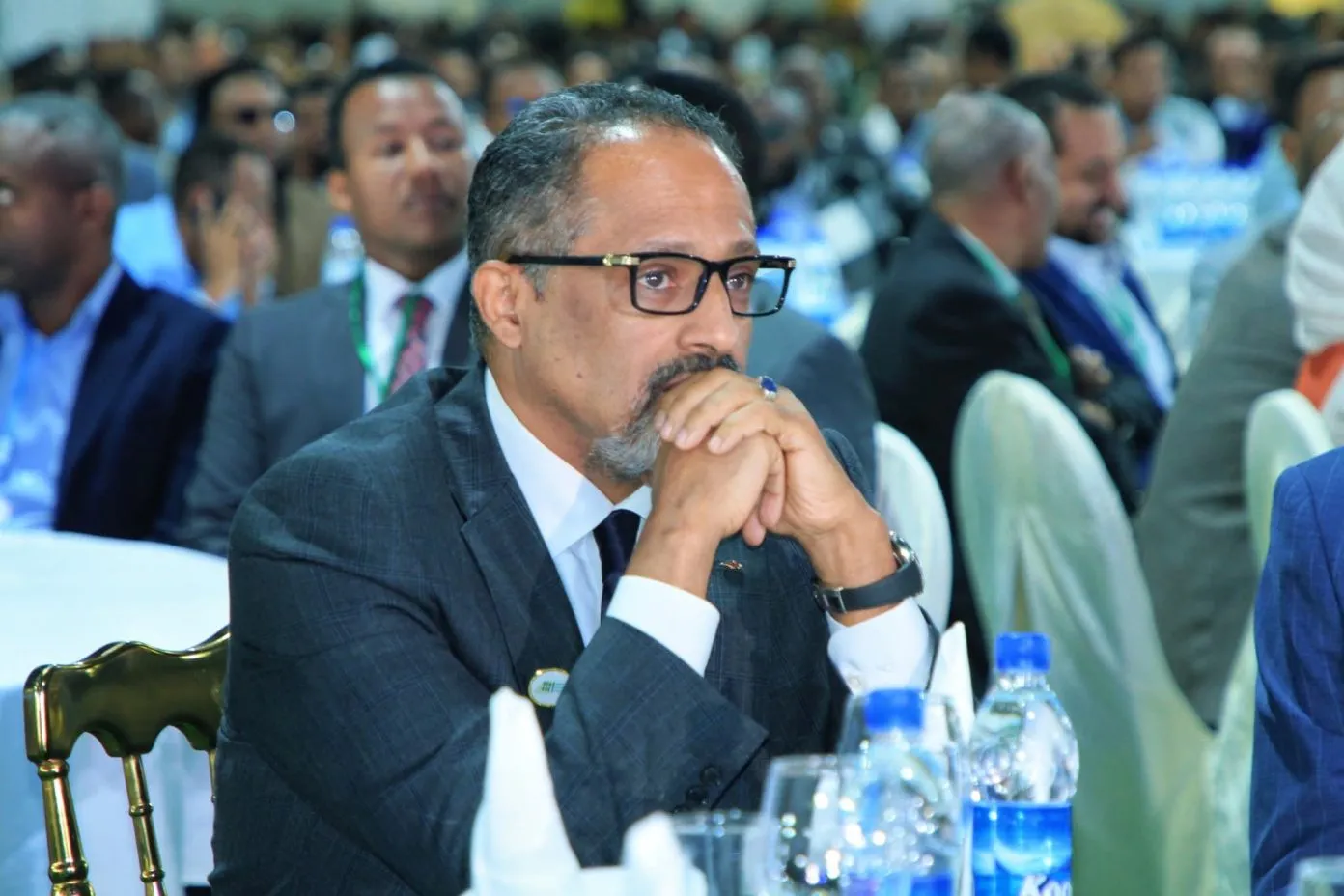

Africa’s Bitcoin Mining Map Expands As Ethiopia Seeks Global Partner
Ethiopia has announced it is looking for a global partner to build a state-backed Bitcoin mining operation, moving from a model of hosting private miners toward something run with government involvement. The call for partners was made at the Finance Forward Ethiopia 2026 event and signals a clearer role for the state in the country’s crypto plans.
State Seeks Global Partner
This shift aims to turn cheap, surplus hydropower into a steady source of foreign income instead of leaving it unused. The move is simple on paper. Use local power. Create jobs. Bring in money. But the reality is quite complex. Ethiopia has already seen miners move in, drawn by low rates and access to hydroelectric plants.
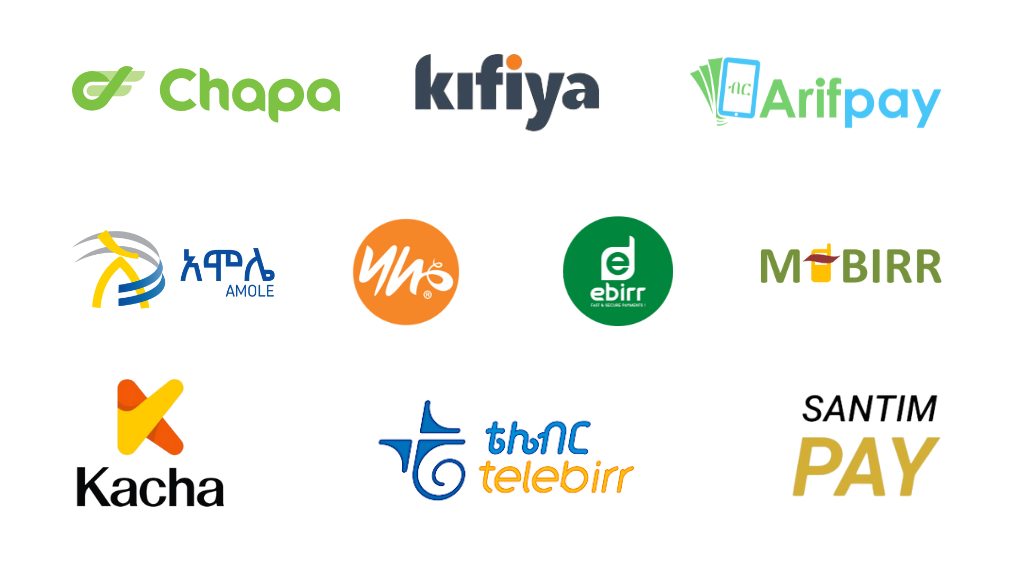
Ethiopia Freezes 10 Payment Gateways in Fintech Crackdown
Ethiopia’s push to rein in its fast-expanding digital finance ecosystem took a decisive turn late last year, as the Ministry of Justice ordered all commercial banks to freeze the accounts of ten payment gateway providers and submit exhaustive financial disclosures to federal authorities. The directive, dated December 29, was signed by Tesfaye Daba Wakjira, State Minister for the Attorney General Division. It instructs banks to immediately block all accounts linked to the named firms and to hand over comprehensive records detailing their financial activities from inception to date.
Who Is Affected?
The order targets some of Ethiopia’s most recognizable digital payment platforms:- ArifPay
- AddisPay
- FenanPay
- LakiPay
- StarPay
- YagoutPay
- SantimPay
- Kacha
- Chapa Pay
- Sinan Pay


IMF Approves $261 Million Payout to Ethiopia After Review
The International Monetary Fund executive board agreed to immediately disburse about $261 million to Ethiopia after the nation reached an agreement in principle with bondholders to restructure its debt.
The new tranche brings the total the Horn of Africa nation has received from the Washington-based lender to about $2.2 billion since it signed a $3.4 billion program in July 2024, the IMF said in a statement Friday.
“Measures to enhance the foreign exchange (FX) market, modernize monetary policy, mobilize fiscal revenues, and advance the financial regulatory agenda continue to show encouraging results, with better-than-anticipated macroeconomic outcomes,” Nigel Clarke, IMF deputy managing director and chairman of the board, said in the statement.
The new inflows will support the birr, which has lost almost two-thirds of its value against the dollar since the currency was floated in the month the IMF program was agreed.
Ethiopia reached an agreement in principle with private creditors earlier this month to rework a $1 billion bond it defaulted on in 2023.


Beloved Ethiopian Actor and TV Host Netsanet Workneh Passes Away at 49
Ethiopia’s entertainment community has been struck with grief following the passing of Artist Netsanet Workneh, a celebrated actor, TV presenter, and cultural figure. He died earlier today after battling a long-term illness, according to EBS Television. Netsanet, widely known and loved by audiences across the country, leaves behind an enduring legacy in film, theatre, and broadcast television. A Versatile Artist Who Became a Household Name For more than two decades, Netsanet Workneh enriched Ethiopia’s entertainment scene with a rare combination of talent, charisma, and humility. He rose to national fame through his work as an actor, delivering memorable performances on screen, while his warm personality made him a natural fit as a television presenter. In recent years, he became a familiar face to millions as the host of a popular family game show on EBS TV, a role that showcased his humor, ease with audiences, and ability to connect across generations.


Ethiopia Among 75 Countries Affected as U.S. Suspends Processing of Immigrant Visas
Ethiopia is among 75 countries whose nationals will face a temporary suspension of U.S. immigrant visa processing, after the administration of U.S. President Donald Trump ordered a broad review of immigration screening procedures as part of a renewed crackdown on migration. A U.S. State Department spokesperson said on Wednesday that the pause will take effect on January 21, affecting immigrant visa applicants from dozens of countries across Africa, the Middle East, Asia, Latin America, the Balkans, and the Caribbean. Ethiopia is listed alongside countries such as Nigeria, Ghana, Egypt, Pakistan, Bangladesh, Brazil, and Colombia. According to a State Department cable seen by Reuters, the suspension is part of a “full review” of visa policies and procedures to ensure what officials describe as “the highest level of screening and vetting” for all applicants. The cable said there were concerns that applicants from the affected countries could be at higher risk of becoming dependent on public assistance in the United States. “Applicants from these countries are at a high risk for becoming a public charge and recourse to local, state and federal government resources in the United States,” the cable said. The suspension does not apply to visitor (non-immigrant) visas, including tourist and business travel, which remain in place as the U.S. prepares to host major international events such as the 2026 World Cup and the 2028 Olympic Games.


Visa Exemption Deal Takes Effect as Ethiopia, India Deepen Diplomatic Ties
Ethiopia and India have formally activated a mutual visa exemption agreement for holders of diplomatic passports, allowing eligible officials from both countries to travel without visa requirements starting January 15, 2026. The agreement entered into force through an exchange of diplomatic notes between the Embassy of India in Addis Ababa and Ethiopia’s Ministry of Foreign Affairs, following the completion of all required domestic procedures under an accord signed earlier on February 19, 2021. In its diplomatic communication, the Indian Embassy said the two sides had agreed that January 15, 2026, would serve as the official “entry into force” date of the agreement, in accordance with Article 13 of the pact, and that implementation would proceed under the terms outlined in the remaining articles. The activation was marked by a signing ceremony at the Indian Embassy in Addis Ababa, where India’s Ambassador to Ethiopia, Anil Kumar Rai, and Dewano Kedir, Director General for Middle Eastern, Asian, and Pacific Countries Affairs at Ethiopia’s Ministry of Foreign Affairs, exchanged the formal diplomatic notes bringing the agreement into effect. “Diplomatic passport holders can begin travelling without visa delays,” Ambassador Rai said at the ceremony. “Eligible officials could depart as early as tonight without waiting for permit approvals.”


Ethiopia’s $12.5B Bishoftu Airport Begins Construction
Ethiopian Airlines has started construction at a $12.5 billion international airport in Bishoftu, southeast of Addis Ababa. The airport will be Africa’s largest when completed in 2030. The project includes four runways, parking capacity for 270 aircraft and infrastructure designed to handle up to 110 million passengers per year – more than four times the capacity of Ethiopia’s current operational airport. The project was initially estimated at $10 billion but was later revised upward. Ethiopian Airlines will finance 30% of the project, with the remainder funded by international lenders. The company has already allocated $610 million for earthworks, which are expected to be completed within one year. Main construction contractors are scheduled to begin work in August 2026.


Global Streaming Star IShowSpeed Touches Down in Ethiopia
American YouTube star and streaming sensation IShowSpeed has arrived in Ethiopia as part of his “Speed Does Africa” tour, with his livestream expected to begin in less than an hour. While details of his itinerary have not been made public, each stop is likely to attract big crowds across Addis Ababa and beyond. The tour began on December 29, 2025, and is set to take the 20-year-old creator across 20 African countries, with dates often shifting due to travel logistics. IShowSpeed, whose real name is Darren Jason Watkins Jr., is one of the world’s most-watched English-language streamers, known for high-energy broadcasts that mix football moments, street-level culture, and fan meetups. The tour kicked off in Angola, with further stops across Southern Africa before heading toward East Africa. In Kenya, IShowSpeed drew large crowds in Nairobi during a livestreamed city tour that included visits to popular public spots and fan-filled street moments.


Dachi Launches Ethiopia’s First Locally Canned Fava, Kidney Beans
An eight-year-old food producer established by Ethiopian and Indian shareholders, Dachi Manufacturing PLC, has launched the country’s first domestic production of canned fava beans and kidney beans. Established in 2018, the company operates a 15,000-square-meter manufacturing facility and has traditionally focused on condiments like ketchup. On Tuesday morning at Skylight Hotel, company executives announced the start of full-scale canned food production, using locally sourced fava beans, peas, and kidney beans supplied by Ethiopian farmers. The new product line includes red kidney beans, white kidney beans, black beans, fava beans (foul), peas, and sweet corn. The products are currently packaged in 400-gram cans, with three-kilogram packages expected to reach the market within the next few months. Company officials say the canned goods are competitively priced and targeted at both domestic consumers and export markets, with initial shipments planned for the U.A.E. and other Gulf countries. “This marks a shift in Ethiopia’s role within the global food supply chain,” Biniyam Yohannes, Chief Commercial Officer of Dachi, told Shega. “For many years, we exported raw beans while importing processed canned products. He said they plan to produce up to thousands of tons of output daily, eyeing both urban and rural markets. The CCO indicated plans to finalize the canning and packaging factory in the coming six months, with hundreds of millions of dollars slated for investments.


Ethiopia Ends Administered Interest Rates in Landmark Financial Reform
Ethiopia’s central bank has scrapped all controls on commercial lending and deposit rates, in a sweeping deregulation move expected to reshape liquidity, credit pricing and competition across the country’s banking sector. Under Directive No. NBE/INT/13/2026, issued by the National Bank of Ethiopia and effective January 9, 2025, banks will now be allowed to freely set their own interest rates across all loan and deposit products, according to the document seen by Addis Insight. The change marks the end of decades of state-administered pricing in one of Africa’s most closed financial systems. The directive repeals all previous rate-setting rules and transfers pricing power to bank boards, which must establish written criteria for determining returns on savings, time deposits and loan facilities.


Ethiopia Habtemariam Joins HYBE America as President of Music
Ethiopia Habtemariam is stepping back into the music industry arena as president of music at HYBE America, Billboard can exclusively report. Habtemariam previously served as chairwoman and CEO of Motown Records before exiting that post in 2022.
Habtemariam, whose appointment is effective immediately, will assist in advancing HYBE America’s “longterm strategy, spearheading A&R and artist development initiatives across the company’s label ecosystem and identifying new opportunities at the intersection of music, culture and fandom,” as noted in a press announcement. In addition, she will play a pivotal role in broadening HYBE America’s presence in Atlanta, where its Quality Control label is headquartered, calling the city “a global epicenter of R&B and hip-hop, further strengthening Quality Control’s presence and impact as Atlanta’s premier music company.”
Those initiatives are in tune with the South Korean music company’s burgeoning presence in the U.S. market and its genre expansion beyond K-Pop. HYBE launched its Latin American division in 2023 and acquired hip-hop label Quality Control Music the same year. In addition, Habtemariam’s new appointment reunites the music executive with Quality Control Music co-founders COO Kevin “Coach K” Lee and CEO Pierre “P” Thomas. While at Motown, she orchestrated a joint venture between QC and Motown in 2015, developing and overseeing the careers of artists such as Migos, Lil Baby, City Girls and Lil Yachty.


Carrefour To Enter Ethiopia In Franchise Expansion Deal
French retailer Carrefour is planning to enter Ethiopia with a franchise and supply partnership with Queen's Supermarket PLC, a subsidiary of Midroc Investment Group. The partnership will see the rollout of stores under the Carrefour banner and the launch of its products in Ethiopia. Midroc Investment Group will be supported during the transformation of the Queen's banner to Carrefour as well as the implementation of the expansion plan, the French retailer noted. The partners expect to rebrand the first stores by the first half of 2026. This agreement aligns with Carrefour's objective to expand into 10 new countries, highlighting the strength and dynamism of the franchise model.


LakiPay Bets on Ethiopia’s Content Creators with New Digital Remittance Platform
LakiPay Financial Technologies S.C., a year-old payment operator, on Thursday evening unveiled a digital remittance platform it says is designed to speed up cross-border money transfers while lowering costs and expanding access for Ethiopia’s growing online creator economy. The platform, branded LakiRemit, was launched at the company’s headquarters and offers real-time transfers, competitive exchange rates, and direct integration with local banks, according to company executives. LakiPay received its payment operator license from the National Bank of Ethiopia (NBE) last year. Beyond traditional remittances, the company is seeking to position itself in a fast-growing but lightly regulated corner of the digital economy: virtual gifts sent to online content creators by fans, many of them living abroad. LakiPay says the feature will allow Ethiopian creators to receive gifts without losing a large share of their income to global social media platforms. Habtamu Tadesse, the company’s chief executive, said Ethiopian content creators can forfeit as much as half of their earnings to commissions charged by platforms such as TikTok. By registering on LakiRemit, he said, creators would be able to retain up to 95 percent of the value of gifts sent by their supporters. “The money will be deposited into a local bank account within 30 seconds,” Habtamu said, describing what he called a critical improvement for creators who rely on frequent, small-value transfers.


Godfather of Ethiopian jazz on his farewell tour
Ethiopian jazz musician Mulatu Astatke smiled as he held his arms aloft to acknowledge his audience.
Last month in London, the 82-year-old pioneer, who has done much to bring his blend of musical styles to the world, played a concert as part of a farewell tour after a six-decade performing career.
Twenty years ago, he gained a wider listenership after the soundtrack for the 2005 Hollywood film Broken Flowers included his music, and the use of one of his recordings in last year's best-picture-Oscar-nominated Nickel Boys saw further interest.
But since the 1960s he has used the studio and rehearsal room as a laboratory where he has mixed musical styles to create what he calls the "science" of Ethio-jazz.
Outside, it was a cold November evening, but inside the West End venue, Mulatu was bathed in the warm embrace of a crowd eager to get one last glimpse of this alchemist at work.
Dressed in a shirt featuring work by Ethiopian artist Afework Tekle, he slowly and steadily walked on stage.
Squeezing past a set of congas he came to his signature instrument – the vibraphone.
With two pink-felted mallets in his right hand and one in the left, he began to pick out the mesmeric rhythm and melody, expertly striking the xylophone-like metal bars creating a delicate, resonant sound.

Ethiopia Telecom Data Prices Under Scrutiny as Operators Adjust Tariffs
Ethiopia’s telecommunications sector is entering a new phase of pricing recalibration as operators respond to rising infrastructure costs, foreign exchange pressures, and broader macroeconomic realities. Industry data shows that mobile broadband prices in Ethiopia have declined sharply in recent years, with entry-level data packages now below regional averages and approaching internationally recognised affordability benchmarks measured against gross national income per capita. According to GSMA analysis, this trend has been largely driven by sustained tariff reductions implemented by Ethio Telecom, significantly expanding access and digital inclusion.
Safaricom Ethiopia’s Tariff Revision Sparks Public Debate
The current debate was reignited earlier this month after Safaricom Ethiopia announced revisions to its mobile data tariffs. The changes, which affected daily, weekly, and longer-term bundles, were positioned as part of a broader strategy to ensure financial sustainability. However, the announcement sparked widespread public reaction, with users raising concerns about affordability, pricing predictability, and the impact on students, freelancers, and small businesses that rely heavily on mobile connectivity.
Safaricom’s communication focused primarily on cost recovery and long-term network viability, offering limited detail on measures to mitigate affordability risks for lower-income users. This response highlighted a recurring challenge in emerging telecom markets, where pricing decisions are increasingly interpreted not only as commercial actions but also as social signals in economies where mobile data underpins access to education, employment, and digital services.


Ethiopia Ends Decades-Old Minimum Savings Rate as Central Bank Deepens Market-Driven Monetary Policy
Addis Ababa, Dec. 30, 2025 — Ethiopia’s central bank has scrapped the country’s long-standing 7% minimum savings deposit rate, a policy in place for decades, marking one of the most sweeping financial sector reforms in recent years as the National Bank of Ethiopia (NBE) moves toward a fully market-based interest-rate regime. The National Bank’s Monetary Policy Committee (MPC) said the decision will allow interest rates to be determined purely by market demand and supply, replacing the previous framework where the minimum interest rate was legally fixed while banks could only negotiate higher rates with depositors. The reform is intended to strengthen the interest-based monetary policy framework introduced in July 2024, enhance policy transmission, and make interest rates a more effective tool for managing liquidity, stabilizing inflation, and boosting savings competitiveness among banks. “This historic shift allows banks and depositors to freely negotiate interest rates,” the MPC said, adding that the move is expected to deepen financial intermediation and improve efficiency in the banking sector.


Ethiopian Achieves Major MRO Breakthrough with First A350-900 Full Strip and Paint Program in Africa
Ethiopian Airlines, the leading carrier in Africa and one of the fastest-growing airline brands globally, is proud to announce the successful completion of Africa’s first full strip-and-paint program of the Airbus A350-900 aircraft on two of its aircraft, marking a significant advancement in Ethiopian MRO’s capacity, technical expertise, and commitment to operational excellence. This achievement marks yet another milestone following the recent development of full strip-and-paint capabilities on the Boeing 787 fleet composite painting capability. Appreciating the major accomplishment, Mr. Mesfin Tasew, Ethiopian Airlines Group CEO, remarked: “The successful execution of our full strip-and-paint project on two of our A350-900 aircraft coupled with the completion of paint capability on the B787 earlier this year, marks a significant step forward in Ethiopian’s in-house widebody advanced composite structure paint capabilities. This project is yet another milestone which reflects Ethiopian’s ongoing commitment to investing in world-class MRO capabilities, strengthening our operational resilience, enhancing our self-reliance, and elevating our global standing. Beyond saving costs, this achievement enables us to generate additional revenue and reinforce our position as a leading MRO service provider in the continent and the region.”


Safaricom Ethiopia Raises Data Prices Amid Financial Sustainability Drive
Safaricom Ethiopia has implemented significant price increases across its mobile data packages, with some weekly plans seeing effective rate hikes of up to 82%, as the company moves to rationalize pricing it previously warned was "unsustainable" and threatening the telecom sector's long-term viability. The revised tariffs, which took effect this week, show price increases on nearly all data bundles combined with reduced data allocations. A weekly 10GB package now costs 550 Birr, up from 350 Birr, a 57% price jump, while the monthly 15GB plan remains at 500 Birr but with data slashed from 15GB to 10GB, representing a 50% effective increase in per-unit cost. The changes affect daily, weekly, monthly, and long-term plans. The popular daily 1GB package increased from 30 to 35 Birr while data allocation dropped from 1.1GB to 500MB, effectively doubling the per-gigabyte cost. Weekly packages saw some of the steepest hikes: the 5.5GB plan rose from 150 to 250 Birr (67% increase), and the 10GB package jumped from 250 to 550 Birr. Monthly unlimited data now costs 2,400 Birr, up from 2,000 Birr (a 20% increase), while the half-yearly 500GB package increased from 7,000 to 8,500 Birr.


Dashen Bank’s Revenue Jumps 34% to Birr 31.4 Billion as Profit Growth Lags
Dashen Bank, Ethiopia’s second-largest private commercial bank, closed the last fiscal year with 31.4 billion Birr revenue, a 34% year-on-year increase. Announced on Thursday morning during the bank’s 32nd ordinary shareholders’ meeting at Millennium Hall, the revenue surge was accompanied by a rapid expansion of total assets, which reached 254 billion Birr, up 38.5% from 183.7 billion Birr a year earlier. Customer deposits reached 202.2 billion Birr, marking a 38.7% annual increase. Interest-Free Banking (IFB) continued to gain traction, with IFB deposits expanding by 42.3% to 15.8 billion Birr, reflecting rising demand for Sharia-compliant products and the growing role of diversified funding sources. The bank also generated $1.12 billion in foreign exchange during the year, a 15.8% increase from the previous period. Profitability, however, did not keep pace with revenue growth. Gross profit rose 5.1% to Birr 6.7 billion, up from Birr 6.4 billion a year earlier. Outstanding loans and advances, including IFB financing, rose to 134 billion Birr, representing a 17.3% year-on-year increase. Dashen strengthened its capital base during the year, increasing paid-up capital to 14.3 billion Birr following an additional 2.3 billion Birr injection.


Ethiopia and United States Sign Landmark $1.6 Billion Health Cooperation Agreement
Ethiopia and the United States have signed a historic $1.6 billion health cooperation agreement, marking one of the most significant health sector partnerships between the two nations and signaling a shift toward more direct and sustainable development cooperation. Under the agreement, the U.S. government will contribute $1.16 billion, while the Ethiopian government will cover the remaining share to strengthen domestic health financing. The initiative will be implemented over five years and is designed to bolster Ethiopia’s health system, enhance service delivery, improve access to quality care, and ensure long-term institutional resilience. The agreement was signed in Addis Ababa by Finance Minister Ahmed Shide, Minister of Health Dr. Mekdes Daba, and U.S. Ambassador to Ethiopia Ervin Masinga. Both governments described the initiative as a milestone in Ethiopia–U.S. relations and a defining step toward deeper, more accountable, and results-oriented cooperation.


iShowSpeed Is Bringing His World Tour to Africa — and Ethiopia Is One of the Stops
There is a certain electricity that follows iShowSpeed wherever he goes: a mix of unpredictability, humor, chaos, vulnerability, and the kind of raw energy only the internet’s most-watched young superstar can command. Now, that electricity is headed to Africa. This December, Speed is embarking on his most ambitious adventure yet — “Speed Does Africa,” a whirlwind, 28-day livestream journey across twenty African nations. The tour begins on December 29, and millions will be invited to watch not just a creator traveling, but a cultural encounter unfolding live in real time. But among the map of destinations — stretching from North to Southern Africa — Ethiopia stands out. And the anticipation already feels different.
Ethiopia: A Country Ready for Its Moment On His Stage
Ethiopia is not just another location on the itinerary. It is memory, history, rhythm, and modernity, all at once. It is a nation that carries the weight of an ancient civilization while pulsing with the urban speed of Addis Ababa’s streets. A place where centuries-old coffee ceremonies exist alongside Afrobeats, street fashion, Gen-Z slang, and football fandom.

EthSwitch Marks Major Advance in Instant Payment Systems with EthioPay Launch
Ethiopia’s national switch operator, EthSwitch, on Thursday evening unveiled a long-awaited overhaul of the country’s payment rails, officially launching an interoperable instant payment system known as EthioPay at Friendship Park in Addis Ababa. The payment infrastructure was first announced last week during the second national digital payment conference. Developed over two years, the system enables same-day settlement for interbank transfers, replacing the Real Time Gross Settlement platform, which has long drawn criticism from banks and businesses for delays that constrained liquidity across the financial system. Yelebes Addis, EthSwitch’s chief executive, said the launch would mark a turning point for Ethiopia’s payment ecosystem, which has leaned heavily on person-to-person transfers even for merchant transactions. EthioPay, he said, introduces structured payment channels designed for a broader and more complex economy. Among the new capabilities are bulk payments, customer-to-government transactions, request-to-pay functions, QR-based payments, interoperable merchant dashboards, and expanded tools for e-commerce platforms. “A shared payment infrastructure reduces costs while improving services,” Yelebes said. “We expect banks to reduce additional charges.”


ArifPay Acquires Majority Stake in Ethiopian Tipping Platform Jami in a Multimillion Birr Deal
ArifPay, a four-year-old financial technology company, has acquired a majority stake in Jami, an Ethiopian virtual tipping platform founded by Nathan Damtew, for 16 million Birr. The deal marks a strategic expansion for the fintech company, which has increasingly broadened its business portfolio from its primary offering as a payment operator. Hirko Alemu, ArifPay’s chief legal officer, said the two parties agreed on the valuation of 20 million Birr, with ArifPay injecting 16 million Birr in cash and the platform’s founder contributing the web application, valued at 4 million Birr in kind. Those assets are being transferred to the newly established entity, Jami Technologies PLC, which has already obtained commercial registration and a business license from the Ministry of Trade and Regional Integration. Beyond the initial capitalization, the fintech has also planned a 20 million Birr investment over the next two years, to support co-branding efforts and expand Jami’s offerings, according to Nathan. Under the terms of the deal, Nathan, who is also the founder of Beblocky and Yeneta Code, will remain a shareholder as well as serve the general manager for at least one year.


U.S. Suspends Diversity Green Card Lottery Following Deadly Shooting Incidents
The United States government has suspended its Diversity Immigrant Visa Program, commonly known as the Green Card Lottery, following a recent series of violent incidents allegedly linked to a former beneficiary of the scheme. The decision was announced after a mass shooting at Brown University last week that left two people dead. The suspect, 48-year-old Portuguese national Claudio Neves Valente, was later found dead in New Hampshire from what authorities believe was a self-inflicted gunshot wound. Investigators say the suspect also killed 47-year-old MIT professor Nuno Loureiro earlier in the week. According to U.S. officials, Valente entered the country in 2017 through the Diversity Visa Program and subsequently received permanent residency. Homeland Security Secretary Kristi Noem said she has halted the program under the directive of former President Donald Trump, stating the step was taken to ensure “no American has to suffer again because of this dangerous program.” Authorities say Valente was tracked after a multi-state, six-day search involving public tips and surveillance footage. He was discovered with firearms and other evidence linking him to the shootings.


This Ethiopian EdTech Startup Went Offline-First—and Enrolled Half of the Country’s Freshman Students
When the team behind Zegju first launched their platform, it followed a common edtech pattern: a web-based learning service built around notes, exercises, and exam preparation. But student feedback quickly exposed a structural flaw. The platform worked only as long as students had reliable internet access—something far from guaranteed for much of Ethiopia’s student population. This year, Zegju made a decisive pivot. The company shut down its web service and rebuilt the product as a mobile application designed around offline-first access, a move that has since reshaped both its reach and its scale. According to a recent public update by co-founder Brook Fantahun, the shift has coincided with a major adoption milestone: Zegju has enrolled approximately 15,000 first-year university students—around 50 percent of Ethiopia’s entire freshman cohort for the current academic year.
“We’ve now finished a whole app for freshman students with flashcards, notes, and previous exams and enrolled 15k freshman students, which is around 50% of all freshmen this year,” Fantahun wrote in a LinkedIn post published last week.


Ethiopia Shuts Down Entire Betting Industry, Revokes All Licenses
Two weeks after revoking the licenses of 22 sports betting companies, Ethiopia’s Lottery Service has effectively brought the country’s entire betting industry to a halt. In a statement issued Monday morning, the agency directed all banks, payment operators, and financial intermediaries to immediately stop facilitating transactions for betting companies. No new bets are permitted, the statement said. The move follows a nationwide investigation that alleged widespread illegality, large-scale money laundering, and what authorities described as a threat to national security. In a dramatic enforcement action, CEOs of several payment operators and betting firms were detained, while computers and other equipment were seized. Though no official or audited figures have been publicly released by regulators, two sources directly involved in the betting industry, and familiar with the matter, told Shega that the sector processes an estimated 800 million to 1 billion Birr in transactions each day. The crackdown builds on investigative audits that revealed irregularities and alleged underreporting of 100 billion Birr. Those investigations, conducted alongside the National Intelligence and Security Service, financial security authorities, the Federal Police, and municipal administrations in Addis Ababa and Dire Dawa, have escalated scrutiny of a sector that has grown rapidly in recent years.


National Bank of Ethiopia to Hold 12th Foreign Exchange Auction, Offering $50 Million
The National Bank of Ethiopia (NBE) has announced that it will conduct the 12th round of its foreign exchange auction on Tuesday, December 7, 2018, in line with its biweekly auction schedule aimed at managing foreign currency liquidity and stabilizing the exchange rate. According to the central bank, the total amount to be offered in this round of the auction will be 50 million US dollars, unchanged from the amount allocated during the previous auction. The decision to maintain the same auction volume signals the Bank’s continued cautious approach amid persistent foreign exchange shortages and rising pressure on the Ethiopian birr.
Context: Sharp Depreciation of the Birr
The announcement comes against the backdrop of a significant depreciation of the Ethiopian birr in recent months. During the 11th foreign exchange auction, held on November 23, 2018, the birr weakened sharply against the US dollar. According to reports by Capital Newspaper, the exchange rate reached 154 birr per US dollar, marking a depreciation of more than 11 percent within a two-month period.

Sharia-Compliant ZamZam Bank Reports 940.8 Million Birr Net Profits
ZamZam Bank posted a net profit of 940.8 million Birr in the 2024/25 fiscal year, edging toward the billion-Birr mark as the Sharia-compliant lender delivered record performance despite economic headwinds. Shareholders learned of the achievement Sunday during the bank’s General Assembly at Millennium Hall, where executives reported sharp growth across key metrics four years since operations began. The bank’s total assets surged 77 percent to 16.6 billion Birr by June 30, 2025, up from 9.4 billion Birr a year earlier, while total income reached 2.2 billion Birr. Customer deposits climbed 69 percent to 11.6 billion Birr, accounting for the bulk of 13 billion Birr in total liabilities. Paid-up capital rose 29 percent to 2.65 billion Birr, backed by a shareholder base that now exceeds 18,000 investors. After paying 288 million Birr in taxes, earnings per share jumped to 41.4 percent from 5.9 percent the previous year. Board Chairman Nassir Dino (PhD) attributed the performance to strong deposit mobilization, sound risk management, and expanding digital and international operations. The bank collected 4.8 billion Birr in new deposits, 36 percent above target,pushing total deposits to 11.6 billion Birr, while its financing and investment portfolio closed at 6.4 billion Birr. Collections outperformed expectations at 4.6 billion Birr, and non-performing financing remained contained at 2.23 percent, underscoring asset quality. International banking operations mobilized USD 647 million, generating 1.2 billion Birr in related income. Digital transactions grew rapidly with over 175,000 mobile USSD users and wider adoption of the Bank’s Ansar offering, a sharia-compliant digital lending platform. Pre-tax profit reached 1.23 billion Birr, demonstrating operational strength and growing customer trust, Nassir noted.


IMF reaches staff level agreement on Ethiopia’s fourth review, unlocks $261 million


NBE Launches Full Integration of National Digital ID With Banking System
The National Bank of Ethiopia (NBE) has officially launched the integration of the country’s new digital identity system, Fayda, with all financial institutions—marking a major milestone in Ethiopia’s push toward a fully digitized financial ecosystem. The initiative aligns with the Digital Ethiopia 2030 Strategy, which positions the Faida Digital Identity as a foundational digital public infrastructure designed to modernize service delivery, enhance financial access, and strengthen national security systems. According to NBE, the harmonization of customer bank account information with Fayda Digital ID has formally begun across all banks. The integration will allow customers to link all their bank accounts under a single Fayda ID, enabling secure money transfers, fraud prevention, streamlined credit access, and protection against unauthorized account movements using fake documents.
How the System Works
Banks will now utilize the upgraded VeriFayda 2 system—an enhanced electronic Know Your Customer (eKYC) platform operated through EthSwitch. The older VeriFayda 1 system will be fully phased out once migration is completed. Customers can link their accounts by:- Visiting their bank branches in person, or
- Using online channels where available


Standard Bank set to provide $138 million to Safaricom Ethiopia
Standard Bank, Africa’s biggest bank by assets, has partnered with Safaricom Telecommunications, Kenya’s largest telecommunications provider, to provide funding of $138 million as part of investment towards Safaricom Telecommunications Ethiopia PLC (STEP). The bank acted as the sole arranger, lender, and facility agent on the term facility to STEP and played an advisory role. Standard Bank’s financing facilitates Safaricom’s ongoing rollout of digital infrastructure and services in Ethiopia. “We are honored to have partnered with Safaricom again in enabling and supporting their on-going vision to driving digital transformation and inclusion in Ethiopia” says Anthony Ndegwa, Executive Vice President for Telecoms, Media & Technology at Stanbic Kenya’s Corporate and Investment Banking. The two-businesses worked side by side in the development of the financial solutions that were bespoke to the business while responsive to the market’s needs. “As a business, we are guided by innovation and strategic partnerships we aim to transform lives at scale—empowering youth, entrepreneurs, and underserved communities to fully participate in Ethiopia’s digital economy and realize the promise of shared prosperity by 2030,” says Peter Ndegwa, Safaricom Plc Chief Executive Officer. “Through this partnership we are given the opportunity to pursue this goal and grow further to digitally enable Africa,” adds Ndegwa. The telecommunication company acquired license to operate in Ethiopia in 2021, and Standard Bank was one of the advisors and financiers who worked with them as they deployed services and built the network in the country.


Ethiopia Plans to Allow Outbound Cross-border Payments in Proposed Digital Payments Strategy
A draft of Ethiopia’s second National Digital Payments Strategy for 2026 to 2030 outlines plans to allow cross-border remittances during the implementation period. Under the proposal, the government will issue clear policy guidance on outbound retail payments, assessing the country’s foreign exchange position and associated risks. If conditions allow, the central bank will issue an “Outbound Remittance Directive” authorizing licensed banks, payment service operators, microfinance institutions, and payment infrastructure providers to offer low-value cross-border transfers via cards, mobile wallets, and digital banking. The draft strategy was presented at the second Ethiopian Digital Payment Conference at the Skylight Hotel on Monday morning. The event was opened by Deputy Prime Minister Temesgen Tiruneh and National Bank of Ethiopia Governor Eyob Tekalign(PhD). Another key highlight of the conference was the launch of Ethiopay, an instant payment system developed by EthSwitch, the national switch operator. The platform provides a secure and interoperable infrastructure for person-to-person transfers, QR payments, bulk payments, and cross-border transactions, forming the backbone of Ethiopia’s digital payment ecosystem. The updated strategy aims to expand digital payment adoption, upgrade financial infrastructure, and reduce barriers for underserved groups. It builds on rapid growth in Ethiopia’s digital finance sector. Mobile money accounts have surged from fewer than 1 million in 2020 to more than 128.5 million by the end of 2024. Total digital accounts surpassed 102.8 million by mid-2023, while transaction volumes for the 2023/24 fiscal year reached 9.7 trillion Birr, exceeding cash transactions in value. Mobile money transactions alone increased by 34,631 percent between 2019 and 2024.


From Jerusalem to Mars: A Black Ethiopian Jew’s Friendly Reply to Elon Musk
When Elon Musk wrote on X (formerly Twitter) that “Jews are white, if not peak white,” I didn’t know whether to laugh, cry, or invite him to a Shabbat dinner in Beersheba with my Ethiopian family just to show him what “peak white” looks like after a week under the Negev sun. As an Ethiopian-Israeli Jew, a Black African descendant of the Ethiopian Jewish community, I’ve spent much of my life trying to explain that Jewish identity is not a skin-tone category. It is a covenant, a calling, a story that crosses continents and centuries. We are not one shade of people; we are one people of many shades. But when I first saw Musk’s post, I hesitated. Since October 7, Israel has been in mourning. Our national heart is still sitting shiva for the murdered, the kidnapped, the shattered. This has not felt like a time for digital arguments. Yet silence, too, can mislead. So let me answer not with outrage, but with warmth; not to accuse, but to educate; as my teacher Rabbi Lord Jonathan Sacks (z”l) taught me, “Tell the truth, but tell it with love.” Let’s start with a confession: Elon Musk, a brilliant and, by most accounts, well-intentioned defender of innovation, democracy, and progress did not invent confusion about Jewish identity; he merely gave it Wi-Fi. When a man who builds rockets and brain chips still struggles to tell the difference between ethnicity and covenant, it says less about him and more about the picture we, the Jewish people, have painted for the world. If outsiders believe all Jews are white, perhaps we have framed our portrait too narrowly.

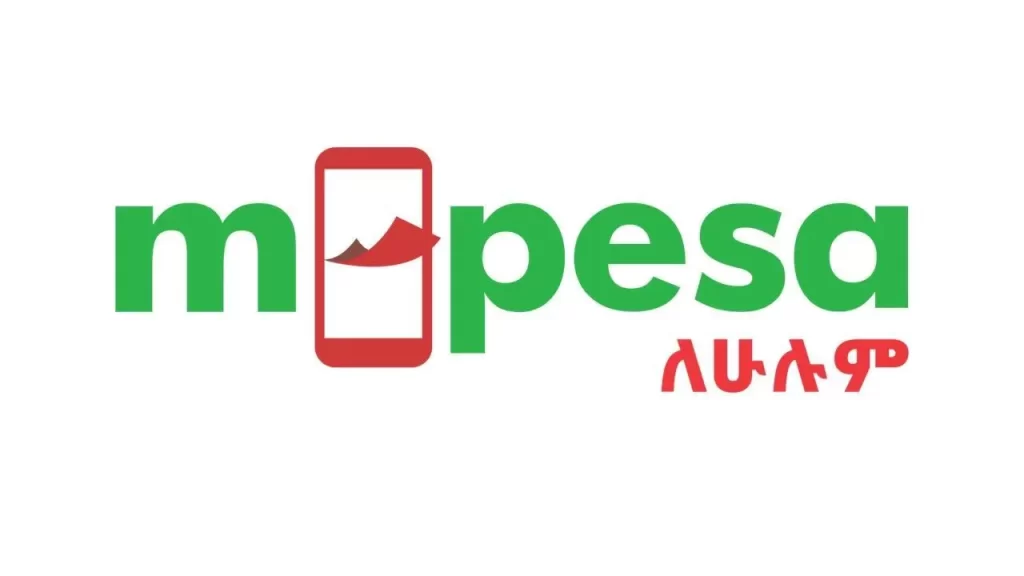
M-PESA Ethiopia Says Its New App Was Blocked on Ethio Telecom Mobile Data Days After Launch
M-PESA Ethiopia says access to its newly launched telco-agnostic application, M-PESA Lehulum (M-PESA for everyone), has been blocked by Ethio telecom. In a public statement dated December 5, 2025, M-PESA Ethiopia said the app is “currently not accessible on smartphones using mobile data services managed by Ethio Telecom,” leaving some customers unable to log in, transact, or retrieve funds. The company said it is engaging regulators to resolve the issue and restore access, framing the disruption as a matter affecting consumer choice and service continuity. The development comes days after M-PESA Ethiopia announced the launch of M-PESA Lehulum on December 1, 2025, which was a major step towards removing traditional network barriers. According to M-PESA Ethiopia, the block started on December 3, two days after the launch. “People were suddenly locked out of their accounts. These are people who have already signed up and deposited money. They are calling us saying they are unable to access their money,” M-PESA Ethiopia told Shega in a statement. Shega tried to access M-PESA Lehulum with an Ethio telecom SIM card and mobile data and, as of the time of writing, was also unable to do so. Shega was unable to obtain a comment from Ethio Telecom before publication.


Bank of America Partners with Great Ethiopian Run to Expand Access to Endurance Sports
ADDIS ABABA | CHARLOTTE, NC – Great Ethiopian Run today announced a multi-year partnership with Bank of America to serve as the Presenting Partner for Great Ethiopian Run beginning in 2026. The partnership extends the bank’s global endurance portfolio into one of Africa’s most dynamic and fast-growing running communities. Together, Bank of America and Great Ethiopian Run will promote the growth of three major running events – the Great Ethiopian Run International 10km, its associated Children’s Races and, beginning in 2027, the Women First 5km – all presented by Bank of America to drive visibility for Ethiopia’s vibrant running culture and contribute to the local economy through sport, tourism and enterprise. Bank of America’s partnership with Great Ethiopian Run is rooted in a community-driven approach to inspire the next generation and expand access to endurance sports across Ethiopia and around the world. It reinforces Bank of America’s long-term commitment to driving progress, and support communities through sport, aligning with Great Ethiopian Run’s core vision to make running a lifestyle for everyone. “We are very excited about the next stage of the journey for Great Ethiopian Run with Bank of America as our partner in all that we do,” said Dagmawit Amare, General Manager at Great Ethiopian Run. “With a strong commitment to our community and to the next generation, we will work together to use our flagship race to broaden our reach and find new ways to increase access to running for children and young people.” A central goal of the collaboration is to significantly boost participation in the iconic Great Ethiopian Run International 10km event, with this Sunday’s 25th anniversary race expected to attract around 50,000 participants, along with expanding participation in the children’s and women’s events. These initiatives underscore a shared dedication to fostering local talent, promoting a healthy lifestyle and creating platforms that celebrate Ethiopia’s unique running culture and community spirit.


Ethiopia’s Central Bank Announces $50 Million FX Auction for December 2
The National Bank of Ethiopia (NBE) has announced that it will conduct its eleventh foreign exchange auction of the year on Tuesday, December 2, 2025, offering $50 million to participating commercial banks. The auction is part of the central bank’s renewed commitment to running a predictable, bi-weekly FX auction system aimed at stabilizing the foreign exchange market and managing inflationary pressures. In a formal notice issued Monday, the central bank underscored that the bi-weekly auctions remain a core instrument of Ethiopia’s gradual FX market reform efforts. The NBE has been emphasizing tighter monetary discipline, measured liquidity injection, and increased transparency in FX allocation as it works to restore macroeconomic stability amid persistent foreign currency shortages.
Banks Invited to Bid Under Strict Submission Window
The NBE has invited all eligible commercial banks to submit their FX bids between 10:00 AM and 12:00 noon on Tuesday. Submissions will be accepted exclusively through the designated email address [email protected], and the results are scheduled to be announced at 3:00 PM on the same day. Successful settlements will be executed by the end of the business day on December 2, 2025, signaling the central bank’s intent to maintain a rapid, time-bound cycle that reduces uncertainty for banks and businesses dependent on foreign currency.
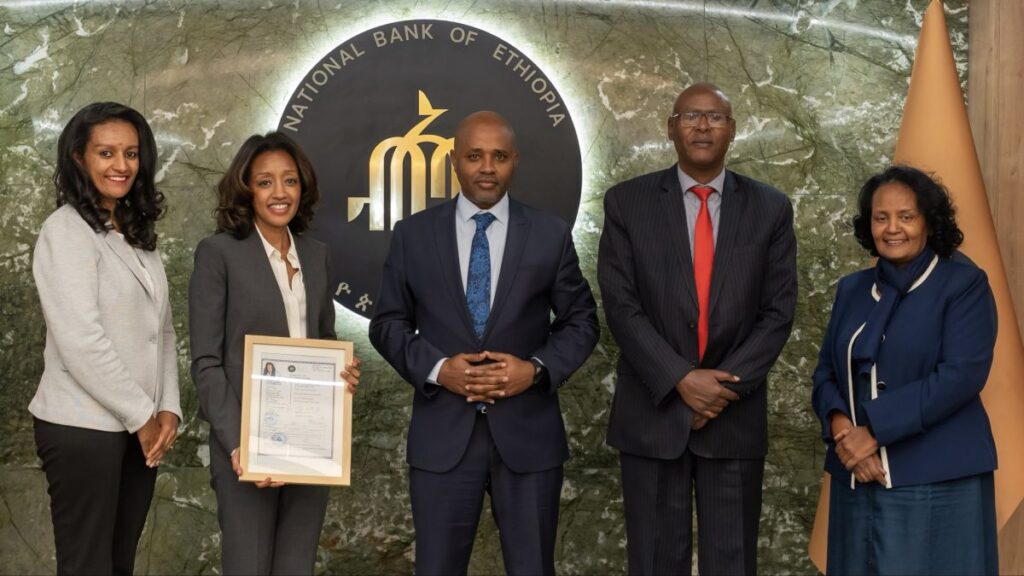
Standard Bank Becomes First Foreign Institution Re-Licensed Under Ethiopia’s New Banking Regime
Addis Ababa — Ethiopia has taken its first concrete step toward opening its protected financial sector, with the National Bank of Ethiopia re-licensing Standard Bank’s Representative Office under the country’s revised Banking Business Proclamation. The South African lender is the first foreign institution to secure approval since Ethiopia shifted supervisory authority for foreign bank representative offices from the Ministry of Trade to the central bank. The NBE described the move as marking “the beginning of a new regulatory era,” underscoring its intention to apply tighter, more centralized oversight as part of wider financial-sector reforms.
Regulatory Transition Signals Policy Shift
Under the updated framework, the NBE now has full mandate to license, supervise and renew authorizations for Foreign Bank Representative Offices (REPOs). All existing offices are required to undergo re-licensing, while new applications will be evaluated under the strengthened rules. The change is a key step toward Ethiopia’s gradual opening of its banking market, a long-awaited reform closely watched by global lenders, regional banks, and investors positioning for eventual entry.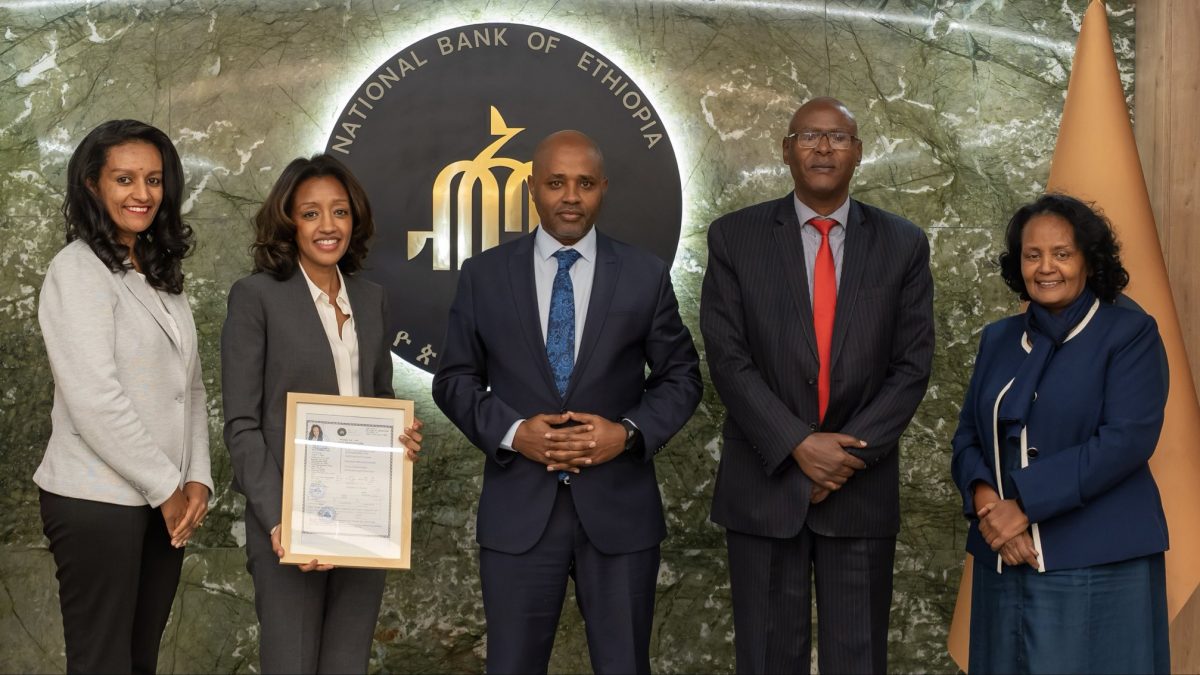
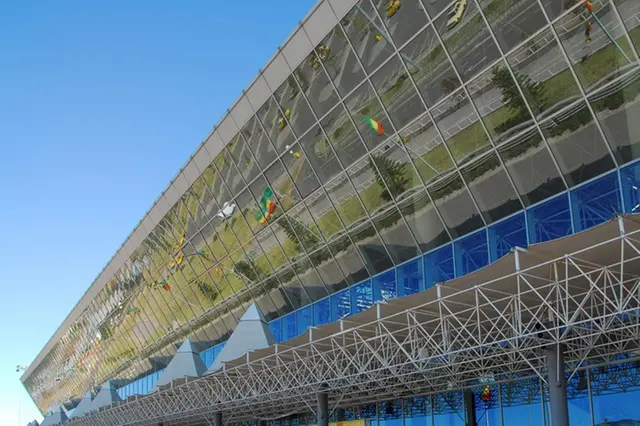
Chinese to finance $10bln Ethiopian airport project


Volcano in Ethiopia erupts for first time in nearly 12,000 years: “It felt like a sudden bomb”
A volcano in Ethiopia's northeastern region erupted for the first time in nearly 12,000 years, sending thick plumes of smoke up to nine miles into the sky, the Toulouse Volcanic Ash Advisory Centre (VAAC) said. The Hayli Gubbi volcano, located in Ethiopia's Afar region about 500 miles northeast of Addis Ababa near the Eritrean border, erupted on Sunday for several hours. The volcano, which rises about 1,500 feet yards in altitude, sits within the Rift Valley, a zone of intense geological activity where two tectonic plates meet. Ash clouds from the volcano drifted over Yemen, Oman, India, and northern Pakistan, said the VAAC, which posted a map of the path of the ash cloud. Air India said on Tuesday said it had canceled at least 11 flights due to the ash plumes, and Akasa Air said it canceled flights to some Middle East destinations, the Reuters news agency reported. Simon Carn, a volcanologist and professor at the Michigan Technological University, confirmed on Bluesky that the ash cloud was "spreading rapidly east in the subtropical jet stream, over the Arabian Sea towards NW India and Pakistan."


New EthSwitch-Mastercard Partnership Lets Ethiopian Banks Issue Cards Usable Worldwide
EthSwitch and Mastercard have agreed to allow Ethiopia’s national switch operator to connect directly to Mastercard’s network through the Mastercard Interface Point (MIP) and Mastercard’s Global Payment Gateway Services (MPGS). The partnership, signed on Monday at the Sheraton Addis hotel, also includes advisory support from Mastercard to help Ethiopian financial institutions adopt internationally accepted payment solutions. Under the agreement, Ethiopian banks will be able to issue co-branded prepaid hard-currency cards usable at ATMs, point-of-sale terminals, and online merchants worldwide. Businesses in Ethiopia will also gain the ability to accept international payments, opening new opportunities for cross-border commerce. “This partnership will take EthSwitch to the international level,” said Yilebes Addis, CEO of EthSwitch. He noted that enabling businesses to accept global payments would provide a major boost to the development of e-commerce in Ethiopia. He also expressed excitement about the potential for locally issued prepaid cards to be accepted globally through Mastercard’s network. “Through the partnership, any foreign card can be used for payment in Ethiopia,” Yilebes told Shega. EthSwitch reported a record gross profit of 1.4 billion Birr in the last financial year, a 34% increase from the previous year’s 1.06 billion Birr. Interoperable transaction fees remained the backbone of EthSwitch’s income, with person-to-person (P2P) transactions generating 902.6 million Birr, nearly half (49.9%) of operational revenue and up 123% year-on-year. ATM transactions contributed 825.1 million Birr, or about 45.6% of operational revenue.

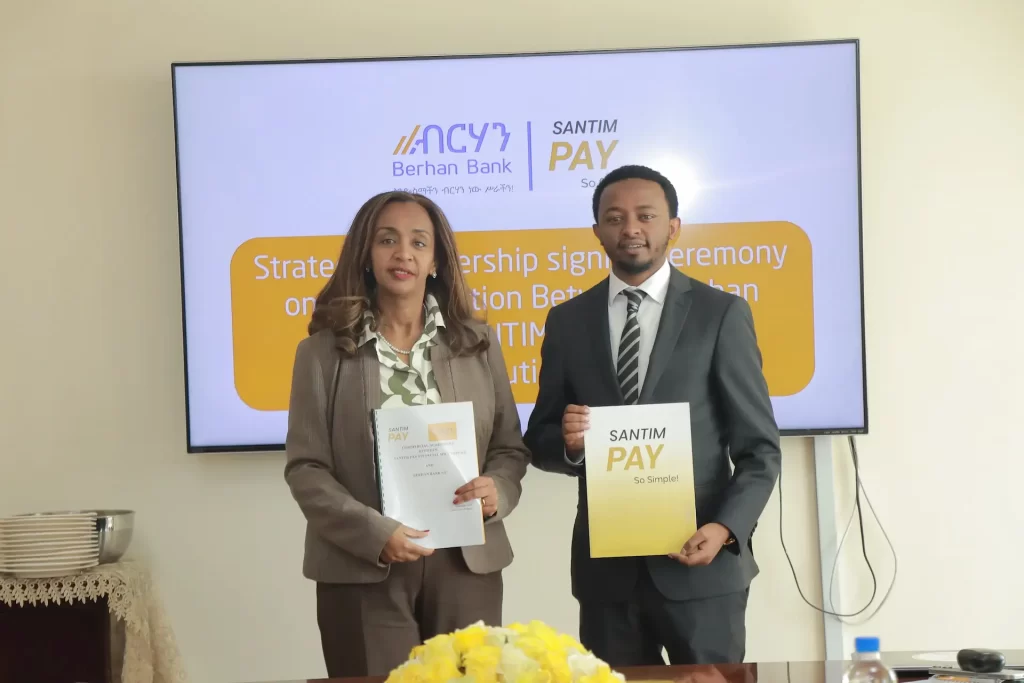
Berhan Bank, SantimPay Sign Deal to Deploy PoS Devices Across Ethiopia
SantimPay Financial Solutions and Berhan Bank have signed a strategic partnership agreement to deploy low-cost Point-of-Sale (POS) devices to merchants across Ethiopia. The agreement, signed at Berhan Bank’s headquarters three days ago, positions SantimPay to support the bank in distributing POS devices and onboarding merchants, with the aim of significantly increasing payment acceptance points nationwide. The collaboration comes as SantimPay gains momentum in Ethiopia’s digital payments sector. In September, the fintech announced a major partnership with global payments company Visa to deploy up to 20,000 POS devices over the next year. Under that arrangement, Visa will cover the upfront hardware cost, allowing SantimPay to offer the terminals to merchants at no charge. POS adoption in Ethiopia has long remained limited. Commercial banks have historically concentrated deployments in select locations in Addis Ababa, citing high device and maintenance costs. Although the number of terminals has increased slightly in recent years, fewer than 10,000 active devices serve a market of more than 40 million cardholders, meaning most card users still rely primarily on ATMs for cash withdrawals. Increasingly, fintech companies are stepping in to expand POS distribution through new partnership models. According to the latest figures from Ethiopia’s national switch operator, EthSwitch, 2.78 million interoperable POS transactions worth 7.2 Billion birr were recorded in 2024/25, a 24% increase from the previous year. Despite this progress, acceptance infrastructure remains far below demand.
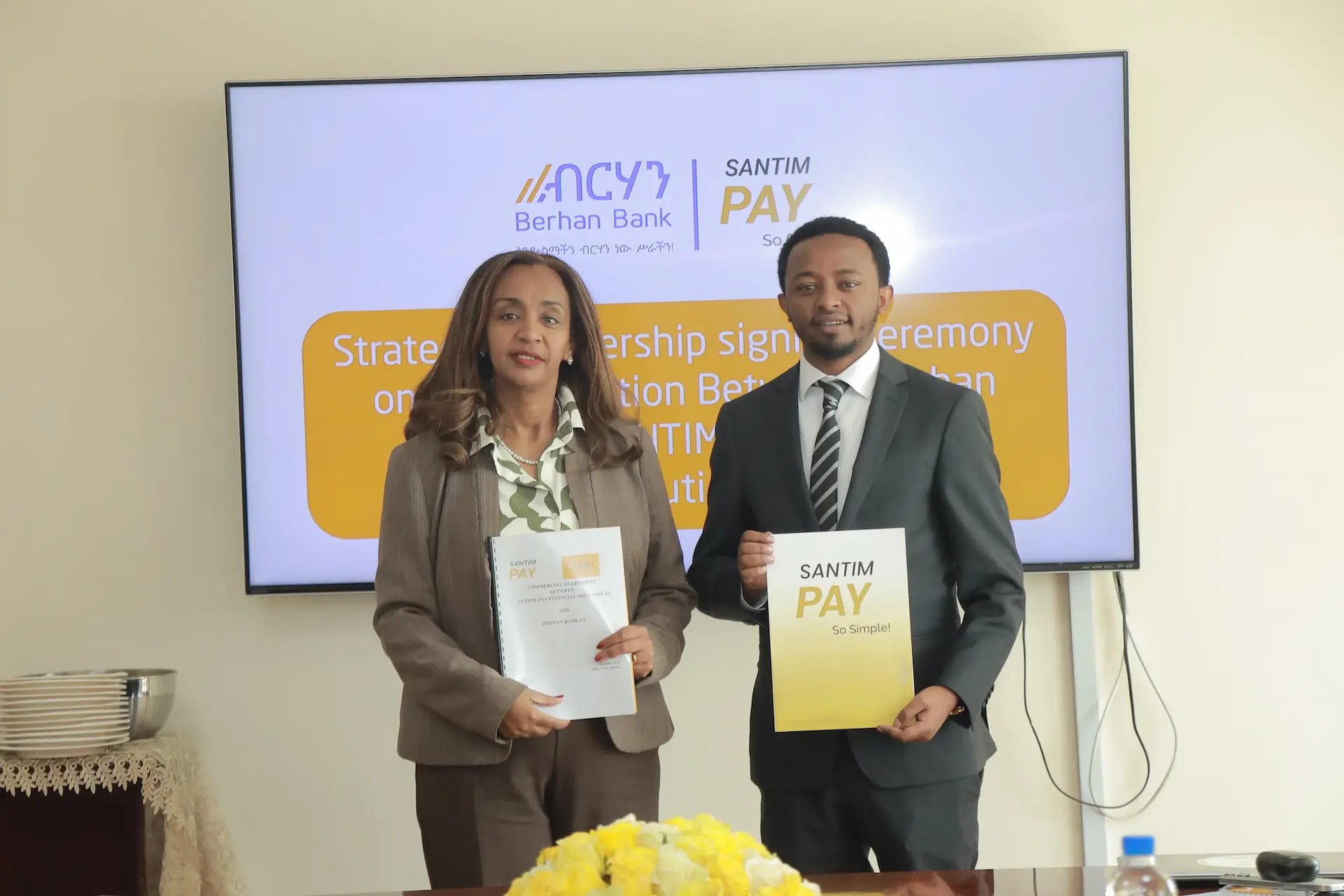
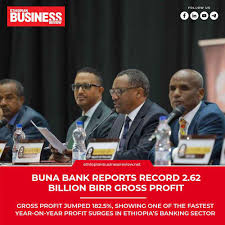
Awash Bank Reports Record 25.67 Billion Birr Gross Profit
Awash Bank has posted the highest profit ever recorded by a private bank in Ethiopia, reporting a gross profit of 25.67 billion Birr for the 2024/25 fiscal year—a 137% surge compared to the previous year. Net profit stood at 18.712 billion Birr, solidifying Awash’s position as the most profitable private financial institution in the country. The results were unveiled during the bank’s 30th Regular and 18th Extraordinary Annual General Meeting (AGM) held at the Skylight Hotel in Addis Ababa. Speaking at the event, Board Chairperson Gure Kumssa stated, “This profit recorded by the bank makes it the bank with the highest profit in the history of private banks,” underscoring the scale of the achievement.
Earnings Jump as Asset Quality Remains Strong
Awash Bank’s profitability translated into sharp growth in shareholder returns. Earnings per share (EPS) rose to 783 Birr per 1,000 Birr par value, up from 487 Birr the previous year—an increase reflecting the bank’s robust operational performance.
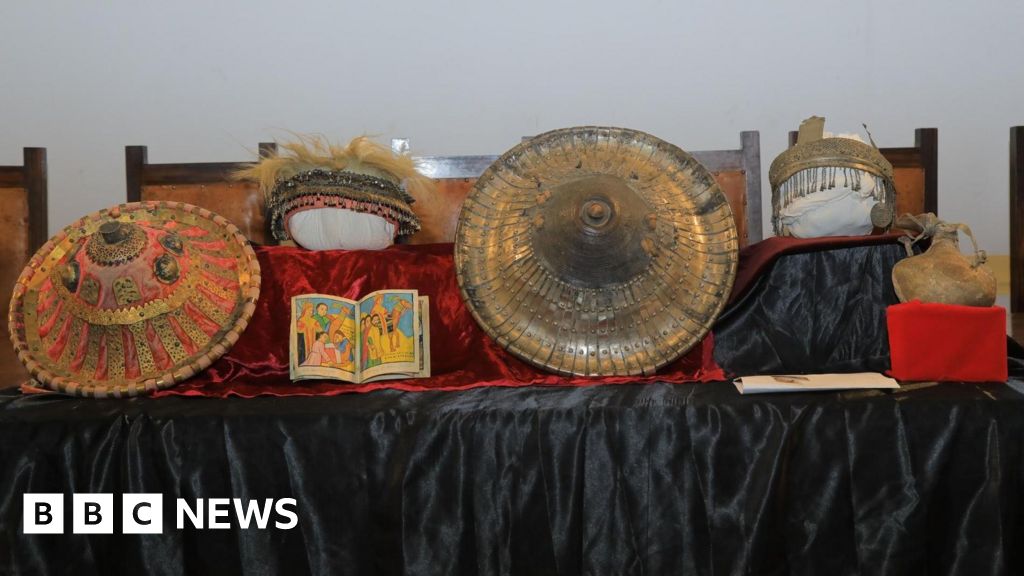
Ethiopia receives historic artefacts held in Germany for 100 years
Twelve historical artefacts have been formally returned to Ethiopia after being kept by a German family for more than 100 years.
The artefacts, originally collected in the 1920s by Germany's then-envoy to Ethiopia Franz Weiss and his wife Hedwig, were handed over on Wednesday to the Institute of Ethiopian Studies at Addis Ababa University.
The collection included crowns, shields and paintings, all considered culturally and historically significant in Ethiopia.
"The artefacts still stand as a symbol of the long-standing and friendly relationship between Germany and Ethiopia," said Ferdinand von Weyhe, Germany's envoy to Ethiopia.
Professor Ramon Wyss, whose father was born during the family's diplomatic posting in Ethiopia, handed over the items at a ceremony attended by Tourism Minister Selamawit Kassa.
He said the family's intention to return the artefacts was to "share their beauty with the public and preserve the culture and history connected to my father's birth".


Ethiopia’s Central Bank Sets USD 520 Million FX Auction Plan Through March 2026
Addis Ababa — November 20, 2025 — The National Bank of Ethiopia (NBE) has unveiled a detailed bi-weekly foreign exchange (FX) auction schedule for the remainder of the current fiscal year, allocating a combined USD 520 million to stabilize the market and reinforce transparency in FX distribution. According to the announcement, the central bank has set aside USD 420 million for the third quarter of FY 2025/26 and an additional USD 100 million for December 2025, bringing the total planned auction allocations to over half a billion dollars. The move is part of NBE’s ongoing reforms aimed at increasing predictability in the FX market, improving liquidity for priority sectors, and strengthening market confidence amid persistent foreign currency shortages.
December Auctions to Release USD 100 Million
For the remaining sessions of QII, scheduled on December 2 and December 16, NBE will offer USD 50 million per auction. Market analysts expect demand to significantly exceed supply, particularly from manufacturing, agriculture, and import-dependent sectors facing tight FX positions.
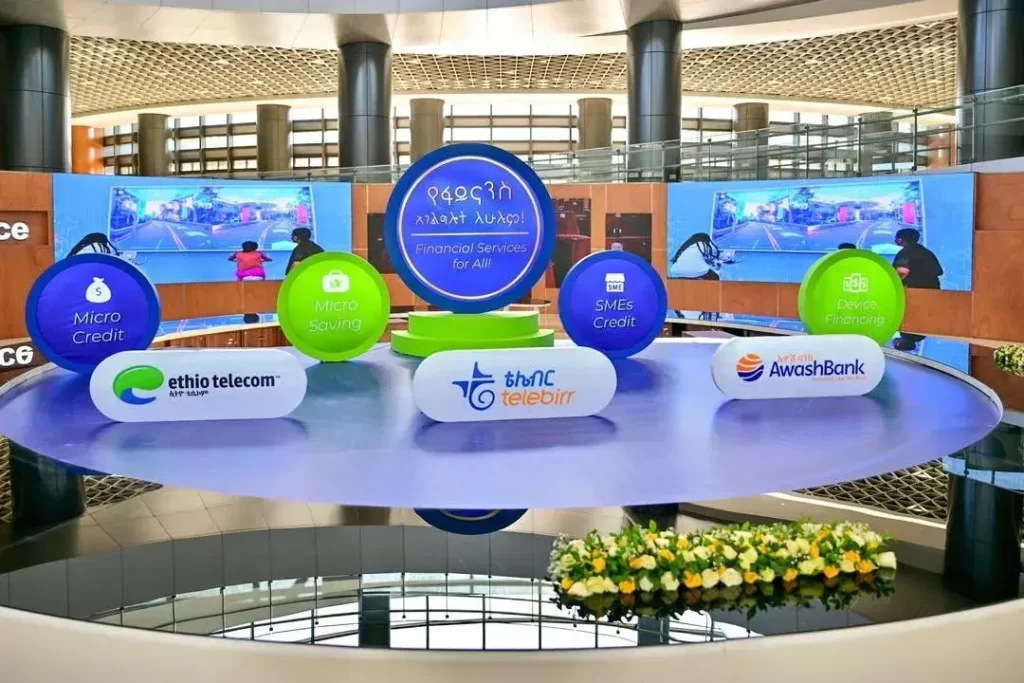
Ethio Telecom, Awash Bank Introduce New Financial Service Suite Including Salary Loans Up to 1M Bir
A new partnership between majority state-owned Ethio Telecom and Ethiopia’s most profitable private commercial bank, Awash Bank, was unveiled today, introducing a menu of collateral-free micro-credit, savings, SME lending and device-financing services. The offering, branded Tilla, will be delivered through Telebirr, the telecom operator’s fast-expanding mobile money platform. The rollout comes at a moment of extraordinary growth for Awash Bank, which reported gross profits of more than 22 billion Birr for the 2024/25 financial year, a 113 percent jump from the previous year. The bank has been working to deepen its digital footprint in Ethiopia’s financial sector. Earlier in the day, its investment-banking subsidiary received a license from the Ethiopian Capital Market Authority, marking another milestone in the sector’s slow but steady shift toward modernized, regulated financial services. At the heart of the new service is a tiered credit system that ranges from short-term micro loans to large salary-based financing. The micro-credit products start with a 15-day loan from 500 Birr upward, extending to a six-month salary loan that climbs as high as 1 million birr and can be repaid over 16 months. Facilitation fees start at 1.25 percent for the briefest loans, with additional daily charges between 0.5 and 1.25 percent. For the 40-day and 75-day loans, the same daily fees apply, although first-day facilitation fees rise to 4.5 percent and 6.5 percent respectively.
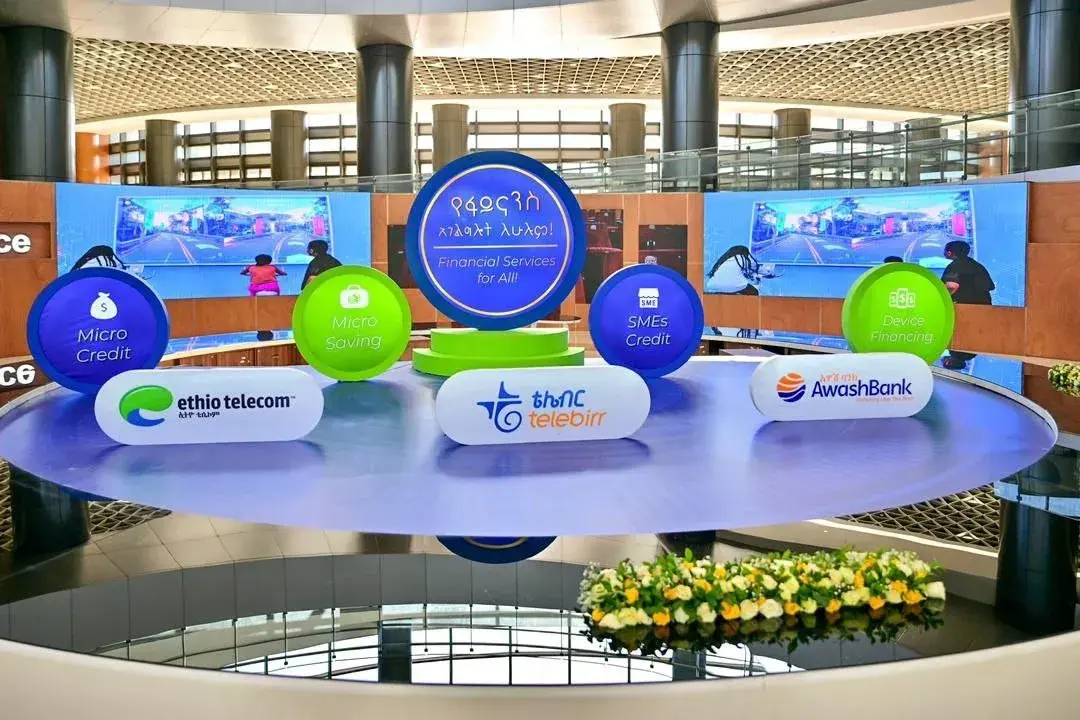
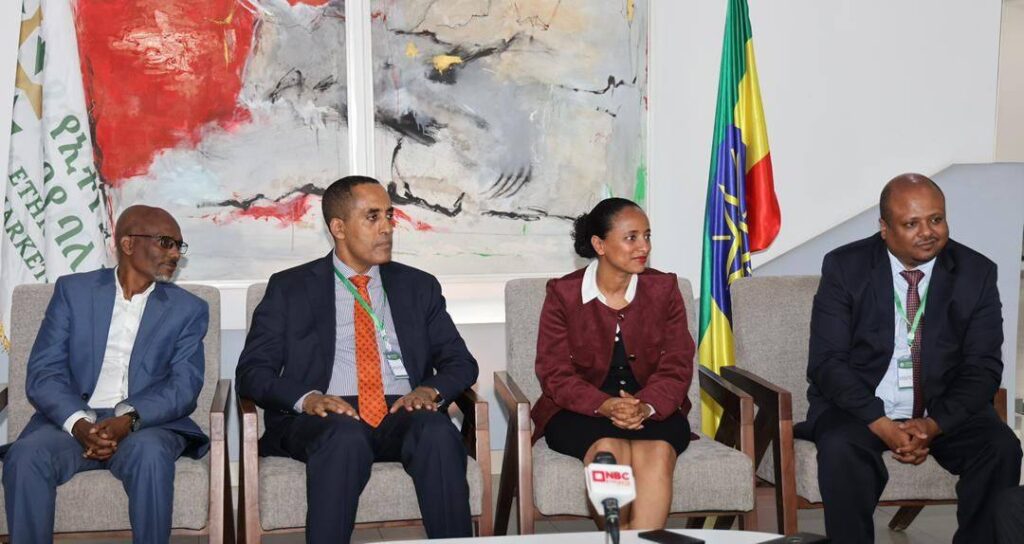
Ethiopia Adds Fourth Investment Bank as ECMA Licenses Awash Capital S.C.
Regulator pushes momentum in nascent capital market with 13 CMSPs now approved
The Ethiopian Capital Market Authority (ECMA) has issued a Capital Market Service Provider (CMSP) license to Awash Capital S.C., authorizing the company to operate as an Investment Bank within a banking group—a move that signals growing confidence in Ethiopia’s newly emerging capital markets ecosystem. The approval brings the total number of licensed CMSPs to thirteen (13), of which four (4) now hold investment banking licenses. The decision deepens market participation at a critical time as Ethiopia prepares for the operationalization of the Ethiopian Securities Exchange (ESX), expected to transform domestic finance by widening access to capital and unlocking new funding instruments for companies.A Milestone in Market Maturation
During the licensing ceremony, ECMA Director General Hana Tehelku presented the license to Awash Capital S.C. and congratulated the institution for meeting the regulatory requirements, including securing approval for five board directors and four Appointed Representatives. Hana emphasized that Awash Capital’s entry strengthens the competitive landscape and is emblematic of the regulator’s broader mission: to build a reliable, transparent, and investor-centric capital market framework capable of sustaining long-term economic growth.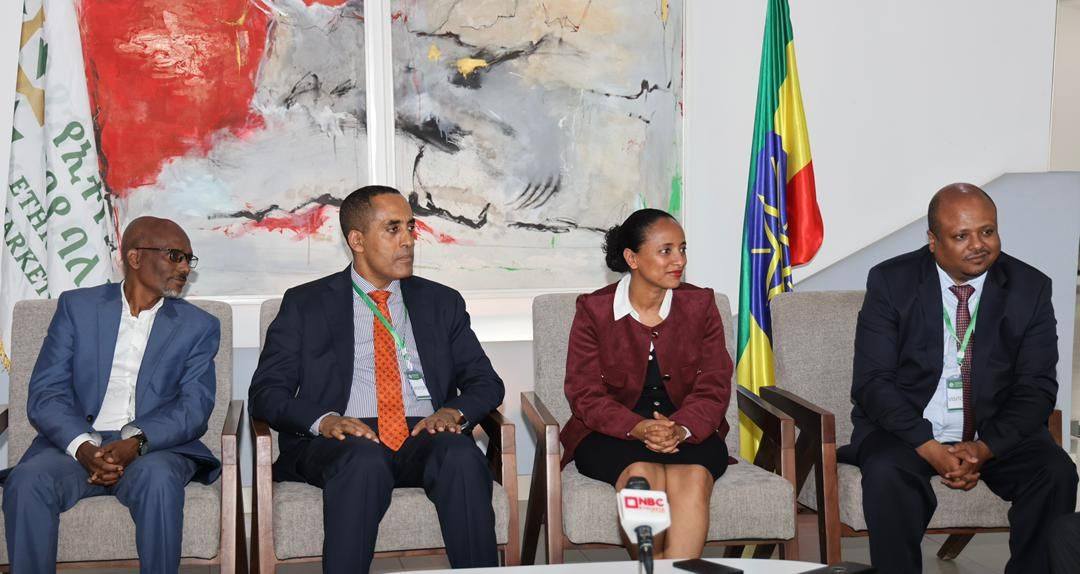
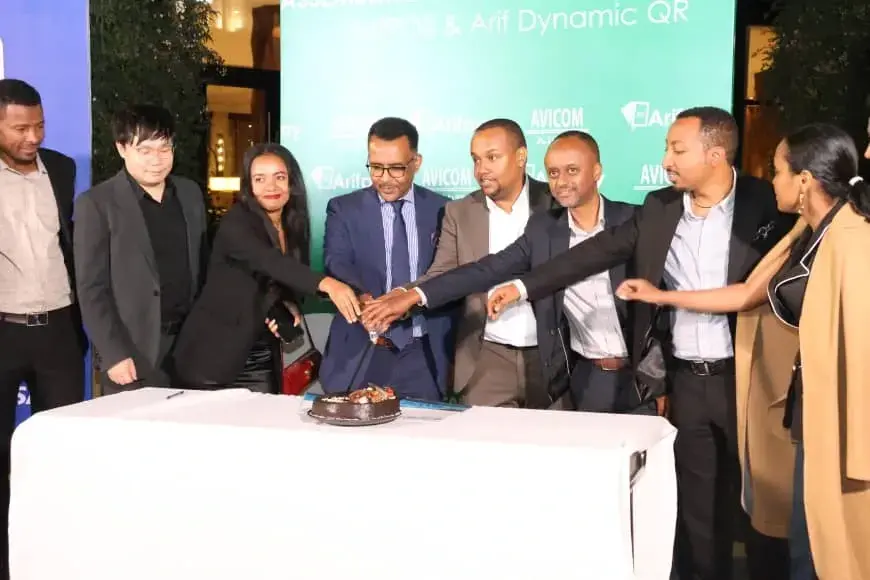
Arifpay Partners with Visa, AVICOM to Roll Out 10,000 POS Terminals across Ethiopia
Arifpay Financial Technologies S.C. is set to deploy 10,000 new point-of-sale (POS) terminals to small and medium-sized enterprises (SMEs) across Ethiopia, following two key partnership agreements signed today. The digital payment provider, established with 270 million Birr in paid-up capital, secured financing from Visa for the terminal acquisitions and named AVICOM as the official hardware supplier for the initiative. The move aims to address the limited digital payment options for merchants outside of major cash-based operations. The rollout targets a wide range of small businesses, including supermarkets, cafés, and pharmacies. The new Android terminals are designed to handle multiple payment forms on a single device, a significant step toward interoperability in a fragmented market. The terminals will accept local mobile wallets, domestic cards processed through EthSwitch, and international cards, including those from Visa. This functionality could provide a notable boost to SMEs that currently struggle to serve international customers. For the first time, many smaller merchants will be able to accept payments from tourists and the Ethiopian diaspora, potentially opening a new revenue stream. Beyond payment processing, the terminals will offer merchants digital tools for receipting, sales tracking, and remote management via Arifpay’s cloud system.

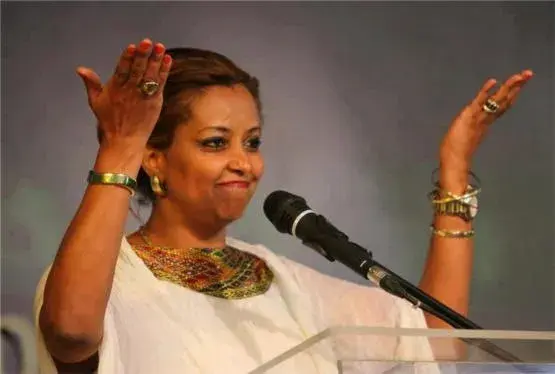
Eleni Gebre-Madhin Honored with Lifetime Achievement Award at ASEB Summit
Eleni Gebre-Madhin (PhD), the economist and market architect widely credited with creating the Ethiopian Commodity Exchange (ECX), received the Lifetime Achievement in Innovation and Entrepreneurship Award on Monday at the closing session of the African Startup Ecosystem Builders Summit and Awards, held at the Skylight Hotel. The award marked the conclusion of a three-day gathering of founders, investors, policymakers, and ecosystem leaders from across Africa, focused on the institutions and individuals shaping the continent’s innovation economy. Eleni was recognized for a career that combined market reform, institution-building, and early-stage startup support. She rose to prominence as the architect and first CEO of the ECX, launched in 2008, which introduced a structured commodity trading floor, warehouse receipts, and regular price dissemination, hoping to transform the country’s agricultural markets. After leaving the Exchange, she founded eleni LLC, securing backing from institutions such as Morgan Stanley to advise on the design of commodity exchanges in emerging markets. In 2016, she launched blueMoon, later rebranded BlueSpace, a business incubator and co-working space in Ethiopia supporting startups and youth entrepreneurs. More recently, she advanced her pan-African vision through Timbuktoo, a $1 billion UNDP initiative based in Rwanda that connects policy, finance, and research to support cross-border entrepreneurship.


Ethiopian Airlines Signs Deal for 11 Additional Boeing 737 MAX Jets
Ethiopian Airlines, Africa’s largest carrier and one of Boeing’s most strategic global partners, has committed to purchasing 11 additional Boeing 737-8 MAX aircraft, further cementing its role as a major driver of aviation growth on the continent. The agreement, signed at the Dubai Airshow, marks a significant expansion of the airline’s narrowbody fleet and reinforces Addis Ababa’s position as a rapidly expanding regional hub. The new commitment adds to Ethiopian’s already substantial Boeing backlog — the largest in Africa — which includes orders for 737 MAXs, 787 Dreamliners, and the next-generation 777X. The latest order brings Ethiopian closer to achieving its long-term “Vision 2035” strategy, which aims to position the airline among the world’s top 20 global carriers.
A Strategic Boost to Regional Connectivity
Ethiopian Airlines Group CEO Mesfin Tasew said the purchase aligns with the airline’s aggressive growth strategy.“This order will support our growth plans set as part of our long-term vision and strategy. We are happy that our partnership with Boeing continues to grow, and we look forward to flying Boeing airplanes for years to come,” Tasew said.The airline currently uses the 737 MAX to serve high-density African routes, as well as medium-haul destinations in the Middle East, India, and Southern Europe. The model’s fuel efficiency, quick turnaround capability, and extended range have positioned it as a workhorse for regional expansion at a time Africa’s air travel demand continues to rise.


Ethiopia’s 30% Fuel Tax Takes Effect Next Month as Government Pushes Toward Full Cost Recovery
Ethiopia is preparing to introduce a major shift in its fuel pricing regime, with a combined 30% tax on petroleum products set to take effect next month. The measure reflects the government’s wider move away from decades-long fuel subsidies as it pursues fiscal consolidation, tackles budget pressures, and advances the Homegrown Economic Reform Agenda. The Ethiopian Petroleum Supply Enterprise (EPSE) will begin collecting the new charges—15% VAT + 15% excise tax—as part of a phased transition toward market-based pricing for petrol and diesel. The Ministry of Finance (MoF) has instructed EPSE to remit all federal fuel-related taxes directly to the Ministry of Revenues, signaling the centralization and tightening of fuel-related fiscal flows.
Reforming One of Ethiopia’s Costliest Subsidies
Fuel subsidies have long been among the government’s largest fiscal burdens. Since mid-2022, authorities have been dismantling them gradually, a process that has already resulted in higher pump prices across the country. The new tax regime brings Ethiopia a step closer to the government’s stated goal: achieving full cost recovery for petrol and diesel by December 2025, including all statutory taxes.

Ethiopia Flirts with a ‘Kazakhstan Moment’ as Bitcoin Miners Weigh Exit
Two weeks ago, Ethiopian Electric Power (EEP) announced a new, multi-phase tariff structure for Bitcoin miners. Scheduled to take effect in the coming month, the framework will replace the flat rate of around $0.0314 per kilowatt-hour with a more complex system that incorporates time-of-use pricing and an availability-based rate. The increases are steep: close to 30% in December 2025, followed by 24% in July 2026 and 28% in July 2027. The move comes a few months after the state-owned power provider announced it would no longer issue new permits for bitcoin miners. The notice landed abruptly, and while some mining companies are still hoping for negotiations, the announcement has sent shockwaves across the industry, with some weighing the possibility of shutting down or selling facilities to relocate to markets with more predictable regulatory environments. For Bitcoin miners, electricity is the single most important factor in determining their operating costs. Power expenses gobble up around 60% of total revenue, and in some cases, that could goes up to 70%. Following the new tariff announcement by Ethiopian Electric Power (EEP), QRB Labs, the only Ethiopian-founded Bitcoin mining company, issued a statement cautioning of severe adverse consequences for the sector.

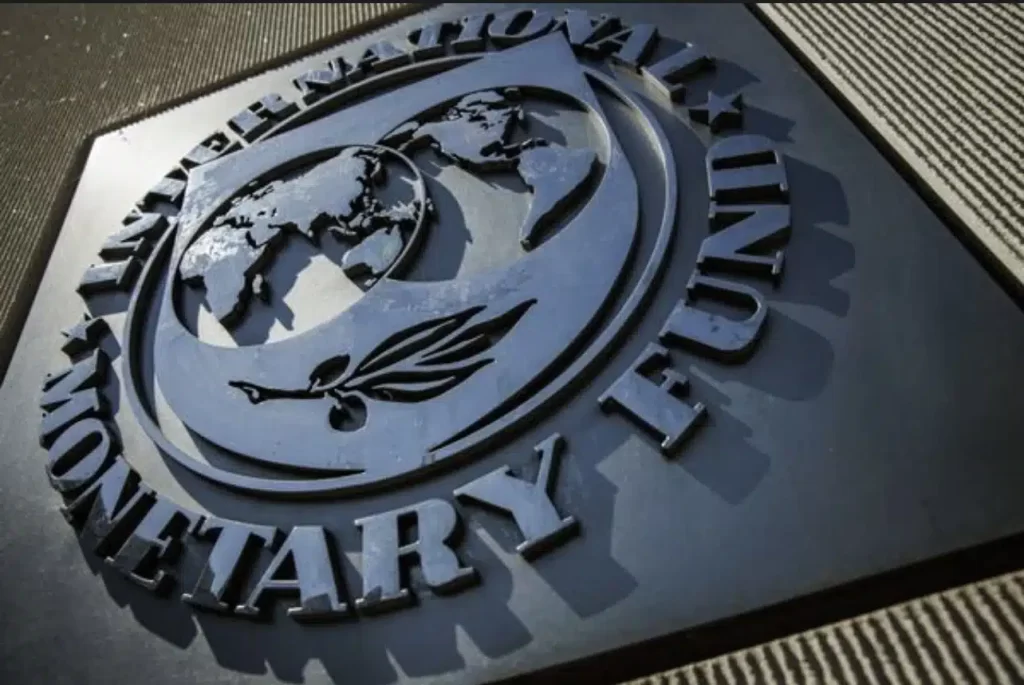
IMF Flags Currency Risks as Kenya and Ethiopia Pivot to Yuan Debt Swaps
The International Monetary Fund has cautioned Kenya and Ethiopia over the rising financial risks tied to their recent decisions to convert portions of their Chinese loans from US dollars into Chinese yuan, warning that the strategy—while lowering immediate borrowing costs—may expose both economies to new layers of currency volatility. Kenya completed the shift on October 7, converting its Ksh646.15 billion Standard Gauge Railway loan into yuan. Treasury Cabinet Secretary John Mbadi said the move would save the government about Ksh27.78 billion annually, thanks to lower CNY-denominated interest rates and extended repayment terms. Ethiopia followed two weeks later, entering talks with Beijing to convert part of its Ksh695.23 billion debt into yuan as it battles a severe foreign-exchange crunch and a protracted restructuring process under the G20 Common Framework.
IMF Cautions on Currency Risk
In a November 11 statement to Bloomberg, an IMF spokesperson said the Fund sees currency swaps as “proactive debt management tools,” but added that their benefits depend heavily on structure and execution.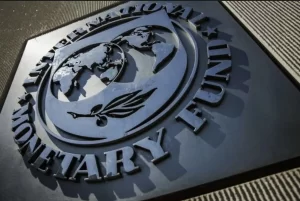

Ethiopia, RUSAL Advance Plan for $1 Billion Aluminium Smelter as MoU Signed
Addis Ababa — Ethiopian Investment Holdings (EIH) has signed a Memorandum of Understanding (MoU) with RUSAL, one of the world’s largest producers of low-carbon aluminium, to push forward plans for a major aluminium smelter in Ethiopia. The proposed plant will have an annual production capacity of 500,000 metric tons, positioning Ethiopia as a competitive player in both regional and global aluminium markets. The project aims to meet rising domestic demand, support industrial expansion, and curb the country’s foreign-currency spending on aluminium imports. According to EIH, the smelter is expected to be developed over 3 to 4 years, with an operational lifespan of up to 50 years, making it one of the country’s most significant long-term industrial investments. The first phase of the project, valued at around USD 1 billion, is set to receive 70% financing from committed debt providers who have already shown strong interest in backing the initiative. Following the MoU, EIH and RUSAL have formed a joint technical committee to guide project preparation. Early-stage activities — including site identification and a full feasibility study — are actively underway. The partnership reflects EIH’s broader strategy to attract top-tier international investors, strengthen Ethiopia’s industrial base, and accelerate large-scale strategic projects that contribute to sustainable economic growth.


Ethiopia wins bid to host COP32 in 2027, edging out Nigeria
Ethiopia said on Tuesday it would host the United Nations' COP32 climate summit in 2027, fending off a rival bid from Nigeria to land an influential role that will allow it to shape the agenda and outcomes of the event. The more immediate choice of host for next year's COP31 remains unresolved, however, with both Australia and Turkey vying for it. The news broke on the second day of COP30, the 30th UN climate change conference held in Belem, in the Brazilian Amazon. Richard Muyungi, chair of the Africa Group of Negotiators told AFP the group "has endorsed Ethiopia." The Brazilian presidency of COP30 confirmed the African countries' choice to French press agency AFP. It's not yet official -- the decision still needs to be officially adopted by all participating nations during the conference, which ends on November 21 -- but that should be a formality. "We welcome the announcement of COP32 in Ethiopia and look forward to elevating Africa's climate priorities and leadership," said Rukiya Khamis, Africa senior organiser at the nonprofit 350.org. UN climate conferences are organized in rotation among five regional blocs, which must select the host country by consensus within their group. The process can lead to power struggles.


EIH-Backed Akobo Minerals Eyes Expansion in Ethiopia Amid Record Gold Prices
Akobo Minerals, a boutique Scandinavian gold producer, looks to expand its operations in Ethiopia after acquiring an additional exploration license in Abobo Woreda, Gambela Regional State. The company, which is currently engaged in gold production in Dima Woreda of the Segele Shama Gold District, covering a 16-square-kilometer mining area, has now been granted a new license for exploration at a site around 160 kilometers away, according to Tamiru Hailu, General Manager at Etno Mining, Akobo’s Ethiopian subsidiary. “We will begin exploration this year,” Tamiru told Shega on the sidelines of the High-Level Ethiopia–Sweden Business Forum held at the Sheraton Hotel on Wednesday evening. Akobo has operated in Ethiopia for the past 15 years and reached a successful production in 2024 . The company, named after the Akobo River that flows from Mizan Teferi to the Pibor River bordering South Sudan, sold a 7.4% stake to Ethiopia’s sovereign wealth fund in August for around $3 million . Ethiopian Investment Holdings (EIH) subscribed to 15 million new shares through a private placement as part of its strategy to diversify investments and deliver long-term returns. Tamiru said the EIH investment will be used to expand Akobo’s operational capacity over the coming year and increase production a few times over.


NBE Publishes Official List of Licensed Money Transfer Operators
The National Bank of Ethiopia (NBE) has released the official list of financial institutions authorized to provide money remittance and transfer services in the country, reaffirming that any unlicensed operation in this sector is illegal and punishable by law. In its announcement, the NBE emphasized that only licensed financial institutions are permitted to receive or send funds both domestically and internationally. The Bank warned that engaging with unapproved money transfer agents exposes individuals and businesses to potential fraud, financial loss, and money laundering risks. “Remittance and transfer services must be conducted only through NBE-licensed institutions to ensure safety, compliance, and protection from legal consequences,” the statement said. The following institutions are among those officially authorized by the NBE to provide money remittance and transfer services as of April 1, 2025: Major Licensed Operators Telebirr Remit, Western Union International, MoneyGram, RIA Financial Services, WorldRemit Ltd, Equity Bank (Kenya) Ltd, Onafriq, Zeepay Ghana Ltd, Small World Financial Services, Wise Trading, Safari M-Pesa, and Paypal Inc.


Commercial Bank of Ethiopia Unveils ‘CBE Beje,’ a Digital Salary-Backed Savings and Loan Platform
The Commercial Bank of Ethiopia (CBE), the country’s largest financial institution, has launched a new digital savings and loan service branded “CBE Beje”, marking another major step in the bank’s ongoing digital transformation strategy. The launch event in Addis Ababa was attended by CBE President Abe Sano, Executive Vice President for Corporate Services Afereem Mekuria, and senior leaders from key public institutions and the private sector.
A New Milestone in CBE’s Digitalization Drive
Speaking at the ceremony, Afereem Mekuria said the bank is accelerating its shift toward technology-led service delivery, noting that “CBE is providing efficient and reliable banking solutions by continuously rolling out innovative digital services that save customers’ time.” According to him, the new platform builds on CBE’s broader strategy to modernize its operations, automate credit assessment, and reduce the paperwork traditionally required for small personal loans.Salary-Backed Digital Loans up to 150,000 Br
CBE Beje enables customers to access instant digital loans of up to 150,000 birr without collateral, a significant shift from Ethiopia’s collateral-dependent lending landscape.

British public paying £20m to train tax collectors in Ethiopia
The British public is footing a £20m bill to train tax collectors in Ethiopia, The Telegraph can disclose. With Rachel Reeves thought to be preparing a tax-raising Budget at home, the Government is investing millions of pounds in creating a more “business-friendly” system in the east African nation. The “Tax Transformation Programme” – funded by the Foreign, Commonwealth and Development Office (FCDO) – is intended to help Ethiopia raise more revenue from its population so it can become less dependent on aid. The programme’s aims include improving voluntary compliance, training staff and creating “a tax environment that encourages business”. The TaxPayers’ Alliance, which uncovered the scheme, told ministers to refocus their efforts on “taxpayers at home”, suggesting the money would be better spent helping the Treasury improve the system in the UK. It comes after The Telegraph revealed British aid was being used for a string of projects that have become mired in claims of corruption and waste – while many purportedly green programmes seemingly have nothing to do with the environment.


HD Hyundai’s Sales in Ethiopia Surge 470% as Gold Mining Boom
South Korea’s HD Hyundai Infracore has reported an unprecedented 470 percent jump in equipment sales in Ethiopia this year, reflecting the country’s accelerating mining boom and rising appetite for industrial machinery. The company, which sells construction and mining equipment under the Develon brand, said it delivered around 1,300 units in 2025—its highest annual volume to date in the East African market.
Mining Boom Fuels Equipment Demand
Ethiopia’s mining sector has emerged as one of Africa’s fastest-growing extractive industries. According to data from the Ministry of Mines, the sector expanded by 162 percent year-on-year in the 2024/25 fiscal period, driven largely by artisanal and mid-scale gold operations. Official exports of gold reached US $3.4 billion, up sharply from the previous year’s US $1.3 billion, as the government intensified efforts to formalize small-scale mining and attract foreign investment. This rapid expansion has fueled demand for robust and fuel-efficient machinery. The 36-ton Develon DX360 excavator alone accounted for roughly nine out of every ten units sold by HD Hyundai Infracore in the country. The model’s reputation for durability and fuel economy has made it the preferred choice for mining contractors operating in remote and power-limited regions.

M-PESA Ethiopia Posts 175% Surge in Active Users, Expands National Digital Ecosystem
M-PESA Ethiopia has reported exceptional performance over the past six months, marking a 174.8% year-on-year growth with 3.4 million active customers transacting within a 90-day period. The mobile financial platform processed 12.3 billion Birr in transactions, underscoring its growing influence in Ethiopia’s digital payments landscape. The company has also broadened its merchant base to over 30,700 active businesses, including 316 fuel stations nationwide now accepting M-PESA payments. With a maximum transaction fee capped at just 5 Birr, M-PESA remains one of the most affordable digital finance solutions in the country, positioning itself as a key player in advancing financial inclusion.
Expanding Access Through Innovation
During the reporting period, M-PESA Ethiopia introduced Errif by M-PESA, a digital microloan and equb (rotating savings group) platform designed to provide users with small, flexible loans and community-based savings options. The service aims to bridge financial gaps and empower unbanked and underbanked Ethiopians.

Binance Confirms Talks With Ethiopian Regulators as Website Access Gets Restricted
Over the past three weeks, Ethiopia has quietly restricted access to major global crypto exchange websites — Binance, OKX, and Bybit — in what industry watchers describe as a “silent blockade” targeting unregulated peer-to-peer (P2P) crypto markets. While the exchanges’ mobile apps remain functional, their official websites are inaccessible from Ethiopian IP addresses without a VPN, suggesting a deliberate network-level restriction rather than a random outage. At the same time, users have reported that the “Buy” option on P2P trading platforms has been suspended, preventing Ethiopians from purchasing crypto using the local currency (ETB). The “Sell” function, however, remains active — allowing existing crypto holders to liquidate their assets into Birr.
Binance Confirms Regulatory Engagement
In an email to users titled “Dear Binancians,” the world’s largest exchange acknowledged that local regulators had requested compliance measures relating to parallel market activities. The message reads:“We understand that the recent lack of P2P adverts has been inconvenient for many of our users, and we sincerely appreciate your patience. Over the past few weeks, Binance has been engaged by local regulators to adhere to their instructions and support their efforts to manage parallel markets.

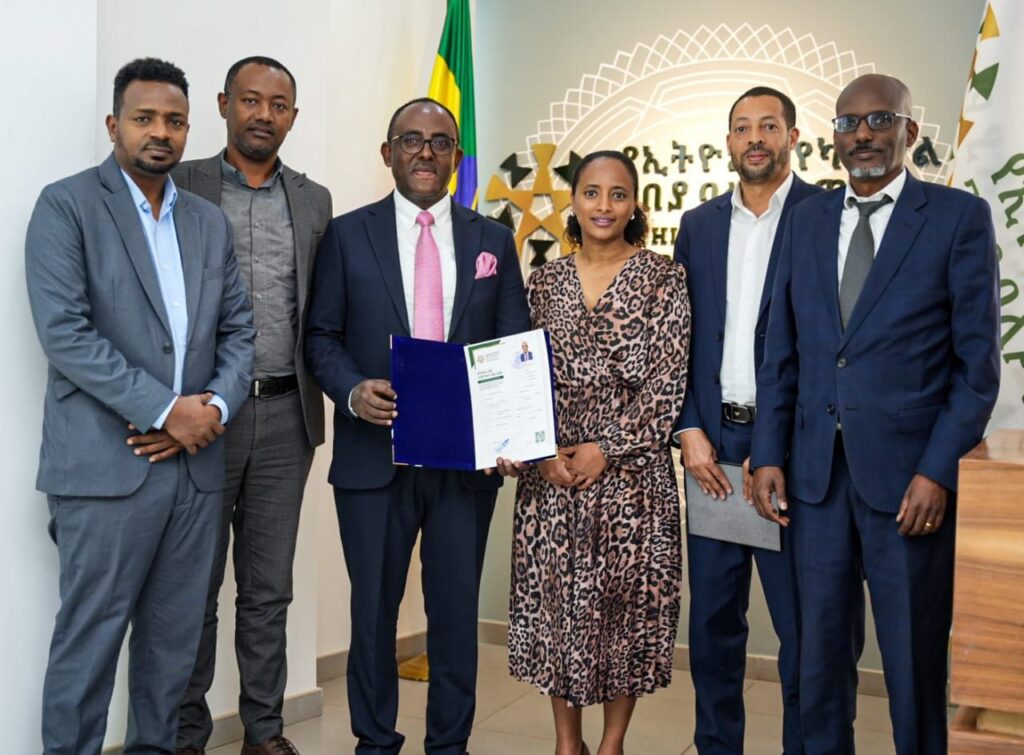
Ethiopia’s Capital Market Expands: ProInvest Capital Becomes 12th Licensed Service Provider
ADDIS ABABA, November 3, 2025 – The Ethiopian Capital Market Authority (ECMA) today announced it has granted a Capital Market Service Provider (CMSP) license to ProInvest Capital PLC, marking another step in the rapid formation of the nation’s new financial ecosystem. The license, officially issued today, authorizes ProInvest Capital to operate in the Securities Investment Advisor category. Alongside the firm’s license, the ECMA has also approved the licensing of four (4) Appointed Representatives who will work within ProInvest Capital. This latest addition brings the total number of licensed capital market service providers in Ethiopia to twelve (12), a significant milestone that underscores the growing momentum of the emerging market.
Growing Ranks of Financial Intermediaries
ProInvest Capital’s license comes on the heels of a recent expansion just last month. In early October 2025, the ECMA licensed three other firms—Ignite Capital, Zuri Capital, and First Addis Investment Bank—which brought the total number of providers from eight to eleven. ProInvest’s entry as the twelfth provider signals sustained interest from the private sector in playing a role in the new market.

Ethiopia achieves major milestone in medicines regulation reaching WHO Maturity Level 3
Ethiopia has been formally recognized by the World Health Organization (WHO) for achieving Maturity Level 3 (ML3), placing it among nine African countries with this status in WHO’s global classification of national regulatory authorities. This milestone reflects the Ethiopian Food and Drug Authority’s (EFDA) commitment to ensuring that medicines and imported vaccines available in the country meet international standards of quality, safety and efficacy. The designation follows a comprehensive WHO assessment using its Global Benchmarking Tool, which evaluates regulatory systems against more than 250 indicators. Maturity Level 3 is defined by WHO as a stable, well-functioning, and integrated regulatory system. Countries that reach this level are recognized for their capacity to authorize medical products, conduct market surveillance and monitor safety events effectively. Maturity Level 4, the highest level, signifies an advanced regulatory system committed to ongoing improvement. Ethiopia now joins Egypt, Ghana, Nigeria, South Africa, Tanzania, Zimbabwe, Senegal and Rwanda in reaching ML3 on the continent. “Ethiopia’s achievement is a landmark moment not only for the country but for Africa as a whole,” said Dr Mohamed Yakub Janabi, WHO Regional Director for Africa. “A strong regulatory system means patients can trust that the medicines they take are safe, effective and of assured quality. This is a foundation for universal health coverage and healthier futures.” The benchmarking process in Ethiopia, completed in September 2025, was supported by the WHO Regional Office for Africa and the WHO Country Office in Addis Ababa.


Ethiopian Airlines and Chapa Partner to Enable Seamless Card Payments for Ethiopian Travelers
Addis Ababa, Ethiopia — October 30, 2025 — Ethiopian Airlines, Africa’s largest airline group, and Chapa Financial Technologies S.C., Ethiopia’s leading fintech company, have entered a strategic partnership to enable local card payments for Ethiopian customers purchasing tickets through the airline’s digital platforms.
This collaboration supports Ethiopia’s digital transformation by offering secure, frictionless payments through Ethiopian-issued debit cards. Customers can now complete purchases more easily via Ethiopian Airlines’ online and mobile channels—enhancing convenience, reducing drop-offs, and expanding access to digital services. While the current focus is local, the partnership aligns with both organizations’ long-term strategies. Ethiopian Airlines’ Vision 2025 and 2035 aim to build the continent’s most competitive and customer-centric aviation group. Chapa’s mission is to empower African businesses to connect with the global economy through seamless, innovative payment solutions. “This partnership solves an immediate challenge while laying the foundation for regional scalability,” said Nael Hailemariam, CEO of Chapa. “It’s a milestone in our broader goal to integrate African commerce with the global economy.”
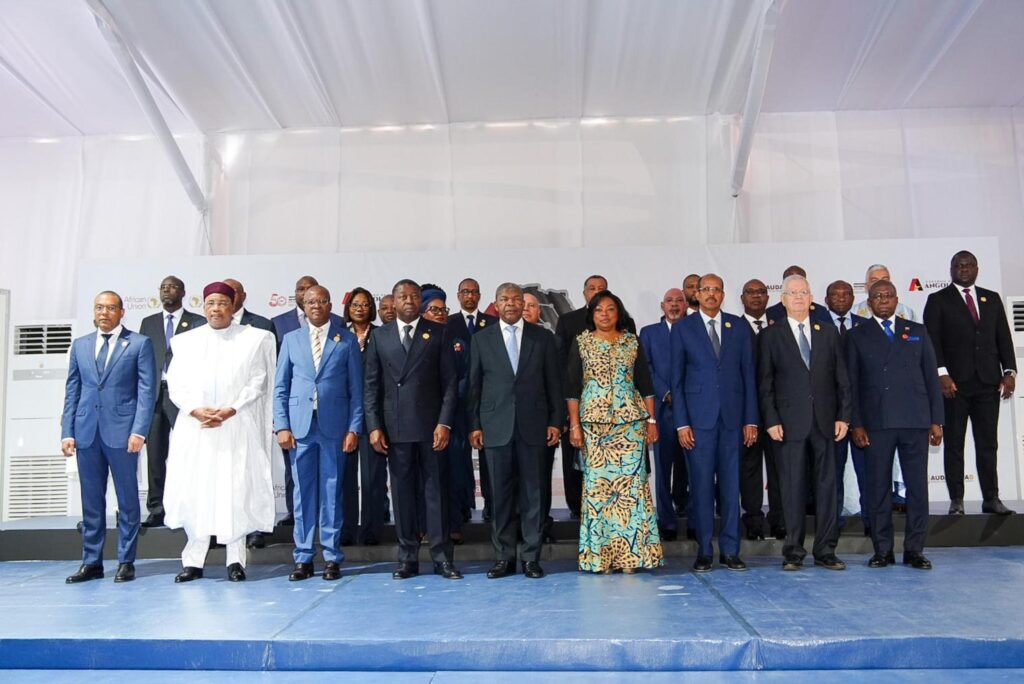
African Union Launches $30 Billion Plan to Modernize Aviation Infrastructure
Addis Ababa – October 31, 2025 — The African Union (AU) has announced a landmark US$30 billion continental aviation modernization initiative aimed at transforming Africa’s air transport systems and fully operationalizing the Single African Air Transport Market (SAATM) — one of the flagship projects of the AU’s Agenda 2063. The plan was unveiled by Amani Abou-Zeid Mataboge, AU Commissioner for Infrastructure and Energy, during a high-level forum on “Financing and Modernizing African Civil Aviation Infrastructure to Promote Integrated Continental Airspace and Enable Free Movement Under SAATM.”
A Strategic Leap for Africa’s Integration
Commissioner Mataboge emphasized that aviation is central to Africa’s economic transformation and integration, linking people, markets, and industries across borders.“Aviation is not merely a mode of transport,” she said. “It is a strategic engine of continental integration and a core enabler of Agenda 2063 and the AfCFTA. The Single African Air Transport Market will only succeed if we build the modern, safe, and efficient infrastructure that Africa’s growth demands.”The AU’s new investment plan aligns closely with the African Continental Free Trade Area (AfCFTA), which seeks to boost intra-African trade and mobility. By enhancing air connectivity, the initiative aims to reduce travel costs, cut cargo delivery times, and stimulate tourism, logistics, and manufacturing sectors across member states.


Ethiopian Airlines Takes Delivery of 21st Airbus A350-900 — A Milestone in Fleet Modernization
Addis Ababa, May 30, 2026 — Ethiopian Airlines announced the delivery of its 21st Airbus A350-900 (registered ET-BCE), a milestone the national carrier said would “further enhance its modern and comfortable service to its passengers” while reinforcing its leading role in African aviation. The addition of another next-generation widebody jet marks a significant step in Ethiopian’s decade-long fleet modernization and expansion program.
The A350 Family and Ethiopian’s Strategic Investment
The Airbus A350 family represents one of the most advanced widebody aircraft lines in commercial aviation, designed for long-haul efficiency and passenger comfort. Ethiopian Airlines became the first African carrier to operate the A350-900 in 2016 and has since built one of the largest A350 fleets on the continent. Powered by Rolls-Royce Trent XWB engines, the A350-900 offers superior fuel efficiency, reduced noise, and enhanced cabin humidity and pressurization — all contributing to a more comfortable experience on ultra-long-haul routes. Ethiopian’s commitment to the A350 program aligns with its Vision 2035 strategy, which emphasizes operational excellence, environmental sustainability, and customer satisfaction.
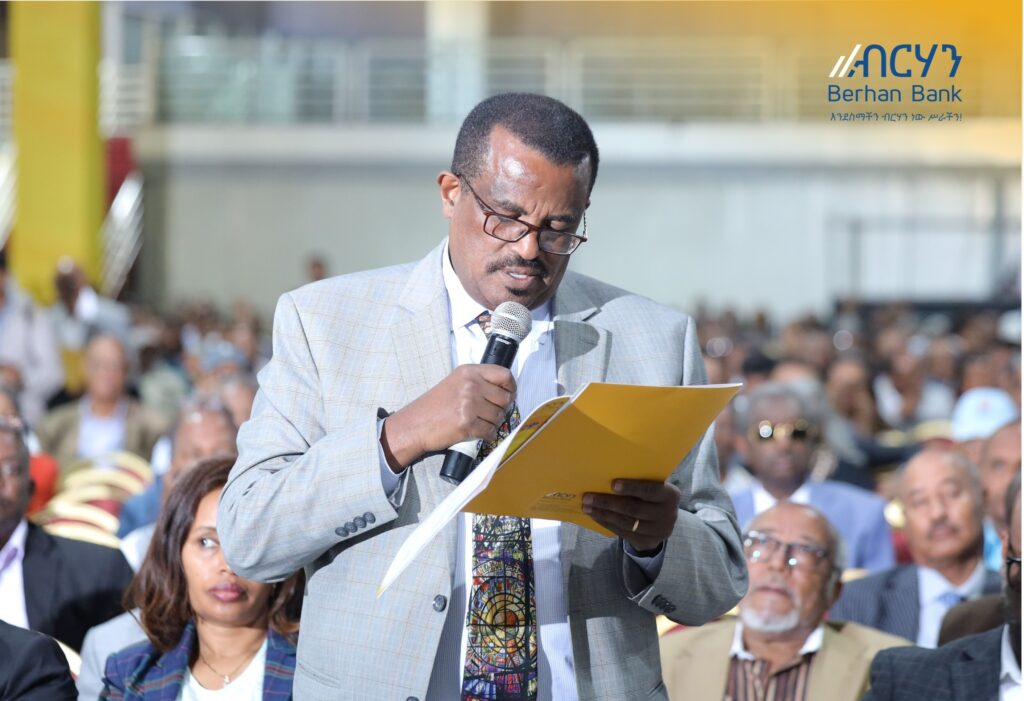
Berhan Bank Reports 54.7% Earnings Per Share in 2024/25 Financial Year
Berhan Bank S.A. held its 16th Annual General Meeting of Shareholders on October 18, 2018, at Millennium Hall in Addis Ababa. During the meeting, the Chairman of the Board of Directors, Ato Iligo Legesse, presented the Bank’s annual performance report for the fiscal year ending June 30, 2025. He highlighted the bank’s strong financial performance despite challenging conditions both nationally and internationally. Ato Iligo reported that Berhan Bank achieved a pre-tax profit of Birr 2.5 billion for the 2024/25 fiscal year, marking a 66.5% increase (Birr 1 billion) compared to the previous year. Total assets reached Birr 58.9 billion, up 28.1% from the prior fiscal year, while total capital increased by 20% to Birr 8.5 billion. Paid-up capital surpassed Birr 5 billion, meeting the minimum capital requirement set by the National Bank of Ethiopia. The bank concluded the fiscal year with an impressive earnings per share of 54.7%. Ato Iligo also highlighted that Berhan Bank has completed and begun implementing its three-year strategic plan. Key initiatives include digital transformation and upgrades to the core banking system, aimed at improving customer service and operational efficiency.


First Addis Investment Bank Enters Ethiopia’s Emerging Capital Market
Ethiopia, one of Africa’s six largest economies, is home to more than 2.2 million businesses and 32 commercial and development banks. Yet, despite this growth, the country’s financial sector remains underdeveloped in terms of access to finance and capital market participation. Until recently, most Ethiopians had limited exposure to financial services beyond traditional savings and credit. The introduction and expansion of capital market services—such as individual investment accounts—are now seen as crucial steps toward deepening financial inclusion and driving sustainable economic growth. Recognizing that a reliable, efficient, and accessible capital market is vital to long-term development, the Ethiopian government established the Ethiopian Capital Market Authority (ECMA) and the Ethiopian Securities Exchange (ESX) as part of its broad financial sector reform agenda. Ethiopia now joins over 29 African countries that host more than 35 active capital markets. Under Regulation No. 980/2016, the ECMA began issuing licenses to institutions that meet the required standards to operate in the capital market. On October 20, 2018 (Ethiopian Calendar), First Addis Investment Bank became the first independent investment bank to officially receive its operating license—marking a milestone in Ethiopia’s financial modernization.


Ethiopia Introduces Electronic Phytosanitary Certification for Agricultural Exports
An EU- and TradeMark Africa-funded platform launched this week introduces electronic phytosanitary (ePhyto) certification to Ethiopia’s export sector a change expected to most strongly affect the country’s horticulture industry, long plagued by compliance challenges. The Integrated Export and Import Certification System (IEICS) – e-Phyto Project aims to cut certification times from several days to just a few hours, while introducing internal traceability across the system. Set to be rolled out nationwide within a month, the new compliance platform also seeks to eliminate costs tied to lost certificates, forgery, corruption, and the need for physical travel. Over the past two years, Ethiopian flower exports to Europe have faced intensified inspections following concerns over the False Coddling Moth (FCM), a pest classified by the European Union as a quarantine threat. Tewodros Zewdie, Executive Director of the Ethiopian Horticulture Producer Exporters Association (EHPEA), said phytosanitary compliance remains critical to maintaining export integrity, even as volumes grow. He recalled the bureaucratic hurdles exporters faced under the former paper-based system. “A digital system saves both time and resources for the private sector,” Tewodros told Shega. He emphasized that scaling up the ePhyto system will allow Ethiopia to fully leverage its agroecological advantages.


Ethiopian Electric Power Announces Tariff Hike for Crypto Mining Operations
Addis Ababa, Ethiopia – October 29, 2025 Ethiopian Electric Power (EEP) has issued an official notification to all data mining customers in Addis Ababa, confirming a significant revision to electricity tariffs specifically tailored for cryptocurrency mining operations. The new pricing structure, set to take effect on December 1, 2025, introduces a Time-of-Use (TOU) billing system and an Availability-Based Tariff (ABT) adjustment mechanism, marking a strategic shift to align costs with grid reliability and peak demand management.
Key Highlights of the Revised Tariff Plan:
- Implementation Date: December 1, 2025
- Billing Impact: All consumption from December 2025 onward will be charged under the new rates.
- TOU Structure: Charges will vary by Peak, Off-Peak, and Shoulder periods.
- ABT Adjustment: Rates increase dynamically when grid availability falls below 80%.


Ethiopia’s National Switch Records Strong Growth, Posts 1.42 Billion Birr Profit Before Tax
Addis Ababa, October 18, 2025 — Ethiopia’s national payment switch operator, EthSwitch S.A., has announced robust financial results for the last fiscal year, underscoring its growing role in the country’s expanding digital financial ecosystem. The company reported a 34% increase in total revenue, achieving a profit before tax of 1.42 billion birr, according to figures released during its 12th Annual General Meeting of Shareholders held today in Addis Ababa.
Strong Financial Performance
Chairman of the Board, Ato Solomon Desta, highlighted that EthSwitch’s annual total revenue reached 2.2 billion birr, while paid-up capital exceeded 2.5 billion birr, reflecting strong shareholder confidence and sustained institutional growth. “EthSwitch has made significant progress in developing a modern and efficient payment ecosystem in the last fiscal year,” Ato Solomon remarked. “Our focus remains on strengthening Ethiopia’s digital payment infrastructure, enhancing interoperability, and improving service reliability across financial institutions.”Expanding Role in Ethiopia’s Digital Economy
As Ethiopia accelerates its shift toward a cash-lite economy, EthSwitch has become a cornerstone in enabling secure, interoperable, and real-time transactions among banks and payment service providers. During the fiscal year, the National Switch Center reported processing over 740.1 billion birr worth of cash transfers, facilitated through more than 287 million transactions — a reflection of both expanding access to digital financial services and increasing public trust in electronic payment systems.

Nib Bank Reports 2.9 Billion Birr Loss Following FX Market Unification Policy
Addis Ababa – Nib International Bank S.C. has reported a significant pre-tax loss of 2.9 billion birr for the fiscal year ended 2017, marking one of the largest annual losses recorded in Ethiopia’s private banking sector. In its latest annual report, the bank attributed the loss primarily to a foreign exchange (FX) revaluation adjustment of 4.4 billion birr, a direct consequence of the Ethiopian government’s recent decision to unify the country’s multiple foreign exchange markets. According to the report, the loss does not reflect a decline in the bank’s operational performance. Instead, it stems from an accounting revaluation of longstanding foreign currency obligations that had been recorded at artificially low exchange rates under the old system. The government’s monetary policy reform, aimed at reducing distortions and improving transparency in the forex market, effectively more than doubled the value of the birr against foreign currencies, significantly increasing the cost of settling foreign-denominated liabilities.
“The loss is a one-time accounting adjustment and not a result of our operational inefficiency,” the bank clarified, emphasizing that core banking activities remained stable and profitable.The FX revaluation led to a 28 percent contraction in total assets, forcing the bank to forgo dividend payments to shareholders for the year.


Ruth Tedla’s Cracked Shells: A Bold Exploration of Gentrification, Culture, and Resilience
When Ruth Tedla speaks about her film Cracked Shells, it’s impossible not to feel the urgency and passion behind the story she’s telling. A filmmaker and photographer born in Ethiopia, raised in Botswana, and now shaping narratives across the United States, Ruth combines her immigrant experience with an acute understanding of cultural memory, identity, and resilience. “The idea for Cracked Shells really began when I moved to the United States,” Ruth explains. “Having lived in different places throughout my life, I’ve always been fascinated by the power of space and the idea of ‘home’—how a place can shape the people who inhabit it.” Her journey led her to Washington DC, a city that immediately felt like home. But that sense of belonging was quickly overshadowed by the harsh realities of gentrification. “Within just four years of being there for college, I saw the city rapidly change,” she recalls. “In my senior year, I moved off campus into a neighborhood that had historically been predominantly Black, but had transformed significantly. The contrast between what once was and what it was becoming was stark.” This experience inspired Ruth to create a photography project, which later evolved into the powerful, full-length film Cracked Shells. At the heart of the film is DC’s identity as “Chocolate City”—a moniker that reflects the city’s historic role as a hub of Black culture, art, and innovation. “DC’s identity as ‘Chocolate City’ is essential to understanding gentrification because it reflects the city’s history as a hub of Black culture, joy, art, and innovation,” Ruth notes. “But that legacy is now under threat… the erasure of ‘Chocolate City’ is not just a local issue—it’s a cultural and political one.”


Mayor Johnson officially opens the Ethiopian & Eritrean Chamber of Commerce
Dallas Mayor Eric L. Johnson on Monday officially opened the new Ethiopian & Eritrean Chamber of Commerce with a ribbon-cutting ceremony in the Dallas International District. “This is a historic occasion for Dallas and our Ethiopian and Eritrean communities. Starting today, this chamber’s support of these two communities will strengthen and enrich our city’s vibrant economy,” said Mayor Johnson. “Dallas’s international partnerships have been a key focus of my Administration, and right now, our relationship with Africa is stronger than ever.” The Ethiopian and Eritrean Chamber of Commerce serves as a central business and cultural hub for the large Ethiopian and Eritrean communities in the Dallas region, providing valuable resources and support for Ethiopian and Eritrean businesses. The chamber supports entrepreneurship in the two communities while promoting exchange and investment between Ethiopian and Eritrean businesses and American enterprises. “The Ethiopian and Eritrean Chamber of Commerce marks a new chapter of opportunity and collaboration in Dallas,” said Yilma Feleke, interim president of the Ethiopian & Eritrean Chamber of Commerce board. “We thank Mayor Johnson for his leadership and support in helping us create a home where our communities can build businesses, share their cultures, and contribute to the city’s thriving economy.”


Ethiopia Capital Market Authority Tightens Exchange Oversight
ADDIS ABABA — The Ethiopian Capital Market Authority (ECMA) has released a comprehensive new supervision guideline, establishing a rigorous framework for oversight, compliance, and governance for all market participants. Dated October 2025, the directive introduces significant new requirements aimed at bolstering market integrity and protecting investors. Key measures include mandating the creation of highly independent committees to oversee the regulatory functions of exchanges, barring Politically Exposed Persons (PEPs) from serving on these committees, and instituting strict new protocols for external auditor appointments, regulatory reporting, and the management of trade disruptions. The guideline outlines a “hybrid approach” to supervision, blending “Compliance-Based Supervision,” which ensures adherence to rules, with a forward-looking “Risk-Based Supervision (RBS)” model. The RBS approach allows the ECMA to proactively identify emerging risks and focus its resources on entities deemed “high-risk.” Here are the most significant changes detailed in the new framework:
Independent Committees to Govern Exchanges
To better manage conflicts of interest, the ECMA now requires all “trading venues”—including securities exchanges, derivatives exchanges, and over-the-counter markets—to establish a special committee responsible for overseeing the exchange’s regulatory and supervisory obligations.

NBE Issues Directive to Prevent Use of Personal or Third-Party Accounts for Commercial Transactions
Addis Ababa, October 2025 — The National Bank of Ethiopia (NBE) has issued a stern directive to all banking institutions to crack down on business operations conducted through individuals’ personal or third-party accounts. The move is part of a broader effort to strengthen financial oversight and address risks linked to tax evasion and illicit finance.
Background & Legal Basis
- The directive is grounded in Proclamation No. 1359/2017, which empowers the NBE to regulate and supervise financial institutions across Ethiopia.
- The bank has reported that a substantial number of business organizations and individual traders are using personal bank accounts or third-party accounts to carry out transactions—rather than using the business accounts they registered with tax authorities.
- This practice circumvents routine scrutiny by tax collection agencies and undermines transparency in the financial system.
Risks and Red Flags
- According to the NBE statement, transactions conducted in this manner may facilitate money laundering, financing of criminal activities, or terrorist funding, since they evade formal oversight.
- The central bank warns that such arrangements may mask the true nature or source of funds, making it difficult for regulators and law enforcement to trace suspicious flows.
- In addition, by sidestepping business-registered accounts, these transactions weaken the ability of the tax authority to monitor revenue, detect underreporting, and audit proper compliance.


KEFI Finalizes $240 Million Financing for Ethiopia’s Tulu Kapi Gold Project
Addis Ababa – KEFI Gold and Copper Plc has finalized a $240 million debt financing package to fund the long-awaited Tulu Kapi gold project in western Ethiopia, marking a significant milestone for the country’s emerging mining industry. The financing — led by the Africa Finance Corporation (AFC) and previously approved by the Eastern and Southern African Trade and Development Bank (TDB) — completes the $340 million required to fully develop the project. Once ratified by AFC’s board, the deal will pave the way for construction to move into full swing. KEFI’s Executive Chairman Harry Anagnostaras-Adams hailed the agreement as “perfectly timed,” noting that the company is poised to capitalize on record-high global gold prices. “This marks the start of Ethiopia’s first modern, industrial-scale gold mine — a project that stands to transform both KEFI’s trajectory and the nation’s mining landscape,” he said. The Tulu Kapi project, scheduled for full launch in Q2 2025, has faced years of delays tied to regulatory adjustments and regional security conditions. KEFI’s ability to navigate these hurdles underscores the growing maturity of Ethiopia’s investment climate as the government pushes to diversify exports and attract foreign capital beyond agriculture.


Ethiopia and AfDB Reaffirm Strategic Partnership to Drive Reform
Marrakech, Morocco — Ethiopia’s Minister of Finance, H.E. Ato Ahmed Shide, held a high-level meeting with Dr. Sidi Ould Tah, the newly elected President of the African Development Bank Group, reaffirming the strong strategic partnership between Ethiopia and the Bank. The bilateral talks took place on the sidelines of the ongoing World Bank – IMF Annual Meetings, where Ethiopia continues to deepen its engagement with key development partners amid an ambitious economic reform agenda. During the meeting, Minister Ahmed Shide briefed President Tah on Ethiopia’s ongoing macroeconomic and structural reforms, designed to enhance investment competitiveness, boost productivity across priority sectors, and strengthen public sector capacity. A central focus of the discussion was the New Mega Bishoftu Airport project, where the Bank serves as the Mandated Lead Arranger and a key financier. The project is positioned as a strategic infrastructure investment to expand Ethiopia’s air transport capacity and consolidate its role as a regional aviation hub.


Ethiopia Launches AI-Powered Digital X-Ray System to Accelerate Tuberculosis Detection
Ethiopia has taken a major step forward in the fight against tuberculosis (TB) by launching a national AI-powered digital X-ray system for TB screening. The launch, held on 18 September 2025 during the Annual Tuberculosis, Leprosy and Other Lung Diseases Review Meeting, was officiated by Dr Dereje Duguma, State Minister of Health. The World Health Organization (WHO) Ethiopia was recognized and commended for its critical contribution to this national milestone. WHO played a central role in developing the National Implementation Guideline on AI-Powered Digital X-ray for Tuberculosis Screening and in building the capacity of health workers across the country. To facilitate the national rollout, WHO Ethiopia supported the training of 75 health-care workers, including radiology personnel and program officers, to effectively operate the machines for TB screening and ensure linkage to diagnosis and care. “Ethiopia is one of the first countries in Africa to adopt and implement this new innovation at such a large scale,” said Dr Dereje Duguma, State Minister of Health. “The country has procured and distributed 225 AI-powered digital X-ray machines to health facilities across all regions to support early TB screening and detection. Strong government commitment and partner collaboration are the backbones of this major milestone in our national efforts to end the TB epidemic.”


10 Things to Know About Ethiopia’s Startup Proclamation 2025
Addis Ababa — Ethiopia has taken a decisive step to position itself as a new innovation hub in Africa with the adoption of the Startup Proclamation 2025, a landmark policy designed to formalize the startup ecosystem, unlock capital flows, and accelerate digital transformation. The law — years in the making — signals a strategic pivot away from state-centric economic control toward a market-enabling environment. Here are the 10 most important things to know about this reform and what it could mean for founders, investors, and the broader economy .
1. Ethiopia Finally Has a Legal Definition of Startups
Until now, Ethiopia’s startups operated in a policy vacuum. The new proclamation formally defines a startup as an innovation-driven, scalable enterprise not older than 10 years. This may sound technical, but the implications are huge: it provides legal certainty for entrepreneurs and investors, aligning the country with innovation frameworks already adopted in Kenya, Rwanda, and Nigeria. By distinguishing startups from traditional MSMEs, the government is effectively creating a separate lane for high-growth companies, giving them the flexibility and recognition they need to scale.

Ethiopian Airlines Resumes Port Sudan Route, Boosting Regional Connectivity
Addis Ababa, October 15, 2025 — Ethiopian Airlines has announced the reinstatement of its flights to Port Sudan, Sudan, further strengthening its regional network in Northeast Africa. The national carrier officially resumed operations to Port Sudan International Airport (PZU) today with a daily service, and plans to increase frequency to double daily flights starting November 1, 2025. This decision marks a strategic step in reconnecting Ethiopia and Sudan at a time when regional air connectivity is regaining momentum after months of political and security uncertainty in parts of Sudan. The move also positions Ethiopian Airlines as one of the few international carriers restoring regular service to the Red Sea hub.
Rebuilding a Key Corridor
Port Sudan — Sudan’s main seaport on the Red Sea — is a critical commercial and logistical gateway for both Sudan and its neighboring countries. By reinstating flights, Ethiopian Airlines aims to facilitate trade, humanitarian operations, and people-to-people movement between the two countries.

Ethiopia Offers $150 Million in Forex Auction as Inflows Strengthen
Addis Ababa — October 13, 2025 — Ethiopia’s central bank will auction $150 million in foreign exchange on October 14, stepping up its efforts to stabilize the market amid rising hard-currency inflows. The (NBE) said the auction reflects strong foreign exchange supply conditions and record inflows this fiscal year. The move is part of the government’s strategy to strengthen the official forex market and support price and external stability.
“Foreign exchange supply conditions continue to be robust, and demand from the business and individual sectors is being widely addressed by the banking system,” the central bank said in its statement.Bidding will take place between 10:00 a.m. and 12:00 noon, with results expected at 3:00 p.m. and settlement by the end of the day. The auction is the tenth of the year and signals NBE’s continued commitment to regular liquidity interventions. The increased forex allocation is expected to ease pressure on the parallel market, where premiums over the official exchange rate have widened in recent months due to strong private-sector demand. By supplying more hard currency through formal channels, authorities aim to narrow the spread and stabilize expectations.


Agri-Tech Partnership Introduces Pay-As-You-Go Tractor Model to Ethiopia’s Farmers
A new partnership between Heifer Ethiopia, Nigerian agritech firm Hello Tractor, and Ethiopia’s Ministry of Agriculture is introducing a pay-as-you-go tractor financing model that looks to reshape how smallholder farmers access mechanization, and how youth find work in agriculture. Unveiled this week at the Hilton Hotel, the initiative allows farmers to rent or eventually own tractors without paying the full cost upfront. Heifer Ethiopia is financing the tractors, while Hello Tractor provides the technology platform, training, and digital tools to connect farmers with operators. The model aims to bridge two of Ethiopia’s biggest rural challenges: low productivity and youth unemployment. “Farmers of Ethiopia are done plowing with animals,” said Sofiya Kassa (PhD), state minister of agriculture, during the launch. “Agriculture contributes around 32% to our GDP, but there’s a lot more to be done to raise that number.” She described the partnership as a glimpse of the future, where “Africa’s agriculture is not just mechanized, but smart, connected, and inclusive.” Ethiopia’s reliance on traditional tools remains high, with nearly 95% of all agricultural production being supplied by smallholder farmers who can barely afford basic inputs like fertilizer. According to the Ministry of Agriculture, the share of farmland plowed by tractors has climbed from 5.7 percent in 2020 to 25% five years later.


Ethiopia Officially Launches First Trade Under African Free Trade Area
Ethiopia marked a historic milestone today with the official launch of its first trade under the African Continental Free Trade Area (AfCFTA), a move expected to boost the country’s regional trade integration and export potential. The launch ceremony took place in Addis Ababa and was attended by several senior government officials, including Deputy Prime Minister and Prosperity Party Vice President Adem Farah, Minister of Transport and Logistics Alemu Sime (PhD), and Minister of Trade and Regional Integration Kassahun Gofe (PhD).
Strengthening Ethiopia’s Export Trade
Speaking at the event, Kassahun Gofe emphasized that joining the AfCFTA is a strategic step toward accelerating Ethiopia’s export growth and strengthening its role in the regional market.“The African Free Trade Area will play a significant role in facilitating Ethiopia’s export trade and contributing to the modernization and competitiveness of our trade sector,” Kassahun stated.The AfCFTA aims to create a single continental market, allowing the free movement of goods and services, with the ultimate goal of fostering economic integration across Africa. For Ethiopia, which has been working to expand its export base, the agreement presents new opportunities to diversify trade partners and increase foreign exchange earnings.


Ethiopia Launches First Domestically Financed Railway Line
In a move described as “historic and symbolic,” has officially launched the construction of Ethiopia’s first railway line to be built entirely with domestic resources. The 3-kilometer line will connect to the main Ethio-Djibouti railway corridor—marking a strategic shift in the country’s infrastructure ambitions. The announcement was made during a foundation-stone-laying ceremony attended by senior government officials from Ethiopia and Djibouti, industry leaders, and the transport sector’s top executives.
A Symbolic Turning Point
For more than a century, Ethiopia’s link to the outside world has depended on a single rail line to Djibouti. That dependence, according to , CEO of Ethio-Djibouti Railway, has been “a 130-year-long frustration.”“The railway is one of the institutions etched in Ethiopian history. Yet, for decades, it has remained stagnant—like our politics of the past,” he told the crowd. “Today, we are launching a project that proves Ethiopian engineers can design, build, and deliver critical national infrastructure with our own hands.”The AMG–Endode line is scheduled to be completed in just six months. Once operational, it will enable goods—including coffee, steel, and other industrial outputs—to move directly from factory gates to port terminals at unprecedented speeds.


Ethiopia airport deal signals Trump’s Horn of Africa ambitions
The US backing of a multibillion-dollar airport project in Ethiopia signals Washington’s commitment to maintaining strong ties with a key ally in the Horn of Africa, despite Ethiopia’s internal challenges. The new airport marks President Donald Trump’s first major business deal in the region and underscores America’s bid to strengthen its presence along vital global trade and military routes.“We have a very longstanding relationship with America. From an interest perspective, I think Ethiopia is one of the biggest clients of Boeing in Africa,” said Mered Fikireyohannes, founder and CEO of Pragma Capital, an Ethiopia-based investment advisory firm.“Ethiopia is the largest country in the Horn of Africa, while its neighbours face serious security challenges. From this perspective, maintaining security through Ethiopia is both good and important.”US Senior Adviser for Africa Massad Boulos announced that Washington will support the construction of a new international airport after a September visit to Ethiopia. The airport will be built at Bishoftu, about 40km south of Addis Ababa, and could become Africa’s largest. The $10 billion facility, supported by the US International Development Finance Corporation (DFC) and other institutions, will span 34 square kilometres, handle international passenger and cargo traffic, and ease congestion at Bole International Airport. The DFC resumed project considerations in Ethiopia in mid-2023 after a two-year hiatus. The agency, which replaced US Overseas Private Investment Corporation (OPIC) in 2019, has a $60 billion lending capacity and a mandate to support US foreign policy aims, including countering Chinese and Russian influence in Africa. In 2020, it pledged to invest $5 billion in Ethiopia over three to five years, to support private sector reforms and counter China’s influence.


Etihad Airways Begins Daily Flights to Addis Ababa, Expanding Gulf–Africa Network
Abu Dhabi/ Addis Ababa — October 2025. Etihad Airways has launched daily flights to Addis Ababa, marking the UAE carrier’s first return to Ethiopia in over a decade and signaling its intent to deepen commercial and strategic links with Africa’s fastest-growing aviation hub. The inaugural flight landed at Addis Ababa Bole International Airport carrying a delegation led by Etihad CEO Antonoaldo Neves, who was greeted by Ethiopian Airlines CEO Mesfin Tasew and senior government officials. The event was capped by both executives announcing plans for a closer partnership between the Gulf and African carriers.
A Strategic Pivot Toward Africa
The launch makes Addis Ababa Etihad’s 15th new destination in 2025, as the airline rebuilds its global network after restructuring and pivots toward growth corridors in Africa and Asia. The daily Abu Dhabi–Addis route will be operated using narrow-body Airbus A321 aircraft, providing both passenger and belly cargo capacity.
“Ethiopia represents one of Africa’s most dynamic markets,” Neves said, adding that Etihad intends to leverage “Ethiopian Airlines’ unrivaled regional network” through an integrated partnership.


Wegagen Bank Reports Record Birr 13.5B Revenue, Launches Ethiopia’s First Private Investment Bank
Addis Ababa – Wegagen Bank has delivered its strongest financial performance to date, reporting a record-breaking revenue of Birr 13.5 billion for the 2024/25 Ethiopian fiscal year (2017 E.C.), representing a 38% year-on-year growth. Pre-tax profits surged 73% to Birr 3.85 billion, as the bank marked a turning point not just in numbers but in strategic direction — embracing fintech, inclusive banking, and capital market leadership. This performance was announced at Wegagen’s 32nd Annual General Meeting (AGM), where Board Chairman Abdishu Hussein outlined the bank’s transformative year across financial strength, digital innovation, and market leadership.
Key Financial Highlights
Wegagen’s headline figures mark a remarkable turnaround amid Ethiopia’s volatile macroeconomic climate — defined by forex shortages, inflationary pressures, and financial sector liberalization. The key metrics:- Total Revenue: ብር 13.5 billion (+38% YoY)
- Pre-Tax Profit: ብር 3.85 billion (+73% YoY)
- Earnings Per Share (EPS): 46.10%
- Total Assets: ብር 84.7 billion
- Total Deposits: ብር 66.5 billion
- Paid-up Capital: ብር 7 billion


Ethiopia to Begin AfCFTA Exports on Thursday, Marking New Era in African Trade
Addis Ababa — Ethiopia will this week begin trading goods under the African Continental Free Trade Area (AfCFTA), marking a major step in the country’s effort to pivot from domestic market dependence toward regional export growth. The Ministry of Trade and Regional Integration said the first shipment — meat, fruits, vegetables, coffee, pulses, and oilseeds — will be transported by Ethiopian Airlines cargo and land routes to Kenya, Somalia, and South Africa starting Thursday, September 29. The move follows years of negotiation and tariff alignment under the AfCFTA framework.
Symbolic Start to a Continental Ambition
The launch positions Ethiopia among a handful of African nations to operationalize AfCFTA commitments through actual trade flows rather than policy pledges. The agreement, which came into force in 2019, aims to remove tariffs on 90% of goods, harmonize customs procedures, and create the world’s largest free-trade zone by population — spanning 1.3 billion people and a combined GDP of $3.4 trillion. For Ethiopia, whose exports remain heavily reliant on coffee and agricultural commodities, the AfCFTA represents a chance to expand markets beyond the Horn of Africa and reduce dependence on Middle Eastern and European buyers.

A year after buying church from Messiah Lutheran, hundreds fill pews of St. Mary’s Ethiopian Orthodox Church for holiday and feast
Under the unblinking gaze of three owl-eyed icons in a mural painted at the head of the church, two rows of white-clad parishioners faced each other while singing and ringing sets of brass chimes to the booms of a traditional Ethiopian kabrero drum. To one side of the dance is an ornate, brightly painted partition with intricate scenes depicting Bible stories custom painted by a deacon in Ethiopia. To the other are hundreds of worshipers, singing along in the Ethiopian language Amharic, swaying and trilling in praise in Ethiopian ululation. The pews are fuller than they’ve been in decades. The choreographed performance is about nine hours into a half-daylong service at St. Mary’s Ethiopian Orthodox Tewahedo Church in north Spokane in an extensive celebration in honor of the holiday associated with the church’s namesake, St. Mary, that spurs the once-yearly procession with the holy Ark of the Covenant replica. Even more reason to celebrate, it just so happens to be about a year ago that the Ethiopian congregation purchased the church from Messiah Evangelical Lutheran Church, from which St. Mary parishioners used to rent the small basement for Sunday service. “We have been like wanderers finding a place where we can peacefully worship,” said Dagnachew Uma, who sits on the church council. “And we have gotten more than we expected because we now have a big, beautiful church.” The holiday drew hundreds in the religion from as far as Seattle and Portland, including a regional bishop who formally consecrated the building. It’s traditional to celebrate holidays at a nearby church named for the festival, like the St. Mary celebration at St. Mary’s. With visitors occupying the pews, plus the regular congregation of 70 or so people, it’s a far cry from the few who would regularly attend service at Messiah.


Safaricom Ethiopia is Winning Users, Bleeding Cash, Says World Bank
The latest World Bank Ethiopia Telecom Market Assessment Report shows that Safaricom’s entry into Ethiopia has reshaped the country’s telecom market.
- It has driven down prices, expanded 4G coverage, and pushed millions online.
- Yet, three years in, the company is still bleeding cash: Its FY2024 losses hit US$325 million (KSh 42.0 billion) against revenue of only US$53.6 million (KSh 6.9 billion), making its Ethiopian venture both a reform catalyst and a financial warning.
- Safaricom Ethiopia launched in October 2022 as the country’s first private telecom operator, breaking Ethio Telecom’s decades-long monopoly.
Market Disruptor, Not Yet a Winner
The firm paid US$1 billion (KSh 129.2 billion) for its license and has since invested over ETB 300 billion (about US$2.2 billion, KSh 284.3 billion) in network rollout and infrastructure. The payoff is visible: data prices have fallen 70% since 2017, and mobile broadband users have more than doubled to 87 million.

Ethiopia Inaugurates Ogaden LNG Project: Energy Ambitions, Fertilizer Security, and $10 Billion Investment Drive
Addis Ababa, Sept. 22, 2018 — Prime Minister Abiy Ahmed inaugurated the first phase of Ethiopia’s Ogaden LNG Project in the Somali Region, marking one of the country’s most ambitious undertakings in energy and industrial development. The initial stage will produce 111 million liters of liquefied natural gas (LNG) annually, with plans for a dramatic expansion to 1.33 billion liters per year under the project’s second phase.
A Strategic Energy Pivot
Ethiopia, which has long relied on hydropower as the backbone of its electricity supply, is seeking to diversify its energy sources. The Ogaden project is designed not only to supply LNG but also to deliver a 1,000 megawatt boost to the national grid, complementing hydropower dams like the Grand Ethiopian Renaissance Dam (GERD). By integrating LNG into the mix, the government aims to bolster energy security and reduce seasonal fluctuations tied to rainfall.Beyond LNG: Fertilizer and Food Sovereignty
In his remarks, Prime Minister Abiy underscored that the LNG project is more than an energy venture. By linking natural gas production to fertilizer manufacturing, the project is positioned as a cornerstone of Ethiopia’s food security agenda. Fertilizer is a critical input for Ethiopian agriculture, and the project could reduce reliance on costly imports, which currently strain the country’s foreign currency reserves. “The Ogaden LNG Project is not just about gas production; it is about sovereignty — in food, in energy, and in industry,” Abiy said.

Ethiopia Bets Big on Fertilizer and Oil Refining: Dangote and GCL Anchor Mega Industrial Push
Ethiopia has taken another bold step in its industrialization drive, laying the foundation stones for two landmark projects that could redefine the country’s economic trajectory: a Urea Fertilizer Plant in partnership with Nigeria’s Dangote Group, and the Gode Refinery, spearheaded by China’s Golden Concord Group (GCL). Unveiled by Prime Minister Abiy Ahmed (PhD) in a high-profile ceremony, the projects underscore Ethiopia’s determination to transform its vast natural gas and oil reserves into value-added industries, cut reliance on costly imports, and strengthen its bargaining position in regional trade.
The Fertilizer Gamble: Feeding Ethiopia’s Agricultural Future
Agriculture remains Ethiopia’s economic backbone, employing nearly 65% of the population and accounting for more than 30% of GDP. Yet, productivity has long been constrained by poor soil fertility and dependence on imported fertilizers. The new Urea Fertilizer Plant, to be built by Ethiopian Investment Holding (EIH) and Dangote Group, promises a major leap:- Annual capacity: 3 million tons of urea fertilizer.
- Feedstock: Natural gas extracted from the Kalub gas field.
- Pipeline: 108 kilometers linking Kalub to the plant.


Ethiopia’s Capital Market Expands as ECMA Licenses Three New Service Providers
Addis Ababa, October 1, 2025 – The Ethiopian Capital Market Authority (ECMA) has announced the licensing of three new capital market service providers (CMSPs), expanding the number of authorized players from eight to eleven. The move marks another milestone in Ethiopia’s efforts to build a transparent, inclusive, and resilient financial system. The new licensees and their categories are:
- First Addis Investment Bank PLC – Investment Bank
- Ignite Capital PLC – Securities Investment Advisor
- Zuri Capital S.C. – Securities Investment Advisor
Strengthening Ethiopia’s Emerging Capital Market
During the event, ECMA Director General Hana Tehelku congratulated the new entrants, emphasizing their role in strengthening Ethiopia’s nascent capital market. She highlighted the need for their active participation in advancing financial inclusion, investor confidence, and long-term capital mobilization.“These newly licensed institutions have a critical role in shaping the direction of Ethiopia’s capital market,” Hana stated. “We encourage them to contribute to building a transparent, innovative, and sustainable financial ecosystem that benefits all Ethiopians.”The decision to approve more CMSPs comes at a time when Ethiopia is accelerating reforms aimed at modernizing its financial sector, broadening investment opportunities, and positioning Addis Ababa as a regional financial hub.


Ethiopia, GCL Group Advance Oil and Gas Expansion with Refinery and Metallurgy Plans
Addis Ababa, October 1, 2025 – Ethiopia is moving closer to unlocking its long-sought energy potential as Finance Minister Ahmed Shide held high-level talks with Zhu Gongshan, Chairman of China’s GCL Group, on accelerating the country’s oil and gas development. The meeting, which took place on September 30 at the Ministry of Finance, signals Ethiopia’s intent to fast-track investment in downstream refining and industrial hubs linked to its natural gas reserves.
First Phase Completion at Calub and Hilala
Minister Ahmed congratulated GCL Group for successfully completing the first phase of Ethiopia’s Oil and Gas Comprehensive Project Complex at the Calub and Hilala gas fields in Somali Region. These fields, believed to hold more than 4.7 trillion cubic feet of natural gas, are central to Ethiopia’s energy security and industrialization ambitions. The government has treated the project as a national priority, with a high-level committee supervising progress. Ahmed reassured the GCL delegation that similar political backing and regulatory facilitation will extend into the second phase, which is expected to expand extraction capacity and move into commercial production.

Abyssinia Bank Reports Record Growth: Total Assets Surge to 286.2 Billion Birr
Abyssinia Bank has reported its strongest financial performance to date, with total assets reaching 286.2 billion birr ($5.1 billion), marking a 28.8% year-on-year increase as of the close of the 2017 E.C. fiscal year (2024/25 Gregorian calendar). The bank’s annual general meeting—its 29th regular and 16th extraordinary shareholder assembly—highlighted sharp growth in income, profitability, and digital infrastructure deployment, positioning the private lender as one of Ethiopia’s fastest-growing financial institutions.
Profit Soars by Over 90%
The bank’s net profit surged to 10.1 billion birr—representing a staggering 91.1% increase compared to the previous year—driven by improved interest income, strong loan performance, and expanding customer base. Total income for the fiscal year reached 39.1 billion birr, up sharply from 27.8 billion birr in the preceding year. Abyssinia’s capital base also rose significantly, reaching 28.8 billion birr, bolstering the bank’s capacity to expand its lending portfolio and withstand economic headwinds in a market still reeling from macroeconomic instability, including inflation, forex shortages, and debt restructuring pressures. “Our performance reflects both prudent financial management and our aggressive investment in future-facing technologies,” a Board representative said at the meeting.

Visa, SantimPay to Deploy 20,000 POS Terminals in Ethiopia
Addis Ababa – Global payments giant Visa Inc. has entered into a strategic partnership with Ethiopian fintech firm SantimPay Financial Solutions S.A. to deploy 20,000 point-of-sale (POS) terminals across Ethiopia, a major step toward building out the nation’s underdeveloped digital payments infrastructure. The agreement—inked during the Visa Connector Ethiopia summit last week—marks Visa’s first financial partnership program in East Africa and comes as the National Bank of Ethiopia (NBE) accelerates efforts to expand merchant acceptance, boost cashless transactions, and deepen financial inclusion across the country.
“This is a watershed moment for Ethiopia’s payments ecosystem,” said a regional executive at Visa, calling it a “foundational investment” in digital infrastructure.
Mass Deployment to Tackle Merchant Acceptance Gap
The rollout, managed by SantimPay, will see tens of thousands of low-cost, interoperable POS terminals installed in both urban and rural merchant locations. Ethiopia’s total active POS terminal count currently sits under 10,000, one of the lowest on the continent for a nation of over 120 million people. With this agreement, Ethiopia is poised to more than triple its merchant acceptance footprint over the next 12 to 18 months.“Our mission is to make digital payments accessible, affordable, and inclusive,” said SantimPay CEO, noting the partnership as a model of public-private alignment under NBE directives.


Ethiopia’s Central Bank Holds Interest Rate at 15% as Inflation Cools and Economy Strengthens
Addis Ababa — Ethiopia’s central bank kept its benchmark interest rate unchanged at 15% and opted for only a cautious loosening of credit growth limits, signaling that policymakers remain focused on containing inflation even as the economy shows signs of broad-based strength. The Monetary Policy Committee (MPC) of the National Bank of Ethiopia (NBE), which met for the fourth time on September 15, said that while price pressures have eased steadily over the past year, inflation remains well above the single-digit target. The decision underscores the balancing act facing policymakers: sustaining economic momentum and managing banking-sector liquidity while safeguarding price stability.
Inflation Slows, but Target Still Elusive
Headline inflation cooled to 13.6% in August 2017 from 18.8% a year earlier. Food-price growth dropped sharply to 12.7%, helped by improved agricultural productivity and government price-stabilization measures. Non-food inflation, however, crept up to 15.1%, reflecting the lingering effects of foreign-exchange market pressure and imported input costs.

Abyssinian Flight Launches First Tourist Charter to the Grand Ethiopian Renaissance Dam
Abyssinian Flight Services & Aviation Academy (AFS), one of Ethiopia’s leading private air charter operators, has inaugurated the first tourist charter flight to the Grand Ethiopian Renaissance Dam (GERD), positioning the iconic dam as a premier national tourism destination. The milestone flight, carrying Ethiopian-American diaspora visitors, took place on September 25, 2025, shortly after the dam’s official inauguration. For more than 13 years, AFS has provided critical air transport to the GERD site, supporting the project through its construction phase. This latest move signals AFS’s evolution from a primarily logistical service provider to a key player in Ethiopian tourism, underscoring growing public and diaspora interest in the dam as a powerful symbol of national pride and achievement.


Tony Blair Institute Proposes $100 Billion Debt-Swap Facility to Break Africa’s Debt Spiral
A new policy paper by the Tony Blair Institute (TBI) proposes a $100 billion Debt Swap Facility with a reform-linked mechanism dubbed “Moving up the Ladder” to tackle crippling debt burdens faced by African economies. The nonprofit, founded in 2016 by former British Prime Minister Tony Blair, published A New Debt Deal for Africa: Moving Up the Ladder, this month as a follow-up to a foundational report from February. The policy paper is grounded in a central debt injustice: African countries, with debt-to-GDP ratios often lower than the G7's, face interest rates four to five times higher. In 2023, African governments allocated 18% of revenues to interest payments, versus 3% in the EU and 5% in the G7. This often leaves scant resources for essential investments in education, healthcare, and infrastructure. Ethiopia, which secured a debt restructuring deal with official creditors through the G20’s Common Framework in July, exemplifies this challenge. From the record 1.93 trillion Birr federal budget ratified for the current fiscal year, a staggering 39% of recurrent expenditures, or around 463 billion Birr is allocated for debt servicing. Notably, the allotment for debt servicing is 48 billion Birr more than funds apportioned to capital expenditures. Building on the prior report, A New Debt Deal for Africa: Breaking the Vicious Cycle, the latest paper develops the case for a debt facility that could refinance existing obligations at lower rates, promote better governance, and break the negative risk-perception spiral, without requiring new aid from donors.


At This Harlem Chef’s Table, the Rosh Hashana Menu Is Full of Ethiopian Spices
Delicious as they may be, matzo ball soup, challah, brisket and other Ashkenazi Jewish favorites will not be at the table when Beejhy Barhany celebrates Rosh Hashana this month. The chef and owner of Tsion Cafe in Harlem, one of the few Ethiopian Jewish restaurants in the United States, suggests a Jewish New Year menu of beg wot, a lamb stew brightened with the Ethiopian spice blend berbere and ground, roasted korarima, akin to cardamom. For sides, she recommends dubba wot, a lush pumpkin stew with date honey, and a salad dotted with black-eyed peas, tomatoes, barley and arugula. Dabo, a spiced whole wheat bread, can soak up all the flavors. She’d top the feast off with ma’arn tzava cake, which mingles sweetness from honey with a slight tang from Ethiopian coffee extract. Barhany, who was born in Ethiopia and grew up in Israel, is the author, with Elisa Ung, of a new cookbook, Gursha: Timeless Recipes for Modern Kitchens, From Ethiopia, Israel, Harlem and Beyond—the first major title to share Ethiopian Jewish food with home cooks. Gursha, in Amharic, one of the primary languages in Ethiopia, refers to the Ethiopian tradition of feeding others a mouthful by hand to show affection and respect. “The base of Ethiopian cuisine as a whole is very much Jewish, more than anything else,” says Barhany, given that people practiced Hebraic traditions in Ethiopia prior to the arrival of Christianity in the fourth century.


Ethiopia’s Central Bank Chief Heads to China for Critical Debt Talks
Addis Ababa — Ethiopia has dispatched a high-level economic delegation to Beijing this week, led by Eyob Tekalign (PhD), the newly appointed governor of the National Bank of Ethiopia (NBE), to advance crucial debt restructuring negotiations and deepen the country’s economic partnership with China, state media reported.
High-Stakes Mission to Beijing
According to officials, the delegation will meet senior figures at China’s Ministry of Finance, the People’s Bank of China, and the Export–Import Bank of China (Exim Bank). Discussions are also planned with representatives from leading Chinese financial and commercial institutions. These talks build directly on the recently concluded debt restructuring agreement with the Official Creditors Committee, co-chaired by China and France, which Ethiopia hopes will unlock faster progress toward comprehensive debt relief.Aligning With Reform and Investment Goals
The Ethiopian team is expected to brief Chinese counterparts on the latest progress of the Home-Grown Economic Reform Agenda, the government’s flagship plan to stabilize the economy, attract foreign investment, and modernize key sectors. Officials say Addis Ababa will also explore opportunities for expanded Chinese investment in infrastructure, manufacturing, and green energy, reaffirming Ethiopia’s commitment to a long-term strategic partnership with Beijing.

Ethiopian Airlines Trains Aviation Professionals from 16 Countries in Major Graduation Ceremony
ADDIS ABABA – Ethiopian Airlines, Africa’s largest and most profitable carrier, celebrated a new milestone today, graduating 1,103 aviation professionals from its world-renowned Ethiopian Aviation University. The ceremony, held in the airline’s home base of Addis Ababa, underscored the company’s strategic commitment to developing a robust and highly skilled workforce, not just for its own operations, but for the entire African continent and beyond. The graduating class, a diverse mix of talent from Ethiopia and 16 other countries, reflects the university’s status as a regional powerhouse in aviation education. The cohort included 41 pilots, 343 aircraft maintenance technicians, 524 flight attendants, and 195 professionals specializing in ticketing and other commercial operations. The scale and breadth of the graduation ceremony illustrate the airline’s continuous investment in human capital as a core pillar of its long-term growth strategy. In his address to the new graduates, Ethiopian Airlines Group Chairman and Commander of the Ethiopian Air Force, Lt. Gen. Yilma Merdasa, emphasized the critical role they will play in the future of the industry. “The graduates must face the challenges they will encounter in their new journey with courage and fulfill their responsibilities with a sense of patriotism,” he stated, highlighting the national and continental significance of their work.


Illegal Forex Crackdown: Ethiopia Freezes Bank Accounts of 123 Suspects
Addis Ababa — September 9, 2018 (FMC) — Ethiopian authorities have intensified their fight against black-market currency trading, announcing the immediate freezing of bank accounts belonging to 123 individuals suspected of engaging in illegal foreign exchange activities.
Financial Security Service Action
The Financial Security Service (FSS) stated that it has suspended the financial operations of these suspects and launched legal proceedings to hold them accountable. According to the agency, while the majority of citizens and businesses are using foreign exchange services lawfully within the framework of the country’s macroeconomic reforms, ongoing surveillance has revealed a parallel network of operators exploiting the system for illicit profit.Evidence of Black-Market Dealings
Preliminary investigations uncovered that certain individuals and groups have been running black-market forex schemes, undermining Ethiopia’s efforts to stabilize its currency. Surveillance data further suggests that some banking professionals may also be complicit, raising serious concerns about internal controls within financial institutions. Authorities indicated that these allegations are under active investigation.

Ethiopian In-Flight Catering Unveils 2026 Menu at Skylight Hotel Showcase
Addis Ababa — September 2025 — Ethiopian Airlines Group’s catering arm has unveiled its upcoming 2026 economy and business class menu at a high-profile showcase held at the Ethiopian Skylight Hotel. The exclusive event, designed to introduce the new culinary offerings and gather real-time feedback, brought together passengers, frequent flyers, and key aviation stakeholders for a first taste of the airline’s next chapter in onboard dining.
A Preview of 2026 Onboard Dining
Beginning January 2026, passengers flying Ethiopian will be treated to an expanded menu reflecting the country’s celebrated culinary diversity alongside international favorites. The preview featured a curated selection of Ethiopian classics and global cuisines, underscoring the airline’s ambition to blend authentic local flavors with world-class hospitality. Guests sampled a range of dishes emblematic of Ethiopia’s vibrant food culture while also experiencing international options tailored to the tastes of a global clientele.Commitment to Quality and Food Safety
Ethiopian In-Flight Catering operates as a fully certified unit within the Ethiopian Airlines Group. It provides catering services and on-board duty-free items not only for Ethiopian’s scheduled and non-scheduled flights but also for customer airlines, VVIP, and charter operations. The unit has consistently upheld stringent international standards for food safety and quality, ensuring that every meal served in the air reflects both culinary excellence and strict hygiene protocols.

Siinqee Bank Partners with MasterCard to Broaden Financial Inclusion
Addis Ababa, Ethiopia — Siinqee Bank has officially launched a new MasterCard service, marking a significant step in its strategy to expand financial inclusion and enhance international payment options for its customers. The launch follows the signing of a five-year strategic partnership with MasterCard, a deal that allows Sinqee Bank to issue MasterCard prepaid cards to its clients. This makes Sinqee Bank the first non-member financial institution outside the Payment Switch System (PSS) main network to introduce the globally recognized service. According to the PSS, Sinqee Bank’s achievement illustrates how Ethiopia’s financial sector is diversifying beyond traditional member banks, demonstrating the growing role of private institutions in shaping the country’s digital finance ecosystem. A Secure, Global Payment Solution The new prepaid MasterCard will provide Sinqee Bank’s customers with a secure and universally accepted payment method—an especially valuable option for Ethiopians traveling abroad or making international transactions. The card is expected to simplify cross-border payments and help bridge a key gap in Ethiopia’s banking services, where reliable global payment options remain limited.


Running Toward Community: Why the DMV’s Grand African Run Matters—And How It Powers Raeye Children Aid
By Ethio Diaspora Hub Team • September 17, 2025
On a crisp October morning in the DMV, thousands of footsteps will drum a single rhythm—celebration, solidarity, and service. The Grand African Run, organized by Nova Connections (a 501(c)(3) non-profit), returns on October 11, 2025 with a 5K fun run/walk that turns athletic joy into community impact. This year’s event welcomes Olympic greats Meseret Defar and Derartu Tulu, whose presence bridges continents and generations—reminding us why running has long been a unifying language across Africa and its diaspora.
Yet the finish line is not merely a banner; it’s a gateway. Proceeds from the run will support Raeye Children Aid (RCA), a nonprofit founded in 2016 to expand access to education, vocational training, and therapeutic programs for children with intellectual and developmental disabilities in Ethiopia. For families and children who navigate daily barriers, support from the diaspora is more than charity—it’s infrastructure for dignity, opportunity, and inclusion.

A Race With Roots—and a Future
For more than six decades, Africa’s distance runners have inspired the world. Their triumphs carry cultural weight across the continent and the diaspora—sparking pride, resilience, and aspiration. Grand African Run channels that heritage into a day where everyone—seasoned runners, first-time joggers, families with strollers—can move with purpose. It’s a celebration of African culture, a call for peace and unity, and a practical platform to strengthen community ties right here in the DMV.
This year’s experience adds an unmistakable spark:
-
A chance to win a 2026 Toyota Corolla in the event-day lottery drawing.
-
Participant perks including an official event t-shirt, water bottle, a goodie bag from sponsors, finishers’ medals, and post-race snacks.
-
Most importantly, every step supports a cause—with funds directed to a charity partner aiding under-resourced children and families.
Spotlight on Raeye Children Aid (RCA)
Founded in 2016, RCA is dedicated to education and empowerment for children with intellectual and developmental disabilities. Its mission is clear: create opportunity—through access to school, vocational pathways, and therapeutic services.
-
RCA supports students in Addis Ababa public schools with essential supplies and follow-through, helping children not only attend school but to thrive there.
-
To date, 300 students have been positively impacted—each representing a story of potential moving closer to reality.
-
Beyond classrooms, RCA’s focus on skills and independence helps children transition toward careers, community life, and self-advocacy.
For many families, the difference between isolation and inclusion is a network—teachers, therapists, tools, and time. RCA stands in that gap.

Why the DMV’s Diaspora Is Pivotal
The DMV is a hub where the African diaspora’s talent, capital, and civic spirit converge. When we gather for a run, we do more than celebrate culture—we activate a coalition. We shape narratives about disability with compassion and facts. We demonstrate that giving back can be joyful, public, and contagious. We remind our children that heritage is not only history; it’s a responsibility.
Your participation multiplies impact:
-
Register & Run/Walk: Every bib helps fund RCA’s programs.
-
Bring Your Circle: Friends, youth groups, alumni associations, and faith communities.
-
Sponsor or Volunteer: Local businesses and professionals can amplify the event and RCA’s ongoing work.
-
Share the Story: Post, tag, and talk—so the effort echoes beyond race day.
What to Expect on Race Day (October 11, 2025)
-
5K route designed for all paces—competitive runners, casual walkers, and families.
-
Olympic inspiration from Meseret Defar and Derartu Tulu—legends who’ve turned endurance into global example.
-
Community festival vibe: music, cultural pride, and the kind of neighborly energy that makes the DMV special.
-
Perks & Prizes: swag for all participants and a lottery drawing with a 2026 Toyota Corolla as the headline prize.
-
Direct Impact: proceeds support underprivileged children and their families through the event’s charity partner, including RCA.
Beyond the Finish Line: How to Keep the Momentum
If you can’t attend, you can still move the mission:
-
Donate to RCA through its official channels to fuel school supplies, therapies, and training programs.
-
Partner: Professional associations, businesses, and student groups can sponsor supply drives or skill-building workshops.
-
Advocate: Share RCA’s mission within your networks; encourage inclusive education and services for children with disabilities.
-
Volunteer: Offer time or expertise—communications, grant writing, program evaluation, or special education support.
A Platform for Everyone Giving Back
As a community platform, Ethio Diaspora Hub celebrates organizations across the DMV and beyond that are doing the quiet, consistent work of strengthening families and futures. If you lead or volunteer with a group making a difference, we want to hear from you. Let’s elevate your story, connect you with partners, and grow a culture of collaborative impact.
The Story We Write Together
The Grand African Run is about miles, yes—but also meaning. It’s a reminder that the diaspora’s greatest strength is not only achievement but alignment: our capacity to run in the same direction for something larger than ourselves. On October 11, lace up not just for a personal goal but for children who deserve a fair start. Bring your pace, your pride, your people—then let’s cross the line together, stronger.
See you at the starting line.
— Ethio Diaspora Hub Team

Ethiopia Bets on a Mega Airport to Cement Its Role as Africa’s Aviation Hub
Ethiopia is doubling down on its ambition to dominate Africa’s skies with a multibillion-dollar airport project that Finance Minister Ahmed Shide says will “accelerate economic growth and transform regional connectivity.” The new hub—planned in Bishoftu, about 40 kilometers southeast of Addis Ababa—marks the latest in a string of high-stakes infrastructure moves by one of the continent’s fastest-growing economies. Ethiopian Airlines, already Africa’s most profitable carrier, is betting that the facility will vault it into the ranks of global aviation leaders while feeding the country’s broader economic reforms.
Building a Continental Gateway
Ethiopian Airlines has outgrown Addis Ababa’s Bole International Airport, whose passenger traffic has expanded by double digits annually for much of the past decade. The new complex is designed to handle tens of millions of passengers a year, rivaling major Middle Eastern hubs such as Dubai and Doha. Ahmed Shide told investors and diplomats at the launch that the project “goes beyond the construction of a transportation hub. It is about ensuring our national carrier remains globally competitive and about positioning Ethiopia as a key gateway linking Africa to the Middle East, Asia and Europe.”

Meet Emebet Mehabaw: Ethiopia’s First Woman Selected to Travel to Space in 2029
Addis Ababa – Ethiopia is preparing to mark a milestone in global space history as Emebet Mehabaw, a young aerospace engineer and space scientist, has been selected to travel into orbit in March 2029. She will represent Ethiopia as the nation’s first astronaut candidate and says she intends to carry the Ethiopian flag on this groundbreaking journey. The mission, organized by Titans Space Industries Inc., will take place aboard the Titans Genesis Spaceplane and will be led by NASA veteran astronaut and retired U.S. Army Colonel William McArthur Jr.. McArthur is a seasoned space traveler with three Space Shuttle flights and six months as Commander of the International Space Station under his belt.
A Five-Hour Orbital Mission
The inaugural flight will be a five-hour orbital mission, reaching 300 km above Earth—nearly a quarter of the distance to the International Space Station. It will feature three hours of sustained zero gravity, offering scientists an unparalleled environment for research and human exploration. Mrs. Mehabaw, who works as an aerospace engineer at Titan Space Industries, was chosen after rigorous evaluation of her physical, psychological, and research qualifications. She is expected to begin intensive astronaut training in 2026 alongside an international team of candidates.

Ethiopia Opens Door for Duty-Free Motorboat Imports
Ethiopia Opens Door for Duty-Free Motorboat Imports to Boost Tourism and Local Economies
Addis Ababa — In a move aimed at unlocking the potential of Ethiopia’s rich network of lakes and stimulating the country’s tourism sector, the Ministry of Finance has issued a new directive allowing motorboats to be imported into the country duty-free for a one-year period.Leveraging Ethiopia’s Vast Water Resources
Ethiopia is home to more than 20 major lakes, including the renowned Lake Tana, Lake Ziway, and Lake Langano, which collectively represent a largely untapped resource for economic growth. According to the Ministry of Finance, the careful development of these waterways can generate foreign exchange through tourism and improve the livelihoods of communities living along their shores. By easing the cost of importing motorboats, the government hopes to encourage investment in lake-based tourism, fishing, transport, and research activities.Legal Backing and Tax Exemption
The measure is anchored in Article 129 of Customs Proclamation No. 859/2006 (as amended), which authorizes temporary duty-free privileges. From the date the directive was issued, businesses and individuals engaged in tourism and related economic activities will be able to bring various types of motorboats into Ethiopia without paying import duties or taxes for a full year.

EIB Global Partners with Ethiopian Banks to Unlock Climate Finance
The European Investment Bank’s development arm, EIB Global, has signed technical assistance agreements with Zemen Bank SC, Dashen Bank SC and Hibret Bank in Ethiopia that will support them in strengthening their ability to identify, assess, and manage climate-related risks, integrating them into their business strategies and daily operations. The banks will be better equipped to assess how climate change could impact their clients and encourage investments that strengthen their resilience against extreme weather events such as floods and droughts. In addition, banks’ capacities are strengthened to analyse impacts of changing international climate policies on businesses and export-dependent industries. The collaboration will also assist the participating financial institutions in developing sustainable financing and advisory strategies to expand green lending, thus supporting Ethiopia to achieve a sustainable, net-zero economy by 2050, as outlined in its Long-Term Low Emission Development Strategy. The announcement was made during a signing ceremony between EIB Global and the three local banks on the sidelines of the second edition of the Africa Climate Summit underway in Ethiopia’s capital, Addis Ababa. The operation is the first of its kind in Ethiopia and is being implemented under the European Investment Bank’s Greening Financial Systems Programme, financed by the German government through the dedicated International Climate Initiative (IKI Fund) and closely coordinated with the NDC Partnership


GERD to Generate $1 Billion a Year: Ethiopia’s Energy Ambition Realized
Ethiopia has formally completed the construction of the Grand Ethiopian Renaissance Dam (GERD), marking the conclusion of a 14-year national endeavor that has reshaped the country’s economic trajectory and regional influence. With an installed generation capacity of 5,150 megawatts (MW) and an expected annual output of 15,700 gigawatt-hours (GWh), the GERD is set to generate more than $1 billion in annual revenue, positioning Ethiopia among Africa’s foremost energy exporters.
Engineering Feat: Africa’s Largest Hydropower Project
Rising 170 meters high on the Blue Nile in Benishangul-Gumuz, the GERD is Africa’s largest dam and one of the most ambitious hydropower plants in the world. Its main reservoir, capable of storing 74 billion cubic meters of water, has created Lake Nigat, a 246-kilometer-long body of water that will permanently alter Ethiopia’s riverine landscape. To put its scale into perspective:- The GERD surpasses Egypt’s Aswan High Dam in electricity generation.
- It outpaces the Hoover Dam in the United States, long considered an engineering marvel.
- Though smaller in water storage than Zambia’s Kariba Dam, its generation efficiency makes it far more significant in power output.


Addis Ababa Witnesses Rare Blood Moon
Addis Ababa, Ethiopia — On Sunday night, the Ethiopian capital looked skyward as a rare astronomical drama unfolded. The full moon, usually a silver sentinel above the highlands, turned an otherworldly crimson. The phenomenon, known as a blood moon, is the result of a total lunar eclipse — a celestial alignment of the Sun, Earth, and Moon that transforms the familiar lunar disc into a deep shade of red. While Addis Ababa offered a perfect vantage point, the eclipse was not confined to Ethiopia. Large swaths of Africa, the Middle East, and parts of Europe and Asia shared the same spectacle, each witnessing the crimson glow as the Earth’s shadow engulfed the Moon. What made it striking for Addis Ababa was the timing and visibility: the entire sequence, from the first shading to the deep red totality, unfolded cleanly overhead.
The Science Behind the Glow
At the heart of the spectacle is Earth’s shadow. When the planet positions itself directly between the Sun and the Moon, the lunar surface falls into darkness. But rather than vanishing, the Moon glows red. The reason lies in Earth’s atmosphere.

Ethiopian Banks Dangle Up to 10 Birr-per-Dollar Bonuses in New Year FX Race
Addis Ababa — Ethiopia’s banking sector has turned the upcoming Enkutatash holiday into a high-stakes currency competition, with banks rolling out headline-grabbing promotions — some offering fixed Birr bonuses per dollar, others floating percentage uplifts — to capture diaspora remittances and festive FX flows.
The Context: Why Enkutatash Triggers an FX Bidding War
- Seasonal spike in inflows: Ethiopia’s New Year (Sept 11) is a peak remittance season as families send gifts home.
- Policy shift: The National Bank of Ethiopia’s gradual liberalization and larger FX auctions have emboldened banks to compete more openly.
- Diaspora target: With an estimated USD 5–6 billion in remittances annually, banks see festive promos as a way to divert flows away from informal hawala channels into the formal system.


Arkebe Oqubay Leads Marrakech Dialogue on Africa’s Green Industrialization
Dr. Arkebe Oqubay, British Academy Global Professor at SOAS University of London and one of Africa’s most influential voices on industrial policy, led a high-level dialogue on Manufacturing and Mobility: Scaling Up Sustainable Industrialisation in Africa during the Ibrahim Governance Weekend 2025. The session, organised by SOAS University of London’s Development Leadership Dialogue (DLD), drew policymakers, business leaders, and academics to debate Africa’s future industrial path.
A Powerful Lineup of Thought Leaders
Joining Dr. Oqubay were high-profile speakers including:- Ameenah Gurib-Fakim, former President of Mauritius and the first woman to hold the office (2015–2018).
- Lerato Mataboge, the newly elected Commissioner for Infrastructure and Energy of the African Union, with two decades of policy experience in South Africa’s Department of Trade, Industry, and Competition.
- Ethiopia’s former Senior Minister and Special Adviser to the Prime Minister, who was also the AU’s sole candidate for Director General of UNIDO in 2021.
- The Executive Vice President of Hyundai Motor Group’s Future Strategy Division, representing Korea’s global leadership in mobility and industrial technology.


Africa’s Biggest Dam (GERD) Set to Open for Tourists
ADDIS ABABA / GUBA, BENISHANGUL-GUMUZ — Prime Minister Abiy Ahmed has said the Grand Ethiopian Renaissance Dam (GERD) will be opened for public visits “in the coming weeks,” signaling a new phase for Africa’s largest hydropower project: from nation-building icon to national attraction. The announcement comes as Ethiopia prepares formal inauguration events for September, after the government declared the dam “complete” in early July.
What’s new
- The PM’s on-site remarks—delivered during a visit to the GERD with Social Affairs Adviser Deacon Daniel Kibret—framed public access as both symbolic and economic: allowing Ethiopians (and the diaspora) to see the country’s most ambitious infrastructure up close. Operational specifics (ticketing, security, hours, and routes) have not yet been published at the time of writing.
- The opening dovetails with plans to inaugurate GERD this month, following the July statement that construction is finished.
Why this matters
Tourism as a second dividend. Hydropower mega-projects worldwide routinely evolve into visitor magnets with museums, guided tours, and viewing platforms. If Ethiopia gets the visitor experience right—safe access, engaging storytelling, and reliable transport—GERD’s lake, viewpoints, and surrounding highlands could become a year-round draw alongside the country’s historic circuits.

Commercial Bank of Ethiopia Launches 50 Billion Birr Loan Package for Diaspora Community
The state-owned Commercial Bank of Ethiopia (CBE) has unveiled a new 50 billion Birr loan package tailored for members of the Ethiopian diaspora, in a bid to boost their participation in investment and asset acquisition back home. Abe Sano, CEO of the Bank, announced the initiative during his visit to Dubai and the United Arab Emirates, where he met with Ethiopian diaspora community members. According to a statement by the bank, the loan facility is intended to finance investment projects, home purchases, and vehicle acquisitions. The move forms part of the bank’s broader reform agenda aimed at mobilizing diaspora resources and strengthening ties with Ethiopians abroad, who remain a critical source of foreign exchange for the country. Remittances from the diaspora contribute billions of dollars annually to Ethiopia’s economy, and the government has consistently sought ways to channel these flows into productive investments. Elaborating on the specifics, Mr. Nuri Husien, Vice President of CBE, detailed the attractive terms designed for diaspora members, noting that diaspora clients will benefit from flexible repayment periods, comparatively lower interest rates, incentive-based savings schemes, and streamlined money transfer services. According to the vice president, the measures are designed to address longstanding concerns about limited financial access for diaspora customers.


Investor Demand Doubles in Ethiopia’s 19.7B ETB Treasury Bill Auction
Addis Ababa – August 29, 2025 – Ethiopia’s latest Treasury Bill (T-bill) auction has shown booming investor interest, with bids coming in at more than double the amount offered, according to data released by CBE Capital Investment Bank.
What Happened?
On August 20, 2025, the National Bank of Ethiopia offered 19.7 billion birr worth of Treasury Bills for sale. But investors were eager to buy much more, submitting bids totaling 41.9 billion birr. This is a sign of growing demand from banks, businesses, and individuals looking for safe and reliable investment opportunities.Auction Results by Maturity
Treasury Bills are short-term government debt instruments that come with different repayment periods. Here’s how the auction played out:- 28-day bills: Yield (interest) was 13.88%
- 91-day bills: Yield was 14.39%
- 182-day bills: Yield was 14.93%
- 364-day bills: Yield was 17.45%


Ethiopia to Ease Bank Lending Cap, Unlocking 1.3 Trillion Birr in Credit
ADDIS ABABA, Ethiopia – August 29, 2025 – Ethiopia is set to lift the long-standing cap on bank lending starting next month, a move that could inject more than 1.3 trillion birr into the economy, according to officials at the Ministry of Finance. The policy shift, scheduled to take effect in September, will allow banks to expand credit supply in line with market demand, easing a restriction that has constrained lending for several years. The new lending volume represents a 500 billion birr increase compared to last year, underscoring the government’s push to expand financial access for businesses and households. Finance Minister Eyob Tekalign (PhD) confirmed the plan, noting that safeguards have been put in place to prevent runaway inflation. “The release of such a large volume of credit must be accompanied by prudent monetary oversight to ensure that it does not overheat the market,” he said in a briefing.
Inflation Risks and Precautions
Ethiopia has been battling double-digit inflation for years, with food prices and currency depreciation fueling household pressures. Analysts warn that while additional liquidity could support investment and private-sector growth, it also risks stoking demand-side inflation unless carefully managed.

National Bank of Ethiopia Endorses New Platform to Stem Parallel Market
An expansive digital system meant to move more diaspora money through formal channels was introduced yesterday, complementing recently escalated efforts to curb a flourishing parallel market that policy makers say is draining hard currency and destabilizing prices. At a ceremony at the Sheraton Addis attended by senior bankers and regulators, Eaglelion Systems Technology introduced a three-part platform it says will make sending money to Ethiopia faster and easier. The services, Gift Ethiopia, Ethiopia Remittance, and Agency Connect, are designed to meet different needs in the international transfer chain while knitting banks, licensed agents, and digital providers into a single, interoperable network. Upon launch, Gift Ethiopia would let members of the diaspora send cash gifts and packaged gift cards directly to recipients. Ethiopia Remittance is pitched as a real-time interface linking licensed agents abroad with all local banks. Agency Connect, the third leg, offers an integration gateway so global remittance firms can plug their APIs into Ethiopian financial institutions without building one-off connections to each bank. Mamo Mihretu, governor of the National Bank of Ethiopia, cast the launch as part of a larger fight against illicit flows. He said roughly $7 billion entered the country through legal channels over the past year but warned that unrecorded transfers remain significant. “All banks, either unilaterally or through collaborations, need to come up with a convenient, technology-backed platform to facilitate seamless remittance flow for senders and recipients, immediately,” he said, arguing that the lack of accessible tools had helped the parallel market thrive.


Ethiopia Partners with Dangote to Build One of the World’s Largest Fertilizer Complexes
ADDIS ABABA, Ethiopia – Ethiopian Investment Holdings (EIH), the government’s sovereign investment arm, has signed a landmark agreement with Nigeria’s Dangote Group to build a multi-billion-dollar fertilizer complex in Gode, Somali Regional State. The project, one of the largest industrial investments in Ethiopia’s history, is designed to transform the country’s agriculture and reduce reliance on imports.
Project Overview
The mega facility will rank among the top five largest urea fertilizer complexes worldwide, with an annual capacity of up to three million metric tons. The site will draw on natural gas from Ethiopia’s Hilala and Calub reserves, delivered via a dedicated pipeline, ensuring stable supply and cost efficiency. Beyond urea, the agreement outlines expansions into ammonia-based fertilizers such as ammonium nitrate, ammonium sulfate, and calcium ammonium nitrate—positioning Ethiopia as a future fertilizer hub for Africa.Investment and Timeline
- Total Investment: Up to $2.5 billion
- Ownership: Dangote Group (60%), EIH (40%)
- Timeline: Completion targeted in 40 months
- Jobs: Thousands of direct and indirect roles expected


Ethiopia to Launch International Flights From Regional Airports
Addis Ababa — Ethiopia is preparing to take a major step in aviation connectivity by allowing international flights to operate directly from regional airports instead of routing all traffic through Addis Ababa Bole International Airport.
A New Era for Regional Airports
The announcement was made during a meeting between the Ethiopian Civil Aviation Authority and private aviation companies on flight services. According to Ato Endeshaw Yegezu, Advisor for Air Transport and International Affairs, the plan is part of Ethiopia’s strategy to decentralize air connectivity, ease travel burdens, and boost tourism.Planned Flight Routes
The new network will link regional cities through both domestic and international connections. Some of the highlighted plans include:- Mizan Tepe – Jimma – Gambella – Asosa route
- Dire Dawa – Harar – Bale Robe route


YaYa Wallet’s New Remittance Service Connects Ethiopian Families Across Borders with Ease
YaYa Wallet has introduced an International Inward Remittance Service, further growing its digital payments portfolio. The Remittance service officially went live on April 12, 2025, following a successful pilot phase, and coincides with the release of YaYa Wallet 2.0, the enhanced mobile application now available to all customers. This milestone is backed by a robust ecosystem that seamlessly connects YaYa Wallet to all Ethiopian banks and microfinance institutions via Ethswitch, enables global remittance flows through Mastercard and Zemen Bank, and broadens merchant acceptance through strategic partnerships with leading Payment Service Operators (PSOs) such as Arifpay. "This is a major milestone for us and a game-changing moment for the Ethiopian market," said Yohannes Belehu, CEO of YaYa Wallet. "The International Inward Remittance Service, along with the refreshed YaYa Wallet 2.0, is a direct reflection of our mission: to provide accessible, reliable, secure, and user-friendly financial solutions that cater to the diverse needs of Ethiopians. We are thrilled to offer a service that makes financial solutions like sending money, paying bills, and topping up airtime smooth and intuitive for everyone." After being granted a Payment Instrument Issuer license by the National Bank of Ethiopia, YaYa Wallet has focused on financial innovation. The new International Inward Remittance Service is a pivotal addition to the platform's suite of solutions, which includes P2P payments, transfers to other banks, receiving money from various banks, airtime top-up, bill payment, bulk payment solutions, school payment, scheduled and recurring payment options, merchant payments, and "ask payment" features. All these services are built on a robust and secure infrastructure, ensuring accessibility through YaYa Wallet’s user-friendly mobile app (available on iOS and Android), as well as web and USSD (*957#) options.


Enat Bank Wins Women Empowerment Award as It Expands Growth Strategy
Addis Ababa, Aug 13 (Addis Insight) – Enat Bank has been named the winner of the Excellence in Women Empowerment Award at the 23rd Connected Banking Summit – Innovation & Excellence Awards 2025, hosted by the International Center for Strategic Alliances (ICSA). The award recognizes the bank’s pioneering role in advancing women’s access to finance and its leadership in gender-inclusive banking. Mrs. Tenagne Basa received the award on behalf of Enat Bank during the ceremony in Addis Ababa.
Bank Built on Women’s Leadership
Founded in 2013 by Ethiopian women entrepreneurs, Enat Bank remains unique in Ethiopia’s financial sector with 64% of its 23,000+ shareholders being women and a majority-women board. Its model has drawn global recognition, including commitments to the UN Women’s Empowerment Principles (WEPs) and partnerships to support women-owned SMEs. Beyond lending, the bank integrates business advisory, training, and mentorship into its financial services—a strategy aimed at closing the gender gap in entrepreneurship.

Ethiopia’s Largest Gold Mine Set to Launch in 2026
Ethiopia is on the verge of becoming one of Africa’s newest large-scale gold producers with the launch of the Kurmuk Gold Mine Project in Benishangul-Gumuz. Backed by an investment of around $500 million, the project is set to deliver first gold by mid-2026 and could dramatically reshape Ethiopia’s mining landscape.
A Game-Changer for Ethiopia
Kurmuk will be the country’s first industrial-scale gold mine, moving beyond small-scale and artisanal production. Operated by Allied Gold, with the Ethiopian government holding a 7% stake, the mine is positioned to deliver both strong export earnings and vital fiscal revenues. With production targeted at ~290,000 ounces per year in its first five years, Ethiopia is expected to join Africa’s mid-tier gold producers almost overnight.The Numbers Behind the Project
- Investment: ~$500 million in two phases
- Production: 290,000 oz/year (first five years); >240,000 oz/year life-of-mine
- Cost efficiency: All-in sustaining costs below $950/oz, thanks to a $0.04/kWh hydropower deal
- Mine life: Initially 10 years, with expansion potential


Princess Edna Makonnen of Ethiopia, the great-granddaughter of Haile Selassie, has welcomed a baby daughter
Congratulations are in order for Princess Edna Tafari Makonnen of Ethiopia and her husband, Jamal Akil Robinson, as the pair announce that they have welcomed their daughter, Princess Eliana Rose Robinson. Edna, who is the great-granddaughter of Haile Selassie, the last Emperor of Ethiopia, welcomed the new addition to her family on 17 July at 2:28 pm.


Businesses Warn USD Shortages Threaten Operations Despite Bank Allocations
Despite Ethiopian banks nearly doubling foreign currency allocations compared to last year, businesses continue to face severe U.S. dollar shortages that threaten daily operations and investment plans. Earlier this week, most commercial banks reported stronger allocations. Awash Bank earmarked $110 million for August, while Dashen Bank disbursed $11 million in the first six days. On August 16, the Commercial Bank of Ethiopia cleared pending applications worth $420.4 million. Banks insist that individuals, importers, and service providers can access foreign exchange for legitimate business and travel purposes. Overall, monthly disbursements have doubled from a year ago, reaching roughly $500 million, according to the National Bank of Ethiopia (NBE). Yet businesses say the numbers offer little relief. An auto importer, speaking on condition of anonymity, warned that ongoing scarcity may soon force him to shut down operations. “The lack of hard currency has made the import business extremely tough,” he said. Some business owners accuse banks of prioritizing profit over practical solutions. “They focus more on marketing than on supporting actual business needs,” the importer added, noting that some bank employees are returning to informal brokerage—earning up to 7 birr per U.S. dollar by linking clients with exporters.


KCB in Talks to Acquire Up to 40% Stake in Ethiopian Bank
Nairobi, August 20, 2025 – Kenya’s largest lender, KCB Group Plc, is in discussions to purchase as much as 40% of an Ethiopian bank, positioning itself as one of the first foreign lenders to enter Africa’s second most populous nation following recent regulatory reforms. Ethiopia’s parliament passed legislation earlier this year allowing international banks to operate either through branches, special subsidiaries, or minority equity holdings of up to 40% in local institutions. The move is part of the government’s broader economic liberalization agenda. KCB confirmed the talks but declined to specify which institution it is targeting. The Nairobi-based lender said acquiring an existing stake would be a more efficient entry strategy than establishing a new bank from scratch.
Market Potential
Ethiopia’s financial industry is dominated by the state-owned Commercial Bank of Ethiopia, with private lenders playing a much smaller role. Formal financial penetration remains low, giving foreign banks like KCB an opportunity to expand rapidly in an underserved market. “The acquisition option significantly reduces cost and time compared to a greenfield investment,” KCB said in a statement.

Scientists Discover New Human Species in Ethiopia
The discovery includes 13 teeth dating back as far as 2.65 million years, providing fresh insight into the early stages of human development. The newly discovered fossils were unearthed in the Ledi-Geraru region of the Afar desert, an area long known for major paleoanthropological discoveries. The teeth—ten from one individual and three from another—are believed to belong to two separate species. Researchers say one set came from a newly identified member of Australopithecus, a genus predating modern humans. The other set likely belongs to the earliest known species within the Homo genus. Although scientists have not formally named either species, the fossils represent a significant addition to understanding the timeline and complexity of human evolution in Ethiopia, where many key discoveries have emerged.
Distinct traits suggest a new line of early ancestors
The teeth attributed to Australopithecus display traits distinct from the six previously known species in that genus, leading researchers to classify them as part of a seventh. Meanwhile, the three additional teeth share characteristics with the oldest known Homo species, which was first identified in the same region in 2013 through a jawbone fossil. Both of these sets date from a period when different hominin species may have overlapped in the same environment.

Ethiopia to Raise Civil Servant Salaries by Up to 80% Starting September
Addis Ababa, August 18, 2025 – The Federal Government has announced additional salary adjustments for civil servants beginning in September, expanding its ongoing effort to ease cost-of-living pressures and align wages with the country’s broader reform agenda.
New Salary Structure
According to the Federal Civil Service Commission, the upcoming adjustments will increase civil service pay across all levels:- Minimum salary: raised from Birr 4,760 to Birr 6,000
- Maximum salary: increased from Birr 21,492 to Birr 39,000
- Entry-level salary for degree graduates: revised from Birr 6,940 to Birr 11,500
- Salaries across other public service roles will also be adjusted
Reform Context
The announcement is part of Ethiopia’s new economic development vision, which prioritizes inclusive growth, debt reduction, and improved revenue mobilization.

Ethiopia Clarifies Advance Tax Payment Schedule
Addis Ababa, August 2025 – Ethiopia’s Ministry of Finance has introduced the country’s first advance income tax payment system, requiring large “Category A” taxpayers to make quarterly payments in addition to their annual tax. The move follows parliament’s approval of the Income Tax (Amendment) Proclamation No. 1395/2025 on July 17, as the government seeks to boost revenue mobilization.
What Changed
- Quarterly cycle: Advance tax is now payable every three months.
- Start date: The three-month period begins from the month following the submission of a financial report.
- Deadline: Payments must be settled within 30 days after each three-month cycle.
- Annual settlement: The month of report submission serves as the final deadline for paying any outstanding annual tax.
Example Timelines
- Companies filing reports in October: advance payments due in February, May, and August; annual tax by October.
- Companies filing in April: advance payments due in August, November, and February; annual tax by April.
- For taxpayers on the Gregorian calendar, the first advance payment is due in August 2025. Others following different fiscal calendars will apply the same principle.


Ethiopia’s Tax Revenues Sink to 7.5% of GDP, Leaving Billions on the Table
Addis Ababa — Ethiopia’s tax haul has collapsed to just 7.5% of GDP, the lowest in more than a decade and among the weakest in Sub-Saharan Africa, raising urgent questions over how the government will fund its post-war reconstruction and ambitious growth plans. The figure for the 2022/23 fiscal year puts Ethiopia far behind regional peers like Uganda (13.1%), Kenya (15.2%), and Rwanda (15.7%), and well short of the SSA median of 13.2%, according to a new World Bank–backed analysis.
From Peak to Plunge
Tax revenues once peaked at 12.4% of GDP in 2014/15, but have since slid almost five percentage points. Four sources account for nearly all of the decline:- Value-added tax (VAT): −2.0 points
- Customs duties and surtax: −1.1 points
- Corporate income tax: −0.74 points
- Employment income tax: −0.36 points
A Fragile Tax Base
Ethiopia’s revenue structure is unusually exposed to imports and public-sector spending, which together generate about 60% of federal tax income. As imports slumped and public investment was slashed in recent years, tax receipts fell almost mechanically.

Anbessa Teferra: First Ethiopian Immigrant Full Professor in Israel
In August 2025, Tel Aviv University quietly marked a milestone that deserves more than a passing headline: the promotion of Dr. Anbessa Teferra, an Ethiopian-born linguist, to full professor. It is a personal victory for a man who left Addis Ababa in the late 1980s with advanced degrees in linguistics and an unshakable belief in the power of education. It is also a national milestone: Teferra was already the first Ethiopian immigrant to be appointed senior lecturer at any Israeli university, back in 2015. Now, with this promotion, he has broken another barrier in a system where Ethiopian-Israelis remain vastly underrepresented in the highest ranks of academia.
The hard truth about representation
Israel has no shortage of ceremonial “firsts.” But they too often function as photo opportunities, untethered from systemic change. Teferra’s achievement is different. It was not bestowed; it was earned, over decades of work that bridged two worlds. Born in Ethiopia in 1962, he completed his bachelor’s and master’s degrees in linguistics at Addis Ababa University, where he taught for five years before immigrating to Israel in 1989. He mastered Hebrew, earned his PhD in linguistics from the Hebrew University of Jerusalem—becoming the first Ethiopian immigrant to do so—and methodically climbed the academic ladder at Tel Aviv University.

How Two Ethiopian YouTubers Are Bringing the World Closer in Local Language
For years, Ethiopian audiences seeking travel stories online often had to rely on English-language content from Western vloggers. Today, that’s changing. A new wave of local-language creators is taking viewers on journeys across the globe — without the cultural translation gap. Leading this movement are Abel Berhanu and Janny, two YouTubers who have turned their cameras, charisma, and curiosity into full-time careers, and in the process, built loyal communities eager to see the world through an Ethiopian lens.
Abel Berhanu: From “Side Hustle” to Million-Making Media Brand
Nine years ago, when Abel Berhanu uploaded his first travel-related video to YouTube, Ethiopian content creators on the platform were scarce. A television, radio, and advertising professional by trade, Abel saw YouTube initially as an experimental side project — one that would run alongside his media jobs. The early days were brutal. He published 62 videos in a row with fewer than ten views each. Still, Abel kept uploading, convinced that the platform could one day be his ticket to both financial independence and fulfilling his childhood dream of traveling the world. That persistence paid off on the 63rd upload — a video about a local bank’s homeownership scheme that suddenly went viral, pulling in thousands of views within hours. From then on, his trajectory shifted.

Addis Ababa to Phase Out Code One Taxis, Push for High-Capacity Buses
Addis Ababa is preparing to phase out its ageing fleet of Code One taxis as part of a sweeping transformation of the city’s public transport system. The move — driven by a new transportation policy prioritising high-capacity buses and metered taxis carrying more than 25 passengers — aims to ease congestion, reduce air pollution, and modernise urban mobility.
Ato Dagnachew Shiferaw, Operations Director at the Addis Ababa Transport Bureau, said the city’s future strategy focuses on shifting commuters towards larger-capacity public vehicles. “One bus can replace about eight taxis,” he noted, adding that buses are more efficient in terms of road space, fuel economy, and travel affordability. He urged residents to increase their use of public transportation to ensure the long-term sustainability of the city’s mobility network.Aging Fleet and Compliance Gaps
The Deputy Director of the Transport Bureau’s Operations Department said most Code One taxis no longer meet the city’s taxi service standards, with many vehicles well past their operational lifespan. Instead of a complete phase-out without alternatives, the government plans to support operators in upgrading to high-capacity, metered taxis that can serve more passengers per trip.

Ethiopia’s Investment Holding Secures First Overseas Stake in $3M Akobo Minerals Investment
OSLO / ADDIS ABABA — August 11, 2025 — In a historic move signaling Ethiopia’s growing integration into global capital markets, Ethiopian Investment Holdings (EIH), the country’s sovereign wealth fund, has taken its first-ever equity stake in an international company — investing USD 3 million in Scandinavian-based gold producer Akobo Minerals AB (Euronext and Frankfurt: AKOBO; OTC: AKOBF). The deal, announced Monday, involves a private placement of 15 million new shares at USD 0.20 per share, giving EIH a 7.4% ownership stake. The capital will be used to accelerate the development of Akobo’s high-grade Segele gold mine in western Ethiopia, including the construction of a vertical shaft that is expected to boost monthly output five- to eightfold, from 5–10 kilograms to 50–80 kilograms.
A First for Ethiopia’s Sovereign Fund
Founded in 2021, Ethiopian Investment Holdings manages roughly 40 state-owned enterprises — from Ethiopian Airlines to Ethio Telecom — with a mandate to preserve national wealth, diversify revenue streams, and deliver sustainable returns.

Angelina Jolie Visits Ethiopia’s St. Peter’s Hospital to Support TB Fight
Addis Ababa – Internationally acclaimed actress, filmmaker, and humanitarian Angelina Jolie visited St. Peter’s Specialized Hospital today, focusing her attention on the facility’s efforts to combat multi-drug-resistant tuberculosis (MDR-TB). During her visit, Jolie toured the hospital’s TB and MDR-TB treatment wards, laboratories, and patient care units. She engaged with medical staff to better understand the progress made in diagnosis, treatment, and patient recovery, while also discussing the challenges that remain. Reflecting on her previous visit to the hospital years ago, Jolie expressed her delight at the significant improvements achieved since then. “It is encouraging to see the many positive changes here,” she said, noting that with continued support, the hospital is now at a safe and capable stage to deliver even higher-quality services to patients. She praised the advancements made in TB care, describing them as “impressive and inspiring,” and reaffirmed her commitment to ongoing collaboration through the Global Health Committee (GHC) to further strengthen the hospital’s capacity. Dr. Abraham Eshetu, CEO of St. Peter’s Specialized Hospital, thanked Jolie for her longstanding dedication and generosity. “Her continued advocacy and support have been instrumental in our mission to eliminate TB,” he remarked.


Meet Melat Kiros: Ethiopian American Trailblazer Running for Congress
A personal story rooted in Denver—and in Ethiopia
Melat Kiros immigrated to Denver from Tigray, Ethiopia with her family in 1998. She grew up in Colorado—attending Eaglecrest High School—before earning a dual B.A. in Political Science and Economics from Washington College (2018) and a J.D. from the University of Notre Dame Law School (2022). She describes herself as an attorney who’s also a PhD student and barista—signals that her professional life has spanned both policy circles and everyday service work. Kiros’ Ethiopian heritage is central to how she talks about public service. As a first-generation American from a community that has navigated displacement, remittances, and tight-knit mutual aid, she frames politics as a tool to secure basic dignity: stable housing, health care, quality public schools, and a fair economy. Those themes run throughout her answers to Ballotpedia’s Candidate Connection survey—and they’re the backbone of her campaign.Why she’s running now
Kiros launched a primary challenge in Colorado’s 1st Congressional District (Denver) ahead of the 2026 cycle, arguing the district is ready for “a new generation of leadership.” Her campaign announcement—covered locally in late July—introduced a progressive platform focused on reining in money in politics and codifying basic social rights.

African Development Bank to lead efforts to raise $7.8 bln for new Ethiopian airport


The Weeknd and His Mother Bring Ethiopian Coffee Culture to the World
The Weeknd and His Mother Bring Ethiopian Coffee Culture to the World with Nespresso’s Samra Origins Blend
In a rare and deeply personal collaboration, global music icon Abel Tesfaye, better known as The Weeknd, has teamed up with Nespresso to launch a coffee collection that pays tribute to his Ethiopian heritage—and the woman who shaped it: his mother, Samrawit Hailu. The latest release under his boutique label, Samra Origins, includes the Togetherness Blend, a limited-edition roast developed in partnership with Nespresso. More than just another celebrity product drop, this launch is rooted in cultural pride and the ritual of Ethiopian coffee ceremonies, a tradition that shaped Tesfaye’s early life and family values.A Family Story Brewed into Every Cup
The name Samra Origins is a direct nod to his mother, and the brand centers Ethiopia’s rich coffee traditions. In Ethiopian homes, coffee is not just a drink—it’s a sacred, communal experience. The coffee ceremony, or buna, involves roasting green beans over fire, grinding them by hand, and brewing the coffee in a clay pot called a jebena, all while guests gather, share stories, and connect.

National Bank of Ethiopia Issues Stern Warning to Illegal Money Transmitters Operating in UAE
Addis Ababa, Ethiopia – The National Bank of Ethiopia (NBE) has issued a strong warning against unauthorized money transmitters operating from the United Arab Emirates, particularly Dubai, for fueling the black market and destabilizing Ethiopia’s formal foreign exchange system.
In an official statement released this week, NBE Governor Ato Mamo Mehret said the central bank has identified a growing trend of illegal financial operations by overseas entities that are undermining Ethiopia’s economy by expanding parallel currency markets. These underground networks are said to be exacerbating the gap between official and black-market exchange rates, contributing to currency speculation, inflation, and the broader macroeconomic instability.“Entities based abroad, particularly in Dubai, are deliberately working to distort our financial system by manipulating currency flows outside the formal banking channels,” said Governor Mamo. “We are taking this threat seriously and will continue to act decisively against those involved.”The NBE emphasized that it is prepared to implement stringent measures—including the freezing or confiscation of illegally transmitted funds—to crack down on informal currency trading. The Bank also stated it would work in coordination with international financial regulators and partners to track and stop such activities at the source.


New Bus Line Connects Nairobi and Addis Ababa with Round-Trip Fare of 16,000 Birr
August 6, 2025 | Addis Ababa / Nairobi — A new cross-border ground transportation service has officially launched between Nairobi, Kenya and Addis Ababa, Ethiopia, offering an affordable travel alternative with enhanced comfort and daily service. Abyssinia Luxury Coach, a transport company operating in the region, began its services last Sunday, according to company director Michael James Macchio, who spoke with the BBC.
“The round-trip fare from Nairobi to Addis Ababa is 15,000 Kenyan shillings (about 16,000 Ethiopian birr),” Macchio said. “We charge 7,500 shillings per trip.”The launch introduces a direct bus connection between the two capital cities, filling a service gap left by previous operators. Prior to Abyssinia’s entry, Royal Allied, which was established four years ago, offered routes between Nairobi, Moyale, and Mombasa—but did not extend service beyond Moyale into Ethiopia.
Addressing Market Demand
According to Macchio, the company was founded to address growing demand for overland cross-border transport, particularly in light of high airline ticket prices.“Due to the popularity of air tickets, there was a need for bus transport, and no service provider was addressing it. We started Abyssinia to fill this gap—even though we originally didn’t plan to operate the Nairobi–Addis route.”The company launched its first official trip last Sunday. Despite limited promotion, seven passengers booked tickets to travel directly to Addis Ababa, while most passengers were headed to Moyale. In contrast, Thursday’s service was sold out, suggesting strong and growing demand.


National Bank of Ethiopia Announces $150 Million Forex Auction to Ease Currency Pressure
In a move signaling increased momentum in foreign currency management, the National Bank of Ethiopia (NBE) has announced plans to hold its ninth foreign exchange (forex) auction, scheduled for Tuesday, August 5, 2025. The central bank has allocated $150 million USD for this round—tripling the amount offered in the previous auction. This decision follows a notable rise in foreign currency inflows at the start of Ethiopia’s new fiscal year, which began on July 8. Officials say the auction aims to stabilize the forex market and address pent-up demand among importers and other dollar-dependent sectors.
Background and Trends
NBE had paused forex auctions for over a month after conducting its eighth round, which released $50 million USD. In that round, the official exchange rate stood at 136.62 Ethiopian Birr per US dollar—a figure significantly higher than the central bank’s reference rate, reflecting ongoing depreciation pressures and high demand for foreign currency. Despite previous government pledges to move toward a more flexible and market-based exchange rate regime, Ethiopia still operates a managed float system, where NBE intermittently supplies hard currency through controlled auctions to selected sectors like fuel, medicine, and telecom equipment.

A $4.5 Billion Drop Overnight: What’s Behind the Shake-up of Al Amoudi’s Empire?
A Deal that Reshaped a Billionaire’s Empire: How the Sale of Preem Erased $4.5B from Al Amoudi’s Net Worth ADDIS ABABA – A dramatic plunge in the wealth of Saudi-Ethiopian billionaire Mohammed Al Amoudi, which saw his net worth plummet from approximately $10.5 billion to $5.98 billion around April 4, 2025, can be attributed to a single, monumental event: the sale of Preem, his prized asset and Sweden’s largest oil refiner. The sudden drop, which wiped out over 40% of his fortune in a single stroke, was not the result of a market crash but a strategic divestment that has fundamentally altered the composition of his vast industrial portfolio. The timing of the sale announcement, with news breaking in early April that Al Amoudi’s Corral Petroleum Holdings AB had agreed to sell Preem to Swiss-based VARO Energy, directly correlates with the precipitous decline. This move to offload his most significant holding triggered an immediate and substantial revaluation of his overall wealth by financial indexes.
The Crown Jewel: What is Preem and Why Was It So Valuable?
To understand how the sale of one company could have such a colossal impact, it’s crucial to appreciate the significance of Preem in Al Amoudi’s empire.

Russia Turns to Ethiopian Airlines for Aircraft Amid Western Sanctions
As Western sanctions continue to isolate Russia’s aviation sector, Moscow is turning its gaze toward Africa—specifically, Ethiopian Airlines—as a potential partner to sustain its crippled fleet operations. Blocked from acquiring Airbus and Boeing jets and their spare parts, Russia has struggled to maintain its commercial aviation industry. In response, Russian officials are exploring alternative global partnerships. In late July, Russia’s Trade Commissioner to Ethiopia, Yaroslav Tarasyuk, held talks with the Ethiopian Civil Aviation Authority (ECAA), proposing a wide-ranging cooperation package that includes a wet-lease of aircraft from Ethiopian Airlines. The discussions also covered the possible supply of aviation communication and surveillance equipment to Russia, and the construction of an aircraft maintenance center in Addis Ababa. The move follows the implementation of the Ethiopia-Russia Air Services Agreement in 2024, which laid the foundation for expanding bilateral aviation ties.


BusinessMarket National Bank of Ethiopia Warns Diaspora Against Using Unlicensed Money Transfer Operators
Addis Ababa, August 2, 2025 —In a stern public advisory issued today, the National Bank of Ethiopia (NBE) has warned the Ethiopian diaspora community against using unauthorized money transfer services, following the identification of several operators allegedly involved in illicit activities. The central bank emphasized that all cross-border fund transfers must be conducted through formal, licensed financial channels to ensure compliance with anti-money laundering (AML) and counter-terrorist financing (CTF) regulations. “It is imperative that cross-border fund transfers be conducted through the formal and regulated financial system, ensuring proper oversight to mitigate risks,” the NBE stated in its press release. According to the notice, the NBE has identified four U.S.-based money transfer service providers allegedly engaged in suspicious financial activities, including money laundering and financing of illegal operations using funds collected from the Ethiopian diaspora. The named entities include:
- Shgey Money Transfer — Silver Spring, MD, and Falls Church, VA
- Adulis Money Transfer — Falls Church, VA, and Silver Spring, MD
- Ramada Pay (Kaah) — Falls Church, VA
- TAAJ Money Transfer — Minneapolis, MN


National Bank of Ethiopia Urges Local Banks to Brace for Foreign Competition
“Many Foreign Banks Are Applying for Licenses,” Says Governor Mamo Mihret The Governor of the National Bank of Ethiopia (NBE), Mamo Mihret, has called on domestic banks to step up their preparedness as Ethiopia’s banking sector inches closer to opening its doors to foreign competitors. His remarks come at a time when a growing number of international financial institutions are applying for entry into the Ethiopian market—marking a significant shift in the country’s financial landscape. Speaking during the launch event of Bank of Abyssinia’s paperless banking initiative, Governor Mamo warned that the banking sector will soon face unprecedented levels of competition.
“The industry will no longer be the same. We are entering a new era of competitive banking,” he stated. “Many foreign banks have already applied and are actively submitting license applications. Their entry into the market is no longer a question of ‘if,’ but ‘when.’”
A Call for Modernization and Reform
Governor Mamo emphasized the urgency for domestic banks to modernize their operations and raise service standards across the board. He cited two primary reasons for this imperative shift:

Introducing the Eight: Ethiopia’s First Licensed Capital Market Players
In a significant move towards building a vibrant and regulated capital market, Ethiopia’s nascent financial sector witnessed a historic milestone as the Ethiopian Capital Market Authority (ECMA) officially authorized a set of capital market service providers. The announcement marks a crucial step in operationalizing the Ethiopia Securities Exchange (ESX), expected to become a key platform for equity and debt trading in the country.
Eight Entities Granted Licenses: A Snapshot of Ethiopia’s New Capital Market Players
The ECMA, under its mandate to regulate and supervise Ethiopia’s capital markets, issued licenses to eight firms offering a range of services including securities investment advisory, transaction advisory, brokerage, underwriting, and investment banking. These institutions are now authorized to serve as intermediaries in Ethiopia’s upcoming securities market.

Ethiopia’s Parallel Forex Rate Surges to 174 ETB, Testing Government Reforms
Ethiopia’s parallel forex market continues to spiral upward, with the exchange rate hitting a staggering 174 ETB per USD—a sharp rise from 150 ETB just weeks ago and a significant jump from the official rates. This widening gap highlights the deepening strain on the government’s reform agenda and foreign exchange market liberalization efforts.
Reform Momentum Meets Structural Headwinds
As part of its reform agreement with the International Monetary Fund (IMF), Ethiopia has undertaken ambitious steps to unify its exchange rate system. By eliminating most official FX rationing in mid-2024, the country initially reduced the black market premium to nearly zero. However, that trend has since reversed. According to the IMF’s Country Report No. 25/189, the premium had already climbed to 17% by May 2025—and recent market data suggests the gap has now widened even further. With the official rates hovering at ETB 139.74 per USD at Rooha Forex Bureau and ETB 126.48 per USD at CBE, the new black market rate of 174 ETB reflects a premium of over 38%, undermining reform credibility and fueling public skepticism.

Awash Investment Bank Set to Launch Operations with 200 Million Birr Capital
Addis Ababa – July 25, 2025 — Awash Investment Bank, a newly established subsidiary of Awash Bank, is set to begin operations after securing a business license and initial capital of 200 million birr. The bank, which aims to provide specialized investment banking services, announced that Dr. Andualem Hailu has been appointed as its inaugural Chief Executive Officer. Dr. Andualem brings with him deep experience in the financial sector, positioning the institution for a strong start in Ethiopia’s rapidly evolving capital markets landscape. According to a statement from Awash Bank, the new investment bank will focus on supporting long-term financing, equity investment, and advisory services to help scale businesses across strategic sectors such as infrastructure, manufacturing, and technology. While launching with 200 million birr in capital, the bank has set its sights on doubling that amount to 400 million birr in the near future, signaling its ambition to become a major player in Ethiopia’s investment ecosystem.


2025 Guide: How Diasporas and Foreigners Can Legally Buy Property in Ethiopia
Ethiopia’s Real Estate Market is Booming – But Can Foreigners Join In?
Ethiopia’s real estate sector is on the rise, now valued at over US $1.15 trillion, according to recent data from Statista. Fueled by rapid urbanization, an expanding middle class, and growing interest from the diaspora and foreign investors, cities like Addis Ababa are seeing rising demand for residential, commercial, and mixed-use developments. Rental yields in prime locations are averaging 7–10%, making Ethiopia increasingly attractive for both long-term investors and lifestyle buyers. Despite challenges such as limited mortgage access and high construction costs, recent legal reforms are opening new doors—especially for foreign nationals.New Law Now Allows Foreigners to Buy Property in Ethiopia
In a landmark move, Ethiopia’s government has passed legislation permitting foreign nationals to own property under certain conditions. For the first time, non-citizens can legally purchase residential or commercial real estate—though land ownership remains off-limits.Key Provisions:
- Minimum investment: $150,000 USD per property
- Ownership limit: Up to 5 properties per foreign individual or company
- Mortgage access: Foreigners cannot access local home loans
- Public housing restriction: No access to government-subsidized housing


Abyssinia Bank Launches Paperless Banking Service Across All Branches
Abyssinia Bank has officially launched its new paperless banking service at its newly established Ras Special Branch. The inauguration was attended by the Governor of the National Bank of Ethiopia, Ato Mamo Mehret, the CEO of Abyssinia Bank, Ato Bekalu Zeleke, along with senior executives, employees, and invited guests. This new system allows customers to transfer funds, deposit and withdraw cash, open accounts, and access other branch services quickly and securely—either independently or with assistance from bank staff. The service utilizes smart kiosks and tablets, along with fingerprint and facial recognition technologies, significantly enhancing the bank’s service delivery by eliminating time-consuming procedures and making operations faster, more reliable, and more transparent. Additionally, cash recyclers and bulk deposit machines have been installed at selected branches to provide customers with quick, queue-free service. These machines will be rolled out to all branches in the near future.


BusinessMarket Ethio Telecom Reports 162 Billion Birr Revenue and 4.9 Trillion Birr in Telebirr Transfers in 2017 Fiscal Year
Addis Ababa – July 24, 2025 – Ethio Telecom has reported a strong financial and operational performance for the 2017 Ethiopian fiscal year (2024/2025), achieving 162 billion birr in revenue, amounting to 99% of its annual target. The announcement was made by CEO Frehiwot Tamiru, who highlighted the company’s multifaceted contribution to advancing Digital Ethiopia 2025, expanding telecom infrastructure, and scaling digital financial services.
Revenue and Subscriber Growth
Ethio Telecom’s total revenue for the year stood at 162 billion birr, reflecting solid performance across its mobile, internet, and financial service segments. The company added 7 million new users during the fiscal year, reaching a total subscriber base of 83.2 million, a 6.2% increase compared to the previous year.Telebirr: A Pillar of Digital Finance
Telebirr, Ethio Telecom’s mobile money platform, continued to drive financial inclusion and digital economy growth:- 4.93 trillion birr has been transferred through the platform since its launch, as of the end of the 2017 fiscal year.
- Of this, 2.3 trillion birr was transacted during the just-concluded fiscal year alone.
- The number of Telebirr users grew to 54.84 million, confirming its rapid adoption and impact across Ethiopia.


Ethiopian Airlines Expands MRO Facility, Cementing Position as Africa’s Aviation Leader
ADDIS ABABA, Ethiopia – Ethiopian Airlines has unveiled a major expansion of its Maintenance, Repair, and Overhaul (MRO) complex at Bole International Airport, a $150 million project that positions Ethiopia as the largest aircraft maintenance hub in Africa. The new facilities, constructed by China Communications Construction Company, are set to significantly boost the airline’s maintenance capabilities and generate new revenue streams. The expansion includes a new hangar capable of accommodating wide-body aircraft, a state-of-the-art component maintenance center, and an automated warehouse. These additions will increase the airline’s airframe maintenance capacity by 50%, enabling it to service its growing fleet and meet the increasing demand for MRO services from other carriers across Africa and the Middle East. A key highlight of the project is the advanced technology employed during its construction. The use of 5G remote technologies for lifting heavy steel structures was a first for Ethiopia, underscoring the project’s innovative approach. The MRO complex is certified by both the U.S. Federal Aviation Administration (FAA) and the European Aviation Safety Agency (EASA), ensuring it meets the highest international standards.


Ethiopia Unveils First Treasury-Bill Issuance Calendar, Marking Milestone in Public Finance Reform
Addis Ababa, July 22, 2025 — In a landmark move to modernize Ethiopia’s public finance framework, the Ministry of Finance has released the country’s first-ever issuance calendar for Treasury bills, signaling a major shift toward a market-based approach to deficit financing. The three-month issuance calendar outlines a schedule for domestic-currency Treasury bill auctions, aiming to bring greater transparency, predictability, and investor confidence to the local debt market. This initiative forms part of the government’s broader “reset, reform, and relaunch” agenda designed to deepen the domestic debt market and improve fiscal discipline. By publishing a forward-looking calendar, the Ministry intends to provide market participants with clear visibility of upcoming auctions. This, in turn, is expected to foster more efficient market participation, reduce borrowing costs, and minimize inflationary pressures associated with ad-hoc public borrowing. “This is a key milestone in Ethiopia’s journey toward more transparent and sustainable debt management,” the Ministry stated. “It supports our commitment to borrow domestically in a responsible manner while safeguarding macroeconomic stability.”


How to Start Trading on CBE Capital: A Beginner’s Guide for Ethiopians Entering the Stock Market
As Ethiopia’s financial sector modernizes and expands, more Ethiopians are gaining access to a once-unreachable world: stock market investing. With the Ethiopian Securities Exchange (ESX) now operational and CBE Capital acting as a licensed broker, individuals can officially begin buying and selling securities—right from home or through designated channels. If you’re new to this game and wondering how to trade on the Commercial Bank of Ethiopia’s investment arm (CBE Capital), here’s a detailed but digestible guide—plus a clear breakdown of the fees involved so you don’t get caught off guard.
🏦 What Is CBE Capital?
CBE Capital is the investment banking and brokerage arm of the Commercial Bank of Ethiopia (CBE). It facilitates trades on the Ethiopian Securities Exchange (ESX) and over-the-counter (OTC) markets, giving retail and institutional investors access to:- Equities (stocks)
- Bonds (corporate, treasury, and state-level)
- Mutual Funds & ETFs
- Sukuks (Sharia-compliant investment instruments)
- Commercial Papers


Ethio telecom, Dashen Bank, and ETTA Launch ‘Zoorya’ to Digitize Business Operations Across Ethiopia
The ‘Zoorya’ solution facilitates fast business transactions, ensures transparent operations, and enables secure and contactless business transactions that contributes to the creation of a cashless society Ethio telecom, Dashen Bank and ETTA Solutions have jointly launched “Zoorya,” a business automation solution that integrates ERP (Enterprise Resource Planning), POS (Point of Sale), and Cash Register sytems into a single platform. The solution is tailored for enterprises in sectors such as Hospitality, Import/Export, Manufacturing, and Retail, aimed at significantly modernizing their service delivery, streamlining business operations and workflows, empowering data-driven decision-making, and enhancing overall customer experience and satisfaction. The ‘Zoorya’ solution facilitates fast business transactions, ensures transparent operations, and enables secure and contactless business transactions that contributes to the creation of a cashless society. It is a homegrown business solution, developed with local expertise to fit Ethiopia’s business landscape and designed to play a significant role in the growth of the nation’s digital economy. Furthermore, the ‘Zoorya’ business solution is capable of accepting all domestic and international cards and provides a fiscal accounting service certified by the Ethiopian Ministry of Revenues. It also enables merchants to easily manage their resources and obtain a single, consolidated receipt containing all payment information.


Ethiopia’s First Securities Exchange Begins Trading
Ethiopia’s long-awaited securities exchange has officially launched trading, introducing a secondary market for government treasury bills (T-bills) in electronic form. The milestone event was held at the Sheraton Addis Hotel, organized in collaboration with the National Bank of Ethiopia (NBE), the Ethiopian Capital Market Authority (ECMA), and the Ethiopian Securities Exchange (ESX). It brought together senior financial policymakers, bankers, and market participants, who marked the launch by ringing the ceremonial opening bell. The new platform enables T-bills—previously issued and settled in physical certificates—to be traded electronically, representing a major step toward modernizing Ethiopia’s financial infrastructure. “This is a historic shift in how Ethiopia mobilizes domestic capital,” Finance Minister Ahmed Shide said at the event. He emphasized that electronic T-bill trading will offer investors better yield opportunities while equipping the government with more efficient tools for managing public finances.


Ethiopia’s Biggest Private Bank Partners with M-Pesa for Digital Credit, Saving Services
Awash Bank, Ethiopia’s largest private commercial bank, has entered a strategic partnership with mobile money provider M-Pesa to offer digital microcredit and savings services. The pair launched “errif be MPESA”, a digital overdraft credit service at the Bank’s headquarters early Monday morning to set off the partnership. Currently available to all 90-day MPESA customers, it enables customers to make M-Pesa transactions when they are short on balance. This includes airtime top-ups, bundle purchases, utility payments, and merchant payments, as high as 3,000 Birr, depending on the customer's credit history. Titus Muchai, Product Lead of Savings & Credit at MPESA, says the rollout of such types of products requires a partnering bank. He explained how “errif be MPESA’s” low risk nature enables the gradual build-up of customer credit behavior while also availing quick credit relief in the meantime. “Based on this product, we will start building credit behavior for other, more risky credit products we’ll be giving in the market,” Titus told Shega. He added that they are pursuing an aggressive limit growth strategy, which is predicated on customer behavior on Safaricom and MPESA platforms. Customers who are borrowing and repaying on time will ideally see their credit limits grow, according to the product lead. The overdraft service charges a three percent access fee when funds are drawn, along with a daily maintenance fee capped at 5 Birr. To encourage adoption, M-Pesa is waiving the daily fee for the first two days of each borrowing cycle. While the overdraft service is currently available to 90-day active MPESA customers, a national rollout to all Safaricom customers is planned contingent on regulatory approval. A savings service, more credit products, and potentially investment products are also in the pipeline.


U.S. Embassy Limits Ethiopian Nonimmigrant Visas to Three Months, Single Entry
The U.S. Embassy in Addis Ababa has announced a new restriction on the validity of most nonimmigrant visas for Ethiopian citizens, reducing them to single-entry visas valid for only three months. Effective July 8, 2025, this change applies to all newly issued nonimmigrant visas. The Embassy confirmed the update in an official statement released on X (formerly known as Twitter), explaining that the new rule reflects updated guidelines from the U.S. Department of State. “Most nonimmigrant visas for Ethiopian citizens will be limited to single entry and a three-month validity period,” the Embassy’s statement read. Visas issued before July 8 will remain valid under their existing terms and conditions. The new policy is part of broader efforts by the U.S. to tighten visa regulations. Recent reports suggest that U.S. authorities are weighing additional travel restrictions for citizens of 36 countries—including Ethiopia—over concerns about passport security standards and cooperation on deportations. Under these proposals, countries that fail to address U.S. security requirements within 60 days could face a partial or complete suspension of visa services.


Ethiopia Sets Historic Record, Earning Over $2.6 Billion from Coffee Exports
Ethiopia has achieved an unprecedented milestone in its coffee sector, earning more than $2.6 billion in export revenue—the highest in the nation’s history. According to the Ethiopian Coffee and Tea Authority, during the recently concluded fiscal year, Ethiopia exported 468,967 metric tons of coffee to the international market. This export volume surpassed the government’s target by 144%, while the revenue exceeded projections by 147%, signaling extraordinary performance both in quantity and value. The $2.653 billion generated marks a historic achievement for Ethiopia, whose coffee is renowned globally for its rich flavors, diverse varieties, and unique production regions such as Sidama, Yirgacheffe, and Harar. Officials credit several factors for the record-breaking earnings. These include expanded cultivation areas, improved quality control measures, better post-harvest processing, and strong international marketing campaigns that have elevated Ethiopian coffee’s premium reputation in key markets such as Europe, Asia, and North America.


China Diversifies Soybean Sources: Ethiopia Joins Approved Importers List
China has officially approved the import of Ethiopian soybeans, a strategic move indicating its intent to diversify protein sources amid ongoing trade tensions with the United States. The announcement from China Customs, reported by News Central, confirms that Ethiopian soybeans gained entry into the Chinese market last week. Traditionally reliant on soybean imports from Brazil and the United States, China’s decision to expand its approved suppliers list comes amidst escalating geopolitical and trade disputes with the U.S. In addition to Ethiopia, China recently greenlit soybean imports from Uruguay, adding to its roster of approved countries like Russia, Belarus, Argentina, and Brazil. Ethiopia’s inclusion as an approved supplier underscores the deepening trade and investment relations between the two nations. China stands as Ethiopia’s largest trading partner and investor, with annual bilateral trade exceeding $4 billion. Notably, Ethiopia has seen a 27% annual growth in coffee exports to China over the past three years, alongside shipments of sesame seeds, minerals, and various agricultural and raw materials.


15th century holy books of Ethiopian Jewry discovered—the oldest found to date
A Rare Discovery: A traveling workshop of TAU's Orit Guardians program discovered two 15th-century Orit books—the oldest found to date in the possession of Beta Israel. The Orit Guardians Master's program was established about five years ago, with the primary goal of studying, preserving, and carrying on the Biblical heritage of Ethiopian Jewry. The workshop was held in collaboration with the Ethiopian Jewry Heritage Center and the National Library of Israel, which documented the books and established the Digital Archive of Beta Israel's Scriptures. Recently, these books were exposed at a special event held at ANU—Museum of the Jewish People, led by the Koret Center for Jewish Civilization (a collaboration between ANU and TAU), which supports and advances the Orit Guardians program. The program's initiator, Prof. Dalit Rom-Shiloni from the Department of Biblical Studies, Chaim Rosenberg School of Jewish Studies and Archaeology, explains, "The Orit of Beta Israel includes the Five Books of the Torah, as well as the Books of Joshua, Judges, and Ruth. So far, we have documented four Orit books, including the two from the 15th century, as well as 13 other sacred books. "All the sacred books of Ethiopian Jewry are written in Ge'ez, a language known only to the Kessim, and each manuscript has its own fascinating story. They have been passed down through generations from father to son, and some were given to Kessim by their teachers—Jewish monks who taught the sacred traditions in Ethiopia.


Ethiopian Airlines Set to Launch First-Ever Flights to Australia
Ethiopian Airlines is preparing to launch passenger flights to Australia—the only continent it has not served in its eighty-year history. The new service will connect Addis Ababa with Melbourne, forging a long-awaited link between Africa and Australia while boosting trade, tourism, and investment flows. Given the route’s long distance, the airline is expected to deploy its long-haul fleet of Airbus A350 or Boeing 787 Dreamliner aircraft, both known for their fuel efficiency and passenger comfort on ultra-long-haul routes. Ethiopian Airlines executives are reportedly in advanced discussions with Melbourne Airport officials and are making detailed operational preparations for the launch. This impressive result reflects strong investor confidence. In total, 48 institutional investors participated, spanning sectors such as banking, insurance, and non-financial industries. The coordinated effort involved investor roadshows and negotiations in Addis Ababa, Nairobi, and London, signaling international interest in Ethiopia’s financial sector liberalization. According to sources, the airline has been planning flights to Australia for six years, but the challenge of securing suitable aircraft capable of serving such a long journey delayed the project. It is expected that the new route may include stopovers in cities such as Singapore for refueling and operational efficiency.


Ethiopia’s Securities Exchange Set to Begin Official Trading This Week
Ethiopia’s much-anticipated Securities Exchange (ESX) is poised to launch full-scale trading next week, marking a watershed moment in the country’s financial modernization journey. This milestone follows successful pilot transactions conducted just two weeks ago, paving the way for a fully operational, regulated securities market that promises to reshape investment and economic growth in Africa’s second-most-populous nation. From Concept to Reality: The ESX Journey Established in October 2023, the ESX represents Ethiopia’s first organized securities exchange, a critical step in diversifying the country’s economy and deepening its financial sector. Since its inception, the exchange has attracted substantial attention from both domestic and international investors, eager to tap into Ethiopia’s large market potential and dynamic economic reforms. In January 2025, the ESX held its official inauguration, unveiling its electronic trading platform and integrated central securities depository. These modern systems allow for the efficient issuance, trading, clearing, and settlement of diverse financial instruments, including equities, treasury bills, corporate bonds, and Sharia-compliant securities.
Record-Breaking Capital Raising Campaign
The exchange’s credibility received an early boost through an exceptionally successful capital-raising campaign. Launched in November 2023, the initiative set out with a target of approximately 205 million birr but ultimately secured 1.5 billion birr (about $26.6 million)—an extraordinary oversubscription of 631%.

Five Ethiopian Insurers Unite under Pula to Protect 10 million Farmers
A consortium of five Ethiopian insurance companies, assembled by Pula Advisors, a Kenyan insure-tech firm, aims to provide 10 million farmers with bundled agricultural insurance services. Dubbed Ethiopia’s Agricultural Insurance Consortium (AICE), the ensemble includes Abay Insurance, Africa Insurance, Nyala Insurance, Oromia Insurance, and the state-owned Ethiopian Insurance Corporation (EIC). With Pula as the technical advisor, the Consortium, launched at the Hyatt Regency Hotel on Thursday, looks to tackle “persistent challenges” that have undermined the growth of Agri-insurance in Ethiopia. AICE aims to address low farmer awareness, underutilization of technology, limited technical capacity, and unaffordable premiums through an insurance scheme that starts off with 200 Birr annual premiums embedded within agricultural input purchases. “Our packages are priced with affordability in mind,” said Dagmawi Haileyesus, Pula’s country manager. The insurance package covers 14 perils, including yield losses from adverse weather, while claim settlements are calibrated based on the extent of losses “If one farmer who purchased 20,000 Birr worth of fertilizer sees 10% damage, and another who bought 1,0000 Birr worth suffers an 80% loss, their payouts are adjusted accordingly,” the country manager told Shega.


Ethiopia agrees $1 billion financing deal with World Bank


Siinqee Bank Sees 897% Growth in Deposits, Surpassing 100 Billion Birr in Three Years
Siinqee Bank S.C., a three-year-old institution that evolved from a quarter-century legacy in microfinance, has increased its total deposits by an astounding 897% since its inception, reaching 102.5 billion Birr by the end of the current financial year. The bank, which managed to earn 3.5 billion Birr gross profits at the end of the current financial year, while its total deposit accounts surged to nearly 8 million. The rapid growth has propelled Siinqee into the ranks of Ethiopia’s decades-old banking giants, having already surpassed the National Bank of Ethiopia’s minimum capital requirement of 5 billion Birr ahead of next year’s deadline. At a press briefing held Thursday at the bank’s headquarters, Founding CEO Neway Mergassa reflected on Sinqee’s three-year journey. He credited the sharp rise in capital, deposits, and total assets to the “concerted efforts” of the bank’s staff. “The pace of our growth will accelerate from here,” Neway told reporters. While Siinqee now operates 590 branches across the country, the bank has also invested heavily in expanding its digital services. Its mobile banking app has garnered approximately 1.3 million users, with small and medium businesses favoring it for its higher transfer limit of 100,000 Birr.


Ethiopia says it formalises debt rework with official creditors


Awash Bank Posts Record 22 Billion Birr Annual Profit, Signaling Strength Amid Economic Reforms
Awash Bank, one of Ethiopia’s largest private banks, has reported a record-breaking annual profit before tax of over 22 billion birr for the 2024/25 financial year, underscoring the bank’s strong resilience and adaptability in an environment of ongoing macroeconomic reforms. The performance marks a milestone not only for the bank but also for Ethiopia’s evolving financial sector, demonstrating the capacity of local institutions to thrive despite inflationary pressures, foreign exchange constraints, and rising competition.
Impressive Income Growth and Profitability
In its financial disclosure, Awash Bank revealed that its total income surged by an impressive 77 percent year-on-year to reach 64 billion birr—a clear indicator of strong operational efficiency and expanded banking services. President and CEO of Awash Bank attributed the results to a comprehensive strategic review that aligned the bank’s priorities with Ethiopia’s macroeconomic reforms and development goals. This strategy included diversification of income streams, expansion of digital services, targeted lending, and a focus on customer-centric innovation.“Our strong performance is the outcome of a clear strategic vision, disciplined execution, and our unwavering commitment to supporting Ethiopia’s economic transformation,” the bank’s leadership said in its statement.


Ethiopian Parliament Approves Proclamation Granting Foreigners the Right to Own Immovable Property
Addis Ababa, June 24, 2017— Ethiopia’s House of People’s Representatives has formally approved a new proclamation granting foreign nationals the right to own immovable residential properties, marking a significant policy shift aimed at attracting foreign investment in the country’s housing sector.
“This measure is designed to encourage foreign investment in housing development without undermining the constitutional principle that land is publicly owned,” the Standing Committee explained.To regulate and manage this investment channel responsibly, the proclamation sets a minimum investment threshold of $150,000 for foreign nationals seeking to own residential property in Ethiopia. The amount was determined based on current real-estate market conditions in the country.


Safaricom Averages 30K New Customers Daily in Ethiopia
Safaricom Ethiopia executives were in high spirits this week as the telecom operator marked four years of operations while reaching a 10 million 90-day active subscriber base. CEO Wim Vanhelleputte, who has helmed the private telecom service provider for two years, said they were within their target timeline and plan to break even on investments within the next 12 months. Speaking to the media at Safaricom headquarters, the CEO revealed that they were now averaging 30,000 new subscribers daily. After spending around 300 billion Birr over four years, the telecom operator, majority-owned by Safaricom PLC, has managed to cover a significant part of Ethiopia’s landmass with a tower network of above 3,100 sites. Wim indicated plans to double the company’s network coverage and grow its subscriber base to above 15 million by next year. The telecom operator, which competes with the majority state-owned Ethio telecom for market share, is also gearing up to introduce a slew of new services in the coming months, including device financing. “We have now secured our supply chain to have locally assembled handsets,” Wim told Shega. He explained the importance of locally assembling the devices by noting that the Company’s investments are in foreign currency while their revenue is generated in Birr. The CEO disclosed that Transsion, a Chinese phone maker which opened its first African facility in Ethiopia, would be one of their partners. “We will be able to provide handsets through device financing which will be paid for in Birr, “he noted.


National Bank of Ethiopia Lifts Mandatory Bond Purchase Requirement for Commercial Banks
Addis Ababa – In a significant shift in monetary policy, the Monetary Policy Committee (MPC) of the National Bank of Ethiopia (NBE) has decided to lift the directive that required all commercial banks to purchase long-term government bonds. The decision was announced following the MPC’s third meeting of the fiscal year on June 23, 2017 (Ethiopian Calendar). The directive in question, labeled MFAD/TRBO/001/2022, was introduced in January 2022 as part of the government’s strategy to finance its budget deficit through domestic borrowing. Under this regulation, commercial banks were compelled to allocate 5 percent of their annual loan disbursements to the purchase of five-year treasury bonds. According to the Ministry of Finance’s public debt records, banks have collectively invested 94 billion birr in these bonds between the directive’s inception and June 30, 2024. The National Bank’s official statement explained that the committee’s decision to rescind this mandatory purchase requirement reflects evolving fiscal conditions in the country. Specifically, it cited a substantial improvement in the government’s revenue collection capacity and increased reliance on both external financing and market-based domestic borrowing mechanisms. The committee argued these developments reduce the need for enforced bank participation in funding the budget deficit through long-term bond purchases.


Kazana Group’s Smilepay Debuts as Ethiopia’s Latest Licensed Remittance Platform
A new player backed by Kazana Group entered Ethiopia’s digital remittance market, last week. Smilepay officially launched its operations after securing a license from the National Bank of Ethiopia six weeks prior. While over 90 operators are currently licensed to provide remittance services in Ethiopia, the new platform looks to stand out among the few offering digital options. Muluken Bekele, CEO of Smilepay, considers the large number of players to be indicative of Ethiopia’s unmet demand for remittance services. “The demand is real, the more options people have, the more we’re all pushed to build better products,” he told Shega. Smilepay is integrated into 29 local banks and can process remittance inflows from the United States of America, South Africa, Canada, and the United Arab Emirates. Transfers can be made directly to bank accounts or mobile money wallets. Smilepay’s CEO says upcoming features will include bonus offerings, business-to-business (B2B) payments within Africa, and enhanced wallet functionalities. “It is designed to make cross-border payments safer, easier, and more affordable,” Muluken noted. While currently in its piloting phase, Smilepay’s app is set to host features that allow payment of utility bills, airtime top-ups, and the creation of bank QR codes.


Nigeria’s Qore Technologies Sets Up Shop in Ethiopia, Betting on a Cloud-First Future
Nigeria-based fintech infrastructure provider Qore Technologies has expanded into Ethiopia, promising to give local banks, micro-finance institutions, and fintech start-ups the same cloud-native core-banking stack that now powers hundreds of African financial players. The fifteen-year-old company announced its plans at a ceremony attended by several bank executives at the Hyatt Regency Hotel late last week. Qore’s flagship product, BankOne, already supports more than 500 financial institutions across seven African markets, including 19 commercial banks and north of 450 micro-finance banks and fintechs. Its clientele includes prominent institutions like Zenith Bank, Access Bank, and the United Bank for Africa. Martin Muchine, Vice President of International Expansion at Qore, says their market entry strategy entails deploying technology first and then receiving feedback to fine-tune their offering. He indicated plans to form long-term partnerships that leverage Qore’s technology expertise and insights from financial institutions. “We have one of the nimblest offerings in the market,” Martin told Shega. Unlike traditional on-premises cores that demand large upfront licences and in-house IT teams, Qore offers a multi-tenant, Azure-hosted service that can go live in as little as 12 weeks. The shared model lowers the total cost of ownership and lets even small MFIs access tier-one functionality.


Ethiopia’s Development Faces Structural Barriers Despite Economic Growth, AfDB Report Finds
Ethiopia’s economy continues to grapple with persistent structural challenges, including high unemployment (27.2%), a poverty headcount ratio of 27%, and a low Human Development Index (HDI) score of 0.497, according to a new report by the African Development Bank (AfDB). Themed "Making Ethiopia’s Capital Work Better for Ethiopia’s Development," the report underscores how economic recovery and growth are being undermined by inefficiencies in converting wealth into sustainable, inclusive development. As frequently highlighted by government officials, economic growth rose to 7.3% in the 2023/24 fiscal year, up from 6.6% the previous year. This was supported by increased exports, relative exchange rate stability, and growing uptake of digital financial services. However, as the continent’s fourth-largest economy in terms of natural resource endowment, Ethiopia will need more than growth alone to overcome long-standing obstacles to development. The country remains off-track in achieving most of the Sustainable Development Goals (SDGs), ranking 145th out of 167 countries in 2024. To meet its development targets by 2030, Ethiopia requires additional annual financing equivalent to 13.2% of GDP. Yet this remains a distant prospect, with the current tax-to-GDP ratio hovering around 6.2%, one of the lowest in Africa and well below the 15% benchmark considered necessary for basic state functionality. A narrow tax base, widespread informality, and institutional weaknesses continue to constrain domestic revenue mobilization.


Ethiopia Opens Banking Sector to Foreign Investors Starting Today
ADDIS ABABA — Ethiopia has officially opened its banking sector to foreign investors for the first time, marking a historic shift in the country’s tightly regulated financial landscape. The National Bank of Ethiopia (NBE) released Directive SBB/94/2025 on Tuesday, setting out the regulatory framework for foreign investment in the banking industry. The long-anticipated move follows years of domestic debate and stakeholder consultation, and aligns with the recently ratified Banking Proclamation designed to liberalize the sector. According to the directive, foreign entities—including international banks and strategic financial investors—will now be eligible to establish operations in Ethiopia through wholly owned subsidiaries, branch offices, or representative offices. “The Ethiopian banking sector is now officially open to foreign participation,” the central bank said in a statement. Applications from eligible foreign institutions will be accepted starting immediately. This reform marks a pivotal step in Ethiopia’s broader economic liberalization agenda under Prime Minister Abiy Ahmed’s administration, which has already introduced foreign competition into telecoms, logistics, and finance. Until now, Ethiopia remained one of the last major African economies to bar foreign banks from operating within its borders.


Better Auth, an authentication tool by a self-taught Ethiopian dev, raises $5M from Peak XV, YC
It’s rare to see a solo founder building a widely adopted developer infrastructure tool. Even more so if the founder happens to be from Africa. Bereket Engida, a self-taught programmer from Ethiopia, is quietly building what some developers say is the best authentication tool they’ve ever used.
Engida’s startup, Better Auth, offers an open source framework that promises to simplify how developers manage user authentication, and it’s caught the attention of some big name investors. It recently raised about $5 million in seed funding from Peak XV (formerly Sequoia India and Southeast Asia), Y Combinator, P1 Ventures, and Chapter One.
But the most interesting part here isn’t who’s on the startup’s cap table: Engida says he built the entire product back home in Ethiopia before he set foot in the U.S.
Engida told TechCrunch that he started programming at 18 after a friend declined to help him build an e-commerce search app, and he started working on the project himself. He went on to land some remote software jobs and eventually built a web analytics platform that lets developers monitor user behavior on their websites.
But throughout his various jobs, Engida says he kept seeing an issue popping up everywhere: authentication. Every app needs to manage how users sign in and out and reset passwords, and sometimes administrators need to handle permissions and user roles. But he found existing tools were either too limited or too rigid — companies like Auth0, Firebase, and NextAuth offer managed services, but they store user data externally, limit customization, and are expensive at scale.

Ethiopia Mandates Government Offices to Accept Digital Payments from All Service Providers
The Ministry of Finance has issued a sweeping new directive requiring all federal public institutions to accept payments from any licensed payment service provider. Passed into effect at the end of May, the regulation aims to promote fair competition and ensure consumer protection. The directive compels public bodies, defined as any federal government organ funded in part or whole by the national budget, to receive payments through a broad range of instruments. These include debit and credit cards, prepaid payment instruments (PPIs), mobile wallets, mobile and internet banking, and fund transfers. The law further states that public institutions cannot deny or restrict the use of legitimate payment instruments based solely on the identity of the payment issuer, provided they are duly licensed and compliant. Regardless of the payment method or related transaction costs, the directive mandates government offices to receive the full amount set for the service they provided. This directive comes against a backdrop of systemic challenges related to fair practices in Ethiopia’s digital financial services (DFS) sector. Despite Ethiopia witnessing structural and legislative reforms in the DFS space, including increased participation by non-bank and foreign telecom operators, industry players often voice concerns about the entrenched advantages enjoyed by state-owned giants Ethio telecom and the Commercial Bank of Ethiopia (CBE). It took Safaricom’s M-Pesa mobile money service two years to integrate into the country’s digital fuel payment system, entering the sector after transactions worth 400 billion birr had already been processed by other existing players.


Gada Bank Becomes Second Bank to List on Ethiopia’s Securities Exchange
Ethiopia’s five-month-old securities exchange is preparing to launch trading activities and has welcomed its second bank to the roster of listed companies. At a ceremony held at the Ethiopian Securities Exchange (ESX) headquarters on Monday afternoon, Gada Bank S.C. announced its official listing, following the approval of its prospectus by the Ethiopian Capital Market Authority (ECMA) last week. The bank has registered over 1.23 million shares for its listing by introduction at the country’s maiden exchange, with each share carrying a par value of around 1,000 Birr. The two-year old bank founded by 28,000 shareholders worked with ESX officials over the past four months to ensure compliance, transparency and the finalization of its prospectus document. Wolde Bulto, CEO of Gada Bank, expressed his hopes that the listing will unlock opportunities for capital formation and expand liquidity. He expects the listing to enable the Bank to introduce innovative products that address the diverse needs of their customer base. “We have registered all our shares as of June 17 last week,” Wolde told Shega. Gada managed to turn a profit in its first year of operations and has maintained rapid growth and expansion of its assets. The Bank raised its paid up capital to around 1.07 billion Birr in the last financial year while its assets grew to 5.6 Billion Birr. Board Chairman Hassen Hussien (PhD), said the Bank’s listing further underscores its aspirations of transparency and footing in communal ownership. “Inclusivity and a strong foundation are our ethos like the Warkaa tree,” he said, referring to the iconic symbol of resilience and shelter in Ethiopian culture.


EU Backs €8 Million Sub-Saharan Arts Program Eyeing Cultural Pact, Creative Ties
In a bid to strengthen ties between Africa and Europe through cultural collaboration, the Goethe-Institute in Addis Ababa on Friday hosted the launch of Connect & Create, an €8 million initiative aimed at supporting artists, institutions, and creative industries across Sub-Saharan Africa. The program is part of a larger €30 million investment under the Africa-Europe Partnerships for Culture, funded through the European Union’s NDICI–Global Europe framework. Over a 42-month period, the initiative aims to enhance mobility, co-creation, professional development, and infrastructure across the region’s cultural sector. Launched amid growing international interest in Africa’s creative economy, which , contributes over $4 billion annually in revenue and supports more than 8.8 million jobs across the continent. The program looks to contribute to creating cultural linkages by unlocking artistic potential which is currently inhibited by a nexus of economic and development barriers. African cultural industries remain structurally constrained by limited access to markets, under-resourced infrastructure, and inconsistent mobility opportunities. The initiative's stated objective is to address these structural limitations through targeted support in mobility, artistic co-production, professional development, and creative space development. “Connect & Create” will begin call for applications in July and continue through October 2025. The program will focus on four key areas: mobility, visual arts, performing arts, and capacity building. Around 200 mobility grants will be awarded, with provisions for applicants with disabilities, family travel needs, and environmentally sustainable transport.


BirrLink Receives Payment Gateway License from National Bank of Ethiopia
A subsidiary of the eleven-year-old Faris Technologies has received a Payment Gateway Operator license from the National Bank of Ethiopia. BirrLink Financial Technologies S.C. secured regulatory approval from the central bank two weeks ago and is preparing to launch operations in early next year. The 24-shareholder strong subsidiary becomes the 12th operator to receive such a license as incumbents eye to diversify their service offerings in an increasingly competitive market. Muluken Alemu, CEO of BirrLink, says the system was fully developed in-house over six months by a team of twelve. He expects their extensive research into market gaps and untapped segments to grant them a competitive advantage over current operators. “We have identified several critical points of entry,” the CEO told Shega. The company entering the sector with 3 million Birr paid-up capital has already set up integration arrangements with 10 financial institutions as it prepares for a broad roll-out. Muluken indicated that one of their first market segments will entail payment functionalities for Addis Ababa’s transport network. “An integrated fare solution will be among our first offerings,” he says. The CEO disclosed the conclusion of preliminary negotiations to create a seamless payment system for the city’s 1082 bus fleet. Addis Ababa’s Light Rail Transit and its blue minibus taxi network are being eyed by the payment operator BirrLink also plans to deliver an integrated revenue collection system for several public agencies in the capital. Preliminary market research revealed significant customer frustration over payment channels amid limited interoperable functionalities.


The Early Stages of ESG in Ethiopia’s Banking Sector
While Environmental, Social, and Governance (ESG) principles have become deeply embedded in the business ecosystems of developed economies, its adoption in Ethiopia is still in its infancy. In the Ethiopian banking sector, ESG is gradually emerging as a framework for sustainable growth, albeit with unique challenges and opportunities. The country’s banking sector is in the midst of change, driven by economic reforms, digital innovation, and gradual integration with global markets. Yet, ESG is still largely interpreted through the lens of traditional corporate social responsibility (CSR), with a focus on community development initiatives, environmental awareness efforts, and modest governance improvements. For instance, some banks have initiated tree-planting campaigns, supported education programs, and implemented measures to enhance transparency and accountability. However, formal integration of ESG into core banking strategies remains limited. Key barriers include a general lack of awareness, scarce resources, and limited regulatory pressure. By contrast, the trajectory of ESG in more mature markets presents an interesting divergence. In the United States, ESG has recently become a polarizing concept, with critics questioning whether it prioritizes ideological values over shareholder returns. As a result, some institutions are moving away from the term “ESG” entirely, preferring phrases like “sustainability” or “responsible investing” to avoid controversy. Meanwhile, in Europe, ESG remains a critical part of corporate strategy. Still, the region faces its own challenges. Regulatory requirements, such as the European Union’s Sustainable Finance Disclosure Regulation (SFDR), have placed significant pressure on companies to disclose their ESG performance. However, the complexity of these regulations, coupled with concerns about greenwashing, has made ESG implementation increasingly problematic. Some European banks are now grappling with the costs and complexities of compliance, leading to a more cautious approach.


Meet Ethiopian-American Dr. Aminé: A Rapper Reimagining Diaspora, Academia, and Home
When Adam Aminé Daniel—better known simply as Aminé—returned to Portland State University this June, he did so not as a student or guest performer, but as an honoree. Nine years after he left the university to pursue music full-time, the institution awarded him an honorary Doctorate of Humane Letters. In that moment, as the applause echoed through the stadium, Aminé joined a rare cultural lineage: artists whose work has transcended genre and geography, folding popular culture, personal heritage, and social meaning into something worthy of academic recognition. It is tempting to cast Aminé’s doctorate as a tidy arc of redemption, from college dropout to campus laureate. But that narrative would miss the deeper stakes. His return was not just a personal triumph; it was a cultural homecoming—for Portland, for Ethiopian-Americans, and for a vision of Black creativity rooted in heritage rather than erasure. It was not just the hooding ceremony that made this moment feel significant. It was what he brought with him: an album saturated in memory and a commitment to place, shaped not by spectacle but by return. A Life Between Worlds Aminé was born and raised in Portland, Oregon, to Ethiopian and Eritrean immigrant parents. His household was steeped in East African culture: Amharic was spoken at home, traditional dishes were a fixture of family life, and the weight of intergenerational aspiration—common to many immigrant households—was ever-present. In interviews, Aminé has reflected on this tension between worlds, navigating American adolescence while holding onto ancestral customs that set him apart.


Enat Bank Disburses 1.4 billion Birr in Collateral-Free Loans to Women Entrepreneurs in Ethiopia
Registering unprecedented early adoption rates in less than a year, Enat Bank S.C. reported disbursing 1.4 billion Birr collateral-free loans to nearly 22,000 women entrepreneurs through its Malefiya digital credit platform. Powered by Qena, an artificial intelligence-backed digital credit score assessing tool by Kifiya Financial Technologies, the platform has received quick reception from women-owned small and medium enterprises. The Bank, with a name that translates to mother in Amharic, announced the figures at the Hilton Hotel as it received an award from the National Bank of Ethiopia (NBE) for significant advances in bridging gender gaps in the financial sector. Its focus on gender inclusion, exhibited through a 55% female to male composition in the board of directors, also received props from the central bank. Aster Solomon, Board Chairwoman at Enat Bank, attributed the early success of Malefiya to a general meticulous tendency by mothers in managing their money. She stressed the importance of financial innovation alongside a mass awareness campaign for further gains in financial inclusion. “There are lots of women in the country who still need similar types of loans,” Aster noted. Gender disparities in financial access persist across Ethiopia, as depicted in a World Bank report from last year, which showed that men were 1.5 times more likely to get a loan than women. Martha Hailemariam, advisor at NBE, reinforced the notion by indicating that women had around 150% less access to financial services than men in Ethiopia. She pointed out that Enat Bank managed to secure the central bank’s award by scoring 4.6 out of 5 in its gender scorecard.


US Expands Travel Ban to Twenty-Five African Countries Including Ethiopia, Ghana, Nigeria…
The US travel ban expansion is poised to significantly impact Africa’s tourism sector, with 25 African nations now facing the threat of full or partial entry bans. Countries like Egypt, Tanzania, Zimbabwe, and others are under scrutiny due to national security risks, unreliable identification systems, and high rates of visa overstays. With a strict 60-day deadline to comply with new U.S. standards, African nations are now navigating an uncertain future as they try to avoid further harm to their crucial tourism industries. This article delves into the profound Africa tourism impact of this expansion and its potential consequences on the continent’s travel and tourism landscape.
A Severe Challenge for African Tourism
The Africa tourism impact of this decision is expected to be substantial. Many African countries rely heavily on tourism as a primary economic driver, with the U.S. representing one of the largest sources of international visitors. The proposed travel ban could lead to a drop in the number of American tourists, reduced business partnerships, and potential reputational damage for several African nations that depend on a healthy tourism flow. For nations like Egypt, which boasts iconic sites such as the Pyramids and the Sphinx, the impact could be devastating. Similarly, Tanzania’s tourism industry, known for the Serengeti and Mount Kilimanjaro, could lose a major portion of its U.S. market. The Africa tourism impact is felt deeply in regions where tourism plays a key role in sustaining local economies, providing jobs, and attracting international investments.

Beemi Raises $1M to Scale Ethiopia’s First Gamified Livestreaming Platform Across Africa
Beemi, Ethiopia’s first gamified livestreaming platform designed to transform traditional livestreams into interactive experiences and real-time storefronts, has raised $1 million in seed funding. The investment round was led by Antler and Vibe Capital, with participation from Renew Capital, NaiBAN, angel investor Nicholas Talarico, and other strategic investors active in the gaming and creator economy sectors. Co-founded by Dawit Abraham, and Samuel Sisay, the duo behind Qene Games Beemi enables streamers on TikTok, YouTube, and Twitch to integrate real-time games, quizzes, polls, and audience controls, turning viewers into participants. In addition to interactive livestreamable games, Beemi offers two core features: the Beemi Marketplace, where independent developers can publish interactive games and experiences for creators to use instantly in their streams; and the Beemi Shop, a gamified live e-commerce layer that allows viewers to purchase merchandise, digital collectibles, and in-stream power-ups directly within the broadcast “What’s drawing investor interest is the Beemi Marketplace, where developers can launch interactive content for creators to use instantly in their livestreams,” said Dawit Abraham, CEO and Co-founder. The co-founder says the model has already begun delivering results from all over the world. “Streamers using Beemi in cities like Addis Ababa, Nairobi, Cape Town, Toronto, and London are seeing five times longer average watch times and ten times more engagement compared to standard livestream formats,” he told Shega.


Ethiopia’s Digital Bureaucracy Faces Reality Check as EU-Funded BEIC Project Wraps Up
An ambitious, four-year EU-funded project to roll out a robust e-governance infrastructure that reduces the unease of doing business in Ethiopia concluded late this week. The Business Environment and E-Government Project (BEIC), a technical and institutional collaboration, marked its ceremonial close at the Skylight Hotel. Certain components of the €7.2 million program will continue to phase out over the next three months, allowing the beneficiary public institutions to navigate the digital corridors on their own. Implemented by GIZ in collaboration with McKinsey & Company, the Project set out to digitize Ethiopia’s convoluted and paper-intensive business bureaucratic ecosystem. One of the most ambitious undertakings under BEIC was the development of the Integrated Company Creation Journey (ICCJ). Designed to consolidate over ten disparate processes into a unified, paperless workflow, the ICCJ platform promises to collapse Ethiopia’s notoriously bureaucratic business registration procedures into a streamlined digital experience. According to Elie Sawaya, Key E-Government Expert at BEIC, the platform is technically complete and ready for deployment. However, it remains offline, pending security clearance from the Information Network Security Agency (INSA). “Everything is ready,” Sawaya told Shega. “But because this is a core application used by government institutions, INSA must conduct critical security validations. Once cleared, the platform will go live and simplify business creation across the country.”


Ethiopia Opens Trade Sectors to Foreign Investors: New Directive Unlocks Export, Import, Wholesale, and Retail Markets
ADDIS ABABA, Ethiopia — June 13, 2025 — In a sweeping policy reform aimed at attracting foreign capital and invigorating the country’s trade sector, the Ethiopian Investment Board has issued a landmark directive—Directive No. 1082/2025—lifting long-standing restrictions on foreign participation in export, import, wholesale, and retail trade. The move marks a significant departure from Ethiopia’s traditionally protectionist stance, signaling a bold shift toward liberalizing its domestic markets.
Background: A Policy Rethink
For years, Ethiopia maintained a cautious approach to foreign investment in its trade sectors, reserving large swaths of commercial activity—particularly in import and retail—for domestic investors. The aim was to shield local businesses from foreign competition and to incubate a homegrown entrepreneurial base.

Memory, Melody, and Modernity: Teshome Mitiku and the Jazz Echoes of Ethiopian Soul
In a sunlit rehearsal room far from the bustling streets of Addis Ababa, an unlikely fusion pulses to life. The stage is shared by Teshome Mitiku — one of the golden-era legends of Ethiopian music — and Either/Orchestra, a Boston-based ensemble with a penchant for bending jazz into new geographies. Together, they weave an intricate musical tapestry that bridges ancient Abyssinian soul with the swing of American jazz.
The Emotional Core: Tizita
Teshome begins with an invocation of “Tizita,” often described as the Ethiopian blues. But as he explains, tizita is not just melancholy; it is memory embodied in sound. “Tizita,” he says, “refers to memories that cling to the heart — especially those we try to forget but cannot.” His mother played traditional tizita songs, saturating his childhood with melodies of longing. The genre has evolved. Modern musicians experiment with “minor tizita,” which more naturally aligns with jazz improvisation and minor-key expression. The result is a sound both global and rooted, melancholy yet alive.Vocal Styles and Modal Fluidity
Ethiopian singers are known for their unique articulation. They glide between notes, hover slightly above or below pitch, and bend tones in ways that defy Western musical notation. This technique, rooted in Ethiopia’s five-note (pentatonic) modes, gives the music its signature elasticity and emotional resonance.
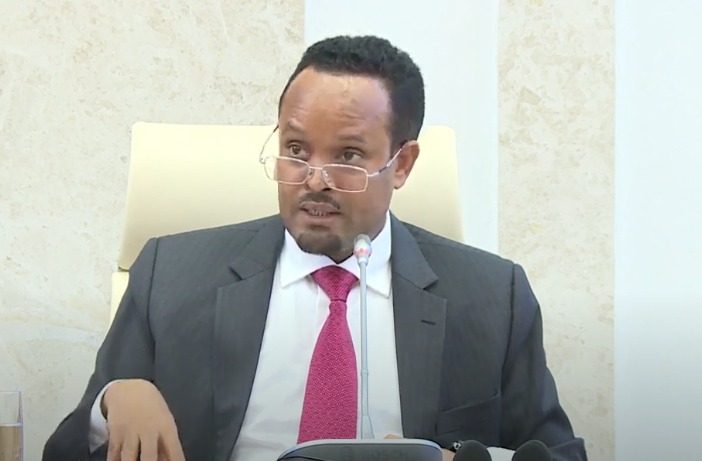
Ethiopia Plans to Unveil 15% New Fuel and Vehicle Taxes to Bolster Public Revenue
The Ethiopian government is preparing to roll out a new set of fuel and vehicle taxes as part of a broader fiscal reform aimed at boosting domestic revenue and easing pressure on state finances. The plan includes a 15% value-added tax (VAT) on fuel, a 15% excise duty, and a newly proposed vehicle circulation tax for fuel-powered cars. While no formal launch date has been announced, the Ministry of Finance recently briefed members of parliament on the proposal. Officials say the move is essential to modernize Ethiopia’s tax system and reduce the country’s reliance on unsustainable fuel subsidies.
Toward a Post-Subsidy Economy
Since mid-2022, the government has been gradually scaling back its fuel subsidy program, citing mounting fiscal pressures and a desire to correct market distortions. The partial removal of subsidies has already caused diesel and petrol prices to rise by over 50%. However, amid high inflation—currently at 13% annually—the government has retained some fuel subsidies, framing the new tax measures not as a substitute but as a complementary step in a long-term fiscal restructuring.

Kenyan Finance Giant Tipped to Debut as Ethiopia’s First Foreign Bank in Half-Century
Kenya’s KCB Group Limited will be the first foreign banking institution to join the Ethiopian financial sector under the government’s liberalization drive, according to sources at the National Bank of Ethiopia (NBE). KCB executives and NBE regulators are discussing the requirements the bank will need to fulfill before expanding its business to Ethiopia, the sources told The Reporter, adding they expect the Kenyan banking giant to begin laying the foundations for its entry “in the near future.” The Banking Business Proclamation amended by lawmakers in November 2024 permits foreign banks to enter in one of four ways. They can incorporate a subsidiary in Ethiopia, buy stakes in a domestic bank, establish a local branch office, or open a representative or liaison office. The law caps foreign investment in a bank at 40 percent ownership, while a domestic bank cannot sell more than 49 percent of its authorized shares to foreign investors. In an interview with 1st Afrika last month, KCB Group CEO Paul Russo said Ethiopia’s large and financially underserved population make it an appealing prospect despite the limits on foreign ownership in banks.

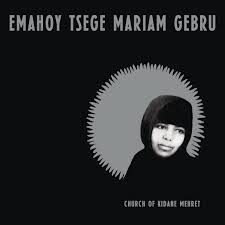
Emahoy Tsege Mariam Gebru Church of Kidane Mehret

Ethiopia Proposes 1.93 Trillion Birr Budget for 2018 Fiscal Year
Addis Ababa — The Ethiopian federal government has presented a draft national budget of 1.93 trillion birr for the 2018 Ethiopian fiscal year, Finance Minister Ahmed Shide announced during a parliamentary session with the House of People’s Representatives.
According to the breakdown of the proposed budget:- 1.2 trillion birr is allocated for regular (recurrent) expenditures
- 415 billion birr for capital expenditures
- 315 billion birr will support regional states
- 14 billion birr is earmarked for the implementation of sustainable development goals at the regional level


Ethio Telecom Launches Cloud-Based Core Banking for Ethiopia’s Microfinance Sector
Ethio Telecom held a workshop with microfinance institutions and SACCOs under the theme “Empowering Microfinance Institutions“ to introduce a cloud-powered core banking solution for modernizing financial operations in Ethiopia’s grassroots financial institutions.
The training included a full demonstration of the new solution, demonstrating its ability to boost operational productivity, improve service delivery, and provide a safe, efficient, and user-friendly digital environment. The system is designed specifically to support the digitization of microfinance and cooperative institutions, enabling them to serve customers better and adapt to evolving digital demands. During the event, Ethio Telecom’s team answered technical and operational problems posed by participants, demonstrating the platform’s actual application and ease of integration. Senior executives from Ethio Telecom attended, as did invited stakeholders from a variety of microfinance institutions and SACCOs.
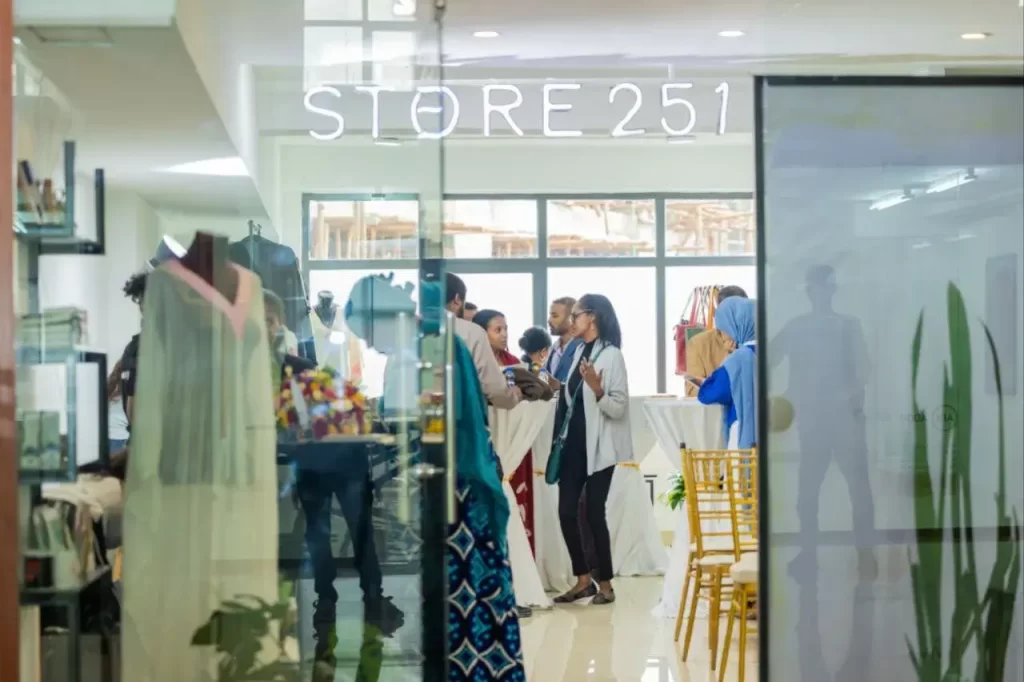
Store 251 Rolls Out App as Ethiopia’s E-commerce Scene Faces Shake-Up from Informal Vendors, Telecom Giant
An Ethiopian e-commerce company known for its wide selection of locally made goods has taken a digital step forward by launching a dedicated mobile app. Store 251, a five-year-old startup which operates through both physical and online outlets, debuted a mobile app last week, in a bid to strengthen its position in the country’s increasingly competitive e-commerce sector. The platform, developed with seed funding and support from Venture Meda, a collaborative initiative that looks to supercharge promising e-commerce startups, looks to expand 251 market presence. Madot Assefa, Founder and CEO of Store 251, says the app was designed to cater to the needs of users who are increasingly shopping through their smartphones. She recalled that development took nearly eight months, with updates continuing till now. “Our app was developed to reflect an actual marketplace,” Madot told Shega. A sleek interface fitted with customer reviews, live transaction dashboards, and customizable display formats for stores is available on the platform. Shoppers can also create and share wish lists for special occasions and earn Sheba Miles credit points redeemable for benefit packages when flying with Ethiopian Airlines. The platform’s development has maintained 251’s earthy aesthetics and attention to branding for each product. Started from a shop at Jupiter International Hotel in 2017, Madot spun off the e-commerce wing four years later with 41 registered up-and-coming Ethiopian brands. Most of the featured shops offer locally made products, primarily hosting textile products and fashion accessories. The platform charges a 10% commission fee on sales while hosting all the products at both its online and physical outlets.
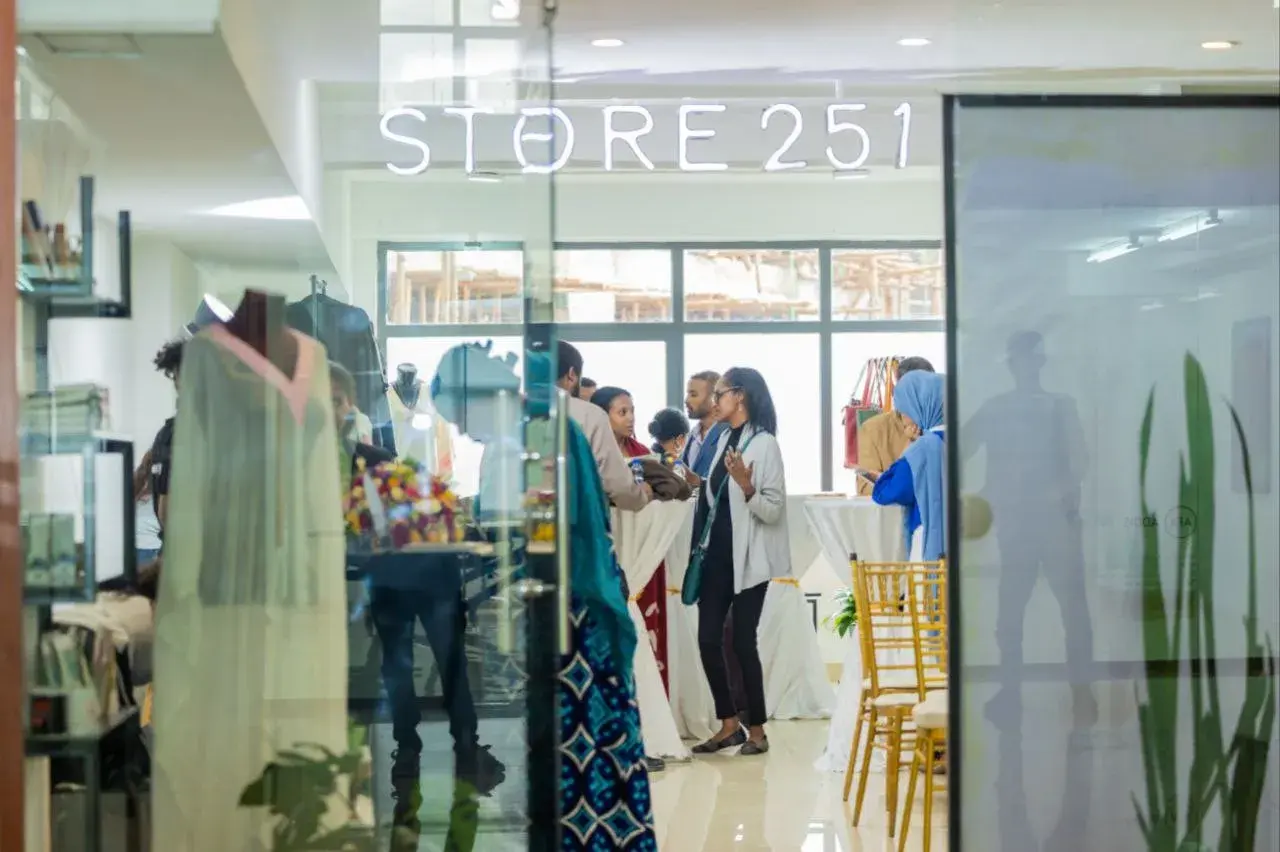

Ethiopia And UAE Unveil Strategic Airline Partnership To Enhance Travel Opportunities And Boost Economic Growth
Ethiopian Airlines and Etihad Airways have officially launched a strategic partnership aimed at revolutionizing global connectivity and driving economic growth. This landmark collaboration between the national carriers of Ethiopia and the United Arab Emirates is set to enhance travel opportunities between Africa, the Middle East, and Asia. The partnership is designed to provide passengers with greater access to an expanded network of destinations, improve travel convenience, and foster stronger economic ties between the two regions. By leveraging their combined networks and resources, both airlines are committed to offering seamless travel experiences and boosting the flow of tourism and business across these interconnected continents. In a historic move set to reshape air travel connectivity, the national airlines of the United Arab Emirates and Ethiopia have launched a strategic Joint Venture (JV) that promises to enhance travel between Africa, the Middle East, and Asia. The partnership, formally announced today at Ethiopian Airlines’ headquarters in Addis Ababa, includes a comprehensive codeshare agreement aimed at offering passengers a wider range of travel options across both airlines’ global networks. This landmark collaboration will usher in new flight routes linking Abu Dhabi and Addis Ababa, reinforcing the longstanding ties between the UAE and Ethiopia. Ethiopian Airlines is scheduled to commence flights from Addis Ababa Bole International Airport (ADD) to Zayed International Airport (AUH) starting on July 15, 2025. Etihad Airways, in turn, will introduce daily flights to Addis Ababa beginning October 1, 2025, further enhancing connectivity between the two regions.


BusinessMarket Jaquar Group Opens Flagship Bath & Light Showroom in Ethiopia, Reinforcing Commitment to Innovation and Skills Development
“Jaquar is investing in community upliftment through professional training initiatives and certification programs aimed at building a skilled workforce.” Addis Ababa, Ethiopia –June 5, 2025 – Jaquar Group, a global leader in complete bathroom and lighting solutions, proudly announces the opening of its flagship showroom in Ethiopia. Located on the 1st floor of the Joburg Building near Kazanchis Total, the showroom will serve as a one-stop destination for premium bath and lighting solutions tailored to the Ethiopian market. This launch marks a significant step in Jaquar’s long-term vision for Ethiopia, highlighting its dedication to quality, innovation, and local development. In addition to showcasing its globally recognized product range, Jaquar is also investing in community upliftment through professional training initiatives, including free plumbing certification programs aimed at building a skilled workforce. “Our goal is not only to supply quality products but to become a reliable partner in Ethiopia’s development journey by building skills, setting industry standards, and creating job opportunities,” said Mr. Ricardo Lage, Business Head – Africa and Francophone Countries.


Ethiopian parliament passes bill banning single-use plastic bags
The Ethiopian House of Peoples’ Representatives, the lower chamber of parliament, on Tuesday approved a bill banning single-use plastic bags.
Under the new law, individuals found using or distributing single-use plastic bags face fines of up to 5,000 Ethiopian birr (about $38.7), while manufacturers, importers, and marketers could face steeper penalties or suspension of licences.
The bill will be forwarded to the president for assent.
“This is a necessary and long-overdue step,” said Gemedo Dalle, Minister for Environment, Forest, and Climate Change, during a press briefing following the parliamentary vote.
“Plastic pollution is choking our rivers, poisoning livestock, and polluting farmlands. Ethiopia must act now before it becomes unmanageable,” Mr Gemedo said.
Ahead of the parliamentary vote, it was noted that a nationwide public awareness campaign would be launched to educate citizens about the details of the new law.


Ethiopia Introduces Sweeping Tax Reforms Targeting Digital Creators, Consultants, and High Earners
The Ethiopian government has tabled a comprehensive amendment to its federal income tax proclamation, signaling a major shift in the country’s fiscal framework to align with digital economy realities and bolster domestic revenue mobilization. The newly proposed changes, referenced as the “Income Tax Amendment Proclamation /2017,” were submitted to Parliament late last month. 1. Taxation of Digital Content Creators: For the first time in Ethiopia’s tax history, digital content creators—including YouTubers, podcasters, influencers, and online platform earners—will be required to pay taxes on their earnings. The law defines “income from digital content” as revenue generated from:
- Advertisements and sponsorships
- Brand partnerships and affiliate marketing
- Product sales, both physical and digital
- Donations, crowdfunding, and fan subscriptions


Wegagen Capital Goes into Business as Ethiopia’s First Investment Bank
Three weeks after receiving its trading membership certificate from the Ethiopian Securities Exchange (ESX) and just over two months after securing its investment banking license Wegagen Capital Investment Bank S.C. announced it was starting operations last night at the Hilton Hotel. The launch marks pivotal movement in Ethiopia’s embryonic capital markets, as Wegagen Capital starts operation as one of the country’s first licensed investment banks. It is helmed by Brutawit Dawit, a prominent figure in Ethiopia’s banking industry, known for her role in the formation of Wegagen Bank and as the former president of Zemen Bank. Brutawit congratulated stakeholders and emphasized that Wegagen Capital carries both the honor and responsibility of setting a new standard for investment banking in Ethiopia, rooted in integrity, innovation, and impact. She described the bank’s inception as a response to Ethiopia’s urgent need for specialized capital market services capable of unlocking capital, catalyzing investment, and accelerating national development. The Bank looks to offer a full suite of investment banking services, including capital raising through securities, underwriting for IPOs, strategic advisory for mergers and acquisitions, corporate restructuring, brokerage and trading services, and securities trading guidance. The firm aims to serve a broad spectrum of clients, government institutions, public enterprises, corporations, and high-net-worth individuals, with a focus on long-term value creation.


From Ethiopia to Mead High School, Franklin Zealand has sprinted toward his life
Zealand Franklin’s earliest memory is bleak. He lived in an orphanage in Ethiopia and remembers sitting on a low wall. “A guy sat next to me and put out a cigarette on my leg,” he said. “It left a scar. When my parents came to adopt me, I couldn’t speak English, so I mimed what happened.” His memories after being adopted at age 3 are bright. “I ate so much food! All we had at the orphanage was a pot of stew for breakfast, lunch and dinner.” Franklin said. “I picked up the language quickly because I was always talking to people.” That innate friendliness became his hallmark at Mead High School. “I go down the halls and give people high fives,” he said. “It’s the people, not the building that make the school.” His jovial attitude boosts the spirits of students and staff alike. “He’s very welcoming,” said counselor Jody Harkness. “He goes out of his way to meet a new face. He probably knew the names of more students and staff his freshman year than I did!” Franklin also assumed leadership roles. “As the (Associated Student Body) president, he effortlessly connects with staff and students, fostering a sense of unity and school spirit,” Harkness said. “His resilience and optimism inspire those around him. He always chooses to see the good in the world. He just sees life through a different set of lenses.”

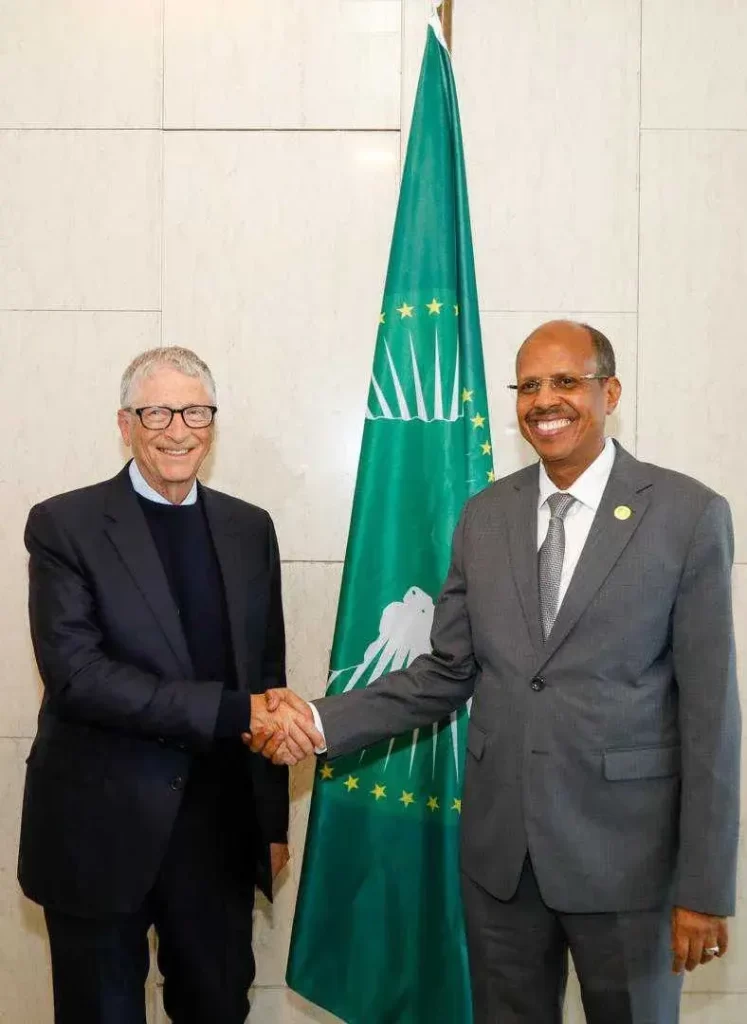
Bill Gates Pledges to Give Away Wealth Over 20 Years, mostly for Africa
A day after Prime Minister Abiy Ahmed (PhD) bestowed Bill Gates with the Special Order, Ethiopia’s highest honor, the American billionaire pledged to give away his wealth for philanthropic works in the coming two decades. During a speech at the African Union headquarters on the backdrop of a quarter century of philanthropic work, Microsoft’s co-founder announced his commitment through the Gates Foundation. “My wealth will be given away over the next twenty years,” he said to an audience at the Mandela Hall in Ethiopia’s capital. “The majority of that funding will be spent on helping you address challenges here in Africa.” Once the richest person in the world, the 69-year-old billionaire has an estimated net worth of around 110 billion dollars. Bill opened his keynote speech by reflecting on his first visit to Africa in 1993, which inspired his philanthropic focus on global health. He cited the reduction of under-five mortality rates from nearly 10 million to under 5 million annually over the past 25 years, attributing these gains to partnerships with African governments and organizations. The billionaire lauded Ethiopia for its health extension program, which expanded from 1,000 to over 15,000 health posts since 2005, contributing to a more than 50% decrease in child mortality rates. “Your work has saved lives,” he said, referencing health extension workers.” I have great respect for the enormous work you do.”
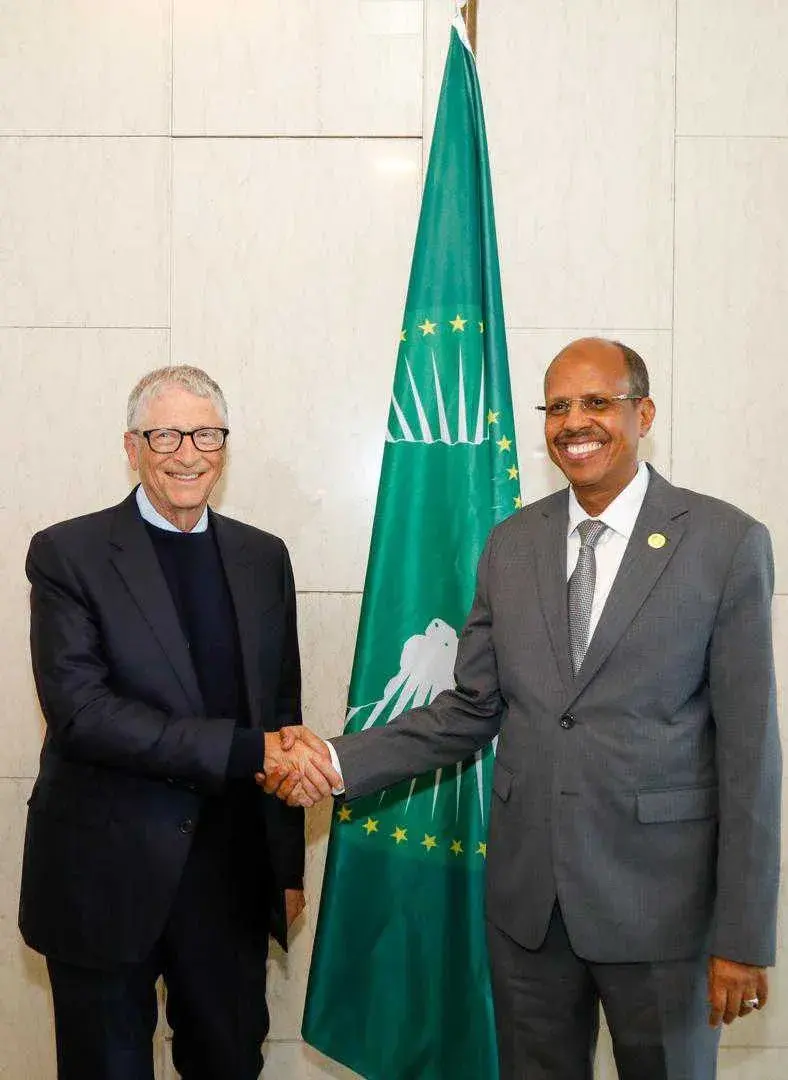

Girma Yifrashewa wins prestigious BraVo International Music Award
Renowned Ethiopian pianist and composer Girma Yifrashewa has been honored with the 7th International Professional Music Award BraVo, one of the world’s most prestigious accolades in classical music. The award ceremony, dedicated to the field of classical art, was held on the historic stage of the State Academic Bolshoi Theater in Moscow, Russia, drawing a global audience and celebrating musical excellence from across continents The BraVo Awards, recognized as Russia’s largest and most significant international music prize, annually brings together leading figures in music, opera, and ballet. This year’s event featured exceptional artists from Russia, India, Egypt, Serbia, Ethiopia, and beyond, each representing the pinnacle of their respective traditions. Girma Yifrashewa’s selection as an award recipient marks a momentous achievement for both Ethiopia and the African classical music community at large. Girma Yifrashewa is no stranger to international acclaim. A graduate of the Sofia State Conservatory in Bulgaria, the Royal Academy of Music in London, and the Graduate School of Music and Theater in Germany, Girma has built a career that bridges continents and cultures. His repertoire is as diverse as it is profound, encompassing iconic works by European classical composers, Ethiopian folk melodies, and his own original compositions that blend classical, blues, ethno-jazz, and Abyssinian sacred music.


Ethiopia’s Hasset Dereje Named First Runner-Up at Miss World 2025
Hasset Dereje Admassu of Ethiopia has achieved a historic milestone at the 72nd Miss World pageant, securing the position of First Runner-Up in the globally celebrated beauty and purpose competition. The event, held at the HITEX Exhibition Centre in Hyderabad, India, concluded with Thailand’s Opal Suchata Chuangsri being crowned Miss World 2025. Hasset’s second-place finish marks the highest ranking ever attained by an Ethiopian contestant in Miss World history, drawing widespread praise from across Ethiopia and the African continent. A graduate in public health and a passionate advocate for women’s health and education, Hasset represented Ethiopia with distinction both on and off the stage. Her “Beauty With a Purpose” project, which focused on maternal health and girls’ education in rural communities, impressed judges and audiences alike. During the final round, when asked to reflect on the impact of her presence in the competition, Hasset stated:
“There are so many children and mothers behind me that get so many things from me just from standing here.


Ethiopian Startup Launches Power Bank Rental Service
An Ethiopian technology startup has launched a power bank rental and sharing service, paving the way for an on-demand mobile charging infrastructure. MyCharge Technology PLC announced the service, available in Amharic, Oromiffa, and English, late Friday afternoon at the Hyatt Regency Hotel. After registering on the app, users can rent a power bank from the above 60 stations in the capital and return it at any convenient location within 72 hours. An initial deposit of 2,000 Birr to the MyCharge wallet is required to access the power banks, which will be refunded upon returning the device. Nahom Solomon, General Manager of MyCharge, says the rapid adoption of technology across Ethiopia complements the introduction of the service into the market. He indicated that the power bank stations, which carry up to 40 power banks, have been placed at strategic locations likely to have demand. “For the time being, we are not requiring fees for the rentals,” Nahom told Shega. The general manager says 20 Birr per hour, capped at 200 Birr per day, will be charged when the service becomes popular in the market. Notifications to return the power banks will start being sent to customers after 48 hours of usage. The four-month-old company plans to avoid the 2,000 Birr initial deposit requirements in the long run by integrating the service with the national ID and financial institutions. “We will have 150 stations by the end of the year,” the general manager noted. The power banks capable of fully charging two smartphones can be accessed by scanning QR codes on the stations, while payments can be made via telebirr and the Chapa payment gateway. Each station is fitted with digital screens of up to 25 inches for advertising opportunities.


Dodai Launches Battery Swapping Pilot with E-Bike Donations to Addis Ababa Transport Bureau
E-mobility startup Dodai is set to roll out its battery swapping network in Ethiopia, beginning with a pilot initiative involving the donation of 40 electric bikes to the Addis Ababa Transport Bureau. The company announced the launch of its latest project during a partnership signing ceremony with the Bureau on Thursday afternoon at its factory fitted with a station in the Haile Garment area. Dodai aims to replace traditional battery charging methods by establishing a network of stations that exchange depleted batteries for fully charged ones, for a fee. The startup plans to set up between 30 and 50 battery swapping stations across the capital within the next six months. “We hope to eliminate lengthy charging periods, reduce maintenance concerns, and eliminate traditional charging practices,” Dodai CEO Yuma Sasaki told Shega. Yuma noted that the bikes donated to the Bureau were the company’s latest models and expressed hope that the initiative would help build wider recognition for the reliability of Dodai’s bikes. According to the CEO, the bikes fitted with GPS devices can travel up to 90 km on a single charge. The battery swapping service reduces bike prices by around 100,000 Birr, though customers can also opt for Dodai models with fixed batteries.


Oromia Bank Joins Digital Lending Race with Launch of Miliki App
Oromia Bank has entered Ethiopia’s rapidly evolving digital lending space with the launch of Miliki, a new mobile application that offers collateral-free loans through an AI-driven credit assessment system. Developed in partnership with local fintech firm Quantum Technology, the app is part of the bank’s broader strategy to expand financial access and align with national digital transformation goals under Digital Ethiopia 2025.

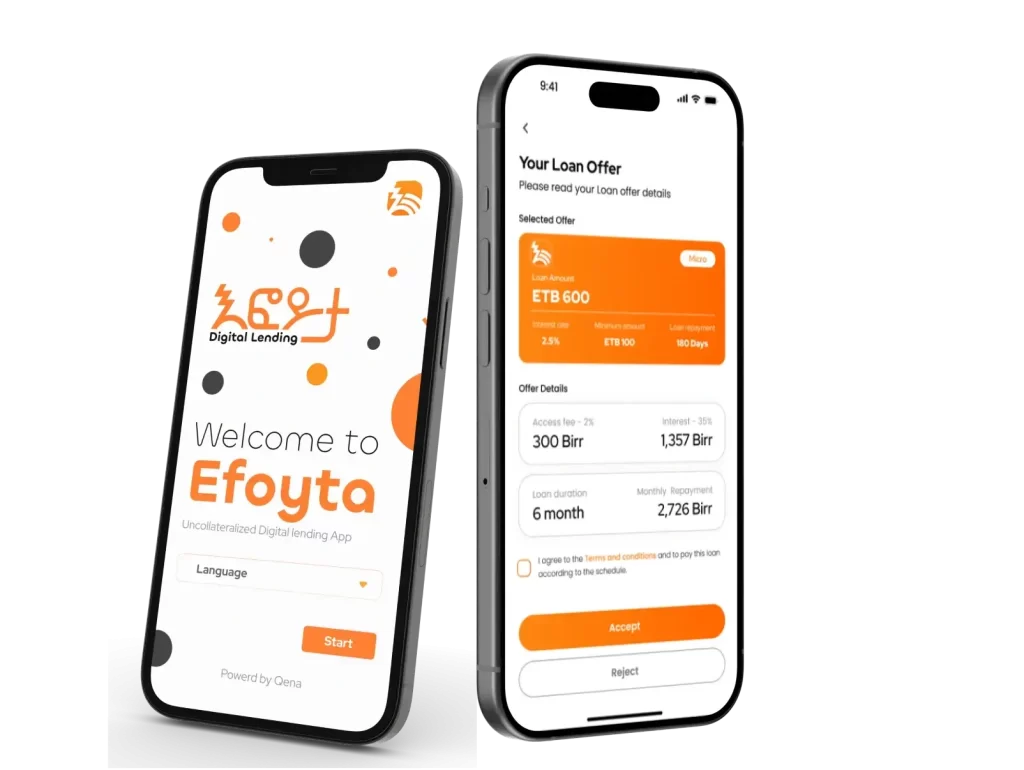
NBE Approves Wegagen’s Non-Collateralized Digital Loans Platform Efoyta Targeting a Million Customers
Wegagen Bank S.C. has received the commercial green light from the National Bank of Ethiopia for its non-collateralized digital lending platform dubbed Efoyta under the revised regulatory framework. Powered by Kifiya Financial Technologies' AI-backed intelligent system Qena, the Platform has disbursed over 2.7 billion Birr to around 185,000 borrowers in its pilot phase over the past nine months. NBE’s official approval, given three weeks ago, will enable Efoyta to roll out operations nationwide as it targets around a million customers. Efotya offers four types of loan products. Mekoya which unlocks around 50,000 Birr monthly loans at 8% interest rate, Ediget which offers around 30,000 Birr at an interest rate of 3.75% another credit product dubbed Melegna with a similar interest rate, for up to 5,000 Birr for 14 days and Wase which entails up to 20,000 Birr for 0.6% interest rate. Two of the products designed with particular attention to women have received significant traction during the pilot phase. Efoyta also enables fully digital onboarding of customers, a feature distinct from operators in the sector, requiring physical visits to bank branches.
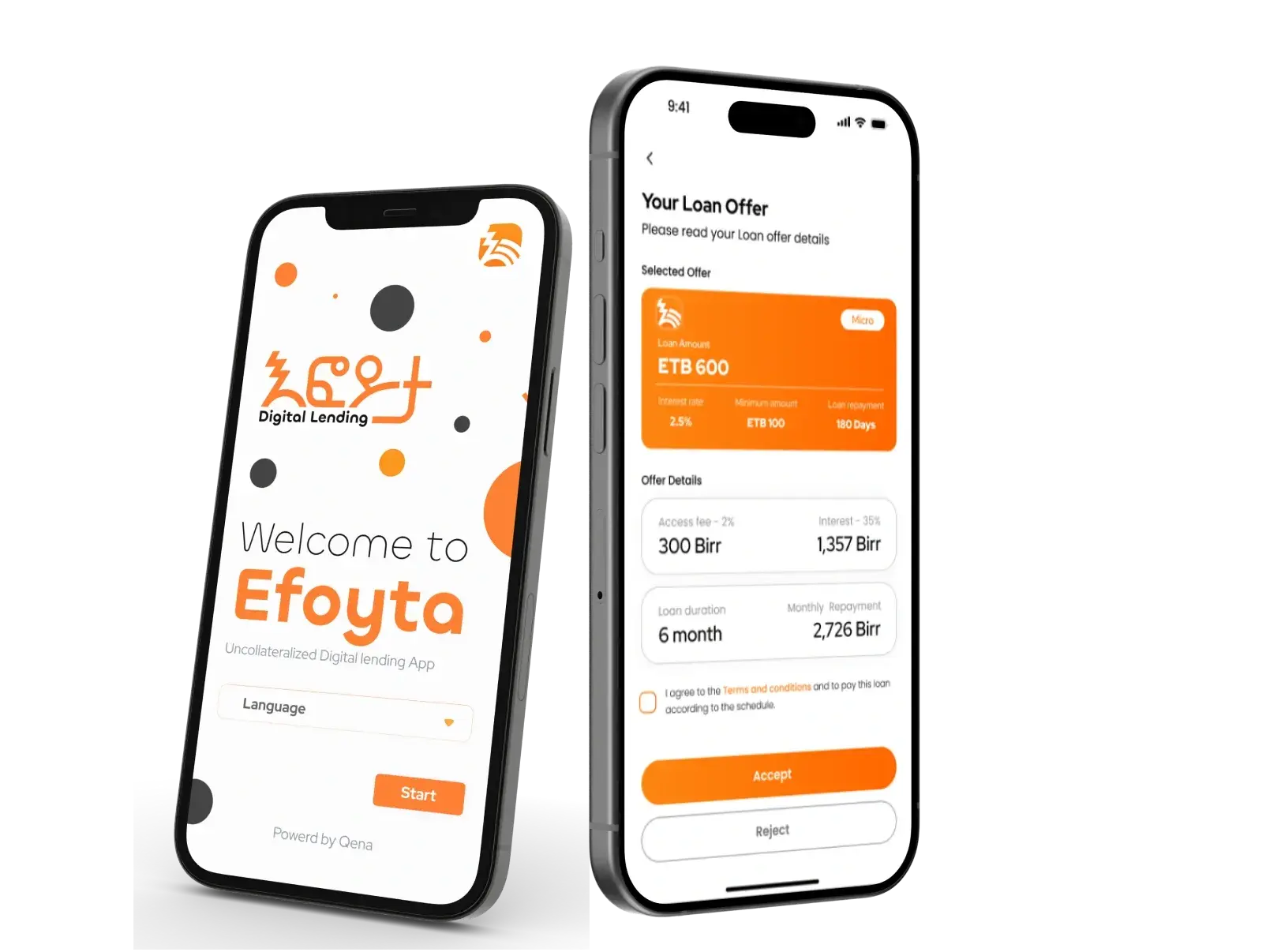

From Scarcity to Strategy: How Sosena Terefe is Powering Africa’s Digital Future
In a country where digital infrastructure was once nearly nonexistent, Sosena Terefe saw more than a technological gap, she saw an opportunity to create a lasting impact, not just chase hype. Her mission was seemingly simple but driven by a clear purpose: to empower underserved communities and institutions across Ethiopia through practical, scalable, and locally relevant digital solutions. That vision became reality in 2016 with the founding of ETM Software, a company that has since become a quiet but powerful force in Ethiopia and Africa’s digital transformation. In 2015, just a year before the establishment of ETM software, Ethiopia was one of the least connected countries in the world, with an internet penetration rate of 12%, according to data from the International Telecommunication Union. Since then, Ethiopia’s tech scene has been marked by a mix of digital scarcity and ambitious innovation. A prime example is Sosena Terefe and her brainchild, ETM Software. When they started ETM Software, co-founders Sosena Terefe and Mikiyas Amdu shared one clear goal: to create a company that doesn’t just build, but builds with context, addressing the unique needs of the country and its institutions. With no outside investment, the duo fully bootstrapped the startup, building it from the ground up. In its early days, ETM focused on building custom software for organizations still reliant on outdated systems or manual processes common reality in Ethiopia at the time. Over time, the team expanded its services to include machine learning and AI-powered tools that automate workflows and support data-driven decision-making. This evolution from bootstrapping to advanced technology work was gradual and deliberate, ensuring each step addressed real, local challenges.

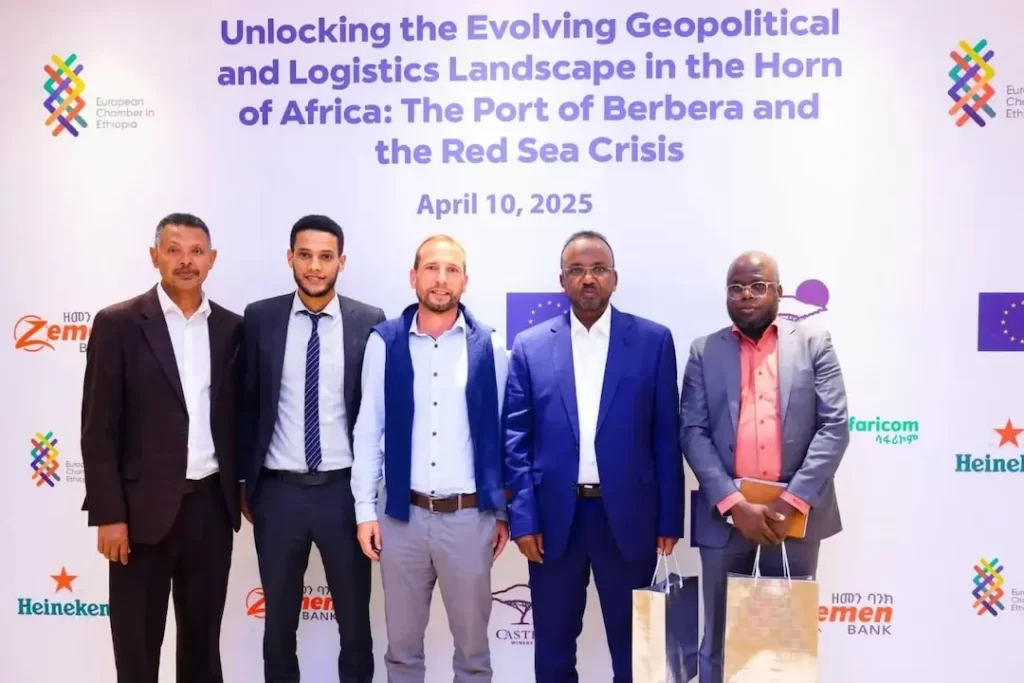
EU Chamber Panel Spotlights Ethiopia’s Logistics Gambit Sailing Red Sea Row
At a high-profile CEO networking event hosted by the European Chamber in Ethiopia last month, experts dissected the economic fallout of the Horn of Africa’s escalating port rivalry, centered on the Berbera corridor and the Red Sea crisis. Ethiopia, the sixth largest landlocked country in the world, which relies on Djibouti for around 90% of its port needs, looks to wean off its logistical dependence. A move which has sparked a geopolitical chain reaction and emboldened competing port projects in Djibouti, Somalia, and beyond Against a backdrop of shifting alliances and logistical bottlenecks, the discussion underscored how Ethiopia’s quest for sea access, via its pact with Somaliland, could redefine trade flows, regional stability, and supply chain costs across East Africa. The monthly session zeroed in on two decisive trends: Ethiopia’s deep reliance on Djibouti for port access, and its cautious but significant overtures toward alternatives like Berbera in Somaliland. Moses Chrispus Okello, Senior Researcher at the Institute for Security Studies, characterized the recent developments in the Horn as symptoms of deep political pressures. He suggested that countries in the region have begun exhibiting “transactional state behavior” to navigate the confluence of demographic shifts, economic stress, and climatic disruptions. Farhan Adem Haibe, General Manager of Alfa Enterprises and former Civil Aviation Minister of Somaliland, discussed the implications of the Ethiopia-Somaliland Memorandum of Understanding (MoU), the evolving dynamics around the Port of Berbera, and the broader geopolitical situation across the Horn of Africa and the Red Sea Corridor.


Ethio-Life, Lumina Launch Digital Life Insurance Platform, Tapping Underinsured Ethiopian Market
An ambitious new product by Ethio-Life & General Insurance S.C. and Lumina Technologies PLC looks to introduce a first-of-its-kind digital life insurance service onto the market. The seventeen-year-old insurer unveiled a platform named after the technology provider, Lumina, at the Inter-Luxury Hotel on Thursday. It relies on the Fayda national Digital ID for registration and charges premiums starting from 415 Birr, while claims of up to 750,000 Birr may be settled. Shimeles G. Giorgis, CEO of Ethio-life & General Insurance S.C., said the idea for the product came about from Lumina, which had conducted a feasibility study through Fasika Consult to assess the barriers for the adoption of life insurance in Ethiopia. Lack of awareness and inability to access nearby insurance branches were determined to be the leading challenges. Shimeles recalled that while the insurer has been operating for nearly two decades, it has had limited success in attaining deep penetration for life insurance services. The insurer, which managed to collect around 734 million Birr in gross written premiums in the last financial year, relied on general business for 71% of its premium income.


Running Helps This New York City Chef Create His Best Recipes
one of Marcus Samuelsson’s childhood memories took place inside. Growing up in Gothenberg, Sweden, the acclaimed chef, who was born in Ethiopia, spent much of his time on the water fishing or in the forests foraging for mushrooms or lingonberries. His uncles, professional fishermen, would take him with them for their daily catch. Surrounded by a vibrant food culture, Samuelsson apprenticed in kitchens in Switzerland, Austria, and France before moving to New York City in the 1990s. He channeled his love of soccer into long runs through Central Park and beyond, exploring the culinary mecca mostly on foot. He ran and in-line skated his way through Manhattan, first as an apprentice at Aquavit, a Scandinavian restaurant in Midtown, and then as its executive chef. There, Samuelsson became the youngest chef to earn a three-star rating from The New York Times. Samuelsson, now 54, still runs through the city, often dreaming up dishes for his new restaurant, Marcus Addis, in Addis Ababa, Ethiopia. I think it’s because I’m Ethiopian. I grew up watching sports, and Ethiopian runners did really well. Like them, I found it easy to run. It was something in my veins that I enjoyed, and I’m light on my feet. I played a lot of soccer as a kid too, but as I grew up and started working in kitchens—having less time for team sports—I started running just to run. Running gives you freedom.


SantimPay Joins Ethiopia’s Digital Remittance Market with FrankRemit
SantimPay Financial Solutions S.C., one of Ethiopia’s leading payment operators, has partnered with the Bank of Abyssinia to launch a digital remittance service dubbed FrankRemit. Unveiled at the Hilton Hotel on Wednesday, the service enables international transfers from nearly all countries and has been integrated with all banks operating in Ethiopia, as well as mobile money services, M-Pesa, telebirr, and CBE Birr. Santimpay’s new service promises to facilitate remittance transfers within minutes without charging any transaction fees. Users will need a Mastercard or Visa card to access the service available for both webapp and smartphone access. The platform also allows diaspora to send gifts through a Frankcard service launched in partnership with Oromia Bank and Shoa Supermarket. “It took us nearly a year to develop the platform,” Tinsae Desalegn, CEO of SantimPay, told Shega. He said FrankRemit has been rigorously tested over the past two weeks with transfers from several countries to ensure seamless service. Tinsae also noted that FrankRemit will not be working with independent forex bureaus for now. In the 10 months since Ethiopia transitioned into a market-based exchange regime policy, a handful of operators have ventured into the remittance business, including the majority state-owned ethio telecom. Existing operators like CashGo have also updated their features to fit the floated currency, while the other telecom operator in the country, Safaricom Ethiopia, has indicated plans to enter the business.


Theatre Review: ‘Ethiopia’ presented by IN Series at Theater Alliance
IN Series, a company committed to making “theater from music,” devoted its just-concluded season to the staging of works that were once banned. The season, with productions mounted in both Washington and Baltimore, began with a new version of Orson Welles’s “The Cradle Will Rock,” censored by the Franklin Roosevelt administration, and ended with Arthur Arent’s “Ethiopia,” which suffered the same fate.
…a compelling work…deserves to be heard…Both works were initially developed and financed by the Federal Theatre Project, a New Deal program to fund live artistic performances and put theatre artists back to work, and their bans showed how the seemingly benign hand of government funding can put artists on a leash. In a sadly ironic turn, IN Series is dealing with the same, losing its National Endowment for the Humanities grant during the development of “Ethiopia.” This sad news only adds to the urgency of “Ethiopia,” a compelling work that highlights the rise of authoritarianism and the costs of appeasement. Following on the tradition of news readers who would travel from town to town in the nation’s frontier days reading newspapers aloud to illiterate settlers, the Federal Theatre Project envisioned a series of “living newspapers” where actors would present complex current events through short plays.

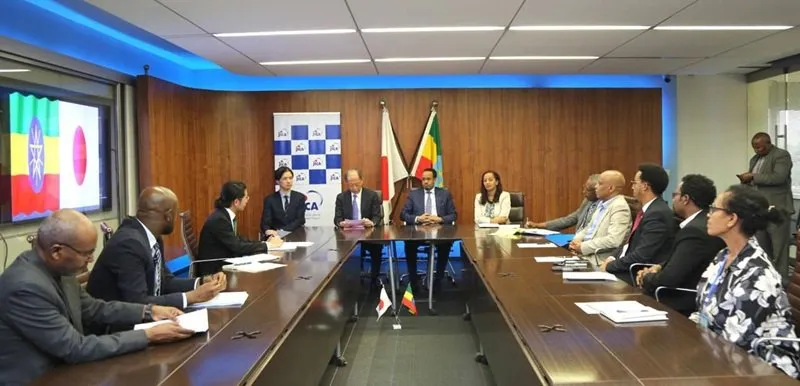
Japan to Spend $17.4 Million in Support of Ethiopia’s Infections Disease Control Project
Ethiopia and Japan this week reached a $17.4 million worth agreement which the Ministry of Finance of Ethiopia called “a landmark bilateral agreement.” According to the Ministry, it is intended for supporting the government’s infection disease control in the country. Ahmed Shide, Ethiopia’s Minister for Finance, and Shibata Hironori, Ambassador Extraordinary and Plenipotentiary of Japan to Ethiopia, signed the agreement in the Ethiopian capital Addis Ababa. Ethiopia’s Minister for health, Mekdes Daba, and Mr. Shintaro Takano, Deputy Resident Representative of the Japan International Cooperation Agency (JICA) Ethiopia Office, also attended the signing ceremony, based on information from the Ministry. While Ahmed Shide sees the initiative as a “strategic investment” in the health care system, it is indicated that it will be spent on the construction of “specialized facility at St. Peter [Hospital and equipping it with modern diagnostic and treatment technologies, Ethiopia will be better prepared to manage and contain infectious diseases—both now and in the future.” From what the Ministry of Finance says, improving quality of care, strengthening the prevention of infectious disease and capacity building for long term medical area priority areas for spending the funding. Monitoring and evaluation of projects like these have been raising skepticism. There have been accusations from the opposition quarter that government spending of development funds lacks transparency. Some went even further to claim that the government is spending aid money to finance the ongoing war in the Amhara and Oromia regions of Ethiopia.


Foreign Banks to Make it to Ethiopia’s Financial Market by 2025: NBE Governor
National Bank of Ethiopia Governor Mamo Mihretu says foreign banks will commence operations in the Ethiopian financial sector before the year is out. Speaking at the Ethiopian Finance Forum held mid week, the governor highlighted the government’s decision to open up the financial sector to foreign banks as one of its key recent policy shifts. Mamo then announced that the necessary groundwork has already been laid for the expected entrance into the Ethiopian financial sector of the foreign banks. Stopping short of naming the banks on their ways to Ethiopian financial turf, Mamo emphasized that integrating foreign financial institutions remains one of the NBE’s top priorities. Discussions at the forum also touched on the potential impact of foreign banks on the local market and the broader economy, including anticipated benefits in terms of competition, efficiency, and During his presentation Mamo has disclosed that certain guidelines previously considered “obstacles” to the entry of foreign banks will be revised sooner than the timeline initially indicated for their entry. Among the policies cited as restrictive are the mandatory bond purchases required of banks and the 18 percent credit cap. The NBE Governor indicated that these policies will be repealed and that a clear deadline has been set for their removal. Delivering an opening speech at the event, Ethiopia’s President Taye Atske Selassie, has remarked that although Ethiopia’s financial sector is over a century old, it has not matured into a strong and resilient system due to numerous challenges.

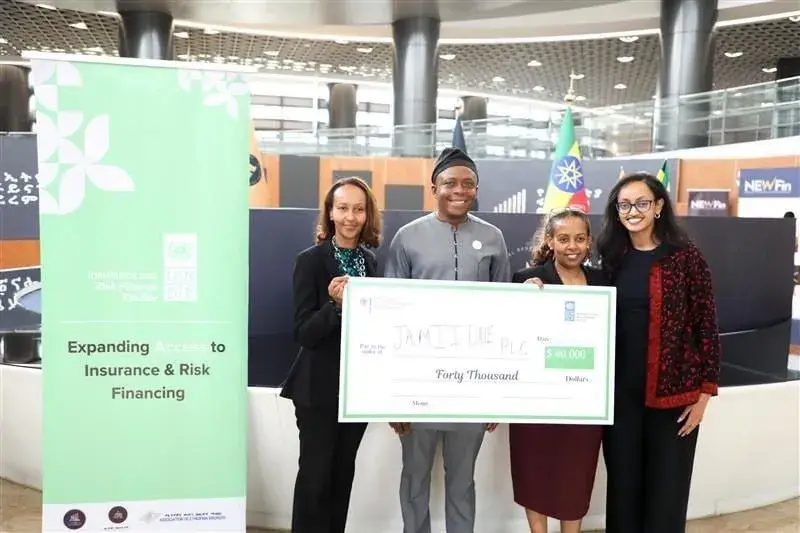
Jamii.one Wins $40,000 Grand Prize at UNDP Ethiopia’s Innovative Insurance Challenge Fund
Danish Ethiopian startup Jamii.one has been awarded the $40,000 grand prize at the 2025 Innovative Insurance Challenge Fund (IICF), organized by the United Nations Development Programme (UNDP) Ethiopia and its Insurance and Risk Finance Facility (IRFF). The challenge aims to support inclusive insurance solutions that enhance the resilience of underserved communities. Jamii.one’s winning solution focuses on digitizing traditional community savings groups, known as idir, to create accessible insurance products for low-income households. By leveraging community trust and digital tools, the platform enables members to build credit histories and access microinsurance services. Jamii managed to facilitate access to insurance services for nearly 160,000 people by the end of August last year. The IICF culminated in a week-long hackathon of coaching and preparation for the finalists ahead of their final pitch. It brought together innovators to develop scalable insurance solutions aligned with the Sustainable Development Goals (SDGs), targeting areas such as climate risk, digital innovation, SME resilience, and health coverage. Participants were evaluated on innovation, feasibility, scalability, and inclusivity. Two other Ethiopian Insurtech startups were recognized as runners-up: HuluCares, which offers health insurance solutions tailored for informal workers, and eQUB, a digital platform modernizing traditional rotating savings and credit associations. While Jamii.one received the top grant, the runners-up will also benefit from technical support and connections to UNDP’s innovation and insurance networks.

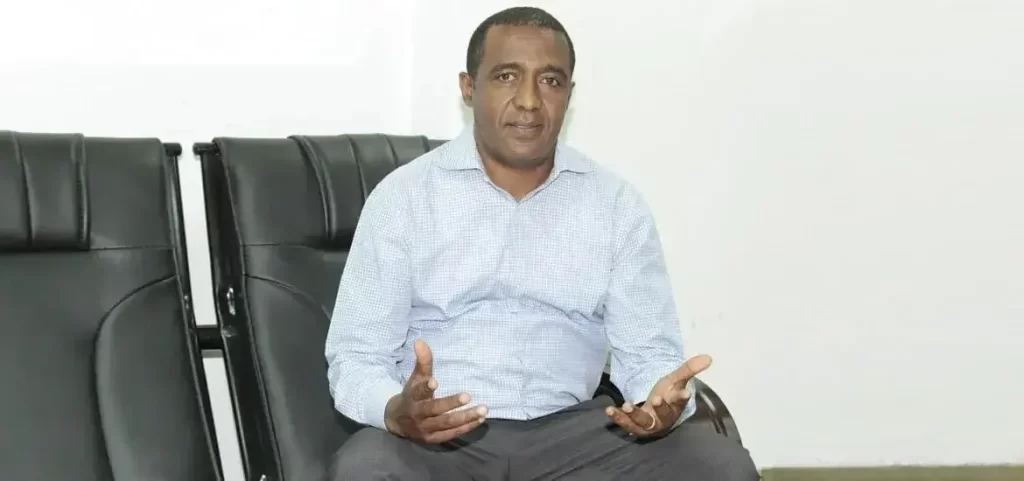
Ethiopian Telecommunications Trailblazer on Trial
A high-stakes criminal tax case has resulted in the incarceration of an Ethiopian-American tech CEO behind one of the first private internet service provider licenses in the country. Dawit Birhanu, CEO and co-founder of WebSprix IT Solutions Pvt. Ltd has been imprisoned for the past five months after a rejection of his bail plea and subsequent maintenance of the ruling by a series of courts. Websprix, a company with significant shares owned by Ethiopian diaspora, has provided a range of internet and technology services in Ethiopia for the past fourteen years, employing over 400 people. On December 26, 2024, the Ministry of Justice Economic Crime Affairs Directorate General lodged a case at the Federal High Court Lideta Criminal Bench against WebSprix and three of its senior executives: Dawit Birhanu, a former Cisco employee who moved back to Ethiopia in 2011 to co-found the company; Abraham Menwielet, Vice President and Co-founder; and Mekdes Aklilu Temesgen, Board Chairman. The trio were charged with allegedly facilitating contraband, tax evasion, and presenting money obtained through criminal activity as legitimately gained. The charges against WebSprix and its executives were filed just a few weeks after the Company received an Internet Service Provider (ISP) license from the Ethiopian Communication Authority (ECA) with a capital of 100.8 million Birr. This made the company one of only three entities, alongside Ethio telecom and Safaricom Ethiopia, authorized to build and operate telecom infrastructure.
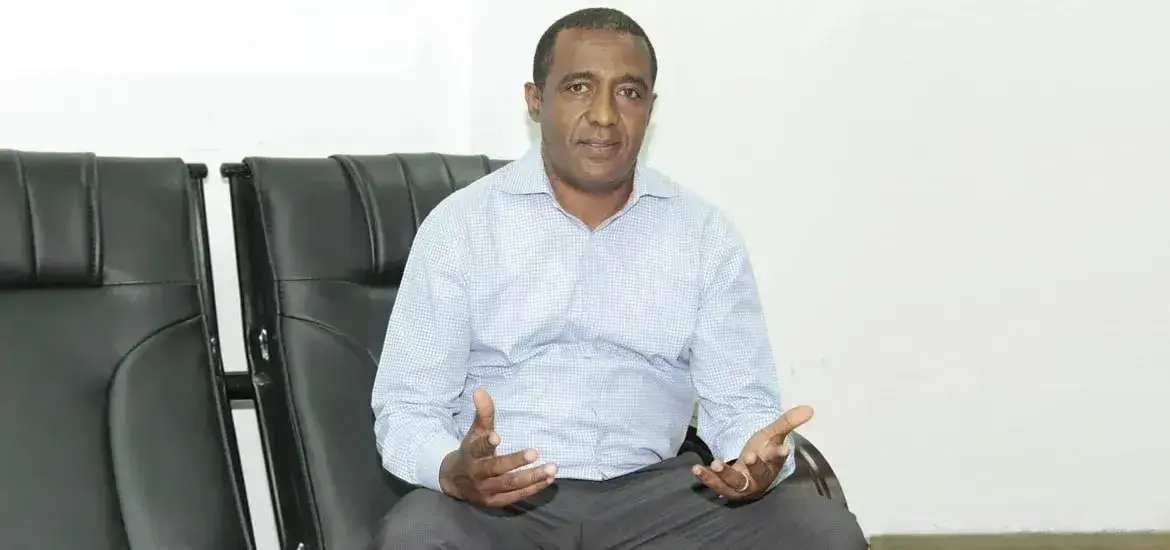

Googles Notebooklm Launches Amharic Support Enhancing AI Accessibility In Ethiopia
In a significant stride towards inclusivity, Google has expanded its AI-powered note-taking assistant, NotebookLM,to support Amharic, Ethiopia’s official language.This development is part of a broader initiative to make advanced AItools accessible to a more diverse global audience. NotebookLM, initially introduced as Project Tailwind, utilizes Google’s Gemini1.5 Pro large language model to assist users in generating summaries and answeringquestions based on their documents. The platform has been rolled out to over 200 countries,with interface language support extended to 108 languages, including Amharic . A notable feature of this expansion is the introduction of Audio Overviews in more than 50 languages. This functionality transforms written content into spoken summaries, allowing users to engage with information in a podcast-like format. While the complete list of supported languages for Audio Overviews has not been disclosed, the inclusion of Amharic in the interface languages suggests potential support for audio summaries in the language.

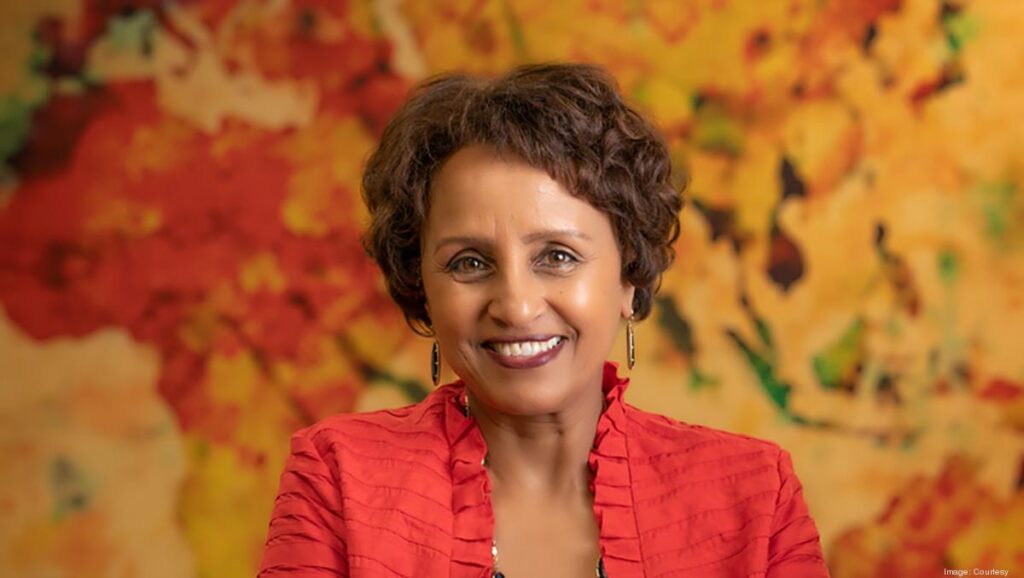
ADIS25: A Decade of Diaspora-Driven Investment and Innovation in Africa
By Ethio Diaspora Hub
Washington, D.C. – May 28-30, 2025 — As the African Diaspora Investment Symposium (ADIS) marks its 10th anniversary, Ethio Diaspora Hub is honored to spotlight ADIS25, a milestone convening hosted by the African Diaspora Network (ADN) at George Washington University. Since its inception, ADIS has emerged as the flagship platform accelerating Africa’s transformation through diaspora-led entrepreneurship, trade, innovation, and strategic investment.
 This year’s theme, “Beyond Remittances: The Evolving Role of Africans in the Diaspora in Unlocking Transformational Investments,” boldly reimagines the diaspora’s contribution—not as senders of money, but as co-creators of sustainable prosperity.
“This ten-year milestone is a call to action. Africa’s potential is immense, and the diaspora is key to unlocking it,” said Almaz Negash, Founder and CEO of the African Diaspora Network. “ADIS25 is our opportunity to harness collective strengths and deepen global partnerships that create long-term value for Africa.”
This year’s theme, “Beyond Remittances: The Evolving Role of Africans in the Diaspora in Unlocking Transformational Investments,” boldly reimagines the diaspora’s contribution—not as senders of money, but as co-creators of sustainable prosperity.
“This ten-year milestone is a call to action. Africa’s potential is immense, and the diaspora is key to unlocking it,” said Almaz Negash, Founder and CEO of the African Diaspora Network. “ADIS25 is our opportunity to harness collective strengths and deepen global partnerships that create long-term value for Africa.”
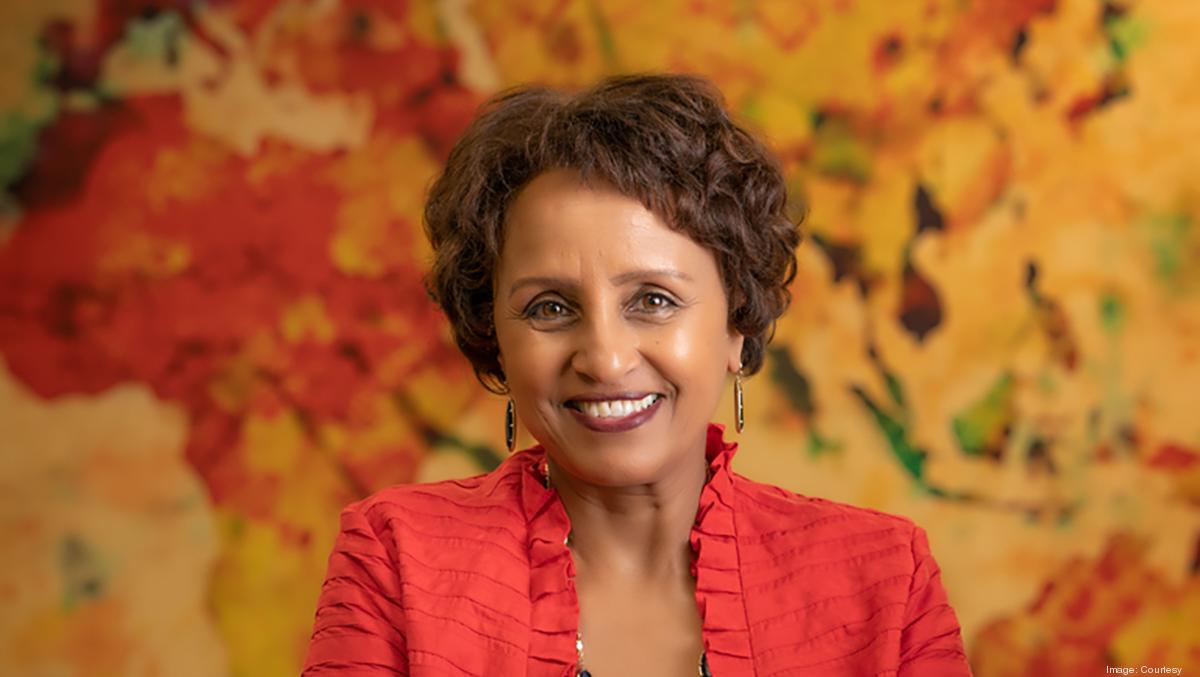 Why ADIS25 Matters Now More Than Ever
Africa is young, dynamic, and full of opportunity—and the diaspora is uniquely positioned to connect capital with local ingenuity. At a time of global uncertainty, ADIS25 amplifies the power of co-investment and co-creation to drive inclusive growth across the continent.
“ADIS embodies connection, progress, and shared heritage,” shared Dr. Liesl Riddle, Dean of George Washington University. “We are proud to host this transformational event and support bold, cross-continental collaboration.”
Event Highlights: May 28–30, 2025
✔ High-Level Panels & Fireside Chats – In-depth dialogues with top policymakers, investors, and change leaders shaping the future of U.S.-Africa relations.
✔ Diaspora Investment Opportunities – Pathways to engage in promising ventures across multiple sectors.
✔ Innovation & Entrepreneurship Showcases – Spotlight on African-founded enterprises transforming communities.
✔ Strategic Networking & Partnerships – Curated moments for deep connection and global deal-making.
✔ A Decade of Impact – Celebrating ADN’s journey of mobilizing diaspora capital, talent, and purpose.
Distinguished Speakers Include:
Why ADIS25 Matters Now More Than Ever
Africa is young, dynamic, and full of opportunity—and the diaspora is uniquely positioned to connect capital with local ingenuity. At a time of global uncertainty, ADIS25 amplifies the power of co-investment and co-creation to drive inclusive growth across the continent.
“ADIS embodies connection, progress, and shared heritage,” shared Dr. Liesl Riddle, Dean of George Washington University. “We are proud to host this transformational event and support bold, cross-continental collaboration.”
Event Highlights: May 28–30, 2025
✔ High-Level Panels & Fireside Chats – In-depth dialogues with top policymakers, investors, and change leaders shaping the future of U.S.-Africa relations.
✔ Diaspora Investment Opportunities – Pathways to engage in promising ventures across multiple sectors.
✔ Innovation & Entrepreneurship Showcases – Spotlight on African-founded enterprises transforming communities.
✔ Strategic Networking & Partnerships – Curated moments for deep connection and global deal-making.
✔ A Decade of Impact – Celebrating ADN’s journey of mobilizing diaspora capital, talent, and purpose.
Distinguished Speakers Include:
- Hon. Dr. Abike Dabiri-Erewa, Chairman/CEO, Nigerians in Diaspora Commission
- Dr. Gebisa Ejeta, World Food Prize Laureate & Professor, Purdue University
- Ham Serunjogi, CEO & Co-Founder, Chipper Cash
- Dana Nau François, Program Officer, W.K. Kellogg Foundation
- Rahama Wright, Founder, Yeleen Beauty
- Kelly Chibale, Professor, University of Cape Town
- Muhsin Hassan, Managing Director, Lever for Change
- Tresor Riziki, Musician & Entrepreneur, Jacquel Group
- 3,400+ attendees from 100+ countries
- A network of 15,000+ changemakers
- 68+ ecosystem partnerships across Africa and the diaspora
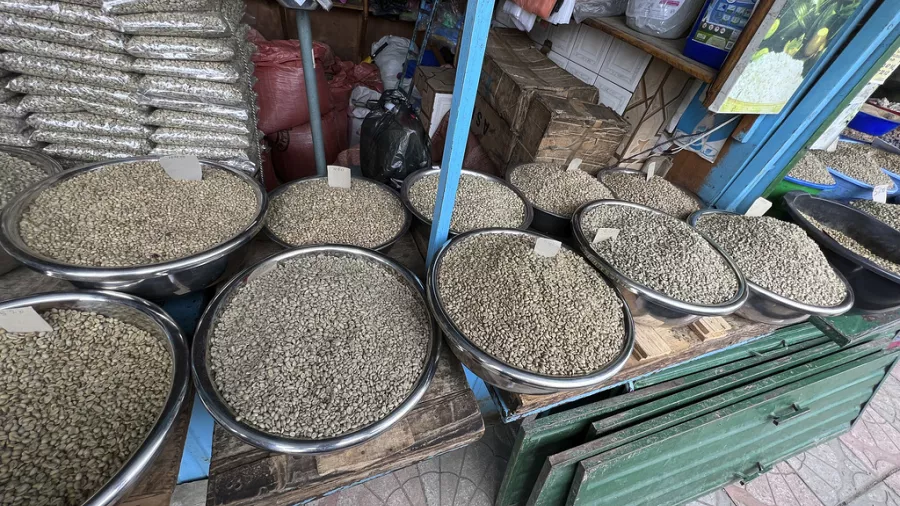
Record volume and revenue for Ethiopian coffee exports
Ethiopia’s Coffee and Tea Authority (ECTA) said Wednesday that the country earned a record $1.868 billion from coffee exports over the past 10 months. Its director-general, Adugna Debela, said 354,302 thousand tonnes were sold, with Germany, Saudi Arabia, and the United States ranked as its top three destinations. These figures represents an increase of 70 per cent in volume and 87 per cent in revenue compared to the same period in the last fiscal year. Debela described this as an “outstanding achievement” and the outcome of a well-coordinated national effort. He also expressed optimism that the next two months of the fiscal year would build on the same momentum. Coffee production is seen as the backbone of the country’s agriculture-led economy and is the primary source of its export revenue. The brew is one of the world's most widely consumed beverages with an estimated 2 and a quarter billion cups of it is consumed daily. It is also one of the most traded commodities, with the Arabica species representing the majority of global coffee production.

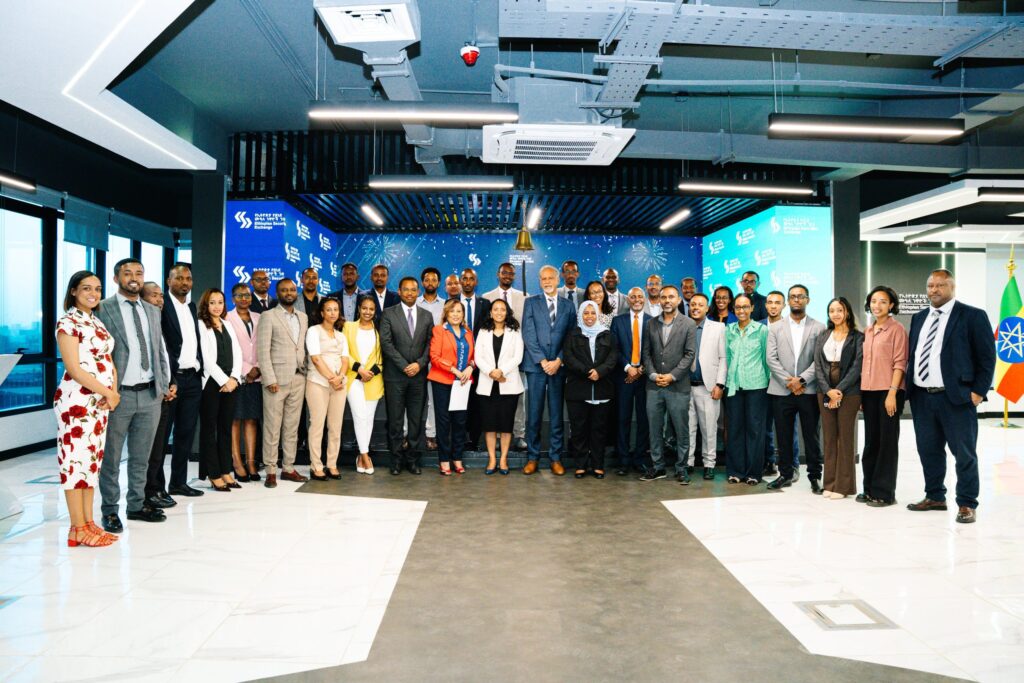
Wegagen Capital Becomes First Trading Member of Ethiopian Securities Exchange
In a landmark moment for Ethiopia’s financial sector, Wegagen Capital Investment Bank S.C. has become the first institution to receive a Trading Membership Certificate from the Ethiopian Securities Exchange (ESX). This achievement follows the firm’s recent investment banking license from the Ethiopian Capital Market Authority (ECMA), positioning Wegagen Capital at the forefront of the country’s emerging capital markets. As a licensed trading member, Wegagen Capital is now authorized to facilitate investor participation on the ESX, execute trades on behalf of clients, and contribute to the creation of a transparent and liquid trading environment. This development marks a significant step forward in operationalizing Ethiopia’s capital market and building a more inclusive, modern financial system. The membership certificate was awarded during a ceremony attended by H.E. Hana Tehelku, Director General of ECMA, and Sunil Benimadhu, CEO of the Mauritius Stock Exchange.
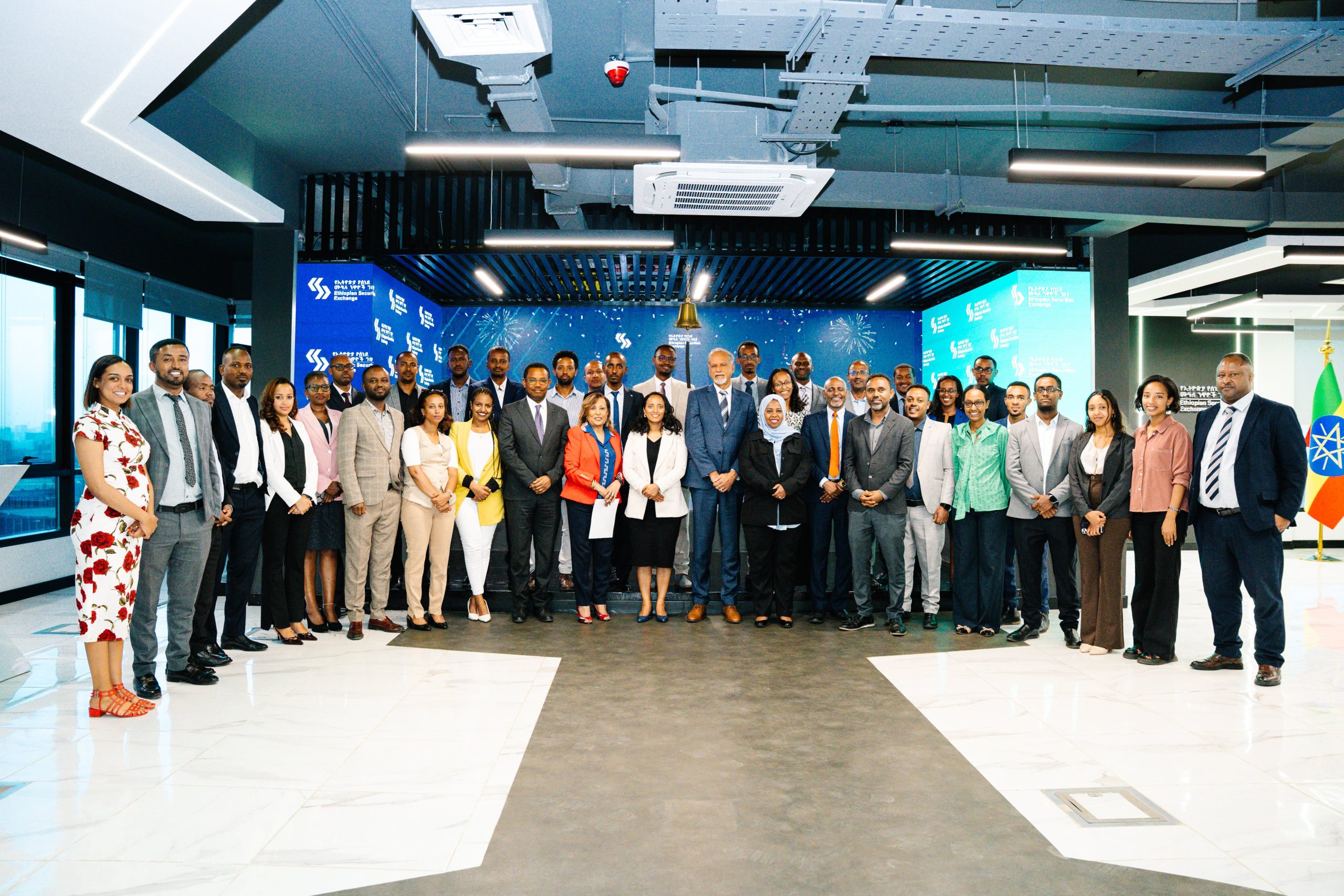
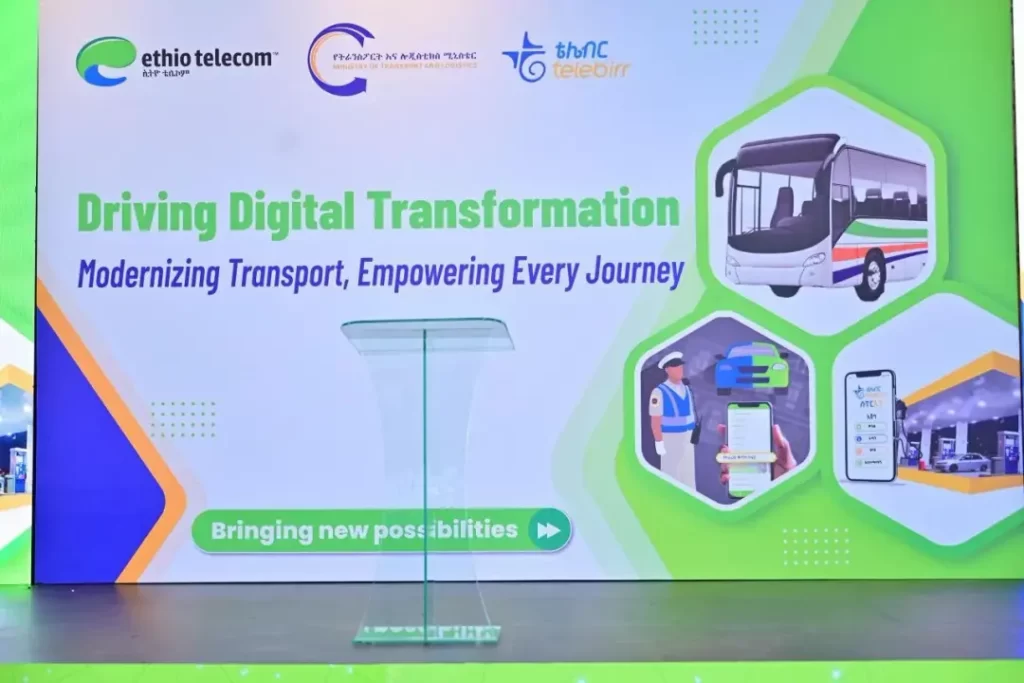
Ethiopia Integrates Fuel, Fares, and Fines in Sweeping Digital Reform
The Ministry of Transport and Logistics, in partnership with Ethio Telecom, has unveiled a comprehensive digital transport management system aimed at modernizing Ethiopia’s intercity travel services. The platform, launched Tuesday at the Hyatt Regency hotel in Addis Ababa, is designed to consolidate cross-country bus operations, operator licensing, ticketing, fuel payments, and traffic penalty systems into an integrated digital framework. The system seeks to improve regulatory oversight, reduce inefficiencies, and enhance transparency across the country’s sprawling intercity transport network. Officials say it will cover more than 1,995 intercity buses and serve around 480,000 passengers each month, while digitizing key services such as online ticketing, fare and route management, and operator licensing. Biruk Adane, chief mobile money officer at Telebirr, Ethio Telecom’s mobile financial platform, said the system will integrate 13 cross-country bus associations and 255 registered inter-regional routes. It is expected to facilitate up to 325 million ticket transactions monthly. A key component of the platform crafted by Ethiotelecom is the national traffic penalty management system, which replaces all manual fine payments with digital transactions. The platform supports multiple payment gateways and aims to ensure that 100 percent of traffic-related payments are processed electronically within a unified digital system. Ethiopia’s transport ministry managed to collect more half a billion birr from traffic penalties across nine months in 2023.
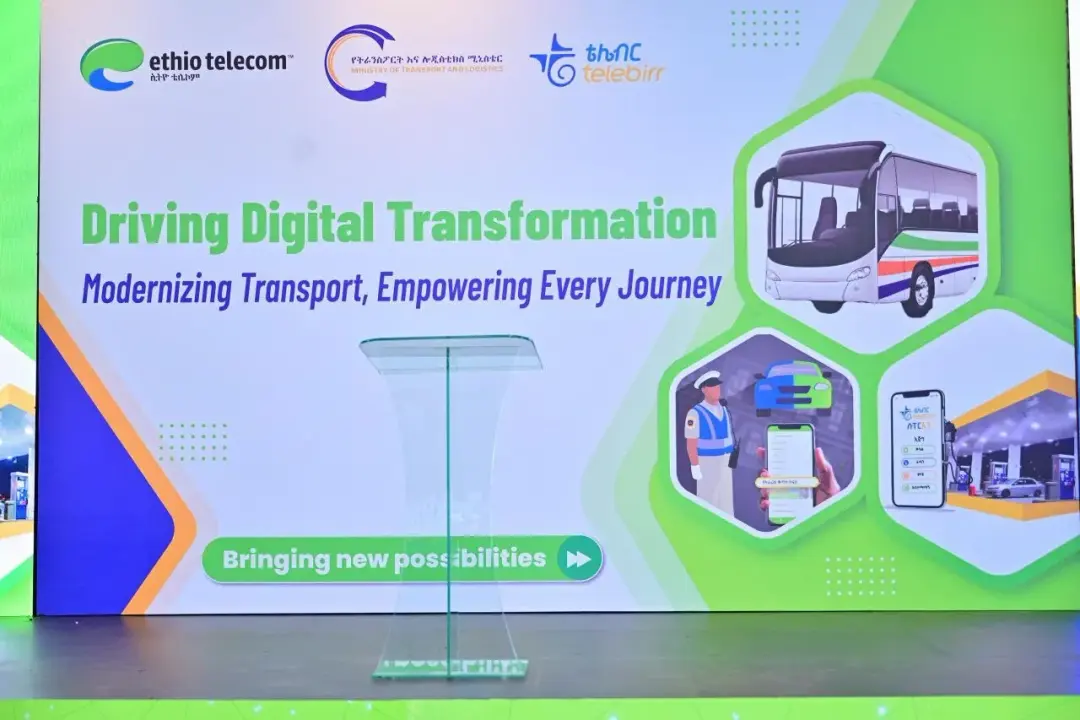
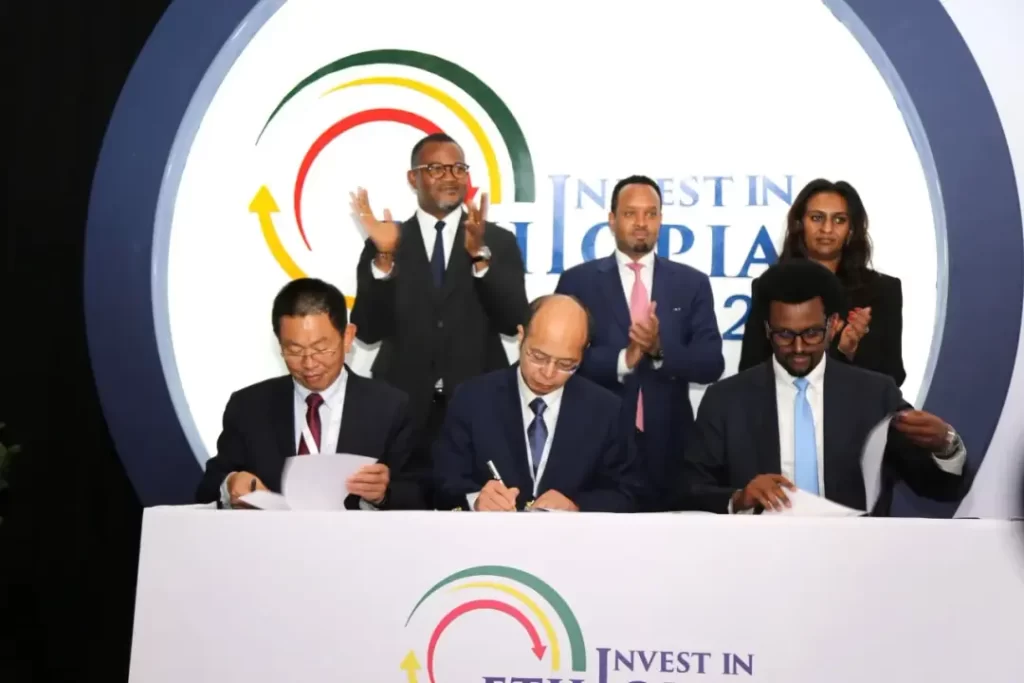
Ethiopia Clinches $1.6 Billion in Planned Investments at High-Level Business Forum
Ethiopia concluded the Invest in Ethiopia High-Level Business Forum with the signing of five investment agreements totaling over $1.6 billion. The event, held over two days in Addis Ababa and co-organized by the Ethiopian Investment Commission and, Ministry of finance and Development Partners Group, brought together investors from China, the Middle East, and Europe alongside Ethiopian officials and private sector representatives. The largest investment was a $600 million commitment by Sequa Mining and Processing PLC, a joint venture between Chinese and Ethiopian companies, to develop coal mining projects. Huawei Mining Processing Company Limited signed an agreement for a $500 million investment in mineral exploration, processing, and the development of a special economic zone dedicated to the mining sector. Hanergy New Energy Technology Company Limited, in partnership with Jandu, committed $360 million to build a solar cell manufacturing plant. Sesar Energy Advancing Solutions signed a two-phase deal amounting to $250 million to support solar energy infrastructure, with $100 million allocated for the first phase and $150 million for the second. Toyo Solar Manufacturing Development PLC committed $14 million to expand its solar cell production capacity. The investments span the energy and mining sectors, which have been prioritized under Ethiopia’s Homegrown Economic Reform Agenda. Ethiopia has been revising its investment laws, expanding public-private partnerships, and opening formerly state-controlled sectors to foreign investment. These reforms follow earlier large-scale investments in sectors such as industrial parks, agriculture, and telecommunications.
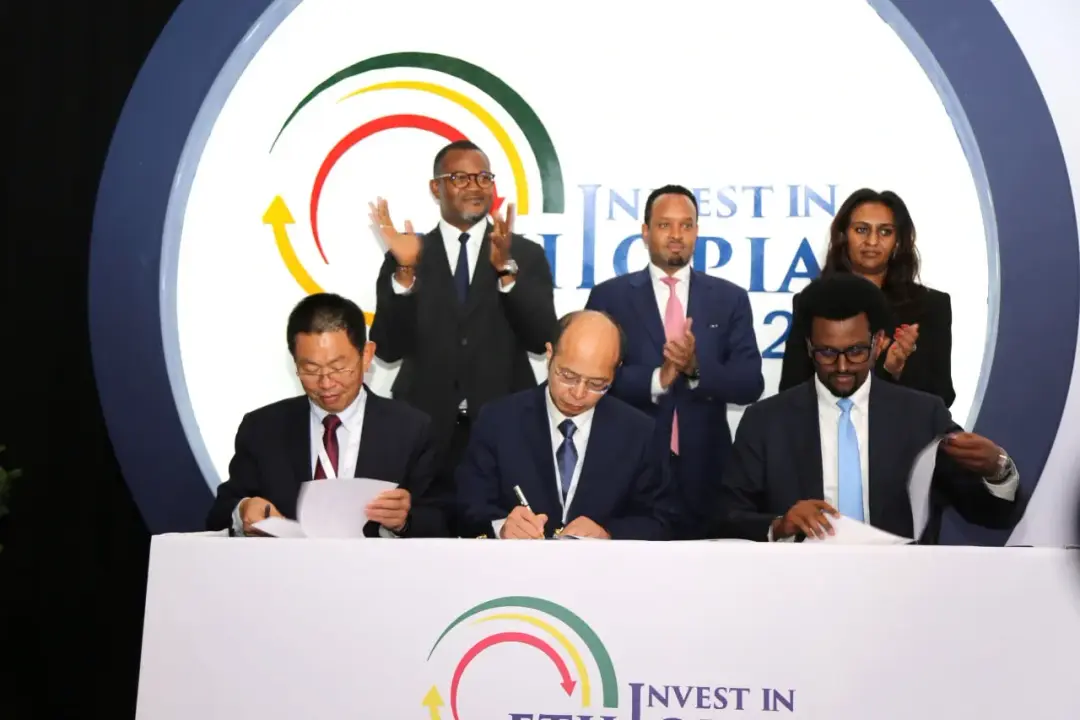

Film screening: Made in Ethiopia
Join us on Friday 16 May for an exclusive screening of Made in Ethiopia. The documentary tracks the establishment of a massive Chinese industrial park in rural Ethiopia and the impact it has on Ethiopian society and economy, seen through the lives of three women. The screening will be followed by a conversation with director Max Duncan, and commentary from Tianyi Wu, a BSG doctoral student writing her thesis on China’s overseas lending in Africa. Please note, this event takes place in person only.
Synopsis
When a massive Chinese industrial park lands in rural Ethiopia, a dusty farming town finds itself at the new frontier of globalization. The sprawling factory complex’s formidable Chinese director Motto now needs every bit of mettle and charm she can muster to push through a high-stakes expansion that promises 30,000 new jobs. Ethiopian farmer Workinesh and factory worker Beti have staked their futures on the prosperity the park promises. But as initial hope meets painful realities, they find themselves, like their country, at a pivotal crossroads. Filmed over four years with singular access, Made in Ethiopia lifts the curtain on China’s historic but misunderstood impact on Africa, and explores contemporary Ethiopia at a moment of profound crisis. The film throws audiences into two colliding worlds: an industrial juggernaut fueled by profit and progress, and a vanishing countryside where life is still measured by the cycle of the seasons. Its nuance, complexity and multi-perspective approach go beyond black-and-white narratives of victims and villains. As the three women’s stories unfold, Made in Ethiopia challenges us to rethink the relationship between tradition and modernity, growth and welfare, the development of a country and the well being of its people.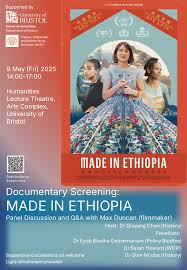
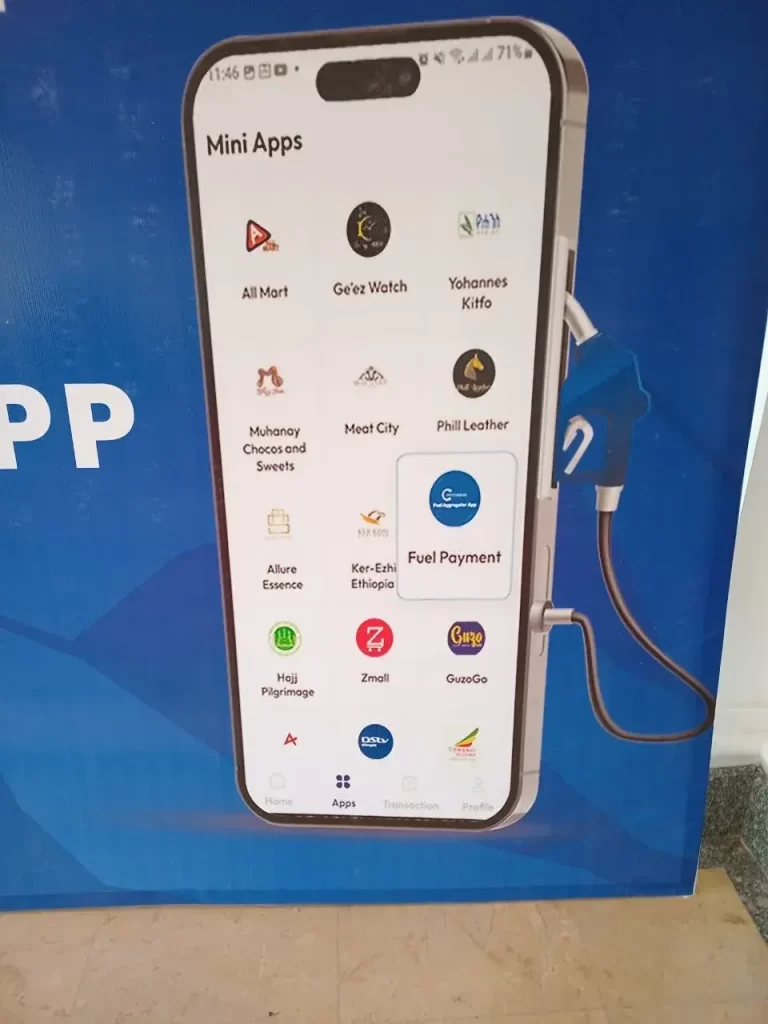
Dashen Unveils Fuel Payment Service via Super App, Becomes Latest Bank in Digital Shift
Dashen Bank has become the latest financial institution to join the digital fuel payment ecosystem through a new service integrated into its super app. The Bank unveiled its latest digital product at a ceremony held at the Sheraton Addis Hotel late Monday afternoon. Dashen became the third financial institution to announce integration into the national fuel aggregator portal in the past three weeks, preceded by Oromia International Bank's Milkii and Safaricom’s MPESA mobile money service. Dashen’s latest service allows customers to scan QR codes and process fuel payments, leveraging codes generated through the national fuel aggregator. Through a dashboard accessible on the super app and communication with fuel station attendants, the service looks to facilitate payments in three simple steps, according to Lidya Bezabih, Director of Digital Banking at Dashen. Dashen launched its super app three months ago and has bolstered it with a series of mini-app integrations. Airlines tickets, DSTV payments, utility payments, and an e-commerce portal targeting the holiday rush were amongst the introductions until the fuel payment system. Ethiopia’s government has been attempting to attain end-to-end digitization across the fuel supply chain for the past two years with mixed success. While the value of digital payments has surpassed 400 billion Birr, strict implementation outside of major cities has remained relatively limited. Speaking to Shega last week, Berho Hassen, state minister for transport and logistics, underscored the importance of ensuring that each liter of fuel in the country is sold in a digital format. He reiterated similar remarks during Dashen’s digital fuel payment launch and called for financial technology firms to join the fold.
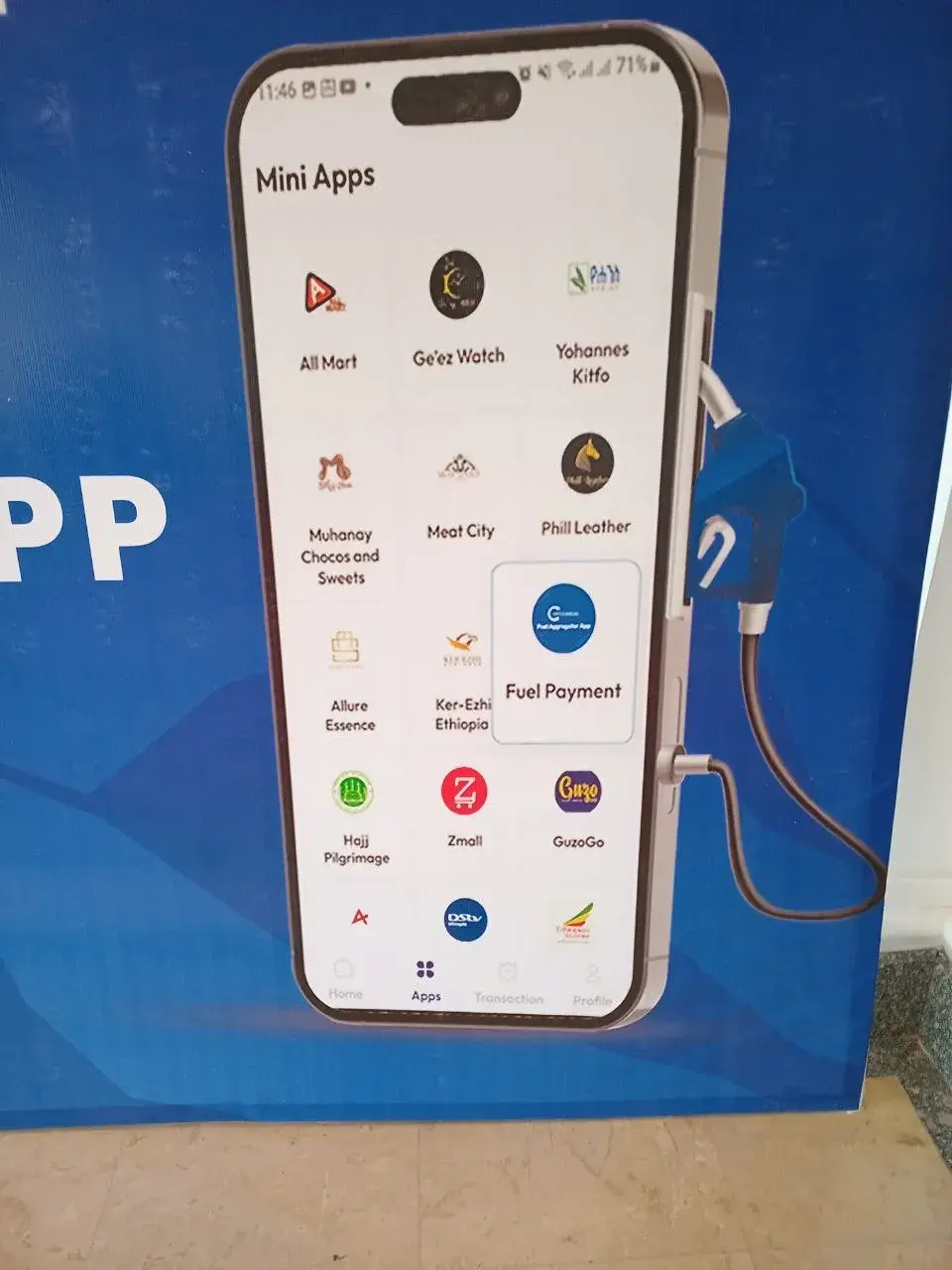

Ethiopian Capital Market Authority Launches Probe into Unlicensed Fundraising Involving Ermias Amelga
The Ethiopian Capital Market Authority (ECMA) has initiated an investigation into unauthorized public fundraising activities involving Ermias Amelga and Genesis Investment Services.
In an official statement released this week, the Authority revealed that it has received multiple complaints regarding unauthorized public fundraising through the sale of securities. The probe targets various individuals and organizations suspected of operating without proper licenses and bypassing regulatory oversight.
Specifically, the Authority confirmed that both Ermias Amelga and Genesis Investment Services are subjects of the investigation. ECMA emphasized that all inquiries will be conducted in accordance with constitutional safeguards, including the right to a fair hearing and legal defense.
The Authority urged the public to remain vigilant when engaging in capital market activities, particularly when investing in or establishing commercial entities. Citizens are strongly advised to verify business registration documents with the appropriate government offices and consult only with investment advisors licensed by the Authority before committing any funds.


Ethiopia Increases Fuel Prices By 10 Birr Per Liter at Retail Level
Starting today at 6:00 p.m., the Ethiopian Ministry of Trade and Regional Integration has implemented a 10 Birr per litre increase in retail petroleum prices. The adjustment reflects global fuel price trends and applies to all fuel stations nationwide.
According Updated Fuel Prices list:
-
Gasoline will now sell 122.53 birr per liter
-
Kerosene is set 116.49 birr per liter
-
White Naphtha also at 116.49 birr per liter
-
Light Black Naphtha at 106.77 birr per liter
-
Heavy Black Naphtha at 104.08 birr per liter
-
Aviation Fuel will be sold 100.56 birr per liter

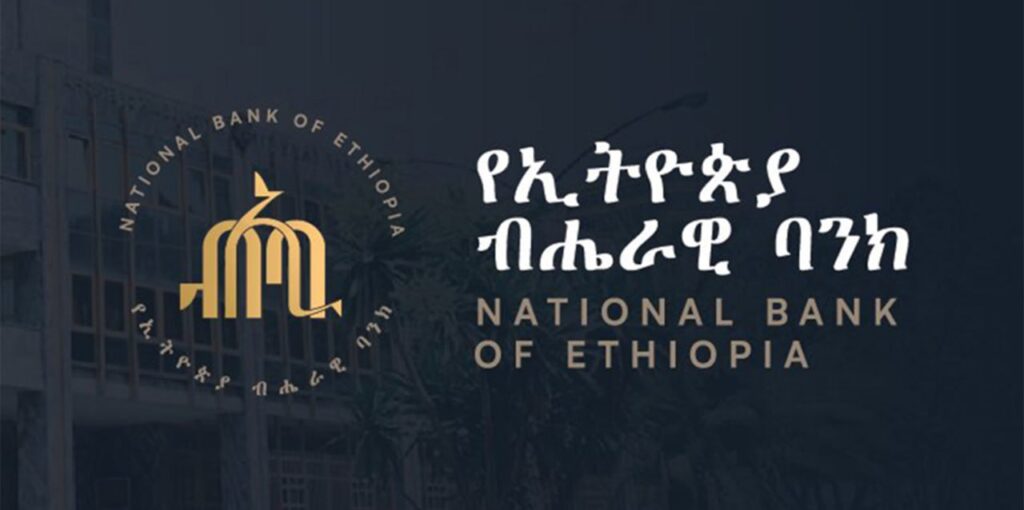
Ethiopia Ushers in New Era of Banking Reform with Basel-Aligned Capital Directive
Addis Ababa, May 7, 2025 — Ethiopia’s banking landscape is undergoing a major transformation as the National Bank of Ethiopia (NBE) unveils its most comprehensive regulatory reform yet. In a decisive move to modernize and fortify the financial sector, the NBE has issued Directive No. SBB/XX/2025, establishing Risk-Based Capital Adequacy Requirements for all banks operating within the country.
This reform marks Ethiopia’s full-scale shift toward Basel II and Basel III international banking standards, putting the nation’s regulatory environment on par with those of global financial centers. It signals the government’s commitment to Long-term economic stability, Financial inclusion, Responsible credit expansion.
Stronger Capital Foundation: What the Directive Requires
The directive introduces a three-tier capital framework designed to ensure that banks have sufficient buffers to absorb losses, support ongoing operations, and safeguard depositors:
-
Common Equity Tier 1 (CET1): Minimum of 7.5% of Risk-Weighted Assets (RWAs). This represents the highest quality capital — mainly common shares, retained earnings, and disclosed reserves.
-
Tier 1 Capital: CET1 plus Additional Tier 1 capital must amount to 9.5% of RWAs. AT1 includes instruments that can absorb losses but are not common equity.
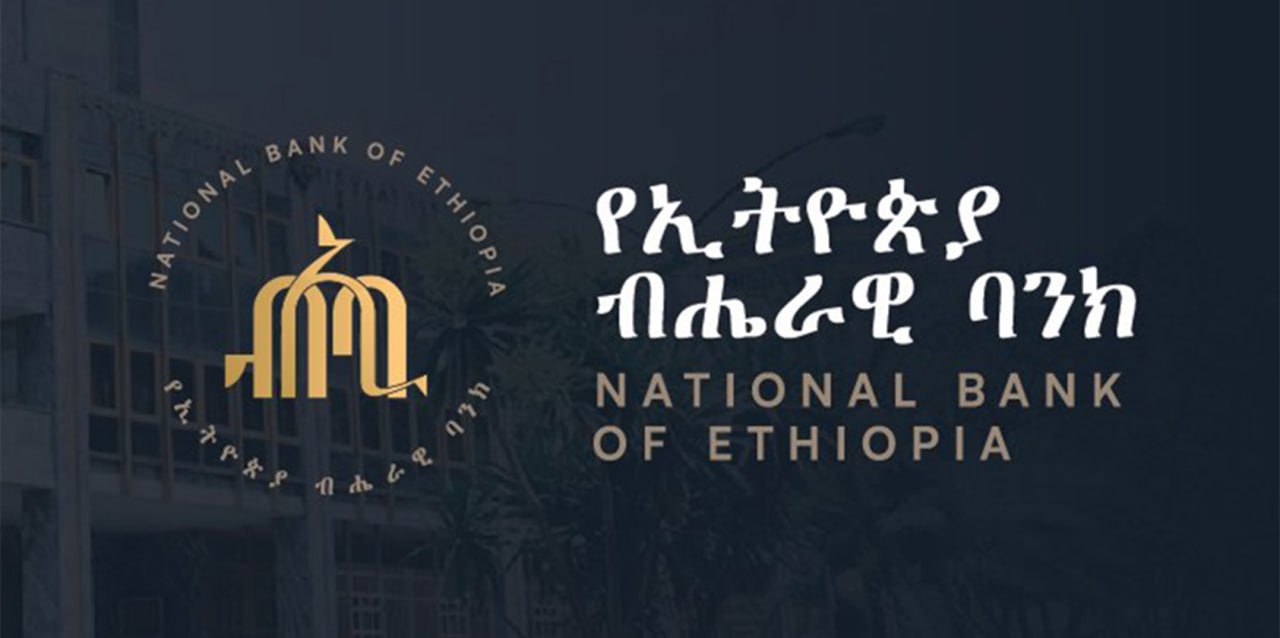

Currency Shock, Expansion Costs Push Safaricom Ethiopia Into 42 billion Birr Loss
Nearly four years after Safaricom Ethiopia rolled out its commercial operations, it has registered an operating loss of 42 billion birr in the financial year that ended March. The losses occurred despite the company's increasing revenue by 270% from the last financial year to reach 7.2 billion birr. Safaricom Ethiopia attributed part of the losses to the foreign exchange reforms Ethiopia implemented since July, alongside it still being in the investment stage. Ethiopia transitioned from a managed currency regime to a market-based policy at the end of July, resulting in the Birr sliding by 30% against the US dollar on the first day, with a progressive descent over the past eight months. The Birr's value against the US dollar has plummeted from around 57 birr in late July to around 134 since the currency float. Companies that collect funds in Birr while having to settle payments in foreign currency were severely impacted by the initial depreciation of the currency. “This loss is largely in line with our expectations at this heavy investment stage of the company’s growth, but it also includes the impact of foreign exchange reforms, that we expect to normalize going forward,” Safaricom Ethiopia said in its statement.


Boiler Room Comes to Addis Ababa: Why the World’s Most Iconic Underground Music Platform Matters for Ethiopian Sound
Addis Ababa, Ethiopia – In a groundbreaking move for Ethiopia’s music scene, Boiler Room, the globally renowned underground music platform, has announced its first-ever event in Addis Ababa. The event, scheduled for later this year, is set to showcase Ethiopia’s vibrant and diverse electronic and alternative music culture to a worldwide audience.
Why Boiler Room’s Arrival is Significant
Boiler Room has built a reputation for spotlighting underground music movements, from London’s grime scene to South Africa’s amapiano explosion. Its arrival in Addis Ababa signals a major moment for Ethiopian artists, who have long been crafting unique sounds blending traditional Ethio-jazz, folk, and electronic music.
-
Global Exposure: Boiler Room’s live streams and documentaries reach millions, offering Ethiopian musicians a chance to connect with international audiences and industry players.
-
Cultural Exchange: The event will likely feature collaborations between local artists and global acts, fostering cross-cultural creativity.
-
Validation of Ethiopia’s Scene: By choosing Addis, Boiler Room acknowledges Ethiopia’s growing influence in Africa’s alternative music landscape.

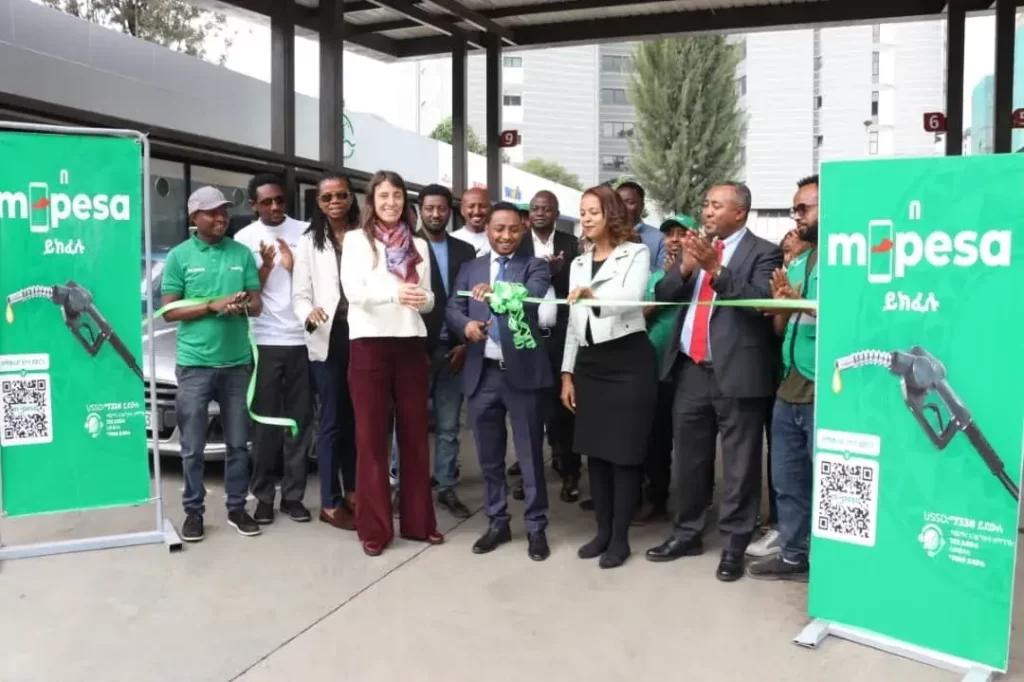
M-Pesa Eyes Fuel Payment Market Share in Ethiopia, Pumps into National Fuel Aggregator
Nearly two years after digital fuel payments became mandatory in Ethiopia, Safaricom’s M-Pesa mobile money service has been integrated into the country’s digital fuel payment system. A Total Energies fuel station on Airport Rd was the first outlet to utilize the service on Wednesday, with around 500 other stations ready to roll out in the coming months. Biniyam Alemayehu, Merchant Product Manager at MPESA, says the new functionalities will be integrated into the national fuel aggregator portal launched a few weeks back by the Ministry of Transport & Logistics, with EagleLion Systems providing the technology. Oromia International Bank, which debuted its ‘Milkii’ service last week, was the first to integrate into the national fuel aggregator portal. Until now, digital fuel payments have been dominated by Ethio telecoms’ telebirr service, while E-birr and the Commercial Bank of Ethiopia’s Nedaj app offered alternatives. Digital fuel payments have seen over 176 billion birr transactions in the past nine months. “M-Pesa just became the first mobile money operator to integrate into the portal,” Binyam told Shega. M-Pesa customers can make fuel payments by giving out their phone numbers and the amount of purchase to fuel station attendants, who fill out license plates and relevant details to enable a USSD push message to the user's phone. Customers will fill out their MPESA PINs to make the payment and receive an automatic receipt. A merchant function in the national fuel aggregator allows fuel station owners to track sales, attendance, and volume, which can be broken down further into the payment services.
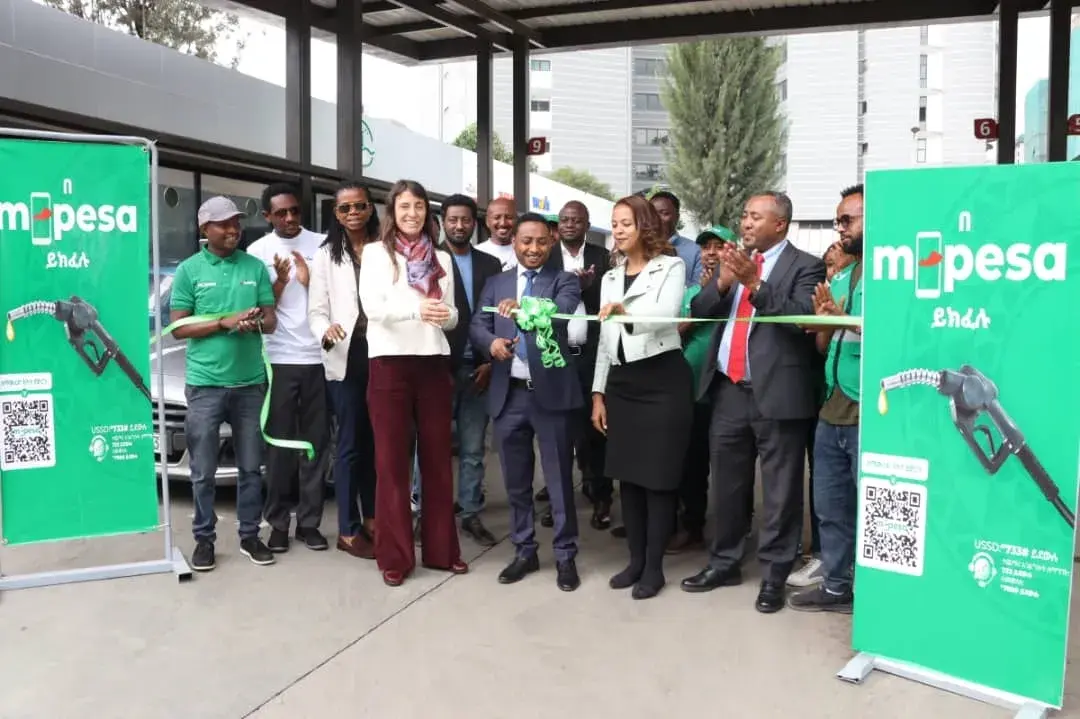

An Actress of Many Passions, Now Making History in ‘Wicked’
The last time Lencia Kebede lived in New York, in 2015, she was a 21-year-old college intern at the United Nations, taking and translating notes for the ambassador from Guatemala, who was working on an anti-poverty initiative.
What a difference a decade can make. Instead of pursuing a career as a human rights lawyer, Kebede is now a working actress in New York defying gravity eight times as week as the first Black actress to play Elphaba full time in “Wicked” on Broadway.
It’s a dream role that is also allowing her to tend to her two passions. “The place where Elphaba and I meet,” she said, “is empathy and advocacy for justice.”
After her internship, she returned to college and graduated from Occidental with a bachelor’s degree in diplomacy and world affairs. But she knew that she had to follow her musical theater ambitions instead of going to law school.
In “Wicked,” a prequel to “The Wizard of Oz,” Elphaba, born with green skin and preternatural sorcery skills, is the young adult version of the Wicked Witch of the West. But the story reveals that she is neither evil nor envious, and instead is a consummate outsider who uses her powers to protect herself and others from the authoritarian rule in Oz.
Kebede, whose parents immigrated to the United States in the early 1970s to escape a military coup in Ethiopia, said her own back story is helping her bring a fresh global and political perspective to Elphaba’s heroism.

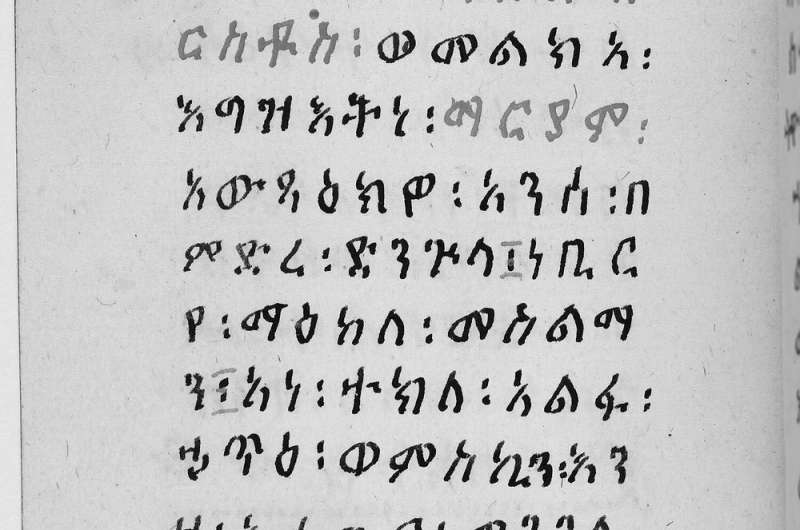
Study of a 16th-century Ethiopian monk’s account provides insights into ancient Dongola
A recent study by researchers Dr. Dorota Dzierzbicka and Dr. Daria Elagina re-examined and translated a rare first-hand account of a 16th-century Ethiopian monk visiting old Dongola, Sudan. The work is published in the journal Azania: Archaeological Research in Africa. The colophon was first transcribed and translated into Latin in the 1930s after being housed in the Vatican Library for centuries. However, it did not come to the public's attention until the 1990s when Ceccarelli-Morolli brought it to the attention of scholars of Nubian studies, showing that Dongola had already become a Muslim-dominated community by the 16th century. The true extent of the information the colophon contained, however, was far greater, but it was not realized until recently. This was likely due to the difficulty in accessing and understanding the document, explained Dr. Dzierzbicka and Dr. Elagina. "It is no surprise that the colophon's significance for economic and social history has largely gone unnoticed until now. The 1930s edition and Latin translation of the colophon were difficult to access, and the commentary was very limited. "What is more, since the text is in Ethiopic, it was easily overlooked by researchers in Nubian studies, who typically work with sources in Greek, Coptic, Old Nubian, and Arabic.


Ethiopian Software Company Bets On Rent-to-Use SaaS Model with Monthly Subscriptions Starting at 5,000 ETB
Purchasing software is often financially burdensome for businesses just starting out, and most Small and Medium Enterprises in Ethiopia. One homegrown tech company is looking to reduce the high upfront costs for software tools with a subscription-based software on a “rent-to-use” model. Yonet Systems, a three-year-old startup founded by two friends, seeks to provide software for as little as 5,000 birr a month. “We wanted to make software accessible,” says Natnael Assegid, co-founder and Chief Operating Officer of the startup. “A lot of businesses want digital tools but can’t justify the high investment costs. We’re trying to solve that”. Together with co-founder Yonathan G/Eyesus, the two Addis Ababa University graduates built Yonet on the principle of affordability. The product offerings came after surveying over 1,200 businesses. The research revealed a high demand for inventory management, customer relationship tools, and e-commerce platforms, services that many small firms couldn’t afford in a traditional format. “After two months of brainstorming, we developed a Software-as-a-Service (SaaS) model,” Natnael told Shega. Yonet’s SaaS platform aims to provide customizable apps in multiple tiers, ranging from entry-level tools for small shops to enterprise-grade AI-enhanced solutions for large organizations. These include inventory trackers, HR tools, and CRM systems. Depending on a client’s scale, Yonet looks to offer cloud-hosted apps, 24/7 support, workflow automation, and even AI-driven insights for enterprise clients.


Spicing up my life – from the Wirral to Ethiopia
When was the last time you discovered a new cuisine that completely surprised your taste buds? For me, it was my recent adventure at Muna’s, a vibrant Ethiopian restaurant in Tollcross that’s rapidly becoming the talk of Edinburgh’s food scene.
But before I tell you about my experience there, I need to share my long-standing love affair with a particular spice company. I’ve been smitten with Seasoned Pioneers, a Wirral-based spice company, ever since they sent me some recipe box spices nearly seven years ago under the guise of the Spice Pioneer. Though these particular kits are no longer available, the company itself has become a trusted brand among leading food writers and chefs – Delia Smith and Nick Nairn count themselves as fans, and I’m certainly in that club too.
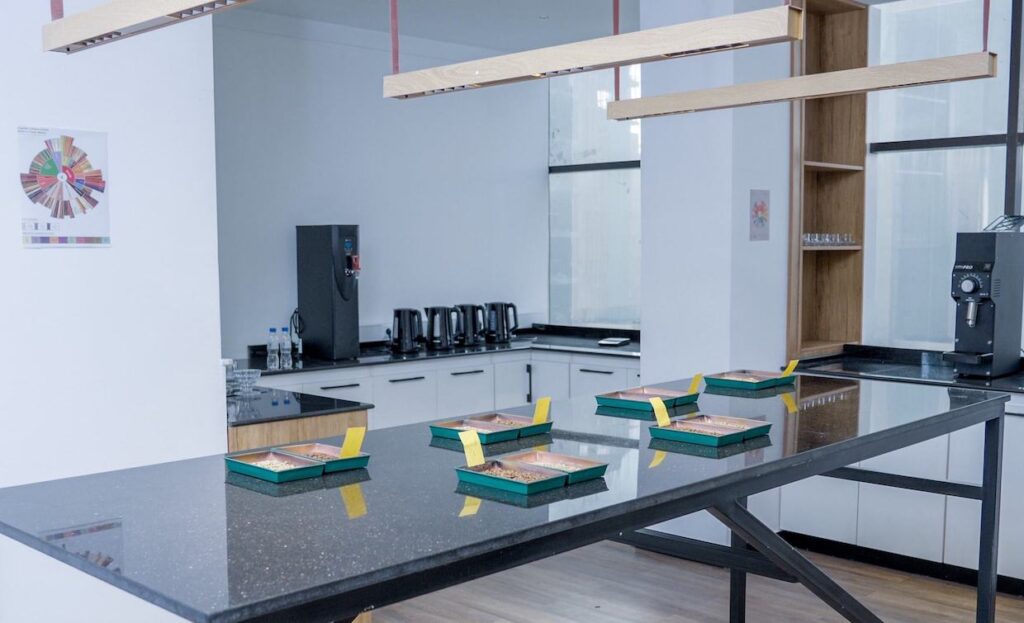
Royal Coffee Opens Office and Cupping Lab in Addis Ababa, Ethiopia
Oakland, California-based Royal Coffee recently opened a new office in Addis Ababa, Ethiopia, with a stated goal to become “the leading American importer of Ethiopian coffee.” The genetic birthplace of coffee and one of the most highly prized coffee origin countries in terms of arabica quality and diversity, Ethiopia and its coffee sector have also faced numerous challenges bringing traceable specialty coffees to the export market in recent years, including political conflict in key coffee-growing areas, domestic market mechanics and other logistical hurdles. “Ethiopia is one of the most important and complex coffee origins in the world,” Royal Coffee CEO Max Nicholas-Fulmer said in an announcement of the opening. “Establishing a permanent presence in Addis allows us to adapt in real-time to the shifting dynamics of the Ethiopian coffee market — while continuing to deliver the highest standard of quality and service our partners have come to expect.” According to Royal, the new location will include a fully equipped cupping lab and an operations team. The office will be led by Haileyesus Andualem, who has worked with Royal for more than a decade. Licensed Q Grader Segenet Gashaw will oversee the lab, and Beti Asefa will lead logistics and support quality control. Royal said the new facility is designed to broaden the company’s Ethiopian supplier network, including increased engagement with smallholder producers, resulting in more green coffee offerings and diversity for roasters. The office is also designed to improve shipment efficiency, the company said.
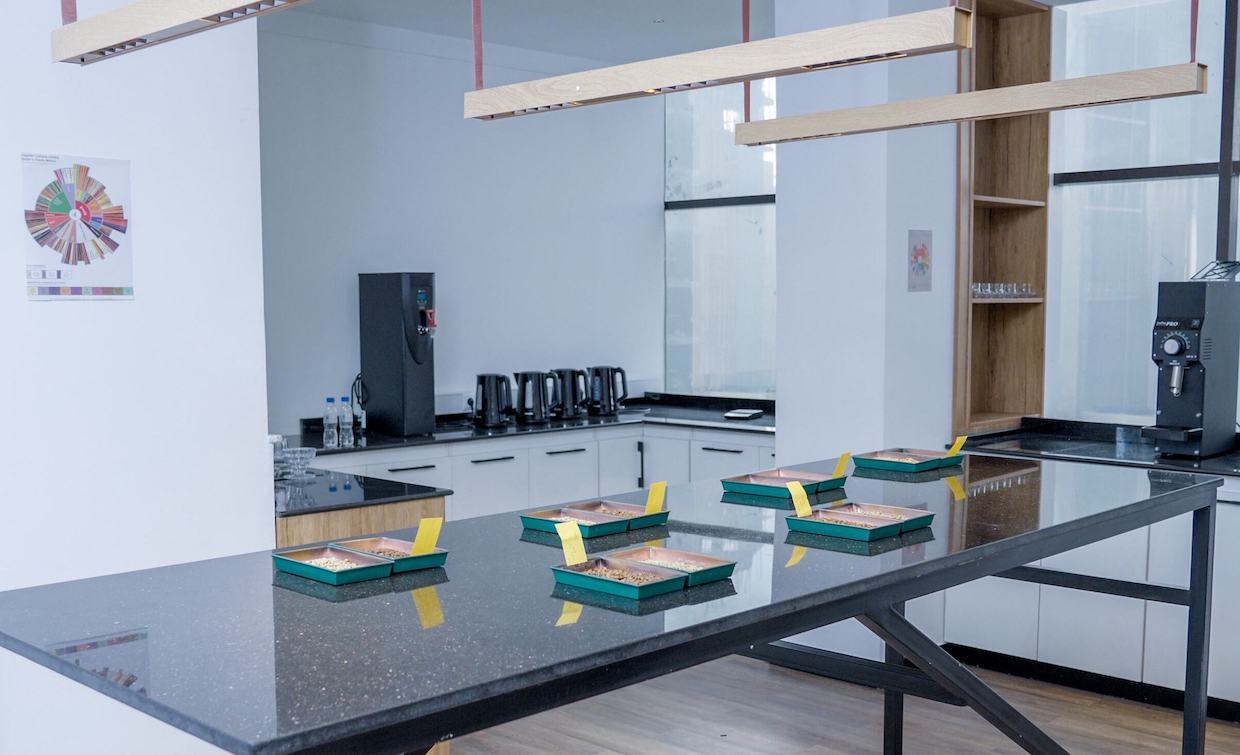

Ethiopia Set to Legalize Foreign Ownership of Real Estate, Pending Parliamentary Approval
A landmark piece of legislation that could allow foreigners to own real estate in Ethiopia has received unanimous approval from the Council of Ministers. The bill will go through the House of People’s Representatives before it is signed into law. Prime Minister Abiy Mohammed (PhD) told a group of large taxpayers in March of last year that the bill was in its final stages of drafting and would fast-track real estate development in the country. In the same month, a directive signed by the PM opened Ethiopia’s retail, wholesale, import, and export sectors to foreign investors. The move reversed decades of certain segments of the economy being reserved for locals. However, the new bill approved by the Council represents a far more significant shift in allowing foreigners to own immovable property in Ethiopia. Property ownership laws in Ethiopia have evolved through three distinct periods over the past sixty years. Nonetheless, legislation over landownership has remained relatively fixed. The 1995 constitution places the right to ownership of rural and urban land, as well as of all natural resources, exclusively in the state and in the people of Ethiopia. While individuals have the right to use it, they do not own the land. Urban land titles have been primarily transferred from the state to individuals through either leasehold certificates or allotments by the relevant authority. Real estate industry experts have often cited the lack of a unified and clear land policy alongside robust property rights as one of the forces undermining the sector’s development.


Bitcoin miner Phoenix Group adds 52 MW of mining capacity in Ethiopia
Bitcoin mining firm Phoenix Group announced the addition of 52 megawatts (MW) worth of mining capacity to its capabilities in Ethiopia. According to an April 29 announcement, with this latest addition, Phoenix’s Bitcoin mining capacity in Ethiopia reaches 132 MW. The firm’s global capacity now reportedly exceeds 500 MW. Phoenix’s co-founder and CEO, Munaf Ali, said the firm’s strategy relies on “securing prime locations with abundant, low-cost energy.” “Initiatives like our latest expansion in Ethiopia are pivotal steps, not only creating significant value today but also solidifying our position,” he said.
Building on previous agreements
The news follows Phoenix Group signing an agreement that secures the right to 80 MW of power in Ethiopia in January. An announcement published at the time noted that the new Bitcoin mining site was scheduled to go live in the second quarter of 2025. The 52 MW site will be developed in two phases, with the first one using just 20 MW to power 5,300 air-cooled mining units with an expected hashrate of 1.2 exahashes per second. In the second phase — expected to reach completion by the end of Q2 2025 — the site will use the full 52 MW, water cooling, and produce an estimated 2.4 exahashes per second of hashrate. An exahash is a unit of computational power used mainly to measure the speed of cryptocurrency mining networks, especially Bitcoin. Exahashes quantify how many trillions of calculations a mining network can perform per second.
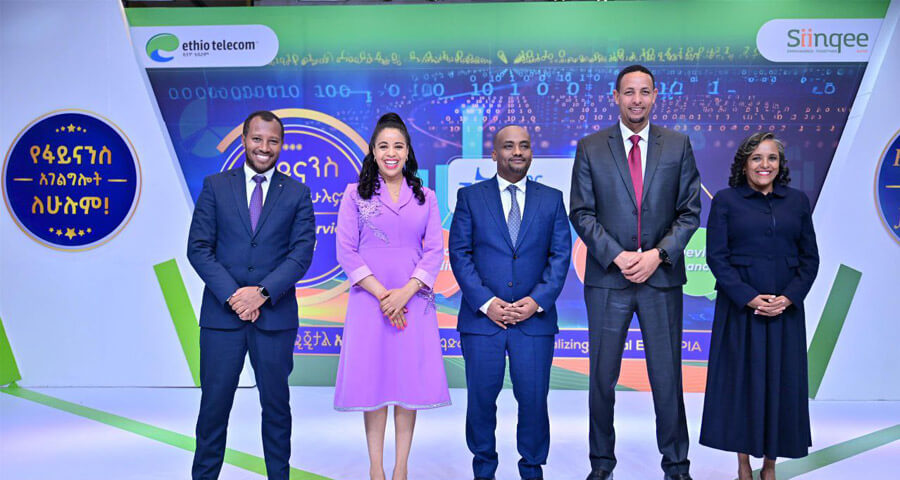
Ethio telecom and Siinqee Bank Launch New Mobile Financial Services and Device Financing
Ethio telecom, in partnership with Siinqee Bank, has launched a new range of mobile financial services and smartphone financing solutions aimed at accelerating Ethiopia’s journey toward financial and digital inclusion. Leveraging the success of telebirr, Ethio telecom’s digital payment platform with over 52.5 million subscribers, the new services will offer rural and urban citizens access to savings, microloans, salary-based loans, and device financing options directly via their mobile phones. Key offerings under the partnership include:
- Mobile Savings Accounts: Accessible via telebirr, allowing users to save remotely with both interest-free and interest-bearing options.
- Microcredit and Salary Loans: Individuals and Micro and Small Enterprises (MSEs) can access microloans of up to 30,000 Birr and salary-based loans of up to one million Birr without traditional collateral requirements.
- Device Financing: Ethio telecom and Siinqee Bank aim to distribute up to two million smartphones annually to underserved populations, bridging the digital divide and enhancing access to telecom services and digital finance.

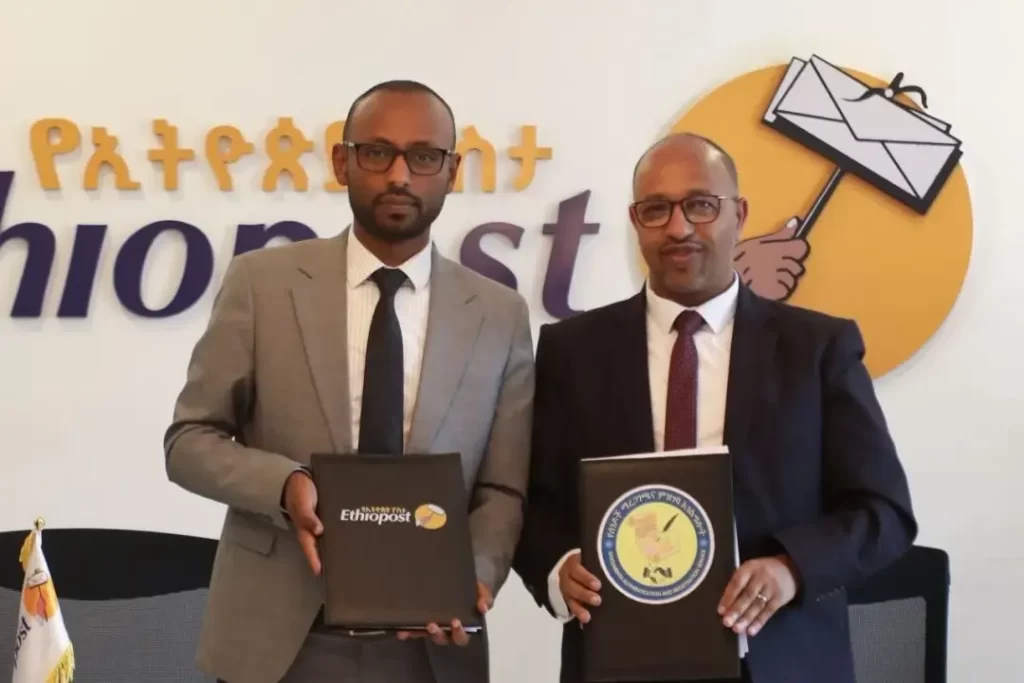
Documents Agency, Ethio-Post Partnership Shakes Up Internet Cafes, Stationery Shops Built Around Old System
A new partnership between the Documents Authentication and Registration Service (DARS) and Ethio Post is raising concerns among businesses that depend on offering drafting services to DARS customers. Under the new system, customers can either access the DARS portal directly or draft contracts and submit them through the postal service, bypassing traditional intermediaries. In Addis Ababa alone, the 18 DARS branch offices are typically surrounded by internet cafes and stationery shops that have long relied on their proximity to DARS locations to attract and serve customers. Hamid Kenneso, Director General of DARS, says customers often faced excessive costs for the simple drafting of contracts, articles of association, and documents. He pointed to the free templates available on their website, which provide the standard outline for almost all types of documents. “Customers used to pay as much as 500 birr for a few pages,” Hamid told Shega. Through the new arrangement, customers might soon be able to access DARS services through one of nearly 700 Ethio Post branch offices for standardized fees. While templates for contracts have been available for some time at the DARS website, adoption has remained minimal with many still opting to go to intermediaries. The Director believes that the intuitive design of the DARS platform allows even digitally inexperienced individuals to navigate it with ease.
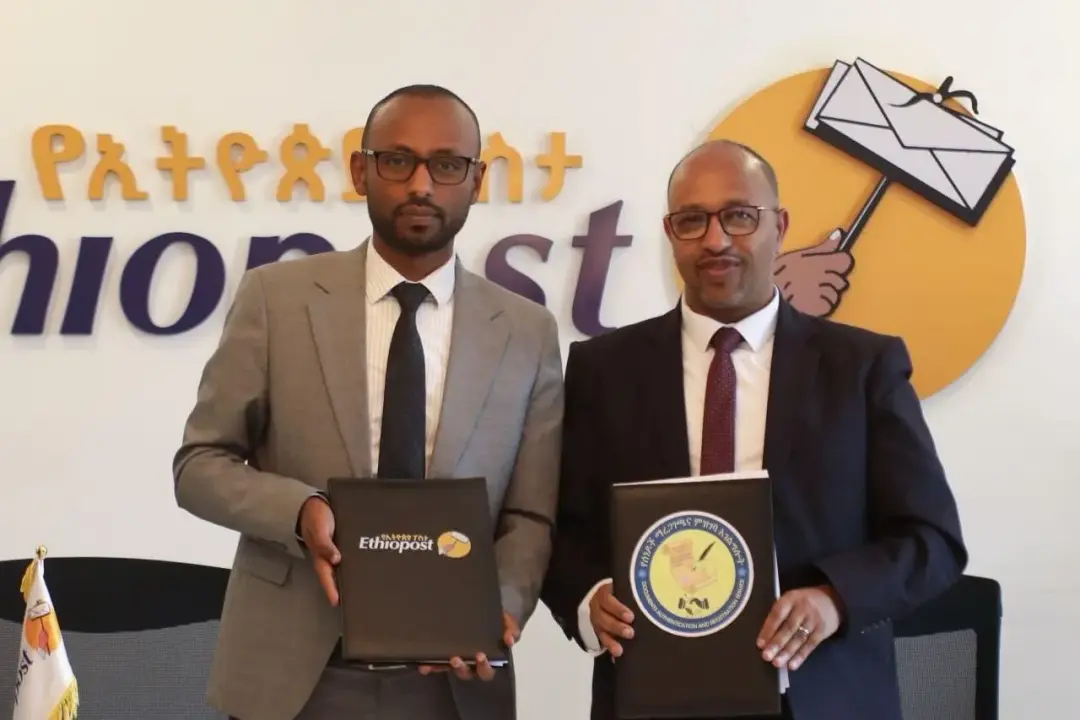

Ethio Telecom’s IPO Left Hanging with Just 10.7% of Shares Sold
Ethiopia raised 3.2 billion birr ($24 million) after selling 10% of the shares on offer in its maiden initial public offering that was open for more than four months.
The nation sold 10.7 million shares in state-run Ethio Telecom for 300 birr each, the company said in a statement Friday. Ethiopia Investment Holdings, which controls 40 state-run companies including the telecom firm, planned to sell 100 million shares in a bid to raise 30 billion birr from the sale.
“Decisions on the rest of the shares are currently ongoing,” she said. Frehiwot also noted that interest came not only from individuals but also from banks and Ethiopian-born foreign nationals. However, in response to reporters’ questions, she confirmed that only individual investors had actually participated in this round. "The reasons for limited sales were the restrictions we imposed," the CEO said. Funds collected so far will remain in a blocked account. Eligible investors were required to purchase a minimum of 33 shares (valued at 9,900 birr) and up to a maximum of 3,333 shares (999,900 birr), with each share priced at 300 birr.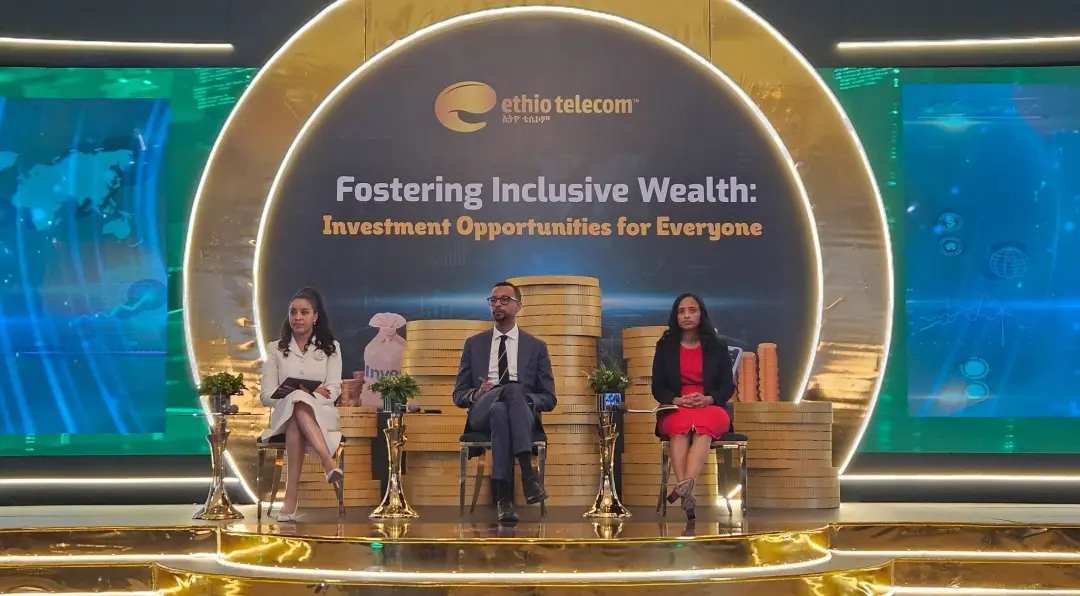
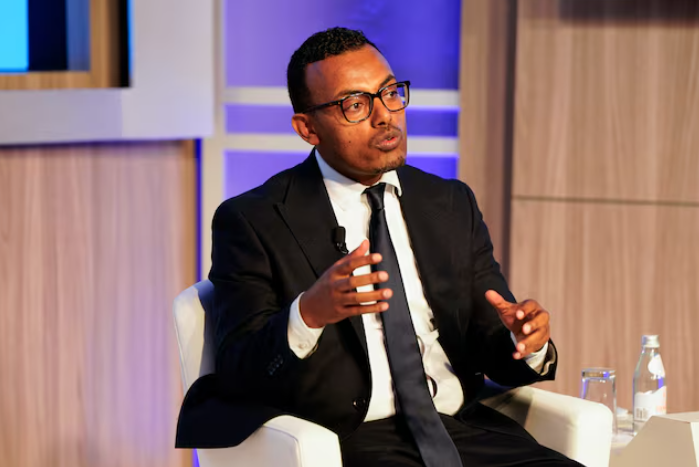
Ethiopia’s inflation rate to decline to 10% in 2025/2026 fiscal year


Boing Expand African Presence With New Office In Addis Ababa
Addis Ababa, Ethiopia – April 23, 2025 In a move underscoring its long-term commitment to the African aviation industry, Boeing has officially opened a new administrative office in Addis Ababa, Ethiopia. This marks the company’s second office on the continent and reinforces its strategic efforts to support airline partners and aviation stakeholders across Africa.
The newly inaugurated facility will serve as a regional hub to strengthen customer engagement, streamline administrative operations, and drive innovation within Africa’s rapidly growing aerospace market. The expansion also builds upon Boeing’s 75-year presence on the continent, further solidifying its role in shaping the future of aviation in Africa. The launch event drew several high-profile dignitaries and industry leaders, reflecting the strategic importance of the development. Among the attendees were:- H.E. Dr. Alemu Serne, Minister of Transport & Logistics, Federal Democratic Republic of Ethiopia
- H.E. Ervin Massinga, United States Ambassador to Ethiopia
- Getachew Mengiste, Director General, Ethiopian Civil Aviation Authority

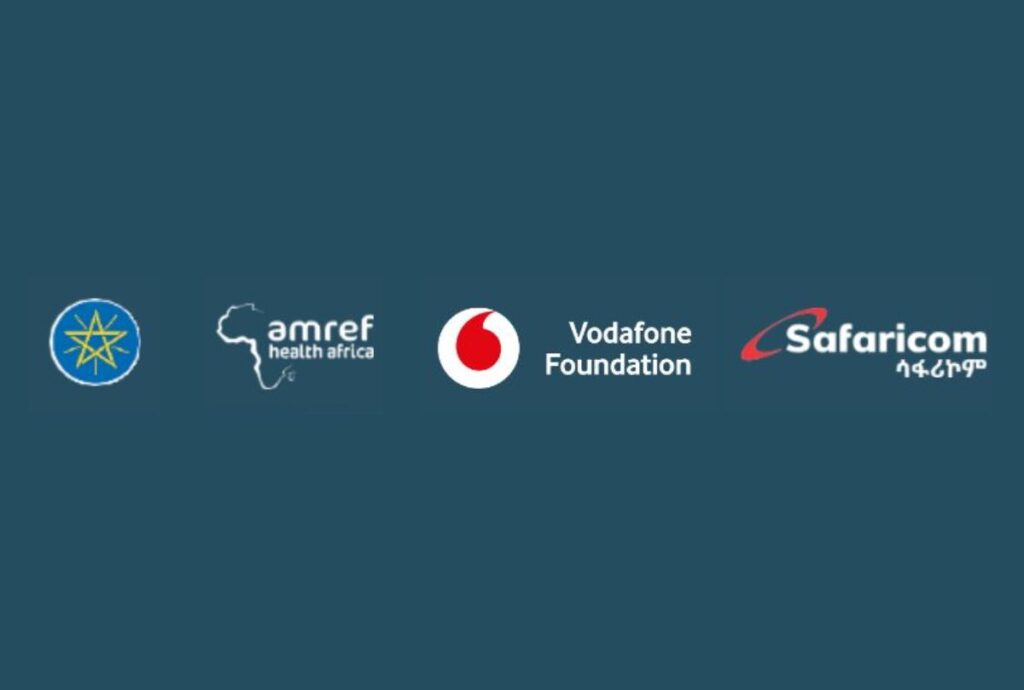
Safaricom Ethiopia Launches Talent Cloud Scholarship to Empower 1,000 Youth
In an exciting initiative to unlock new opportunities for young Ethiopians, Safaricom Ethiopia joins forces with Amref Health Africa and the Vodafone Foundation, has launched the Safaricom Talent Cloud Scholarship—a transformative initiative that aims to empower 1,000 Ethiopian youth with essential digital skills useful for the fast growing tech. The year-long scholarship programme is designed for youth aged 18 to 35 with a passion for technology and innovation. Through the Talent Cloud platform, participants will receive free and unlimited access to online training in high-demand areas such as software development, data science, artificial intelligence, and more. In addition to world-class digital training, the scholarship package includes free monthly data for a full year to ensure seamless learning access to course materials and online learning resources, alongside mentorship and coaching sessions led by experienced professionals. The initiative will also facilitate internship and job placement opportunities with leading tech employers, effectively bridging the gap between skills development and the job market.
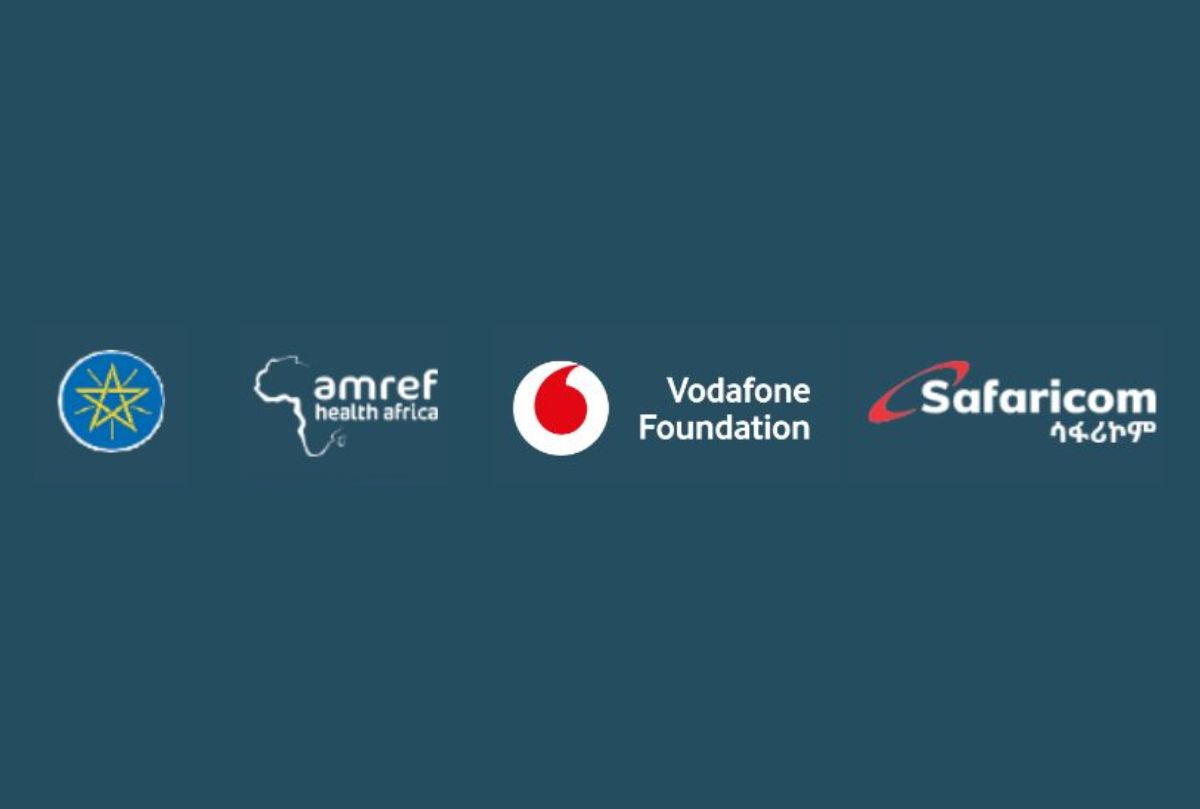

Fariyal Abdullahi Brings Zero-Waste Cooking To Le Creuset’s 100th Anniversary Dinner Series
To commemorate its 100th anniversary, culinary brand Le Creuset, in collaboration with Secret Supper, is reintroducing its acclaimed multi-city dinner series, La Carte by Le Creuset. For the centennial, the ticketed dinners will take place in New York City, Chicago and San Diego, and will be curated by some of the most esteemed chefs in the game. Ahead of the debut dinner in New York City on May 15, curated by James Beard finalist Chef Fariyal Abdullahi, who serves as the executive chef at Hav & Mar—one of the city’s sensational new seafood hotspots—Blavity sat down to chat with Abdullahi about her vision for the dinner, partnering with Le Creuset and bringing her Ethiopian heritage to her cooking.
How her upbringing in Ethiopia influenced her cooking
“Growing up in Ethiopia inherently meant I ate seasonally, when products were at their best,” she says. “I was also fortunate enough that my family was as close as one could get to their food source. Every Friday, my mother would pick us up from school, and on the way home, we stopped by a mutton farm to make our protein selection for the following week. Once selected, the mutton would get placed in our trunk and come home with us, where I would watch it get slaughtered. My mother would then expertly butcher and mise en place different cuts of the animal for different dishes, such as tougher cuts for braises and fattier cuts for quick stirs, and prep it for the week. This instilled in me, as young as age three, the gratitude that a life was being lost in order to nourish us.”
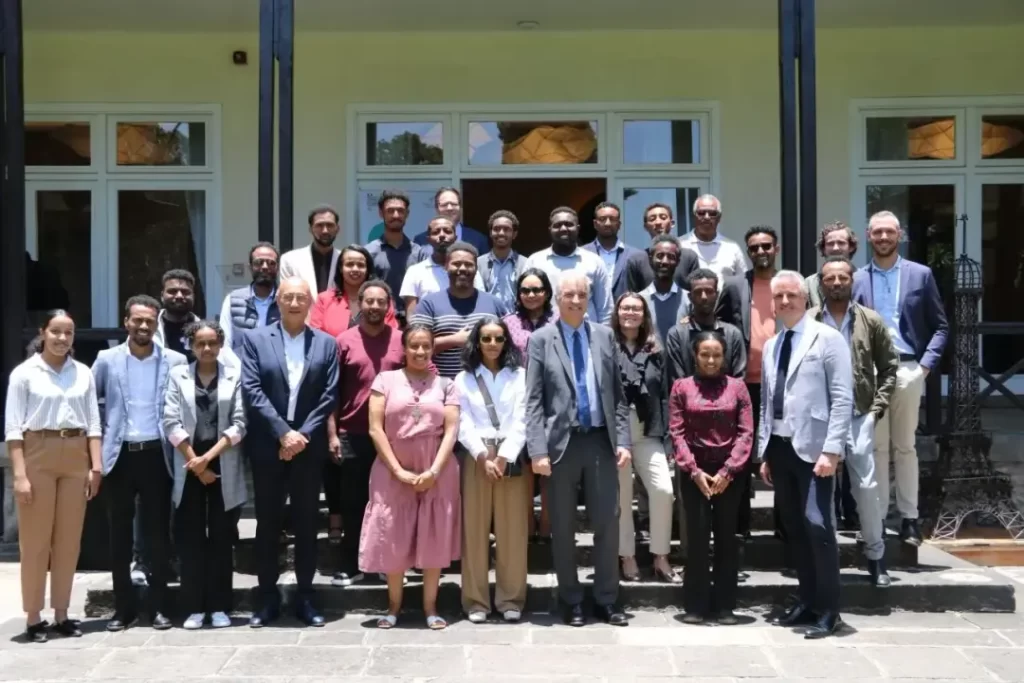
Animation to AI: Ethiopia’s Habesha Creative Lab Launches with Diverse First Cohort of Fourteen Ventures
Fourteen Ethiopian creative ventures have been selected for the first cohort of the Habesha Creative Lab, a newly launched incubation and acceleration program designed to support the country’s growing digital creative industries. Chosen from a competitive pool of over 100 applicants, the selected ventures span sectors such as animation, video games, virtual reality (VR), augmented reality (AR), and artificial intelligence (AI). Launched under the Ethio-French Touch initiative, the program is a collaborative effort between the French Embassy in Ethiopia and local partners, including Alliance Ethio-Française, iceaddis, Diversion, 3DNetInfo, and Rubika. The program offers two tracks lasting 3-12 months, tailored to different stages of development. The Incubation Track, designed for early-stage projects, includes 20 weeks of foundational training in soft and hard skills, three weeks of intensive technical workshops, continuous mentorship, connections with international experts, and grants ranging from €3,000 to €5,000. Incubation applicants must commit 10-20 hours per week during the first 16 weeks. The Acceleration Track, designed for more advanced ventures, emphasizes business growth and investment readiness, offering participants three weeks of intensive technical training, nine months of ongoing mentorship, access to global training opportunities, and grant funding ranging from €5,000 to €10,000.
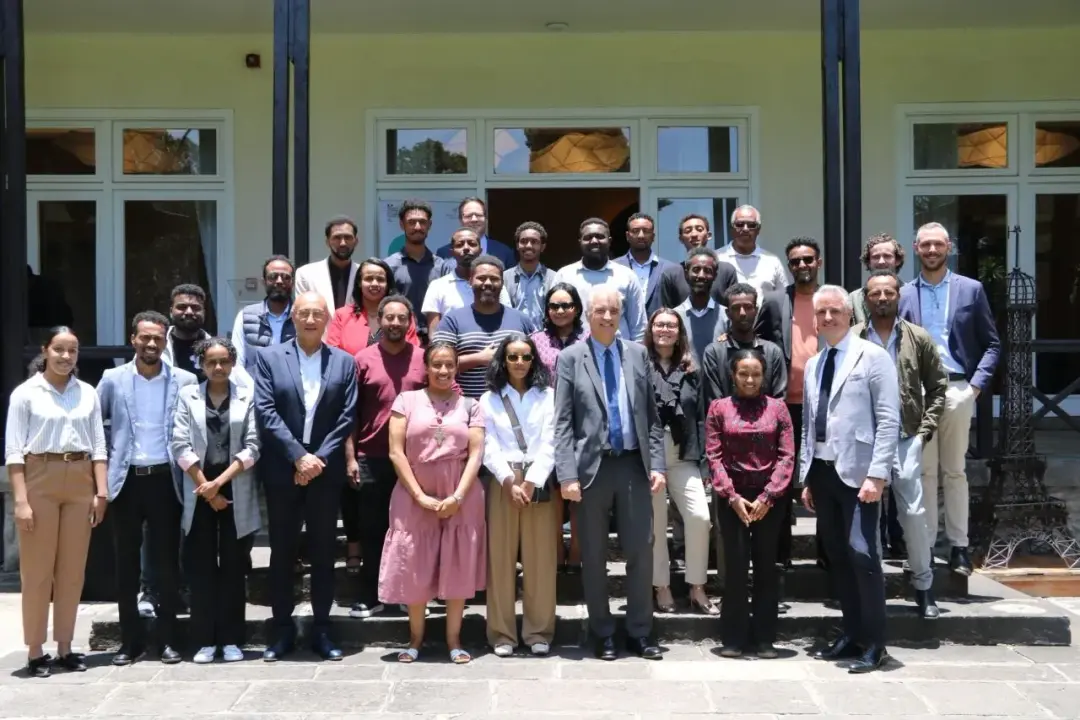
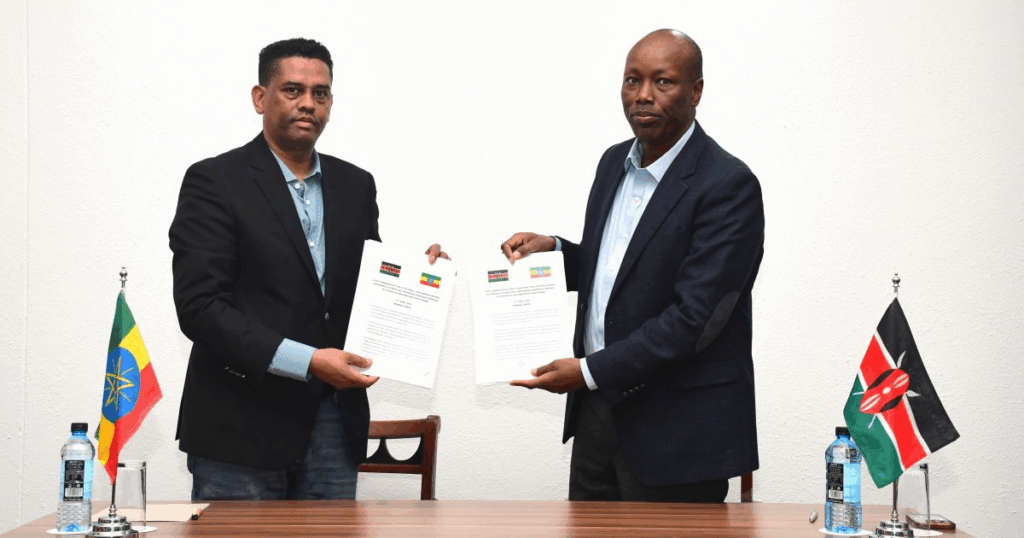
Kenya, Ethiopia Sign Pact to Boost Trade, Collaborate on AfCFTA
Kenya and Ethiopia have signed a landmark agreement to ease cross-border trade, setting a $1,000 threshold for goods moving through the Moyale border under the African Continental Free Trade Area (AfCFTA) framework.
- The Memorandum of Understanding (MoU), concluded after two years of negotiations, aims to simplify customs procedures and foster economic integration between the two neighbors.
- It was finalized in Mombasa and is poised to invigorate commercial activity in one of East Africa’s key frontier zones.
- Kenya’s Cabinet Secretary for Investments, Trade, and Industry, Lee Kinyanjui, called the MoU a stepping stone toward broader regional trade liberalization.


From medicine to entrepreneurship, redefining fashion and gaming
In this exclusive interview, Kanessa Muluneh, a dynamic entrepreneur with Ethiopian roots, shares her inspiring journey from studying medicine in the Netherlands to building thriving businesses across continents. As the founder of MULU Africa, a fashion brand with a presence in seven countries, Kanessa is also venturing into the gaming industry with a groundbreaking video game based on the history of Adwa. Her entrepreneurial spirit and innovative approach have made her a trailblazer in industries as diverse as fashion, technology, and healthcare. Kanessa opens up about her challenges, triumphs, and vision for the future, offering valuable insights into entrepreneurship, self-expression, and navigating the complexities of global business. With plans to establish a factory in Ethiopia to create opportunities and expand her ventures further, Kanessa’s story is one of resilience, creativity, and determination. Join us as we delve into her journey, exploring how she overcame obstacles, embraced bold ideas, and continues to inspire aspiring entrepreneurs across Africa and beyond. Capital: What challenges did you face when starting your first business, and how did you overcome them? Kanessa Muluneh: There are many challenges. And the funny thing is every challenge, you process it. And once it’s processed, you forget about it and don’t see it as a challenge anymore. It becomes a lesson, basically, because you know what to do next time. So there are a lot of challenges. And the one that I can remember the most is when you step into the big people’s world, because I was still a kid, even though I thought I knew nothing, early 20s. I was just getting to know the world. So, dealing with the business world on its own was a lot for me. I was growing up, I was becoming an adult, I was living by myself, I had to take care of life, and myself and my everything, my studies, everything was going on, and then you start a business, and you had to deal with a new community here. dealing with the medical industry is, for me, how I saw it, is dealing with people in suits, men in suits, white men in suits, We European looking people in suits were very scary to me because that’s how the narrative was created at home. And I think a lot of people deal with this, but I was very scared to open my mouth and stand up for myself against these people.

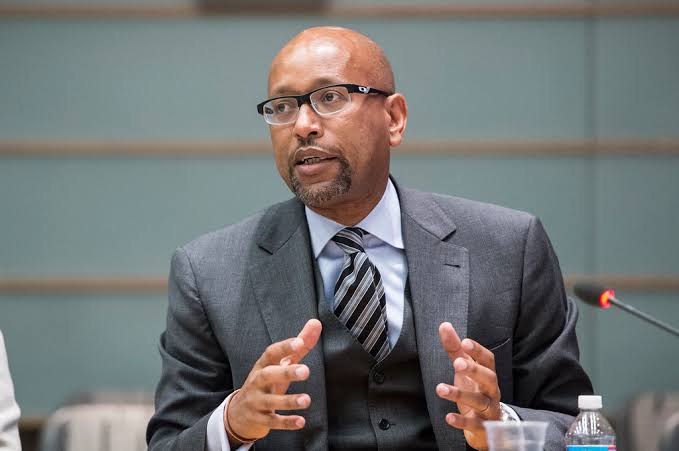
Ethiopia Tafara Appointed as World Bank’s IFC Vice President for Africa
April 1, 2025 — Ethiopia Tafara has officially assumed his new position as Vice President for Africa at the International Finance Corporation (IFC), part of the World Bank Group. In his new role, Tafara will oversee IFC’s investment and advisory portfolio across Africa, with a focus on accelerating private sector participation in development and fostering inclusive economic growth across the continent.
A native of Addis Ababa, Tafara brings over three decades of experience in international finance, legal governance, and risk management. Prior to this appointment, he served as Vice President and Chief Finance, Risk, Legal, and Sustainability Officer at the Multilateral Investment Guarantee Agency (MIGA), where he led several departments responsible for financial oversight, legal strategy, environmental standards, and risk assessment. During his time at MIGA, he was instrumental in introducing innovative financial tools and strengthening global risk coverage frameworks.
Tafara previously held the role of Vice President and General Counsel at IFC, where he spearheaded reforms in corporate governance and helped shape the institution’s environmental, social, and governance (ESG) agenda. Earlier in his career, he served at the U.S. Securities and Exchange Commission, where he directed the Office of International Affairs and played a key role in shaping global financial regulator cooperation.


Germany’s Terahash to Raise $5M for 10MW Bitcoin Mining Facility in Ethiopia
Terahash , a German Bitcoin mining firm spun off from the family-owned Klager Group, is preparing to launch operations at its first facility in Ethiopia. The company is raising $5 million to build a 10-megawatt (MW) site near Addis Ababa, set to begin operations within two to three months. The mining facility, being developed with two local partners, marks Terahsh’s entry into Ethiopia’s budding bitcoin mining industry. If all things proceed as planned, the Company plans to scale operations to 60 MW, which could require additional investment between $ 40 and 60 million. “This initial 10 MW facility represents a cautious but significant entry point. Hardware is en route, and operations are expected next quarter, pending smooth logistics.” Says Fabian Weber, Terahash's Head of Hashrate, a role that involves leading initiatives in Bitcoin mining and energy infrastructure. “Success could justify expansion, necessitating substantial further investment,” he told Shega. Founded as an offshoot of the Klager Group, a 75-year-old, family-owned German manufacturing company, Terahash’s approach to Bitcoin mining combines the use of renewable energy with structured investment models. A direction influenced by Klager’s longstanding focus on industrial efficiency and energy management. The pivot to Bitcoin mining was prompted in part by Europe’s energy crisis that followed the Russo-Ukraine war. When electricity prices in Germany rose by as much as 400%, the Klager Group adopted renewable energy and alternative energy uses, including the integration of Bitcoin miners into its operations.

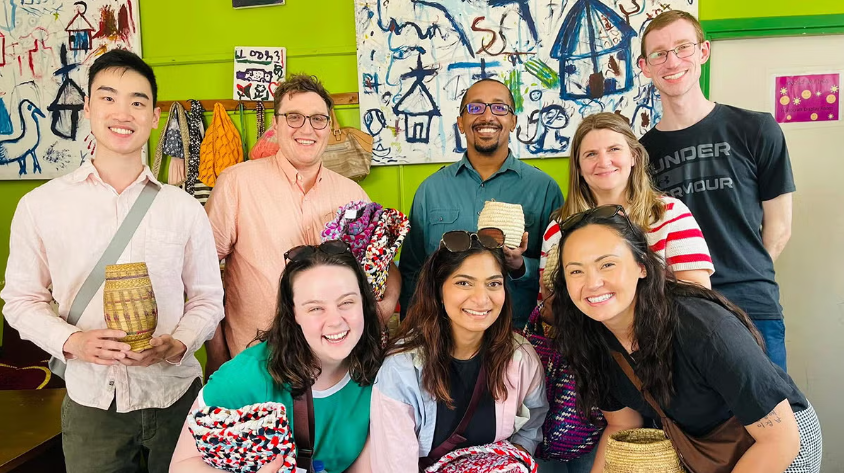
Global Pharmacy Scholars serve in 7 world regions
From Addis Ababa to Melbourne, UNC Eshelman School of Pharmacy students in the Global Rotation program are charting new pathways in global health. The program, open to pharmacy students entering their fourth year, aims to teach scholars about global health issues and expose them to diverse cultures and health care systems. Students apply and can choose from seven different regional rotations: Australia, Canada, Ethiopia, Japan, Malawi, Moldova and the United Kingdom. In March, two students participated in a 15-day project-based rotation in Addis Ababa, Ethiopia. The rotation focused on helping Black Lion Hospital implement new clinical services and mirroring techniques used in the United States. “This gave me an opportunity to see pharmacy in a place I probably wouldn’t travel to on my own,” said Hannah Lee, a fourth year Doctor of Pharmacy student who took part in the program. Scholars separated into two project groups. One project focused on antibiotic prescribing practices, researching how to implement more specific dosing for different patients based on body weight and kidney function. Shaleen Ghosh, a fourth year Doctor of Pharmacy student, worked on that project. “To see what medicine looks like in another country is eye-opening, especially where resources are limited or the things we take for granted aren’t available,” said Ghosh. “This taught me to think about what is most essential and how we can focus on what we truly need.”

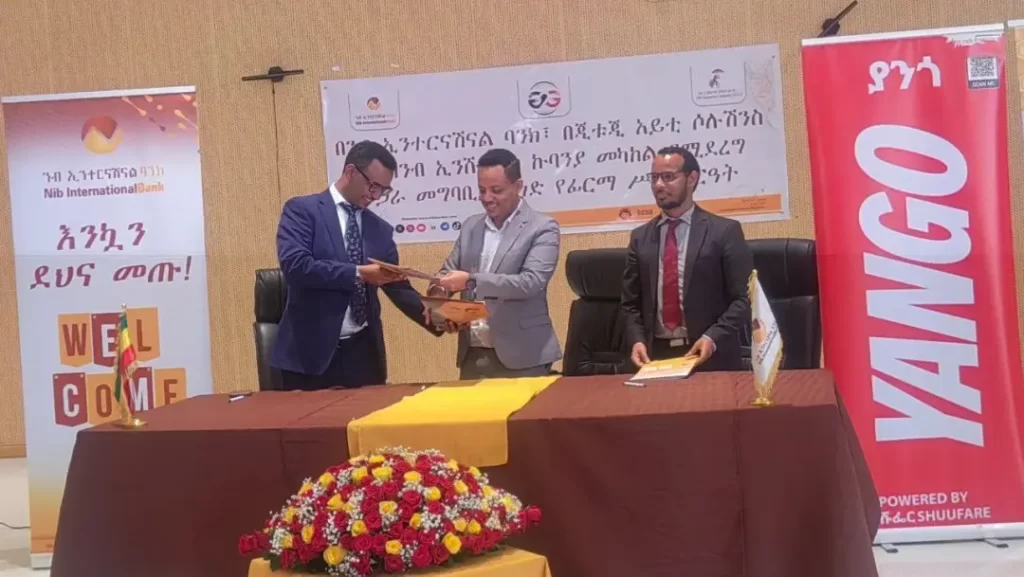
Trip Bonuses Turned Safety Net: Nib and Yango Rethink Insurance for Ride-Hailing
A tripartite agreement between Nib Bank, its independent offshoot Nib Insurance, and ride-hailing company Yango allows drivers to access insurance services with premiums settled through weekly trip bonuses. Drivers can make monthly premium payments themselves or have Yango settle the amount with the insurer based on their earned trip bonuses. Announced at Nib’s headquarters on Wednesday, the partnership also lays the groundwork for potential credit services set to be provided by the Bank for drivers. Tewodros Mehari, Deputy Manager at G2g IT solutions (Yango’s partner in Ethiopia), says they want to minimize the trouble their drivers face when dealing with the fallout after an accident occurs. He indicated plans to introduce a courtesy car arrangement allowing drivers to access a vehicle if their own becomes immobilized in an accident. “Car repair could take several months,” Tewodros told Shega.” We don’t want our drivers to lose their livelihood in the meantime.” Courtesy car provisions are part of the insurance package offered by some companies primarily based in Europe. Tewodros also relayed Yango’s intentions to provide drivers with financial assistance equal to what they would earn had their car not been damaged.
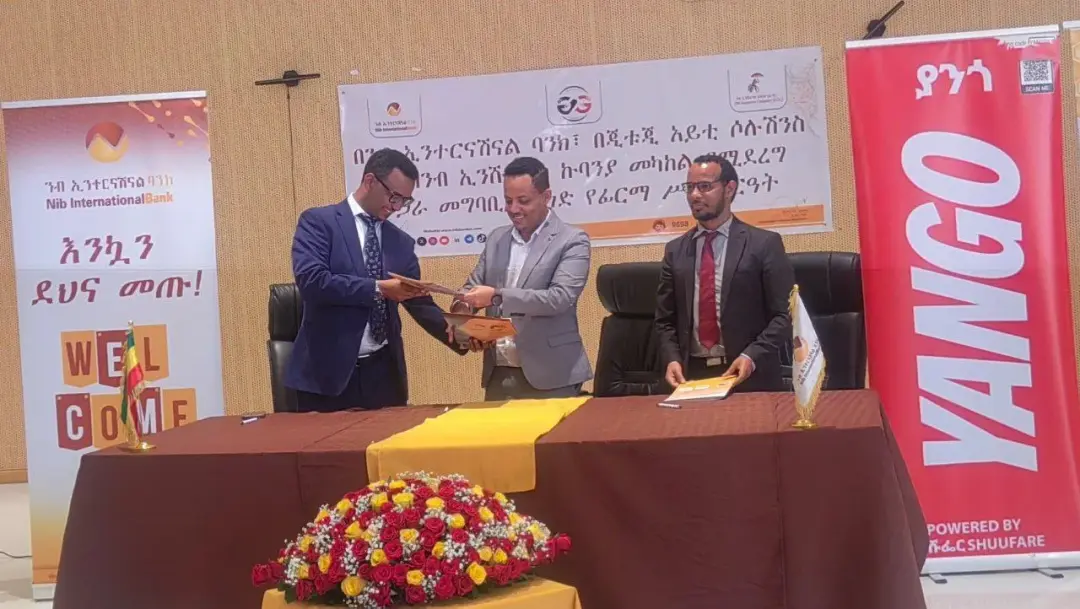

Ethiopian Airlines partners with Bucher Aircraft Interior Solutions
Ethiopian Airlines announced a partnership with Bucher, a leader in lightweight aircraft interior solutions, during Aircraft Interiors Expo (AIX) in Hamburg. This agreement marks an important step in equipping Ethiopian Airlines’ new Boeing 777-9 fleet with cutting-edge Galleys. This partnership with Bucher underscores Ethiopian Airlines’ strategic importance not only as an aviation leader in Africa but also as a pivotal contributor to the country’s economic growth and connectivity. Known for its rapid expansion and commitment to service excellence, Ethiopian Airlines continues to set benchmarks in passenger travel across the continent. “Collaborating with Bucher to outfit our new 777-9 fleet demonstrates our commitment to passenger comfort and innovation,” stated Mr. Mesfin Tasew, Ethiopian Airlines Group CEO. “As a strategically vital airline for our country, we continually seek partners who align with our vision for expansive growth and enhanced service quality.” Bucher will supply Ethiopian Airlines with advanced Galleys that optimize space and functionality, thereby enhancing the in-flight experience for passengers and crew efficiency. This collaboration empowers Ethiopian Airlines to maintain its leadership role in African aviation through ongoing investment in technology and passenger amenities. “We are delighted to partner with Ethiopian Airlines in this significant project,” said Beat Burlet, CEO of Bucher. “Our team is committed to delivering bespoke Galleys that meet the expansive needs of this strategically important airline.”


An Ethiopian church in Washington preserves an ancient language and Orthodox tradition
WASHINGTON (AP) — In the U.S. capital, hundreds of Ethiopians dressed in traditional white shawls chant in the ancient liturgical language of one of the oldest branches of Christianity. During hourslong worship services, the Ge’ez language reverberates throughout DSK Mariam Church. Congregants prostrate themselves in reverence to God and bow when a priest walks among them swinging a censer burning incense. Formally known as Re’ese Adbarat Debre Selam Kidist Mariam Church, it was founded in Washington in 1987. It now has more than 1,500 registered members, and church leaders say more than 4,000 people attend services each week. DSK Mariam is part of the Ethiopian Orthodox Tewahedo Churches — one of the oldest Christian faiths in Africa. There’s keen interest in preserving Ge’ez, and other traditions of the faith, for future generations in the bustling District of Columbia region — home to the largest Ethiopian diaspora community in the United States. “Our tradition is full of values that are relevant for today, for the modern age. So, these kids, if they learn the tradition, the language, and also the faith — they can balance,” Abraham Habte-Sellassie, a “kesis” or priest, said ahead of a recent Lent service that started at midnight and ended at midday. “Life here is very hectic, and it’s geared toward material profit.” Ethiopian diaspora in the US has grown over 50 years Many Ethiopian families have come to the U.S. over the past 50 years, having left their home country after the 1974 overthrow of the late Ethiopian Emperor Haile Selassie, who is worshipped by most members of the Rastafari faith.

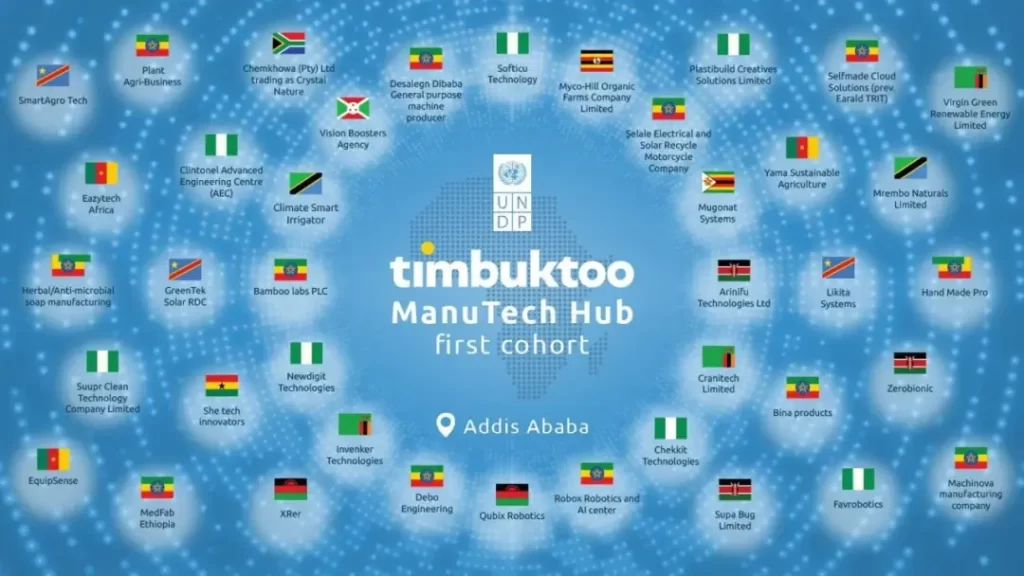
12 Ethiopian Startups Crack Timbuktoo’s Top 40 as $1B Innovation Drive Unlocks ManuTech Cohort
A dozen Ethiopian startups cracked the top 40 in the first manufacturing technologies (Manutech) cohort of the $1 billion timbuktoo initiative. Out of 640 applications from 52 countries, 40 startups from 13 African nations were selected to participate in the program's Manutech-themed iteration last week. The Addis-Ababa hub launched in November is one of ten sector-specific hubs under the ambitious Pan-African drive backed by the United Nations Development Program and the timbuktoo Africa Innovation Foundation. MedFab Ethiopia, Herbal/Anti-microbial spa manufacturing, Plant AgriBusiness, Debo Engineering, Robox Robotic & AI Center, Bina Products, Machinoval Manufacturing company, Handmade pro, Selfmade cloud Solutions, Selale Electrical and Solar Recycle Motorcycle company, Desalegn Dibaba General Purpose Machine producer, and Bambo Labs Plc are the Ethiopian startups which got accepted to the manufacturing Acceleration Program. The remaining startups hail from 12 other African countries. The selected startups will receive a three-month hybrid acceleration experience, including mentorship, a chance at equity-free funding of up to $20,000, and access to networks within the African Continental Free Trade Area (AfCFTA) and the broader UN system. The ManuTech Hub is part of the broader timbuktoo initiative, which seeks to establish thematic innovation hubs across Africa. Other hubs include the FinTech Hub in Lagos, Nigeria (focusing on financial technology solutions); the HealthTech Hub in Kigali, Rwanda; the GreenTech Hub in Nairobi, Kenya; the E-commerce Hub in Cairo, Egypt; and the AgriTech Hub in Accra, Ghana, among others. The ManuTech Hub call for applications was announced during a public consultation on Ethiopia’s startup proclamation a few months back. Addis Ababa’s selection as a Manutech Hub is closely aligned with the country’s ambition to become a light manufacturing hub in Africa.
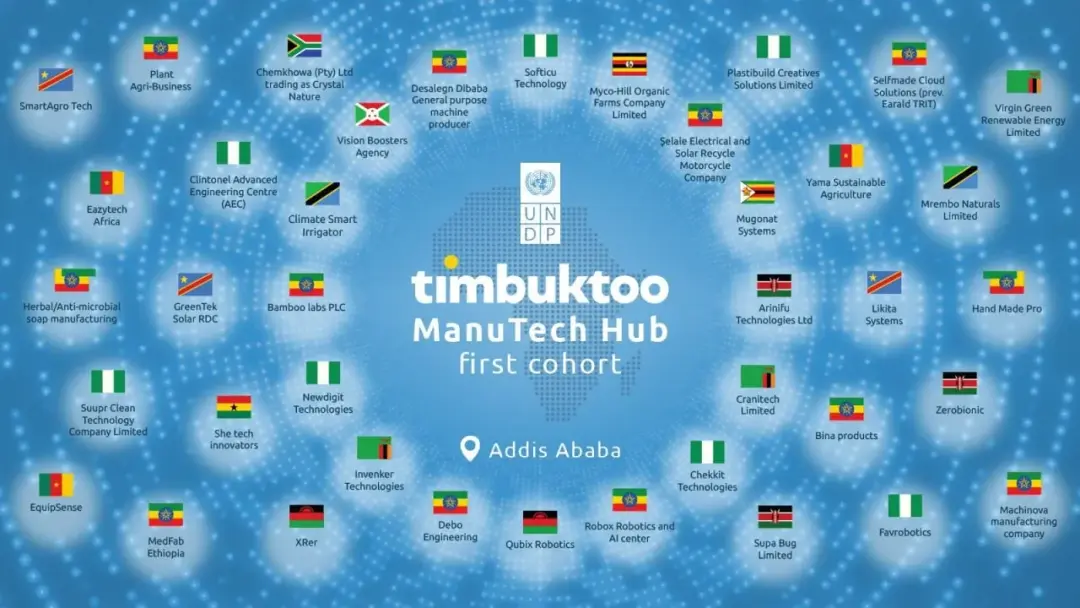

Tech Non-Profit A2SV Leaving Addis for Kigali Amid Fallout with Abrehot Library
Africa to Silicon Valley (A2SV), a nonprofit tech academy that upskills university students and connects them with global opportunities at top tech companies, plans to close its offices in the Ethiopian capital and relocate to Kigali, Rwanda. The decision to terminate the six-year-long stay follows a protracted financial dispute with Abrehot Library over unpaid rent and a reported lack of “support”, according to founder Emre Varol. The nonprofit, which focuses on nurturing tech talent, expanded to Ghana after receiving funding from Google in 2023. Established in 2019 by a former Google engineer, A2SV has been providing a mix of software engineering courses, boot camps, hackathons, and project incubations for African youth aspiring to have careers in tech. In partnership with institutions such as Addis Ababa University (AAU), the Addis Ababa Science and Technology Institute, and Adama Science and Technology University, A2SV has trained over 600 students, with approximately 60 securing positions at major tech companies, including Google, Bloomberg, Databricks, LinkedIn, and Amazon. Initially launched at AAU’s compounds, A2SV relocated its training center to Abrehot Library in September 2022. Located in the Arat Kilo (4 Kilo) area, the library, one of the largest public libraries in Africa, was officially launched on January 2022, and can accommodate up to 2,000 users at a time. The expansive 19,000 sqm facility, built for close to a billion birr and inaugurated by Prime Minister Abiy Ahmed (PhD), was designed to be a state-of-the-art center for academic pursuits. A2SV moved into the four-story library administered by the Addis Ababa City Mayor’s office and continued to train students, reportedly paying $5,000 a month in rent.


Ethio Telecom Launches The Second Ultra-Fast EV Charging Hub In Addis Ababa
A couple of months ago, we reported that Ethio Telecom launched its newly built ultra-fast EV charging station on both sides of the Bole to Megenagna road in Addis Ababa. Ethio Telecom is a telecoms provider in Ethiopia with over 81 million subscribers, including over 78 million mobile voice subscribers and over 44 million data and internet users. Ethio Telecom has a vision to be the leading digital solutions provider, with its slogan being “Bringing New Possibilities.” The company says introducing the charging network “aligns” with this vision.
- That first charging hub has Eight Ultra-Fast Chargers (up to 600 kW each) — the chargers are capable of fully charging compatible vehicles within 15 minutes, enabling rapid recharges for drivers on the go.
- Twelve Super-Fast Chargers (up to 500 kW each) — delivering high-speed charging with optimal accessibility, and ensuring drivers get back on the road quickly.
- Smart Pole Chargers — integrated into smart city infrastructure, these Level II chargers provide emergency charging options for drivers in need and are located along various routes.


Ethiopian Gynecologist’s New Tele-Med Platform Might Treat Both Patients, Underpaid Doctors
Amid mounting calls for increased doctors’ salaries, a new telemedicine platform launched last week, allowing physicians to keep 80% of fees earned from video consultations. Tenadoc kicked off its operations featuring 50 medical doctors who sub-specialize in over 12 areas of expertise. The platform blends video medical consultations, digital prescriptions, medical record and hospital appointment services through a mobile application. Gynecologist Emebet Eshetu (M.D) and her telecom engineer husband Mulugeta Eshetu began working on the platform looking to improve healthcare access in Ethiopia. The co-founders decided to launch a telemedicine platform after noticing its potential a few years back. In 2021, after finishing her OB-GYN residency, Emebet began offering free medical consultations through phone calls and Telegram chats. Around 6,000 people used the services within a year. Leveraging this experience, a year of development by an India-based company, customization, and testing followed before Tenadoc finally became Play Store-ready. The couple opted for local talent to finalize the payment integration functionalities.

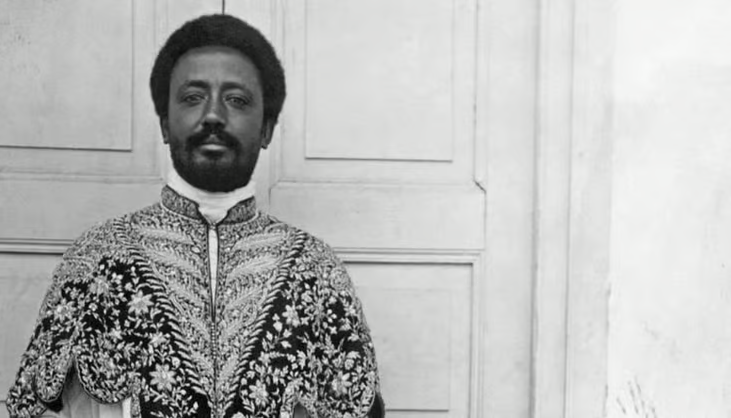
Ethiopia seeks return of war hero Ras Desta’s looted artefacts from Italy
Resistance hero Ras Desta Damtew was executed by Italian fascists in 1937, after which some of his belongings are believed to have been stolen. Now his grandchildren and the Ethiopian government are fighting to bring them home.
‘Offensive’ Italian auction
“He was a hero, and he should have been treated as a prisoner of war,” Yeshimebet Kassa, one of Ras Desta’s granddaughters, tells The Africa Report. “This man was murdered. My mother was in exile when he was killed, I think she was about eight. She never saw her father again after the war.”
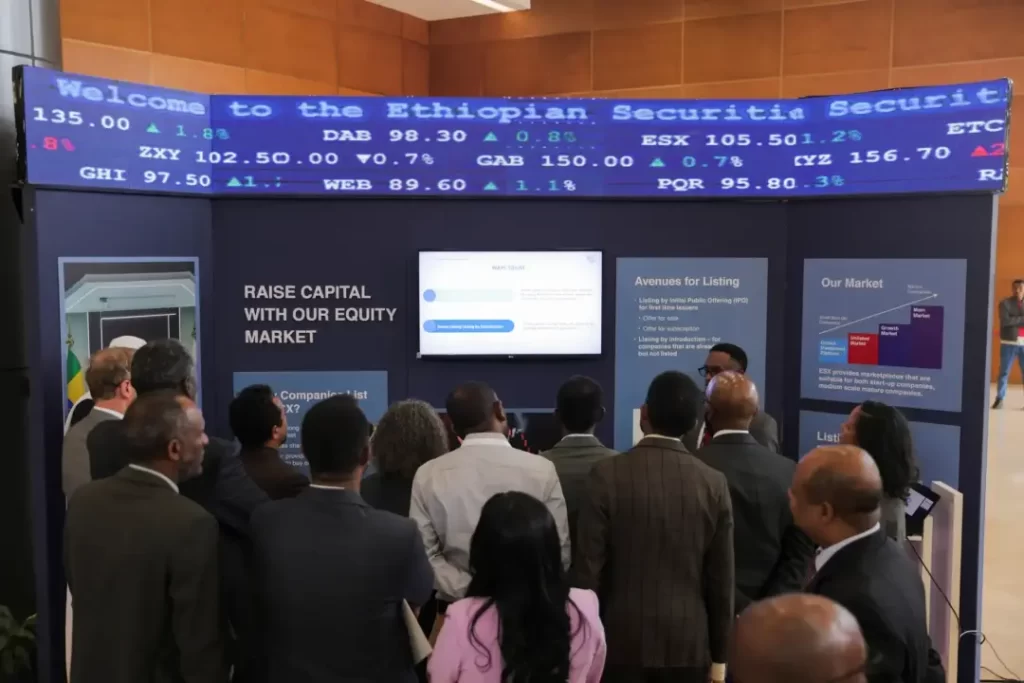
Ethiopia Eyes 50 Listings in Maiden Exchange Across Five Years
A five-year collaboration between FSD Africa, FSD Ethiopia, and the Ethiopian Securities Exchange outlines plans for 50 listings in the country's nascent capital market. The Exchange aims to list the companies across both its main and growth market over a five-year period. According to a joint statement issued today, the parties agreed to provide technical expertise, financial resources, supporting issuers, investor education, product development and enhancing institutional excellence. Notably, ESX is also set to work on a platform for the listing and trading of government and corporate bonds, including Sharia-compliant products such as Sukuks. These financial instruments, often referred to as Sharia-compliant bonds, are structured to comply with Islamic law, offering an alternative to conventional bonds by avoiding interest payments and instead sharing profits derived from tangible assets. The three parties will also collaborate through the ESX Market Development Committee to align efforts and drive sustainable market growth. “This collaboration is instrumental in expanding opportunities for issuers, enhancing investor education, and driving product development and innovation.” Said Tilahun Esmael Kassahun (PhD), CEO of ESX. Mark Napier, CEO of FSD Africa, highlighted that the partnership benefits extend beyond market development.
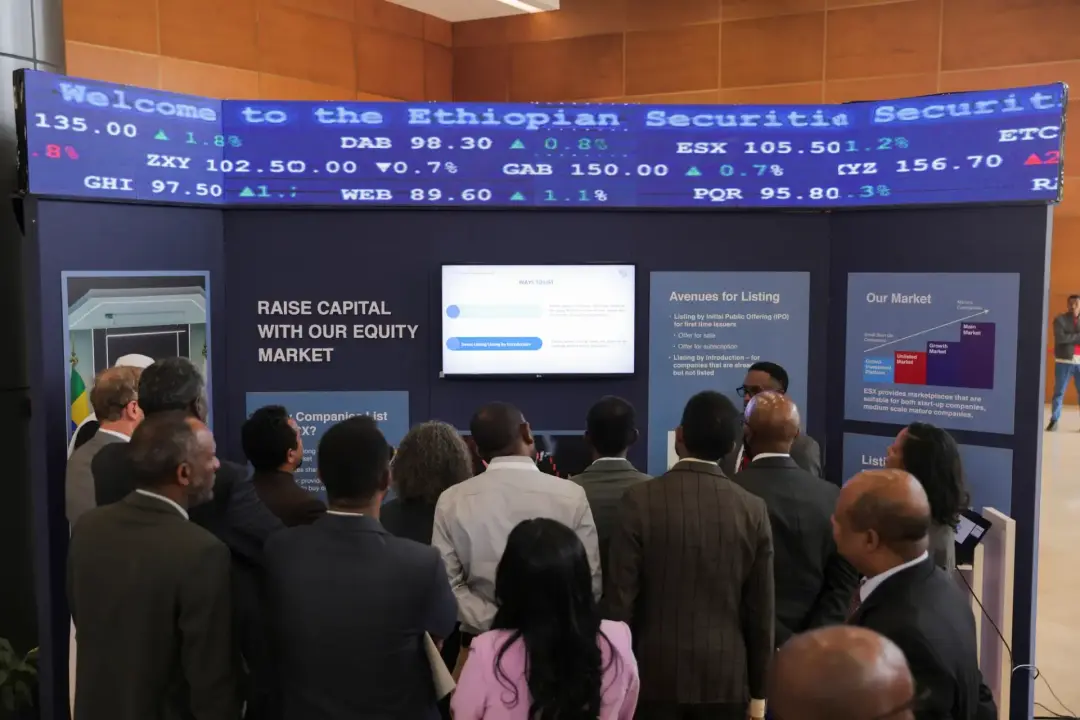
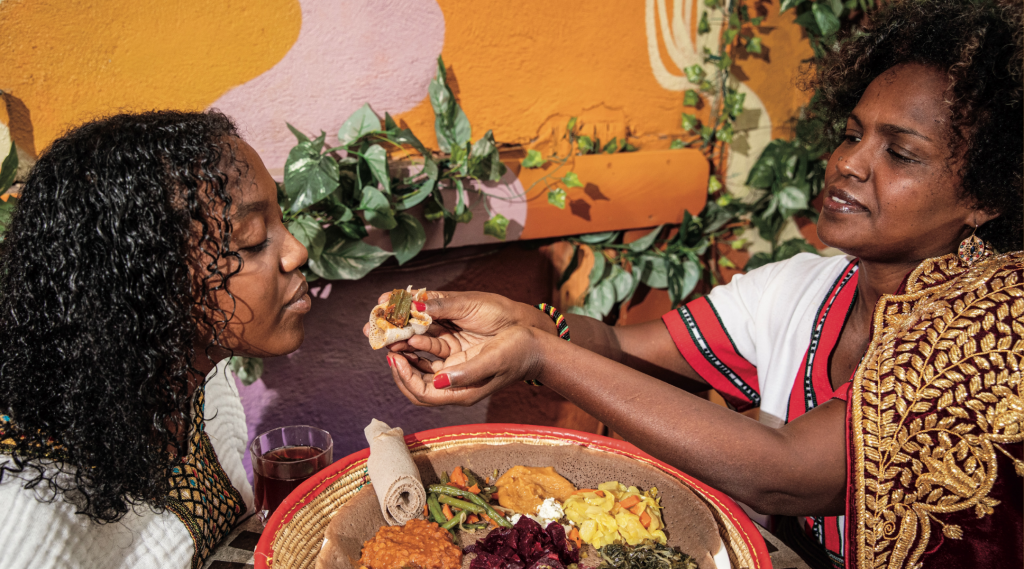
Harlem-based Ethiopian-Israeli chef Beejhy Barhany dishes on her new cookbook
Chef Beejhy Barhany, the proprietor of Tsion Cafe, a kosher and vegan Israeli-Ethiopian restaurant in Harlem, was born in Ethiopia. As a child, she spent three years in Sudan, then lived in Ashkelon in southern Israel until she moved to Kibbutz Alumim, near the Gaza Strip, during her teen years. After serving in the Israel Defense Forces, she traveled the world and, in her early 20s, settled in New York City. Now, Barhany’s first book, “Gursha: Timeless Recipes for Modern Kitchens, from Ethiopia, Israel, Harlem, and Beyond,” reflects the breadth of her journey. Its title, “Gursha,” is Amharic, the official language of Ethiopia. The word literally means “mouthful” and refers to the Ethiopian hospitality tradition of feeding one another morsels of food, usually by hand. More broadly, it means the act of feeding and nourishing another as a sign of affection — a major theme of the book. The word, explains Barhany, describes “what I am trying to do to each individual who buys the book or works on a recipe,” she told the New York Jewish Week. “I am nourishing them with delicious ideas, recipes, stories and traditions.” The book, filled with photographs and illustrations, is possibly the first Ethiopian Jewish cookbook. It features more than 100 recipes, ranging from berbere, a spice blend widely used in Ethiopian cuisine, to doro wat, a spicy chicken drumstick stew, to beg wot, a holiday lamb stew that Ethiopian Jews, also known as the Beta Israel, often eat on Passover and Rosh Hashanah. There’s also Ethiopian barbecued corn bread, a dish that combines Barhany’s Ethiopian roots and her Harlem influences.
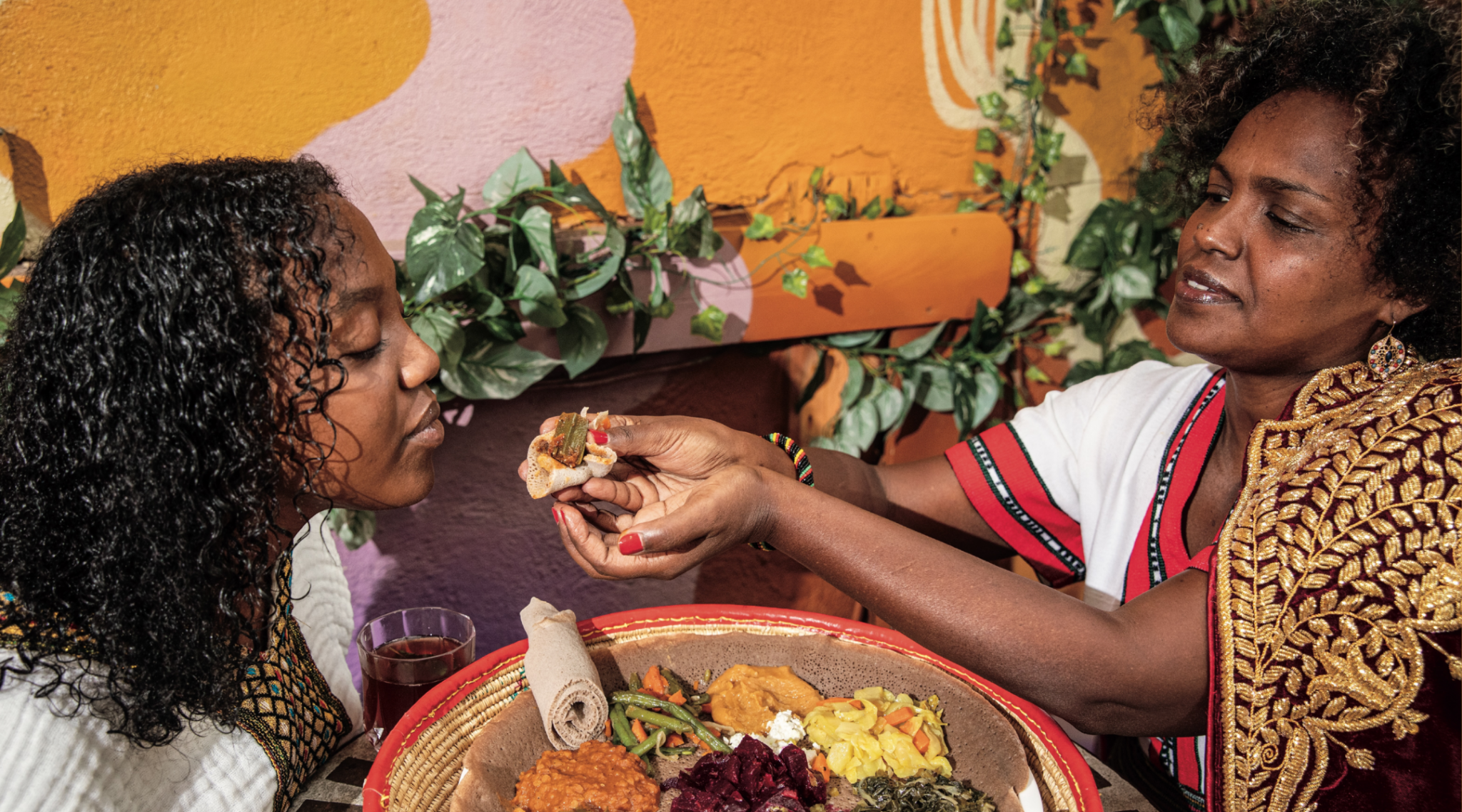

Boeing Reaches Settlement to Avoid Civil Trial Over 2019 Ethiopian Airlines Crash
On March 10, 2019, Ethiopian Airlines Flight 302, a Boeing 737 MAX aircraft, crashed shortly after takeoff from Addis Ababa Bole International Airport en route to Nairobi Jomo Kenyatta International Airport. All 157 passengers and crew onboard perished, marking the deadliest aviation disaster in Ethiopian history. Among the victims were American citizens Antoine Lewis and Darcy Belengar. The crash came just months after a similar incident involving Lion Air Flight 610 in Indonesia in October 2018, triggering a global outcry and grounding of the entire 737 MAX fleet for nearly two years.
MCAS System Under Scrutiny
Investigations later revealed that a key contributor to both crashes was a flawed software system known as the Maneuvering Characteristics Augmentation System (MCAS). The system, intended to automatically push the aircraft’s nose down under certain conditions, malfunctioned due to erroneous sensor data, overriding pilot commands and causing uncontrollable descents.
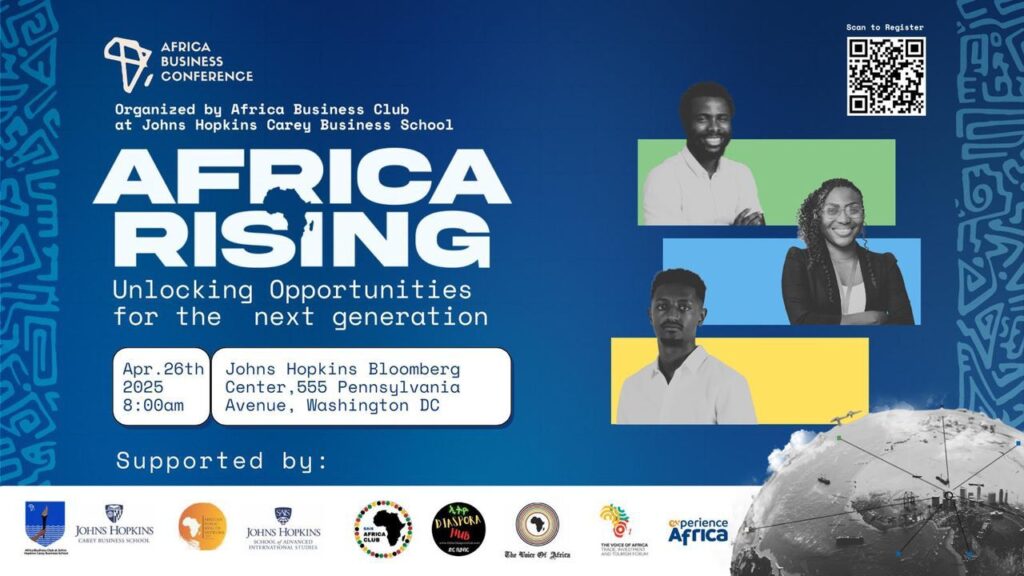
Ethio Diaspora Hub Spotlights: Africa Business Club at Johns Hopkins Carey Business School
By Ethio Diaspora Hub
At Ethio Diaspora Hub, we’re proud to shine a light on organizations driving meaningful change for Africa and its diaspora. Today, we’re thrilled to introduce you to the Africa Business Club (ABC) at Johns Hopkins Carey Business School, a student-led powerhouse uniting passionate individuals to shape the continent’s future through collaboration and innovation.
 Meet the Africa Business Club at Johns Hopkins Carey Business School
Founded at Johns Hopkins University, ABC is a dynamic community of students and professionals dedicated to advancing Africa’s economic, cultural, and social development. Led by President Ezinne Aso, the club boasts 7 core officers, and 100 members who share a bold vision: to be the premier student organization for business in Africa within Johns Hopkins. From professional workshops to educational forums and social gatherings, ABC’s activities are open to all members of the Johns Hopkins community, creating a vibrant space for Africans and friends of Africa alike.
Meet the Africa Business Club at Johns Hopkins Carey Business School
Founded at Johns Hopkins University, ABC is a dynamic community of students and professionals dedicated to advancing Africa’s economic, cultural, and social development. Led by President Ezinne Aso, the club boasts 7 core officers, and 100 members who share a bold vision: to be the premier student organization for business in Africa within Johns Hopkins. From professional workshops to educational forums and social gatherings, ABC’s activities are open to all members of the Johns Hopkins community, creating a vibrant space for Africans and friends of Africa alike.
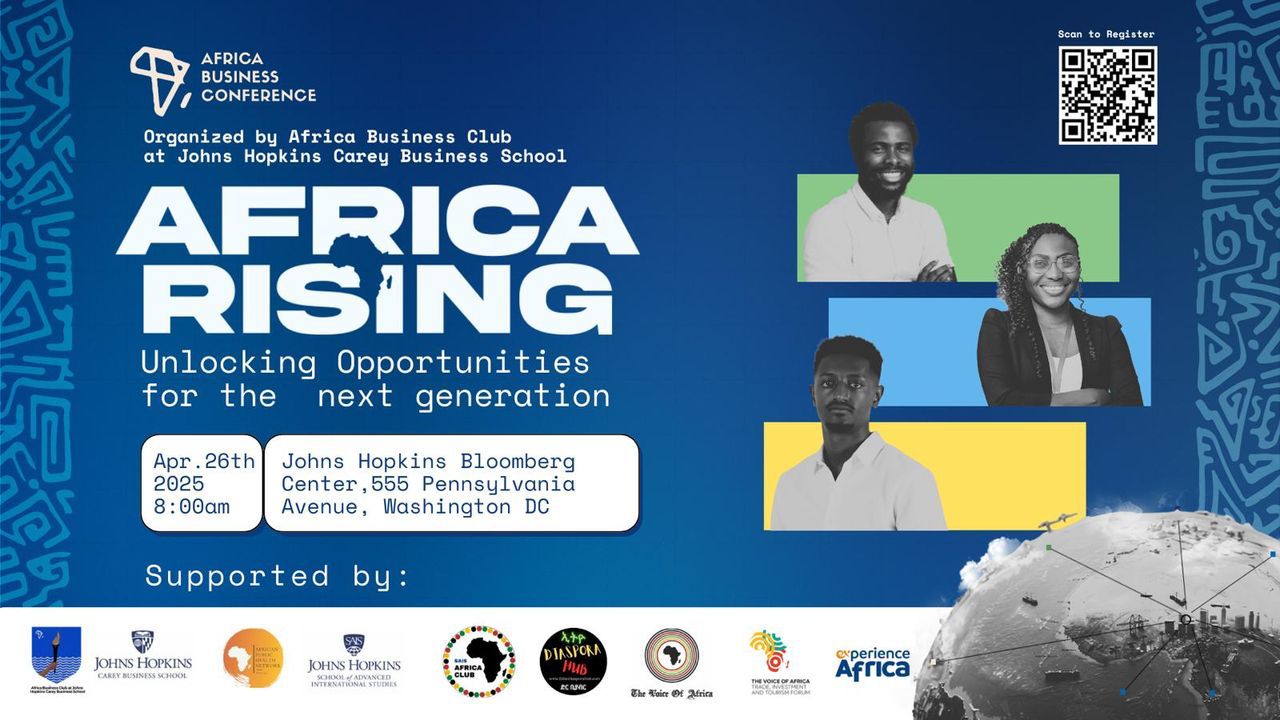 ABC’s mission resonates deeply with our values here at Ethio Diaspora Hub:
• Providing a platform for students to collaborate and support Africa’s growth.
• Serve as a strategic resource for attracting top-tier talent from diverse backgrounds to drive meaningful organizational change.
• Bringing together Africans and allies across Johns Hopkins to amplify voices and solve challenges.
• Fostering partnerships with organizations, governments, and nonprofits in Africa and beyond.
• Welcoming the global community to join in this transformative journey.
Africa Rising 2025: A Must-Attend Event
We’re especially excited to announce that ABC is hosting the 6th annual Africa Business Conference on April 26, 2025, at the Johns Hopkins Bloomberg Center, located at 555 Pennsylvania Avenue, Washington, DC. This flagship event, themed "Africa Rising: Unlocking Opportunities for the Next Generation," is set to be a game-changer and Ethio Diaspora Hub will be there to bring you all the highlights!
Africa Rising 2025 is more than just a conference, it’s a global gathering of students, professionals, and policymakers passionate about Africa’s future. Expect inspiring discussions, actionable insights, and unparalleled networking opportunities, all aimed at building a brighter, more prosperous continent.
ABC’s mission resonates deeply with our values here at Ethio Diaspora Hub:
• Providing a platform for students to collaborate and support Africa’s growth.
• Serve as a strategic resource for attracting top-tier talent from diverse backgrounds to drive meaningful organizational change.
• Bringing together Africans and allies across Johns Hopkins to amplify voices and solve challenges.
• Fostering partnerships with organizations, governments, and nonprofits in Africa and beyond.
• Welcoming the global community to join in this transformative journey.
Africa Rising 2025: A Must-Attend Event
We’re especially excited to announce that ABC is hosting the 6th annual Africa Business Conference on April 26, 2025, at the Johns Hopkins Bloomberg Center, located at 555 Pennsylvania Avenue, Washington, DC. This flagship event, themed "Africa Rising: Unlocking Opportunities for the Next Generation," is set to be a game-changer and Ethio Diaspora Hub will be there to bring you all the highlights!
Africa Rising 2025 is more than just a conference, it’s a global gathering of students, professionals, and policymakers passionate about Africa’s future. Expect inspiring discussions, actionable insights, and unparalleled networking opportunities, all aimed at building a brighter, more prosperous continent.
 What’s on the Agenda?
This year’s lineup is packed with key panels tackling Africa’s most pressing and promising sectors:
1. Healthcare Panel: Innovations and solutions for a healthier Africa.
2. International Development/Conflict/Policy Panel: Strategies for sustainable progress and stability.
3. Media, Marketing, and Entertainment Panel: Africa’s creative industries taking the world stage.
4. Finance and Fintech Panel: The financial revolution driving inclusion and growth.
Plus, don’t miss the side events designed to connect and inspire:
• Diaspora Connect Room: A hub for diaspora networking—perfect for our Ethio Diaspora Hub community!
• Career Session: Tips and tools for Africa-focused career paths.
• Hop and Connect – A Founders and funders speed networking: Opportunity to hear firsthand from founders’ experiences that would help entrepreneur to succeed.
• Vendors Fair: Celebrate African businesses and creators.
Why We’re Excited
At Ethio Diaspora Hub, we believe in the power of the diaspora to unlock Africa’s potential. Africa Rising 2025 embodies that spirit, empowering the next generation to lead with innovation and purpose. Whether you’re in healthcare, tech, finance, or the arts, this event offers a chance to connect, learn, and contribute to Africa’s rise.
Join the Movement
We invite our Ethio Diaspora Hub community to mark your calendars for April 26, 2025, and join us in Washington, DC, for this incredible event. Stay tuned to EthioDiasporaHub.com and our social media channels for updates, exclusive coverage, and ways to get involved with ABC and Africa Rising 2025. Together, let’s celebrate Africa’s unstoppable momentum and unlock opportunities for generations to come.
What’s on the Agenda?
This year’s lineup is packed with key panels tackling Africa’s most pressing and promising sectors:
1. Healthcare Panel: Innovations and solutions for a healthier Africa.
2. International Development/Conflict/Policy Panel: Strategies for sustainable progress and stability.
3. Media, Marketing, and Entertainment Panel: Africa’s creative industries taking the world stage.
4. Finance and Fintech Panel: The financial revolution driving inclusion and growth.
Plus, don’t miss the side events designed to connect and inspire:
• Diaspora Connect Room: A hub for diaspora networking—perfect for our Ethio Diaspora Hub community!
• Career Session: Tips and tools for Africa-focused career paths.
• Hop and Connect – A Founders and funders speed networking: Opportunity to hear firsthand from founders’ experiences that would help entrepreneur to succeed.
• Vendors Fair: Celebrate African businesses and creators.
Why We’re Excited
At Ethio Diaspora Hub, we believe in the power of the diaspora to unlock Africa’s potential. Africa Rising 2025 embodies that spirit, empowering the next generation to lead with innovation and purpose. Whether you’re in healthcare, tech, finance, or the arts, this event offers a chance to connect, learn, and contribute to Africa’s rise.
Join the Movement
We invite our Ethio Diaspora Hub community to mark your calendars for April 26, 2025, and join us in Washington, DC, for this incredible event. Stay tuned to EthioDiasporaHub.com and our social media channels for updates, exclusive coverage, and ways to get involved with ABC and Africa Rising 2025. Together, let’s celebrate Africa’s unstoppable momentum and unlock opportunities for generations to come.
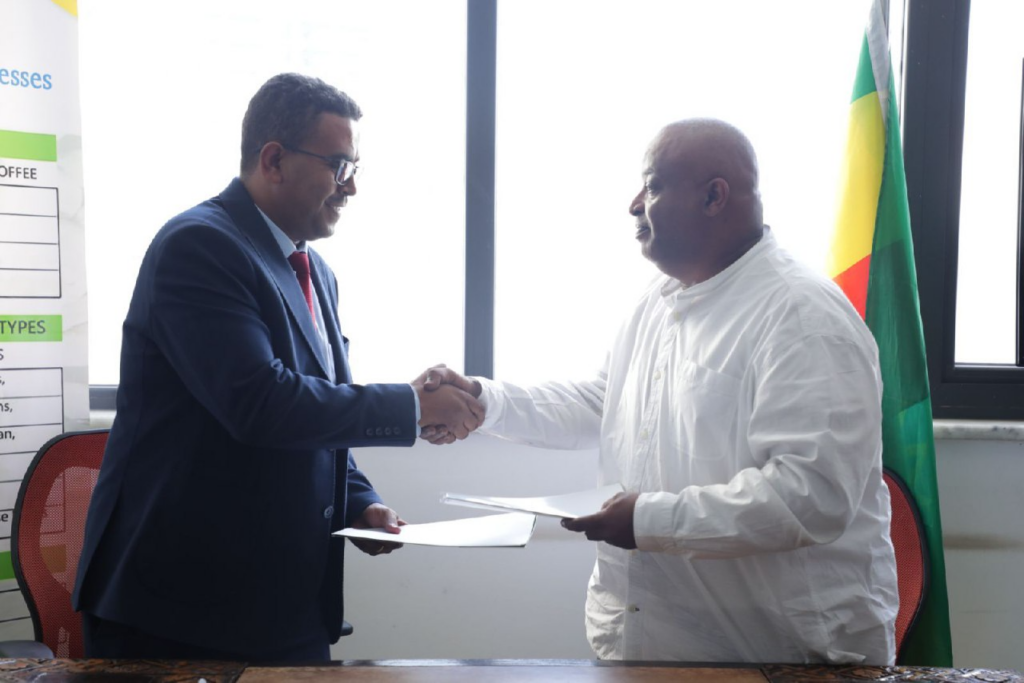
ETBC, Soy Afric Ltd., and Kazana Group Sign Landmark MoU to Transform Ethiopia’s Food Processing Sector
Addis Ababa, Ethiopia | April 4 2025— In a bold and strategic move to revitalize Ethiopia’s agricultural and agro-processing sector, Ethiopian Trading and Business Corporation (ETBC), Soy Afric, and Kazana Group have signed a Memorandum of Understanding (MoU) to collaboratively enhance soybean production, processing, and export. The agreement marks a strong commitment among the three entities to work toward a shared goal: strengthening the country’s soybean value chain from farm to market while delivering meaningful benefits to smallholder farmers and the national economy. The partnership reflects a synergy of complementary strengths. ETBC will take the lead in mobilizing and supporting smallholder farmers by providing access to quality inputs, while also helping navigate regulatory processes to ensure smooth project rollout. Soy Afric brings decades of experience in soybean processing and will offer technical expertise, buy-back arrangements, training, and post-harvest handling solutions to guarantee quality and efficiency. Meanwhile, Kazana Group will provide essential expertise in investment capital, support the establishment of of strategic partnerships, and open channels to regional and international markets for Ethiopian soy-based products, while overseeing the business development and strategic growth of the plant. Together, the three partners envision a practical and scalable model that elevates productivity, enhances market competitiveness, and ensures long-term sustainability for all players in the ecosystem.
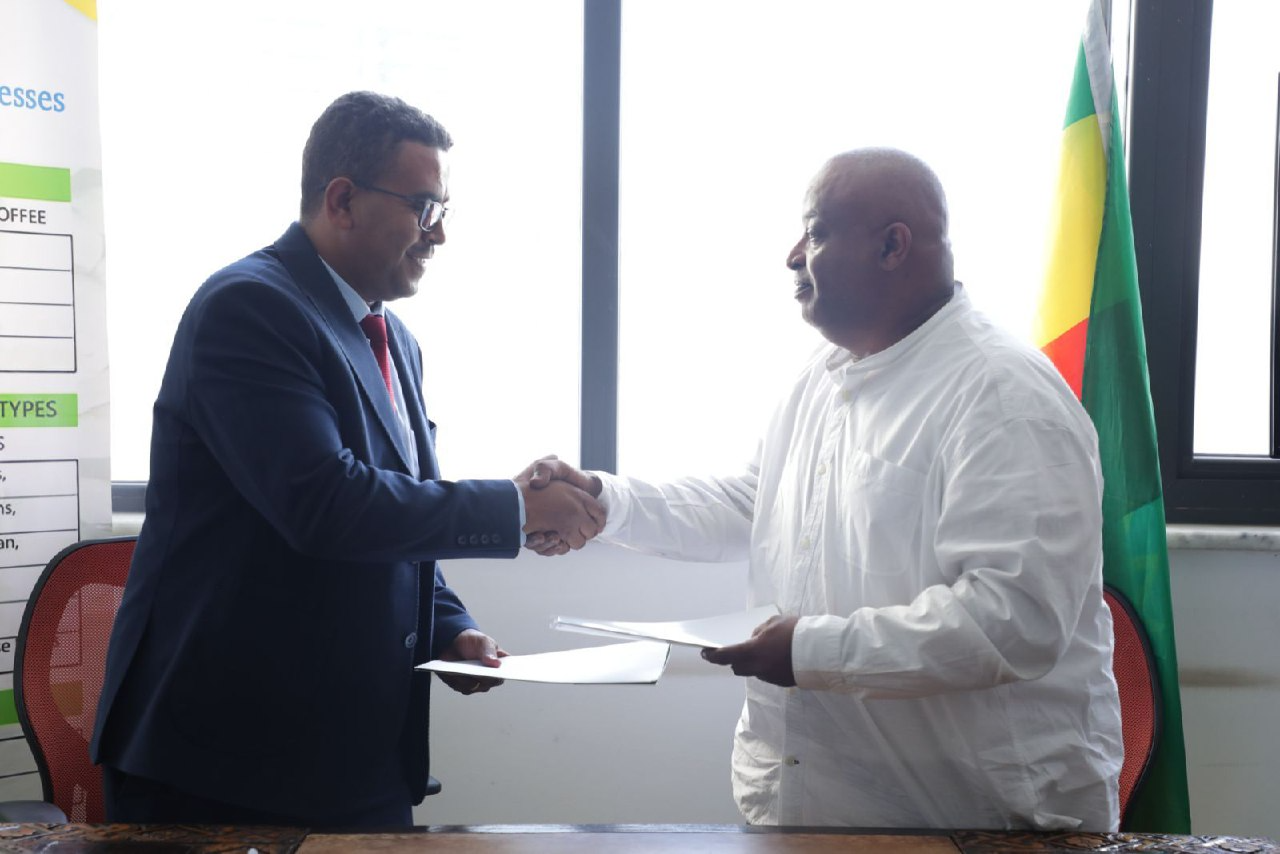
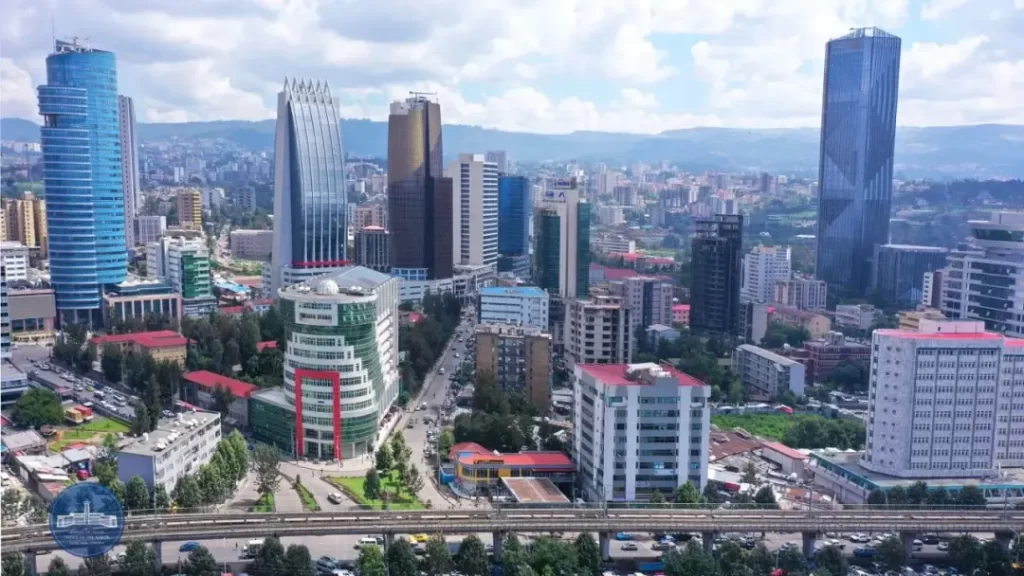
Ethiopia’s Banks Report Rising Forex Allocation in Post-Reform Upswing
Capping off a week marked by stellar announcements of forex allocation by Ethiopia’s banks, the Bank of Abyssinia (BoA) reported yesterday that it has disbursed nearly 350 million dollars to its customers in the budget year. Notably, more than half of this amount, $189 million, was disbursed in the third quarter of the budget year to a little over 1,000 customers. A focus on supporting importers with the provision of essential commodities was reported by BoA. Earlier in the week, Awash Bank, the biggest private bank in Ethiopia, had announced that it allocated nearly half a billion dollars to 2,200 customers since January. The Bank echoed the prioritized allocation for strategic commodities like fuel, edible oil, and sugar. The Commercial Bank of Ethiopia (CBE), the state-owned bank with nearly half of the banking industry, also reported later in the week that it allocated a little over 122 million dollars to 698 customers. Awash’s disbursements of 79 million dollars for fuel reflect an adoption of a recent central bank ordinance that requires commercial banks to share in its long-standing sole burden of settling fuel-related letters of credit. Back in October, the National Bank of Ethiopia (NBE) injected $175 million to ease pressures in fuel import payments.
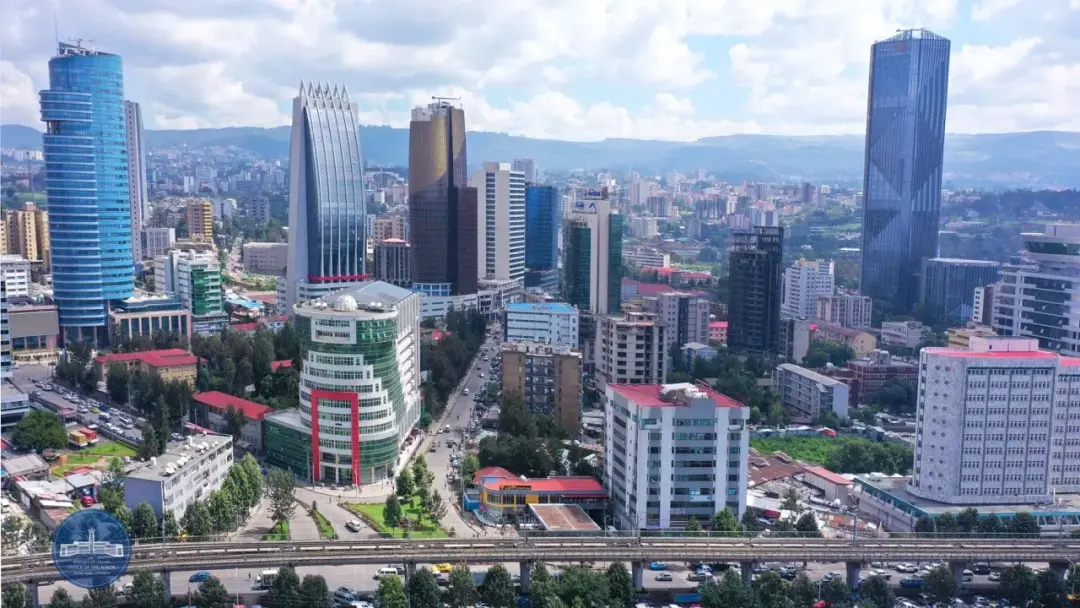
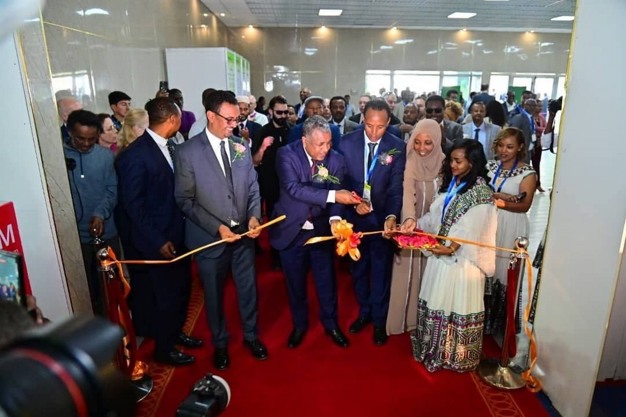
Ethiopia: Horticulture sector brings $366M in eight months
Ethiopia's horticulture sector has generated USD 366 million in revenue over the past eight months, Minister of Agriculture Girma Amente (PhD) announced during the opening of the International Floriculture and Horticulture Trade Fair at Millennium Hall. The three-day event, which was opened yesterday, is being held under the theme "Horticulture for Sustainable Ethiopia." Dr. Girma emphasized the sector's growing significance in Ethiopia's economy and the government's commitment to improving the business climate for horticulture investors. He noted that horticulture was a priority area for the country and has seen encouraging achievements in recent months. To further capitalize on these successes, the minister called for stronger collaboration among stakeholders to address bottlenecks in the supply chain and create synergy. Nega Mekuanint, Chairman of the Ethiopian Horticulture Producers and Exporters Association (EHPEA), described the trade fair as more than just an exhibition - calling it a strategic platform to promote investment and growth. He attributed the sector's recent success to government policy support, industry collaboration, and the dedication of horticulture businesses.


SOST Unites Black D.C. and the African Diaspora
SOST, which means “three” in Amharic, is the new three-story cultural hub serving food and music, in the heart of Little Ethiopia on 9th Street NW. First-time restaurateurs Siem, Izzy, and Mariam Abebe opened the doors of SOST at the end of last year with the vision of creating a bridge between African Americans and the African diaspora. The siblings’ varied expertise—Siem headed a real estate development company, Izzy spent years working at their father’s glass store in Ethiopia, and Mariam previously worked as a financial analyst—along with their shared objective for the space to serve as a pillar for the community, drives the business forward. They describe SOST as three floors that feel separate yet cohesive. For Mariam, who handles strategic partnerships, particularly with artists, DJs, and talent, SOST needed to pay tribute to Black jazz musicians, both in D.C. and beyond. “SOST represents the past, the present, and where Shaw is going,” Mariam says. “I started researching and then realized … Duke Ellington and several other notable Black jazz artists were born and raised in this neighborhood [we] wanted to honor [them] this with the space.” Mariam continues, “I became aware of the culture of jazz kissas (meaning cafe) in Japan—they started in the ’50s, and Black American jazz artists inspired them.” These kissas, Mariam explains, play jazz records during the day, and transform into bars at night. “When I saw that, I thought, oh wow, that’s so cool.”

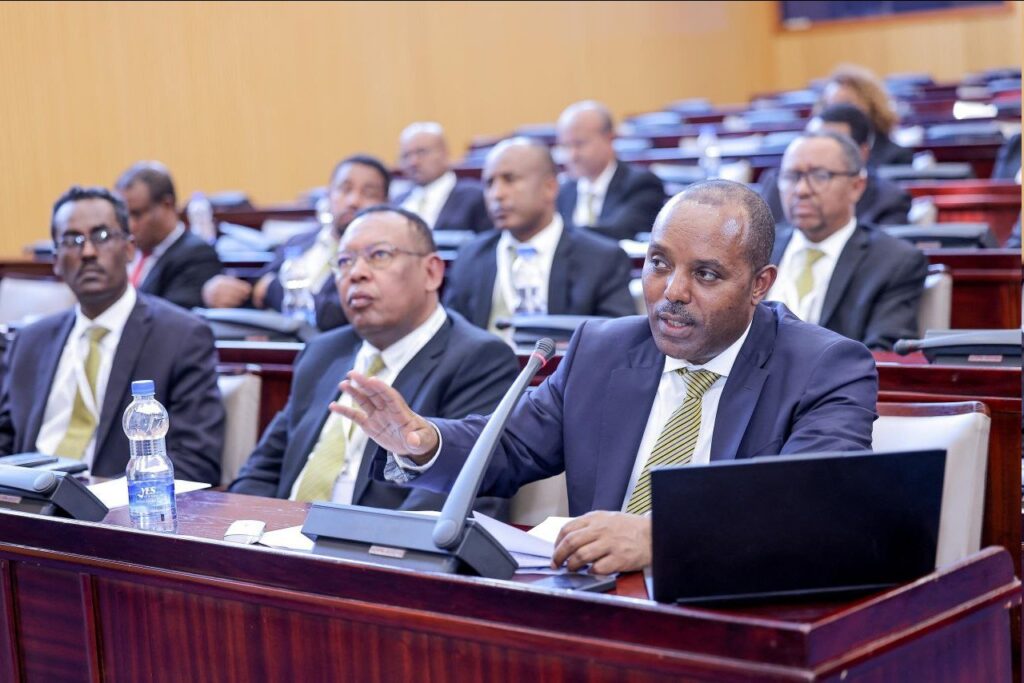
Commercial Bank of Ethiopia Posts Record 32.6 Billion Birr Profit
April 3, 2025 — The Commercial Bank of Ethiopia (CBE), the nation’s largest state-owned bank, has reported a staggering 32.6 billion birr profit in just the past eight months, marking a 170.5% surge compared to the same period last year, according to the bank’s president, Abe Sano. The announcement came during the presentation of CBE’s eight-month performance report to the House of Representatives’ Standing Committee on Government Enterprises Affairs. “This exceptional profit growth reflects our strong performance in revenue expansion and effective cost control,” said Abe. “We’ve seen encouraging results across all income-generating segments of the bank.” CBE’s total income for the period reached 109.32 billion birr, representing a 26% increase year-on-year. The strong financials are being attributed not only to higher revenues but also to improved credit quality. Abe noted that the bank’s non-performing loan (NPL) ratio has declined, and provisions for bad loans have significantly decreased—further boosting the bottom line.
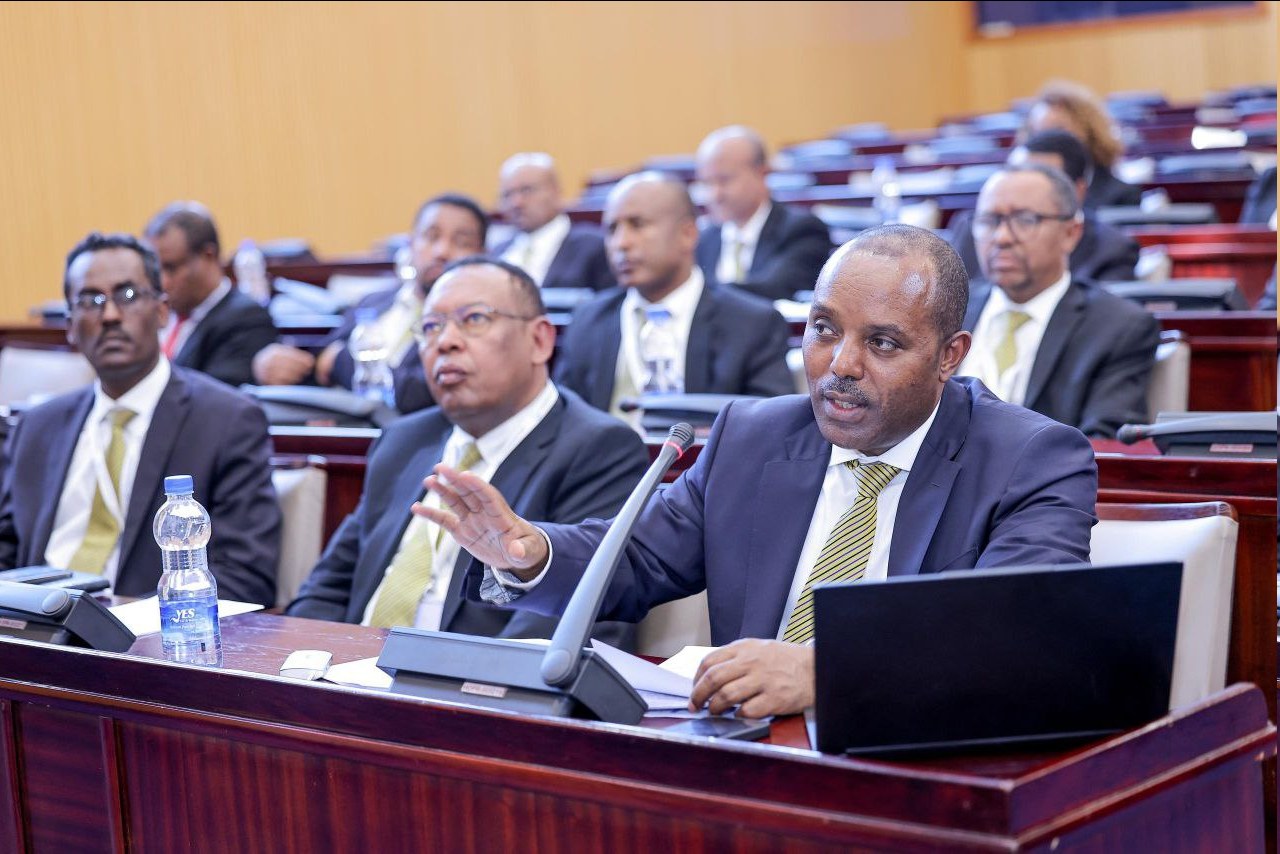

President Trump Implements 10% Tariffs, Impacting Ethiopia and Other Nations
In a bold move to overhaul U.S. trade relations, President Donald Trump announced a comprehensive set of tariffs on April 2, 2025, marking the day as “Liberation Day.” The new tariffs aim to address longstanding trade imbalances and promote domestic manufacturing. Key Components of the Tariff Strategy:
- 10% Baseline Tariff: Effective April 5, 2025, a 10% tariff will be applied to all imports, serving as a standard rate to counteract foreign trade barriers and encourage domestic production.
- Reciprocal Tariffs: Starting April 9, 2025, higher tariffs will target countries with significant trade surpluses with the U.S. These rates are set at approximately half of the tariffs those countries impose on U.S. goods. Notable rates include:
- China: 34%
- European Union: 20%
- Japan: 24%
- India: 26%
- Automobile Tariffs: A 25% tariff on all foreign-made automobiles and parts will be enforced starting April 3, 2025, aiming to revitalize the U.S. automotive industry.

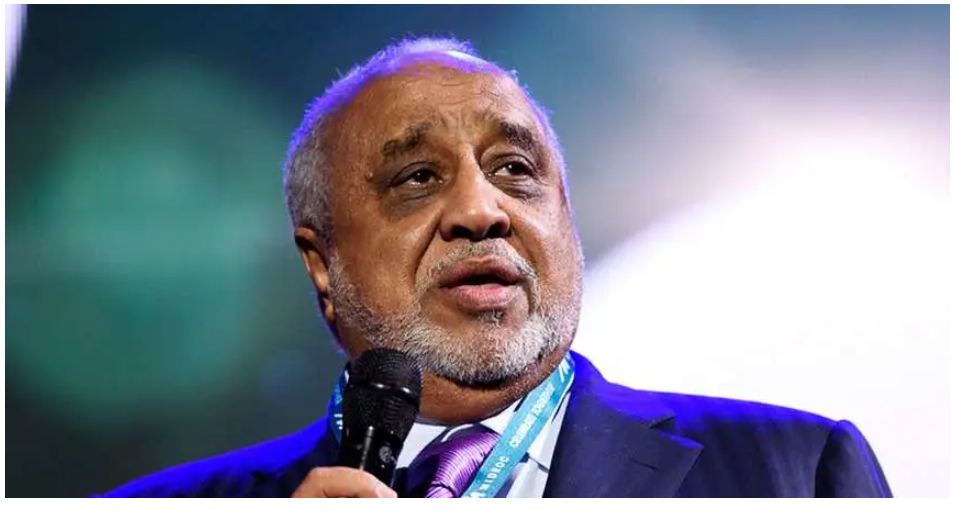
Saudi Billionaires Reinstated on Forbes List After 8 Years – But Mohammed Al Amoudi Still Left Out
In a surprising yet symbolic development, Forbes has reinstated 15 Saudi billionaires in its 2025 World’s Billionaires List after an eight-year exclusion that began in 2018. The move signals a thaw in the opacity that once surrounded the Kingdom’s financial elite following the sweeping 2017 anti-corruption purge. However, while the list now features a new wave of Saudi billionaires and familiar names like Prince Alwaleed bin Talal, one notable figure is still missing: Mohammed Hussein Al Amoudi.
Why Were Saudis Excluded for 8 Years?
In November 2017, Crown Prince Mohammed bin Salman launched a controversial anti-corruption crackdown that resulted in the arrest and detainment of hundreds of princes, businessmen, and officials. Many were held at the Ritz-Carlton in Riyadh and only released after handing over significant portions of their wealth. In 2018, Forbes decided to remove Saudi billionaires from its annual ranking, citing the lack of transparency, the unclear status of assets, and the inability to accurately assess wealth amidst ongoing settlements and asset transfers. The freeze lasted for eight years.
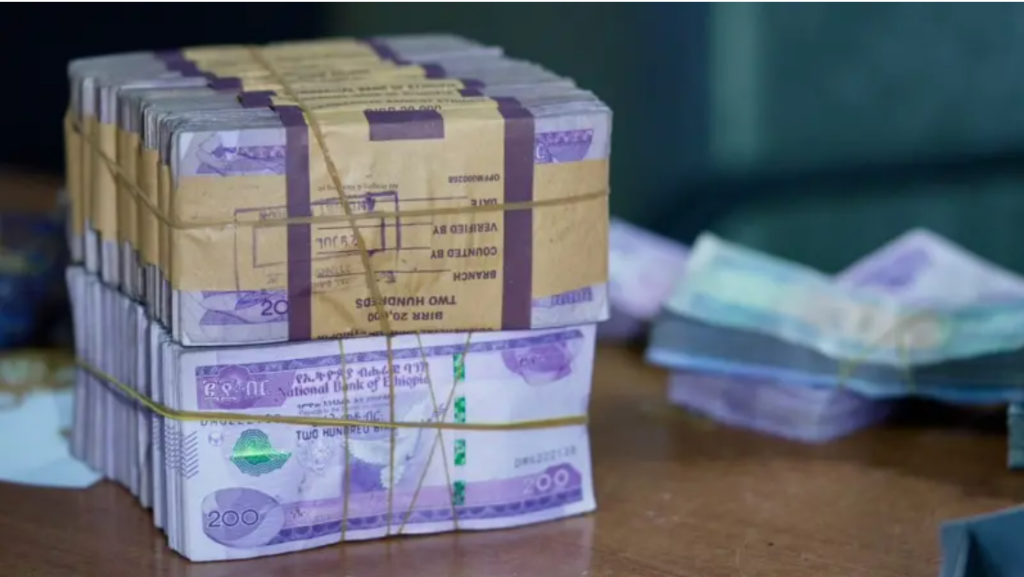
National Bank of Ethiopia to Launch Regular Foreign Exchange Auctions
Addis Ababa, March 31, 2025 – The National Bank of Ethiopia (NBE) has announced the launch of a bi-weekly foreign exchange auction system aimed at strengthening the country’s foreign exchange market and supporting macroeconomic stability. Starting April 1, 2025, the central bank will conduct foreign exchange (FX) auctions every two weeks, providing the private sector with greater access to hard currency. The initial auction will offer $50 million, with subsequent auctions expected to continue over the coming months. This strategic move comes in the wake of significant improvements in Ethiopia’s balance of payments position, following a comprehensive macroeconomic reform program launched in July 2024. The NBE highlighted rising exports, increased remittances, and higher capital inflows as key contributors to the stronger FX reserves now held by the central bank. Of particular note is the record delivery of high-quality gold to the NBE, the sole authorized gold exporter in the country. This has substantially boosted the central bank’s gold holdings and increased foreign exchange reserves beyond expectations.
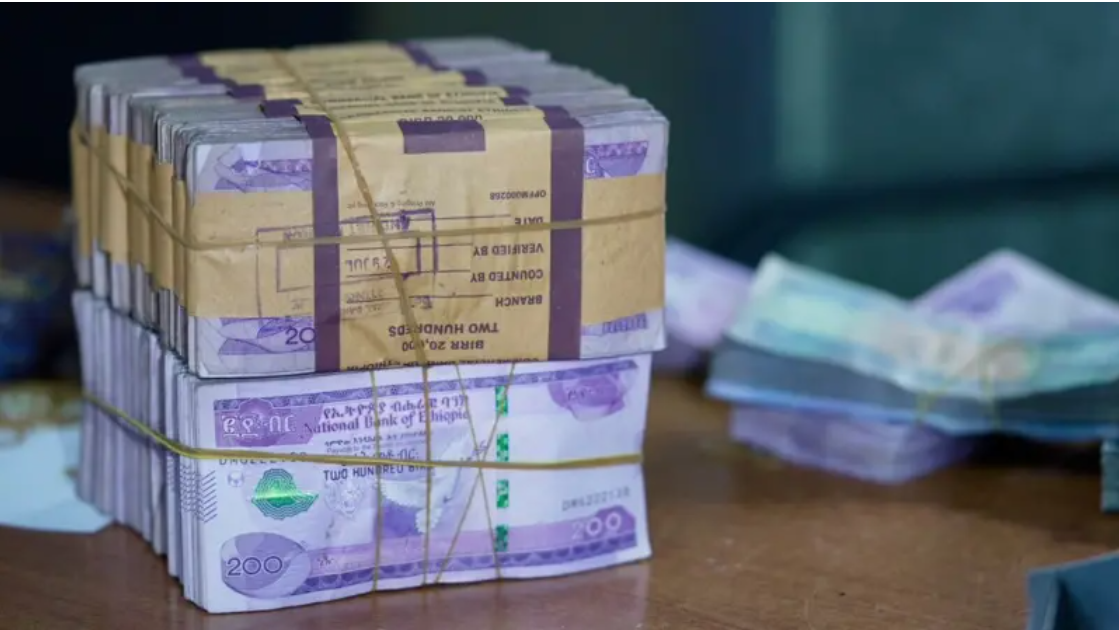

Foreign Banks Can Now Enter Ethiopia—But It’ll Cost 5 Billion Birr
Foreign Banks Welcome, But on Strict Terms: Ethiopia’s Central Bank Issues Landmark Directive Reshaping Banking Sector
The National Bank of Ethiopia (NBE) has unveiled a sweeping new directive titled “Requirements for Licensing and Renewal of Banking Business and Representative Office Directive No. SBB/XX/2025”, marking a historic shift in the country’s financial landscape. The directive, which replaces the 2013 regulations, lays the groundwork for opening Ethiopia’s banking sector to foreign banks under tightly controlled and highly regulated conditions. “This isn’t just about opening the doors to foreign banks,” said a senior official from NBE. “It’s about opening the right doors, with the right locks, and only for those who come with the right credentials.”Three Doors to Entry: Subsidiaries, Branches, and Representative Offices
The directive categorizes foreign participation into three entry channels:- Foreign Bank Subsidiaries – locally incorporated entities under full Ethiopian laws.
- Foreign Bank Branches – extensions of international banks without separate legal identity.
- Representative Offices – non-transactional liaison offices limited to market research and promotion.

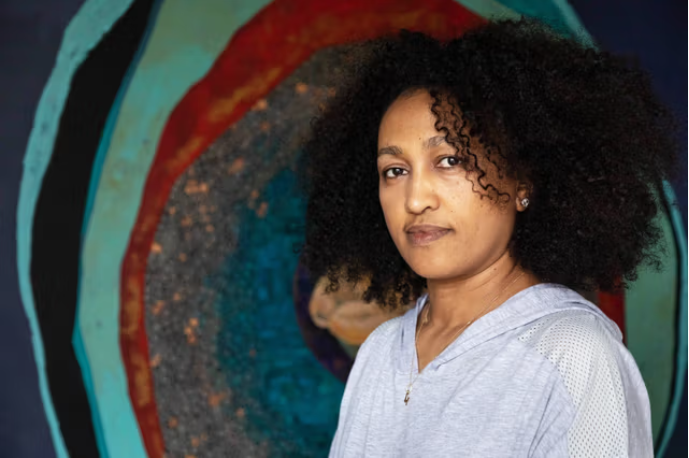
Rising Ethiopian artist Merikokeb Berhanu’s gallery joins forces with two major dealers to help her go global
It is one of the great quandaries for smaller and mid-sized galleries. You've spent years working with an artist, but when you feel they need a bigger platform than you can provide, how do you help them progress to the next level without losing them to a mega-gallery forever?
Such was the question facing Rakeb Sile and Mesai Haileleul—who co-founded Addis Fine Art in Addis Ababa in 2016—following the inclusion of Merikokeb Berhanu, an artist they have represented since 2017, in the 2022 Venice Biennale.
Born in Ethiopia in 1977, Berhanu graduated in 2002 from the Alle School of Fine Arts and Design in Addis Ababa, where she studied under Ethiopian Modernist painters such as Tadesse Mesfin. The influence such artists had on Behranu—who still lives and works in Addis Ababa—is palpable in her vibrant semi-abstracted paintings, which focus on the tense rift and disconnect between nature and technology.
Berhanu’s appearance at the Biennale drew further international attention and it was at this point that Addis Fine Art started looking for collaborators to grow her international career and collector base. Various galleries interested in working with Berhanu got in touch, but it was Esther Schipper, who has galleries in Berlin, Paris and Seoul, and the New York-based dealer James Cohan who seemed the best fit. Today (28 March), the three galleries announced their joint representation of Berhanu.

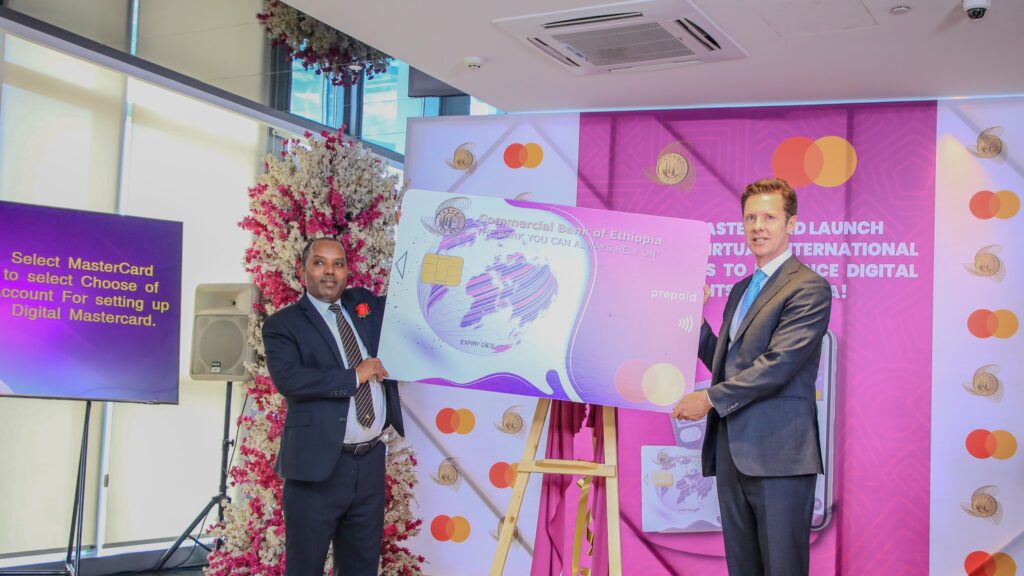
Commercial Bank of Ethiopia Launches MasterCard Payment System to Boost Digital Transaction
In a significant step toward enhancing the country’s digital financial infrastructure, the Commercial Bank of Ethiopia (CBE) has officially launched a MasterCard payment system in collaboration with the global payments giant, MasterCard. According to the bank, the newly introduced system is expected to play a pivotal role in advancing digital payment services across Ethiopia. It will provide CBE customers with broader access to secure, convenient, and globally recognized electronic payment solutions, including international transactions—an area that has traditionally been limited in the Ethiopian banking landscape. Speaking at the launch event, CBE President Abe Sano emphasized the importance of this partnership in modernizing the bank’s service offerings and aligning them with international standards. He highlighted that the integration of MasterCard’s technology will facilitate seamless transactions for both domestic and international users, ultimately supporting Ethiopia’s transition toward a cashless economy. Mark Elliot, President of MasterCard Africa, echoed this sentiment, noting that the collaboration reflects MasterCard’s ongoing commitment to financial inclusion in Africa. He added that the company is proud to support Ethiopia’s growing demand for modern, secure payment infrastructure.
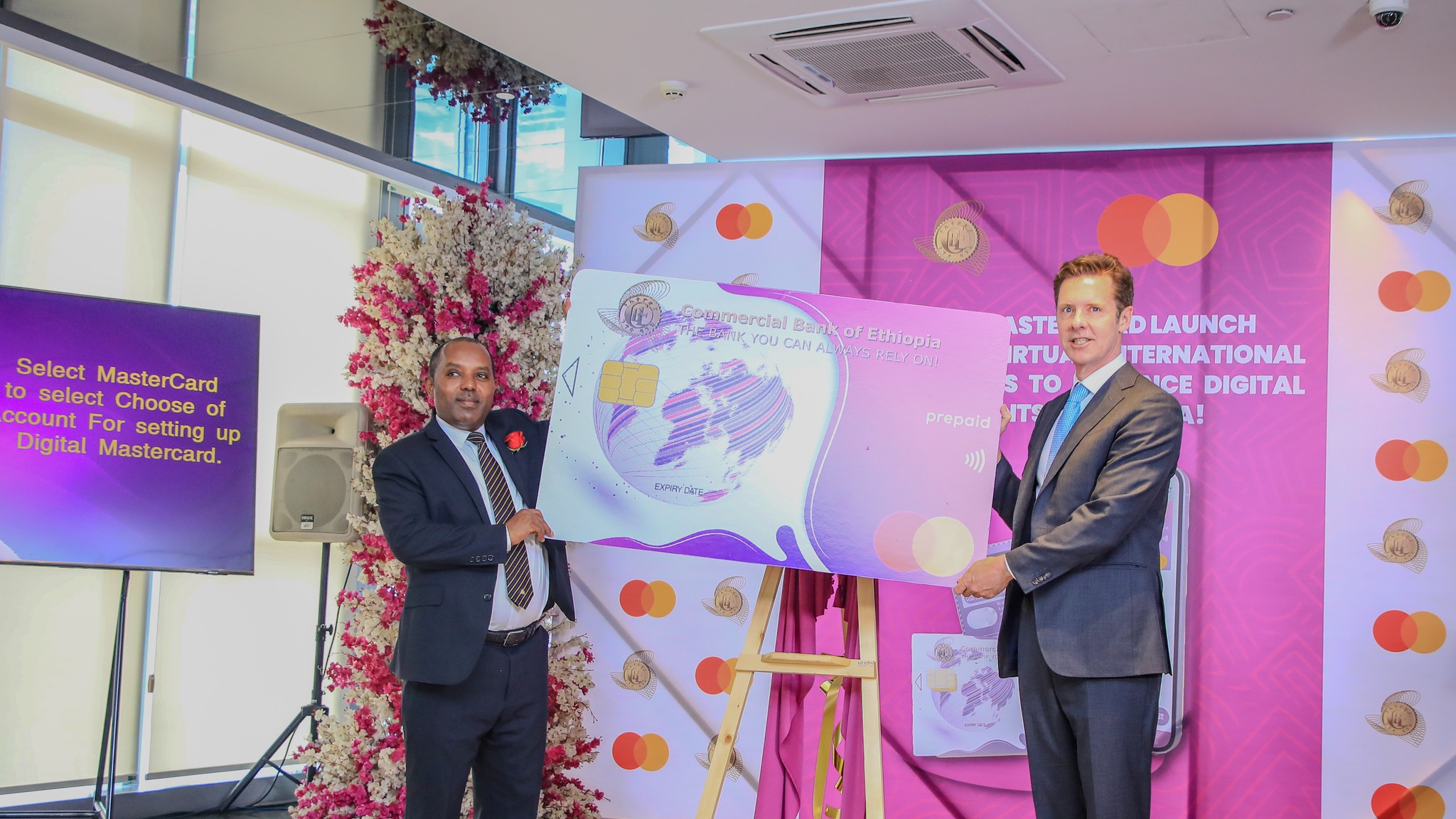

Ethiopia’s Sovereign Wealth Fund Ranked Largest in Africa with $45 Billion Assets
Ethiopian Investment Holdings (EIH) was ranked as the 34th biggest sovereign wealth fund in the world, with nearly 45 billion dollars of assets. The Sovereign Wealth Fund Institute’s (SWFI) latest ranking places EIH as the biggest sovereign wealth fund in Africa, beating out the Libyan Investment Authority for the top spot on the continent. The Norway Government Pension Fund Global is by far the biggest sovereign wealth fund in the world, with over 1.7 trillion dollars in assets EIH has a portfolio of 40 state-owned enterprises that span everything from aviation to financial services, telecom, and hospitality. The Fund was established nearly four years ago with 28 SOEs under its portfolio and 100 billion birr capital. Its founding CEO was the current governor of the National Bank of Ethiopia, Mamo Mihretu. EIH absorbed around eight SOEs last December into its portfolio, formerly managed by the Public Enterprise Holdings & Administration (PEHA). Under Brook Taye (PhD), the former Director General of the Ethiopian Capital Market Authority (ECMA) and EIH’s current CEO, a series of reforms have been kick-started to sharpen the Fund’s competitive edge and reverse years of precarious management. Several executive positions have been replaced by new talent while contemporary accounting standards have been rolled out across the board.


Ethiopia’s Koysha Hydropower Dam Reaches 65% Completion
Ethiopia’s bold push toward energy self-sufficiency and regional power exportation continues with major progress on the Koysha Hydropower Dam, now 65% complete as of March 2025. Located in South West Ethiopia on the Omo River, the Koysha project is one of the country’s largest and most ambitious energy undertakings to date, with an expected capacity of 1,800 megawatts (MW).
A Game-Changing Project for Ethiopia
Spearheaded by Ethiopian Electric Power (EEP), the $2.7 billion dam includes a 200-square-kilometre artificial lake. Upon completion, it is expected to significantly boost Ethiopia’s electricity generation capacity, meeting the country’s growing energy demand and supporting regional power exports. More than just a power plant, Koysha promises to deliver wide-reaching socio-economic benefits—such as job creation, improved irrigation, fishing opportunities, and increased tourism potential.Overcoming Financial Hurdles
Despite its massive potential, the Koysha Dam project has not been without challenges. Initially funded with a €340 million loan from a consortium of three banks, the project encountered significant delays due to financing gaps. In August 2024, Ethiopia secured a non-concessional loan to inject over $950 million, ensuring that the final phase of construction could continue without disruption.

Ethiopian Airlines, Africa’s Largest Carrier, and Archer Sign Agreement to Deploy Midnight Under the “Launch Edition” Program
- Archer announced today that it has signed an agreement outlining plans to deploy an initial fleet of Midnight aircraft to Africa’s largest carrier and Star Alliance member, Ethiopian Airlines, under Archer’s “Launch Edition” program valued at up to $30M.
- The companies will work together to over time build an air taxi network in the region, with Archer planning to provide Ethiopian Airlines with a team of pilots, technicians, and engineers to support the initial deployment of these early launch edition Midnight aircraft in Ethiopia.
- While the two companies will primarily focus on developing an air taxi network in the region, they will also explore other use cases, including eco-tourism.

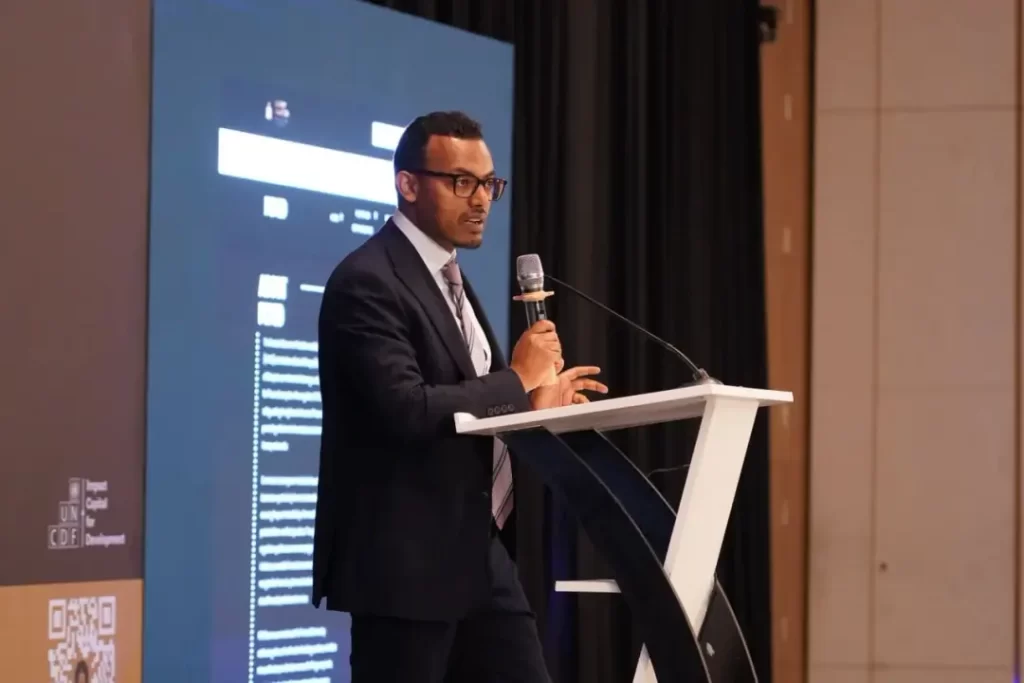
National Bank of Ethiopia Sees Inter-Bank Transactions Hit Birr 338.8B
On March 25, 2025, the Monetary Policy Committee (MPC) of the National Bank of Ethiopia (NBE) convened for its second meeting of the year. The meeting, in line with the NBE’s primary objective of maintaining price stability while supporting economic growth, focused on reviewing inflation dynamics, the financial sector, and global economic conditions. Key Developments and Economic Outlook Inflation, a major focus of the MPC, showed signs of improvement. The inflation rate for February 2025 stood at 15%, marking a decrease from the previous period. This positive trend was attributed to tight monetary policies, improved agricultural production, and controlled adjustments in administered prices. Notably, food inflation decreased significantly from 31% a year ago to 14.6%, while non-food inflation also declined to 15.6%. The month-on-month inflation rate of 0.5% in February signals an easing of price pressures. Economic activity, as measured by the Composite Index of Economic Activity (CIEA), remains strong. Indicators from key sectors, including agriculture, industry, and services, point to sustained growth. A favorable rainy season has bolstered agricultural output, while easing foreign exchange constraints have supported industrial activity. The export sector, particularly in coffee and gold, continues to perform well, and services such as air transport and tourism have seen strong performance.
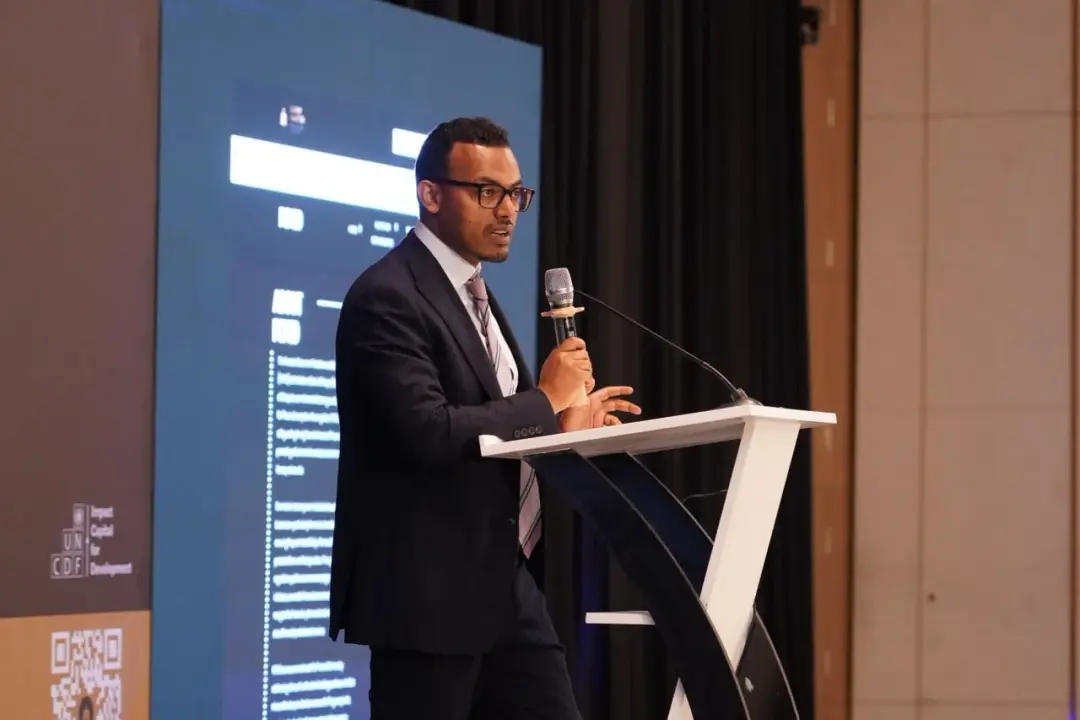

UK Car Rental Firm Enters Ethiopia, Targeting International Visitors
One of United Kingdom’s biggest car rental companies has partnered with an Ethiopian company to launch an electric, hybrid, and low-CO2-emission vehicle rental business. Green Motion International which operates in nearly 80 countries worldwide signed a franchise agreement with Excellence Car Rental Services Ethiopia this week, eyeing foreign visitors. The signing ceremony held at the Skylight Hotel was attended by senior management of both companies who indicated plans to begin operations immediately. Richard Lowden, CEO of Green Motion, pointed out how Addis Ababa emerged as a tourist hotspot with significant potential for growth in the company’s expansion efforts across developing economies. He stated the importance of finding local partners capable of embracing their technology to spark an evolution of operations in the sector. “We hope to see the brand grow throughout Ethiopia,” Richard told Shega. The agreement between the two parties was two years in the making with the CEOs initially meeting in Thailand and a few more times in Britain. Green Motion currently operates with nine partners in Africa with the first franchise operations being set up in Morocco. The Company fully provides the technology stack including an XML-based software that is integrated into major booking platforms like Expedia and Bookings.com. The local partner Excellence Car Rental will supply the vehicles.


Ethiopia Adjusts Fuel Prices Amid Global Market Pressure and Domestic Budget Realignments
Addis Ababa, March 23, 2025 — The Ministry of Trade and Regional Integration has revised fuel prices across the country, effective March 21, 2025 (Megabit 12, 2017 E.C.), citing global oil market volatility and the need to stabilize local fuel supply chains. The adjustments reflect Ethiopia’s continued efforts to reconcile international energy costs with domestic economic priorities as fuel remains one of the country’s largest import expenses. According to the Ministry’s official announcement, the new prices are as follows:
- Benzene (Petrol): 112.67 ETB/liter
- Diesel: 107.93 ETB/liter
- Kerosene: 107.93 ETB/liter
- Light Black Diesel Oil: 109.22 ETB/liter
- Heavy Black Diesel Oil: 106.75 ETB/liter
- Jet Fuel: 109.20 ETB/liter
A Balancing Act: Inflation, Subsidies, and Supply Security
The move comes as the government walks a tightrope between inflationary pressures and the rising cost of fuel imports. Global crude oil prices have experienced renewed volatility due to geopolitical tensions, OPEC+ production cuts, and supply chain disruptions, all of which impact Ethiopia’s fuel import bill.
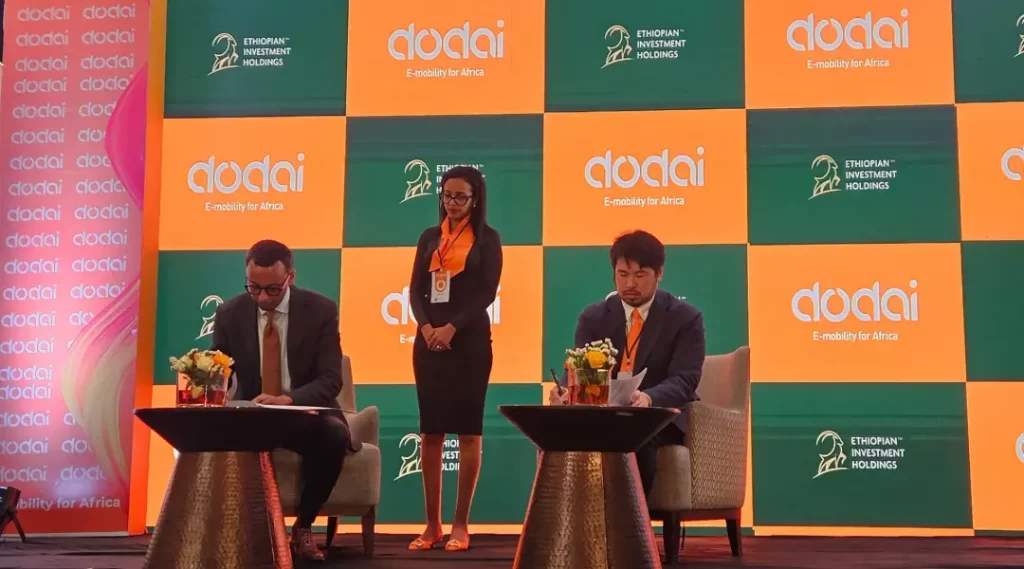
Ethiopia’s Sovereign Wealth Fund Scraps Dodai MoU, Eyes Venture Capital Fund
Ethiopian Investment Holdings (EIH) has terminated its Memorandum of Understanding (MoU) with Addis Ababa-based electric vehicle (EV) startup Dodai Inc. five months after it was signed. The Ethiopian government's investment arm attributed the termination to a realization that a venture capital fund (VC), currently under formation by EIH, would better manage such investments. In a statement shared on Saturday morning, EIH indicated that a VC would be better suited for risk management, realizing targeted investment returns, and enhanced operational support for early-stage ventures. “Pursuing the battery-swapping initiative directly through EIH is not deemed feasible at this stage,” reads the statement. The October MoU entailed support from EIH to deploy 100 battery swap stations in the capital over the next year, with plans to expand to 300 stations over three years. Estimates during the period suggested that investments ranging between 30-40 million dollars would be needed to realize the partnership targets. Dodai which is currently working to scale up and diversify its operations, announced plans in March to cover license plate fees for 250 members of an EV association as it navigated regulatory hurdles in Addis Ababa.
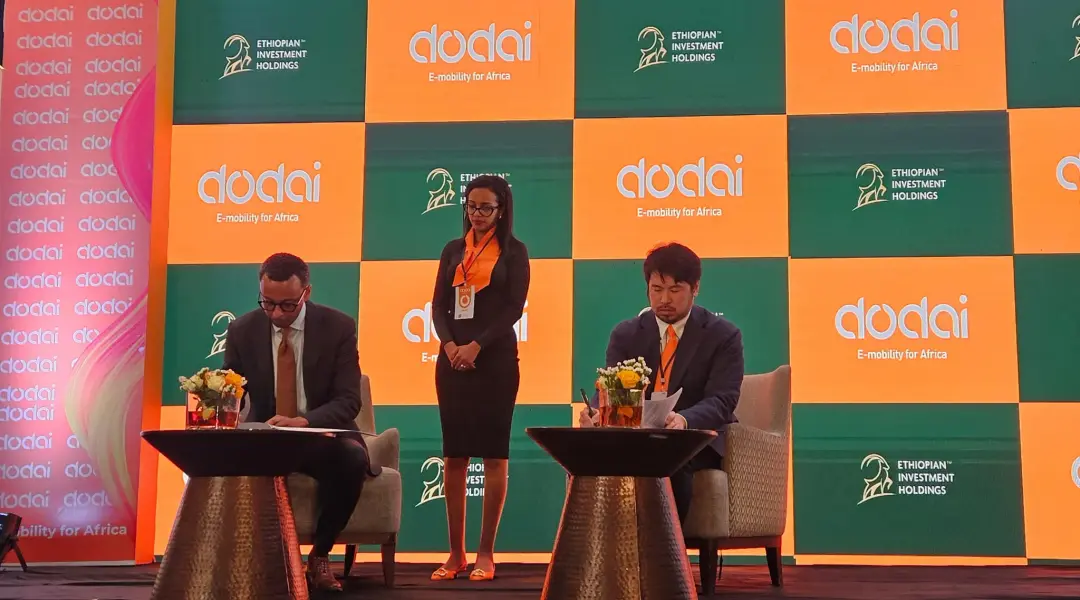
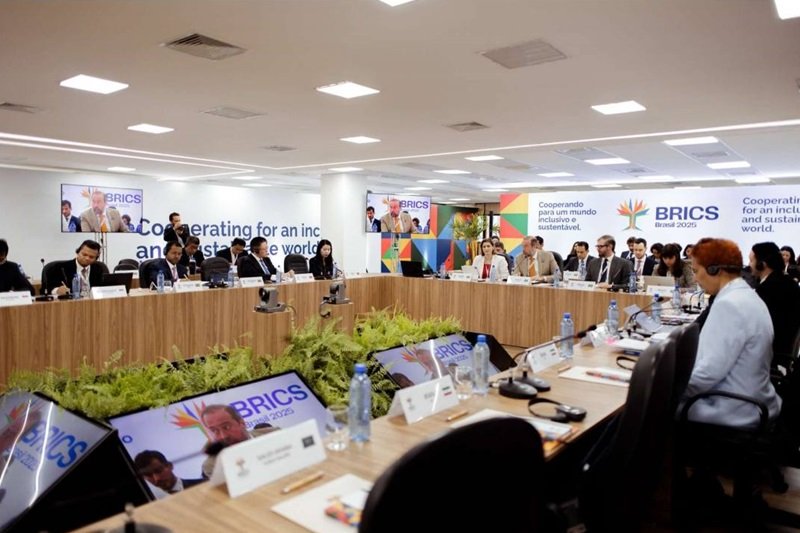
Ethiopia is Participating In the BRICS Senior Energy Officials Meeting
An Ethiopian delegation is participating in the BRICS Senior Energy Officials meeting which is being held in Brasilia, Brazil. Addressing the meeting, Ethiopia’s Ambassador to Brazil, Ambassador Leulseged Tadese, underscored the importance of strengthening cooperation in the BRICS platform to enhance energy security and energy efficiency to secure a more sustainable and prosperous future for the planet. He pointed out that access to affordable, reliable, sustainable and modern energy is critical to achieve the 2030 Sustainable Development Agenda. In this regard, he outlined the energy initiatives that Ethiopia’s government has been implementing based on national plans and strategies, including its Long-Term Low Emission Development Strategy. He emphasized Ethiopia’s continued national endeavors to ensure and sustain clean and sustainable energy, expansion of energy infrastructures to meet the energy demands of the country and promote regional cooperation and integration. The Ambassador further called for concrete actions such as sharing best practices and experience and technology transfer to strengthen energy cooperation in the BRICS platform.

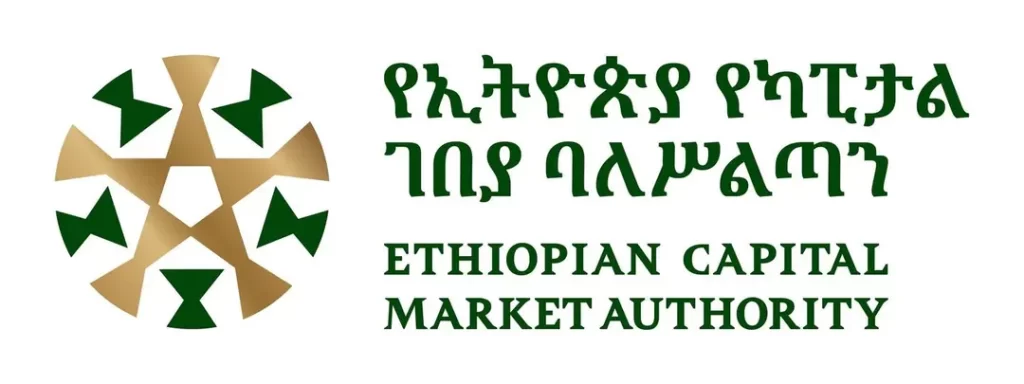
Ethiopia Embraces New Era in Finance with Launch of Investment Banking Services
Addis Ababa, March 12, 2017 (FMC) – Ethiopia has officially entered a new chapter in its financial history. The Ethiopian Capital Market Authority (ECMA) has announced the launch of investment banking services — a monumental step towards modernizing the nation’s financial infrastructure and boosting economic growth. This landmark development comes with the licensing of two pioneering institutions: CBE Capital Stock Company and Wegagen Capital Investment Bank Stock Company. These firms now have the green light to operate as Ethiopia’s first official investment banks, ushering in an era of diversified financial services, broader investment options, and enhanced capital mobilization. Additionally, the ECMA has granted licenses to key market players including:
- Ethio-Fidelity Securities Stock Company as a Securities Market Operator,
- HST Investment Advisory Services Private Limited and
- Equus Securities Investment Advisor Private Limited as Securities Investment Advisors.
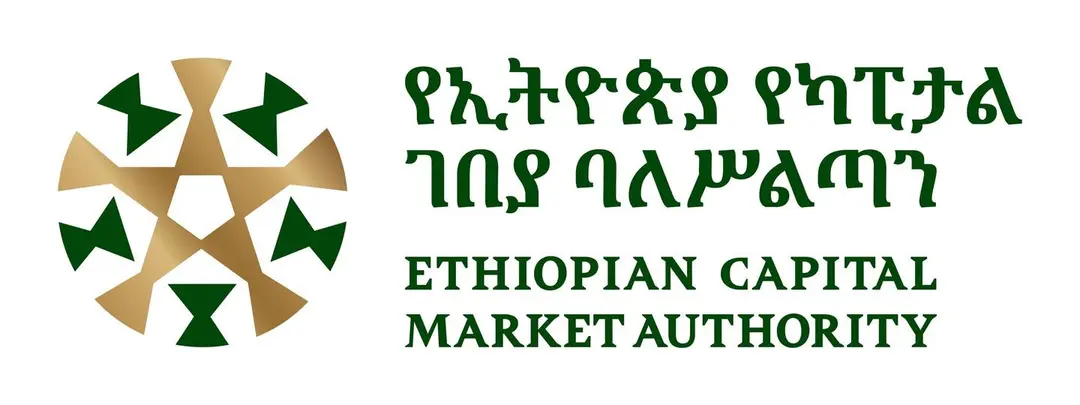

Ethiopian Financial Trio Debut Agar, Integrated Digital Insurance, Credit Service
A fintech, a commercial bank, and an insurance company have joined forces to launch an integrated digital credit and insurance service. Kacha, the first private mobile money service provider, Lucy Insurance, and Global Bank announced the partnership yesterday morning at the Skylight Hotel. The new service, dubbed Agar, which roughly translates to a supporter in Amharic, allows customers to access insurance without the need for any physical paperwork. The finance trio also debuted a digital credit service for taxi-hailing drivers and a digital salary advance microloan function accessible through Kacha’s mobile application. Adeferes Wesene, CEO of Lucy Insurance, said the new services align with the company’s growing portfolio of services, which increasingly include non-life and general insurance products. The insurance product incorporated in Agar is a third-party motor insurance policy. Car ownership is rising in Ethiopia, with over 1.4 million vehicles on the road, and third-party motor insurance is mandatory. In August of last year, authorities began enforcing a new proclamation that increased third-party car insurance premiums by up to five times, with rates reaching as high as 4,360 birr for private vehicles. Agar collects premiums starting from 5,000 birr while offering standard insurance services through an online portal. To activate the insurance, users must upload details such as their plate number, ownership certificate (Libre), chassis number, and photos of the car via the app.

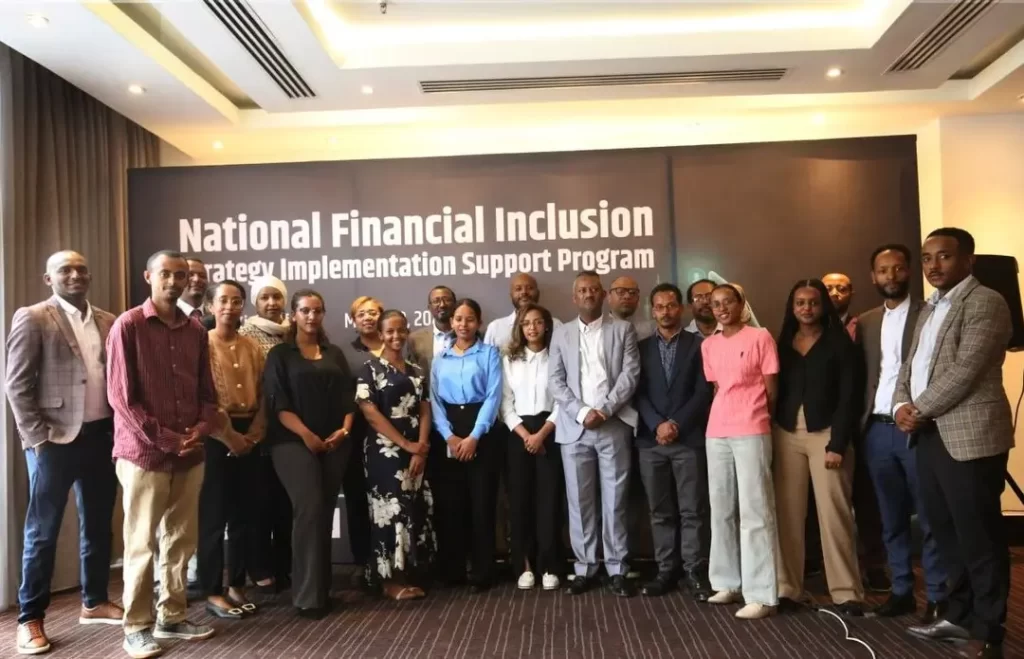
FSD Ethiopia Backs Five Local Financial Inclusion Projects with $1.24M in Grants
Betting on technology, community structures, and strategic partnerships, FSD Ethiopia is investing $1.24 million in grants to support five local projects. The funding, aimed at improving financial access and supporting underserved communities, brings together a diverse range of organizations, from startups to state-owned enterprises, while addressing various challenges and opportunities. The program also backed by the Gates Foundation, will run for two years. The recipients include Ethiopost, Lersha, Pula, Elebat Solutions, and Birrama. Each will leverage digital innovation, agent networks, and community-based strategies with the goal of developing a more inclusive financial ecosystem and driving sustainable economic growth. “We are thrilled to support these projects that align with our mission to create an inclusive financial ecosystem in Ethiopia,” said Hikmet Abdella, CEO of FSD Ethiopia. Through its partnership with Elebat Solutions, a company working on expanding digital financial services, FSD plans to expand a robust network of agents, many of them women, to bring digital payment and savings solutions to remote and underserved areas, boosting financial literacy among SMEs, cooperatives, and village savings groups.
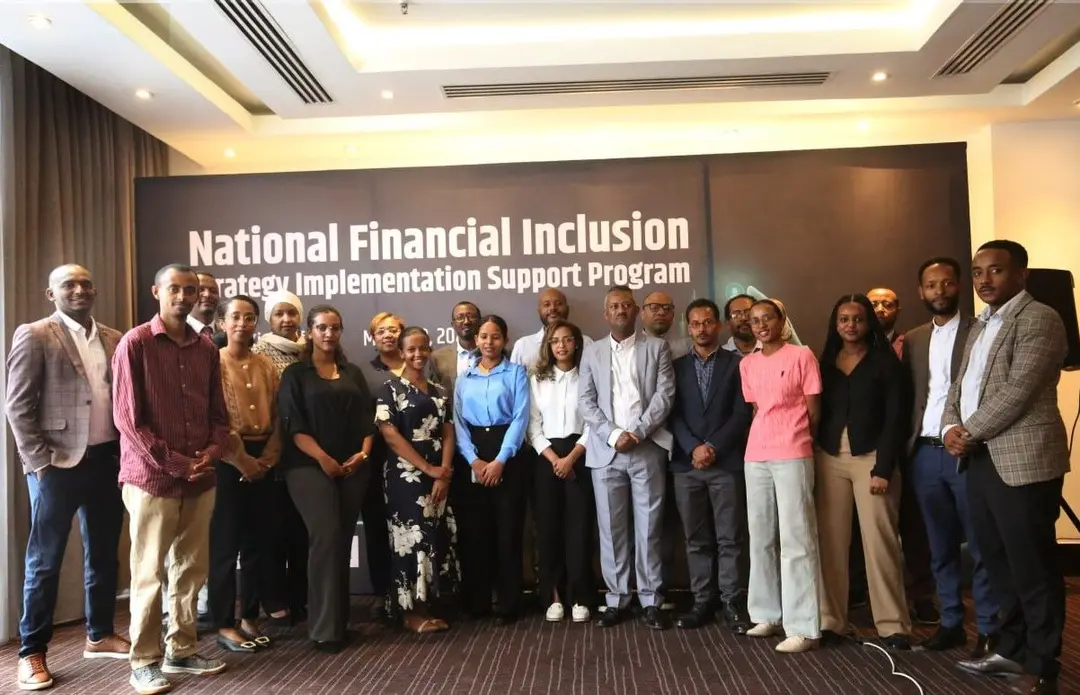
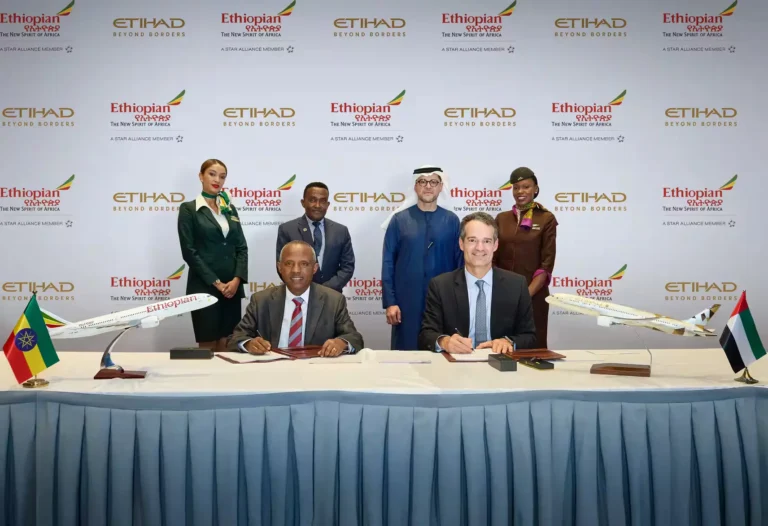
Etihad, Ethiopian Plans New Flights Between Addis Ababa and Abu Dhabi
ADDIS ABABA- Etihad (EY) and Ethiopian Airlines (ET) have established a Joint Venture that transforms connectivity between Africa, the Middle East, and Asia. The partnership was finalized at Ethiopian Airlines’ headquarters in Addis Ababa (ADD). This included a codeshare arrangement to expand travel opportunities for passengers across both networks. Ethiopia’s capital, Addis Ababa (ADD), has numerous cultural attractions. It includes the National Museum of Ethiopia, home to the famous fossil “Lucy,” and the vibrant Merkato market. All this will add appeal for tourists and business travellers.
Etihad-Ethiopia New Direct Flights
The partnership will start new direct flights between the capitals of Ethiopia and the UAE. Starting July 15, travelers can fly with Ethiopian Airlines from Addis Ababa (ADD) to Abu Dhabi’s Zayed International Airport (AUH). Etihad will follow with its own daily service to Addis Ababa (ADD) beginning October 1.

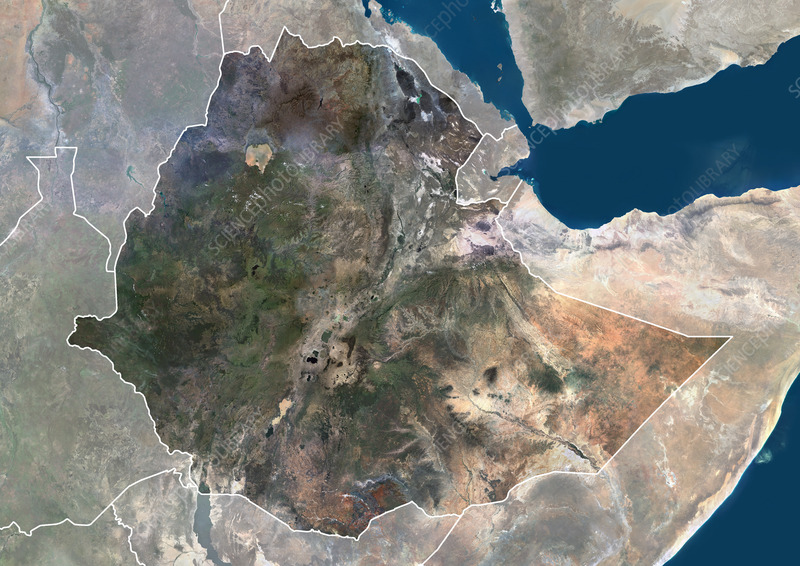
5.5-Magnitude Earthquake Strikes Ethiopia’s Afar Region, Tremors Felt in Multiple Cities
A 5.5-magnitude earthquake struck Ethiopia’s Afar region on Sunday, March 7, according to the U.S. Geological Survey (USGS). The earthquake’s epicenter was located approximately 45 kilometers north of Awash city, a region known for its geological activity. The tremor, which occurred at a relatively shallow depth of 10 kilometers, was strong enough to be felt across several parts of the country, including Addis Ababa.
Series of Seismic Activities in Ethiopia
The earthquake is the latest in a series of tremors that have affected Ethiopia in recent weeks. The last recorded earthquake in the country occurred nearly two weeks ago, on February 23, 2017, when a 5.2-magnitude tremor struck 46 kilometers east of Adigrat city. Similarly, earlier this month, a 6.0-magnitude earthquake was recorded just six kilometers from Metahara city, although it did not cause significant damage due to its deeper epicenter. Despite being slightly weaker than the Metahara earthquake, Sunday’s tremor was felt more widely, with reports of shaking from multiple areas, including the capital. Geological experts have highlighted that earthquakes measuring between 5.5 and 6.0 on the Richter scale have the potential to damage buildings and infrastructure, depending on their depth and location.
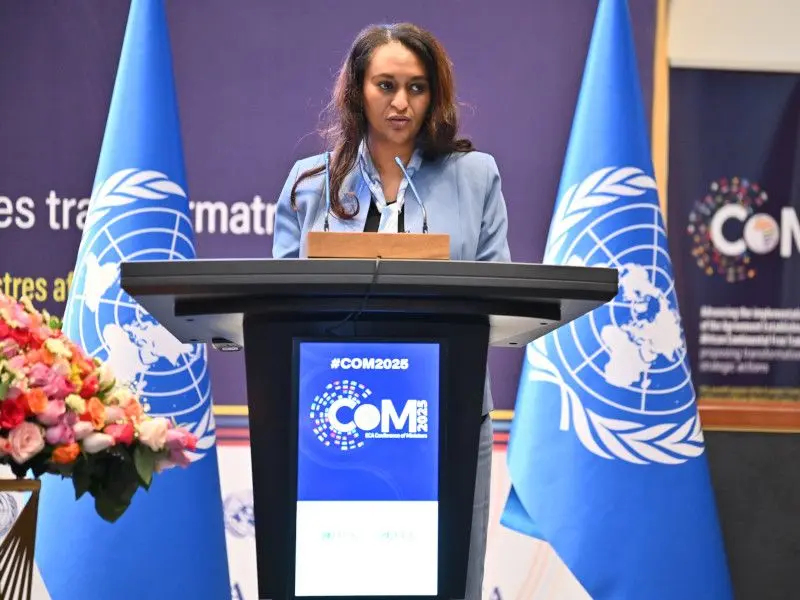
Africa’s Intracontinental Trade Underwhelms Amid AfCFTA Pursuit
Nearly seven years after the African Continental Free Trade Area (AfCFTA) agreement was adopted, intracontinental trade in the continent remains sluggish, at around 14.6%. Progress in the free movement of people protocol, which looks to reduce mobility between African countries, is also dragging, with just four countries having ratified it. Representatives and experts from several African countries gathered in Addis Ababa last week for the Conference of African Ministers of Finance, Planning and Economic Development to advance agreements for the establishment of AfCFTA. Antonio Pedro, Deputy Executive Secretary at the Economic Commission for Africa (ECA), underscored the importance of leveraging the AfCFTA to minimize the fallout from the increasingly undermined multilateral global trading system. He questioned the feasibility of importing fertilizer and petroleum products when locally manufactured alternatives are available. “Are there self-imposed barriers?” Antonio enquired. The Deputy referred to trade relations between the Democratic Republic of Congo (DRC) and Cameroon, highlighting how the two countries were more trade-distant to one another than they were to China or the United States of America. While the AfCFTA would cap continental efforts stretching back nearly six decades, it faces considerable challenges in a rapidly multipolar global setting. A whopping 410 billion dollars would be required by the AfCTA just to meet demands in transport infrastructure, according to a study conducted in 2022. In an ideal scenario, the AfCTA could grow into one of the most powerful free trade areas, encompassing 54 countries and over 1.2 billion people.


Ethiopian Airlines get a boost from AfDB for its ambitious project
Ethiopian Airlines, one of Africa’s top airlines, situated primarily in Ethiopia, recently signed a deal with the African Development Bank to work on an airport project.
- Ethiopian Airlines signed a deal with the African Development Bank to work on the Bishoftu International Airport Development Project.
- The $7.8 billion project aims to increase Ethiopia's airport capacity to handle 60 million passengers annually by 2040.
- Ethiopian Finance Minister highlighted the support from the AfDB, which included $1.2 billion in investments.

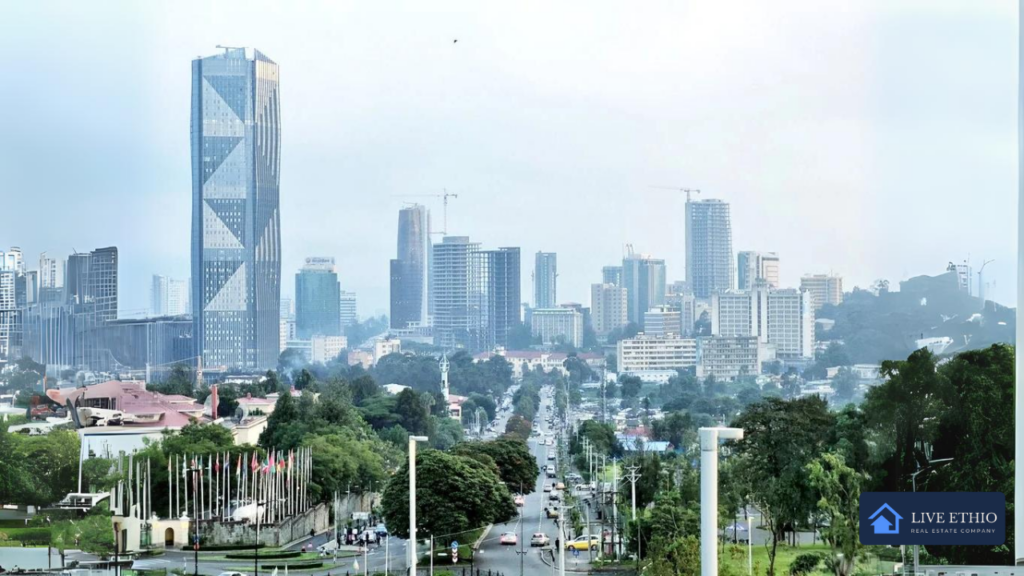
Investment Crisis in Ethiopia: Rising Costs and Uncertainty Drive Business Exodus
Amid shifting policies and persistent instability, investors in Ethiopia are grappling with significant challenges in managing their businesses, with many opting to migrate abroad in search of more favorable opportunities. In response, the Addis Ababa Investors Forum recently brought together key stakeholders, offering a platform for them to share their struggles and call for a united approach to overcome these obstacles.
Ethiopia’s shift to a market-based foreign exchange system in July 2024, which saw the Ethiopian birr devalued by 30% against the US dollar, has further complicated the investment climate, particularly for those looking to enter the country’s industrial parks. “It is not profitable to buy the land with USD,” said Ashenafi Mussie, President of the Addis Ababa Investors Forum. “Because most of our customers are domestic.”
He further noted that many investors are reconsidering their plans to join the industrial parks, as other sectors have become more profitable. “For instance, if an investor wants 10,000 square meters of empty land, it will cost around ETB 400 million. With this investment, the investor could instead start an alternate, more profitable business,” he emphasized.
In addition to these challenges, the Addis Ababa Investors Forum, which represents over 65,000 investors, highlighted several key issues that are hindering investment. The president pointed to a limited land supply, restricted access to credit, higher taxes, and ongoing political instability and insecurity. As a result, many investors are now migrating abroad in search of more favorable opportunities.
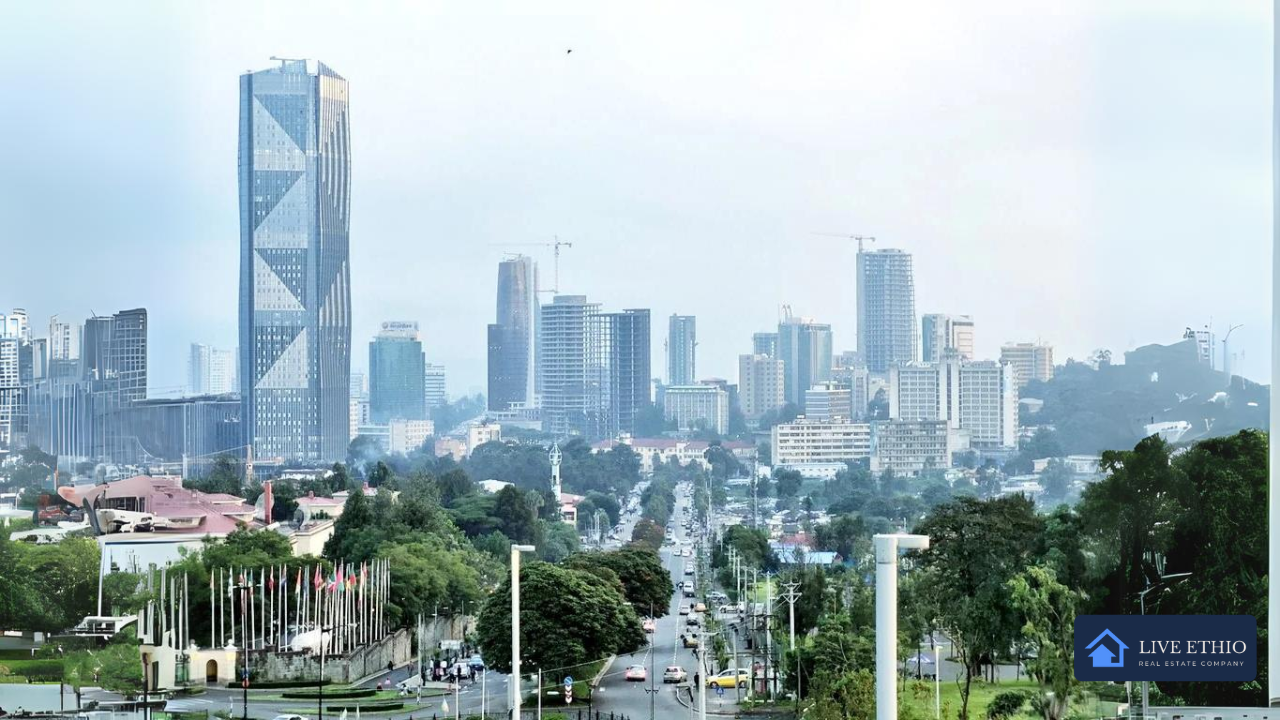
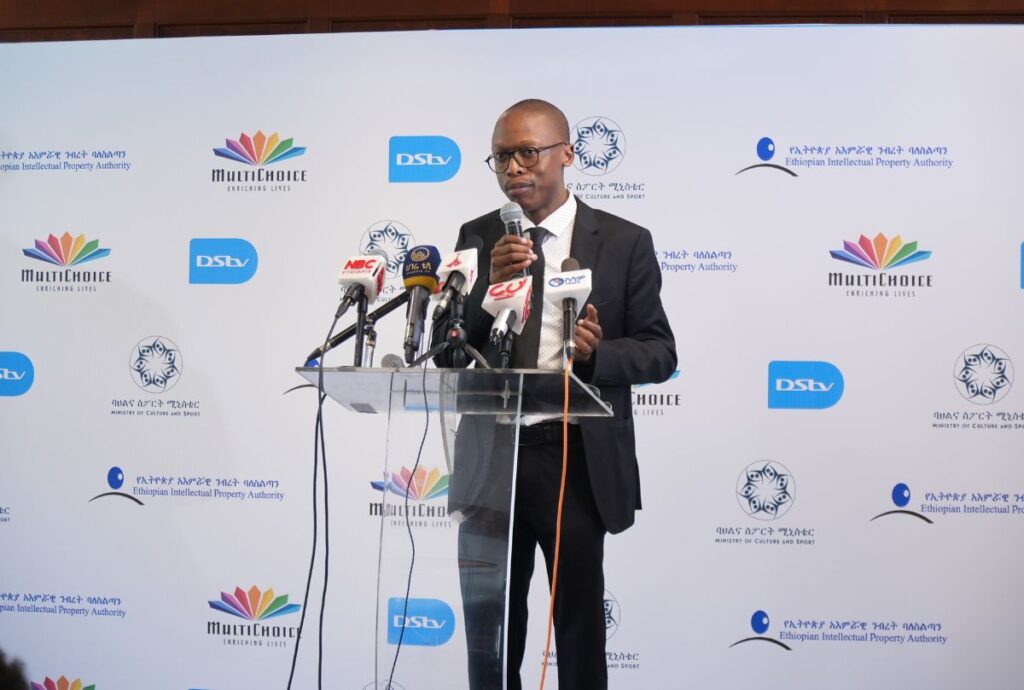
Preserving Culture: Ethiopia Partners with MultiChoice Africa to Tackle Piracy
In a move to safeguard Ethiopia’s cultural heritage and bolster its creative economy, the Ethiopian Ministry of Culture and Sport (MOCS), the Ethiopian Intellectual Property Authority (EIPA), and MultiChoice Africa Holdings B.V. (MAH) announced the signing of a landmark Memorandum of Understanding (MoU). This agreement aims to collaboratively combat piracy and enhance the protection of intellectual property rights in Ethiopia. The MOCS is dedicated to promoting and preserving Ethiopia’s rich cultural wealth, history, language, art, and sports. EIPA, established in 2003, is responsible for administering and implementing state policies on intellectual property to strengthen IP protection in Ethiopia. As Africa’s leading entertainment company, MultiChoice Africa has been providing high-quality entertainment to Ethiopian subscribers for nearly three decades, fostering a strong connection with its audience and contributing significantly to the local media landscape. The MoU builds upon previous collaborations under the Partners Against Piracy (PAP) program, MAH’s Pan-African initiative to combat piracy. It further solidifies the strategic partnership among the three entities, underscoring their shared commitment to address the escalating threat of piracy, which impacts creators, the economy, and cultural heritage.
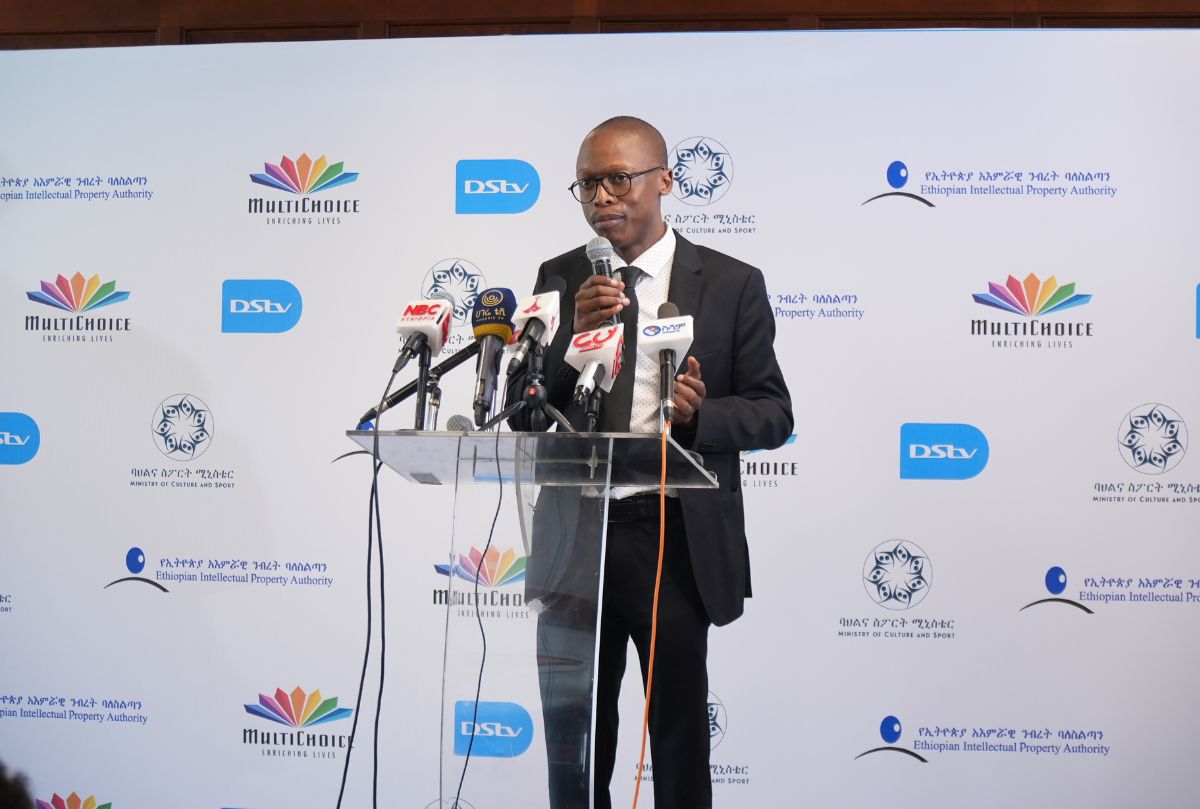

Ethiopia to Launch Its Third Earth Observation Satellite in 2026 with Chinese Collaboration
Ethiopia is making significant strides in space technology with plans to launch its third Earth observation satellite (EOS) in 2026. This project is spearheaded by the Ethiopian Space Science and Geospatial Institute (ESSGI), in partnership with China. The new satellite is expected to provide higher resolution images and enhanced monitoring capabilities compared to its predecessors. According to Mr. Tesfaye Fufa, the Executive Director of Satellite Monitoring at ESSGI, preparations for the launch are already underway. However, he did not disclose the financial details of the collaboration between Ethiopia and China.
Ethiopia’s Progress in Space Technology
Ethiopia’s space program is relatively young, but it has made notable advancements in a short time:- First Satellite (ETRSS-1, 2019): Launched in December 2019 with assistance from China, the Ethiopian Remote Sensing Satellite-1 (ETRSS-1) was designed for agricultural monitoring, environmental management, and climate observation.
- Second Satellite (ET-SMART-RSS, 2020): The ET-SMART-RSS was launched in December 2020 and had enhanced capabilities for remote sensing and scientific research.
- Third Satellite (Planned for 2026): The upcoming satellite will feature improved imaging technology, allowing for more precise data collection and disaster prediction.


The 8 best Ethiopian restaurants in and around D.C.
Unrest around the world tends to bring good food to the nation’s capital. Ethiopians began settling in the District after the overthrow of their emperor, Haile Selassie, in 1974. Low rents saw Ethiopian restaurants pop up first in Adams Morgan, then in other neighborhoods, including Shaw, and in Maryland and Virginia. As the cost of doing business increased, Ethiopian operators decamped for more affordable spots in the area.

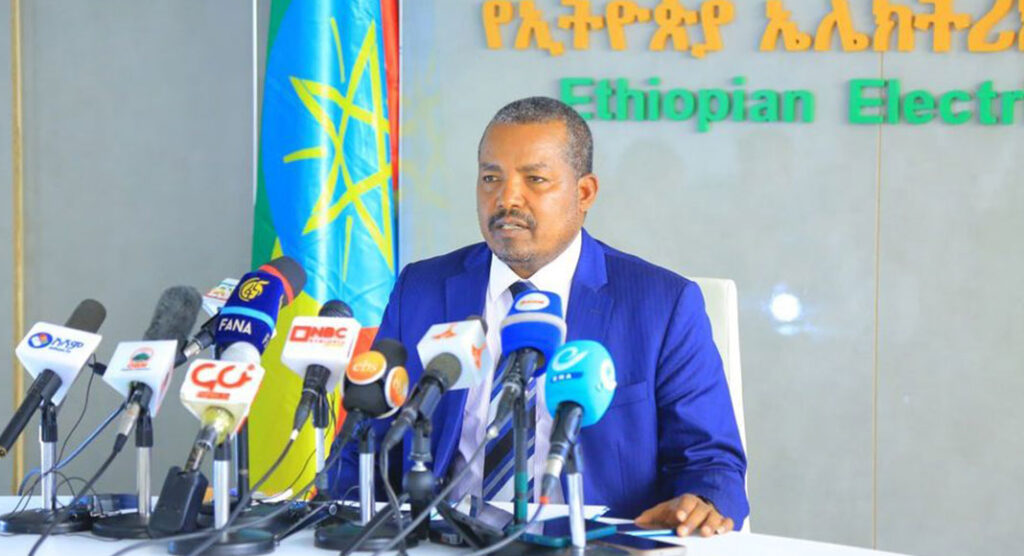
Ethiopia to Increase Electricity Tariffs Starting April
Ethiopian Electric Service has announced that from April to June, electricity tariffs will increase for both consumption and service fees.
According to the statement, starting in April, residential customers consuming up to 0.50 kWh will see their tariff increase to 0.60 cents per kWh. Additionally, service fees will also rise, with postpaid customers paying 10 ETB and 95 cents, while prepaid customers will pay 4 ETB and 18 cents.
For residential customers:
- Those consuming between 51 and 100 kWh will now pay 1 ETB and 49 cents per kWh.
- Those using between 101 and 200 kWh will pay 2 ETB and 67 cents.
- Customers consuming between 201 and 300 kWh will be charged 3 ETB and 84 cents per kWh.
Service fees will also vary based on consumption. The maximum charge for postpaid users will be 45 ETB and 80 cents, while prepaid users will pay 15 ETB and 97 cents.
Bahiru Olijira, Executive Director of Energy Supply and Distribution Regulation at the Ministry of Petroleum and Energy, confirmed that these tariff adjustments will take place every three months, beginning in April.
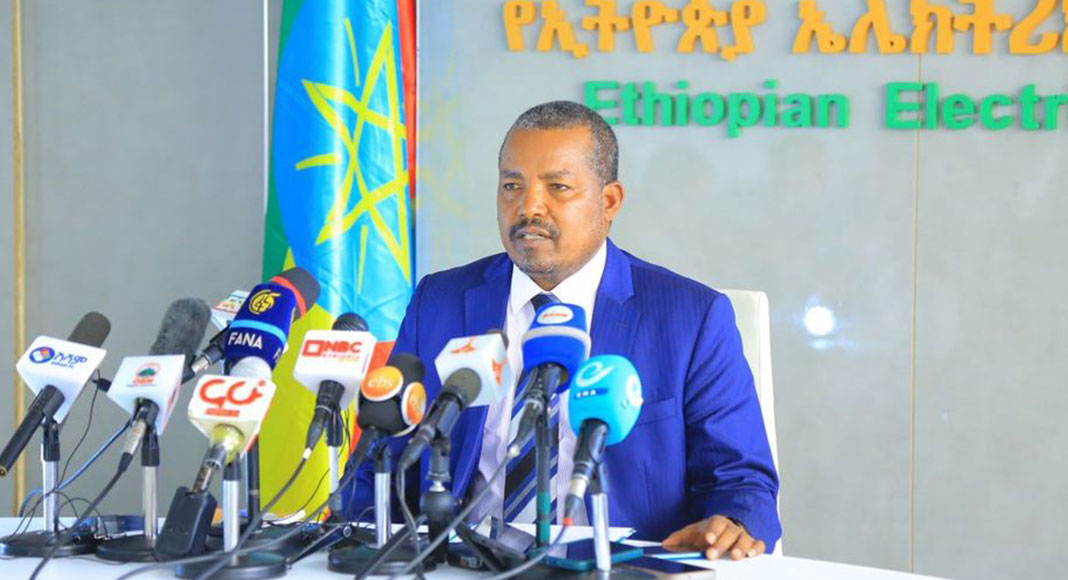

NBE’s Forex Auctions: Is Ethiopia’s Market-Based Exchange Failing?
As banks compete for scarce dollars, concerns grow over the transparency and effectiveness of Ethiopia’s forex auctions.
Ethiopia’s commercial banks are facing a severe liquidity crisis, worsened by recent policy changes and financial sector inefficiencies. The National Bank of Ethiopia’s (NBE) strict credit cap and high demand for cash have left banks struggling to meet withdrawals and sustain lending. The shift to a market-based foreign exchange system has further drained liquidity, making it harder for banks to issue loans and increasing financial distress.
Amid this crisis, NBE’s recent forex auction has sparked concerns among experts, particularly about its timing and lack of transparency. With limited cash available, banks are being forced to prioritize forex bidding over lending, potentially worsening the credit shortage. “Cash is disappearing from the banking system as businesses struggle to transact. Some banks are even buying local currency, birr, at an interest rate,” said Getachew, an economist and public policy expert. “The first auction after floating the birr was necessary to show stability, but this one raised serious questions.”
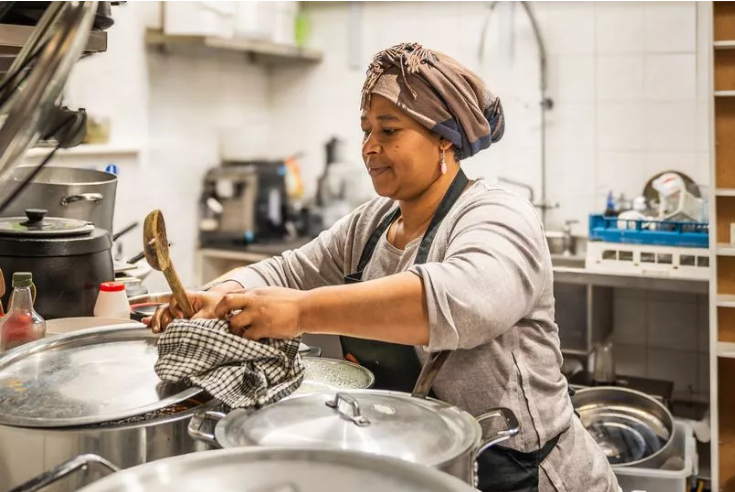
The Ethiopian cafe in Easton serving up traditional home-cooked dishes
There's a cafe in Easton that is serving up traditional Ethiopian grub, home cooked by Meriam Ababo, who grew up in capital Addis Ababa. Meriam's Ethiopian cafe Ababo's Cuisine is within Easton Community Centre and has quickly become a beloved spot in the local community since it opened in early 2024. What started as a passion for sharing the vibrant, rich flavours of her home country, has blossomed into a thriving cafe that serves up 'delicious' food and also a warm and welcoming atmosphere, so diners say. Meriam's passion project first gained popularity at local events like the Bristol Harbour Festival and Refugee Festival, before she made the leap into opening her own spot in the heart of Easton. “Our house in Addis Ababa in Ethiopia was always full of people and delicious food," Meriam says, "and the kitchen was the heart of our home. Now, I’m honoured to bring that same spirit of hospitality to Easton.
Ababo’s Cuisine serves a variety of traditional Ethiopian dishes, many of which are naturally gluten-free, dairy-free, nut-free and vegan. Meriam also offers halal options, making her café a diverse and inclusive destination for all members of the community.
First-time visitors are encouraged to try the misir wat, a hearty and flavourful spiced lentil dish served on freshly-made injera (a traditional Ethiopian pancake), which Meriam says offers a perfect introduction to the authentic tastes of Ethiopia.

Addis International Convention Center: A 28 Billion ETB Landmark for Ethiopia’s MICE Industry
The Addis International Convention Center (AICC), a state-of-the-art facility in Addis Ababa, Ethiopia, has been completed with an investment surpassing 28 billion ETB. This mega project aims to position Ethiopia as a premier destination for global conferences, trade fairs, and high-profile events.
According to AICC Chief Executive Officer Sisay Gemechu, more than 22 billion ETB of the total investment came from shareholders’ capital. The convention center is expected to drive economic growth by boosting tourism, attracting international business, and creating employment opportunities in Ethiopia’s event management, hospitality, and service industries.
A Hub for International Events and Business
The AICC is designed to meet international standards for event hosting, offering a highly modernized infrastructure that can accommodate a diverse range of gatherings, from diplomatic summits and corporate meetings to cultural exhibitions and trade fairs.
The facility is one of the largest of its kind in East Africa and provides comprehensive services to event organizers and attendees.


Ethiopia to Purchase Six Cargo Ships to Enhance Trade and Investment
Addis Ababa, February 27, 2017– Ethiopia is set to strengthen its maritime transport capacity with the acquisition of six new cargo ships, the Ethiopian Maritime Transport and Logistics (EMTL) has announced. The move is part of the country’s broader strategy to expand its logistics infrastructure and enhance trade efficiency.
According to EMTL, two of the six ships have already been purchased and are currently being prepared for commissioning. These vessels are Ultramax dry bulk carriers, each with a carrying capacity of 62,000 tons, and are expected to significantly improve the country’s ability to transport bulk goods such as grain, minerals, and industrial raw materials.
Additionally, an ETU container ship with a capacity of 3,000 to 4,000 containers is included in the new fleet. This container ship will enhance Ethiopia’s ability to manage imports and exports, particularly for manufactured goods and agricultural products, which are key drivers of the nation’s economy. The acquisition aligns with the government’s ongoing efforts to modernize Ethiopia’s logistics and transportation sector, a crucial element in improving international trade competitiveness.
A Boost for Ethiopia’s Maritime Transport Sector
Ethiopia, a landlocked country, relies heavily on maritime trade through the Port of Djibouti, which serves as its primary gateway for international shipments. Strengthening the national fleet is expected to reduce dependency on foreign shipping lines, lower transportation costs, and improve the efficiency of import and export logistics. The additional ships will also enhance the country’s ability to transport essential commodities and facilitate faster delivery of goods.

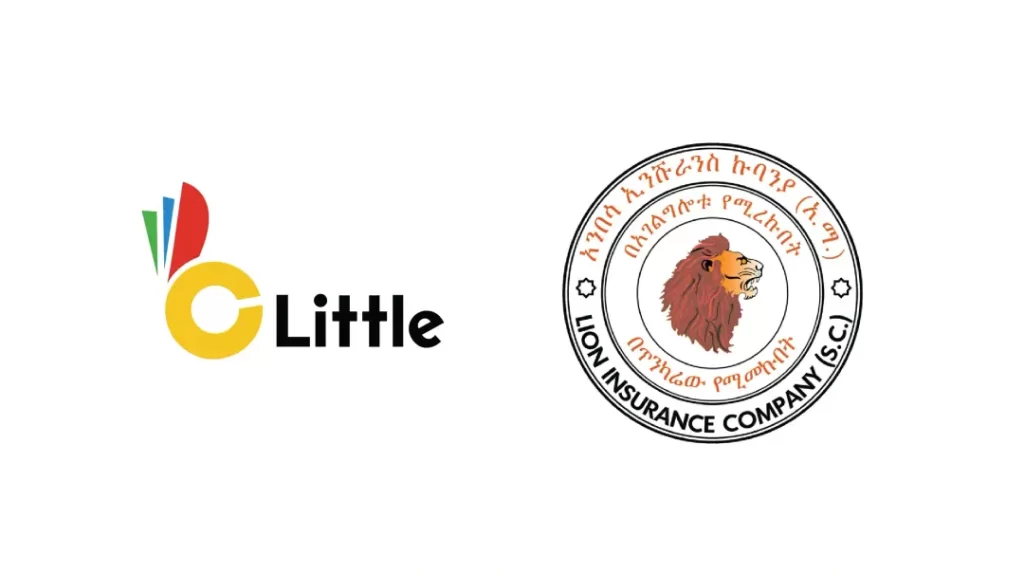
Little Ethiopia, Lion Insurance Partner for Digital Insurance Product in Ride-Hailing Industry
A landmark partnership between ride-hailing company Little Ethiopia and Lion Insurance introduces insurance coverage for passengers and drivers covering up to one million birr in claims. The digital insurance product, unveiled at the Skylight Hotel on Tuesday, charges passengers an additional 15 birr per trip as a premium. Abraham Mersha, CEO of Lion Insurance, lauded their product a game-changer for the ride hailing industry. He pointed out that Little was an ideal partner for the digital insurance service in consideration of its high corporate clientele. Passengers are assigned a unique ID number that codifies details of the trip and sends it out to the insurer, the ride-hailing company, and the customer. “We will use the ID to settle claims after an accident,” Abraham told Shega. The CEO further noted that a maximum insurance payout of one million birr would be provided in the event of death during the trip. In Kenya, where Little also operates and offers similar coverage, the insurance protects riders against total and permanent disability, hospitalization expenses, and death due to an accident during a trip. It also includes ambulance service reimbursements and provides a lump-sum cash payout (hospital cash) for hospital admission resulting from an accident. While Ethiopia has experienced marked growth in the financial industry over the past few years, most of the gains have been concentrated in banks and microfinance institutions. Less than 1% of Ethiopians are currently insured, with nearly three-quarters of the coverage being for motor and maritime insurance. Ethiopia’s insurance industry lags in terms of diversity and penetration. Little’s new service is supplementary to the existing third-party insurance required of ride-hailing company drivers.
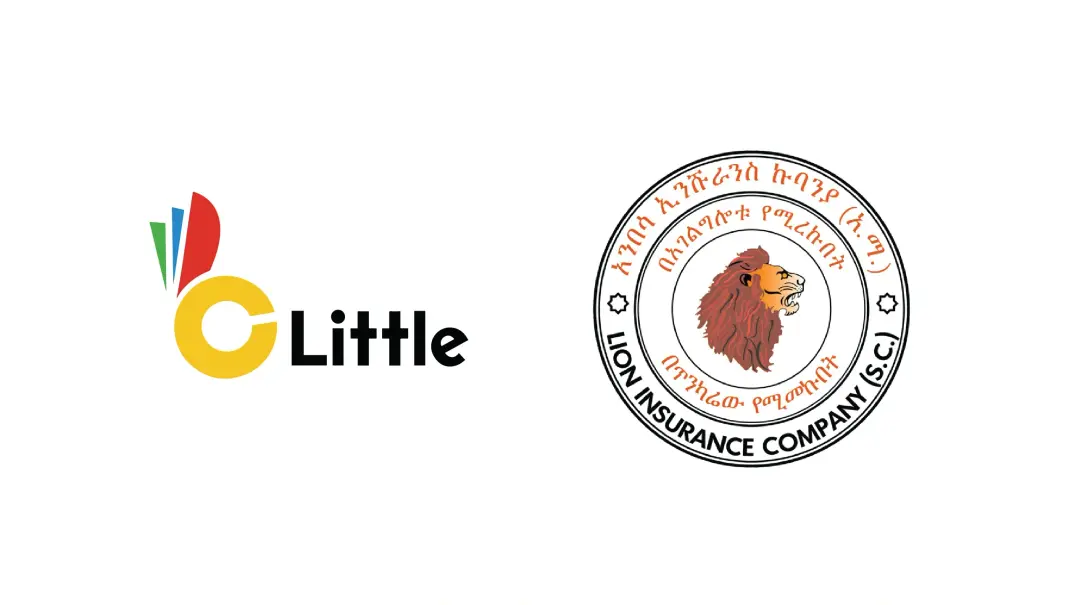
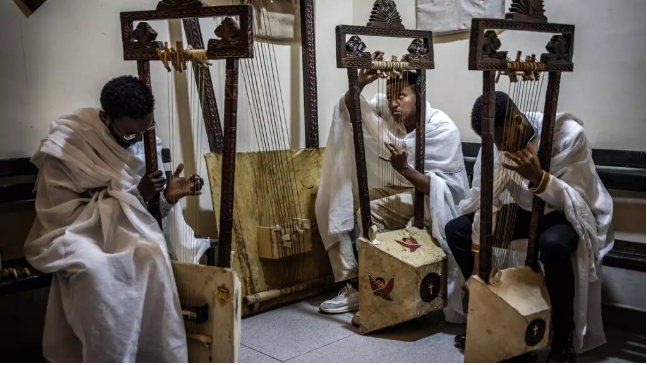
Ethiopia’s ancient instrument begena healing souls
One of the country's oldest instruments, the begena was once reserved for the elite -- and effectively banned during the Marxist Derg regime between 1974 and 1991. But it is experiencing a resurgence among Ethiopia's artistic community. For the past three years, Biruktawit's group has visited a nursing home in Addis Ababa every Friday to play for its residents. The begena "is medicine for the soul," said Biruktawit, 23, who has been playing the instrument for about a year. Legend has it that the instrument was brought over from Israel in the 10th century BC by Menelik I, Ethiopia's first emperor, who received it from King David. For centuries, the instrument's music has accompanied the prayers and meditations of monks of the Ethiopian Tewahedo Church, which represents about 40 percent of Ethiopia's 120 million people. That association with religion meant it fell from favour as the country turned towards communism in the 20th century, but it has slowly returned. Resembling a harp or a large lyre, trapezium-shaped and about a metre tall, it has 10 strings —- traditionally made from sheep's intestines -- that symbolise the Ten Commandments. It is plucked with the left hand, either bare or with a plectrum, while players wear a netela -- a traditional white cloth -- draped across the chest for men, and in the form of a veil for women.

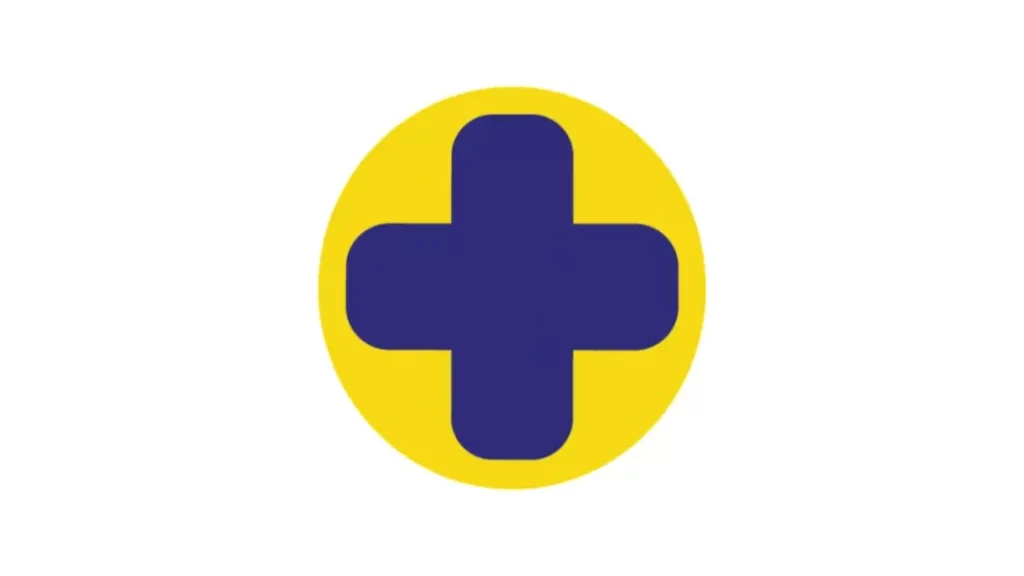
Healthcare Startup Debuts Prescription Platform
A healthcare startup looks to digitize the management of medical prescriptions through an e-prescription system that allows patients to directly link with pharmacies. MedRafa entices pharmacies with a free-to-use inventory management system while offering patients an easy-to-use tool to check on available medicines. The startup is a recent graduate of WeVenture Hub, a venture capital-backed incubator formed last year. Ben Tesfaye, Co-founder and CEO of Medrafa, expects the free inventory management system to serve as a stepping stone towards the digitization of retail pharmaceutical sales. He says the ability to easily track expiration dates with alerts, purchase order management, and sales history tracking will significantly enhance the efficiency of pharmacies. “Every dataset is seamlessly interoperable,” Ben told Shega. The platform is built on Fast Health Care Interoperability Resources (FHIR) standards, an international framework for exchanging health care information electronically to ensure interoperability with Electronic Medical Records (EMRs). Precise prescription management, automated links to pharmacies, and easy accessibility for patients are being targeted by the founders. Ben says pharmacies waste significant time and resources due to the manual registration of data. By showcasing the benefits of the inventory management portal, he hopes to bring about a seamless transition into their automated prescription system.

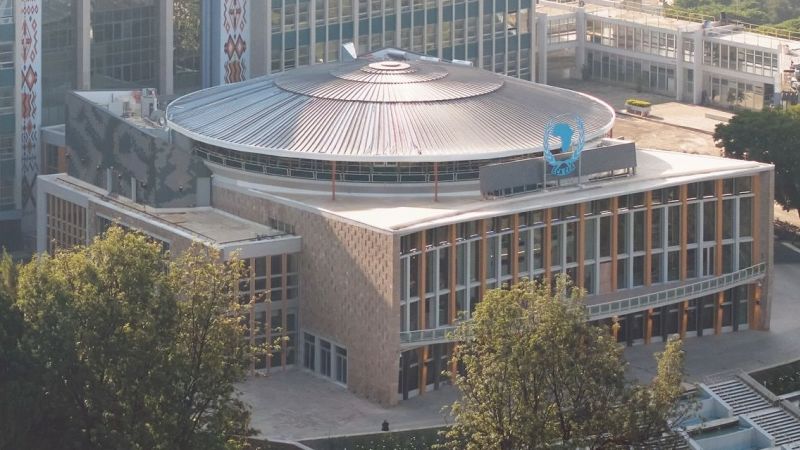
Gifted by an emperor, Ethiopia’s iconic Africa Hall has been renovated for a new era
Only 26 African countries had achieved independence when, in February 1961, Ethiopian Emperor Haile Selassie ascended a sloping staircase to inaugurate Africa Hall in Addis Ababa, which he gifted as the new headquarters for the UN Economic Commission for Africa (ECA).
A dominating presence in the heart of the Ethiopian capital, adorned with a sweeping 150-square-meter (1,614-square-foot) stained-glass window, the structure, designed by Italian architect Arturo Mezzedimi, had taken just 18 months to build. Fittingly then, it didn’t take long before the building became the site of a landmark event in the story of modern Africa.
Just over two years later, Selassie once again made the climb to welcome the founding members of the newly formed Organization of African Unity (OAU) to their home — a meeting place intended to foster cooperation, drive economic progress and eradicate colonialism across the continent.
Addressing representatives of the then-32 independent African states, Selassie declared that the continent was “at midcourse, in transition from the Africa of yesterday to the Africa of tomorrow.”
“We must act to shape and mold the future and leave our imprint on events as they slip past into history,” he continued. More than 60 years later, Selassie’s message has come full-circle: Africa Hall has been shaped and molded anew.

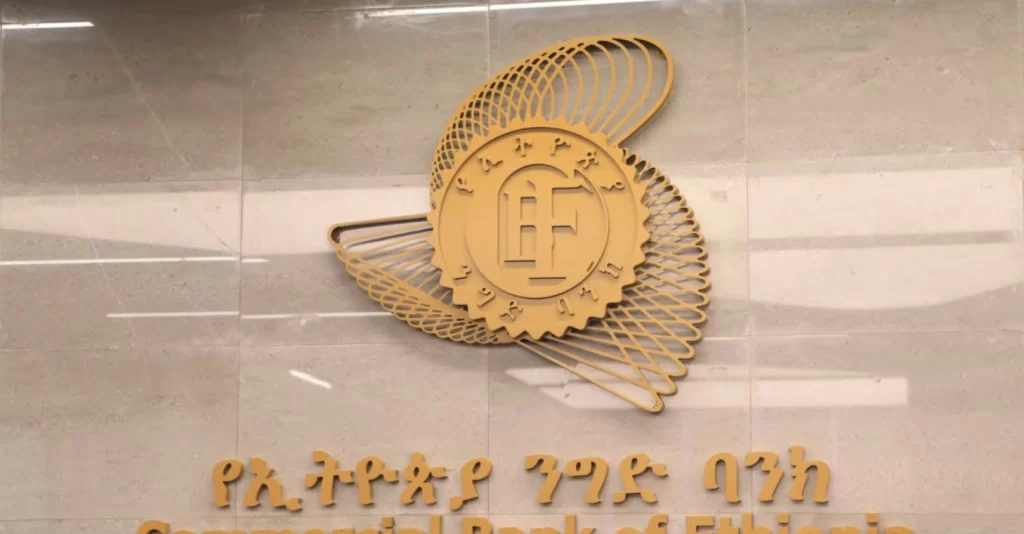
Commercial Bank of Ethiopia Revises Loan Interest Rates
Addis Ababa, Ethiopia – March 4, 2025 – The Commercial Bank of Ethiopia (CBE) has announced adjustments to its loan interest rates, effective March 7, 2025. The changes are part of broader financial sector reforms aimed at aligning lending practices with market conditions, improving financial inclusion, and ensuring the long-term sustainability of Ethiopia’s banking industry.
Overview of the Adjustments
The revised interest rates apply to a range of loan categories, including commercial, agricultural, residential, and personal loans. The bank states that these adjustments are designed to maintain competitiveness while supporting borrowers across different sectors. The new rates aim to reflect market trends, enhance accessibility, and provide businesses and individuals with more flexible financing options.


New International Convention Center in Addis Ababa Ready for Official Opening Today
Addis Ababa, Ethiopia – The grand opening of the New International Convention Center today marks a major milestone in Ethiopia’s efforts to establish itself as a premier destination for global business events, conferences, and exhibitions. Situated on 40 hectares of prime land, the center is designed to accommodate a diverse range of events, from corporate gatherings to cultural festivals, significantly enhancing the country’s hospitality and tourism sectors.
With cutting-edge infrastructure, the center aims to foster both local and international collaboration, offering world-class facilities for those attending major events. It is positioned to become the largest conference facility in Ethiopia and one of the most expansive in East Africa, bolstering the country’s standing in the international events and conventions industry.

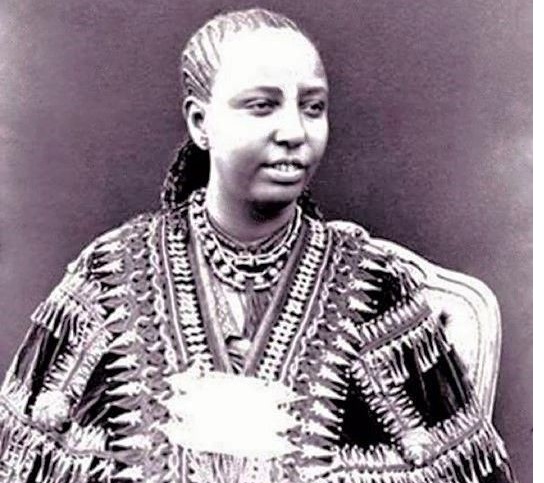
Adwa’s Warriors: Ethiopian Women Who Marched for Freedom Before March 8
Every year on March 8, the world celebrates International Women’s Day, a global recognition of the social, economic, cultural, and political achievements of women. While the day highlights women’s contributions across the world, it also serves as a call to action for gender equality. However, it is important to remember that Ethiopian women have been leading and fighting for their rights long before the global recognition of this day in 1911. One of the most powerful examples of Ethiopian women’s leadership and resistance is their participation in the Battle of Adwa in 1896.
The Battle of Adwa: A Historical Victory
The Battle of Adwa, fought on March 1, 1896, was a defining moment in Ethiopia’s resistance against Italian colonialism. Under the leadership of Emperor Menelik II, the Ethiopian army successfully defeated the Italian forces who had come to colonize the country. The victory at Adwa not only preserved Ethiopia’s sovereignty but also marked the first major defeat of a European colonial power by an African nation, making it a symbol of resistance for all of Africa.
While the battle is often remembered for the military prowess of Ethiopian men, it is essential to recognize the significant contributions of Ethiopian women—both on the battlefield and in the background—that were integral to this victory. In a country where women’s leadership was often overlooked, the participation of Ethiopian women during the Battle of Adwa showcased their bravery, resilience, and strategic acumen long before the world officially began commemorating International Women’s Day.


Commercial Bank of Ethiopia Tightens Access to Customer Accounts Amid Escalating Fraud Crisis
In a drastic move to curb mounting fraud, the Commercial Bank of Ethiopia (CBE) has significantly restricted access to customer account balances, a policy shift that threatens to complicate the bank’s service delivery. As of February 24, 2025, tellers across the country no longer have access to account balances, leaving this privilege solely to senior officials, including Branch Managers and Business Managers. The change, outlined in a memo from CBE’s Acting Director of Retail Business Development, Kidus Minyishu, aims to address the growing concerns over widespread fraud affecting the bank, which holds a commanding share of Ethiopia’s financial market. The bank, responsible for more than 60% of the nation’s bank deposits, has been a prime target in a wave of financial crime that has put both CBE and Ethiopia’s broader banking infrastructure under increasing strain.
A Rising Tide of Financial Crimes
The decision to limit access to account balances follows a troubling surge in fraudulent activities across Ethiopia’s banking sector. According to the National Bank of Ethiopia’s (NBE) 2023 Financial Stability Report, the number of fraud incidents doubled, reaching a staggering one billion birr in the past fiscal year. Further NBE updates indicate that fraud losses soared to 1.3 billion birr in 2023/24, a stark increase from the previous year, with scams targeting both customers and banking systems alike. These fraudulent schemes span a wide range of activities, from counterfeit currency and check forgery to ATM card theft and phishing scams. The rise of digital banking and the expansion of third-party services, which often involve external vendors and partners, have only exacerbated the risk of exploitation.

Medieval Christianity Was More Connected Than You Think: The Ethiopian Monk’s Story
Medieval Christianity was not a monolithic, Europe-centered institution—it was a network of diverse communities stretching from Ethiopia to Jerusalem and beyond. One Ethiopian monk’s bold attempt to reshape his church’s hierarchy offers a striking example of how Christian communities across the medieval world were deeply interconnected.
By Cait Stevenson
There’s no question that the term “medieval world” means something radically different today than it did in 1953. That’s when R. W. Southern published the massively important, paradigm-shifting, and somehow still readable The Making of the Middle Ages—which accepted a thin arc of northern France and England, almost exclusively, as making the Middle Ages. Today, the adventurous follow the Indian Ocean trade currents from the Swahili city-states to Arabia to India; archaeological data about the Mongols serves as evidence for the environmental history of Europe; the sheer volume of scholarship on “perceptions of the [Christian, Muslim, Jewish, Zoroastrian] Other” could sink an aircraft carrier.
While the concept of a “Global Middle Ages” is now widely accepted, scholars remain hesitant to apply the same perspective to global Christianity. But the existence of a Christian world was no less true in the High Middle Ages than in late antiquity or the age of empire. This refers to the presence of thriving Christian communities, of course, but equally to moments of connection between them.


There Are 616 Ethiopian Restaurants in the U.S : A State-by-State Breakdown
Ethiopian cuisine has firmly established its presence in the United States over the past few decades. Known for its flavorful wot (stews) served atop injera – a tangy, spongy flatbread made from the grain teff that doubles as both plate and utensil – Ethiopian dining offers a unique communal experience. Diners traditionally share a large platter, tearing off pieces of injera to scoop up bites of richly spiced meats, lentils, and vegetables. The first Ethiopian restaurant in the U.S. opened in 1966 in Long Beach, California, marking the beginning of Americans’ introduction to this ancient cuisine. Since then, Ethiopian restaurants have spread to numerous cities across the country, becoming beloved establishments in many urban dining scenes.
Growth of Ethiopian Restaurants
The growth of Ethiopian restaurants in America closely follows patterns of immigration and cultural exchange. Significant Ethiopian immigration began in the 1970s, especially after political upheavals in Ethiopia, leading to growing Ethiopian-American communities in cities like Washington, D.C., Los Angeles, and New York. Washington, D.C. and its surrounding areas in Virginia and Maryland now host the largest Ethiopian community outside of Africa, and Ethiopian cuisine has been a fixture of the D.C. dining scene since the late 20th century. As these communities grew, enterprising restaurateurs opened eateries to serve familiar foods to the diaspora and introduce the cuisine to curious locals. What started as a handful of restaurants in the 1960s and 1970s has expanded dramatically: a few years ago there were roughly 350 Ethiopian and Eritrean restaurants nationwide, and recent counts indicate there are about 616 Ethiopian restaurants across the United States as of January 2025. This represents a remarkable rise in visibility, although Ethiopian cuisine still remains less ubiquitous than some other international cuisines (for context, those ~350 Ethiopian restaurants were fewer than the number of Chinese restaurants in New York City alone). The expansion continues steadily, with more cities each year getting their first Ethiopian restaurant as awareness of the cuisine spreads.
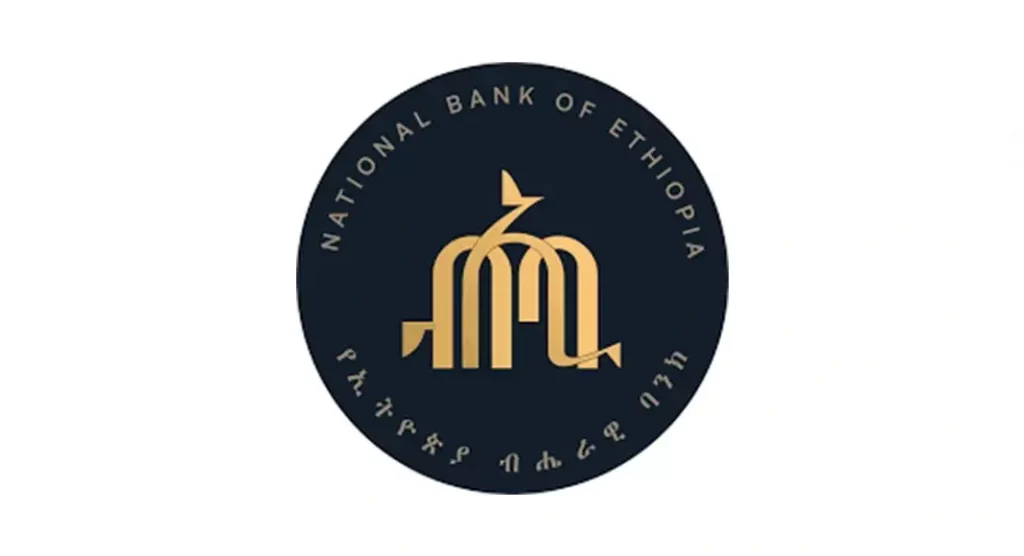
National Bank of Ethiopia Announces Exchange Rate of 135 Birr per USD Following Special ForEx Auction
Addis Ababa, Ethiopia – The National Bank of Ethiopia (NBE) has announced that the average exchange rate for the US dollar reached 135.6185 Birr following a special foreign exchange auction. This latest round of bidding saw the participation of 27 commercial banks, reflecting significant market engagement in the central bank’s ongoing efforts to regulate the forex market.
High Demand and Market Participation
The National Bank emphasized the high level of participation in the auction, noting that this mechanism is part of a broader strategy aimed at enhancing foreign currency availability and ensuring exchange rate stability. By allowing banks to bid competitively for foreign exchange, the auction process is intended to create a more transparent and market-driven forex system. The NBE stated that it will continue to conduct foreign exchange auctions as necessary, adjusting the frequency and volume of transactions based on market conditions and the country’s broader monetary policy objectives.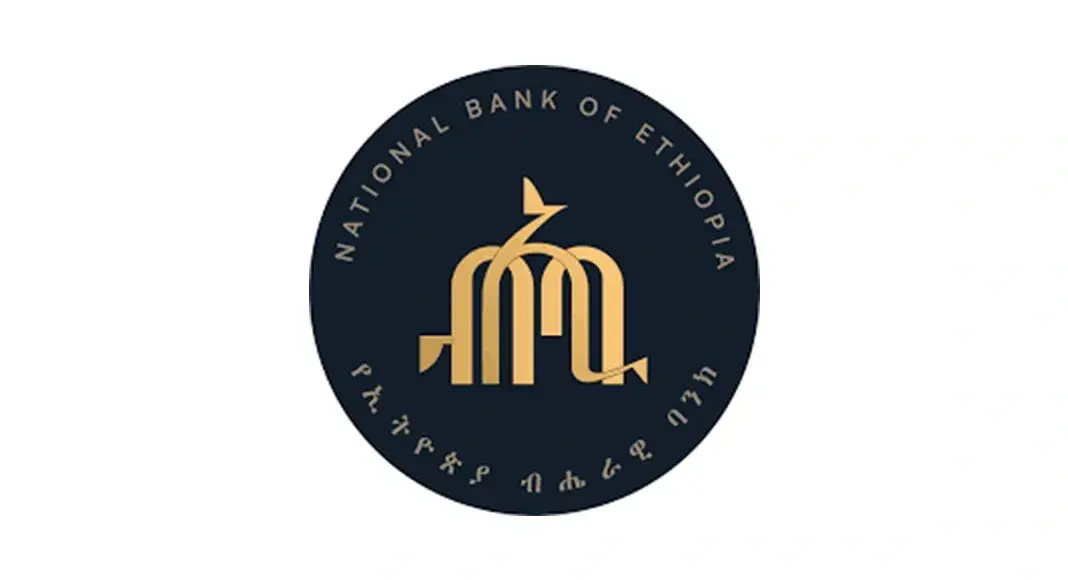

JCB launches heavy-duty 345LC HD excavator in Ethiopia, enhancing construction and mining sectors
Ethio-Nippon Technical Company (ENITCO), the authorized distributor of JCB products in Ethiopia, has officially launched the JCB 345LC HD hydraulic excavator, a robust machine designed to meet the increasing demands of the country’s burgeoning construction and mining industries. Since establishing a partnership with JCB Global in 2011, ENITCO has positioned itself as a key player in Ethiopia’s construction sector. The introduction of the 345LC HD excavator, known for its reliability and durability, is expected to significantly impact the industry, complementing ENITCO’s existing lineup that includes the popular JCB Backhoe Loader. The JCB 345LC HD is engineered as a heavy-duty excavator tailored for high productivity and reliability. It is particularly well-suited for the challenging conditions often encountered in quarries and mining operations. Equipped with a powerful JCB DIESELMAX engine and an advanced hydraulic recovery system, this excavator is designed to minimize downtime and reduce maintenance costs, translating into enhanced efficiency and cost savings for businesses operating in these sectors. ENITCO representatives have emphasized that the launch of the JCB 345LC HD marks a turning point for Ethiopia’s construction and mining industries. “This machine is built to tackle demanding tasks while being supported by ENITCO’s commitment to delivering exceptional service and support to our customers,” said an ENITCO spokesperson.

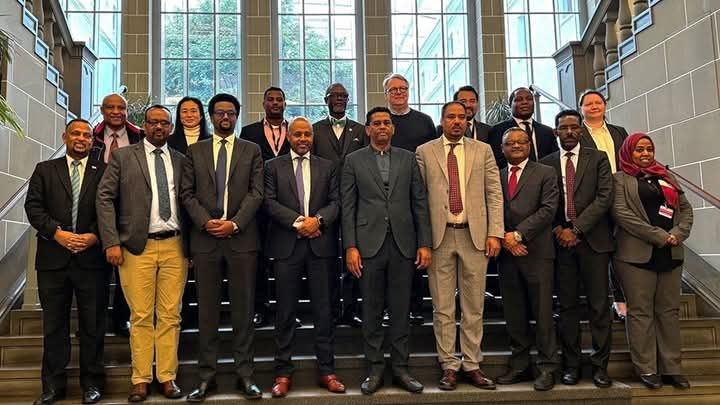
Ethiopia Nears Final Negotiations for WTO Membership
Addis Ababa, Ethiopia – Ethiopia is set to engage in a critical round of negotiations by the end of February or early March as it moves closer to securing membership in the World Trade Organization (WTO). This marks a significant step in the country’s long-standing aspiration to join the global trade body, a process that has spanned over two decades. Ethiopia first applied for WTO membership in 2003, initiating a process that required extensive economic and trade policy reforms to align with the organization’s stringent accession criteria. Over the years, the country has undertaken substantial legislative changes, including revising investment laws, modernizing customs procedures, and reducing state control over key economic sectors to foster a more competitive market environment. The upcoming round of discussions in Geneva will focus on finalizing key agreements, including Ethiopia’s commitments on market access, regulatory compliance, and domestic policy adjustments. The negotiations will cover critical aspects such as tariff structures, the liberalization of service sectors, agricultural subsidies, intellectual property protections, and adherence to global trade standards. A crucial element of these negotiations is Ethiopia’s commitment to ensuring fair competition while protecting local industries from potential external market shocks.

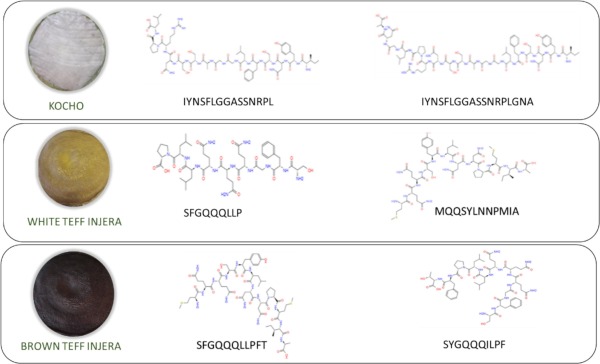
Unveiling the nutritional composition and bioactivity of Ethiopian native fermented foods: Kocho and Injera


A taste of Ethiopia in Vancouver at Fassil Ethiopian Restaurant
Last week, I had the chance to visit Fassil Ethiopian Restaurant, home to warm meals and located not too far from the hustle and bustle of the Commercial-Broadway skytrain station. It’s named after King Fassil (Emperor Fasiladas), who founded Gondar, a city in Ethiopia, after “tiring of the pattern of migration that had characterized the lifestyle of so many of his forefathers.” As soon as I entered, I was greeted by a neat interior gracefully filled with paintings ranging from everyday Ethiopian landscapes to portraits. There were only two staff on the floor on that snowy Thursday night, and both of them welcomed me enthusiastically as soon as I entered. I was immediately entranced by the traditional Ethiopian music that played constantly from the two speakers right above the cashier corner. From the start, it felt like a warm visit to your grandparents’ house. Once I sat down, I was given a menu and ample time and space to decide on what to get. Soon, the chefs themselves came out to greet all the tables. When I admitted this was my first time trying Ethiopian cuisine, huge smiles dawned on their faces. I was recommended to get a taste of everything, so I ordered a veggie combo, a serving of siga keye wot (beef stew with spicy sauce), and doro wot (chicken thigh stew with boiled egg, onions, garlic, and spices). The food arrived — unexpectedly, in a huge silver platter with all my orders on it. Accompanying this platter was a plate of injera (flatbread) that was supposed to be eaten together with the stews and veggies. One thing I noticed once all the food arrived was there were no utensils. Fassil encourages the Ethiopian tradition of Gursha, which is the practice of eating using your bare hands. Understanding my unfamiliarity with Ethiopian cuisine, the staff, with their ever-appreciative courtesy, came up to my table and helped me figure out how to eat the other dishes with injera. Eating with bare hands was definitely a fun experience, and brought back many memories from my childhood back in Southeast Asia. I never thought a visit to an Ethiopian restaurant would open my eyes to the similarities in cultures and traditions from across continents.

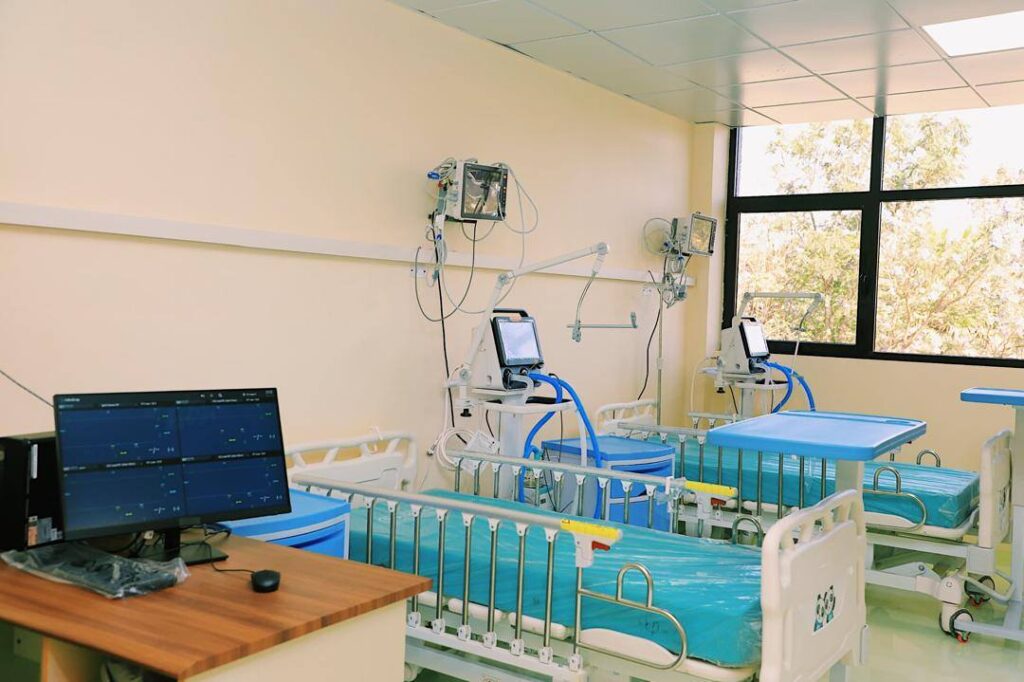
Zewditu Memorial Hospital Opens Ethiopia’s First Pediatric Neurosurgery Center
Addis Ababa, February 21, 2025 – Ethiopia has taken a significant step in specialized pediatric care with the inauguration of the country’s first dedicated Pediatric Neurosurgery Center at Zewditu Memorial Hospital. Equipped with cutting-edge medical technology, the center aims to transform the treatment of children in need of life-saving neurosurgical interventions. The center features state-of-the-art equipment, including a Leica operating microscope, neuroendoscopy, an Intensive Care Unit (ICU), a Neonatal Intensive Care Unit (NICU), an Emergency Unit, and advanced diagnostic tools such as CT scans and Ultrasound. This marks a groundbreaking moment for the country’s healthcare sector, as it enhances the accessibility of specialized neurosurgical care for children. The inauguration ceremony was attended by key government officials, including Addis Ababa Mayor Adanech Abebe, Minister of Health Dr. Mekdes Daba, and Addis Ababa Health Bureau Head Dr. Yohannes Chala, among other dignitaries. In her remarks, Mayor Adanech emphasized the importance of this facility in addressing the critical health challenges faced by children suffering from neurological disorders. She highlighted the administration’s commitment to improving pediatric healthcare services and making Addis Ababa a model city for child-friendly medical infrastructure.
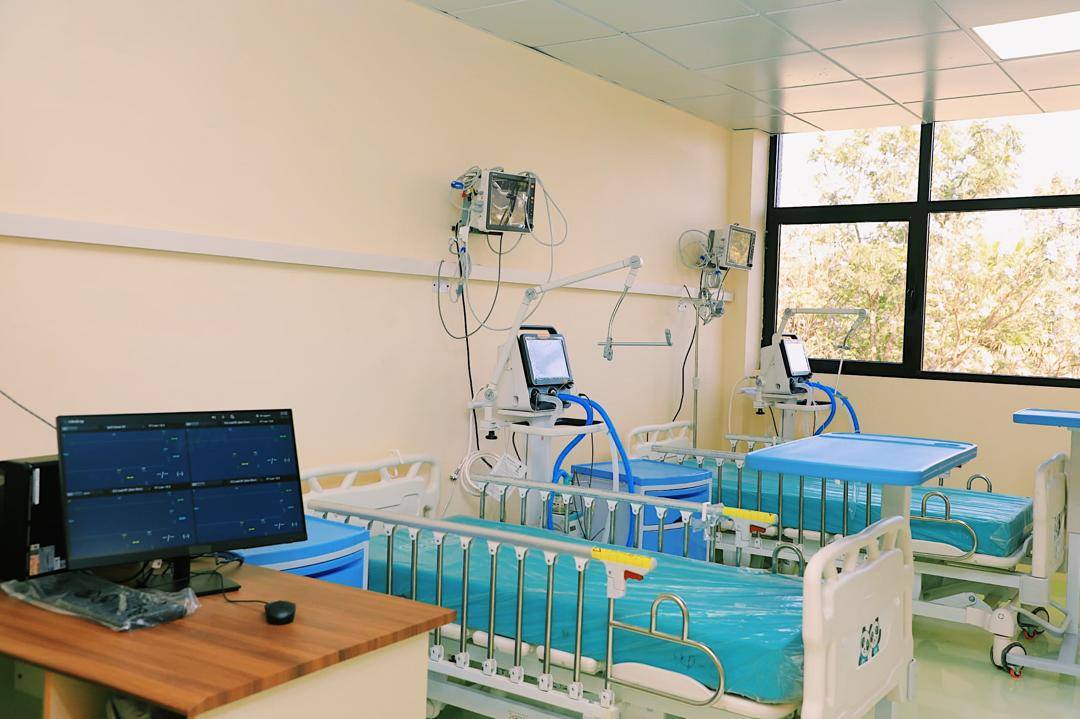
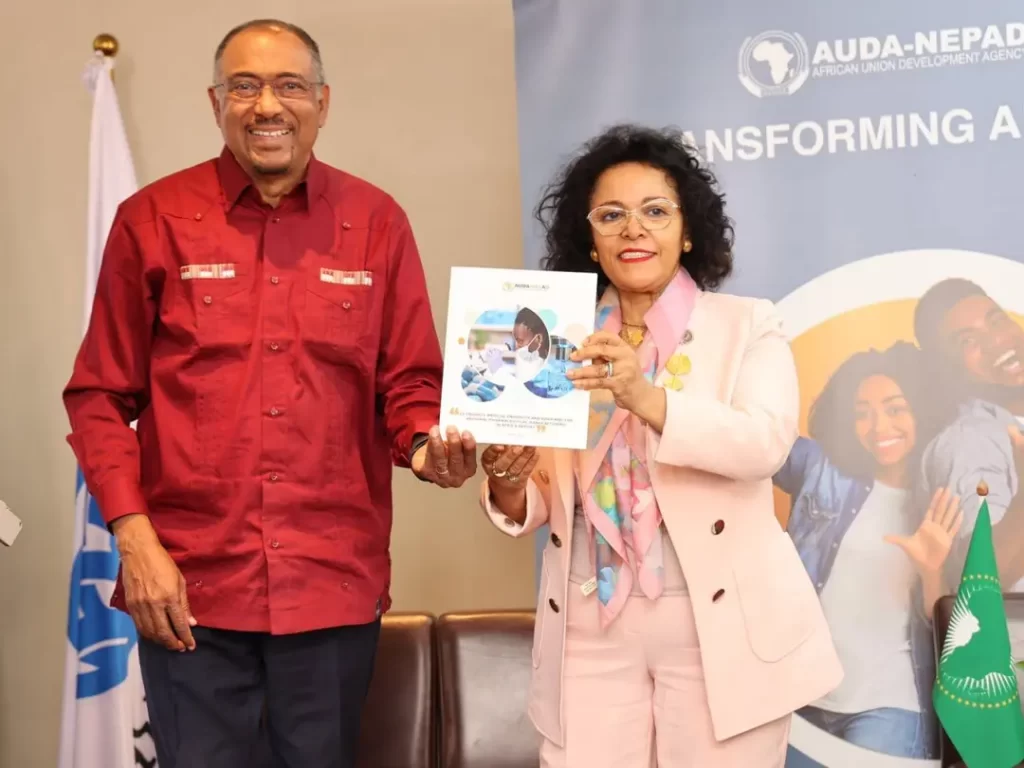
AU Development Agency Crafts $18.2 M Pharmaceutical Roadmap Amid Global Funding Squeeze
As Africa’s health sector reels from the potential blowout of a freeze on USAID funding, the African Union Development Agency (AUDA-NEPAD) has launched an 18.2-million-dollar five-year roadmap targeting pharmaceutical autonomy. Looking to boost pharmaceutical self-sufficiency to around 50%, the Plan has identified 24 medical products for local manufacturing. The ambitious initiative was launched on the sidelines of the African Union summit last week with several senior officials attending the ceremony at the Radisson Blu Hotel. While Africa shoulders 25% of the world's global burden of disease, the continent manufactures just around 3% of its medicine supply. Speaking during the launch ceremony, Senait Fisseha (Prof), Vice President of Global Programs at the Susan T. Buffet Foundation underscored the need to manage reliance on imports. She referred to the vulnerabilities of the pharmaceutical supply chain on a continent that faces a serious funding gap in the health sector. “It is exacerbated by the recent cuts in global health funding by USAID which c ould amount to 60 billion dollars,” Senait noted. She also noted the need to reform the approach towards the health sector as funding dries up globally. “I’m disappointed about the global budget cuts, but I’m also hoping they will force us to reimagine a different way of doing things. We cannot make progress by continuing the same approaches of the last 20 or 30 years,” the Professor noted. The roadmap also aims to address the structural, regulatory, and financial challenges impeding pharmaceutical manufacturing on the continent. According to NEPAD’s 2024 annual report, improving the African health system faces a $66 billion annual funding gap.


Yango Ride Introduces Comfort Class, Delivering Enhanced Ride-Hailing at an Affordable Price
Addis Ababa, Ethiopia – February , 2024 – Yango Ride, a ride-hailing service under the global tech company Yango Group, has introduced its new Comfort Class in Ethiopia. With a starting fare of just 100 birr, the new tariff offers passengers a premium travel experience designed to meet the evolving needs of local passengers. By providing newer vehicles, higher-rated drivers, and the option to turn on air conditioning, the Comfort Class ensures a more refined and enjoyable journey for passengers while maintaining affordability. The launch of the Comfort Class is a direct response to feedback from Yango Ride users, who expressed a desire for access to newer, more comfortable vehicles at a reasonable price. Yango has carefully designed the service to address this demand, offering passengers a small premium upgrade from the Economy tariff, which starts at 92 birr. With two tariffs available in Ethiopia — Economy and Comfort — the service continues to provide simple, user-focused options that cater to different customer needs without compromising on quality.


Flutterwave, pawaPay: Fintechs rush into Ethiopia ahead of the banks
Fintech giants pawaPay, Zuri Health and Flutterwave are gearing up to enter Ethiopia this year, eyeing strategic acquisitions or organic growth as market liberalisation sparks competition.

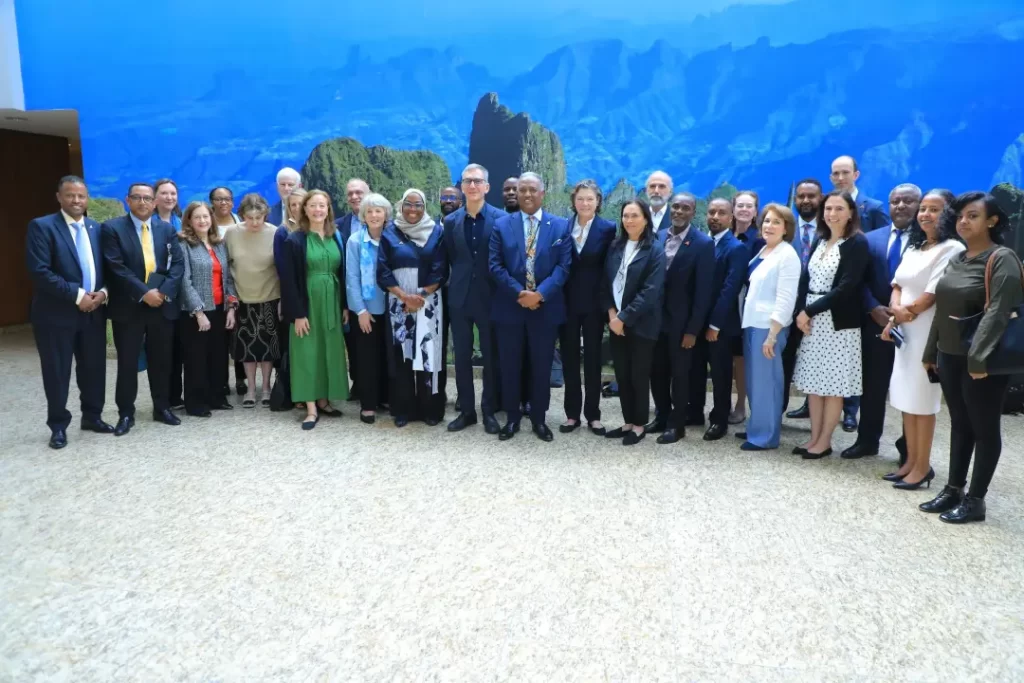
Dashen Bank, Accion, & Mastercard to Launch Innovation Hub for Ethiopian MSMEs
Ethiopia’s second-biggest private bank Dashen, has partnered with global nonprofit Accion and the Mastercard Center for Inclusive Growth to build an innovation hub that focuses on women-owned micro, small, and medium enterprises (MSME). The Hub locks in on bridging the financing gap for MSMEs by expanding access to digital financial services. An artificial intelligence-powered interface will be integrated into the Hub that provides an alternative credit scoring model to determine the creditworthiness of the MSMEs. The Hub will also pilot embedded finance products, allowing MSMEs to secure credit directly through supply-chain partnerships. The initiative seeks to address Ethiopia’s $4.2 billion MSME financing gap and improve financial inclusion in a country where only 6% of microenterprises and 1.9% of small businesses currently access formal credit. Asfaw Alemu, CEO of Dashen Bank, pointed to the possibilities of leveraging technology to address challenges in attaining financial inclusivity across Ethiopia. “Women-led businesses often lack formal financial records or assets for collateral. By leveraging technology, we aim to create inclusive systems that empower these entrepreneurs to grow sustainably,” he said. Accion’s involvement builds on its work in Ethiopia since 2022, initially supporting refugees in regions like Gambella and Addis Ababa. Its formal partnership with Dashen Bank began in March 2024, with a focus on designing financial products tailored to women-owned businesses.
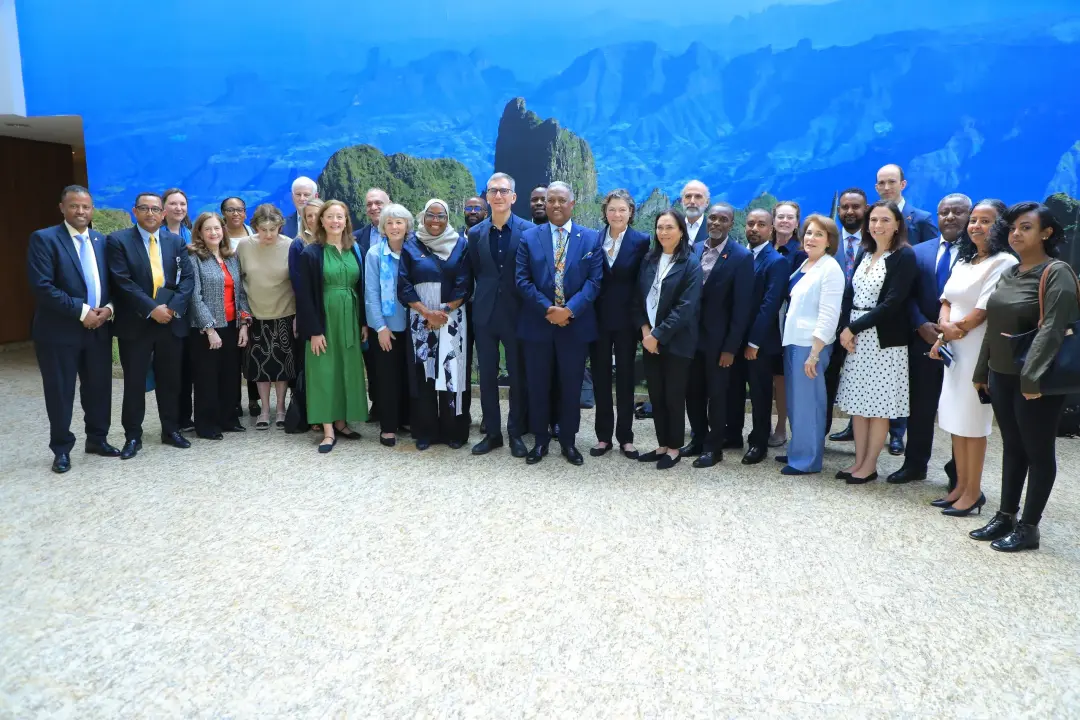
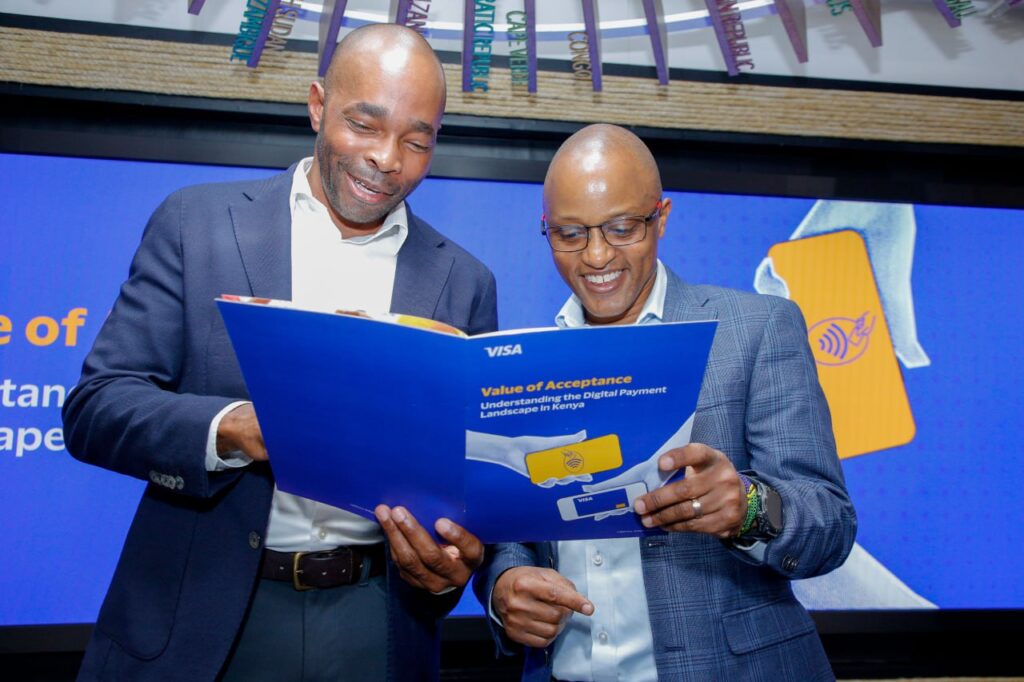
Ethiopia Set for Surge in Digital Payments Ecosystem: Visa Study Reveals Path to Accelerated Growth
Addis Ababa, Ethiopia, February 13 2025: Visa (NYSE: V), a global leader in payments, today announced the launch of a new report, ‘Value of Acceptance: Understanding the Digital Payment Landscape in Ethiopia.’ The report reveals rapid digital payment adoption among small and medium-sized enterprises (SMEs), with the vast majority recognizing the benefits for consumers. The report presents an encouraging outlook for Ethiopia with over 80% of the surveyed SMEs having started to accept digital payments in the last two years, citing increased convenience, reduced fraud risk, and improved efficiency. Furthermore, 66% agree that investing in digital payment technologies will support future business growth. Digital Payments Momentum This positive momentum is expected to continue with a high level of preference by SMEs – 92% using digital payments reported satisfactory support from the government and major institutions and quicker payment processing. This satisfaction, the report states, is encouraging 64% of the SMEs already using digital payments to consider investment in additional payment technologies, boosting an already thriving digital payment landscape. “The research findings paint a promising picture of Ethiopia’s growing digital payments landscape,” commented Yared Endale, Country Manager, Visa Ethiopia “The increasing preference for digital transactions, coupled with the recognized benefits for businesses and the broader economy, creates a powerful opportunity for growth. Visa is committed to working with our partners across the ecosystem to unlock the full potential of digital payments for all in Ethiopia – for individuals and businesses alike.”
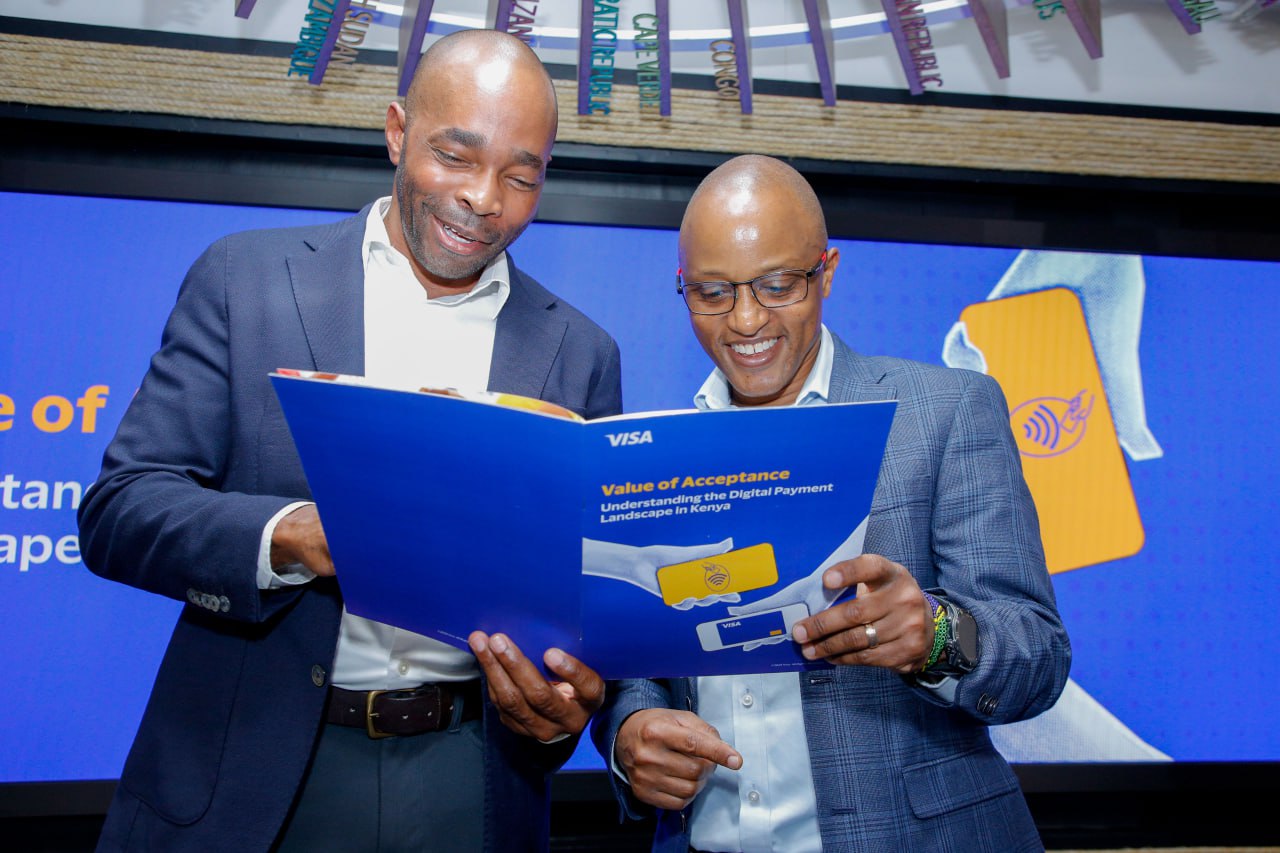

SLU student’s startup is a win-win for Ethiopian coffee farmers and U.S. roasters
Firaol Ahmed is particular about his coffee. It must be well sourced. No cream. No sugar. And definitely no Starbucks. “If you have bad coffee, the best thing you can do is roast it dark,” Ahmed said. “No one will be able to tell if it's bad coffee then. If you have good coffee, the best thing you can do is roast it light because all of the complexity in the flavor of the coffee shows when it’s a light roast.” The St. Louis University senior is a coffee connoisseur with an impeccable sense of taste and smell. Twice a week, he comes into First Crack, a roasting facility in St. Louis, to "cup" high-quality Ethiopian coffee. Cupping is the multiday, multistep process of tasting and evaluating coffee that starts with light roasting several batches of green coffee beans 48 hours in advance. “We’re tasting these coffees, giving them a score, giving them a tasting note that we find in a coffee so that it’s easier for our customers here to make a decision in purchasing these coffees from producers in Ethiopia,” Ahmed said. He weighs each sample of beans on a food scale, grinds them separately and pours each sample into a cup. Next he uses his most important tool — his nose. He smells the fresh grounds. Then he steeps the samples in hot water to brew. He smells it again. This time he’s searching for that signature fruity smell that’s common for Ethiopian coffee. The coffee smells and tastes this way because the coffee trees are grown at elevations as high as 7,000 feet.

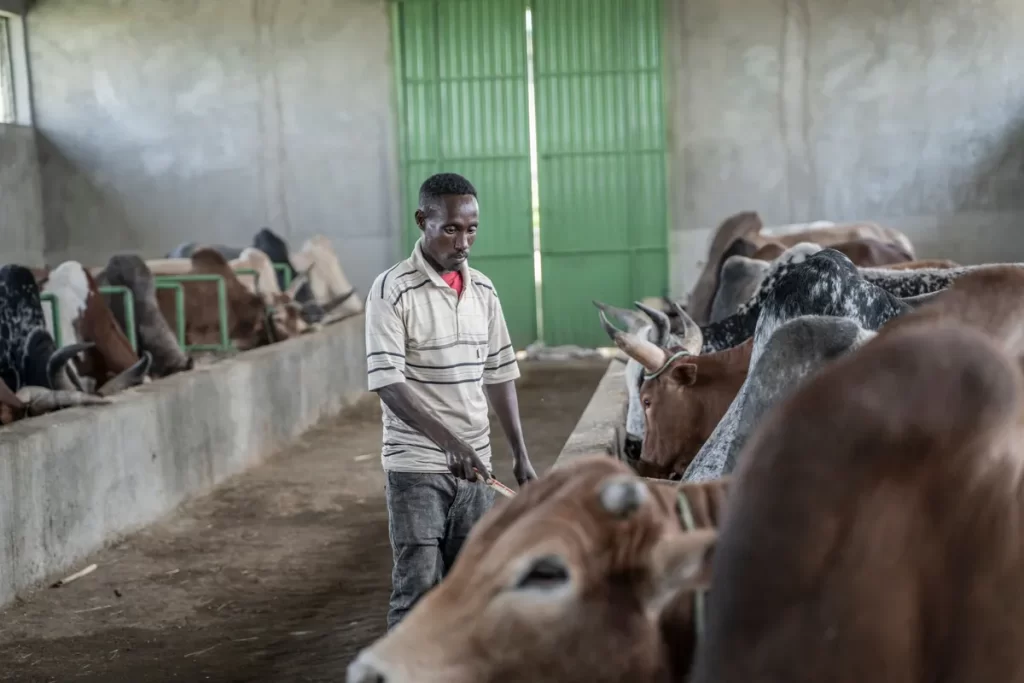
Ethiopia, Private Equity Partner in $600 Million Dairy Project
Ethiopia’s sovereign wealth fund has signed a shareholder agreement with UK private equity firm Asset Green for a $600 million dairy farming and processing project in the Horn of Africa nation.
Ethiopian Investment Holdings and Asset Green will jointly raise the funds, with the UK firm to be the majority shareholder, EIH Chief Executive Officer Brook Taye said on Monday in Addis Ababa, the capital. They will also consider bringing in other backers.
The project will be implemented in two phases. The initial stage will establish a 15,000 hectare dairy farm and processing plant. The second phase envisages cultivation of cotton, oilseed and rice.
EIH controls several large state-owned enterprises, including Ethiopian Airlines, Africa’s largest airline, and Ethio Telecom.
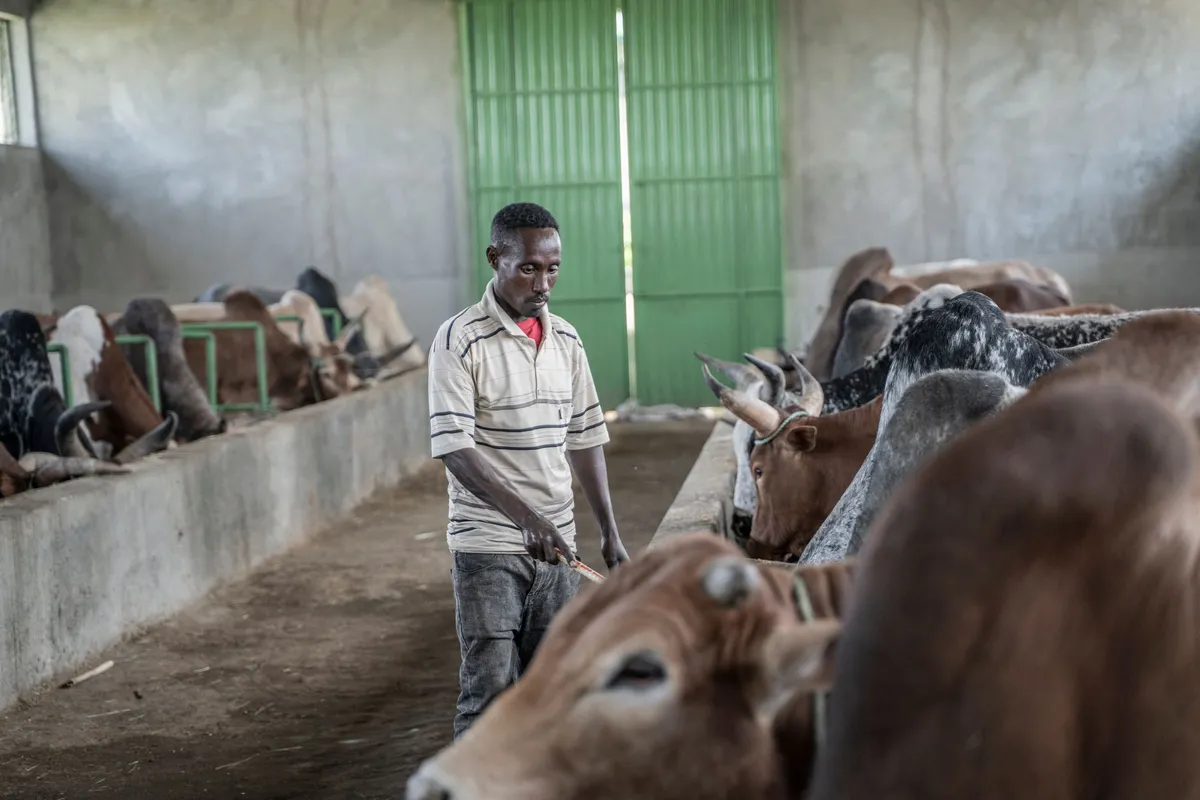
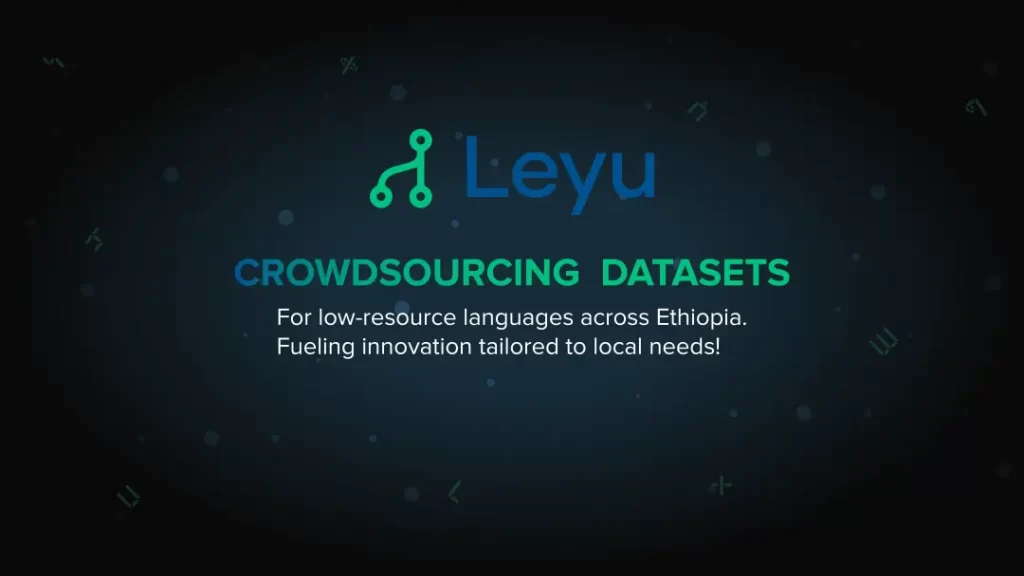
Having Trouble Using Ethiopian Languages on AI? This Open-Source Dataset Might Have a Fix
A comprehensive dataset on five Ethiopian languages poised for use in training artificial intelligence systems like Large Language Models (LLMs) has been developed by iCog. The Company formerly known as ICog Anyone Can Code has debuted Leyu Ai, an open-source voice dataset that includes Amharic, Afaan Oromo, Tigrinya, Af-Somali, and Sidama languages. Leyu, which means ‘to identify’ in Amharic, incorporates refined dialects in its dataset to ensure the accommodation of linguistic nuances. “This approach incorporates local linguistic nuances into AI and Natural Language Processing (NLP) applications, helping businesses and organizations develop more inclusive and effective digital solutions for Ethiopia and beyond.” Says Betelhem Dessie, CEO of iCog. The data collected through crowdsourcing goes through a comprehensive validation process, where experts review it to ensure accuracy, contextual relevance, and cultural propriety. Established linguistic standards are weighed against the collected data to incorporate variations in language use and context sensitivity. Data quality is further assessed to make certain that coherence, consistency, and overall suitability for the intended use. “The multi-layered review process is essential to guarantee the integrity and reliability of the dataset, positioning it as a valuable resource in comparison to other benchmark datasets,” Betelhem told Shega.
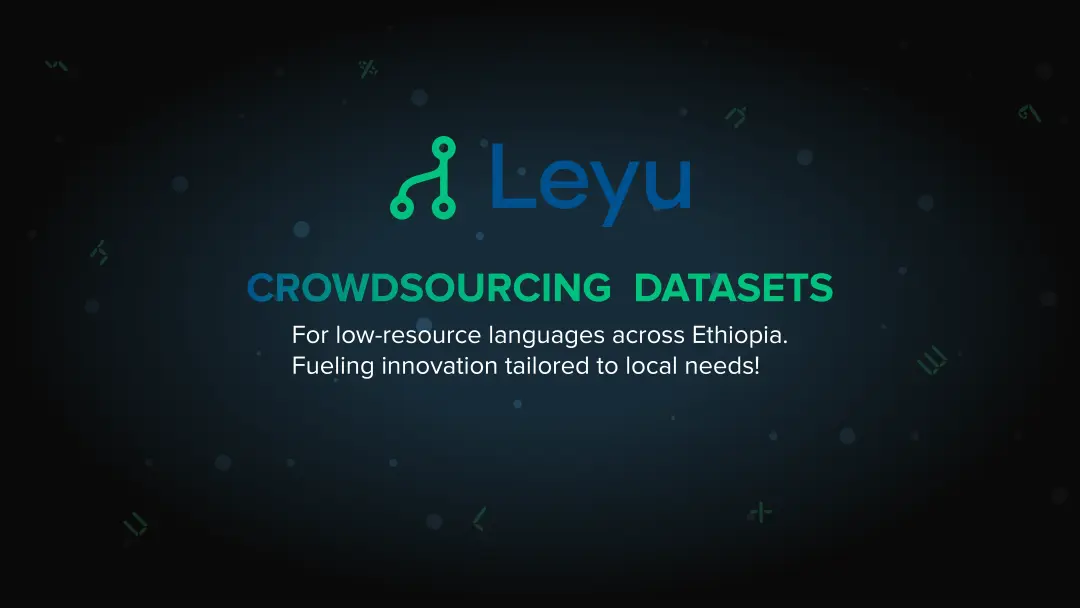
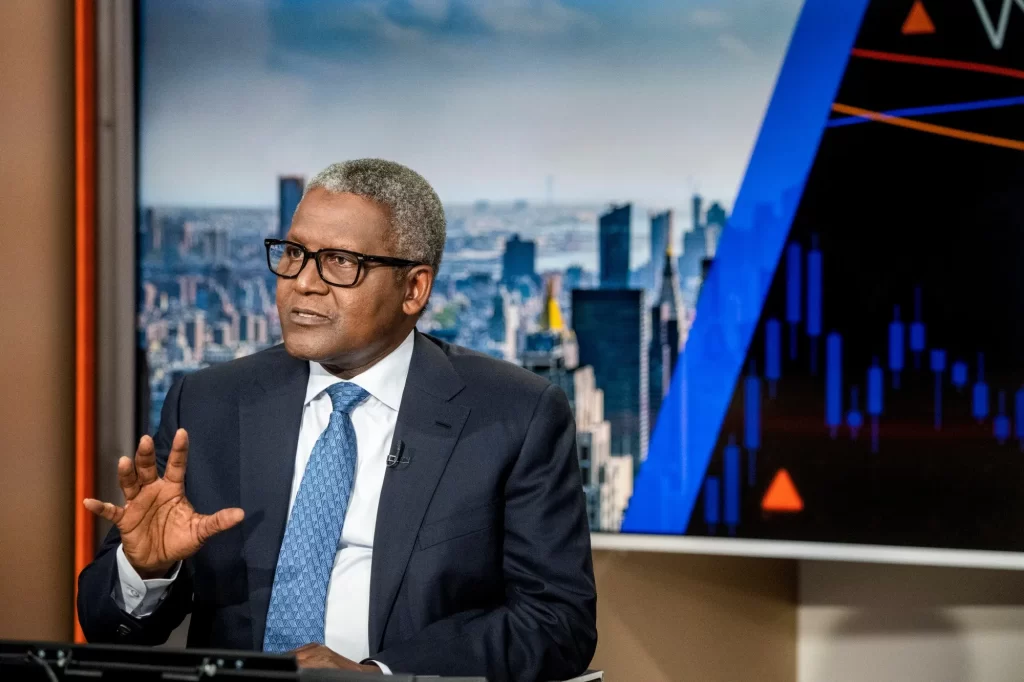
Africa’s richest man, Aliko Dangote plans $400 million Ethiopia cement plant expansion
Aliko Dangote, Africa’s richest man, has announced a $400 million plan to push a second production line at the Mugher cement plant in Ethiopia, a move expected to double the facility’s annual output to 5 million tons. The Mugher plant, which began operations in 2015 with an initial capacity of 2.5 million tons per year, has faced major challenges. Regional unrest led to repeated attacks on company property. In 2018, the country manager and two employees were killed in an attack. Despite these challenges, Dangote remains committed to Ethiopia, seeing it as a crucial market in his growing African cement empire. Despite these setbacks, Dangote Cement, which operates in 10 African countries, remains committed to expanding its footprint in Ethiopia. The Mugher plant is a key part of the company’s strategy to increase its annual cement production capacity across the continent to 55 million tons. In 2015, the Dangote Group invested $19 million to add a bagging plant at the Mugher facility, enabling it to produce 120 million bags of cement annually. The latest expansion will include a new greenfield grinding unit near Addis Ababa, boosting the plant’s capacity to 5 million tons per year.
What Dangote said
Dangote, Chairman and CEO of the Dangote Group, described Ethiopia as his “best investment destination,” citing the country’s improving investment climate. He also emphasized the role of African business leaders in driving the continent’s progress.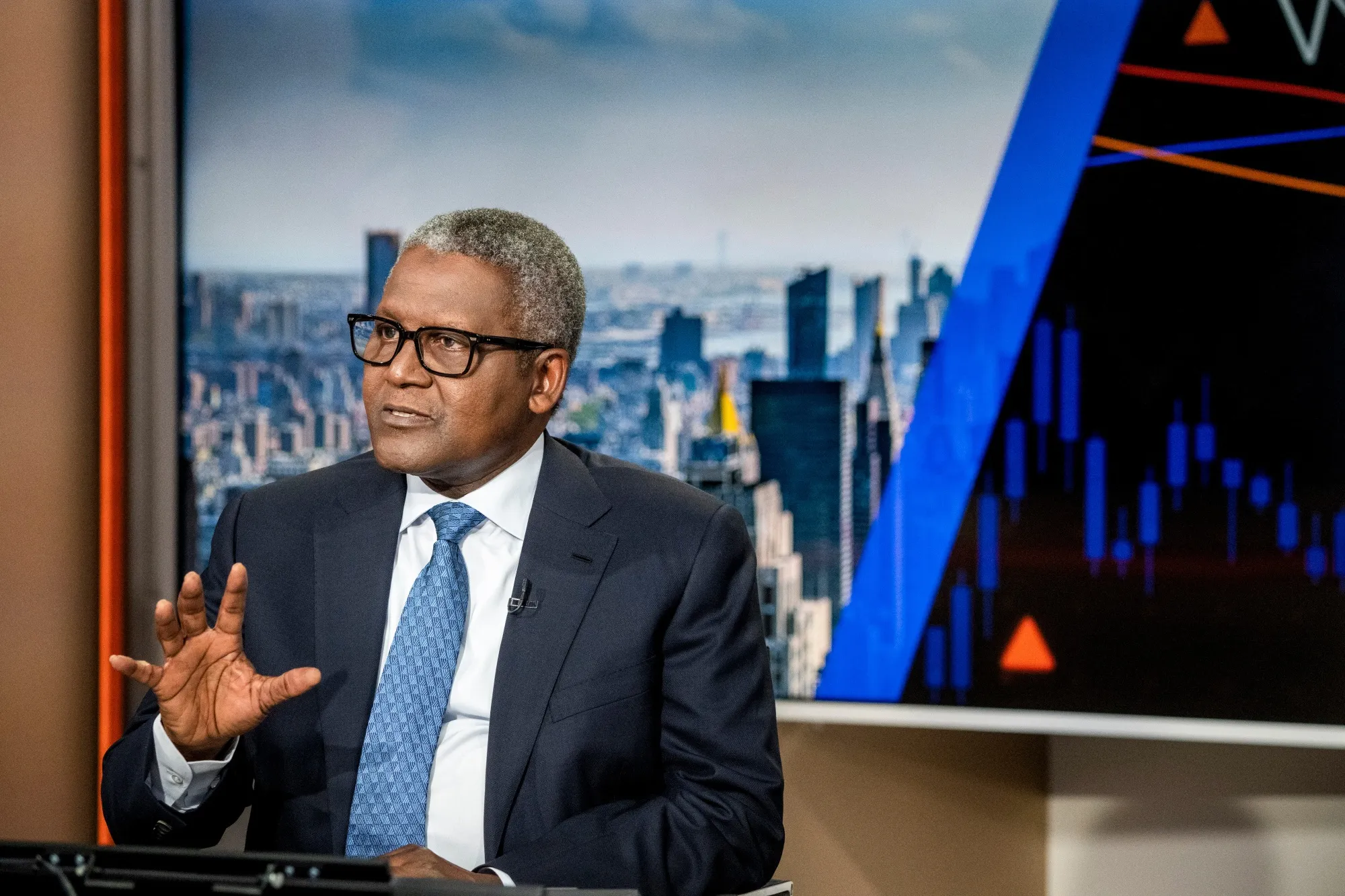
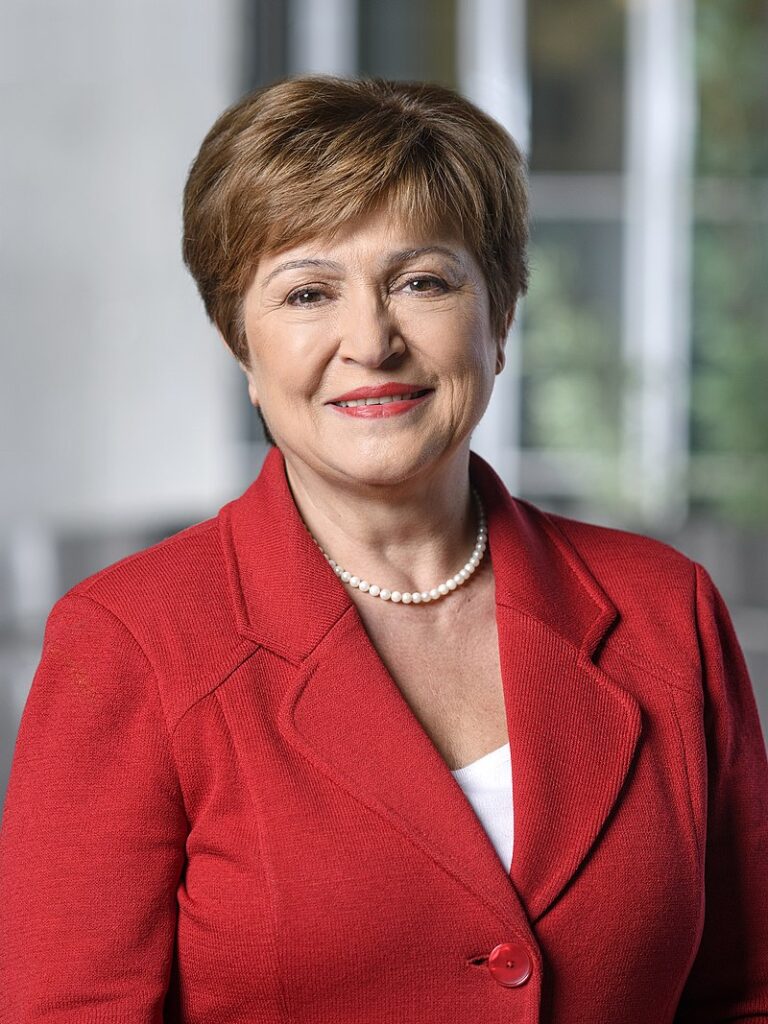
Ethiopia’s Debt Crisis: Why Investors and the IMF Are Clashing
Ethiopia is caught in a financial dispute between international investors and the International Monetary Fund (IMF). At the center of this issue is Ethiopia’s $1 billion bond—a loan it took from private investors but stopped repaying in 2023 due to economic struggles and a civil war. Now, Ethiopia is trying to renegotiate its debt, but the process is turning into a battle over how much relief the country really needs.
Why is Ethiopia in Debt Trouble?
Like many developing countries, Ethiopia borrowed large amounts of money from international lenders, including private investors, foreign governments (like China), and global institutions (like the World Bank). However, in 2023, Ethiopia stopped making payments on its $1 billion bond, which meant it had officially “defaulted”—similar to how an individual might miss mortgage payments on their house. Ethiopia is now negotiating with its creditors (the people it owes money to) to reduce its debt burden. The IMF has stepped in to help Ethiopia secure a $3.4 billion bailout, but it has also set conditions, including requiring Ethiopia to get more debt relief from bondholders.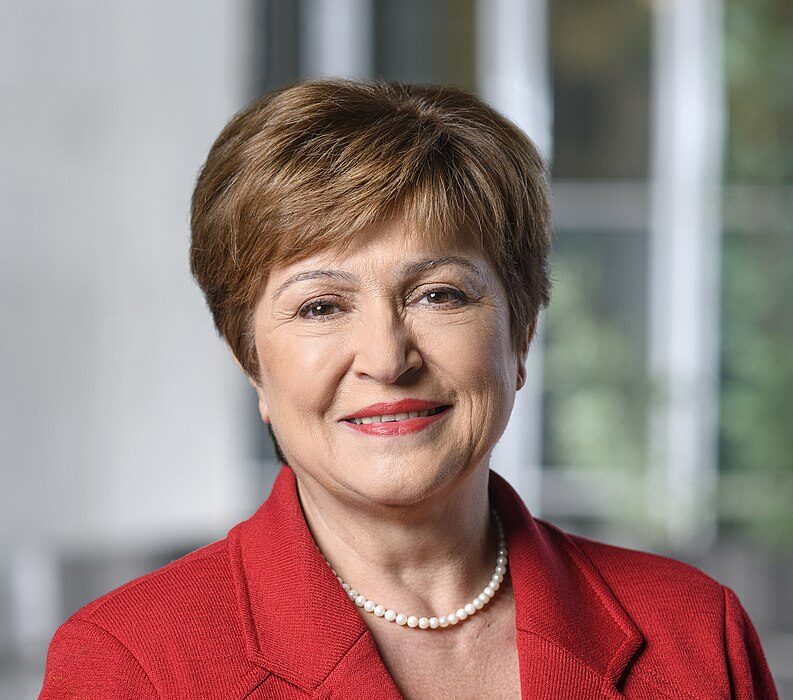
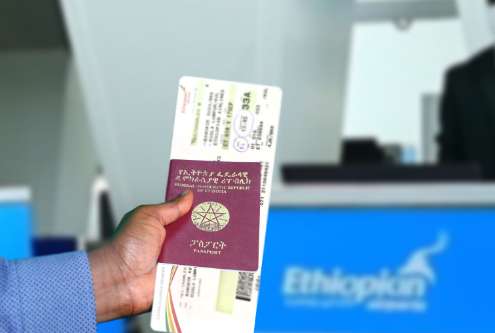
Ethiopia Set to Introduce New Passport and Visa System by End of the Month
Ethiopia is set to officially introduce a new passport and visa system by the end of the current Ethiopian month, Yekatit 2017 (February 2025), according to the Immigration and Citizenship Service. The revised passport, designed with advanced security features and enhanced aesthetics, will replace the existing version, while the visa system will also undergo a major transformation. This announcement was made during an inspection visit by the Standing Committee on Foreign Affairs of the House of People’s Representatives to the Immigration and Citizenship Service headquarters.
A Modernized Passport with Enhanced Features
The newly designed passport is said to be significantly superior to the current one in terms of color, design, content, and security. The internal pages of the passport will feature cultural and historical landmarks from Ethiopia, including Aksum, Gondar, the Great Wall of Jegol, coffee production, and other national heritage sites. Alongside the passport update, Ethiopia will also introduce a new visa sticker and an electronic visa system. The Ministry of Foreign Affairs has informed the diplomatic community about these changes, emphasizing that Ethiopia’s visa process has been fully digitized, replacing the old handwritten system.

Ethiopia’s Inflation Declines as Exports and Foreign Exchange Flows Increase
Ethiopia’s economic landscape is undergoing significant changes, with inflation rates reaching a five-year low, exports witnessing record growth, and foreign exchange availability improving. The latest data from the National Bank of Ethiopia (NBE) and the Ethiopian Statistical Service indicate a shift in key economic indicators, reflecting ongoing policy adjustments and market responses.
Inflation Declines to 15.5%, Lowest in Five Years
Ethiopia’s inflation rate dropped to 15.5% in January 2025, down from 29.4% in January 2024, representing a 13.9 percentage point decline. This marks the lowest inflation level recorded in the last five years. The reduction in inflation is attributed to a combination of monetary policy measures, stabilized supply chains, and improved domestic production.- Food inflation, which has historically been a major contributor to overall inflation, fell significantly from 32.3% in January 2024 to 15.7% in January 2025—a decline of 16.6 percentage points.
- Non-food inflation also saw a 10.2 percentage point reduction, dropping from 25.3% to 15.1% over the same period.


MIDROC Investment Group Breaks Ground on 2.6 Billion Birr Luxury Resort in Hawassa
Hawassa is set to welcome a new era of luxury and hospitality as MIDROC Investment Group officially begins construction on its latest landmark project—a 2.6 billion birr resort that promises to redefine tourism in the city.
A Grand Vision Takes Shape
The highly anticipated resort, Four Points by Sheraton Hawassa, is being developed on a 21,000-square-meter prime location, offering breathtaking views and world-class amenities. The project was officially launched by Sidama Regional State Head, Desta Ledamo, in a ceremony attended by senior officials, business leaders, and esteemed community elders. Speaking at the event, Ato Solomon Zewdu, Deputy CEO of MIDROC’s Hotel and Resort Sector, highlighted the resort’s significance:“This luxury resort is designed to host major national and international events efficiently, boosting Hawassa’s appeal as a premier destination for business and leisure travelers alike.”

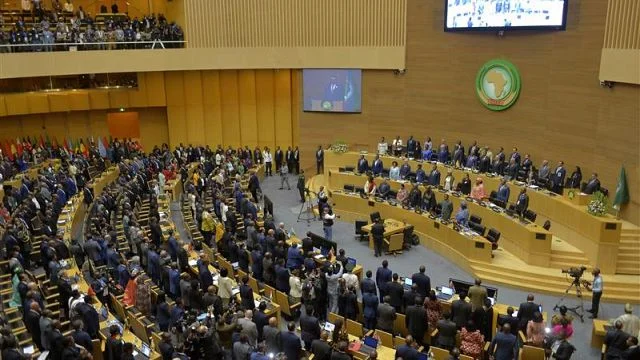
African Union leaders meet in Addis Ababa
African leaders meeting at the African Union (AU) summit in Ethiopia are renewing calls for slavery and colonial reparations, despite resistance from former colonial powers. While the reparations movement is gaining momentum, leaders in the U.S. and Europe have largely dismissed the idea. At the summit in Addis Ababa, AU leaders aim to define a unified approach, including financial compensation, formal acknowledgments, and policy reforms.

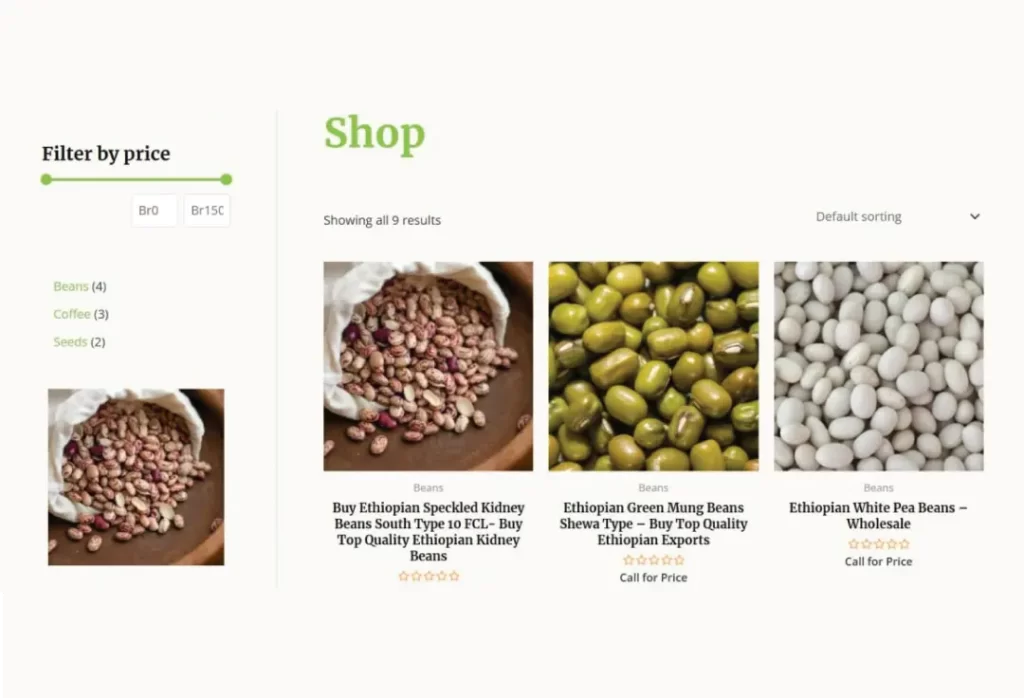
Ethiopian Entrepreneur Pilots Unified Agricultural Market Platform Frustrated by Middlemen
A four-month-old platform developed by coffee industry insiders looks to automate Ethiopia’s agricultural export supply chain through a unified market interface. Ethiopia-exports.com is piloting a portal where industry players can access a long list of commodities, trace their source, and verify their quality before conducting a transaction. Biruk Asegid, Founder of Ethiopia-exports, says Ethiopia’s agricultural export supply chain is rife with middlemen who add little value and only serve to distort genuine free market operations. He believes that equipping industry players with real-time information on prices and supply of commodities will foster competition and enhance exports. “The platform was birthed from our own frustrations,” Biruk told Shega. Just a few months back the founder recalls getting into a fierce price-cutting battle on a shipment of coffee as middlemen fueled speculation about the size of the delivery. He recalls being amazed at how another exporter was ready to sell at a loss all because of misinformation in the market. While in its early stages, the Platform is averaging 2,000 weekly visits and has conducted 10 successful transactions, according to Biruk. “We expect visitors to increase to 20,000 when we start sharing live price updates,” he says.
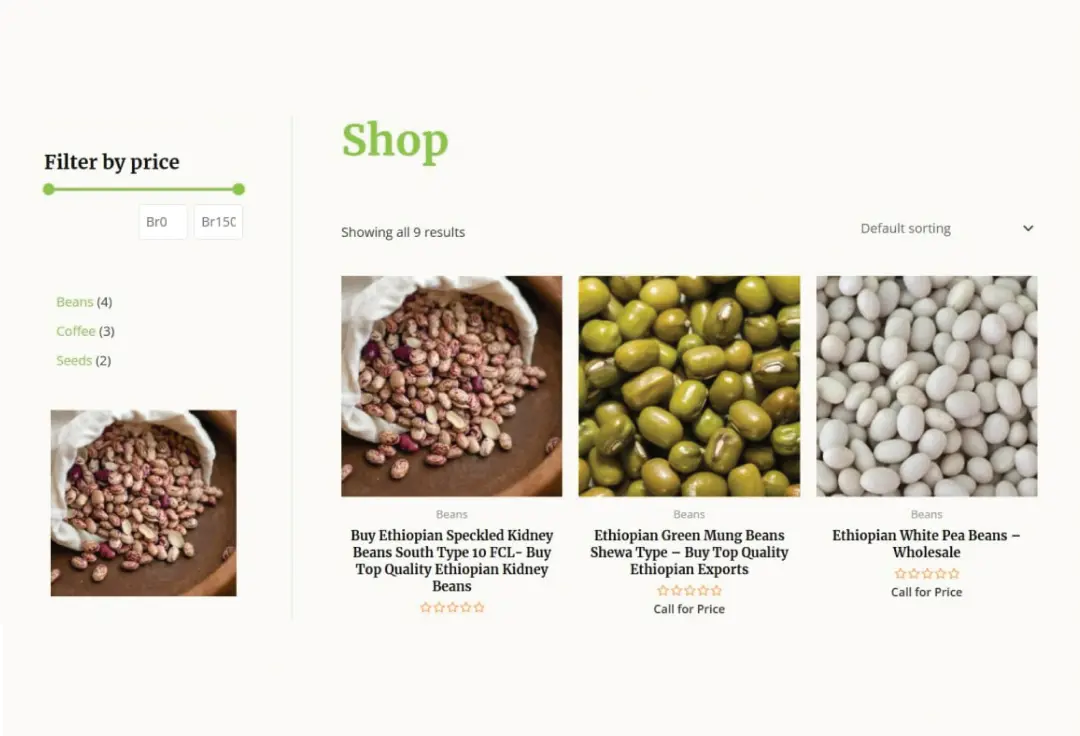
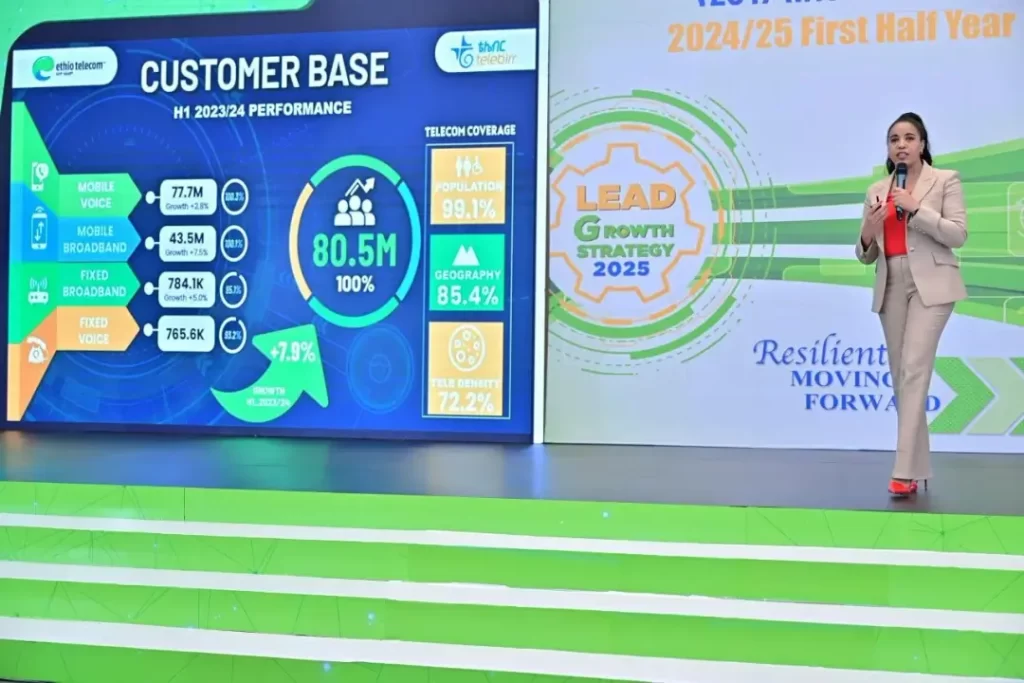
Ethio Telecom Reports Revenue Climb to 61 Billion Birr Amid Extended IPO
Ethio Telecom reported revenues of 61.9 billion birr in the first half of the year which is a surge of 43.3% year on year as its customer base rose to 80.5 million. Frehiwot Tamiru, CEO of Ethiotel outlined the Company’s half-year performance at the Skylight Hotel late Wednesday as it winds down a three-year growth strategy set to conclude in June 2025. While refraining from disclosing exact expenditure, the CEO revealed that nearly 235 million dollars in investments had been mobilized and invested so far. Frehiwot also disclosed that around 23.7 billion birr had been paid in taxes which was 4 billion short of what the Operator paid the whole of last year. An EBITDA of around 34 billion birr was also reported by the CEO as she suggested a high level of efficiency. Ethiotel had plans to mobilize around 1.29 billion dollars during the start of the year to cover expansion and rehabilitation efforts. “We have a significant appetite for foreign currency,” Frehiwot noted. “Continuous replacement of aged infrastructure is critical.” Back in October, a 10% stake in the telecom operator was made offered to the public by Ethiopian Investment Holding (EIH), the country’s sovereign wealth fund. The share run initially slated to end by January was pushed back to mid-February due to undisclosed reasons. The CEO noted that the relevant stakeholder would provide a comprehensive account of the share sale in due time. Another notable development over the past six months has been fee revisions on around half of its 304 product and service offerings. Frehiwot pointed to ongoing macroeconomic reforms which included a shift towards a market-based exchange regime as the main cause. Prudent budget management, project prioritization and negotiations with suppliers and vendors has also been necessitated due to the reforms which led to the depreciation of the local currency by over 100%.
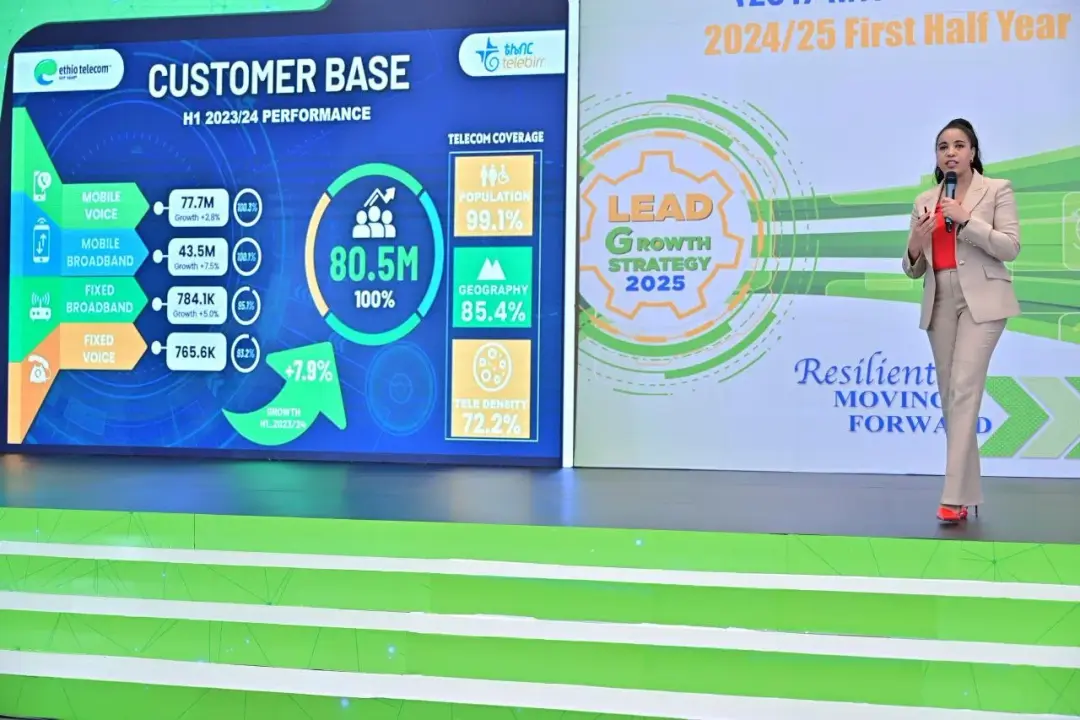
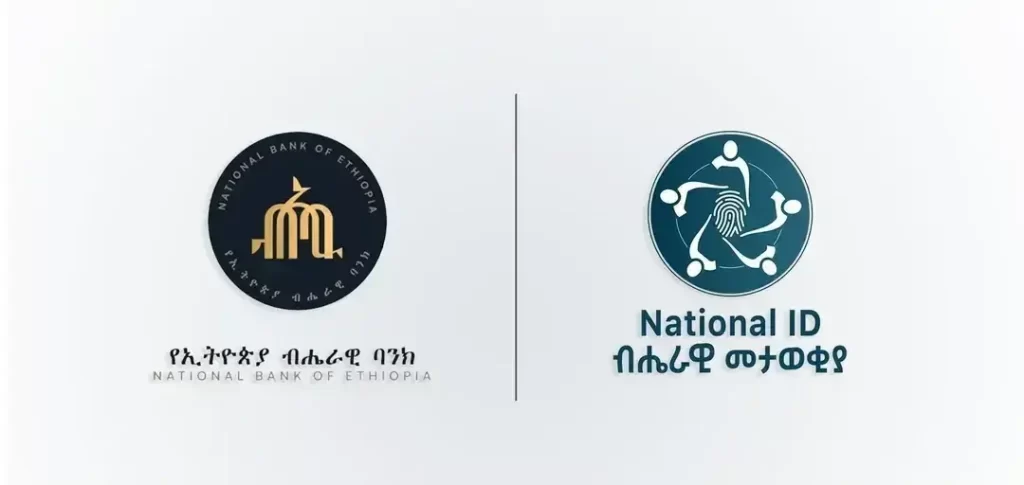
Ethiopia’s Central Bank Waives National ID Requirement for Diaspora for Two Years
The National Bank of Ethiopia (NBE) has announced a temporary measure allowing Ethiopian-born foreign nationals residing abroad to access banking services without the need for a Fayda ID. While Fayda registrations have become a precondition to open bank accounts in Addis Ababa, the central has decided to waive off the precondition for the diaspora until December 2026 in a bid to avoid potential foreign exchange inflows. The decision was published in a circular letter for all banks in Ethiopia dated February 5, 2025. Back in November, NBE mandated that all citizens must register for a national digital ID “Fayda", to open a bank account before a series of deadlines. The mandate which began implementation in Addis Ababa on January 1, 2025, will be rolled out nationwide by January 1, 2026. Existing bank account holders are also impacted, as they will be required to obtain a digital ID by December 2026 to keep their access to the accounts. Increasing remittance inflows and overall foreign exchange reserves is one of the key targets under the prevailing economic reform agenda.
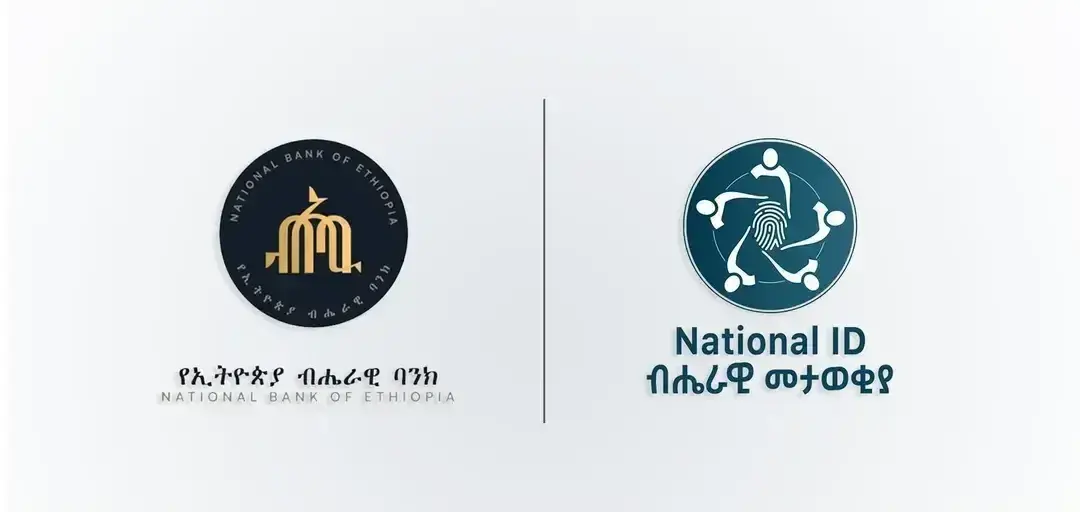

Fre Vowels is a straight-A student, Ethiopian adoptee and star of Bishop Lynch hoops
Frehiwot Vowels was 4 years old and alone, living in an orphanage in Ethiopia after her parents passed away. She was malnourished in a destitute African country, and the future looked bleak.
That’s when her life was transformed by an American looking to adopt. Vowels is now one of the Dallas area’s rising girls basketball stars at Bishop Lynch, a powerhouse that has won a national-record 31 state championships.
Vowels, commonly called Fre, was adopted by Kristie Vowels in 2012 and came to the United States weighing a mere 26 pounds and just starting to learn English. Going through the Gladney Center for Adoption in America, Kristie became a single mother on her 52nd birthday after patiently waiting out a process that took five years.
“I had reached a point in my life where I wanted something more. I kept walking out of my jobs and it didn’t matter what title I had or how I climbed in that career,” said Kristie, now 64. “When I looked at the countries that were available at the time, Ethiopia was my first choice. It had a very low drug and alcohol rate.
“A lot of the reason it took so long was because there was a transition period of black market babies in Ethiopia being sold over and over. They changed and restructured how they did adoptions. I got caught up in that waiting period.”
Kristie wasn’t deterred by the jarring level of poverty she saw there, or the fact that others had concerns about a white woman adopting an Ethiopian child.

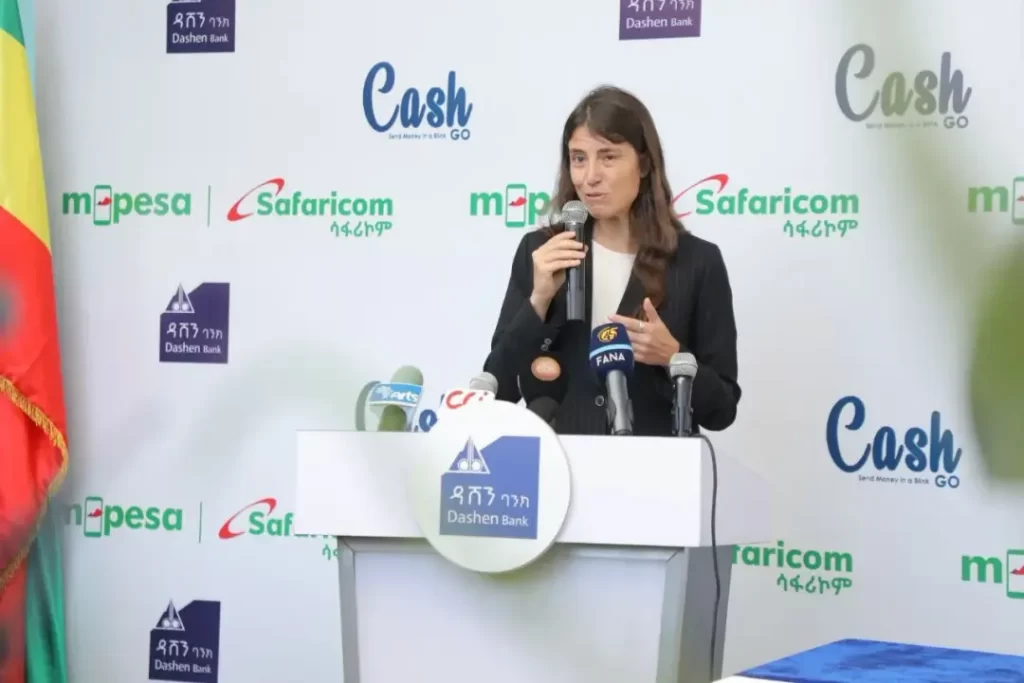
Safaricom’s M-Pesa Partners with Dashen Bank, CashGo for Remittance Services
M-Pesa has announced a partnership with Dashen Bank and CashGo to provide remittance services. This collaboration aims to provide Ethiopians living abroad with a digital solution for sending money to M-PESA mobile wallets. Dashen and M-Pesa are offering a 10% additional markup on average exchange buying rates for a limited time to entice new customers. Users can utilize their M-Pesa balance for various transactions, including sending money, making merchant and bill payments, purchasing airtime and data, or withdrawing cash from authorized agents. Speaking on the partnership, Elsa Muzollini, CEO of M-Pesa Safaricom, highlighted the importance of the collaboration, stating, "We are partnering with Dashen Bank and CashGo to enhance remittance services for our customers. This aligns with our mission to drive financial inclusion and provide innovative digital financial solutions.” Under this agreement, Dashen Bank will serve as the exclusive settlement and acquiring bank, handling remittance transactions received via CashGo. CashGo will provide the digital remittance platform that facilitates fund transfers, while M-Pesa Safaricom ensures that customers can access their funds instantly through their M-Pesa mobile money accounts.
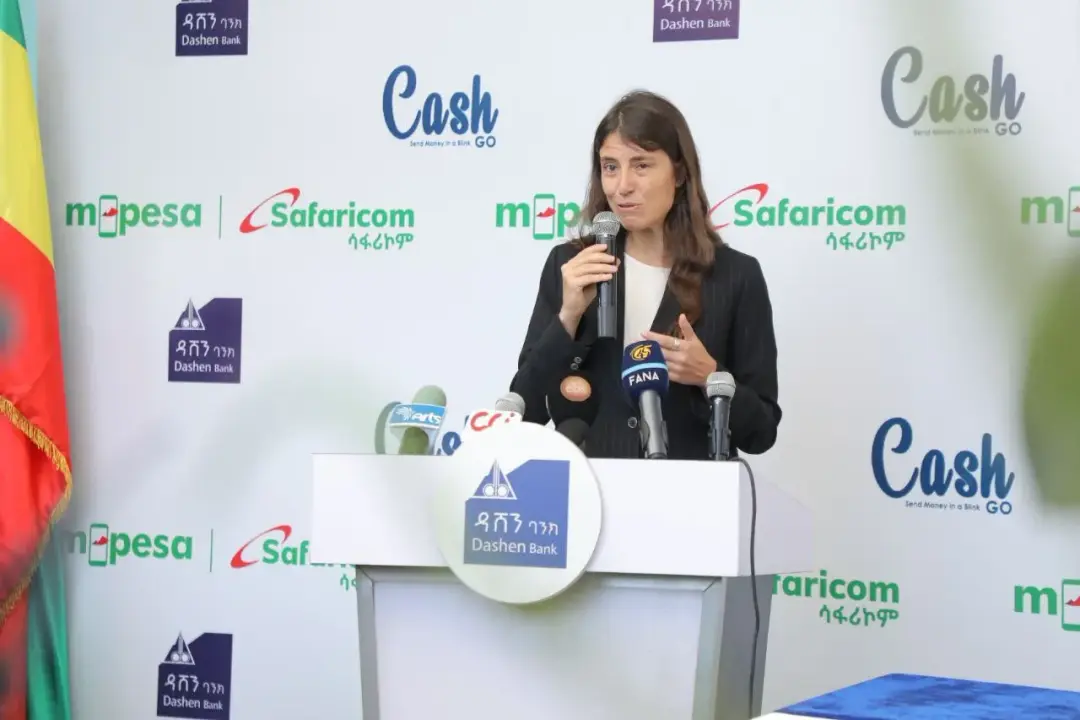

3.18 million-year-old Lucy to make first ever visit to Europe
The bone fragments of Lucy, a 3.18 million-year-old human ancestor and which rarely leave Ethiopia, will go on display in Europe for the first time in Prague this year, the Czech premier said on Tuesday, February 4. The ancient remains of the Australopithecus afarensis were discovered in Ethiopia in 1974. The find was, at the time, the most complete ever found, and revolutionized the understanding of humanity's ancestors.
"Lucy's skeletal remains will be displayed in Europe for the first time ever," Prime Minister Petr Fiala told reporters as he announced the rare loan by Ethiopia's National Museum. The fragments will be shown at Prague's National Museum as part of a "Human Origins and Fossils" exhibition for two months from August 25.
The remains will be presented alongside Selam, the fossil of a baby Australopithecus who was about 100,000 years older than Lucy and found in the same place 25 years later. "This historic exhibition... will offer tourists and researchers a once-in-a-lifetime opportunity to see these priceless fossils
In her current shape, Lucy consists of fossilized dental remains, skull fragments, parts of the pelvis and femur. The fossilized skeleton of the 1.1-meter-tall, 29-kilogram Lucy last left Ethiopia between 2007 and 2013 when it toured US museums. The hominid was named after the Beatles' song "Lucy in the Sky with Diamonds," which the team that had found her listened to after the discovery.


Daniel Kordan’s Captivating Pictures Of Ethiopian People
Daniel Kordan is a landscape photographer based in Bali, known for his stunning aerial shots of Australia, sweeping views of Vietnam, and much more. In this article, we're excited to share a different side of his work: a recent collection of portraits he captured during his travels through Ethiopia.
In this collection, Kordan shifts his focus from vast landscapes to the people of Ethiopia, capturing the richness of their daily lives and the stories etched in their faces. Scroll down to see the captivating portraits!
Bored Panda reached out to Daniel Kordan once again—this time, to learn more about his Ethiopian photographs. "Ethiopia has always fascinated me with its rich cultural heritage and diverse landscapes," the photographer shared. "From the ancient rock-hewn churches of Lalibela to the tribal traditions of the Omo Valley, it’s a place where history and nature intertwine beautifully. I was especially drawn to the Oko Valley tribes and the hospitality of the Ethiopian people. It’s a seriously underrated place for tourism barely visited and still very isolated. It was difficult to plan but I’m so happy I’ve done it! Can’t wait to come back, I’ve made so many beautiful friends and together with Andy Marty we even managed to help adopt to school two talented kids from Ethiopia."
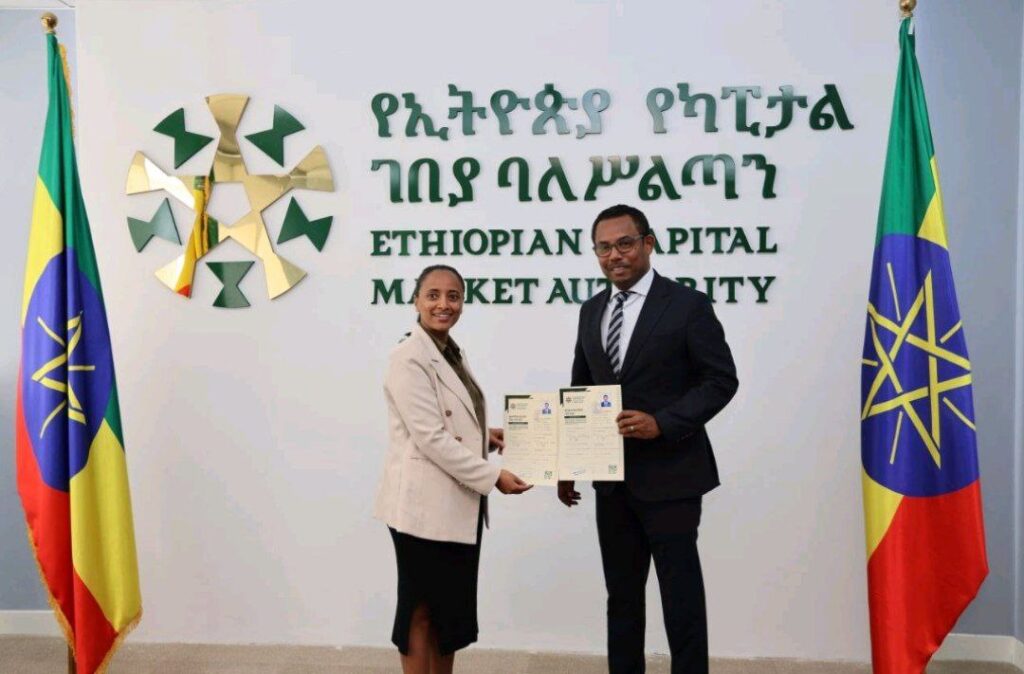
Ethiopian Capital Market Authority Issues Compliance Directive for Public Companies
February 4, 2025 — The Ethiopian Capital Market Authority (ECMA) has issued a public notice requiring all publicly held companies in Ethiopia to submit detailed information about their existing shares. This move follows the enactment of the Public Offer and Trading of Securities Directive No. 1030/2024, which took effect on November 13, 2024. The new directive is aimed at enhancing investor protection, improving market transparency, and ensuring the orderly operation of Ethiopia’s emerging capital market. The directive applies to all companies with more than fifty shareholders, regardless of sector or industry, and mandates them to provide relevant data by March 10, 2025. Key Submission Requirements Publicly held companies must submit the following information to the ECMA:
- Total number of shares, including subscribed and paid-up shares.
- A complete list of shareholders, including their contact details and share ownership.
- The value of the securities as of the issuance date.
- The timeline of past share offerings.
- Copies of offer documents used for share solicitations.
- Advertisements and media used for previous share sales.
- Details of ongoing public offerings, including shareholder resolutions authorizing such issuances.
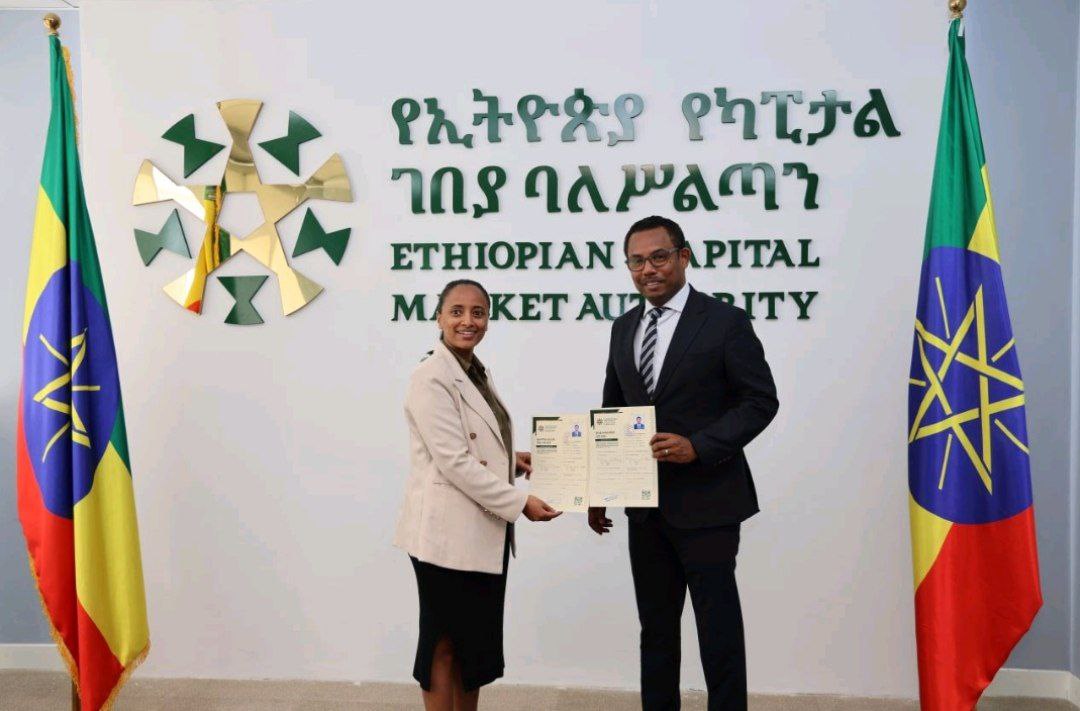
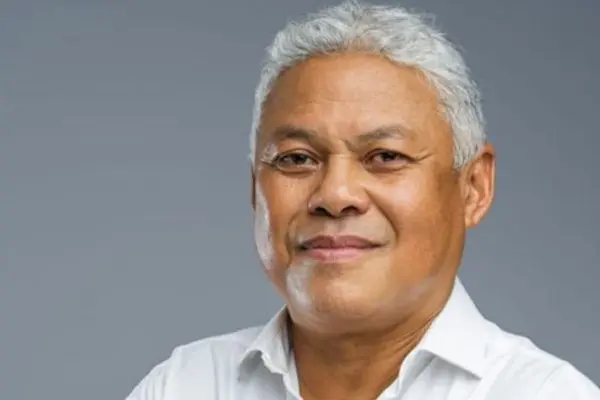
Cross-Border African Startup Dizzitup Eyes Ethiopian Market
An ambitious intracontinental startup has set its eyes on Ethiopia as it aims to enable commerce from small businesses in Africa through a cross-border marketplace. Dizzitup is looking to onboard up to 2000 Ethiopian businesses on the all-in-one marketplace which has already registered 420 businesses across the continent. Through a blockchain-powered infrastructure, the five-year-old company looks to have small businesses in all 54 African countries selling their products with instant payment capabilities enabled through a network of partners. Solofo Rafenombolatiana, CEO and Founder, says most intracontinental projects in Africa fail to serve the bedrock of economic activity in the continent— small businesses. The experienced entrepreneur with two successful companies in his portfolio looks to jolt economic activity within African small businesses and hopes to provide credit access in the long run. “Without credit access, businesses merely float they stop growing,” he told Shega. The Company backed by multiple investors looks to initially increase revenue for businesses by giving them access to new customers located elsewhere in the continent. Anyone living on the continent can buy items and pay in their respective currencies from a small business located in another country.


How an Ethiopian laborer in Dubai transformed into a supermodel
It had only been a few months since Samuel Bayisa Tufa arrived in Dubai. Born and bred in the Oromia region’s Burayu district, northwest of Addis Ababa, he had been a management student at Oromia State University. But he interrupted his studies and set off for Dubai, chasing new opportunities. Little did he know, as he laid eyes on a Lamborghini, that his life would take a dramatic turn. He made his way to Dubai after borrowing money against all odds, but unexpected opportunities awaited him once he got there. “I come from a poor family, and they expected me to land a job and support them. But everyone knows how tough things are for graduates in our country,” he says. In Dubai, he started working for Tiger, a contracting company, where he spent his days hauling cement. The company paid him a monthly wage of 900 dirhams, but after deductions, he took home 800 dirhams. He put up with it for a while. One day, while walking around the streets of Dubai, he spotted a Lamborghini and was blown away by it. He couldn’t take his eyes off it. As he stared at the car, he realized the driver was looking right at him. “I had only ever seen this car in movies. We don’t have anything like it back in our country,” I told him. He complimented the driver of the car, who then invited him to step closer for a better look. He didn’t hesitate. He then invited him to hop in. Samuel refused—not to put on a show, but out of genuine hesitation. He glanced down at his dusty clothes, worried he’d mess up the car. “Since I work in construction, I’m covered in dust. I can’t get in,” he told him. The driver insisted he get in, and after a moment of hesitation, Samuel finally gave in and slid into the passenger seat. They started talking.

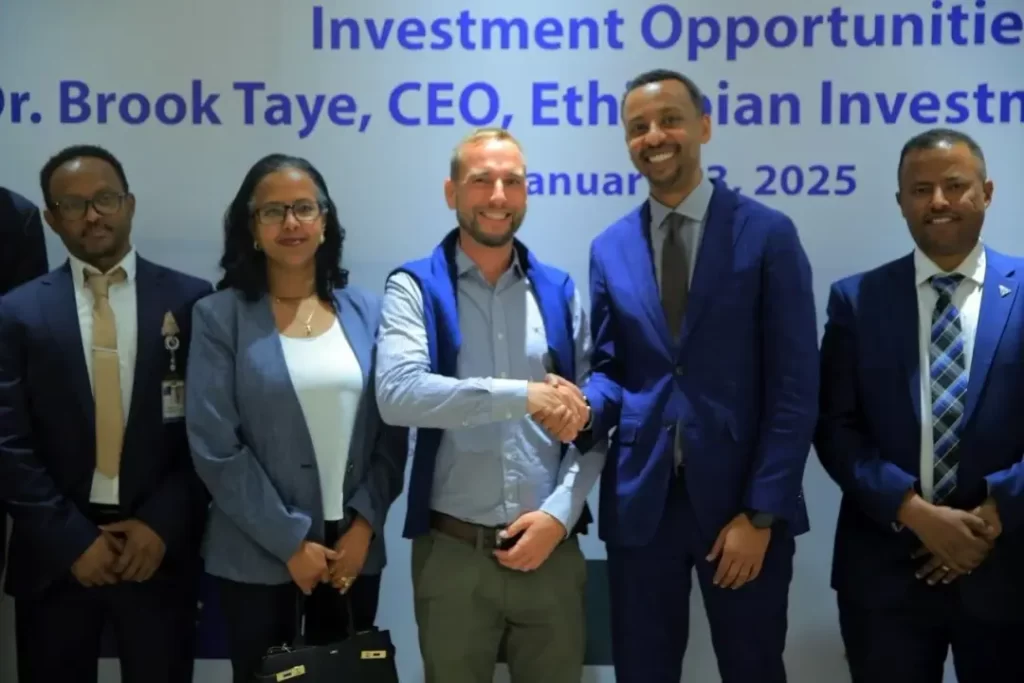
Ethiopia Primes Exchange Market for Foreign Investors Capped at 30%
Ethiopia’s central bank and its nascent capital market authority are preparing tools to allow foreign investment into the country’s exchange, says Brook Taye (PhD), CEO of Ethiopian Investment Holding (EIH). The former Director General of the capital market authority disclosed the development during a networking event organized by the European Chamber in Ethiopia. Brook, who now heads one of Africa's largest sovereign wealth funds, indicated that foreign investors will be permitted to participate in the exchange market, with a quota of up to 30%. “We aim to be a reliable de-risking partner for investors entering the Ethiopian market. This involves taking full responsibility for managing the regulatory aspects of business operations, including land-related matters. Our goal is to allow investors to focus entirely on the business side of their ventures,” the CEO said of EIH’s strategy. EIH has 40 state-owned enterprises under its portfolio, including Africa’s biggest national carrier, Ethiopian Airlines, and one of the continent’s largest telecom operators in the form of Ethio Telecom. According to the CEO, in the first half of the Ethiopian fiscal year, EIH’s portfolio of companies generated around 901 billion birr.
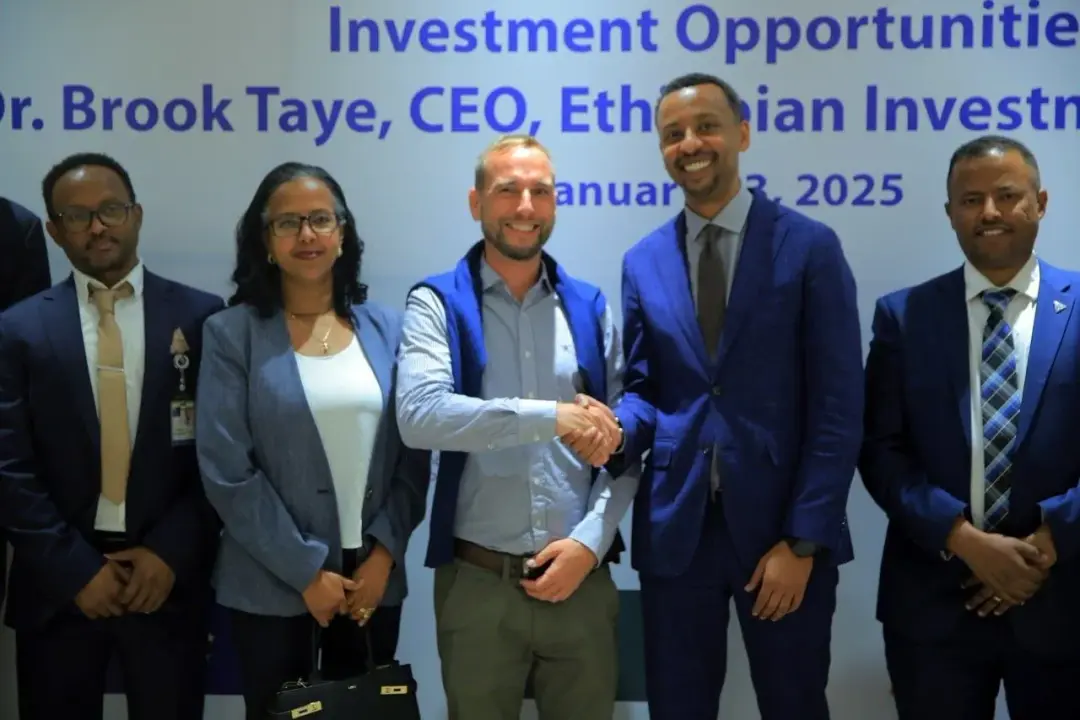

Rift Valley Summit Crowns Lifeline Addis with $150,000 Prize
Lifeline Addis, a home-based healthcare startup, has emerged as a leading victor at the Great Rift Valley Innovation Summit (GRV Summit), securing $150,000 in grants in the Legacy Builders category. “This is a huge recognition for us and a validation that the work we do is important,” said Blen Fekade, COO of Lifeline. Established a little over three years ago, Lifeline Addis offers three main services: in-home care for patients with chronic conditions requiring nursing assistance, preventative wellness packages, and the supply of medical equipment. The team at the victor startup is planning to use the money to expand their operations and reach more people. The Legacy Builders category saw a total of eight awards distributed, totaling $510,000. Following Lifeline Addis, Globedock, an EdTech startup, secured second place with a prize of $110,000. Hulucare and Muyalogy received $75,000 and $55,000, respectively, for 3rd and 4th place. Other winners in this category included Guaro Farms ($40,000), Ease Mindcare ($35,000), Dr. Azmeraw from Dubbel Technologies ($25,000), and Infra Protocol ($20,000). In addition to the Legacy Builders, the summit also recognized and supported young innovators. Ten young innovators each received $10,000, totaling $100,000 in the Young Innovators category. The Great Rift Valley Innovation Summit is an initiative of the Ethiopian Diaspora Trust Fund. The award, one of the largest grant-based competition prizes in Ethiopia, is funded by contributions from Ethiopian diasporas worldwide.


Bank Abyssinia Inaugurates Modern Banking Service Center in Collaboration with Chaka Buna
Bank Abyssinia inaugurated its state-of-the-art banking service center at its headquarters yesterday, January 22, 2017, in collaboration with Chaka Buna. The event was celebrated with great enthusiasm in the presence of the bank’s CEO, Ato Bekalu Zeleke, Chaka Buna owner, Ato Bisrat Belay, and other invited guests. Bank Abyssinia has always been at the forefront of modern banking services, recognized as a preferred choice for customers. With over 930 branches, more than 1,600 ATMs, and 3,000 POS machines, the bank also offers cutting-edge mobile and internet banking services. Additionally, the bank has introduced Virtual Banking Centers, e-commerce services, contactless cards, and various digital payment solutions to enhance user experience. Taking inspiration from global trends, the bank is now integrating additional value-added services at its branches, transforming them into multi-functional service centers in collaboration with strategic partners.

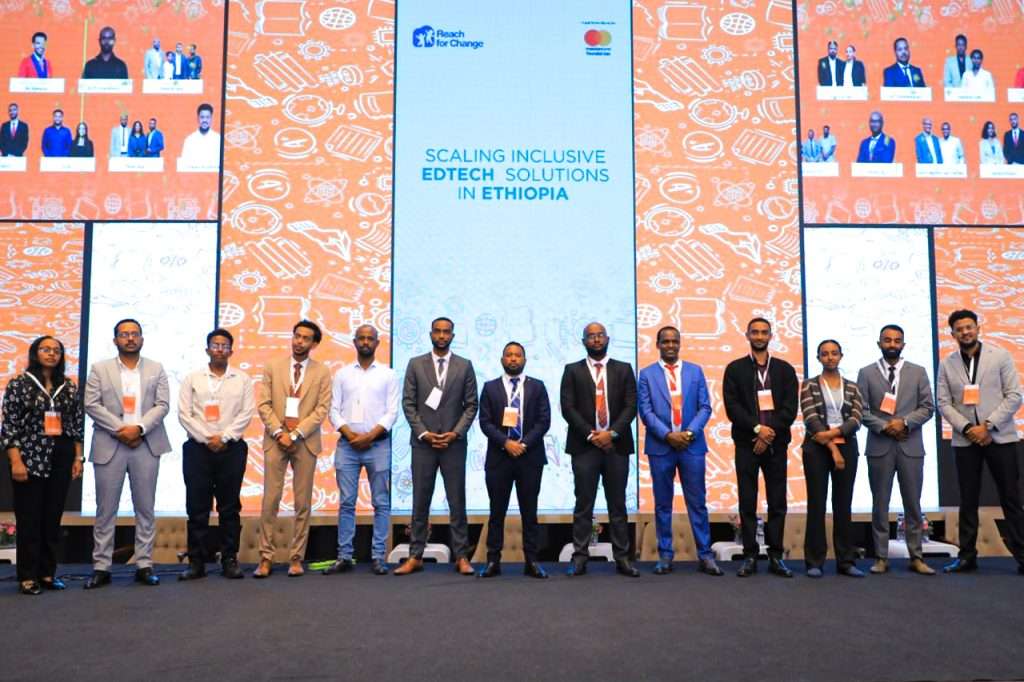
Mastercard Foundation and Reach for Change Select 13 Game-Changing EdTech Startups to Transform Learning in Ethiopia
In a bold move to reshape education for underserved communities in Ethiopia, the Mastercard Foundation, in collaboration with Reach for Change, has announced the selection of 13 groundbreaking EdTech enterprises for its prestigious EdTech Fellowship. These startups have been chosen for their innovative approaches to addressing some of the country’s most pressing educational challenges, including access for girls, out-of-school learners, young people with disabilities, and internally displaced populations. The Mastercard Foundation EdTech Fellowship aims to catalyze solutions that leverage technology to bridge educational gaps and provide high-quality, scalable learning opportunities. The selected startups represent the cutting edge of Ethiopia’s rapidly growing EdTech ecosystem, each offering unique solutions tailored to local needs.
The 13 EdTech Trailblazers Leading the Charge
These forward-thinking enterprises are set to transform education through cutting-edge technology, data-driven insights, and localized content:- Kelem Tutors – Empowering students with personalized, on-demand tutoring to improve academic outcomes.
- Liq Tutors – Providing AI-driven educational support to enhance learning experiences for students across Ethiopia.
- A+ Online Tutors – Bridging the digital divide by making quality online education accessible to all learners.
- Ethiopian College Prep (ECP) – Offering targeted college entrance exam preparation to boost student success rates.
- Ethio IQ – A next-gen learning platform using adaptive learning techniques for personalized education.


IMF Managing Director Kristalina Georgieva to Visit Ethiopia for High-Level Engagements
The Managing Director of the International Monetary Fund (IMF), Kristalina Georgieva, will undertake a two-day official visit to Ethiopia on February 8 and 9, 2025. This visit marks her first trip to the country since assuming the role of Managing Director in 2019 and highlights the IMF’s ongoing commitment to supporting Ethiopia’s economic development and reform agenda. During her visit, Georgieva is scheduled to hold high-level discussions with Prime Minister Abiy Ahmed and other senior government officials. The talks will focus on Ethiopia’s economic outlook, including growth prospects, fiscal and monetary policies, and the implementation of structural reforms aimed at addressing macroeconomic challenges. The discussions are expected to cover the country’s efforts to stabilize its economy, manage debt, and attract foreign investment amid a complex global economic environment. In addition to meetings with government leaders, the Managing Director will engage with representatives from Ethiopia’s private sector. These interactions aim to provide insights into the business environment, identify barriers to growth, and explore opportunities for private sector-led development. The dialogue will also emphasize the importance of fostering a conducive environment for entrepreneurship, innovation, and job creation, which are critical for Ethiopia’s long-term economic resilience.
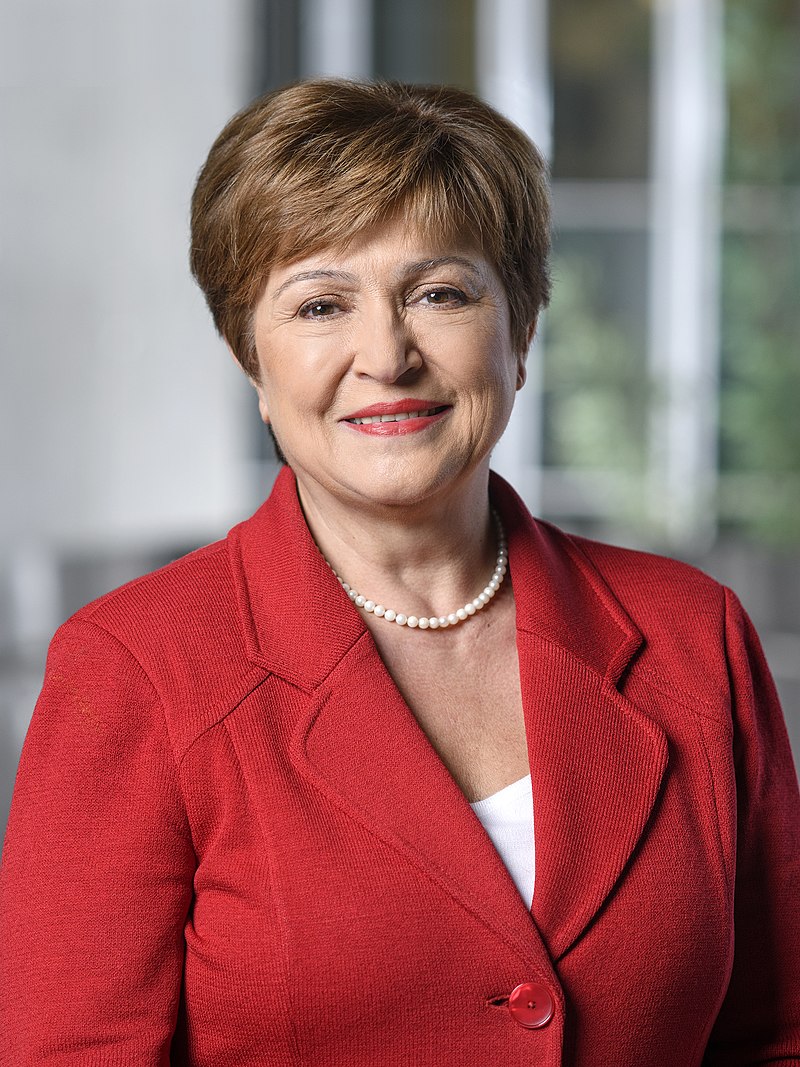

Chelsea’s Naomi Girma becomes first million-dollar player in women’s football
Chelsea FC Women scripted history by signing US international defender Naomi Girma from San Diego Wave FC for a record-breaking transfer fee. The deal, reported to be around 900,000 pounds ($1.12 million), makes Girma the first million-dollar player in women's football, surpassing the previous record transfer fee of 575,900 pounds ($785,000) for Racheal Kundananji.
Girma, 23, brings an impressive resume, having been named NWSL Defender of the Year twice and earning spots in the league's Best XI in consecutive seasons. Girma is known to be the leader on the pitch and boasts an exceptional 91.4% passing accuracy in the 2024 season.
"I'm so happy and really excited to be here. It doesn't feel real," Girma said.
"There are a lot of things about Chelsea that made me want to come here - the culture, the winning mentality, staff and players. It's a top environment to learn and grow in. Right now, that's what I'm looking to do."


Citizenship policy reforms to unlock pathways to investment and economic growth
The Ethiopian diaspora is a cornerstone of the nation’s economy, with remittances providing critical foreign currency and household income. In the previous five years, Ethiopia received an average of USD four billion in remittances annually. Recent exchange rate reforms have enhanced formal remittance systems, fostered greater transparency, and encouraged diaspora members to use official channels. In the concluded FY 2024, the remittances to Ethiopia have reached an unprecedented level, exceeding USD six billion. However, further policy reforms, including the granting of dual citizenship, are crucial to encourage the diaspora to make more substantial economic contributions. Allowing dual citizenship would enable diaspora members to invest in key sectors, own property, and establish businesses without legal or bureaucratic hurdles. By aligning citizenship policies with economic reforms, Ethiopia can unlock the diaspora’s full potential to drive innovation, entrepreneurship, and sustainable growth. Globally, the concepts of sovereignty and citizenship are evolving, particularly with the increasing global mobility of goods, services, and capital. These changes accelerated with globalization, a process of growing interdependence among economies, societies, and cultures worldwide.

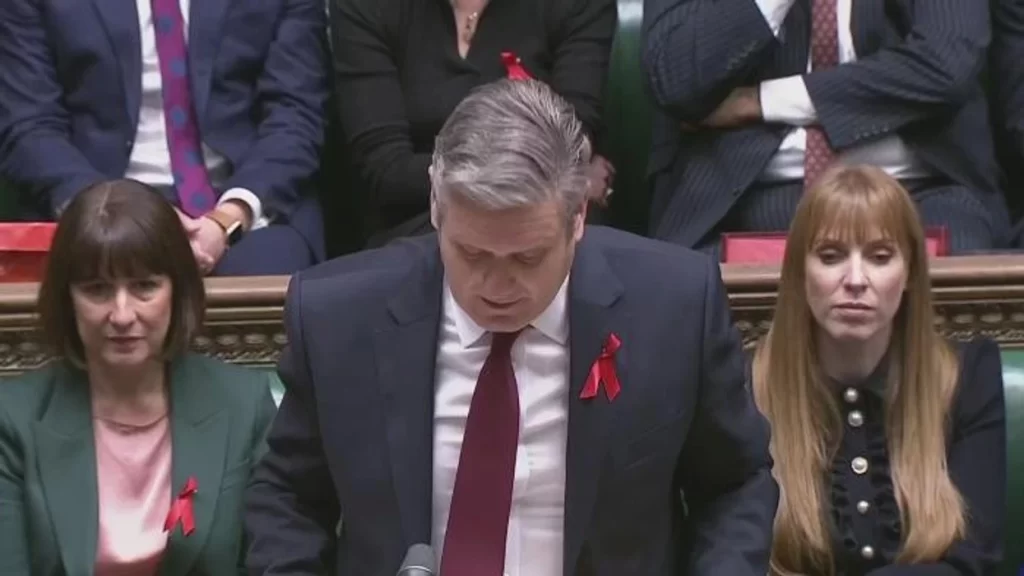
British army told to hand back ‘looted’ Ethiopian treasures in growing reparations row
The British Army has been told to hand back “looted” treasures from Ethiopia in a growing reparations row. After defeating an Ethiopian emperor during an 1868 expedition, regiments and corps plundered his fortress capital of Magdala. The Royal Engineers and Scots Dragoon Guards kept the stolen artefacts that are now stored in their regimental museums. However, the Ethiopian government will now demand the treasures be returned. They will need to persuade unit veterans and serving officers to hand back the items. This comes after The Telegraph revealed that Ethiopian officials were also seeking the return of items which form part of the King’s Royal Collection. Officials in Addis Ababa may approach the Ministry of Defence for assistance with their campaign. These demands will form part of a diplomatic move led by the Ministry of Tourism’s Ethiopian Heritage Authority, which will ask for help from the Labour Government to support returns.
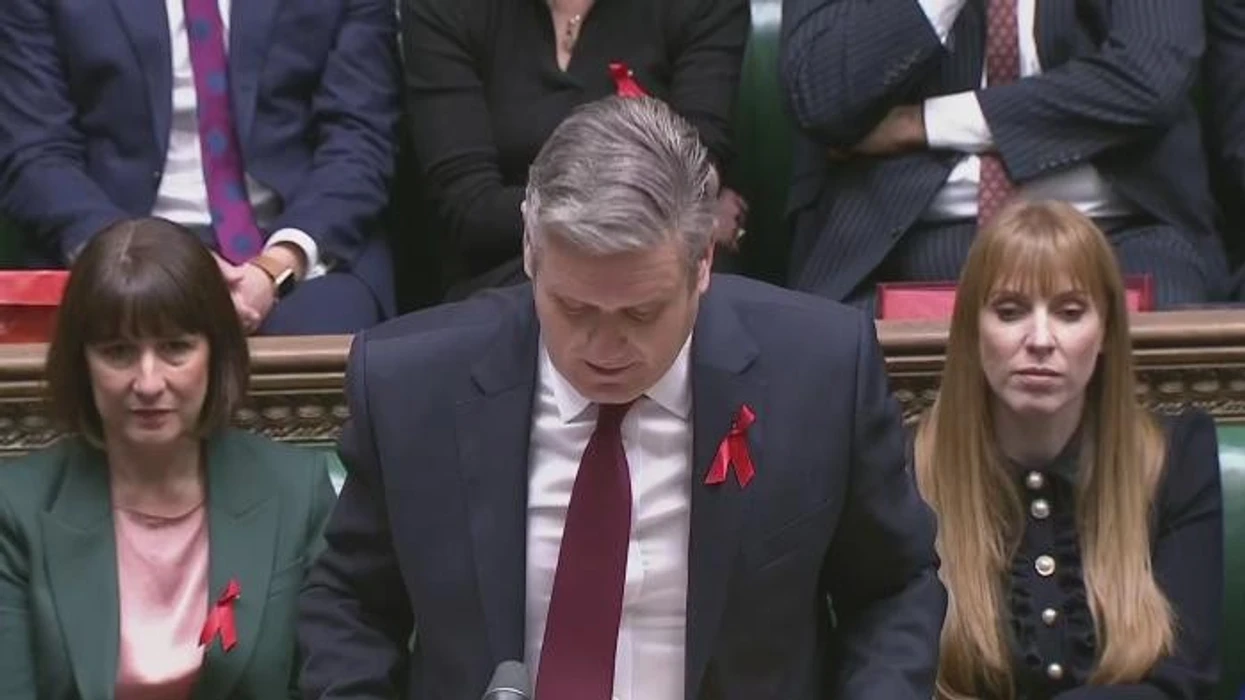

Why Ethiopia’s Forex Bureaus Are Offering Rates Banks Can’t Match
Since the launch of Ethiopia’s foreign exchange bureaus in October 2024, the country has seen a transformative shift in its currency exchange landscape. The shift to a market-based foreign exchange system, coupled with opening of new forex bureaus, is significantly improving access to foreign currency. This transition is helping streamline transactions, reduce reliance on the black market, and foster a more transparent financial environment. As competition among bureaus increases, customers benefit from better rates and more options. Ultimately, this shift is positioning Ethiopia’s financial sector for greater stability and growth. “Forex bureaus play a vital role as intermediaries in Ethiopia’s floating exchange rate system, offering accessible currency exchange points and formalizing previously informal transactions,” said Mustofa Abdella, Business Consultant. He added that these institutions enhance market efficiency by providing competitive rates and convenient services for both individuals and small businesses. With their presence in urban centers, they contribute to building a more robust and transparent forex market infrastructure, which is crucial for the smooth operation of a floating rate system. Furthermore, forex bureaus help direct foreign currency through official channels, potentially reducing reliance on the informal market.

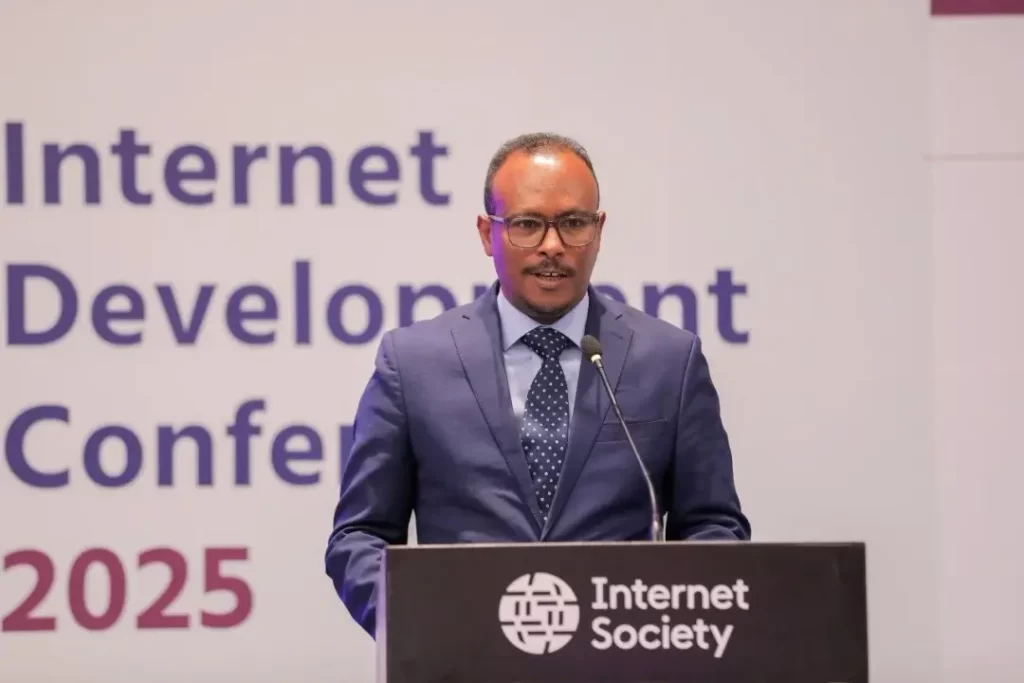
Data Center Oversight Mandate Shifts to Ethiopia’s Communication Authority
As interest mounts in leveraging Ethiopia’s increasing hydroelectric power output, regulatory shifts are underway to accommodate prospective entrants in emerging industries. Balcha Reba (Eng), Director General of Ethiopia’s Communication Authority (ECA), said 11 data centers focused on crypto-mining services have either begun establishing operations or are in the process of doing so in Ethiopia’s ICT park. Speaking to Shega at the sidelines of the Internet Development Conference last week, he revealed that licensing and oversight for data center businesses has shifted from the Ministry of Innovation and Technology to the Authority. “Ethiopia’s weather and access to hydroelectric power make it ideal for data centers,” Balcha told Shega. Ethiopia currently generates around 5,200 MW of power, with the pending completion of the Grand Ethiopian Renaissance Dam possibly doubling the supply at one of the cheapest rates in the world. Last week, Phoenix Group, a cryptocurrency firm listed on the Abu Dhabi Stock Exchange (ADX), signed an 80-mega-watt power purchase agreement with Ethiopia as part of its global strategy to diversify operations. The Director also noted that three organizations, Wingu Africa, Redfox, and Raxio, that provide Data Center as a Service (DCaaS), have begun operations after investing tens of millions of dollars. ECA is increasingly playing a prominent role in Ethiopia’s information, technology, and telecommunications landscape. The Authority was established as an independent agency five years ago through Proclamation 1148/2019. In its short stint, ECA’s powers have expanded to include oversight over Personal Data Protection following the ratification of the landmark bill in April 2024.
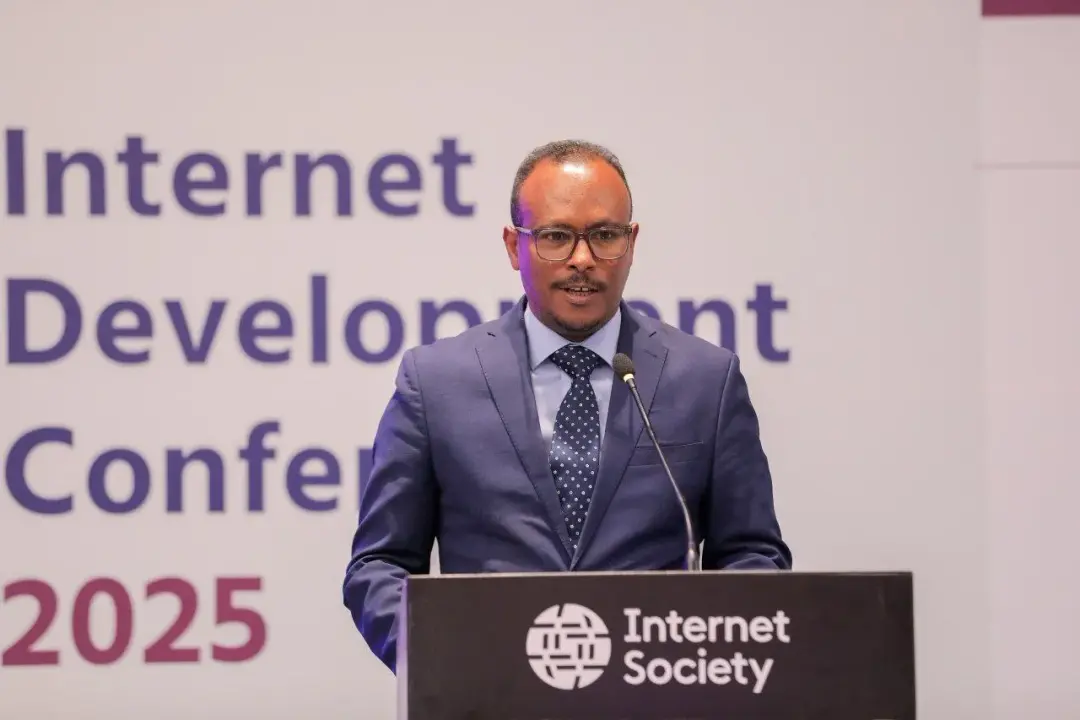

King Charles Could Face Demands to Return ‘Immoral’ Treasures by Ethiopia’s Government
The Ethiopian government will reportedly be demanding that King Charles return "immoral" artifacts that have been kept in Britain since the 1868 Battle of Magdala.
Per a report published by The Telegraph on Friday, Jan. 24, officials in Ethiopia's capital of Addis Ababa will be pushing for the return of items from the Royal Collection as well as treasures kept elsewhere in the United Kingdom, such as the British Museum. The items kept by the King are sacred to the Ethiopian Orthodox Tewahedo Church, per the outlet, which also notes that the government in the United Kingdom will be asked to support Ethiopia's push for the items' return next year.
The Ethiopian Heritage Authority will lead the move for the return of the items alongside the Ethiopian Orthodox Church, according to The Telegraph.
"It is immoral," said the heritage authority's director general Abebaw Ayalew Gella. "You don’t just put them somewhere. They are sacred.”
“A manuscript with illumination is always considered sacred," Gella added, referring to the "illuminated" works. "You don’t even touch them.”

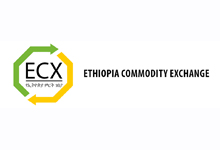
Ethiopian Commodity Exchange Launches Online Trading System to Modernize Trade Sector
The Ethiopian Commodity Exchange (ECX) has launched a new online trading system, marking a significant step in the modernization of Ethiopia’s trading sector. The system was officially introduced by the Minister of Trade and Regional Integration, Kassahun Gofe (PhD), who described it as a transformative initiative designed to enhance efficiency and fairness in the trade system. In a statement, the Minister said: “We announced key trade reforms that will lay the foundation for a modern trading system. We have launched an online trading system developed by the Ethiopian Commodity Exchange today that will fundamentally change the trading system of our country. The new trading system will make the business sector take its due share in our country’s economy. This online trading system ensures fairness and is a great resource for diversifying our export trade. It connects producers and traders directly from anywhere. Modernizing our marketing system will help farmers benefit from an inclusive financial system. It will also help achieve a fast and inclusive economy.

Phoenix Group Signs 80MW Power Deal in Ethiopia to Expand Bitcoin Mining Operations
Abu Dhabi-listed blockchain and cryptomining conglomerate Phoenix Group (PHX.AD) has secured an 80-megawatt (MW) power purchase agreement (PPA) with Ethiopian Electric Power (EEP) as part of its global strategy to diversify operations. This milestone marks the company’s entry into the African market, with energy supplies expected to commence in the second quarter, according to a statement released on Wednesday. The agreement will power Phoenix Group’s bitcoin mining expansion in Ethiopia. While the exact location of the facility and financial terms were not disclosed, the project is being implemented in partnership with Abu Dhabi-based cybersecurity firm Data7. “We are aggressively building out our mining capabilities,” said Munaf Ali, CEO of Phoenix Group. He emphasized that this additional energy capacity will drive further growth as the company works towards a dual listing on Nasdaq. In a separate statement to Reuters, the company revealed ongoing discussions with financial institutions and Nasdaq, though no specific timeline for the listing has been provided.


Starbucks Celebrates Ethiopia’s Coffee Heritage with New Single-Origin Release
Starbucks is spotlighting Ethiopia, the birthplace of coffee, with the release of its newest single-origin coffee. The Starbucks Single-Origin Ethiopia whole bean coffee, sourced from the Sidama region, is now available across North America this winter. This blonde roast offers a unique flavor profile, with floral aromas and notes of tangerine and lemon balm, celebrating the distinctive characteristics of Ethiopian coffee. Ethiopia’s coffee legacy is central to its economy and culture. As Africa’s largest coffee producer, the country plays a vital role in global coffee production, with nearly 25% of Ethiopians reliant on the crop for their livelihoods. The Ethiopian coffee ceremony, a centuries-old tradition, underscores the cultural importance of coffee as a symbol of hospitality and connection. Leslie Wolford, a Starbucks coffee developer, emphasized the importance of this new release: “The blonde roast really highlights the unique flavor range of Ethiopian coffee, enhancing the intrinsic origin flavors that we’re looking to bring forth.” The coffee bag’s design also honors Ethiopian traditions, featuring the Jebena, a traditional black clay coffee brewer central to the Ethiopian coffee ceremony. Behailu Gebremariam, General Manager of Starbucks’ Farmer Support Center in Addis Ababa, expressed pride in Ethiopia’s role in the global coffee scene. “Coffee is everything to me. From meeting farmers and learning from them to supporting coffee production, this is what makes me happy,” Gebremariam said.

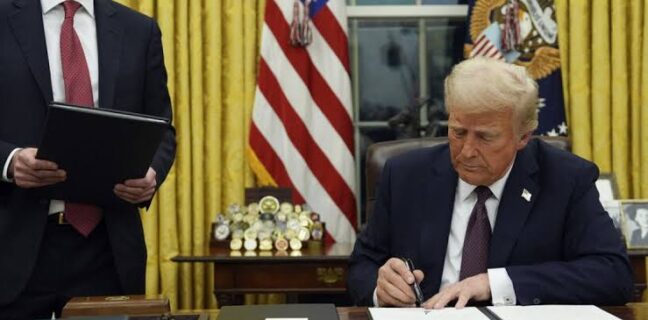
From Birthrights to Aid Freezes: Ethiopia Caught in Trump’s Policy Crossfire
On January 20, 2025, President Donald Trump issued a series of executive orders that have significant implications for both domestic and international affairs. Two notable actions include the termination of birthright citizenship for children of non-citizens and a 90-day freeze on foreign aid to all countries. These measures are poised to impact nations like Ethiopia, both in terms of their citizens residing in the U.S. and the aid they receive. Termination of Birthright Citizenship The executive order aims to end the automatic granting of U.S. citizenship to children born on American soil to non-citizen parents, including those on temporary visas or without legal status. This policy shift challenges the long-standing interpretation of the 14th Amendment, which has traditionally conferred citizenship to anyone born in the U.S. Legal experts anticipate significant constitutional challenges to this order, as the Supreme Court has historically upheld birthright citizenship. For Ethiopian nationals in the U.S., this policy could have profound effects. Children born to Ethiopian parents who are not U.S. citizens or lawful permanent residents may no longer automatically acquire U.S. citizenship. This change could lead to an increase in stateless individuals, complicating their legal status and access to services. Moreover, it may deter Ethiopians from traveling to or residing in the U.S. on temporary visas, impacting educational and professional opportunities.

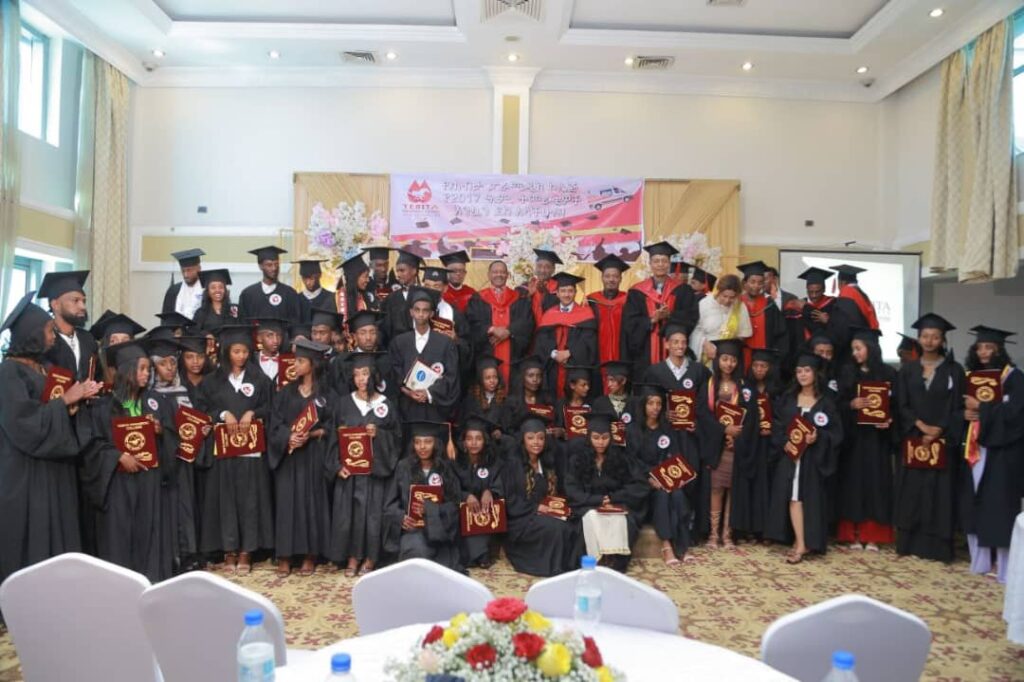
TEBITA Paramedic College Celebrates 2025 Graduation, Marking a Milestone in Ethiopian Healthcare
Addis Ababa, Ethiopia — On January 18, 2025, TEBITA Paramedic College held a memorable graduation ceremony at Nexus Hotel to honor its latest cohort of emergency medical professionals—a momentous occasion marking the third batch of graduates from Ethiopia’s first paramedic college. Established in 2018 through a partnership between TEBITA Ambulance, East Africa Emergency Medical Service Foundation (EAEMSF)—the non-profit wing of TEBITA Ambulance—along with various international collaborators, TEBITA Paramedic College continues to transform the landscape of emergency healthcare training in the country.
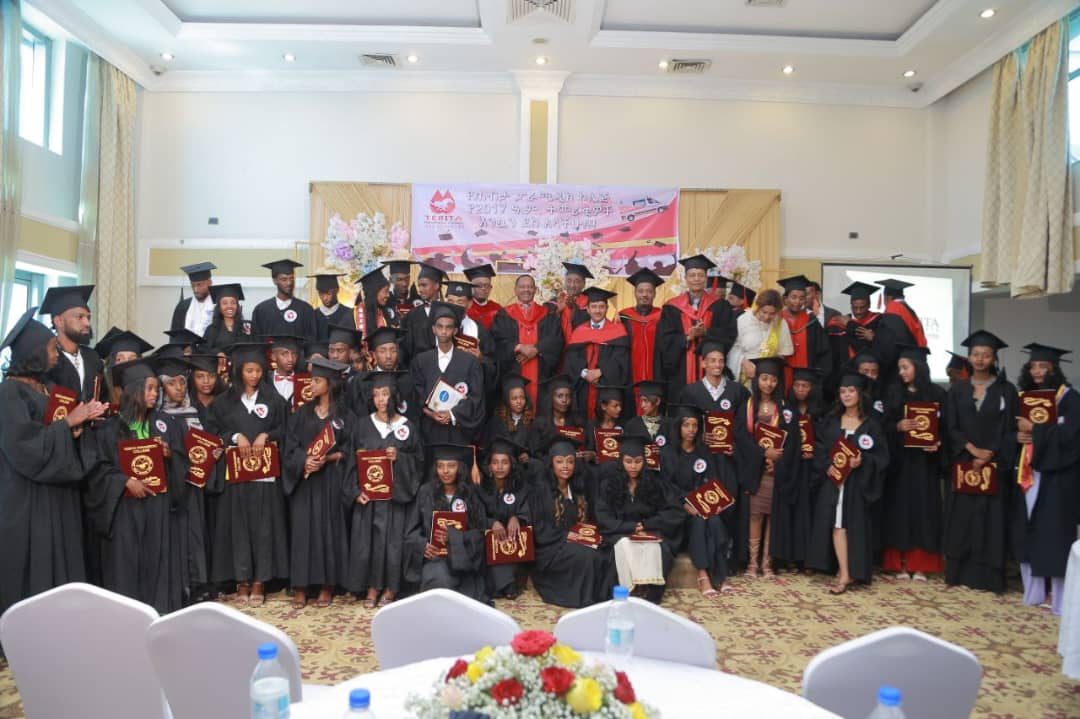 Since opening its doors in January 2018, TEBITA Paramedic College has equipped over 160 Emergency Medical Technicians (EMTs) with the critical skills needed to provide lifesaving support throughout Ethiopia. Many of these trainees come from underprivileged backgrounds, reflecting TEBITA’s commitment to making healthcare education accessible to all. In this third batch, the college admitted 60 candidates on a full scholarship—all of whom could not afford private college tuition. After 20 months of rigorous study and hands-on training, 50 students successfully completed the program, comprising 36 women and 14 men.
Since opening its doors in January 2018, TEBITA Paramedic College has equipped over 160 Emergency Medical Technicians (EMTs) with the critical skills needed to provide lifesaving support throughout Ethiopia. Many of these trainees come from underprivileged backgrounds, reflecting TEBITA’s commitment to making healthcare education accessible to all. In this third batch, the college admitted 60 candidates on a full scholarship—all of whom could not afford private college tuition. After 20 months of rigorous study and hands-on training, 50 students successfully completed the program, comprising 36 women and 14 men.
Honoring Lifelong Contributions to Anesthesia
A highlight of the commencement ceremony was the recognition of Assistant Professor Leulayehu Akalu, who was honored for his lifetime contributions to anesthesia practice in Ethiopia. Serving as the commencement speaker, Professor Leulayehu Akalu congratulated the graduates on their hard work and reminded them of the vital role they play in strengthening the country’s healthcare system.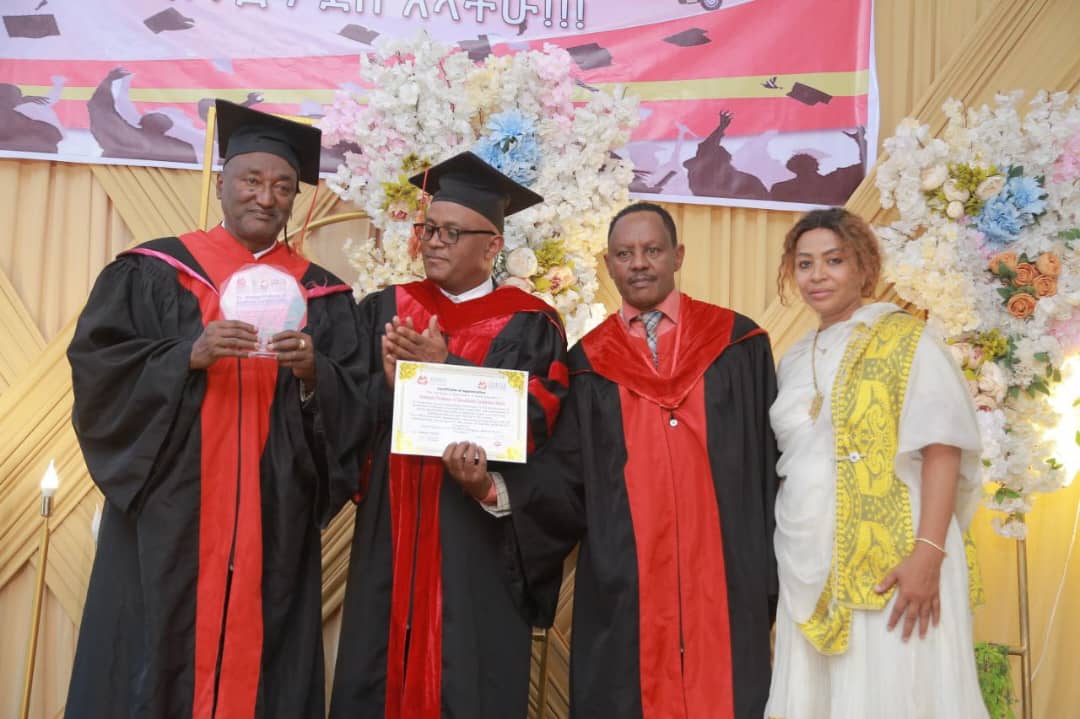
Speakers and Distinguished Guests
Several notable figures delivered remarks and shared their perspectives on the importance of emergency medical services in Ethiopia, including:- Mr. Seleshi Mola – Dean, TEBITA Paramedic College
- Mr. Kibret Abebe – CEO, TEBITA Ambulance and Founder of TEBITA Paramedic College
- Dr. Hassen Hussin – Director, Entrepreneurship Development Institute (EDI)
- Dr. Mulugeta Endale – Deputy Head, Addis Ababa Health Bureau
- Mr. Sirak Gugssa – Deputy Director, Medical Service Directorate, Federal Ministry of Health
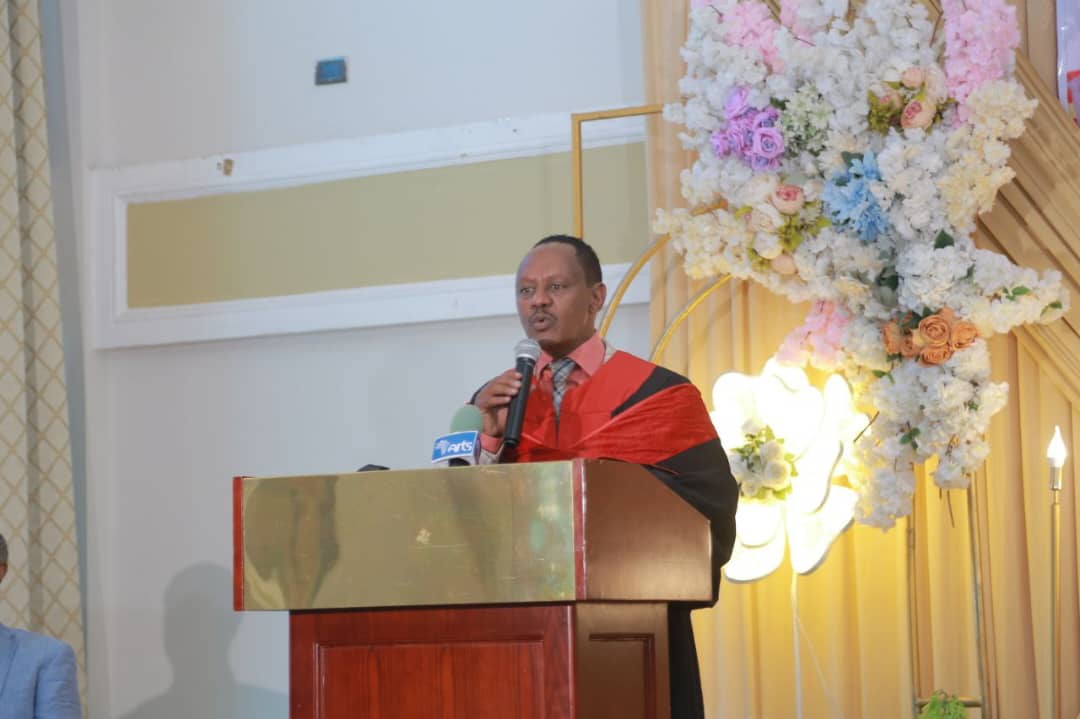
“We remain dedicated to strengthening Ethiopia’s emergency healthcare system by providing our paramedics with the knowledge and skills to save lives. Our continued partnerships with local and international institutions ensure that we can train even more life-saving professionals, many of whom could not otherwise afford such an education.”
Looking to the Future
Plans are already in place to welcome another 60 students for the fourth batch, further solidifying TEBITA’s role as a driving force in Ethiopian emergency healthcare services. As TEBITA Paramedic College embarks on its next chapter, it remains committed to its founding vision:- To cultivate a robust emergency medical response system, and
- To empower the next generation of healthcare professionals, positioning Ethiopia at the forefront of life-saving medical innovation.
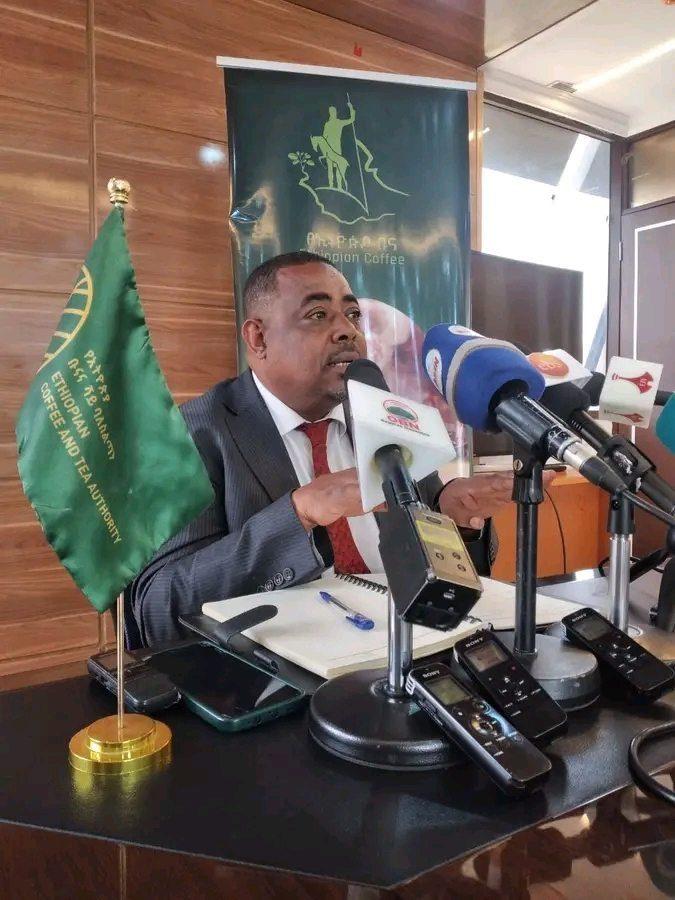
Ethiopia’s Coffee Exports Hit $988 Million in Six Months, Powered by Nekmet’s Global Surge
Key Takeaways
-
- Ethiopia exports 240,260 tons of coffee in six months, hitting 153% of planned volume
- Revenue totals $988 million, surpassing a $714 million target by 127%
- Nekmet, along with Sidama, Jimma, Yirgacheffe, and Limu, accounts for 90% of foreign coffee sales
- Germany, Belgium, and Saudi Arabia stand out as top buyers
Ethiopia’s Coffee Boom
Ethiopia’s coffee industry is enjoying a remarkable run, posting robust gains in both export volume and earnings over the past six months. According to the Ethiopian Coffee and Tea Authority, the country shipped 240,260 tons of coffee—far outpacing the official target of 133,063 tons—and generated $988 million in revenue, well above the $714 million forecast for the period.“We’re seeing the impact of operational improvements and strong global demand,” says Shafi Umer, Deputy Director-General of the Ethiopian Coffee and Tea Authority. “Coffee continues to be the backbone of Ethiopia’s export strategy.”
Nekmet’s Rising Star
One of the biggest drivers of this exceptional performance has been Nekmet coffee, a fast-emerging brand that is increasingly dominating Ethiopia’s coffee landscape. Alongside established varieties like Sidama, Jimma, Yirgacheffe, and Limu, Nekmet now accounts for 90% of total coffee exports. Industry insiders point to Nekmet’s distinctive flavor profile and consistent quality as key factors behind its surge in global markets.
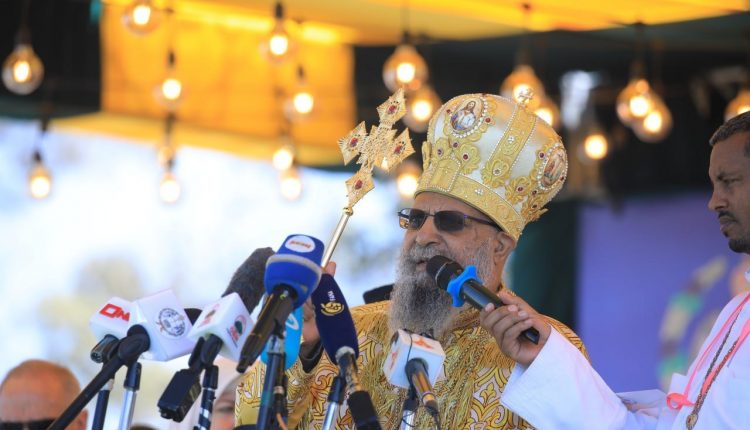
Epiphany celebration underway across Ethiopia
Ethiopia celebrates Epiphany as is the case with other countries with orthodox Christian religious traditions. The celebration is a three days open air event besides liturgical practices. It is being celebrated across the country. So far no security incident is reported despite there being a concern after the government announced that it might use drones for security operations during the celebration. In the capital Addis Ababa, it was celebrated in Janmeda in the presence of His Holiness Abune Mathias, Patriarch of the Ethiopian Orthodox Tewahedo Church. The celebration in Gondar usually attracts millions of people from across Ethiopia as well as tourists from abroad. Despite the ongoing war in the region, the celebration in Gondar was still colorful. Normally, Timkat attracts hundreds of thousands of tourists from outside of Ethiopia but that is not happening – apparently due to the security situation in the country. His Holiness Abune Mathias called for peace and unity in the country. He sees that everyone has a role to play towards achieving those goals. The Catholic Church in Ethiopia has also celebrated the holiday.

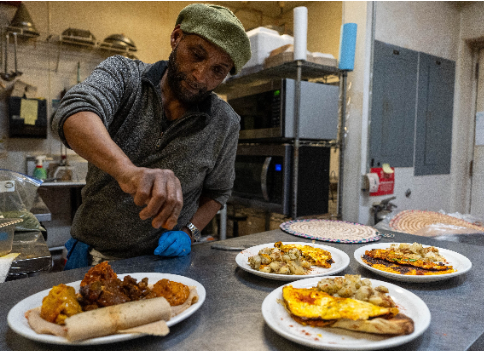
How some of the city’s most authentic ingredients journey to Anchorage
Greek olive oil from ancient trees, imported by air freight. Ethiopian spices driven more than 2,000 miles. Mexican banana leaves shipped in from a friend in California. Alaska wild berries crowdsourced from across the state.
In Anchorage, where school district students’ combined 112 languages is often cited as a metric of diversity, the city’s various identities are also reflected through culturally specific foods.
Some restaurant and business owners put in extra effort to bring authentic ingredients from the source, in spite of far distances.
Hand-picked ingredients
Inside the Midtown Queen of Sheba Ethiopian Restaurant, a blooming smell of spices looms in the air. It smells just like Ethiopia, said employee Nile Monfe, who was born in the country before immigrating to the States as a child.
That’s because chef and restaurant owner Dawit Ogbamichael cooks with the real deal: imported Ethiopian ingredients, backed by the cultural knowledge of how to prepare them.
“Everything we make is from scratch,” said Ogbamichael, who moved to Anchorage two decades ago. “But every ingredient we use, there aren’t any major retailers here that (carry) our ingredients. That’s the problem.”


Ethiopia’s GDP Drops to $100 Billion Following Currency Devaluation
Ethiopia’s nominal GDP, measured in US dollars, fell drastically from $207 billion in June 2016 E.C. (2024 G.C.) to $100 billion by September 2017 E.C. (2024 G.C.), according to the Ministry of Finance’s quarterly government debt report. This significant decline is attributed to the introduction of a market-based foreign exchange trading system in Hamle 2016 E.C. (July 2024 G.C.). The revaluation of the Ethiopian birr led to a sharp reduction in the country’s GDP when converted to dollars. The GDP figure, which stood at $207 billion a month before the currency adjustment in Sene 2016 E.C. (June 2024 G.C.), dropped to $100 billion within three months. As a result of these changes, Ethiopia’s total public debt-to-GDP ratio rose from 32.9% in June 2016 E.C. (2024 G.C.) to 50.3% by September 2017 E.C. (2024 G.C.). The government’s external debt grew from $28.8 billion to $31 billion during this period, fueled by the exchange rate adjustment and new loans totalling $1.6 billion from the International Monetary Fund (IMF) and the World Bank. The report highlights that the external debt stock increased by 7.5%, and the external debt-to-GDP ratio more than doubled, rising from 13.9% in June 2016 E.C. (2024 G.C.) to 30.9% by September 2017 E.C. (2025 G.C.). This exceeded the 30% ceiling recommended by the IMF and the World Bank for low-income countries.

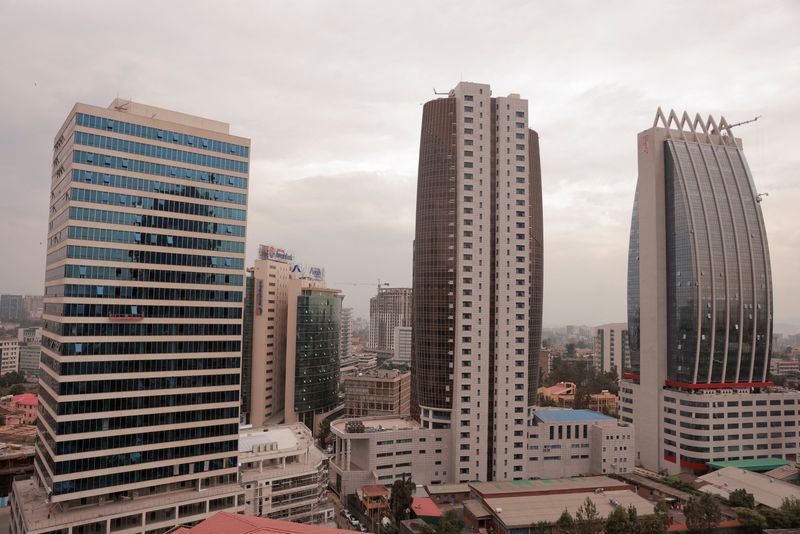
IMF’s board approves second review of Ethiopia’s $3.4 billion program
WASHINGTON (Reuters) - The executive board of the International Monetary Fund on Friday approved the second review of Ethiopia's current financing program, the fund said, paving the way for a disbursement of about $250 million. The East African nation struck the four-year, $3.4 billion program deal last July, after it undertook far-reaching reforms including the floatation of its birr currency, to enable it to try to put its debt restructuring back on track. "The authorities continue their efforts to restore debt sustainability and are taking steps to secure a debt treatment. The progress made on debt restructuring negotiations under the Common Framework is welcome," the IMF said in a statement. "The financing assurances received, and adjustment efforts made are consistent with IMF policy requirements and program parameters." The Fund's staff and the government reached agreement on the second review in late November. The IMF has assessed that Ethiopia's economy has fared better than expected under the reform program, with projected surge in inflationary pressure failing to materialise and hard currency reserves rising faster than the envisaged rate. After unusually fast reviews of Ethiopia's programme that were aimed at closely monitoring the impact of the reforms, the IMF said in November it would switch to the conventional six-month review schedule.


Ethiopia’s Biggest Private Insurer Integrates MPESA
Awash Insurance has entered a strategic partnership with Safaricom that enables the integration of its services on the MPESA payment platform. Customers will now be able to make premium payments, and other insurance-related transactions directly via M-PESA. The latest partnership is a significant milestone for the payment operator’s services in Ethiopia which entered into a similar agreement with Nyala Insurance a few weeks back. While the M-PESA service is integrated into several Ethiopian banks, it recently began to establish partnership with insurers. “We are confident this partnership will enable Awash Insurance to offer its customers a seamless experience for making insurance payments and streamline its operations by leveraging M-PESA’s mobile payment solutions,” said Elsa Muzollini, CEO of Safaricom M-PESA. Awash recently celebrated three decades of operations in Ethiopia’s insurance industry as it capped off a year marked by nearly 902-million-birr profits. The insurer has also managed to raise its paid-up capital to 2.5 billion birr which rivals some of the country’s smaller banks. Ethiopia has one of the smallest insurance penetration rates in the world, with less than 1% of the over 120 million citizens being insured. While 18 insurance companies operate in the country with assets close to 40 billion birr last year, over half of the coverage is either for motor or maritime insurance. “By integrating M-PESA's trusted mobile payment platform, we are making insurance services more accessible, efficient, and convenient for everyone, as the digital era demands tailored services without complications,”said Jibat A. Faji, CEO of Awash Insurance.

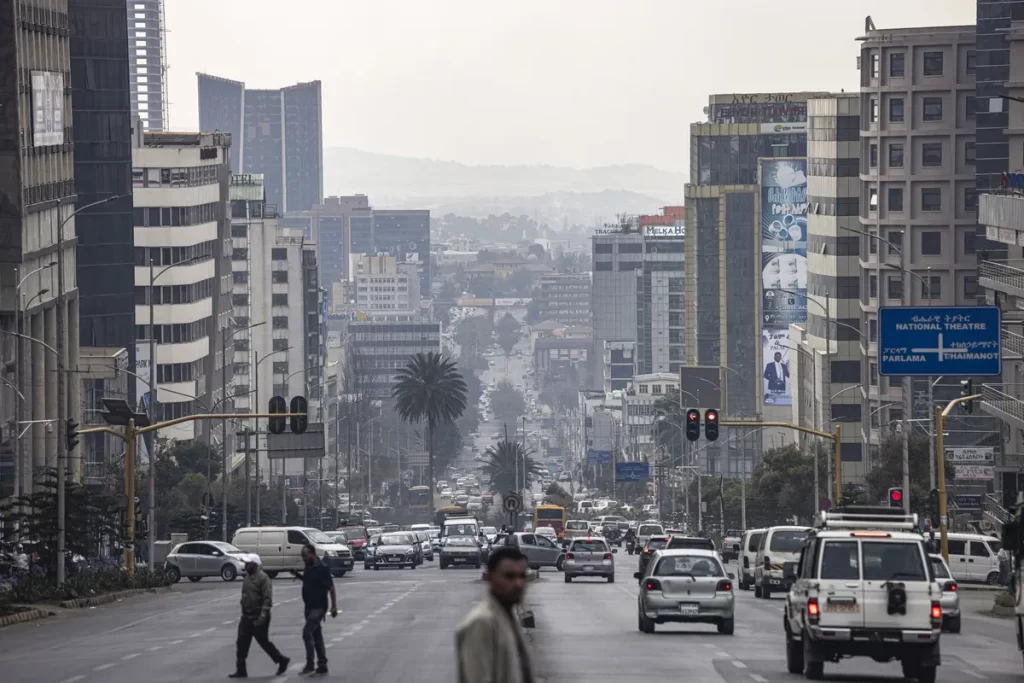
IMF Board to Discuss Ethiopia’s Next Disbursement on Friday
The International Monetary Fund’s executive board of directors is scheduled to meet this week to discuss Ethiopia’s latest review under a $3.4 billion loan.
The formal meeting for the extended credit facility is set for Jan. 17, and will pave the way for the completion of the second review of the program, after the Washington-based lender announced a staff level agreement last year. A spokesperson for the IMF confirmed that the board is set to meet on Friday.
If approved by the board, the review would allow the disbursement of more than $250 million.
The latest review doesn’t mention an agreement in principle between the government and its official creditors on a debt rework, according to people familiar with the matter, who asked not to be named because the details aren’t public.
“Key milestones have been reached under the Common Framework process, and IMF staff assess that sufficient progress has been made to recommend approval of the review to the Board,” the IMF said in response to Bloomberg questions, without providing further details.
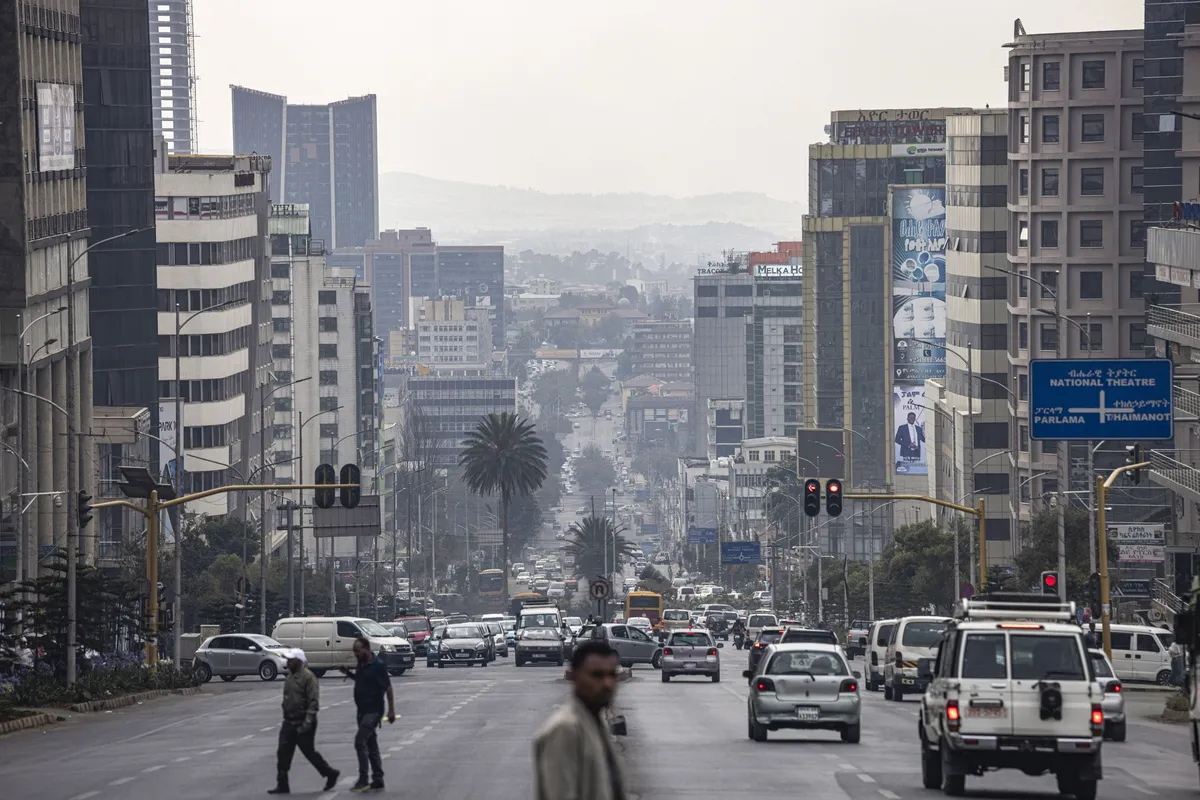
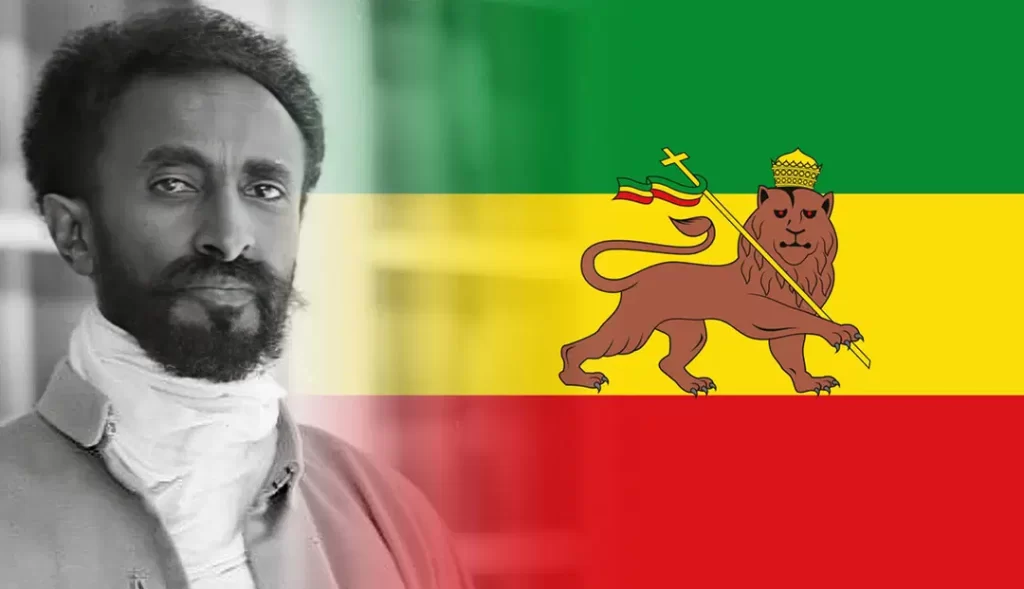
Haile Selassie: Divinity or Despot?
An iconic figure in African history, Haile Selassie is remembered as a powerful and progressive politician who modernized Ethiopia. His policies earned him much reverence and the attention of Black leadership outside the country. Not only was he an emperor, but for some, he is considered a god.
Yet his rule was anything but peaceful. His legacy is one of many paradoxes and contradictions. Born on July 23, 1892 in the village of Ejersa Gora in Ethiopia, Lij (child) Tafari Makonnen could trace his lineage back to Menelik I, who was, according to legend, the son of King Solomon and the Queen of Sheba. Tafari’s mother, Woizero (lady) Yeshimebet Ali Abba Jifar, was the daughter of a chief from Wollo province. His father, Ras (duke/prince) Makonnen Wolde Mikael Wolde Melekot, was of royal lineage, a military leader, and the governor of Harar. Tafari’s claim to the throne was through his paternal grandmother, Tenagnework Sahle Selassie, who was an aunt of Emperor Menelik II and the daughter of King Sahle Selassie, the Solomonic Amhara King of Shewa. When Tafari’s father died in 1906, Tafari was raised in the court of Menelik II, who did not have a direct male heir. His only son had died at the age of 15. Growing up in the imperial court, Tafari was given a good education, and he learned about the subtleties and intrigue of political life. Tafari was hardworking and attentive and gained much recognition from Menelik II. By the age of 14, Tafari had been promoted to governor of Gara Muleta in the Harar province, and by the age of 20, he was appointed commander of the province of Sidamo.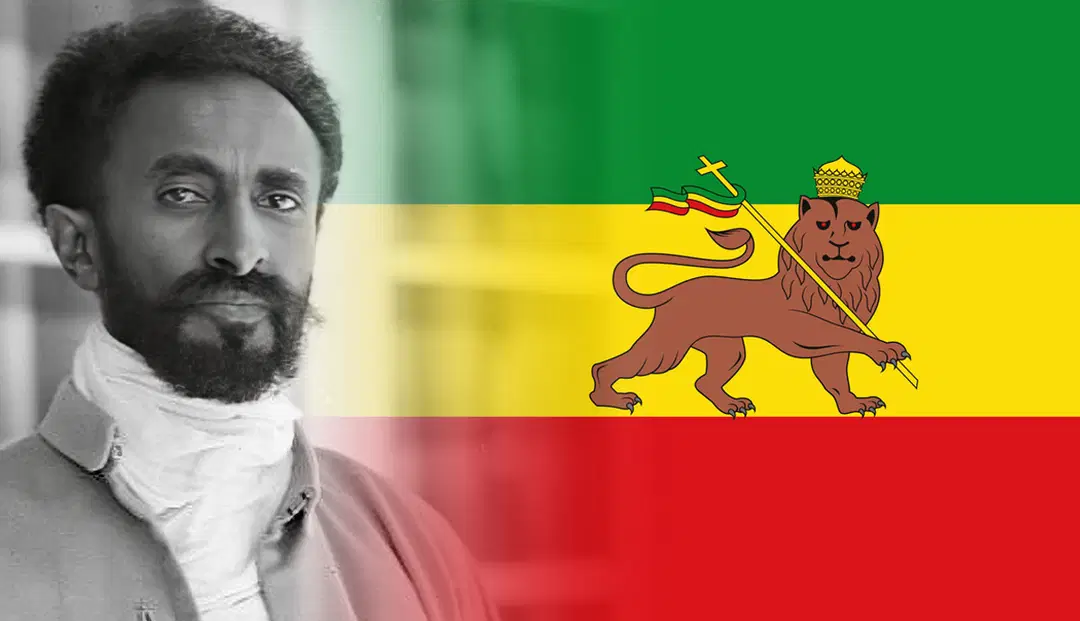
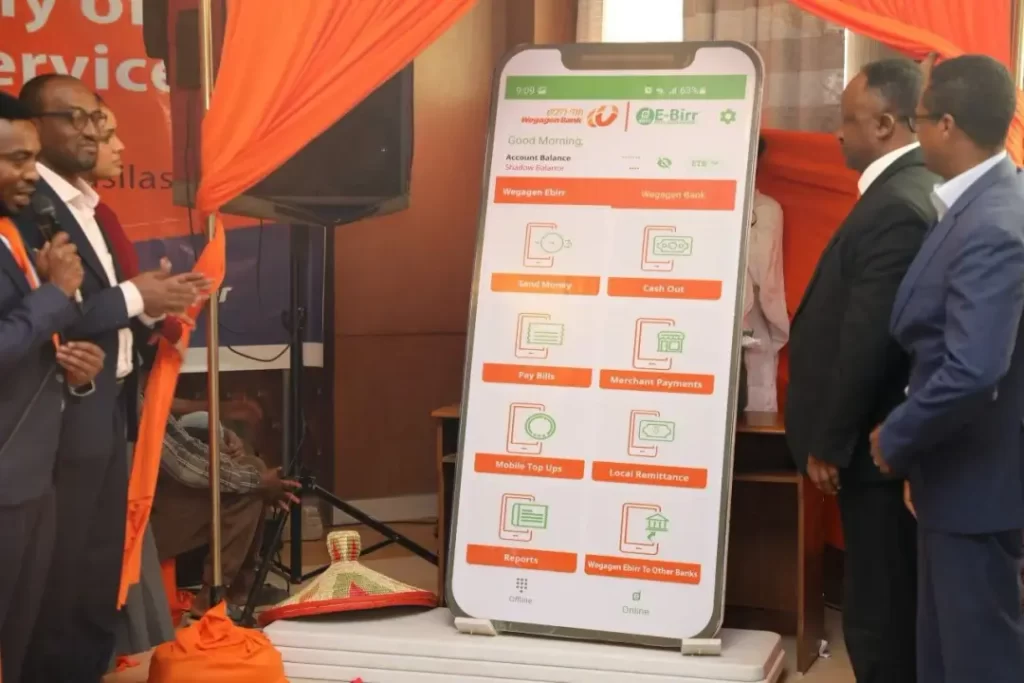
Wegagen Bank Drops HelloCash in Favor of E-Birr
Wegagen Bank has partnered with E-Birr to launch a new mobile money service, replacing its previous collaboration with BelCash. The service, unveiled on Tuesday, allows users to open wallet accounts, transfer funds, and make payments via a mobile app or by dialing the USSD code *602#. Yehwalashet Zewdu, Deputy CEO of Enterprise Services at Wegagen Bank, highlighted the potential of this service during the official launch event held in Shire, Tigray Regional State. E-Birr Mobile Financial Services is a telecom value-added and mobile financial services provider established in 2016. The firm partners with financial institutions to offer its mobile money platform, E-birr. Collaborators include the Cooperative Bank of Oromia and Kaffi Microfinance Institution. E-Birr has facilitated transactions exceeding 2 trillion birr and had 18.2 million users as of June 2024. Belcash Technology Solutions, a tech company in the same field, had been the technology partner of Wegagen's mobile money platform since 2018. Under the HelloCash brand, the two provided the platform, similar to Belcah's collaborations with other institutions like Lion Bank. However, according to Fisseha Wube, Senior Marketing & Communications Officer at Wegagen Bank, the partnership with E-Birr replaces the HelloCash platform. “Wegagen HelloCash has ceased operations as of November 4, 2024,” Fisseha stated, adding that the decision to dissolve the partnership stemmed from a lack of financial viability.
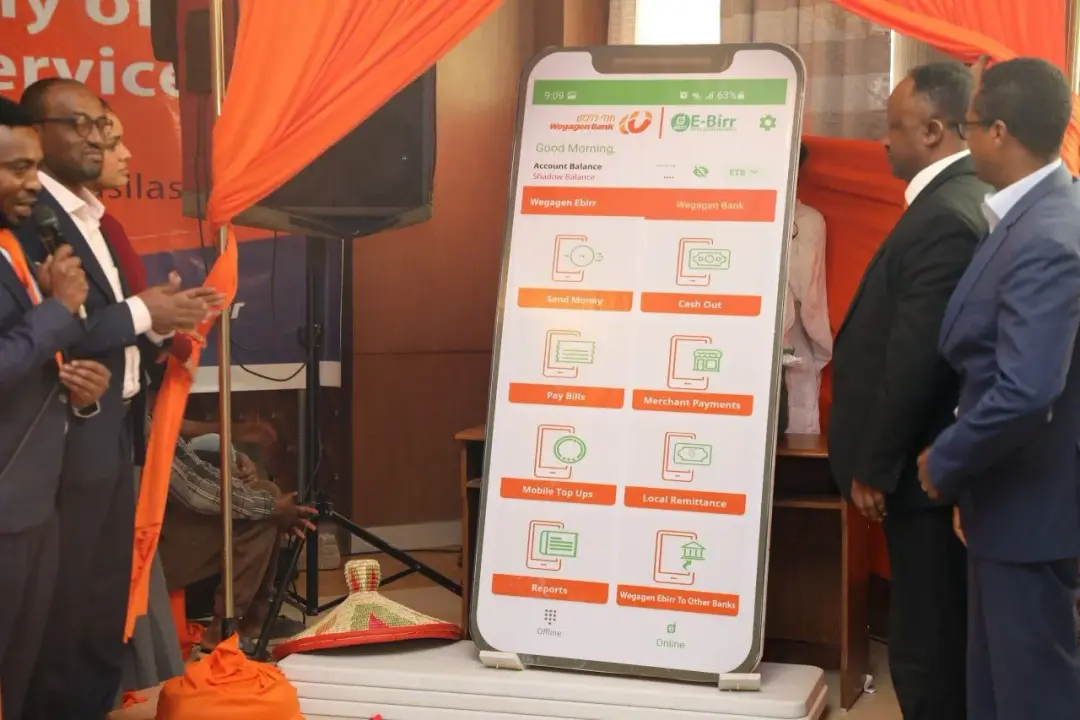

Ethiopia’s Parallel Forex Rate Surges to 150 ETB, Testing Government Reforms
Ethiopia’s forex parallel market continues to experience significant volatility, with the rate soaring to 150 ETB per USD, a sharp increase from the 130 ETB per USD recorded just two weeks ago. This fluctuation underscores the challenges of aligning the official and parallel exchange rates, despite ongoing efforts by the government and commercial banks to stabilize the market. As part of a broader economic policy reform agreed with the International Monetary Fund (IMF), the liberalization of the forex market was intended to close the gap between the official and parallel markets. The shift to a floating exchange rate was also intended to enhance market transparency, increase liquidity, and reduce reliance on informal trading. However, although the forex reserve has improved, the rise in parallel market prices underscores the ongoing challenge of balancing the supply and demand for foreign exchange. Commercial banks have intensified efforts to attract remittances, a crucial source of foreign exchange for the country. One prominent initiative is the “CashGo” mobile application, developed by EagleLion, which allows Ethiopians living abroad to send money back home quickly and securely. The app is supported by major Ethiopian banks, including the Bank of Abyssinia, Commercial Bank of Ethiopia (CBE), and Dashen Bank. While CashGo is a key part of the push to channel remittances through formal banking channels, the growth in remittance inflows, rising by 24 percent over the past three months, can be attributed to a broader set of efforts by both the government and commercial banks to promote formal remittance systems.

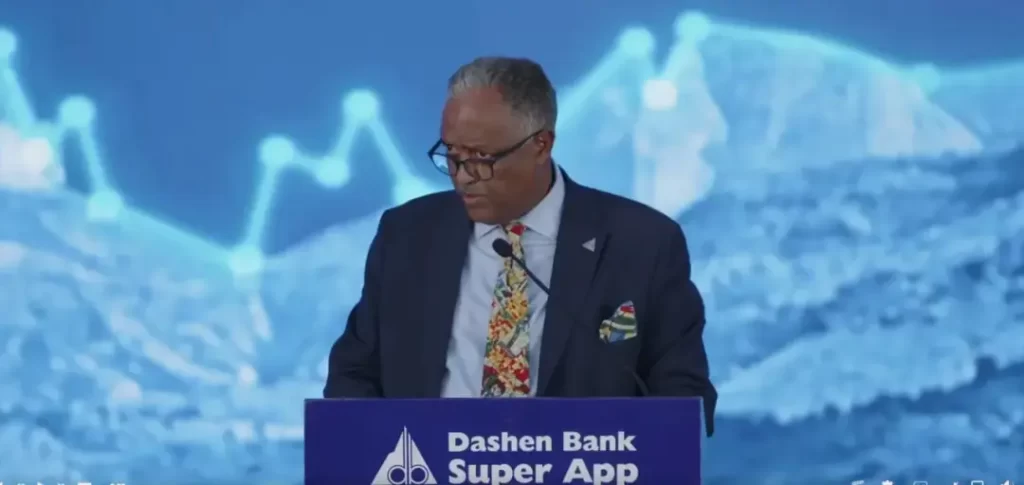
Dashen Bank Unveils Ethiopia’s First Banking Super App
Dashen Bank has launched a banking super app, providing an all-in-one banking solution that is a first for Ethiopia’s banking sector. Developed in partnership with EagleLion System Technology, the bank celebrated the app's launch during a high-profile event on Tuesday night at the Sheraton Addis Hotel. According to the bank, the supper app is designed for "speed, reliability, and customer satisfaction." The app integrates personal and business banking into a single intuitive platform, offering features such as access to multiple accounts and a range of Sharia-compliant, interest-free banking options. Additional functionalities include a budget management tool, chat features, and third-party merchant integrations branded as "Three Click Shopping," enabling customers to purchase products and services with just three clicks. The super app is being rolled out in phases. The second phase will introduce microloans based on transaction history. An AI-powered self-onboarding process that verifies customer identity is also in the pipeline. Currently, users must visit branch offices to activate their accounts. "With the Dashen Bank Super App, we are enhancing our digital banking services. We remain committed to delivering innovative, up-to-date, and reliable digital banking solutions in collaboration with strategic partners,” said Asfaw Alemu, CEO of Dashen Bank. In November 2024, the National Bank of Ethiopia approved digital (remote) customer onboarding for opening bank accounts, provided all required information is collected.

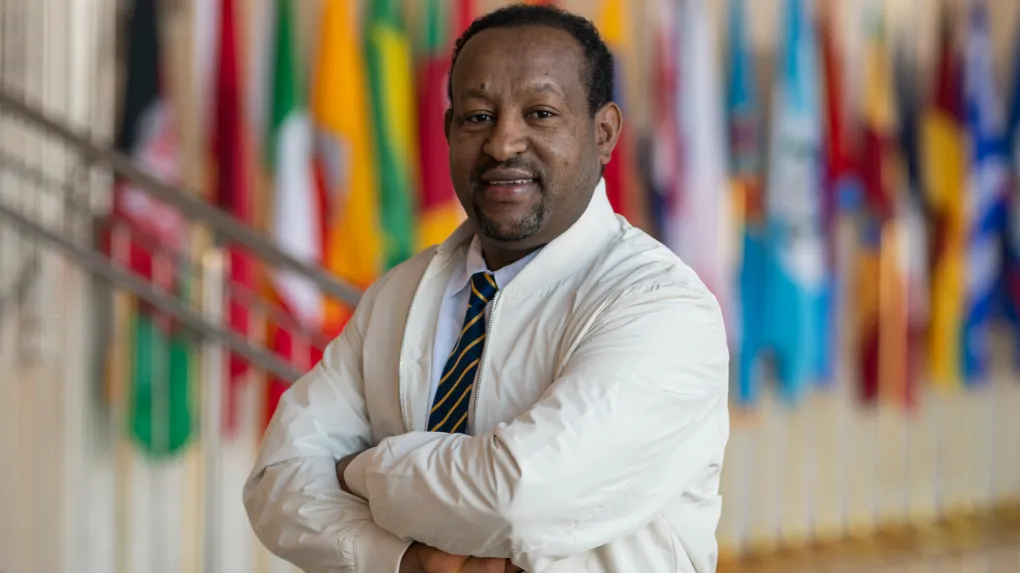
Amsalu Kassaw, an Ethiopian-American, takes a seat on Aurora’s council under the spotlight of immigration politics


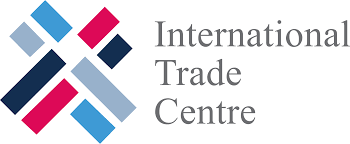
Science, Technology and Innovation Strategy in Ethiopia to empower economy
A new Science, Technology, and Innovation Policy aims to boost the country’s innovation rankings and drive sustainable growth. It’s an ambitious strategy focusing on top national priorities such as human capital, research, local innovation, and more. Ethiopia has finalized its Science, Technology, and Innovation (STI) Policy Implementation Strategy, marking a critical step in empowering the country’s home-grown economy and innovation efforts. Approved in 2022 by the Council of Ministers, the strategy aligns with national priorities, including Digital Ethiopia 2025. It was developed through a collaborative process, with support from the International Trade Centre’s Netherlands Trust Fund V (NTF V), which looks at driving systemic change in the country’s innovation ecosystem. Ethiopia’s position in the 2024 Global Innovation Index dropped by five places to 130th, with room for improvement in human capital, research, and market sophistication. The rankings highlight the need for stronger innovation infrastructure, better research funding, and improved private sector engagement. The NTF V project played a pivotal role in developing the STI Implementation Strategy. Over the course of a year, the project leads engaged more than 100 stakeholders, conducted workshops, and incorporated inputs from government, academia, and private sector representatives. The process also produced three sector-specific case studies and outlined mechanisms for measuring policy impact.


Air Arabia launches new non-stop flights to Ethiopia
Air Arabia, the Middle East and North Africa’s first and largest low-cost carrier (LCC) operator, announced the launch of its new non-stop flights to Addis Ababa, the capital city of Ethiopia. Starting 30th January, the new service will connect Sharjah International Airport with Addis Ababa Bole International Airport with a frequency of three times a week on Tuesdays, Thursdays and Saturdays. Schedule to Addis Ababa, effective January 30, 2025 (all times local):
| Flight | Departure | Time | Arrival | Time | Aircraft | Frequency |
| G9 738 | Sharjah | 21:25 | Addis Ababa | 00:40 | Airbus A320 | Tuesday/Thursday/Saturday |
| G9 739 | Addis Ababa | 01:30 | Sharjah | 06:40 | Airbus A320 | Tuesday/Thursday/Saturday |


This Ethiopian Online Platform Offers Building Designs for Sale
A civil engineer has debuted his second online platform, AddisCAD, which targets bottlenecks in the construction industry, this time tackling design hassles. The platform began offering its services two months back, featuring complete designs and customizable templates for prospective builders. Founder Mecha Teshome hopes to see the platform grow into a reliable portal where professional engineers and designers can sell their creations. “Ideas and insights can be generated by interacting with the platform,” Mecha told Shega. The Bahir Dar University alumnus predicts future evolutions in Ethiopia’s construction industry based on the successful adoption of technology. He expects the availability of design options to relieve prospective builders from the pressure of rushing into a project without having a design that fully meets their goal. The platform features comprehensive building models and interior design options for completed projects. Mecha is also the one behind the Addis Cost Estimator platform, which provides detailed cost breakdowns for people undertaking a construction project. Despite being trained as an engineer, the ambitious founder began developing platforms after attending courses from ALX Africa. Research shows that the Ethiopian construction industry is plagued by project delays partly stemming from incomplete planning, lack of capacity, and cost fluctuations. Recent efforts by the Construction Management Institute have included introducing tools like Building Information Modelling (BIM), software that integrates design, construction, budgets, and schedules into one central platform.

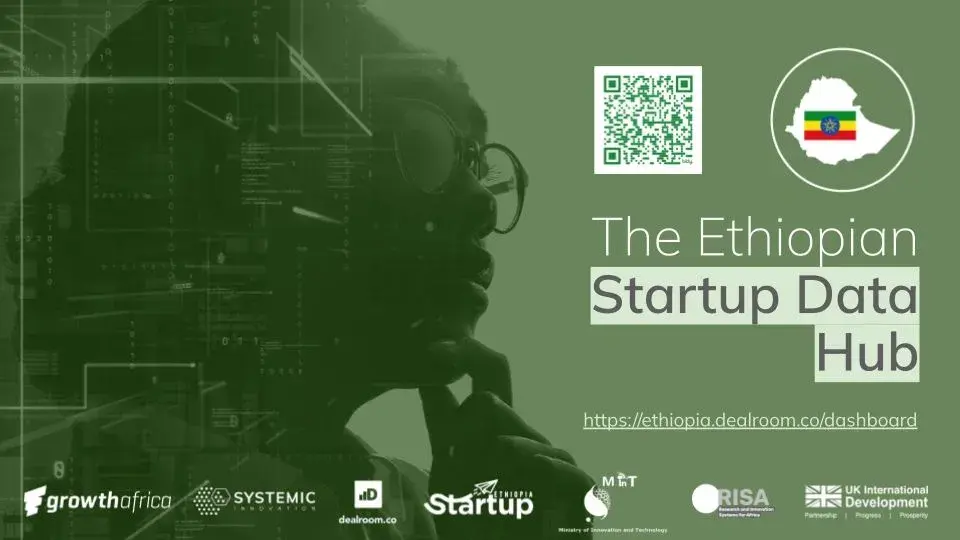
Total Valuation of Ethiopian Startups Passes $300M
A new insight report on Ethiopia’s startup landscape reveals the concentration of funding in a few standout firms while the ecosystem combined has a total enterprise valuation of $302 million. The Report prepared by GrowthAfrica and Systemic Innovation under an FCDO-supported Research and Innovation Systems for Africa (RISA) Fund project relays interesting figures into Ethiopia’s entrepreneurial ecosystem. After assessing data compiled from 562 companies, of which 489 are startups, through Dealroom, the Report indicates that no firms crossed the $200 million valuation until 2024. Companies founded between 2015 and 2020 are key drivers of value, starting with a modest $6 million value in 2016, growing to $157 million by 2019, and peaking at $182 million in 2022. The report, dubbed The State of Startup Innovation in Ethiopia, also explores investment trends, employment contributions, enterprise valuations, and sector-specific activity. However, it includes businesses that may not fully meet the definition of a startup. Scott Walker, CEO of Systemic Innovation, explained in an email to Shega that the report aims to present a holistic view of the entrepreneurial ecosystem. According to Walker, startups defined as firms less than 10 years old were the primary focus, as requested by the government. “Our approach also considers the broader ecosystem by utilizing Total Enterprise Value (TEV), a globally recognized standard, to ensure consistency across businesses of varying sizes and stages,” he stated.

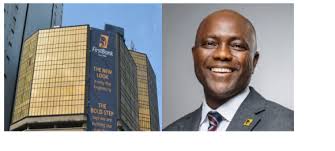
Expanding footprint: Nigeria’s FirstBank sets sights on Ethiopia, Angola, Cameroon
Building on its long-standing presence in sub-Saharan Africa, First Bank of Nigeria Limited is gearing up for its next growth phase as financial systems across the continent open up new opportunities. More than a decade after an acquisition spree that boosted its footprint in sub-Saharan Africa, First Bank of Nigeria Limited is looking to expand into several other countries, including Ethiopia, Angola and Cameroon. “There are a number of large economies with large banking pools that are of interest to us because their financial markets are opening up,” Deputy Managing Director, Ini Ebong told The Africa Report in December on the sidelines of the Africa Financial Industry Summit (AFIS). So, you look at countries like Ethiopia and Angola. In francophone West Africa, we want to expand our presence in places like Côte d’Ivoire and Cameroon. The market opportunity is there, and we seek to continue to exploit it,” said Ebong. Ethiopia, Africa’s second most populous country, is poised to partially open its banking sector to foreign banks following a vote by lawmakers in December. The new banking law, passed by a majority in parliament, allows foreign banks to open subsidiaries in Ethiopia. Foreign firms will only be allowed to own 49% of shares, according to the Ethiopian news magazine Addis Standard. Speaking during a panel session at AFIS, Ethiopia’s central bank governor Mamo Mihretu said the country had been working on the legislation that would finally open the banking sector to foreign competition over the past one year. After the ratification of the legislation by the parliament, the largest economy in East Africa is “open for business” for any banks looking to come into the country, according to Mihretu.

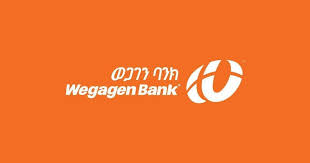
Wegagen Bank Becomes First Company Listed on Ethiopian Stock Exchange
January 10, 2025 – Wegagen Bank has officially become the first company to list on the Ethiopian Stock Exchange (ESX), marking a historic milestone in Ethiopia’s financial sector. The announcement was made during the ESX launch ceremony at the Science Museum in Addis Ababa, attended by Prime Minister Abiy Ahmed (PhD) and other senior government officials. By meeting the necessary listing requirements, Wegagen Bank has taken a major step toward modernizing its operations and leveraging the opportunities of Ethiopia’s emerging capital market. The listing provides the bank with a structured, technology-driven platform to raise additional capital, offering shareholders real-time market pricing, access to crucial financial information, and secure share trading options. This achievement follows the bank’s strategic efforts to align with recent financial sector reforms. Wegagen Bank collaborated with international consultants to explore its capital market opportunities and invested in capacity-building programs, including training and experience-sharing initiatives for its board, management, and employees. In a statement, the bank reaffirmed its commitment to fulfilling market obligations and contributing to the growth of Ethiopia’s capital market. It also expressed pride in being a pioneer in this new financial landscape, pledging to create further investment opportunities as the country’s financial sector evolves.

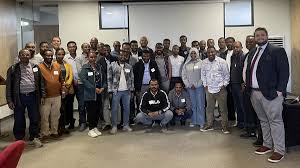
Pharmacy school launches leadership course in Ethiopia
The UNC Eshelman School of Pharmacy, in partnership with Addis Ababa University and the co-director of the UNC-Ethiopia Alliance, Benyam Muluneh, recently launched a leadership program for pharmacy administrators in Ethiopia. Led by pharmacy faculty members Michael Stepanovic, Kathryn Morbitzer and Stephen F. Eckel, the pharmacy administration and leadership short course training program is designed to enhance pharmacy administration and leadership skills within Ethiopia’s dynamic health care sector. “After a recent visit from pharmacy students, and a discussion with Dr. Muluneh, we realized hospitals are underutilizing trained clinical pharmacists,” said Eckel. “In an effort to counter that, this leadership training program is focused on growing the abilities of pharmacy administrators, with the long-term hope that these skills will assist in the growth of clinical pharmacy.” The program commenced with an in-person kickoff in September in Addis Ababa, where Stepanovic and Eckel conducted workshops and lectures focusing on pharmacy administration and leadership. The training aims to empower participants with the ability to navigate and drive change effectively, articulate the importance of mission statements and strategic planning, and build proficient teams to achieve collective goals. Participants will also learn techniques for engaging and empowering colleagues, exhibit effective communication skills, adapt leadership approaches based on personal values and strengths, design comprehensive business plans and manage the entire employee lifecycle from recruitment to coaching.


Ethiopia seeks partner to help revive northern rail project
ETHIOPIAN Railways Corporation (ERC) is seeking to resume construction on the abandoned project to build a 392km standard-gauge line from Awash to Kombolcha and Hara Gebeya in the north of the country. ERC has launched a tender inviting international bidders to submit expressions of interest for a consultancy contract to conduct a loss assessment and to support the resumption of construction of the railway, which was abandoned in 2020. The deadline for submissions is January 14. The project was previously led by Turkish contractor Yapi Merkezi under an EPC turnkey contract starting in 2015 after a financing package for the $US 1.7bn project was agreed with Turkish Exim Bank, Credit Suisse and European export credit agencies. Systra acted as a consultant on the scheme and there was significant progress, with most of the infrastructure completed, including tracklaying on some sections. However, work came to a sudden halt after war broke out in northern Ethiopia in November 2020, leading Yapi Merkezi to abandon the project due to safety concerns. Fighting took place near the construction sites and Yapi Merkzi has claimed that equipment was stolen and infrastructure was damaged. The war officially ended in November 2022, although the region is continuing to suffer the consequences of the conflict, which is estimated to have caused $US 22bn of direct damage and $US 6bn of economic losses, accounting for 20.4% and 5.5% of the country’s GDP respectively.


Africa Gets New Stock Market as Ethiopia Seeks to Woo Investors
Ethiopia is opening a stock exchange after a five-decade gap, in its latest step to lure investors to a nation that’s struggling to control regional strife as it recovers from a civil war. Ethiopia Investment Holdings, which controls 40 state-run companies, is selling shares in Ethio Telecom to raise as much as 30 billion birr ($234 million) in an initial public offering. The company’s debut, along with the government’s plan to list other firms, will herald the start of the new bourse, according to Tilahun Kassahun, chief executive officer of the Ethiopian Securities Exchange, which opens on Friday. Eastern Africa’s biggest economy expanded an average 8% in the past decade, even as it suffered a conflict that resulted in 600 000 casualties. Prime Minister Abiy Ahmed’s government — after agreeing on a peace accord in 2022 — now wants to woo investors in an attempt to create jobs in a nation where more than a quarter of the youth are unemployed. “The opening of a domestic stock exchange is a key part of the economic and political transition of a frontier market,” said James Johnstone, co-head of emerging and frontier markets at Redwheel, which manages $8 billion in assets. “There’s currently very limited international investment in these fast growing economies. So we remain very excited by the opportunities.” The biggest move by the government was to end half a century of control over the currency. That unlocked $20-billion in financing from the World Bank and the International Monetary Fund (IMF). Africa’s most-populous nation after Nigeria also changed rules so that investments in the capital market are “treated favorably” to allow investors repatriate funds easily, Tilahun said in an interview.


Ethiopia Emerges as ‘Bitcoin Gold Mine’… “Half the Electricity Cost of the US”
CoinDesk reported on the 7th (local time) that the cryptocurrency mining company Bit Mining recently acquired a 51MW (megawatt) Bitcoin mining facility located in Ethiopia for $14 million (approximately 20 billion KRW). The facility acquired by Bit Mining includes about 18,000 Bitcoin mining devices. This is the first time Bit Mining has secured a mining facility outside of Ohio. Yuwei Yang, the chief economist of the cryptocurrency mining company Bit Mining, explained, "The electricity cost in Ohio is at least 70% to nearly twice as expensive as in Ethiopia," adding, "With Ethiopia's cheap electricity, we can extend the lifespan of Bitcoin mining equipment that could have been used for 2-3 years in the US." Bit Mining plans to maximize profitability by installing the latest mining equipment in the US and older equipment in Ethiopia. Economist Yang stated, "This strategy can extend the lifespan of mining equipment by more than two years," and "it will provide higher returns to investors, enabling more capital inflow."

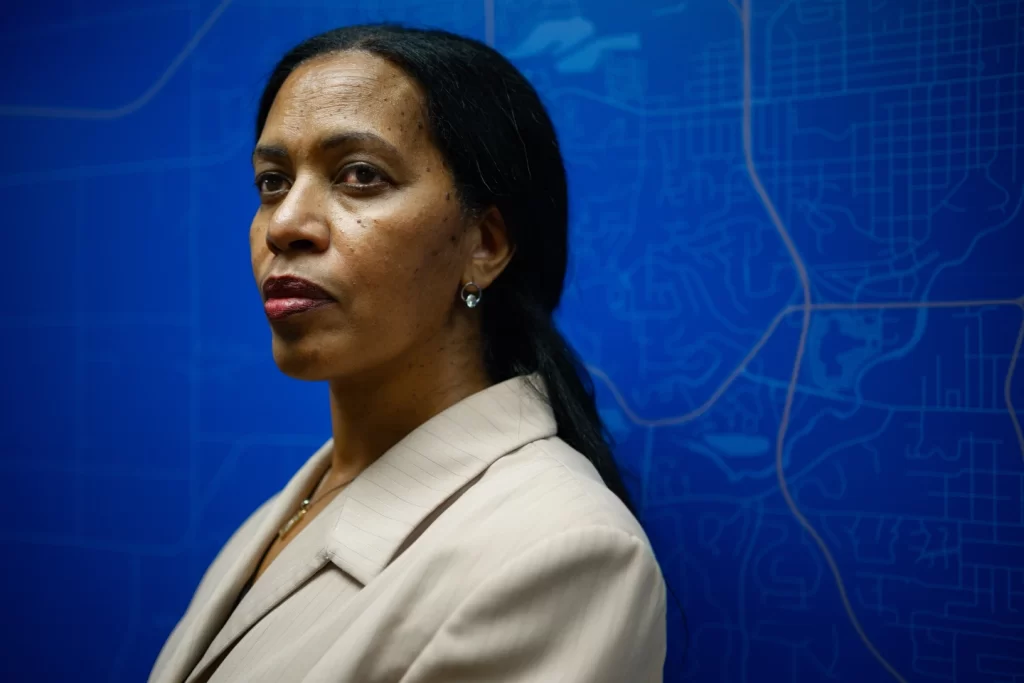
Zenebech Aly, once a newcomer, now helps people from her native Ethiopia connect to Rochester
When Zenebech Aly visited Rochester for the first time in the summer of 2010, she decided pretty much on the spot that here is where she wanted to raise her young family. She had expected a snow-covered wasteland and instead found a profusion of green foliage and “beautiful flowers.” And Aly was enchanted by the prospect of four seasons, so different from her native Ethiopia where there are only wet and dry seasons and the word for “snow” doesn’t exist in her native language. “I felt this is home,” Aly said. But like any newcomer, Aly found that the period of enforced idleness while waiting for her work permit to come through was “driving me crazy.” So at the suggestion of her sister, Aly began volunteering as an interpreter at various places including Mayo Clinic and the Intercultural Mutual Assistance Association. And as she began to understand the landscape of Rochester better, those experiences formed a road map that she now uses to help others from her native country and second-generation Ethiopian-Americans navigate the city. “I volunteered several hours just to make sense that I understand the culture, I understand the system,” she said. “I also used the experiences that I brought.” Recently, Aly was named one of seven recipients of the Virginia McKnight Binger Heart of Community Honor, previously known as the Unsung Hero Awards. Each recipient receives a $10,000 cash award.
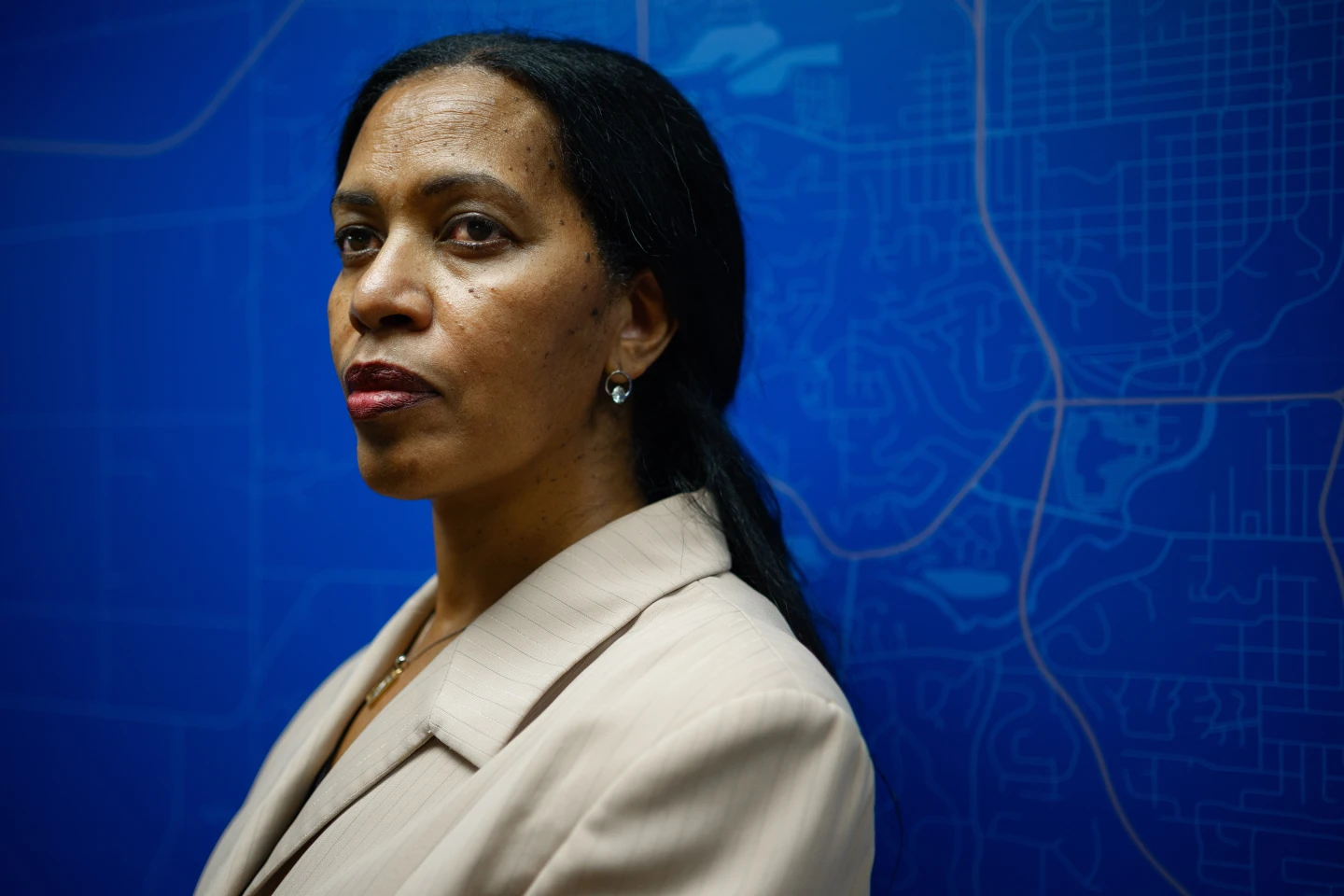

Orthodox Christians celebrate Christmas
Orthodox Christians have marked Christmas Day. Celebrated by over 200 million people worldwide, festivities for those who follow the Julian Calendar are held from Eastern Europe, to Egypt, to Ethiopia and Australia. But for some it's under a shadow of conflict.

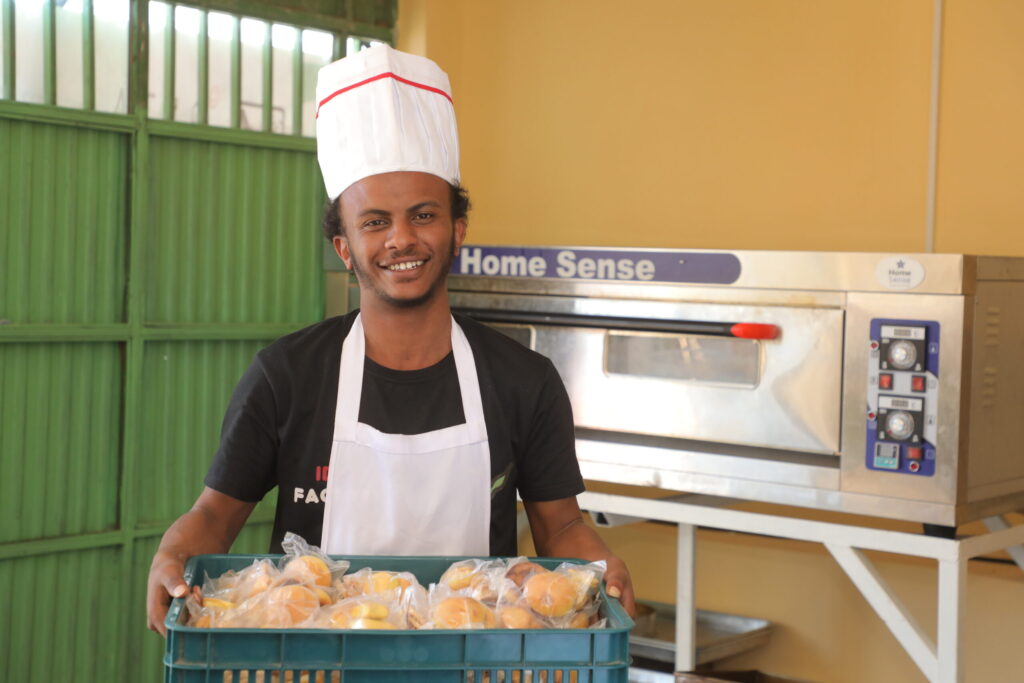
Unlocking Entrepreneurial Potential in Ethiopia through Diaspora Collaboration
In a world increasingly focused on harnessing technology to bridge economic divides, WIDU.Africa stands out as an innovative platform transforming how diaspora communities contribute to the development of their countries of origin. Launched in Ethiopia in August 2021, WIDU.Africa connects Ethiopian entrepreneurs with members of the African diaspora in Europe, creating a collaborative framework that transcends the traditional model of remittances. dressing Challenges with a New Approach Ethiopia’s entrepreneurial ecosystem is ripe with potential, yet many small businesses struggle to secure the financial and strategic resources needed to grow. According to the World Bank, diaspora communities send billions in remittances annually, but only a small fraction is directed toward investments in productive ventures. WIDU.Africa seeks to address this gap by channeling these funds into entrepreneurial projects while providing business coaching to ensure sustainability. The platform that is financed by the German Federal Ministry for Economic Cooperation and Development (BMZ) and implemented by Deutsche Gesellschaft für Internationale Zusammenarbeit (GIZ) GmbH, combines financial grants with professional mentorship. This dual approach aims to create jobs, increase incomes, and foster economic resilience—a mission aligned with the Africa-Europe Joint Vision for 2030.
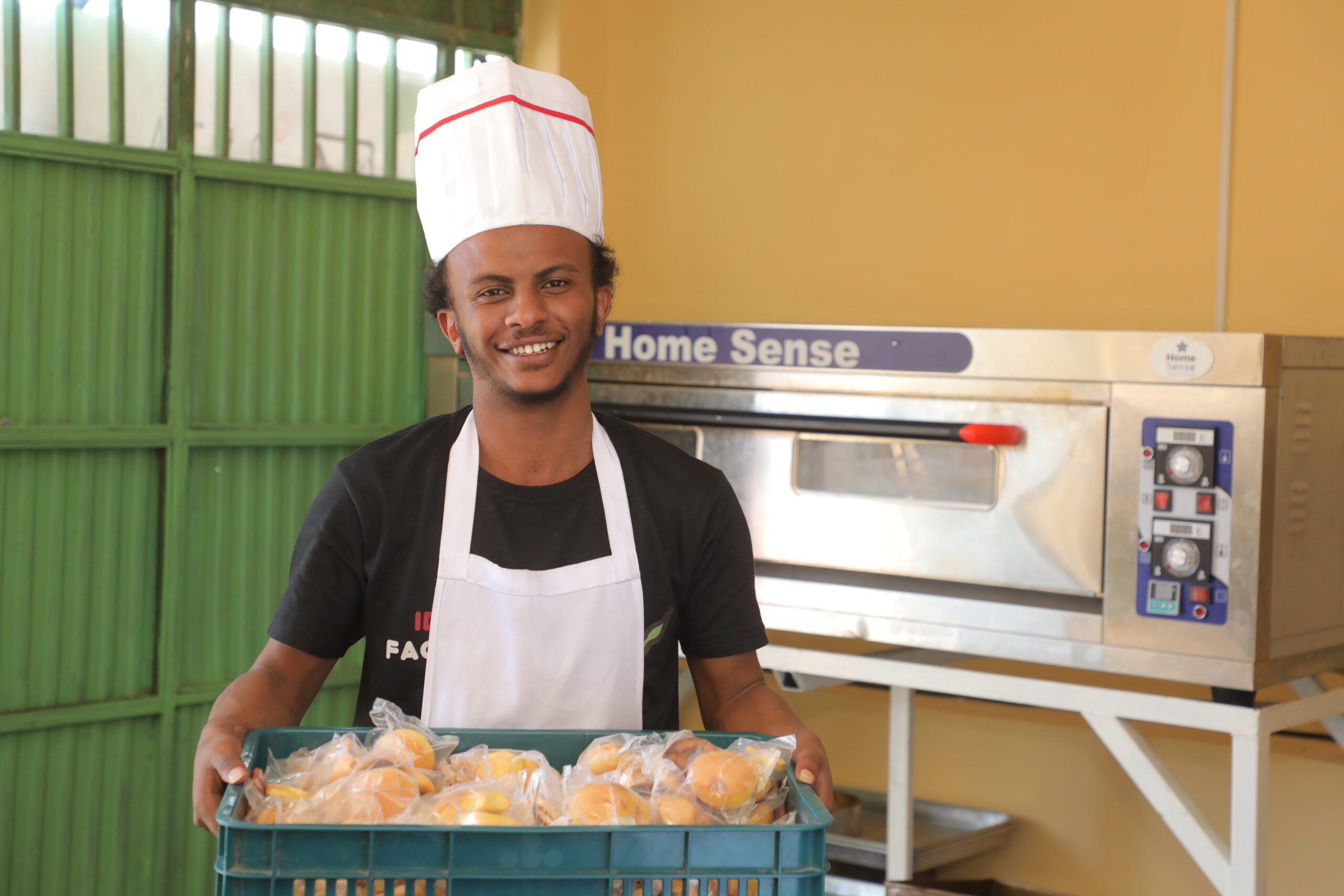

Volcanic eruption hits central Ethiopia’s Afar region amid frequent tremors
A volcanic eruption has struck Ethiopia's central Mount Dofan, a region that has recently experienced frequent minor tremors, according to local media reports on Friday.
The tremors in the Awash Fentale region, which is approximately 142 miles (230 kilometers) from Addis Ababa, have been felt as far as the capital city, raising concerns about a potential major disaster.
In recent weeks, more than a dozen minor earthquakes have been recorded in the Awash Fentale area and surrounding regions, adding to residents' concerns about the seismic activity's impact.
Efforts are underway to prevent casualties by relocating at-risk residents to safer areas, the state-owned Fana Broadcasting Corporation reported, citing Regional Administrator Abdu Ali.
The tremors are continuing and becoming more powerful, with the most recent being felt in Addis Ababa overnight, Ali noted.


Bringing a tyrannical Ethiopian queen and her twins to life
Playwright Banna Desta has brought to life an often-overlooked ancient African civilisation in her latest work - a compelling audio drama about an increasingly tyrannical queen and her scheming twin sons.
"As well as wanting the audience to be entertained - because the play is good fun - I wanted to add another dimension to people's understanding of Africa," Desta tells the BBC.
"I wanted to write about a time when the continent wasn't afflicted by colonialism and there were thriving societies," she says.
The Abyssinians is set in the 5th Century in the Aksumite Empire, also known as the Kingdom of Aksum.
Aksum was a wealthy and influential monarchy that at its height spanned what is now northern Ethiopia, Eritrea, Sudan, southern Saudi Arabia and western Yemen. It lasted almost 1,000 years, from approximately 100BC to AD960.
It was where Christianity first came to Africa and the continent's first coins were minted.
It lay at the heart of a trade network between India and the Mediterranean and its ships controlled the Red Sea trade through the port of Adulis and the inland routes of north-eastern Africa.
In the third century, it was considered one of the world's four great powers, alongside Persia, Rome and China.
"I feel like Aksum is completely excluded out of that picture. Ethiopia is a cradle of civilisation - and yet I feel that it is never really included in our understanding of global history," says Desta.


The Brand New Espresso Drink Headed To Starbucks
Starbucks is kicking off 2025 by adding a new option to its menu, which is one that you can commonly order at many other cafes: the cortado. You can expect to see it on menus starting January 3. A cortado is a simple coffee drink that originated in Spain (translating to "cut"), and it simply consists of equal parts espresso and steamed milk. The milk softens the natural bitterness of the concentrated coffee brew, and considering there's not too much additional dairy added, the coffee's strong flavor remains front and center. They're typically served unsweetened. Starbucks' version will pair three shots of its Blonde Espresso alongside the milk, resulting in an 8-ounce serving size. Non-dairy drinkers have the option to enjoy the new Brown Sugar Oatmilk Cortado, which will debut alongside the traditional one. Starbucks currently serves a flat white, which is similar to a cortado, except it uses more steamed milk than a traditional cortado. The information regarding the new cortado was initially leaked in early December 2024, but the rumor has now been confirmed by Starbucks. Some other new items are hitting the menu as well. In terms of coffee, Starbucks is releasing a single-origin variety from Ethiopia, which the company describes as having "ginger blossom aromas and notes of tangerine, lemon balm, and sweet dates." This will be available in whole bean form as well as being the light roast brewed coffee on offer at company-operated Starbucks for a limited-time only.


Nyala Insurance Becomes First Ethiopian Insurer to Integrate M-Pesa
Nyala Insurance has become the first Ethiopian insurance company to integrate M-Pesa, Safaricom's mobile money service. Under the agreement, Nyala Insurance customers can make premium payments, renew policies, and conduct other insurance-related transactions through M-PESA. Safaricom M-PESA will also provide Nyala Insurance with access to the M-PESA platform enabling the Insurer to accept mobile payments in real time. This will allow Nyala Insurance to reach a wider customer base, streamline their payment processes, and offer greater flexibility to their clients. M-Pesa, officially Launched in Ethiopia on August 2023, has been integrated into the mobile banking service of several banks while just foraying into the insurance sector. Ethiopia has one of the smallest insurance penetration rates in the world, with less than 1% of the over 120 million citizens being insured. While 18 insurance companies operate in the country with assets close to 40 billion birr last year, over half of the coverage is either for motor or maritime insurance. By embracing M-Pesa, Nyala hopes to overcome some of the barriers to insurance adoption, particularly in rural and underserved areas where traditional banking services remain limited. During the Insurer’s 30th general assembly meeting in November, Nyala reported gross profits of 634 million birr while settling nearly 350-million-birr claims in the 2023/24 financial year. For Nyala Insurance, the integration with M PESA represents a step toward improving accessibility and efficiency in a country where mobile money services are rapidly gaining traction, according to Tegegn Masresha, Chief Customer Officer of Nyala Insurance.

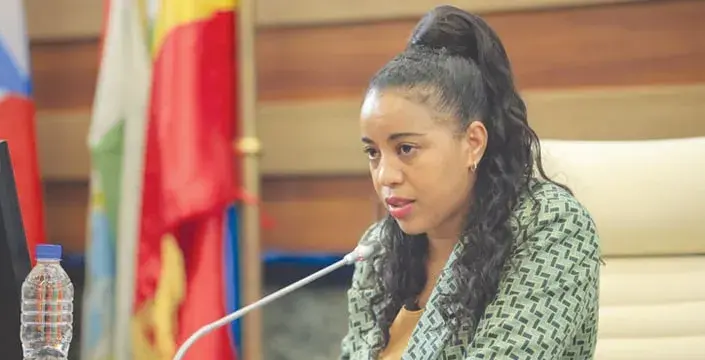
Ethio Telecom Faces Tough Parliamentary Queries
Allegations of rural inaccessibility, internet shutdowns, hefty tariffs, and service unreliability were forwarded against Ethiopia’s state-owned telecom operator at Parliament. Management from Ethio telecom, which recently issued Ethiopia’s first Initial Public Offering (IPO), were busy Wednesday morning responding to over 236 questions issued by the public and MPs. As the 130-year-old state-owned operator embarks on the final stage of its three-year growth strategy, it has amassed a formidable 80 million-strong customer base. However, an underdeveloped road infrastructure, limited reach of national electric grid, and financial constraints continue to undermine ethio tel’s service accessibility across rural Ethiopia. Desalegn Chane (PhD), an opposition MP, demanded explanations regarding internet blackouts in areas experiencing political instability. “Internet is just about as important as water and electricity,” Desalegn stated. He pointed out how internet coverage becomes even more essential in conflict areas as it enables mobile payment and minimizes exposure of citizens to violence. Desalegn also expressed frustration over the mobile data prices of ethio tel which he felt were far too hefty.


Ethiopia rings in new stock market as economy shakes off Marxist roots
On the newly minted trading floor of a high-rise building in Addis Ababa’s financial district, a bell stands ready for the launch this month of the first securities market in Ethiopia since the last days of emperor Haile Selassie. “This isn’t just a milestone, it marks a new Ethiopia,” said Tilahun Kassahun, chief executive of the new Ethiopian Securities Exchange. Outside is a 50-metre tall pillar with a red star on top, built during the Marxist Derg regime that toppled the emperor and ushered in decades of state-led economic policies that are only now being dismantled. The new stock market is part of Prime Minister Abiy Ahmed’s efforts — interrupted by a ghastly two-year civil war that killed at least 600,000 people before ending in late 2022 — to open up the economy of Africa’s second-most populous nation. The most important reform, investors and lenders say, has been the liberalisation of the foreign exchange regime, a precondition of a $3.4bn IMF bailout — the Washington-based lender’s largest ever concessional programme — which was approved by its board in July. “Despite the noise, we persisted in implementing reforms,” said Eyob Tolina, the state minister for finance, adding that the government had achieved most of what it had set out to do. “It might just be easier to tell you what has not changed.”


The Ethiopian Dish That’s A Perfect Beef Tartare Alternative For Beginners
When a dish is both adored and revolted the way beef tartare is, you're bound to be curious to see what the fuss is all about. Raw beef dressed in seasonings and condiments doesn't sound all that appealing, but wait until you discover the savory complexity hidden within. Still, eating raw meat can be undeniably daunting. For those hesitant about trying this dish, easing yourself into it with something similar but less intense might be a better choice. In that case, kitfo, a delicacy hailing from Ethiopia, is the perfect candidate. Kitfo is a traditional Ethiopian dish made by warming minced raw beef with mitmita (an Ethiopian spice blend consisting of African bird's eye chili, Ethiopian cardamom, dried herbs, and salt) and niter kibbeh — a flavorful clarified butter that's key to making this dish unique. Simmered with complex spices, the butter offers a distinctively fragrant undertone; its gentle warmth lessens the "raw" aspect while still maintaining a fresh richness. Meanwhile, mitmita's spicy, citrusy notes uplift the dish's deeply bold base. Together, this exquisite collision of flavors does a stellar job of masking any gamey taste the raw beef may exude. Moreover, kitfo offers great flexibility in serving methods. Although traditionally served raw, it's just as delicious when lightly warmed but not cooked through – this is also known as leb leb. You can also ask for it to be betam leb leb, which means fully cooked. Either way, you've got something that's rich in flavor, steeped in traditional ingredients, and easier to enjoy — the steak tartare alternative you've been searching for.


African crypto revolution continues as Ethiopia ranks among global BTC mining leaders
2024 was a pivotal year for Ethiopia as it generated around $1 billion in BTC mining profits due to its access to cheap, reliable, and renewable energy sources. Africa is a region producing fintech unicorns that provide the highly unbanked (and equally highly “smartphonized”) population and merchants with payment solutions. Companies like TymeBank, Moniepoint, and Opay have made hundreds of millions of dollars by creating and maintaining payment mobile apps and ground touchpoints. In conditions where banks are absent—80% of Africans don’t have bank cards—digital money solutions are filling the void, and cryptocurrency is one of the factors shaping the modern-day financial reality of the continent.
Ethiopia entered the global BTC mining top
According to Intellinews, in 2023, only 35% of Ethiopians had bank accounts. However, this did not block the country from becoming one of the world’s leaders in Bitcoin mining. In 2024, Ethiopia became the first African country with a high-scale state-backed crypto mining operation. Its revenue is expected to reach up to $5.4 billion in 2027. The backbone of Ethiopia’s success in the sector is the Grand Ethiopian Renaissance Dam, a gravity dam constructed on the Blue Nile River by 2024. The GERD is one of the 20 largest hydroelectric power plants in the world and the biggest one in Africa. It provides electricity to the entire country and produces enough for export to other nations.
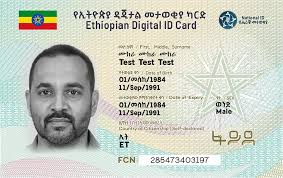
Faida Digital ID Requirement for Bank Account Openings in Addis Ababa Starts to Take Effect Today
December 23, 2017 – In a landmark move to streamline banking services and promote financial inclusion, the National Bank of Ethiopia (NBE) announced that all banks in Addis Ababa must now require customers to present a Faida digital ID—commonly referred to as the “Faida number”—when opening a new account. This directive officially took effect today, December 23, 2017. This change is part of a broader strategy for Ethiopia’s national digital ID, Fayda, to soon become mandatory for all transactions with financial institutions. According to a recent joint announcement by the NBE and the National ID Program, the plan is to enroll all bank customers for the digital ID during the 2023/2024 financial year. Once fully implemented, Fayda will serve as the primary ID for Know Your Customer (KYC) checks and remote onboarding, guaranteeing data privacy and security. By using Fayda, banks expect to simplify identity verification, expedite account-opening procedures, and reduce paperwork—leading to faster, more reliable services for customers. The NBE emphasizes that the initiative also aims to significantly enhance transparency, stability, and security in Ethiopia’s financial sector. This approach differs somewhat from Nigeria’s, where banks can issue cards that serve both as national IDs and for financial transactions. Meanwhile, Ethiopia—supported by the World Bank—is working on a MOSIP-based digital ID project to enroll all eligible citizens by 2025. In addition, the government recently partnered with IrisGuard to implement iris-based biometrics for benefits payments, signaling a broader commitment to technological innovation in public services.

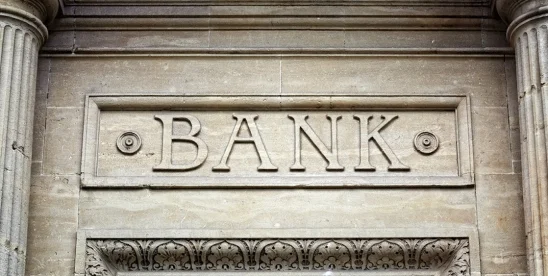
Ethiopia Opens Doors to Foreign Banks Under New Banking Law
Ethiopia is poised to revolutionize its financial landscape with the enactment of the Banking Business Proclamation No. 1360/2024, signaling a historic shift from its traditionally closed banking sector. For decades, Ethiopia’s banking system was exclusively reserved for domestic investors, limiting opportunities for growth and modernization. This cautious approach aimed to shield domestic banks from external competition, allowing them to develop in a protected environment. However, the limited exposure to international banking standards also slowed the adoption of global best practices and restricted access to foreign capital. With this new legislation, Ethiopia is now welcoming foreign banks into its financial ecosystem, laying the groundwork for broader economic reforms and global integration. The Proclamation enables reputable foreign banks that are well-established, financially sound, and regulated by their home countries’ authorities to invest and operate in Ethiopia. It provides three primary avenues for foreign banks to enter the market,
- Establishing wholly or partially owned subsidiaries,
- Setting up branches, and
- Acquiring shares in existing or new domestic banks.


Strong earthquakes near Fentale volcano spark eruption concerns, Ethiopia
A series of shallow earthquakes were recorded in recent days near the Fentale volcano in Ethiopia’s Main Ethiopian Rift region, raising concerns about a potential volcanic eruption. The last eruption at this volcano took place in 1820. Seismic activity around the Fentale volcano in Ethiopia has increased over the past 2 days with multiple earthquakes of magnitudes ranging from 4.3 to 5.1. The largest earthquake occurred at 22:20 UTC on December 29 measuring M5.1 with an epicenter located approximately 46 km (28 miles) north of Metahara and 119 km (74 miles) northeast of Nazret. “Over the past few days, seismic activity in the Awash area has picked up significantly. The real number of quakes is unknown as there is no seismic network (or at least no publicly available) covering the area and only the largest events can be identified on global networks,” volcanologist Tom Pfeiffer of VolcanoDiscovery noted. The shallow earthquake occurred at a depth of 10 km (6.2 miles) and was widely felt in the region including the capital, Addis Ababa. The latest earthquake of M4.7 struck at 07:42 UTC on December 30 approximately 23 km (14 miles) southeast of Metahara. It originated at a depth of 10 km (6.2 miles) like previous tremors.

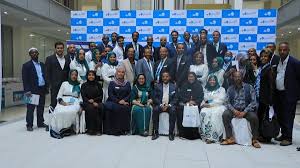
ZamZam Bank, an Emerging Bank, Weighs In on What Foreign Bank Entry Means for Ethiopia
This year, Ethiopia’s economy will invite optimistic phenomena as the nation takes bold steps to reshape its financial landscape. The shift to a floating exchange rate marks a pivotal moment, fostering transparency and encouraging investor confidence. Alongside this, the establishment of the Ethiopian Securities Exchange is set to open new doors for businesses and investors, providing a platform for capital growth and economic dynamism. Adding to this momentum, the entry of foreign banks promises to bring global expertise, increased competition, and a fresh influx of capital, positioning Ethiopia’s economy for a transformative leap forward. However, while the capital market presents immense opportunities, experts warn that the entry of foreign banks could pose significant challenges to young and emerging banks. ZamZam Bank, one of Ethiopia’s pioneering interest-free banks, was officially established in 2020, making history as the country’s first full-fledged Islamic bank. As Ethiopia opens its doors to foreign banks, ZamZam is among the emerging banks likely to feel the impact of increased competition, facing pressure to innovate and solidify its market share amidst a rapidly evolving financial landscape. “When we talk about foreign banks entering the Ethiopian market, they will primarily come from neighboring Central Eastern countries,” said Melika Bedri, CEO of ZamZam Bank. “We are currently investigating which banks will enter, with the intention of forming partnerships and working together.” In its first year, ZamZam Bank faced a loss of 145.42 million Birr due to economic adversities. However, the bank’s strategy of boosting income through financing and investment activities ultimately turned its fortunes around.

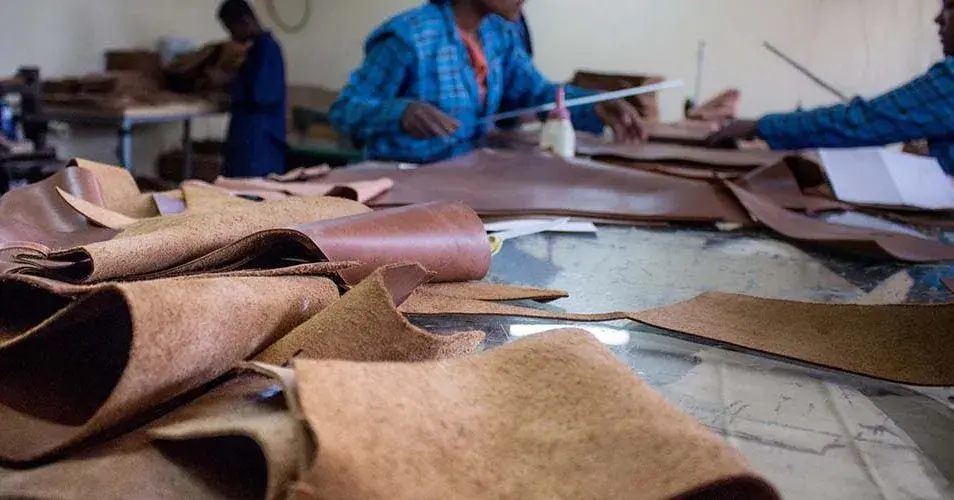
Ethiopian Tanneries Receive Industry Blessing
Ethiopia’s leather industry gets a solid foot into international markets as three tanneries received certifications from the UK-based global industry association—Leather Working Group (LWG). Members of the Group include famous brands like Adidas, Giorgio Armani, and H&M, among hundreds of other buyers who rely on the certification to identify sustainably sourced leather for their supply chain. Vetted for 17 criteria, which include pollution, water and energy usage, and information management, the certification grants the tanneries accessibility to international markets. Elico, Awash, and Batu Tannery underwent a rigorous capacity-building program for four months before meeting the minimum criteria for the international audit. They also self-financed the necessary upgrades to qualify for the certification. Wendu Legese, National Coordinator at UNIDO, indicates that the three companies mark the first Ethiopian-owned establishments to get LWG’s nod. UNIDO provided technical and training assistance to the three tanneries in helping them qualify for the international audit. “The biggest buyers in the world are part of the group (LWG),” Wendu told Shega. The former head of Ethiopia’s Leather Industry Development Institute (LIDI) foresees significant benefits to the export competitiveness of products coming out of the tanneries. He also pointed out that the experiences of the tanneries would be replicated nationally in collaboration with LIDI. “International markets demand traceability from their products,” Wendu says. Ethiopia’s leather industry has faced significant challenges over the past few years stemming from poor hide collection, inadequate foreign currency to buy chemicals, and dwindling production. Despite having the largest livestock population in Africa, exports have continued to plummet, falling by nearly 30% just in the third quarter of 2023/24.

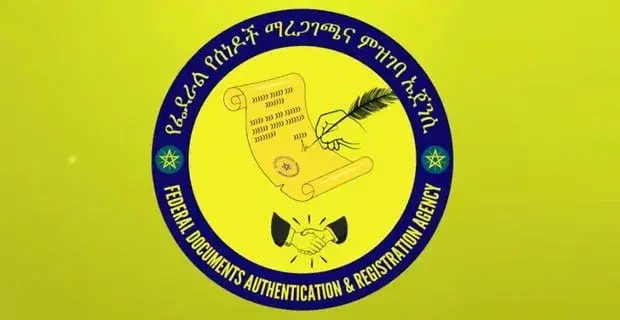
Ethiopia’s Documents Registration Agency Debuts Appointment Booking Platform
An eight-month-old company has debuted a digital booking platform developed for the Document Authentication & Registration Service (DARS) as its first product. Dubbed Qetero, eponymously named after the Company, the Platform resolves long queues and delayed service stereotypically associated with DARS. All services can now solely be accessed from DARS federal offices through Qetero. Customers can find the nearest branch office, available set of services and get the exact time when a service will be available to them after registration. A set of services that align with the Platform’s name which translates to “an appointment” in Amharic. “There is no need to wait around for hours,” Hamid Kinniso , Director of DARS told Shega. He recalled how the Company itself approached DARS offering the digital solution for free. A seven-month development process ensued after they agreed on the type of service, according to the Director. Hamid expects the practice of selling positions at queues and close the window for corruption in the services of DARS. DARS was established under Proclamation 334/2003 to provide authentication and notary services as part of an effort to organize the services distributed among courts and public offices. The new platform gives access to DARS Federal offices located in Addis Ababa and Dire Dawa. An eight-month-old company has debuted a digital booking platform developed for the Document Authentication & Registration Service (DARS) as its first product. Dubbed Qetero, eponymously named after the Company, the Platform resolves long queues and delayed service stereotypically associated with DARS. All services can now solely be accessed from DARS federal offices through Qetero. Customers can find the nearest branch office, available set of services and get the exact time when a service will be available to them after registration. A set of services that align with the Platform’s name which translates to “an appointment” in Amharic. “There is no need to wait around for hours,” Hamid Kinniso , Director of DARS told Shega. He recalled how the Company itself approached DARS offering the digital solution for free. A seven-month development process ensued after they agreed on the type of service, according to the Director. Hamid expects the practice of selling positions at queues and close the window for corruption in the services of DARS.

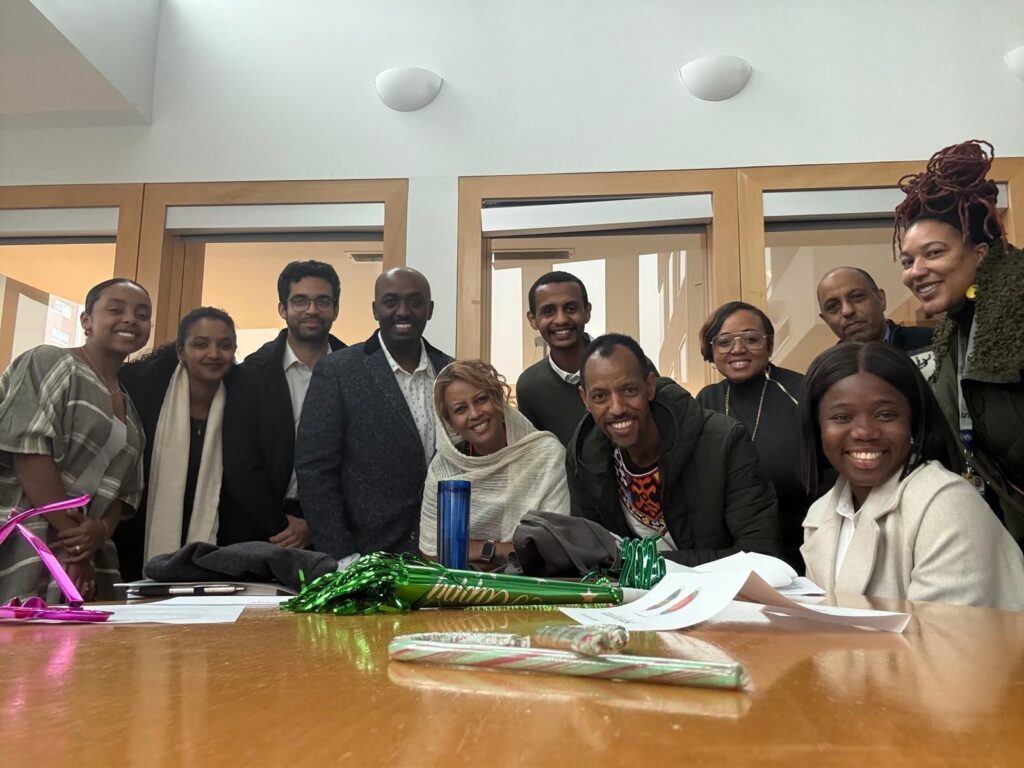
Rebkha Atnafou-Boyer: Identifying Barriers and Promoters to Colorectal Cancer Screening for Black Immigrants and Refugees
Rebkha Atnafou-Boyer: Identifying Barriers and Promoters to Colorectal Cancer Screening for Black Immigrants and Refugees
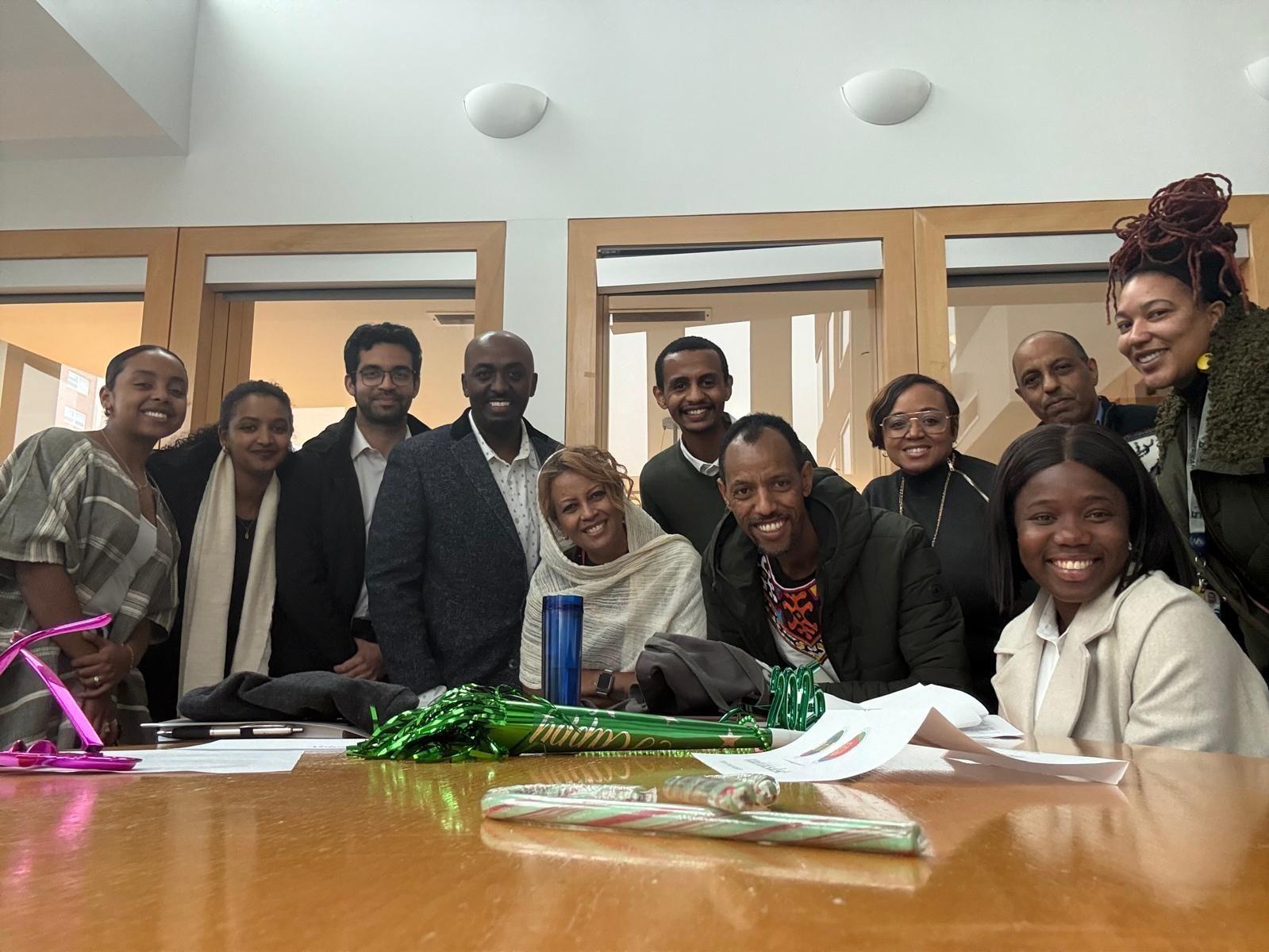

U.S. Embassy Ethiopia: Notice of Funding Opportunity
The U.S. Embassy Ethiopia/ Bureau of Africa of the U.S. Department of State announces an open competition for organizations or individuals to submit a statement of interest (SOI) to carry out public engagement programs.
PD Ethiopia invites SOIs for programs that strengthen cultural ties between the United States and Ethiopia through cultural, media, and exchange and programs that highlight shared values and promote bilateral cooperation. All programs must include an American cultural element or connection with U.S. experts, organizations, or institutions that will promote increased understanding of U.S. policies, values, and perspectives. PD grant programs include, but are not limited to:
- Academic and professional lectures, seminars, and speaker programs
- Artistic and cultural workshops, performances, and exhibitions
- Programs developed by alumni of U.S.- sponsored exchange and programs
- Programs that strengthen relationships between Ethiopian and U.S. universities, businesses, and/or organizations
- Media training

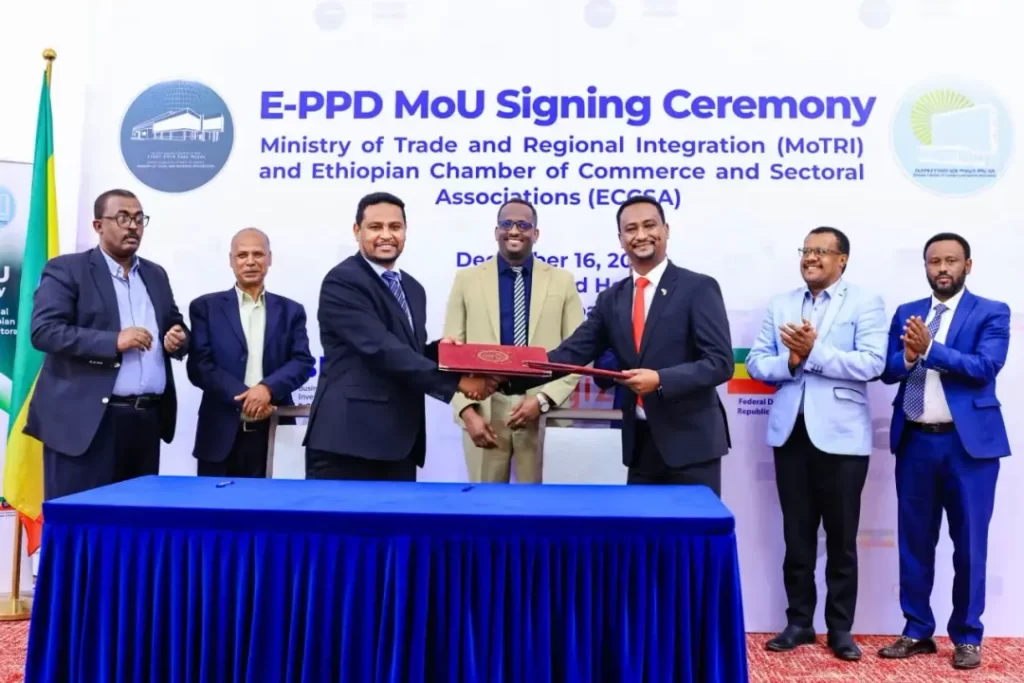
Ethiopia Launches E-PPD Platform to Enhance Public-Private Dialogue
Ethiopia has launched an electronic Public-Private Dialogue (E-PPD) platform aimed at improving communication and collaboration between the government and the private sector. Funded by the European Union and implemented by GIZ, the Business and Investment Climate (BEIC) project developed this platform with an estimated investment of 3 million birr. “The platform aims to address critical policy and business challenges through structured dialogues that utilize data and align with internationally recognized best practices.” Says Serkalem Tafesse, Communications at EuroChamber. The PPD Platform operates through a dynamic ecosystem that includes dialogue forums, digital tools, and administrative structures. It begins with issue identification, where Government agencies, businesses, and civil society organizations can submit policy proposals through the online portal. The Ethiopian Chamber of Commerce and Sectoral Associations (ECCSA) reviews these proposals, and expert working groups analyze the issues raised. Part of the data-driven policy cycle, which comprises, E-consultation, E-legislation, and E-PDD, the platform is co-chaired by the Ministry of Trade and Regional Integration (MoTRI) and ECCSA. It includes online forums, tools for document sharing, and features to track progress on policy initiatives. The Ministry of Innovation and Technology hosts the platform, while ECCSA manages its day-to-day operations. By facilitating communication and data-sharing, the E-PPD platform aims to enhance policymaking and improve the business environment in Ethiopia.

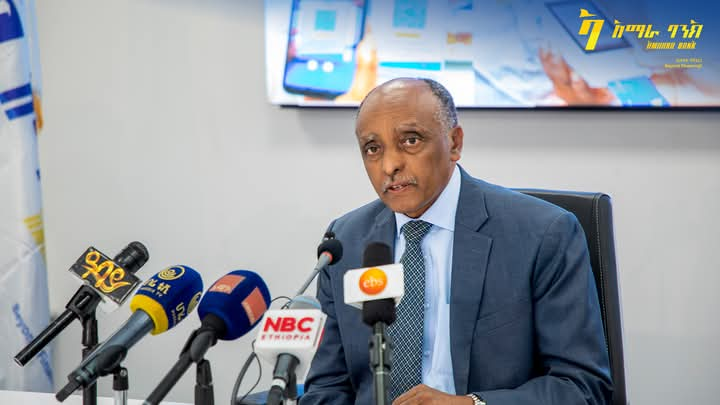
Amhara Bank Sets Sights on Investment Banking, Poised to Transform Ethiopia’s Financial Landscape
Amhara Bank is taking a bold step forward by venturing into investment banking services, signaling its ambition to play a pivotal role in Ethiopia’s emerging capital markets. This strategic move positions the bank as a key player in the nation’s financial evolution, aiming to provide tailored solutions for both businesses and individual investors. The announcement comes as the bank continues to report robust growth, with a 146% surge in revenue and a profit per share increase to 8.3% this fiscal year. With total assets reaching 35.2 billion birr, Amhara Bank is well-equipped to diversify its offerings and meet the growing demand for sophisticated financial services in Ethiopia. Investment banking services are expected to enable the bank to assist businesses in raising capital, facilitate mergers and acquisitions, and provide financial advisory services. These offerings align with Ethiopia’s ongoing economic reforms, including the introduction of capital markets, which are set to open new avenues for growth and investment. “We see immense potential in Ethiopia’s financial sector, and investment banking is a natural next step in our journey,” said Yohannes Ayalew, speaking in the bank’s annual report. “Our goal is to provide comprehensive financial solutions that empower businesses and contribute to the nation’s economic development.”

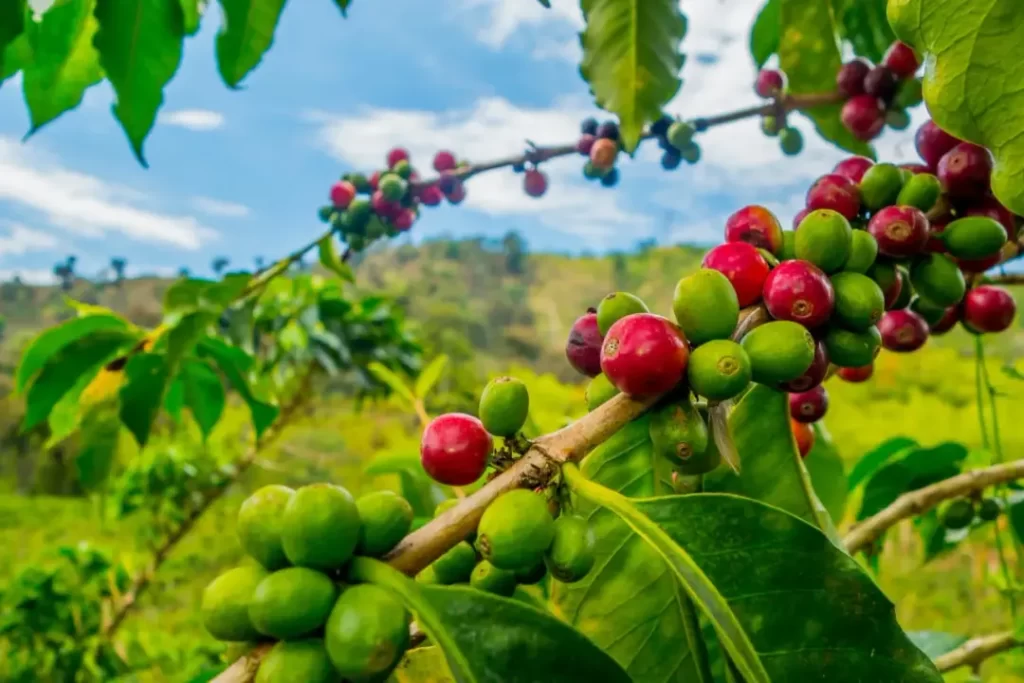
Ethiopia Races to Meet Imminent EU Deforestation Regulation with Coffee Traceability Platform
Local tech firm Vulcan ICT has entered into a partnership with the Ethiopian Coffee & Tea Authority (ECTA) to develop a coffee traceability platform as the compliance deadline with the European Union’s Deforestation Regulation (EUDR) gets closer. Adugna Debela (PhD), ECTA’s Director General, and Vulcan’s CEO Henok Alemayehu signed the contract that targets key strategic goals. Central to the agreement is enabling compliance with EUDR, which demands due diligence on all coffee sold in the European market by December 2025. The EU accounts for more than a third of all merchandise exports from Ethiopia, with coffee remaining consistently in the top two commodity types. Coffee is among the seven commodities (cattle, cocoa, coffee, palm oil, rubber, soy, and wood) that fall within EUDR’s purview. EUDR introduces stringent due diligence requirements to ensure that these agricultural commodities imported into the EU are free of deforestation, forest degradation, human rights violations, and even indigenous community rights. Failure to comply with the due diligence requirements could seriously disrupt local supply chains. In the most extreme scenario, where exports to the EU cease completely, Ethiopia could face an 18.4% drop in overall exports, a 5.8% fall in imports, a 0.6% decrease in GDP, and a 3.3% reduction in public revenue. Signed on December 9, 2024, the contract between ECTA and Vulcan focuses on the collection of Geolocation data, essential for maintaining quality control and ensuring compliance with EUDR.


Chinese EV Giant BYD Announces Entry into Ethiopian Market
BYD, the leading Chinese Electric Vehicle Maker, announced Thursday that it has entered the Ethiopian Market. According to a FBC, state owned media outlet, a brand launch event was organized in Addis Ababa in partnership with Moenco subsidiary to Inchcape PLC , a London-based company specializing in global distribution & retail services for premium and luxury automotive sectors. “BYD has officially entered the Ethiopian market in partnership with Moenco, an Inchcape company, to provide a comprehensive sales network and extensive after sales service for consumers,” the company said in a social media update shared Tuesday. It is introducing five electric car models to the market in the Horn of African country. It is offering vehicles “ranging from the compact BYD SEAGUALL to the spacious performance SUV, the BYD TANG,” as disclosed on the social media page of the company. It has launched a showroom in the capital Addis Ababa in Bole Sub City. FBC quoted Yao Shu, BYD’s Sales Director for Africa and the Middle East, as saying “Our entry into the Ethiopian market signifies a pivotal step in BYD’s expansion in East Africa. Ethiopia’s vision for electrification resonates with BYD’s objectives. We are confident in propelling electric mobility forward in Ethiopia.” Early this year, Ethiopia announced legislation banning the importation of vehicles except for electric cars – which was introduced as part of “Ethiopia’s Logistics Master Plan” when the Minister for Transport, Alemu Sime, presented a report to the Ethiopian parliament.


Land Deed Transfers Suspended Across Six Districts in Addis Ababa Until April
Land title and real estate transfers have been suspended for five months across six districts in Addis Ababa. The Land Holding Registration & Information Agency informed state media outlets that the ban was put in place to enable validation of deeds and onboarding onto the digital cadaster system. Aqaqi Qaliti, Nifas Silk Laphto, Kolfe Qeranyo, Bole, Yeka, and Lemi Kura districts have been selected for the cadaster registration that is set to last until April. Around 54% of land titles in Ethiopia’s capital have been verified and onboarded into the cadaster system. The Agency has called for titleholders in the six districts to begin the process of registration and verification at their respective Woredas. Cadasters enable detailed representation of land parcels while providing comprehensive information on ownership, land size, and boundaries utilizing multiple tools. Property and deed transfers have been subject to prolonged suspensions on multiple occasions over the past three years. Prior suspensions were attributed to the proliferation of illicit activities and the City administration’s attempt to rein in control.


Former Athlete Sileshi Sihine Elected President of Ethiopian Athletics Federation
At the 28th General Assembly of the Ethiopian Athletics Federation, a pivotal election was held to determine the federation’s president for the next four years.


World Bank Approves $700 Million Boost for Ethiopia’s Financial Sector
Ethiopia’s financial system is set to receive a transformative boost following the World Bank’s approval of a $700 million credit for the Financial Sector Strengthening Project (FSSP). This ambitious initiative, funded through the International Development Association (IDA), aims to fortify the stability and resilience of Ethiopia’s financial sector, laying the groundwork for sustainable economic growth. Ethiopia’s financial system currently faces significant hurdles, including outdated regulatory frameworks and struggling public financial institutions. The FSSP is designed to address these challenges by modernizing the regulatory and supervisory framework of the National Bank of Ethiopia (NBE), overhauling governance structures, and restructuring the balance sheets of key institutions like the Commercial Bank of Ethiopia (CBE) and the Development Bank of Ethiopia (DBE). The project will also support the transformation of the DBE into a sustainable development finance institution, ensuring its long-term viability in driving Ethiopia’s economic development. A critical component of the initiative is the capacity-building and implementation support for the NBE, CBE, and DBE, aimed at fostering resilience and improving financial accessibility for Ethiopians across the board.
A Pathway to Stability and Growth
Maryam Salim, World Bank Country Director for Eritrea, Ethiopia, South Sudan, and Sudan, emphasized the project’s transformative potential.

Ethio Diaspora Hub and Ashewa Technology Forge Strategic Partnership
Ethio Diaspora Hub and Ashewa Technology Forge Strategic Partnership
Addis Ababa, Ethiopia – December 20, 2024
Ethio Diaspora Hub is delighted to announce the signing of a Memorandum of Understanding (MoU) with Ashewa Technology, a prominent technology solutions provider based in Ethiopia. This landmark agreement, signed on Friday, December 20, 2024, lays the groundwork for collaborative initiatives aimed at empowering the global Ethiopian diaspora through innovative tech-driven services.

Shared Vision and Objectives
Both Ethio Diaspora Hub and Ashewa Technology share a vision of strengthening ties between Ethiopians abroad and their homeland. By leveraging each party’s unique expertise—Ashewa Technology’s cutting-edge digital solutions and Ethio Diaspora Hub’s broad diaspora network—this partnership will deliver:- Enhanced Online Platforms: Streamlined digital environments where diaspora members can access resources, connect with peers, and support economic development back home.
- Knowledge Transfer and Skill Development: Collaborative projects, webinars, and learning modules designed to foster continuous learning and professional advancement.
- Business and Investment Opportunities: Tailored tech solutions and informative sessions that open pathways for diaspora entrepreneurs and investors to engage more actively with Ethiopia’s rapidly growing markets.
About Ashewa Technology
Ashewa Technology is dedicated to empowering African businesses through user-friendly, inclusive, and scalable digital solutions. From e-commerce platforms to cloud-based tools, Ashewa’s offerings help companies of all sizes thrive in a dynamic online economy. Their commitment to innovation aligns closely with Ethio Diaspora Hub’s mission of championing success within Ethiopian communities worldwide.About Ethio Diaspora Hub
Ethio Diaspora Hub serves as a virtual bridge for Ethiopians living abroad, offering structured support and comprehensive information to navigate life overseas while staying connected to Ethiopia. From cultural events and professional networking to real-time news and language resources, the Hub enables diaspora members to maintain strong ties to their heritage.Looking Ahead
With this MoU in place, Ethio Diaspora Hub and Ashewa Technology will collaborate on a series of initiatives aimed at:- Developing user-focused applications that simplify diaspora engagement with Ethiopian businesses.
- Hosting skill-building workshops covering topics like digital entrepreneurship, financial literacy, and professional growth.
- Launching integrated online systems that streamline communication, enhance knowledge exchange, and boost economic participation.
Ethio Diaspora Hub and Ashewa Technology encourage Ethiopians worldwide to explore this collaboration and discover how it can benefit individuals, enterprises, and the broader diaspora community. This MoU stands as a testament to the power of shared vision, innovation, and the enduring strength of Ethiopian identity across the globe.
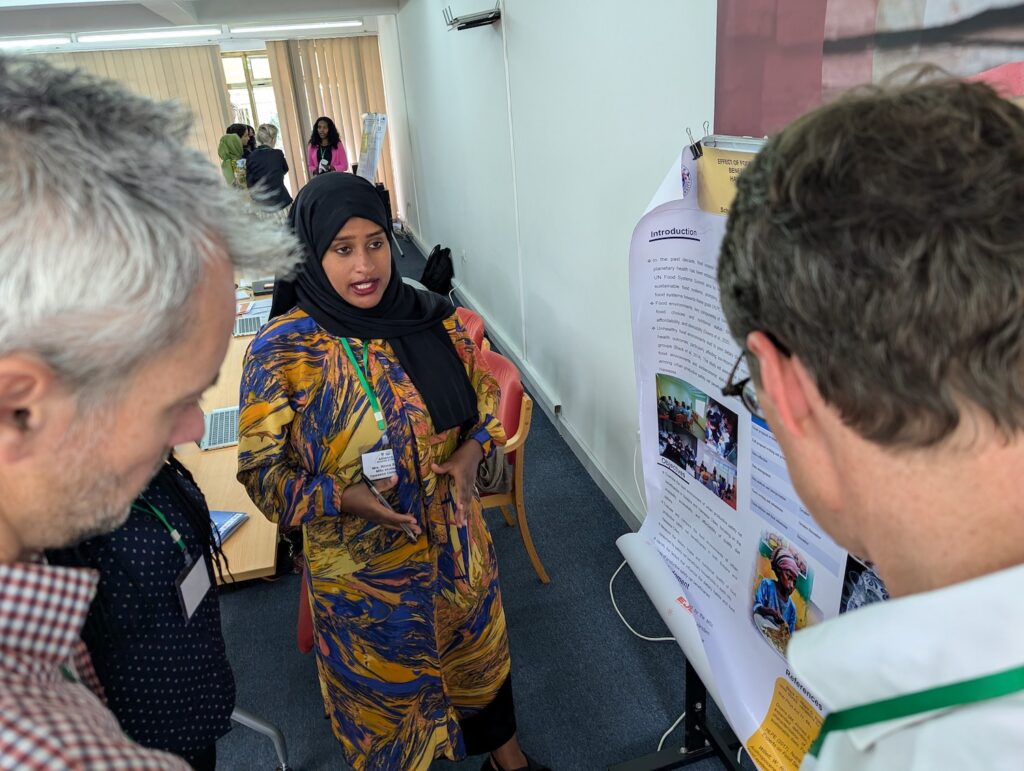
MSc small grant scheme winners in Ethiopia and Viet Nam share results with SHiFT stakeholders
Making a research presentation is a rite of passage for any researcher. Recently, six master’s-level students from Ethiopia and four master’s-level students from Viet Nam passed this milestone in their academic career. Each presented their thesis projects in an organized symposium with local and international researchers from a wide range of disciplines and members of national ministries, agencies, and departments of agriculture and nutrition. The students were all grantees in a 2024 MSc small grant scheme from the CGIAR Research Initiative on Sustainable Healthy Diets through Food Systems Transformation (SHiFT). The purpose of the SHiFT small grant scheme was to enrich master’s-level research projects on topics related to sustainable healthy diets, the food environment, and/or food systems. The selected research topics aligned with SHiFT’s own research objectives and addressed topics of local interest. Other advantages of the small grant scheme were that it strengthened partnerships between SHiFT and local universities and academics and increased awareness of food systems concepts and approaches and capacity to use them in research. The 2024 winners were:
- Aklil Abera (Addis Ababa University, Ethiopia): Investigating the effect of food advertisement exposure on the dietary behaviors, food choice, and nutritional status of adolescents in Addis Ababa, Ethiopia
- Beneyam Demeke (University of Gonder, Ethiopia): Dietary behaviors among pregnant women in urban food environments in Gonder City
- Biruk Wolasa (Wolaita Sodo University, Ethiopia): Future smart food for healthy diets: The potential prospect, consumer preference, and dietary diversity effect of neglected and underutilized crop species in southwestern Ethiopia
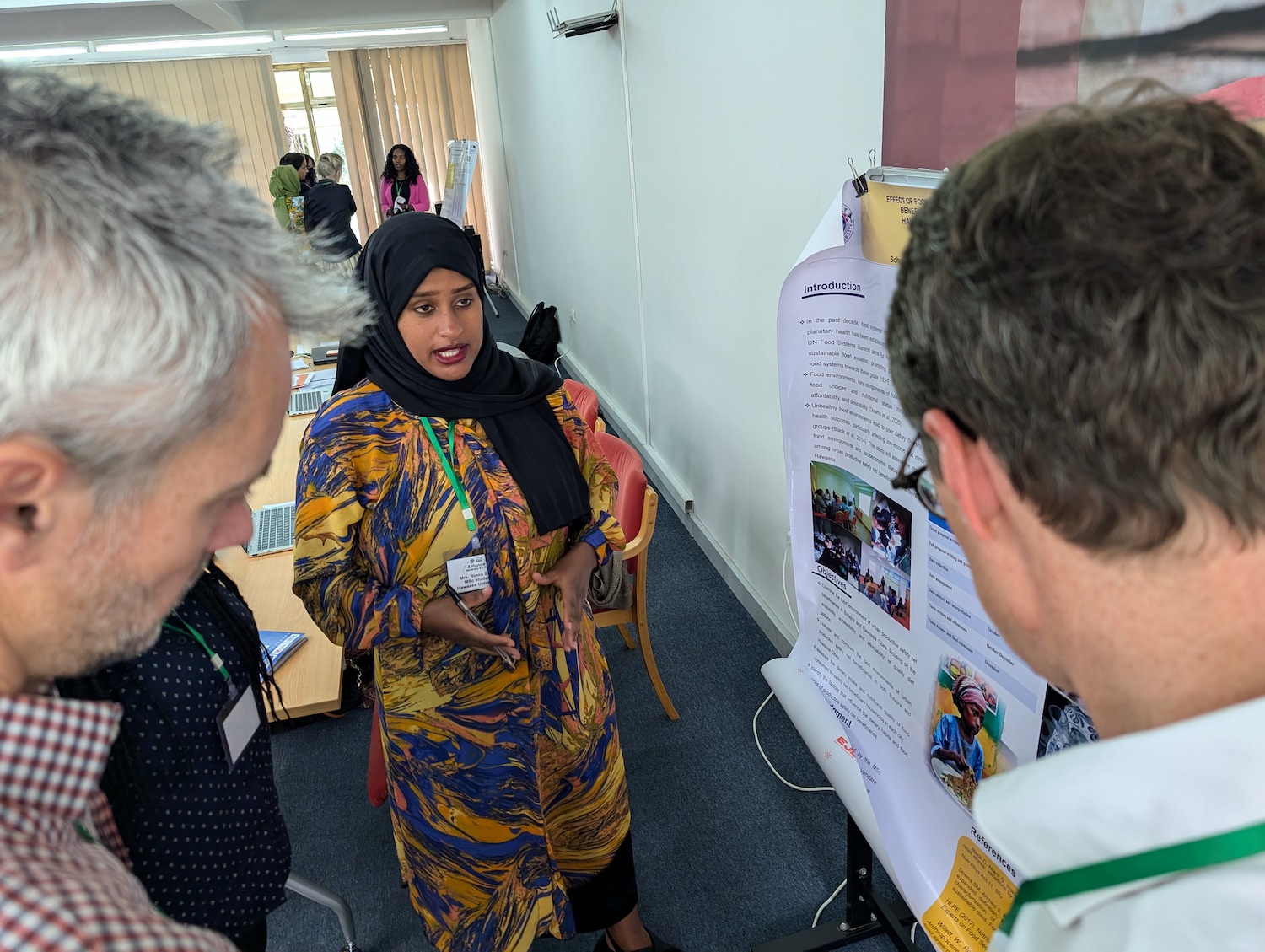

National Bank of Ethiopia Launches Platform for Customer Complaints
The National Bank of Ethiopia (NBE) has launched an online platform and a dedicated hotline (7230) to help customers file complaints against financial institutions. The initiative is part of NBE's broader efforts to address prevalent issues within the financial sector, such as aggressive sales tactics, misleading advertising, and lack of transparency, according to a statement posted on NBE’s website. The online platform allows consumers to file complaints against financial institutions if they are unable to resolve issues internally. If a complaint remains unresolved for ten business days, consumers can “escalate” the matter to NBE. NBE established the Financial Consumer Protection and Education Directorate (FCPED) after the Financial Consumer Protection Directive was passed into law in 2020. The FCPED's role is to promote financial inclusion, trust, and stability in the financial system. The directive mandates all financial institutions to set up internal complaint-handling units. These units must receive and address complaints in multiple languages, provide unique tracking numbers, and conclude investigations within ten working days. Consumers who are dissatisfied with the resolution provided by the financial institution or who have not received a response can appeal to the NBE.


High-Level Starbucks Delegation Visits Ethiopia Under the Radar
High-ranking executives from Starbucks, the world’s largest coffee chain, have made a discreet visit to Ethiopia, the continent’s leading coffee producer. While Starbucks representatives have described this visit as a "low-profile business trip," it seems anything but low-key to industry insiders, as it ushered in high-level global executives. The high-profile delegation included executives from Starbucks’ trading division, Starbucks Coffee Trading Company, including Andres Berron, Managing Director and Vice President, Elliot Bentzen, Director of Trading & Traffic, Michelle Burns, Executive Vice President of Global Coffee & Sustainability, as well as other senior personnel from Starbucks’ roasting division. Starbucks Coffee Trading Company oversees the coffee chain’s extensive green coffee supply chain globally, including transportation and quality. Behailu Woldesenbet, the country manager for Starbucks' Farmer Support Center in Ethiopia, described the trip as very low profile and refrained from commenting on its business objectives. Starbucks typically conducts annual visits to its suppliers in Ethiopia; however, this marks the first instance in an extended period that a high-ranking executive has arrived and engaged in such understated trips. Even the Ethiopian Coffee and Tea Authority was not aware of the visit. Adugna Debele (PhD), Director General of the Ethiopian Coffee and Tea Authority, told Shega that the Authority had not been officially informed of their trip or its purpose.


The TECNO AI Integrated Smartphone Series is unveiled in Ethiopia
TECNO, a multinational innovative technology company, launched its revolutionary line of Al-Powered cellphones into the Ethiopian market during the event, which was held at the Skylight Hotel in the evening. It was a glamorous night. The event featured displays of TECNO’s latest mobile devices, including the Phantom V Fold2 5G and Phantom V Filp2 5G. Tecno Ethiopia’s brand manager, Mr. Alick, emphasised the company’s commitment to innovation and client satisfaction. He claimed that the AI-integrated smartphone line was developed to boost productivity for business and creative professionals and that Tecno Ethiopia is a key player in the country’s digital transformation process. He emphasised that Tecno is committed to advancing accessibility and ensuring that the community gains from modern technology, demonstrating the business’s continuous dedication to innovation and inclusivity. As the event went on, renowned tech expert Mr. Solomon Kassa gave a comprehensive presentation on the new Phantom V2 Flip smartphones and how they work with Tecno Al. The audience gained a comprehensive understanding of Tecno’s advancements and how they enhance the growing capabilities of Al technology thanks to his visual presentation. The new Tecno Al Assistant app is designed to greatly enhance daily life with features like voice-to-text conversion, automated photo editing, advanced language translation, and other capabilities that simplify and expedite user interactions.

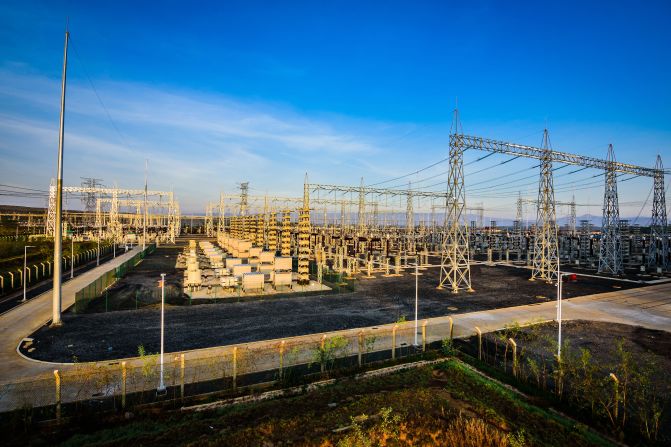
The $1 billion ‘electricity highway’ that allows Ethiopia and Kenya to share their power
Ethiopia and Kenya both embrace renewables for their electricity production.
Ethiopia produces all the power for its national grid from renewable sources, and is home to the Grand Ethiopian Renaissance Dam, the largest hydropower plant in Africa. In Kenya, renewables account for around 90% of electricity, and the country boasts one of the largest geothermal facilities in the world, in the Olkaria Area.
But relying on renewables can be hard: electricity can’t always be generated when needed (a drought can mean no hydropower) and renewable energy is difficult to store. One solution? The Ethiopia-Kenya Electricity Highway.

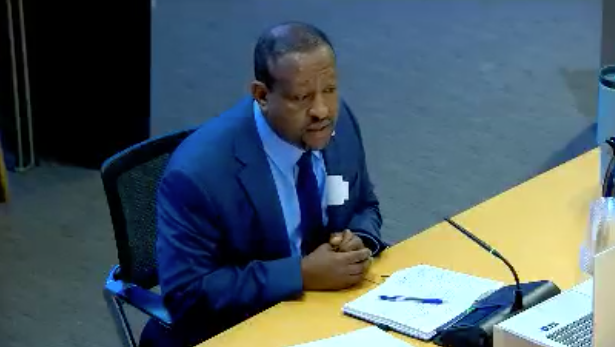
Aurora lawmakers appoint Ethiopian immigrant to fill city council vacancy
The Aurora City Council appointed Amsalu Kassaw to fill a vacant at-large city council seat, making him the first minority immigrant resident to serve on the council.


Ethiopia to Introduce Guidelines for Cryptocurrency Transactions, Following NBE’s New Proclamation
The National Bank of Ethiopia (NBE) is poised to introduce regulations concerning cryptocurrencies and digital assets following today’s approval of the National Bank of Ethiopia Amendment Proclamation. This significant step reflects Ethiopia’s response to the rapid global developments in central banking and digital finance. The amended proclamation includes a provision that allows the NBE to regulate the use of crypto assets and digital money. While the use of cryptocurrencies for payments is prohibited under the new regulations, the NBE is authorized to issue future guidelines on digital assets in line with global trends. Mamo Mihretu, Governor of the National Bank of Ethiopia, underscored the importance of observing changes in global monetary policy and digital currency development. However, the draft bill has faced scrutiny. During the parliamentary session, members raised concerns over the vague provisions regarding cryptocurrency regulation, particularly around safeguarding digital transactions. One parliament member pointed out the ambiguity surrounding transaction protections, especially given the anonymous nature of cryptocurrency exchanges. In response, Governor Mamo assured lawmakers that the NBE would not immediately authorize the use of cryptocurrencies as legal tender. Instead, the central bank would continue monitoring global trends and may issue specific guidelines in the future to regulate crypto assets more effectively.


Affordable Food Brand in Addis Ababa, Tapu, Joins beU
Tapu Foods, a popular brand in the capital that specializes in preparing and packaging local cuisine, has onboarded itself on the online food delivery platform beU Delivery. Customers looking to save a few bucks can now have the affordably priced meals delivered straight to their doors. Tapu’s budget-friendly lunch boxes have gained popularity in recent years, especially as urban residents face rising living costs. With many meal options starting at just 105 birr, the brand frequently draws long queues at its 11 outlet stores across Addis Ababa. Yemisrach Abera founded Tapu Foods seventeen years ago under an eponymous holding business that looked to bring traditional homemade recipes to a wider audience. What started off with a few select local holiday meals has now expanded to around 55 product lines, 44 cooks, and 11 outlet stores. Beamlak Ashenafi, Marketing Director at Tapu Foods, notes that while the lunch boxes have been available for nearly three years, their popularity has surged only recently. Urbanites dealing with double-digit inflation rates for nearly five years have taken a liking to the high-quality meals available at a fraction of restaurant prices. “We had barely done any marketing,” Beamlak told Shega. She adds that increased customer demand and growing delivery requests need a partner like beU.


Raxio Group Achieves Tier III Certification for Data Centres in Mozambique and Ethiopia
Raxio Group the leading provider of Tier III certified and carrier neutral data centres across Africa, is proud to announce that its facilities in Mozambique and Ethiopia have achieved the prestigious Uptime Institute Tier III Certification of Constructed Facility (TCCF). This accomplishment is an endorsement of Raxio’s commitment to delivering state-of-the-art, reliable, and efficient data centre infrastructure across Africa. The Tier III Facility Certification confirms that these facilities have been constructed in accordance with the original Tier III Design Certification standards and rigorously tested to meet Uptime Institute’s performance criteria. This certification ensures that the data centres are capable of providing the expected reliability and performance under various operational conditions. Robert Saunders, Chief Technology Officer at Raxio Group, emphasized the importance of this achievement for customers: “Achieving the Uptime Institute Tier III Facility Certification for our Mozambique and Ethiopia facilities is a significant milestone. It reassures our customers that these data centres are designed and constructed to meet the highest international standards. This guarantees operational resilience, reliability, and a robust environment to support their critical business operations. Our customers can confidently scale and innovate, knowing that their data is hosted in facilities that are built for peak performance and future growth.”


Ethiopian Opens Financial Sector to Foreign Banks
Nearly fifty years after the last batch of foreign banks in Ethiopia terminated operations after the rise of the Socialist regime, Parliament has ratified a bill opening the sector back to foreign investors. The House of People’s Representatives ratified a pair of consequential bills Tuesday morning aimed at evolving the financial sector into a state at par with international best practices. The opening up of the banking sector has been marked by significant anticipation. Prime Minister Abiy Ahmed (PhD) has noted the pending entry of foreign banks since the first iteration of the Home-Grown Economic Agenda was unveiled nearly four years ago. Parliament’s Standing Committee for Planning, Budget & Finance received the draft bill at the end of the last fiscal year and has conducted a series of stakeholder sessions to sift through contentious. Ethiopia’s banking sector which manages assets of nearly 3.3 trillion birr has been largely limited in expanding financial inclusivity reaching just around 50%, according to an index by the World Bank. Banks have also lagged in expanding credit access compared to sub-Saharan countries with foreign participants, with around half a million Ethiopians having access to bank loans. Aiming to correct these and the other handicaps hindering financial sector growth and deepening, the banking law amendment was voted into law with three objections.
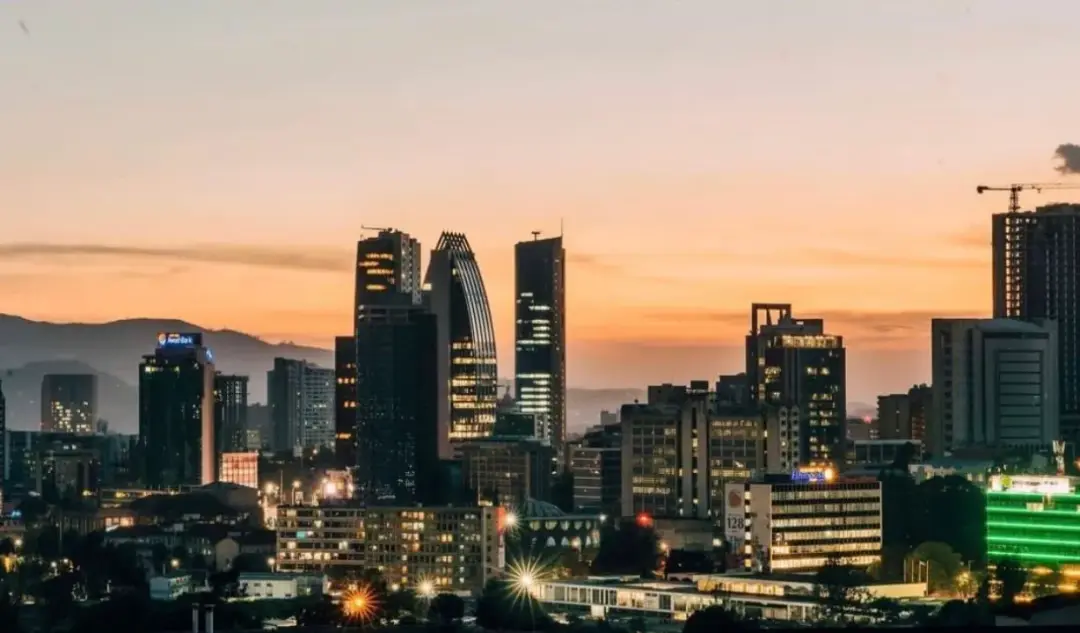

Ethiopian Investors in Pharmaceutical, Real Estate, Manufacturing Demand Exemptions from Pending Property Tax
Nearly a week after Ethiopia’s property valuation bill was ratified, parliamentarians spent Wednesday afternoon discussing the country’s first property tax proclamation, which is currently in the draft stage. The bill sets foundational provisions for the levying of property taxes in urban areas with details left to be ironed out by regional states and city administrations based on their economic context. Wasihun Abate, Senior Tax Policy Advisor at the Finance Ministry, explained that the tax would be calculated based on the market value added to a property as a result of the government-led urban area development. While previous iterations of the bill suggested that the amount of taxable value would not exceed a quarter of a property’s value, the Advisor indicated that it would be adjustable according to deliberations between the ministries of finance and urban & infrastructure. “It may vary according to economic circumstances,” Wasihun told the House. Under the draft bill, buildings, homes, leased land, and property improvements would face a levy of 0.1% to 1%, calculated on 25% of the property's valuation. The highest rates will be placed on property owners who have failed to develop their land despite an extended period with rights to it. Low-income households as defined by respective regional states, properties of international organizations, land rights by religious institutions, and retired citizens who are cash-poor are exempted from the tax. However, retirees will be obliged to pay half a decade of retrogressive taxes if they sell or bequeath the property.

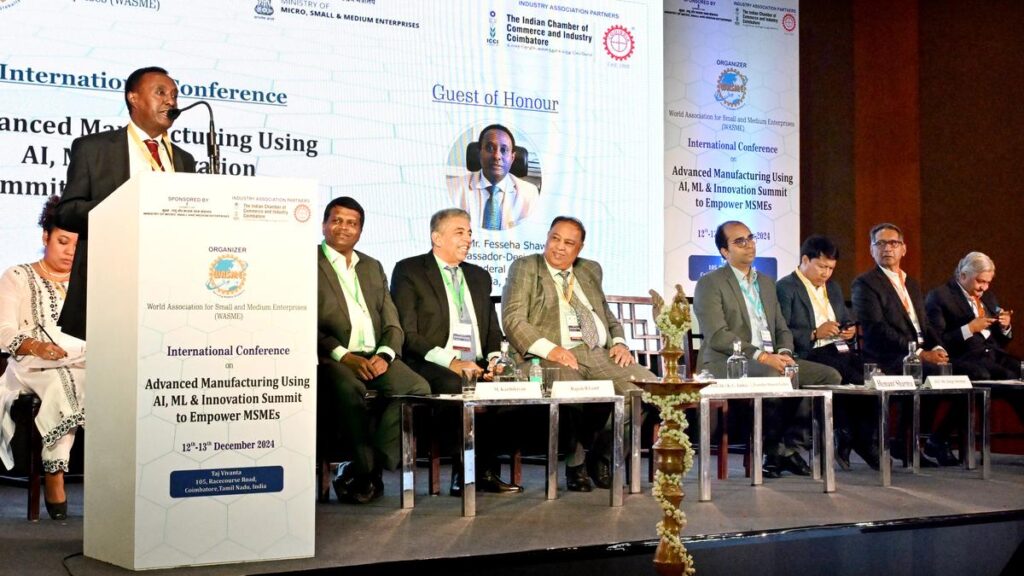
Ethiopia invites investments from MSMEs in healthcare, manufacturing and agriculture
Healthcare, manufacturing, and agriculture are some of the thrust sectors that Ethiopia is looking at for investments from India, said Fesseha Shawel Gebre, Ambassador Extraordinary and Plenipotentiary, Embassy of the Federal Democratic Republic of Ethiopia. Speaking at the inaugural of a two-day conference on Advanced Manufacturing using AI, ML and Innovation to Empower MSMEs, organised by WASME in partnership with the Indian Chamber of Commerce and Industry, Coimbatore, and the Coimbatore District Small Industries Association (CODISSIA), Mr. Gebre said about 650 Indian companies have invested in Ethiopia, making India the second-largest source of foreign direct investments in the country.

Ethiopia’s Startups to Receive $750,000 in Grants at Landmark GRV Summit
Promising early- and growth-stage startups in the agriculture, healthcare, and education sectors are set to receive $750,000 in equity-free grants from the Ethiopian Diaspora Trust Fund (EDTF) at an upcoming summit. The Great Rift Valley Innovation Summit (GRV), scheduled for late January, will mark one of the largest fundraising and pitch competition events in the history of Ethiopia’s nascent startup ecosystem. According to Afomia Hailemeskel, co-executive producer of GRV Summit, the initiative looks to respond to the pressing need for innovative solutions that can address the challenges faced by Ethiopia’s youth. “The decision to organize this specific startup funding event stems from the growing need to empower Ethiopia’s youth to become innovative leaders in sectors that are pillars of the nation: agriculture, education, and healthcare,” Afomia told Shega. The fund, raised through contributions from Ethiopian diaspora communities worldwide, totals nearly $1 million and will be awarded in two categories. Currently accepting applications, EDTF plans to support over a dozen startups. In the first category, which is dubbed the Legacy Builder Award, a total of $650,000 will be awarded to support four entrepreneurs with strong, scalable business models that align with EDTF's impact areas. The grand prize for this category is $150,000, with an additional $50,000 People's Choice Award.


Ethiopia’s Manufacturing Sector Finds Solutions in Locally Assembled CNC Machines
A local enterprise spearheads solutions to industrial hurdles by assembling Computer Numerical Control (CNC) machines, —computer-controlled devices that automate the production of parts and products. Primetech Engineering is carving out a lucrative niche, helping industries save significant foreign currency while reducing waste and power consumption. CNC machines are versatile tools used across various industries to cut materials such as metal, wood, plastic, and foam. Eba Hunde, Primetech’s founding CEO, got insights into the difficulties of the industrial sector in Ethiopia while studying at Addis Ababa Science & Technology University. Upon watching several online videos of CNC machines, he recognized the potential benefits of customizing them to the local context. “Local assembly cuts costs by as much as half,” Eba told Shega. The prospective engineer managed to win financial awards from the university on two occasions for his explorations into CNC machines. Primetech currently operates out of a 1000-square-meter workshop around the Ethiopian Broadcasting Corporation building in the Shegole area. The company imports computer processors and flamethrower nozzles from China and Europe, while most other parts are locally produced. Due to their customizable nature, the company’s products have quickly found a market in construction, furniture, and metalworking workshops.

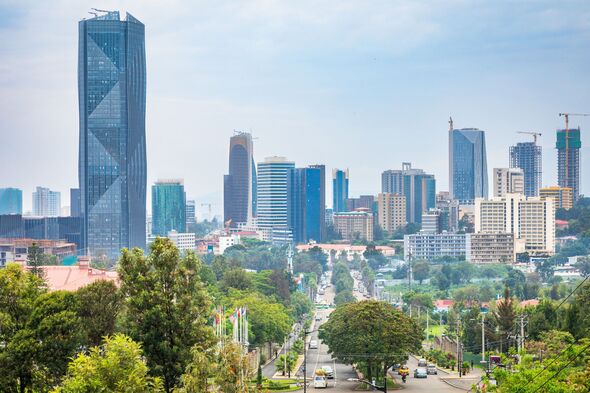
Africa’s biggest hotel is the length of two football pitches and includes 17 restaurants
The five-star hotel boasts thousands of guest suites, 17 food and beverage outlets, and the largest ballroom in the capital.
Dining experiences range from Ethiopian, Italian, Arabian and Asian cuisines to be enjoyed in luxurious restaurants, laid-back all-day eateries, and tea rooms.
Guests can enjoy a panoramic view of the city while sipping on hand-crafted cocktails and dancing the night away in one of the music bars.
Amenities include a fully equipped gym, outdoor and indoor swimming pools, sauna, steam, and Serenity Spa. On Tripadvisor, the Ethiopian Skylight Hotel scored highly on hospitality, cleanliness, and location. The latest reviewer, Erez, said: "I've been in many hotels all over, but this place is nicer then most." Another guest described their business trip as "amazing" thanks to the "experience at the African Hub Restaurant, made even more special by the warm and professional service". The reviewer elaborated: "A special shoutout to Bisrat, whose attentiveness and kindness truly elevated the experience.
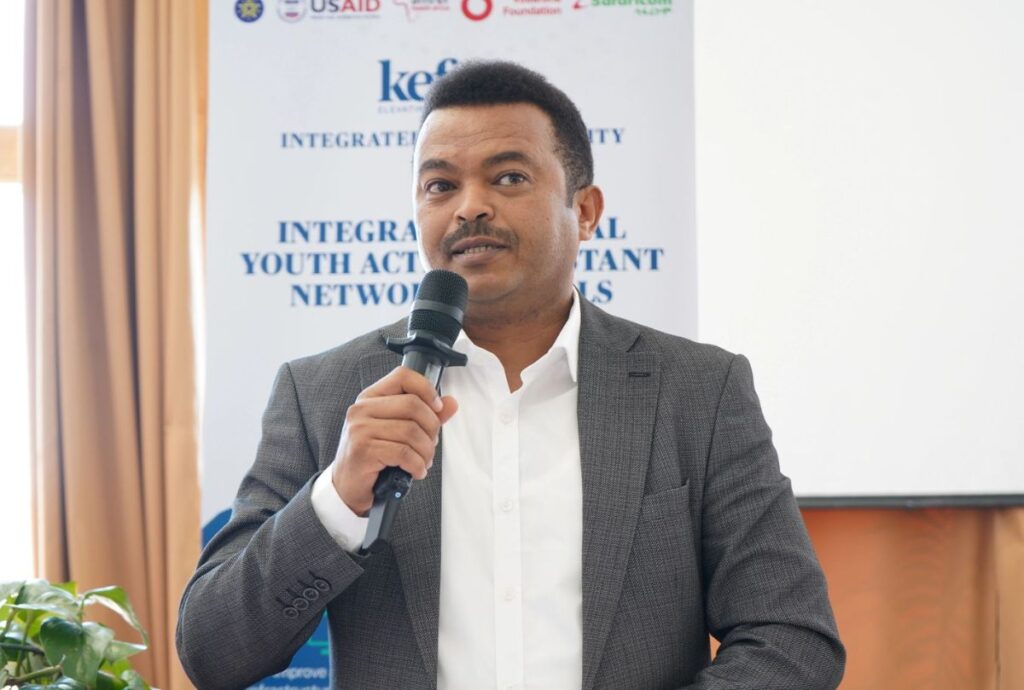
Safaricom Ethiopia Drives Youth Empowerment Through Digitized Kefeta Project with Key Partners
Safaricom Telecommunications Ethiopia PLC, along with its partners Vodafone Foundation, USAID, Amref Health Africa in Ethiopia, and other governmental and non-governmental stakeholders, met in Bishoftu to deliberate on the Integrated Digital Youth Activity under the Kefeta project. They announced that they have played a key role in digitizing the Kefeta project, which empowers over 2 million young Ethiopians aged between 15 and 29 in health, education, and digital finance. Sisay Zerihun, the Managing Executive for Regional External Affairs, delivered a key note speech in which he highlighted the power of the fast 4G network in advancing the digitization process and their role as a source of international funds through our consortium members; in this case, Vodafone. State Minister of Women and Social Affairs, H.E Muna Ahmed, expressed her gratitude to the partners for their commitment to youth.
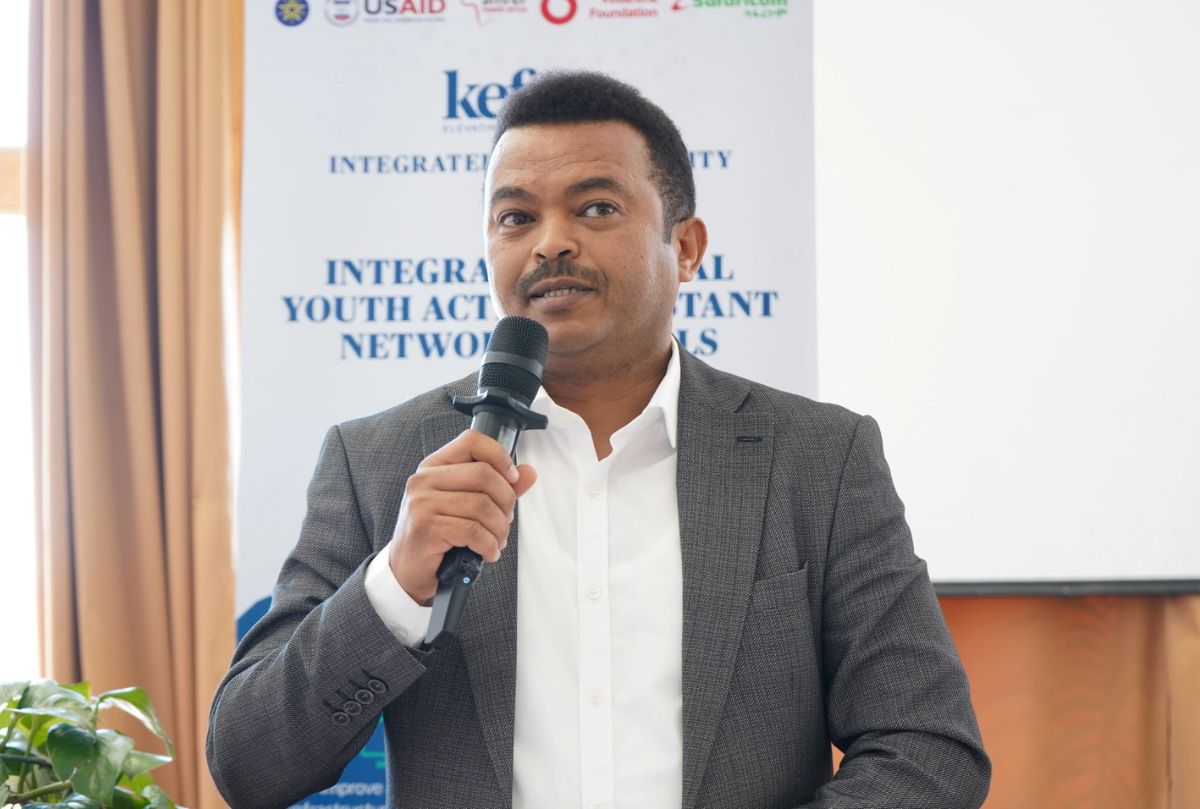
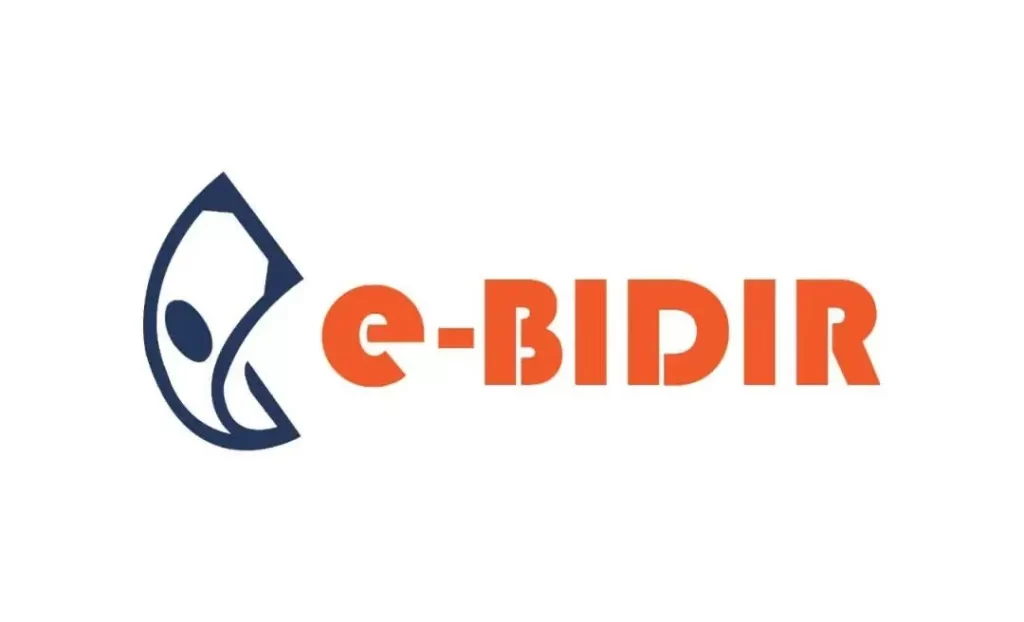
Regulatory Hurdles Propel Ethiopian Fintech Startup to Neighboring Markets
Elite Fintech Solution, a local startup, has found a home in neighboring African countries after facing regulatory roadblocks in its base of operations. The three-year-old firm, founded by Alazar Solomon, is now bidding to transform SME credit facilitation in Kenyan, Mauritian, and Ugandan markets through the combination of AI tools and data analytics. The startup’s flagship product, E-bidir, a centralized platform that provides automated digital credit, presented a novel service outside the regulatory scope of the National Bank of Ethiopia. “The current credit reference directive does not allow for a company like ours to operate,” Alazar told Shega. While the central bank appreciated their innovative service, it could not give them the final green light. The emerging digital credit scene does not have a regulation governing the landscape, and current fintech players like Kifiya and even the likes of telebirr have to partner with banks to provide the service. Alazar recalls having almost no intention of creating just another micro-lending service and ignoring the central platform that makes E-bidir different. Nonetheless, the platform would find suitors elsewhere. The startup had an easy time establishing a subsidiary in Mauritius while the Kenyan market exhibited significant demand for its product offerings. Access to finance remains a challenge for most Sub-Saharan SMEs, with just half managing to access some form of credit.
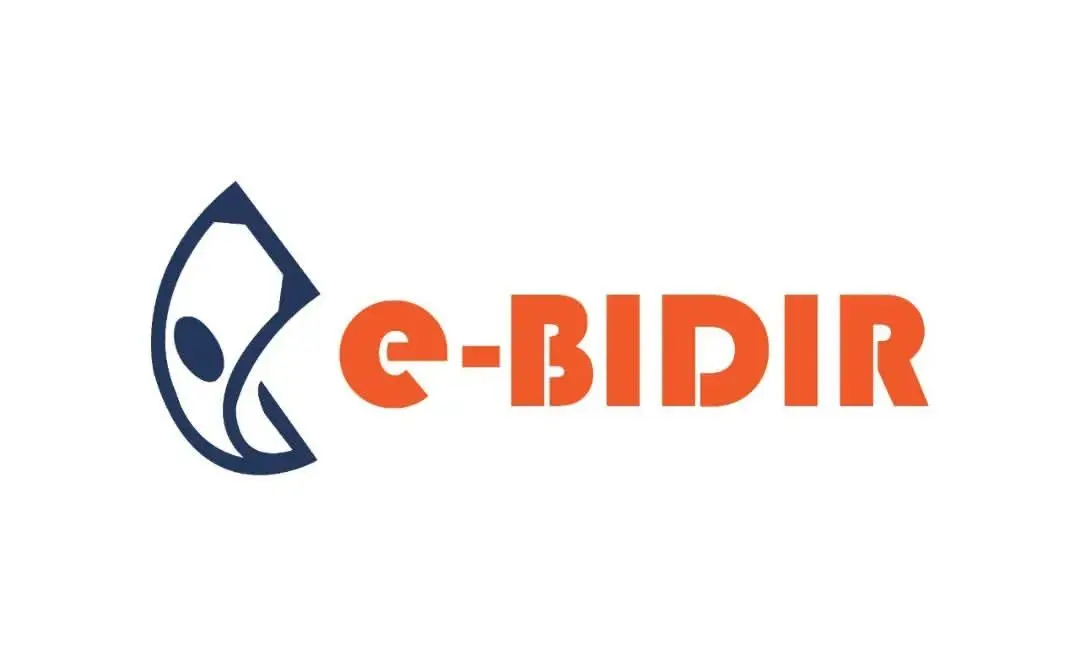

Ethiopia’s Banking Reform Bill: Set to Be Ratified in Weeks, Opening Doors to Foreign Banks
Ethiopia is preparing to open its banking sector to foreign competition for the first time in its history, marking a significant shift in the country’s economic landscape. A new law, currently under review by the Ethiopian Parliament, is expected to be approved next month, ushering in this landmark change. This decision is part of the Ethiopian government’s broader macroeconomic reforms aimed at modernizing the financial sector, boosting competition, and attracting much-needed foreign investment. The introduction of foreign banks into Ethiopia’s financial environment is seen as a key driver for improving services and products for consumers while spurring innovation within the sector. The upcoming law is set to dismantle long-standing barriers that have traditionally kept foreign financial institutions out of the Ethiopian market. By enabling foreign banks to collaborate with local institutions, the government intends to tap into international expertise and capital, enhancing financial inclusion and providing access to more diverse financial products for both businesses and individuals.

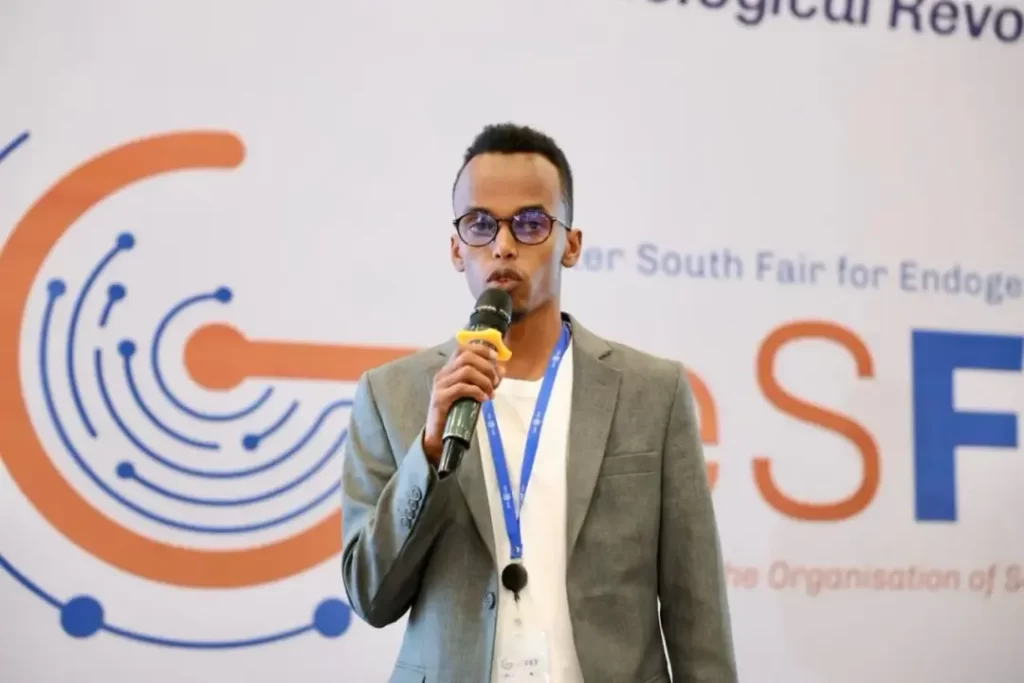
Somaliland Startup Brings Digital Bookkeeping Platform to Ethiopia
Hafide, a digital bookkeeping platform based in Somaliland, has expanded to Ethiopia. By launching in Ethiopia, the company aims to streamline financial management and empower SMEs with tools to drive economic growth, tapping into a market where traditional bookkeeping remains prevalent. Currently free to use, the platform’s founders plan to implement a subscription-based model after establishing a significant user base. Founded in June 2023 by three friends, Sulekha Yusuf (CEO), Jimale Abdi (CTO), and Muhiyadin Ismail (CFO), Hafide is designed to facilitate the digitization of business processes across Africa, enabling users to manage their finances digitally and transition away from traditional pen-and-paper accounting methods. “Businesses can use the platform to record their transactions, including income, expenses, and debts,” says Jimale Abdi, cofounder and CTO of the platform. The journey of Hafide began with two friends’ mutual interest. Jimale and Muhiyadin first met at Abaarso Tech University in 2016. After graduating in 2019, their shared curiosity for technology led them to co-found Tiriig Technology, a software development company. That entrepreneurial spirit grew even more elastic when they later met Sulekha during a vacation in Hargeisa. “Our paths crossed with Ayan while she was on vacation in Hargeisa, and together we launched Silicon Nomads, an initiative designed to help youth enter the tech industry,” Jimale told Shega. In 2022, following the Waheen Market fire in Hargeisa, which destroyed countless small businesses, resulting in $2 billion in damages, the trio decided to co-found Hafide. “Many entrepreneurs lost not only their livelihoods but also their financial records, as they relied heavily on traditional pen-and-paper bookkeeping methods,” says the co-founder.
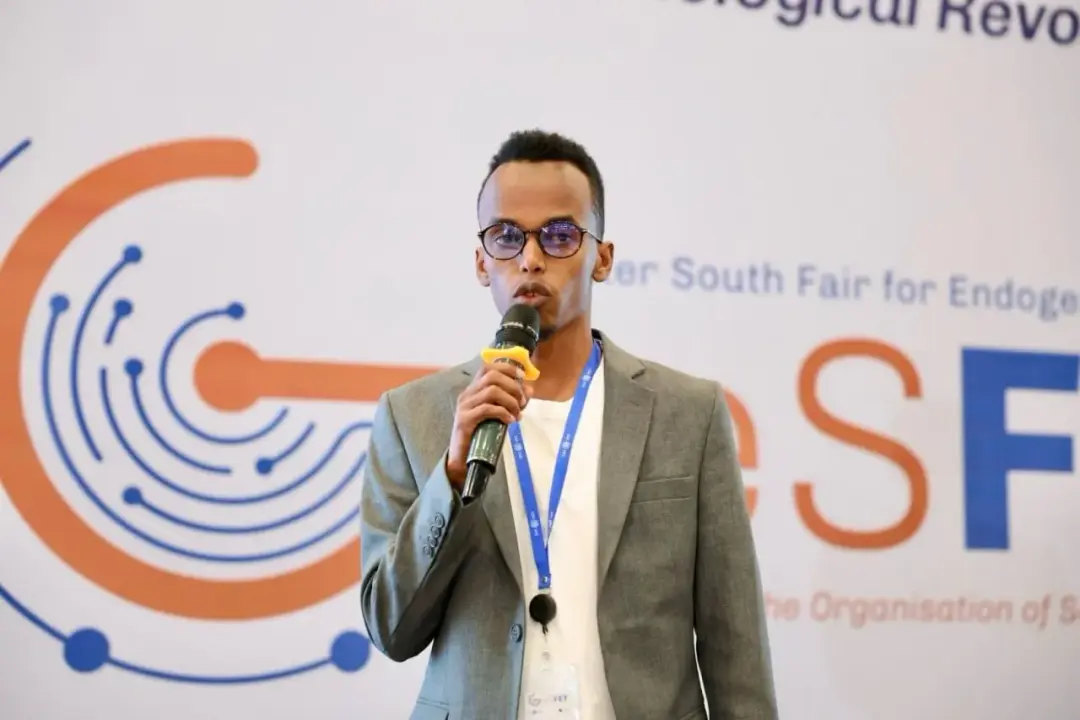
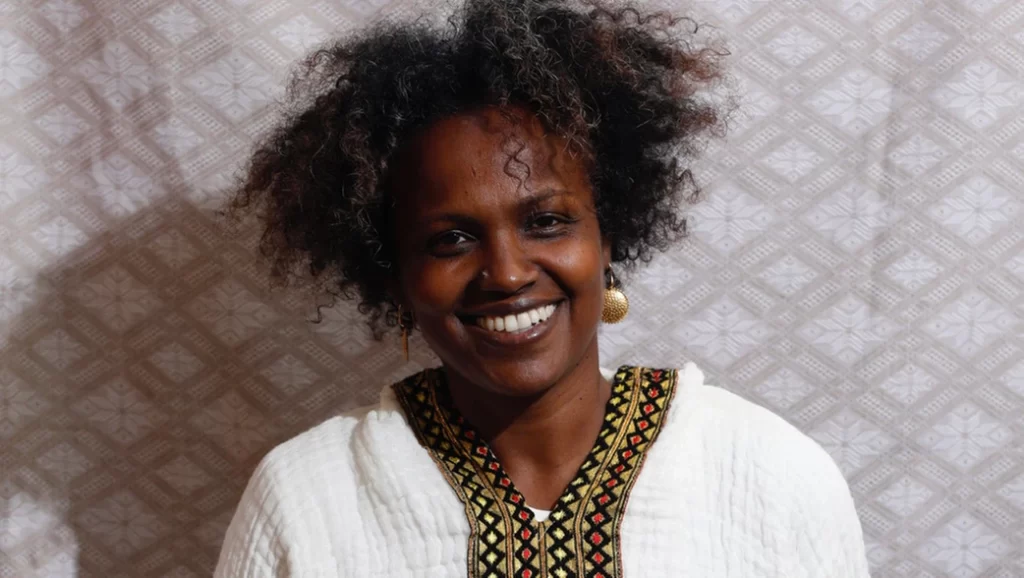
Meet the proud Ethiopian Israeli New Yorker who was born to cook
Long before she was a professional chef and restaurateur, Ethiopia-born Israeli-raised Beejhy Barhany would hold Shabbat dinners in her New York apartment for anyone who wanted to eat. “On Friday night, there was always food at Beejhy’s,” she recalls. At every one of her Friday night dinners, guests would enjoy some traditional yemarina yewotet dabo – the Ethiopian honey-and-milk-bread equivalent to challah. And Barhany will be demonstrating how to make it at this year’s Limmud. Barhany can remember the excitement of being a seven-year-old girl making the three-year exodus from her birth country to Israel back in 1983. “It was exciting going to the promised land, to Jerusalem, the land of our forefathers, where we could unite with our fellow Jews from all over the world. And with that idealism, people did whatever it took to fulfil it. They left all their belonging, their homes, their land.” Such was the determination to be in Israel, it took her family three years to make Aliyah, the epic journey including a lengthy stay in Sudan. From there, a cousin who worked with the Mossad eventually arranged transport to Israel, and they drove from Sudan to Kenya, Uganda and Europe before flying to Israel. “We made it to Israel,” she says. “It was a dream come true for everybody.” Even before she made it to the promised land, Barhany was helping her mother, grandmother and aunts with food preparation, gradually learning the various techniques, the wonders of hospitality, generosity and tradition. Cooking and hospitality, she says, are attributes with which she “was born”.
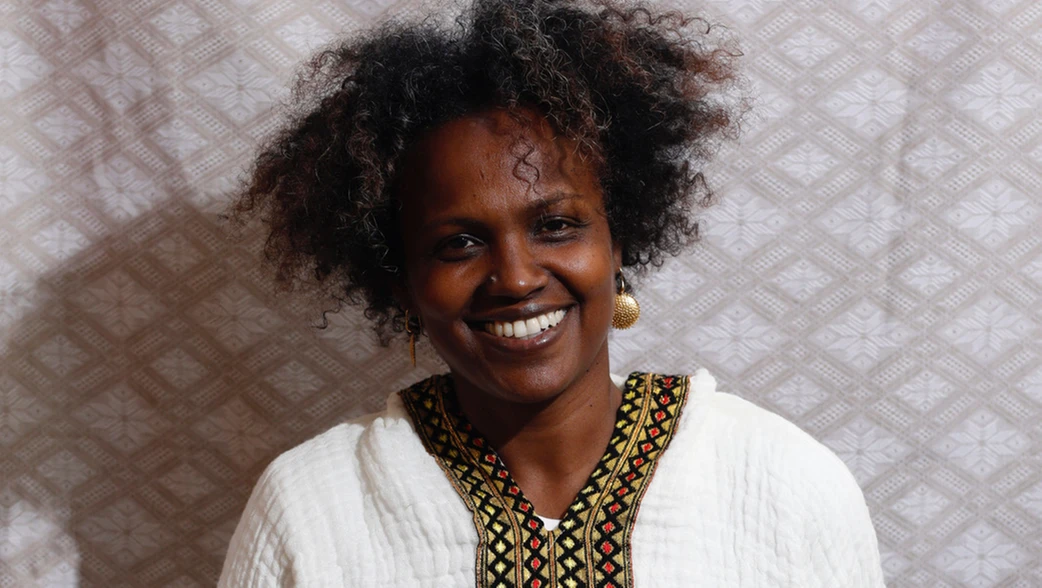

Ethiopia’s Sovereign Wealth Fund Absorbs Eight Public Enterprises into Portfolio
Ethiopia's sovereign wealth fund has added eight state-owned enterprises (SOEs) to its portfolio of companies. Under the stewardship of recently appointed CEO, Brook Taye (PhD), Ethiopian Investment Holdings (EIH) has incorporated the eight SOEs formerly managed by the Public Enterprise Holdings & Administration(PEHA) into its portfolio estimated to be worth billions of dollars. The newly added SOEs include Ethio Post, Ethio Engineering Group, Ethiopian Industrial Inputs Development Enterprise, Ethiopian Railway Corporation, Industrial Parks Development Corporation, Development Bank of Ethiopia, and Ethiopian Electric Power Corporation, as well as Ethio Pharma Group's subsidiaries, the National Veterinary Institute and ShieldVax. EIH was established nearly four years ago with 28 SOEs under its portfolio and 100 billion birr capital. Its founding CEO was the current governor of the National Bank of Ethiopia, Mamo Mihretu. Some enterprises were left under PEHA as their accrued debts were poised for absorption by the Liability & Asset Management Corporation (LAMC). The Corporation failed to mobilize adequate resources to settle the debts despite kicking off with nearly 850 million dollars in proceeds from the sale of a telecom permit to the Safaricom consortium of investors. EIH is currently leading extensive reforms in the management of state-owned enterprises (SOEs), including restructuring the board of Ethiopia's largest bank, the Commercial Bank of Ethiopia (CBE), which has historically been heavily influenced by public officials.


Ethiopian children struggle with malnutrition due to low animal product intake
Affordability and lack of awareness drive low consumption of animal products in Ethiopian children, prompting experts to plan interventions. Malnutrition and poor dietary diversity remain significant challenges for children in Ethiopia, despite the country's large livestock population, a study highlights. The study, led by a team of researchers from the Global Academy of Agriculture and Food Systems at the University of Edinburgh, reveals that only a small percentage of children under five regularly consume animal-sourced foods such as milk, eggs, or meat. The study found that dairy products and eggs were the most consumed animal-based foods, but meat and seafood were rarely eaten. This limits the variety and quality of children's diets, increasing the risks of malnutrition and stunted growth. Findings also suggest that affordability and a lack of awareness among caregivers are the main barriers to including meat in young children's diets.
Key barriers
The research team analysed data from a national family health survey and carried out interviews with members of the community to understand the reasons behind the low consumption of meat and other animal products. Findings indicate that animal-sourced food, especially meat, remains unaffordable for many families in the region studied. Additionally, many caregivers are unaware of the nutritional benefits of animal-sourced foods, often choosing to sell animal products for income instead of feeding them to their children.
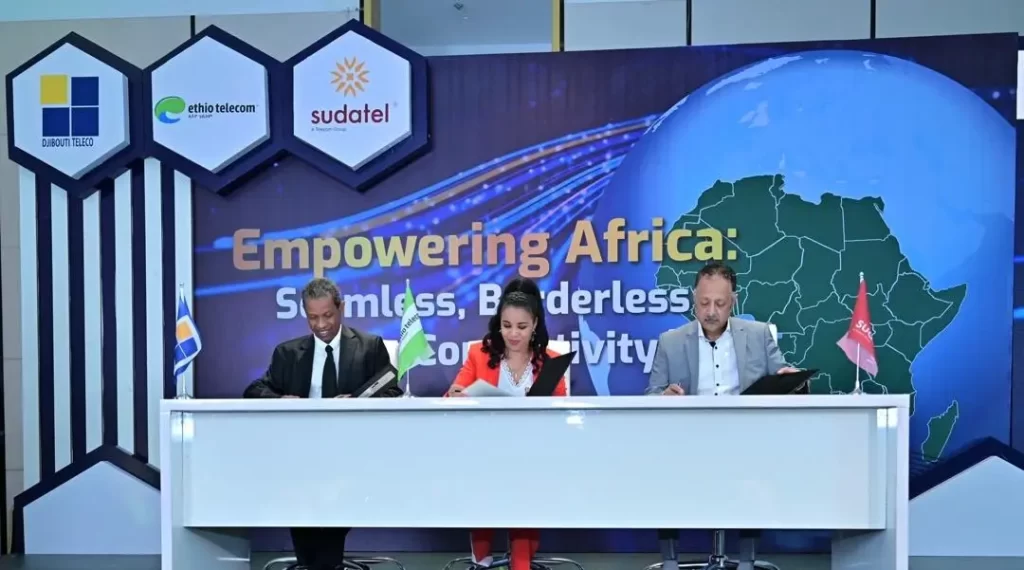
Ethiopia, Djibouti, and Sudan Forge Groundbreaking Telecom Partnership to Boost Africa’s Digital Future
In a significant step toward advancing Africa’s digital transformation, telecom giants Ethio Telecom, Djibouti Telecom, and Sudatel have announced a strategic partnership aimed at revolutionizing the region’s digital infrastructure. The partnership, dubbed the “Horizon Fiber Initiative,” was officially unveiled on November 24, 2017, and promises to bridge Africa’s connectivity gaps while establishing a cutting-edge fiber optic network that connects the continent with the rest of the world. The agreement between the three countries’ telecom groups sets the stage for a high-capacity underground fiber optic infrastructure that will reshape the region’s digital landscape. This collaboration marks a pivotal moment in the ongoing digital evolution across Africa, where high-speed internet access has long been a challenge due to outdated and insufficient infrastructure. The Horizon Fiber Initiative is a visionary project designed to deploy a multi-terabit fiber optic line, providing reliable and alternative connectivity through the combined expertise and resources of Ethio Telecom, Djibouti Telecom, and Sudatel. The initiative will leverage their shared infrastructure and knowledge to deliver high-speed internet connectivity, improving access to digital services, boosting economic growth, and enhancing communication across East Africa and beyond.
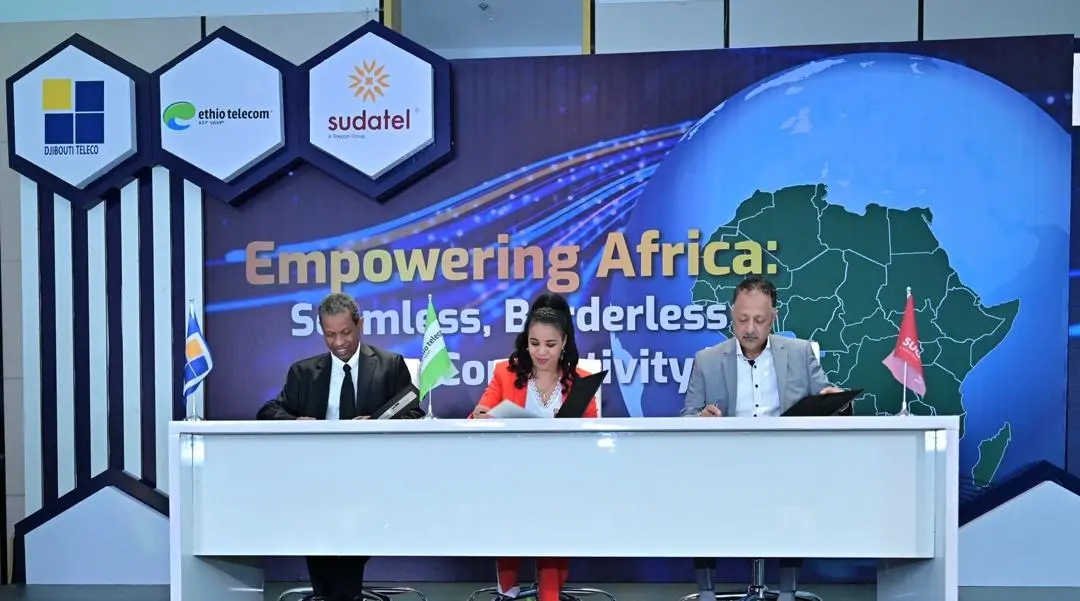
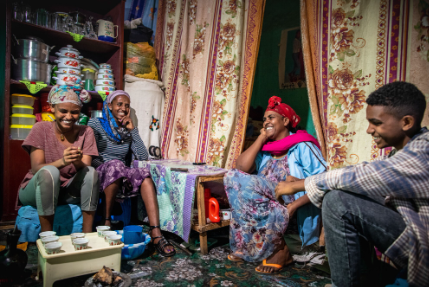
Building independence for women in Ethiopia
Wizeru Mesfin used to rarely leave her one-room home, “not even for food,” she says. Living with a disability that limits her mobility, Mesfin was not very outgoing and was accustomed to leading a secluded life.
Things changed when Mebrit Kesaye came to see her one day. Kesaye leads a self-help group, essentially a savings and loan association, and she recruited Mesfin to join the group in their neighborhood in Sekota, a small city in the Amhara region of Ethiopia.
“She told me, even if I don’t have money, just come and talk,” Mesfin says. Mesfin joined the group, and eventually started saving money and got a loan to invest in a new business: buying dresses that she embroiders and sells to women who need a new outfit for a wedding or other special occasion.
Access to capital to invest in her business and membership in a group of supportive women opened up a new life for Mesfin. “I was happy to join,” she says. Being a member of the group “is helping me save some money and start my business, and I can pay my rent.”
“I am now a more independent woman."

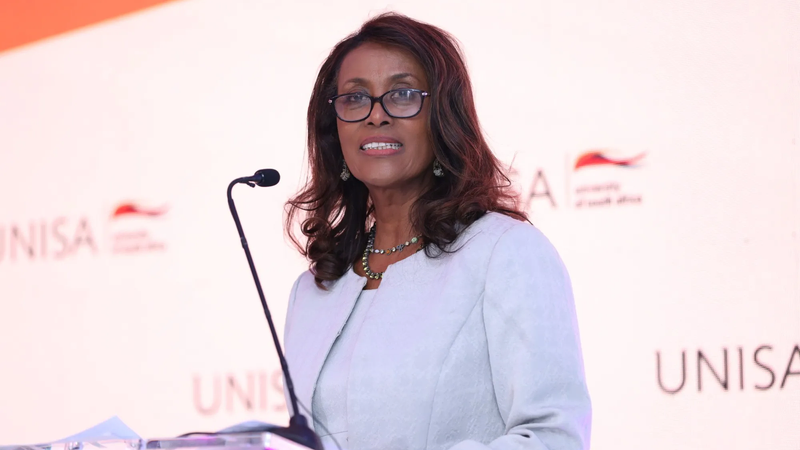
Unisa Founders lecture looks at plight of African women

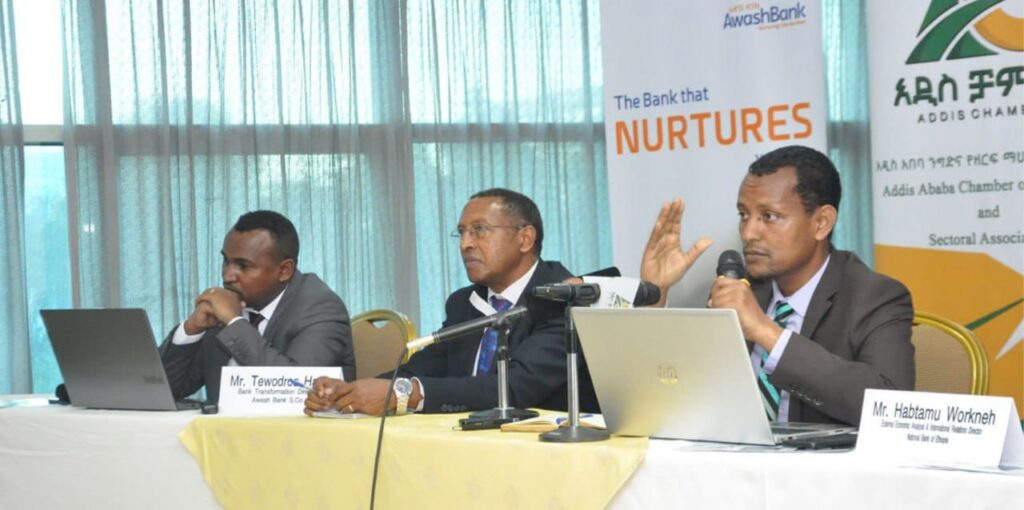
Forex market faces new risks following reforms
The recent shift to a market-driven foreign exchange (FX) system in Ethiopia has sparked both opportunities and risks for the banking sector, according to industry experts. While the flow of forex from outside increased following macroeconomic reforms, the anticipated growth in foreign exchange transactions has not materialized as expected. Since July 29, 2024, commodities such as gold and coffee, which were previously traded on the black market, have begun to be processed through banks. However, experts indicate that the development in this area over the past three months has fallen short of expectations. Tewodros Hailu, Director of Awash Bank’s Banking Transformation Directorate, commented on the implications of the government’s reforms on the financial sector. “Foreign exchange has brought risk to banks,” he stated. “We were previously focused on local currency, but now FX exchange has become critically risky.” Tewodros also noted that the introduction of new foreign banks into the Ethiopian market could intensify competition for local banks, particularly given their relatively low capital and assets in dollar terms. He highlighted a significant challenge facing the sector: a lack of trained personnel. “We are working to address this issue,” he added. Despite these challenges, Habtamu Workineh, Director of External Economic Analysis and International Relations at the National Bank of Ethiopia (NBE), reported that banks’ foreign exchange reserves have reached $600 million within just four months. He noted that the NBE has licensed 12 non-bank foreign exchange offices, which have conducted transactions totaling $774,000 as of November 27, 2024. Of this amount, $540,000 was sold through these offices.
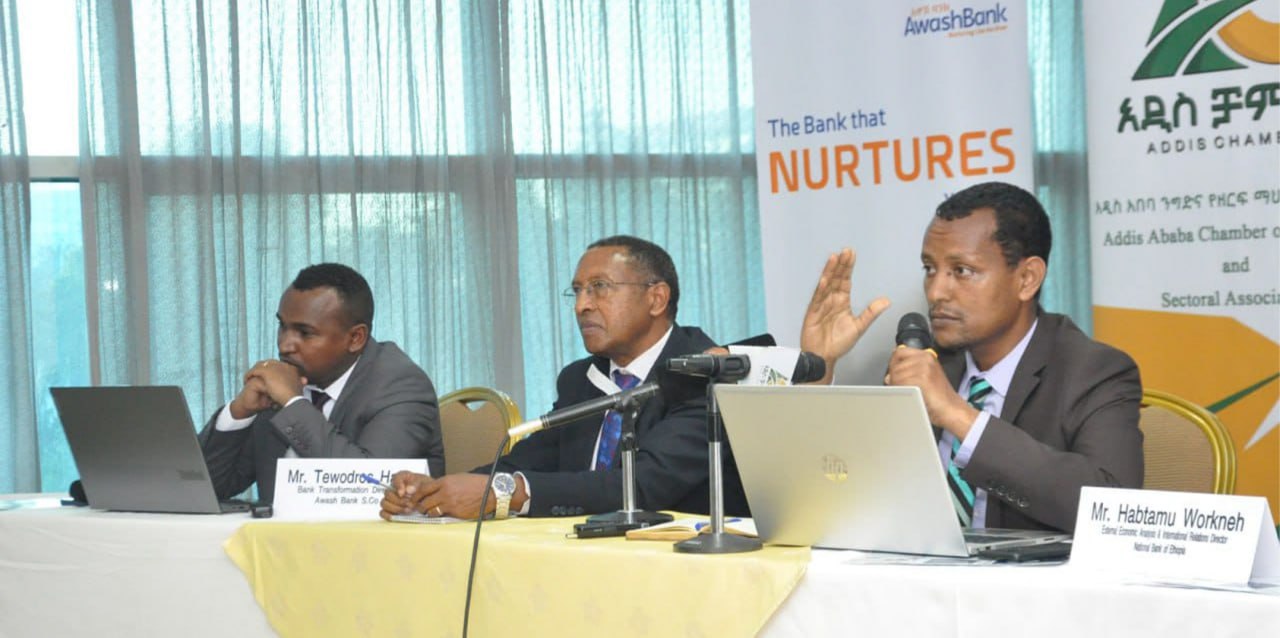

28 Ethiopian Banks Reportedly Defrauded of 1.3 Billion Birr in One Year
It has been reported that 28 Ethiopian banks lost a total of 1.3 billion birr to fraudsters in the past year. This figure represents an increase of 300 million birr compared to the previous year. Only three banks are said to have been unaffected by the fraud. The National Bank of Ethiopia released its annual financial security report, which highlights the impact of monetary fraud up to June 2024. According to the report, 28 out of 31 banks in the country were defrauded, with fraudulent activities including the use of counterfeit currency, stolen ATM machines, fake checks, fraudulent phone messages, and other related methods. The report also indicates that the amount of money lost this year has risen by 300 million birr compared to the same period last year. However, the identities of the three banks that were not defrauded were not disclosed. The National Bank of Ethiopia noted that banks are increasingly collaborating with small credit and savings institutions to provide loans. The rise in these services, along with a surge in internet fraud, is believed to contribute to the growing financial losses.

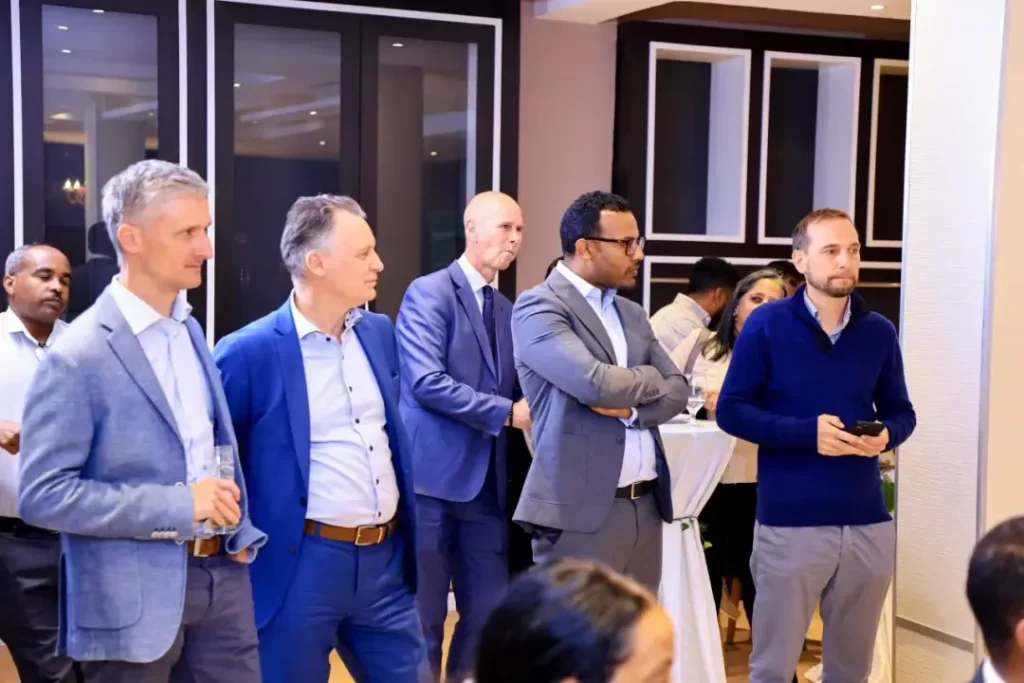
European Investors Voice Concerns Over Birr Crunch
Members of the European business lobby representing nearly 185 investors in Ethiopia said a crunch for local currency has transpired following Ethiopia’s transition into a market-based exchange regime. The investors voiced their concerns directly to central bank governor Mamo Mihertu, during the EuroCham Monthly CEO Networking event last week. While the investors, who are members of the European Chamber in Ethiopia, acknowledged improved foreign currency liquidity following the reforms, they reported a new handicap with Birr shortages. Difficulties sourcing the Birr counterpart needed to open new Letters of Credit was attributed to the tightened monetary policy conditions in the latest review of Ethiopia’s economic reform program by the IMF. The European investors also inquired about the continuation of Franco Valuta imports, businesses impacted by the reforms, and tight monetary conditions following the Governor’s address. Mamo responded by noting that the central bank sequenced the monetary policy reform to protect low-income households, learning from other countries’ experiences. Acknowledging that the reform impacted the central bank’s balance sheet and government debt, the Governor said it was necessary to replace an unsustainable system that constrained development. He mentioned that support is being provided to affected businesses, including the provision of working capital loans. The Governor stated that Franco Valuta is restricted to merchandise traders and wholesalers but allowed—as before—to manufacturing investors.
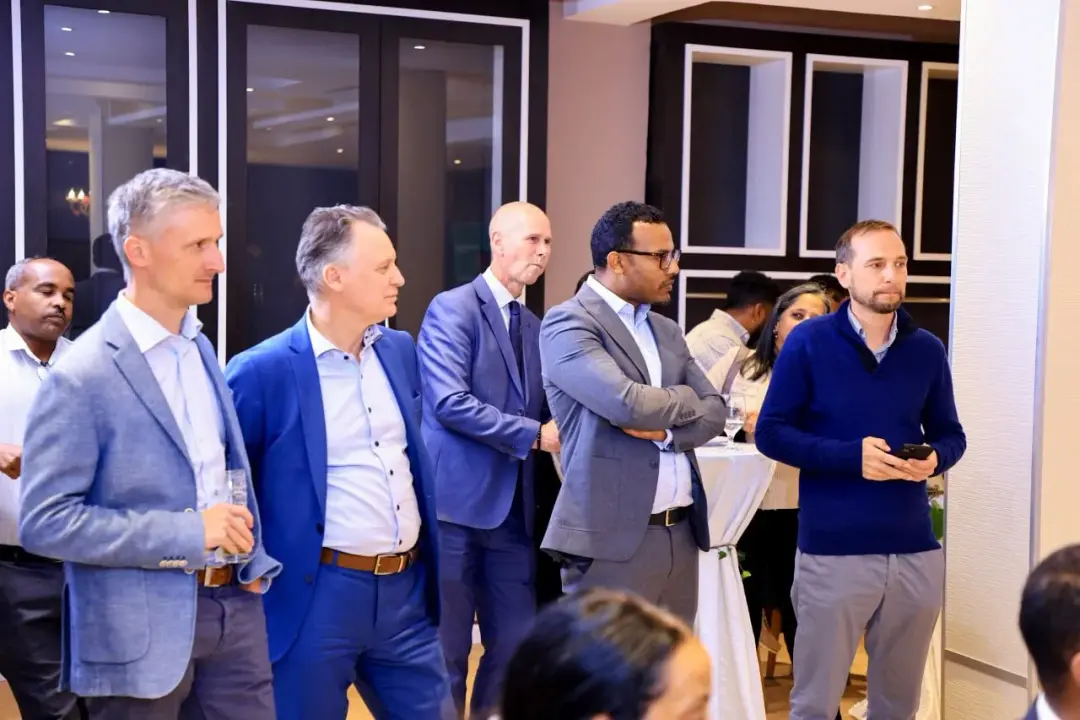

France returns ancient artefacts to Ethiopia
French Foreign Minister Jean-Noël Barrot handed over two prehistoric stone axes, called bifaces, and a stone cutter to Ethiopia's Tourism Minister Selamawit Kassa, during a visit to the national museum in Addis Ababa. The tools are "samples of nearly 3,500 artifacts from the excavations that were carried out on the Melka Kunture site", a cluster of prehistoric sites south of the capital that were excavated under the direction of a late French researcher, Barrot said. France and Ethiopia hold a longstanding bilateral agreement on cooperating in the fields of archaeology and paleontology.
A handover, not a restitution
The artifacts, currently stored at the French embassy in Addis Ababa, will be delivered in their entirety to the Ethiopian Heritage Directorate on Tuesday. "This is a handover, not a restitution, in that these objects have never been part of French public collections," Laurent Serrano, culture advisor at the French embassy, told AFP. "These artifacts, which date back between 1 and 2 million years, were found during excavations carried out over several decades at a site near the Ethiopian capital," he added.
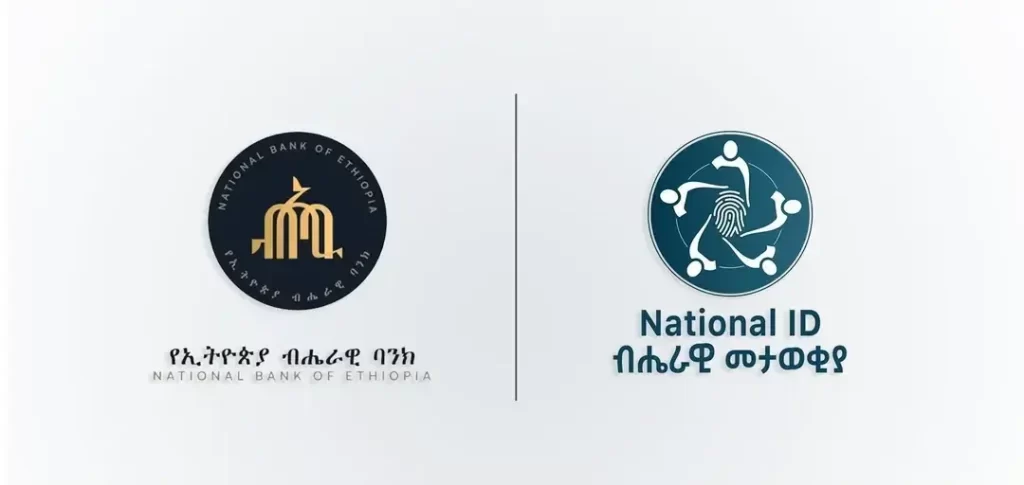
NBE Sets One-Month Deadline for Digital ID Requirement to Open Bank Accounts in Addis Ababa
Beginning January 1, Ethiopians must present a Fayda national digital ID to open a bank account at branches in the capital. A letter signed by Solomon Desta, Vice Governor of the National Bank of Ethiopia, dated November 26, instructs banks to enforce the use of digital IDs as a prerequisite for account opening, with a series of phased deadlines. “The National Bank of Ethiopia has mandated all banks to require a National ID (Fayda) as a mandatory requirement for opening bank accounts, as per [the stated] scheduled,” the letter states. Banks nationwide must comply with Fayda standards by January 2026, while those in major cities face an earlier deadline of July 1, 2025. Existing bank account holders are also impacted, as they will be required to obtain a digital ID by December 2026 to keep their access to the accounts. The letter also permits digital (remote) customer onboarding for opening bank accounts, provided all necessary information required for account creation is collected. The initiative, which aims to establish Digital IDs as the primary form of identification in banks and grant them legal acceptance across all financial institutions, was first announced in July of last year.
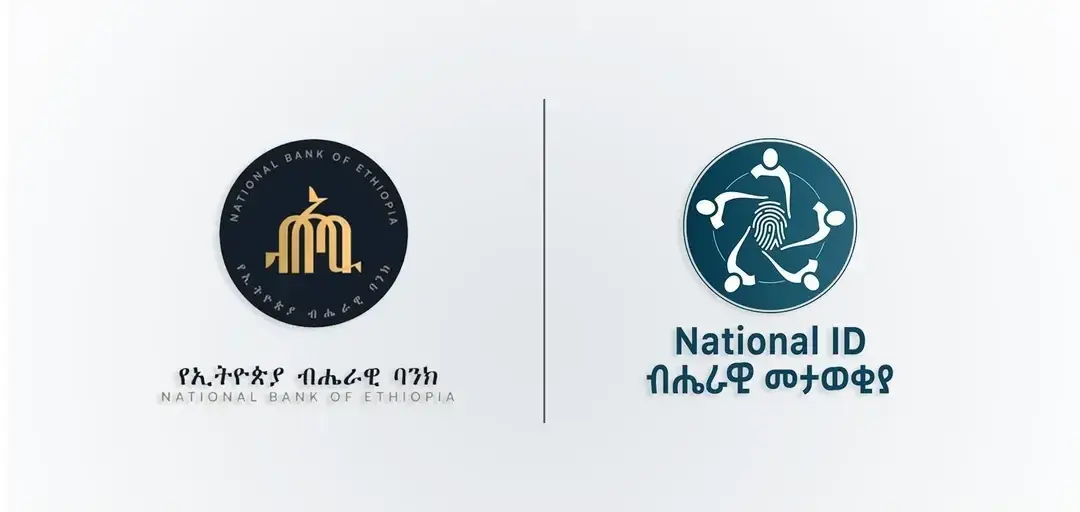

Fall 2024 Children’s Flying Starts: Tigest Girma
Debut author Tigest Girma is good at keeping secrets. After all, it’s how she started her writing career, quietly typing dystopian stories influenced by Suzanne Collins’s The Hunger Games and Veronica Roth’s Divergent on Wattpad during her teenage years. Following her and her family’s move from their hometown of Addis Ababa, Ethiopia, to Melbourne, Australia, for her father’s job, Girma says she found that books were “the only place I could be equal to” her peers. She was immediately drawn to paranormal romance, a subgenre she hadn’t had much access to in Ethiopia. “I immersed myself in these weird monster girl stories that helped me cope with transitioning so dramatically from an African country to the Western world. I think that’s where my love of vampires and this escaping into a dark world came from.”
After she’d read every paranormal romance in her high school’s library, Girma realized that she could just write her own. Her dreams of becoming a writer were born in those private hours spent spinning tales online to no one’s knowledge. But she also recognized that the path to becoming an author would likely be a challenging one. Seeing so few Black writers, and even fewer Ethiopian writers, Girma chose to work as a teacher, a role “that would sustain my writing,” she says. “I needed an actual job until this dream could come true at one point.”
Girma wrote three different manuscripts—all fantasies, the last two contemporary tales set in Ethiopia—before landing on the idea of vampires. She was inspired by the release of Black Panther, a film that “blew my mind” and “shamed me a little,” she says. Seeing a cast full of Black characters, Girma decided she wanted all her characters to be Black and injected her African culture into her stories. As Girma saw the rise of authors such as Tomi Adeyemi, she didn’t lose hope: “There’s room for us. I would just keep saying to myself, Try again. Don’t change the story you’re doing.”

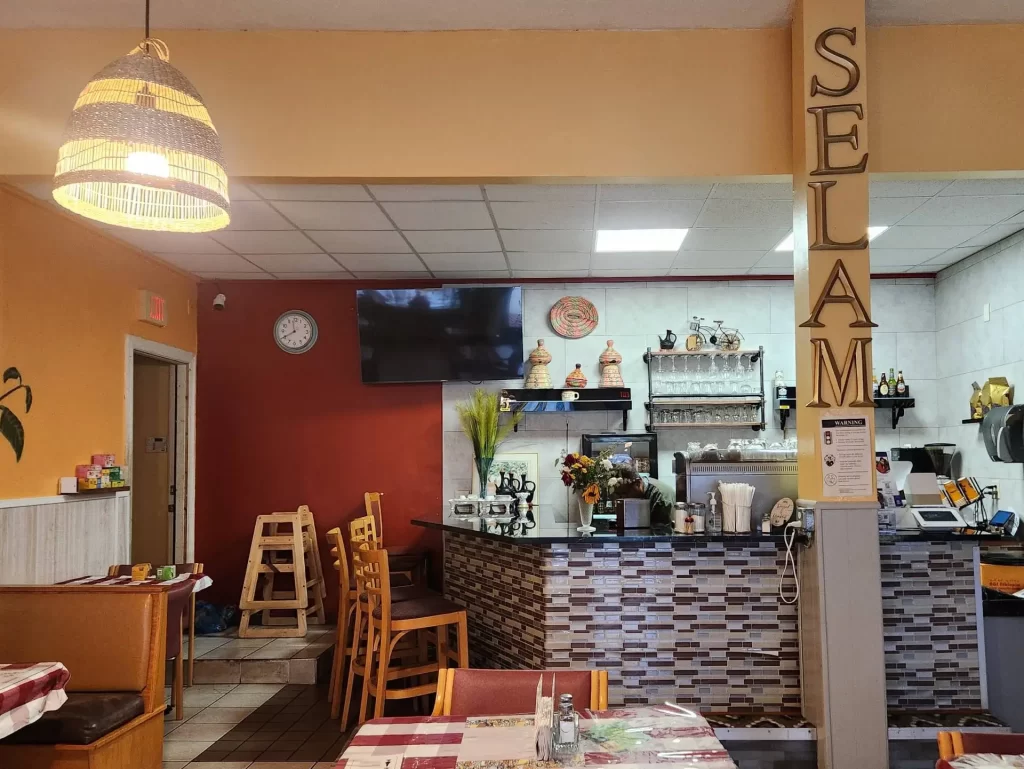
Black Business Spotlight: Selam Restaurant
Selam Restaurant, a small family-owned and operated gem in South Minneapolis, offers an immersive experience into the rich cultural tapestry of Ethiopia. Owned by Belai Mergia and Rahel Tassew, Selam embodies the couple’s journey, values, and commitment to authenticity. “Selam,” meaning peace and a warm greeting of “hello” in Amharic, reflects the owners’ dedication to fostering unity. With its mouthwatering menu, exquisite murals, and familial warmth, Selam has become a beloved gathering spot that invites diners to connect with the spirit of Ethiopia. Both Mergia and Tassew are originally from Ethiopia. They moved to Minnesota in 1991, with Rahel having lived in New Jersey since 1984. Tassew’s journey as a refugee was shaped by the violence of the civil war, a brutal conflict that saw many of his friends fall victim to government oppression. His personal experiences during that period deeply shaped his outlook on life and his commitment to building a peaceful future for his family and community. He crafted Selam into an offering of peace in a bustling city. It began as a coffee shop in 2007, but Mergia and Tassew’s dream was always to open a full-service Ethiopian restaurant. The couple faced setbacks early on due to zoning issues and limited funds, so they were obliged to focus on a cafe. Years of hard work paid off, and their determination and resourcefulness led them to make Selam Restaurant a reality post-pandemic in 2021.
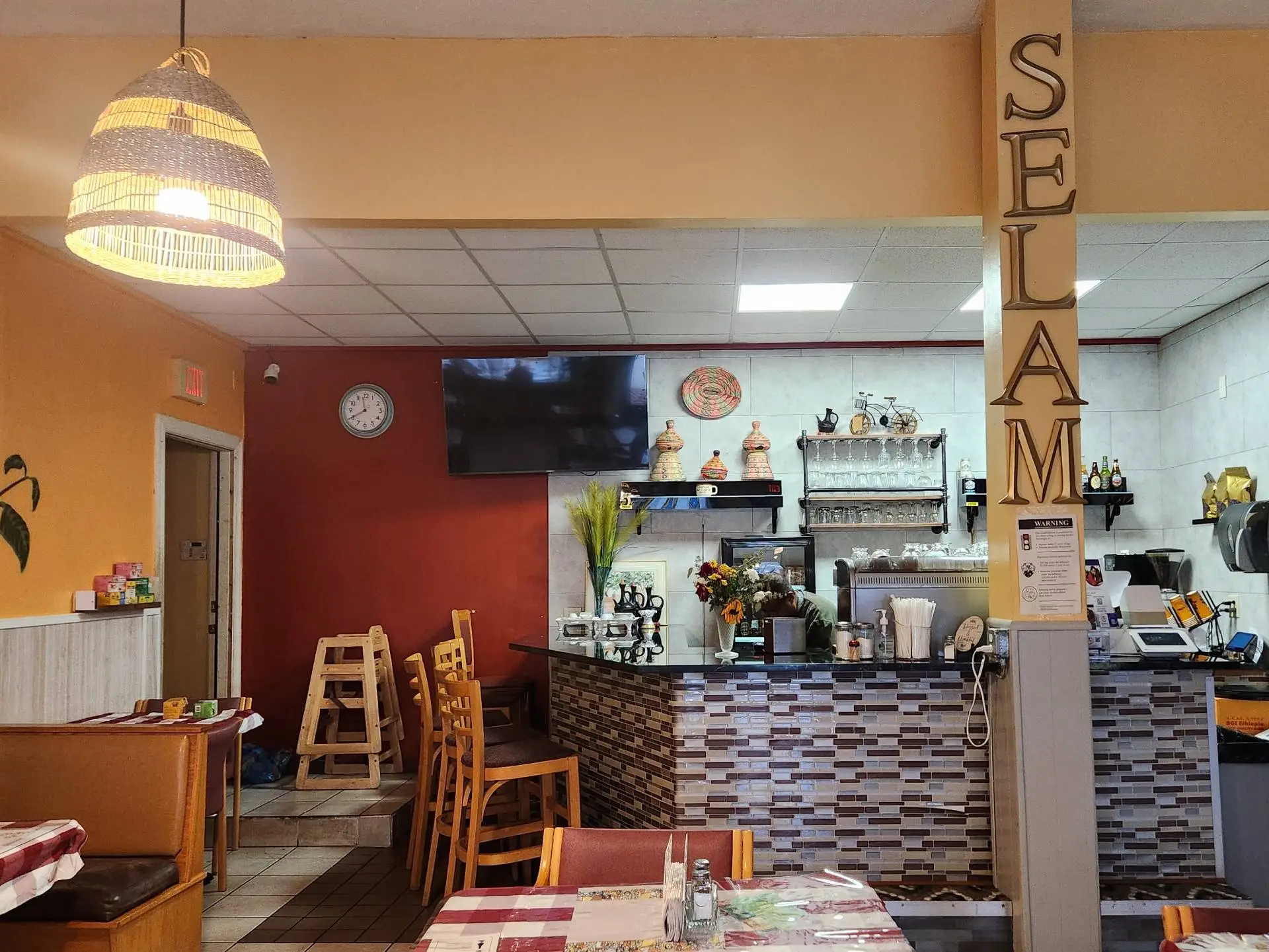
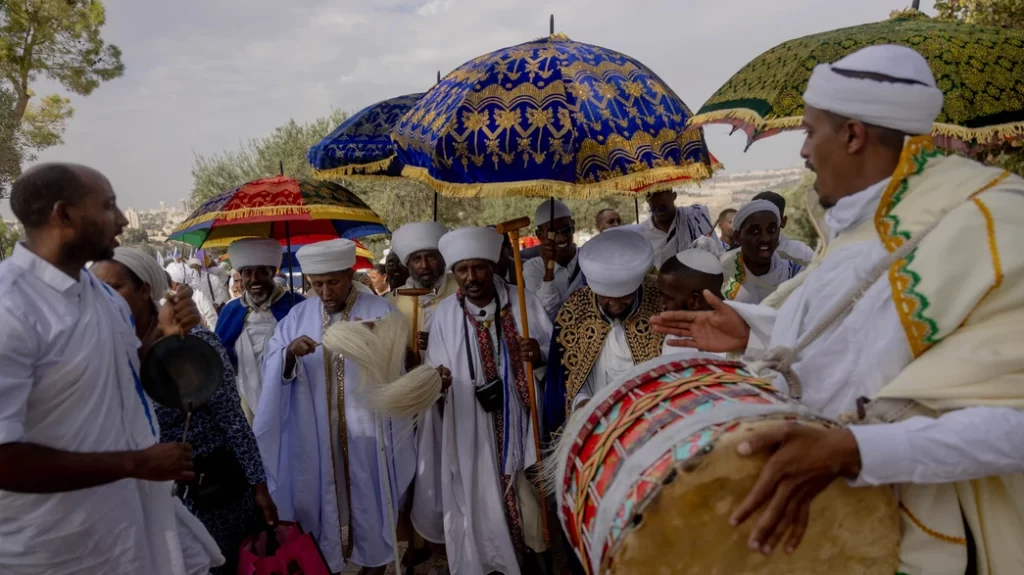
The unique Ethiopian festival with Jerusalem at its heart
When Rabbi Dr Sharon Shalom was a little boy, he and friend set off from their village in Ethiopia to find the Promised Land. They were unable to get very far on that occasion but less than two years later, aged eight, he made the long trek to a camp in Sudan and with an aunt and uncle was brought to Israel with the help of naval commandos. It was to be another two years before he learned that news he had previously been given of his parents’ death had been mistaken and he was reunited with them. Probably no other diaspora community has held the hope of Zion so close to their hearts as the Beta Israel of Ethiopia. When people saw migrating storks who had flown over Israel on the way from Europe, it was the custom to call to the birds and ask how were things in Jerusalem. In the 1860s, the French Orientalist Professor Joseph Halevi went on an expedition to Ethiopia to try to make contact with the community of Jews said to be living there. When he reached them, the sight of a white-skinned Jew perplexed them and they were unsure of how to take him. But when he mentioned the word “Jerusalem”, their doubts fell away. “Like lightning in the dark of night, the word ‘Jerusalem’ lit up the eyes and hearts of my lost brothers,” he recorded. That spiritual connection is embedded in the unique festival of Sigd, which is celebrated this week. For most Jews, after the festival-packed month of Tishri, the succeeding Cheshvan is a barren month with no special days of its own. But for the Beta Israel, Sigd represents the culmination of the autumn season; just as Shavuot marks 50 days from Pesach, so Sigd marks 50 days from Yom Kippur. Technically, it falls on Cheshvan 29, but because that is Shabbat this year, the festivities take place earlier on Thursday.


Call for Entries: The Earthshot Prize 2025 – Seeking Groundbreaking Solutions to Restore Our Planet
Following a record-breaking year for nominations, and a historic first awards ceremony on the African continent, The Earthshot Prize (TEP) is officially open for entries for its 2025 cohort and MultiChoice is proud to once again be an official Africa nominator for TEP. TEP seeks innovative solutions across five critical Earthshots: Protect and Restore Nature; Clean Our Air; Revive Our Oceans; Build a Waste-Free World; and Fix Our Climate. This year’s cycle saw an unprecedented surge in nominations, with over 2,000 entries received from 139 countries, demonstrating a growing global momentum for environmental innovation. The star-studded awards ceremony, held in Cape Town, South Africa was broadcast live to millions of people across the continent by MultiChoice, the official African broadcast partner of TEP. The ceremony celebrated several African-led initiatives, including:
- Green Africa Youth Organisation (GAYO) (Ghana): Winner of the Clean Our Air Earthshot, GAYO is tackling air pollution with its innovative “Zero Waste Model”.
- Keep IT Cool (Kenya): Winner of the Build a Waste-Free World Earthshot, Keep IT Cool is revolutionising food preservation for small-scale farmers and fishers with its sustainable refrigeration systems.


Single-Use Plastic Faces Ban in Ethiopia as Draft Law Advances
The Council of Ministers has approved a draft law to ban the import and production of single-use plastic materials. The bill, now heading to Parliament for final approval, targets the replacement of plastic bags with a thickness of less than 0.03 mm. Single-use plastics refer to items designed to be used once before disposal. This includes commonly used items like bags, bottles, wrappers, and straws, predominantly used in packaging and service ware. According to Ethiopia’s National Plastic Waste Management Strategy and Roadmap (2024-2034), single-use plastics constituted just 3% of total solid waste in urban areas a decade ago. However, recent data indicates this figure has doubled to 6%. Additionally, Euro-map 2022 data shows Ethiopia's per capita plastic consumption rose from 0.6 kg in 2007 to 2.6 kg in 2021. This increase has made Ethiopia the second-largest importer of plastics in East and Central Africa, spending €17 million annually on plastic packaging imports, with 51% used in packaging and the rest in construction, electronics, and other sectors. Ethiopia’s efforts to regulate single-use plastics date back to the Solid Waste Management Proclamation No. 513/2007, which prohibited the production, import, and use of plastic bags thinner than 0.03 mm unless they met biodegradable standards. However, enforcement has been weak. A compliance study found that 14 of 21 inspected manufacturers were producing substandard plastic bags, and most bags lacked proper labeling.

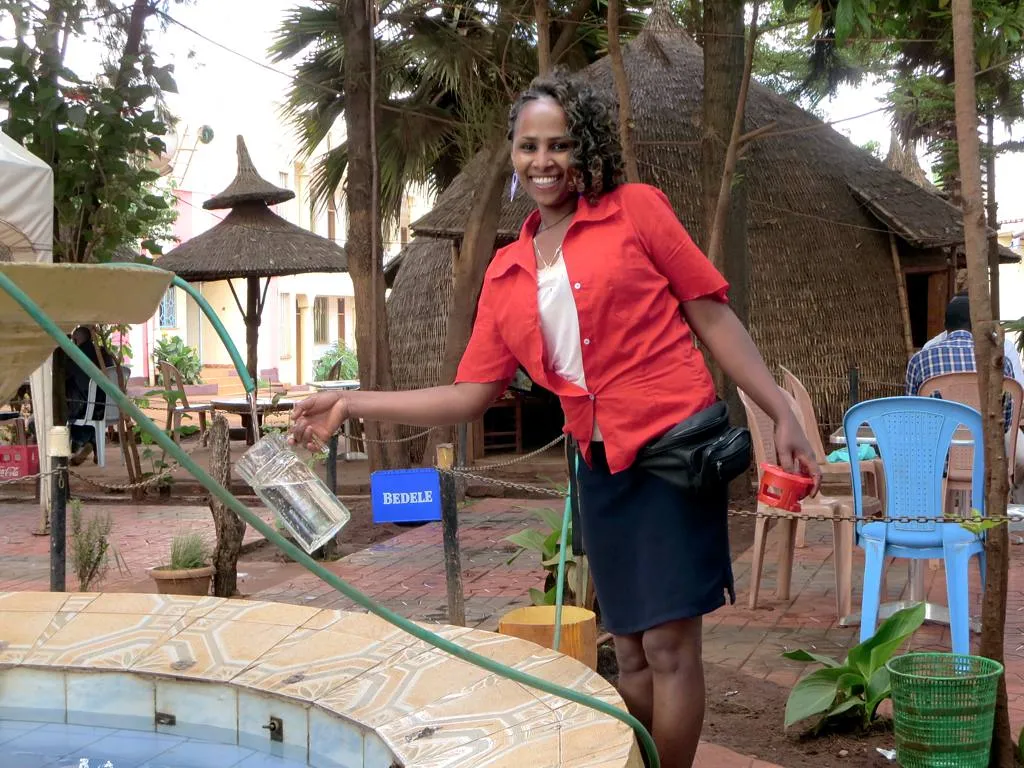
Ethiopia outlaws miniskirts for waitresses to preserve cultural values
In the sega bet—traditional Ethiopian steakhouses where alcohol flows freely—waitresses were sometimes required to wear miniskirts to attract customers. However, the practice is now illegal. On November 11, the Bureau of Culture, Arts, and Tourism of Addis Ababa adopted a decree prohibiting employees of hotels, restaurants, and nightclubs from wearing clothing above their knees. “It has become necessary to adopt and implement international hospitality standards,” stated Haftay Gebre-Egziabher, deputy head of the bureau.
The text also highlighted goals to preserve “Ethiopian culture and values” and to “prevent physical and psychological pressures” on waitresses. Establishments that fail to comply will face fines of 50,000 birr (approximately $410) in the coming weeks. Women’s rights associations that supported the legislation expressed mixed feelings about its content.
Practices bordering on sexual exploitation
“Waitresses are often forced to wear inappropriate clothing that disregards their comfort and safety,” explained Selamawit Kassaye, legal aid coordinator at the Ethiopian Women Lawyers Association. Over the past three years, Betelehem Akalework, co-founder of the feminist platform Setaset Power, received numerous reports of harassment from waitresses compelled to dress provocatively.
“These practices verge on sexual exploitation, as employers use women’s bodies to promote their businesses,” the activist stated, noting she has conducted online campaigns against this issue. Yet, banning such outfits is insufficient if harassment and sexual violence continue to be normalized in Ethiopia’s deeply patriarchal society.

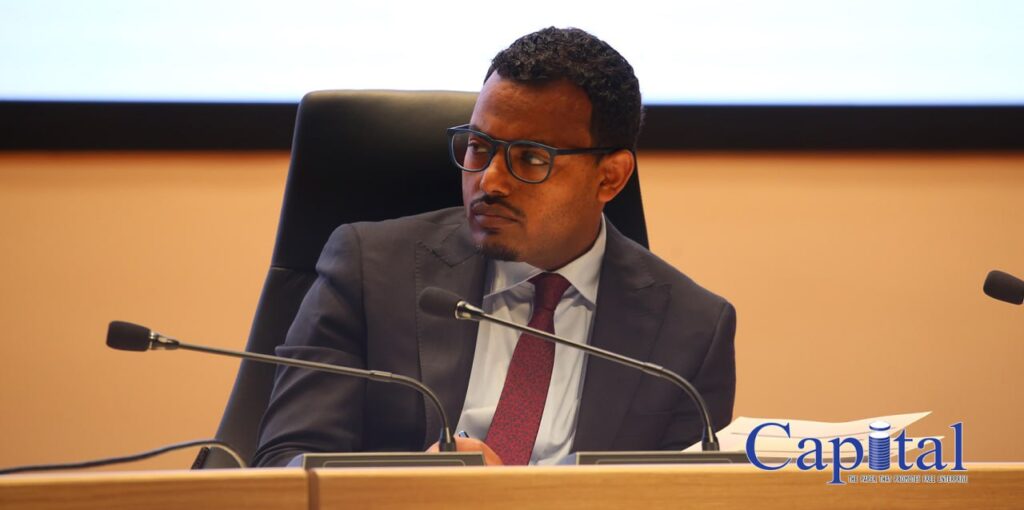
NBE warns financial institutions against illicit forex activities
The National Bank of Ethiopia (NBE), the regulatory authority for the financial industry, has issued a warning to financial institutions and businesses involved in illicit activities related to the foreign exchange market. NBE supervisors have conducted on-site investigations into the foreign currency operations and management of every bank. Recent macroeconomic reforms have enabled the country to increase its foreign exchange reserves over the last quarter of the year, facilitating the repatriation of profits by international corporations and airlines. Significant changes were implemented as part of the macroeconomic reform initiated on July 29. These changes included the establishment of a free foreign exchange market and modifications to how the banking sector manages foreign exchange. Notably, citizens are now allowed to open foreign exchange accounts, and new forex bureaus have been established. NBE Governor Mamo Esmelealem Mihretu reported that the reform has yielded positive and encouraging outcomes in its initial quarter. In an interview with Fana TV, he highlighted several new statistics and developments since the reform’s inception. For the first time in the nation’s history, the balance of payments recorded a surplus. “The balance of payments showed a USD 573 million surplus, compared to a USD 1.2 billion deficit the previous year,” he stated. Mamo noted that the government has launched various initiatives aimed at achieving significant results from the new macroeconomic reform. He pointed out that prior to the reform, the gap between the official exchange rate and the parallel market was nearly double. Currently, since the reform began, the difference between the official and black market rates has been between three and five percent, with the overall exchange rate difference now being less than ten percent. “Since the start of the reform, the exchange rate has fluctuated, but we understand the reasons behind these changes,” the governor explained. He expressed optimism that the gap between the official and parallel markets will narrow and eventually converge.

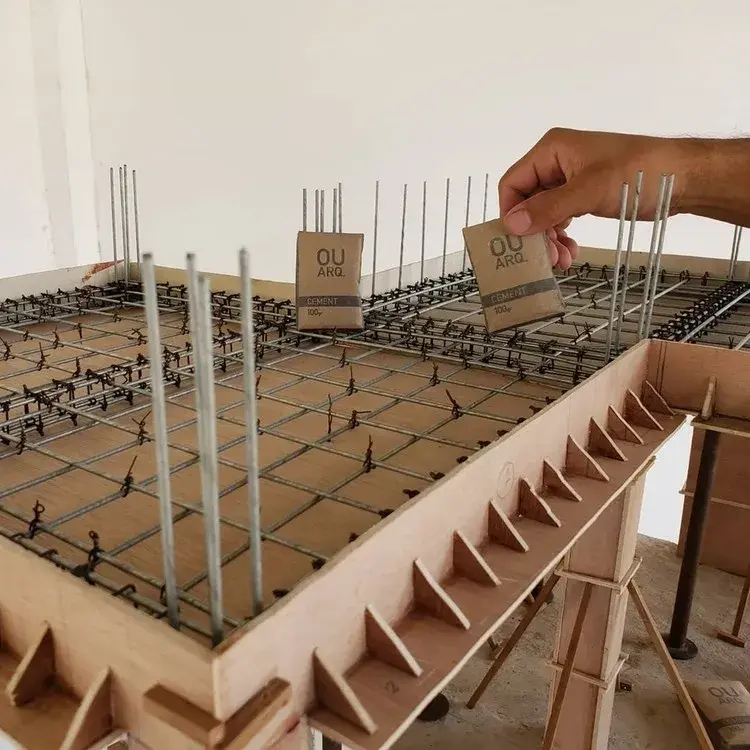
Ethiopian Engineer Debuts Digital Cost Projection Platform for Construction Sector
An Ethiopian engineer has launched a platform that looks to bring some order into the chaotic cost assessment that precedes most construction projects. Meacha Teshome, debuted addiscostestimator earlier in the month, which aggregates prices for essential construction inputs to calculate overall costs of projects. The Bahir Dar University alumnus expects the Platform to decrease the hassle of price discovery in developing a Bill of Quantities (BoQ) list for construction projects. BoQs enable a detailed construction budget forecast through a comprehensive listing of inputs and costs before building commences. “Everything up to finishing materials like ceramic and windows is calculated,” Meacha told Shega. The Platform relies on information about the size, location and utility of a project to calculate price references on all the relevant inputs by scraping data from e-commerce sites and daily interviews with suppliers. Users can register through email for access to the Platform which churns out detailed Excel sheets of construction data. Contractors and clients often enter into protracted disputes over project budgets due to a rapid surge in prices for most construction inputs in Ethiopia. Platforms like Mismar have launched their services over the past year looking to connect suppliers and buyers through a straightforward interface.


Ethiopian Developers Demand More From Google Play Console
Excitement rippled through Ethiopia’s tech community two weeks ago as social media buzzed with news that Google Play Console had opened its doors to local developers, enabling them to publish their apps and games. Before the October update, Ethiopia was not a supported location for creating a Google Play Console account—a platform necessary for managing, publishing, and distributing apps on Google Play. The Minister of Innovation & Technology Belete Molla (Phd) expressed his hopes that the new access will create potential for the nation’s digital economy while he urged local developers to reap the benefits. He also highlighted that this achievement was the result of ongoing efforts to integrate Ethiopia into the global tech ecosystem. “This positive milestone was achieved following discussions I had on behalf Ethiopian Ministry of Innovation and Technology with the Google team in late October, where we formally requested support for Ethiopia during their visit to Addis Ababa,” wrote prominent tech figure Solomon Kassa on his LinkedIn page. Solomon also celebrated the milestone on social media, heralding it as a turning point for Ethiopian developers. Take Endod, for instance—a platform connecting clients in Addis Ababa with laundry services. Despite the growing demand for its services, the Company has struggled to publish its app on Google Play. Endod's co-founder and CEO, Falma Garedow, sought help from friends and family abroad to register the platform using a foreign address.

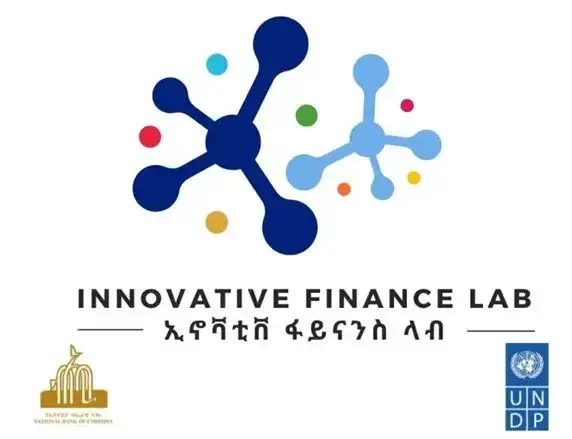
Innovative Finance Lab Selects 20 Ethiopian Enterprises to Receive $100K Grant from GIZ
Twenty local companies are set to split a grant of $100,000 from GIZ after being selected by Innovative Finance Lab (IFL) following a three-month technical assistance training program. The grant was awarded following a pitch competition for 31 small and medium-sized enterprises (SMEs) and startups who were part of the second cohort of the Technical Assistance Facility (TAF) program run by IFL. Kamrach, a B2B e-commerce marketplace that connects retailers, manufacturers, SMEs, and farmers across Ethiopia, is among the 20- businesses selected through the program. Its founder, Meron Ephrem, says she was equipped with tools and skills that will help her and the business enhance their receptivity to investments. The training entailed pitch deck creation, business development, and actual pitching to investors, which was capped by a $5,000 grant. “We will use the grant to expand operations and strengthen our team,” Meron told Shega. Karmach currently hosts around 2,500 registered users and 17 active vendors, as it looks to grow its user base to the tens of thousands. A host of other businesses ranging from publishing like Ankobot Books & Publishing to gemstone and jewelry businesses like Lolite, organic fertilizer enterprises like Lemlem, and children's fashion brand Wolfaby were part of the 20 enterprises selected for the grant.


Ethiopia Launches timbuktoo Pan-African ManuTech Hub
Addis Ababa, 23 November 2024 – The United Nations Development Programme (UNDP) and the Ministry of Industry, in collaboration with the inter-ministerial startup committee, have launched a hub to catalyze innovation and collaboration around manufacturing technology in Africa.
The pan-African timbuktoo ManuTech Hub will be hosted by the Government of Ethiopia in Addis Ababa, commonly referred to as the political capital of Africa.
ManuTech resonates with Ethiopia’s ambition to become a light manufacturing hub in Africa which has been demonstrated through investments made to establish several industrial parks.
The Ministry of Industry has committed to providing space for constructing a timbuktoo hub, which is expected to be finalised by early 2025 to welcome the first cohort selected from across Africa.
The ManuTech Hub call for applications was announced during a public consultation on Ethiopia’s startup proclamation.
The hub will provide an enabling environment for innovation and strengthen the business case for African startups that are using technology to source solutions for the continent's manufacturing sector.
Hub participants are selected bi-annually from across Africa through an open and competitive process.


Ingredients in Focus: Teff
A tiny cereal grain from Ethiopia and Eritrea called teff is quickly gaining steam as an ingredient with chefs and consumers looking for healthy and sustainable ingredients — especially as climate change and disruptive weather threatens mainstream wheat crops. The teff market is expected to grow 11% annually, from $1.5 billion in 2023 to $3.5 billion in 2030, according to market research firm IndustryARC. Much of that growth is being driven by an increased demand for gluten-free products and an expansion in teff cultivation worldwide. Teff is an ancient grain believed to have been domesticated around 4000 and 1000 BCE. It can thrive in a variety of environments. It has been cultivated for thousands of years in Ethiopia, and is the main ingredient in injera, a spongy, pancake-like flatbread with a slightly sour flavor that is a mainstay of the national cuisine. According to the United Nations, teff consumption accounts for two-thirds of the protein intake in the Ethiopian diet. In addition to injera, teff is also eaten as a porridge or feed, but as interest grows, food producers are finding new ways to use teff. While 90% of the world’s teff crops are still grown in Ethiopia, farmers in North America, including Idaho, India, Australia and Europe have begun cultivating the grain. In the U.S., brands like Bob’s Red Mill and Maskal sell teff flour and grain.

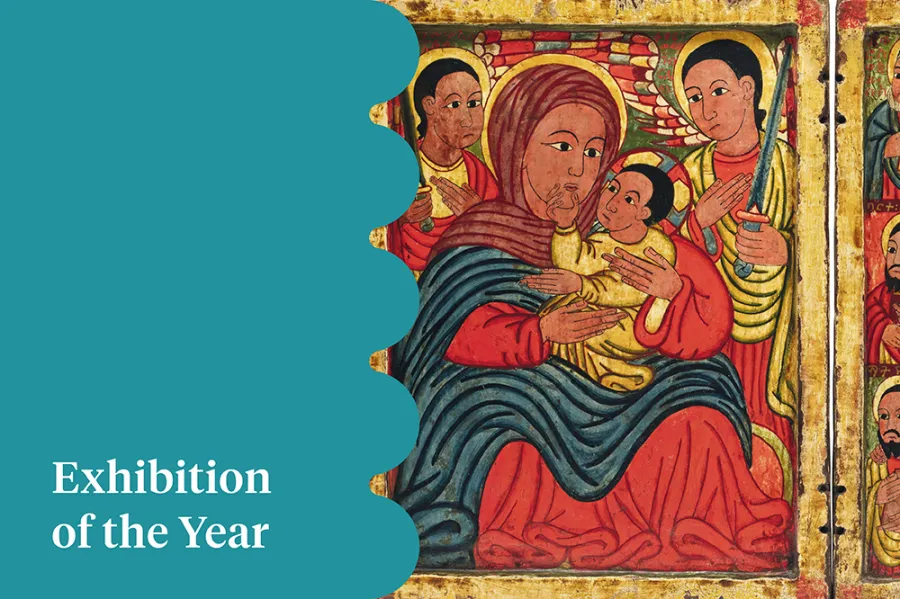
Exhibition of the Year
With ‘Ethiopia at the Crossroads’, the Walters Art Museum brought the largest exhibition of historic Ethiopian art and culture ever assembled outside the country to viewers in the United States. Thanks to the perseverance and dedication of curator Christine Sciacca, this stunning exhibition delighted viewers in Baltimore, the Peabody Essex Museum in Salem and the Toledo Museum of Art this year. On display were objects of the highest quality, ranging from Aksumite gold coins and illuminated medieval manuscripts to an incomparable range of 15th- to 19th-century icon and mural paintings, as well as an exquisite selection of ancient neck, hand and processional crosses. These were shown with comparative works from Pharaonic and Coptic Egypt, Late Rome and Byzantium, Sabaean Yemen, Armenia and Syria. The exhibition has been a game changer, coinciding with a quarter century of growing interest in Ethiopian art and culture in North America. While previous international exhibitions have come and gone, this one is virtually permanent, living on in the Walters’ own growing collections and in the handsomely illustrated and well-researched catalogue that accompanied the show. Being a contributor to the catalogue myself, I was determined to see the exhibition first hand, which I did both at the Walters and in Toledo.


Business Commercial Bank of Ethiopia Moves to Establish an Investment Bank
The Commercial Bank of Ethiopia (CBE) is in the process of establishing an investment bank, a move aligned with recent regulatory changes aimed at fostering growth in Ethiopia’s financial sector. This initiative is being coordinated with the involvement of Mr. Zemedeneh Ngatu, an experienced investment consultant and managing director of Fairfax Africa Fund.
Regulatory Changes Enable New Opportunities
The establishment of the investment bank follows the repeal of a 2017 directive that restricted commercial banks from participating in various investment sectors. The annulment of this directive on July 23, 2024, and subsequent provisions in the Capital Market Proclamation now permit commercial banks to own full stakes in non-credit institutions such as investment banks. This regulatory shift is part of broader efforts to build a capital market infrastructure in Ethiopia.Investment Banks and Their Role in the Economy
Investment banks are central to capital markets, offering advisory services to businesses, start-ups, and other organizations seeking to raise funds. They also act as intermediaries in the issuance and sale of shares, facilitate mergers and acquisitions, and provide consulting services. Their revenue comes from fees generated through these services, making them key players in financial ecosystems.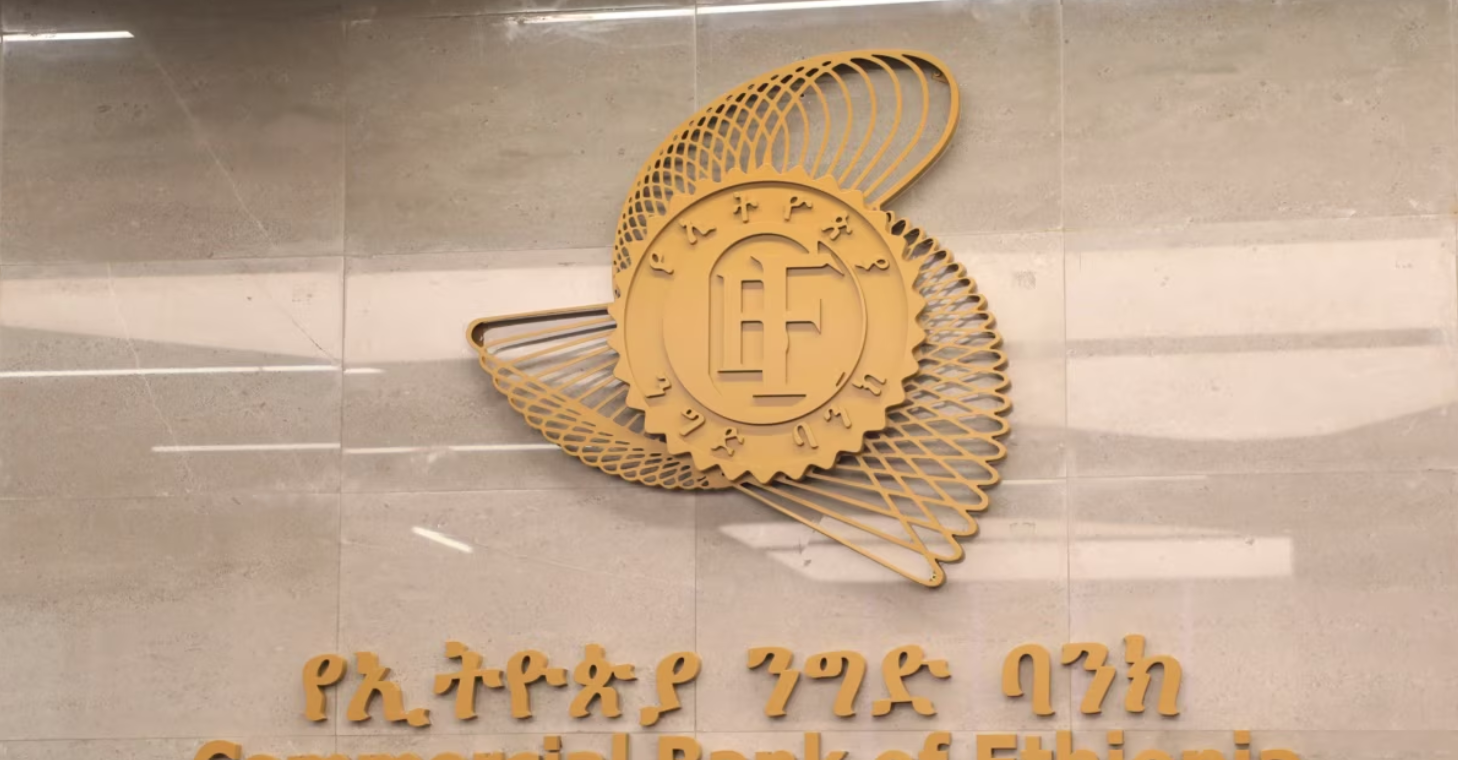

Africa’s incredible new £5billion airport set to be the biggest on the continent
A new mega-airport is being built in Africa - and it's set to cost at least £5billion and become the continent's biggest travel hub.
The airport will be built near the town of Bishoftu, Ethiopia. The site is 25 miles away from the country's capital, Addis Ababa. Once fully built, it is expected that the airport will welcome 110million annual passengers. Ethiopian Airlines and Dar Al-Handasah Consultants reached a deal earlier this year for the design and overseeing of the project. The project has been named 'Mega Airport City', and aims to boost Ethiopia's economic growth. Under the current plans, the project should be completed by 2029. The new airport will boast a four-runway configuration and a state-of-the-art terminal. The existing airport in the capital Addis Ababa Bole is located at a height of 2,334 meters (7,625 feet), making it one of the highest airports in the world. Ethiopian Airlines Group chief executive Mesfin Tasew said of the project: "The project will not only enhance connectivity but also drive economic growth and prioritize environmentally responsible practices in our country and beyond."

Toledo Museum of Art becomes first major museum to Acquire Artwork using Cryptocurrencies
The Toledo Museum of Art (TMA) has made a historic purchase with the acquisition of the digital artwork Abyssinian Queen (2024) by the Ethiopian artist collective Yatreda ያጥሬዳ. This transaction marks the first time a major museum has used cryptocurrency to buy an artwork. The purchase was made using USDC (a stablecoin pegged to the U.S. dollar), which will be transferred on the Ethereum blockchain. Abyssinian Queen is a one-of-one NFT and part of a series by the same name. The work was showcased in an immersive installation featuring four NFTS in the TMA’s “Ethiopia at the Crossroads” exhibition, which closed on November 10th. A tribute to the legendary queens of ancient Ethiopia rendered in Yatreda’s signature black-and-white, slow-motion video format, the work features a queen adorned in traditional jewelry and seated on a throne. The acquisition highlights the TMA’s ongoing diversification of its digital art collection, which now includes five works. “The work connects with our historic holdings in meaningful ways while also contributing to our ongoing efforts to support the evolving digital arts ecosystem,” said Adam Levine, the TMA’s director. “When we buy a new artwork from a French gallery, we pay in euros; when we buy from an English auction house, we pay in pounds. In this case, we are purchasing from the Web3 artist collective Yatreda ያጥሬዳ, so it only made sense to try to transact in their preferred currency.”

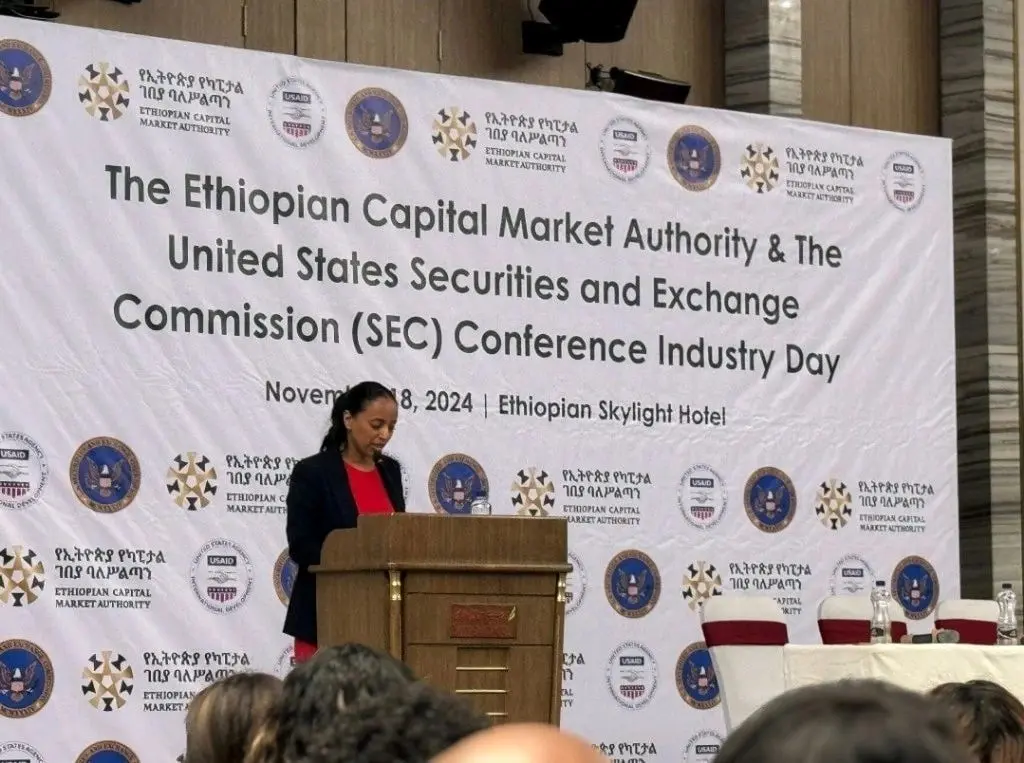
Ethiopia Looks to U.S. Regulators for Insights Ahead of Stock Exchange Launch
As the Ethiopian Capital Markets Authority (ECMA) polishes the regulatory landscape in anticipation of the country’s maiden stock exchange, it has tapped support from regulators overseeing the biggest financial market in the world. Financial authorities from the United States Securities and Exchange Commission (SEC) were hosted by their local counterparts and the United States Agency for International Development (USAID) at the Skylight Hotel for a training program on Monday morning. Glen Gordon, associate director at the SEC, provided insightful reflections on the balance between regulation and market development from a nearly three-decade career at the Commission. He highlighted the alignment of goals between the private sector and regulators in nurturing a market free of fraud and deceit. “A basic set of good rules,” Glen noted as foundational to the development of functional markets. He illustrated the potential for capital markets to outgrow the traditional banking system in providing access to capital, investment options, and economic prosperity. There were 653 unicorn startups with a combined value of 630 billion dollars that participated in the US capital markets in 2023. This figure starkly contrasts Ethiopia’s funding to startups, which was around 3 million dollars in the same year.


Ethiopian Airlines Faces Growth Constraints From Boeing Strike Delays
Ethiopian Airlines' CEO believes the carrier's long-term growth ambitions will take a hit because of the recent seven-week Boeing machinist strike. Production of the 737 MAX and 777 was abruptly stopped during the strike, two aircraft types the African carrier has on order with Boeing. Ethiopian's CEO Mesfin Tasew told AFP that Boeing's latest woes will impact the carrier's long-term growth objectives. Expected deliveries of 737 MAX and 777F aircraft earlier this year have been set back, and Tasew believes the strike will exacerbate delays, saying, While Boeing managed to end the costly seven-week strike, it won't be that easy to simply restart plane production in just a few days. The manufacturer has stated that it would take several weeks before it can fully restore production capacity, leaving Ethiopian facing further delays to deliveries. The airline is also a customer for the Boeing 787 Dreamliner and the upcoming Boeing 777X, placing an order for eight airframes plus twelve options in March, and had hoped to expand its freight capacity with the addition of more 777Fs. Due to the delays, Ethiopian Airlines has been forced to lease MAX aircraft to ensure enough capacity for its near-term schedule, including four airframes due to start arriving this month.


New cafe in Richardson spotlights fine Ethiopian coffee and pastries
Acoffee shop has opened in Richardson with serious coffee roots: Called Fanah Cafe and Pastry, it's in a center at 139 N. Plano Rd. and Belt Line Road, where it's serving authentic Ethiopian coffee, lattes, and pastry baked in-house. Owner Esayas Zeweldi was born in Ethiopia and moved to Dallas in 2008. In his early years in the U.S., he worked as a barista at UT Southwestern, then at Jasmine Market and Café. He went on to build a career in medical transportation and tech manufacturing — but his love for coffee never faded, and he decided to open his own shop. "Since I came to the United States, that was my dream," Zeweldi says. "Nobody showed me the way, but I had it in me." They serve traditional beverages including espresso, cappuccinos, and brewed coffee, and will be adding a collection of specialty lattes as well. They've partnered with Dilla Coffee Roasters in Deep Ellum, which specializes in Ethiopian beans. Ethiopia boasts some of the highest quality coffee beans grown in the world. The country is known for its diverse array of bean varietals, some of which have been cultivated for centuries. Fanah will also soon offer an Ethiopian Coffee Ceremony, with boiled coffee served to participants on small cups that sit on a tray, meant to be shared. “In my country coffee is all about conversation, we have a coffee ceremony, you call your neighbors, enjoy some time with them. With drive-thru concepts and quick coffee pick up, we lost the connection, I want people to have a good time," Zeweldi says.

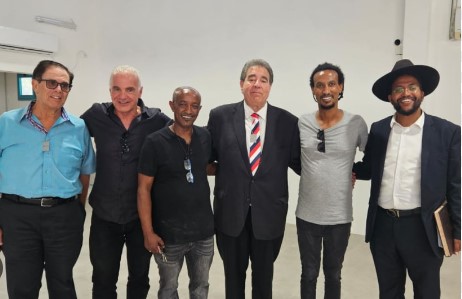
Jews of Ethiopian descent plan state-of-the-art cultural and heritage center in Be’er Sheva
A community center which serves Israel’s second-largest community of Ethiopian Jews is set to get a much-needed upgrade, with plans to turn it into a state-of-the-art educational and heritage center, thanks to the generosity of Jewish National Fund–USA partners (donors). Shavu Banim [The Sons Shall Return (to their borders)] Center was built for the 13,000-strong community by the Be’er Sheva Municipality in 1992, with the view for it to become their spiritual and cultural home. Over the years, despite the importance of the center, it has fallen into disrepair, and there has been no funding to do much needed renovations for the past 32 years. Earlier this year, the municipality began to renovate, however, the plan ran into issues. This is where Jewish National Fund-USA came into the picture. Over the years, the organization has developed a relationship based on friendship and mutual collaboration with the young educator and trailblazer, Naftali Aklum, himself a member of the Beer Sheva Ethiopian Jewish community and a Jerusalem Post 25 Young ViZionaries awardee, who lobbies for their rights and shares their incredible culture to audiences across the world.

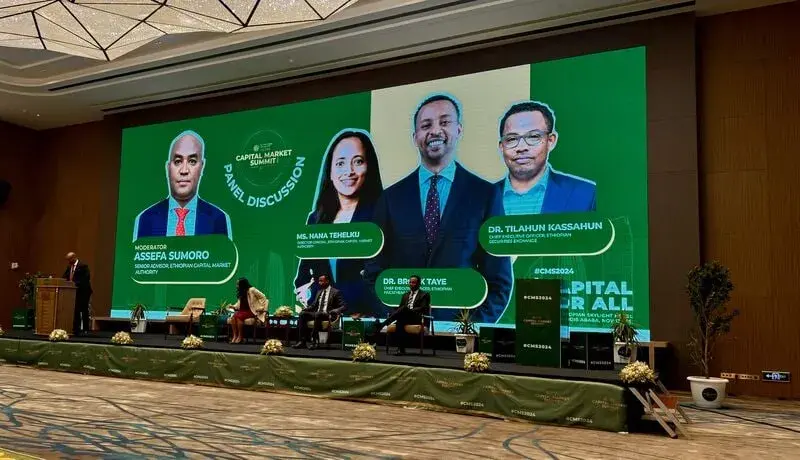
ECMA Sets One-Year Compliance Deadline for Public Share Issuers
Companies currently issuing shares to the public have one year to comply with the public offering directive introduced by the Ethiopian Capital Market Authority (ECMA). The announcement came as part of the Authority’s unveiling of new regulatory frameworks during the Capital Market Summit at Skylight Hotel. The ECMA disclosed the Justice Ministry's approval of two directives: one governing initial public offerings (IPOs) and trading of securities, and another addressing the regulation of self-regulatory organizations (SROs). Hana Tehelku, Director General of ECMA, highlighted that any future public share issuances must be registered and approved by the Authority following the directives’ publication on ECMA’s website. The Directive on Public Offer and Trading of Securities outlines comprehensive rules for public securities offerings in Ethiopia, whether they will be traded on an exchange or over-the-counter (OTC). Concurrently, the Directive for Recognition of Self-Regulatory Organizations (SROs) sets forth procedures for establishing, licensing, and supervising SROs in the capital market.


What It’s Like To…Run an Art Gallery in Addis Ababa
When Nafkot Gebeyehu and Zion Yaynu first met, neither imagined they’d one day establish an art gallery that would redefine Addis Ababa’s creative scene. But today, Studio 11 has evolved into much more than just a gallery; it’s a vital space for young and emerging artists, a thriving community hub, and a unique experiment in navigating the business of art in Ethiopia. Yaynu, a painter who moved to Addis from Australia five years ago, originally came with the intent to reconnect with her roots and explore beyond the city. “I actually planned to stay only a year,” she explains, “but COVID happened right after I arrived, so those plans shifted.” With her savings dwindling, Yaynu decided to get a job and spend her free time painting while waiting for the world to reopen. Gebeyehu, a photographer who is also part of the OkayAfrica social team, grew up in a creative household with a writer and theater director father, but she didn’t immediately turn to art. “I knew creative stuff could be a career, but I didn't know how feasible it was in our country,” she says. Initially studying engineering, Gebeyehu later switched to journalism and photography. During the pandemic, she took a job, where she met Yaynu. “It was one of those moments of destiny — we clicked instantly,” she recalls. Since opening Studio 11, Gebeyehu and Yaynu have hosted six exhibitions featuring Ethiopian female artists, including By A Thread, a solo exhibition by 24-year-old Tsion Mehari that is currently on display. Mehari’s portraits, painted on wallpaper — a medium she discovered during her family’s home renovation — are a unique highlight of the exhibit. In parts edited for length and clarity, Gebeyehu and Yaynu reflect on their journey with Studio 11 — how they have built it into a welcoming space that is reshaping the artistic scene in Addis Ababa and offering both inspiration and opportunity to a new generation of Ethiopian artists.

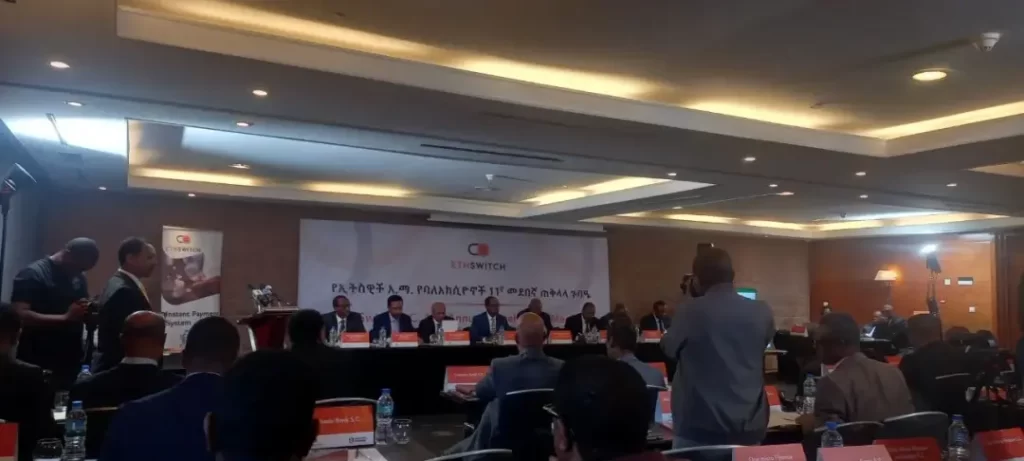
EthSwitch Sees P2P Transactions Overtake ATMs in Value
EthSwitch, the national switch operator responsible for financial interoperability, has reported that interoperable peer-to-peer (P2P) transactions have surpassed those of ATMs in value. During its general assembly meeting held at Hilton Addis Hotel on Tuesday, the operator disclosed that interoperable P2P transfers in the 2023/24 fiscal year reached 49.69 million transactions, totaling 270.7 billion birr—a substantial 251% increase from the prior year. These P2P services include account-to-account, account-to-wallet, wallet-to-wallet, and wallet-to-account transfers. Although ATM transactions maintained a higher volume at 94.5 million, their total value reached 123.2 billion birr, trailing behind P2P transfers. Meanwhile, point-of-sale (POS) transactions recorded by EthSwitch stood at 2.1 million, worth 5.7 billion birr, marking a 125% year-over-year increase. Board Chairman Solomon Desta described the year as successful despite economic and legal challenges. The Vice Governor of the National Bank of Ethiopia also highlighted ongoing disputes with tax authorities that have resulted in court proceedings as a notable hurdle.
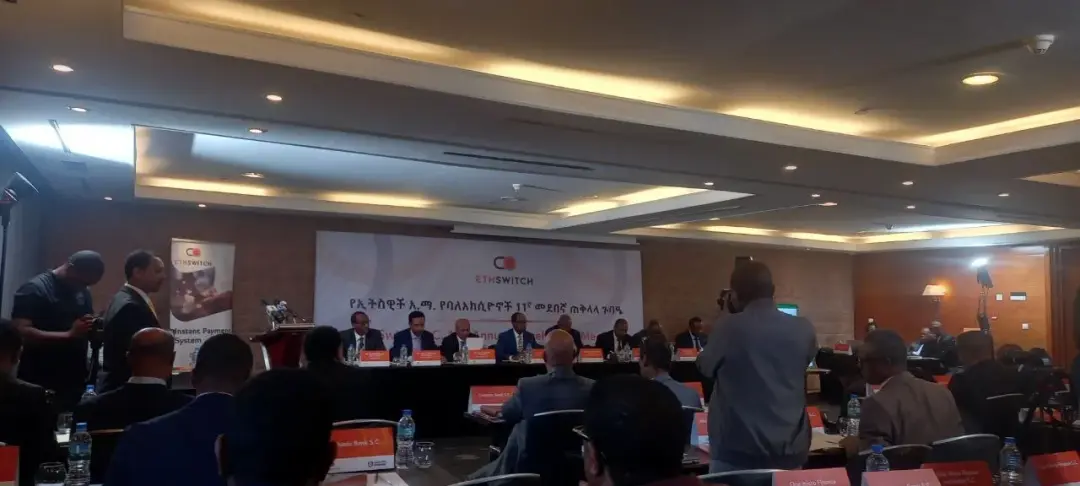
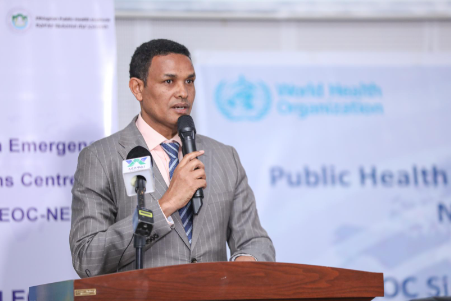
Ethiopia to Host 2024 Global EOC Simulation Exercise, Strengthening Public Health Emergency Preparedness
Addis Ababa, Ethiopia, November 13-14, 2024 – The Ethiopian Public Health Institute (EPHI) and WHO Ethiopia will host the 2024 Global Emergency Operations Center Simulation Exercise (GEOCX), organized by WHO’s Emergency Operations Centre Network (EOC-NET). This exercise aims to bolster the capacity of Public Health Emergency Operations Centers (PHEOCs) worldwide to prepare for and respond to health emergencies. GEOCX 2024 is a large-scale functional simulation exercise involving over 70 Member States from the six WHO regions, designed to test the readiness and response coordination capabilities of Public Health Emergency Operations Centers (PHEOCs). By simulating realistic global health crises, the exercise enables public health emergency management personnel to assess their strengths, identify critical gaps, and highlight areas for improvement in emergency response, fostering stronger global collaboration and preparedness. H.E. Dr. Mekdes Daba, FDRE Minister of Health, Ethiopia: "It is both an honor and a privilege for Ethiopia to host this historic global simulation exercise. Today, as we come together, we have a unique opportunity to assess our current capacities, identify areas for improvement, and refine our response strategies. As we face increasing health challenges, this exercise is a vital platform for strengthening our." Dr. Michel Yao, Director of Strategic Health Operations within WHO Health Emergencies Programme. "The GEOCX 2024 simulation provides a unique opportunity for Member States to strengthen their emergency preparedness and response systems, enhancing coordination mechanisms to ensure that PHEOCs are equipped to deliver rapid, life-saving actions during crises. It also helps identify priority areas for EOC-NET support to assist Member States effectively." Dr. Nonhlanhla Dlamini, Acting Representative, WHO Ethiopia: "Ethiopia’s role as the host of this exercise highlights our readiness to confront global public health emergencies. This event reaffirms our dedication to safeguarding health in Ethiopia and across the world." Dr Mesay Hailu, Director General of the Ethiopian Public Health Institute (EPHI) "We are honored to host this crucial exercise, which demonstrates Ethiopia's commitment to public health security through collaboration, training, and enhancing our emergency preparedness."


Ethiopia Makes Historic First Vegetable Exports to Europe
For the first time in its history, Ethiopia has introduced vegetable products to the European market, marking a significant milestone in the country’s agricultural export sector. The Ministry of Agriculture announced that a shipment of vegetable products has been successfully exported to Europe, a development that could open new opportunities for Ethiopia in the global agricultural trade. The shipment, carried out by Ethio Veg Fru, a private limited liability company, consisted of sugar snap peas and mangetout peas, two popular vegetable varieties. The vegetables were exported to the Netherlands, a key European hub for agricultural imports. The Ministry further stated that 12 tons of these vegetable products were transported in a container equipped with modern refrigeration technology, ensuring the produce’s freshness during its journey. The shipment first traveled to the Port of Djibouti, before being shipped to the Netherlands, with the entire process taking 23 days. This historic event highlights Ethiopia’s growing efforts to diversify its agricultural exports. Traditionally, coffee, flowers, and other agricultural products have dominated the country’s exports to Europe. European countries currently account for 30 percent of Ethiopia’s total foreign trade, making the continent a critical market for Ethiopian products. Currently, Ethiopia is exporting its vegetables to neighbouring and Middle East countries. In addition to the vegetable export, the Ministry of Trade and Regional Relations reported that Ethiopia generated over $1.5 billion in export revenue in the past three months.


Ethiopia Earns $55 Million from Bitcoin Mining Deals in 10 months
Ethiopia’s state-controlled power regulation agency, Ethiopia Electric Power (EEP), has recently signed agreements to sell electricity to 25 bitcoin mining companies. These agreements have generated over 55 million United States dollars (USD) in revenue for Ethiopia the past 10 months.
The details
- According to Luxor data, Ethiopia contributes 2.25% of the global Bitcoin hash rate, ranking fourth in mining capacity worldwide, after the United States, Hong Kong, and Asia.
- Ethan Vera, Co-Founder and Chief Operating Officer of Luxor Mining, stated that over 600 megawatts (MW) have been dedicated to bitcoin mining operations in the country by the Ethiopian Electric Power.
- Per reports, several hundred more megawatts are also expected to become available for mining later in 2024.
Dive deeper
- Ethiopia has a power generation capacity of 5,250 MW, with 90% of its electricity sourced from hydropower.
- Despite this, only half of the population has access to electricity, resulting in a surplus.
- The EEP has capitalized on this by selling excess energy to neighboring countries, earning $10.38 million from 169,710 MWh sold to Djibouti and $20.47 million from 314,931 MWh sold to Kenya, per reports.
- It also sells excess energy to bitcoin mining companies who have found a haven in the country for its cheap energy rates.
- These companies benefit from low-cost power sourced from the Grand Ethiopian Renaissance Dam (GERD), where rates are estimated to be 0.03 USD per kilowatt-hour.

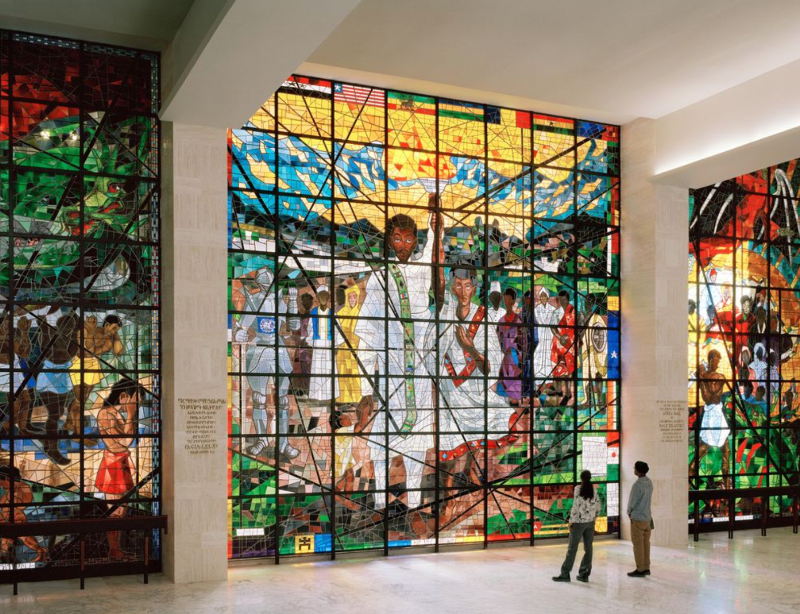
Behind the design: Architectus Conrad Gargett discusses revitalising Africa Hall in Ethiopia
Architectus Conrad Gargett has transformed Ethiopia's iconic Africa Hall, enhancing its historic significance as a cultural venue while honoring its original design. Project architect Simon Boundy shares insights into this remarkable renovation. In Ethiopia, Architectus Conrad Gargett has revitalised the UN’s historic Africa Hall, creating a world-class conference and cultural venue. The 1961 modernist masterpiece stands as a symbol of African unity – the venue for key conferences and events that have shaped modern African history and led to the formation of the African Union. The renovation centred on interpreting and honouring the original design intent, while modernising the building and creating an engaging visitor experience that shares the history of this significant building. Every detail was considered in this project, including the significant artworks and furniture which included the restoration of over 500 original mid-century pieces. InteriorsAu writer Marcus Baumgart chats to project architect Simon Boundy about this fascinating project. Marcus Baumgart: I’m interested in this idea of the building having been described as a ‘monument’. Can you unpack that word in the context of the significance of the building and the site?

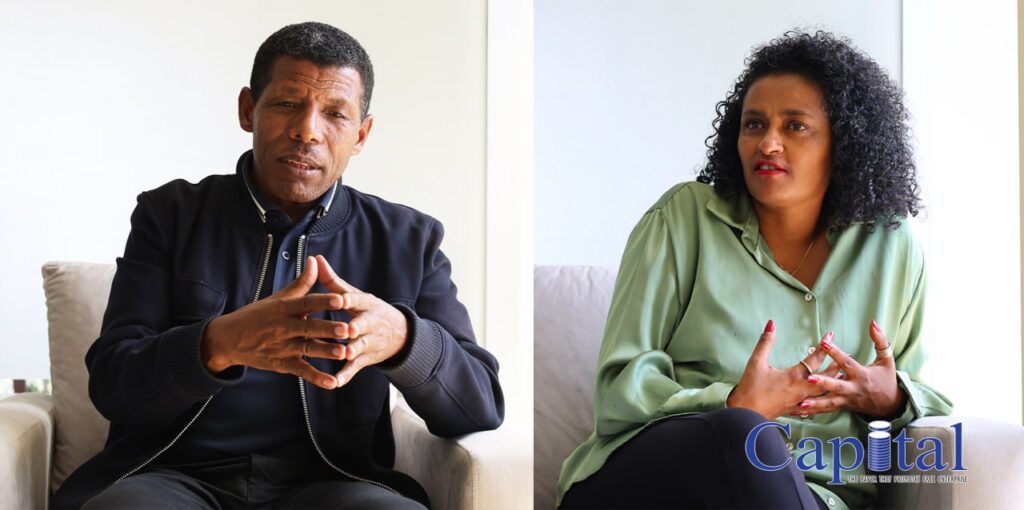
The Great Ethiopian Run: a legacy of unity and community impact
In an exclusive interview, we sit down with the legendary Haile Gebrselassie, the founder of the Great Ethiopian Run and Dagmawit Amare, General Manager of the Great Ethiopian Run to discuss their journey and the profound impact of this iconic event on Ethiopia’s running culture and community. Since its inception in 2001, the Great Ethiopian Run has not only become a celebration of athleticism but also a platform for social change, charity, and national pride. Haile shares the inspiration behind establishing this prestigious race following his Olympic success and reflects on how his vision has evolved over the years. He emphasizes the importance of running as a cultural cornerstone in Ethiopia, highlighting its role in uniting people and fostering future generations of athletes. As we explore the race’s contributions to local communities, Haile discusses the significant funds raised for charitable causes and the challenges faced in organizing such a large-scale event over the past two decades. Furthermore, he touches on initiatives aimed at environmental conservation integrated into the run, underlining the event’s commitment to sustainability. Dagmawit also provides insights into the operational growth of the event and its economic contributions to the country. Together, they paint a picture of how this annual race has transformed not just into a competition but into a vital part of Ethiopia’s identity and a beacon of hope for many. Excerpts; Capital: What inspired you to establish the Great Ethiopian Run, and how has your vision evolved over the years? Haile Gebrselassie: The reason we started the race came after I won the 10,000m race at the 2000 Sydney Olympics. After the Olympics, the organizers of the world’s largest half-marathon called Great North Run asked me to participate in their half-marathon race. I announced that I would participate in the race, but I also said that I wanted to organize this race in Ethiopia. They accepted my request and in 2001 the first Great Ethiopian Run was held in Addis Ababa.
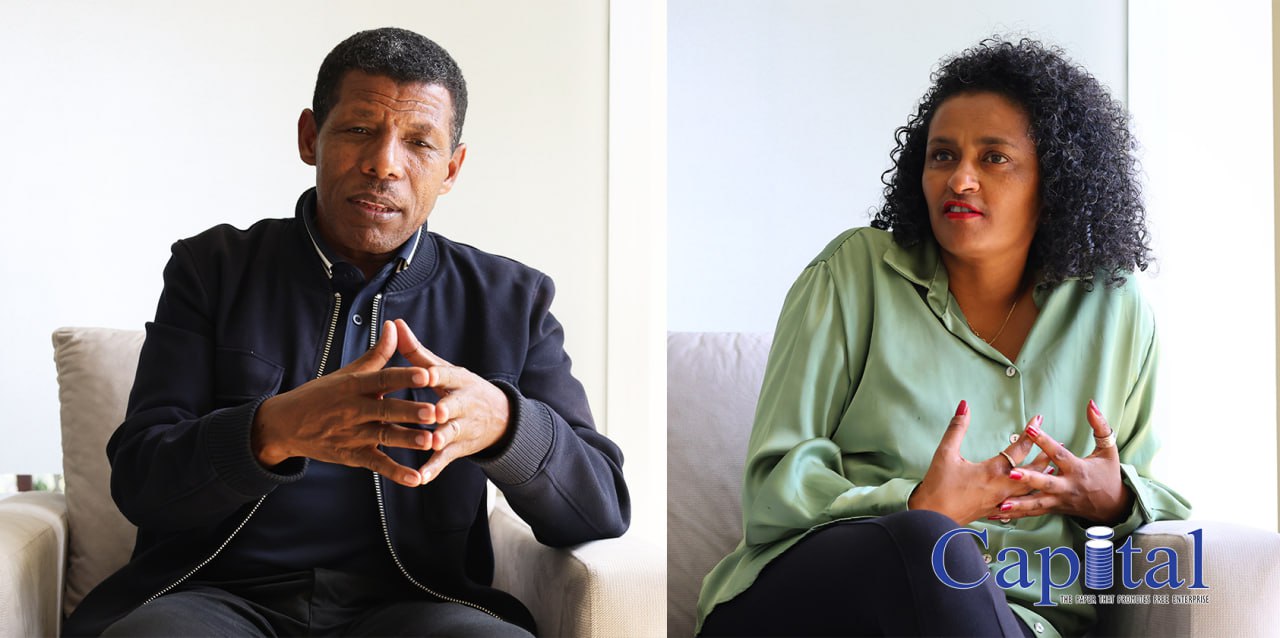

5 incredible sights to visit in Ethiopia
Landlocked in the Horn of Africa and combining breathtaking natural beauty with jaw-dropping historical sights, Ethiopia is the complete wanderlust package.
But what sets this destination apart from its African neighbours? The excellent coffee? The fact that it had never been colonised? Or that Rastafarians regard it as their spiritual home? It might be all that and a whole lot more. If you’re looking for a starting guide on things to look out for on your trip, we compiled five places to visit.1. Lalibela
In the late 12th century, Gebre Mesqel Lalibela had 11 churches — Ethiopia is one of the oldest Christian nations — carved out of solid rock, all of which can be found in the town of Lalibela. A UNESCO World Heritage site, the town’s eleven astounding monolithic churches are carved deep into the rock, hidden from sight. The destination is about a 10-hour journey from Addis Ababa but is well worth the visit.2. Harar
The high-walled city of Harar is spectacularly lined with a plethora of mosques and ancient buildings – 99 mosques and shrines to be exact. Known for its famous array of markets, the famous Hyena Men, ancient paintings and artefacts spanning all cultures, it’s easy to get lost in the never-ending maze of the winding streets of Harar.

From Ethiopia to Ohio State, Ontario’s Miller has embarked on fantastic voyage
The sun has just dipped below the horizon as Ontario quarterback Bodpegn Miller and a handful of his receivers squeeze the last drops of daylight out of this unusually warm and breezy early-November afternoon.
The dying light has painted the feathery clouds loitering overhead impossibly vibrant shades of purple, pink and orange, a sunset straight out of a Bob Ross painting. It’s an idyllic backdrop for the scene of Americana unfolding on the practice field behind Niss Stadium.
Fleet-footed receivers dart across the lush grass, running post patterns and crossing routes. The 6-foot-4 Miller spins one tight spiral after another into their outstretched arms, hitting each in stride.
‘Everyone is Just One Family’
Family means something more to Miller, who was adopted by Alan and Deanna Miller and arrived in north central Ohio from his native Ethiopia in 2012 — when he was 5 years old. He left behind a mother, an aunt, three older brothers and a younger sister. “It was kind of scary at first. I didn’t really speak English and there were some growing pains while I got used to everything,” Bodpegn said of leaving behind his family and the only life he ever knew. “But I have a loving family here. They were patient with me and they accepted me.” Deanna Miller graduated from Ontario and met her husband while they were both in the military during a training session in Texas. The couple married and had three children of their own before deciding to adopt.
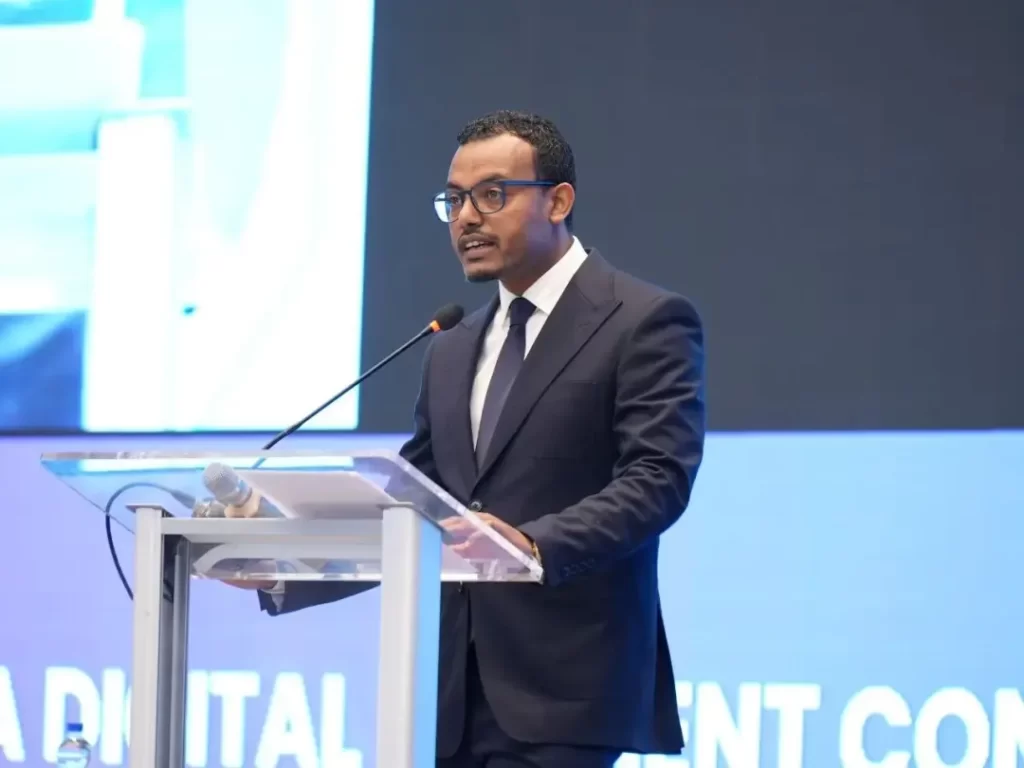
Ethiopia Mandates Standard QR Code for Digital Payments
The National Bank of Ethiopia (NBE) has mandated that all payment service providers adopt the Standard for Interoperable QR Code Payments, effective December 1, 2024. The requirement seeks to standardize the currently varied payment QR codes, ensuring that all providers issue codes in compliance with the National Bank’s guidelines. Ethiopia officially launched its interoperable QR payment standard in April of this year at the first Ethiopian Digital Payments Conference. Developed by the national switch operator EthSwitch and owned by the NBE, the national QR standard leverages a standardized format, enabling QR codes to function seamlessly with any participating payment app. Within the mobile payment landscape, interoperable QR codes represent a significant advancement. Unlike traditional QR codes, which are often restricted to a single payment application or financial institution, interoperable codes offer a more versatile solution. Merchants will only need to display one QR code to accept payments from any participating bank or financial provider. The push for standardized QR codes comes as part of a broader e ffort to enhance the country’s digital payment ecosystem, which has seen substantial growth, especially after the adoption of the National Digital Payment Strategy (2021-2024).
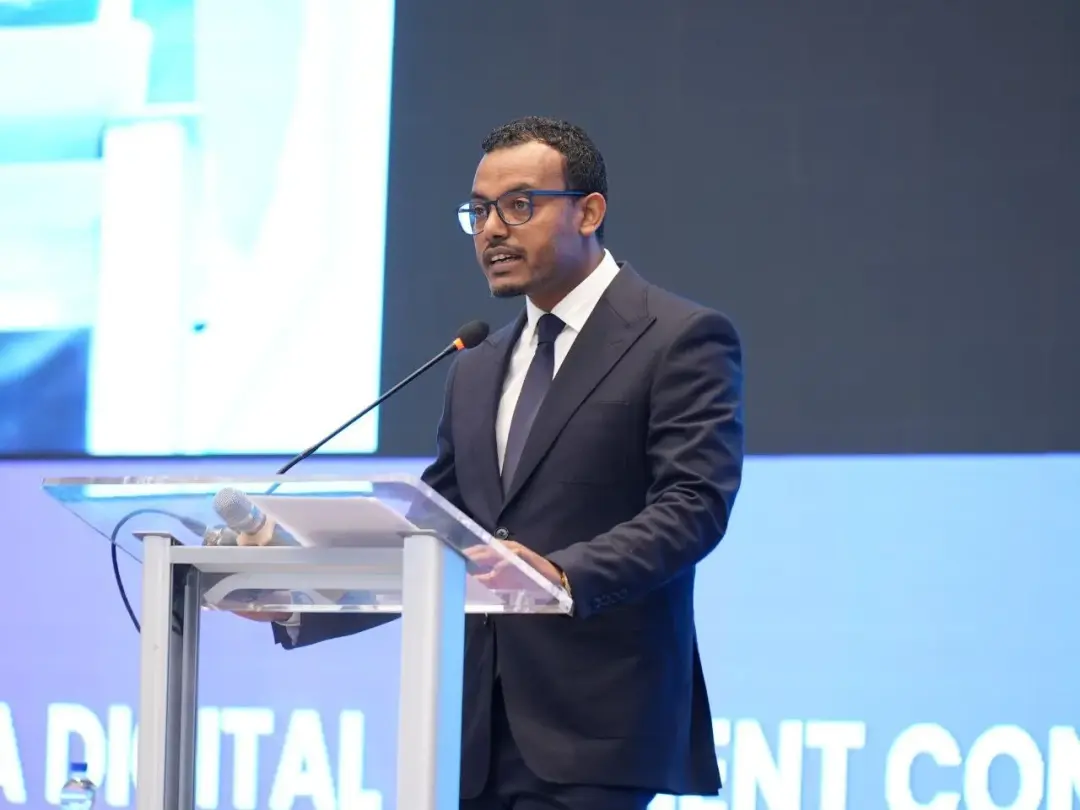
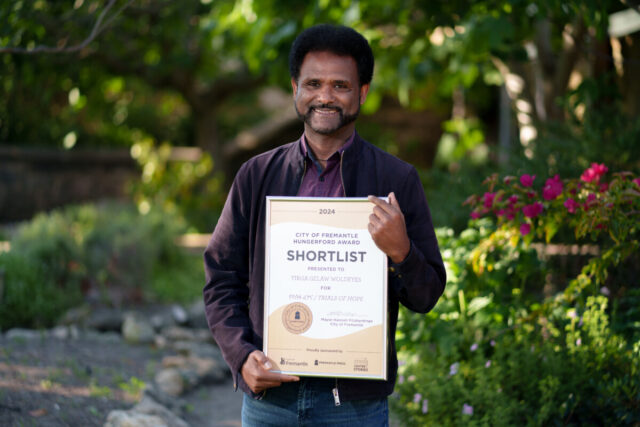
Bentley scholar wins Hungerford Award
Bentley-based writer Dr Yirga Gelaw Woldeyes has been awarded the prestigious City of Fremantle Hungerford Award for his book Trials of Hope (የተስፋ ፈተና), an autobiographical work that chronicles his journey from boy shepherd in Ethiopia to human rights academic at Curtin University. The Hungerford Award, which was judged anonymously, is a biennial prize recognising unpublished manuscripts by Western Australian authors. Written in both English and Amharic poetry and prose, the memoir’s English narrative took two years to complete, while the Amharic poems were developed over several decades. Yirga, who works as a multidisciplinary senior lecturer, researcher, and writer at Curtin University, focuses on human rights education and cultural studies. Now standing alongside acclaimed writers who have previously won the award, including Gail Jones, Kim Scott, Brenda Walker, Natasha Lester, and Holden Sheppard, with last year’s winner Molly Schmidt, Yirga said that winning the award provides confirmation that his work is valued and motivates him to continue writing and pursue new projects. “The Hungerford Award means an opening of hope, a realisation that stories and languages like mine could have places in a world where they are rarely heard,” he said.


Dubai’s Hodler Investments, China’s GCL Group partner to power Ethiopian data centres
Dubai-based digital assets infrastructure company Hodler Investments and Chinese clean energy company GCL Group (Golden Concord Group) have agreed to jointly invest in an off-grid energy infrastructure project in Ethiopia to power data centres that support high-demand applications, including Artificial Intelligence (AI) and blockchain. The project will leverage GCL's natural gas concessions in Ethiopia, allowing the energy group to monetise gas currently stranded due to a lack of export infrastructure, according to Hodler Investments' Managing Director Mohamed El Masri. "We will be formalising the co-investment structure not later than the end of the year," El Masri told Zawya Projects on the sidelines of ADIPEC 2024 event in Abu Dhabi on Wednesday. Ethiopia's affordable renewable energy and supportive regulations have made it a hub for data-intensive technologies such as Bitcoin mining, data mining, and data centres, according to the U.S. International Trade Administration (ITA). An industry source told Zawya Projects that the country is currently home to around 500 megawatts (MW) of active Bitcoin mining operations. In April 2024, GCL signed two Petroleum Production Sharing Agreements (PPSA) with the Ethiopian government to develop gas resources in the Ogaden Basin. GCL's blocks are estimated to hold 2P reserves of nearly 200 billion cubic metres (BCM) of natural gas and 46 million tonnes of oil. The distributed energy infrastructure project will utilise Hodler's digital energy platform, PermianChain, which seeks to optimise wasted energy resources by connecting computing end users, data centre operators, energy suppliers (like GCL) and investors.

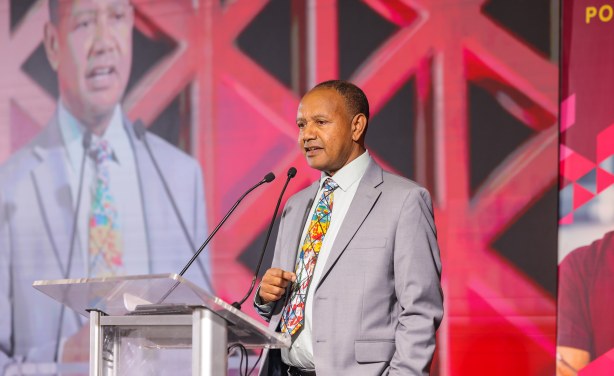
Dereja, in Partnership with the Ministry of Labor and Skills and the Mastercard Foundation, to Host the 5th National Career Expo, Connecting Over 30,000 Recent Graduates
Addis Ababa, Ethiopia — Dereja, in partnership with the Ministry of Labor and Skills (MOLS) and the Mastercard Foundation, will host the 5th National Career Expo on November 6 - 7, 2024, at Millennium Hall, Addis Ababa. The event will connect over 30,000 skilled professionals to the job market.
Since 2019, Dereja, a social enterprise unit of the leading online recruitment platform of the Africa Jobs Network, has been working with the Ministry of Education, Ministry of Labor and Skills, higher education institutions, the Mastercard Foundation, and relevant non-government organizations with over 600 university instructors, has trained more than 100,000 graduates in employability skills, and helped more than 90,000 graduates access employment opportunities.
Over the past few months, Dereja has conducted several job fairs in various regions across Ethiopia. This series will conclude with the 5th National Career Expo. The Expo will draw over 300 companies and offer over 30,000 job openings across various sectors, including 20,000 jobs in construction and engineering, 5,000 in healthcare, and additional roles in other fields. The event serves as a centralized hub for young job seekers and employers, streamlining the job search process and reducing costs for candidates. Employers will also benefit from access to a diverse pool of skilled young individuals in one location, significantly shortening the time required to find the right candidate and lowering recruitment expenses.
"What makes this year's job fair different from the ones we have held before is not only that it brings a greater number of job opportunities, but also makes it a part of the solution to the unemployment problem in our country by fostering relationships between employers and job seekers," said Mr. Yusuf Reja, Founder and CEO, Infomind Solutions.
More than 300 hiring companies will participate in the expo, including Ovid Construction, Hybrid Designs Plc, East African Pharmaceuticals Plc, Rohobot Home-Based Health Care Service Plc, and Ethio Post.
"We believe that investing in young talent is essential for the growth and success of our company. The National Career Expo provides us an excellent opportunity to connect with talented individuals and offer them exciting career opportunities. We are committed to providing our employees with comprehensive training and development programs to help them reach their full potential," stated Mr. Abdulrahman Anaam, General Manager for East African Pharmaceuticals PLC.

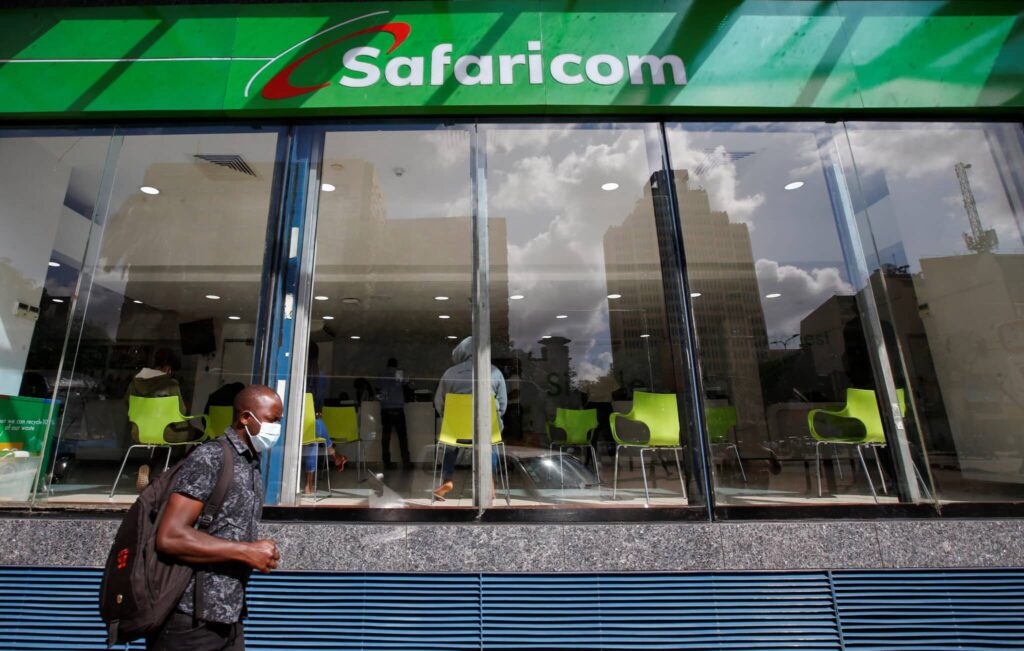
Safaricom trims forecast on Ethiopia’s birr depreciation


Learning Loop Expands Reach with Innovation Ministry Partnership
A partnership that looks to accelerate the development of digital education in Ethiopia was signed last week between a local edtech company Learning Loop and the Ministry of Innovation & Technology (MInT). After over a year of creating educational content on YouTube and gaining over 160K subscribers, Learning Loop has recently expanded with a new, adaptable platform. Their app, GlobeDock Academy, offers an interactive space where teachers, parents, and students collaborate, attracting 50,000 users since August. The platform supports students with lecture videos, notes, ongoing quizzes, and a performance-tracking dashboard. Blen Binyam, Commercial Manager at Loop Learning, hopes to see the company contribute to improving education standards across the country. She recalled how the YouTube videos gained quick traction despite being limited to tools on the video-sharing platform. “Education has been neglected in technological growth,” Blen told Shega. The manager points to the importance of having an intuitive interface that allows seamless tracking of a student’s strengths and weaknesses to help provide constructive feedback. Users can access the platform by downloading it from the Google Play Store or the App Store. While it provides free tutorials, the complete packet of services becomes available through monthly subscriptions priced at 200 birr.
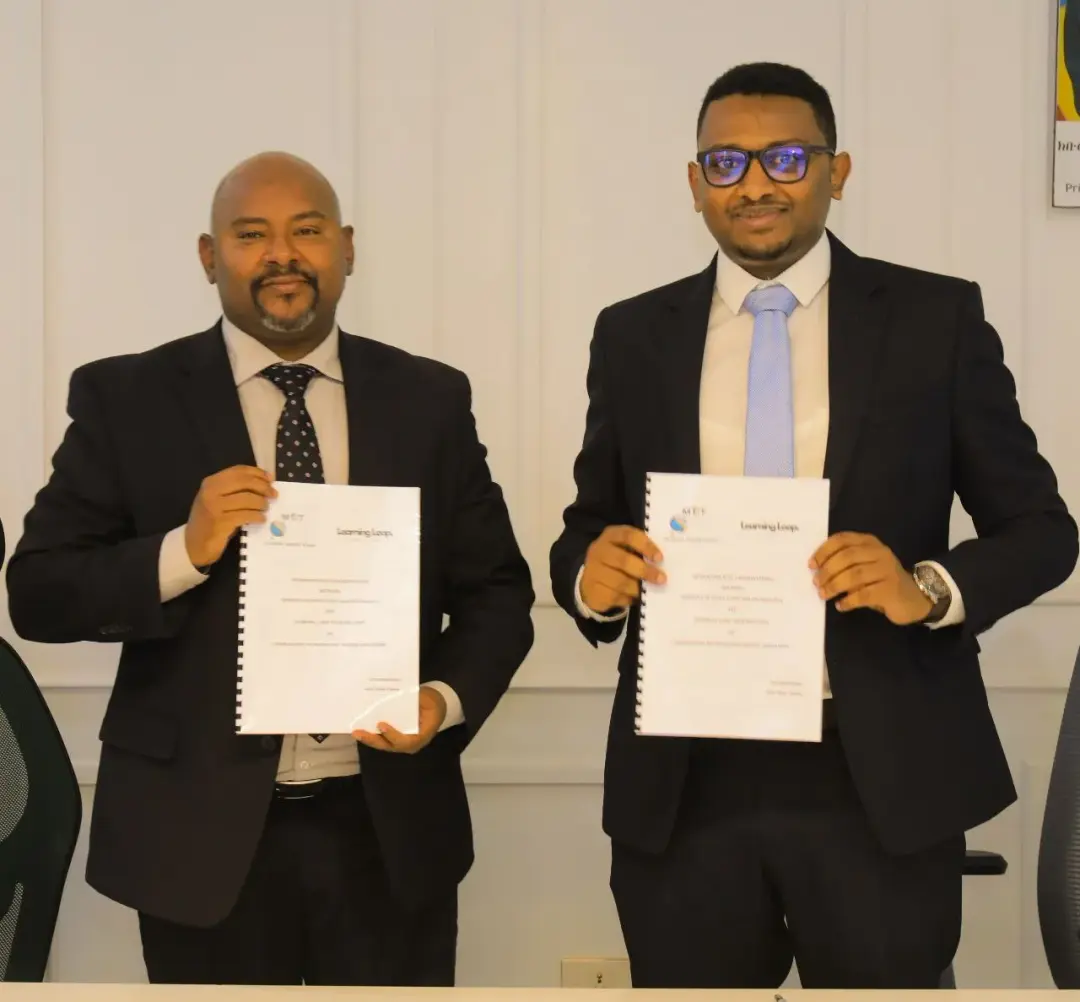
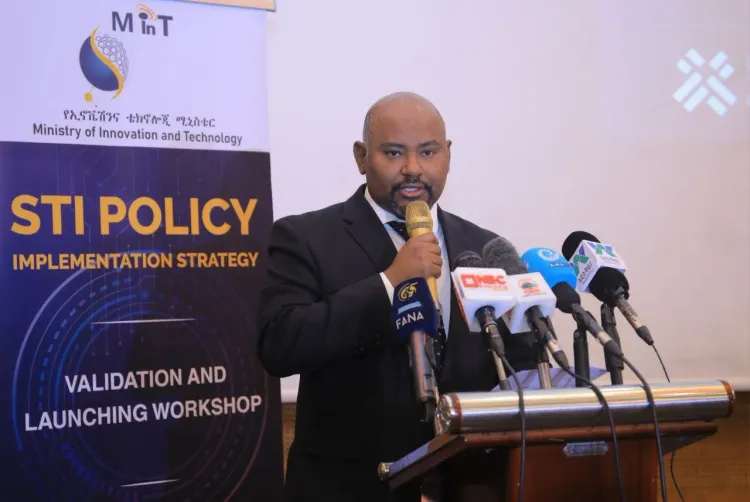
Policy Roadmap Looks to Resurrect Ethiopia’s Plummeting Innovation Ranking
A comprehensive Science, Innovation & Technology (STI) policy document spanning 13 years of implementation throughout Ethiopia has reached its final rounds of consultation. The draft document containing sixteen chapters was presented for feedback from industry stakeholders over the past week at the Hilton Addis Hotel. Backed by support from the International Trade Center’s Netherlands Trust Fund V (NTF V), the policy document looks to accelerate the realization of Sustainable Development Goals by leveraging STI. Following a year of rigorous development under the guidance of international and local experts, it outlines eight strategic directions that include human resource development, building a research infrastructure, establishing standards for quality, and strong intellectual property frameworks. Despite state-led progress in digitization of several government services, Ethiopia’s aggregate rank has fallen by five positions to 130th in the 2024 Global Innovation Index. The low-income country is also ranked last among 133 countries in terms of human capital and research, as well as market sophistication. Understandably, human resource development is the first goal of the draft policy document. Belete Mola (PhD), Minister of Innovation & Technology (MiNT), stressed the importance of leveraging STI to bring about thorough improvement in the livelihood of Ethiopians during the validation workshop. He pinned the success of the country’s economic plans on close alignment between the government’s economic agenda and the accelerated expansion of STI.


It was the first country to ban petrol car imports. Is a switch to electric vehicles working?
As fuel price rose in Ethiopia, Awgachew Seleshi decided to buy an electric car. That aligned with the government’s new efforts to phase out petrol-powered vehicles. But months later, he’s questioning whether it was the right decision. He faces a range of issues, from the erratic supply of electricity in Addis Ababa, the capital, to the scarcity of spare parts. “Charging my car has been a challenge," the civil servant said. “Spare parts that are imported from China are expensive, few mechanics are able to fix such cars and the resale value of such cars is poor.” Seleshi's troubles point to wider challenges for Ethiopia. In January, the East African country became the first in the world to ban the importation of non-electric private vehicles. The decision eased pressure on authorities who spend scarce foreign currency to subsidize the cost of fuel, but it also reflected growing enthusiasm for electric vehicles as the world demands more green technologies to reduce climate-changing emissions.


Medieval Ethiopia: The Origins of the Solomonic Dynasty
Medieval Ethiopia produced one of the longest-reigning dynasties anywhere in the world. The Solomonic Dynasty lasted from 1270 CE to 1974 CE, with many Ethiopians claiming it went back further to 982 BCE when Menelek I became the first emperor of Ethiopia. In 700 years, Ethiopia witnessed a transformation in trade, territory, and culture that created the modern nation we know today. The dynasty united ethnic groups to form one state with the same values and traditions. Although historians still have yet to determine what happened to begin the Solomonic Dynasty, we can combine the sources we have to create an image of what might have occurred. The Zagwe Dynasty ruled from 900 CE to 1270 CE. It was a relatively stable lineage until the 13th century when opposition began to gain power against the king. Although much of its centuries-long reign is well-recorded, the end of the Zagwe Dynasty is still a mystery for historians. The dynasty’s last emperor is even called Za-Ilmaknun, which translates to “the unknown” or “the hidden one” because later royal recorders completely removed him from history. Many historians have theorized that this ruler was Yetbarak, the son of former King Lalibela.

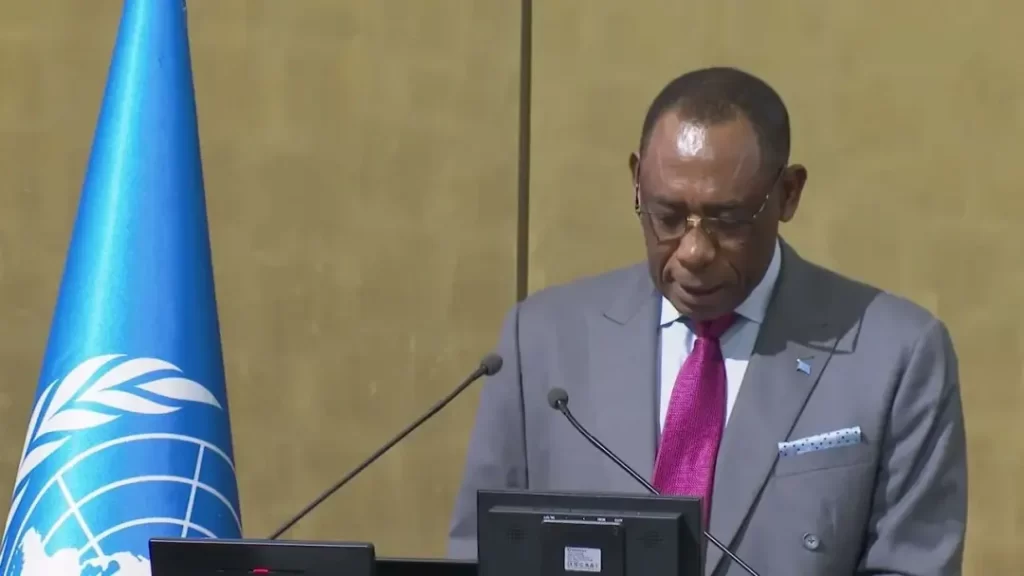
Lack of Financing for Data, Statistics Hampers Evidence-Based Policy in Africa Including Ethiopia
Directors from several African statistical agencies have called for targeted funding in data and statistics to fuel innovation and economic growth on the continent. As the 11th Forum on African Statistical Development (FASdev) kicked off at the United Nations’s Economic Commission for Africa (UNECA) last week, financing remained atop several directors’ concerns. With limited fiscal space and just 0.22% of all Official Development Assistance (ODA) in 2022 flowing towards data and statistics, lack of technical and financial resources have remained hindrances for evidence-based policymaking in the continent. Oliver Chinagaya, Director of the African Center for Statistics (ACS) at UNECA, underscored the need to expedite the provision of robust data and statistics to help governments accelerate sustainable development goals and Agenda 2063. He called for strengthening the mobilization of technical and financial resources to support innovation in statistical development—the theme of this year’s forum. “Governments should be moving towards fully digitizing their statistical systems," Oliver noted. The director indicated the availability of the integrated strategic toolkit as an instrument that can help spur innovation in statistical offices for further development. The use of big data, new data analytics tools, synergy between countries, and innovations were cited as pivotal in growing Africa’s statistical capacities.
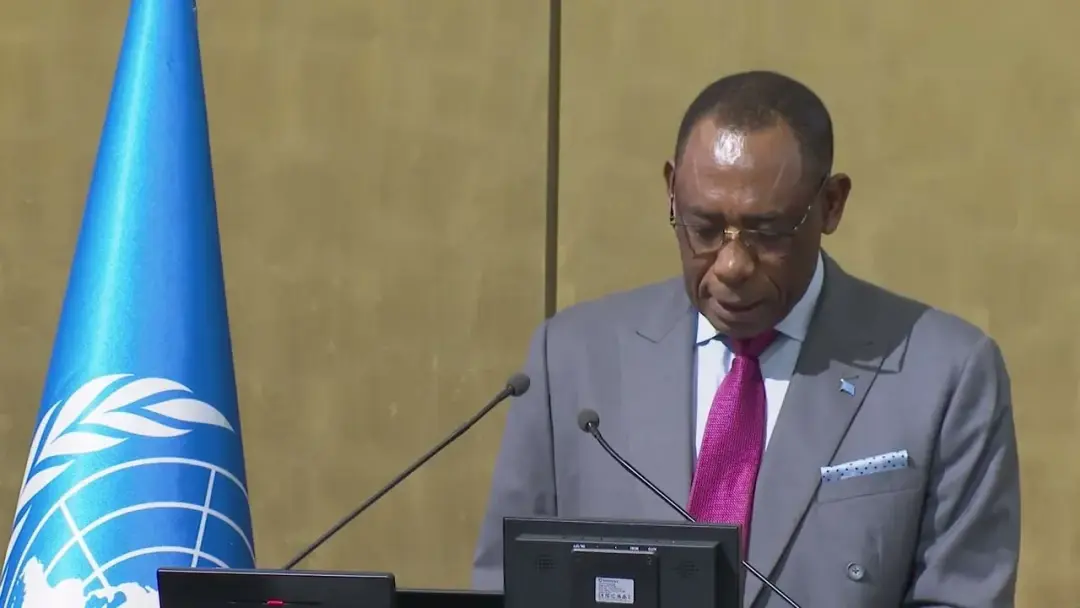
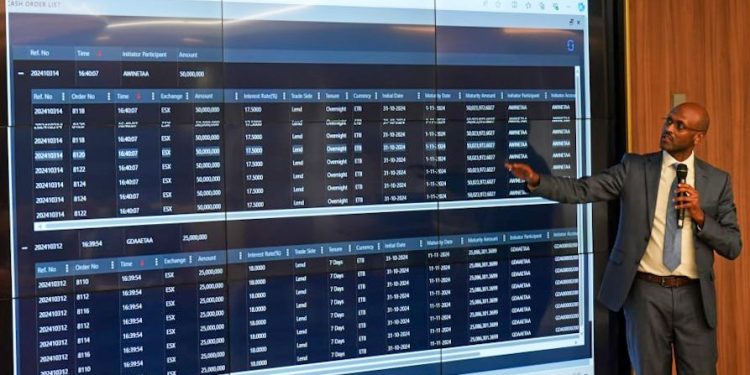
Ethiopia Launches Online Interbank Lending Platform
The National Bank of Ethiopia (NBE) has launched an electronic money market trading platform to allow for interbank lending, the apex bank said on Thursday.
- The system will be administered by the Ethiopian Securities Exchange (ESX).
- It will facilitate short term lending and borrowing among banks to improve liquidity.
- Rates will be limited to the NBE’s +/-3% corridor of the National Bank Rate (NBR).

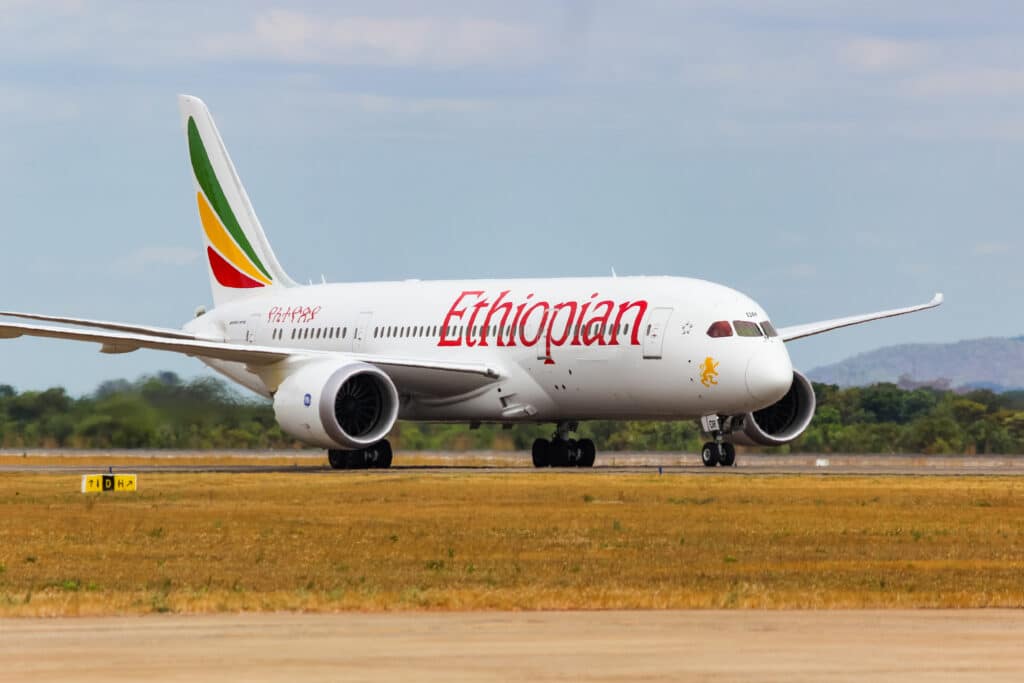
Ethiopia moves to enable Fayda digital ID for domestic flights
Ethiopia’s national digital identity could soon be used as the travel document by people boarding domestic flights, following a Memorandum of Understanding signed by Ethiopian Airlines and the NIDP and reported by the ENA. The MoU commits the partners to working collaboratively on integrating the Fayda digital ID with airport systems. Ethiopian Airlines is also working towards the introduction of biometric passenger processing for various steps along the travel journey, from booking to boarding. The move is intended to improve passenger experiences while increasing operational efficiency. The government has been rapidly implementing Fayda across various sectors for similar reasons as part of a broader digital government strategy. Recent examples include an integration agreement with the country’s procurement authority. Abiyot Bayou senior advisor to Ethiopia’s Minister of Innovation and Technology, explained the current digital government strategy as the third step in its transformation. The earlier stages involved applications developed independently by different institutions. Bayou refers to the newer, integrated system as “GO.” “When the GO stake is in place, we will have the integration of payment system, ID card, the registration and other data exchange systems at the center,” he said.

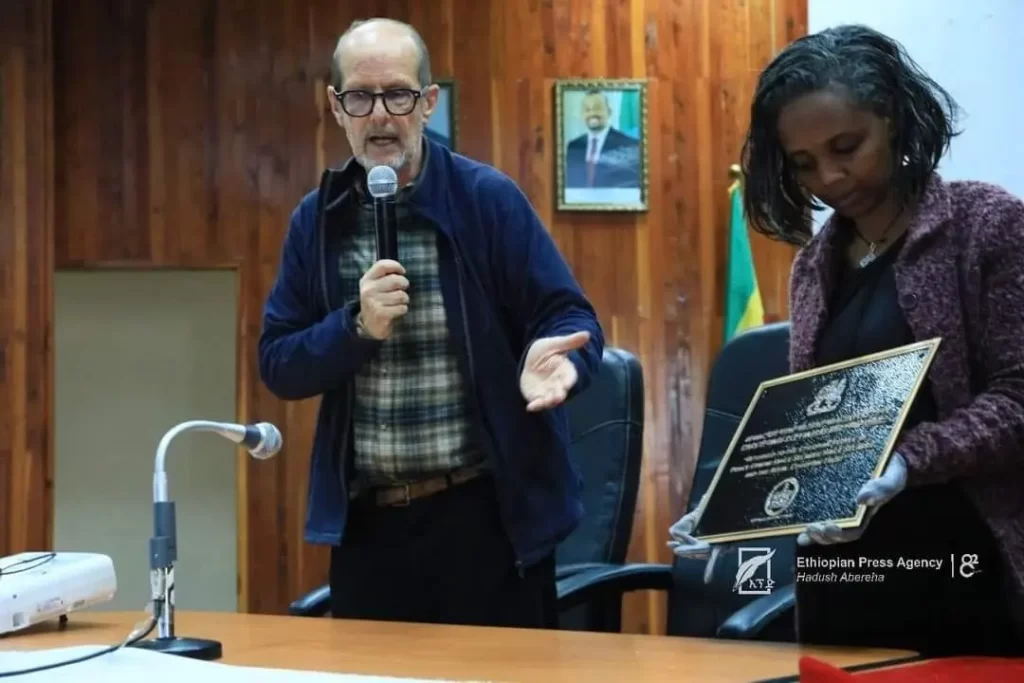
Emperor Tewodros II’s Shield Returns to Ethiopia After 156 Years
In a momentous cultural victory, Ethiopia has successfully repatriated the Shield of Magdala, an artifact of deep historical significance looted by British forces during the 1868 Expedition to Abyssinia. Taken after the Battle of Magdala, which saw the capture of Emperor Tewodros II’s mountain fortress and the plundering of countless treasures, the shield will soon return to its rightful home. Originally scheduled for auction this past February by UK auction house Anderson and Garland, the shield’s return comes after concerted efforts by the Ethiopian government and the Royal Ethiopian Trust (RET). RET, a nonprofit established by Prince Ermias Sahle-Selassie Haile-Selassie, grandson of Emperor Haile Selassie I, negotiated with the auction house to cancel the sale and arrange the shield’s repatriation. Prince Ermias emphasized the shield’s importance, stating, “This shield is not just a historical artifact; it is a symbol of Ethiopia’s history and resilience. Our success in regaining this treasure reflects our dedication to preserving our heritage and honoring our ancestors who fought for our nation’s sovereignty.” The Royal Ethiopian Trust collaborated with British scholar Alula Pankhurst, an expert in Ethiopian history and grandson of the renowned English activist Sylvia Pankhurst, who notably supported Ethiopia following Italy’s 1936 invasion. Alula Pankhurst commented on his involvement, saying, “It has been an honor to work with Prince Ermias and the Royal Ethiopian Trust to return this significant piece of history to its people. Our families have long been dedicated to safeguarding Ethiopia’s heritage, and ensuring that this shield returns to the Ethiopian people is a proud continuation of that legacy.”
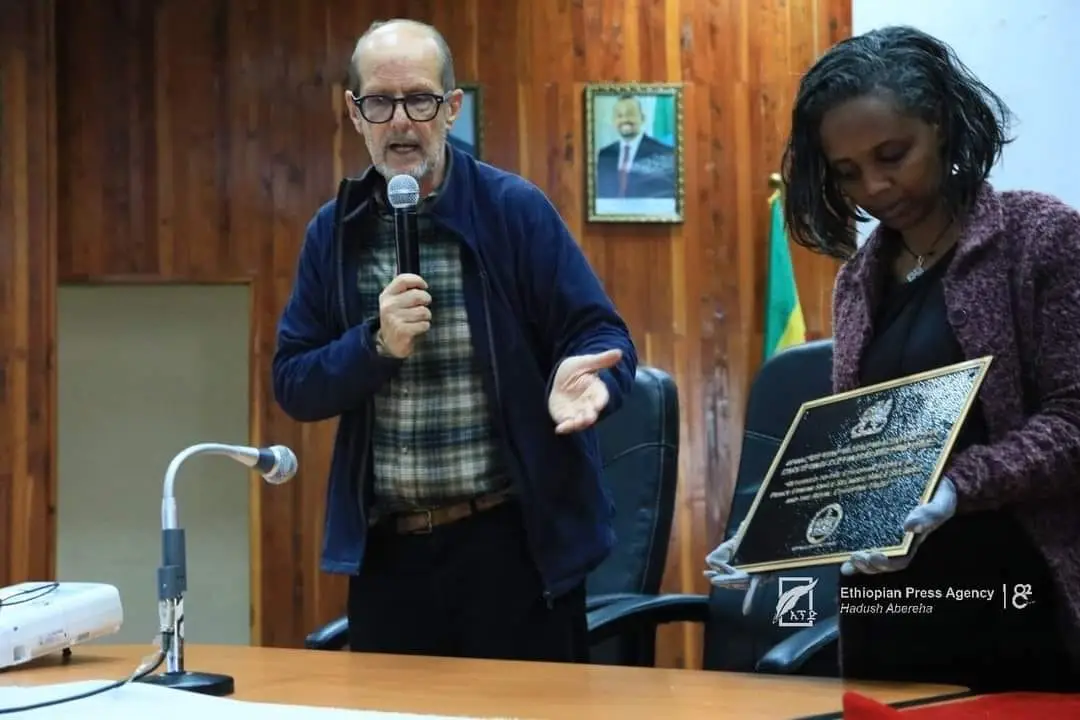
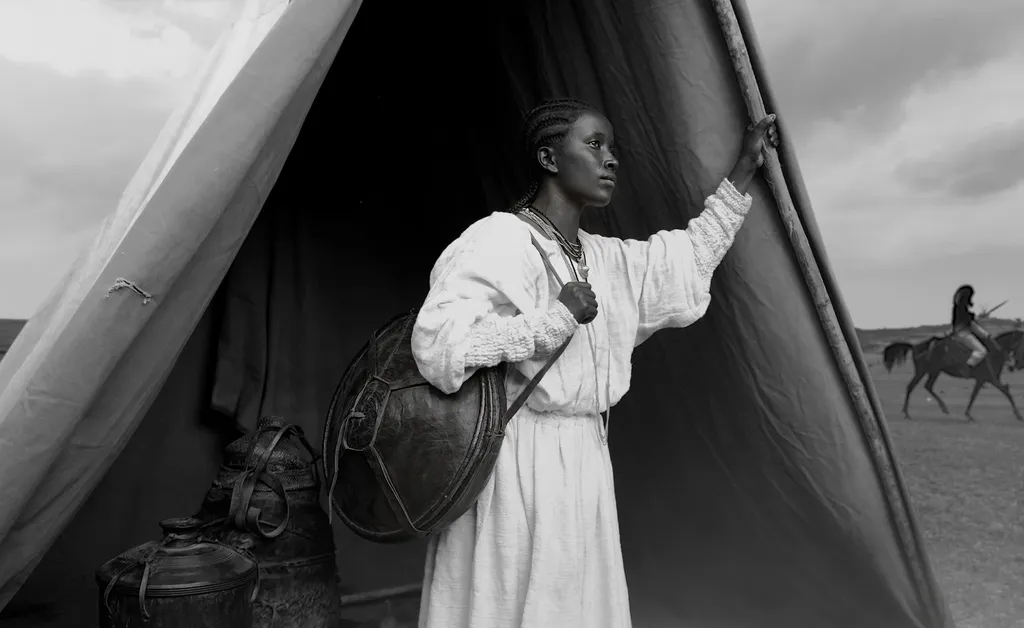
Ethiopian culture is retold through blockchain technology
The Yatreda ያጥሬዳ collective, composed of a family of six creatives, wants to put a spotlight on Ethiopia, championing the stories of fallen empires, mythology, warriors who conquered, of forgetting and new cultures, religion and languages. And it does so through monochromatic motion portraits and NFTs. Yatreda’s origin began with a dream. The creative director Kiya Tadele had always wanted to make a movie about the Adwa victory, the 1896 events that saw Ethiopians’ victory over Italian colonial forces. Over four years, the collective has created multiple projects including ‘Kingdom of Ethiopia’, one that captures and celebrates Ethiopian kings, warriors and kingdom; and ‘Strong hair’, which celebrates the beauty of Ethiopian hairstyles in 100 motion portraits. The collective's most recent project, ‘Abyssinian Queen’, opened at the Toledo Museum of Art in Ohio, USA, and is an appreciation of Ethiopian oral history, based on the story of a queen who is carried by her own people. The project was made during a residency at the Toledo Museum and features a 1,700-year history of artworks from Ethiopia. Here, Wallpaper* chats with Kiya Tadele, creative director of Yatreda ያጥሬዳ, about the collective, celebrating amazing stories of Ethiopia through motion portraits, and ‘Abyssinian Queen’.

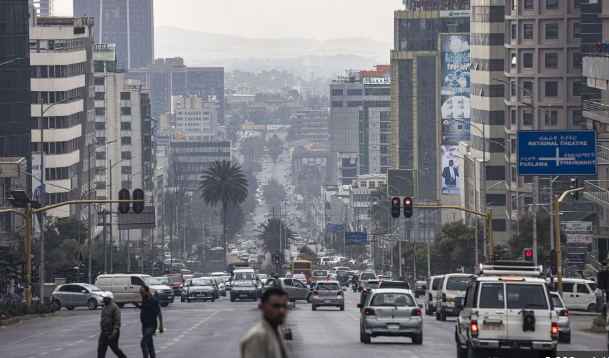
Ethiopia Doubles Revenue Goal to $12.5 Billion With New Taxes
The country seeks to collect 1.5 trillion birr ($12.5 billion) in the fiscal year to July 7, Prime Minister Abiy Ahmed told lawmakers on Thursday. That compares to 613 billion birr the finance ministry set in its 2024-25 budget presented in June.
To net more revenue, Ethiopia is introducing new taxes including value-added tax on banking services, property taxes and an excise tax on telecommunication services. In the first quarter of the fiscal year that started in July, authorities collected 65% more than a year earlier, but the 180 billion birr is woefully low given the latest target.

Buyer First: A New Spin on Local E-commerce
A new platform looks to put a fresh spin on the local e-commerce landscape with a customer-centric hub tailored to meet niche buyer demands. Yoseph Tenaw, a software engineer and an Addis Ababa Science and Technolgy University alumnus, launched Buyer First to address longstanding challenges seen in the market. Frustrated by the difficulty of finding unique or specialized products online, Yoseph set out to build a solution that empowers both buyers and sellers. Inspired by the format of Stack Overflow, a popular question-answer site for programming-related topics, Buyer First flips the traditional e-commerce model on its head. Instead of sellers listing products, buyers post their specific needs or desires. Sellers who can fulfill these requests then compete to offer the best solutions. “This approach not only saves buyers time and energy but also ensures they receive competitive prices,” Yoseph told Shega. To use the platform, users must create an account. Once registered, buyers can post what they’re looking for, while sellers receive SMS alerts for matching requests. Sellers then bid to fulfill these requests, and upon acceptance of an offer, contact information is exchanged to finalize the transaction. This reverse marketplace model enhances buyer control and provides sellers with better sales opportunities, according to Yoseph. “This demand-driven approach and alert system makes Buyer First stand out,” he stressed.

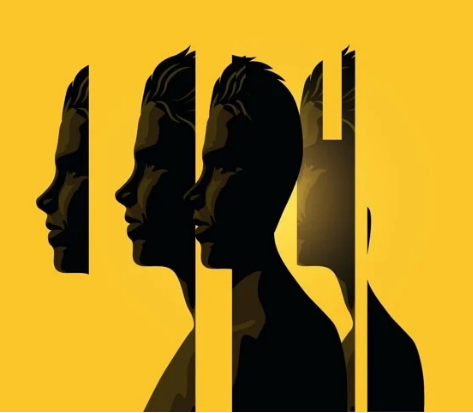
AI-powered avatars set for mental health trials in India and Ethiopia
AI-powered digital avatars are to be trialled for people in India and Ethiopia who hear voices in their heads, as researchers try to adapt mental health treatment so they can be used effectively in low-resource settings. Mental health disorders affect almost a billion people worldwide, with the vast majority of them living in poor countries, according to the Global Alliance for Chronic Diseases, a funding organisation. Yet most of them have little or no access to mental health facilities — the average number of mental health workers is 40 times higher in the European region than in the African region, according to the 2020 World Health Organization Mental Health Atlas. The results of a clinical trial announced today (Monday) called Avatar 2 showed that talking avatars with the help of a therapist in a controlled setting can reduce distress for patients who hear voices in their heads — known as auditory hallucinations — according to the healthcare research foundation Wellcome, which funded the trial. Yet avatar therapy requires a therapist to use voice changing software — posing a barrier to its use in countries with few therapists. “This intervention has been developed in the United Kingdom,” Tom Ward, from King’s College London, who led the trial, told SciDev.Net during a call with reporters. “It’s not a case that we could just go and transplant it to another culture and expect it to work the same — we need to do a very rigorous process of adaptation.”


Alibaba Partners with Ethiopian Incubator for Entrepreneurship Program
Alibaba’s Global Initiatives project has partnered with Ethiopian startup incubator weVenture, and the Digital Transformation Ethiopia Association (DTEA) for the local launch of the Global Digital Talent (GDT) program. The partnership aims looks to train at least 1,000 entrepreneurs in its first round. GDT, one of the capacity buildings initiated by Alibaba Group in 2016, looks to expand “Ease in Doing Business” worldwide. The program taps into the company’s multinational resources to introduce a digital paradigm for entrepreneurs worldwide. GDT has been collaborating with universities and training institutions worldwide to promote digital transformation. The platform enables universities, training institutions, and students around the world to access insights, skills, and opportunities within the current and future digital era such as e-commerce. The Chinese e-commerce giant has been increasingly making its presence felt in Ethiopia’s economy following the commercial launch of its AliExpress service two months ago. Chandee Zhuang, senior advisor at eWTP, expressed excitement over the unfolding digital economy in Ethiopia, with the training program serving as a foundation for further projects. He recalled that 4,000 trainees have been a part of the program worldwide, with trainers getting a chance to visit Alibaba’s operations in China.


Ethiopian Shipping and Logistics Eyes Six New Ships to Meet Ethiopia’s Rising Import-Export Needs
Executives at Ethiopia’s state-owned Ethiopian Shipping and Logistics Services Enterprise (ESLSE) are advancing plans to add six bulk cargo ships to their fleet as the enterprise aims to bolster its capacity and support the nation’s growing import-export needs. According to The Reporter Wondimu Daba, ESLSE’s Deputy CEO for Corporate Services, confirmed that the ESLSE board is evaluating multiple acquisition options, including time charters, voyage charters, or outright purchases of the vessels. “We are fully prepared to bring in these six ships. The board is now assessing whether a time charter, a voyage charter, or a direct purchase would be most strategic,” Wondimu said, adding that the acquisition will proceed through a standard bidding process in line with government procurement protocols. As Ethiopia’s sole multimodal logistics operator, ESLSE manages a considerable share of the country’s trade logistics. According to its 2023/24 performance report, ESLSE handled approximately 45 percent of Ethiopia’s 8.25 million tons of dry cargo imported through Djibouti’s ports, the primary maritime gateway for Ethiopian goods. The report also highlights ESLSE’s role in supporting Ethiopia’s export market, overseeing the shipment of over 13 million tons of goods by sea last year.

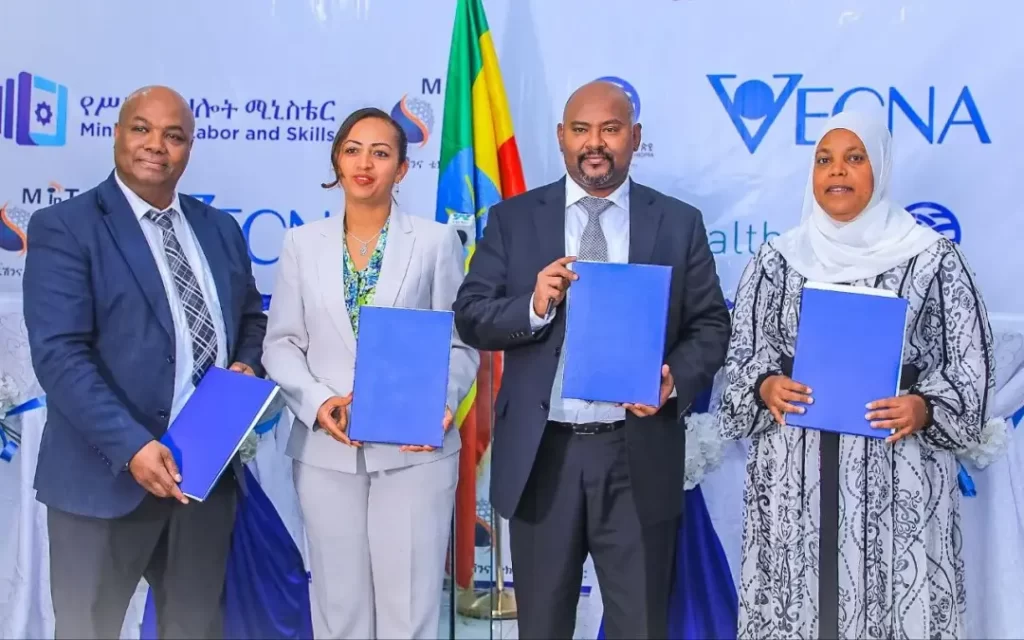
Tech Firms Team Up with Ethiopian Government to Manufacture Medical Device Designed for Off-Grid Communities
A multilateral memorandum of understanding (MOU) was signed among three Ethiopian ministries, Vecna Technologies, and Orbit Health, envisioning a project with an initial estimated investment of $2.5 million. This partnership aims to produce 10,000 digital medical devices called BrightBox for local and export markets, potentially contributing $7 to $8 million to the economy, according to projections obtained from Orbit Health. The initial investment includes a direct labor cost of $500,000. Bright Box represents the latest evolution of Vecna Cares' CliniPAK—a streamlined electronic medical record, data capture, and reporting system. It enables users to register patients, capture key clinical and demographic data at the point of care, and manage patient flow. The mHealth reporting system encompasses both hardware and software components, facilitating centralized offline data collection. Officially sealed on Monday, October 14, 2024, the signatory ministries include the Ministry of Labor & Skills, Ministry of Health, and Ministry of Innovation & Technology. The MOU outlines a collaborative framework for developing and deploying the hardware specifically designed for a market like Ethiopia, with a focus on digitizing rural healthcare services. “The partnership reflects our dedication to advancing health innovation and improving access and affordability in digital healthcare,” said Mekdes Daba (MD), Minister of Health, at the signing event.
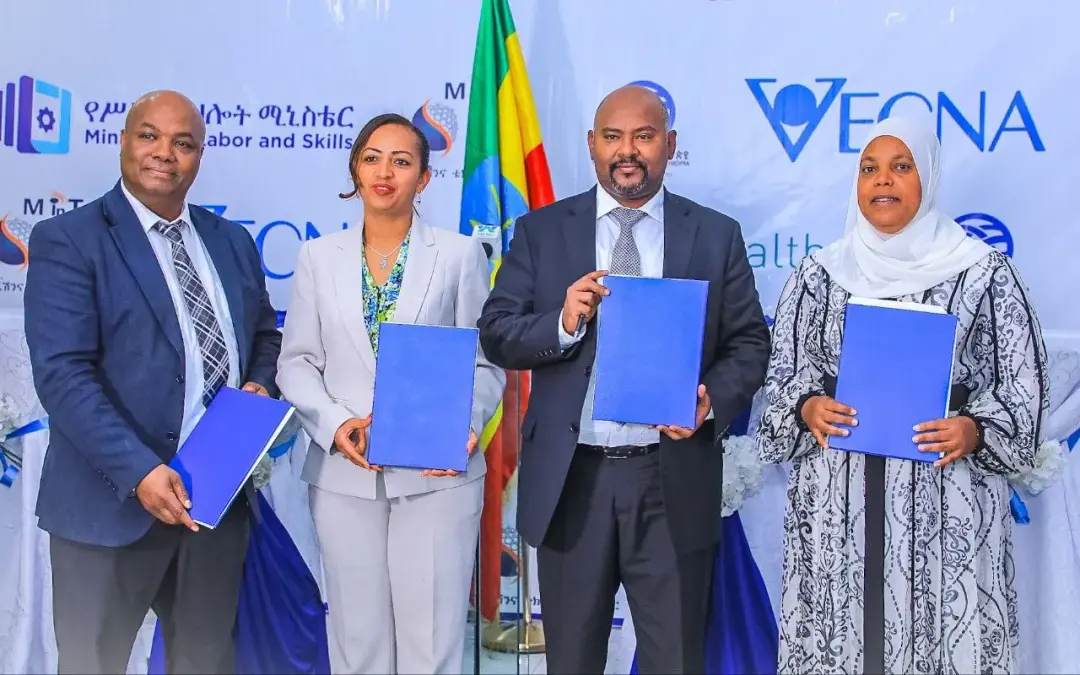

To Get Through This Election, Eat Some Ethiopian Food
The 2024 election—like every election, really—is a reminder that voters have very few choices when it comes to deciding who will get to set the national agenda for the next several years. It's stifling. For the politically homeless among us, who likely feel a bit suffocated at this juncture, it may be time to seek out a more diverse palette—in the form of Ethiopian food.
Palette is the operative word, because an Ethiopian spread is truly the start of a work of art. Served on a spongy pancake called injera, the meal often consists of an array of vegetarian dishes—Chickpea stew! Potatoes! Split peas! Collard greens!—meted out in happy little circles, with a glob of meat as the centerpiece (if you eat meat). Bob Ross, but make it edible. Each dish brings its own unique spice profile, with the warmth of berbere seasoning and the earthy depth of turmeric creating a flavor experience that's as diverse as it is satisfying. The colors and textures stimulate not just the taste buds but the senses as a whole. Utensils? Who needs them? Additional helpings of injera, provided as a side, are the vehicle here, used to scoop up combinations of the many choices before you. The possibilities are endless.

Holy Matrimony: Ethiopia’s Green Wagon Onboards Local EV Startup
Ethiopia’s green mobility aspirations were boosted by a landmark partnership between Addis Ababa-based electric vehicle (EV) startup Dodai and the Ethiopian Investment Holdings (EIH) over the past week. The agreement will see Dodai receive support from the government's investment arm to deploy 100 battery swap stations in the capital over the next year, with plans to expand to 300 stations over three years. “Battery swapping is specifically designed for urban environments, making it an ideal solution for e-mobility in Ethiopia’s major cities,” says Yuma Sasaki, Dodai CEO & founder. While no exact figures have been disclosed, investments between 30 and 40 million dollars are estimated over three years. “The total cost of building the network will depend on the scale and quality of the battery swap network and operations,” Yuma told Shega. “And Dodai will make a significant investment to establish the infrastructure.” According to the agreement, EIH will facilitate access to infrastructure and help navigate the regulatory framework. The sovereign wealth fund will also play a major role in securing access to land for the battery swap stations. Through one of EIH’s portfolio of enterprises, the Ethiopian Electric Utility (EEU), a reliable and continuous supply of electricity is also ensured across the stations.


Ethiopia’s digital economy to contribute 1.3 trillion Birr to GDP
Ethiopia’s digital economy could add over ETB 1.3 trillion to GDP by 2028, according to the GSMA’s new report, Driving Digital Transformation of the Economy in Ethiopia. The report highlights how telecom reforms and investments in mobile technology are catalyzing growth in key sectors such as agriculture, manufacturing, and public services. These advancements are expected to create over 1 million new jobs and generate an additional ETB 57 billion in tax revenues by 2028. Pioneering Ethiopia’s Path to Digital Growth "Ethiopia is well- positioned to be a digital leader in East Africa. By implementing strategic reforms and improving access to digital tools and services, Ethiopia can unlock unprecedented opportunities for economic and social development. This will benefit not only the economy but also the millions of Ethiopians who stand to gain from greater digital inclusion,” Angela Wamola, Head of Sub-Saharan Africa at GSMA. Ethiopia’s telecom reforms under the Home-Grown Economic Reform (HGER) program have driven major progress. By 2023, the sector contributed ETB 700 billion to GDP and generated 57 billion Birr in tax revenues. Mobile internet connections grew by 65%, with 4G coverage expanding eightfold. Key players, Ethio Telecom and Safaricom Ethiopia, have been instrumental in driving this growth through expanded mobile internet access and increased competition in the telecom market.


De-Dollarisation: More BRICS In The Wall
BRICS+ controls 42% of global central bank FX reserves, likely contributing to the global de-dollarisation process. Gold is the biggest potential alternative to the US dollar for the bloc. Despite active buying by BRICS+, gold is still only 10% of their central bank reserves, half of the global average. Prospects for global diversification towards BRICS+ currencies, even a synthetic one, are limited by the very modest external liabilities of the member countries. Therefore, the de-dollarisation of global FX reserves will largely stand to benefit the developed market rather than the emerging market FX sphere.
In other areas, BRICS+ is increasing its foothold in regional trade, becoming increasingly focused on the trade between member countries, and gaining importance as a trade partner for other emerging markets, especially in the fuel trade. BRICS+ accounts for 37% of the EM fuel trade, a key area of interest for de-dollarisation.
Meanwhile, the power of the bloc is limited by its only 30% share of global oil production, (matching the combined share of USA, Canada, and Mexico, and the trade in the Americas is highly dollarised), and a more modest and stable 20% share of BRICS+ in the overall global trade vs. the DM’s much bigger 60% share.


The Book of Me looks at the pitfalls of international adoption
MPAACT (Ma’at Production Association of Afrikan Centered Theatre) produces a surprising story centered around the Afrikan diaspora at the Greenhouse Theater. Written by Leonard House, The Book of Me follows the birthday celebration of an 18-year-old who was adopted from Ethiopia by a U.S. couple, and her attempt to find out more about her birth parents. Directed by Carla Stillwell, the show dives into controversial emotions surrounding adoption from the perspective of the adoptee, Wanda (Rita Wicks), and her adoptive mother, Abby (Alexandria Crawford). Wanda is supported by her longtime friend Camille, or Milly (Heather-Grace Bach) after her mother sets up an unwanted party for her 18th birthday. Wanda’s emotionally absent father Charles (Tamarus Harvell) spends the day failing to hide his affair with a coworker, while continuing to distance himself from Abby and her narcissistic instability. At its core, Book of Me is a story about trying to piece together who you are, while missing the most important pieces. While Wanda believes her birth parents gave her up because they couldn’t afford to raise her, she plans a post-high-school-graduation trip to Ethiopia with Camille. Wanda begs and eventually demands Abby relinquish her birth certificate so she can get a passport, but ultimately Abby refuses, holding on to a more disturbing secret.
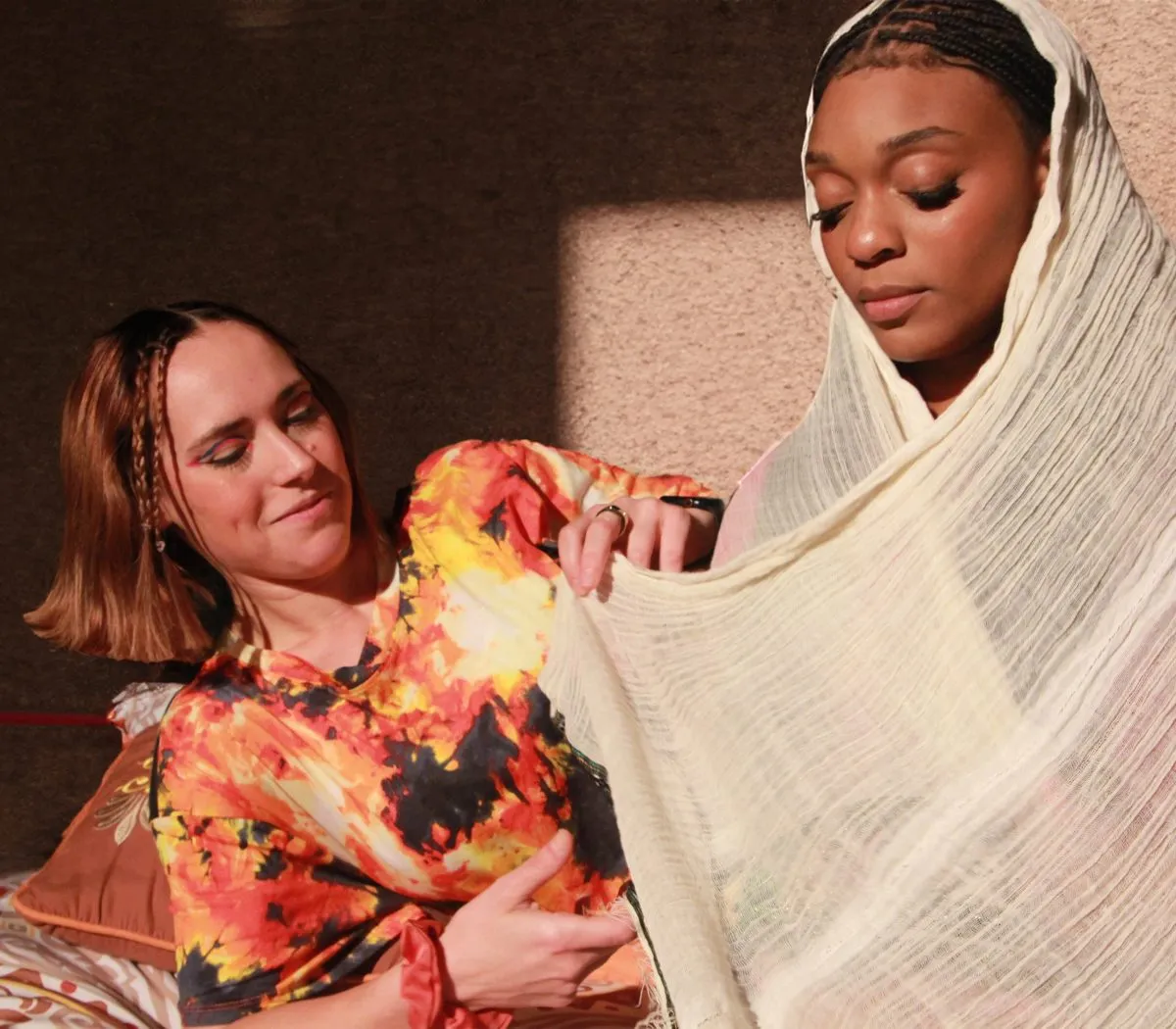

Powering Africa: 6,450-MW Ethiopian dam to harness Nile waters for energy
The Grand Ethiopian Renaissance Dam (GERD), positioned on the Blue Nile, is set to become the largest hydroelectric plant in Africa and one of the top ten worldwide. GERD could make Ethiopia a major energy exporter in the region with an expected output of 6,450 megawatts, or three times the capacity of the Hoover Dam (2,080 megawatts). This monumental project, costing approximately $5 billion, will not only boost Ethiopia’s economic growth through energy exports but also help meet local energy demands and give the country a political advantage over downstream countries. However, the project has been a source of significant regional tension due to concerns about water security and economic impacts on Egypt and Sudan. From its exceptional technical design to the geopolitical tensions around the project, here is everything you need to know about the Grand Ethiopian Renaissance Dam.

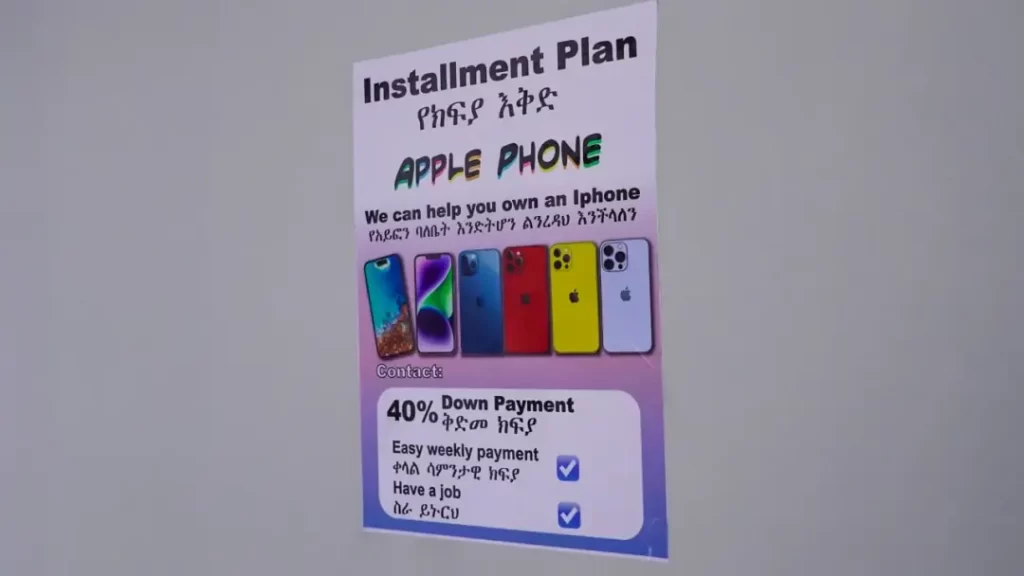
Shadowy Business Firm Offers Smartphones For 40% Down Payment in Addis Ababa
An uncanny marketing scheme for smartphones has been buzzing through Addis Ababa over the past few weeks, offering devices on a credit basis. Phone vendors across the capital have plastered their shops and online profiles with advertisements of the scheme, which facilitates the purchase of iPhones, Infinix, and Tecno mobiles with a 40% downpayment. Backed up by a foreign business group, the credit scheme offers prospective customers loans worth up to 60% of the phone's value, repayable over three months at a 35% interest rate with weekly installments. One of the 15 local agents working with the group, says no additional collateral besides the phone will be required to access the credit facility. He indicates that the phones can be blocked remotely if the debtor fails to make payments on time. “You can purchase the phone you want from the shops we work with," he told Shega. The Agent points out that buyers can access a phone as soon as they fill out a form, pay the down payment, and provide a copy of their identification card. "You can pay as little as 40,000 birr for a 100,000 birr phone, and we can cover the rest. He stresses, “You can pay us back later." According to the loan agreement obtained by Shega, the group refers to this contract as a 'User Lease & Service Agreement.' Under its terms, buyers enter into a lease arrangement with the company for the phone, with weekly payments labeled as 'rent expenses.' The agreement states, “Party A [the company] retains ownership of the leased equipment during the lease term. If Party B [the buyer] fails to meet their obligations, does not pay the rent on time, or cannot be reached, Party A reserves the right to lock the mobile phone (with the unlocking fee to be borne by Party B).”
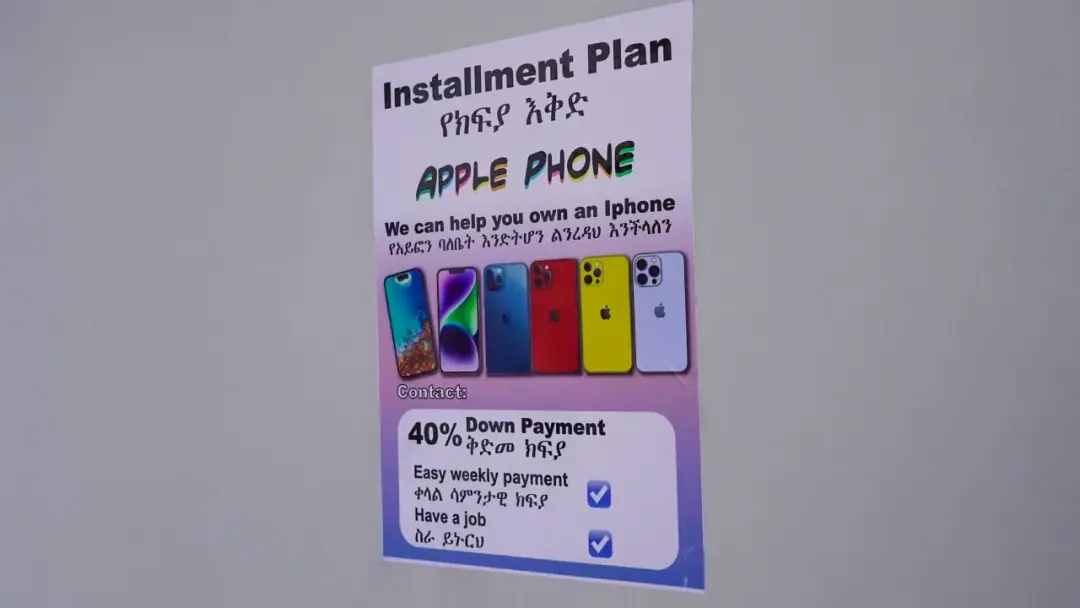
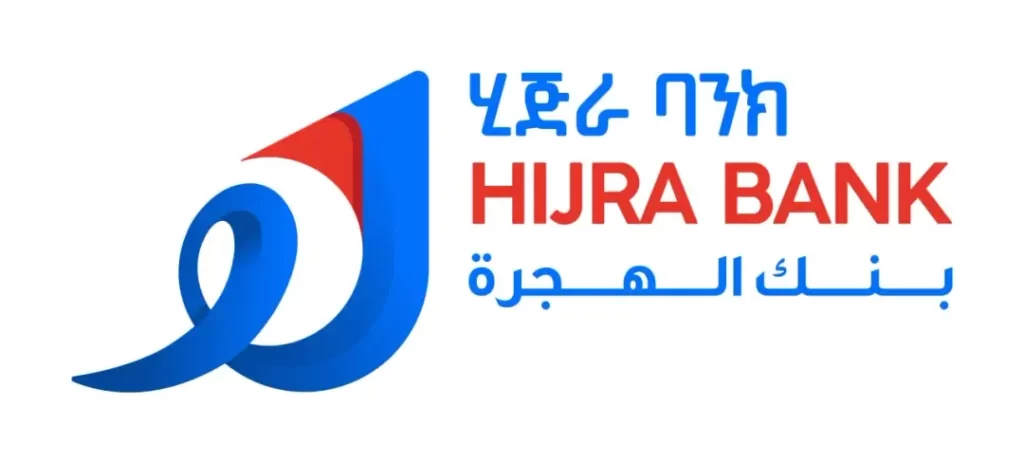
Hijra Bank Unveils Full-Fledged Sharia-Compliant Digital Lending Platform
Hijra Bank, one of four fully Sharia-compliant banks in Ethiopia, launched an interest-free digital lending platform over the weekend. While the mobile money service, branded as HalalPay, was officially unveiled at a ceremony held at the Hyatt Regency Hotel last Saturday, it has already onboarded 120,000 users and over 700 agents. Developed by Tech Horizons over three months, the app currently offers loans of up to 150,000 birr with future limits set to be modified according to users' credit scores. Hassan Mohammed, vice president at Hijra Bank, states that users must first submit the necessary documents before pairing up with an account holder that serves as collateral to access the credit service. “Instant transfers are immediately made after the account holder confirms,” he told Shega. Besides Islamic financing options, HalalPay also includes cash in-cash out, money transfers, airtime purchases, as well as payments for goods and services. The platform is also integrated with Hijra’s core banking services like Murabha. Dawit Keno, President of the two-year-old bank, highlighted the comprehensive set of tools available in the app offer financing options to a traditionally excluded population segment. He recalled experiencing constant demand from local communities for an interest-free alternative in the digital lending space.
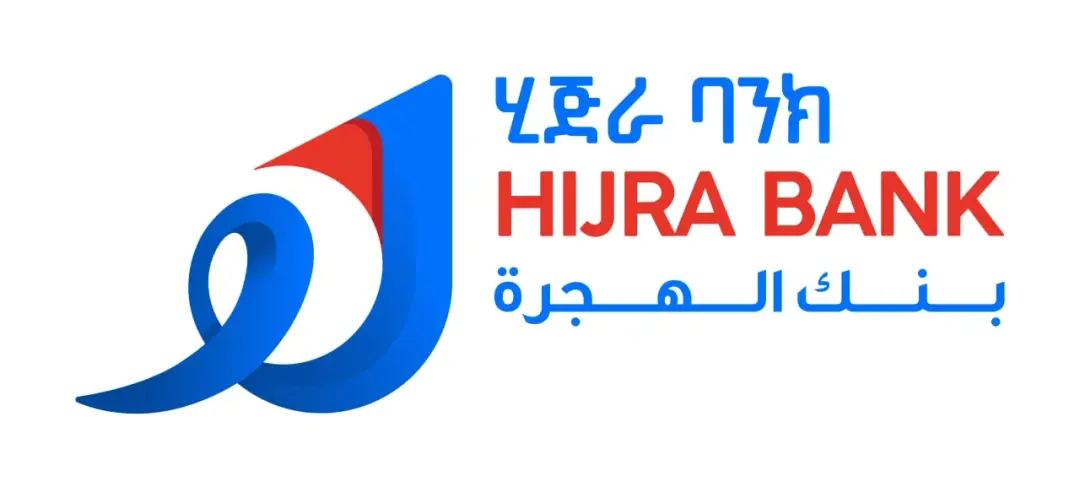

Ethiopian dam could muddy the waters of China’s position as a global leader
In recent years, China has worked hard to position itself as a leader for developing nations, particularly through organisations such as the UN and Brics. But now a dam in Ethiopia is threatening to rock the boat, destabilising Beijing’s delicate geopolitical balancing act.


Hotto Restaurant partners with British Butler Institute to transform Ethiopia’s hospitality sector
Hotto Restaurant has officially announced a partnership with the British Butler Institute, a renowned leader in Butler and hospitality training, aimed at enhancing the skills and professionalism within Ethiopia’s hospitality industry. This collaboration seeks to address the shortage of skilled manpower in the sector, which has been a significant barrier to growth. During the announcement, Daniel Birhanu, Executive Chef and Partner at Hotto Restaurant, expressed enthusiasm for the partnership, stating, “Today we are here to launch an exciting collaboration with one of the best institutes in the UK.” He emphasized that after 26 years in the industry, he recognized a gap in skills upon returning to Ethiopia to establish a high-standard restaurant. Since opening 18 months ago, Hotto Restaurant has served over 60,000 guests and created employment for 94 individuals. The restaurant is committed to working with both local and international institutions to tackle challenges faced by the hospitality sector through comprehensive human resource training. Sean Williams, lead trainer at the British Butler Institute, highlighted the significance of this collaboration, noting that it marks a pioneering effort in Africa. “We are privileged to partner with Hotto Restaurant as our first enterprise in the continent,” he said. Williams believes that this partnership will benefit not only Ethiopia but also neighboring countries like Kenya and Rwanda. Chef Daniel urged other hotels and restaurants in Addis Ababa to invest in their staff, particularly with many new hotels under construction. “Opening a hotel is good, but providing an exceptional experience is essential,” he stressed.


Navigating Dubai’s Real Estate Market: Insights from Ethiopian Property Consultant Samrawit A. Kassaye
As an Ethiopian who has successfully transitioned into Dubai’s highly competitive real estate industry, Samrawit A. Kassaye offers a unique perspective on navigating this dynamic market. With a passion for real estate sparked at a young age, Samrawit’s career journey is an inspiring tale of perseverance, strategic thinking, and deep industry knowledge. Her insights into the market, particularly for Ethiopian and African investors, provide invaluable guidance for those looking to enter or expand their portfolios in Dubai. Samrawit’s story begins in Addis Ababa, where her interest in real estate was kindled by shows like MTV Cribs. “I’ve always had an interest in architecture, design, and the intricacies of homes,” she recalls. After studying Marketing Management at Addis Ababa University, she applied her skills in a local real estate firm, quickly rising to the top. Her early success in Ethiopia gave her the confidence to explore opportunities abroad, which eventually led her to Dubai—one of the world’s fastest-growing real estate markets. Dubai’s vibrant property market, coupled with its international appeal, provided the perfect environment for Samrawit to expand her expertise. She joined Eagle Hills, a global real estate brand, where she gained exposure to luxury and international markets. This experience was crucial in preparing her for the challenges of Dubai’s competitive market.


Ethiopia, Kenya Agree to Potential Cross-Listing of Companies on Exchanges
Ethiopia’s maiden securities exchange has signed a Memorandum of Understanding (MoU) with its Kenyan counterpart and the i-Capital Africa Institute that will potentially allow cross-listing of companies on both exchanges. The partnership places special focus on promoting cross-border investments, knowledge exchange, and capacity building as part of enhancing financial markets across the broader East African region. By leveraging the experiences of the Nairobi Securities Exchange (NSE), the third oldest in Africa, the management of Ethiopia’s Securities Exchange (ESX) looks to accelerate the growth of the pre-nascent exchange poised to launch soon. Wongel Tamene, Senior Manager of Communications and Partnerships at ESX, expects the collaboration to provide key insights towards the creation of an inclusive and vibrant financial market capable of addressing investors’ needs. She pointed out the benefits of peering into methods employed by the NSE to create awareness of financial markets and inspire engagement from potential stakeholders. “It is a crucial partnership,” Wengel told Shega. She also highlighted the importance of understanding NSE’s experience over the past seven decades as an informative reference and a fundamental pillar to forming a strong regulatory foundation for potential cross-listings. In line with these aspirations, the agreement outlines several initiatives, like joint training programs for market participants, a strong regulatory framework, and explorations into innovative financial products.

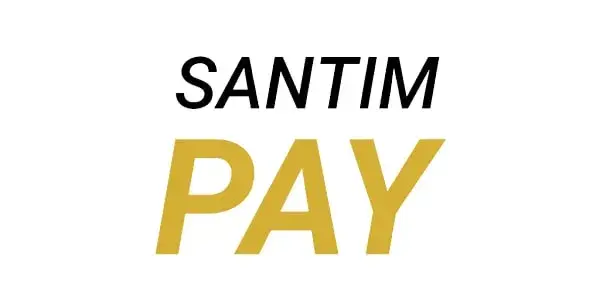
SantimPay Launches Fundraising platform
SantimPay, a financial solutions provider, launched a fundraising platform, SantimFundMe, at the Hilton Addis Hotel on Thursday. Designed as a local alternative in the community-based finance mobilization space, the platform aims to compete with international players. SantimFundMe enables individuals, organizations, and causes to raise funds for a range of needs, including personal, educational, and medical expenses. Several stakeholders from local charities attended the launch, expressing interest in utilizing the platform. Integrated with telebirr, M-Pesa, and nearly 10 banks, as well as supporting Mastercard and Visa, the platform charges a 1% service fee. According to Tensaye Desalegn, CEO & Co-founder of SantimPay, donations from abroad will be paid out based on the daily foreign exchange rate. The fundraising platform also offers real-time tracking of campaign progress and supports anonymous donations. Built in-house, each charity host receives a personal dashboard, and the platform currently operates in three languages. During the event, Board Chairman Daniel Kitaw (Prof.) emphasized the collaborative efforts of both the younger and older generations in driving SantimPay’s operations forward.

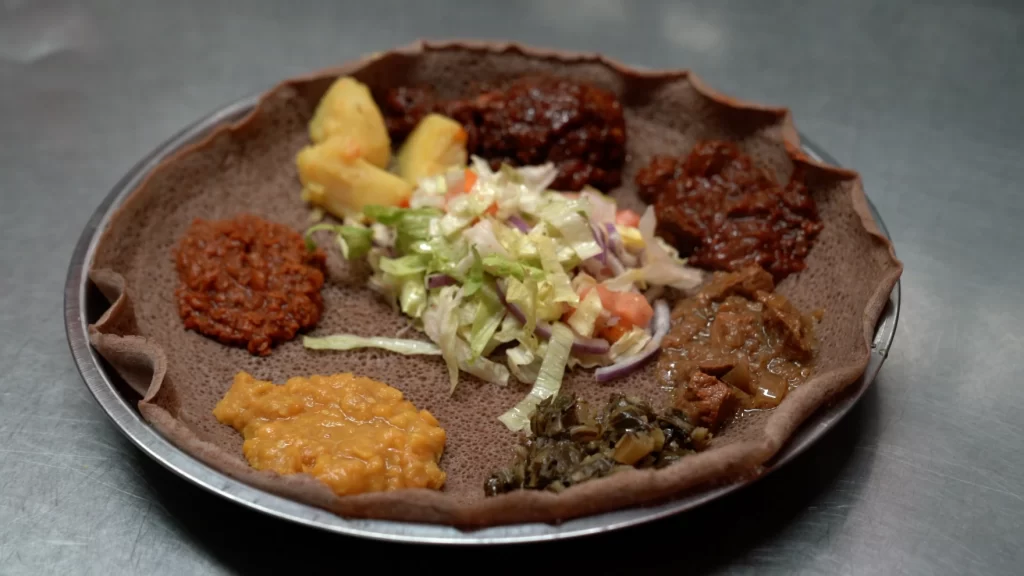
Louisville restaurant offers informal course on Ethiopian dining and hospitality
Abyssinia has been serving Ethiopian cuisine in downtown Louisville for more than a decade. The owners emphasize the experience of Ethiopian hospitality along with good food.


How One Street Over Combines Flavors Of Ethiopia, Eritrea And India
Faven Ressom and Mable Abraham wanted a place that combined the culture of Atlanta with the flavors of Ethiopia, Eritrea and India. Ressom and Mable provides that experience with their restaurant One Street Over. During a recent food tasting, Ressom, Mable and Chef Scotley Innis provided insight on what patrons can expect from One Street Over. Some of the menu items include Salmon Tandoori, Spiced Corn Ribs, Wings, Lamb Sliders, and Berbere Tibs Taco. Ressom shared why it was important to infuse cultures with this venture. “Mable is from Mumbai, India, and my family’s there too, but I was born in Ethiopia,” Ressom said. “I am what’s known as Habesha. So it’s basically using the spices, seasoning and cooking style of cultures we created with Chef Scotley Innis. This is really something that we’re really, really passionate about. This is kind of a gateway for us, to introduce people to our native culture, our cuisine, and to kind of get them interested and excited about actually going and experiencing the Ethiopian food, the Indian food. This is a very subtle way of introducing people to our cuisine and our culture as well. And as you guys know, Atlanta is very diverse. However, it’s very segregated. We wanted to create something that’s kind of central for us to get a little bit comfortable, familiar with the food together.”

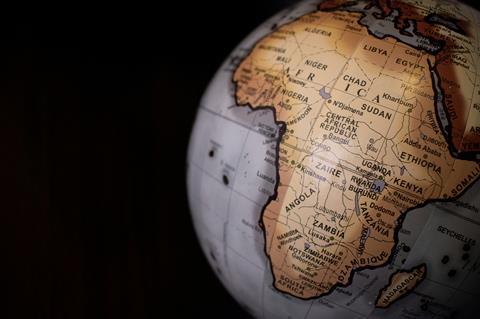
BII weighs impact of Safaricom’s shakeup in Ethiopia
British International Investment (BII), the UK government’s development finance institution, has flagged that its investment in Safaricom Telecommunications Ethiopia (STE) is already having an impact in the newly liberalised market, as economic headwinds continue to challenge the operator. A new report, written by Analysys Mason on behalf of BII, finds that mobile services are less expensive and available to more people since STE launched its network in October 2022, after winning a mobile licence in May 2021 that sparked telecoms competition in the country for the first time (Vodafonewatch, #193, #200, and passim). State-owned incumbent Ethio Telecom has reduced the price of mobile data packages by approximately 70% since 2017, while STE dropped prices by between 50% and 70% across its offerings in its first year of service, according to the report. Before the Ethiopian government opened the market to competition, the country had the highest mobile data prices compared to the report’s six “benchmark” nations: Egypt, Kenya, Nigeria, Sudan, Tanzania, and Uganda. Today, data pricing is “in line” with these markets. As for network availability, the report finds that 4G coverage has doubled in Ethiopia since STE entered the market, but it remains the lowest of the benchmarked countries. As of the end of March, STE’s network had 2,806 sites covering 38% of the population, of which 1,466 sites were built by the operator and 1,340 are collocated through network sharing arrangements and leased from Ethio Telecom. The operator has said it is on track to meet its licence obligation of 55% population coverage by June 2024, but has not updated since that deadline passed.

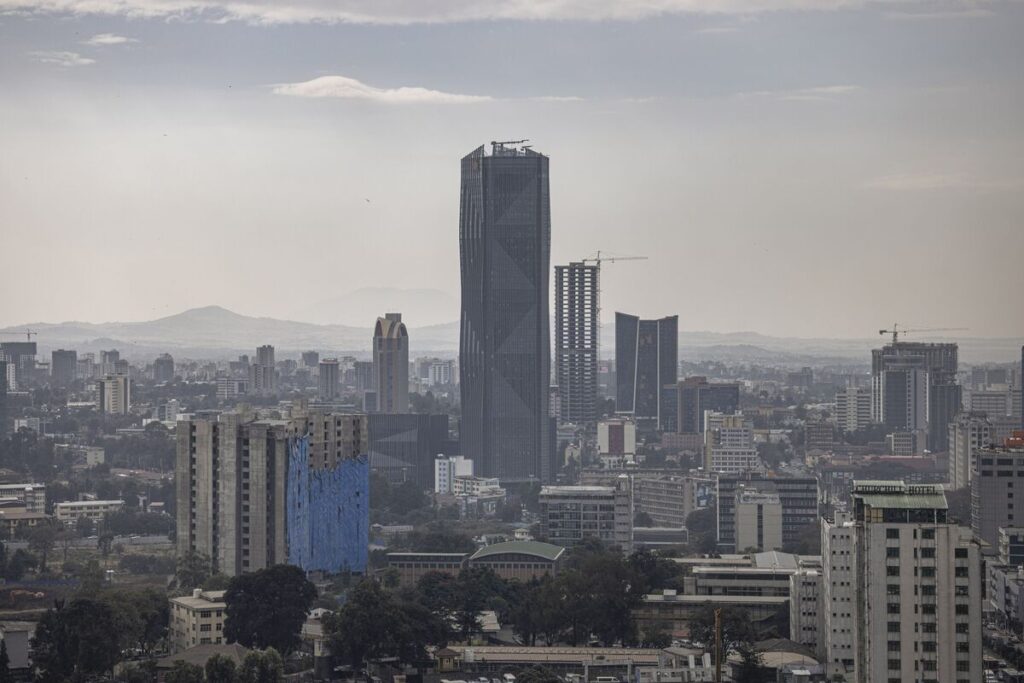
Ethiopia to Raise $255 Million in African Nation’s Maiden IPO
Ethiopia is seeking to raise 30 billion birr ($255 million) selling shares in a state-run wireless company, making it the nation’s first initial public offering, and paving the way to start a stock exchange.
Ethiopia Investment Holdings, which controls 27 state-run companies, will sell 100 million shares in Ethio Telecom, Brook Taye, chief executive officer of the company, said at a briefing in Addis Ababa on Wednesday. The nation’s biggest mobile-phone service provider has 78.3 million customers, according to its website.
Prime Minister Abiy Ahmed’s administration earlier this year ended half a century of control of its currency and is easing rules of doing business to lure investment into East Africa’s biggest economy and help rebuild the war-ravaged country. The debut IPO will help start the nation’s stock exchange, with the government pledging to sell shares in six companies in the next five years.
The government and dissident Tigrayan fighters signed a pact in 2022 to end a two-year conflict that had dissuaded investors.
Ethiopia in December became Africa’s latest sovereign defaulter, joining Zambia and Ghana. All three have been trying to restructure billions of dollars in external debt using the Group of 20’s Common Framework mechanism.
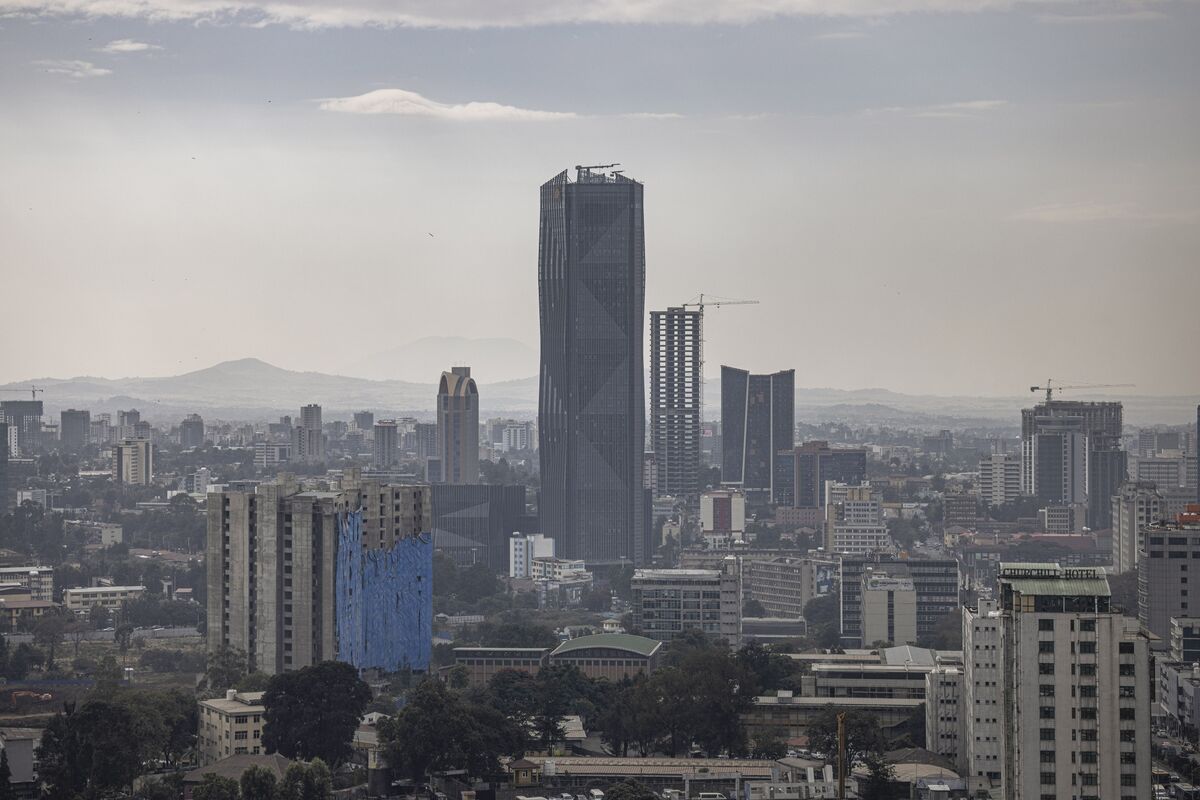
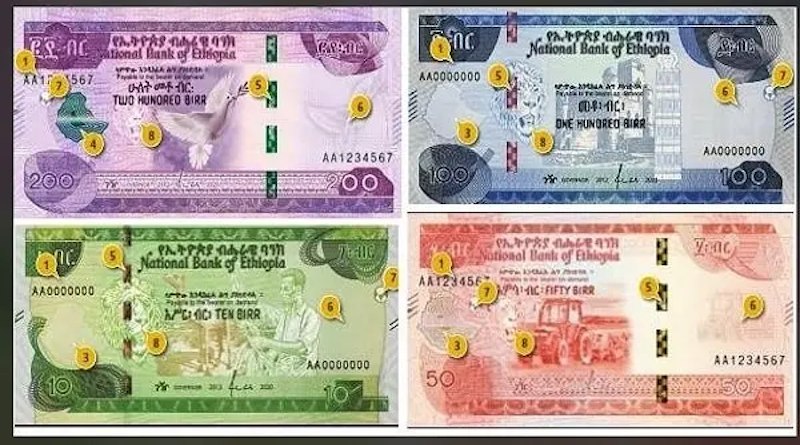
The Horn Of Africa States: The Continuing Foreign Exchange Crisis In Ethiopia – OpEd
Earlier in the year and more specifically on July 28th July 2024, Ethiopia made a historic move. It introduced a new macroeconomic reform process, moving away from a crawling peg exchange rate regime for the Ethiopian Birr against the US Dollar to a market-based foreign currency system. Since then, the Ethiopian Birr has taken on a downward spiralling fall to register most recently 140 Birr to the US Dollar in the illegal market compared to the official 116.7 Birr as of October 12, 2024, in comparison to 57 Birr on the date the new system was introduced. This widening gap is not comfortable for the economy and presents a serious challenge to both the business community of the country and the consumers. Obviously, the formal financial system has been or is unable to meet the demands of the market and more especially for foreign currency, where now most businesses and people rely on the black market as a source of hard currencies, for their needs, mostly the US Dollar. (Read Addis Insight – Ethiopia’s Black-Market Hits 140 Birr to the Dollar: A Growing Crisis in Foreign Exchange on October 12th, 2024). This has impacted the economy in more ways than one. The inflation in the economy has risen and is reported to be above 30% resulting, in the main, from increasing costs of goods and services. Importing businesses pass on the cost to consumers, which cause prices to consumers and hence inflation to rise. This has also caused businesses dependent on imported goods to scale back and reduce their imports for lack of availability of hard currency or pass on the increased costs to the consumers as noted earlier. This has led to a distrust in the formal banking system which is unable to cater for the needs of both the business community and ordinary people. Most seek to meet their needs from the informal and illegal market, which only further undermines the effectiveness of the formal and official exchange rate. Another side effect of the issue is the growing inequality between those who are able to access foreign currencies and those who have no access, whereas the former take advantage of the opportunities that have presented themselves and the others suffer from the increased costs and hence higher prices of goods and services.


How the Famous Lucy Fossil Revolutionized the Study of Human Origins
Every once in a great while paleontological fieldwork turns up a fossil so extraordinary that it revolutionizes our understanding of the origin and evolution of an entire branch of the tree of life. Fifty years ago one of us (Johanson) made just such a discovery on an expedition to the Afar region of Ethiopia. On November 24, 1974, Johanson was out prospecting for fossils of human ancestors with his graduate student Tom Gray, eyes trained on the ground, when he spotted a piece of elbow with humanlike anatomy. Glancing upslope, he saw additional fragments of bone glinting in the noonday sun. In the weeks, months and years that followed, as the expedition team worked to recover and analyze all the ancient bones eroding out of that hillside, it became clear that Johanson had found a remarkable partial skeleton of a human ancestor who had lived some 3.2 million years ago. She was assigned to a new species, Australopithecus afarensis, and given the reference number A.L.288-1, which stands for “Afar locality 288,” the spot where she, the first hominin fossil, was found. But to most people, she is known simply by her nickname, Lucy. With the discovery of Lucy, scientists were forced to reconsider key details of the human story, from when and where humanity got its start to how the various extinct members of the human family were related to one another—and to us. Her combination of apelike and humanlike traits suggested her species occupied a key place in the family tree: ancestral to all later human species, including members of our genus, Homo.
It can be precarious to hang such a pivotal argument on a single fossil individual. But in the half a century since Lucy’s unveiling, many more specimens of Au. afarensis have been found. Together they provide an exceptionally detailed record of this ancient species, revealing where it roamed, how it lived, how its members differed from one another and how long it endured before going extinct.


Ethiopia’s Central Bank Pulls Back Fees From FX Spreads Sparking Industry Wide Trims on ‘Posted’ Rates
Commercial banks are narrowing their posted FX trading spread by nearly a fifth in tandem with new guidelines by the central bank. The state-owned Commercial Bank of Ethiopia (CBE) began the trend as its posted selling rate for the US Dollar dropped from 123.653 Birr on Monday to 115.394 the following morning. Several other banks followed during the day, with Awash Bank bringing down its posted selling rate from 125 to 115 birr, the Cooperative Bank of Oromia (COOP) from 126.5 to 115, and the Bank of Abyssinia by a roughly similar amount. Most of the bank’s posted buying rate has averaged at a little over 113 birr. The development aligns with the National Bank of Ethiopia’s (NBE) statement on Tuesday morning, which requires a separate treatment for FX-related service fees and commissions. The bank’s latest move looks to extricate fees and commissions charged on FX transactions from the trading spread, thereby reducing them on posted rates. NBE is expecting a competitive setting of charges on FX transactions while refraining from outright dictation of the amount in its statement. A decision by the central bank in August that required the inclusion of fees and commissions into the spread of the banks appears to have contributed to the bloated posted rate margins. Following the transition towards a market-based foreign exchange regime in the final days of July, the ballooning spread at most banks, had become a source of concern for many industry onlookers. Senior bankers like Worku Lemma fear that the banking industry’s profit motivation could thwart efficient allocation of the country’s precious FX reserves. He would much rather have some form of limit on service fees and commissions rather than a mere recommendation.

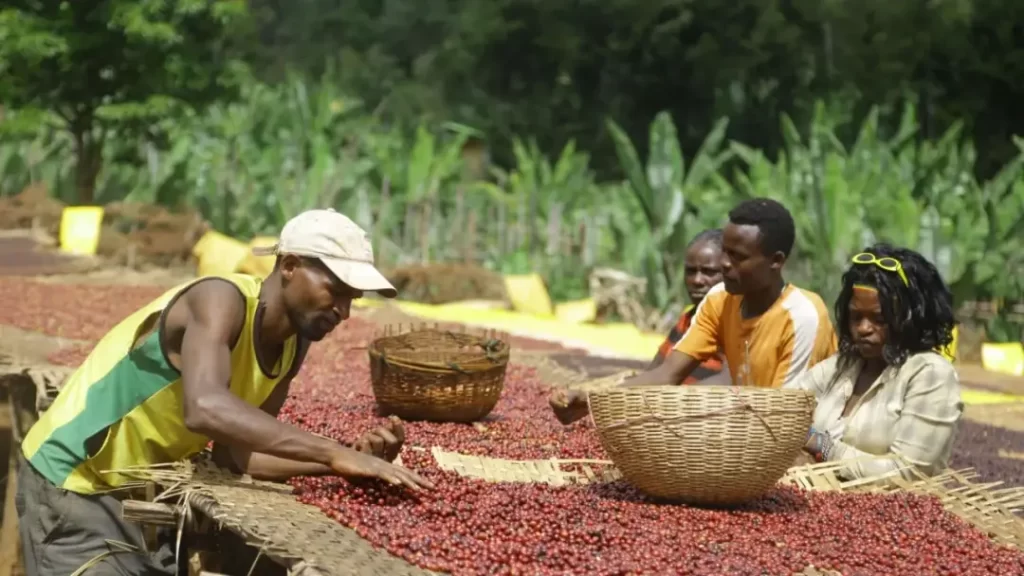
Proposal to Push EU’s Deforestation Law Brews Good News for Ethiopia’s Coffee
Ethiopia’s coffee exporters heave a sigh of relief as the pending implementation of the European Union’s Deforestation Regulation (EUDR) gets tabled for a year-long extension. The EU Commission proposed the extension last week after considerable pressure from international trading partners, lawmakers, and business groups. If the proposal gets approval from the EU parliament next month, it would see the December 30 deadline get pushed by a year. While seven commodities (cattle, cocoa, coffee, palm oil, rubber, soy, and wood) fall under the EUDR’s purview, coffee represents a uniquely valuable economic bridge between Ethiopia and the EU. The 27-member strong union accounted for 34.5% of all merchandise exports from Ethiopia in the second quarter of 2023/204, with coffee contributing nearly a third of the total outflow. UK-based think tank ODI recently modeled the potential fallout from EUDR on Ethiopia. In the most extreme scenario, where exports to the EU cease completely, Ethiopia could face an 18.4% drop in overall exports, a 5.8% fall in imports, a 0.6% decrease in GDP, and a 3.3% reduction in public revenue. The EUDR introduces stringent due diligence requirements to ensure that the agricultural commodities imported into the Union are free of links from deforestation, forest degradation, human rights violations, and even indigenous community rights post-December 2024. Compliance with these standards entails investments in geo-referenced production, which gets tricky for countries like Ethiopia that aggregate coffee produced from around 5 million smallholder farmers. Nearly 85% of Ethiopia’s coffee is planted on less than half a hectare.
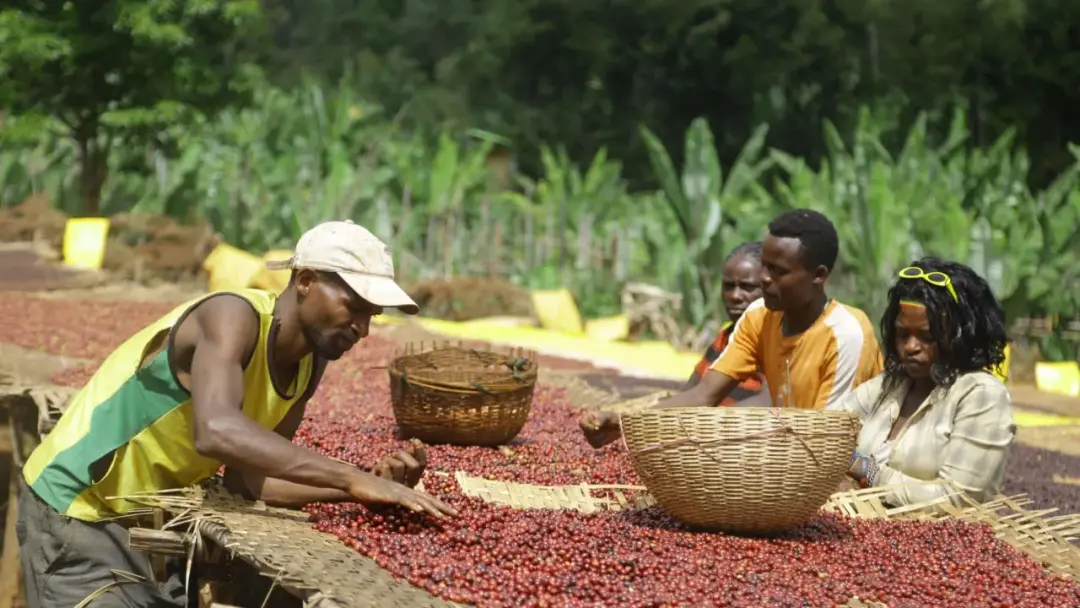
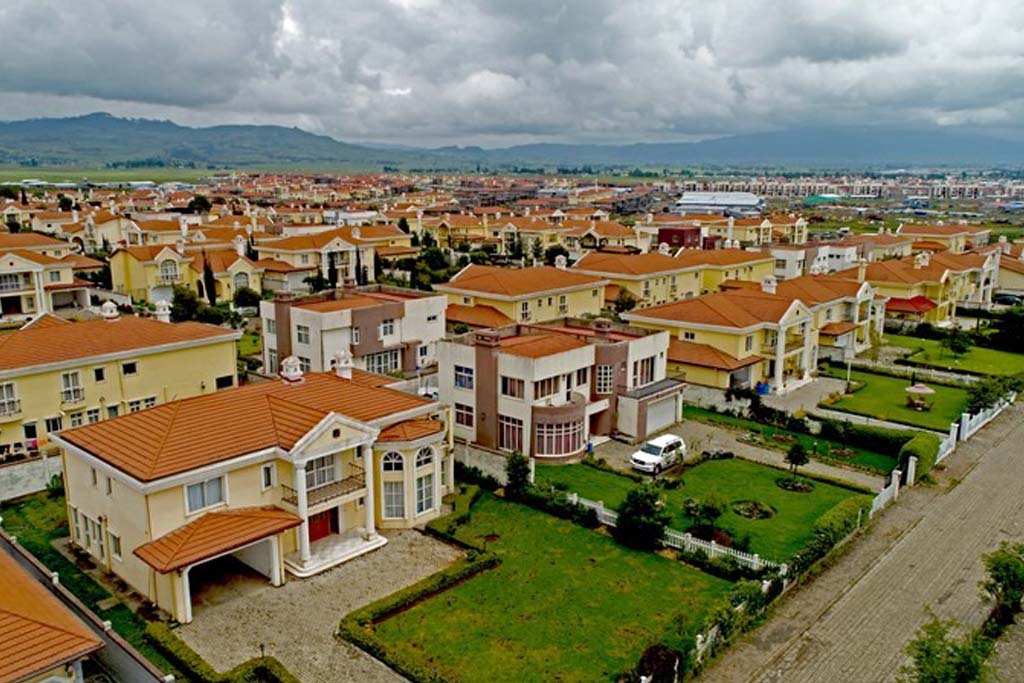
Ethiopia to Introduce Mandatory Licensing for Real Estate Valuers, Enhancing Market Trust
Ethiopia is set to introduce a mandatory licensing system for real estate valuers as part of its new Real Estate Development and Immovable Property Transaction and Valuation Bill. The primary goal of this new regulation is to establish a more transparent, reliable, and professional property valuation process in the country. By ensuring that only certified professionals can conduct property valuations, the government aims to improve trust in real estate transactions and safeguard the interests of buyers, sellers, and investors.
Mandatory Licensing for Real Estate Valuers
A central aspect of the bill is the mandatory requirement that all real estate valuers obtain a professional license before they can appraise properties. The licensing process will be regulated by federal, regional, and city authorities to ensure that only qualified professionals are authorized to assess property values. This system is intended to standardize valuation practices and reduce the risk of inconsistencies that have affected the real estate market in the past. By implementing this system, Ethiopia seeks to professionalize the real estate sector and reduce the influence of unlicensed brokers. The aim is to foster more accurate and trustworthy property valuations, based on market data and established valuation principles, providing a more consistent and reliable foundation for real estate transactions.
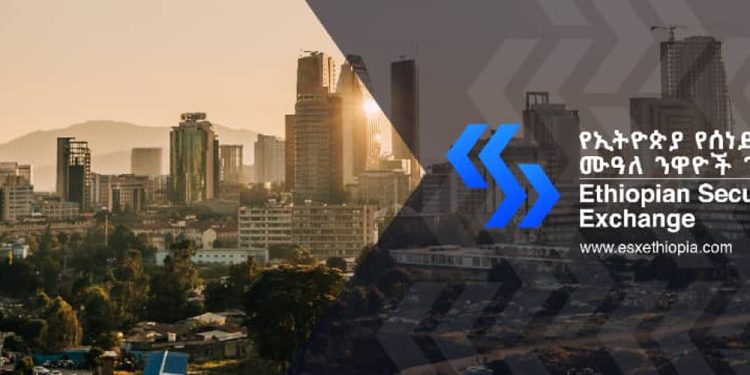
Ethio Telecom to Kickstart Ethiopian Securities Exchange with 10% Listing
Ethio Telecom will be the first company to list on the Ethiopian Securities Exchange (ESX), the country’s new bourse kicks off next week.
- The government will sell a 10% stake in the state-owned telecoms company to the public, further diluting its stake.
- The revelation was made by Brook Taye, CEO of the state investment arm Ethiopia Investment Holdings, to Reuters.
- According to Taye, the listing will also be an experiment to determine the company’s valuation.


Ethiopia Boosts Bitcoin Mining Power Allocation to 600 MW
Ethiopia has rapidly expanded its electricity allocation to Bitcoin mining, making it one of the world’s fastest-growing markets for this activity. The country plans to further increase its capacity this year. Many of the miners are using mid-generation machines due to their low power consumption.
Ethiopia to Expand Bitcoin Mining Power Allocation
Ethiopia has reportedly increased its electricity allocation to Bitcoin mining to 600 megawatts, making it one of the world’s fastest-growing markets for this activity. According to Ethan Vera, co-founder and CEO of Bitcoin miner Luxor, the African country plans to add a few hundred more megawatts by the end of the year. Vera, who recently visited Ethiopia’s dozen mining farms, revealed that many of the miners are using mid-generation machines such as the S19J Pro, A1346, and other models. The CEO attributes the popularity of these devices in African countries to their low power consumption. “Most mining farms had evaporative cooling (water walls) set up, although it is not needed for the majority of the year given the cold climate,” Vera added. Earlier this year, Ethiopia signalled its intention to become a leading Bitcoin miner when it signed power supply agreements with 21 primarily Chinese mining companies. Coupled with the commissioning of the Grand Ethiopian Renaissance Dam, these agreements were expected to not only open a new source of foreign exchange for Ethiopia but also position the country as a hub for Chinese Bitcoin miners.
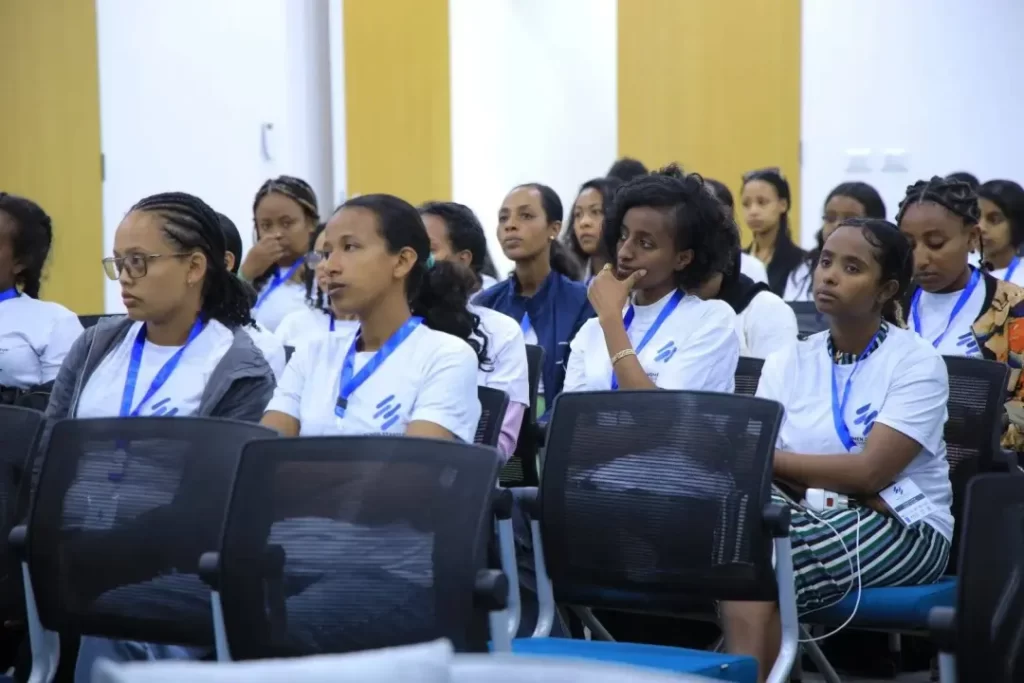
EDI Launches Women Founders Program
A training, mentorship and networking program for female startup founders capped off by financial assistance was started two days ago at the ICT park. Spearheaded by the Entrepreneurship Development Institute (EDI), the Bruh Women Startup Founders Program attracted 157 applicants in three weeks with 74 women qualifying for the 10-day boot camp. Ten women founders who successfully complete the program get a share of the 1 million birr financial prize to springboard their businesses. Powered by support from the Ministry of Labor and Skills, UNDP, Korea International Cooperation Agency (KOIKA), and the Next Ethiopia Startup Initiative (NEST), the program looks to bridge the gender divide in the technology entrepreneurial ecosystem. Elham Mohammed, Program Specialist at EDI, expects the program’s design to help foster growth and innovation while contributing to the alleviation of gender disparity plaguing the sector. The immersive boot camp looks to equip female founders with skills for successful venture launches by providing a curriculum that includes field visits, mentorship, and experience-sharing events. “The support extends beyond a one-time financial reward,” Elham told Shega. Opportunities to participate in pitch competitions, exhibitions, and additional financial support are also part of the program according to the program specialist.
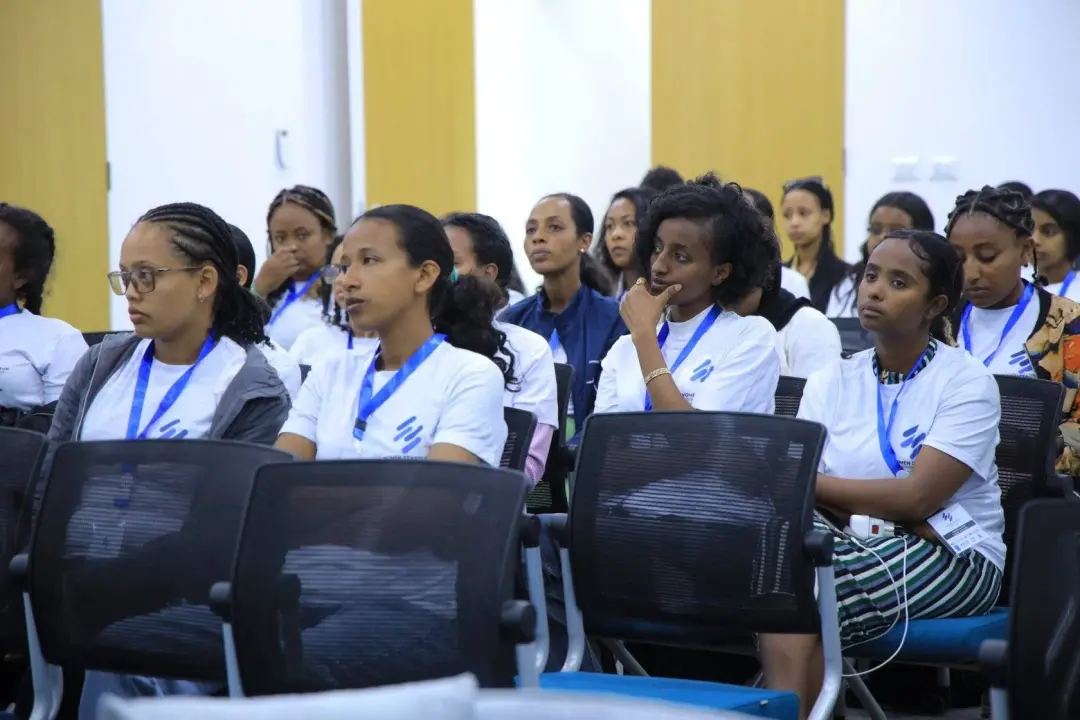
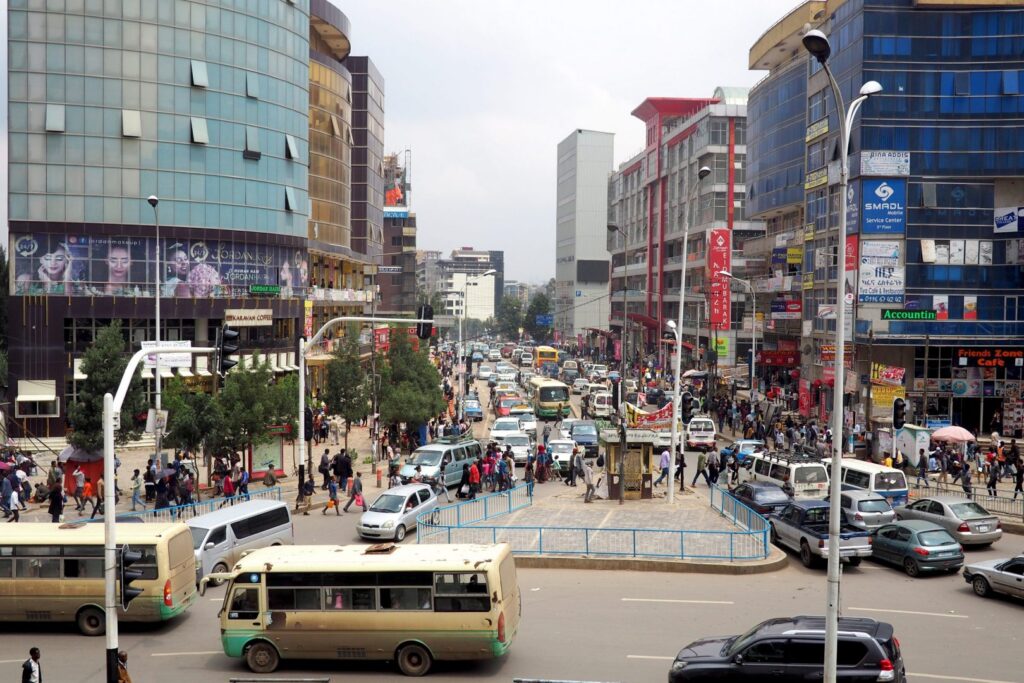
British backed mobile network start-up has enabled millions of Ethiopians to access the internet
- New report highlights positive impact of liberalisation of mobile market in Africa’s second largest country
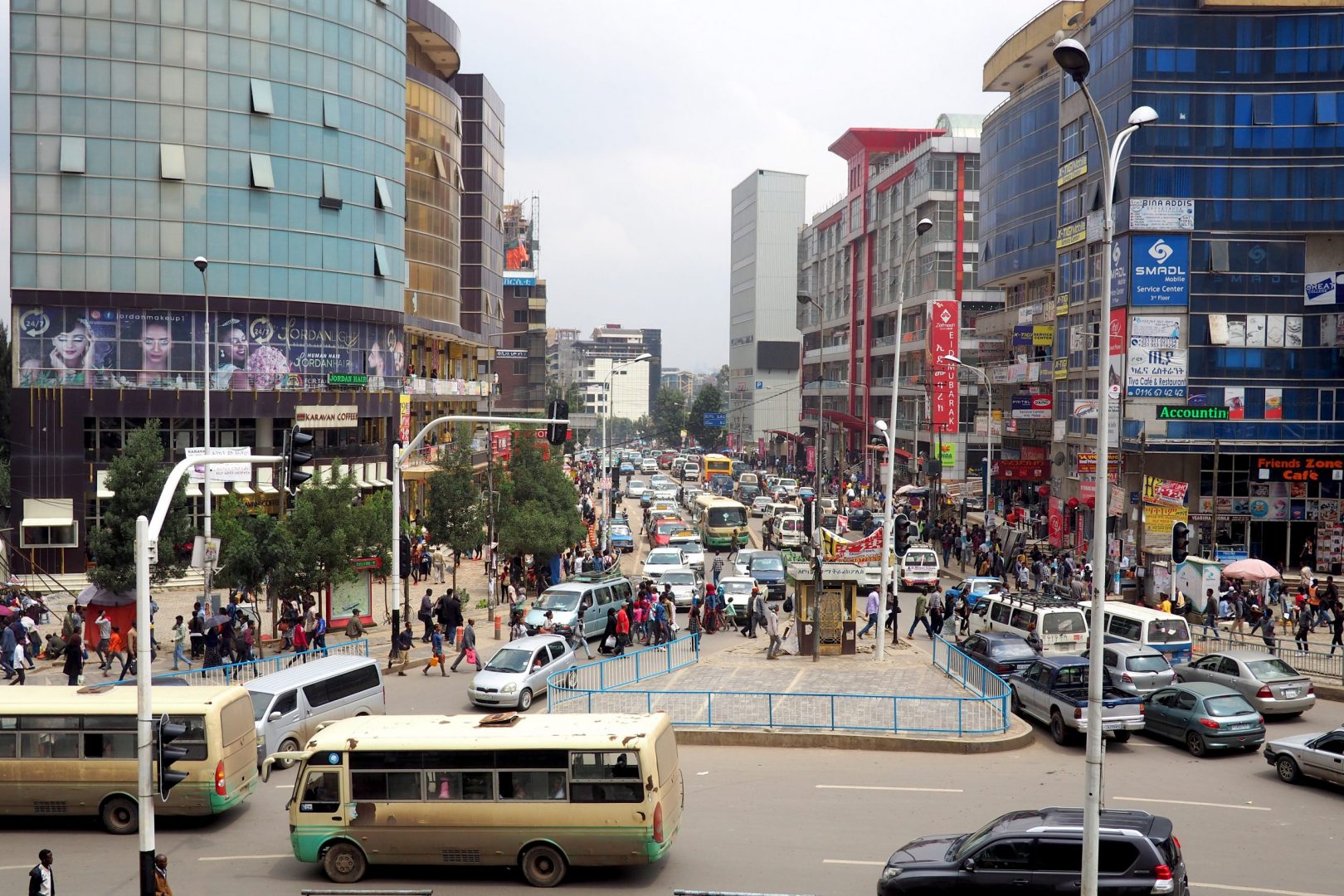

New Animated Series Taps Ethiopian Roots For Fresh Take On Kids Content
An ensemble of young creatives is drawing on Ethiopia’s rich cultural heritage to produce animated musical series for children. Behager Lij Studio, a five-year-old advertising company is blending education and entertainment in a bid to introduce community values to a new generation of Ethiopian youth. Dubbed Behagerlij Kids, the animated series introduces four endearing characters who were named through a public poll infusing cultural nuances that contour spirits of childhood in Ethiopia. Kimem, the sweet and endearing soul; Abule, the sports enthusiast; Bitiqo, the creative and outgoing spirit; and Bochera, the foodie – debuted on the show’s first episode two weeks ago kindling fond memories for many. Nahom Abiy, co-founder and general manager of Behager, relays how the characters were developed to embody universal Ethiopian childhood archetypes. “These characters are like old friends, familiar and comforting," he says. Founded in 2019 with an initial capital of 250,000 birr, the studio has quickly established itself within Ethiopia's animation sector, most notably through its partnership with Awaqi to produce uplifting and inspirational stories. The studio has worked with organizations such as EBS TV, Nahoo TV, The British Council, Enat Bank, The Goethe Institute, iceAddis, and many more.

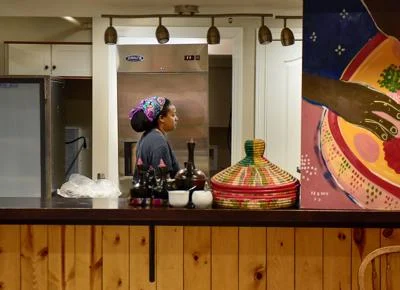
Mahi’s Ethiopian Kitchen: A taste of Africa arrives in downtown Columbia


Ethiopia selected to host 2027 FIATA World Congress
International Federation of Freight Forwarders Associations (FIATA), the world’s largest logistics organization, has chosen Ethiopia to host the FIATA World Congress in the new century, the largest event in the industry, after many unsuccessful attempts. Addis Ababa has been chosen to host the 64th FIATA World Congress for 2027 by the congress that convened in Panama City last week for the 61st FIATA World Congress. According to FIATA’s official release on the city’s selection, “the FIATA World Congress will take place in the vibrant Ethiopian capital of Addis Ababa, marking the turn of a new century in FIATA’s history.” The president of the Ethiopian Freight Forwarders and Shipping Agents Association (EFFSAA), which is a part of FIATA and in charge of organizing the congress, Dawit Woubishet, remembered that his organization had made attempts in the previous several years to secure the right to hold the major international logistics event. Attending the convention in Panama City, Panama, Dawit stated that, “at the end of the day we have got to host the next century event in Addis Ababa,” despite the Ethiopian association’s repeated efforts over the previous four years to organize the event. “African logisticians will use the opportunity to show their case, not just for Ethiopia,” he declared. While returning to Ethiopia following his attendance in Panama, he told Capital from Washington, DC, “I have met African representatives at the congress who expressed their desire to amplify African presence at the congress.”

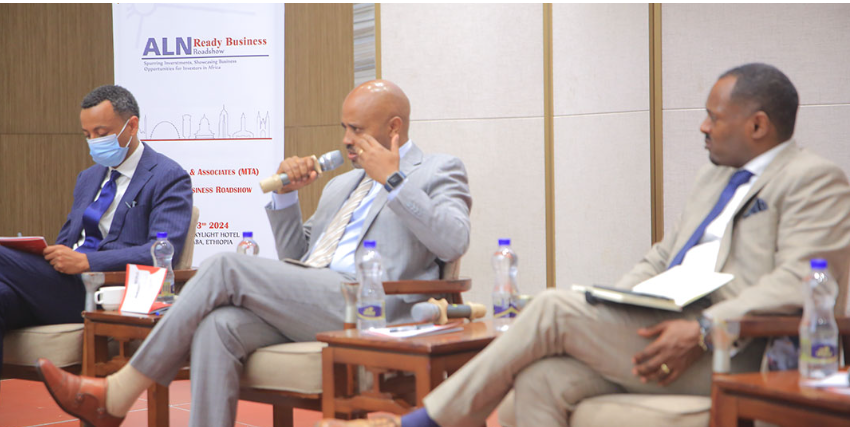
Ethiopia Opens Doors: 20 Global Firms Licensed in Retail and Wholesale Sector
After the announcement of a new directive allowing foreign investors to engage in wholesale and retail business in Ethiopia, 71 international companies have expressed interest, and 20 licenses have been issued since July. It is worth recalling that two months ago, the Ethiopian Investment Board, chaired by the Prime Minister, decided to open up sectors previously reserved for Ethiopians to foreign businesses. Since the Ethiopian Investment Commission began issuing licenses under this new law, 21 organizations have been licensed: 13 to engage in retail business and eight for export activities. On September 23, 2017, a discussion was held at Mesfen Tafesena and Associates Law Office regarding Ethiopia’s investment landscape. The meeting was attended by key stakeholders, including the Minister of Finance, Dr. Eyob Tekalign, and Dr. Brook Taye, CEO of the Ethiopian Investment Holding Group. The senior policy and legal advisor from the Investment Commission stated that many companies granted licenses are from emerging markets. While the advisor did not disclose company names, it was noted that most businesses registered for export are focused on coffee and sesame. Additionally, companies planning to import into Ethiopia have shown interest in sectors like electric vehicles and construction materials.

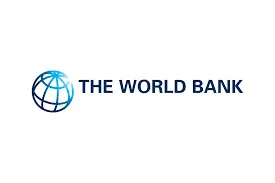
Ethiopia Undertakes Civil Service Reform With 70 Million Dollar World Bank Loan
A 70-million-dollar World Bank project targets a shift towards a competence-based civil service by leveraging technology and modern human resource management systems. The four-part governance modernization initiative is slated for full funding by 2029, bringing comprehensive upgrades to the country's public service. Signed by Finance Minister Ahmed Shide and newly appointed WB regional director Mariyam Salim, a steering committee will be formed within two months to oversee the project, under the guidance of the Council of Good Governance in the Prime Minister’s Office. Although the Council is part of the government’s broader reform program, it will not be directly involved in the implementation structure. Ethiopia’s civil service has ballooned from around 190,000 in 1991 to nearly 2.5 million individuals today, with teachers and medical workers accounting for nearly half of the workforce. Prime Minister Abiy Ahmed’s (PhD) administration has presaged a thorough civil service reform over the past few years as it grappled with a public sector wage bill that swallowed nearly half of public expenditures. Around 25 million dollars will be allocated towards upgrading public administration capabilities, which includes an integrated Human Resource Payroll System (IHRPS) with online transaction and analytical processing functionalities. Specialized training of HR units within selected government bodies in addition to systems for performance evaluation, career development criteria, and regulations for outsourcing are envisaged by the project. An HR analytics unit within the Civil Service Commission that focuses on assessing gender-disaggregated data collection is also planned as part of reducing gender disparities. Low salary satisfaction, inadequate resources, lack of professional development opportunities, and low prestige for civil servants are cited as being drivers for low levels of motivation.


Haile Selassie’s grandson buys Ethiopian shield from UK auction to return it to homeland
Haile Selassie’s grandson has bought an Ethiopian shield at an auction to return the artefact to its homeland. The object, made of silver and animal hide, was stolen by British forces at the Battle of Magdala in 1868 and vanished into a private collection before emerging for sale in early 2024. Prince Ermias Sahle-Selassie Haile-Selassie, the descendent of the last Ethiopian emperor, has bought the shield to prevent it from being lost again to a private owner. The prince will return the historically significant artefact to Ethiopia, where it will be held in the nation’s national museum. The sale follows a successful campaign by the Ethiopian government to prevent the £1,200 shield from being sold at auction by a Newcastle auction house. It comes amid ongoing requests for national treasures to be returned by the UK. Prince Ermias said: “This shield is not just a historical artefact; it is a symbol of Ethiopia’s history and resilience. “Our efforts and success in regaining this treasure is a testament to our commitment to preserve our heritage and honour our ancestors who fought for our nation’s sovereignty.” The object was bought through the Royal Ethiopian Trust, an organisation established by Prince Ermias to safeguard Ethiopia’s imperial heritage. The prince is the son of the late Prince Sahle Selassie, who was the youngest child of Emperor Haile Selassie, who ruled Ethiopia from 1930 to 1974 when he was overthrown. The emperor was a major figure in international affairs and fought against an Italian invasion of Ethiopia in 1935 before being forced into wartime exile.

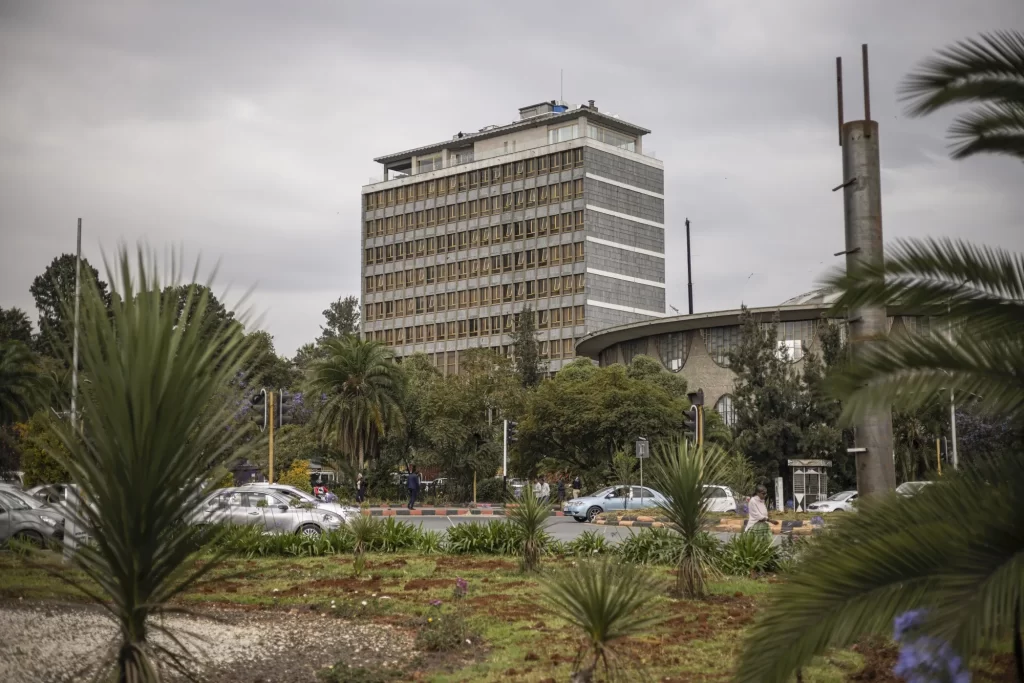
Ethiopia’s Central Bank Allocates $175 Million for Fuel Imports
The National Bank of Ethiopia has announced a special foreign-exchange allocation of $175 million to a state-owned primary importer of fuel and related products.
The allocation aims to address upcoming fuel-related import payments by the Ethiopian Petroleum Supply Enterprise, according to a central bank statement. The Horn of Africa nation spends about $4 billion annually on such imports, Prime Minister Abiy Ahmed said in June.
Ethiopia, which has struggled with dollar shortages, is due to receive an International Monetary Fund program payout of about $345 million in addition to a $1 billion disbursement announced in July.
The nation liberalized its foreign-exchange regime in July, a step which depreciated its currency by about 50% to a level similar to the street value. That depreciation has helped to draw more foreign exchange to official channels. In August, the central bank conducted its first-ever special auction to boost banks’ dollar holdings.
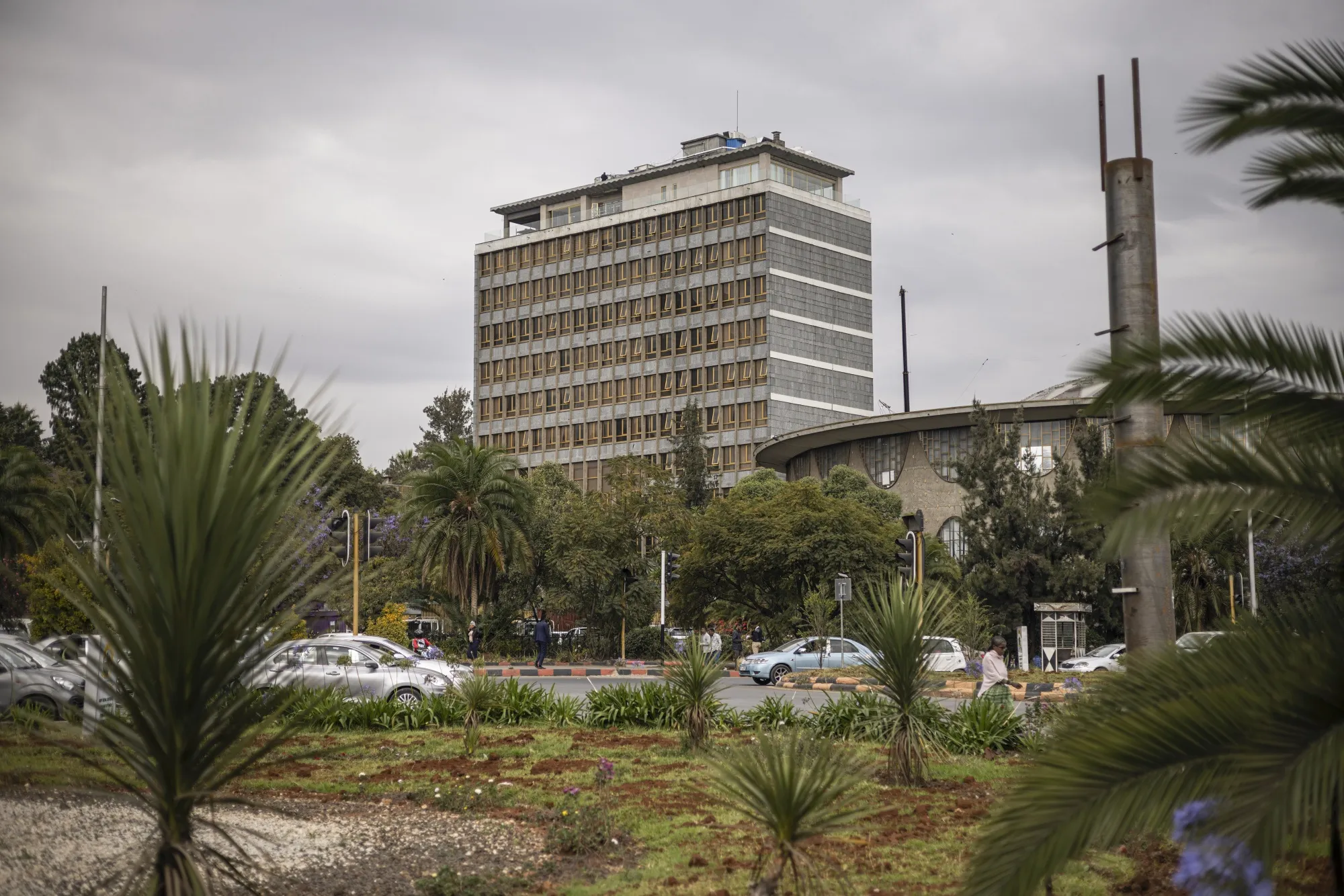

Diaspora Community in Montgomery County – A call to Participate in the Racial Equity and Social Justice Survey
The Office of Racial Equity and Social Justice (ORESJ) is conducting a survey seeking input from Black, Indigenous, and Other People of Color (BIPOC) in Montgomery County. Attached are seven languages: French, Amharic, Vietnamese, Chinese, Korean, English, and Spanish. Your input is crucial in informing and shaping the county’s efforts to achieve racial equity and social justice goals which could have a significant impact on our community. Please note: the deadline for completing this survey is Wednesday, October 30th.
 URL: Link to the surveys in 7 different languages:
URL: Link to the surveys in 7 different languages:
- Amharic - https://www.surveymonkey.com/r/LSBXQ7J
- Chinese - https://www.surveymonkey.com/r/LR9C8WF
- English - https://www.surveymonkey.com/r/VNBS5R9
- French - https://www.surveymonkey.com/r/LSNSVD7
- Korean - https://www.surveymonkey.com/r/LSHMDR3
- Spanish - https://www.surveymonkey.com/r/ZHR8KYS
- Vietnamese - https://www.surveymonkey.com/r/D7KKFD8

Here Are the New Ethio Telecom Prices: What You Need to Know

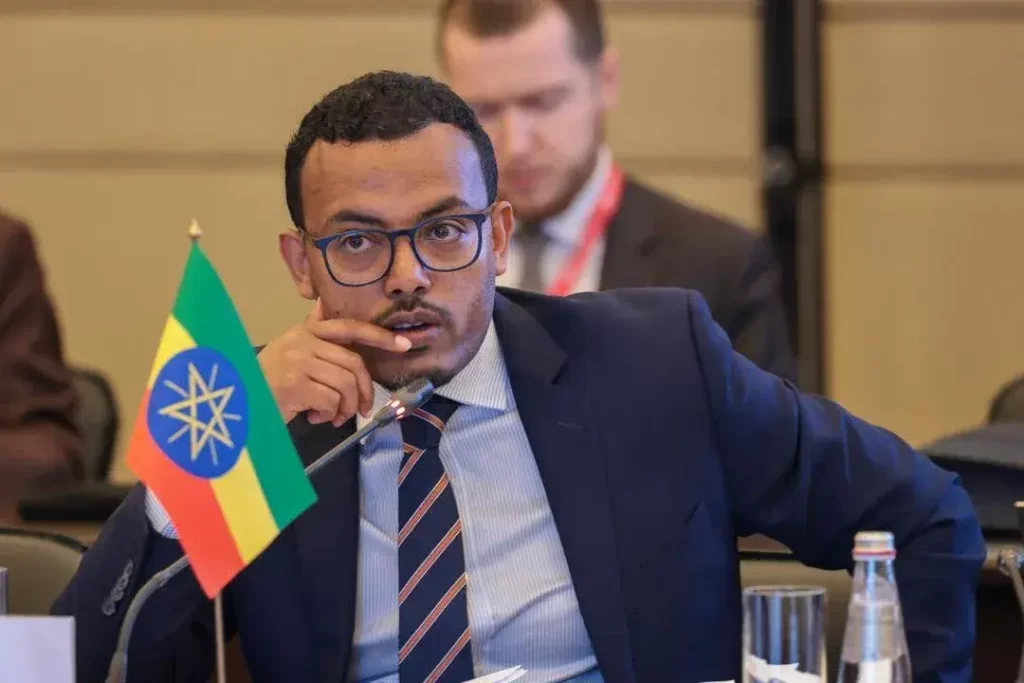
Ethiopia’s Central Bank Greenlights Five Independent Foreign Exchange Bureaus
Ethiopia’s central bank has licensed five non-bank foreign exchange bureaus, marking a significant milestone in the country’s recent macroeconomic reform. Dugda Fidelity Investment Plc, with renowned business tycoon Getu Gelete as a significant shareholder, Ethio Independent, Global Independent, Robust Independent, and Yoga Forex Bureau received the regulatory green light. While these independent Bureau’s are limited to conducting spot transactions (immediate), they can buy currency notes of up to 10,000 dollars without a Customs Commission declaration. The forex bureaus are also allowed to sell foreign currency of up to 5,000 dollars for individual travelers with the necessary documents and up to 10,000 dollars for business ones. The FX bureaus are required to prominently display their buying and selling rates to customers as a means of ensuring transparency. Customers have the right to request receipts for their transactions.
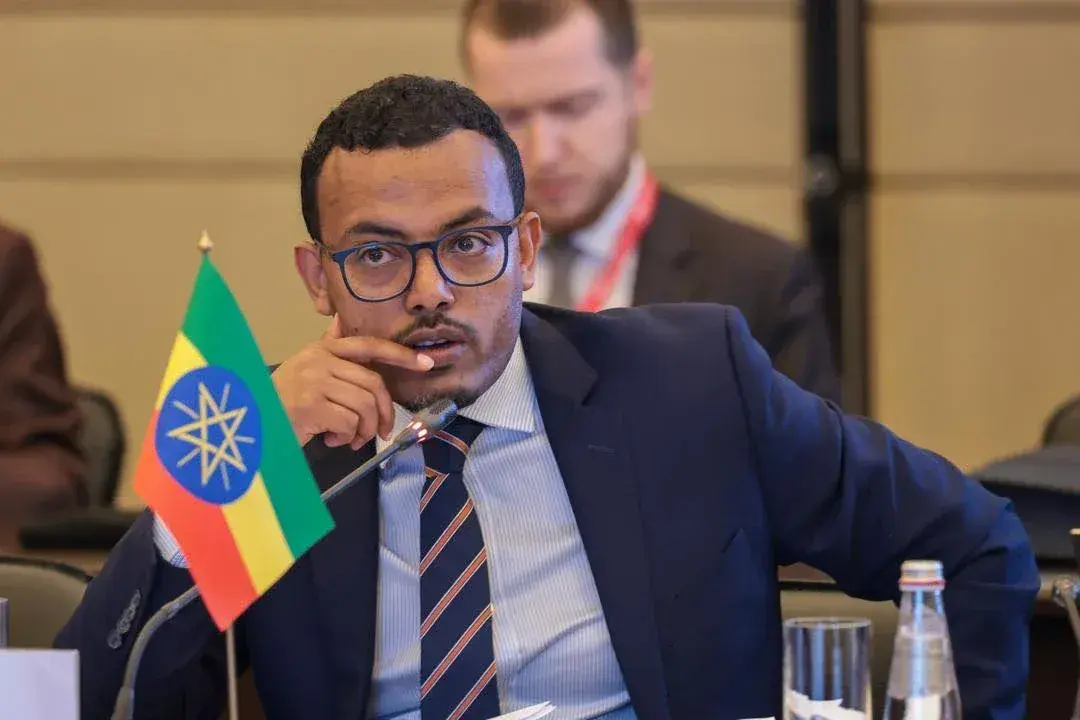

DV-2026 Registration Period
Diversity Visa Instructions

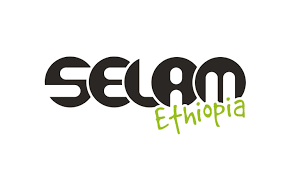
Selam Ethiopia announces IP workshop
Selam Ethiopia will launch the first workshop of its Strengthening Intellectual Property Rights in Ethiopia (SIPRE) project on 3 October.
SIPRE is an 18-month national initiative funded by the United Nations Educational, Scientific and Cultural Organisation (UNESCO)’s International Fund for Cultural Diversity (IFCD).
This project, carried out in collaboration with the Ministry of Culture and Sport, the Ethiopian Intellectual Property Authority, and the Ethiopian Music Sectoral Associations Union, addresses the critical need for better protection and enforcement of intellectual property (IP) rights in Ethiopia’s visual and performing arts sectors.
SIPRE is supported under UNESCO’s 2005 Convention on the Protection and Promotion of the Diversity of Cultural Expressions, a global framework ratified by 146 parties, including Ethiopia. This Convention guides UNESCO’s efforts to empower countries to create, produce, and distribute cultural goods and services, ensuring that their cultural and creative industries thrive. The Convention also underpins the IFCD, which grants funds to nations like Ethiopia that are committed to implementing public policies that strengthen these sectors.
Through national campaigns, workshops, and educational resources, SIPRE will enhance understanding of IP rights among artists and key stakeholders. The project includes training programs on IP laws, copyright registration, and enforcement mechanisms. An online platform will also be launched to streamline copyright processes and provide vital information to Ethiopian artists.

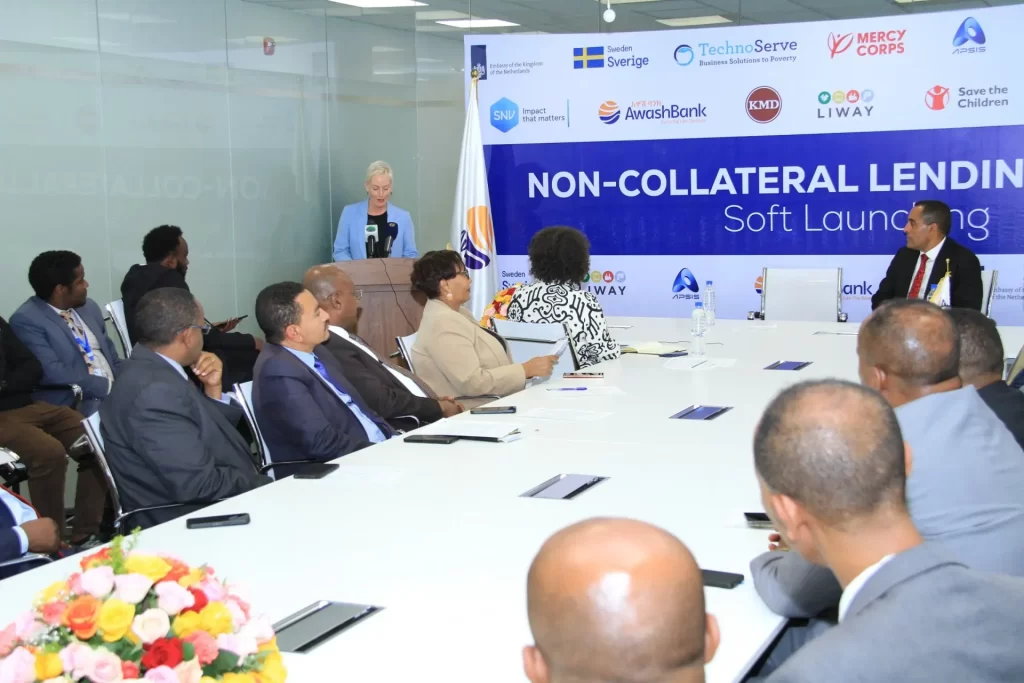
SNV Onboards Awash, Ahadu, CBE For Digital Lending Platform Targeting MSMEs
Dutch-rooted global development organization SNV is collaborating with KMD London, a consultancy firm, to launch a mobile app-based comprehensive financial solution for medium, small, and micro enterprises (MSME) through three Ethiopian banks. The platform provides non-collateral cash flow-based loans and inventory management tools to alleviate financial service hurdles faced by local MSMEs while minimizing risks through an insurance facility. It is part of the Livelihoods Improvement for Women and Youth (LIWAY) program, which looks to improve the lives of over a quarter million Ethiopians until 2026. Tatek Tesfaye, market system development adviser at SNV, says a two-year planning period preceded the development of the platform that relies on cash flow for its services. He expects the project, one of 21 others undertaken by the NGO, to address financial management and access hurdles faced by MSMEs. “It will empower them (MSMEs) significantly,” Tatek told Shega. Prospective users can register at the nearest branches of the state-owned Commercial Bank of Ethiopia (CBE), Awash Bank, and Ahadu when the platform launches, while more banks might join in the future. After relevant documentation is provided, the system already integrated into the banks’ core banking system can analyze risk to determine the size of loans. Bank agents equipped with a different app will conduct sight visits to the MSME’s to authenticate details and evaluate their status.
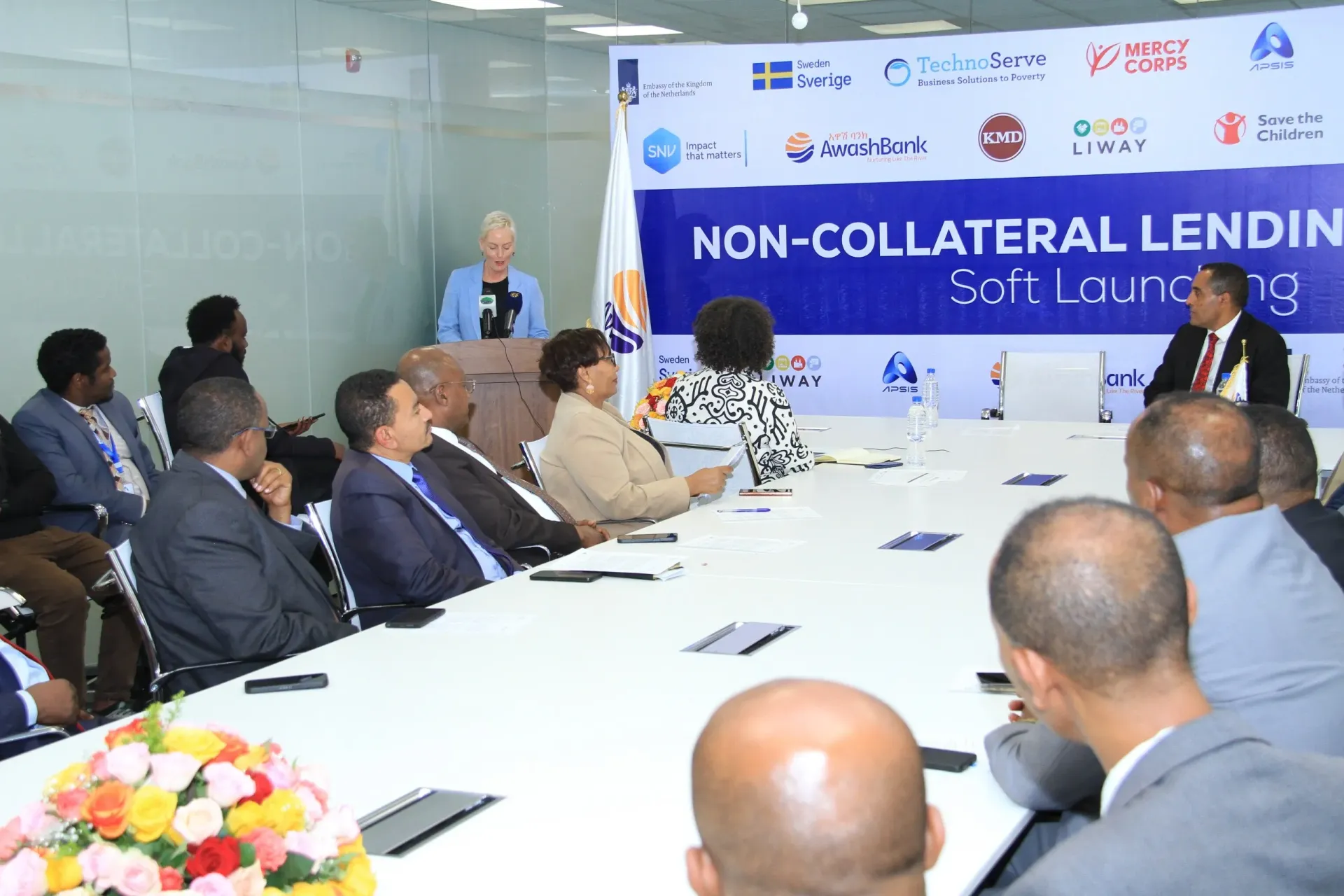
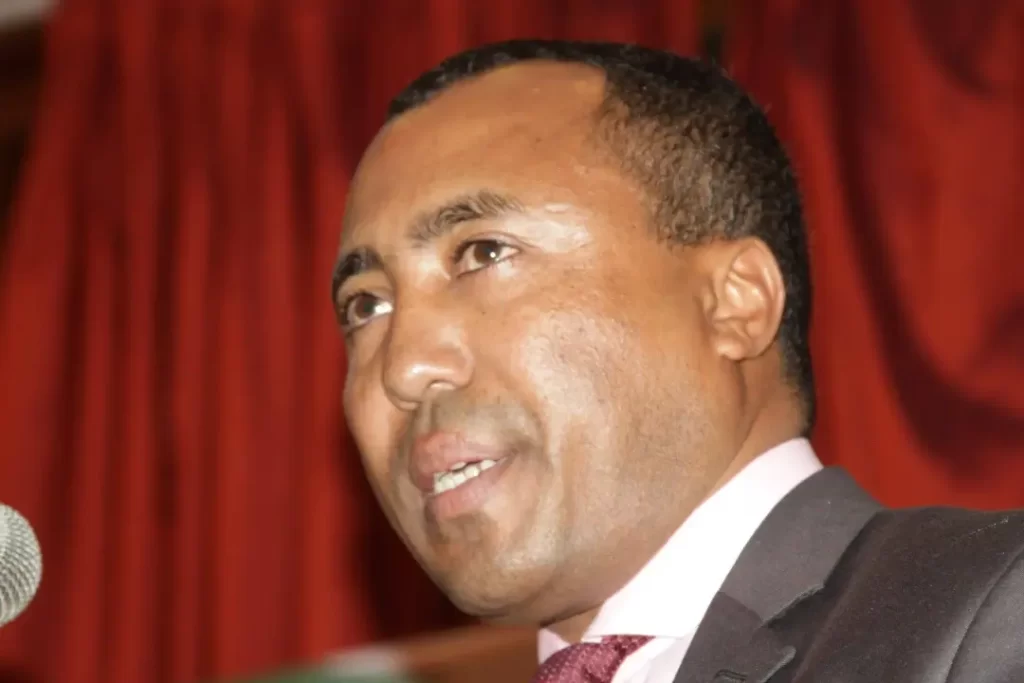
Former Ethio Telecom CEO Andualem Admassie Joins Safaricom Ethiopia
Safaricom Ethiopia has appointed Andualem Admassie (PhD), former CEO of Ethio Telecom, as its new Chief External Affairs Officer. This marks the second high-level appointment to this position following the resignation of Henok Teferra, who later joined Boeing. Andualem, who earned his PhD in Business Administration from Bulacan State University, was succeeded by Frehiwot Tamiru as CEO of Ethio Telecom in 2018. He later served as Director of the Higher Education Relevance and Quality Agency (HERQA). More recently, he co-founded and led a telecom company in South Sudan as CEO. “This is a significant step for Safaricom Ethiopia as we focus on enhancing our local leadership. We are confident that Dr. Andualem will be instrumental in advancing our business operations and providing valuable local insights to support our growth,” said Wim Vanhelleputte, CEO of Safaricom Ethiopia. Andualem’s other roles during his time at the state-owned Ethio Telecom include Chief Human Resources Officer and Chief Internal Audit Officer.
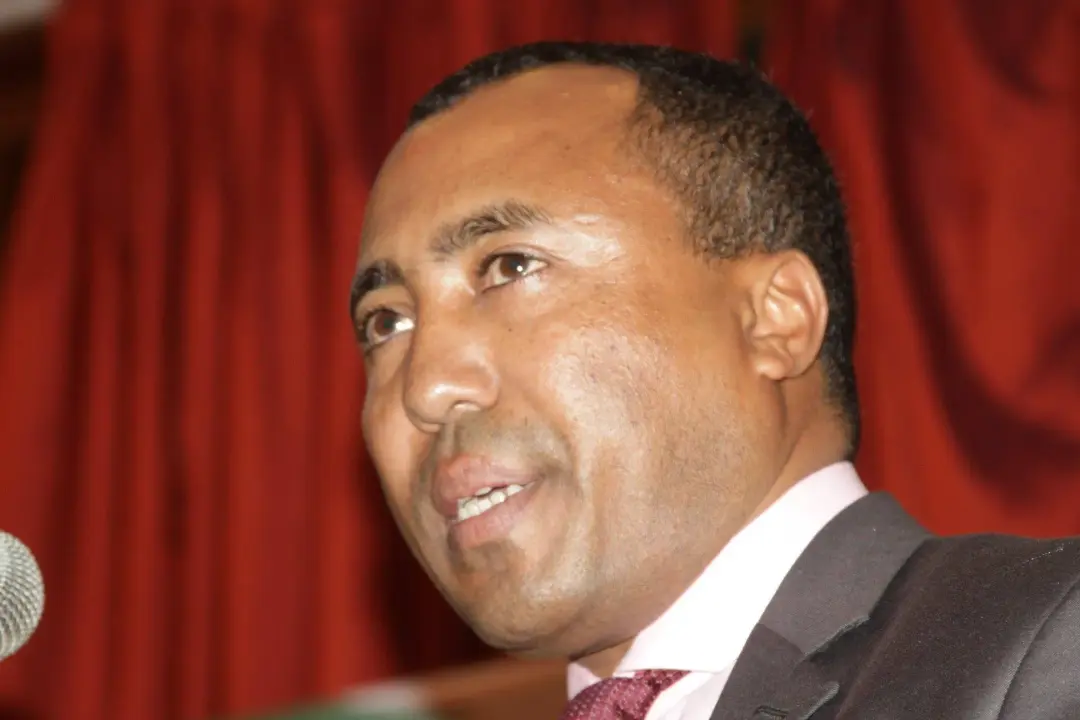

Commercial Bank of Ethiopia Introduces VAT on Financial Services Amid World Bank-Supported Bailout
The Commercial Bank of Ethiopia (CBE) has introduced value-added tax (VAT) on various financial services as part of its efforts to comply with the government’s new tax laws and raise revenue. The VAT increase, effective from October 1, 2024, is linked to broader economic reforms impacting Ethiopia’s financial sector. This move comes at a critical time for CBE, which is facing growing financial challenges due to the recent floating of the Ethiopian birr and its exposure to non-performing loans from state-owned enterprises (SOEs). The introduction of VAT on banking services is one of several measures the bank is adopting to strengthen its financial position and absorb the impact of currency fluctuations.
World Bank’s USD 700 Million Bailout
Central to CBE’s stabilization efforts is a USD 700 million support package from the World Bank, provided under the Financial Sector Strengthening Project (FSSP). This funding is part of a broader recapitalization and restructuring plan for the bank. The aim is to reform CBE, making it a commercially viable entity that can operate independently from government influence and compete in a more open financial market. “The USD 700 million from the World Bank under the FSSP will be used for recapitalization and continued support of the reform and restructuring of CBE. This includes a focus on governance and risk management, ensuring CBE can operate as a sound, viable, and commercially oriented bank at arm’s length from the government,” states an IMF document published this week.
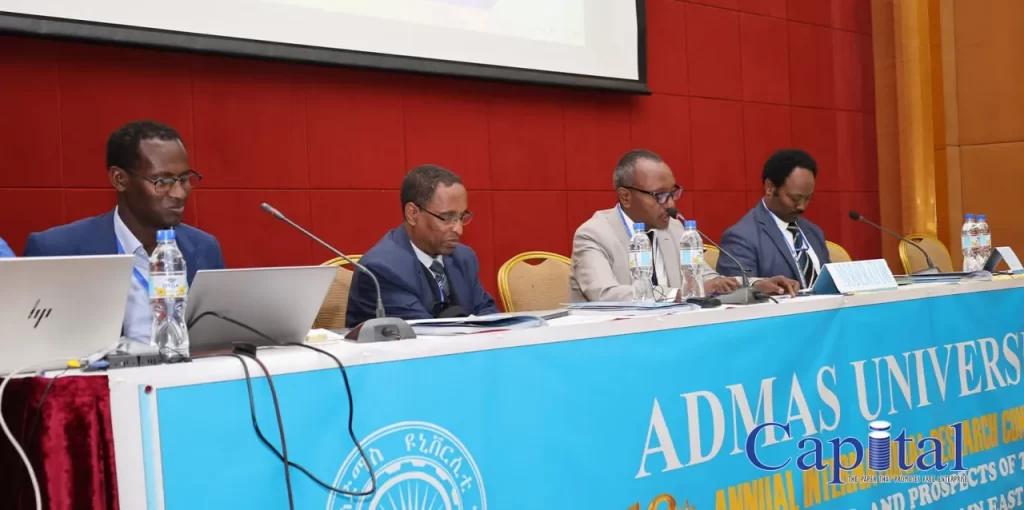
Ethiopia to recognize educational programs for the first time
Ethiopia is set to make a significant milestone in its education sector by officially recognizing educational programs for the first time. This development comes after two years of efforts by the Education Training Authority to establish procedures and guidelines aimed at helping educational institutions re-register and operate effectively. In the past, the authority had indicated that quality audits and accreditation would be conducted to ensure that institutions provide quality education at the program level. This recognition signifies a formal work permit for educational institutions to operate within the framework of quality assurance. As part of this initiative, various universities across the country are currently applying for accreditation of their programs. This year marks the first time Ethiopia will officially recognize these educational programs, reflecting a commitment to improving the quality of education in the country. The necessary preparations for this recognition have been made, and the implementation process is underway. The Education Training Authority has announced that re-registration of institutions under the new system will take place in the first six months of the 2024/25 fiscal year. This announcement was made during the 16th International Conference held at Admas University. Molla Tsegaye (PhD), President of Admas University, emphasized the institution’s commitment to conducting research and creating platforms for development. He noted that the university has hosted at least 18 conferences annually over the past 15 years, focusing on various aspects of higher education, including quality research and community service.
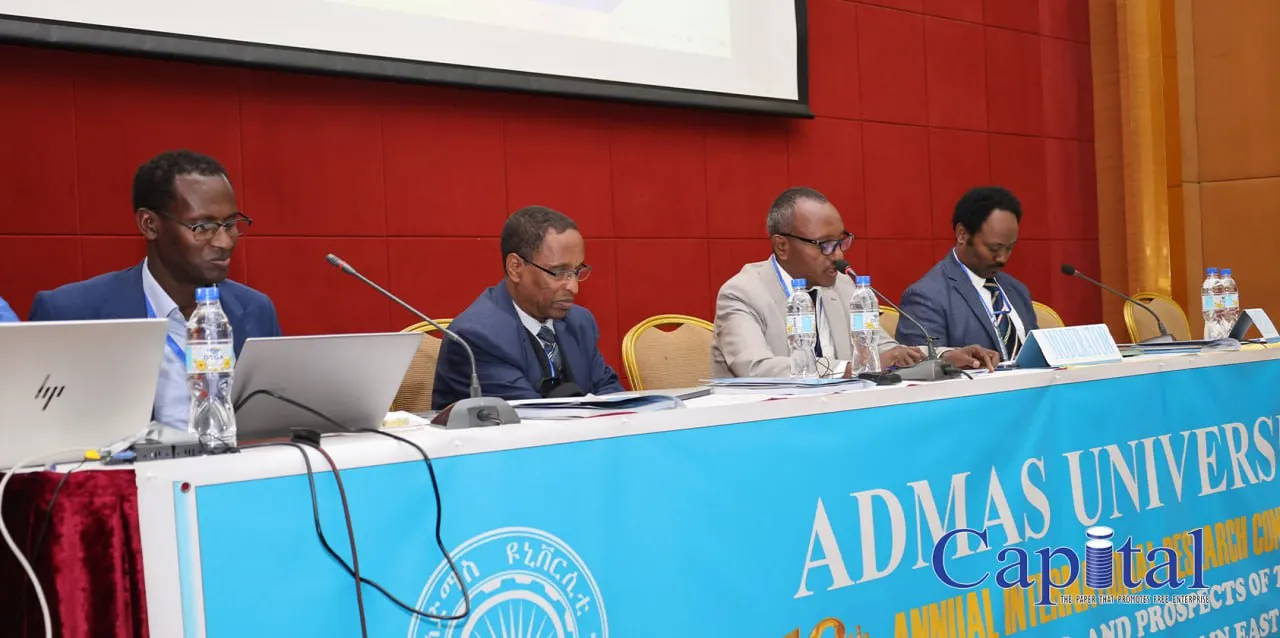

Ethiopia set to increase gold production by 10 tons
The Ministry of Mines of Ethiopia said the country’s gold production will soon increase by 10 tons when there gold mining companies go operational. This is indicated by the state minister of the Ministry, Million Mathewos, who spoke to the state-owned Ethiopian News Agency. The new goldmining are located in Benishangul, Gambela, and Tigray states, with the largest facility in KurmukDistrcit, Benishangul-Gumuz State, projected to produce about nine tons of gold per year. The Minister stated that once completed, these projects will boost the country’s gold production by an additional 10 tons annually, significantly contributing to mineral exports and increasing foreign currency earnings. In addition to these developments, the Gugi Gold Mining Company is undergoing major project expansion, and plans are in place to launch potash mining projects in Afar State, Million revealed. Reports show that last year Ethiopia secured $420 million from mineral exports with the majority of earning coming from gold. When all the new gold mining projects go operational, Ethiopia expects to earn some $800 million from the sector this fiscal year. Over the past few years the mining sector in Ethiopia has been negatively affected by the insecurities and instability leading to the decline of foreign currency earning.

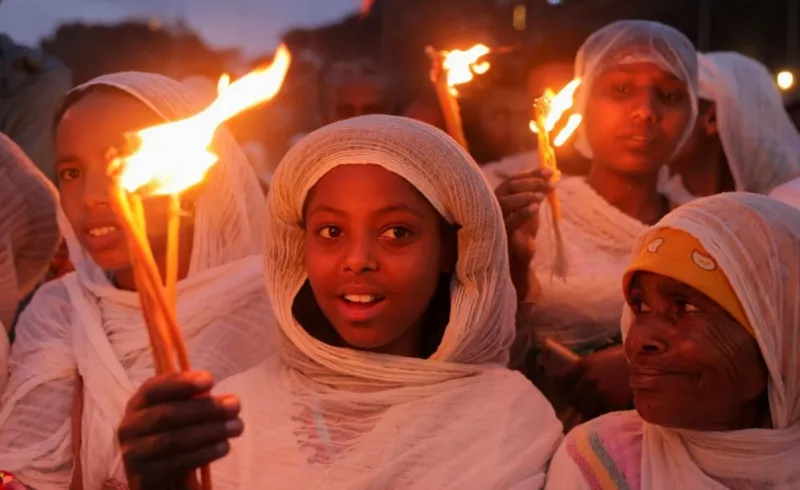
Ethiopia festival fires burn bright despite downpour
Thousands in Ethiopia's capital city defied a downpour to celebrate Meskel, the first big festival of the religious year.
It marks the discovery of the cross Jesus was crucified on, according to Ethiopian Orthodox Christian tradition.
On Thursday, believers gathered in a large public plaza in Addis Ababa for rituals, speeches and even a spot of theatre.
But the highlight was the lighting of a bonfire in the centre of the square.
There was heavy security presence at this year's celebration - personnel numbers have been beefed up at many major events in Ethiopia amid sporadic fighting in regions such as Amhara and Oromia.
Traditional instruments play a significant role in Meskel proceedings.
Heavy rain fell at one point during the evening, prompting musicians playing the 10-stringed begena to cover their instruments.
Vocalists also put on a show.
This all-female choir adorned themselves with mock versions of adey abeba, an indigenous flower that symbolises the Ethiopian New Year, which was marked earlier this month.

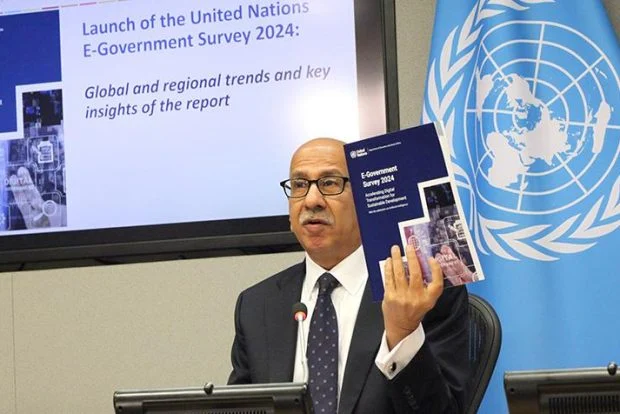
Ethiopia Remains Near Bottom in Latest UN E-government Index
Ethiopia was ranked 24th from the bottom out of 193 countries by a United Nations E-government development report released last week. While the country climbed 10 positions from its previous rank of 179 in the 13th edition of the report, it remains categorized in the lower-middle tier with a minimum first-level rating. The E-government survey report also highlights interesting differences between different regions, with most European countries grouped very high in the E-Government Development Index. In contrast, African countries remain around the bottom. With most low-income countries having underdeveloped metrics to evaluate the success of their digital government efforts, impact assessment remains limited.


Ethiopia bans the import of gasoline and diesel vehicles
Ethiopia has made a bold and unprecedented move by becoming the first country to ban the import of gasoline and diesel vehicles. The country is pushing for a rapid transition to electric vehicles (EVs), signaling a profound shift in its environmental and energy policies.
Ethiopia’s decision to eliminate gasoline and diesel vehicles stands as a watershed moment for environmental policy on the continent and globally. With the world’s dependence on fossil fuels continuing to drive climate change, this decisive step shows Ethiopia’s willingness to confront the crisis head-on. By forcing the importation to switch to electric vehicles, the government is proactively investing in a sustainable future. While many other nations are gradually moving towards phasing out fossil fuel-powered cars, Ethiopia has leapfrogged this trend by introducing a full ban, sending a clear message that the transition to greener transportation is not only possible but essential. For years, Ethiopia has struggled with the economic burden of fuel imports, which have weighed heavily on its foreign exchange reserves. Importing gasoline and diesel has been a costly affair, eating into the nation’s budget and making the economy vulnerable to fluctuations in global fuel prices. Now, the ban on fossil fuel vehicles is a strategic move to reduce this dependency and free up resources for other pressing needs.
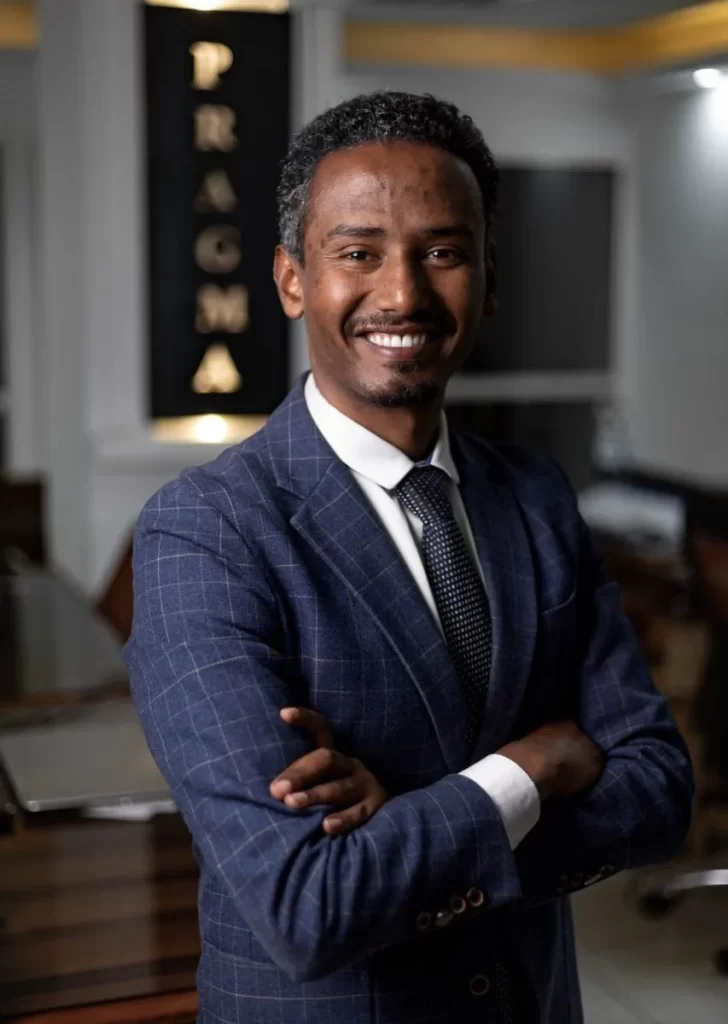
Primed for Ethiopia’s Capital Market: The Rise of Mered
Mered Bisrat, founder and CEO of Pragma Investment Advisory, stands as a key figure in Ethiopia’s upcoming capital market. At just 31, he skillfully uses his personal and company’s social media presence to share insights and provide updates on the sector’s latest developments. His expertise is regularly sought out by media outlets, where he offers informed commentary on broader economic issues. Behind the scenes, Mered is working on launching an investment bank, with aspirations of establishing it as Ethiopia’s premier institution in the field. Yet, Mered’s involvement with the capital market dates back long before Ethiopia officially announced its establishment in late 2018. His passion for the field runs deep—his close friends even called him a “capital market nerd” well before his path as an investment banker was cemented. On a Thursday afternoon, Mered Bisrat Fikreyohannes was quickly wrapping up a one-on-one meeting in his cozy advisory office at Meskel Flower. Surrounded by walls plastered with sticky notes a flickering screen broadcasting Bloomberg Business News intermittently catches his gaze. The CEO of Pragma Investment Advisory has always had the capital market-focused TV channel as his go-to source of information— nearly 15 years before he was poised to participate in it. Mered is the firstborn of three brothers raised in Addis Ababa by civil servant parents. He completed his formative education at St.Joseph’s School and embarked on his collegiate odyssey at Addis Abeba University (AAU).


Ethiopia’s Government Considers Berbera Port for Fuel Imports as Djibouti Depot Faces Capacity Declines
The Ethiopian government is awaiting a decision regarding the importation of fuel through Berbera Port in Somaliland, a move prompted by ongoing issues with fuel distribution and service capacity at the Horizon Oil Storage Depot in Djibouti. The Horizon depot has seen a reduction in service capacity, leading to disruptions in the fuel supply chain within Ethiopia. Ato Lemesa Tulu, director of oil products marketing research at the Oil and Energy Authority, highlighted that the diminished capacity of the Horizon depot has resulted in a shortfall in fuel availability. “The government doesn’t have a problem buying fuel,” Mr. Lemesa stated, adding that the Horizon depot has not undergone repairs since its establishment 18 years ago, contributing to its current limitations. Ethiopia requires approximately ten million liters of diesel daily; however, shipments from Djibouti have decreased, with only eight million liters being released per day. Mr. Lemesa emphasized the necessity of exploring alternative ports to address this supply issue. He mentioned that research has been conducted to determine how much fuel can be imported through Djibouti, with recommendations to use Berbera Port for the remainder. “Berbera Port has been identified as having adequate service facilities, and a recommendation to utilize this port has been submitted to the government for consideration,” he noted. Without a resolution to the challenges at Djibouti’s port, Mr. Lemesa warned that disruptions in fuel supply could persist into the next year.

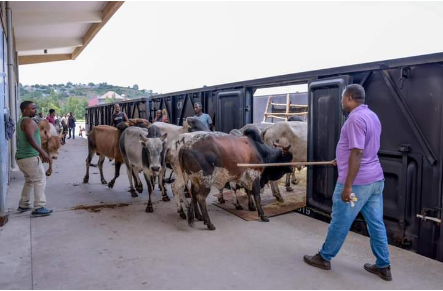
Ethiopia Launches First-Ever Livestock Transport by Train to Djibouti
For the first time, Ethiopia has started transporting livestock by train to Djibouti. Chief Executive Officer of the Ethio-Djibouti Railway Joint Stock Company, Engineer Takele Uma, announced the launch of the railway transport service for livestock from Adama to Djibouti. Engineer Takele Uma recalled that previously, railway transport was only used for importing goods into the country. He stated that this new service will enhance Ethiopia’s export capacity. He added that the Ethio-Djibouti railway through Adama will boost the export of quality meat products to international markets and help reduce traffic congestion. In a post on his social media page, Engineer Takele Uma emphasized that the introduction of this service demonstrates Ethiopia’s commitment to conducting efficient and sustainable business in the sector.

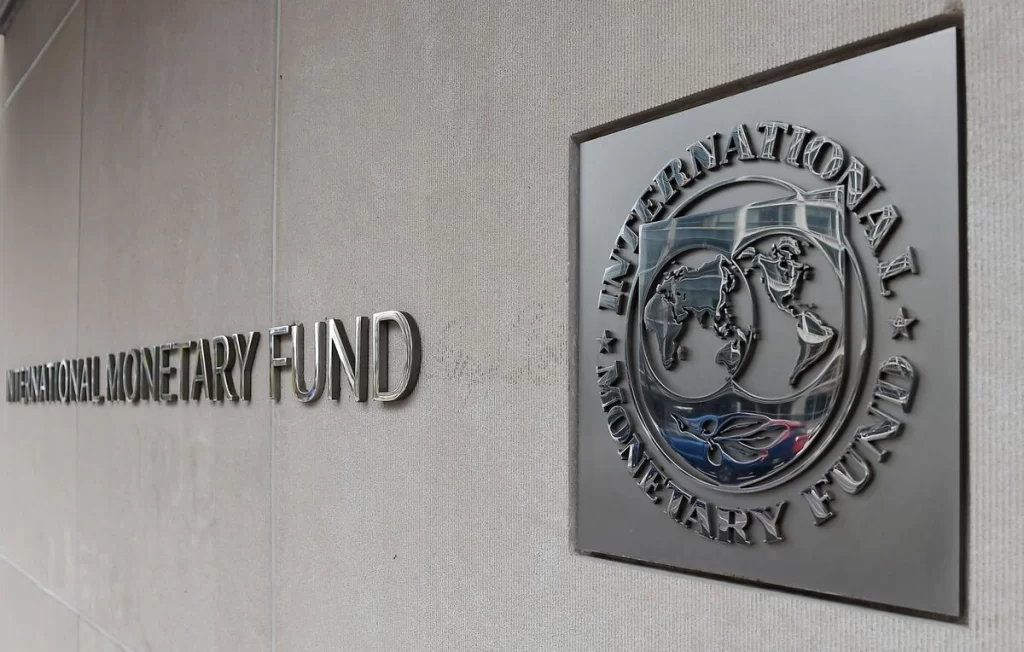
Ethiopia’s IMF Program Pins on Digitization for Success
Ethiopia’s four-year economic reform program, supported by a 3.4 billion dollar Extended Credit Facility (ECF), entails thorough digitization across multiple public sectors. The International Monetary Fund (IMF)-backed program includes expansion of e-payments in the rural safety net program, installment of digital supervision of state-owned enterprises, and electronic tariff valuation. Several details laid out in the 144-page document, which includes staff appraisals and current reforms, highlight the introduction of key digital reforms across multiple public services to improve efficiency. Aiming to improve financial management the Ministry of Finance, is developing a digital reporting system that monitors State Owned Enterprise (SOE) sector financial flows, quasi-fiscal operations, contingent liabilities, and fiscal risk management. Despite non-concessional external borrowing being reduced to zero in recent years, an accrued debt stock of above 8 billion dollars by SOE, or 28% of Ethiopia’s external debt stock, still resides in the Enterprises. SOEs’ key performance indicators and monitoring of financial relations between SOEs and the state, including financial flows (subsidies, lending, and tax obligations), implicit transfers (public service obligations—PSO, preferential tax regimes), and loan guarantees and contingent liabilities will be facilitated through the system. A budget for the IT project has already been approved, while it is expected to be operational by June 2025.
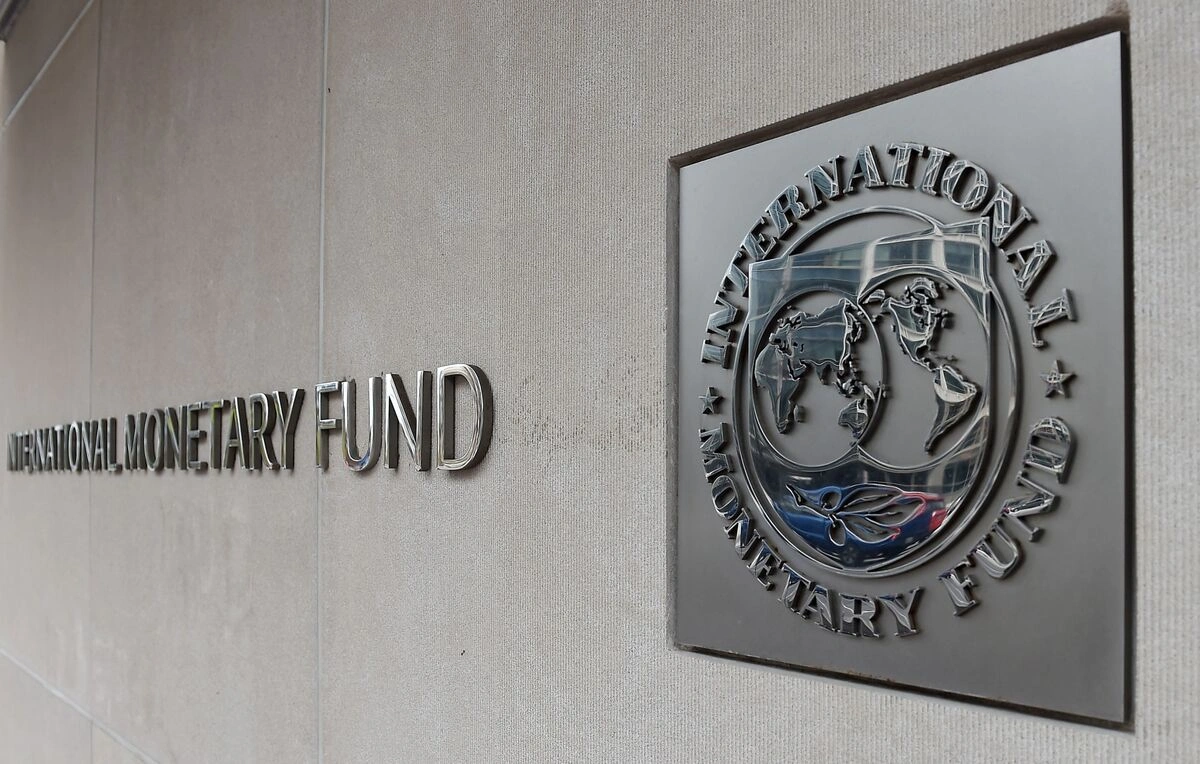

Herrana Addisu’s Film “River” Sheds Light On Beauty Standards In Ethiopian Culture
What does visibility look like? Growing up in Ethiopia, SheaMoisture Grant-winning filmmaker and artist Herrana Addisu’s life’s work has been devoted to shedding light on women in conflict and beauty standards in her home country. This is also the case in her recent film River, supported by Tina Knowles. “[River is] a story I’ve been writing in my head my whole life because it’s the existence and livelihood of my childhood,” Addisu tells ESSENCE. After winning the Blueprint Grant last August, SheaMoisture sponsored her creative agency Chucha Studios to produce the film, actualizing a narrative the Black community can relate to. Honing in on culturally-sensitive and political themes—from water and education access to ancestral lessons, forced marriage, and beauty standards—Adisu took the funds back to Ethiopia (to collaborate with the local production house Qene Films) to tell her story. “I wanted the film to have complicated conversations that we don’t always have in this day and age,” she says. For example, Ethiopian stick and poke body tattooing (called “Niksat”) is a common tradition strung through each of her pieces. “Growing up, I always thought it was so beautiful,” she says. “But, there is this sense of resentment towards it because a lot of women didn’t feel like they consented to having a permanent tattoo.”

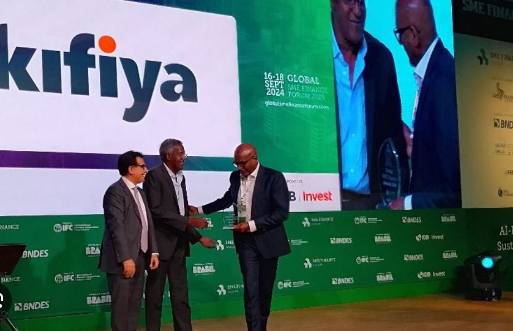
Ethiopia’s Kifiya Earns Global Recognition for AI-Powered Financial Solutions
Kifiya, a leading AI-powered, alternative data-driven scoring, embedded finance, and AgTech company, has been awarded the prestigious Silver Award in the Product Innovation of the Year category in Africa at the Global SME Finance Awards 2024, held as part of the Global SME Finance Forum in São Paulo, Brazil on September 17, 2024. The Global SME Finance Awards, organized by the International Finance Corporation (IFC) and the SME Finance Forum, recognizes and celebrates institutions that have delivered innovative products and services and achieved impressive results in expanding finance and services to SMEs. Kifiya is the first Ethiopian company to win this award. This recognition highlights the company’s commitment to building a digitally and financially inclusive future by leveraging AI and cutting-edge technology to bridge the credit and market access gap in Sub-Saharan Africa.
Receiving this award reflects our ongoing dedication to empowering African MSMEs, SHFs and low-middle-income individuals through AI-powered and data-driven solutions. This also demonstrates Ethiopia’s new-found drive for innovation led by the reforms instituted by our Prime Minister, Dr. Abiy Ahmed, which have created an enabling environment and policies that foster and encourage innovation, allowing companies like ours to thrive.

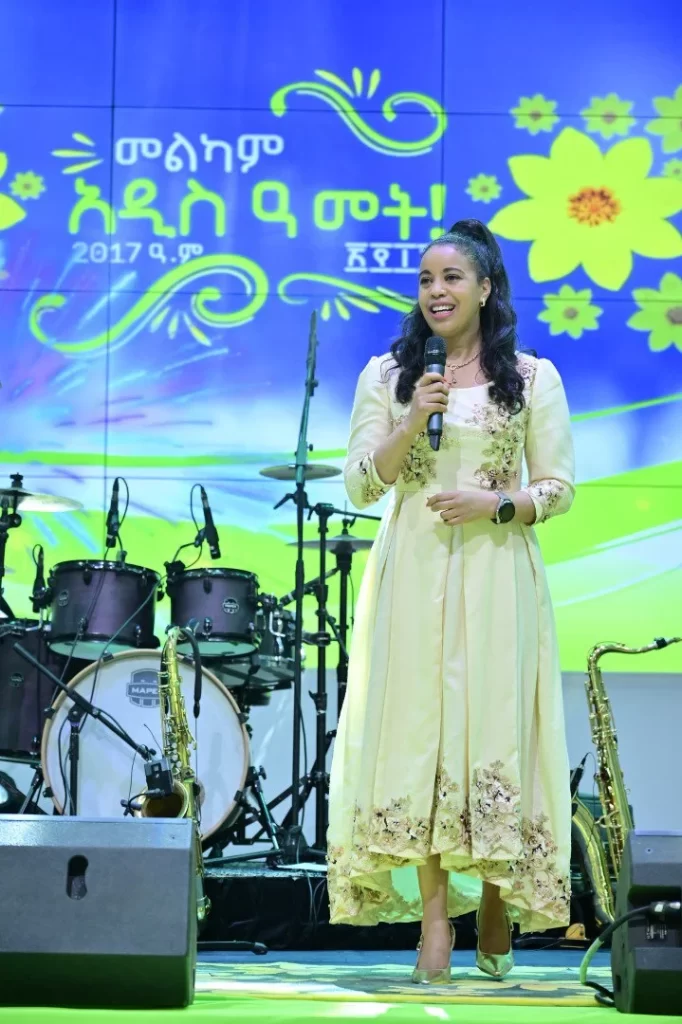
Ethio Telecom Rolls Out $1 Billion Budget for Massive Expansion
Ethio Telecom, the state-owned telecom provider with 130 years of service, has unveiled a formidable budget of around $1 billion as it gears up to launch 260 new products and services in the coming year. CEO Firehiwot Tamiru presented the annual plan for the fiscal year at Skylight Hotel on Thursday, outlining ambitious growth driven by an expected five million new mobile subscribers and eight million additional users of its mobile money platform, Telebirr. The expansion plan includes significant infrastructure development, with 1,298 new mobile sites and 920 kilometers of new fiber networks, extending 4G coverage to 500 more cities and bringing 5G services to 15 additional cities. Firehiwot also revealed an ambitious revenue target, aiming for a 75% increase to reach 163.7 billion birr ($1.1 billion) by 2024/25. Last year the state-owned operator garnered 93 billion birr. The company plans to boost foreign currency earnings by 42%, targeting an additional $84.8 million on top of this year’s $198 million.

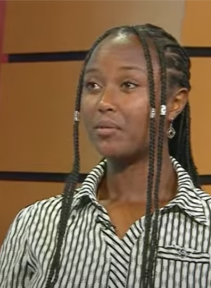
From street football in Ethiopia to the US Super League
A dream has come true for Loza Abera, who this month became the first Ethiopian woman to sign a contract to play professional women’s football in the United States. "I am thrilled," she said during a TV interview with VOA’s Horn of Africa Service. "I used to say to my friends, ‘I will be the first woman professional international player.’ No one believed me during that time … this was my dream," Loza said of her journey from playing street football outside her home in a small town in southern Ethiopia to a professional league in America. Earlier this month, Washington’s entry in a newly formed Division 1 women’s football league announced the signing of Loza, the captain of Ethiopia’s Women’s National Team. The club, DC Power, said it was the first-ever contract for an Ethiopian-born woman’s football player in a first-division U.S. professional league. Loza, 26, says she understands she has a responsibility to not just achieve her own dream, but also to inspire other Ethiopians. "I thank God for helping me reach here. I was happy."
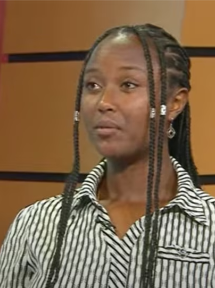

Business Ethiopian Airlines to Make History with Africa’s First Airbus A350-1000 Arrival in October
Ethiopian Airlines is poised to make history with the delivery of the Airbus A350-1000, scheduled for October. This landmark event will see Ethiopian Airlines become the first African carrier to operate this state-of-the-art aircraft, underscoring its leadership role in the continent’s aviation sector. The Airbus A350-1000 is a cutting-edge addition to the A350 family, designed to offer superior performance and efficiency. With a passenger capacity ranging from 350 to 410, depending on the configuration, the A350-1000 is ideal for accommodating both economy and premium passengers on long-haul routes. This increased capacity allows Ethiopian Airlines to better serve its expanding network of international destinations and respond to growing passenger demand. One of the standout features of the A350-1000 is its impressive range of approximately 8,000 nautical miles (15,000 kilometers). This extended range allows for non-stop flights between major global hubs, reducing the need for intermediate stops and offering a more streamlined travel experience. The aircraft’s advanced aerodynamics, including a larger wingspan and new wing designs, enhance fuel efficiency and contribute to a lower environmental footprint compared to older aircraft models. The A350-1000 is powered by the Rolls-Royce Trent XWB engines, which are known for their quiet operation and fuel efficiency. These engines represent a significant advancement in aviation technology, providing not only improved performance but also a reduction in noise pollution—a crucial factor for airports and surrounding communities. Passenger comfort is a key focus of the A350-1000’s design. The aircraft features a spacious cabin with larger windows, which allow more natural light and offer panoramic views. The seating arrangements are designed to provide more space and comfort, while the improved air quality and advanced lighting systems contribute to a more pleasant flying experience. These features are especially beneficial for long-haul flights, where passenger comfort is paramount.


How the west’s wellness industry is driving Ethiopia’s frankincense trees towards extinction
n Tseykeme, a village of stone farmsteads in northern Ethiopia 3,400 miles from the expensive shops of Covent Garden, a small copse of frankincense trees clings to a rocky hillside. Their twisting branches are gnarled, and the flaky, paper-like bark resembles that of a birch. The trees’ trunks bear scars: raw red patches where the bark has been crudely hacked away.
Frankincense thieves come here almost every night, says Demstu Gebremichael, a local farmer. Usually, they work by moonlight, but Demstu can sometimes see the flash of torches as they scrape away the valuable white sap oozing from cuts in his trees.
For decades, 78-year-old Demstu harvested the frankincense himself, loaded it on to camels, and sold it in the nearest town, Abi Adi. The small sums of money it generated supplemented his income as a subsistence farmer. “This is how we bought things like clothes and school materials for the children,” says Demstu.
These days, however, he harvests “almost nothing”. The resin is stolen before he can collect it. Standing beneath one of his 36 frankincense trees, Demstu tells of beatings meted out to neighbours who confronted the thieves, mostly local young men who have lost their livelihoods to war and drought.
“People need to survive somehow,” says Demstu, “so they turn to this.”
As more people extract the resin from a shrinking number of trees, the future of the species – and of local farmers – is under threat. One of the first warnings that frankincense was teetering towards extinction came in 2011: a study of Boswellia papyrifera in northern Ethiopia predicted that 90% of the trees could disappear by 2060.


Billionaire’s Son Fumbles Bag with Fintech Startup
SunPay Solutions, a fintech startup with close ties to the Sunshine Investment Group, one of Ethiopia’s biggest conglomerates, had its license revoked by the National Bank of Ethiopia (NBE) for a long list of violations. The company received a two-month pilot permit for payment system operator and POS operator businesses two years ago and has failed to report its progress ever since. A letter written by Solomon Damtew, Director of the payment & settlement systems directorate at NBE, and copied to all banks in the country three weeks ago cites six violations that led to the revocation of the license. Failure to appoint a CEO, inability to renew a license, incapability to maintain a physical presence and inability to conduct a shareholders meeting are some of the transgressions to NBE directives, the Commercial Code, and the National Payment System Proclamation which led to actions against Sunpay. “Your payment system operator license for POS & payment gateway business has been revoked, effective August 27, 2024” reads the letter. Yonas Samuel, the youngest child of business mogul Samuel Tafesse, was a key figure and significant shareholder in the establishment of the fintech company. Yonas was leading Sunshine Investment Group’s foray into the technology sector with ambitions to also enter the ride-hailing and e-commerce scene.

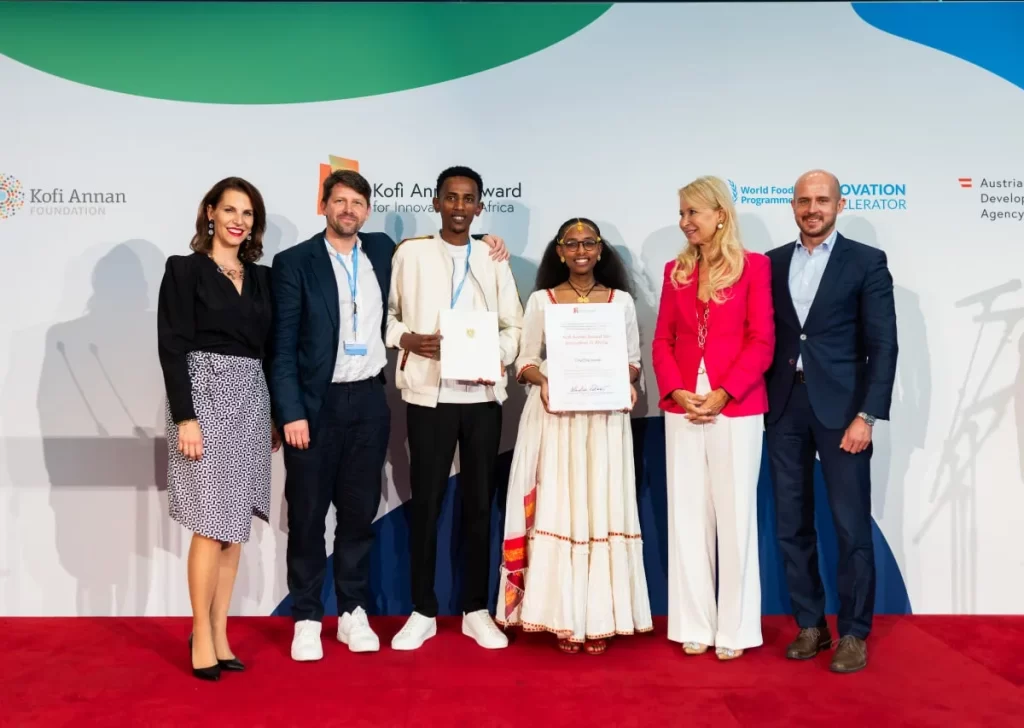
Ethiopian Social Buying Platform ChipChip Secures 30 Million Birr in Grant
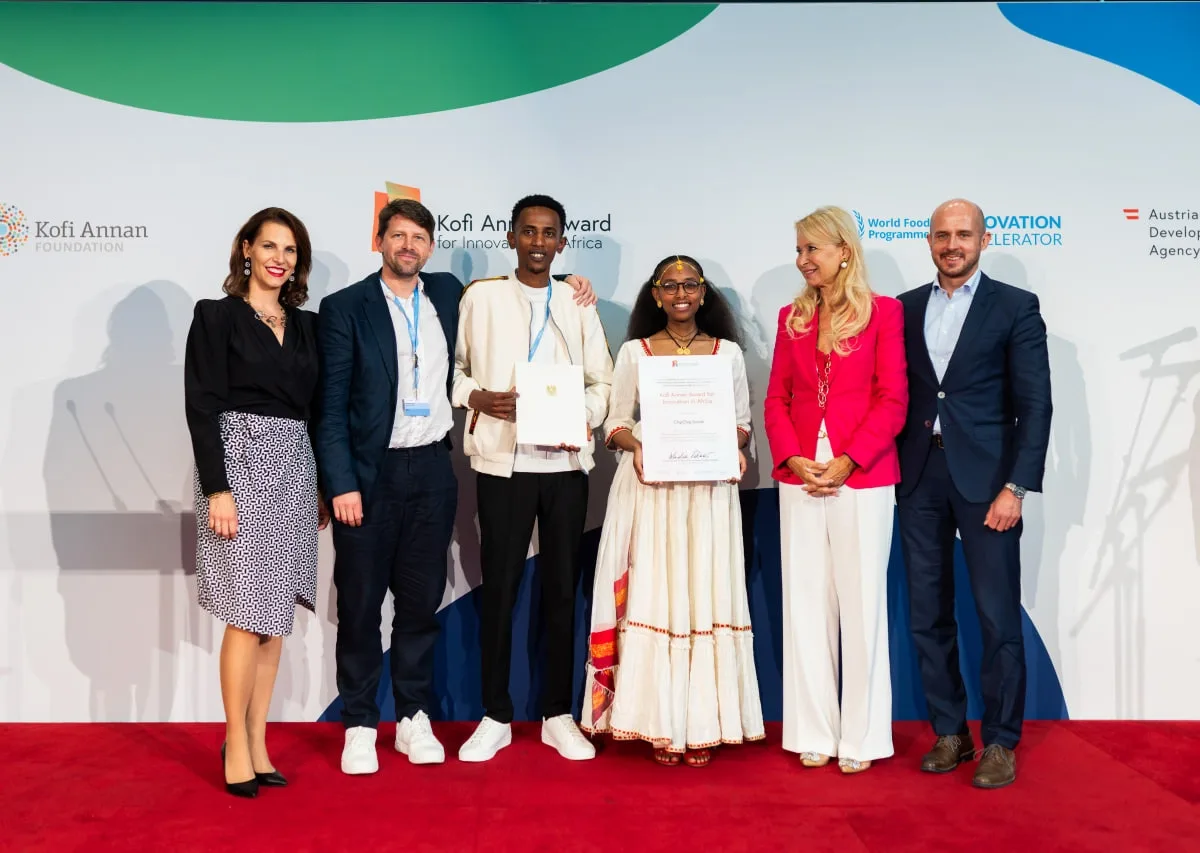

Ethiopia promotes coffee, tourism at int’l trade fair in Beijing
Ethiopia is promoting coffee and tourism -- its two pillar industries -- at the ongoing 2024 China International Fair for Trade in Services (CIFTIS) in Beijing.
At the Ethiopian national pavilion, where the rich aroma of coffee fills the air, Munteha Jemal, Plenipotentiary Minister of the Ethiopian Embassy in China, made and served authentic Ethiopian coffee as part of the country's traditional ceremony.
"In Ethiopia, when we have a coffee ceremony, the house owner not drink the coffee by himself. He's gathering all his neighbors around sitting here," she said.
The process involves roasting, grinding, and boiling the coffee beans before brewing.
As the birthplace of coffee plant, Ethiopia boasts a variety of coffee types grown at different altitudes, each with its unique aroma.
"According to the places where these coffees grew, they have their own special aroma," said Jemal.
Another important sector Ethiopia is trying to promote at the CIFTIS is tourism.
"The tourist attraction places are placed in different parts of Ethiopia, the north, south, east, west, center. For example, if you go to the north you can get this one, to the east you can get this one. These are all registered in UNESCO," said Jemal while showcasing the country's tourism map.

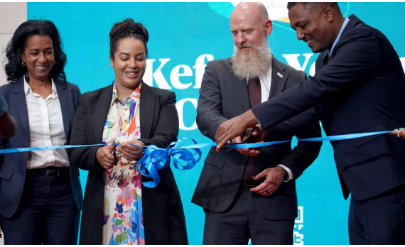
USAID Backed Ethiopian SACCO Loans out Millions
A youth-focused savings and credit cooperative (SACCO), supported by a $60 million USAID grant under the Kefeta Integrated Youth Activity, has distributed nearly 50 million birr in loans. The initiative, facilitated by Amref Health Africa, began two years ago in Hawassa, Sidama Regional State, with 55 members. It has since expanded to 7,810 members and accumulated 60 million birr in savings. The Kefeta National Youth Saving and Credit Cooperatives was officially launched last week at the Skylight Hotel by Minister of Women & Social Affairs Ergoge Tesfaye (PhD), who hinted at possible prospects of evolving into a bank. She lauded the psychosocial support provided by Amref as fundamentally aligned with the Ministry’s efforts at curtailing damages arising from prevalent drug use in Ethiopia’s youth. “It’s inclusivity is remarkable,” Ergoge remarked. In 2022, the United States Agency for International Development (USAID) introduced the $60 million (3.1 billion birr) program aimed at empowering two million vulnerable youth across Ethiopia. Over a five-year period, the USAID Kefeta initiative—which means “to elevate” in Amharic—seeks to assist youth in 18 cities to secure meaningful employment and amplify their voices in Ethiopia’s civic discourse through a combination of social, civic, and economic development projects. It also aims to enhance youth access to essential services such as banking, family planning, and healthcare. Kefeta’s youth-focused SACCO has made significant headway in expanding inclusivity, with females accounting for 38% of its members and disabled youth at 6%.
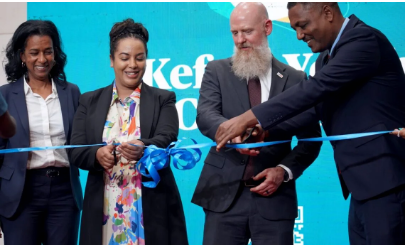

On Ethiopian New Year, “Meskel Flower” Is a Love Letter to Our Culture
Every September 11—as the rains retreat and the earth drinks its final drops—the golden petals of the Meskel flower are blooming across Ethiopia. They blanket the highlands in yellow brilliance, a living tapestry that signals the dawn of a new year: Enkutatash, the Ethiopian New Year. While the world waits for the cold grip of winter to mark the start of its calendar, Ethiopia steps into 2017, holding onto a unique timeline rooted in its own heritage. In a world hurtling toward 2025, Ethiopia stands anchored in its own rhythm, a subtle reminder that time moves differently here, steeped in the kind of history and culture that refuses to be rushed. This isn’t just another New Year. It’s a reclamation. A renaissance. As Ghana's 'Year of Return' turned the eyes of the African diaspora back to the continent, Ethiopia has quietly been sparking its own cultural revival, one that transcends tourism. It is a deep reconnection with roots, an affirmation that despite conflict and struggle, this ancient land is not only surviving—it is thriving. Ethiopia has always set the stage for global influence—starting with Lucy, the oldest human ancestor, who marked the very beginning of humanity. One of the only African nations that was never colonized, as Ethiopia remained unbroken, the world took notice. The red, yellow, and green of its flag didn’t just represent a nation; they became the symbol for independence movements across the globe.

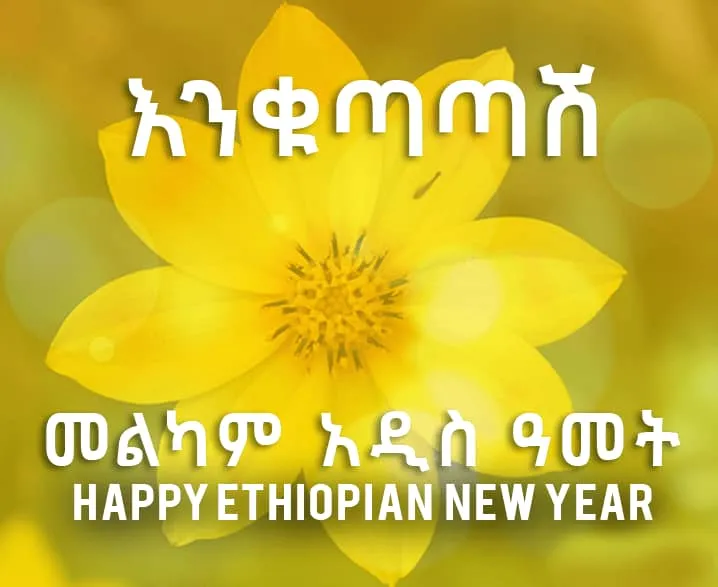
Happy Ethiopian New Year!
As Ethiopia is starting the new year, we would like to express best wishes to all Ethiopians ! Melkam Addis Amet! Happy 2017!!!


New Ethiopian Dating App Puts Modern Spin on Lemon-Tossing Custom
A centuries-old Ethiopian holiday tradition of tossing lemons (Lomii in Amharic), onto romantic prospects is getting a 21st-century reboot with the ‘Lomii’ dating app. Two tech developers who found themselves closed off from the dating scene during COVID-19-induced lockdowns found a way to fuse their cultural roots, tech skills, and entrepreneurial aspirations. Users express interest in each other by throwing lemons (Lomii) to each other very much like the age-old tradition during Timket holidays with a basket of offerings availed each day. The dating app, which was officially launched in January, has racked up 21,000 users who prefer its easy-to-use green interface in their romantic pursuits. Bereket Lakew, cofounder of Lomii, had an ‘Aha’ moment amid the throes of the global pandemic as he found most offerings in the market ill-suited to his social battery. He and cofounder Ismael Kedir went about creating a beta version over the coming months that can best cater to a uniquely Ethiopian flavor. “We were surprised by the immediate wave of downloads,” Berket told Shega. Within three days of the beta launch, over 3,000 people downloaded the app, with the traffic overload crashing the service. The founders recognized a pent-up demand for their product and went on a lengthy optimization campaign to equip Lomii with expanded functionality.

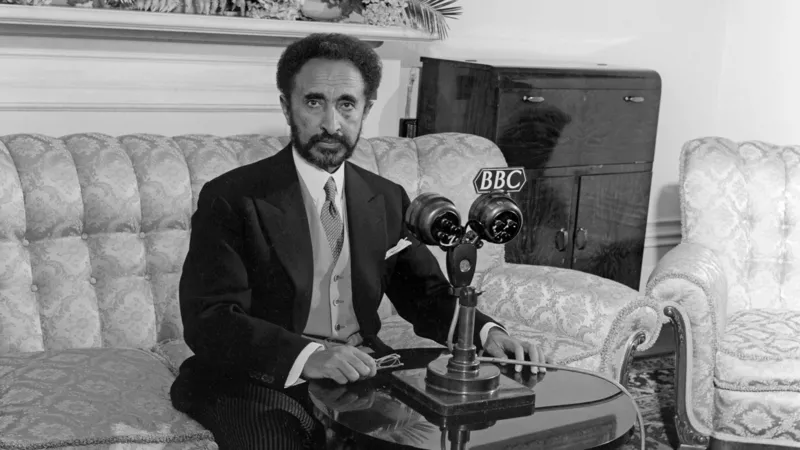
How an Ethiopian emperor ended up living in Bath
It has been 50 years since an emperor, described by many as the "Father of Africa", was overthrown by security forces known as the Derg in a “creeping coup”.
His Imperial Majesty Emperor Haile Selassie I was hailed around the world as a hero against fascist forces. But unbeknown to many is that the popular sovereign spent many years campaigning against Italian dictator Benito Mussolini from his West Country home in Bath, between 1936 to 1940.
University of the West of England professor Shawn Naphtali Sobers has been sharing the story of the emperor's exile in England in a new programme for the BBC World Service.
The Ethiopian leader arrived in London's Paddington Station to huge crowds. However, his passionate speeches against Mussolini, who had invaded Emperor Selassie's home country, was an "embarrassment" to the UK government, which were seen as "keeping Mussolini cosy".
Emperor Selassie was ordered to "go out to the provinces", so he soon settled in Bath.
All of his family and staff moved to Fairfield House and quickly became the talk of the city.
Despite how "noticeable" they were, the emperor became "engrained" in the community, said prof Sobers.
"He was really a people person," he said, explaining Emperor Selassie once refused to skip the queue for Weston-super-Mare's Tropicana resort.


Addis Ababa Introduces Digital Parking Tickets
Addis Ababa’s Traffic Management Authority (TMA) is stepping up its city-wide automation efforts with the introduction of digital parking tickets in the Ethiopian New Year. The Authority aims to streamline the capital’s fragmented parking procedures, currently managed by 350 youth unions, through enhanced digital oversight. Biniyam Getachew, Director of Parking Research & Management at the Authority, anticipates increased revenue generation and a reduction in parking ticket-related hassles. The Authority has partnered with local technology company Infratech to develop the software. Parking officers in each neighborhood will use this app to register the time of parking, length of stay, and moment of departure for each vehicle, with payments facilitated through all digital banking services. “The days of arguing with parking officers are over,” Binyam asserted. “Ticket prices are automatically calculated.” TMA is also importing 1,500 tablets for distribution to traffic police. These devices are intended to assist officers in operations such as issuing fines, verifying the legality of driving licenses, and tracking drivers who evade parking tickets. The Authority collects a fifth of the earnings from parking officers, who are often criticized for inconsistent ticketing practices.


Ethiopian New Year Remittance Guide: 6 Smart Money-Saving Apps
As the Ethiopian New Year beckons, an infectious festive atmosphere is pulsating through the capital. Shops are teeming with holiday shoppers; beauty salons are packed with customers, and most ATMs feature long queues. As with any other holiday, the festive spirit comes with a hefty price tag requiring occasional financial support. With a diaspora population estimated to be at least 3 million, many households look to loved ones abroad for some holiday financial offerings to help with holiday expenses. Following the shift to a market-based foreign exchange two months ago, this holiday’s remittance flows are more likely than ever to pass through formal banking institutions as the difference to parallel markets dwindles. Cognizant of the potential for increased flows, Ethiopia’s commercial banks are offering discounts, bonuses, and incentives as they compete for a slice of the market. Shega has compiled a short list of available offerings from Ethiopia’s banks that are navigating innovative alternatives this holiday season. So, whether you’re sending Euros, Dollars, Riyals, or any other currency, here are six options that may help with the decision.
CashGo
Commercial Bank of Ethiopia, Dashen Bank, and Bank of Abyssinia are all providing a 16% bonus on remittances sent through CashGo. The app enables users to remit funds using their Master Card, Visa Card, or American Express Card via their mobile phones. This card-based remittance is instant, and the receiver gets credited in Birr to their bank account.
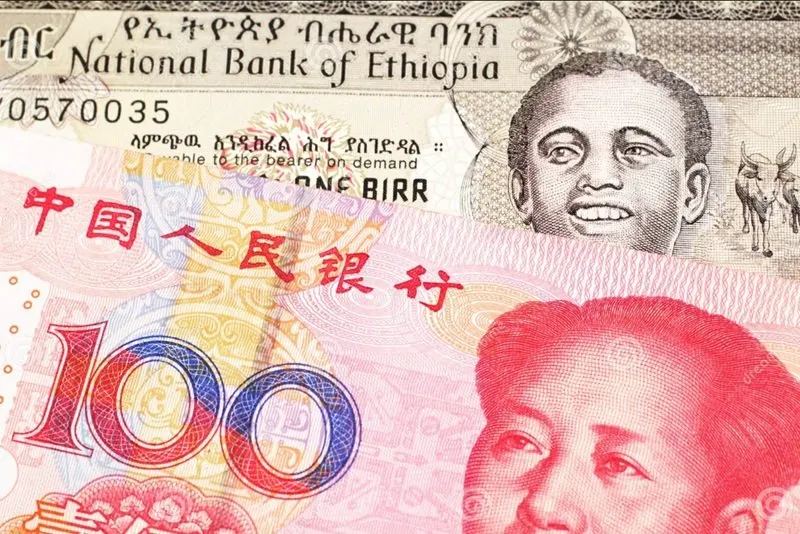
China, Ethiopia moving in the direction of currency swap
China’s economic influence in Africa has been growing and Ethiopia has been one of the countries that benefited from the former’s economic presence. Now Ethiopia and China are poised to take their economic relation to the next level as agreement has been reached between the two countries for currency swap. Ahmed Shide, Ethiopia’s Minister for Finance, revealed this in an interview with the state media. However, details of the amount of currency swap is undisclosed at this time. What is indicated is that the National Banks of China and Ethiopia are instructed to work on it. Timeline for finalization is unspecified too. Chinese financial service providers will be operating in Ethiopia as part of the arrangement for the currency swap, according to Ahmed Shide. Ethiopia has been struggling with hard currency shortages in recent years. In July this year, Ethiopia signed a currency swap agreement with the United Arab Emirates amounting to U.S. $817 million which is believed to ease the reserve shortage for U.S. dollars. There is speculation that the currency swap arrangement with China could be much higher. Currently, China is the largest source of Foreign Direct Investment to Ethiopia and the largest trading partner.


United States (U.S.) Government Launches the Kefeta National Youth Saving and Credit Cooperatives
The United States Government through its Agency for International Development (USAID) launched the Kefeta National Youth Saving and Credit Cooperatives (SACCO) on September 5, a youth-led, youth-managed and youth-owned financial institution that will provide financial solutions friendly to young people and will support young entrepreneurs. The launch took place during the two-day Youth Development Learning Forum held September 5 and 6 at the Skylight Hotel. Kefeta’s SACCO mobilizes savings and provides access to affordable credit to assist the economic well-being of young people with a creative mix of youth-tailored financial products. The National SACCO puts their member’s interest first and provides a level of service generally unavailable to young people at other financial institutions. Knowledge of financial concepts like saving, investing, spending and borrowing is the foundation of financial literacy and contributes to a sense of financial security for all people, but most needed by young people as they seek careers and independence. The National Youth SACCO, with branches in 18 Ethiopian cities, has over 7,800 youth members who own more than 38,900 shares and 59,007,640 Birr (USD 531,800) in savings. The Youth Development Learning Forum brought together key stakeholders, including government officials, youth representatives, and development experts to discuss challenges, opportunities, and best practices around youth access to finance in Ethiopia. The Forum featured panel discussions with successful young entrepreneurs and digital literacy influencers, sharing their experiences and insights.

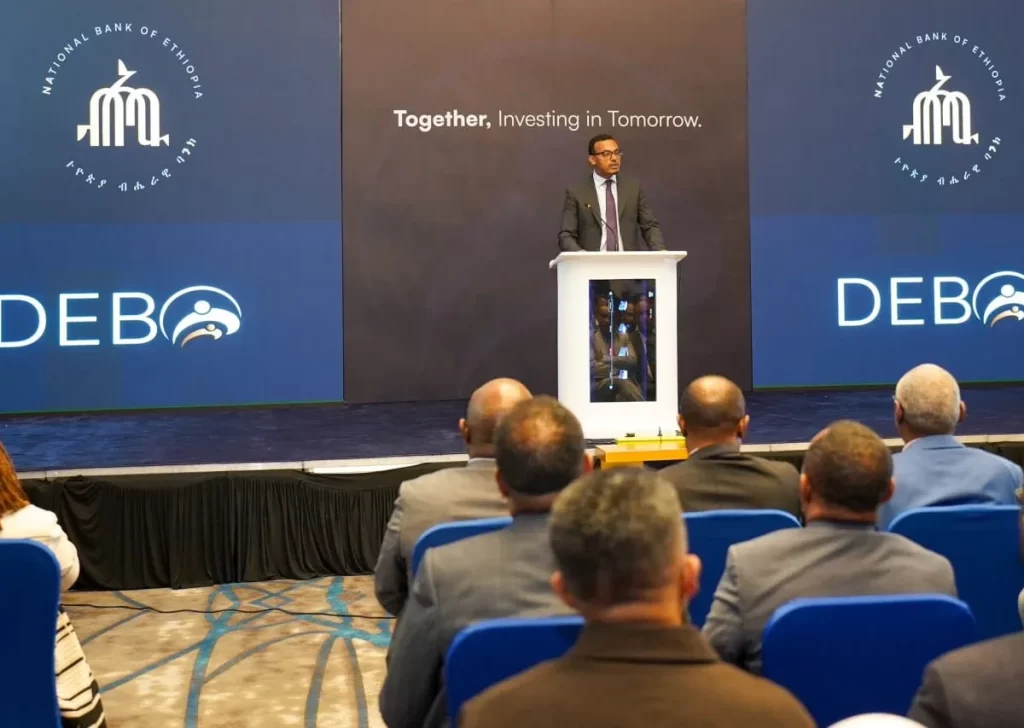
NBE Unveils Digital Banking Solution for Diaspora Amid Foreign Exchange Reforms
In a spirited financial gathering, the National Bank of Ethiopia (NBE) has launched a national portal designed to streamline the process for Ethiopians in the diaspora to virtually open bank accounts in both local and foreign currencies. Launched in collaboration with commercial banks, the platform is already integrated with 30 banks, allowing users to register and open accounts with multiple financial institutions in Ethiopia. Unite.et provides a unified web and mobile interface that simplifies account management and offers vital services such as loan applications and online account management. During the launch event at Skylight Hotel, NBE Governor Mamo Mihretu emphasized the importance of foreign exchange management reforms and their positive impact on Ethiopia’s economy. “We are undergoing significant economic reforms, and the NBE is committed to providing banking solutions for non-resident Ethiopians,” he said. “Our goal is to ensure that these reforms benefit non-resident Ethiopians and contribute to the economy through formal remittance channels.” Unite.et, focuses on facilitating digital onboarding and banking services for millions of non-resident Ethiopians and persons of Ethiopian origin, enabling them to engage in banking, payments, and investment activities within Ethiopia.
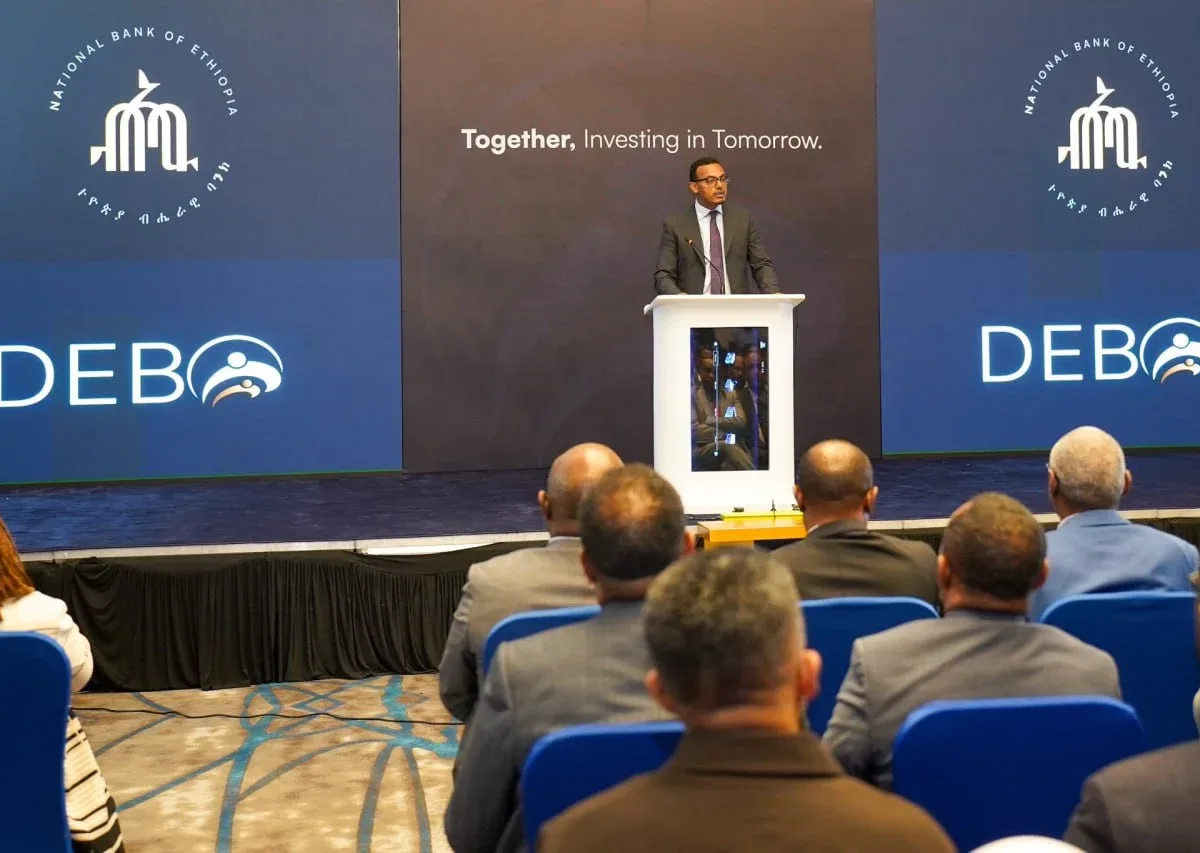

Commercial Bank of Ethiopia Collects 1.17 Trillion Birr Deposits
Ethiopia’s biggest financial institution, the state-owned Commercial Bank of Ethiopia (CBE) has crossed a formidable financial threshold as its deposits reached 1.17 trillion birr in the calendar year. CBE’s 11% rise in deposits aligned with significant strides in its loan disbursements with 218 billion birr given out during the year. With less than 10% of the loans going to the public sector, it marked a significant turnaround for an institution historically criticized for leaving out the private sector. The Bank’s figures were revealed during its performance dialogue session with the management of Ethiopian Investment Holding (EIH), the country’s sovereign wealth fund, mid-week. Attendees included freshly crowned CEO of the Fund Brook Taye (PhD) who has been conducting evaluations over the past two weeks, and CBE president Abie Sano. CBE, which holds 58% of banking assets in Ethiopia, is one of the top earners among the 26 state-owned enterprises within EIH’s portfolio. A month before Ethiopia adopted the four-year economic reform program prescribed by the International Monetary Fund (IMF), the Council of Ministers approved a capital raise for the Bank bolstered by 870 million billion birr(government securities). The reform program includes tight limits on SOE borrowing including CBE governance reform backed by the World Bank to enhance financial discipline. WB’s Financial Sector Strengthening Project (FSSP) of US$700 million will be used for recapitalization and continued support of the reform and restructuring of the bank. This will include a focus on governance and risk management, including CBE’s ownership policy, mandate, and business plan to ensure CBE can compete as a sound, viable, and commercially oriented bank at arms-length from the government as the financial sector is opened.

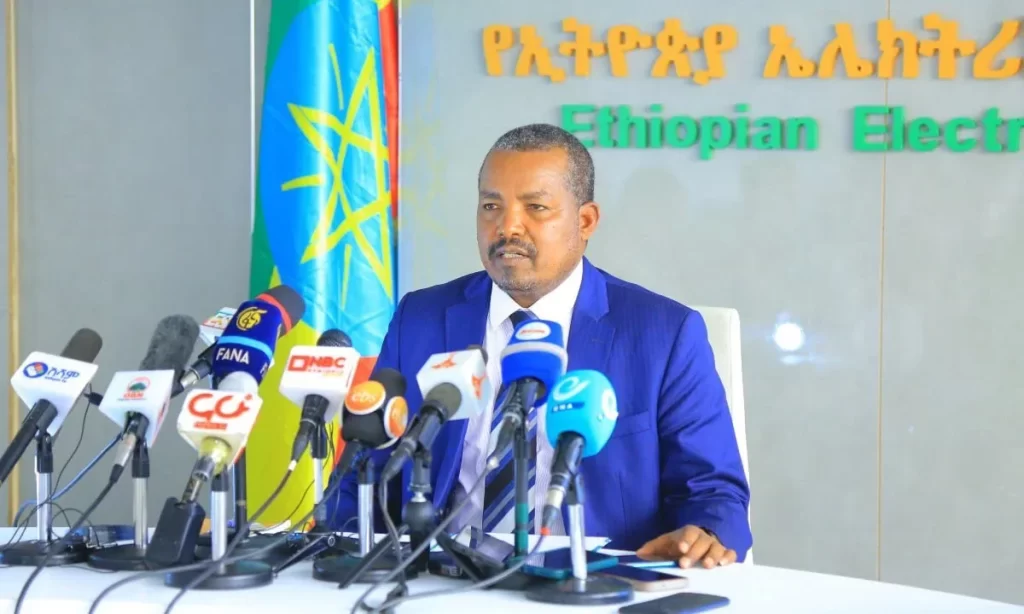
Electricity Costs Set for Nearly 400% Increase by 2028
The Ethiopian Electric Utility has announced a rolling increase in power tariffs over the next four years as part of a comprehensive power sector reform. Quarterly increments averaging 10% will be progressively applied, with the first round slated for next month. This will result in EEU customers facing an average power utility cost increase of 400% by 2028. Shiferaw Teilia (Eng), CEO of EEU, unveiled the new tariffs, which will be applied discriminately based on daily consumption rates, at Nib Bank’s headquarters on Wednesday morning. “We have to recover our costs,” he noted. “Our infrastructure is sourced from the global market.” The CEO indicated the need to maintain competitive prices for financial health, emphasizing how the adjusted rates still remain significantly less than neighboring Kenya. He expects the new strategy to boost EEU’s financial stability. “Our goal is to stimulate investment and foster competition,” Shiferaw noted. Households that use less than 50 kilowatt hours (kWH) at 0.27 birr will see their tariffs climb to 1.56 birr as the four-year program is completed by 2027/28. Per capita electricity consumption is 140 kWh per year in Ethiopia, which is only 5 percent of the global average of 33,131 kWh.
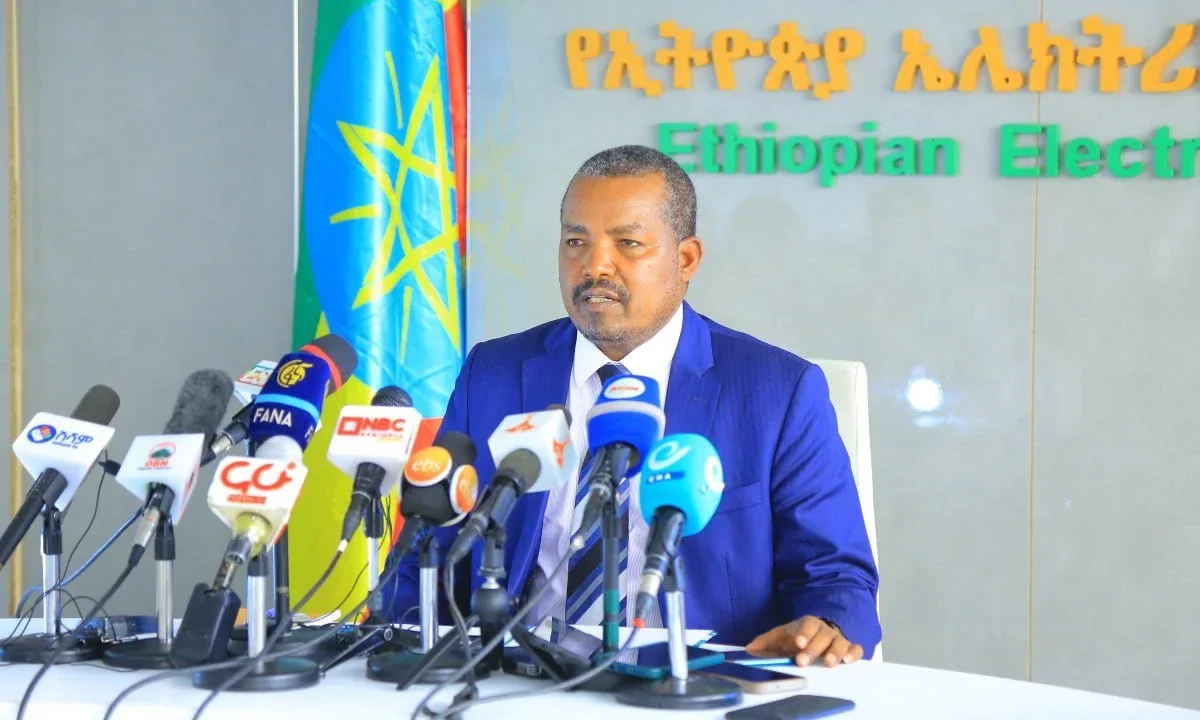

An entrepreneur’s journey from rural Ethiopia to global finance – and back
Yonas Alemu, founder of the food company Lovegrass Ethiopia, has navigated a remarkable path – from growing up in rural Ethiopia, to working as an investment banker in London, and ultimately returning to his homeland to start a business. In a recent interview with How we made it in Africa, Yonas reflected on his upbringing in a farming community in Ethiopia, where some of his earliest memories involve waking up before dawn to help in the teff fields. Teff, a tiny grass seed native to Ethiopia, is among the world’s oldest cultivated crops, domesticated between 6,000 and 4,000 BC. For millennia, Ethiopians have used teff flour to make injera, a flat, spongy sourdough bread that is a staple in their diet. Celebrated as a superfood, teff is gluten-free and rich in nutrients such as iron, magnesium, manganese, calcium, zinc, and vitamins B and C. Even Ethiopian elite runner Haile Gebrselassie has credited teff as a factor in his athletic success. In Yonas’s village, education was available only up to grade eight, after which many children returned to household chores and farming. However, Yonas’s parents were determined that all their children receive a proper education. To continue his studies, Yonas had to walk 12 kilometres to a nearby town. After a year of this arduous commute, his brother, who had established a business in Addis Ababa, took him to the capital, where Yonas completed his high school education.


Bob Geldof’s Private Equity Firm Exits Stake in Ethiopia’s Awash Wines
Private equity firm 8 Miles, associated with Irish rockstar and philanthropist Bob Geldof, has exited majority of its stake in Awash Wines, a leading wine producer in Ethiopia, for an undisclosed sum.
- The PE firm led a consortium to acquire 100% of Awash Wines in July 2013 and exited this September to a “strategic investor consortium.”
- Founded in 1936, Awash runs two wineries in Addis Ababa and makes many popular brands, including Axumit, Kemila, and Gouder.
- By 2020, 8 Miles had raised $150mn from several institutions including the African Development Bank, World Bank, and the British investment firm CDC.

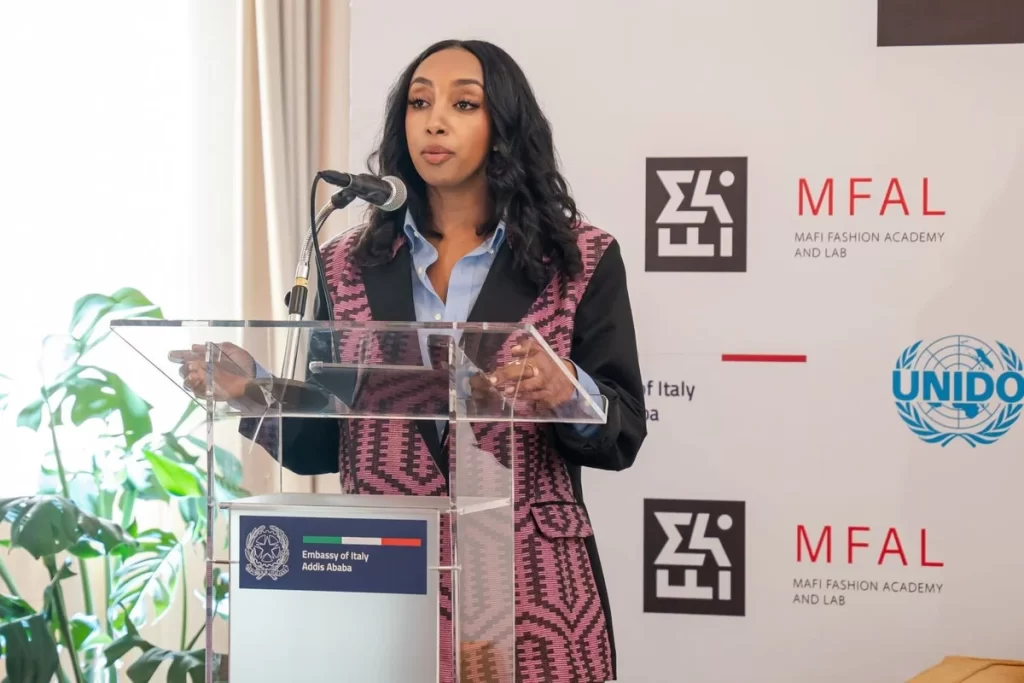
After Finding Success, Mahlet Afework is Shaping Africa’s Next Generation of Fashion Talent
Mahlet Afework has spent more than the last decade building one of Ethiopia’s most sustainable fashion labels: Mafi Mafi. The award-winning brand has been celebrated for its striking designs, seamlessly blending Ethiopian heritage with ready-to-wear fashion that has been showcased on catwalks from Lagos to London. Now, the visionary behind the label is channeling her experience into establishing one of the country's leading fashion schools. Driven by the challenges she encountered while building her label and the difficulty of finding skilled local talent, Afework is launching the Mafi Fashion Academy and Lab (MFAL) — a groundbreaking institution designed to bridge the gap in quality fashion education in Ethiopia and Africa. “I always wanted to open a fashion academy focused on quality education, but it was originally a dream for the distant future,” she tells OkayAfrica. “However, as Mafi Mafi began to grow, both locally and internationally, the demand for skilled talent surged. It became very difficult to find the right talent in the market, which made it clear that the time to act was now.” Fashion is actually Afework’s second career, having found fame as a rapper at the age of 16. But even then, fashion was at the forefront as she had to make her own clothes to create the aesthetic for her photoshoots and videos. “While doing that, I also designed and made fashion pieces at home. It didn’t take long for me to realize I wanted to focus on fashion,” she says. She explains that she taught herself to sew by using Google. When she could, she also tried to take technical classes locally, while also searching for scholarships to attend fashion schools in Europe and North America.
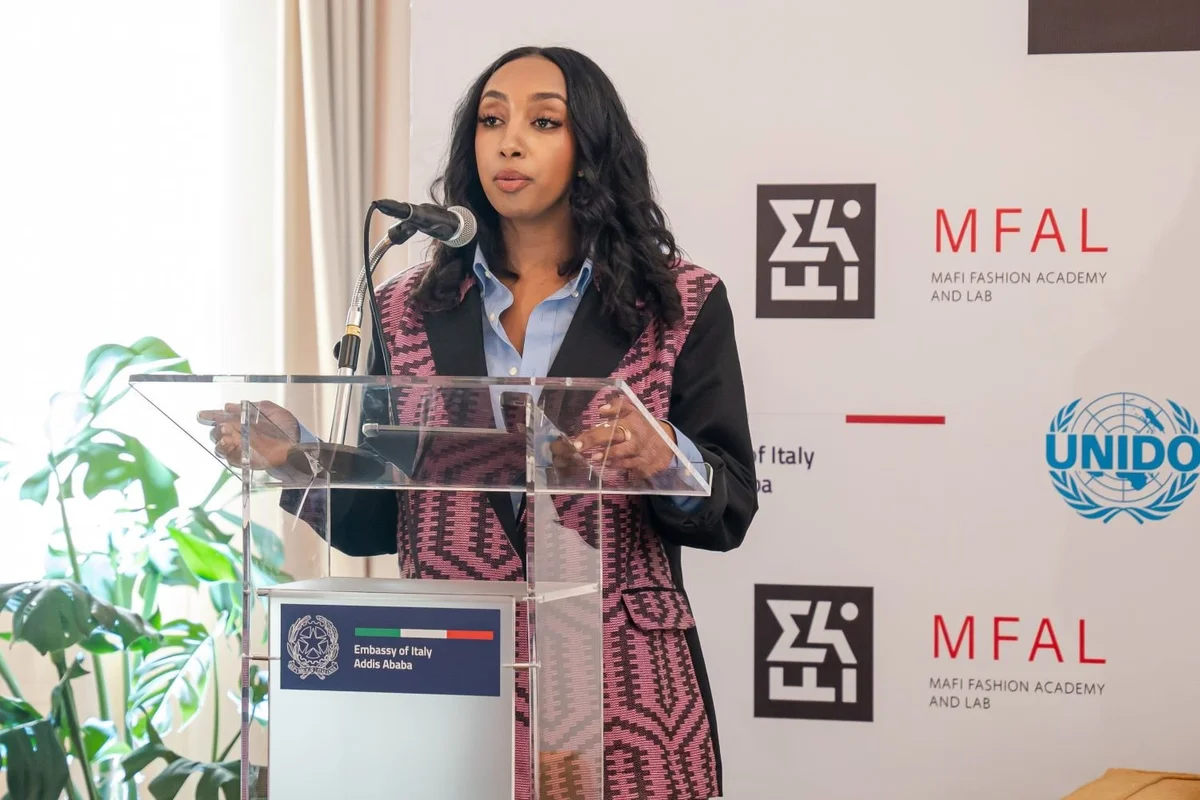

Ruth Girmay wins the Africa Talent Leather Design Showcase 2024
Ruth Girmay from Ethiopia has been awarded the prestigious Most Commendable Award at the Africa Talent Leather Design Showcase 2024 for the second consecutive year. Ruth’s innovative and environmentally conscious design, the “Overfishing Bag,” captivated the judges, marking her as a standout talent in Africa’s fashion industry. The announcement, typically reserved for the final event, was made early to ensure Ruth’s participation in the accelerated UK showcase. Ruth’s “Overfishing Bag,” inspired by the Nile Perch, is a creative response to the critical issue of overfishing. The bag’s design features elements like the caudal fin and spiny dorsal fin of the Nile Perch, serving as powerful symbols of marine conservation. This project not only exemplifies aesthetic excellence but also aligns perfectly with the competition’s theme of innovation, sustainability, design prowess, and commercial viability, making Ruth’s work a compelling blend of artistry and advocacy. Ruth Girmay’s repeat victory underscores her deep understanding of the thematic question posed by the Real Leather. Stay Different. Africa Design Showcase 2024: How can fashion drive environmental sustainability while preserving design prowess? Her “Overfishing Bag” is a profound response, highlighting the urgent need for environmental conservation through the lens of fashion. The judges were particularly impressed by Ruth’s ability to create a design that is both visually striking and deeply meaningful. Her use of materials and intricate patterns not only reflects her commitment to sustainability but also communicates a strong message about the impact of overfishing on marine ecosystems. Ruth’s design serves as a powerful reminder that fashion can be a force for positive change, addressing global challenges while celebrating design prowess.

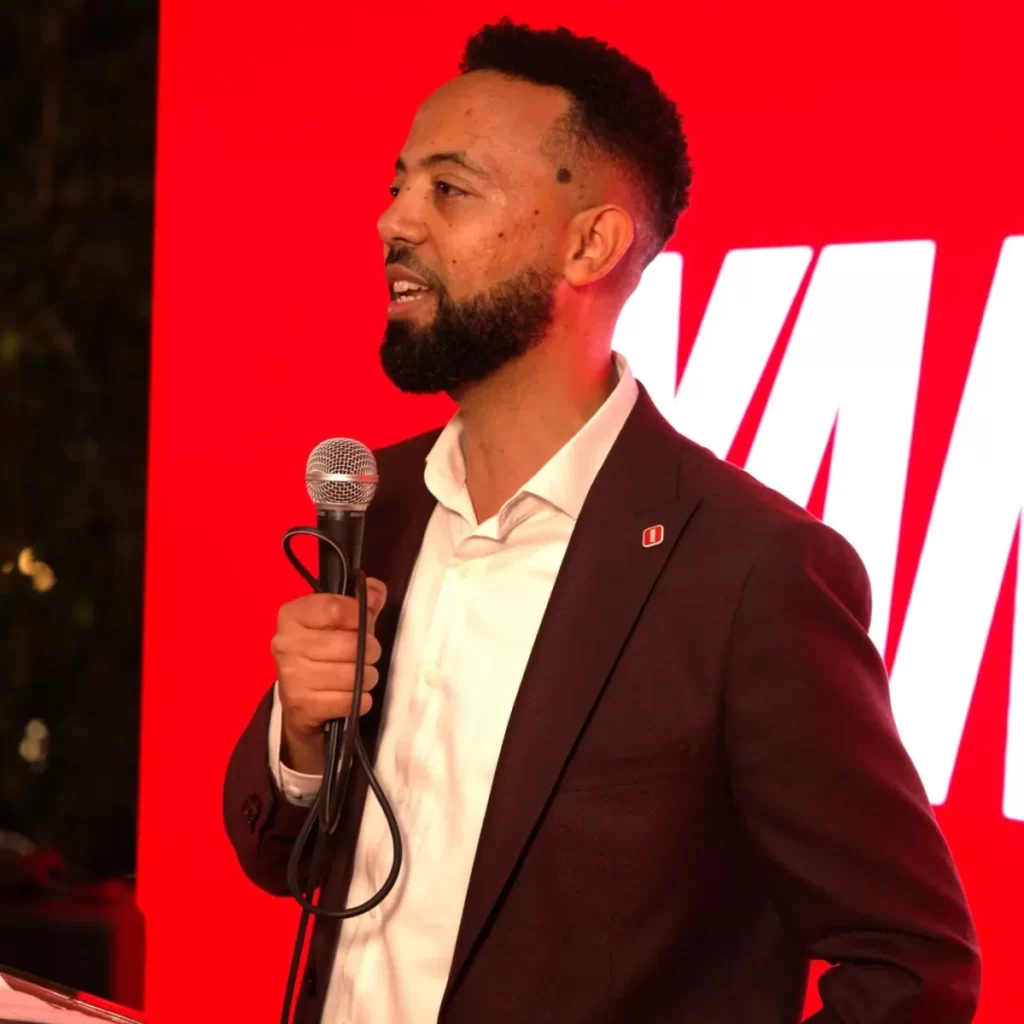
Yango Hits 1 Million Users in Ethiopia
Less than a year since its launch, Yango, an international ride-hailing service by Russian tech giant Yandex, has quickly made its mark on Ethiopia’s transport ecosystem. With competitive pricing that sets it apart from other operators, Yango’s marketing has proven irresistible for many passengers. In a sector where new platforms often struggle to survive, Yango’s rapid growth in user numbers mirrors the early success of Feres. Yango has achieved 1 million downloads within just ten months.
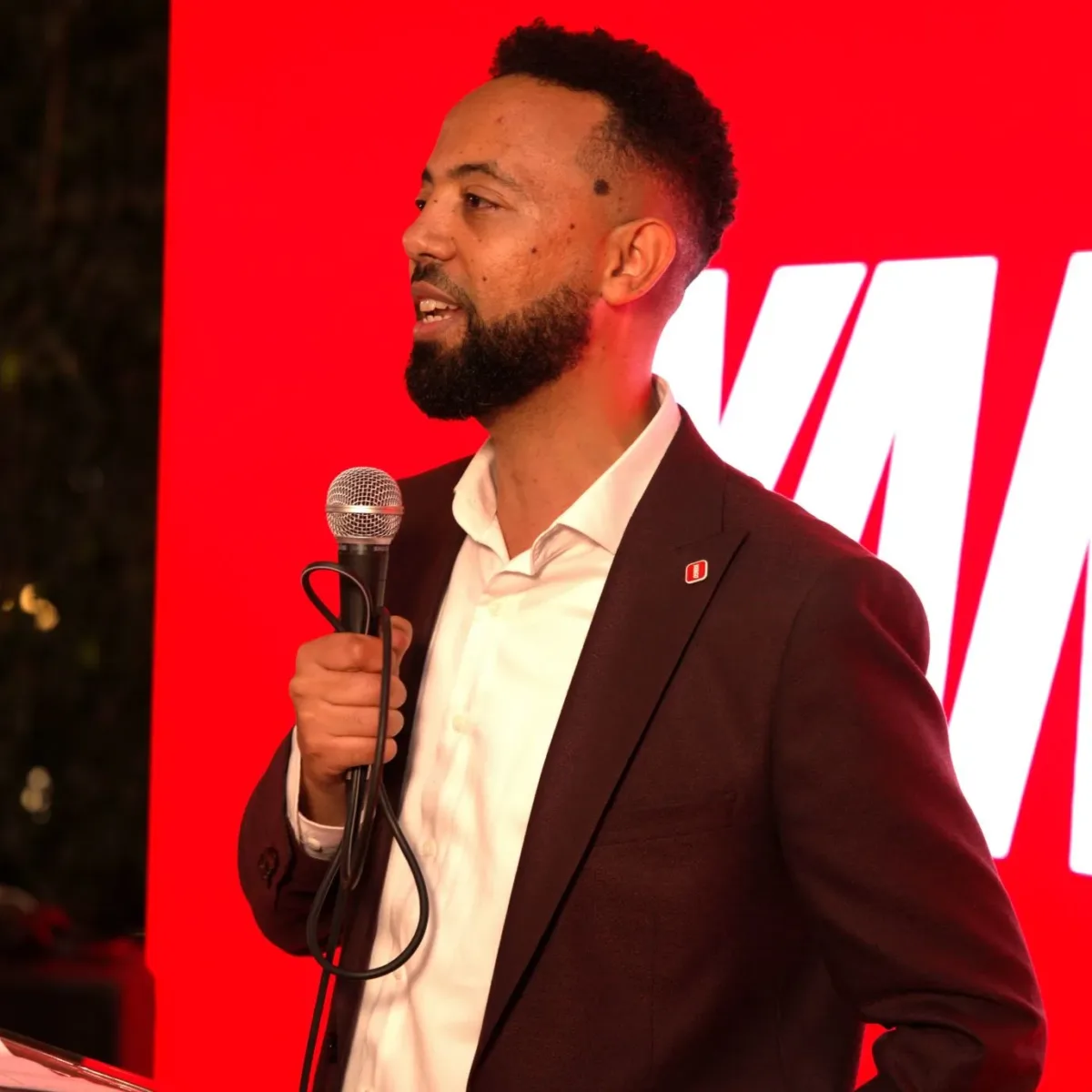

Meet the Black Teenager Fighting Cancer —With Soap He Invented
Overview: Skin cancer is one of the most common forms of the disease, but is treatable if caught early. Inspired by field workers in Ethiopia, Hemen Bekele’s invention could make skin cancer treatment affordable and accessible. (WIB) – Before he was old enough to start kindergarten, Heman Bekele began using dishwashing liquid and other household chemicals to see what concoctions he could whip up. At age 7, Heman’s parents gave him a chemistry set for his birthday — and things got a bit more serious. He’d already started learning about chemical reactions online, so he got inventive and mixed the kit’s sodium hydroxide with aluminum to produce heat. “I thought that this could be a solution to energy, to making an unlimited supply,” he told TIME magazine. His curiosity and desire to make the world a better place through chemistry resulted in a first-place finish in the 3M Company’s 2023 Young Scientist Challenge — and made him the winner of TIME magazine’s 2024 Kid of the Year. The rising 10th grader created a compound-based soap to treat skin cancer. The magazine said Heman’s “ambition” and “selflessness”earned him the recognition.

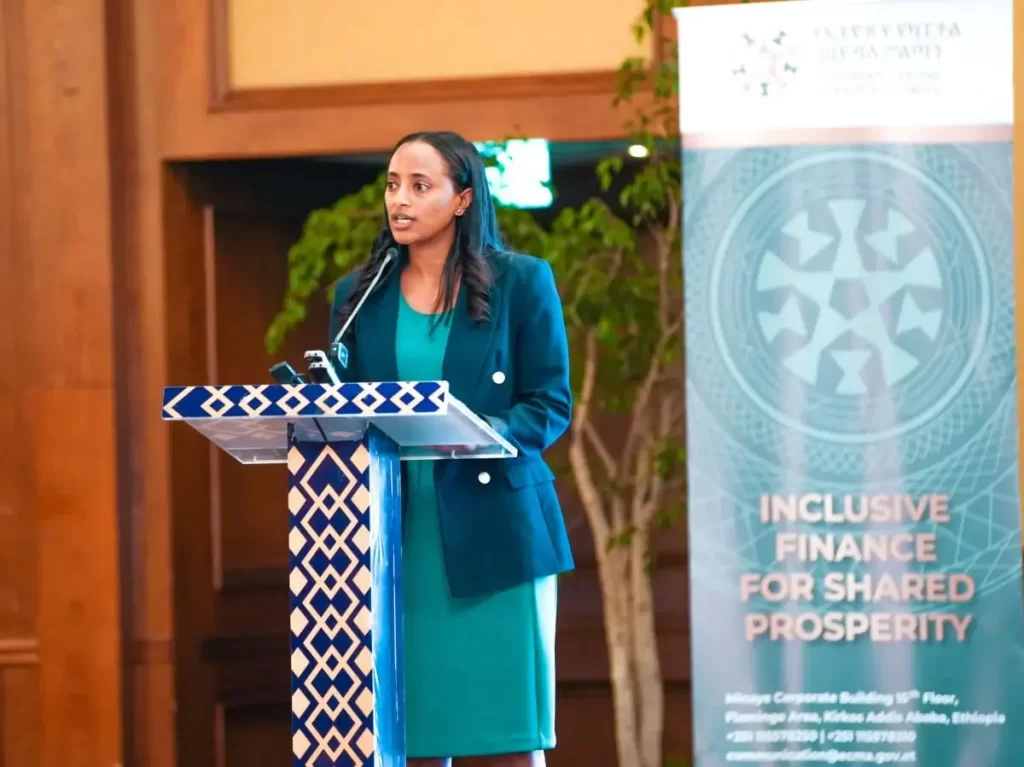
ECMA Opens Door to Capital Market Innovation with Launch of Sandbox
The Ethiopian Capital Market Authority (ECMA) has launched the country’s first regulatory sandbox, providing startups and established companies a flexible legal framework to test innovative capital market products and services with real customers. During the session held at the Sheraton Addis Hotel, ECMA’s freshly crowned director, Hanna Tehklu, highlighted the need for a dynamic regulatory landscape capable of adopting innovative products for accelerating economic growth. She pointed to potentials inherent in the Sandbox that can help refine products through collaborations between regulators and participants. “It can also serve as an incubator for ideas,” the DG noted. Originating in the United Kingdom eight years ago, regulatory sandboxes have since propelled numerous products into global markets, including in India and Australia. These sandboxes also provide authorities with valuable insights for developing regulations that keep pace with emerging technologies. The ECMA’s sandbox is open to both licensed firms, unlicensed firms involved in licensable activities, technology providers, and startups with market-ready products. Eligibility criteria include innovation, user benefits, the need for a sandbox, and a product ready for testing. Although the sandbox offers regulatory relief, participants must still adhere to overarching legal and regulatory standards that are not waived for testing. Developed in collaboration with the UNDP, UK firm MPENSA, and the ECMA, the Ethiopian sandbox aims to facilitate the transition of firms into the broader market after successful testing. ECMA will continue to support participants, offering regulatory tools such as Testing Approval Letters (TALs), modified licensing requirements, and, when necessary, waivers.
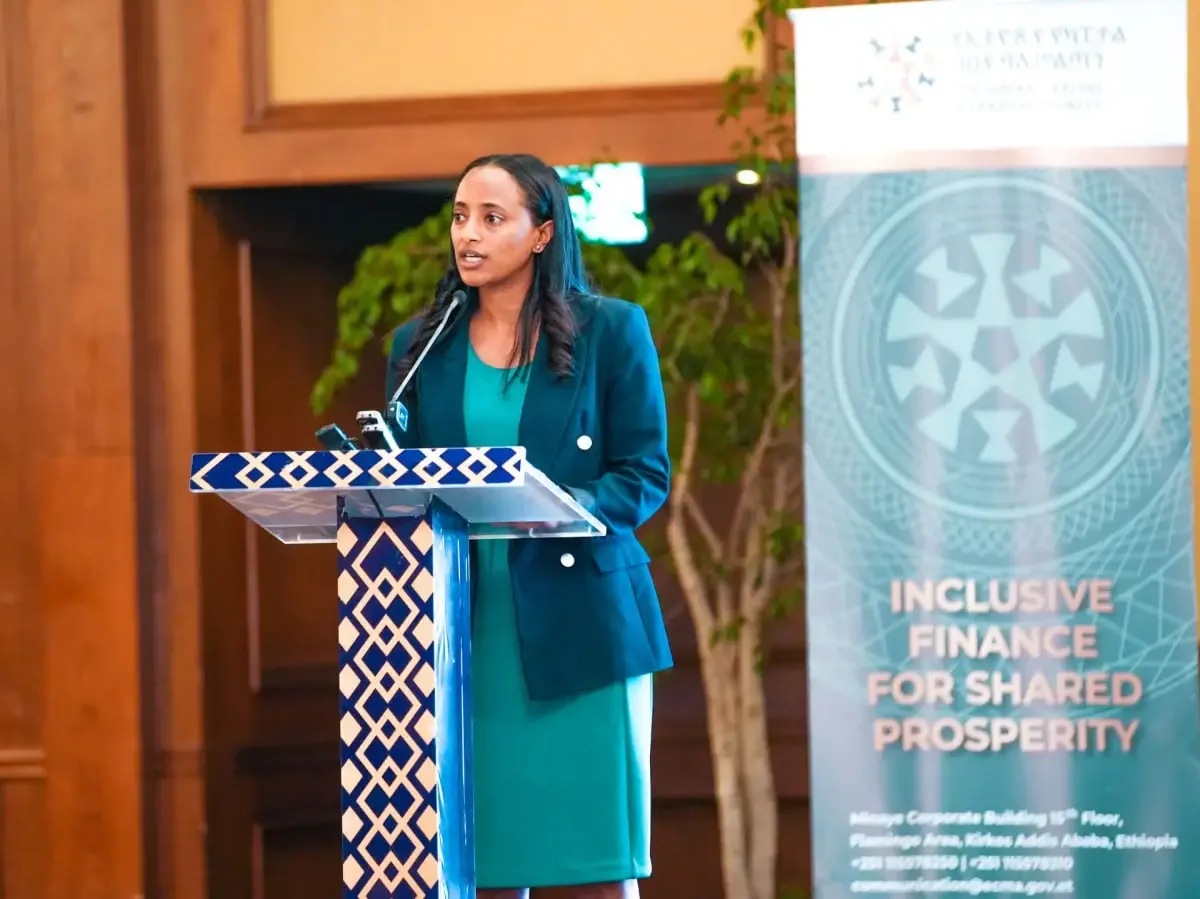

The businessman who exported Ethiopian teff pasta to Italy
Teff, a tiny grass seed native to Ethiopia, ranks among the world’s most ancient cultivated crops, having been domesticated between 6,000 and 4,000 BC. For thousands of years, Ethiopians have used teff flour to make ‘injera’, a flat, spongy sourdough bread that is a staple in their diets. Celebrated as a superfood, teff is gluten-free and rich in nutrients such as iron, magnesium, manganese, calcium, zinc, and vitamins B and C. Ethiopian elite runner Haile Gebrselassie has even credited teff as a factor in his athletic success. Investment-banker-turned-entrepreneur Yonas Alemu is the founder and managing director of Lovegrass Ethiopia, a health food company making a variety of items from teff and other Ethiopian grains. Its products include pasta, breakfast cereal, pancake mixes, powdered beverages and snacks. Lovegrass has a factory on the outskirts of Addis Ababa and sells both internationally and within Ethiopia.

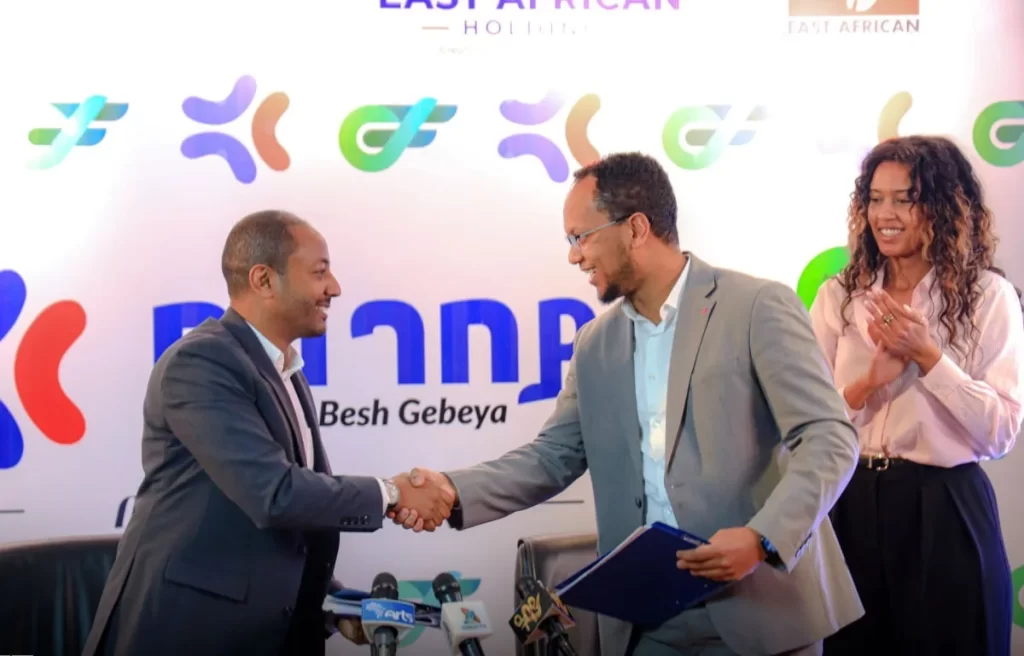
Trading Powerhouse East African Expands into Ecommerce, Partners with Chapa for Payments
East African Trading House (EATH), a major player in Ethiopia’s fast-moving consumer goods (FMCG) sector, is entering the ecommerce space with its new platform, Besh Gebeya. EATH has also partnered with Chapa Financial Technologies to streamline its payment processes. The strategic partnership was announced early Tuesday morning at EATH’s headquarters. Through this collaboration, EATH’s extensive network of suppliers, customers, and partners will gain access to the Besh Gebeya ecommerce platform, which is equipped with a digital payment infrastructure supporting mobile money, bank transfers, and credit and debit card transactions. Yonan Getachew, a Technology Developer at EATH, revealed that a year of collaboration preceded the development of the platform. He also mentioned that the delivery services will be outsourced to a third-party company. “Some integration procedures are still underway,” Yonan told Shega. East African Trading House (EATH), a major player in Ethiopia’s fast-moving consumer goods (FMCG) sector, is entering the ecommerce space with its new platform, Besh Gebeya. EATH has also partnered with Chapa Financial Technologies to streamline its payment processes. The strategic partnership was announced early Tuesday morning at EATH’s headquarters. Through this collaboration, EATH’s extensive network of suppliers, customers, and partners will gain access to the Besh Gebeya ecommerce platform, which is equipped with a digital payment infrastructure supporting mobile money, bank transfers, and credit and debit card transactions. Yonan Getachew, a Technology Developer at EATH, revealed that a year of collaboration preceded the development of the platform. He also mentioned that the delivery services will be outsourced to a third-party company. “Some integration procedures are still underway,” Yonan told Shega.
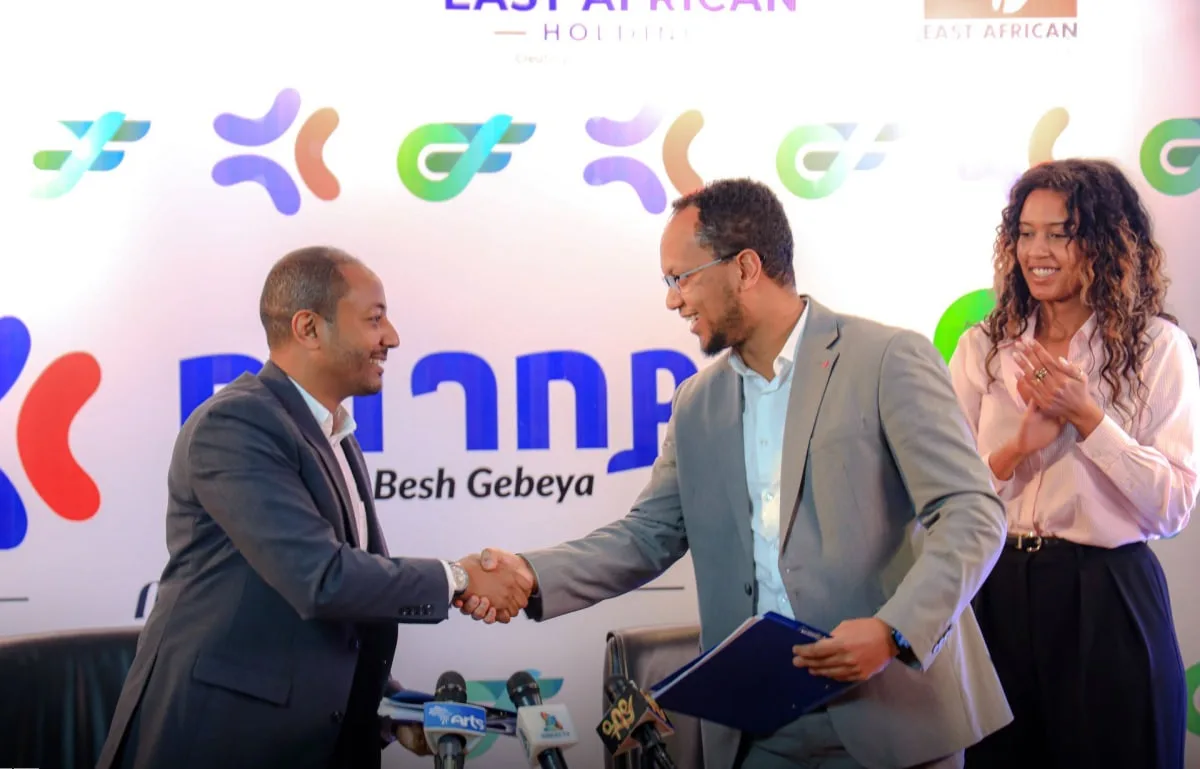
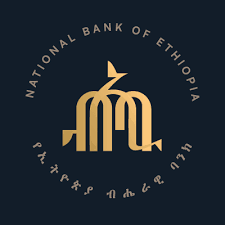
National Bank of Ethiopia Implements New Gold Pricing Directive to Boost Foreign Currency Earnings
August 21, 2016 – The National Bank of Ethiopia (NBE) has introduced an amended directive, effective today, aimed at revising the pricing mechanism for gold purchased through its central and regional procurement branches. The new guidelines, detailed in Guideline No. Mada 2/2016, are designed to enhance the sustainability of gold supplies and maximize the country’s foreign currency earnings from the traditional gold production sector.
Key Changes in the Gold Pricing System
Under the revised directive, the purchase price of gold will now be directly linked to the daily selling rate of foreign currency, as published on the NBE’s official website. This move is expected to align gold transactions more closely with real-time market conditions, offering a more transparent and competitive environment for gold suppliers.
In a bid to incentivize gold supplier associations and individual merchants, the NBE has introduced a new payment structure. The key provisions of the directive are as follows:
a) The gold purchase price will be determined based on the daily foreign currency selling rate stated on the NBE’s website. This ensures that the prices reflect current market conditions and provide suppliers with fair compensation.
b) Suppliers will receive 95% of the value of their gold upfront, with the remaining 5% reserved. If the 30th day falls on a holiday or weekend, the supplier may select the price on the next working day. However, if the supplier does not return within 30 days, the bank will purchase the gold at the price set on the 31st day. This provision offers a level of flexibility while ensuring suppliers are compensated promptly.


Ethiopia says mega-dam doubles electricity output
Ethiopia said it has more than doubled electricity production from its controversial mega-dam on the Blue Nile after two more turbines started operations. The multi-billion-dollar Grand Ethiopian Renaissance Dam (GERD), long a source of tensions with downstream nations Egypt and Sudan, is now generating 1,550 megawatts of electricity, GERD said in a post on X late Tuesday. "The overall progress of the GERD has now transitioned from construction phase to operation phase," it said, adding that construction of the concrete dam was now complete. "The two turbines generating 400MW each have now started operations, adding to the already functional two turbines generating 375MW each, totalling an output of 1,550MW." Ethiopia first began generating electricity at the dam in February 2022. It is ultimately expected to produce more than 5,000 megawatts, more than doubling Ethiopia's current output. Egypt and Sudan have voiced concerns about the operation of the dam without a three-way agreement, fearing it could threaten their access to vital Nile waters.


Ethiopia to begin export of electricity to Tanzania in September – EEP
The CEO of EEP, Engineer Ashebir Balcha, said at th weekend that the move was part of Ethiopia’s broader strategy to increase its revenue from the export of power to neighboring countries and beyond. “The power transmission to Tanzania is expected to begin by mid-September, following the completion of necessary preparations,” he said Balcha said that Ethiopia had earned over $140 million from power exports to neighboring nations in the past, which was a 6 per cent increase compared to the previous year. Ethiopia currently supplies power to neighboring Djibouti, Sudan and Kenya, with Tanzania to join this network soon. The planned power export to Tanzania is aligned with Ethiopia’s ongoing efforts to expand its regional energy connections. The country plans to extend its power grid to other neighboring countries, including South Sudan and Somaliland. The existing power line between Ethiopia and Kenya is expected to facilitate the new power export drive.

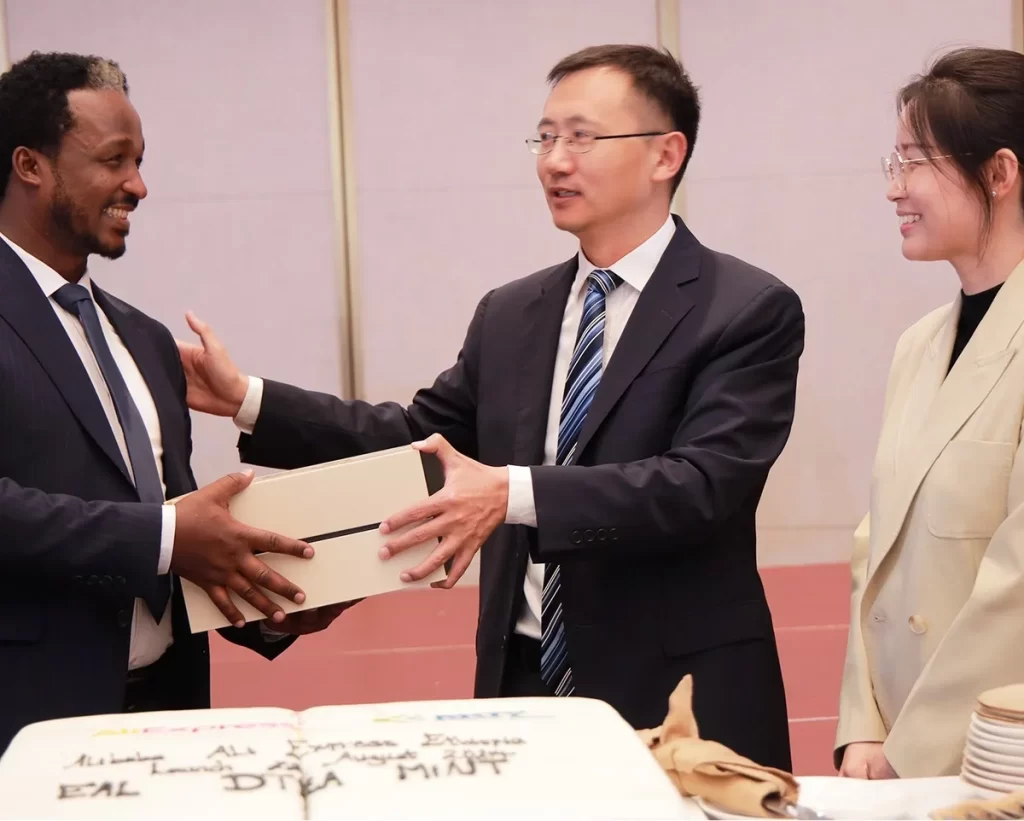
Can AliExpress Unlock Ethiopia’s E-Commerce Potential?
AliExpress has officially entered Ethiopia, marking a significant milestone in the country’s evolving e-commerce landscape. Two weeks after Shega broke the story of the imminent entrance of the Chinese e-commerce giant, an official commercial launch ceremony was held at the Ethiopian Airlines-owned Skylight Hotel on Thursday. In an atmosphere pulsating with palpable excitement, various stakeholders from Ethiopia’s public and private sectors gathered for a day of presentations, panel discussions, and case studies. “This is not just a new chapter for Alibaba but also a new beginning for the Ethiopian e-commerce sector,” heralded Yeshurun Alemayehu (PhD), State Minister, Ministry of Innovation and Technology, during his opening remarks. He highlighted how the entrance of AliExpress presents significant opportunities for local businesses to participate in global commerce and scale up their operations. However, lingering legislative bottlenecks like the National E-Commerce Strategy, which is awaiting approval from the Council of Ministers, could present indications of an underdeveloped enabling environment. Inadequate digital infrastructure, logistics challenges, and limited access to digital payment systems remain critical challenges in the e-commerce landscape. Unresolved, these obstacles hinder consumer trust and adoption, which are vital for e-commerce growth. With around 45 e-commerce licenses registered by the Ministry of Trade & Regional Integration as of December 2023, the sector is filled with small, mostly ephemeral startups that pop out of business in a few years.
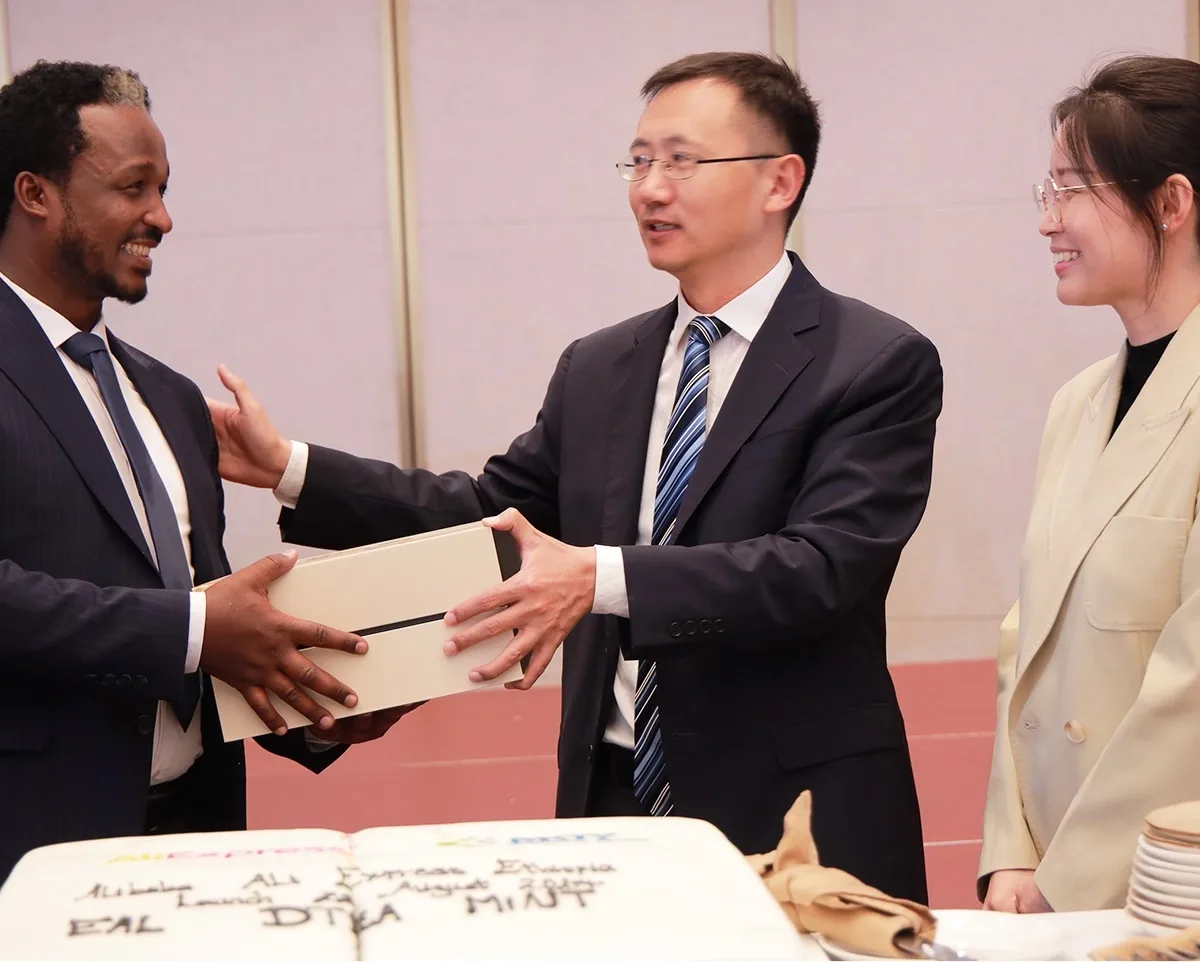

China-Africa Cooperation: China-built railway integrates Ethiopia, Djibouti with global markets
Since it was launched, the Addis Ababa-Djibouti Railway, coordinated by China, Ethiopia and Djibouti, has improved transportation and boosted the local economy under the Belt and Road Initiative. Our reporter Zheng Songwu visits Ethiopia's Addis Ababa to learn more about the changes on the ground.
Dejen Gezu from Ethiopia was one of the earliest train engineers working on the Addis Ababa-Djibouti Railway. It spans more than 750 kilometers, starting in Addis Ababa and ending in Djibouti City.
ZHENG SONGWU Addis Ababa, Ethiopia "Hi, how is everything? When is the departure time? Would you like to share us how you operate a train?"
DEJEN GEZU Train Engineer, Addis Ababa-Djibouti Railway "Good, around 11 o'clock, yes."
In 2018, Dejen joined the China Civil Engineering Construction Corporation, or CCECC, one of the Chinese companies that helped to build and run the railway. He had the opportunity to visit the Zhengzhou Railway Vocational and Technical College in Central China's Henan Province.
ZHENG SONGWU Addis Ababa, Ethiopia "You were sent to Zhengzhou to be trained in how to operate a train, how was the experience?"
DEJEN GEZU Train Engineer, Addis Ababa-Djibouti Railway "And all the training was so important as was so crucial. We gained a handover experience. The training has around eight phases, such as classroom instruction, theoretical training, practical training, the route training or route operation. There also was an internship on the actual route to practice how to operate the train. These were all very very important training courses in China."


International Islamic Banking forum successfully concluded in Ethiopia
The 5th International Interest-Free Banking & Takaful Forum, organized by AlHuda Centre of Islamic Banking and Economics (CIBE), successfully took place from August 20th to 21st, 2024, in Addis Ababa, Ethiopia. The event brought together an array of industry leaders, scholars, and practitioners from across Africa and beyond to discuss and explore the burgeoning potential of Islamic finance in the African continent. This monumental occasion was made possible through the collaborative efforts of esteemed sponsors Ethiopian Insurance Corporation, Dahabshil Bank International, Shabelle Bank, MYTM, ZamZam Bank and Global Insurance Co. S.C. The event was supported by numerous partners, including the Somaliland Banker’s Association, Islamic Finance Research Institute-Ghana, AL BARAKAH Multi-Purpose Cooperative Society Limited, Azerbaijan Fintech Association, and Africa Fintech Network. Media partners included Adsolute Communications Plc, IFING-MEDIA, Mesofinance Monthly, and Financial IT. Ethiopian Airlines served as the event’s official partner airline. The Forum aimed to facilitate a dynamic exchange of ideas and promote the growth of Interest-Free finance in Africa, a region poised to become a new frontier for Islamic banking and Takaful. The event featured in-depth discussions on critical topics such as the regulatory landscape of Islamic finance in Africa, investment opportunities in Interest-Free banking, the role of Takaful in financial inclusion, and the impact of Islamic fintech innovations on the African market.

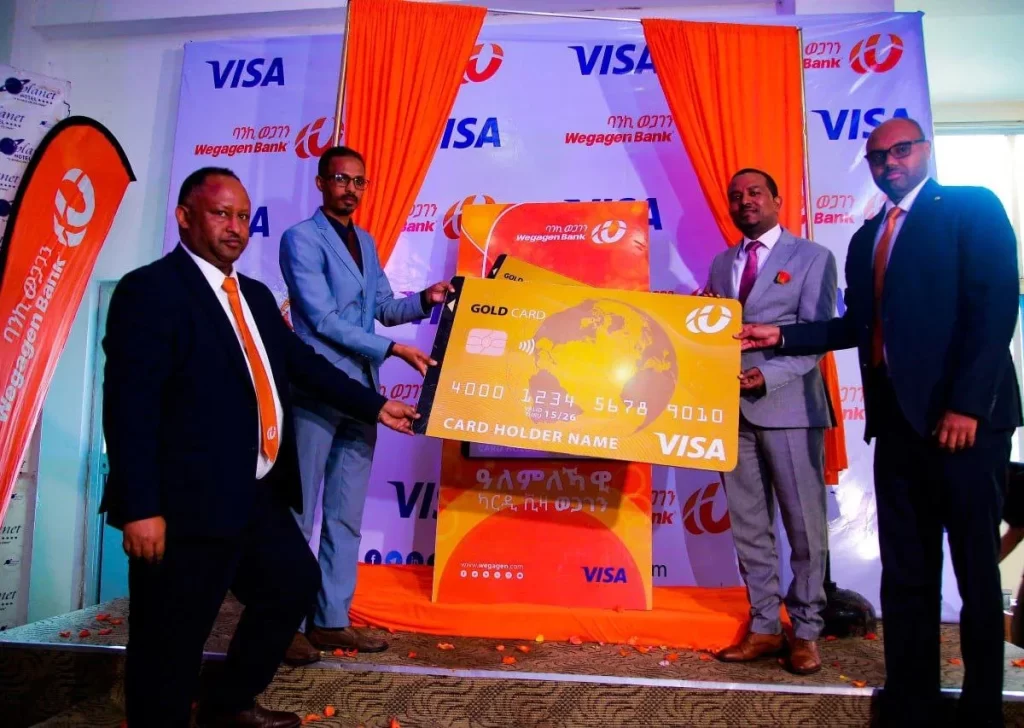
Wegagen Bank Launches Pre-Paid Visa International Payment Card
Wegagen Bank has officially launched its international pre-paid Visa card service today, August 21, during an event in Mekelle, Tigray Regional State. The card allows customers to make international cashless payments. “The new pre-paid Visa card allows customers to transfer funds and make payments at ATMs and Point-of-Sale (POS) machines worldwide,” said Solomon Tesfaye, Deputy Chief Executive Officer of Technology at Wegagen Bank, in a statement sent to Shega. The service also facilitates online e-commerce transactions and provides a digital alternative for sending money from abroad to family and friends in Ethiopia. Yared Endale, Country Manager of Visa Inc., pointed out that the Visa card plays a crucial role in expanding access to international financial services, allowing individuals to engage in the mainstream economy fully. On Monday, August 19, Visa also announced a “strategic partnership” with Ethio Telecom to launch Ethiopia’s first wallet-based Virtual Visa Card. The agreement seeks to enhance the current international money transfer remittance services through the introduction of the telebirr Remit App and Visa Direct. Visa Direct service enables Visa cardholders around the globe to transfer money to our country using a telebirr virtual card number.
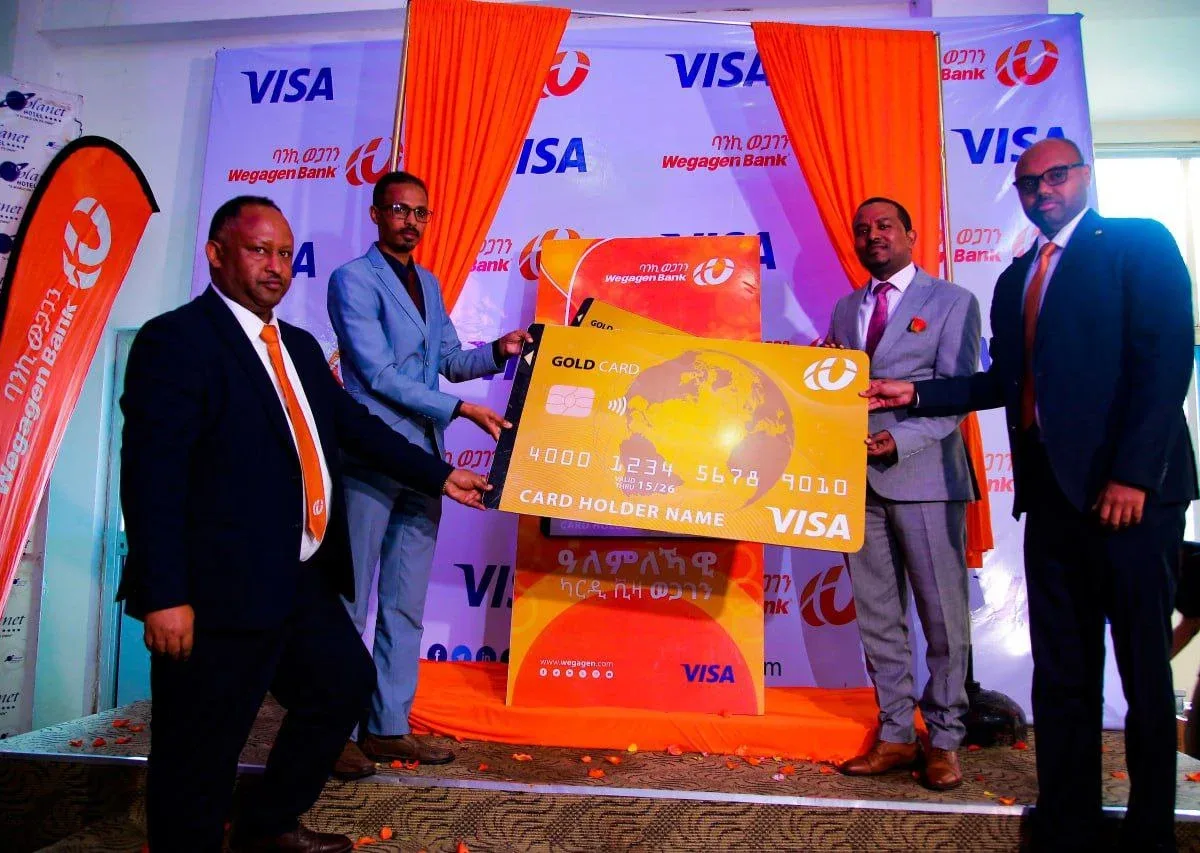
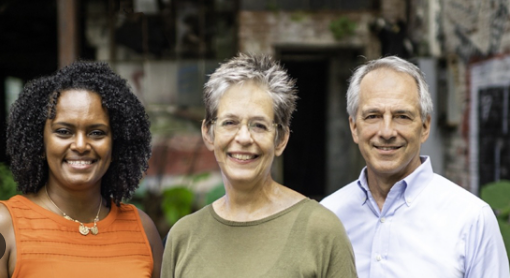
Development … For Good: “Diverse Thought Yields Better Results”
Maleda Berhane understood at a young age how some of the transformations resulting from real estate and infrastructure development projects could be far less tangible than the concrete and rebar used to build them. As a child in Ethiopia, she came to this understanding watching her successful civil engineer father on job sites as he oversaw the construction of roadways and bridges that would provide access to healthcare facilities, food and water to some of the most remote parts of the county. “Roadways would open and allow for transportation to connect remote areas to life-changing resources,” Berhane says. “At a very young age, I had the privilege of witnessing the impact of what might just seem like moving dirt or putting down paving, and how it could transform not only individual lives, but also communities and villages and entire generations of people.” Now, as CEO and co-founder of Philadelphia real estate development company AR Spruce, Berhane is still driven by the early-forged realization that decisions made in development, as arcane as they sometimes seem, have direct and tremendous impacts. This realization has yielded a set of questions about real estate development in Philly that Berhane has been asking herself — and, increasingly, others — for over two decades now: Who actually gets to make those decisions, and how can a greater number of traditionally excluded voices participate in doing so? The real estate and construction industries have long been dominated by White male workers and decision-makers. Though the spaces are starting to inch closer to parity, wide chasms remain: According to a 2023 report from the U.S. Equal Employment Opportunity Commission, women represent just 11 percent of all workers in construction (and this figure includes office and clerical positions), and Black workers make up just 7 percent of the industry (though they comprise 13 percent of the U.S. labor force).

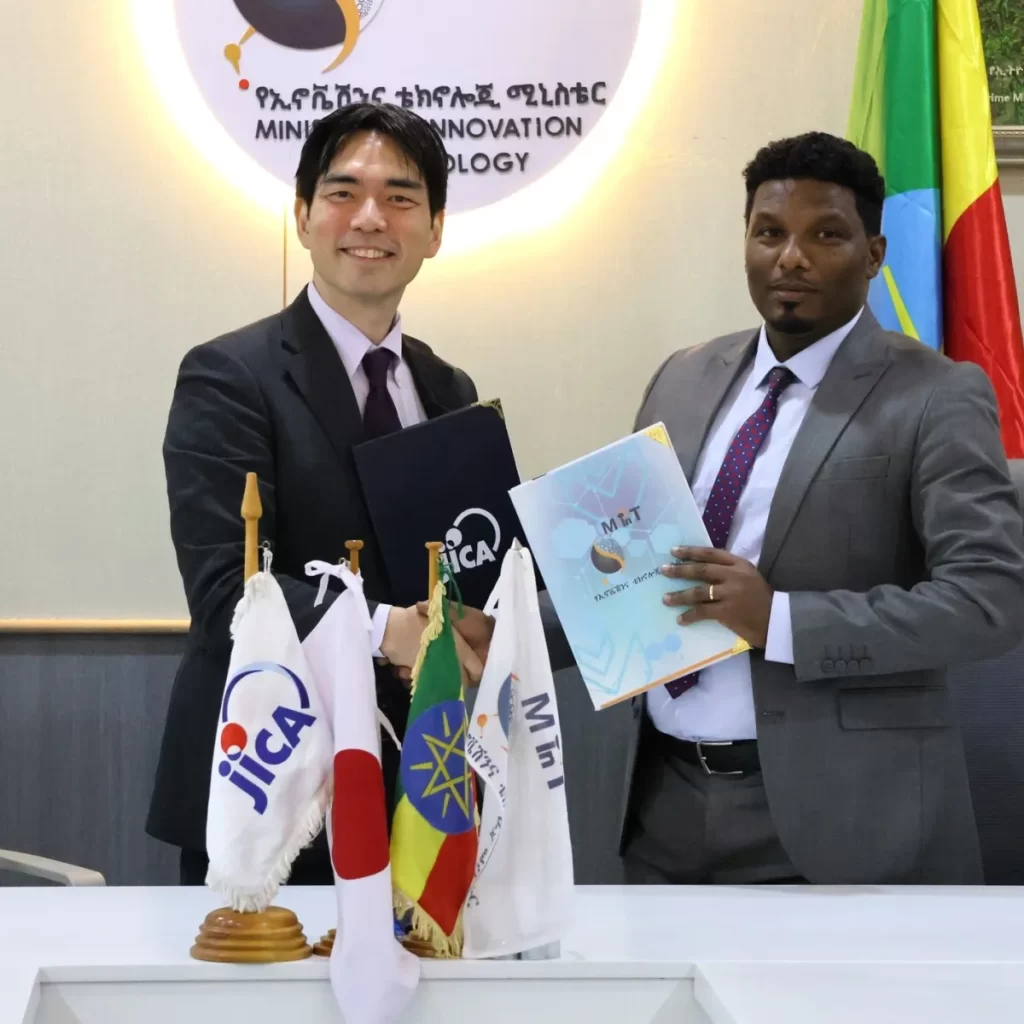
JICA, MinT Reconnect For Three Year Startup Project
A three-year startup enhancement project by the Ministry of Innovation Technology (MinT) and the Japan International Cooperation Agency Ethiopia (JICA) is set for a January greenlight. Following preliminary agreements between the two parties last week, a final proposal currently being reviewed will seal the deal. Tadesse Anbesse, Head of the Startup Desk at Mint, explained that the project would entail an acceleration, incubation, and capacity-building program focused on tech-based Ethiopian companies. He says the primary goal of the project would be focused on more technical rather than financial support. “Enhancement of the ecosystem is the main goal,” Tadesse told Shega. The first phase of the project entailed a comprehensive study of the startup ecosystem in Ethiopia and profiled nearly 300 companies and 80 stakeholders. Under the second phase, there are plans to thoroughly review policies and legislation drafted for the whole startup ecosystem. “Intensive evaluation of the startup act is also part of the plan,” the official says.


Ethiopia debuts its first wallet-based virtual Visa card
Ethio Telecom, working together with Visa Inc., has launched Ethiopia's first wallet-based virtual Visa Card, as well as services to improve remittances via Visa Direct and the Telebirr Remit App. The agreement, inked by Ethio Telecom and Visa Inc., is an essential move toward expanding Ethiopia's digital banking service, according to the telco. It said the new services include the virtual Visa Card, which can be accessed through Telebirr, and Visa Direct, which enables Visa cardholders globally to send funds to Ethiopia using their Telebirr virtual card number. This service allows people and institutions to send money from over 190 countries, said Ethio Telecom. To receive funds using Visa Direct, customers must first register for the Virtual Visa service in the Telebirr SuperApp and share their 16-digit card information with the sender. The company said this development is expected to broaden Ethiopia's digital financial ecosystem by enabling online cross-border payments, including for e-commerce, and to contribute to the country's transition to a cashless societ


UAE’s AMEA Power signs PPA for 300MW wind project in Ethiopia
UAE-based renewable energy company AMEA Power announced on Monday the signing of a Power Purchase Agreement (PPA) and Implementation Agreement (IA) with Ethiopian Electric Power for the development and operation of a 300-megawatt (MW) wind energy project in Aysha in Ethiopia's Somali Region State. The duration of the PPA, financial close and construction timelines weren't disclosed but an AMEA Power press statement said the $620 million Aysha-1 Wind Project will be the largest wind farm in the Horn of Africa when commissioned. The IA was signed with the Ministry of Finance and the Land Lease Agreement was signed with the Somali Region State Government, the statement added. This project was officially launched during COP28 in Dubai in December 2023, where a Letter of Award (LOA) was signed between the Ministry of Finance, Ethiopian Electric Power and AMEA Power. The statement said the project is expected to generate 1,400 GWh of clean energy annually, powering more than four million households and reducing carbon emissions by more than 690,000 tonnes per year. Furthermore, during the construction and operation phases, the project is expected to create more than 1,500 direct jobs.


Young Crochet Prodigy That Turned His Hobby Into Business Continues To Wow The World (42 Pics)
Five years ago, an 11-year-old boy became an internet sensation over his love and talent for crochet goods. Today, Jonah Larson is a 16-year-old, and his hobby that then flourished into a business is still going strong.
Jonah was adopted from Ethiopia when he was only 6 months old, and now he lives in La Crosse, Wisconsin. From the early age of 5, Jonah was introduced to crocheting, which soon became his passion. Over the years, the boy has crocheted many sweaters, hats, blankets, toys, and basically anything you can think of.
So today, we've compiled a selection of his works into a list that we hope will inspire you to never give up on your hobbies.

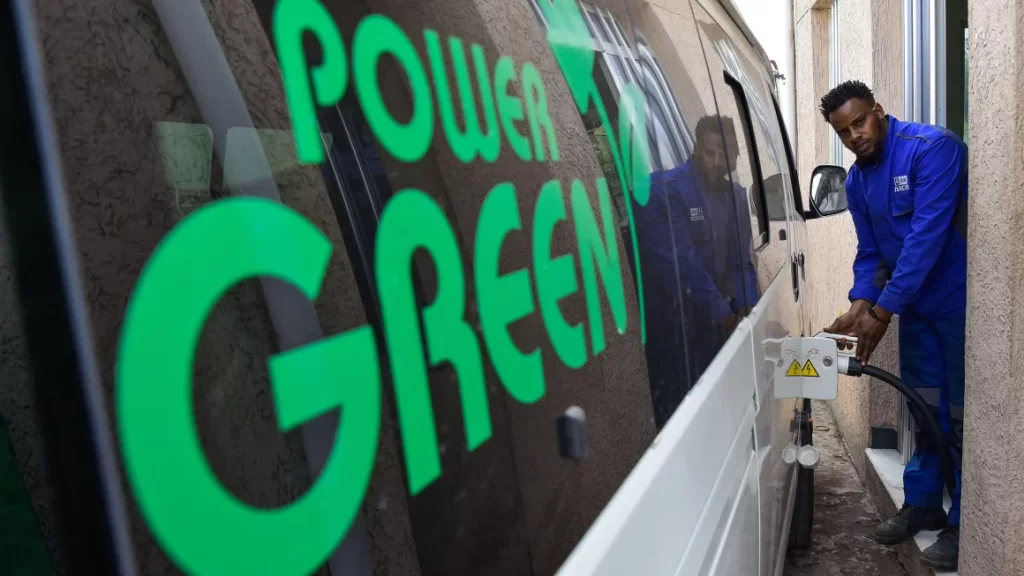
EVs are starting to overtake gas-powered cars in a surprising place
Long lines have been forming at gas stations in Ethiopia’s capital, Addis Ababa, amid fuel shortages and a price spike in recent months.
But electric vehicle driver Mikial Belayneh avoids them completely.
“I no longer line up for petrol on the road,” Belayneh, an Addis resident, told CNN. A full charge of his imported Toyota bZ4X – a popular EV in the country – “is more than enough for two days.”
Belayneh, who charges his car at home, is part of rapid transition to EVs in Addis Ababa, a fast-growing city in the horn of Africa at the center of Ethiopia’s goal to hoist millions of people out of poverty.
In addition to the polluting cars and trucks rumbling along the roads, cleaner — and quieter — vehicles are joining the traffic. Electric buses, smaller 15-seat minibuses, cars and motorbikes are popping up on the streets of the capital.
There are around 100,000 EVs in Ethiopia so far.
The Ethiopian government estimates that number will more than quadruple by 2032. That’s largely because the national government took the extraordinary step earlier this year of banning the import of all gas-powered passenger vehicles — becoming the first nation in the world to do so.
It also effectively slashed the customs tax on imported cars: The tax on gas vehicles was up to 200% before they were banned, while the import tax for fully assembled EVs is just 15%, according to the country’s finance ministry.
It’s part of a government-led effort to get more EVs on the streets.
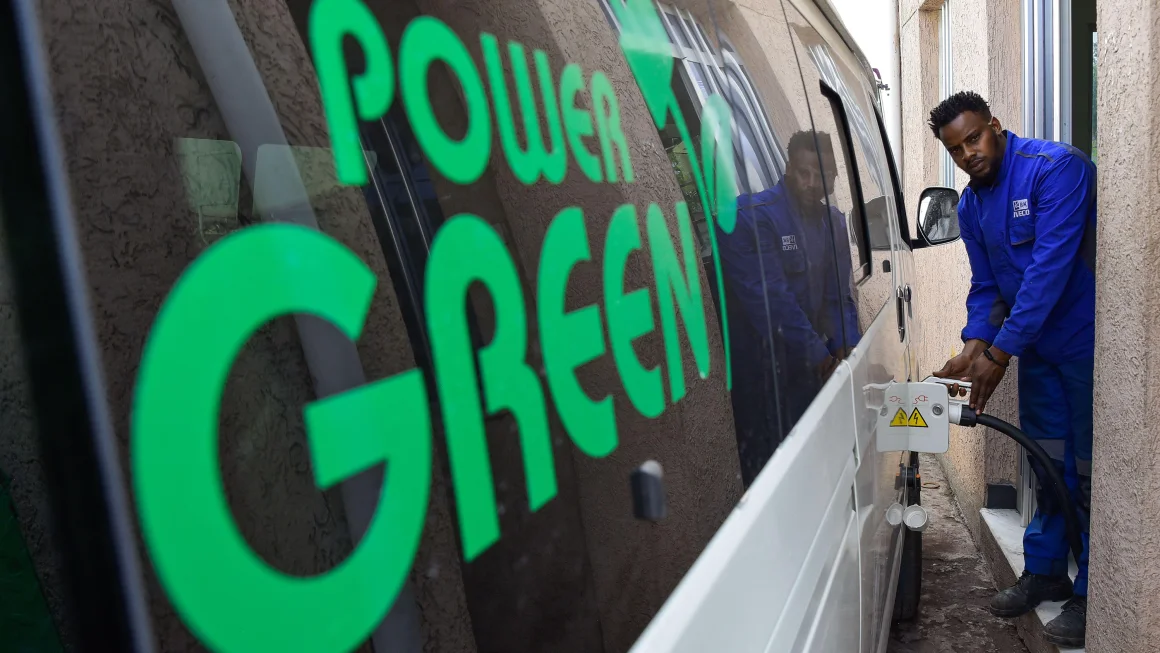

Dashen Bank Ushers Sharia Compliant Digital Credit Service
Ethiopia’s second-biggest private commercial bank has launched a Sharia-compliant digital financial service through a modified version of Dube Ale, a buy now, pay later scheme kicked off last year. Dashen’s acting president, Tibebu Solomon, announced the new products developed in cooperation with Eaglelion System Technology at its headquarters in Addis Ababa’s financial district late Friday afternoon. While full-fledged interest-free banking got the regulatory green light in late 2019 after being limited to a window service for seven years by the central bank, its digital financial innovation has been quite limited. Dashen’s new product, dubbed Dube Ale-IFB, allows for several interest-free services and short-term financing in collaboration with merchants and traders, enabling customers to make purchases and pay later over a period of three, six, or twelve months without interest and profit markup as applicable. The maximum spending limit for DubeAle-IFB is set at birr 700,000, with payments made exclusively through the application. Bersufikad Getache, CEO of Eaglelion, revealed that the Dube Ale conventional service has reached above 430K users, while the interest-free service has already gained over 44K registrations and signed up 17,000 merchants. “Only sharia-compliant products are allowed in the new service,” he noted.


Akobo Minerals achieves milestone in Ethiopia underground operations


An African country just made it cheaper for tourists to visit
Over the last six months, both airlines and individual countries themselves have been responding to an increased traveler interest in Africa. United Airlines (UAL) and Delta (DAL) recently launched a spate of new flights to countries such as Ghana, South Africa and Nigeria from U.S. East Coast cities, while Kenya took the unusual step of formally getting rid of tourist visas to make it easier for visitors with any passport to come to the country for a short stay. In April, Norse Atlantic Airways (NRSAF) also announced the world's first low-cost flight to Africa from another continent — a 5,188-mile route between London and Cape Town for a starting price of $620 in each direction instead of the upwards of $1,000 charged by British Airways and South African Airways. "One of the biggest markets in Africa with the biggest untapped potential is Nigeria," Airbus (EADSF) Airline Marketing Director Joep Ellers said earlier this year at the IATA Wings of Change Focus Africa conference in Johannesburg. "It is the most populous country and has one of the highest GDP, depending on who you talk to, so there is definitely a huge demand in Nigeria."
Ethiopia, other African countries change visa rules for short-term visitors
In a separate step to promote tourism to the area, the Ethiopian government just cut the cost of the electronic visa needed to enter the country from $82 USD to $62 USD. The visa is required for those who want to come for short touristic visits of up to 30 days and was brought down from the 90-day period at the start of 2023 (those looking to stay for longer or do any kind of work in the country will require a different visa.)
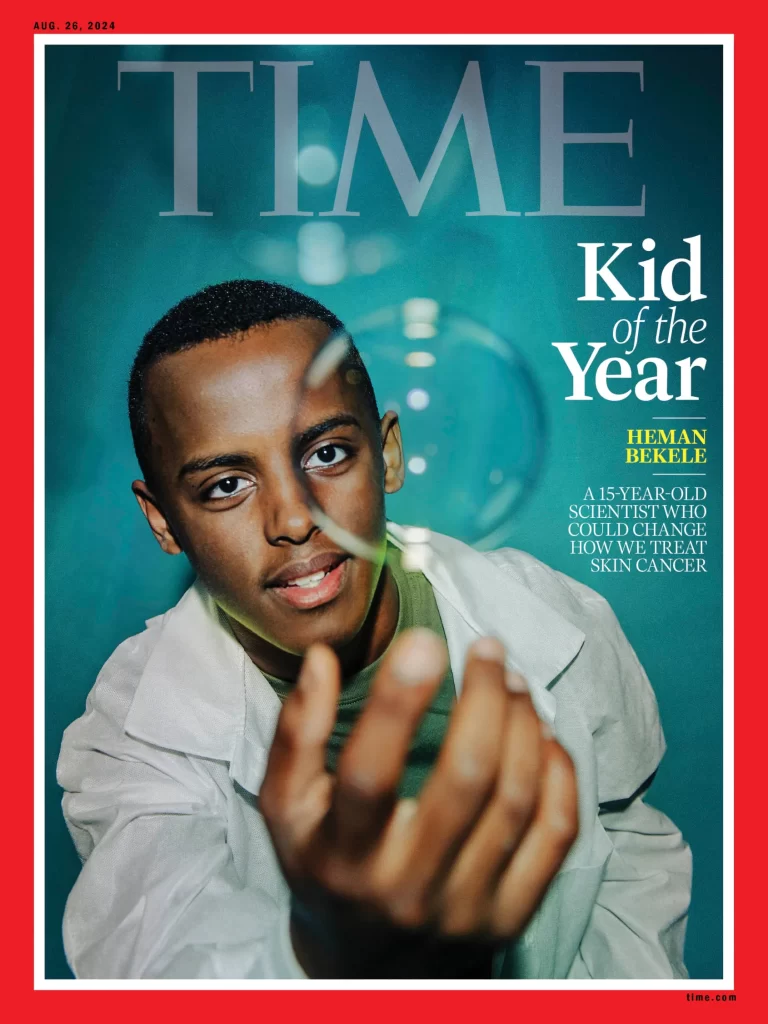
How We Chose TIME’s 2024 Kid of the Year
For over a century, TIME has covered influence and leadership. Typically, those we recognize are fully grown adults—in the prime of their careers or sage elders reflecting on long experience. But there are exceptions. From climate activist Greta Thunberg (16 when she was named Person of the Year in 2019) or Millie Bobby Brown (14 when she made the 2018 TIME100 list), some prove that youth is no impediment to achievement.
In fact, young people are some of the most impressive individuals out there—and not just because they’ve had fewer years in which to hone their talents. They are not just examples of human attainment, but also reason to believe that the future they’ll lead will be a bright one.
That’s why we choose to recognize TIME’s Kid of the Year. After all, we could use a little bit more of that hope.
This year’s list is a collaboration between TIME and TIME for Kids. This spring, we put out a call looking for young leaders who are making admirable contributions in a range of fields—including social justice, science, and business. Editors and writers combed through submissions and conducted our own research, searching for stand-out kids in the U.S. ages 8-16. Then, as part of the selection process, a team of TFK Kid Reporters weighed in on the honorees. We learned about hundreds of kids with strong records of achievement, service to others, innovation, entrepreneurship, and more.
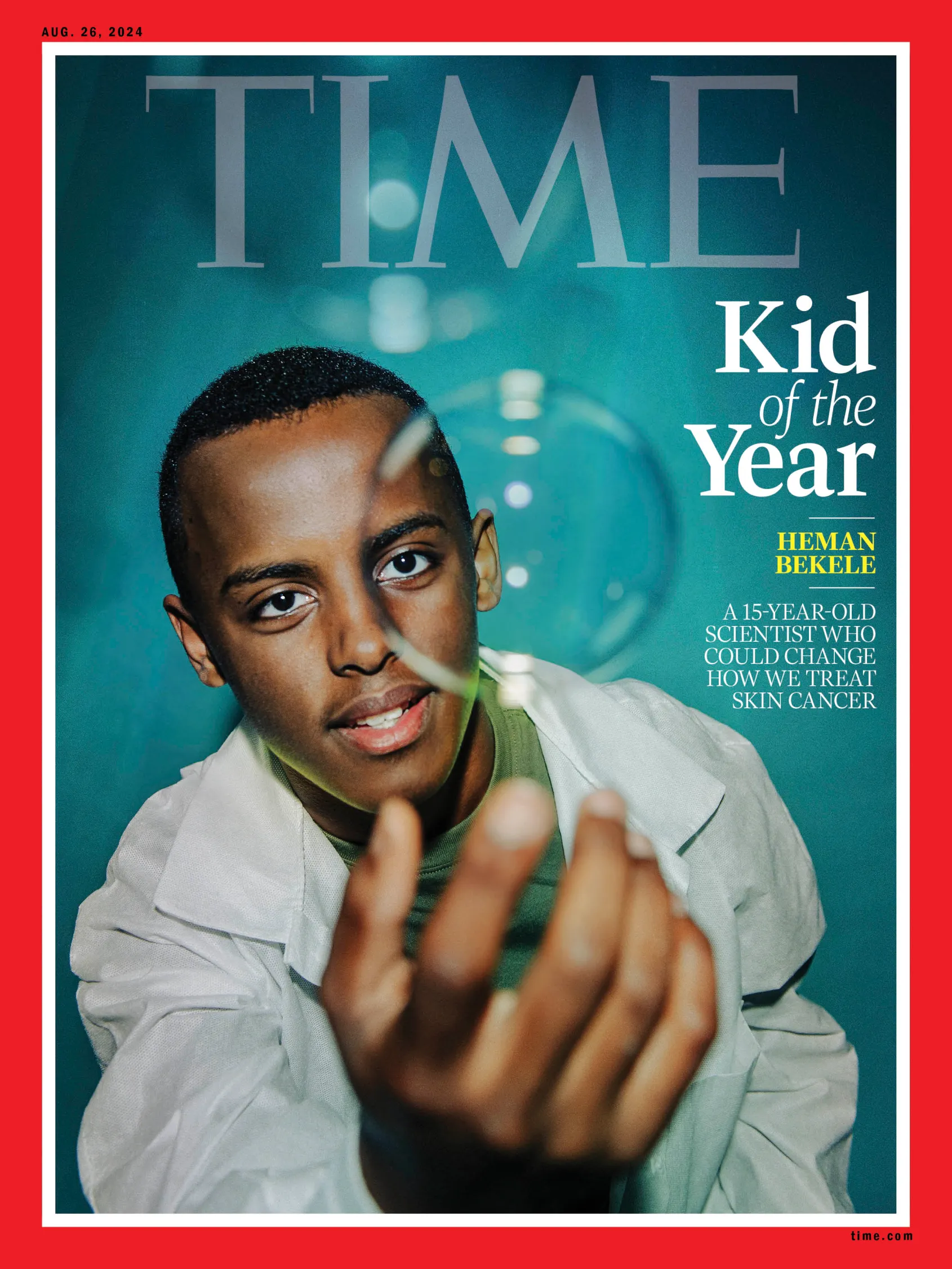

Remittance App Cash Go Updates with Features Fitted for Floated Birr
Cash Go, one of Ethiopia’s premier digital remittance platforms, has returned with features suited to the floated currency. The financial platform owned by Eaglelion System Technology debuted its updated features two days ago with exchange rate offerings reflecting banking industry amounts. Cash Go had temporarily paused its service when the Ethiopian government floated the Birr. Bersufekad Getachew, founding CEO of Eaglelion explained that the exchange rates respond to the figures realized by the commercial banks integrated into the system. “There are no transaction fees,” he told Shega. The app offers bank transfers directly to branches and cash pick-ups with the latest exchange rates depicted from three local banks. Ethiopia’s biggest bank the state-owned Commercial Bank of Ethiopia, Dashen Bank, and the Bank of Abyssinia (BoA) are available via the Cash Go app. The company also has agreements with Visa, Mastercard, and American Express with the app available for both Apple and Android devices. As soon as users enter the amount in US dollars an equivalent figure in Birr is automatically generated. Moreover, when the money is sent it instantly arrives in the receiver’s account.


CBE to Adjust International Trade Services Fees
The state-owned Commercial Bank of Ethiopia (CBE) has announced a pending service charge adjustment for its international business banking services two weeks after the country shifted to a floating exchange regime. CBE released a statement on its Facebook page last night indicating an imminent price shift on its service charges. The Bank whose assets constituted almost half (49.5 percent and 48.7 percent, respectively) of the whole banking sector at the end of June 2023, according to the National Bank of Ethiopia, offers an array of international trade services. Alsen Assefa, communication director at Ethiopia’s largest bank, refrained from stating when the exact date of the changes would be and referred Shega to the public statement. “We will announce the details with all media in attendance,” he told Shega. Nonetheless, CBE currently offers a wide range of international trade services, including documentary credit, or L/C, which is utilized by most importers. The bank provides a written guarantee to a seller, at the request or instruction of the buyer, to pay or accept and pay a bill of exchange (draft) drawn by the seller. This is for a specified amount within a set time limit and against the required documents. The Bank also offers documentary collection services, where it handles the seller’s commercial documents, with or without financial documents, based on the seller’s instructions.

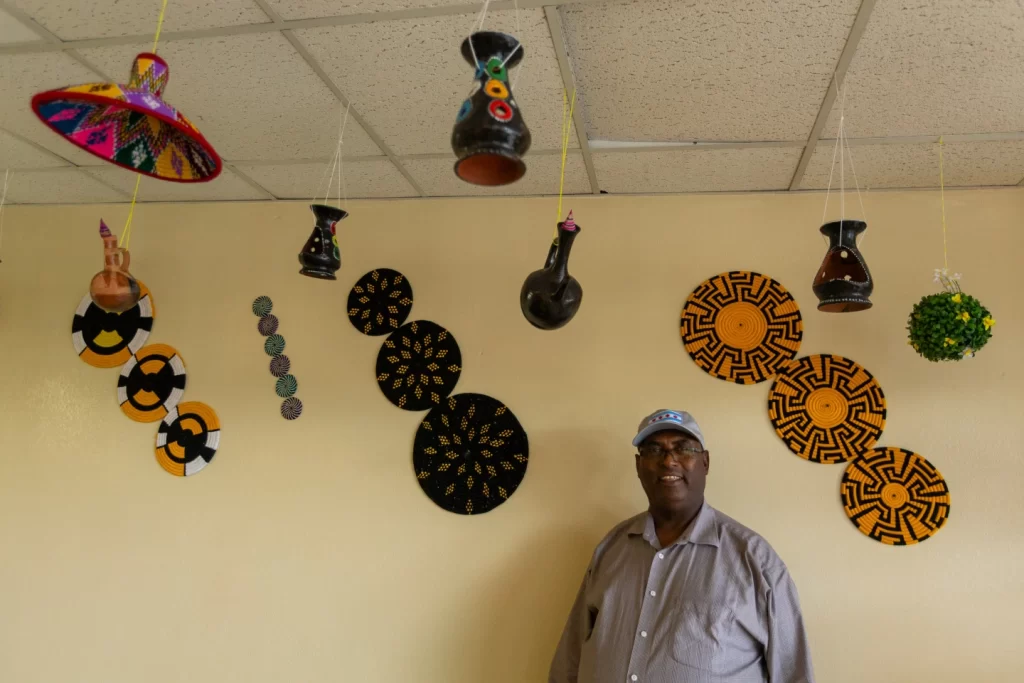
Rochester welcomes its first Ethiopian store
Rochester welcomed its first Ethiopian store earlier this summer. Adey Abeba General Import and Ethiopian Store is an Ethiopian store that carries a variety of cultural items and Ethiopian food options. Kebebe Abay, the owner of Adey Abebe, is Ethiopian and knows the struggle of finding ingredients for traditional foods, especially in the Minnesota area. Abay is from Eagan, but has friends in the Ethiopian community in Rochester. Abay spent time in Rochester and announced his plans to the St. George Ethiopian Orthodox Tewahedo Church. He was met with positive feedback and excitement. “We studied the community over here,” said Abay. “We sat and discussed and when I told our friends here, when we told them (they were) very happy.” He knew there wasn’t anywhere to get certain Ethiopian ingredients in the area and people were coming to the cities two to four times a month for these items. One of these staples is injera, a thin Ethiopian flatbread. “Everybody at home has injera. This is common. For example, Americans have to have bread. This is like that all the time. You have to have this. So they go to Minneapolis or St. Paul. They buy two or three (bags of injera) for a week or for 15 days,” he said.
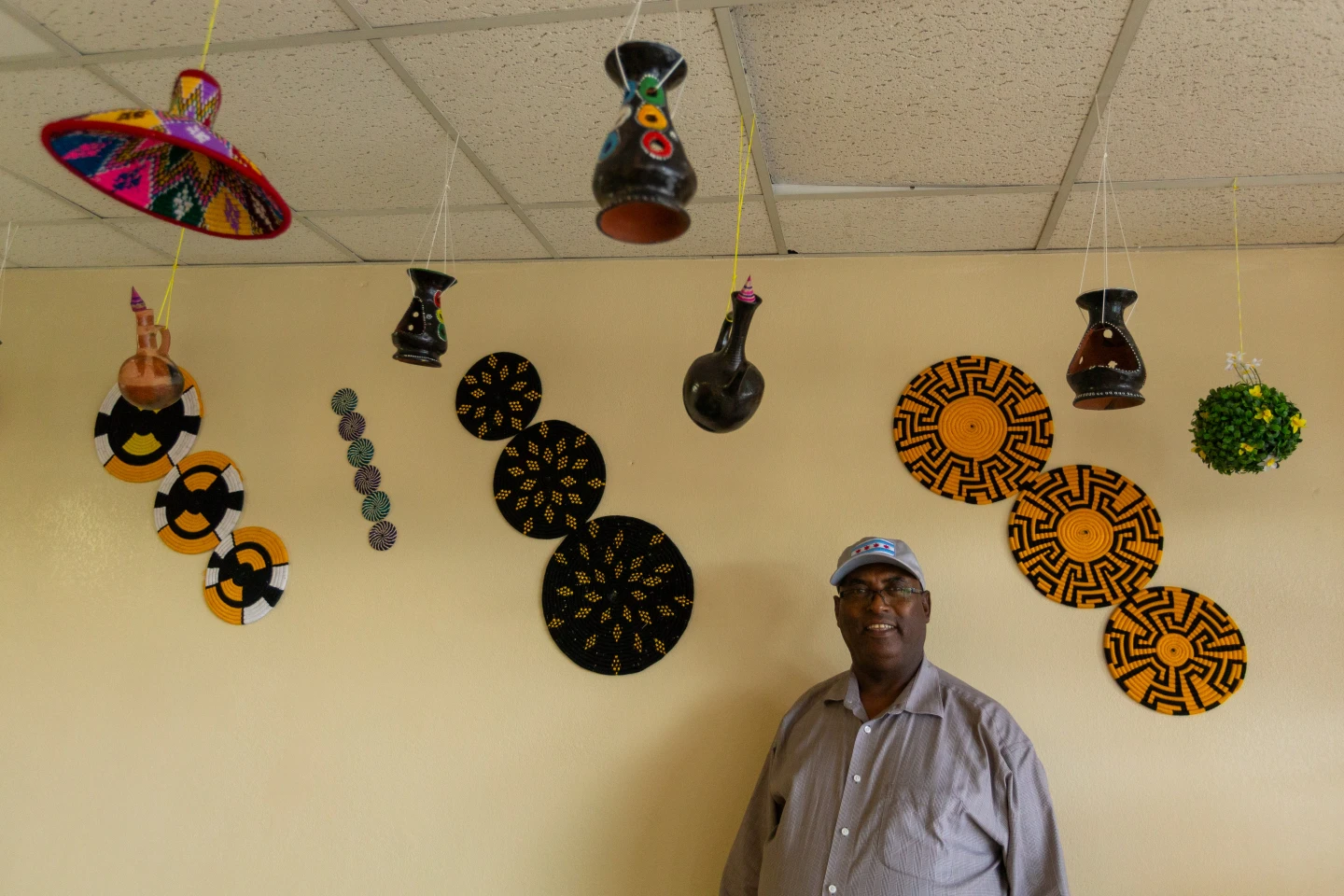

Iran Desirous to Encourage Its Investors to Invest in Ethiopia’s Industrial Parks
Addis Ababa, August 12/2024 (ENA) Iran's ambassador to Ethiopia, Ali Akbar, said that efforts will be made for Iranian investors to invest in industrial parks in the fields of agro processing and vehicle manufacturing and assembly. Industrial Parks Development Corporation (IPDC) CEO, Fisseha Yitagesu received the ambassador at his office and had a discussion. During the discussion, the two officials exchanged ideas on ways to strengthen their long-term relationship through investment. Fisseha emphasized that the BRICS membership of both countries will serve as the foundation for their investment relationship. He confirmed Iran's interest in joining IPDC's efforts to attract global investment and diversify investors in its investment centers. The CEO additionally mentioned that other initial tasks should be done together, including the preparation of the Ethio-Iran Investment Forum.


Ethiopia’s Securities Exchange Signs Agreement for Trading Platform
Ethiopia’s securities exchange is set to receive a major technological upgrade, having signed two landmark agreements for an Electronic Trading Platform (ETP) and a Broker Back Office and Order Management System (BBOMS). These agreements with Infotech Private Limited, announced today, August 13, 2024, represent a pivotal step in establishing Ethiopia’s inaugural exchange, which is expected to launch in the coming months. Hassan Javid, General Manager of Marketing at Infotech, expressed his confidence that the platform will be ready for the upcoming exchange. “We have a proven track record of delivering the platform on time, as evidenced by our successful launches in over 18 markets across the region,” he told Shega via email. Infotech Private Limited boasts extensive global experience, having digitized stock exchanges in Rwanda, Malawi, and Ghana, as well as the Capital Markets Authority of Kenya, among others. The company has also played a crucial role in providing post-trade infrastructure in various markets. “We have a solid African footprint,” Javid emphasized. The Electronic Trading Platform will provide a trading environment that supports real-time transactions. This platform aims to ensure market transparency, improve liquidity, and offer investors, both local and international, a seamless and secure trading experience.
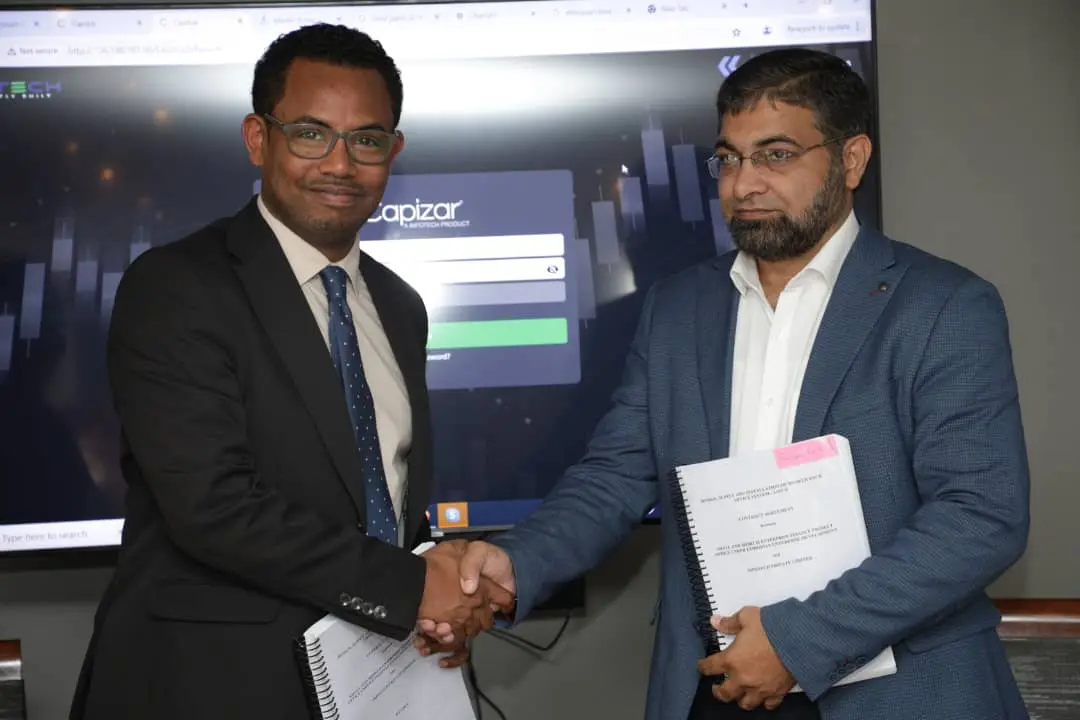

Aurora Ethiopian leader set on writing his community’s story
The City of Aurora says it is "Open to the World. With immigrants speaking 160 languages, it is the most diverse city in Colorado. One of the largest immigrant groups, numbering in the thousands, is from Ethiopia. Samuel GebreMichael immigrated from Ethiopia to Aurora in 2006. "It is a good place to be here in Colorado," said GebreMichael. "Aurora is a place where you see every people, every colors, you don't think that you are outside." GebreMichael serves on the Aurora Immigrant and Refugee Commission and also leads the Colorado Ethiopian Community organization. He says he's driven to help others given the challenges he faced when he first immigrated here.
"I have my degree on literature but after I came here I have to start from the scratch," said GebreMichael. "When I came over here my big problem was just to find a resource, just to find a voice." GebreMichael now has a graphic design business. He frequently supports other immigrants launching small businesses, such as Jemile Bogale who has a printing and embroidery company. "He's one of those people that like to see everybody's success and it doesn't matter what you're doing. If he knows, he can help you. If he doesn't, he will sit down and try to figure it out with you," Bogale said.
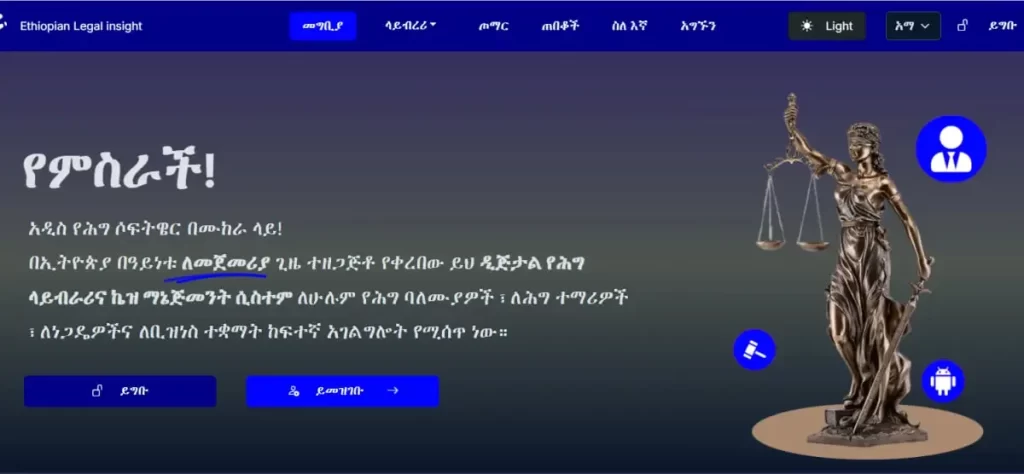
Legal Startup Debuts Digital Law Library, Case Management System
A local startup, born out of the frustrations of legal professionals, is aiming to change a largely paper-based industry with an integrated digital solution. Nearly a year old, Five Square Software has launched a digital legal library and case management system designed to streamline access to legal documents and tools scattered across a bloated service sector. Yeshiwas Eyasu, founder and CEO of the company behind Ethiopian Legal Insight, anticipates that the country’s more than 5,000 attorneys will soon be registered on the platform. Over the past three decades, the House of People’s Representatives has ratified over 1,340 proclamations, the Council of Ministers has approved around 1,000 regulations, and individual authorities across each Regional State have implemented tens of thousands of directives. A lawyer himself, with a legal career that includes a tenure as a judge, Yeshiwas has firsthand experience with the challenges of obtaining legal documents and managing court proceedings. “Tens of thousands of documents stretching back decades are randomly distributed across the country,” Yeshiwas told Shega.
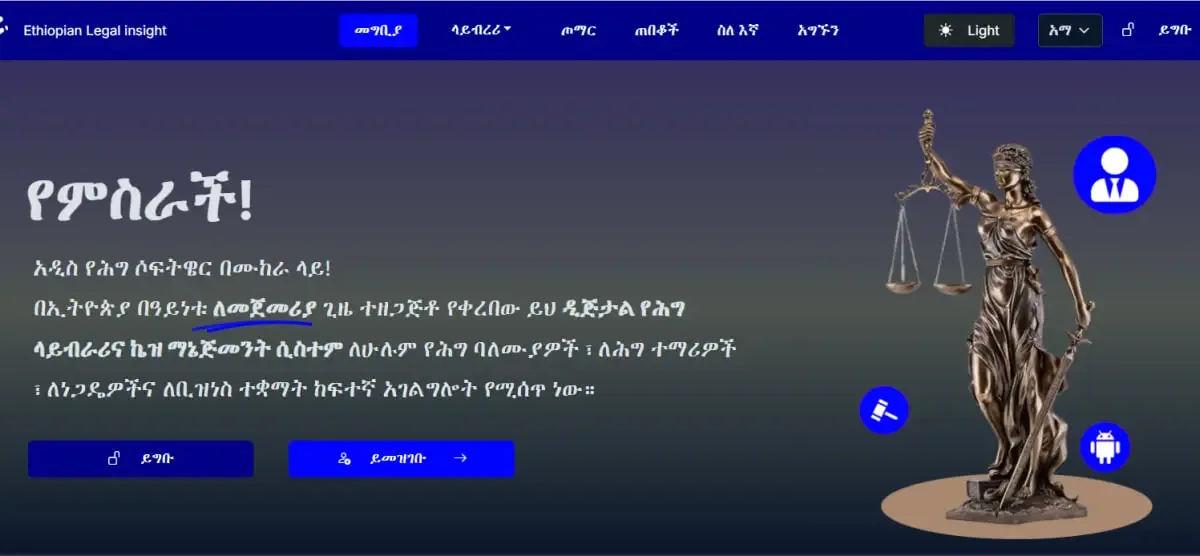

Ras Plant Based Brings Ethiopian Food, Good Vibes and Plenty of Spice to the West Village
It was a quiet Wednesday afternoon at Ras Plant Based’s new location on Sullivan and Bleecker, and despite the kind of dripping late-July weather that puts the city on standstill, Ras had an energy that prefaced how the food would taste. Ethiopian-inspired graffiti, painted by James Mong, electrified the walls. A field of philodendrons dangled from the ceiling, and lush living vines cradled corner high-tops by the bar. The dishes were a remix of traditional Ethiopian platters and innovative spins. None of them contained meat, but all of them had heart. Romeo and Milka Regalli opened the restaurant just a few weeks earlier, on June 15, as NYU students went home for the summer and West Villagers headed to the Hamptons and other coastal escapes. The newly-opened second location is the husband-and-wife duo’s first Manhattan outpost; the original is in Crown Heights. Despite the well-executed, plants-only menu, Romeo Regalli wasn’t always devoted to vegetarianism. Growing up in the capital of Ethiopia until a move in his teens to Paris, and later New York, it was typical to enjoy traditional dishes like Minchet-Abish Alicha, a ground beef stew, and the richly spiced chicken stew, Doro wat. And though the James Beard Award Best Chef finalist lived in New York through the ever-evolving fascination in the 2010s with farm-forward fare, his mastery of plant-based cooking came from something much purer: love.


Tigist Assefa wins silver in women’s marathon at Paris Olympics
The Netherlands’ Sifan Hassan claimed her third medal of the Paris Olympics by winning gold in the women’s marathon with an Olympic record time of 2:22:55. Ethiopia’s Tigist Assefa took silver, finishing three seconds behind, while Kenya’s Hellen Obiri secured bronze. After grueling 13% climbs and muscle-pounding descents in the summer heat, Tigist and Sifan were side by side. Tigist, the 27-year-old marathon star who set a world record in Berlin last year, had been training 160 to 200 km per week for this Olympic title. With just 300 meters remaining, the race was still undecided. The Ethiopian-born runner who competes for the Netherlands, true to her signature tactic, lingered behind the leaders for most of the race before unleashing a powerful late-race kick that will be remembered as one of the sport’s finest. Ethiopia’s Amane Beriso Shankule, who won the World Championships marathon in Budapest in August 2023, finished fifth. Another of her teammates, Alemu Megertu, who finished fourth at the London Marathon, abandoned the race after 25 kilometers. Tigist Assefa began her athletic career as a middle-distance runner, earning bronze in the 800 meters and silver in the 4×400-meter relay at the 2013 African Junior Championships in Mauritius. She represented Ethiopia at the 2016 Rio Olympics but did not advance past the first round. After 2016, Tigist Assefa never raced on the track again. An ongoing Achilles tendon injury, which made training in spike shoes unbearable, led Tigist Assefa to switch to road racing. Despite medical experts advising her that she might never run again, her support team encouraged her to focus on road racing.

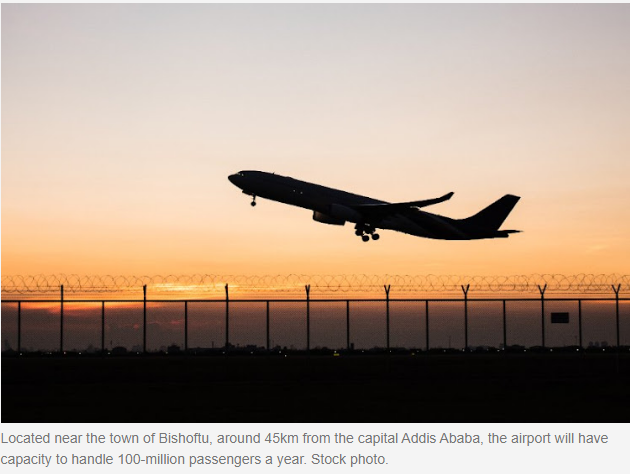
Ethiopian Airlines signs deal for design of ‘biggest airport in Africa’
Ethiopia has signed an agreement for the design of a new four-runway airport that will be Africa's biggest when construction is completed in 2029, the head of state-owned Ethiopian Airlines said on Friday. Located near the town of Bishoftu, around 45km from the capital Addis Ababa, the airport will have capacity to handle 100-million passengers a year and provide parking for 270 aircraft, Ethiopian Airlines' CEO Mesfin Tasew told a news conference. Dubai-based engineering and consulting firm Sidara will design the airport, the company's director of operations Tariq Al Qanni said. Plans to build the airport were first announced in 2018. Mesfin said Bole Addis Ababa International Airport, the current main hub for Africa's biggest airline, will soon reach its capacity of serving 25-million passengers per year. "It is a five-year project [that] will be finalised in 2029. It will be the biggest in Africa," Mesfin said. "Phase 1 alone will cost at least $6bn [R109.81bn] ... The money will come through loans and there are already companies that already showed interest." Ethiopian Airlines carried 17-million passengers in the 2023/2024 financial year, and expects to carry 20-million passengers in the financial year that started in July.


Ethiopian runner Tamirat Tola wins men’s marathon at Paris Olympics to end Kenya dominance
Ethiopian runner Tamirat Tola won the men’s marathon at the Paris Olympics on Saturday to end Kenya’s dominance of the race. Tola finished in an Olympic record time of 2 hours, 6 minutes and 26 seconds, with Belgium’s Bashir Abdi finishing 21 seconds behind and Benson Kipruto taking bronze for Kenya, 34 seconds back. The 32-year-old Tola looked back as he neared the line, but he was well clear and had time to soak up the applause. Two weeks ago, he entered the Olympic marathon as a substitute for injured teammate Sisay Lemma. “I was the reserve in the Ethiopian team, but when Sisay had injuries then I had a chance,” Tola said. “I was fully prepared and knew I could fulfil my dream. I am very proud, very happy.” It was Tola’s second Olympic medal, with the other coming in the 10,000 meters at the 2016 Rio Games. “After I came from track I achieved a lot in marathon,” said Tola, who broke a 12-year course record when he won last year’s New York marathon.

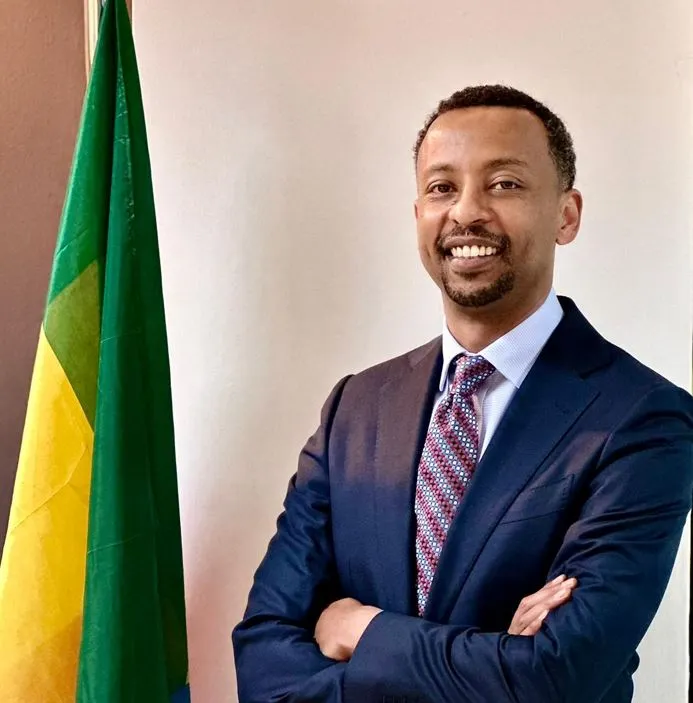
Key Architect of Ethiopia’s Capital Market, Brook Taye, Takes Helm of Sovereign Wealth Fund
Brook Taye (PhD), who has served as the Director General of the Ethiopian Capital Market Authority for the past two years, is departing to assume the role of CEO at Ethiopian Investment Holdings (EIH), the country’s sovereign wealth fund. Brook has become the public face of the pre-nascent capital market as he leaves following an exemplary two-year stay. Brook’s tenure entailed spearheading the critical legal groundwork through a series of directives that paved the way for the establishment of a securities exchange, a strong supervisory framework for market participants, intensive public engagement to introduce the idea of financial markets to Ethiopia and much more. He informed Shega about the transition as he aims to steer the EIH, which holds around 30 of the country’s largest state-owned enterprises. He will steer the Fund, which is estimated to have over 150 billion dollars under management. The former senior advisor at the Finance Ministry, investment manager at A&A Capital, and regulatory analyst & economist at Windel’s Market Lane Mittendorf LLP. Brook leaves a legacy of integrity, hard work, and penetrating acumen at the Authority. He has an extensive educational background, which includes a host of degrees in law and economics, culminating in a doctorate from the Ecole Polytechnic in France.

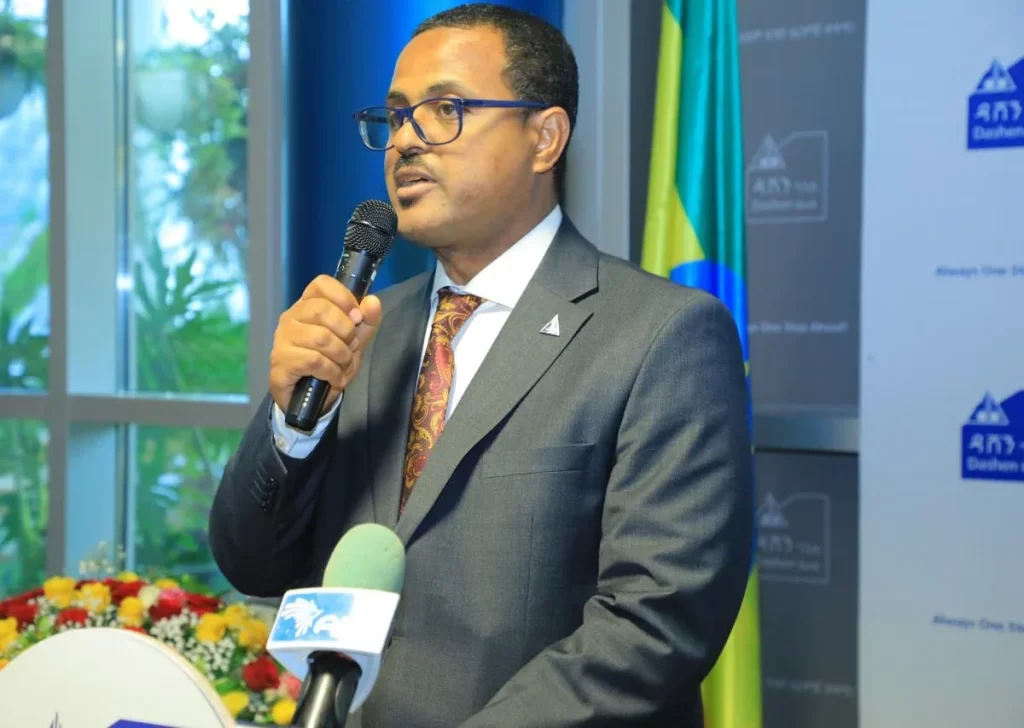
Dashen Bank Unveils Credit Facilities for Flights as Plane Ticket Prices Soa
Dashen Bank has launched a traveler’s club card, which allows for credit purchases of plane tickets and up to a 5pc discount on services for hotels, resorts, and affiliated market centers. The Bank made the announcement today at its headquarters in Addis Ababa’s financial district. As long as customers open a traveler’s club account that ranges from 500,000 birr to 2.5 million, they can access the preferential flight services in memberships ranging from regular to Platinum. The Bank also availed another card dubbed ‘shoppers club’ which allows repeat customers to access discounts on their purchases with accounts opened for as little as 50,000 Br. A 10 percent interest rate is paid on the first deposits placed in a blocked account to warrant membership status, according to the statement by the Bank. Dashen Bank and the Ethiopian Airlines Group had jointly announced the innovative service package dubbed ‘Fly Now Pay Later’ back in December. Discounts are expected to garner interest from frequent flyers following the recent hike in international plane tickets after Ethiopia floated its currency last week.
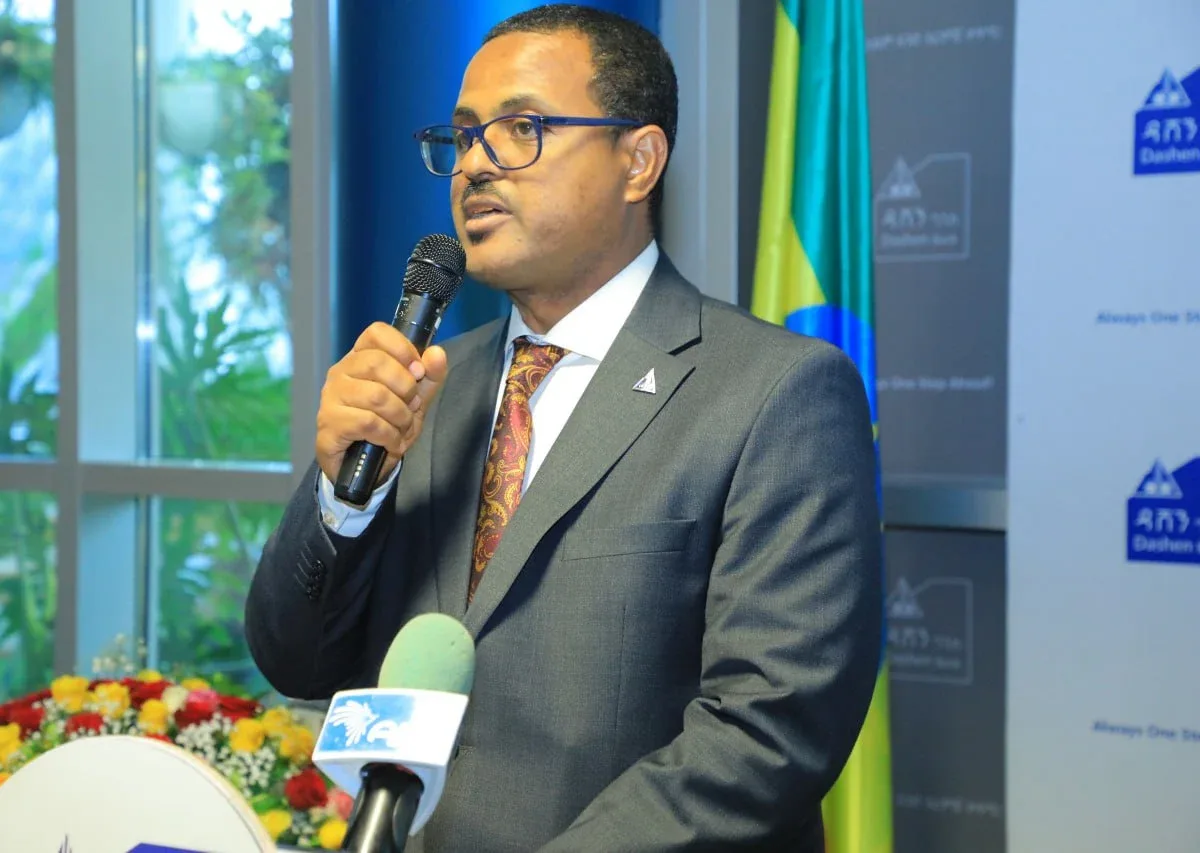

Ethiopia’s First Foreign Currency Auction Since Floating Garners Bids near Parallel Rates
The inaugural special foreign currency auction by the National Bank of Ethiopia (NBE) attracted 27 of the 31 commercial banks in the country with successful bids of 107.9 birr (weighted average) against the dollar. Tomorrow’s indicative exchange rate, a non-mandatory figure placed on the central website will be the reflective amount according to NBE’s statement. Central bank governor Mamo Mihretu relayed his sense of joy in the early success in narrowing the gaps between the official and parallel exchange rates which are around 116 birr against the dollar. “This is precisely what our macroeconomic reforms aimed to achieve,” the governor said. He referred to how a significant portion of the foreign currency transaction could move to the banking system helping both exporters with their earnings and businesses with access. Mamo also suggested that a growing number of banks have been making an increasing level of foreign currency available for their customers by approving past requests and accepting new ones. The Birr has slid against the dollar by nearly 90pc in the week and a half since the seismic transformation that overhauled the country’s currency regime towards market-determined rates.


What does Oromo, Tigray, Amhara and Habesha mean? Drake’s ‘Blue Green Red’ lyrics go viral
Drake released three tracks on an Instagram account named @plottttwistttttt on Tuesday, Augest 6, 2024, the musician promoted the profile on his own Instagram story. one of the three songs he released was Blue Green Red. many were surprised to hear Drake talk about Ethiopian women in the song. In Blue Green Red, Drake shows off his soft vocals, and at one point, he takes on another persona that has a drastically unique singing style. The lyrics of the song dive into a range of topics, including women, and violence. The song blends different genres of music as well.

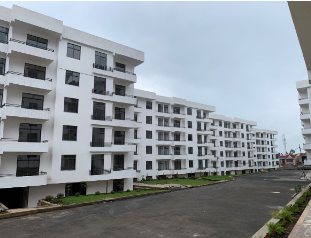
Ethiopia’s Real Estate Response to the Recent Foreign Currency Reform
In a major economic move, the National Bank of Ethiopia has shifted from a decades-long, fixed exchange rate to a market-based foreign exchange rate. This reform aims to restore market balance and stability, ushering in a new era for Ethiopia’s financial environment. While the change has sparked debate among economists and business leaders, with public discussions on social media, the real estate sector has not received much attention. The sector may face higher costs due to currency volatility, increasing construction material prices and development costs.This article will explore these impacts and the broad implications for Ethiopia’s real estate market.
Real estate in Ethiopia is increasingly attractive for investors seeking to shield their assets from inflation. Recent years have seen significant changes due to economic reforms, a rising middle class, and urbanization. The government has introduced various policies to boost foreign investment, streamline property transactions, and simplify registration, aiming to enhance investor confidence and reduce bureaucratic obstacles. Despite these efforts, challenges remain, such as the 10% investment for banks in real estate and the 14% credit cap imposed by the NBE last year, which has unintendedly impacted bank lending. Additionally, the recent shift to a market-based foreign exchange rate and the near 100% devaluation of the birr present both new challenges and opportunities for the sector.
“The shift to a market-based forex rate presents both pros and cons,” said an anonymous real estate developer. “On the positive side, we can now issue our own Letters of Credit (LC) and purchase foreign currency at the official rate and retain, compared to the previous reliance on exporters’ LCs. However, a significant downside is the rapid increase in local market prices; for instance, steel prices have surged from 130 ETB to 180 ETB in just a week.” He added that this new foex policy exacerbates the impact of the existing 14% credit cap, potentially affecting demand in the real estate sector.

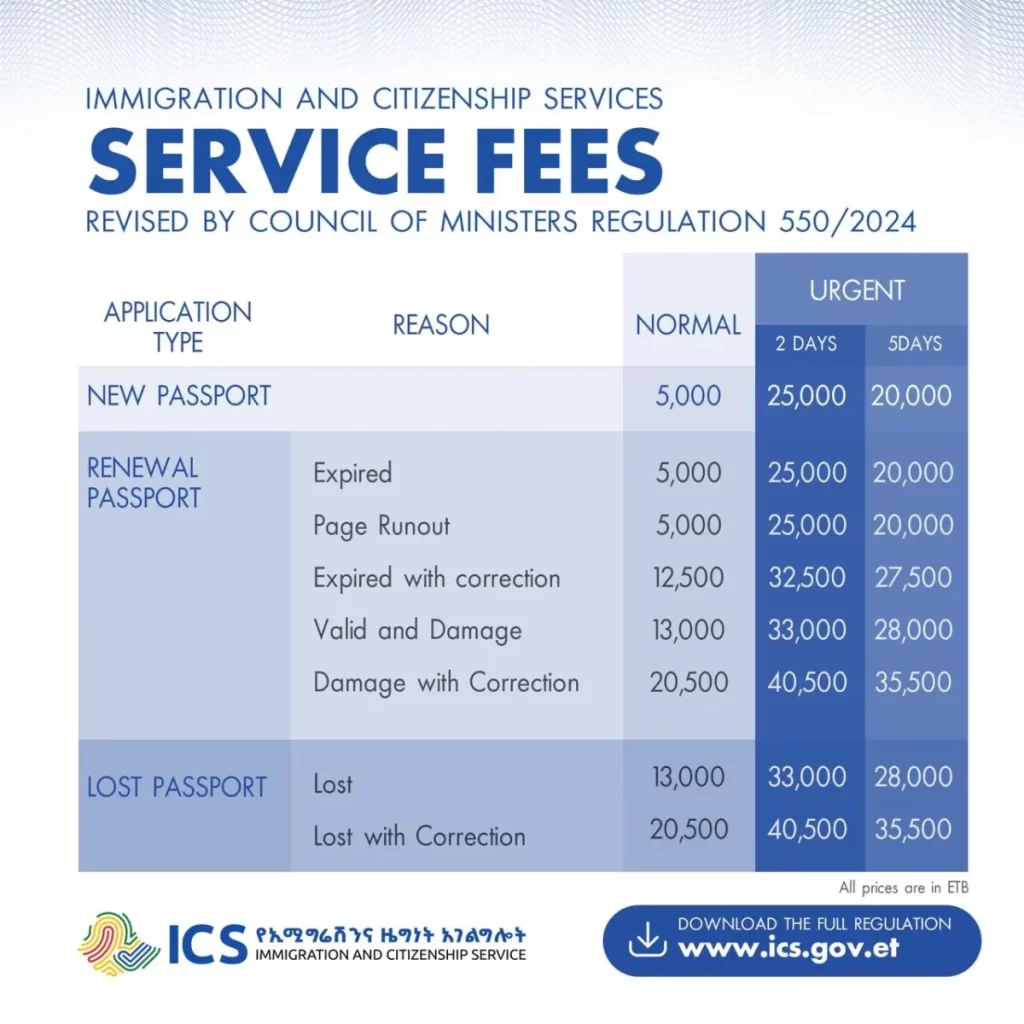
Ethiopia Revises Passport Fees, Standard Issuance Now Costs 5,000 Birr
Ethiopia’s Immigration and Citizenship Service (ICS) has updated its passport issuance fees. The cost for a new passport has risen to 5,000 birr, with an expedited service available for 25,000 birr, which ensures delivery within two days. ICS announced that these revised fees will take effect starting tomorrow, August 7, 2024. This fee adjustment follows the Council of Ministers’ approval of the service fee amendment. Under the new structure, the fees are set as follows: 5,000 birr for a new passport or renewal, 25,000 birr for urgent delivery within two days, and 20,000 birr for delivery within five days. Other services may cost up to 40,000 birr, while replacing a lost passport will cost 13,000 birr. The Immigration and Citizenship Service has often been a source of frustration for both locals and foreigners, with many Ethiopians having to postpone or cancel travel plans due to delays in passport issuance.
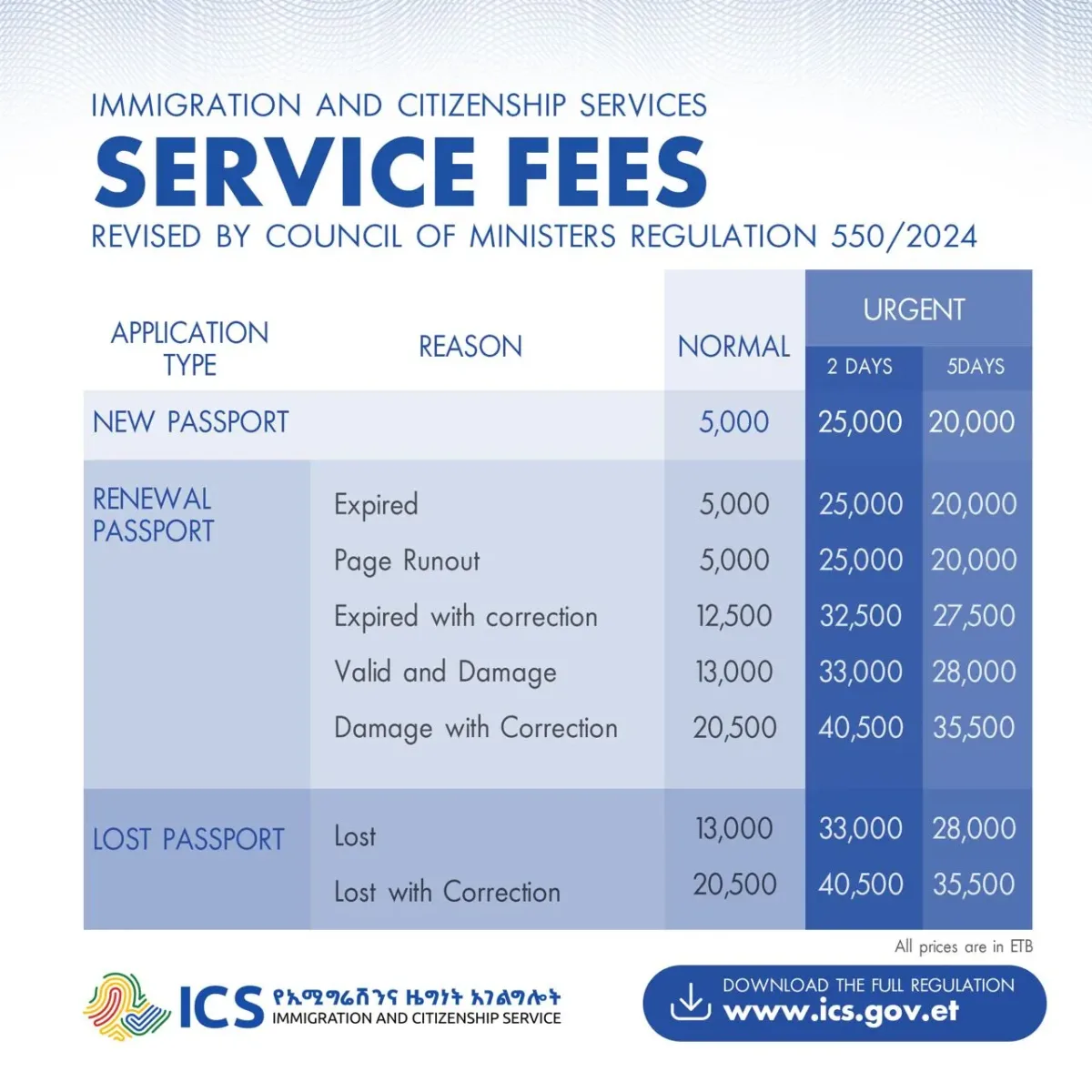

Sport Tsige Duguma Secures Ethiopia’s First Olympic Medal in the 800 Meters
Ethiopian athlete Tsige Duguma has made history by winning a bronze medal in the women’s 800 meters at the Paris 2024 Olympics. This achievement marks Ethiopia’s first-ever Olympic medal in this distance, a notable addition to the nation’s storied history in middle and long-distance running events.
Duguma, born in 2001, demonstrated her exceptional talent and determination by clocking a personal best time in the finals. Her performance not only earned her a spot on the podium but also highlighted Ethiopia’s growing presence in the 800 meters, a distance typically dominated by athletes from other countries.
During the race, Duguma maintained a strategic pace, positioning herself well among the leaders. As the competition intensified in the final stretch, she held her ground, ensuring her place in the top three and securing a bronze medal for her country. This accomplishment adds to her growing list of accolades and sets the stage for future successes in international competitions.
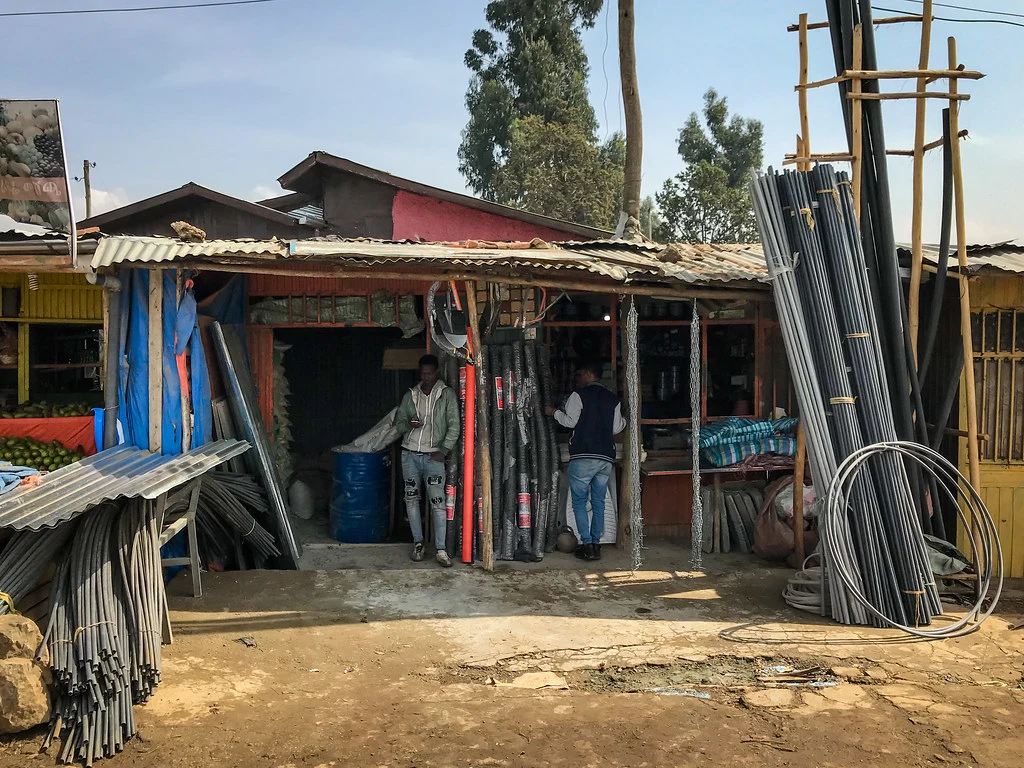
Engineer Builds E-commerce Platform to Mend Ethiopian Construction Industry
A year-old startup is entering the bustling construction sector with an e-commerce platform that aims to resolve systemic problems in the procurement and sale of construction materials and inputs. Founded by Kidist Nigiru, an engineer, “Mismar” (which roughly translates to “nails” in the Amharic language) sells everything from nails to ceramics. The platform, which was launched just three months ago, offers a simple visual interface that allows prospective buyers to connect with registered vendors. It also provides a comprehensive data set on the costs of construction materials. “We already have around 390 products available from around 40 registered suppliers,” said Kidist. The CEO hopes to relieve the unnecessary hassles faced by participants in the construction industry through a straightforward transaction tool. “What used to take weeks can be completed instantly,” she added. A graduate of Behiang University, one of the top public universities in Beijing, China, Kidist targets mass adoption of the service by procurement personnel in both the private and public sectors in the long run. She referred to the secure access to information for prospective buyers as an instrumental element in establishing Mismar as a key industry player.

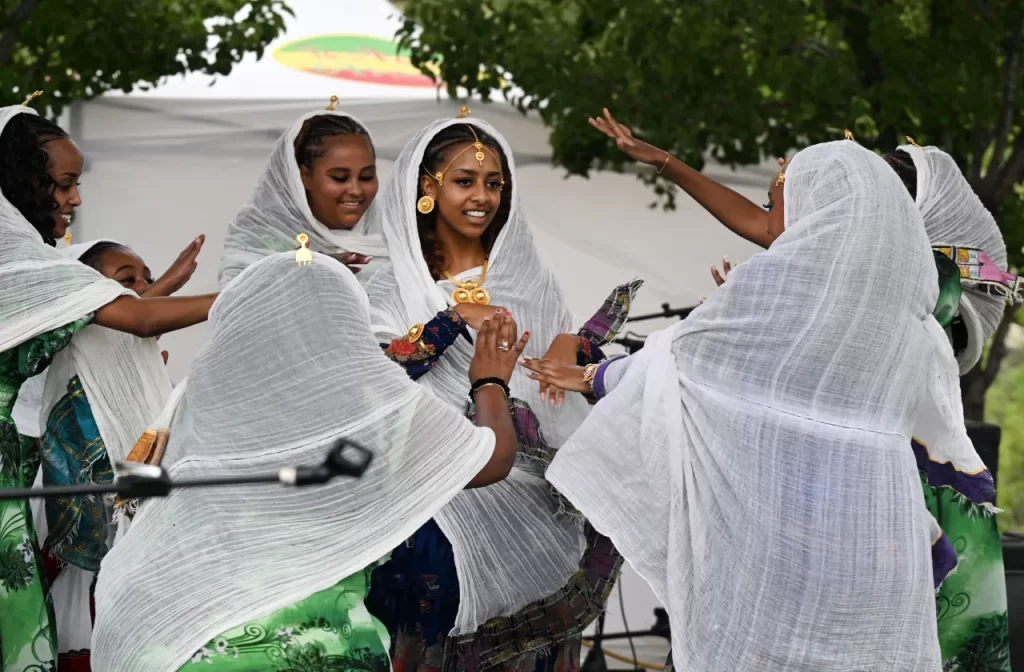
10th anniversary of Colorado’s Taste of Ethiopia Festival
The Taste of Ethiopia festival at Parkfield Lake Park in Denver on Aug. 4, 2024. Colorado’s Taste of Ethiopia Festival celebrated its 10th anniversary with an extended two-day event on Aug. 3 and 4, 2024. This special anniversary edition of Colorado’s Taste of Ethiopia Festival offered a unique opportunity to explore the rich heritage and vibrant traditions of Ethiopia. A wide array of traditional Ethiopian foods, collectibles, clothing and music and dance presentations were the highlights of the weekend long festivities. The event is organized by The Taste of Ethiopia Heritage Foundation which is a non-profit organization, was established for cultural, educational, and charitable purposes. This includes promoting and preserving Ethiopian heritage, supporting educational initiatives, and organizing the Taste of Ethiopia Festival to celebrate Ethiopian culture, which has been present in Colorado for over half a century.
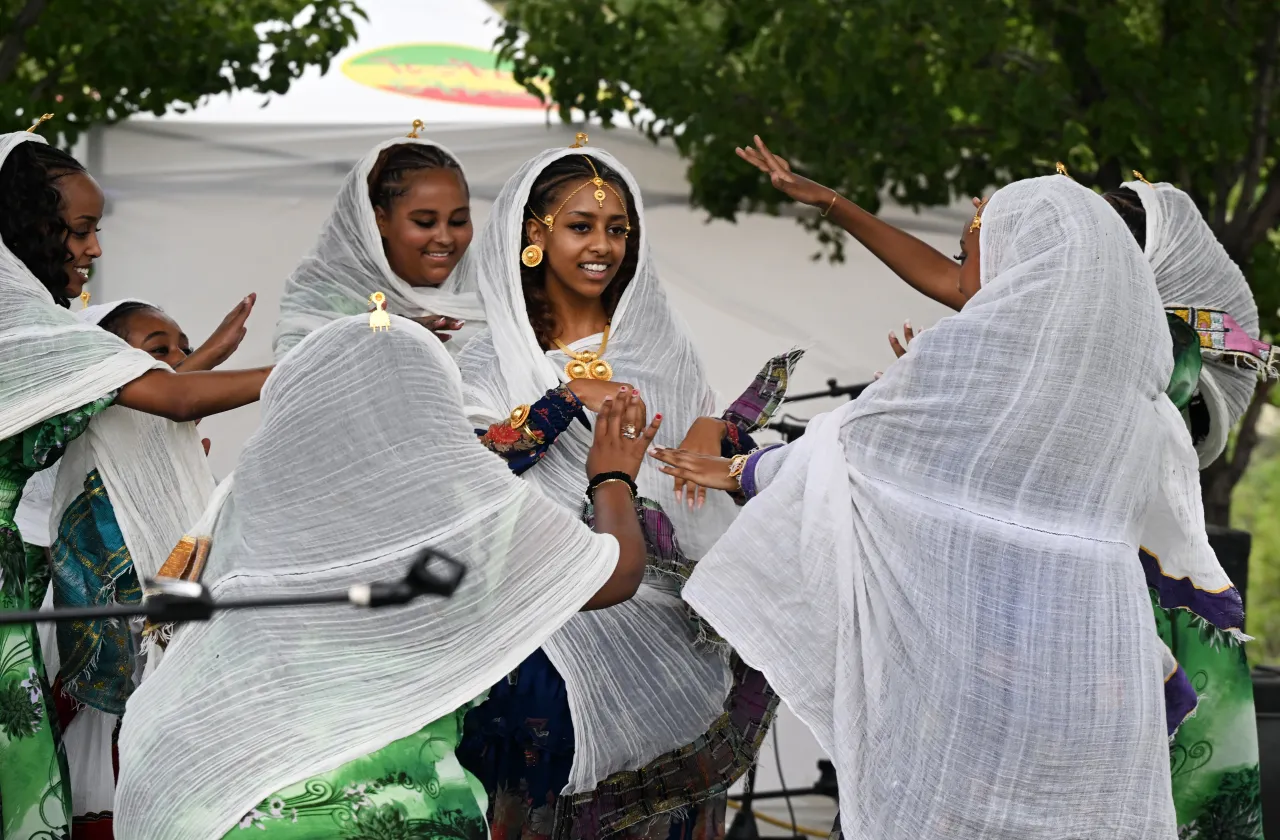
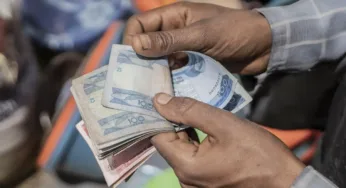
Ethiopian Currency Regime Overhaul Opens New Frontiers for Fintechs Amid Market Uncertainty
Ethiopia underwent a seismic financial transformation over the past week, floating the Birr after nearly five decades of captivity. The monetary upheaval cosigned by multinational financiers like the International Monetary Fund (IMF) and the World Bank resulted in a week of panic as the Birr plunged by nearly 80pc from around 57 birr against the dollar to above 100 in some commercial banks. Every player across the economic ladder, from the street vendor retailing paltry pieces of imported commodities to the stewards of the banking industry located in the capital’s financial district, is adjusting to the new norm. Finance Minister Ahmed Shide assured parliamentarians gathered for an urgent meeting to approve a 500-million-dollar credit line late Wednesday that the short-term spike in prices would mean little compared to the benefits of macroeconomic stability in the long run. “A chaotic response early on is expected,” he said. A formidable financial buffer buttressed by what is reportedly around 20 billion dollars over four years from a mix of credit line grants extended by the IMF, World Bank, and International Finance Corporation, among others, looks to safeguard Ethiopians from the harshest of blows arising from the fallout. Prime Minister Abiy Ahmed (PhD) pointed out that Ethiopia’s imports have primarily relied on parallel foreign currency markets, characterizing the floating of the Birr as a unification of markets more than anything else.


Breakthrough Innovation in Nanosilica to Slash Domestic Tire Production Costs by 50%
A landmark production technique developed by the Bio and Emerging Institute looks to cut tire manufacturing costs by half through replacing essential imported inputs with local alternatives. The state-owned enterprise has developed a method to replace nanosilica, an inorganic compound with wide-scope applications in industrial production, with derivatives from local acid manufacturers. While the compound is commonly applied in the medical industry as a drug carrier and as a source of bioavailable silicon in agriculture, its use as a polymer filler has made it a critical input in the tire production industry. Wondimagegn Mamo (PhD), Head of the Nanotechnology Directorate at the Institute, expects intense utilization of Ethiopia’s silica sand deposits to accelerate the growth of the tire manufacturing industry. He also noted the potential source from the outputs of local sulfate factories as an undervalued source of nanosilica deposits. “We are at an ideal point to begin mass production of the material,” he told Shega. The director pointed out the competitive advantages of locally producing nanosilca through its significant cost-cutting benefits. It is used in concentrations ranging from 5pc to 20 of the total weight of the rubber compound with source materials like silica and silicon tetrachloride.


Ethiopia Lifts Import Bans on Multiple Items, Maintains Ban on Fuel-Powered Cars
Ethiopia has removed import bans on more than 35 items but maintained its ban on imported fuel-powered cars, its Ministry of Finance said on Tuesday.
- In a letter signed by the Finance Minister, Ahmed Shide, the Ethiopian government has determined that 37 items that were on the list of banned imports would be traded freely, but imports of fuel-powered cars remained banned.
- Although no explicit reason was given, the decision is probably in line with the country’s determination to transition to electric or hybrid vehicles – a goal that the government thinks it can achieve by cutting off the supply of fuel-powered cars.
- Ethiopia became the first country in the world to ban fuel-powered cars, as one of its strategies to reduce reliance on fuel imports by 50%.


Ethiopia’s National Bank To Buy Gold In International Market Pricing
The National Bank of Ethiopia on Wednesday announced that it will be buying gold from suppliers and producers at a rate of the International Market Pricing as of July 29, 2024. The Bank stated that the change is related to the recent policy change to make Ethiopian currency exchange rate based on the “market rate.” From what the bank said, it appears that payment for it will be in Ethiopian currency. Suppliers and gold producers will have to get the daily market exchange rate provided by the bank and be paid for it based on that, the bank added. Suppliers will be getting an equivalent of the Gold Price in the International Market converted to Ethiopian Birr. Within three days of announcing the devaluation of the Ethiopian birr, the exchange rate in state-owned banks has changed three times. The first day it started to buy $US 1 for 75 Ethiopian birr. The next day it started to increase to 77 Ethiopian birr and on Wednesday the Commercial Bank of Ethiopia bought one U.S. dollar for over 81 Ethiopian Birr. It was this week that the Ethiopian government announced an unprecedented devaluation of the Ethiopian currency after nearly a year-long back-and-forth conversation with the International Monetary Fund and the World Bank officials.


We+ Joins Addis Ababa’s Ride-Hailing Market with Retirement Funds for Drivers
We+, a new ride-hailing platform, has entered the Addis Ababa market, offering its drivers a retirement fund. The platform aims to help 25,000 drivers save up by allocating a percentage of its commission for their retirement and other needs, such as medical expenses. “Our payment system deducts 10% from each trip, with 4% of that amount saved for our drivers,” says Kirubel Tarekegn, founder and CEO of We+. “Our goal is to create a better tomorrow by saving together.” The platform’s 10% total commission is on par with the industry standard. In addition, it has a flag-down fee of 105 birr and a per-kilometer fee of 18 birr. The deducted 4% is divided into two parts: half goes to investment, and the other half is saved for drivers to withdraw whenever needed. “Drivers can save up to 20,000 birr per year with this method,” says Kirubel. “We advise our drivers not to withdraw the money immediately. When the investment fund reaches a certain amount, we will establish an investment firm where our drivers will be shareholders. However, as per our agreement, they are welcome to withdraw anytime they want.”


World Bank Approves $1.5 Billion Initiative, Commits $6 Billion for Ethiopia’s Growth
Washington, July 30, 2024 — The World Bank’s Board of Executive Directors has approved the Ethiopia First Sustainable and Inclusive Growth Development Policy Operation, a substantial financial initiative aimed at bolstering Ethiopia’s economic reform agenda. This operation, consisting of $1 billion in grants and $500 million in concessional credit from the International Development Association (IDA), is poised to support home-grown reforms that encourage a more inclusive and resilient economy. The operation is designed to enhance the private sector’s role in the economy, address macroeconomic imbalances, and expand trade opportunities. It also aims to improve fiscal transparency and public spending efficiency, ensuring a more robust and transparent economic framework. Notably, the operation will also focus on protecting poor and vulnerable households from the adverse effects of economic adjustments, providing a critical safety net during periods of transition. Maryam Salim, World Bank Country Director for Eritrea, Ethiopia, South Sudan, and Sudan, emphasized the significance of the reforms supported by this initiative: “Successful implementation of these reforms can help the country reach its full potential so more Ethiopians can thrive. Importantly, there is a strong emphasis on protecting poor and vulnerable people from the costs of economic adjustment and expanding opportunities for them to participate in the economy.” The policy operation is part of a broader engagement by the World Bank in Ethiopia, which includes investments in various sectors such as health, education, social protection, and infrastructure development. This includes support for sustainable land and forest management, renewable energy expansion, and resilience building against climate risks. The initiative is complemented by other World Bank engagements, including the International Finance Corporation’s $320 million investment portfolio and the Multilateral Investment Guarantee Agency’s $1.15 billion in guarantees.


Ethiopia secures $3.4 billion IMF loan after floating currency
Ethiopia has secured a $3.4 billion loan from the IMF after floating its currency as part of the reforms to ease the country’s foreign currency shortages and attract foreign investments. “The four-year financing package will support the authorities’ Homegrown Economic Reform (HGER) Agenda to address macroeconomic imbalances, restore external debt sustainability, and lay the foundations for higher, inclusive, and private sector-led growth,” IMF said in a statement. The National Bank of Ethiopia has maintained a managed FX rate system, causing chronic dollar shortages that have affected importers and foreign investors repatriating profits. On Monday, the birr slumped 30% to 74.73 per dollar after the central bank removed restrictions on the FX market and committed that the regulator would only make “limited interventions.” Conditions attached to the IMF financing include adopting an interest-based monetary policy to maintain low inflation and fiscal reforms in government to boost revenue collections. IMF’s approval follows months of negotiations with Prime Minister Abiy Ahmed’s administration which wants to borrow more than $10 billion from the IMF and World Bank to help the country manage its growing debt. The East African nation defaulted on a $33 million international bond payment in December 2023.


Honouring Past Trailblazers
Aïda Muluneh. Mous Lamrabat. Prince Gyasi. Thandiwe Muriu. Zanele Muholi. These are just a few contemporary African photographers – from Ethiopia and Ghana to Kenya and Morocco – making waves in the art world. But, what about those who came before? Archivist and writer Amy Sall addresses this question in her new book, The African Gaze. Published by Thames & Hudson, this stunning compendium takes the reader on a journey through time to uncover Africa’s greatest lens-based practitioners. There are 25 photographers and 25 filmmakers featured, each with biographies that place them in context and footnotes that invite readers to learn even more. Some of the artists included are already starting to receive more international recognition, such as Seydou Keïta, Sanlé Sory and Ernst Cole. However, the volume really shines when it comes to spotlighting past visionaries overlooked by the canon. Many will know Keïta’s studio photographs showing the fashionably dressed people of Mali. However, fewer will recognise the name of his mentor, Mountaga Dembélé (1919-2004), who dubbed himself the “first Black photographer in Bamako.” Sall introduces us to him in The African Gaze, highlighting the artist’s archive of family portraits. One shows two women with arms over each other’s shoulders and fingers interlaced. Dembélé overlays purple and gold over the monochromatic base photograph to inject colour into the accessories and clothes of his subjects. The lens-based artist was known for his powerful vision for the overall piece and would often direct the poses of his clients in order to achieve the most interesting final result. In an interview with scholar Érika Nimis, Dembélé shared: “I decided on the poses people took… I organised all of that myself…Even the way the bandanas were tied, I did it for them.” As the Malian photography scene grows bigger and bigger – with events like Bamako Encounters spotlighting lens-based creativity since 1994 – this is a moment to give credit to an early pioneer of the medium.

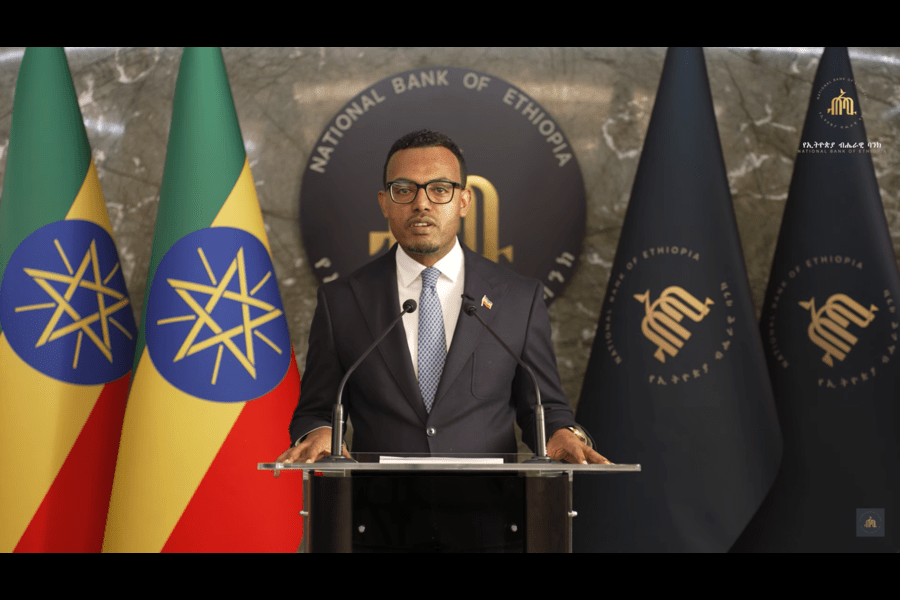
Ethiopia Lifts Foreign Exchange Restrictions in Sweeping Reform
In a momentous departure from its erstwhile tightly controlled policies, the National Bank of Ethiopia (NBE) has granted permission to commercial banks to freely negotiate foreign currency exchange rates with clients and amongst themselves.
They are granted, effective today and alongside exporters the liberty to hold onto their foreign exchange earnings, which is a departure from the prior obligation to surrender forex to the central bank. Non-bank foreign exchange bureaus have been given the nod to conduct business, armed with the capability to trade foreign currency cash notes at market rates.
A part of an extensive overhaul of the country's foreign exchange regime by the Central bank Governor Mamo Mehiretu, the NBE has committed to limiting its interventions in the forex market, primarily to maintain order. A shift to a market-based determination of exchange rates was announced by Governor Mamo, marking an epoch-making crucial from the historical inflexible policies. Yet, capital account outflows will continue to be under control.
Exporters have now been permitted to hold onto 50pc of their foreign exchange proceeds, a noticeable increase from the earlier 40pc. The waiting list system for banks' allocation of forex has been done away with, making it easier for importers to gain access. Ethiopian residents can now revel in the simplified rules on foreign currency accounts, which permit them to open accounts based on incomes in forex, inclusive of remittances and salaries. They can open these accounts for disbursements related to foreign transactions. The ceiling on interest rates for foreign loans to private entities has also been removed, a step in the direction of attracting more investment, according to the Governor.


Maryland state delegates host African Diaspora town hall in Silver Spring


Exclusive Electric Vehicles Garages Spring Up in Addis Ababa
Right in front of the fuel depot at Addis Ababa Bole International Airport lies a hub crowded with electric vehicles (EVs). The area resembles a showcase for the Volkswagen series, not to mention the Mercedes EQ, BYD Seagull, and Toyota bz4x parked in the premise. On a foggy day two weeks ago, Birhanu brought his gray Volkswagen Intelligent Design (ID) 6 to this place. He is hoping to find a solution to the problem he is facing with his car. “It keeps giving me alerts with red lights,” he says. Birhanu bought his ID6 for 4.2 million birr, expecting to cut fuel costs. “It helped me save a fortune,” says Birhanu. According to Birhanu, who is a contractor, servicing an EV is a little expensive, but considering the savings, he believes it’s a fair deal. “I am not spending money on oil changes or fuel, so it’s not that bad to pay a little extra compared to fuel cars,” he smiles. The place he went was Gerar EV Garage, one of the few emerging exclusive EV garages in the capital. Despite the garage catching up with the times, Gerar has been in business since 1979. “It used to be our family’s business. Currently, my brother and I run it,” Zelalem Bayu, CEO of Girar EV Garage, told Shega.

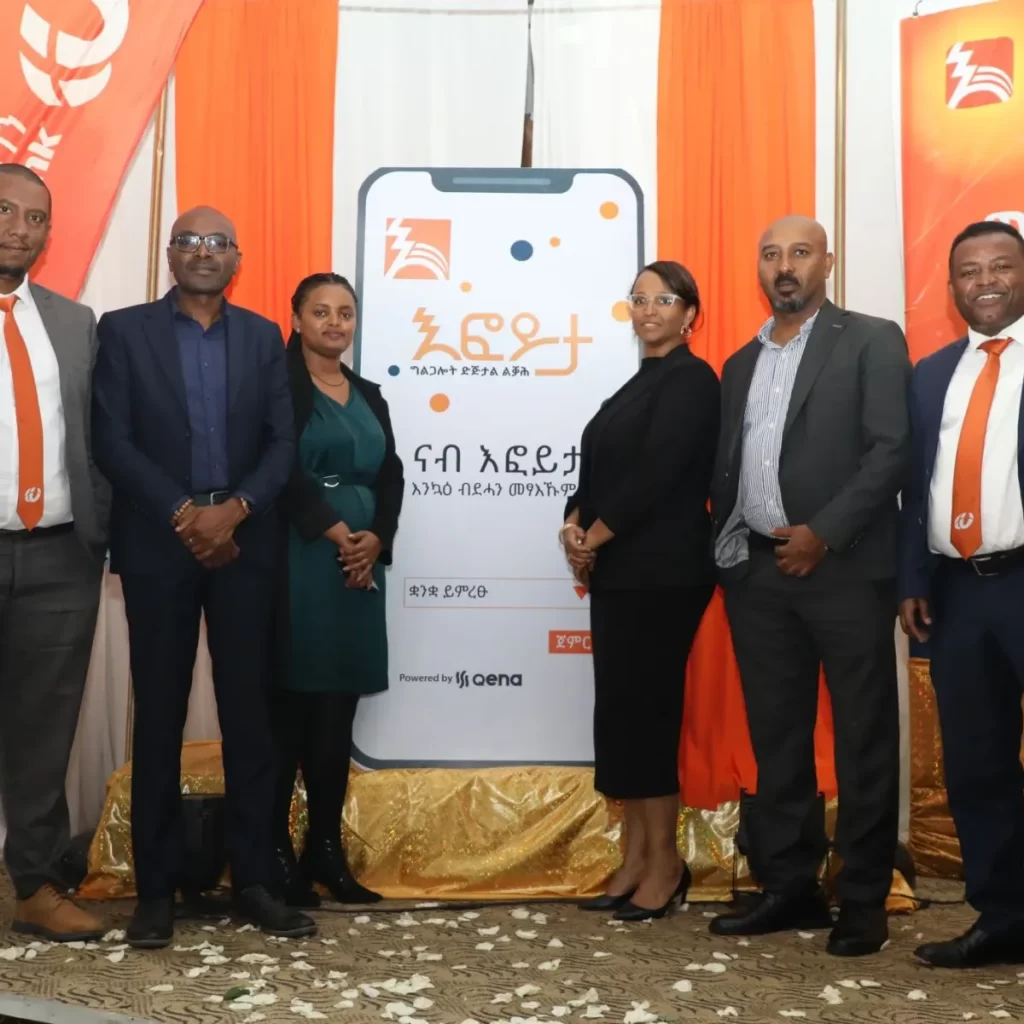
Wegagen Bank Launches Digital Lending Platform in Partnership with Kifiya
Wegagen Bank, in partnership with Kifiya Financial Technology, has launched a new digital loan service, ‘Efoyta.’ Powered by Kifiya’s Qena, an intelligent financial services platform, ‘Efoyta’ aims to address the working capital needs of MSMEs. The announcement was made on July 22, 2024, during a formal launch event held at the Planet Hotel in Mekelle, Tigray region, where Wegagen has a strong presence and plans to deploy the majority of its allocated digital lending capital. The Efoyta digital loan service will offer loans ranging from 5,000 to 50,000 birr. Currently, two types of loans are active on the app. Efoyta Wase offers loan amounts from 500 to 15,000 birr, with a repayment period of up to one month. A 2% access fee and a daily interest fee of 0.95% are attached to the terms. These loans are open to every Wegagen customer. Meanwhile, Efoyta Melegna targets women informal sector workers and offers amounts up to 5,000 birr. It has a duration of one month with no access fee. This loan type has an interest rate of 3.75%. While Shega was unable to receive a formal response, it has learned that the high interest rates for Efoyta Wase, which could reach up to 28% per month are due to the bank just entering the digital lending scene and that these rates could change over time.


Safaricom Shareholders Approve KSh26.04 Billion Final Dividend
Safaricom shareholders have approved a final dividend of KSh0.65 per share, amounting to KSh26.04 billion for the financial year ended 31st March 2024.
- This follows an interim dividend of KSh0.55 per share, totaling KSh22.04 billion, that was paid in March 2024 bringing the total dividend payout for the year to KSh1.20 per share, representing a total of KSh48.08 billion.
- The telco maintained a KSh1.20 per share dividend in net profit for the full fiscal year 2024, having recorded a mild 1.2% jump in profit after tax to shareholders in the period.
- The strong performance was buoyed by a surge in service revenue in the Kenyan unit, particularly MPESA. However, the Ethiopian subsidiary dragged the overall performance with the board maintaining optimism of a break even scenario.


USWNT star Naomi Girma represents best of America, on and off field
Naomi Girma is the best of America.
In the literal sense, she is U.S. Soccer’s reigning Female Player of the Year and, at just 24, the anchor of the back line for the U.S. women’s national team. She’ll make her Olympic debut with the USWNT on Thursday, a year after playing every minute of every game at the World Cup.
But it’s the figurative sense that’s even more important. Girma is a first-generation American, the daughter of two Ethiopian immigrants. When she dons the jersey with the U.S. crest on the chest, it’s a reminder of the promise this country holds and proof of how much better we are when we welcome, and celebrate, the melting pot of races and cultures that is uniquely American.
“Diversity and embracing other cultures is what makes us so special, and I think that's what has put us ahead for so many years,” Girma said. “I think that's something that we should continue to do.”
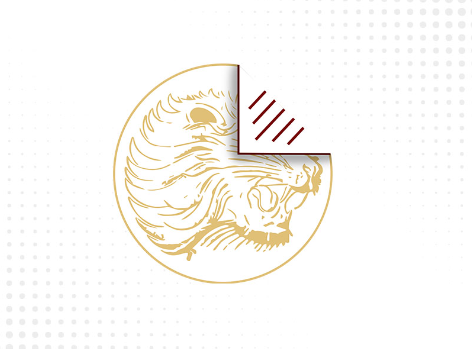
Banks to Venture into Real Estate, Capital Markets Under New Directive
The shift in the regulatory environment comes from a new directive issued by Central Bank Governor Mamo Mehiretu, which became effective on July 19, 2024. It is a critical component of the Governor's broader agenda to reform the financial sector, targeting risk management and capital market development as well as compelling banks to focus on their core banking functions. The directive limits banks' investment activities, concentrating on the risks associated with their diversified business activities. By setting boundaries on where and how banks can invest, Governor Mamo seeks to prevent potential overexposure to volatile sectors, including the real estate market, and ensure that banks remain focused on traditional banking operations, such as debt financing and interest-free banking. However, the directive also imposes strict prohibitions on certain activities. Banks are explicitly barred from engaging directly in insurance businesses, serving as capital market service providers, engaging in non-banking businesses, or holding equity shares in credit rating agencies. “These restrictions are designed to maintain a clear separation between banking and non-banking financial activities,” said a macroeconomist familiar with the works of the central bank. “Reducing conflicts of interest and ensuring that banks' primary focus remains on core banking operations.”Governor Mamo's tightrope walk between reform and restrictions
Commercial banks are now permitted to acquire equity shares in capital market service providers, with the exclusion of credit rating agencies, subject to prior approval from the central bank. They can also invest in the real estate sector and hold equity shares in a single insurance company.


Ethiopian Airlines Takes Over Gorgora Resort Management
Ethiopian Airlines has officially taken over the management of Gorgora Resort, which will now operate under the Ethiopian Skylight Hotel brand. This significant development was announced during a formal agreement ceremony held at the Ethiopian Skylight Hotel today.
Ceremony Highlights and Attendees
The event saw the presence of key dignitaries, including Arega Kebede, the President of the Amhara Region, along with other senior officials from the region. Ethiopian Airlines was represented by its Chief Business Officer, Ato Lema Yadecha, alongside other company executives.
Strategic Vision for Hospitality and Tourism
The decision to entrust the management of Gorgora Resort to Ethiopian Airlines is part of a broader strategy to enhance the hospitality and tourism sectors within the region. By leveraging the expertise and resources of Ethiopian Airlines, the resort is expected to see improvements in service quality, operational efficiency, and overall guest experience. This move aligns with Ethiopian Airlines’ vision to diversify its portfolio and strengthen its presence in the hospitality industry.
Expansion of Resort Management Portfolio
In addition to Gorgora Resort, Ethiopian Airlines has recently taken on the management of several other prestigious properties. These include the Halala Kela Resort, Wonchi Eco Lodge, and Chobera Churcura Elephant Dana Lodge, all of which were developed under the Gebeta Le Hager Project. This project aims to promote tourism and conservation efforts in Ethiopia by creating high-standard, eco-friendly resorts that showcase the country’s natural beauty and cultural heritage.

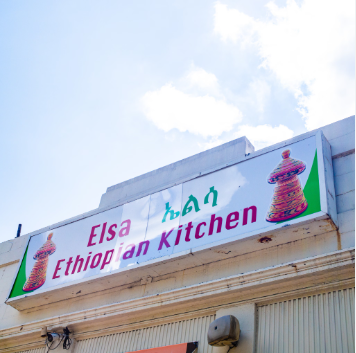
Opinion | This Ethiopian spot gives diners what they want: Authenticity


‘Electric tractors are the future of farming’ says Tánaiste Micheál Martin as he unveils first Irish-built EV model on visit to Ethiopia
All Irish tractors will eventually be electric, the Tánaiste has predicted during his trip to Africa after climbing aboard the first Irish electric tractor ever built.
The 40hp Ox-4 has been developed by Regenerators Ltd, a firm co-founded by Dubliner David Moore and UCD-educated Girma Moges.
The lightweight beast will be rolled out to Ethiopian farms, where only 1pc are mechanised, the rest still using oxen to plough.
Ethiopia’s electricity is 98pc hydro-generated, meaning a kilowatt hour costs only a single euro cent – which in turn means an electric tractor can be run for 90pc less than one reliant on traditional fossil fuels, as all Irish tractors are.
Furthermore the electric tractor will be sold for only €25,000 (the battery costs half the retail price, but can recharge in four hours), compared to over €100,000 for a standard tractor here.
“Over time, electric will be the future, of that there is no doubt,” Mr Martin said in Hawassa, Ethiopia, agreeing that all Irish tractors will eventually be electric.
“It is only a matter of time, and we must continue to invest in research and development to make it happen. That’s the key to it.”
The development of the tractor has been grant-aided by Ireland through the Universities of Limerick and Hawassa sharing knowledge and expertise.

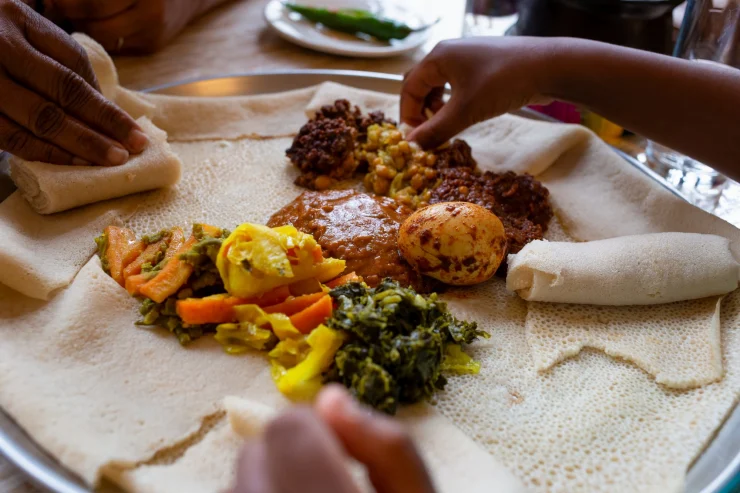
This dish is a staple of one of the world’s most underrated cuisines
Plate up
Name the world’s most underrated cuisine. You might select Georgian food, which is fair. Peruvian cuisine still doesn’t get the recognition here in Australia that it deserves. Even Chinese food, given its incredible diversity, isn’t fully appreciated by the rest of the world.
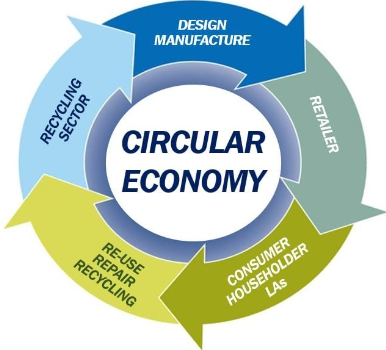
Ethiopia Launches Nat’l Circular Economy Roadmap to Unleash Its Full Development Potential
Ethiopia has launched today a National Circular Economy Roadmap to unleash the country’s full potential of the circular economy through creating an enabling environment. The circular economy is a model of production and consumption, which involves sharing, leasing, reusing, repairing, refurbishing and recycling existing materials and products as long as possible. Circular Economy Roadmaps are a strategic tool for promoting comprehensive change in developing countries towards a circular economy through concrete and practical solutions tailored to the countries’ unique context that allow them to transition from a linear to a circular economic model. They contain a vision as well as goals and tangible action points that support them in adopting and implementing circular economy solutions. The Environmental Authority of Ethiopia has today launched Ethiopia's Circular Economy Roadmap in collaboration with African Development Bank, Embassy of Finland, Africa Circular Economy Facility and African Circular Economy Alliance in Addis Ababa. The kickoff of the project in Ethiopia aligns the country with Benin, Cameroon, Chad, and Uganda in adopting Circular Economy principles to address developmental challenges. National Circular Economy Roadmap (NCER) project will be financed by the African Development Bank and Embassy of Finland in Ethiopia with technical support by African Circular Economy Alliance (ACEA).

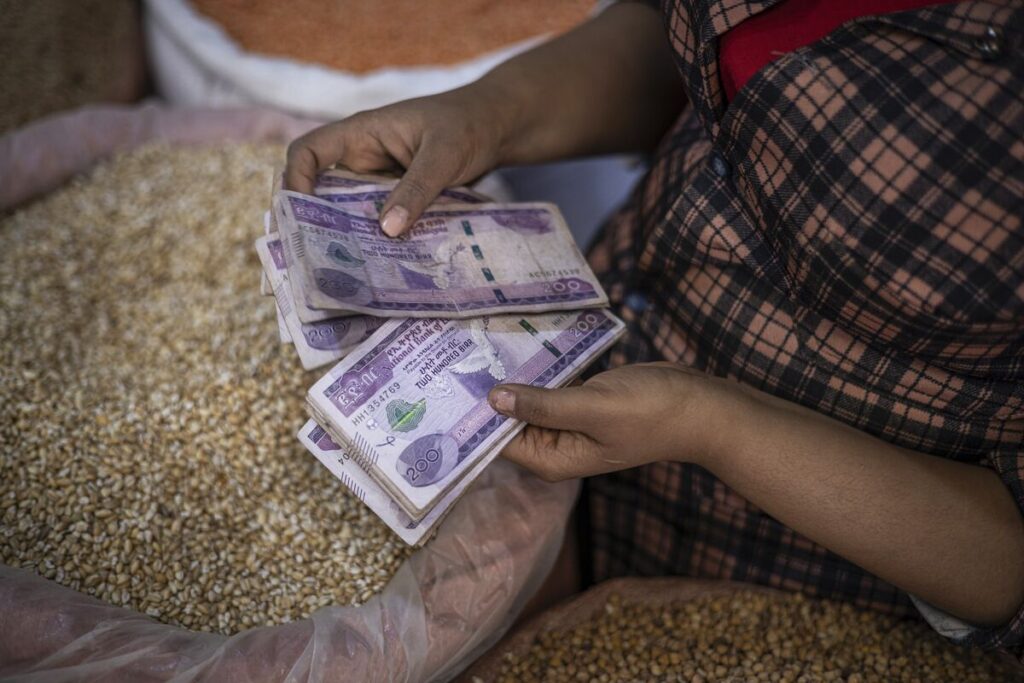
Ethiopia Wins Financing Assurances Key for New IMF Loan
Ethiopia’s official creditors have granted financing assurances to the country to help fast-track approval of a new loan by the International Monetary Fund’s executive board, according to people familiar with the matter.
Members of an official creditor committee held a meeting last week to approve the financing assurances, according to two of the people, who asked not to be named because the talks are private. Financing assurances mean that bilateral creditors such as the Paris Club and China provided certainty that they will restructure their loans to Ethiopia in a way that’s consistent with the fund’s program.
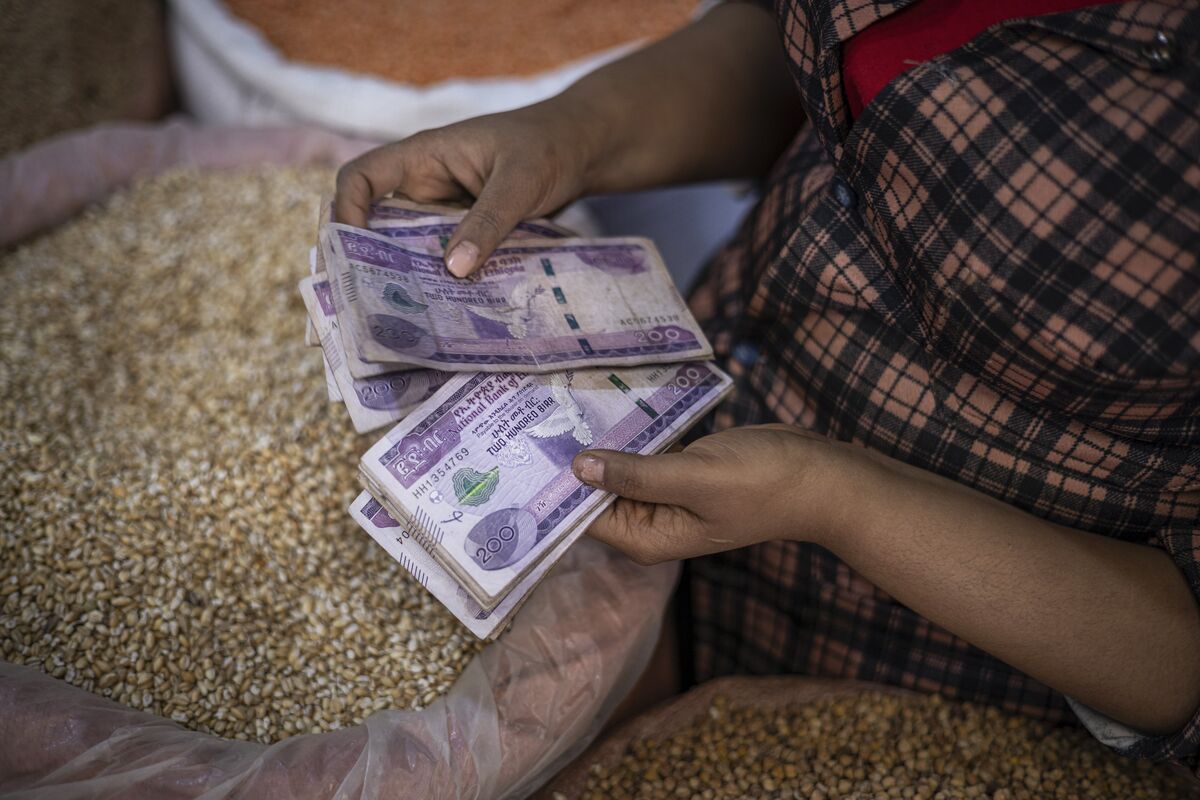

Awards for Excellence country winners: Ethiopia
Awash Bank greatly expanded its digital solutions last year, achieving high levels of engagement across mobile and internet banking.


Cloud 251 Takes Off: A Secure Cloud Future for Ethiopian Businesses
Cloud 251, a rising Ethiopian cloud powerhouse, has soared into the market perfectly timed with the implementation of Ethiopia's new Personal Data Protection Law. This launch breaks new ground by offering secure, Amazon Web Services (AWS)-caliber cloud infrastructure located entirely within Ethiopia's borders. Gone are the complexities of international transactions. Through their user-friendly website, Cloud251.com, businesses can now browse, pay securely in Ethiopian Birr using the EthSwitch gateway, and access their virtual machine – all in one place. This one-stop shop is a game-changer, particularly for organizations like banks that traditionally face high costs for data center upkeep. Cloud 251 offers a secure and cost-effective alternative. But Cloud 251 isn’t flying solo. They’ve partnered with Raxio Group, Africa’s leading data center operator, to accelerate digital transformation across the continent. This strategic alliance has a particular focus on expanding cloud solutions for the Ethiopian and regional markets. Raxio’s strong presence in Ethiopia, coupled with their renowned world-class facilities and commitment to sustainability, makes them the perfect partner. This collaboration forms a powerful ecosystem that fosters digital change in Africa. The alliance combines Raxio’s reliable carrier-neutral data centers with Cloud 251’s cutting-edge cloud services, translating to stable infrastructure and scalable computing resources for organizations. “Cloud 251 leverages Raxio’s top-tier data centers to deliver a comprehensive range of cloud products,” says Tigest Damtie, CEO of Cloud 251. “We also provide expert cybersecurity consultations, empowering businesses to build strong security plans and outsource management.”

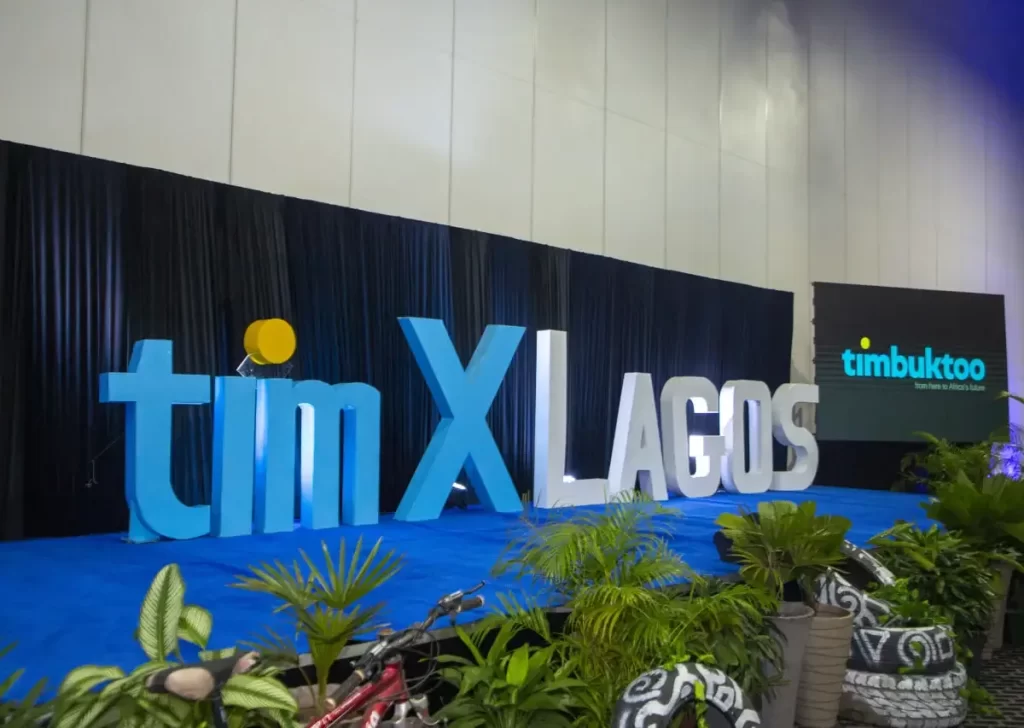
Two Ethiopian Startups Reimagining Traditional Institutions Make the Cut in Timbuktoo’s Fintech Accelerator
eQub, a fintech startup aiming to digitize equb (peer-to-peer saving groups), and HuluCares, a startup focused on providing community-based Idir insurance, have been selected for the inaugural Timbuktoo Fintech Startup Accelerator Program. These two startups were chosen from among 817 applicants across Africa. A total of 42 startups from 31 countries were selected to participate in the program in Lagos, Nigeria. “We plan on leveraging this opportunity by engaging with African stakeholders, investors, fellow startups, and partners to scale our company to the next level,” Alexander Hizkias, co-founder and CEO of eQub, told Shega. Inspired by the city of Timbuktu in Mali, the Timbuktoo Initiative was launched in January 2024 as an ambitious plan to mobilize and invest one billion dollars to nurture entrepreneurial ventures across Africa. The Timbuktoo Fintech Hub in Lagos, Nigeria, serves as the first of 10 planned technology centers across the continent, with future hubs slated for Kigali, Cairo, Cape Town, Accra, Casablanca, Dakar, and Nairobi. In April, it was announced that Addis Ababa is inching closer to becoming the ninth hub of this ambitious pan-African initiative. The selected startups will participate in a four-week immersive bootcamp, receiving product refinement and scaling support. This intensive program includes pitching sessions with Africa’s leading investors, masterclasses with fintech experts, and fireside chats with industry executives. The bootcamp will be conducted in a hybrid format, offering continuous virtual support alongside a two-week physical residency in Lagos, Nigeria.
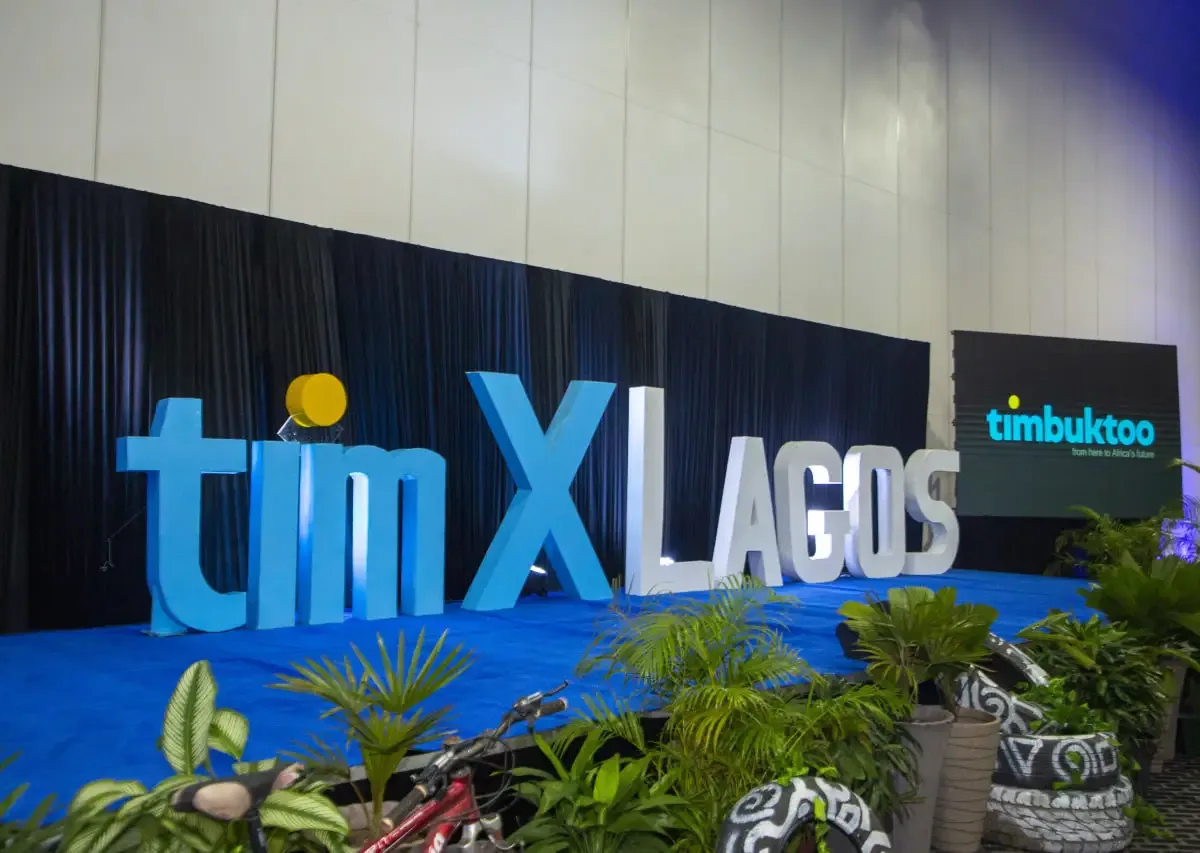
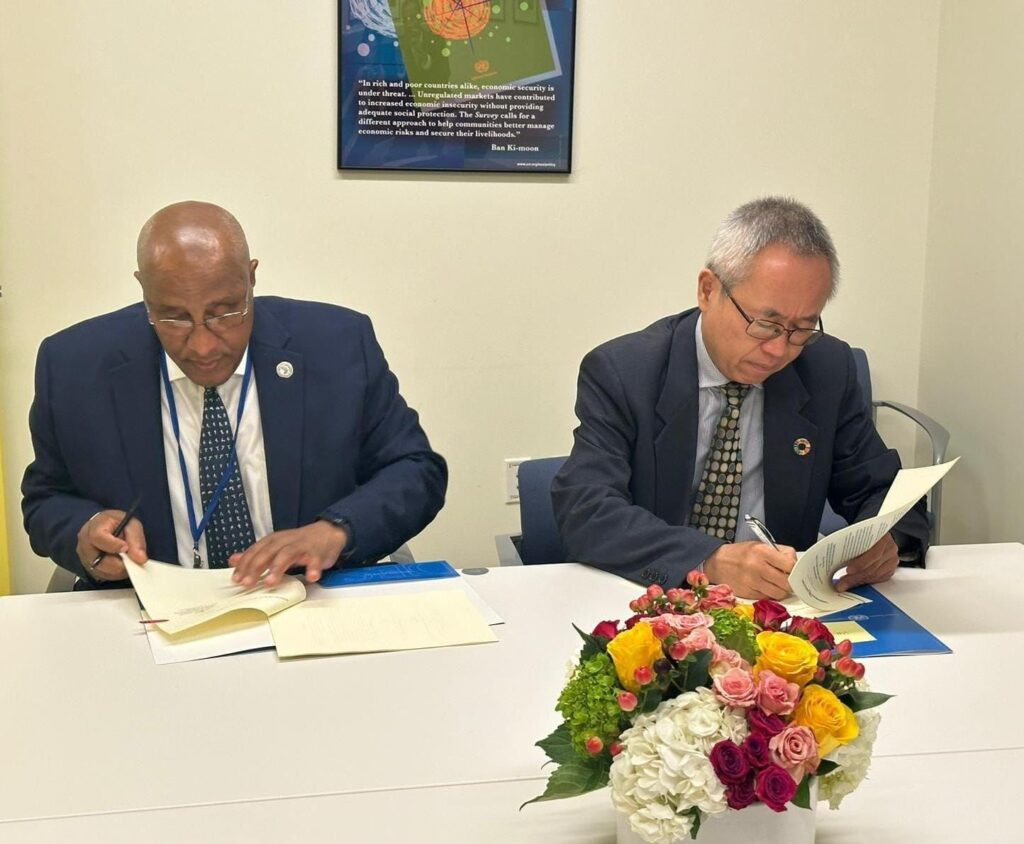
Ethiopia Sign Agreement With UN to Host International Conference on Financing for Development
Ethiopia has signed a Host Country Agreement with the UN to host the first preparatory session for the fourth International Conference on Financing for Development which will be held in Addis Ababa from July 22-26, 2024. According to Foreign Affairs Ministry, the agreement was signed in New York. Ambassador Tesfaye Yilma, Permanent Representative of Ethiopia to the United Nations while Li Junhua, Under-Secretary-General for Economic and Social Affairs inked the agreement representing the UN. During the signing ceremony, Ambassador Tesfaye underlined that hosting the conference is an expression of Ethiopia's firm commitment to a more effective UN development system and a reinvigorated multilateralism. The Under-Secretary-General on his part appreciated Ethiopia's commitment and role in hosting the UN preparatory Conference on Financing for Development. Both underscored the importance of the conference in setting the right tone to galvanize the international community to mobilize finance for the implementation of the 2030 Agenda and for Sustainable Development.


Ethiopia eyes value addition to harness coffee potential amid growing demand from China
In a bustling coffee processing plant filled with the aroma of top-notch Arabica coffee in Addis Ababa, the Ethiopian capital, a group of women were busy sorting out defective green coffee beans to ensure that only the finest-quality beans move on to the roasting and packaging stages. One of these dedicated women can sort defects from up to 150 kg of raw coffee beans each day at the Hadero coffee processing plant. The sorted green coffee beans would then pass through the inspections, roasting, grinding, and packaging stages before they are ready for buyers on the shelves of supermarkets and coffee shops in Ethiopia and around the world. Named after a small coffee-producing town in southern Ethiopia, Hadero is among the rapidly growing list of coffee processing businesses in Ethiopia that are specialized in coffee sector value addition, as part of a broader push to transform the country's coffee industry. "We are a homegrown company, and we aspire to increase Ethiopia's earnings from the export of coffee through value addition and proper marketing," said Mubarek Ahmed, the company's director of business development. Ethiopia stands as Africa's largest producer of Arabica coffee, with coffee production serving as a linchpin of the country's agriculture-led economy. There are about 5 million smallholder coffee growers in Ethiopia, and more than 25 million people in the country are involved in coffee production, processing, and sales for their livelihoods, according to official figures.


Central Bank of the UAE, National Bank of Ethiopia sign currency swap agreement, two MoUs
Khaled Mohamed Balama, Governor of the Central Bank of the UAE (CBUAE), and Mamo E. Mihretu, Governor of the National Bank of Ethiopia (NBE), have signed a bilateral currency swap agreement for the UAE Dirham and Ethiopian Birr. The two parties also entered into two Memoranda of Understanding (MoU) to establish a framework for the use of local currencies in settling cross-border transactions and for linking their payment and messaging systems. The agreement allows the CBUAE and the NBE to swap local currencies with a nominal value of up to AED 3 billion and ETB 46 billion. This supports the financial and commercial cooperation between the UAE and Ethiopia through the provision of liquidity in local currencies to financial markets, enabling more effective and efficient settlement of cross-border transactions. Under the first MoU, the CBUAE and the NBE will consolidate efforts to promote the use of their respective currencies in settling transactions between the UAE and Ethiopia. The MoU covers several measures that will facilitate the use of the two countries’ local currencies in the settlement of commercial transactions. It also encourages financial and banking cooperation through knowledge-sharing, ultimately supporting the development of their respective financial markets whilst facilitating bilateral trade and bolstering direct investment.

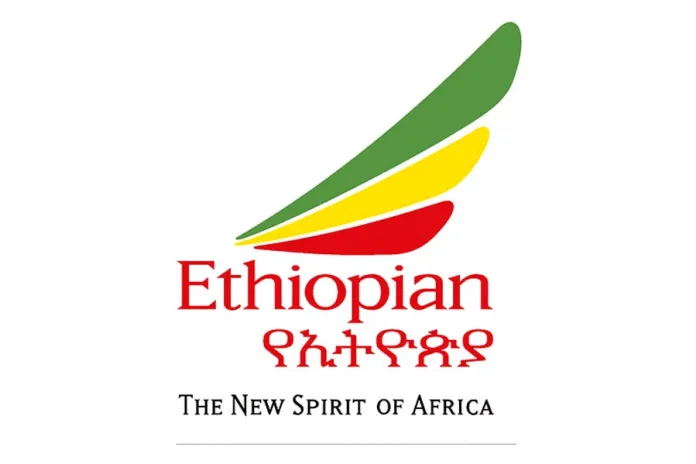
Ethiopian Airlines mandates dollar-only ticket purchases for international travelers
Ethiopian Airlines has announced that airline tickets for passengers outside the country will now only be available for purchase in US dollars. Previously, air transport tickets for international travelers could be bought using birr if they come to Addis Ababa, but this change is effective immediately fom Monday July 8, 2024. The new policy will affect companies with the issue of limited dollar availability. Concerns have been raised about the potential impact of this decision, with sources indicating that it could significantly affect their operations. Traditionally, Ethiopia has allowed foreign tourists to purchase air tickets in local currency during their visits. However, under the new system implemented by Ethiopian Airlines, these purchases must now be made in dollars. Last week Capital reported that the inability of airlines to repatriate funds from ticket sales in Ethiopia is hindering the country’s economic growth and recovery citing industry leaders. As of June 2024, Ethiopia had $115 million in airline funds blocked from repatriation, the third highest amount in Africa behind only Algeria ($261 million) and the CFA Franc Zone countries ($140 million). This represents over 13% of the total $880 million in blocked airline funds across the African continent. “The blocked funds issue is a significant constraint on our ability to invest and operate effectively in the Ethiopian market,” said Kamil Alawadhi, IATA’s Regional Vice President for Africa and the Middle East. “It undermines confidence, limits route network development, and reduces the economic benefits that aviation can deliver for Ethiopia.”


Path to space program empowers over 300 students in space exploration
Ethiopia has made significant strides in space exploration, with over 300 students enrolling in the Path to Space program, designed to propel the nation towards success in this frontier. Over the past five months, the inaugural Pathways to Space initiative has trained 312 students in processes ranging from assembling small satellites to launching them in the future. The program, a collaborative effort involving Ethiopia, Nigeria, and Tanzania, is spearheaded by the Space Science and Geospatial Institute of Ethiopia (SSGI), the Boeing Company, and the Future African Space Explorers STEM Academy (FASESA). This initiative not only provided students with hands-on experience in testing their designs in real-world scenarios but also sparked their interest in space exploration, laying a foundation for their future education and careers in this exciting field.


Ethiopia Prepares to Welcome Second-Generation Diaspora for Summer Impact Programs
The Ethiopian government has announced comprehensive preparations to engage second-generation Ethiopians in various developmental activities during the summer months. This initiative aims to allow these citizens to leave their mark on their ancestral homeland. Minister of Tourism, Ambassador Nasise Challi, made the remark while receiving a group of second-generation Ethiopians that arrived in Ethiopia this morning at the Addis Ababa Bole International Airport. This influx is part of the third phase of a program which began in this rainy season to 30 September 2024 under the motto "Leave Your Legacy." It follows two previous successful rounds that saw numerous Ethiopians from around the world responding to Prime Minister Abiy Ahmed's call to visit their homeland. Minister Nasise elaborated on the opportunities awaiting the visitors: "We have organized various programs for our second-generation Ethiopians to make meaningful contributions during their stay." These include participation in the Green Legacy initiative, renovation projects for underprivileged communities, summer educational programs, and other charitable activities. The minister also mentioned that tours have been prepared to showcase various tourist destinations across the country.


The New Ethiopian Scene
She paused to let me consider her tray, and as she did, a cloud of smoke raced ahead of her, enveloping our table in fragrance. On one side of the tray: a pan of green coffee beans, source of the sizzling and popping, mid-journey to roasting black in a long-handled metal pan. On the other side: a perforated lantern with incense pouring forth in a white cloud. Between the two smoking vessels: tiny coffee cups cradled by tiny saucers. The server left us with the incense and tray and returned the coffee beans to the kitchen. When these freshly roasted beans came back to us, ground and steeped, they were inside a jet-black jebena, an Ethiopian coffee pot, oven-hot, set to rest inside a colorful ring basket on our tray. Decanted into tiny cups, the coffee was dark, intense, smoky, need I even say fresh—but it felt like something more important than coffee. It was a reminder that “coffee culture” is not a thing that originated in Seattle. It has literal roots in Ethiopia, the native home to the woody evergreen that makes the berries that hold the seeds that make our mornings bright. I asked the server what was inside the incense burner. It looked like charcoal; it smelled like church. “Frankincense,” she answered. Frankincense? Like the stuff the three kings brought to the baby in the manger? That frankincense? Indeed. Jesus! That baby born near the eastern shores of the Mediterranean who gave us eternal wisdom. You know what happened next: Some of his followers set up a church in Rome. Simultaneously, though less well-known in the West, others set up a church in present-day Ethiopia. We call the religious organization created by the latter the Ethiopian Orthodox Tewahedo Church.

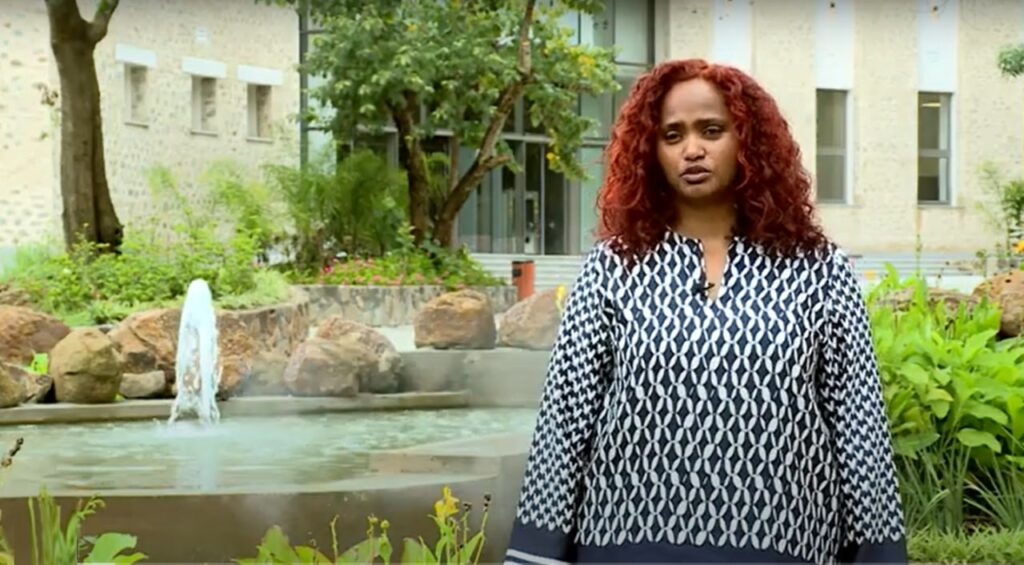
New Tourism Dev’t Initiatives Key to Enhance Ethiopia’s Competitiveness in Industry
Tourism development projects being implemented across Ethiopia spearheaded by Prime Minister Abiy Ahmed’s initiatives have been able to showcase the country’s hidden attractions, Tourism Minister Ambassador Nasise Chali remarked. Prime Minister Abiy Ahmed has inaugurated the Gorgora Eco Resort, developed under the “Dine for Nation” initiative in Amhara region of Ethiopia, on Saturday. Tourism Minister Ambassador Nasise Chali said the ongoing tourism development initiatives including the Gorgora Eco Resort are key to enhance the tourism sector in Ethiopia and elevate the country’s competitiveness in the industry. Citing the commendable accomplishments recorded in the Gorgora eco resort, she underlined that the projects' highest quality infrastructures demonstrate the ability of progressing in development. Gorgora eco resort project has become a state of the art tourism destination by imparting wisdom in the existing beautiful nature, the minister indicated. Ambassador Nasise invited tourists both from abroad and within Ethiopia to visit this mesmerizing natural beauty.
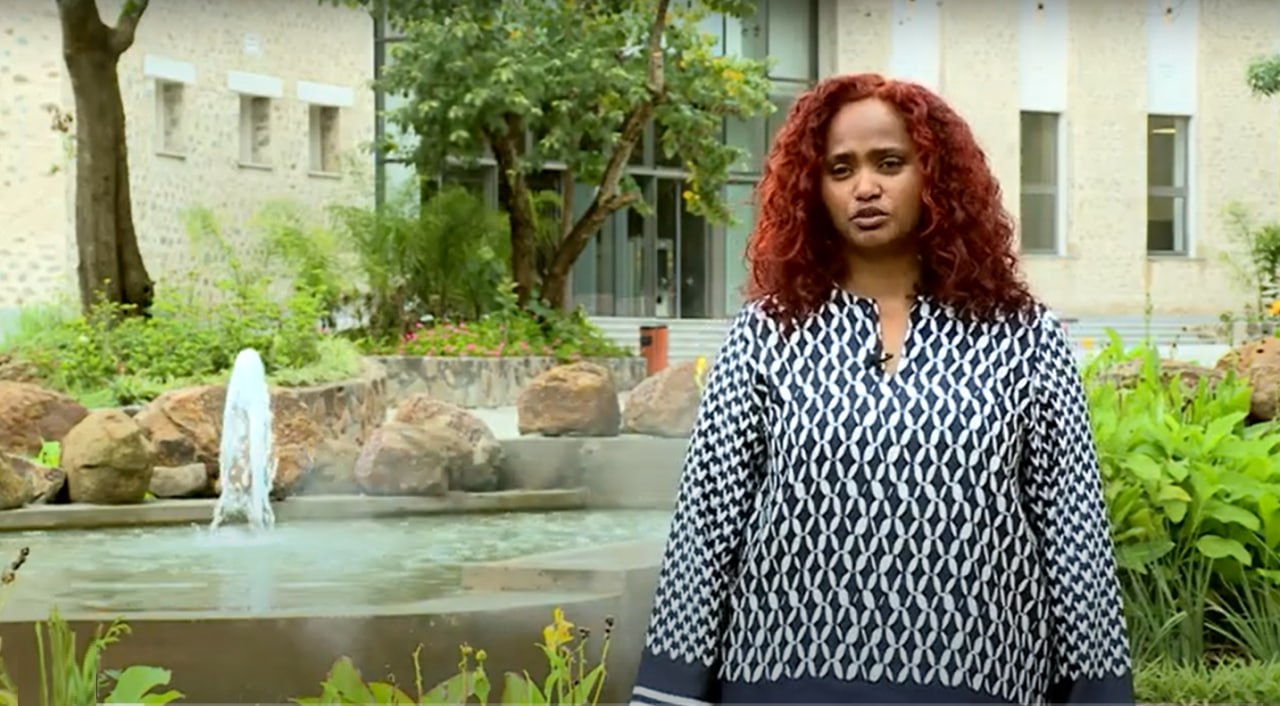

Taxi to ‘Tizita,’ Ethiopian-born musician Hailu Mergia has always put his music first


From Child Psychologist To James Beard Finalist: Meet Chef Fariyal Abdullahi
In a culinary ecosystem often dictated by tradition and uniformity, Chef Abdullahi has firmly established herself as a beacon of innovation and inclusivity in all realms of her work. With a remarkable culinary path, she is currently the Executive chef at Hav & Mar in New York City and was a finalist for the 2024 James Beard Awards in the category of Emerging Chef. She is a critically acclaimed executive chef, food network judge, philanthropist, and judge at the Celebrity Family Food Battle on Ruku. Abdullahi’s story is as compelling, diverse, and vibrant as her culinary creations. Fariyal stands out as a genuine trailblazer in a culture craving creativity and individuality, breaking boundaries and redefining the narrative of representation in the kitchen. In 2021, Marcus Samuelsson and Anna Wintour invited Fariyal to the Met Gala, as Vogue wanted ten top chefs in their fields to curate the menu for the night, attend as guests, and walk down the prestigious red carpet. Before her career in the culinary space, she was a child psychologist before answering an internal calling to switch career paths. So, instead of getting a graduate degree as she intended, she bet on a dream and applied to the Culinary Institute of America. We spoke to Abdullahi about her colorful career, pivots, and what keeps her inspired.


Dashen’s Ingredients for Success: Authentic Ethiopian Food, Hard Work
NEW BRUNSWICK – Put down that fork. Here’s the proper way to eat "awaze tibs," a spicy stew that can be made with beef, lamb or chicken. Tear off a piece of injera, a spongy bread with a sour-like taste, and use it to pick up pieces of the meat and the side dishes. You have to work a little to make these bite-sized sandwiches, but hard work has always been as much an ingredient of Dashen’s success as the cardamom, ginger and red pepper that the restaurent owner, Tsigereda Lemlemayhu, imports from her native Ethiopia. For a woman who started off preparing food made with family recipes she brought with her from Ethiopia and whose initial clients were a handful of friends and neighbors, Dashen at 88 Albany St. represents the sum of long nights, hard sacrifices, risks and recipes that have been perfected over time. The tales of Lemlemayhu’s hard work – seen by the family as a distinctly Ethiopian trait – are legendary in the family. There was the time she put in a 15-hour shift to bake 1,000 servings of injera for a wedding, and then there were the times she prepared a huge lunch after attending all-night services for Ethiopian Epiphany. “Having that spirit of making food and nurturing people, I’m so glad that it turned into a business where she can showcase her culture and that personality across the world,” said Feven Brook Kebede, Lemlemayhu’s niece, said.


Seqela Launches Digital Equb Platform in Tigray, Introduces In-Kind Equb Payouts
Seqela, a digital peer-to-peer saving platform, has launched its service in Tigray. Founded by Samrawit Gebre-Egziabher, Seqela’s equb platform introduces a new feature to the consumer fintech sector, allowing equb payouts to be converted into in-kind purchases. The in-kind equb groups offer awards like furniture, TV, fridge, and laptop household items. Merchants act as the admin equbs who collect the payments. There is a down payment requirement of 20 percent to join these groups. While monthly payments are in place, winners must pay an additional 30 percent when they take the item. Designed by Seqela Technologies, formerly HK Automation, the platform offers both public and private equbs. “Seqela launched its service in Tigray due to the longstanding reliance on equbs for savings,” said Samrawit. She added that the service aims to empower the war-damaged economy, restore stability, and integrate the population into the technology ecosystem. She explained that it took over six months to develop the platform. Seqela currently has over 100 private equbs and more than ten public equbs ready for users.


Ethiopia earns record $1.4bn from coffee exports
Coffee exports brought Ethiopia $1.43 billion in revenue during the just-concluded Ethiopian fiscal year, the government has said. The country exported 298,500 tonnes of coffee during the 2023/24 fiscal year that ended on July 7, the Ethiopian Coffee and Tea Authority (ECTA) said in a statement on Tuesday. In June, the country exported 46,000 tonnes of coffee, generating a record $218 million in revenue, the ECTA said. In the previous fiscal year, Ethiopia earned $1.3 billion in revenue from the export of about 240,000 tonnes of coffee. ECTA data show that the volume of coffee exported in the 2023/24 fiscal year rose about 20 percent compared to the previous fiscal year. Ethiopia, regarded as the origin of Arabica coffee, is one of Africa's largest producers and exporters of the commodity. Coffee production is seen as the backbone of the country's agriculture-led economy.

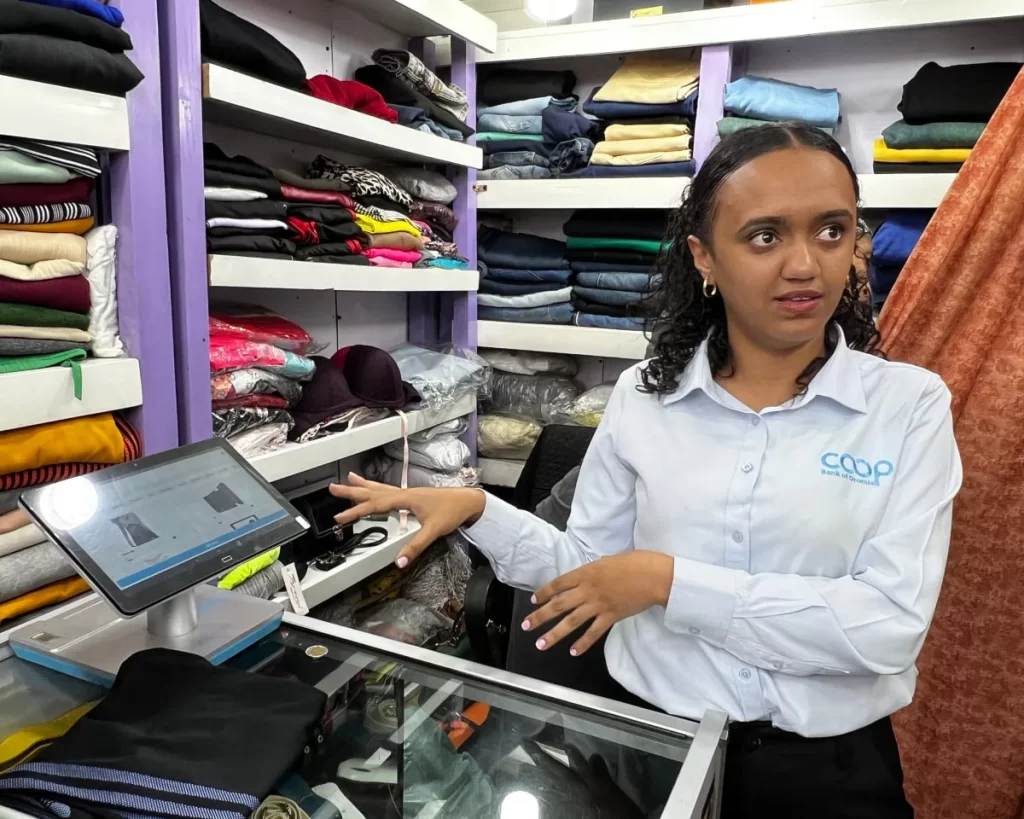
Coop Secures 570 Million Br Guarantee to Expand Collateral-Free Lending
The Cooperative Bank of Oromia (Coopbank) has secured a 570 million-birr ($10 million) loan portfolio guarantee from FMO, the Dutch Entrepreneurial Development Bank, to expand its collateral-free loans to MSMEs. This initiative, targeting underserved groups such as agricultural, youth, and women-owned small entrepreneurs, was announced on July 8, 2024, and is part of the NASIRA program. Through a risk-sharing arrangement, the NASIRA guarantee covers potential credit losses resulting from MSMEs not repaying their loans. NASIRA, marking its first engagement in Ethiopia, has provided $371 million in guarantees so far. Coopbank, in partnership with Kifiya Financial Technology, launched the nation’s first uncollateralized digital lending app, Michu, in 2022. As of June 2024, Michu has disbursed 5 billion birr to over 230,000 MSMEs. Although efforts to reach officials at Coopbank and FMO before this article’s publication were unsuccessful, Shega has learned that the guarantee might be linked with Coop’s new Revenue-Based Financing (RBF) model. Coopbank, supported by the World Bank Gender Innovation Lab, Renew Capital, and Rise Addis Advisory, has been piloting this RBF model, another novel financial product in Ethiopia. Revenue-based financing allows loan approval based on evidence of income rather than collateral. In addition, unlike conventional loans with rigid repayment structures, this new lending product offers flexibility as repayment is tied to revenue.
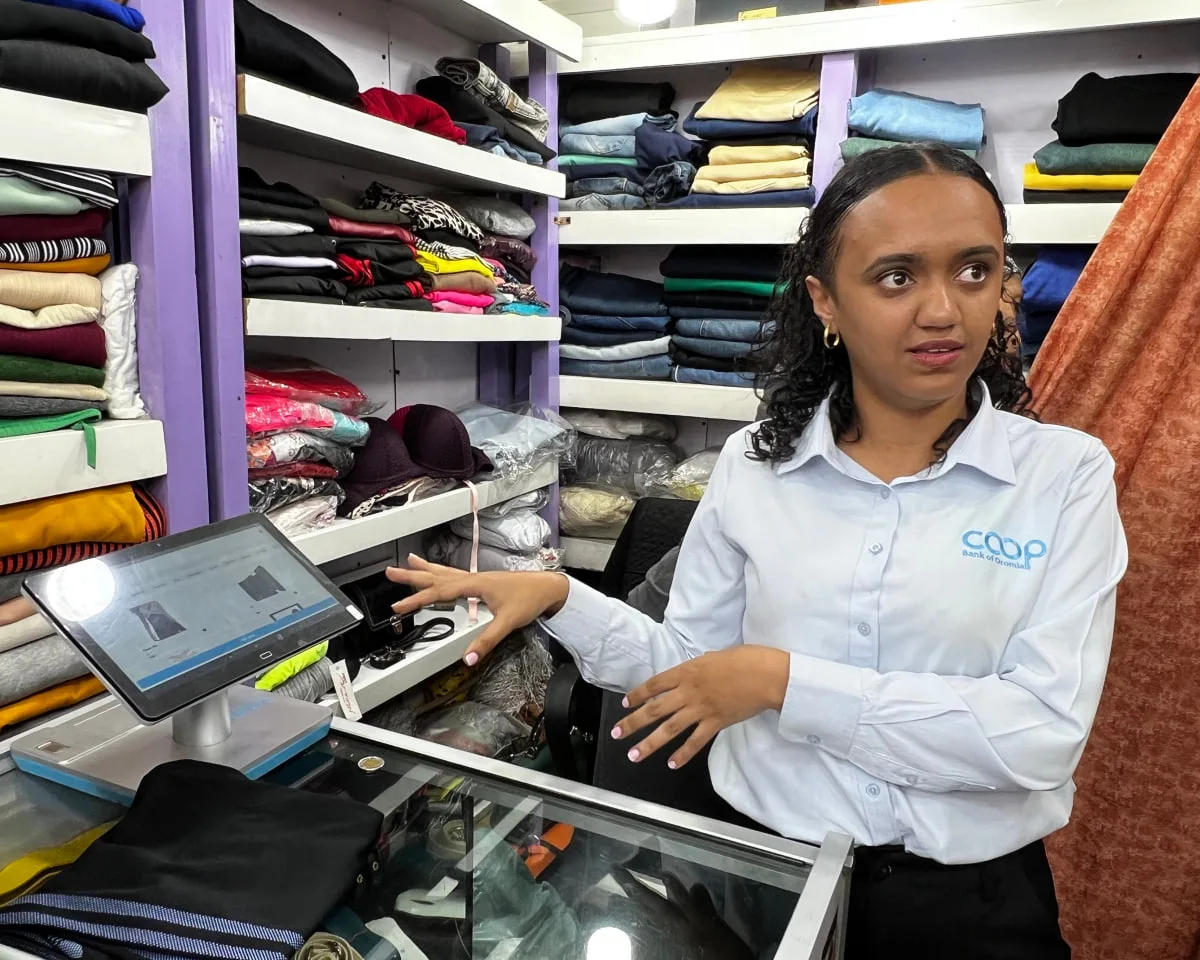

Chef Marcus Samuelsson just designed an African-meets-Scandinavian collection for West Elm

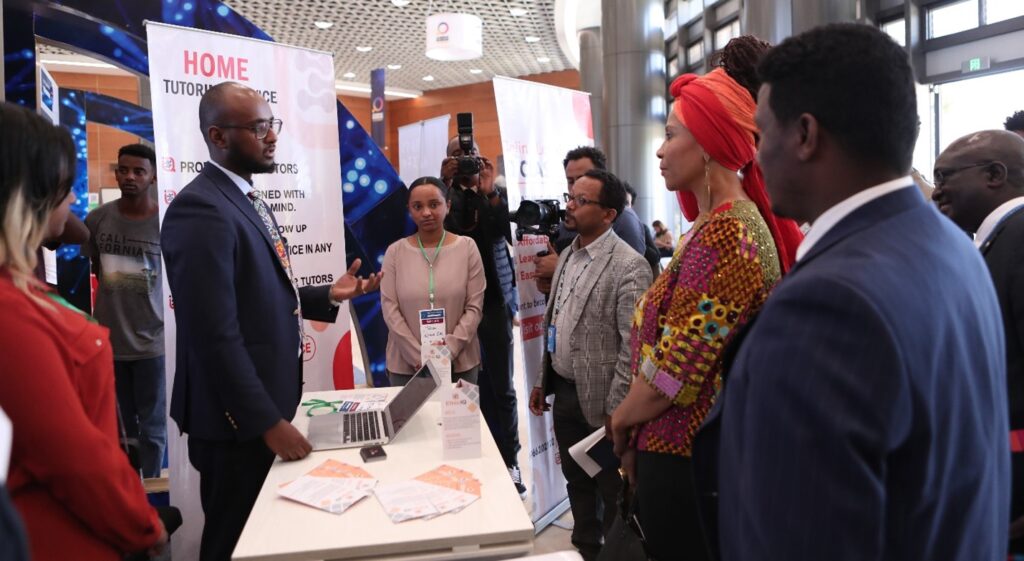
Expanding financing options for tech-based SMEs
Small and medium-sized enterprises (SMEs) play a major role in emerging economies, contributing significantly to national GDP and job creation. SME development has therefore become a priority for many nations, including Ethiopia. Unfortunately, however, access to finance has become a significant hurdle for SMEs and start-ups, particularly for those in Ethiopia where the national financial sector’s mandate and ability to support and fund innovative projects and enterprises is severely limited.
The funding gap for SMEs in Ethiopia was estimated at $6.1 Billion in 2021. The root causes of this financing gap in Ethiopia are multifaceted, with high collateral requirements imposed by financial institutions and steep borrowing costs being among the primary challenges. These financial hurdles leave many innovative and promising small businesses struggling to secure the funds they need to sustain and grow their ventures.
The National Bank of Ethiopia's 2023 report on financial stability revealed that commercial banks held a total of Birr 1.9 trillion in loans and bonds as of June 2023. Surprisingly, 73% of these loans were concentrated among only 0.05% of borrowers, each of whom received loans exceeding 10 million Birr. As a result, a few large borrowers dominate the financial sector's lending, making it difficult for SMEs and startups to obtain loans from commercial banks.
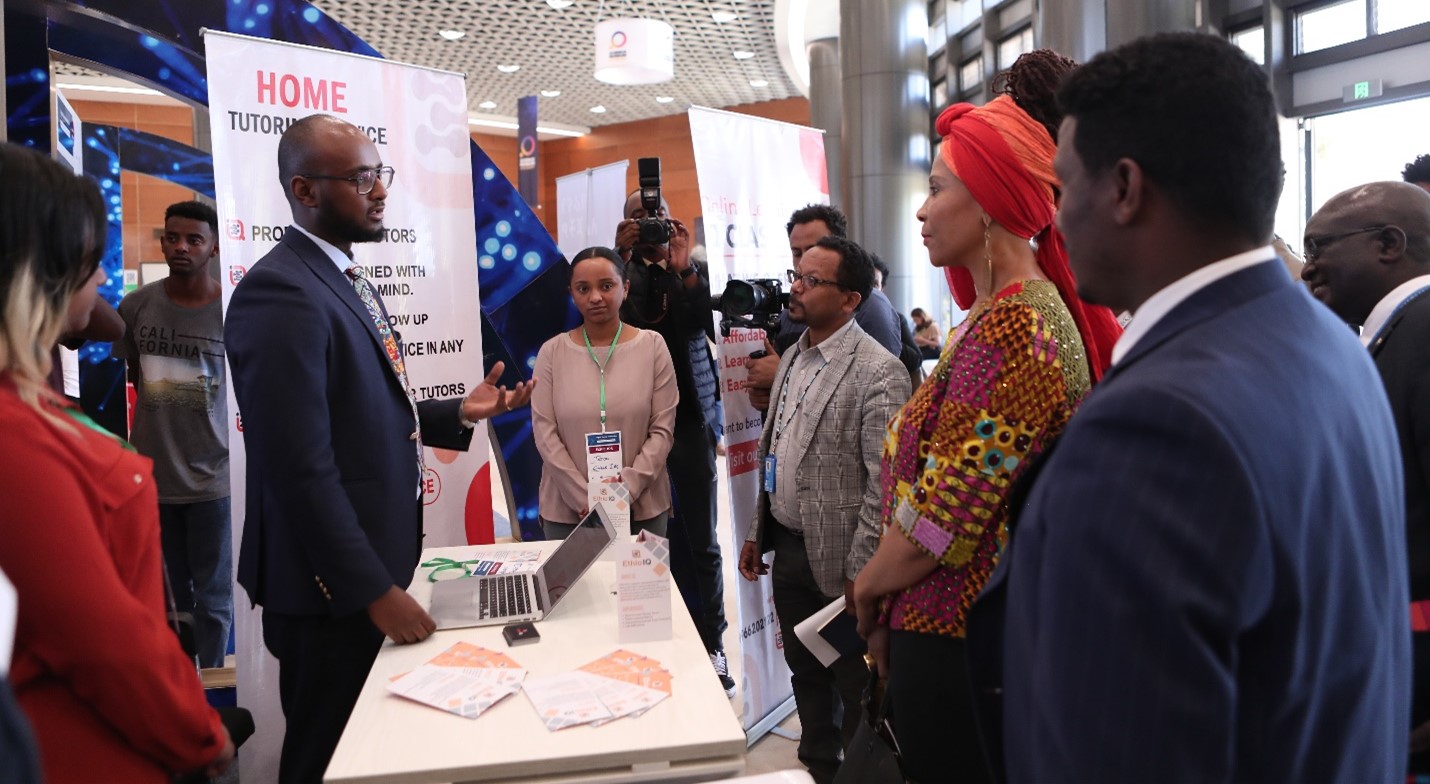

Spotlight on LMICs – Unlocking Avocado Excellence: Cultivar Insights for Ethiopia’s Agricultural Future
East Africa is one of the most vulnerable regions to climate change and food insecurity. The projected increase to the world population places increased pressure and demand for food, and land for cultivation. Sustainable and scientifically based agroforestry practices can provide a wide range of economic, sociocultural, and environmental benefits and services for future generations. Fruits that are not native to specific regions, such as the avocado, are being introduced across the globe and Africa is no exception. Six avocado cultivars were introduced in Ethiopia and their productivity is being tested. Aster Gebrekirstos et al. assessed the adaptation, survival rate, growth performances, fruit yield, and household contributions of five avocado cultivars: Ettinger, Fuerte, Hass, Nabal, and Reed in Lemo district Ethiopia. The authors took it a step further and assessed the gender differences in management practices applied by male and female farmers. The study discerned that overall, the five avocado cultivars are highly adaptable, very productive and beneficial for both local food consumption and the income generation option. Specifically, it showed that:
- Nabal, Fuerte, Ettinger, and Hass performed the best in terms of vegetative growth.
- Nabal had the highest fruit yield, fruit weight, and width, followed by Hass. Ettinger and Reed had the longest and shortest fruit length, respectively.
- Nabal was the best-selling cultivar, while Hass was mainly used for domestic consumption.
- More management practices were applied to female farmers than to male farmers.


Ethiopia Is Surging The Tourism Industry With Visa Free for Kenya and Djibouti and Visa on Arrival Entry Policy For 120 Countries Including USA, Australia, UK and Schengen Nations
Ethiopia is making significant strides in boosting its tourism industry with a Visa Free for Kenya and Djibouti and Visa on Arrival Entry Policy For 120 Countries Including USA, Australia, UK and Schengen Nations.This initiative aims to position Ethiopia as a premier tourist destination in Africa, leveraging its rich cultural heritage, diverse landscapes, and historical landmarks. The visa-free policy is expected to attract a surge of international visitors, stimulating economic growth and enhancing the country’s global tourism footprint. TTW Editor in Chief Mr. Anup Kumar Keshan said: I must say that Ethiopia’s decision to allow visa-free entry for citizens of 120 countries is a game-changer for its tourism industry. This isn’t just about more people coming to see the sights; it’s also driving business travel and making Ethiopia a top spot for international meetings and events. Luxury travel is also on the rise, with more visitors seeking high-end experiences in Ethiopia’s top-tier hotels and resorts. Corporate travel is being significantly bolstered as companies find Ethiopia an attractive destination for conferences and business gatherings. What I love most is Ethiopia’s commitment to sustainable tourism. They’re not just focusing on the popular spots but also promoting lesser-known destinations, ensuring a richer and more responsible travel experience. This strategy is not only elevating Ethiopia’s global profile but also significantly contributing to its economy. It’s a win-win for everyone involved


Telegram Ads 101: A Beginner’s Guide for Businesses in Ethiopia
For several years now, promoting your brand or products on Telegram channels has been a common practice in the country. Telegram is Ethiopia’s most used messaging platform, and businesses of all sizes, from MSMEs to large corporations, leverage Telegram channels to reach their audience. Channel owners set prices (often per post) based on their channels’ average estimated viewership or subscriber count. In my experience working in digital marketing for the past four years, I’ve negotiated with numerous channel owners based on their estimated average views to run campaigns of varying success. Most channel owners base their prices on subscriber count instead of average views, which is one of the biggest problems during the negotiation stage. Yet even then, there’s no guarantee they’ll promote your content on the agreed-upon terms, and it often relies solely on their reputation, as it’s not commonplace to have a signed agreement just to promote posts on Telegram. Broadcast channels on Telegram generate one trillion views every month. Telegram, leveraging this, lets channel owners with more than 1,000 subscribers send sponsored messages right to their audience. With this tool, digital marketers and businesses can manage their ads and budgets, choose where their ads will be displayed, and monitor their performance.

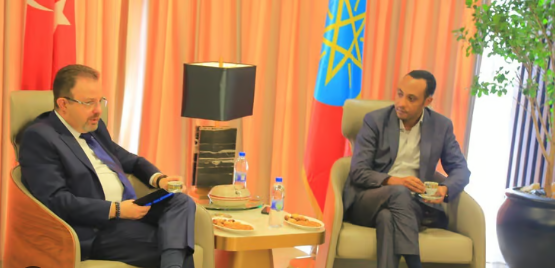
East Africa Metals sees gold mine construction starting in coming weeks
Better security of tenure would trigger more exploration of Ethiopia’s mineral resources, with Ethiopian Minerals Corporation saying mining can become the largest contributor to the country’s GDP.

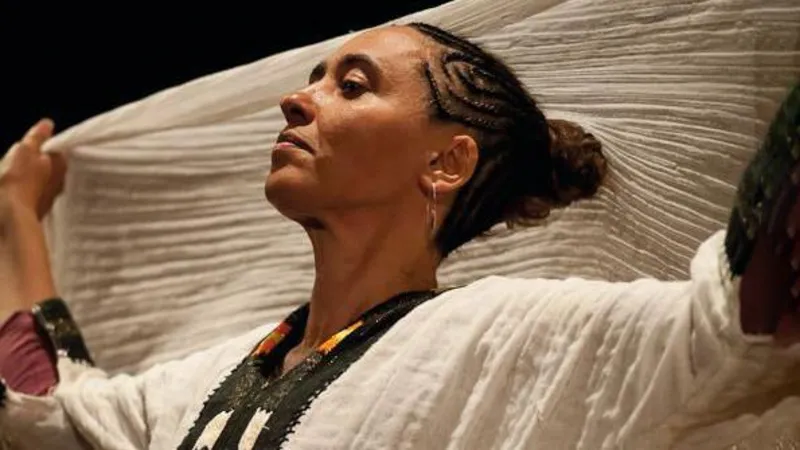
Forget Ethiopia’s Spice Girls – this singer salutes the true queens
Gabriella Ghermandi recalls with laughter the annoyance she felt about the so-called Ethiopian Spice Girls - charity-backed pop group Yegna that hoped to change narratives and empower girls and women through music.
The all-female group sparked controversy in the UK because it was partly funded by British aid and some say it was a waste of taxpayers' money. But for Ghermandi, assumptions that Ethiopian women had to be taught by outsiders was the issue.
“I was like, what?” Ghermandi tells the BBC. “They want to teach us how to empower women? Ethiopia? With all its epics of women?”
So, Ghermandi - an Ethiopian-Italian author, singer, producer and ethno-musicologist - also turned to music as a way of “saying to the world that we have a huge history about brave women who had as much power as men”.
The result is a nine-track album called Maqeda – the Amharic name for the Queen of Sheba, a hugely important figure in Ethiopian history.
Every song is an homage to female figures, communities, rituals and musical styles.
Many would label this album Ethio-jazz but it encompasses so much more, says Ghermandi.
“It’s a very rooted Ethiopian music, but at the same time, there are very prog sounds, very rocky and punk sounds. You can find everything".


NFTs and blockchain bridge Ethiopia’s past and present in new art exhibition
America’s first major institutional exhibition of Ethiopian art throughout the ages will conclude its year-long tour at the Toledo Museum of Art (TMA) with a grand finale featuring non-fungible tokens (NFTs).
In June, TMA announced that the blockchain-based Ethiopian art collective Yatreda will be their second digital artist in residence, following the Nigerian-based non-fungible token (NFT) star Osinachi’s residency in 2023. This year, Yatreda will stage a special installation within TMA’s iteration of “Ethiopia at the Crossroads,” which TMA co-curated with the Walters Art Museum in Baltimore and the Peabody Essex Museum in Salem. Yatreda’s contribution, titled “House Of Yatreda,” will feature loans of some of their most famous NFTs and debut a new series, too. Together, it will bridge the historical relics in “Ethiopia at the Crossroads” with cutting-edge art from Ethiopia today. Yatreda has already started embedding with TMA, embarking on the duties of this year’s expanded residency program by getting to know Toledo, discussing details for “House of Yatreda” with TMA’s curators, and mentoring local painter Jordan Buschur. This fall, the residency culminates with a Christie’s sale featuring works by Yatreda — and Buschur’s first mint. The announcement that Yatreda will be this year’s digital artist in residence arrived just a week after TMA announced its new TMA Labs, a department devoted to scouting new technologies, such as artificial intelligence, augmented reality and Web3, to support data and operating efficiencies.

YeneHealth, Vision Fund Partner to Offer Embedded Healthcare Financing
YeneHealth, a local startup focused on women’s health, has partnered with VisionFund Microfinance to integrate digital lending products into its platform. By integrating health and financial services, the digital lending product aims to increase access and affordability of essential women’s healthcare products and services Through this initiative, registered users of YeneHealth can apply for microloans. The application process includes a quick vetting procedure, followed by the presentation of loan terms and conditions for review. Kidist Tesfaye, Founder and CEO of YeneHealth, stated that the initiative specifically addresses unmet needs for essential healthcare products, particularly in the areas of water, sanitation, menstrual hygiene, and maternal health. The initiative also promotes saving for healthcare and offers non-collateralized credit options to eliminate barriers to necessary care. YeneHealth provides a range of services, including menstrual, pregnancy, and medicine tracking, a women-centered e-pharmacy, telemedicine, and culturally responsive resources and educational content. “We understand that healthcare needs can be urgent. This initiative provides microloans so women can access essential healthcare products immediately with flexible payment options. Their health is our priority, and the loans are designated solely for healthcare purchases,” Kidist emphasized.

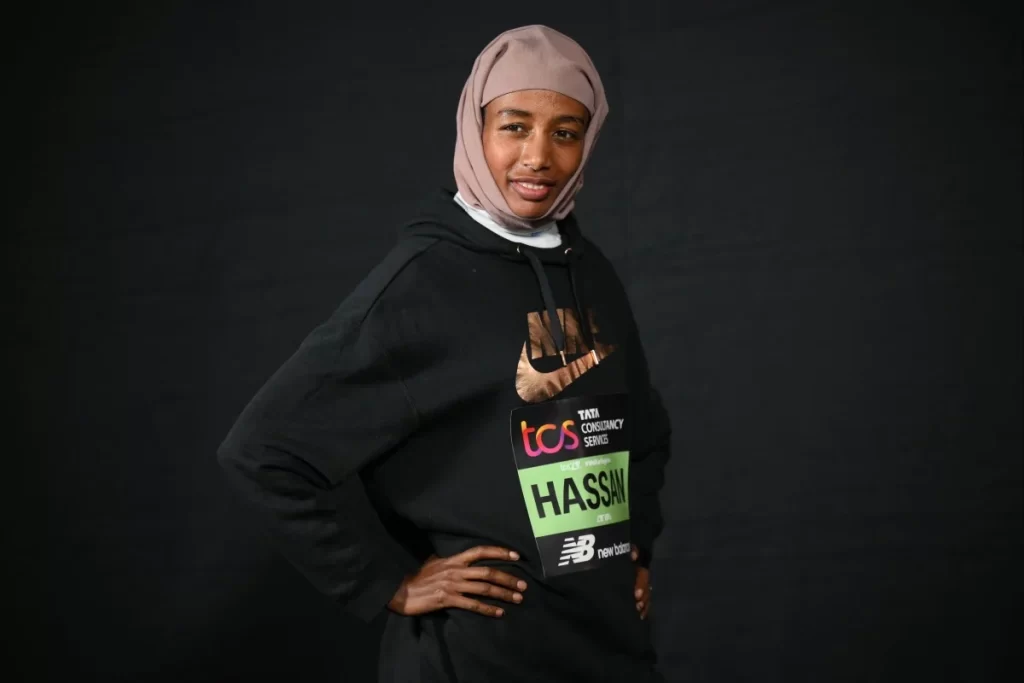
From ‘shy’ Ethiopian refugee to double Dutch Olympic champion: Sifan Hassan’s road to Paris
On a gloriously sunny Tuesday night training session at the Eindhoven athletics club, young hopefuls are put through their paces, dreaming of emulating their most famous member: double Olympic champion Sifan Hassan. It was on these tracks more than a decade ago that Hassan, a young asylum seeker from Ethiopia, embarked on a journey that would lead to history at the Tokyo Olympics and make her a top medal contender in Paris. “We immediately saw she was a talented athlete,” said Ad Peeters, president of the Eindhoven Atletiek coaching team. “Even a blind horse could see she would be a good runner.” Her first appearance came about as pure chance and in slightly farcical circumstances when she and a friend tagged along with Peeters at a 1,000m race. “But 1,000 metres is two-and-a-half laps of the track. They hadn’t realised that, so they actually tried to finish at the starting line,” Peeters, 58, said of the comical incident. “So that’s how we got to know her. We could already see she was a talented athlete at that time, but she wasn’t really a runner then yet,” Peeters told AFP.
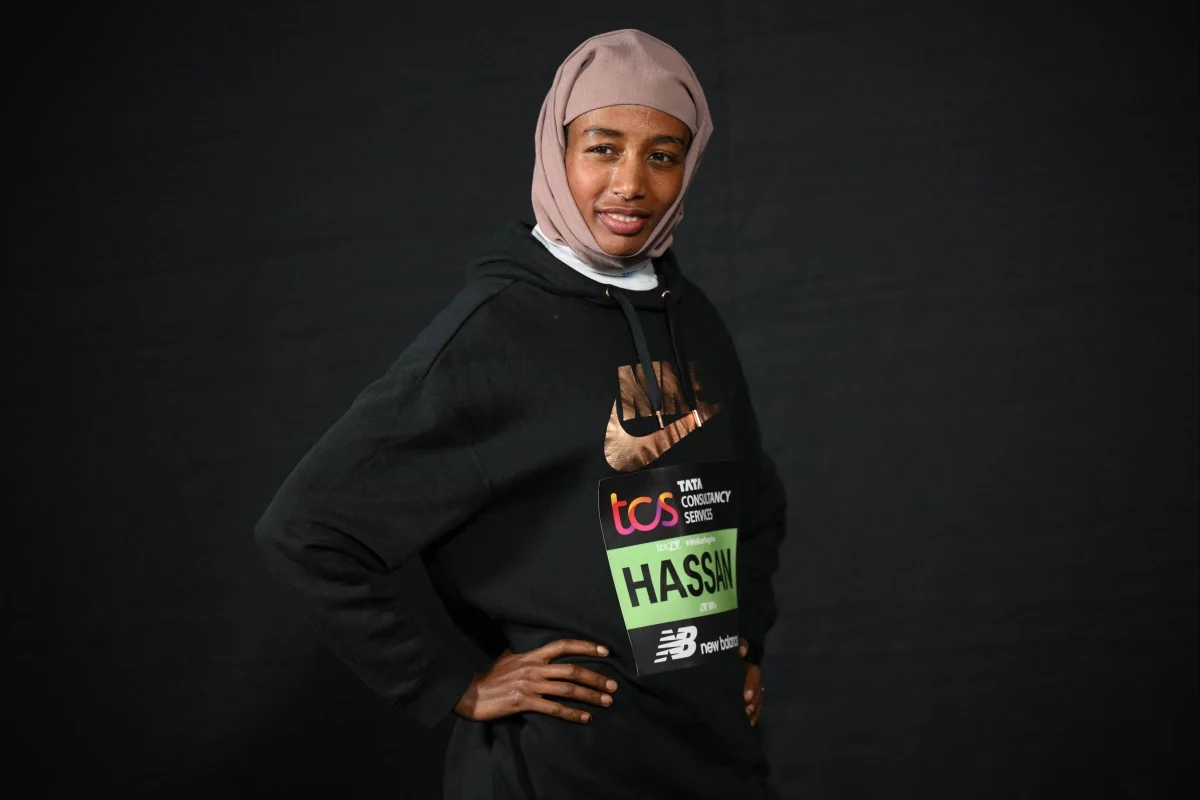
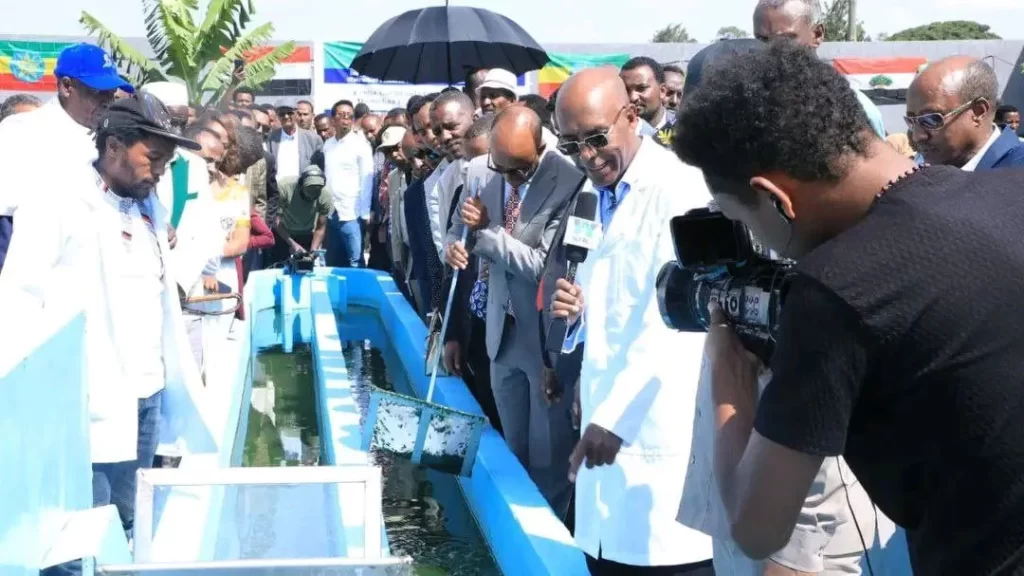
Ethiopia Builds First Algae Production Center for 8.2 Million Birr
Culminating a three-year development effort, the Ethiopian Bio and Emerging Technology Institute in collaboration with the Ministry of Innovation and Technology and the Oromia Agricultural Research Institute, launches the nation’s first microalgae (spirulina) research and production center. Built at the Adami Tulu Agriculture Center with an investment of 8.2 million birr, Ethiopia’s new spirulina research and production facility spans 1,200 square meters and has already produced its first batch of spirulina exceeding 30 kg per month. This initial success lays the groundwork for future scaling of production, according to Firew Tafesse (PhD), senior researcher at the institute. The center, inaugurated on June 20, 2024, enables Ethiopia to produce the algae on a large scale. Spirulina sells for a high price, fetching 20,000 birr per kilogram and up to 2 million birr per quintal. “We’ve successfully produced the first pilot batch of spirulina,” he told Shega. “This will help reduce reliance on imported spirulina, a nutrient-rich product with significant market value.”
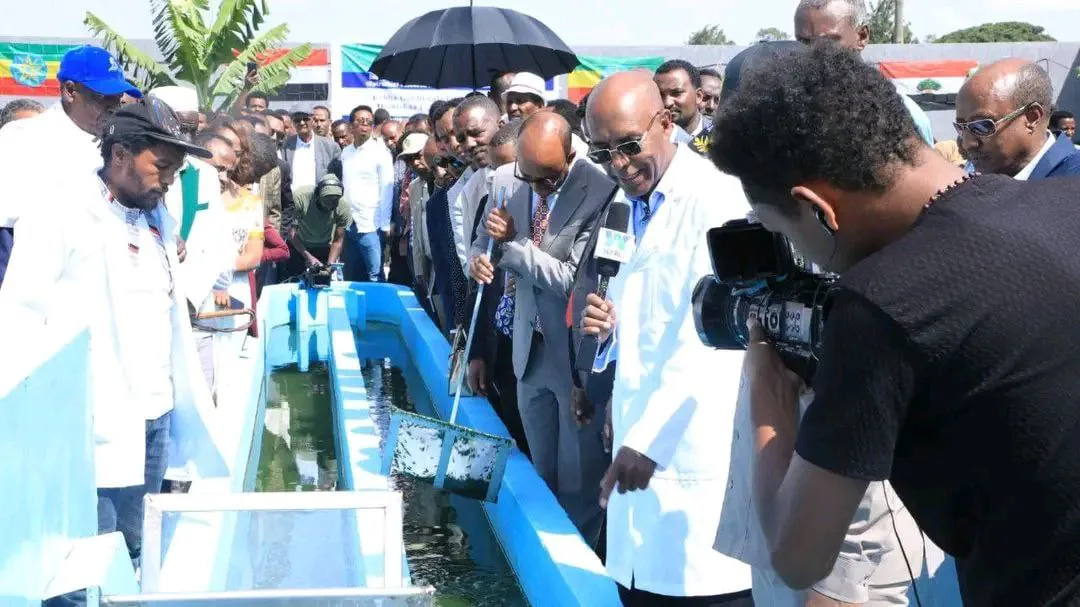

Lauryn Hill Honors Ethiopian Heritage with Empress Menen Asfaw Tribute at 2024 BET Awards
Lauryn Hill’s Majestic Tribute at the 2024 BET Awards
Lauryn Hill, alongside her son YG Marley, captivated the audience at the 2024 BET Awards with a powerful performance of “The Miseducation of Lauryn Hill.” The stage was transformed into a regal homage to Ethiopian heritage, featuring iconic images of the Axum Obelisk and the Lalibela Churches, reflecting Hill’s deep connection to Ethiopia.
The Woman Behind the Majesty: Empress Menen Asfaw
Empress Menen Asfaw, wife of Emperor Haile Selassie, was a revered figure in Ethiopian history. Known for her dedication to philanthropy and women’s rights, Menen Asfaw championed education and healthcare, establishing schools and hospitals across Ethiopia. Her legacy is one of compassion, resilience, and commitment to uplifting society, particularly in advocating for women’s empowerment and education.
A Stunning Visual Spectacle
Hill’s performance was further elevated by the dynamic background images of the Axum Obelisk and the Rock-Hewn Churches of Lalibela, two of Ethiopia’s most iconic landmarks. The Axum Obelisk, a towering symbol of ancient Ethiopian civilization, and the Lalibela Churches, a testament to Ethiopia’s rich Christian heritage, provided a majestic and historically rich backdrop. These revolving images highlighted Lauryn Hill’s profound bond with Ethiopia, infusing her performance with cultural depth and significance.
Lauryn Hill’s Legacy
Lauryn Hill, a pioneering artist in hip-hop and R&B, first gained fame as a member of the Fugees before launching her solo career. Her debut album, “The Miseducation of Lauryn Hill,” remains a landmark in music history, blending powerful lyrics with soulful melodies. Hill’s performance, set against the backdrop of these iconic Ethiopian symbols, showcased her commitment to honoring powerful cultural heritage and its contributions to history and art.

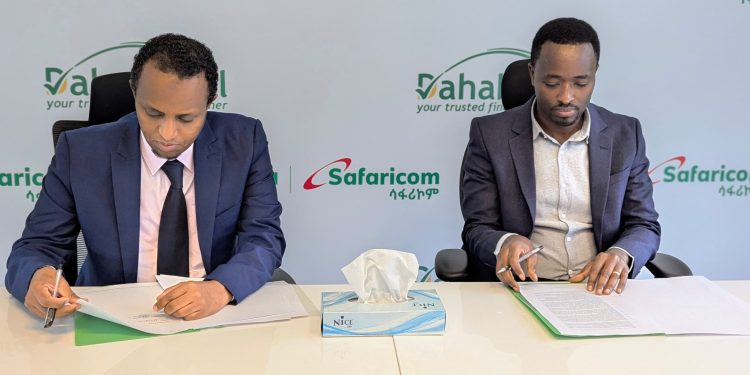
M-Pesa Seeks Inroads into Ethiopian Market after Deal with Dahabshiil
Ethiopians living in the diaspora can now send money directly to M-Pesa digital wallets after the entity signed a deal with money transfer firm, Dahabshiil, in Addis Ababa.
- The partnership will enable Ethiopians living abroad to simplify their remittance process, by providing a convenient and reliable option of sending money instantly.
- Dahabshiil has enabled money transfer across borders for almost five decades, consolidating its presence in more than 100 countries around the world.
- By leveraging on M-Pesa’s financial system, the company seeks to strengthen its position in Ethiopia as a valuable go-to option for remittances.


“If one can, why not more?”: USWNT’s Naomi Girma on Ethiopian pride and passion for representation
Naomi Girma will make her Olympic debut next month at the 2024 Paris Games. The San Jose, California native has not only broken barriers as the first player of Ethiopian descent to play for the U.S. Women’s National Soccer Team and the National Women’s Soccer League, but she also became the first true defender and second Black defender to win U.S. Soccer’s 2023 Female Player of the Year. Her success on the field and passion for the game are deeply rooted in the values of her Ethiopian heritage In a conversation with NBC Sports in January, Girma reflected on her experience, often as the sole Black person on her soccer teams, what she’s learned from her parents’ sacrifices, and why she’s so passionate about representation. *This interview has been edited for length and clarity. I read that if the TV was on in your home as a kid then it was probably a soccer game playing. How did growing up in an Ethiopian household influence your love for the sport? Naomi Girma: My dad loved soccer and that started with his childhood in Ethiopia, just playing with his friends after school. He would always tell us about how much he loved playing and I think when we were old enough, he wanted that to be our sport and to share that love with us. Just being in the Ethiopian culture and seeing how much appreciation there was for soccer was amazing and I think that really helped me fall in love with it.

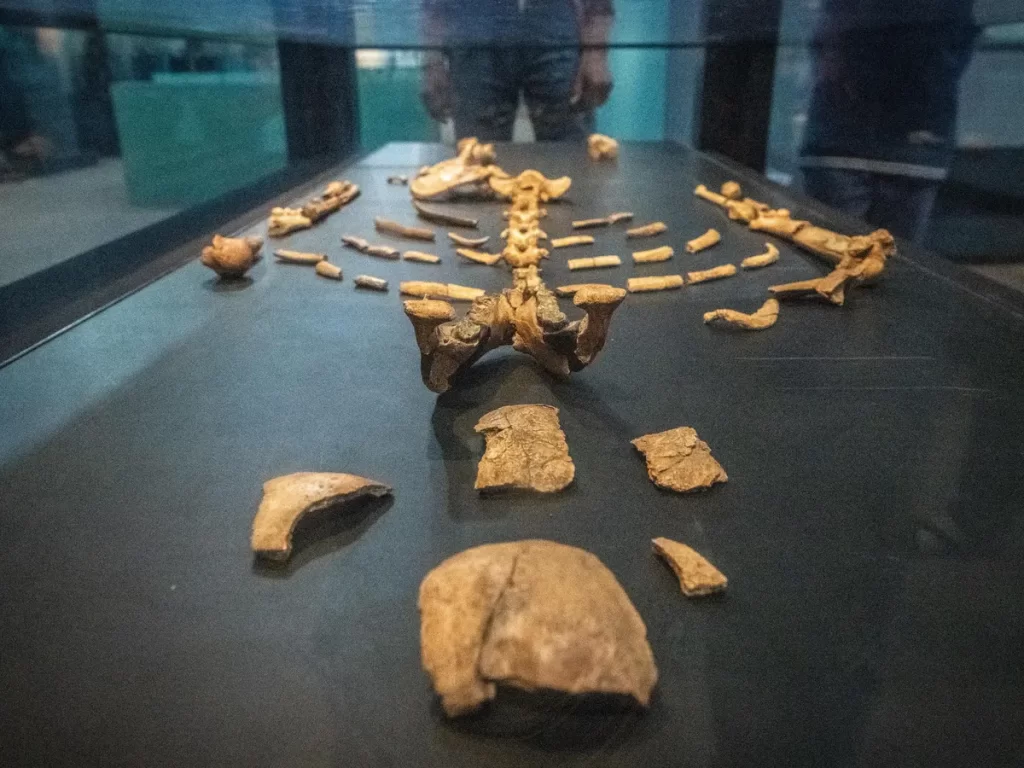
Fifty years on, how Lucy, the mother of humanity, changed our understanding of evolution
On 24 November 1974, the US anthropologist Donald Johanson was scrabbling through a ravine at Hadar in the Afar region of Ethiopia with his research student, Tom Gray. The pair were looking for fossilised animal bones in the surrounding silt and ash when Johanson spotted a tiny fragment of arm bone – and realised it belonged to a human-like creature.
“We looked up the slope,” Johanson later recalled. “There, incredibly, lay a multitude of bone fragments – a nearly complete lower jaw, a thighbone, ribs, vertebrae, and more! Tom and I yelled, hugged each other, and danced, mad as any Englishman in the midday sun!”
Johanson and Gray drove back to their camp in jubilation, their Land Rover horn blaring. Beer was cooled in the Awash river and barbecued goat was served to celebrate their discovery – which, by any account, was a sensational one. A total of 47 bones from a single, ancient hominin (the term used to define humans and all our extinct bipedal relatives) were ultimately uncovered by Johanson and Gray at the site.
The fragments they collected amounted to about 40% of a complete skeleton, and subsequent dating has shown that these remains are around 3.2m years old. At the time, it was the oldest human-like being that had ever been unearthed by fossil hunters, and she was given the name Lucy.
Fifty years on, Johanson and Gray’s discovery remains one of the most notable breakthroughs ever made in the field of human palaeontology. From the pelvis, scientists concluded it belonged to a female, while her short legs suggested she had only been about four foot tall. This discovery was followed up with other, similar finds, some in Ethiopia and some in Tanzania, and in 1978, Johanson – working with a colleague, Tim White – announced that these bones, including Lucy’s, had all come from a single, previously unknown hominin species which they named Australopithecus afarensis: the Southern Ape from Afar.
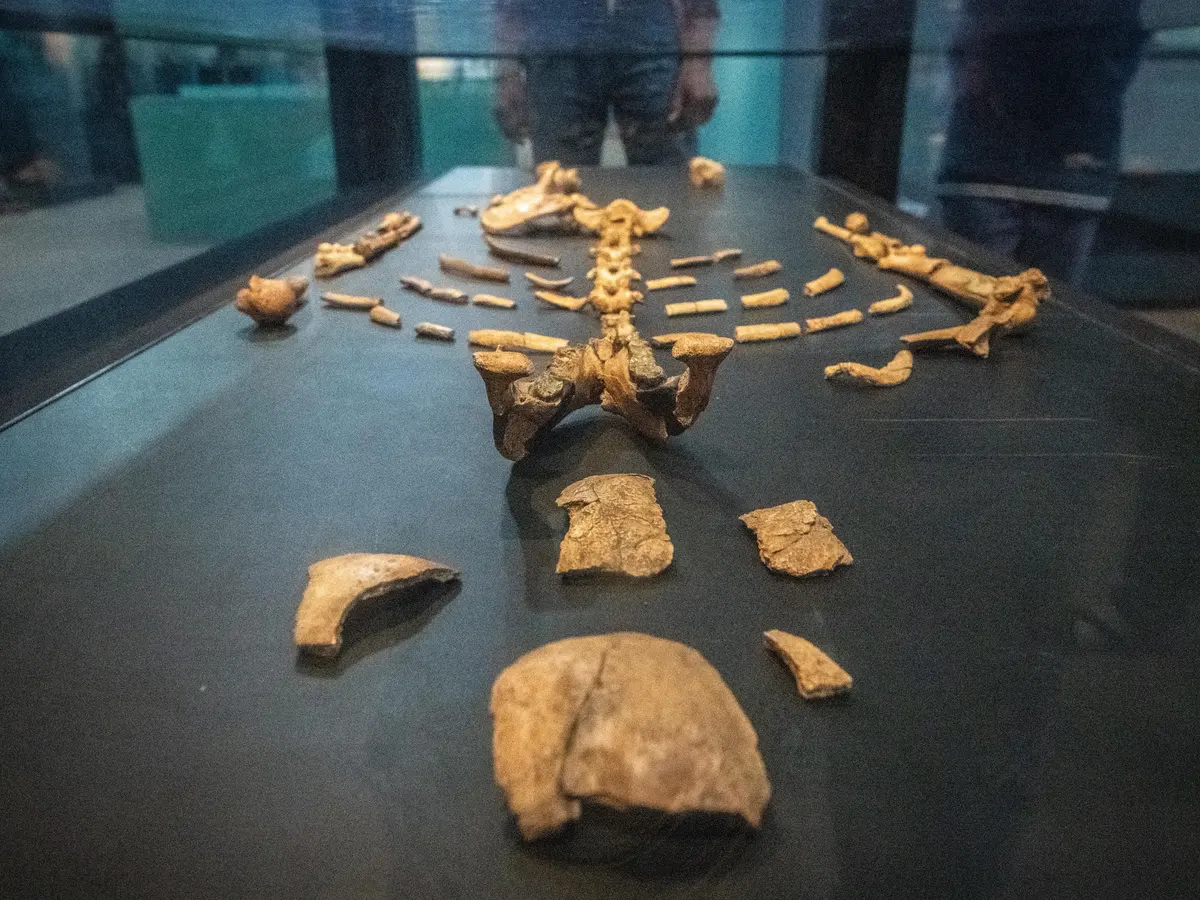
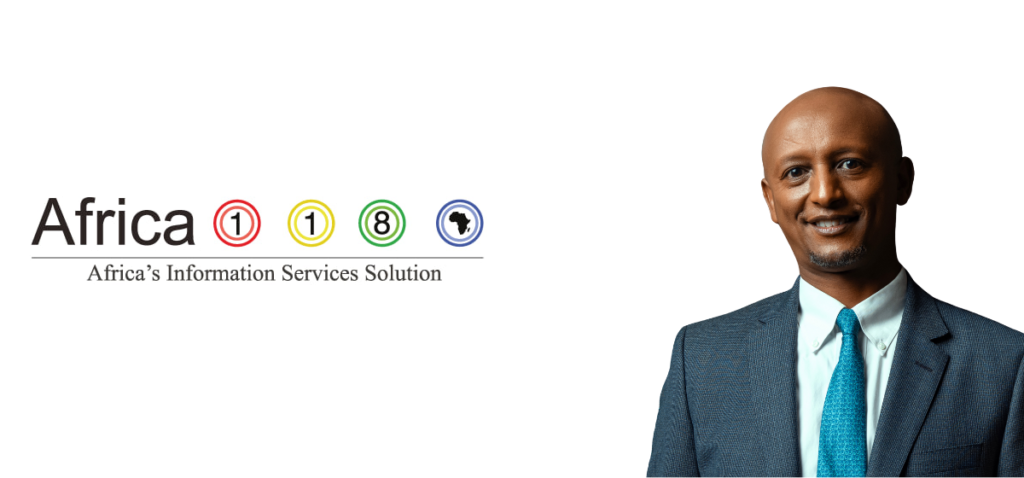
Africa 118 Lands GSMA Innovation Fund for Third Time
Africa 118, a digital marketing and information service provider headquartered in Ethiopia, has secured funding from the GSMA Innovation Fund for the third time. This latest grant will be used to expand Africa 118’s gig work marketplace, Taskmoby, from the capital Addis Ababa to three additional cities: Adama, Hawassa, and Dire Dawa, according to Ezana Raswork, Founding CEO of Africa 118. These cities have a collective population of over 1.5 million people. The 2024 GSMA Innovation Fund for Accelerated Growth was launched to provide grants and technical assistance to GSMA Innovation Fund alumni. Its purpose is to help innovative organizations scale, reach a wider user base, and enhance the sustainability of their solutions. “The current funding serves as a follow-on, accelerating our expansion into new markets,” Ezana told Shega. The expansion aims to create 1,000 jobs in these three cities by the end of 2024 and an additional 10,000 jobs over the next three years. Africa 118 will also introduce two new product features: “Taskcenter,” which will enable service providers to access working tools and supplies, and “Taskcredit,” which will offer access to credit based on the service provider’s credit history. These features will provide more value to workers and increase service adoption. According to Ezana, since its establishment, Taskmoby has served over 40,000 users and created 4,000 jobs.


Commercial Bank of Ethiopia introduces Adjustments to Service Charges
The Commercial Bank of Ethiopia on Thursday introduced an adjustment to service charges. This will be effective as of Ethiopia’s new fiscal year in late July this year. The information released in connection with the changes indicates some services that used to be free will remain free while others are subject to service charges. The changes are mostly reflected in mobile banking. Withdrawals of any authorized amount will remain free. On the other hand, mobile money transfers that used to be free, will now be subject to service charges. Digital Banking account-to-account transfers between 1 birr and 10,000 birr used to be free. As of next week, the bank will start charging 3 birr. The highest fee in this category is 20 Ethiopian birr and is applicable for transfers of more than 300,000 Ethiopian birr. Mobile transfers from the account to Tele Birr and other wallets will be charging fees too. The maximum is 15 birr for a transfer of 10,000 birr and above. Transfer through “Internet Baking,” as the bank calls it, to accounts with other Banks does not seem to see major changes.

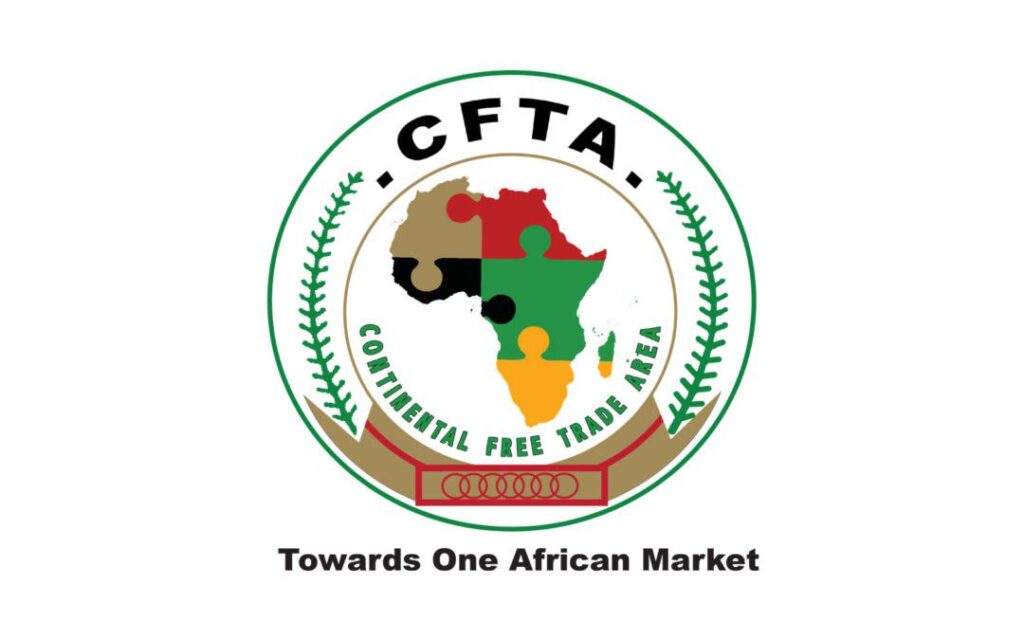
Ethiopia Developing African Continental Free Trade Area Implementation Strategy
In an attempt to capitalize on the enormous potential benefits of trade on the continent, Ethiopia is now creating its National African Continental Free Trade Area (AfCFTA) Implementation Strategy. The AfCFTA, adopted in 2018, represents a historic effort to unite 55 African Union member states with a combined GDP of nearly 3 trillion USD. This Agreement establishes a legal framework for comprehensive economic integration, aimed at creating a unified African market that fosters the free movement of goods and services, and investment facilitation ultimately strengthening Africa's trading capacity on a global scale at the time of digital age. In 2019, Ethiopia ratified the AfCFTA, demonstrating its commitment to this transformative initiative. As part of its effort in domesticating the Agreement, the country is in the process of developing its national AfCFTA implementation strategy. This strategy will identify key sectors where Ethiopia can gain a competitive advantage under the AfCFTA and integrate its economy into regional and global value chains. The strategy prioritizes inclusivity, gender sensitivity, and environmental sustainability, and is essential for enhancing Ethiopia's readiness to fully harness the benefits of the AfCFTA. The Ethiopian Ministry of Trade and Regional Integration in collaboration with the Policy Studies Institute organized national consultation forum on the Development of Ethiopia's AfCFTA implementation strategy, according to Economic Commission for Africa (ECA). A high-profile forum is set to take place in Addis Ababa on Saturday focusing on raising awareness about the AfCFTA and its implications, engaging in discussions about the roles of various stakeholders in Ethiopia's AfCFTA journey, and seeking feedback for the National AfCFTA Implementation Strategy.
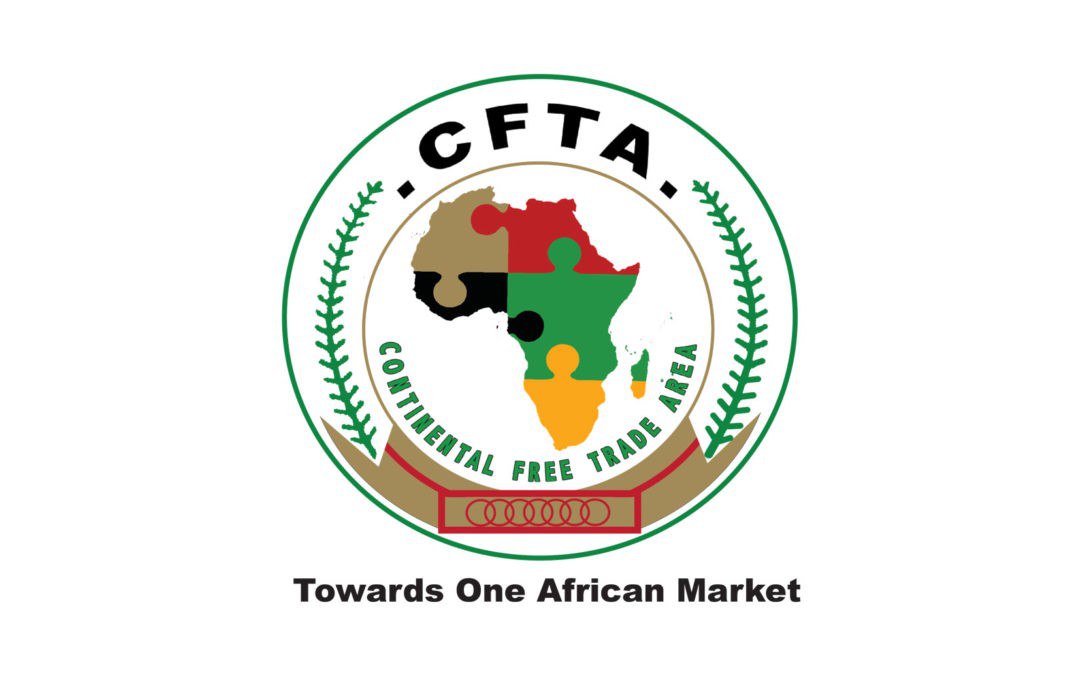

Ethiopia’s Livestock Industry Produces 2.2 Million Doses of AI
Livestock Development Institute of Ethiopia saved Birr 1.5 billion in import costs over the past 11 months by producing artificial insemination (AI) locally. This year, the Institute achieved its target of producing 2.2 million doses of AI product. The Institute's focus extends beyond AI. It identifies and registers high-yield dairy cows to enhance milk production. Livestock product exports have also generated USD 86 million in the past 11 months, achieving 70% of the targeted goal. In addition, the Institute is committed to heifer reproduction, distributing over 220 heifers to local farmers. Combining traditional and modern techniques, it is working on developing new breeds of sheep and goats. Established to improve productivity, quality, and competitiveness within the livestock sector, the Institute plays a critical role in livestock development. Its branches in Holeta and Bishoftu provide various services, including breeding services via AI, livestock feed processing, investor consultancy, and technical support in insemination, fodder production, and livestock product development.

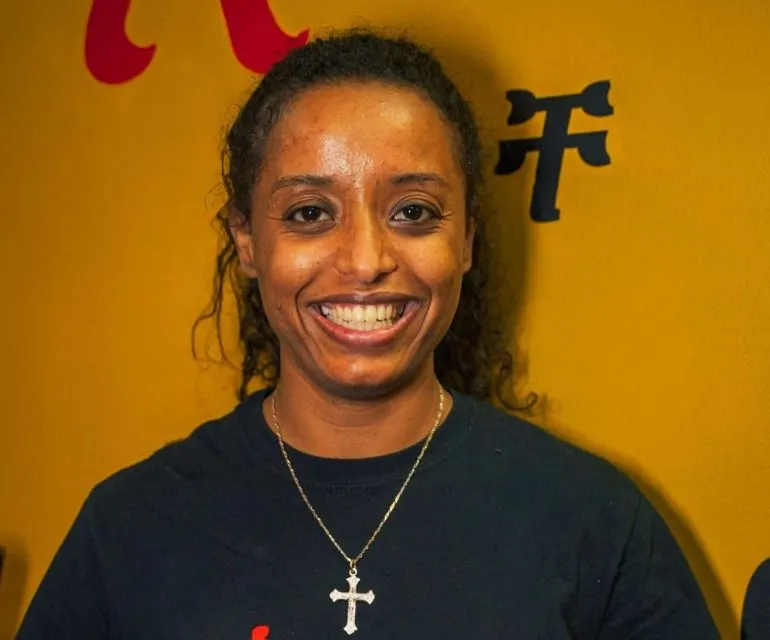
Enat Ethiopian Restaurant’s Tina Tedla Marks 7 Years in Business
When I caught Tina Tedla, owner of Enat Ethiopian Restaurant, over the phone in early June, it was a Thursday afternoon and she was running back and forth from Uptown to Optimist Hall, where she expanded with her second location in May 2022. The space served as a convenient prep kitchen for her appearance at that weekend’s Taste of Charlotte festival, where she has won an award for her classic lamb dish during her first appearance in 2022. That year, Tedla and the Enat team ran out of food relatively early in the weekend, and she promised herself never to make the same mistake again. She couldn’t tell me how many plates she was making — the team would serve red split lentil stew, derek lamb tibs, and beef sambusa — she only knew that she would make enough. “Honestly, it’s hard to tell,” she said. “I know every year we get different people to try Ethiopian food. So really, we just go until we run out and prep more as we go. We gauge it by how busy we get, and we just make sure we have enough.” On June 17, Tedla celebrated seven years in business at Enat Ethiopian Restaurant, which she opened in Shops at CitiSide at the corner of The Plaza and Eastway Drive in 2017. The location is still open, as Optimist Hall represents a more fast-paced version of the traditional Ethiopian dining experience. We talked to Tina about how the expansion has gone for her business, what she’s learned during her seven years as a Charlotte restaurateur, and what comes next for Enat.

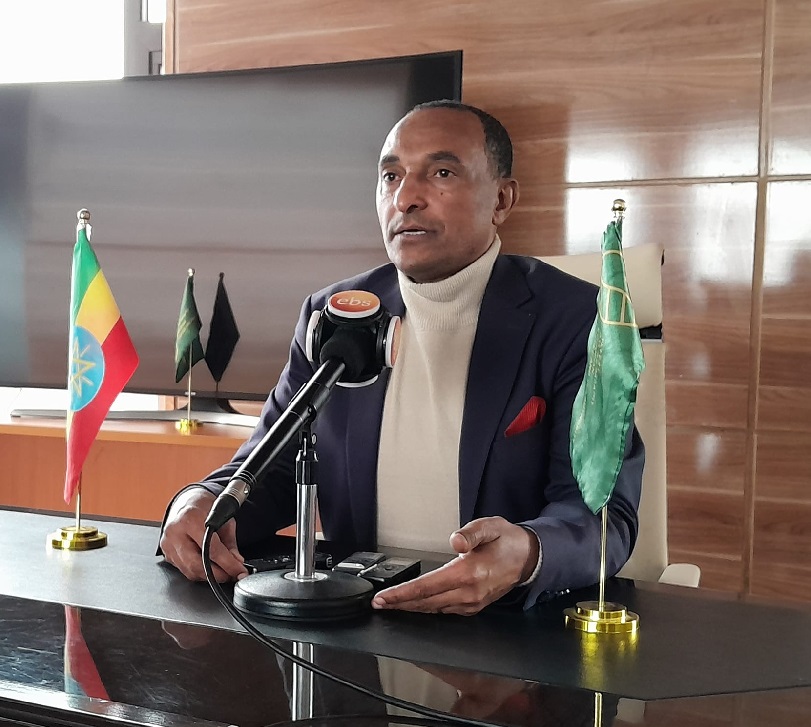
Hawassa, Jimma Cities in Ethiopia to Host Coffee Exhibitions
Cities of Hawassa and Jimma in Ethiopia are finalizing preparations to host a national Coffee Exhibitions with the goal of fostering relationships between coffee exporters and suppliers. The Ethiopian Coffee and Tea Authority is organizing the exhibitions, which will take place in Hawassa on June 28 and 29 and in Jimma on July 3 and 4. Panel discussions aimed at exchanging views on the production and quality of Ethiopia’s coffee will also be held as a part of the exhibitions. Director General of the Authority, Adugna Debela said in a press conference today that the exhibitions target at further enhancing Ethiopia’s economic benefits obtained from coffee by boosting productivity and ensure product quality. The exhibitions are expected to attract more than 300 coffee suppliers and over 100 coffee exporters, Adugna pointed out. He stated that such exhibitions are instrumental to ensuring the sustainability of revenues secured from coffee besides their contribution to promote the varieties and qualities of Ethiopia’s coffee products.


Kuwait University Expresses Willingness to Work with Universities in Ethiopia
Ethiopia’s Ambassador to Kuwait Sied Muhumed Jibril Confers with Vice President for planning of Kuwait University Professor Asad al-Rashed. The two sides held a wide-ranging discussion on the ways to strengthen the relationship between the higher educational institutions of both countries’ On the occasion, Ambassador Sied expressed gratitude for the scholarship opportunities given by the government of Kuwait to Ethiopians every year. He also explained about the presence of internationally competitive government and private higher education institutions in Ethiopia, that have been contributing many problem-solving research results in the past years and will continue to contribute in the future as centers of excellence in research. In addition, the ambassador discussed the ways to conduct joint education and training experience exchanges with Kuwait University, and conduct joint research that is critical to the development of a country and addresses problems. Finally, Ambassador Sied requested for additional scholarship programs due to the presence of a large number of Ethiopians in Kuwait. Professor Asad al-Rashed, on his part, mentioned that the Kuwait university will look forward working with universities in Ethiopia in the fields of science, engineering, medicine, energy and agriculture and also exchanging education and training experience.

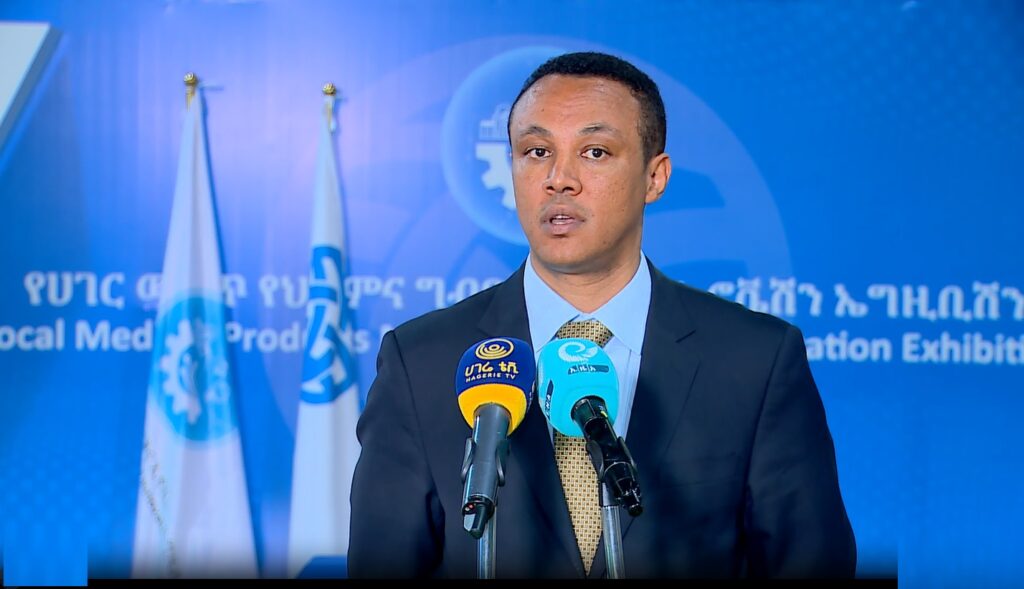
Ministry Pledges to Explore Int’l Market Opportunities for Ethiopia’s Medical Manufacturers
The Ministry of Foreign Affairs has pledged to explore international market opportunities for domestic medical manufacturers with a view to encourage the nation's industrial competitiveness. Representatives and leaders from the ministry and various institutions visit local medical products manufacturing and innovation exhibition that was officially opened by Prime Minister Abiy Ahmed on Saturday at the Millennium Hall. The exhibition aims to boost the local medical manufacturing sector and highlight Ethiopia's healthcare investment opportunities, showcasing domestically produced medical products and services. Following the visit to the exhibition, spokesperson of the Ministry of Foreign Affairs, Ambassador Nebiyou Tedla emphasized the importance of expanding market access for medical products, especially to neighboring countries. He added that locally manufactured medical products can play a pivotal role in enhancing the health sector and in bolstering efforts to enhance medical tourism. The ambassador also underscored the need for meeting stringent quality standards to expand local production and supply for the international market. The spokesperson noted that the Ministry of Foreign Affairs has given top priority to economic diplomacy as the kernel of the entire diplomacy including the promotion of domestically manufactured products. Accordingly, Nebiyou said the ministry will contribute its fair share in the endeavors to explore international market opportunities for local medical manufacturers. He added the promotion activities for those local medical manufacturers will be conducted by Ethiopia’s foreign missions, consulates and diplomats.

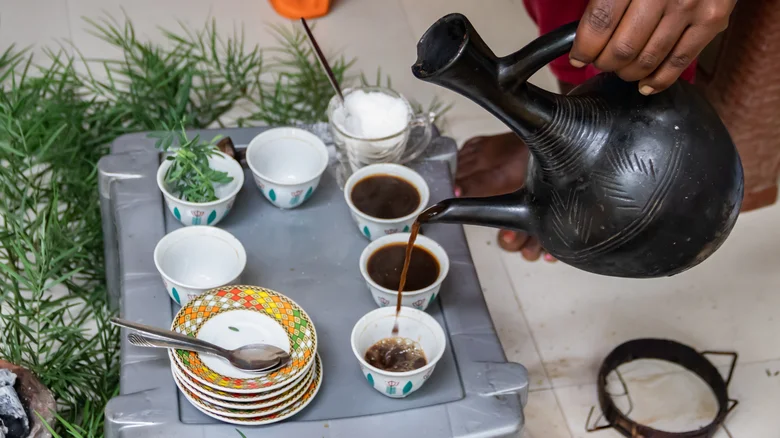
Before Drinking Ethiopian Coffee, Inhale Its Complex Aromas
If you're going to be drinking coffee in Ethiopia, it isn't a "let's grab a cold brew on the way" affair. Prepare to set aside at least an hour for a proper tasting — although it can last as long as three hours, and leave sippers loaded on a whopping nine cups of coffee every single day. But, the practice isn't about slammin' bevys. When it comes to complex, layered Ethiopian coffee, it's as much about the aroma as it is about the flavor. To begin the Ethiopian Coffee Ceremony (buna tetu), the room is filled with fragrant burning incense, commonly frankincense and myrrh, and a round-bottomed black clay coffee pot called a jebena is filled with water and placed over hot coals to boil. Then, raw, green coffee beans are cleaned and roasted in a menkeshkesh clay tray. As the beans roast, the aroma fills the room alongside the incense smoke for a sensory smorgasbord. From there, the roasted beans are ground by hand using a mukecha wooden bowl and a zenezena, a blunt metal stick. The freshly-ground coffee is added to the boiling water in the jebena, similar to the ibriks of Turkish coffee (another beverage to be enjoyed slowly with good company). Ethiopian coffee is served straight from the jebena in which it was brewed, and the grounds don't get strained out. The coffee is brought to the nose for a deep inhale on every slow sip from the small sini cups.

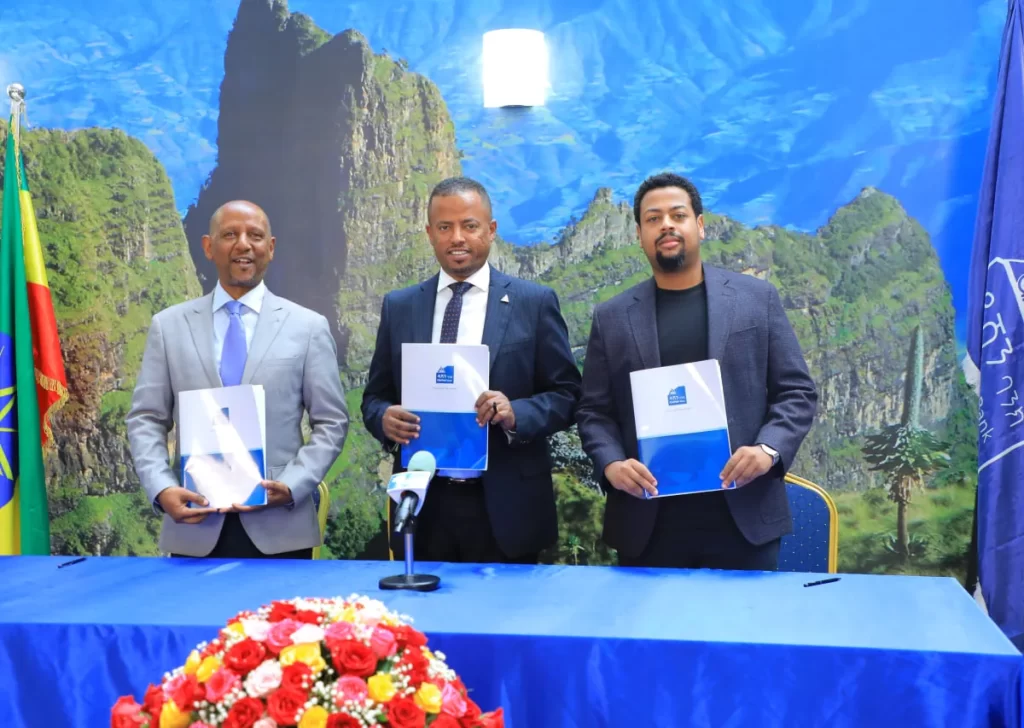
WeVenture Partners with Dashen for 3rd Kefita Entrepreneurship Contest
WeVenture, a newly established local venture capital-backed incubator, has partnered with Dashen Bank for the third edition of the Dashen Kefita Entrepreneurship Contest. The initiative aims to empower aspiring Ethiopian entrepreneurs by providing them with training, mentorship, and a platform to showcase their business ideas.
With over 2 million birr in prizes, first place receives 500,000 birr, second place receives 400,000 birr, and third place receives 300,000 birr.
“WeVenture will assess the investment proposals to identify the 50 most promising ventures from all participants,” said Noel Daniel, Managing Partner of WeVenture.
The competition will take place in Mekelle, Adama, Bahir Dar, Dessie, Dire Dawa, Wolayta, Hawassa, Jimma, and Addis Ababa. Entrepreneurs can register until June 29, 2024 at their nearest Dashen Bank branch. Following the training, applicants will submit their proposals to Dashen Bank, where a shortlisting process will be conducted.
WeVenture is entrusted with developing training materials and delivering sessions across eight key locations throughout Ethiopia. The VC firm will also guide participants through the application process, selecting the top 50 ventures and managing logistics for their founders, including facilitating training sessions, industry visits, and accommodation in Addis Ababa. Proposals will be assessed using a pre-defined scoring sheet focusing on key areas such as the originality and potential impact of the business idea, the experience and dedication of the founding team, and the overall market viability of the proposed venture.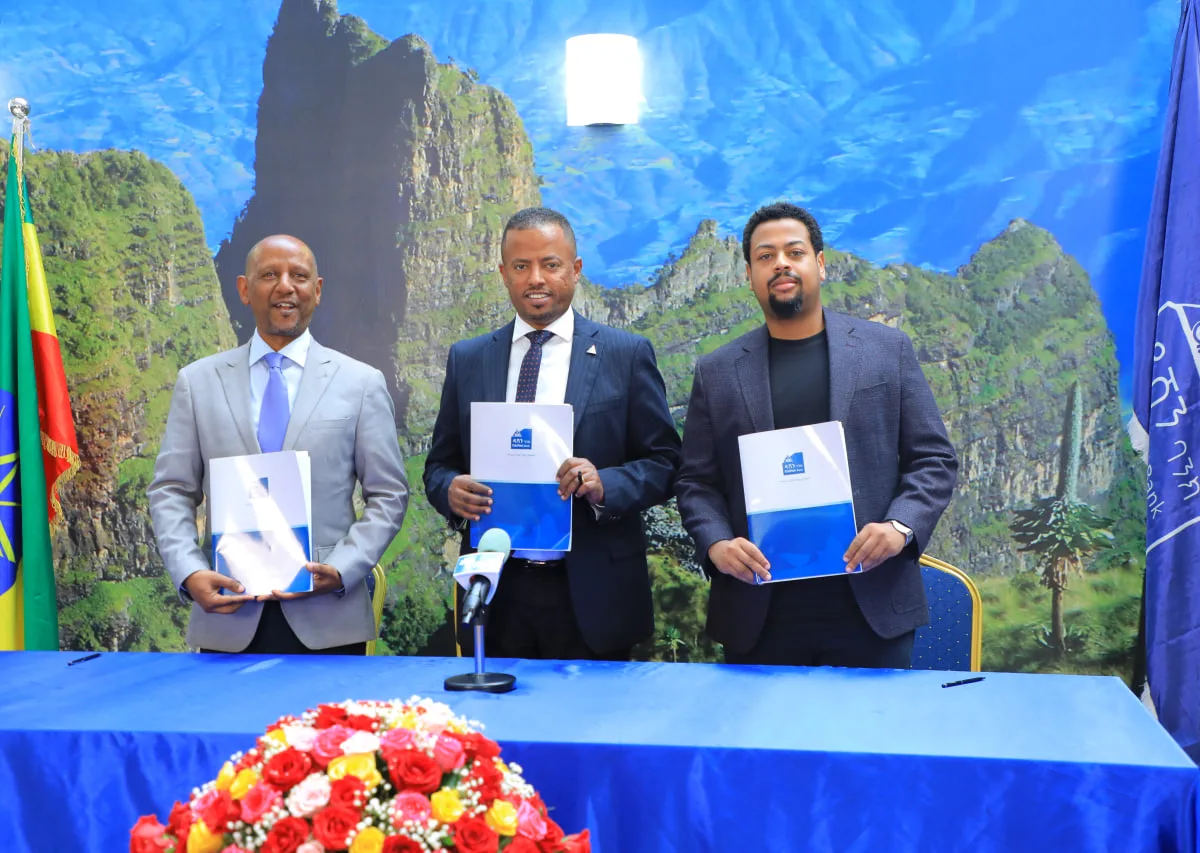
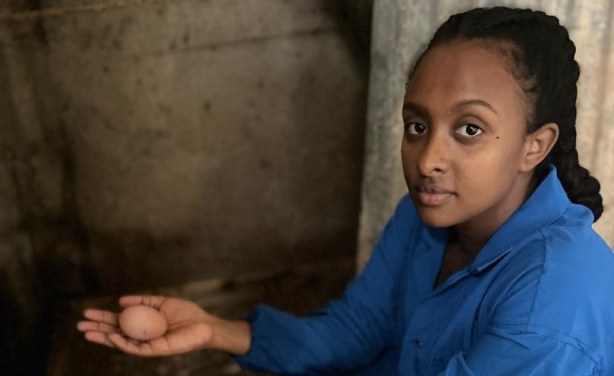
Mastercard Foundation and Kifiya Financial Technology PLC to Enable More Than 477,800 MSMEs to Access Uncollateralized Digital Credit Products
The Mastercard Foundation, in partnership with Kifiya Financial Technology PLC (Kifiya), announces a scale-up program designed to unlock resources from banks, innovate new financial models and products, and transition the financial sector to enable access to uncollateralized financial credit products to a greater number of MSMEs. A budget of US $100 million is committed to the program.
The Sustainable Access to Finance to Enable Entrepreneurship (SAFEE) program incorporated learnings from Michu, a successful large-scale pilot by the Cooperative Bank of Oromia, Kifiya, and the Mastercard Foundation. This collaboration enabled more than 148,000 MSMEs to access uncollateralized working capital credit in just 14 months.
SAFEE will unlock US$300 million from six banks and enable more than 477,800 micro, small, and medium enterprises (MSMEs) to access relevant and appropriate uncollateralized digital credit products and will enable 425,000 young women to access mobile device financing.
The program will serve program participants of current and future Foundation programs by unlocking access to uncollateralized working and productive digital credit. The credit is in the form of nano, micro, and small working capital, inventory credit, invoice financing, equipment financing, and buy-now-pay-later products for MSMEs in urban, peri-urban, and rural areas of Ethiopia.
Over a period of five years, the program will directly drive the creation of job opportunities for 2.18 million young people (80 percent women) and support other programs to enable 3.65 million young people to access credit. The program will focus on supporting vulnerable young people who are traditionally excluded from accessing financial products, including women, persons with disabilities, refugees, and Internally Displaced People (IDPs).
The program is designed to propel supply-side system-level change while addressing demand-side challenges that have traditionally constrained MSMEs' access to uncollateralized financial services. It does this by addressing the lack of credit history and records, availability of appropriate products and services, low use of financial technology and the cost of managing low-value credit. It also provides the technical assistance required for financial institutions to transition from conventional collateral-based lending to uncollateralized, digitally enabled, credit-score-based lending, and embracing new modality of delivery of financial services.


Ethiopia Sets to Boost Local Pharmaceutical’s Industry Market Share to 47 Percent
The government of Ethiopia has been exerting efforts to realizing its aspire of boosting the market share of local pharmaceutical industry to 47 percent during its middle term development and investment plan for the health sector, Health Minister Mekdes Daba revealed. Prime Minister Abiy Ahmed inaugurated the Domestic Medical Supplies Production and Innovation Exhibition at the Millennium Hall in Addis Ababa today. On the occasion, Minister of Health, Mekdes Daba highlighted government’s manifold initiatives being carried out to strengthen the health sector focusing on enhancing access to healthcare services. She mentioned the concrete achievements registered in the areas of mothers’ and children health, prevention of transmittable and non-transmittable diseases. However, the minister underscored the need to intensify efforts in advancing the pharmaceutical sector. In this regard, the government has established mechanisms in its stride to make the country self-sufficient in medical and medicine supplies by creating health and drug policy and regulation, Mekdes noted. She further mentioned about the encouraging achievement attained this year as the country was able to manufacture medical products valued at 75 million USD as part of its efforts to encourage local manufacturers, enhance import substitution and help the overall economy of the country. This consecutively has helped the country save 53.1 million USD.

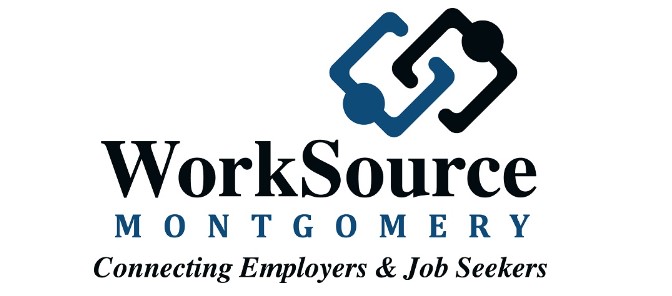
Professionals in Montgomery County: Skill Up and Advance Your Career with SkillUp® Montgomery
Ethiopian Diaspora Hub is excited to share information about a valuable resource available to job seekers in Montgomery County, Maryland - SkillUp® Montgomery! This program, offered by Workforce Montgomery, is designed to empower both employers and job seekers by fostering a thriving workforce ecosystem that fuels economic growth.

What SkillUp® Montgomery Offers Job Seekers
Job seekers in Montgomery County can leverage SkillUp® Montgomery to explore various career paths and gain the skills and certifications needed to secure their dream jobs. The program offers a comprehensive selection of free online learning resources and certification programs, empowering individuals to enhance their qualifications and competitiveness in the job market.
What SkillUp® Montgomery Offers Employers
SkillUp® Montgomery is a valuable asset for Montgomery County employers seeking qualified and skilled candidates. The program provides employers with a pool of pre-screened and job-ready individuals who have completed relevant training programs. This can save employers time and resources associated with the recruitment process.
Benefits of SkillUp® Montgomery for Ethiopian Professionals
- Free Online Learning: Professionals can access a wide range of free online courses and training programs to develop their skills and knowledge in high-demand fields.
- Industry-Recognized Certifications: SkillUp® Montgomery offers job seekers the opportunity to earn valuable industry-recognized certifications that can significantly enhance their resumes and career prospects.
- Career Exploration Tools: The program provides job seekers with access to career exploration tools and resources to help them identify suitable career paths that align with their interests and skills.
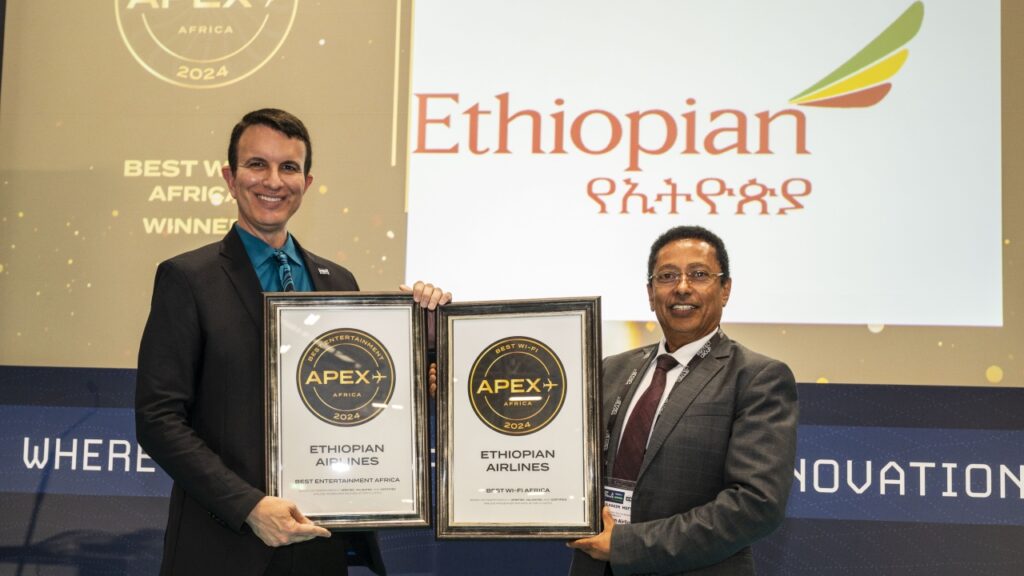
Ethiopian wins ‘Best Entertainment’ and ‘Best Wi-Fi’ in Africa
Ethiopian Airlines has collaborated with multiple service providers to cater to the diverse demographics and passenger tastes. Ethiopian introduced onboard Wi-Fi connectivity using the latest state-of-the-art broadband satellite technology (Ka-band), allowing passengers to enjoy reliable connectivity for sending emails, shopping online, or even chatting on social media while flying over the clouds. Mesfin Tasew, Group chief executive officer, said: “Elevating passenger experience is a top priority at Ethiopian Airlines. Offering a range of entertainment options, Ethiopian has always strived to create a more enjoyable and immersive inflight experience enabling passengers to relax during long flights. As we will continue to enhance the passenger experience and set new standards in the industry, I express my gratitude to our dedicated team for making this achievement possible.”
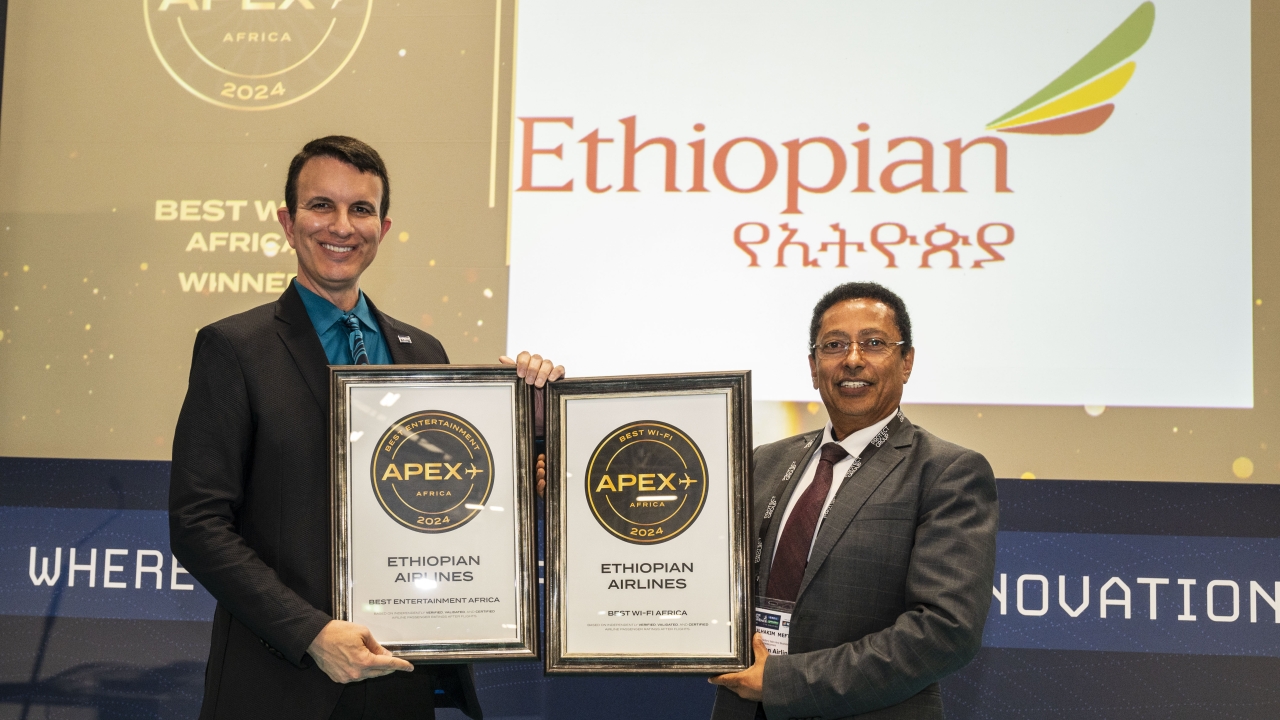
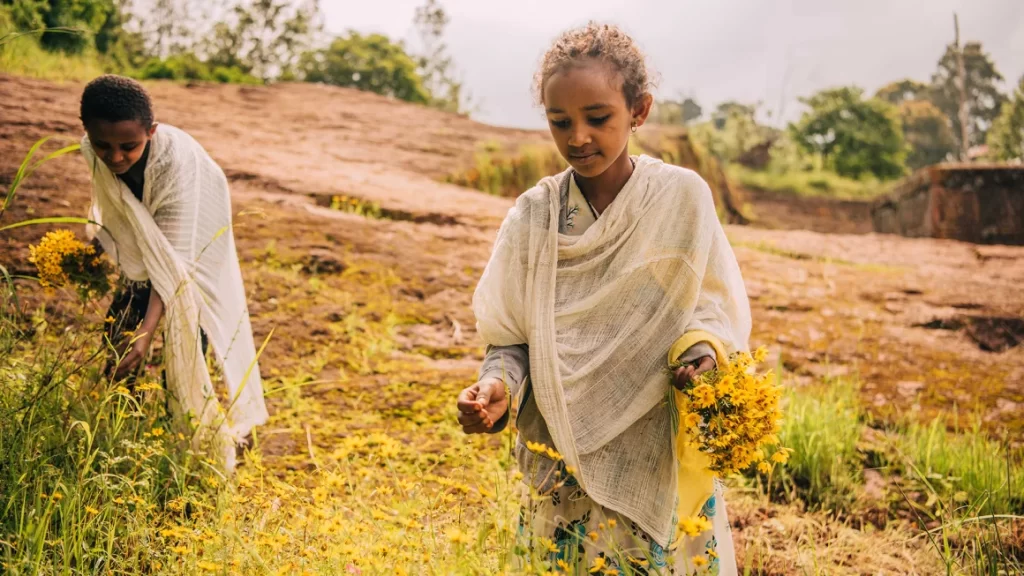
The country where it’s still 2016
On September 11, Ethiopians will celebrate the end of one year and the beginning of another.
However, when the East African country rings in its New Year in a few months, it will technically be 2017, according to the Ethiopian calendar.
So why is Ethiopia, Africa’s second most populous country, seven years and eight months “behind” much of the rest of the world? And how does that work for Ethiopians living on an increasingly interconnected planet that mostly operates in an entirely different era?
The answers lie in traditions that date back centuries – and a firm sense of national identity.
In Ethiopia, the birth year of Jesus Christ is recognized as seven or eight years later than the Gregorian, or “Western” calendar, which was introduced by Pope Gregory XIII in 1582.
According to experts, the Roman Church adjusted its calculation in 500 CE, while the Ethiopian Orthodox Church opted to stick to the ancient dates.
Although much of the rest of the world went on to adopt the Gregorian calendar, Ethiopia has kept its own.
“We are unique,” says Eshetu Getachew, CEO of Rotate Ethiopia Tours And Travel. “We [were] never colonized. We have our own calendar. We have our own alphabet. We have our own cultural traditions.”
Thought to date back at least 1,500 years, the Ethiopian Calendar has many similarities to the Coptic calendar of the Coptic Orthodox Church of Alexandria, an Oriental Orthodox Christian church based in Egypt.
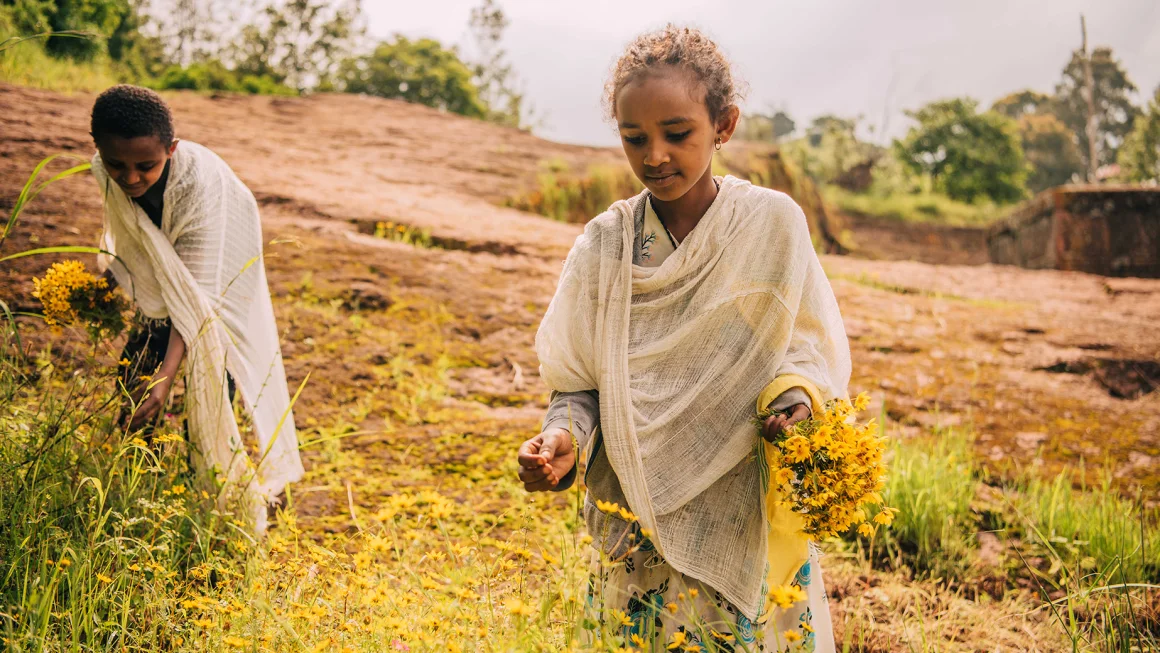

TotalEnergies Flips the Switch on First EV Charging Station in Addis Ababa
Witnessing the growing number of electric vehicles (EVs), TotalEnergies Ethiopia is integrating electric charging points at its gas stations. The oil company inaugurated its first EV charging station today, located on Bole Airport Road, Bole Matemiya. The fast-charging station, which can serve three cars at a time, is suitable for all types of EVs. “We are developing the right kinds of EV charging solutions while the legal and market platforms are being crafted. Depending on the development of the market, we have various options to deploy,” reads TotalEnergies marketing material prepared for the launch. Currently, there are over 100,000 EVs in Ethiopia, while the number of charging stations remains considerably low. To accelerate the development of EV charging networks, the Petroleum & Energy Authority is drafting a new directive. This initiative aims to leverage existing gas station infrastructure. The draft policy outlines specifications, permitting processes, and pricing models for establishing EV charging stations at these locations. The Addis Ababa Transport Bureau is also encouraging private investors to join the effort in building charging stations.


National Bank Ups Gold Incentives to Fight Black Market
The National Bank of Ethiopia is revamping its gold buying scheme to combat a decline in official gold supplies. The bank announced significant price hikes for suppliers, hoping to stem the flow of gold into the black market. Under the new plan, effective June 17th, 2024, suppliers will receive a 72% premium above the global market price for deliveries exceeding 30 kilograms. Those bringing in 3.01 to 30 kilograms will get a 67% premium, while smaller quantities between 50 grams and 3 kilograms will receive a 60% markup. These changes address longstanding issues in Ethiopia's gold sector. The National Bank acknowledged that previous incentives were insufficient, leading to gold being smuggled out instead of entering official channels. Governor of the National Bank, Mamo Mehretu, specifically noted a recent drop in submissions despite ongoing gold production. This decline in official gold has significantly impacted the country's foreign exchange earnings, falling short of projections set by the Ministry of Mines. Ethiopia previously earned over USD 600 million annually from gold, but those figures have dwindled in recent years. The hope is that the new, more attractive incentives will entice suppliers back into the official market, boosting foreign currency earnings for the country.


Ethiopia takes first step toward CBDC in economic reform
The National Bank of Ethiopia (NBE) has prepared two proclamations as part of an economic reform plan. One of them includes the establishment of a legal framework for introducing a central bank digital currency (CBDC). The policy changes foreseen by the NBE Proclamation include creating a legal framework for a CBDC “as necessary,” as well as increasing the NBE’s capital and creating a legal basis for consumer protection. The accompanying Banking Business Proclamation addresses liberalization of foreign investment in banking, corrective measures regarding “problem” banks and the creation of a regulatory sandbox for innovative financial solutions. The Council of Ministers has approved the proclamations and will soon be introduced into the House of Representatives.
The central bank has broad reforms in mind
The proclamations are part of the government’s Homegrown Economic Reform Agenda. The privately owned Ethiopian newspaper The Reporter mentioned the government’s interest in a CBDC in April. It said a study would be launched in June. It added that the NBE also aims to join “the Cross Border Payment System” by December. It did not provide any specifics about that system.

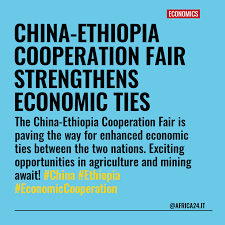
CHINA-ETHIOPIA COOPERATION FAIR STRENGTHENS ECONOMIC TIES
The recent “China – Ethiopia Agriculture and Mining Industry Cooperation Fair” held in Addis Ababa on May 16th marked a significant milestone in fostering collaboration between Ethiopian and Chinese businesses. This article will delve into the key points of the event, highlighting the participation of officials, the focus on industry cooperation, and the potential impact on bilateral economic ties.
Strengthening Economic Cooperation
The Ethio-China Fair served as a platform for Ethiopian and Chinese businesses to come together with the aim of enhancing cooperation in various sectors, particularly agriculture and mining. The presence of high-ranking officials such as Ambassador Negus Kebede and Mr. Wu Zhaoshu underscores the importance attached to strengthening economic ties between the two nations. “The event’s emphasis on networking and industry cooperation sets the stage for fruitful collaborations that can drive economic growth in both Ethiopia and China.”Business Opportunities and Collaboration
The Business-to-Business session at the fair was a focal point for discussing potential investment, trade, and procurement projects. With representatives from Ethiopian investment agencies, business associations, and 36 Chinese companies in attendance, the event provided a conducive environment for exploring mutually beneficial opportunities.

Ethiopia claims to have 21.3 billion cubic meters of natural gas reserve
This week, Ethiopia claims to have discovered 21.3 billion cubic meters of natural gas reserves in the Ogaden region in the south eastern part of the country. The Ethiopian Herald, a state-owned media outlet, on Saturday cited Milion Matheos, State Minister in the Ministry of Mines, as saying that “a survey supported with the drilling of 19 wells in the Ogaden region has confirmed the presence of 21 billion, 336 million cubic meters of natural gas.” From the government media report, there seems to be a plan for extraction by next year. “We are working to bring the newly discovered natural gas into production as early as next year,” the state minister is cited as saying. “While some resource exploration projects can take years, we are confident of achieving success in a shorter timeframe here,” he added as quoted by the Ethiopian Herald. The ministry of mining has embedded a narrative that Ethiopia “is home to oil and natural gas deposits in six different locations, including Ogaden, Mekele, Metema, South Omo, and Gambella.” There had been extensive media coverage soon after Abiy Ahmed became Prime Minister in 2018 about the start of “crude oil production” in Ethiopia. tt became like a mirage not before long. In 2016, there was a report about a $4billion natural gas production deal between Ethiopia, Djibouti and China. And in 2019, there was news that Ethiopia would start exporting natural gas via Djibouti in three years. Now in 2024, the Prosperity Party led government is making the story a headline again.


Ethiopian Gov’t Bill to Seize Property and Wealth from Unverified or “Illegal Sources” including from black market currency exchange
As reported recently, Ethiopia’s Council of Minister has been busy for the past few weeks legislating laws intended to consolidate power including by using economic repression tactic as a tool. Last week, it legislated a law that enables the Minister for Justice to freeze without a court order. More detail is emerging this week. The Draft of “Asset Recovery Bill” is circulating on social media. Framed as a sort of “legal tool” to combat “economic crime” which the government claims has affected Ethiopia’s economy, the legislation, if approved in the parliament, will enable it to confiscate property/wealth linked with illegal remittance. Another striking element from the new bill is that the law will be applied retroactively for up to ten years. Property owners will have to produce receipts of transactions for money received from abroad. Receipt of transaction from the bank is possible only if the remittance was made via “legal means” as opposed to remittance via black market. “Since economic crime has been causing a serious damage to the country’s economy, it has become necessary to prevent and control this crime so that any person will not get any economic benefit from illegal activity,” reads part of the introduction of the draft bill – a bill that is prepared in eight parts and is thirty-six pages long. It made claims that “unverified wealth,” is directly impacting the tax system, foreign currency, circulation of money and foreign direct investment.

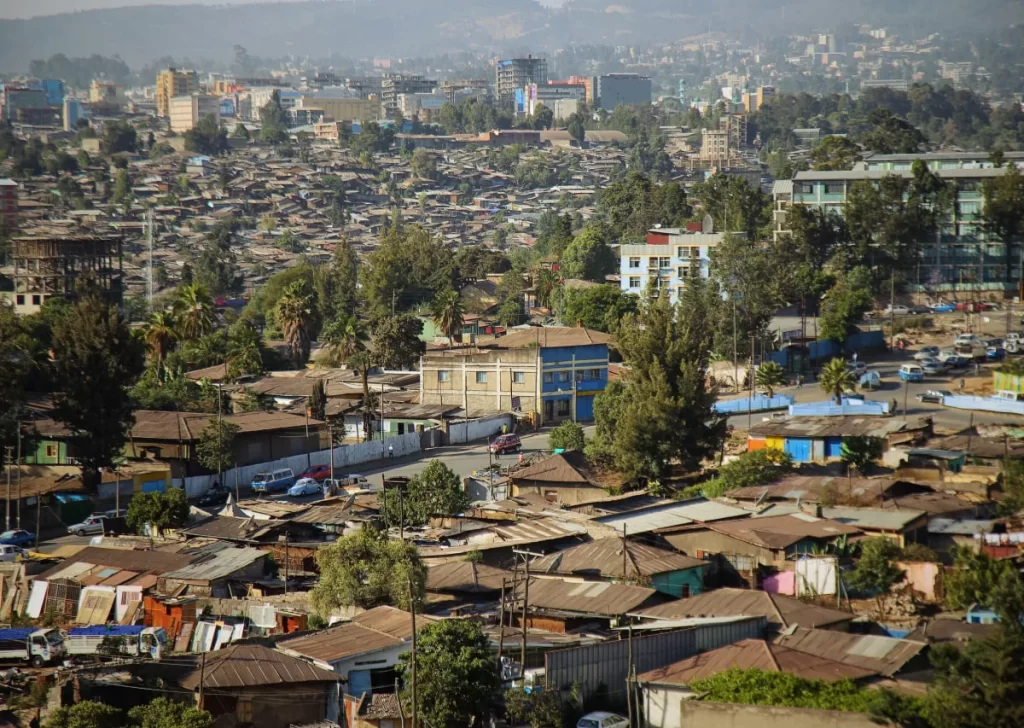
“Gurbitina” Goes Online
Gorebet, an app that leverages the traditional Ethiopian concept of “Gurbitina,” enabling users to connect and share important local information, has been launched by Opian Technologies. The platform, designed to enhance neighborhood safety and encourage proactive resident engagement, lets users report public, infrastructure, and environmental incidents impacting their lives. “Such information is crucial for creating an informed and connected community,” said Brook Getachew, co-founder of this community-driven platform. “By sharing real-time data on local issues, Gorebet helps residents stay aware of their surroundings, enhances neighborhood safety, and fosters a culture of mutual aid and collaboration,” he added. The platform’s public category covers theft, traffic accidents, fire, gender-based violence, lost and found items, and other incidents. The infrastructure category includes electric power problems, water supply issues, potholes/road problems, and public transportation issues. The Environmental category allows users to report environmental incidents. Users can download the app, register with their address, and report incidents with their location. Additionally, they can post anonymously to a feed visible to everyone. Gorebet supports text, image, and video reporting for incident details.


Marcus Samuelsson and Fariyal Abdullahi Share 4 Essential Ingredients of Ethiopian Food
Marcus Samuelsson and Fariyal Abdullahi are connected by their Ethiopian heritage. While Samuelsson was adopted by a family in Sweden, Abdullahi was born and raised in Ethiopia through the age of 17. At the 2024 Food & Wine Classic in Aspen, the owner and executive chef of Hav & Mar in New York shared essential ingredients and insights from their shared culture throughout a cooking demonstration of Oxtail Fried Rice and Tuna Kitfo with Injera Chips and Ayib.
“Here's one of my favorite things about Ethiopian cuisine: We talk about having a good pantry as the basis of flavorful dishes,” said Abdullahi, a Noma alum and finalist for the 2024 James Beard Award for Emerging Chef.
These are the staples she brought or made from the Ethiopian pantry.
Berbere
The spice blend of chili, cinnamon, coriander, cumin, garlic, ginger, nigella, fenugreek, and ajwain is so beloved, Abdullahi brought a bag from Ethiopia to share.
“This is the spice that we use predominantly in essentially 90% of our food,” she explained. “It's a sun dried chile powder. And the thing that I love about berbere is during the summer, we're sun drying all the chile in our homes and everybody's just sneezing cause it’s so spicy and hot, but each family kind of has their own unique recipes.”


KEFI Gold releases report about Ethiopia, Saudi projects
KEFI Gold and Copper, which has been operating in Ethiopia and Saudi Arabia, issued its annual report for the year ended 2023. The highlight of the KEFI annual report was that we had commenced Early Works at the Tulu Kapi Gold Project in West Welega. “Early Works comprise a number of activities with the community and other stakeholders to ensure that everyone is fully informed and consulted and the site is prepared for the Major Works to commence. Major Works would lead to production starting in 2026,” the company said in a statement released today. “This is the first gold mine in Ethiopia that complies with World Bank IFC Performance Standards. We apply the same rules that are applied in advanced mining jurisdictions like Scandinavia, Australia and North America,” it said. The major highlights of the annual report include: – In Ethiopia, with our partners and banks: – The company’s focus is now on successfully completing the Early Works at Tulu Kapi so that we can close the US$320 million project finance package and launch Major Works in October 2024. Gold production would then commence in mid-2026; – Tulu Kapi’s projected net cash flow to KEFI’s planned 80% beneficial interest is estimated at approximately £80 million per annum. At current spot of $2,346/ounce, KEFI’s planned beneficial interest in the cash flow is estimated to be approximately £100 million; – The end result will be the launch of Ethiopia’s first industrial-scale mining project and its largest single export generator and, in so far as environmental, social and governance aspects are concerned, the project is designed to be in compliance with World Bank IFC Performance Standards, creating direct and indirect employment for 5,000 to 10,000 people.

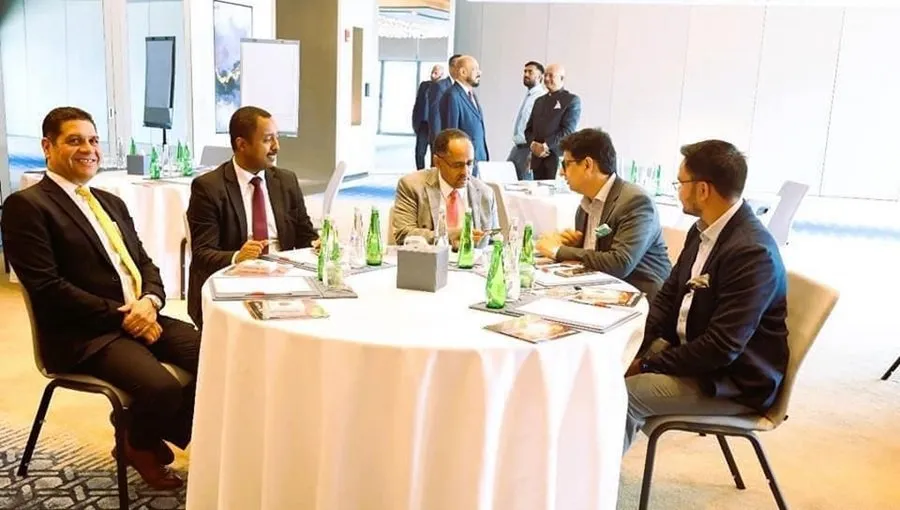
Dubai Tour operators attend a roundtable on Tourism opportunities in Ethiopia
A collaborative roundtable discussion was organized this week in Dubai highlighting Tourism opportunities in Ethiopia. The Ethiopian Consulate in Dubai and Ethiopian Airlines collaborated to organize the event, according to information from the Ministry of Foreign Affairs of Ethiopia (MFAE). “The discussion sought to establish a platform for well-known tour operators in the United Arab Emirates to integrate Ethiopia into their tour packages,” the Ministry said. Over 15 businesses in the tourism industry – apparently operating from Dubai, have attended the event. Aklilu Kebede is Ethiopia’s Consul General in Dubai. He invited tour operators to seize tourism opportunities in Ethiopia, and interested them in natural, historical and cultural destinations in the country. Head of the Economic Diplomacy Department of the consulate, Asmelash Bekele, talked about “newly developed tourist destinations and supportive government policies.” The Ethiopian Airlines, represented by Solomon Begashaw, Area Manager of Ethiopian Airlines Dubai office, seized the opportunity to highlight flight packages available to clients from Dubai. The update from the MFAE also indicated that “plans for a Familiarization Trip aimed at showcasing Ethiopia’s tourism attractions and fostering investment,” but no further detail was given about it.
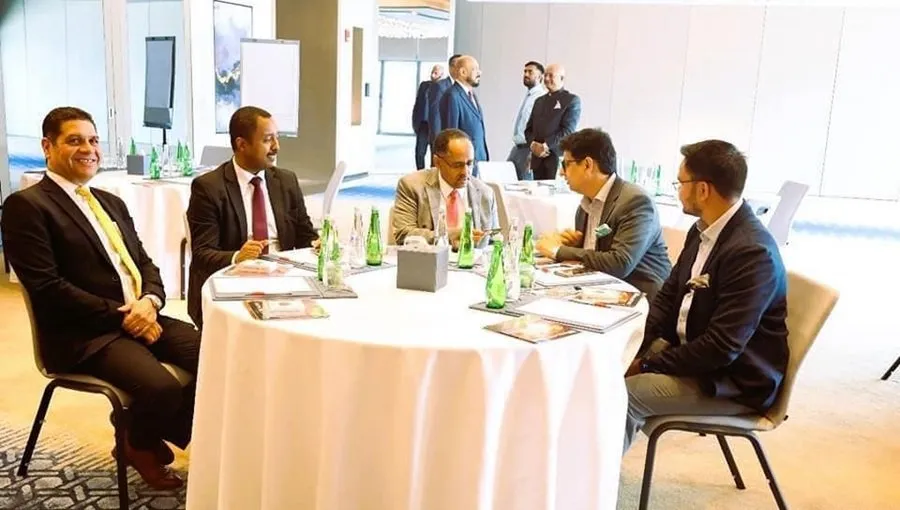
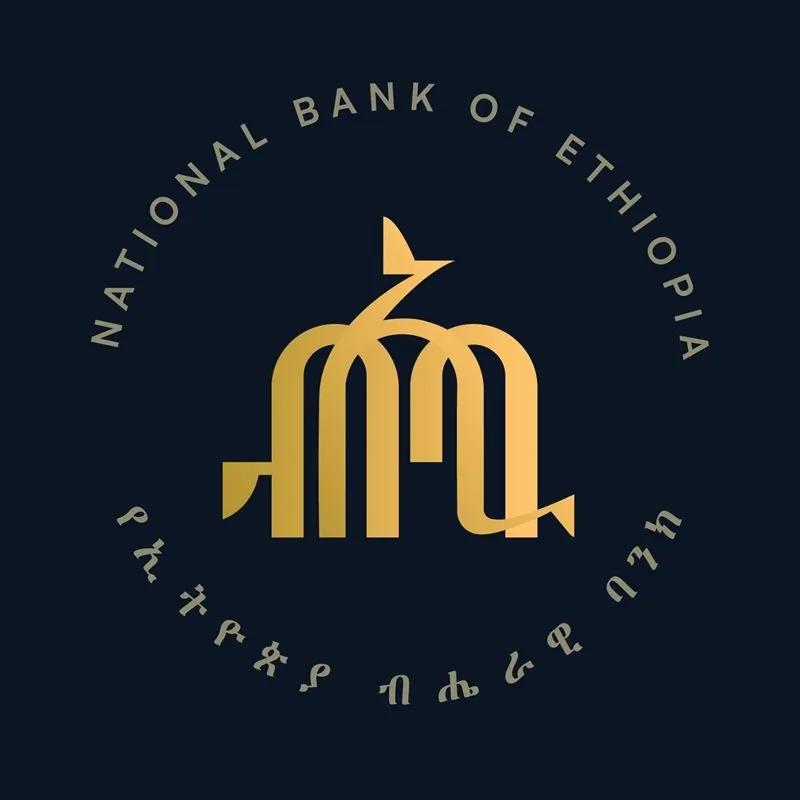
Ethiopian new law woos foreign banks
Ethiopia’s council of ministers on Friday approved a law that allows foreign banks to operate in the east African country.
The decision comes nearly two years after Prime Minister Abiy Ahmed’s cabinet adopted a policy to open the banking sector to foreign investors.
The law was approved together with a revised draft proclamation allowing the amendment of the National Bank of Ethiopia (NBE) and other resolutions.
Ethiopia’s banking industry is dominated by state-owned Commercial Bank of Ethiopia, and the sector has 32 players in total, all of them locally owned.
The National Bank of Ethiopia recently announced that it has finalized preparations to issue up to five banking licenses to foreign investors in the next five years.
In a statement on Friday, the PM’s office said the draft law was prepared in response to the recent economic and technological development of the global financial industry, in addition to the policy change.
“The draft law allows establishing legal framework and control mechanisms to issue banking licenses to foreign investors and administer its process,” the PM Office added.
The council eventually voted unanimously to endorse the draft law and referred it to the parliament for ratification.

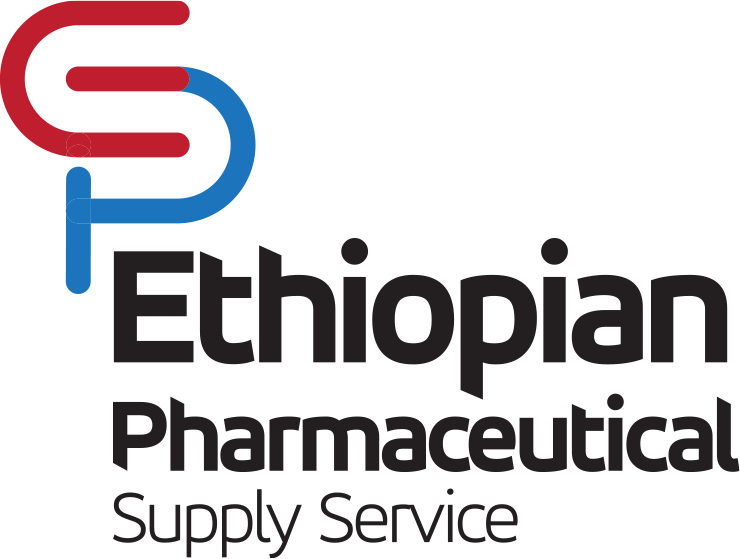
Ethiopian Federal Agency Deploys ERP to Overhaul $1 Billion Drug Supply Chain
Ethiopia’s federal agency responsible for supplying pharmaceuticals and medical equipment to health institutions has deployed an Enterprise Resource Planning (ERP) system to streamline its operations. The Ethiopian Pharmaceuticals Supply Service (EPSS), began implementing the ERP software last week and aims to make the drug supply chain data-driven and align supply with demand. With a revolving fund of one billion dollars, EPSS supplies 1,200 medicines and medical devices to 5,000 public health institutions on both credit and cash bases. Its previous operations have faced challenges, with health institutions failing to repay hundreds of millions of birr for supplies taken on credit. “ERP technology is critical for making the drug supply chain transparent and accessible, as well as for standardizing the previously fragmented system,” says Awol Hassen, Communication Director of EPSS. “The plan has been in place for over ten years and has finally been implemented due to the management’s dedication to digitization,” he adds.

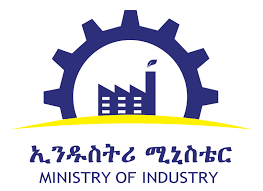
Ethiopia’s Industry Grows by 10.1%, Ministry of Industry
Minister of Industry Ato Melaku Alebel reported a 10.1% growth in the sector over the past ten months. In a performance review presented to Prime Minister Abiy Ahmed this growth surge is attributed in large part to the Ethiopia Tamrit Movement, a program focused on promoting domestic production and reducing reliance on imports. The Minister specifically highlighted the movement's role in propelling the sector's resurgence. In this regard, 129 major industries have commenced operations in the past ten months, fueled by new investments attracted by the movement. Additionally, previously dormant industries have been revitalized, resuming operations and increasing production capacity. Furthermore, the country replaced USD 2.2 billion worth of imports with domestically produced goods over the past ten months. Looking towards the future, the Ministry of Industry outlined ambitious plans to build upon this year’s achievement. The target for the 2024/25 fiscal year is to achieve an even higher growth rate of 12.8% within the industrial sector.

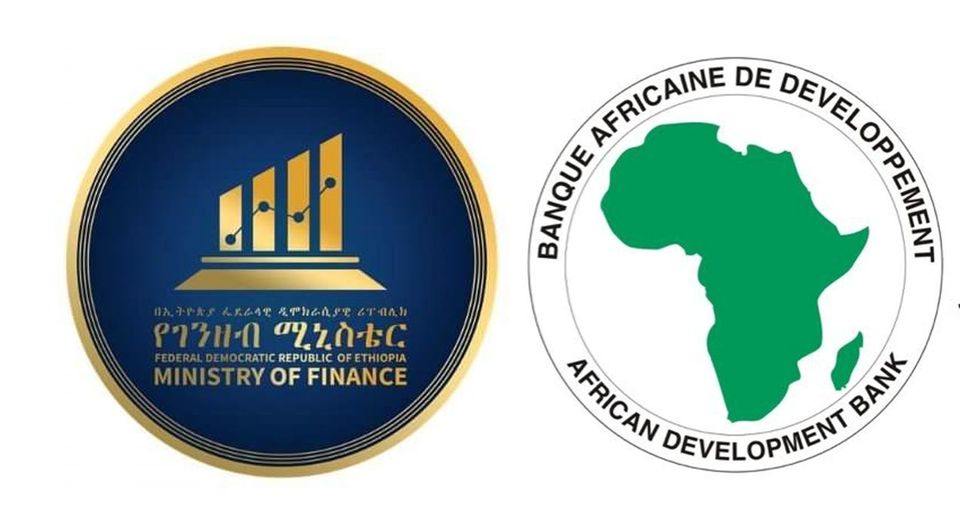
Ethiopia Inks $43 Mil Grant Agreement with African Development Bank
The Ministry of Finance has signed a grant agreement with the African Development Bank to support the agricultural sector and bolster job creation. The USD 43 million grant will be allocated to the Agri-MSMEs Development for Jobs project in Ethiopia. This project aims to improve the competitiveness, employment opportunities, and overall development of Micro, Small, and Medium Enterprises. It is expected to play a pivotal role in boosting productivity and promoting inclusive growth, thereby contributing to Ethiopia’s efforts to build a resilient and diversified economy. The agreement was signed by Ahmed Shide, Minister of Finance representing the Government of Ethiopia, and Dr. Abdul Kamara, Deputy Director General of the East Africa Regional Development and Business Delivery Office and Country Manager of the Bank.

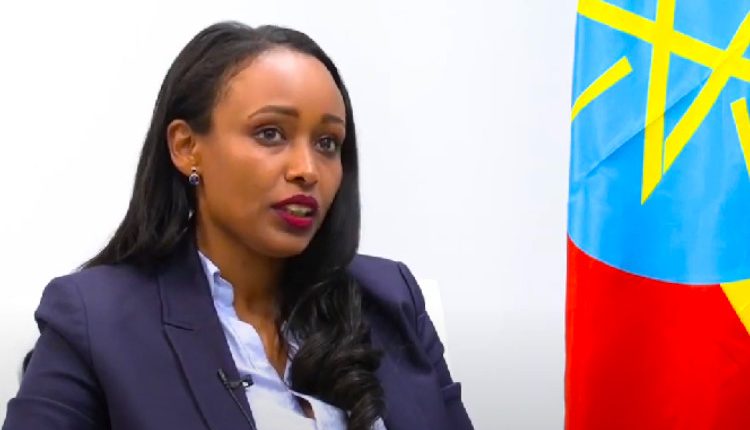
Ethiopia Earns over $4.2bln in Remittance In 10 Months – Planning, Dev’t Minister
Ethiopia has received over $4.2 billion in remittances over the past 10 months, according to Fitsum Asefa (P.h.D.), the Minister of Planning and Development.
In a briefing with journalists on Wednesday, Fitsum mentioned that the country has been attracting over $4 billion annually for the last five years. This remittance has been sent by foreign nationals and people of Ethiopian origin through legal channels, and the amount has been steadily increasing each year.
Fitsum credited the increase in remittance to the government’s reforms aimed at involving the Diaspora in the national economy.
The Minister also reported that during the current fiscal year, 1,745 Diaspora members have opened accounts in domestic banks and deposited over $2.2 million.
Additionally, more than $17 million has been collected from the Diaspora in the form of both cash and kind contributions for the construction of the Grand Ethiopian Renaissance Dam (GERD) over the last nine months.
Belayneh Aknaw, the Deputy Director General of the Ethiopian Diaspora Service, highlighted the cooperative efforts with relevant stakeholders to establish efficient and alternative legal means for the Diaspora to transfer money.


Ethiopia’s National Bank announces revised regulations for the banking sector
The National Bank of Ethiopia on Wednesday announced five revised regulatory directives to “strengthen the framework of the financial sector oversight.” The bank claims that the revisions were made in alignment with international best practices “for Banking Supervision and to accommodate new developments in the sector, thereby building the foundation for strong and inclusive growth.” The disclosure from the bank said the changes were made to the regulatory system in the sector. And they are made in “response to the development of the domestic banking industry,” it was said. It is also noted that the changes were in the Bank’s three years strategic plan. There has been an ongoing conversion with international monetary institutions : IMF and the World Bank. Reports from different sources were indicating the financial institutions have been pressuring the government to further devalue Ethiopian birr. As it turns out, the Ethiopian government seems to have quietly devalued the exchange rate of Ethiopian Birr for money transfers from overseas. For example, a Canadian dollar used to fetch about 23 to 25 Ethiopian Birr a year after Abiy took power. Last week, it was exchanged for 89 Ethiopian birr if the money transfer is directly deposited to an account in Ethiopia. If it is for cash pickup, it is about 42 Ethiopian Birr.


Ethiopia generates over $209.5m from coffee export in May
Ethiopia has generated more than $209.5 million from coffee export in the month of May, putting the sector on track for record high annual revenue. In a statement issued on Tuesday, the Ethiopian Coffee and Tea Authority (ECTA) said the east African country exported a little over 43,481 tons of coffee to earn the $209.54 million from the export of the commodity. “This is significantly higher as compared to similar months of the previous two years,” ECTA said in a statement. ECTA said the export trade surpassed the targets the authority had set for the month of May both in terms of the volume and value by 105 percent and 107 percent respectively. The growing performance of the sector has been attributed to a new market option that has eliminated unnecessary steps in the supply chain. Over the past eleven months, the coffee industry shipped over 252,466 tons of beans to the global market, generating $1.208 billion after.

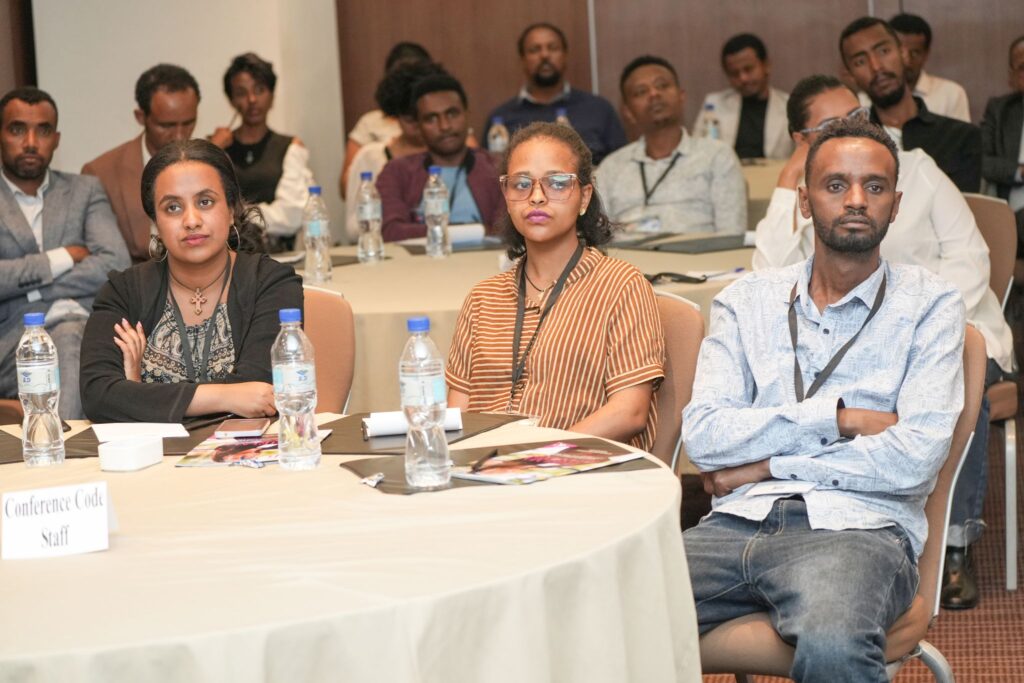
Africa Cloud & Security Roadshow Closes With Ethiopia Edition
The Africa Cloud & Security Roadshow concluded in Addis Ababa, Ethiopia, last month as dozens of local and regional industry leaders, policymakers, and cloud computing and cybersecurity professionals gathered to explore current and emerging technology trends. Powered by BUI East Africa, an award-winning global IT consultancy specialising in cloud, security and networking solutions, and organized by dx5, Africa’s technology driver, the Addis Ababa conference was the third and final leg of the roadshow after similar events in Tanzania and Uganda in May. Designed to encourage meaningful discussions about cloud computing and cybersecurity and geared towards advancing the technological landscape in East Africa, the roadshow gave attendees a chance to engage with keynote speakers, presenters, and panel guests on a wide variety of topics, from cloud infrastructure to artificial intelligence and advanced security. While Ethiopia is committed to digital transformation, the country faces many hurdles on its path to change, including digital skills gaps and shortages of cloud and cybersecurity specialists. Roadshow delegates were eager to hear about the technologies and tools available to help small and medium-sized businesses, enterprises and non-profit organizations drive cloud adoption and improve security.
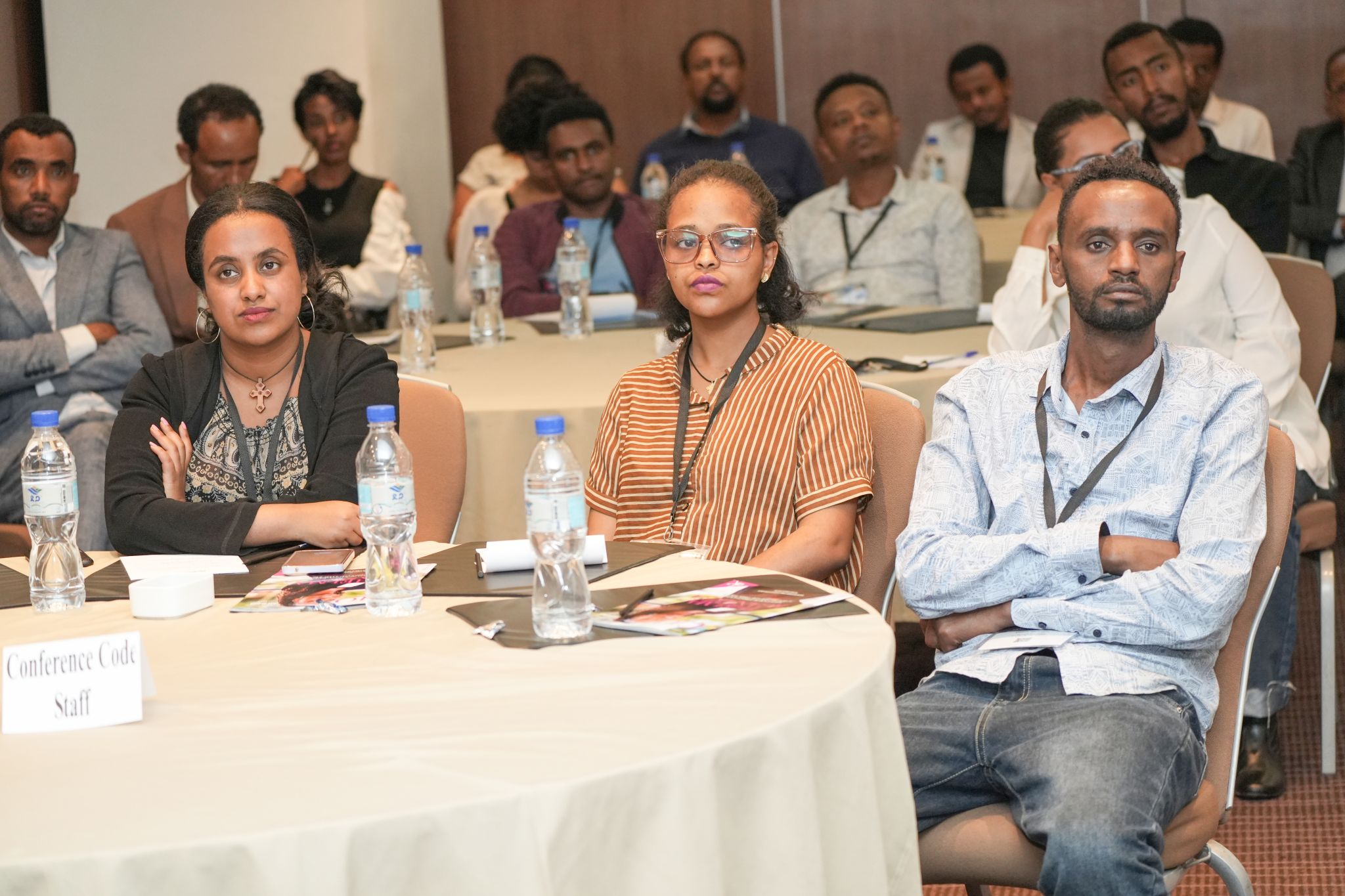
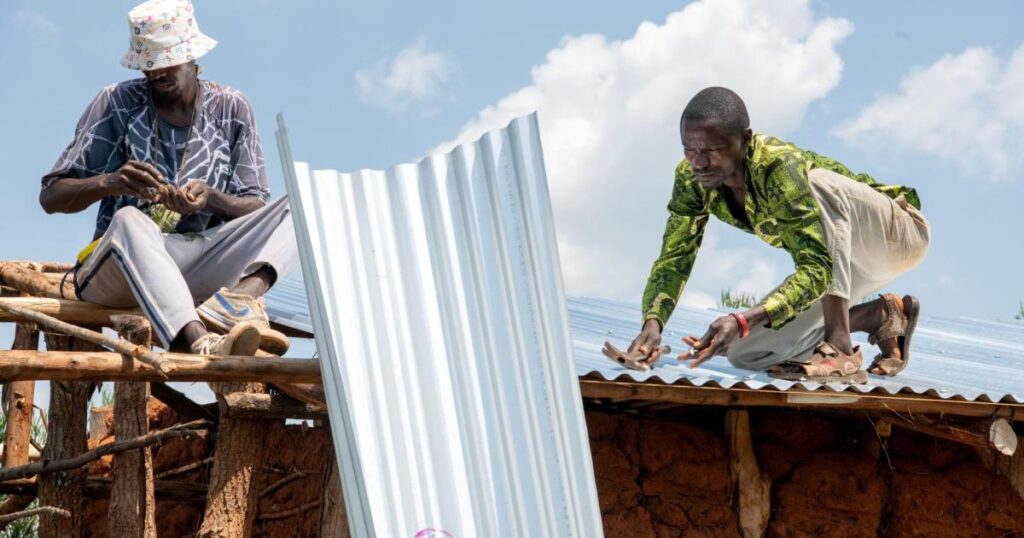
RETURNED QUALIFIED NATIONALS (RQN)/ DIASPORA ENGAGEMENT IN EHOA
Under the BRMM Programmed, IOM is working with Ministries of Foreign Affairs and Diaspora Services/Departments to implement a Returned Qualified Nationals (RQN)/ Diaspora Engagement activity in Ethiopia, Kenya, Somalia and Uganda. The activity seeks to enable the voluntary participation of the Ethiopian, Kenyan, Somali and Ugandan Diaspora to strengthen institutions in key socio-economic sectors agreed with the governments, such as computer science, health, agriculture, engineering, and financial systems. The objective of this activity is to identify, engage and deploy diaspora experts who are currently living and working abroad, and who are interested in returning and contributing to the development of their country of origin for up to three (3) months, namely, Ethiopia, Kenya, Somalia and Uganda. The application is on a rolling basis, but we aim to place the first cohort in July or August 2024. We kindly request interested individuals to provide a motivation letter including their availability, CV, and the contact information (email and phone number) of two professional references. Eligibility:
- Diaspora from Kenya, Ethiopia, Somalia or Uganda living and working abroad.
- Professional experience in one of the below fields.
- Interested in returning and contributing to the development of their country of origin for up to three (3) months.
- Work in key socio-economic sectors such as education, health, agriculture, infrastructure, civil engineering, financial systems, and information technology.
The programme will provide:
- Local support during your assignment
- Financial assistance towards expenses during the assignment
- Paid round-trip travel expenses
- A basic insurance package

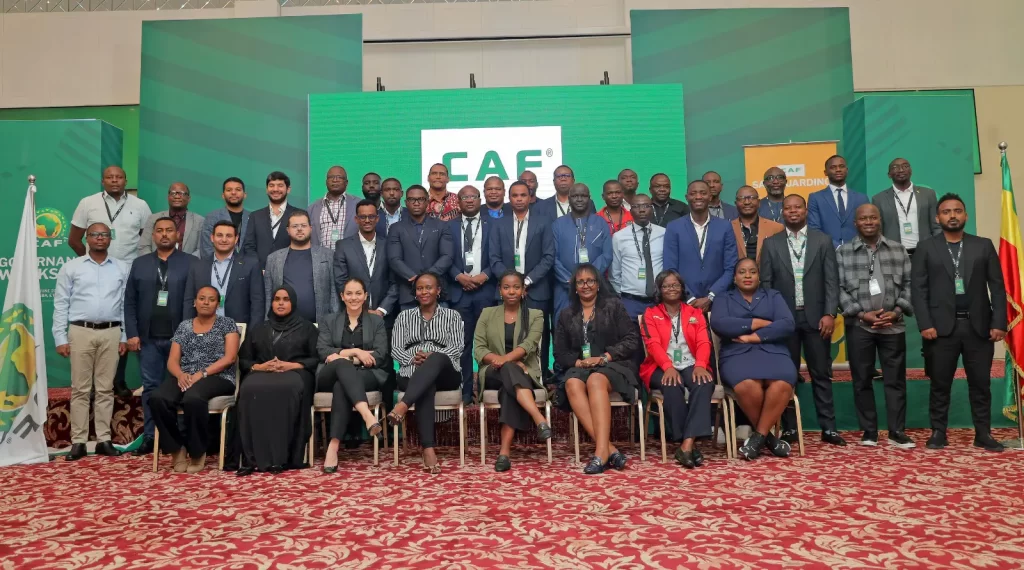
Ethiopia hosts CAF workshop aimed at strengthening Governance and Financial structures
Addis Ababa, the capital of Ethiopia, hosted the CAF Governance workshop for CAF Member Associations aimed at championing governance and financial global best practice.
This aligns with CAF President Dr. Patrice Motsepe's drive to prioritise governance and uphold the highest ethical standards within Africa’s Member Associations.
The workshop, which was held between 07 – 09 June was spearheaded by CAF’s Member Associations and Legal Affairs Departments, and saw General Secretaries and Finance Directors, who all play a vital role in advancing CAF’s vision of making African football globally competitive and self-sustaining being capacitated with the required knowledge and measures to assist in stabilising and improving governance and financial strength in their respective Associations.
The three-day workshop marks the second edition of the gathering of General Secretaries and Finance Directors, following the first edition of the workshop held in Johannesburg, South Africa in November 2023.
Amongst other key topics that headlined the workshop, CAF delved deep into the subjects of Good Governance Principles, Recommended Statutes updates, Tools to implement Governance best practices as well as a presentation of the Zonal Union reforms which are key in having efficient Member Associations.
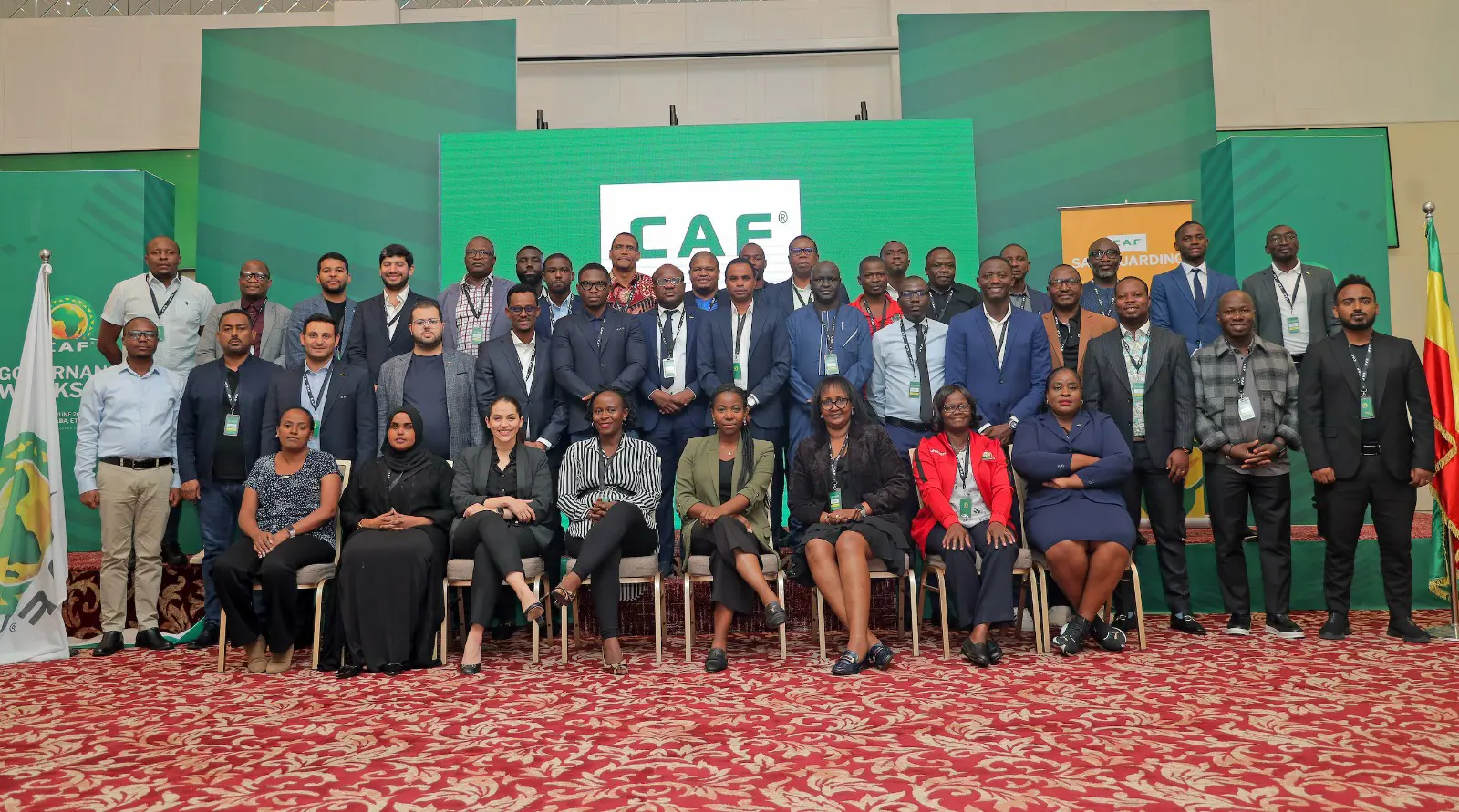
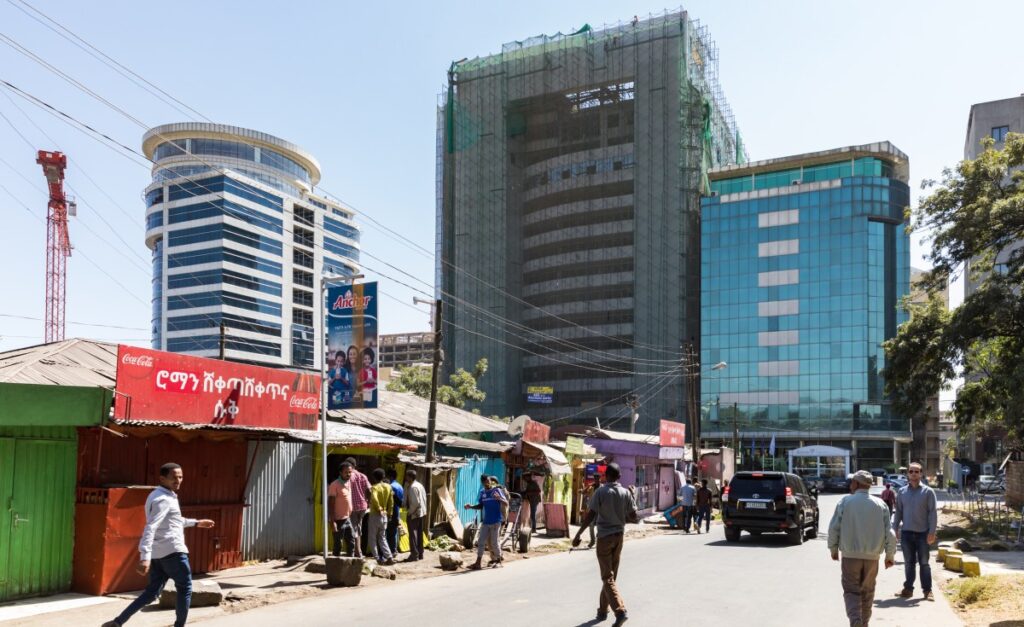
Ethiopia Gears Up for Economic Leap With First-Ever Stock Exchange
Ethiopia's financial landscape is currently on the cusp of a historic transformation as it gears up for the grand unveiling of its very first stock market, the culmination of over three years of strategic groundwork.
This journey began in 2021 with the appointment of Meles Minale, a macroeconomic advisor at the National Bank of Ethiopia, to spearhead a team of 14 experts in laying the foundation for Ethiopia's first full-fledged capital market.
The efforts of this team resulted in the establishment of the Ethiopian Capital Market Authority (ECMA), under the astute leadership of Brook Taye (PhD), a young economist with extensive experience from the Ministry of Finance and the private sector.
The Authority is entrusted with critical responsibilities, including the development of a regulatory framework, the creation of a long-term capital market development roadmap, and the review of institutional investor regulations, macro-financial policies, and tax policies. These preparations are essential for the establishment of the Ethiopian Securities Exchange (ESX).
With most of the preparatory work now completed, the inauguration of the ESX is scheduled for November 2024, marking a significant milestone in Ethiopia's economic evolution.
Officials emphasize that the ESX is already attracting significant investor attention and pulling in funds.
The Ethiopian Investment Holdings (EIH) is set to be one of the largest investors on the ESX.
In October 2023, EIH and four of the largest state-owned enterprises (SOEs) under its purview--namely, the Ethiopian Shipping and Logistics Services Enterprise (ESLSE), Berhanena Selam Printing Enterprise, Ethiopian Insurance Corporation (EIC), and Ethio Telecom--announced a combined 25% stake acquisition in the ESX.
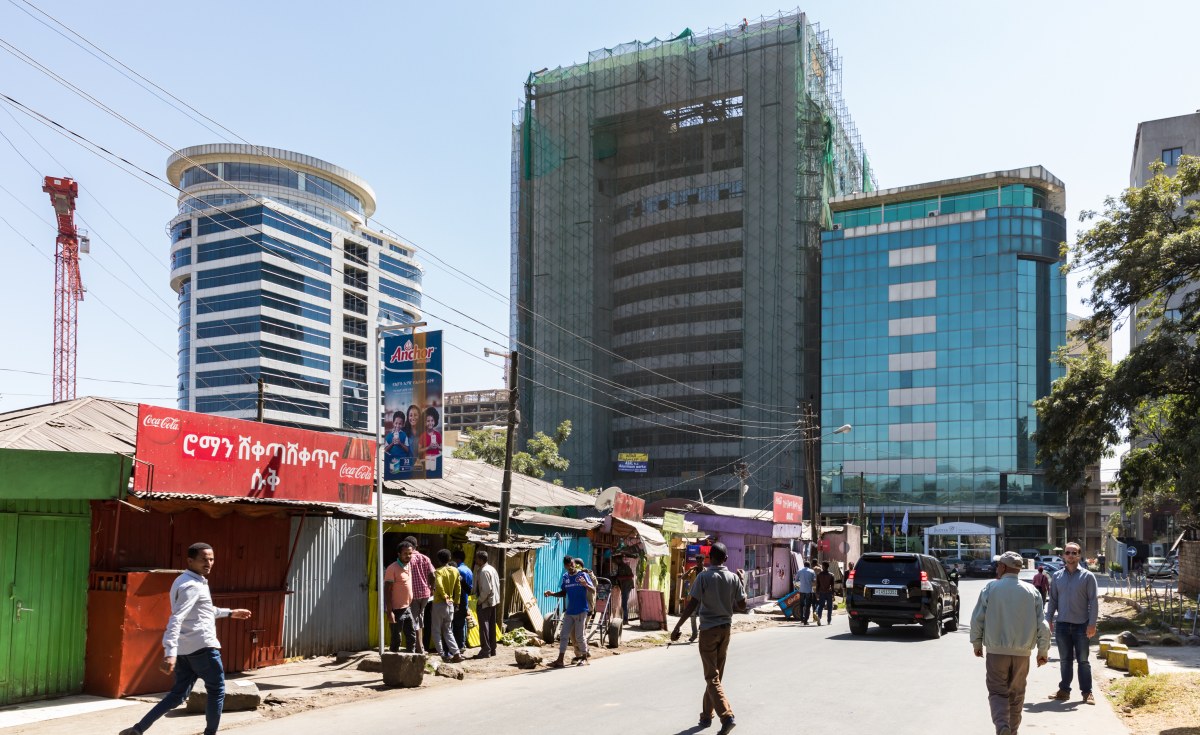
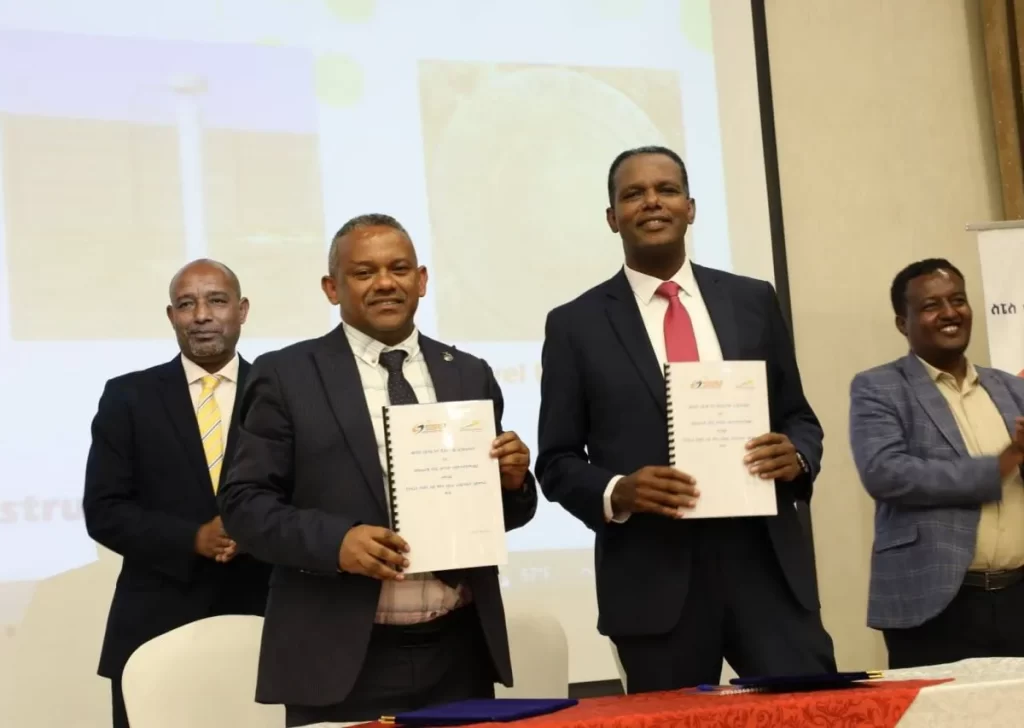
Ethiopia Cuts Costs with Local Aerial Survey Partnership
The Space Science and Geospatial Institute has partnered with National Airways, a private airline based in Addis Ababa, to capture aerial images using local planes, saving millions of birr annually. The agreement, signed last week by Abdisa Yilma, Director General of the Space Science and Geospatial Institute, and Captain Abera Lemi, CEO of National Airways, will replace the previous reliance on rented planes from abroad. Aerial photography, one of the earliest and most cost-effective forms of remote sensing, remains widely used. Abdisa noted that the cameras installed on the planes produce high-quality images for various purposes. He added that the previous method required foreign currency, creating challenges for the office. The new agreement is a significant step toward resolving this issue. Kemahu Abraham, Lead Executive of Aerial Surveying at the Institute, stated that Ethiopia’s aerial surveying operations cost between 100 and 150 million birr annually. Previously, the Institute rented planes from abroad, costing $2200 to $2500 per hour, depending on resolution, accuracy level, and area requirements. The new agreement is expected to save $250,000 to $350,000 per year. “We can collect two types of data using two planes rented from National Airways,” said Kemahu.
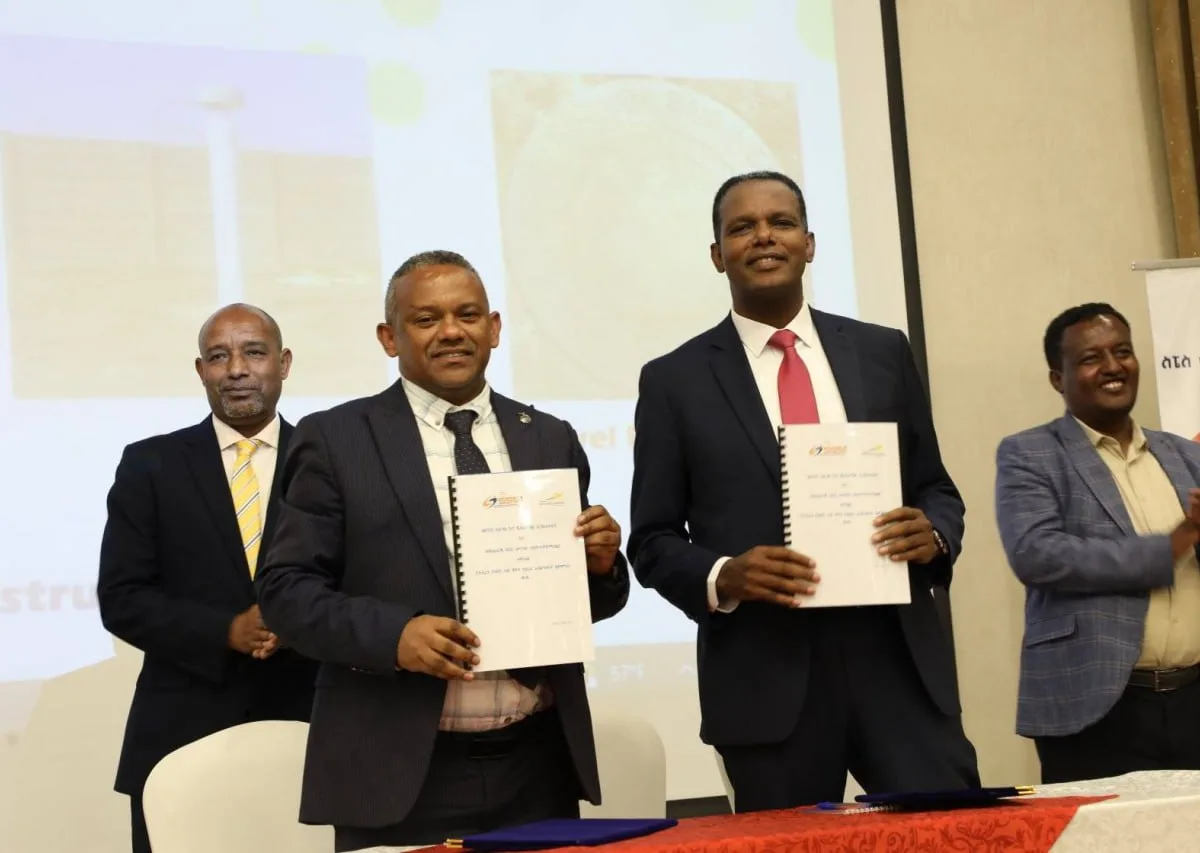

Ethiopia’s Gerd generates more-than-expected electricity
Grand Ethiopian Renaissance Dam (Gerd) has generated more than 2,700 gigawatt hours (GWh) of electricity during the past 10 months. The Ethiopian Electric Power (EEP) said the mega hydroelectric power plant has surpassed its initial planned power generation targets in the past 10 months of the current 2023/2024 Ethiopian fiscal year that started on July 8, 2023, state-affiliated Fana Broadcasting Corporate reported late Wednesday. The dam registered around a 26 percent increase from the initial plan of 2,152.8 GWh, according to data from EEP. The EEP attributed Gerd's increased power generation to the dam's ability to store more water, enabling its two operational turbines to function at full capacity. With the new milestone, Gerd contributed about 16 percent of the East African country's total 16,900 GWh of electricity generated during the reported period from various power generating plants across the country.


Emeye Ethiopian Cuisine’s Exceptional Food Is Your Perfect Park Meal This Summer
I've been eating Ferehiwot Sheffield's sega wat for almost two years now, ever since we first met in the fall of 2022 at her Emeye Ethiopian Cuisine tent at the Queens Night Market. It was love at first bite between me and the mound of incredibly rich, complex, and legit spicy beef stew that Sheffield serves with vegetables atop a semicircle of spongy injera. It's an incredible plate of food. I've had the sega wat at Emeye at least three times since then, but only recently did Sheffield school me on exactly why her version of this dish, which is as common in her native city of Addis Ababa as, say, cheeseburgers are here, is so unusually delicious—and distinct from any other you're likely to find in New York City. "When I moved here in 2012, first in Red Hook and now in Sunnyside, it was so hard for me to find, not Ethiopian food in general because there's a lot of that, but real injera," Sheffield told Hell Gate. "In Ethiopia, injera is made only with teff, which is a grain. We don't mix it with anything. It's healthier and it's gluten-free. If you mix it with wheat flour, which is what most restaurants here do, it's more like eating bread. With only teff flour, it just tastes better. It tastes like home." Sheffield told me it took her about seven years to master making her teff-only injera in New York City—something about the water here just makes it really difficult, she said—but as far as I'm concerned, speaking as someone who delights in tearing off chunks of the stuff to scoop up mouthfuls of meat, it was worth the effort.

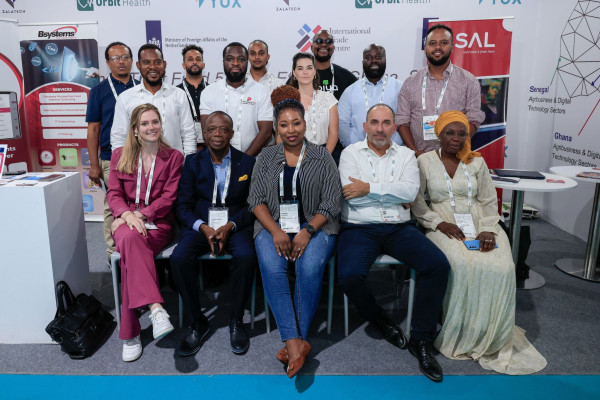
ZalaTech Makes a Splash at GITEX Africa 2024, Showcasing Ethiopian Innovation in Software Solutions
ZalaTech, a leading software company headquartered in Addis Ababa, Ethiopia, successfully participated as an exhibitor at GITEX Africa 2024 (https://GITEXAfrica.com), held in Marrakesh, Morocco. This premier technology event, known for bringing together industry giants and innovators from across the continent, provided the perfect platform for ZalaTech to showcase its cutting-edge software solutions to a global audience.
Empowering Businesses through Technology
From its inception in Addis Ababa, ZalaTech has focused on developing innovative software tools designed to empower businesses of all sizes to thrive in today's dynamic market. The company's commitment to understanding the unique needs of African businesses was evident throughout GITEX Africa.
- Enterprise Resource Planning (ERP): ZalaTech's ERP solution streamlines core business processes, providing businesses with a centralized platform for managing inventory, finances, human resources, and customer relationships.
- E-Learning: ZalaTech's E-Learning platform caters to the growing demand for flexible and accessible learning solutions. This comprehensive platform empowers organizations to create engaging online courses, manage learning content, and track learner progress.
- E-commerce: Recognizing the surge in online shopping, ZalaTech showcased its user-friendly E-commerce platform. This solution allows businesses to build robust online stores, manage inventory, and facilitate secure online transactions.

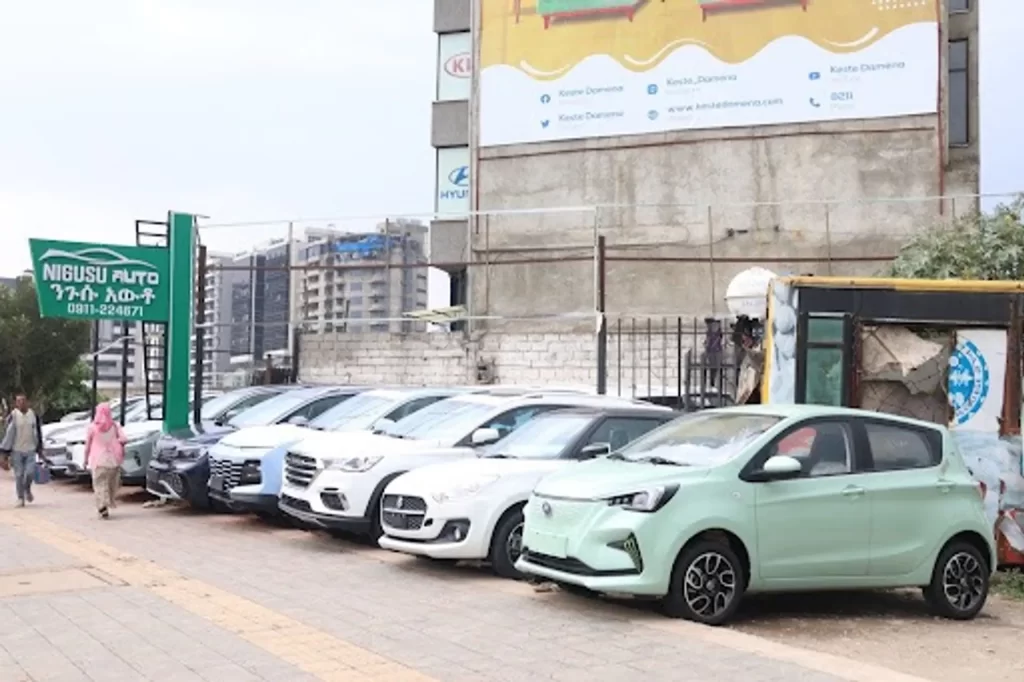
Ethiopia’s transition to green mobility encounters headwinds amid economic slowdown
Ethiopia inaugurated its biggest electric vehicle factory in Debre Berhan in the Amhara region on Tuesday, as part of an ambitious strategy to turn the country into a leading player in green mobility on the continent. But this latest development comes as the Ethiopian government faces economic challenges and limited financial capacity that has delayed the completion of government priority projects scattered around the country. This includes the $5 billion Grand Renaissance Dam, which would help upgrade the electricity network needed to power a rising influx of EVs. With the Horn of Africa nation facing a large economic deficit, skeptics are questioning if Ethiopia has the capability or the resources to execute such an ambitious project. Addis Ababa is displacing citizens and gutting neighborhoods to pave the way for skyscrapers and EV charging stations, part of an effort to make the capital “The East African Dubai.” Ethiopia’s 10-year Perspective Development Plan calls on the government to import 4,800 electric buses and 148,000 electric cars. Last year, Ethiopia banned the import of non-electric cars and offered a new tax exemption for the import of electric cars as part of a green legacy project initiated by Prime Minister Abiy Ahmed. The local automobile market is currently saturated with Chinese imported electric vehicles, with Chinese brands such as BYD and Jetour gaining popularity. The Ethiopian Ministry of Transport announced last month that it had managed to bring in more than 100,000 electric cars and built 60 charging stations across the capital.

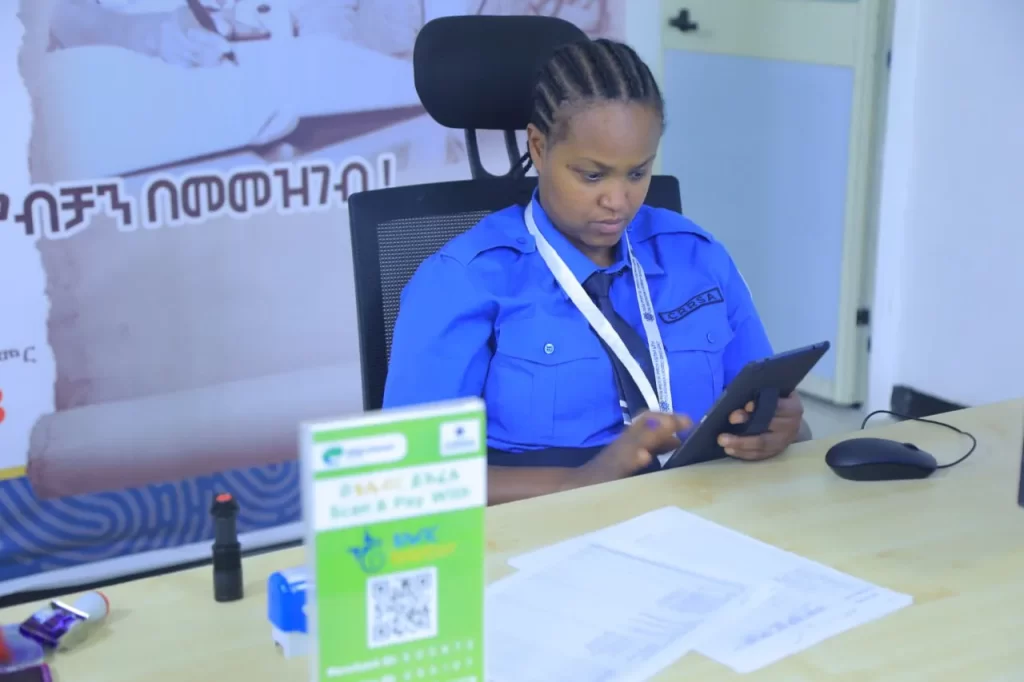
Addis Ababa’s Vital Registration Embraces Telebirr
The Addis Ababa Civil Registration & Residency Service Agency (CRRSA) is transitioning to a cashless system accepting payments only through telebirr starting next year. The Agency, responsible for registering vital events like births, marriages, divorces, and deaths in Addis Ababa, has already integrated Ethio Telecom’s mobile money platform. “Just one month after integrating telebirr, the Agency has already collected 13 million birr from its head office and district branches in the capital,” said Yonas Alemayehu, General Director of the Agency. Yonas shared with Shega the plans for the institution to become completely cashless within the next year. “We’ve made significant progress in digitizing payments,” he said. “Similar to the initial resistance towards telebirr acceptance at fuel stations, there might be an adjustment period. However, we believe everyone will ultimately appreciate the convenience of digital services.” Since the nation made fuel transactions cashless, several government agencies, such as the Federal Document Authentication & Registration Service, have transitioned to digital payments. Most of the Agencies are also accepting only telebirr. However, three weeks ago, it was reported that the Petroleum and Energy Authority is preparing to launch a platform that enables drivers to pay at gas stations using Safaricom’s M-PESA and other digital payment solutions by banks.
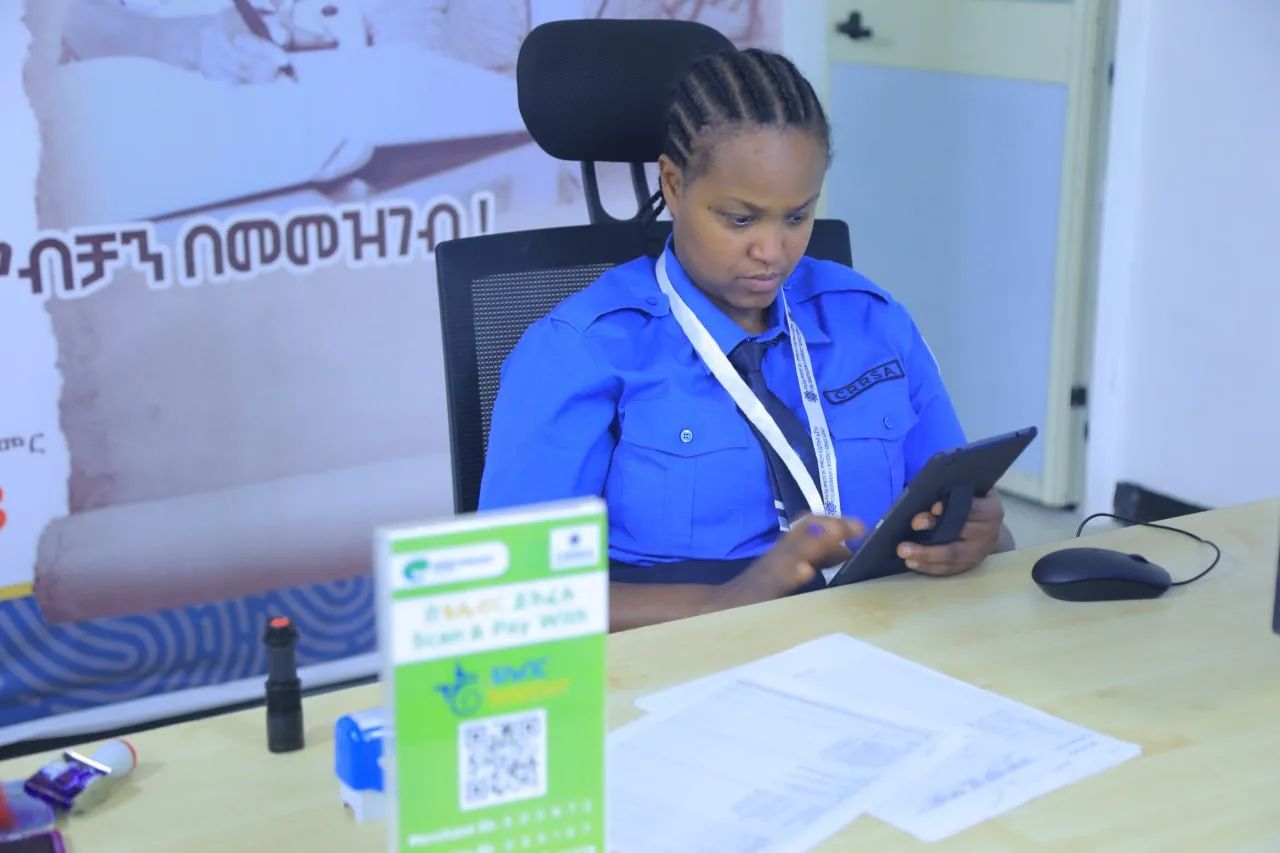

Why Bombchel boutique owner Archel Bernard is a regular at Desta Ethiopian Kitchen
Despite being born in Liberia and spending part of her childhood there, Georgia Tech graduate and Atlanta fashion designer Archel Bernard grew up regularly eating Ethiopian food. The two countries are on opposite sides of the African continent, with Liberia located along the Atlantic Coast and Ethiopia more than 4,700 miles away to the east. Her parents came to Georgia as refugees when she was a teenager. But after finishing her college degree, Bernard moved back to her native Liberia to start a business. In 2019, Bernard returned to Georgia and rediscovered her love for Ethiopian food. She’s now a regular at Desta Ethiopian Kitchen, the Clairmont Road restaurant owned by Ethiopian-born couple Ash Nega and Titi Demissie. Since opening in 2006, Desta has become one of Atlanta’s go-to destinations for Ethiopian food. “It’s fun, it’s made to share,” said Bernard of the East African cuisine, known for flavorful curries (wot), fragrant meat tibs, and injera, a spongy fermented flatbread used for scooping and dipping food. On a warm Monday evening in May, Bernard gathered with family and co-workers on the cozy patio at Desta to share large platters of lamb and salmon tibs with awaze (spicy pepper sauce), vegetables, and miser (red lentils).

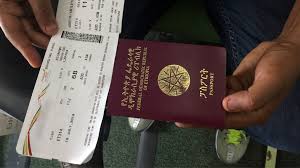
EU visa restrictions on Ethiopians reflect strained migration relations
The punitive measures reflect a history of major EU investment in Ethiopia’s migration governance – with few results.
Since 29 April, the European Union (EU) has imposed temporary restrictions on Schengen short-term visas for Ethiopians. These include prohibiting multiple entry visas, longer processing times, and eliminating waivers for certain documentary requirements and visa fees. The European Commission said the action was due to a ‘lack of response from the Ethiopian authorities regarding readmission requests,’ and shortcomings in organising ‘voluntary and non-voluntary return operations,’ (the latter is how the EU describes deportation). The restrictions raise concerns about the efficiency and fairness of the EU’s migration policies. Ethiopia’s Foreign Ministry Spokesperson Nebiyu Tedla said the developments were ‘incompatible with acceptable diplomatic practices’ and asked the EU Council to reconsider the ‘unfair’ restrictions. In 2017, the EU and Ethiopia agreed on admission procedures for the return of Ethiopians from EU countries. Although this agreement was never made public, a leaked statement revealed that similar arrangements were later made between Ethiopia and Norway and Switzerland.

Boeing’s Ethiopia headquarters can benefit other African airlines
Analysts sees low-cost air travel as an underserved market which African airlines need to attack.


DT Global Europe concludes transport and logistics support project in Ethiopia
DT Global Europe has successfully completed a transport and logistics support project in Ethiopia funded by the European Union and widely recognised by both the EU Delegation in Ethiopia and the main local beneficiary institutions. This project has been a major milestone in the country's logistics reform through its contribution to improving the service of regional transport corridors, increasing the efficiency and effectiveness of the logistics sector, as well as improving environmental/climate and social performance. The implementation of the project, entitled ‘Technical Assistance to the Ethiopian Transport and Logistics Sectors’ and funded by the European Union, will enable the Government of Ethiopia to improve the regional integration and competitiveness of the country in a sustainable manner and to meet the performance indicators of the performance contract on Ethiopia's regional connectivity and competitiveness sector reform.


Ethiopia’s construction sector reaches 21% of GDP
Deputy Prime Minister Temeshgen Tiruneh has announced that Ethiopia's construction industry has reached a significant milestone and now contributes 21 per cent to the country's Gross Domestic Product (GDP). The announcement was made during the opening of the much-anticipated Big 5 Construct Ethiopia 2024 Expo in Addis Ababa, as reported ENA. The event, with the theme “Construct Ethiopia”, was attended by prominent figures such as Speaker of the House of People's Representatives Tagesse Chaffo, Addis Ababa Mayor Adanech Abiebi, Minister of Urban Affairs and Infrastructure Chaltu Sani and other industry stakeholders. The event highlighted the significant growth of Ethiopia's construction sector. Deputy Prime Minister Temeshgen emphasised that the industry is projected to grow at an annual rate of over 8 per cent, which will contribute significantly to the overall prosperity of the country. He emphasised the vital role of the sector in infrastructure development and job creation, noting that Ethiopia is capable of supplying 80 per cent of construction materials to the domestic market. Minister of Urban Affairs and Infrastructure Chaltu Sani emphasised the importance of coordination among various stakeholders to ensure the continued development of the construction industry, which is a key driver of Ethiopia's economic transformation.


Ethiopia’s Hagos Gebrhiwet runs second-fastest 5K in history at Oslo Diamond League
The men’s 5,000m at the Oslo Diamond League on Thursday had the firepower to be something special with the likes of world record holder Joshua Cheptegei of Uganda and his compatriot, Jacob Kiplimo. However, it wasn’t the likely candidates who stole the show. Instead, 30-year-old Ethiopian Hagos Gebrhiwet clocked the second-fastest 5K time in history–12:36.73 to break the Ethiopian national record. Gebrhiwet’s time wasn’t only a national record, but an Oslo Bislett Games meet record, a personal best and the fastest time in the world this year. He took nearly six seconds off his previous best of 12:42.18 and broke Kenenisa Bekele’s Ethiopian record mark of 12:37.35, set on May 31, 2004. Speaking to the media post-race, Gebrhiwet said he hopes this result will help him be selected for the Ethiopian team for the 10,000m event at the 2024 Olympics. The only man who has ever run faster than Gebrhiwet is Cheptegei, who finished ninth in Thursday’s race, with a time of 12:51.94.

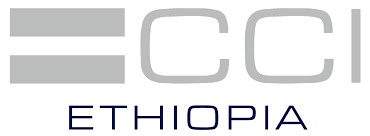
African BPO Giant CCI Global to Resume Operations in Ethiopia
CCI Ethiopia, a local branch of CCI Global, one of the largest business outsourcing (BPO) companies in Africa, is set to resume operations after a temporary shutdown at the end of last year. CCI Ethiopia previously employed over 100 Ethiopians. CCI Global’s previous operations in Ethiopia focused on providing customer support for “CCI’s major US e-commerce clients.” According to former CCI Ethiopia employees who wished to remain anonymous because they are not allowed to speak to the media, their clients included Shutterfly and Instacart. Shutterfly is an American photography, and image-sharing company while Instacart is a same-day delivery company based in San Francisco with a valuation of $9.3 billion in 2023. Tadiwos Tefera, CEO of MMCY Tech, a local BPO firm and a partner of CCI Ethiopia, confirmed the company’s return and plans to “revamp their operation.” While Tadios declined to disclose the specific reasons for the shutdown, he clarified that it was not a permanent closure but rather a “ramping down,” with the upcoming relaunch signifying a “ramping up.” CCI Ethiopia is planning a comeback with the initial hiring of around 70 employees. The success of this initial phase will determine further expansion plans in late 2024 and early 2025. According to sources close to the case, despite failing to issue an official communiqué regarding the shutdown, the company provided a three-month severance package to employees when they were laid off.

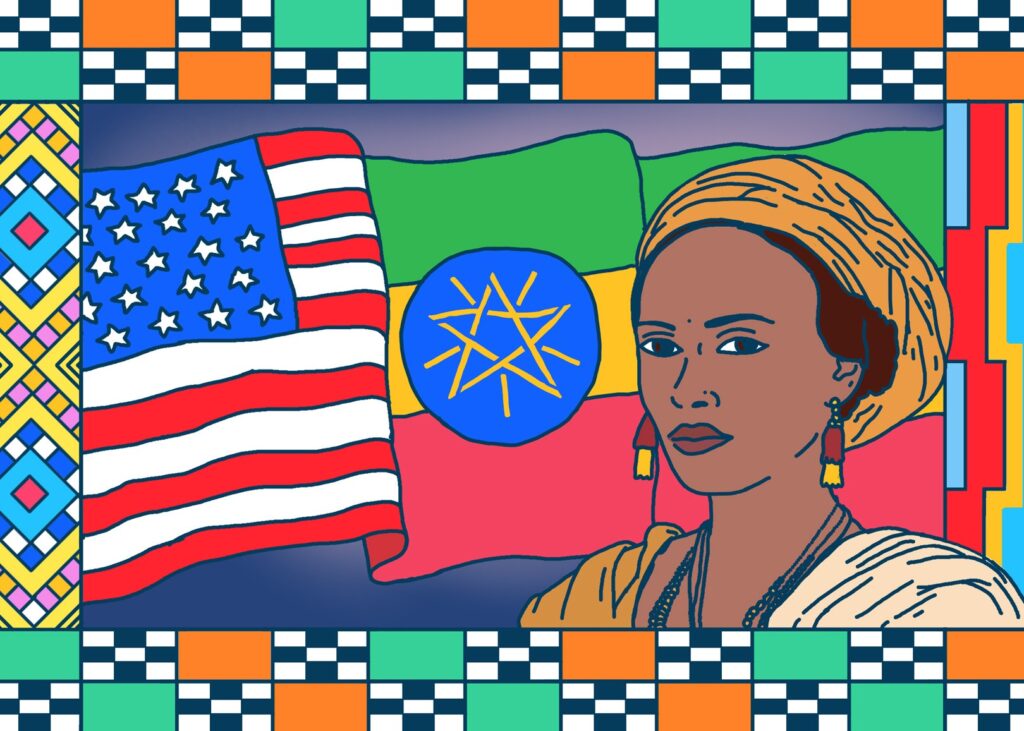
EWU sociologist studies the cross-cultural identity of second-generation Ethiopian Americans and how they influence their communities
As a young person in Ethiopia, Kassahun Kebede and his family were displaced from their homes more than once, in something the Ethiopian government called resettlement. Those experiences later propelled him into his now nearly two-decade career researching population relocation, international migration and the new African diaspora — the voluntary movement of Africans to the U.S. and other countries in the latter half of the 20th century.
"Growing up, I just became a displaced person in my own community," he says. "Mobility has always fascinated me." Recently, his research has delved into the identity development of second-generation Ethiopian Americans and how the Ethiopian diaspora (dispersed from their homeland) advocates for democracy across international borders. As someone who now identifies as Ethiopian American and has children who would be considered second-generation Ethiopian Americans, Kebede says his own biculturality is what really drove him to research the formation of transnational identity.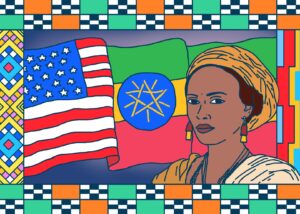

Ethiopia Lures 3 Billion USD FDI in Ten Months of Current Fiscal Year
ddis Ababa May 28/2024 (ENA) Ethiopia received 3 billion USD in Foreign Direct Investment (FDI) in the first 10 months of the current fiscal year., Ethiopian Investment Commission remarked.
Speaking to ENA, Commissioner of the Ethiopian Investment Commission Hanna Arayaselassie said the commission has planned to attract 3.5 USD in foreign direct investment during this Ethiopian fiscal year.
“Over the last 10 months, the total FDI inflow into the country is about 3 billion USD. We are working towards meeting the annual goal. We expect this number to grow in the coming years.”
Noting we are a bit behind our annual target, but it has increased and showed improvement compared to last year, she said, adding “we are working hard to make sure that we meet our goal, but also to increase it for the coming year.”
Although there are sizable contributions from other parts of the world, China is the top source of foreign direct investment into the nation, accounting for almost 50 percent of all projects that come in, she indicated.

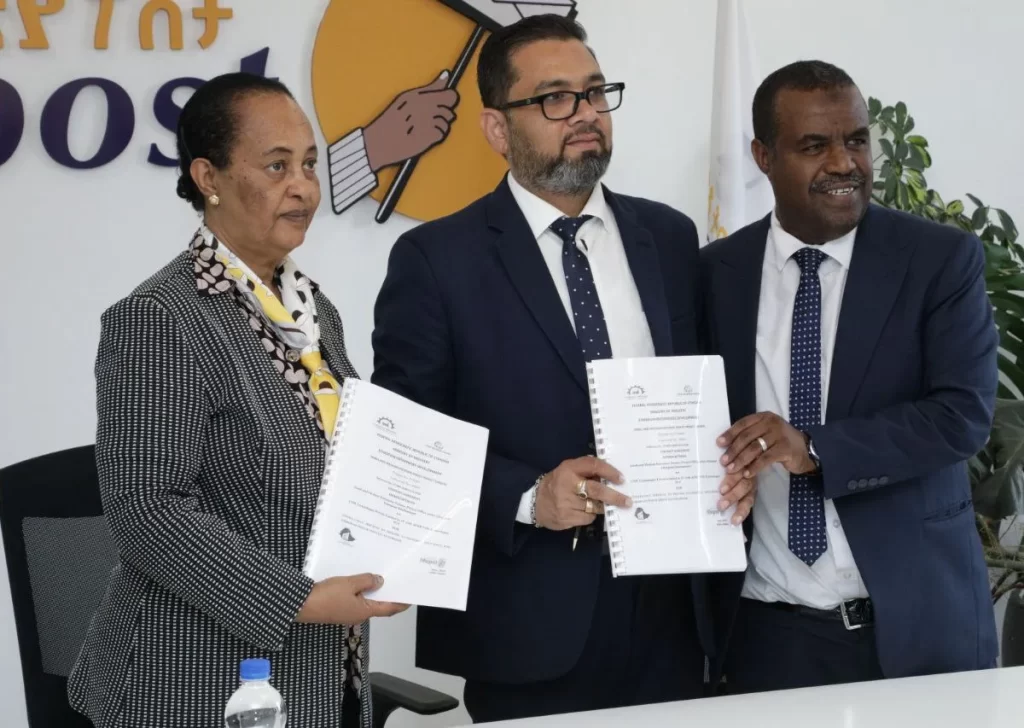
WB-funded E-commerce Platform Targets to Reach 300,000 SMEs in Ethiopia
An ambitious project, funded by the World Bank, is developing an e-commerce platform with the goal of reaching 300,000 small and medium-sized enterprises (SMEs) across the country. The project, which brings several organizations into collaboration, has contracted Africom Technologies, an Ethiopian IT solutions provider, to build the new national e-commerce platform. “E-commerce holds immense untapped potential in Ethiopia,” said Baheru Zeynu, CEO of Africom Technologies. “This collaboration between government and private actors creates a unique opportunity to unlock this potential nationwide.” The platform will create a domestic and international digital marketplace specifically for SMEs by providing a robust online platform. Development for the platform officially kicks off tomorrow, May 29, 2024. With a construction timeframe of one year, the platform is expected to be fully operational by the designated launch date, and over 40 developers will contribute to the development process, according to Baheru. The contract was officially signed two weeks prior. The agreement involves Ethiopian Enterprise Development (EED) under the Ministry of Industry, along with a joint venture between Africom Technologies PLC and CSM Technologies. Ethiopost, the national postal service will be the delivery partner.

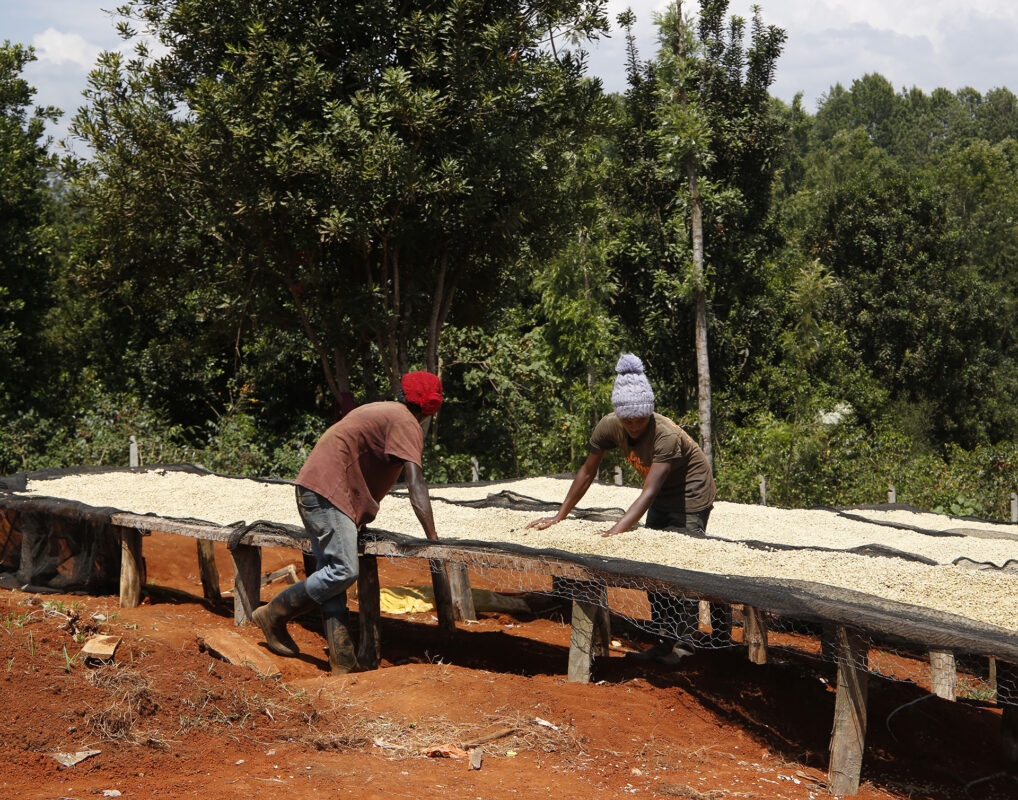
How Ethiopia’s Coffee Farmers Are Outsmarting The Weird New EU Deforestation Laws
One of the privileges that comes from publishing a daily coffee news and culture publication like Sprudge is our ability to provide coverage continuity. A particularly prescient example of this came across our desks last week. For the last three years, we’ve reported on legislation that’s made its way through the European Union focused on limiting deforestation in Africa, with a troubling set of after-effects on the livelihoods of African coffee producers. This is a serious, complex set of issues, and our original reporting (from 2021) wondered if this might not lead to a ban on coffee importation altogether in the EU. In late 2022 a version of the laws was passed, and throughout 2023 major pushbacks occurred from the European Coffee Federation, Lavazza, and other European coffee leaders. Serious negative impacts of the new laws emerged by late 2023, leading to fears that some coffees would have to be destroyed at Europe’s largest green coffee warehouse. But so much of this reporting—ours, and from large mainstream publications like the Financial Times, who have reported extensively on this story—focused on a European perspective. What about the coffee producers? How were they adapting—and was adaptation even possible? In a new feature for Sprudge Special Projects, Nairobi-based journalist Anthony Langat spoke with coffee producers in the Oromia region of Ethiopia. Many of these producers are members of the Limu Inara Multipurpose Cooperative Society and the Oromia Coffee Farmers’ Cooperative Union. Langat’s reporting is revealing, and in its own way, surprisingly optimistic. While it’s true that the EU’s laws represent a threat to coffee producers in Africa, this is a resilient and resourceful group of people. Rather than accepting the existential threat of these new laws, “Ethiopian smallholder coffee farmers are betting on technology including blockchain, geospatial AI, GPS, and satellite imagery to comply in order not to lose out on the European Union market,” reports Langat.

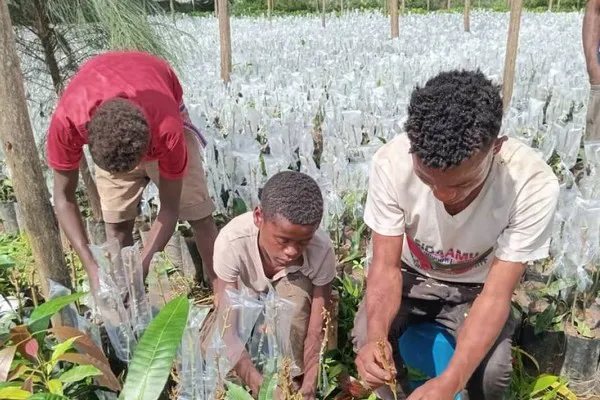
Ethiopia’s transformation into a market-oriented seed sector
The Ethiopian seed sector is transforming into a more vibrant, pluralistic, and market-oriented one. Ethiopian seed companies are increasing their seed production and quality, while Dutch breeding companies are entering the market with high-value vegetable seeds. This is part of a transition supported by the Wageningen Centre for Development Innovation (WCDI). WCDI works with public and private partners in Ethiopia to develop a private seed sector. The Ethiopia Netherlands Seed Partnership (ENSP) improves the availability and quality of seed on this emerging market. Tens of thousands of farmers are now receiving training and demonstrations on how to improve their harvests. Resilience, an agribusiness consultancy firm, focuses on supporting ten Ethiopian seed companies in the partnership. These companies have emerged in the past fifteen years, during the liberalization of the agricultural economy. Until then, the Ethiopian government supplied almost all seeds to farmers through public seed enterprises. These parastatals did not properly match their production to the existing demand, which caused shortages of in-demand seeds, carryover of unwanted seeds, and variable quality. As a result, many Ethiopian farmers used part of their harvest to sow a year later and yields were often low. For example, the average potato yield is less than 10 tons per hectare in Ethiopia, compared to 21 tons per hectare worldwide.


Private Operators Authorized to Offer Regular Passenger and Cargo Flights in Ethiopia
On May 14, 2024, the Ethiopian Civil Aviation Authority (ECAA) granted approval to local private operators, allowing them to provide regular passenger and cargo flight services. According to the ECAA’s press release, this authorization is crucial because it will “enable the air transport sector to contribute to the overall development of the country.” The goal is to “provide safe and guaranteed services” to investors and “encourage many investors to enter the sector.” While existing regular domestic flights primarily connect regions to Addis Ababa, this new permission for private operators aims to enhance connectivity between different regions, fostering economic and social interaction. In addition to this, the tourist destinations that are being built in different parts of the country have been given the attention of the government and will have a significant role in making the environment accessible to visitors. Despite Ethiopian Airlines’ success as the largest airline in Africa, the private sector in the Ethiopian aviation industry has not flourished. General aviation in the country is still in its infancy, with approximately twelve private airlines operating in the sector. Notably, none of these private operators offer scheduled flights; instead, they focus on charter flight services. Currently, Ethiopian Airlines remains the sole provider of scheduled flight services on domestic routes.


Safaricom Ethiopia kicks off $1.5 billion investment with first batch of homegrown telecom towers
- Safaricom Ethiopia, a telco operator, has announced receiving the first batch of 13 locally manufactured telecom towers from Woda plc., the first local company to manufacture network towers in the country, to improve and expand their network infrastructure.
- Per the telco operator, Woda will supply 68 high-quality towers for 50 million birr (nearly $870,000).
- This development comes a month after Safaricom Ethiopia announced a $1.5 billion plan to build 5,000 new towers over three years to expand network infrastructure and provide high-quality, dependable telecommunications services across the country.


Ethiopia opens domestic scheduled market to charter carriers
In a move designed to open up the domestic airline market, the Ethiopian Civil Aviation Authority has authorised private charter carriers to break into Ethiopia's scheduled domestic passenger and cargo market. In a statement released on social media, the authority revealed that it had already granted licences to Ethiopian air transport operators to provide regular passenger and cargo flights in addition to the charter services they currently provide. Ethiopian Airlines (ET, Addis Ababa International) is currently the only scheduled carrier in the East African country, while there are eight active passenger charter operators, according to the ch-aviation PRO airlines module - Abyssinia Flight Services, Aquarius Aviation, East African Aviation, Midroc Aviation, National Airways (Ethiopia), Trans Nation Airways, Walya Airways, and Zemen Flying Service. The Ethiopian regulator underlined that it had been undergoing a transformation over the last two years and has been updating procedures and introducing new ones to encourage the participation of the private sector in operating domestic routes. The move is aimed at boosting the aviation sector's contribution to the economy, providing greater incentives and opportunities for investors to conduct safe services, connecting the country's regions, and providing access and increasing tourism.


Ethiopia earns over $78.5m from power export
Ethiopia generated more than 15 thousand gigawatt hours of energy in the nine months and exported part of it to its three neighbor countries namely Djibouti, Sudan, and Kenya with which it established power connections over a year ago. The EEP said the revenue has fallen short of the target due to security reasons. “Although the maintenance works were done with the view to making the power transmission and distribution works safe, the plan could not be achieved due to security problems in various areas. EEP said more than 14.8 billion birr ($245.6 million) was also earned from the sale of power supplied to local customers. Djibouti and Sudan have been buying electricity from Ethiopia for more than five years. Kenya started importing electricity from its northern neighbor last year. According to EEP’s statement, Ethiopian Electric Power is now set to start supplying electricity to Tanzania soon. According to EEP, the completion of the Grand Ethiopian Renaissance Dam (GERD) will greatly boost the power source of the east African nation to fulfill the rapidly growing domestic demand and the demand from neighboring countries for electricity supply. 13 turbines of the GERD are expected to produce about 16,000 GWh of electricity by the end of this year.

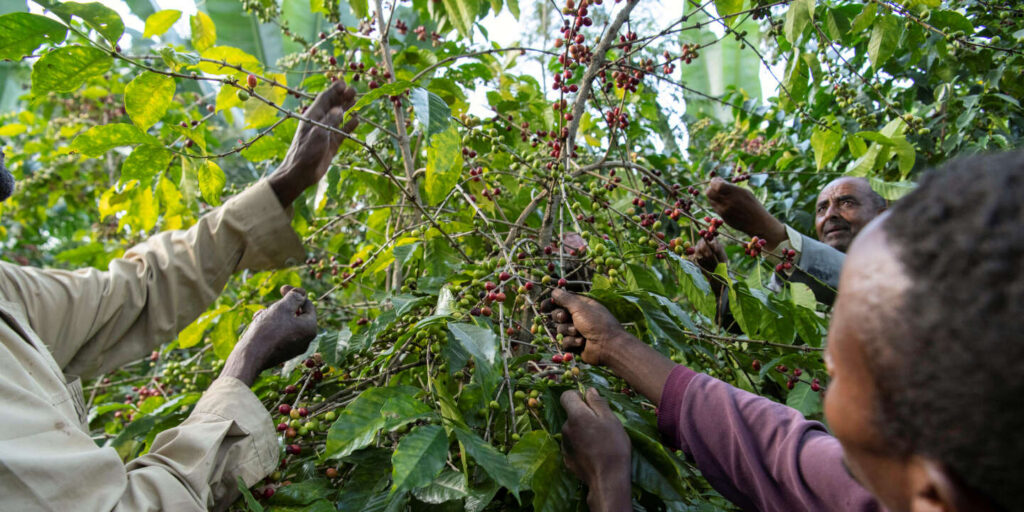
Ethiopian coffee is threatened by European deforestation regulations
Will Europeans have to do without Ethiopian coffee? The Horn of Africa country where, according to legend, coffee cherries were first discovered a thousand years ago and where their cultivation became widespread from the 16th century, could be severely harmed by the new European Union (EU) regulations aimed at combating deforestation worldwide that are due to come into force on January 1st, 2025.
The law, voted in Brussels in 2023, specifically targets soy and palm oil crops, identified as the two biggest threats to tropical forests. In a few months, however, it will also force coffee importers to prove that their supply chains do not contribute to deforestation using satellite data and geographical coordinates.
You can share an article by clicking on the share icons at the top right of it. The total or partial reproduction of an article, without the prior written authorization of Le Monde, is strictly forbidden. For more information, see our Terms and Conditions. For all authorization requests, contact [email protected]. https://www.lemonde.fr/en/environment/article/2024/05/25/ethiopian-coffee-is-threatened-by-european-deforestation-regulations_6672600_114.htmlThese regulations are of particular concern in Kaffa, the region of origin of the coffee that gives the drink its name, and throughout southern Ethiopia. Providing accurate geographical surveys is a challenge for these 5 million or so smallholders: Internet coverage is poor in the villages, land registries are non-existent, and land disputes are legion. According to several Ethiopian diplomats and exporters, complying with the new European standards could take up to five years.
Buyers already turning away
According to the United Nations Food and Agriculture Organization (FAO), around 10 million hectares of forest disappeared worldwide every year between 2015 and 2020. As for the European Parliament, it estimates that food consumption in Europe, particularly palm oil and soy, is responsible for 10% of global deforestation.
But coffee-growing's contribution to the destruction of Ethiopia's forests is actually very limited. "The vast majority of it grows in agroforestry systems. A few trees are felled, but it's marginal," assured a connoisseur based in Ethiopia for a decade who wished to remain anonymous. "And 90% of growers respect regulations," he estimated, stressing that few chemical inputs are used in the plantations. Nevertheless, if they can't provide this necessary information to importers, growers risk losing their main customers.
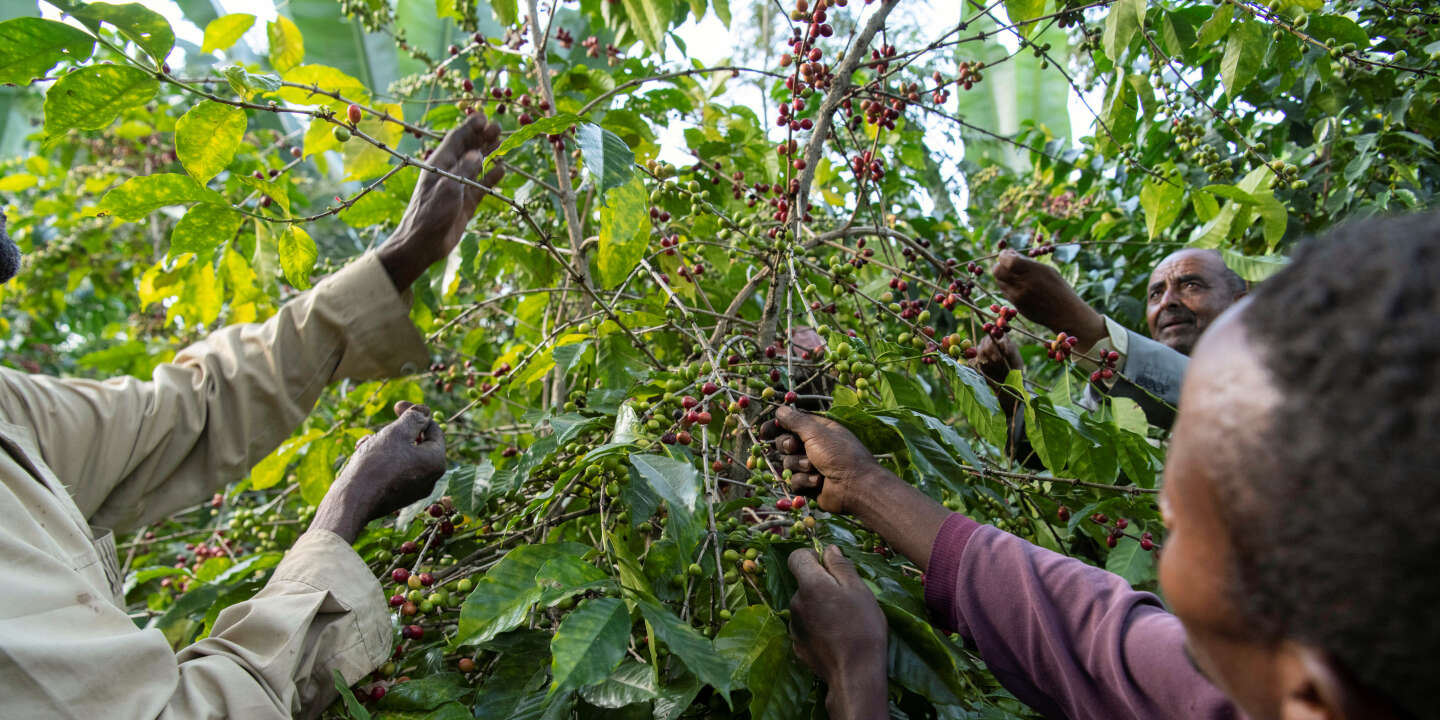

Agricultural Education Goes Digital
QesBeQes project, an initiative aimed at modernizing agricultural education, has graduated five startups dedicated to digitizing agricultural training modules. The five new platforms, Enkoy, I Learn Ethiopia, Ebrana, Be’and, and Senq, present existing training modules in engaging ways, utilizing gamified approaches, animated videos, and artistic explanations. Executed by xHub Addis, Qesbeqes is a joint initiative between the Ministry of Agriculture, the Agriculture Transformation Insitute, and GIZ. The project tackles the challenge of digitalizing agriculture by developing engaging learning modules for agricultural development agents. These agents play a crucial role in supporting farmers at the ground level. At a closing ceremony for QesBeQes held today, May 24, 2024, at the Best Western Hotel, Markus Koerner, Project Manager at GIZ, noted that 25 agricultural development agent training modules have been successfully digitized. Markus added that agriculture is still the heart of the Ethiopian economy, and it takes a lot of grit to be an entrepreneur in Ethiopia. He further explained the digitization of the modules has been done in collaboration with the Minister of Agriculture. Rebecca Mulugeta, Project Manager of QesBeQes, stated that the startups received tailored training and participated in field trips to enhance audience awareness and tailor their content accordingly.

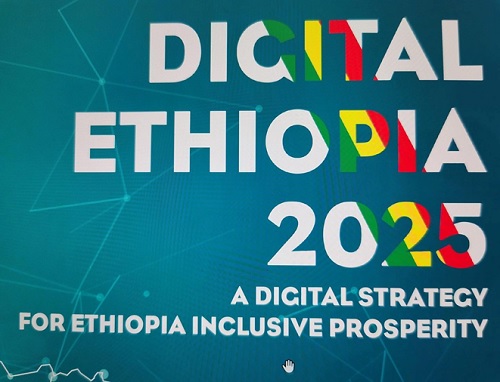
Ethiopian government encourages private sector participation in the implementation of digital Ethiopia
The Ethiopian Museum of Science hosted a panel discussion on the digital economy of Ethiopia. This is reported by ENA. According to Temesgen Tiruneh, Ethiopia has started significant projects that will open the door for equitable growth in the global digital economy since digital Ethiopia is unavoidable. According to the source, Ethiopia is currently putting its digital transformation strategy into practice in order to take advantage of technology-driven economic growth and move the East African nation closer to having a creative and sustainable economy. He mentioned that the nation is dedicated to guaranteeing inclusive growth in Digital Ethiopia 2025. The initiative hopes to spur Ethiopia's socioeconomic change and open the door for equitable and long-term expansion in the world's digital economy. Temesgen emphasised that one of his top goals is to improve the coordination process by getting more private sector involvement. He recalled that the government had formed the Digital Transformation Council to bring this vision to the industry.

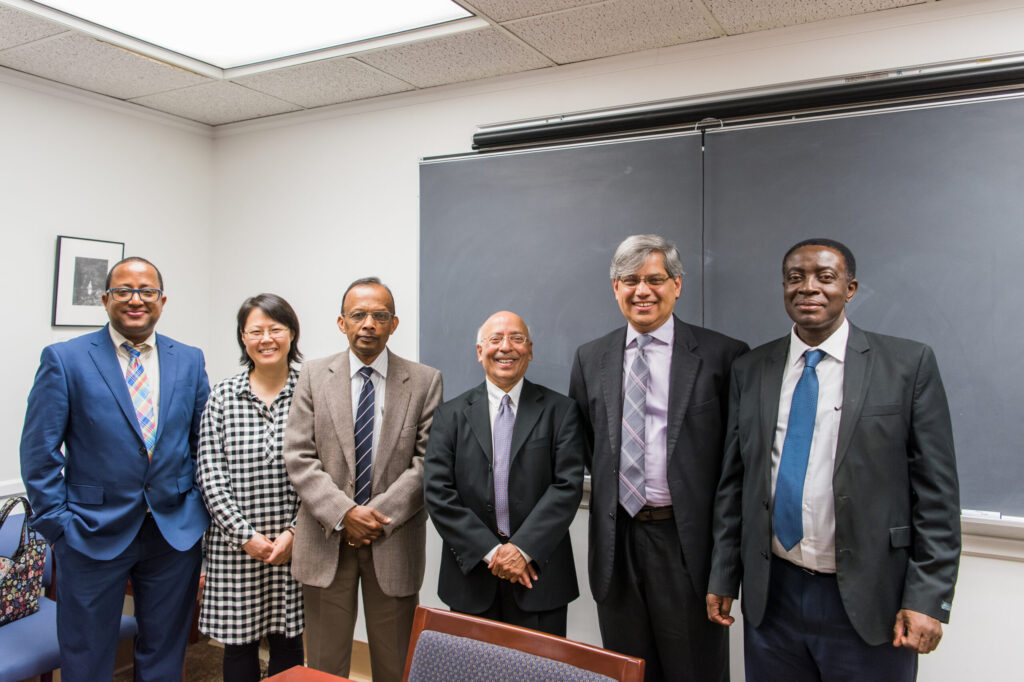
UMBC statistician selected to work with Addis Ababa University in Ethiopia
Yehenew Kifle, assistant professor of statistics at UMBC, has been awarded a fellowship by the Carnegie African Diaspora Fellowship Program (CADFP). Kifle will travel to Addis Ababa University (AAU) in Ethiopia to work with the Department of Epidemiology and Biostatistics. There, he will work with colleagues to enhance teaching and mentoring and grow research collaborations to support Ph.D. training in biostatistics. Kifle will spend three months in Ethiopia this summer, working with his African host, Zeytu Gashaw Asfaw, associate professor of biostatistics at AAU. In addition to producing collaborative research, during his stay Kifle plans to conduct short-term training sessions and workshops on advanced software-aided statistical techniques for junior statisticians, graduate students, and medical professionals within the school of public health at AAU. He will also assist in crafting grant proposals aimed at increasing research collaborations in biostatistics between UMBC and AAU. The Carnegie African Diaspora Fellowship Program, now in its 10th year, is designed to strengthen capacity for graduate education at host institutions and develop long-term, mutually beneficial collaborations between universities in Africa and the United States and Canada. It is funded by Carnegie Corporation of New York and managed by the Institute of International Education (IIE) in collaboration with the Association of African Universities. Nearly 650 fellowships have been awarded since the CADFP’s inception in 2013. “I’m grateful for the opportunity to represent the University of Maryland, Baltimore County in its international outreach endeavors, highlighting the importance of CADFP,” Kifle says, adding, “I’m looking forward to sharing my expertise in teaching biostatistics graduate courses, offering mentorship, and supervising doctoral dissertations.” Additionally, Kifle plans to conduct seminars on his recent research findings and offer insights into improving graduate programs in biostatistics.
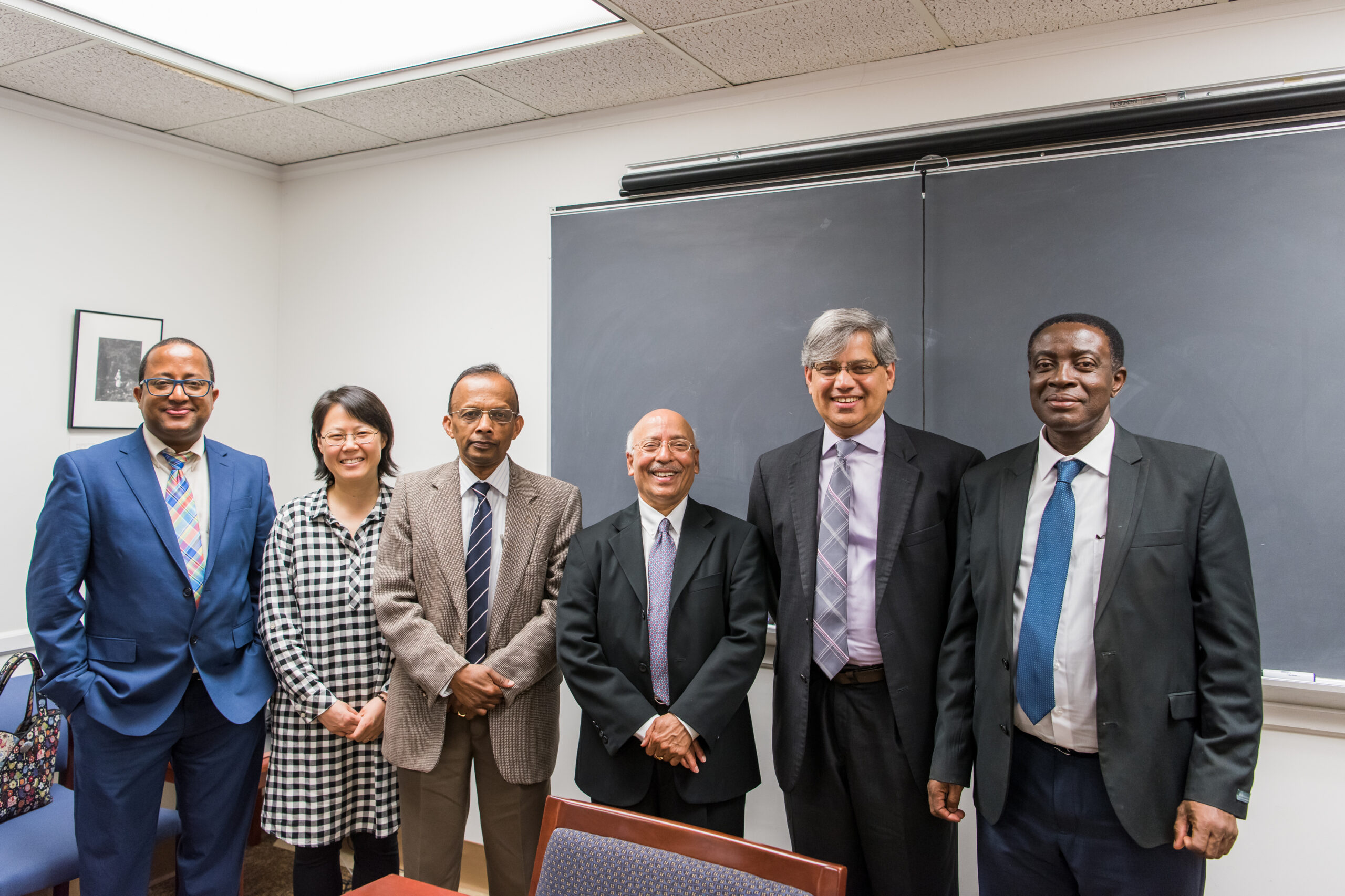
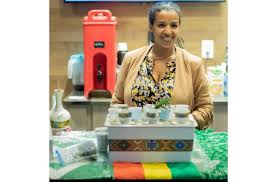
New coffee shop opens in Clarkston
Bethelhem Bidiglen wants to share two of her favorite things with the people in and around Clarkston – coffee and pastries. “This is me,” Bidiglen said, talking about her coffee shop. “This is what I like to eat because I grew up in France.” On May 9, Bidiglen opened her own business, Kuku Ethiopian Coffee, located at 980 Rowland Street in Clarkston. The coffee shop blends her unique history of two different cultures, starting with the great-tasting coffee beans of Ethiopia and her love of the sweet pastries of France. Bidiglen was born in Ethiopia, but she spent much of her childhood in France, where she discovered her love of great pastries. After some time in France, she moved back to Ethiopia, and about seven years ago, she and her family made their way to the U.S. and settled in Clarkston. Eventually, Bidiglen found a job as a recruiter at Amplio Recruiting, helping other refugees find jobs. While working as a recruiter, Bidiglen had other ideas. Chris Chancey, her boss at Amplio Recruiting, took notice. Bidiglen said Chancey asked her to write her ideas on note cards and put them in a box throughout the week. Then, every Friday, he would go through the cards and read them. “I always had this idea of having my own business one day,” Bidiglen said. “… Hopefully, one day, I’d like owning a restaurant or a coffee shop.” Bidiglen’s mission to help others and her love of community kept her moving toward her own goals and dreams. And some four to five years later, after putting the card with the idea of opening her own business in the box, her dream became reality. She said Chancey, her boss, and her family, have been a source of help and support every step of the way.


Ebne Hakim Mints Timeless Soul and Ethiopian Influences on the ‘Brana’ EP
Twenty seconds into “Brana (Intro),” the opening song in Ethiopian singer-songwriter Ebne Hakim’s new EP, natural bliss is the dominant mood. Birds chirp atop the melancholic notes, which move with cinematic slowness. What follows are words in Amharic, one of the oldest recorded languages in the world and a spiritual source for Hakim, whose music draws readily from the deep wells of his indigenous tradition. Released this past Friday, the Brana EP is an impressive achievement of sound. It shows clearly why Sony Music Entertainment would seek the musician on their roster, just a month after the release of “Gela,” his debut single, which came out in March. A musical talent was perceived, showing startling assurance of voice in tone and technique. Its glossy R&B sound was tinged with zesty electronic touches and seamlessly rode by Hakim, whose passionate delivery calls to mind the motions of a troubled relationship. Cohesion is the prime quality of Brana, its six songs packing enough individuality to excite in their own way, but together they’re a fine composition rewarding multiple listens. For the most part, Hakim croons, his svelte tone unpacking themes which center around self-discovery. Utilizing a prosaic style, which works with characterization and worldbuilding, Ethiopia moves into the world of the project. The country not only supplying narrative but also sound, as there are subtle touches of its distinct funk here.

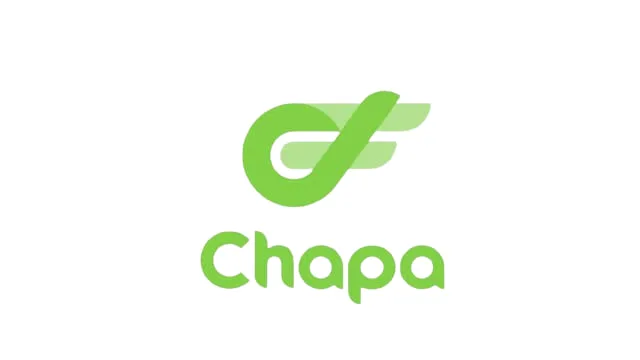
Chapa Secures Spot in Visa’s Africa Fintech Accelerator Program
Fintech startup Chapa has been selected for the second cohort of Visa’s Africa Fintech Accelerator program.
Chapa, which is among the top 2 percent chosen from 800 applicants, will receive 12 weeks of one-on-one mentorship and personalized training. The program also offers exclusive access to funding and other development resources.
Visa reports that Cohort 2 startups operate across 28 African countries. Nigeria leads the pack with six participants, while Kenya is represented by CheckUps Medical Hub, an embedded health startup.
The selected startups provide a diverse range of solutions, including neo-banking, merchant payments, credit scoring, risk and identity management, embedded finance, social commerce, escrow services, and more. These solutions aim to address key challenges and opportunities in the African fintech landscape, such as financial inclusion, access to credit, cross-border payments, and digital transformation.
Aida Diarra, Vice President, and Head of Sub-Saharan Africa at Visa said the Accelerator program, launched in June 2023, is reflective of Visa’s ongoing efforts to help uplift the digital economy in Africa, including a pledge to invest $1 billion in the continent by 2027 to help revolutionize the payments ecosystem.

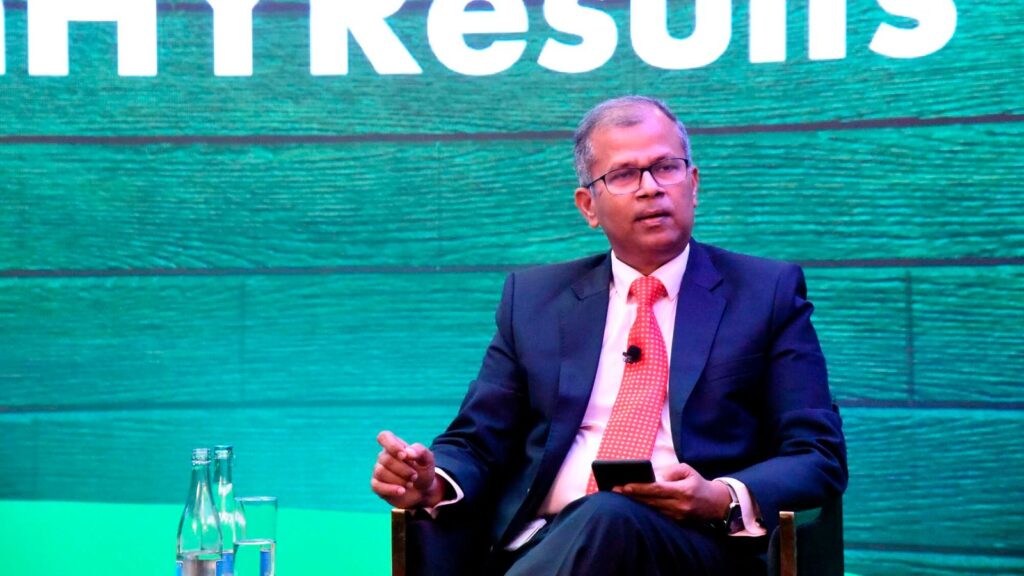
Safaricom eyes Sh19bn debt in Ethiopia money
Safaricom PLC is planning to raise up to $150 million (Sh19.6 billion) in local currency debt in Ethiopia once the country's securities exchange becomes operational in the third quarter of 2024. This amount translates to approximately 8.6 billion Ethiopian Birr at the current exchange rate, which the company intends to raise through the issuance of local currency-denominated bonds starting from September. Safaricom's CFO Dilip Pal stated that while going public via listing may not be feasible for Safaricom's Ethiopia subsidiary at present, the company is closely monitoring opportunities in the debt market for capital raising. Mr Pal expressed the company's interest in the emerging bond market, indicating that their financing needs could range from $100 to $150 million equivalent, which they may raise over time rather than in a single instance. Recently, Safaricom PLC has intensified efforts to reduce its exposure to foreign currency-denominated debt, due to the significant depreciation of frontier market currencies such as the #Kenyan shilling and the Ethiopian Birr. This depreciation negatively impacts companies' performance by increasing finance costs.
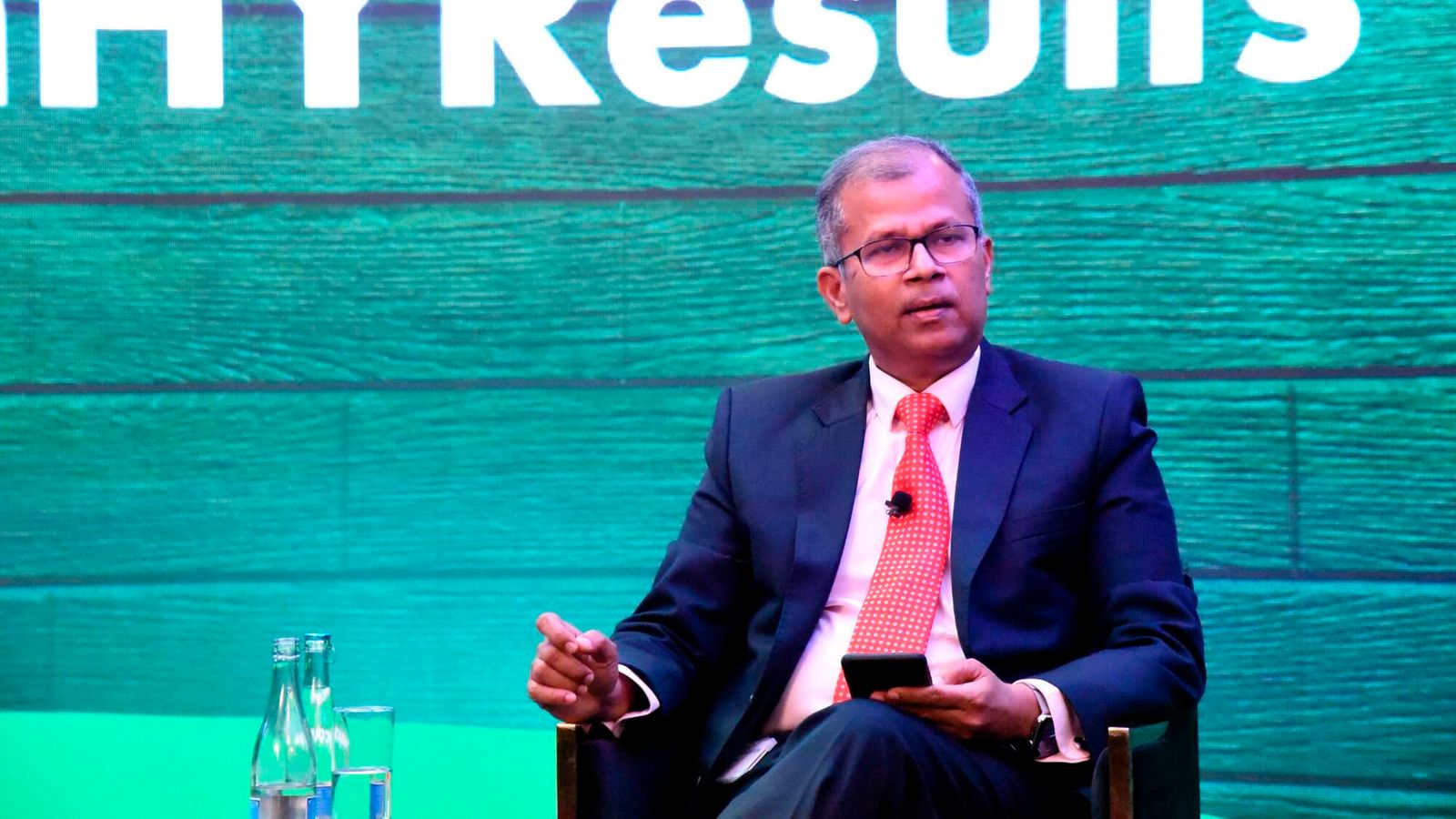

KEFI announces launch of Tulu Kapi Gold project in Ethiopia
Gold and copper exploration company KEFI has announced the launch of the Tulu Kapi Gold project in western Ethiopia.
The project was launched by the Tulu Kapi Gold Mines (TKGM) Board, which includes representatives from KEFI, the Ethiopian Federal and Oromia Regional Governments. This follows the establishment of dedicated site policing and the subsequent conditional confirmations from the project’s finance syndicate. The company has outlined various early works for the project, including community resettlement preparations, procurement engineering, social development consultations and recruitment, which are due to continue until September 2024. These activities will be independently monitored to ensure they progress on schedule, with the necessary safety protection systems in place. The project’s financing will require the execution of definitive detailed documentation and the drawdown of equity-risk capital from October to mid-2025, followed by debt capital. From October, the project will focus on procurement and fabrication of the plant internationally, community resettlement, site earthworks, grade-control drilling, and the transportation and assembly of the plant and associated infrastructure.

The SES Ethiosat delivers 95% of the TV content to homes in Ethiopia
The Ethiopian TV market has undergone a continuous rapid expansion as the number of TV households has increased by 400% since 2017 to 18.2 million homes now receiving TV content. The penetration of HD homes in the market has also increased from 48% to 62% since 2021, with Ethiosat’s number of HD TV channels growing from 15% to 62%. Direct-to-home satellite remains as the main mode of TV reception in Ethiopia. Ethiosat is Ethiopia’s first-ever dedicated Free-To-Air (FTA) TV platform, hosted on SES’s NSS-12 satellite. Launched in October of 2019, the platform is a result of an agreement between the Ethiopian Media Authority, Ethiopian Space Science, Ethiopian Broadcasting Corporation (EBC), Association of Ethiopian Broadcasters (AEB) and SES to consolidate all Ethiopian TV channels and broadcast them from a single, orbital position. SES as a global operator of more than 70 satellites, and with additional satellites under construction, has excellent flexibility to ensure the long-term service continuity of the Ethiosat platform from its prime orbital position at 57 degrees East.


Ethiopian Airlines inaugurates transformed Addis Ababa Bole International Airport domestic terminal
Ethiopian Airlines have announced the inauguration of the transformed Addis Ababa Bole International Airport domestic terminal. The renovation amounted to 50 million USD, and has upgraded the terminal by expanding its area twofold to 25,750 m2 and doubling capacity.
New upgrades at Addis Ababa Bole International Airport
The newly inaugurated domestic terminal is the main connecting hub for Ethiopian Airlines’ domestic operations serving over 200 flights to and from the 22 domestic destinations on daily basis. The expanded terminal features modern airport systems and facilities including four contact gates, 10 remote departure gates, 22 check in counters with automated hold baggage screening system, self-check in kiosks, modern security screening system, Premier passengers’ lounge and a multitude of various airport facilities and amenities. These enhancements will streamline passenger flow, improve comfort levels, and enhance the overall travel experience. Ethiopian Airlines Group CEO Mr. Mesfin Tasew has expressed his delight, emphasising the commitment of Ethiopian Airlines Group in elevating the standard of airport services and experience. Mr. Mesfin said, “the domestic terminal expansion and renovation at Addis Ababa Bole International Airport is a significant addition to our initiative of modernising and renovating airports and aviation facilities in the country. As the demand in domestic travel is growing, the completion of this project would allow us to offer a smooth travel experience to our esteemed passengers.”

Cycling community unites to support Ethiopian champion turned asylum seeker
Trhas Teklehaimanot Tesfay is no ordinary elite cyclist. The reigning Ethiopian national champion does not live an austere life because she wants to, but because she has to. The 22-year-old currently lives in the UK having claimed asylum last year, and is being supported by charity West London Welcome. Her home country, Ethiopia, has recently endured a brutal conflict in the Tigray region.
Tesfay lives in a hotel in west London, sharing a room with two others, and is given less than £10 a week to live off. She still hopes to be able to ride at the highest level, and could potentially take part in future World Championships as part of the refugee team if her asylum claim is accepted. Her story has been picked up by both the BBC and The Guardian.
This is all happening at the same time as the Government ramping up its anti-refugee rhetoric, which is seen in its plan to send asylum seekers to Rwanda. Tesfay has made her way from Ethiopia to seek safety, yet could find herself returned to east Africa.

Image Credit: PelotonPix / Dave Dodge Photography

Mastercard & Cooperative Bank of Oromia Innovative Solutions
The Cooperative Bank of Oromia and Mastercard have announced an innovative collaboration with the introduction of the Coopbank Prepaid Mastercard and the debut of Community Pass technology in Ethiopia. These endeavors are poised to significantly bolster digital and financial inclusion throughout the nation, particularly among Ethiopia’s smallholder farmers. The unveiling of the Coopbank Mastercard and the introduction of Community Pass represent a pivotal advancement in Ethiopia’s financial landscape, underpinned by a mutual dedication to innovation and accessibility. The Coopbank Mastercard presents a sophisticated and secure solution for card management, tailored for international travelers, thereby facilitating ease and security in global financial transactions. This prepaid card empowers users to conduct international online purchases, ensuring accessibility and convenience wherever Mastercard is accepted, including various digital platforms and e-commerce sites. Transactions will be seamlessly managed through a dedicated mobile application, offering efficient card management capabilities. This initiative is part of a broader five-year strategic agreement between Mastercard and the Cooperative Bank of Oromia, aimed at expanding financial services and stimulating economic growth within the region. The implementation of Mastercard’s Community Pass technology signifies a groundbreaking advancement for digital inclusion in rural and underserved areas. Currently operational in five markets globally, Community Pass boasts a user base exceeding five million individuals. One of its digital services, Farm Pass, facilitates the connection of farmers and agricultural cooperatives to the agricultural marketplace and financial services, even in offline settings.


Ethiopia-Djibouti railway injects strong impetus into local development
The Ethiopia-Djibouti railway is the first standard-gauge railway in East Africa and a flagship project between China and the two countries under the Belt and Road Initiative (BRI). Having created more than 55,000 jobs for locals, the railway has greatly strengthened connectivity between Ethiopia and Djibouti and injected strong impetus into their economic and social development, Chinese Foreign Ministry spokesperson Wang Wenbin said on Tuesday. A Chinese saying goes, "It is more important to teach people how to fish than just giving them fish." The Ethiopia-Djibouti railway is a good example, Wang said at a regular press conference. China has not only constructed a modern railway in cooperation with Ethiopia and Djibouti, but also trained more than 2,800 local professionals, helping build an excellent local team, Wang said. The Chinese management consortium of the Ethiopia-Djibouti railway recently transferred management responsibility to Ethiopia and Djibouti after six years of successful operation. Since entering commercial operation on January 1, 2018, the 752-kilometer-long Ethiopia-Djibouti railway has operated over 2,500 passenger trains with a passenger volume of 680,000. It has also operated more than 7,700 freight trains, with a cargo volume of 9.5 million tons in the same period, according to data the Chinese management contractor sent to the Global Times. China will continue to cooperate with Ethiopia and Djibouti to build the railway toward win-win cooperation and prosperity, and will jointly promote the high-quality development of the BRI and contribute to the mutual development of China and Africa, Wang said. After handing over management responsibility, the Chinese side will continue to provide technical support. The two sides also plan to continue cooperation in expanding supporting facilities so as to better unleash the potential of the railway to bring benefits to local people, Dai Hegen, chairman of China Railway Construction Corp, which is a contractor of the railway, was quoted as saying in a press release.


Ethiopian brews, family & community at Tucson’s Z-Street
On the corner of Broadway and North Treat Avenue, Zemam's Ethiopian Cuisine and Zerai's International Bar make up Tucson's growing Z-Street International Marketplace. "If you crave Ethiopian food, there aren't very many substitutes. And so if you crave it, you got to eat it, which has kind of been good fortune for us," said manager Lucas Gebremariam, son of the owner who started Zemam's more than 30 years ago. Gebremariam's father, Amanuel Gebremariam, opened the original Zemam's in a house in 1993 on 2731 E. Broadway. Gebremariam has memories of growing up in the restaurant with his family, recalling pitching in to help out. "Every time if I had somebody spend the night at my house, that Saturday morning, they would have to come to the restaurant and chop onions or peel potatoes," Gebremariam said. "You know, when family needs you, you got to be there. A lot of times, I don't think my dad even needed out help. He was just so busy that he just wanted to spend time with us." "I was in third grade and, you know, seeing it go from a five table restaurant to being able to accommodate almost 150 to 200 people is a crazy thing," Gebremariam said. "It's cool how Tucson has embraced us as a family and as a restaurant. When we opened in '93, there was nothing close to any kind of African food. It was always Chinese food, Mexican food, Thai food. But Tucson really embraced us and was very excited and curious about trying this food, which I think, in a lot of other cities, we would have probably been closed in a year." Zerai's opened last month, and Gebremarian said the bar is his passion project. Zerai's serves beverages such as cocktails with a locally made Ethiopian honey wine and Ethiopian beers as well as handheld bites such as hand pies and Ethiopian tacos, which Gebremariam described as a handmade taco tortilla with injera bread inside and the filling of the person's choice combined to create a textural and flavorful experience.


The Story of Ethiopian Music Continues in California
This Sept. 12 marks half a century since Emperor Haile Selassie was deposed by the Derg, a brutal Marxist-Leninist junta that killed more than a million Ethiopians during the mid-1970s Red Terror campaign and subsequent famines. While Oromo musicians had been persecuted under Selassie in his attempt to tamp down a rising separatist movement among Ethiopia’s largest ethnic group, the advent of the Derg brought down the curtain on what’s now seen as Ethiopian music’s golden age. Many of these artists fled the regime, a diaspora that continues to shape Ethiopian music.
Mulatu Astatke, the composer, vibraphonist, and percussionist who fathered the sleek, incantatory style known as Ethio-jazz in the early 1970s, managed to stay active in Addis Ababa even as many of his confederates went into exile. Over the past two decades, he’s become Ethiopia’s best-known musical ambassador, but when he returns to Berkeley for two shows at The UC Theatre June 12–13, presented by Jazz Is Dead, he’ll be accompanied mostly by non-Ethiopian Western musicians.
Poster for Qwanqwa’s May 15 performance in OaklandFor a glimpse at the creative ferment taking place in Addis Ababa today, the act to catch is Qwanqwa, a quintet featuring leading Ethiopian musicians organized by Santa Cruz violinist Kaethe Hostetter. In the midst of an extensive North American tour, the group plays a series of gigs across California, including on May 15 at Zanzi in Oakland, on May 16 at the Yerba Buena Gardens Festival, and later that same evening at Santa Cruz’s Kuumbwa Jazz Center. The group’s Southern California dates include May 17 at Corazón Performing Arts in Topanga, May 18 at the Joshua Tree Music Festival, and May 19 at Zebulon in Los Angeles’ Frogtown neighborhood.

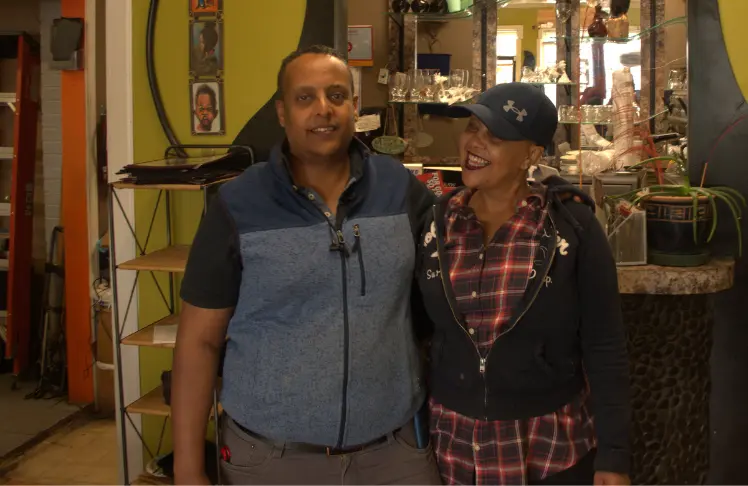
Ethiopian Community Of Seattle Center Extends Its Services To Outer Reaches Of The City, And Beyond
As gentrification intensified throughout the past decade in the Rainier Beach neighborhood in Seattle, the large Ethiopian community began to find new areas for adequate housing, but the established cultural community center could not move. The organization, Ethiopian Community in Seattle built an affordable housing unit just above their headquarters at 8323 Rainier Ave. South, with 89 units in 2023 for low income seniors, but maintaining the entire community presence that makes the area culturally unique was unrealistic. Instead, as Ethiopian people spread out to the outskirts of the SeaTac and Snohomish county areas, ECS has started a consistent communication network with members of their community who live farther away. While the community center’s website had information and resources to help small businesses and other community members, outreach beyond the physical space of their building has become increasingly important for ECS in the past five years. “We serve people where they are,” said Executive Director Sophia Benalfew. “It started when COVID struck and we could no longer host community meetings here in the center.” Instead, the leadership team began emailing health tips and hosting virtual English lessons for Ethiopians in Seattle. Now, the email list and virtual services allow Benalfew and other community leaders to cast a wide net of support across the entire metropolitan area. Abraham Asfaw was appointed April 8, 2024 as the small business capital readiness project coordinator, but in the few weeks he’s been involved with the nonprofit his focus has been on offering services to small businesses. He has over 300 businesses in his database of contacts, and the center is extending that outreach.

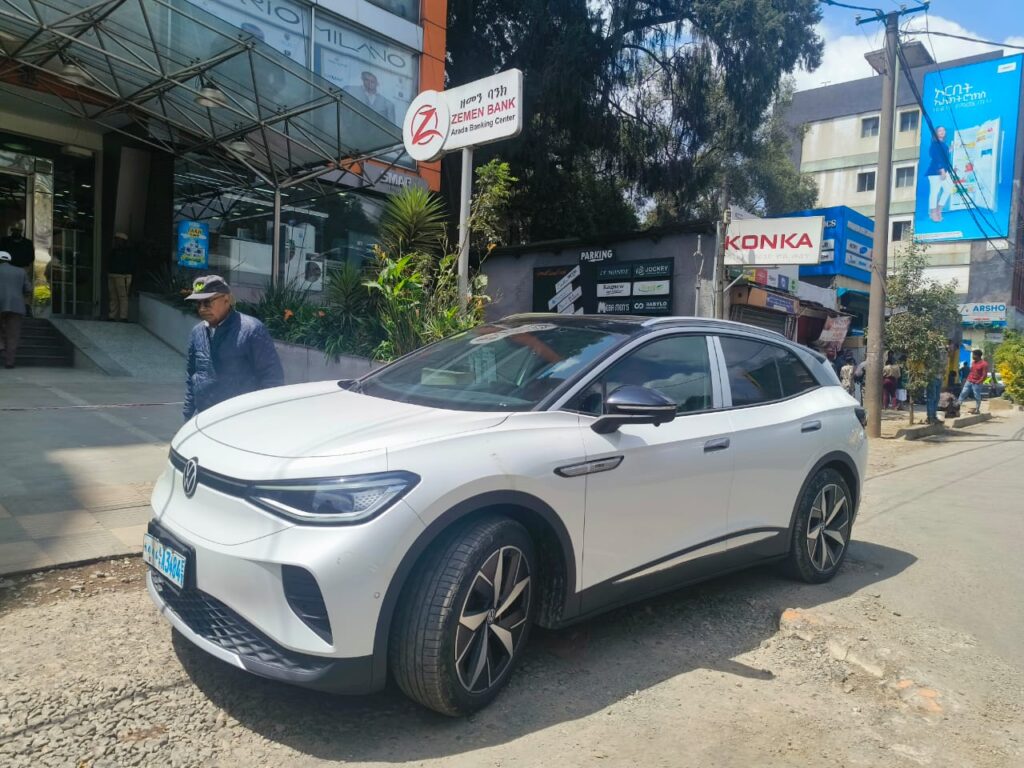
Ethiopia Shows Us Just How Fast The Transition To Electric Mobility Can Happen In Africa
Like a lot of countries on the African continent, Ethiopia has an exceptionally low motorisation rate. Ethiopia has a population of 126 million people, but the total number of vehicles registered in Ethiopia is around 1.2 million. Most of these vehicles are over 20 years old. According to reports and announcements from the Ethiopian government, Ethiopia had a plan to catalyse adoption of electric vehicles in Ethiopia with a 10 year target to see 148,000 electric cars and close to 50,000 electric buses on Ethiopia’s roads by 2030. However, Ethiopia has made incredible progress on this path to the extent that the Ministry of Transport and Logistics recently said that this target of over 100,000 electric vehicle has already been met in just the first 2 years of this plan! How cool is that? Due to this incredible progress, the target has since been bumped up to close to 500,000 in the 10-year period. Let’s take a moment to take this all in. So, in just 2 years, locally assembled EVs and imported EVs have added almost 10% of Ethiopia’s current total ICE vehicle registrations! Let us say that all the vehicles in the current fleet stay on the road for the next 8 years (highly unlikely) and the total fleet will then be 1.7 million. If the target is met, it would mean the penetration of electric vehicles in Ethiopia’s total fleet will be close to 30% at that time. This will be quite a remarkable feat. Of course, the actual number will be more than 30%, as a lot of the vehicles in the current ICE fleet will be retired by then. Also, given the extremely low motorisation in Ethiopia, vehicle sales should grow at a much faster rate going forward, and probably the penetration of EVs in the country’s total fleet will hit close to 50% by then.

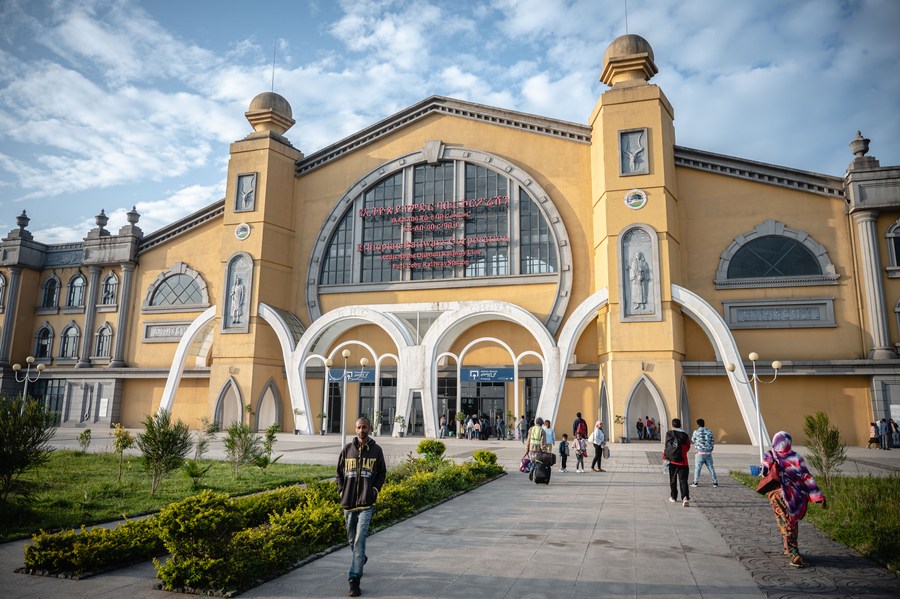
Chinese-built Ethiopia-Djibouti Railway marks six years of operation
The Chinese-built Ethiopia-Djibouti Railway on Friday celebrated its achievements in six years of commercial operation, with China officially ending its operational and maintenance services for the line.
At a ceremony in Addis Ababa, the Chinese team announced the conclusion of its participation in the railway's operation and maintenance. The 752.7 kilometre standard gauge railway line connects landlocked Ethiopia with Red Sea ports in neighbouring Djibouti. "In the past ten years, the Belt and Road Initiative has been one of the main forces promoting the vigorous development of Ethiopia's infrastructure construction and manufacturing industry,” said Ethiopia’s Speaker of Parliament, Tagesse Chafo. “It has also created a large number of job opportunities for Ethiopian youth. In this regard, the Addis Ababa-Djibouti Railway, built by China, has become a landmark large-scale project of the Belt and Road Initiative,” he said. The Ethio-Djibouti Standard Gauge Railway Share Company will now take over the full operation of the line. The line cuts transportation time for freight goods from more than three days to less than 20 hours, reduces costs by at least one-third, and helps Ethiopia access maritime trade ports. Since it commenced commercial operation for both passenger and freight services in January 2018, it has seen the passing of some 2,500 passenger trains and 7,700 freight trains, transporting 9.5 million tonnes of goods. "Since the Addis Ababa-Djibouti Railway commenced operation, transportation volume at Djibouti's ports have increased about 20 per cent," said Hassan Houmed, the Djiboutian Minister of Infrastructure and Transport in an interview with the China Central Television.

From Ethiopia with love and joy: A recent arrival to the shores unfurls his vocal talents
Abate Berihun blazed a trail for many Israelis with Ethiopian roots, being one of Ethiopia’s leading jazz artists before making aliyah 25 years ago.
Ethiopian music, and culture in general, have been gaining traction here over the years. Which is the way it should be, considering the incredibly diverse cultural melting pot this country has become as it has evolved and taken in olim from all parts of the world. Part of that is down to the Confederation House arts venue in general, under the stewardship of its longstanding CEPO and artistic director Effie Benaya. He has championed Ethiopian artistic endeavors, through the annual Hullegeb Israel-Ethiopian Arts Festival and by hosting Ethiopian-Israeli bands and musicians at Confederation House. The festival has provided a stage for a wide range of dancers, theater productions, and musicians. It has also brought in established titans of the Israeli entertainment scene, including the likes of internationally renowned Iraqi-rooted violinist-oud player and singer Yair Dallal, and famed bass guitarist and producer Yossi Fine.Passion for music from a young age
He got the earliest of starters to his pathway through life when he parents decided to call him Tombola, which means “luck” in Amharic. He clearly has some natural talent and has put in an extra yard or two in developing his career, but a bit of fortune here and there does not go amiss. Lady Luck may have had a hand in the fact that Tombola’s first instructive port of call was practically in his backyard. He could hardly have avoided it. “I started music school at the age of 11,” he recalls. “It was very near my home. I could hear them singing from my house.”

CEO Mesfin Says Ethiopian’s Management in ‘Dine for Ethiopia’ Lodges Significant Milestone for Tourism Industry
Addis Ababa, May 11/2024(ENA) The MoU Ethiopian Airlines signed with the Prime Minister's Office for the management of the 'Dine for Ethiopia' lodges marks a significant milestone in tourism industry, reinforcing destination for global travelers, according to Ethiopian Airlines Group.
Recall that Ethiopian Airlines had signed a memorandum of understanding (MoU) with the Prime Minister's Office for the management and operation of the 'Dine for Ethiopia' lodges under Ethiopian Skylight Hotel in a warm ceremony held in Addis Ababa.
Under the terms of this strategic partnership, Ethiopian Skylight Hotel will assume responsibility for operating and managing the astonishing Chebera Churchura Elephant Paw Lodge, Halala Kella Lodge, Gorgora Ecolodge and Wonchi EcoLodge.
The partnership aims to elevate the tourism experience in Ethiopia through utilizing Ethiopian Airlines Group’s extensive expertise in the hospitality industry, ensuring the provision of unparalleled services to visitors.


Ethiopian Airlines and Prime Minister’s Office Collaborate for Unique Lodging Experience at Ethiopian Skylight Hotel
Ethiopian Airlines Group, a leading airline in Africa, is excited to announce the signing of a memorandum of understanding with the Prime Minister’s Office. This agreement pertains to the management and operation of the ‘Dine for Ethiopia’ lodges located within the Ethiopian Skylight Hotel. The signing ceremony took place in a warm atmosphere in Addis Ababa. In this strategic partnership, Ethiopian Skylight Hotel will take on the responsibility of managing and operating several remarkable lodges, including the Chebera Churchura Elephant Paw Lodge, Halala Kella Lodge, Gorgora Ecolodge, and Wonchi EcoLodge. The primary goal of this collaboration is to enhance the tourism experience in Ethiopia by leveraging Ethiopian Airlines Group’s extensive expertise in the hospitality industry. This partnership is aimed at ensuring that visitors receive unparalleled services during their stay. Commenting on the signing ceremony, Ethiopian Airlines Group CEO Mesfin Tasew said, “Tourism and air transport services are closely related industries. In addition to transporting passengers and cargo, Ethiopian Airlines has been working at a high level to promote tourism in our country. We are delighted to join hands with the Prime Minister’s Office to elevate the hospitality experience in Ethiopia. Ethiopian Airlines Skylight hotel is renowned for its commitment to excellence, and we are excited to extend our expertise to these remarkable lodges.”

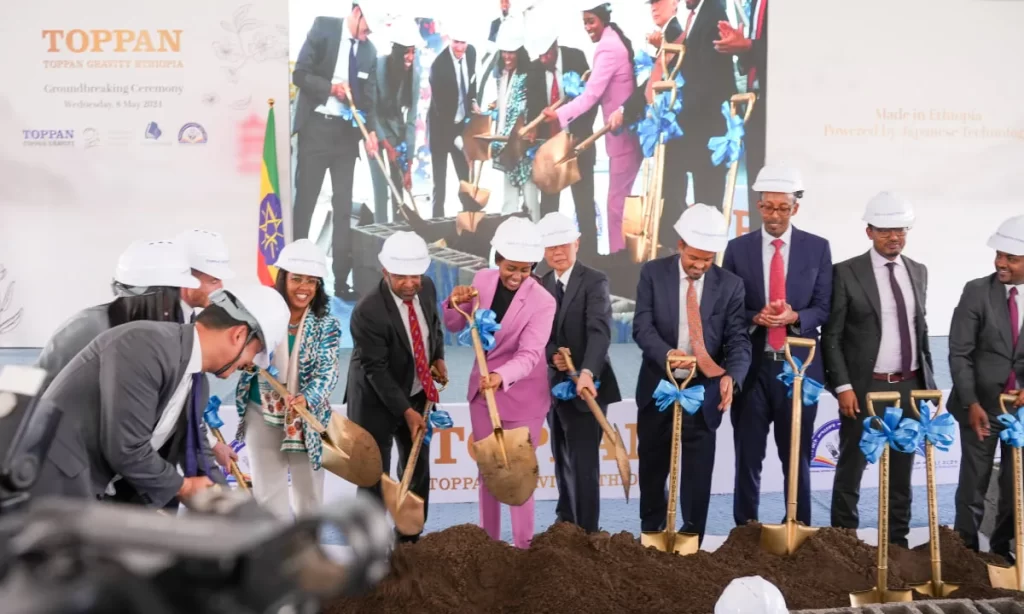
$55 Million Investment to Empower Ethiopia with Security Printing
Toppan Gravity Ethiopia (TG), a joint venture formed between the Ethiopian government and Japanese conglomerate Toppan Gravity, has kicked off the construction of a security printing facility in Bole Lemi Industrial Park. The $55 million project, expected to conclude in one year, will create a plant capable of producing 5.6 million biometric passports, 28 million banking cards, and physical prints of digital ID cards annually. According to Kalkidan Arega, CEO of Toppan Gravity Ethiopia, the investment was born as a result of Ethiopian Investment Holdings identifying a gap and an opportunity that existed within the security printing sector. Discussions with Toppan Gravity, a subsidiary of Toppan Holdings, a Japanese multi-billion-dollar global printing conglomerate, began last year. Now establishing their first footprint in Africa, their project with the Ethiopian government also looks at the continental market. Toppan holds a majority stake (51%) in the joint venture, while the remaining shares are owned by Ethiopian partners (Ethiopian Investment Holding, Berhanena Selam Printing Enterprise, and Educational Materials Production and Distribution Enterprise).
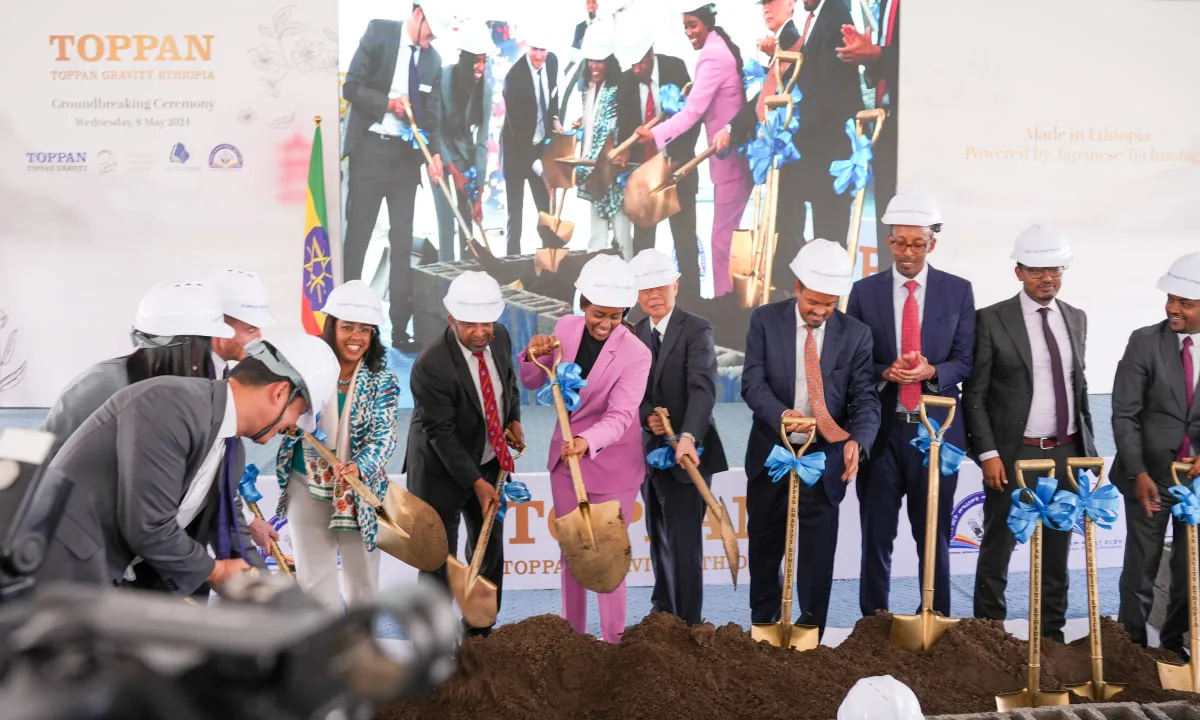
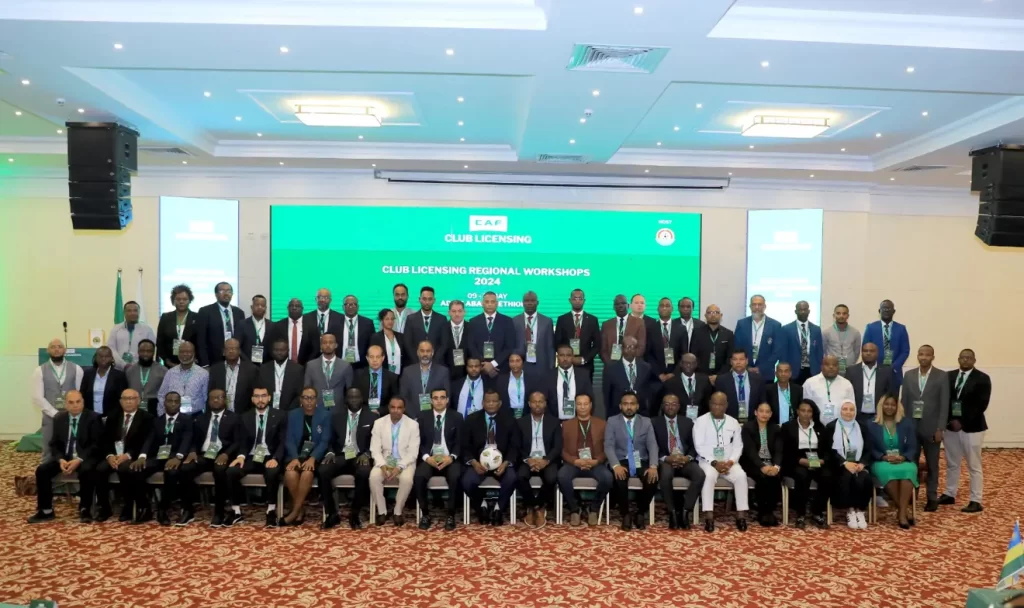
Regional CAF Club Licensing discussions in full swing in Addis Ababa, Ethiopia
Ethiopia's capital, Addis Ababa, has become the next stop for the ongoing Regional CAF Club Licencing Workshops, which are geared at equipping all of CAF’s 54 Member Associations with the essential tools and knowledge to best implement CAF Club Licencing regulations.
Following a successful kick-off last month in Mauritania followed by Algeria, the East African nation of Ethiopia has become the third stop for the four-nation series of workshops spearheaded by CAF Professional Football Department.
For this edition, a total of 16 African nations have gathered at the nation’s capital for the four-day workshop currently taking place between 09 – 12 May and will see all participating Member Associations delving deep into CAF Club Licensing matters as follows:
- Updates on the usage of the CAF Club Licensing Online Platform (CLOP) for the club licensing procedure.
- Review of the status of the implementation of CAF Club Licensing System in the Member Associations' national competitions.
- Ensuring that the Member Associations are ready to communicate the licensing decisions before the set deadline for clubs' engagement in CAF Inter-club competitions 2024-25 (men's and women's).
- Conducting a refresher session on stadium pre-inspection procedures.
- Train Club Licensing Managers (CLM) in using the CLOP, specifically the stadium module.
- Conduct practical on-site stadium inspection training.
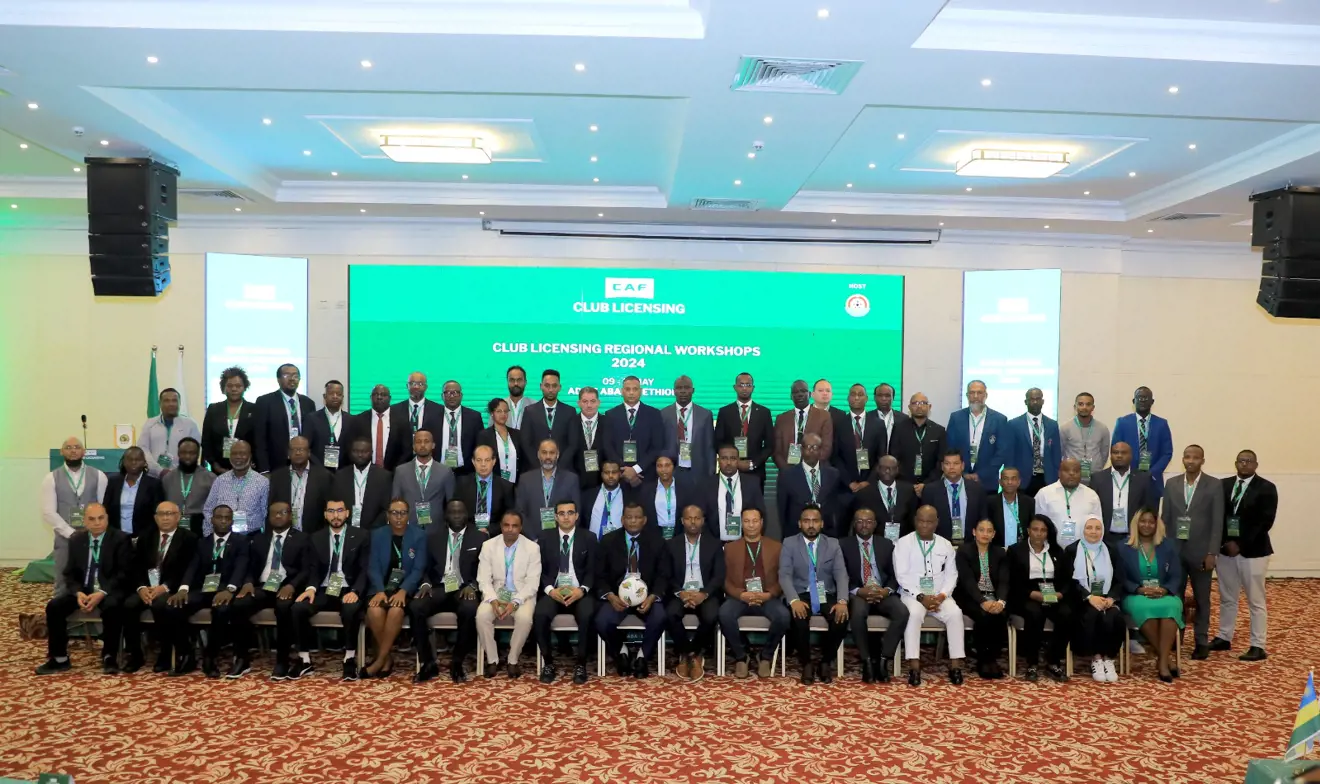
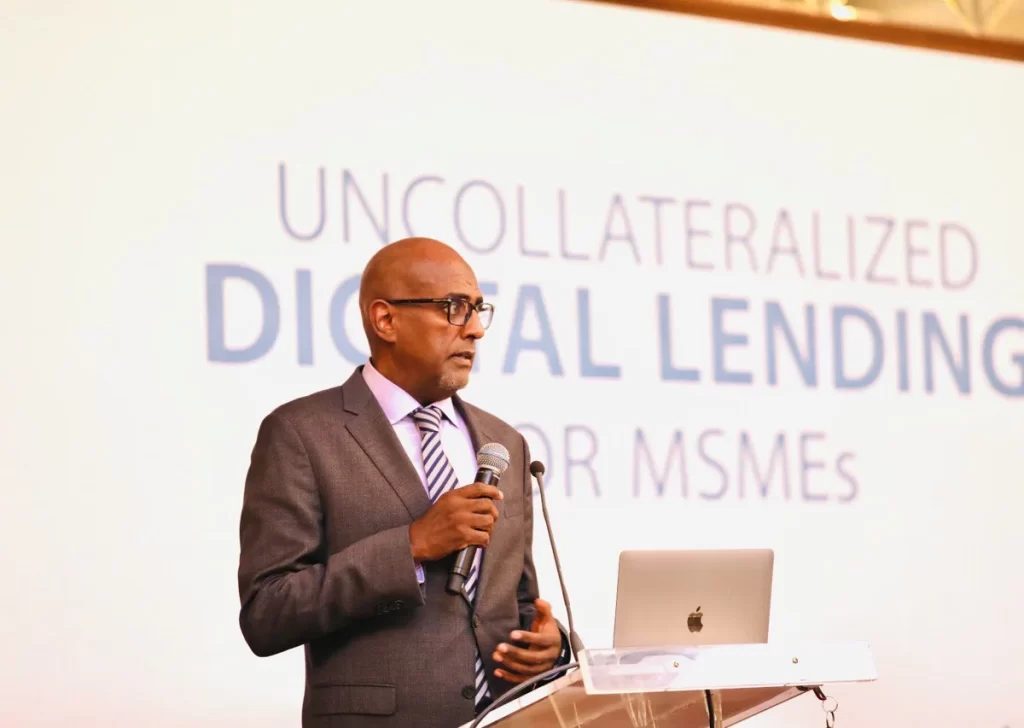
Mastercard Foundation, Kifiya Partner on $100 Million Initiative to Unlock Finance for MSMEs in Ethiopia
The Mastercard Foundation, in partnership with Kifiya Financial Technology, launches a $100 million program that aims to make uncollateralized digital lending the new normal for micro, small, and medium enterprises (MSMEs). Dubbed the Sustainable Access to Finance to Enable Entrepreneurship (SAFEE) Program, the initiative is designed to unlock resources from banks, innovate new models/products, and solve challenges that have traditionally constrained MSMEs’ access to financial services. SAFEE, which will run for five years, will see the development and launch of several digital financial products targeting MSMEs. The program also provides technical assistance for financial institutions to transition from conventional collateral-based lending to uncollateralized, digitally enabled, credit-score-based lending and embrace new modes of financial service delivery. “Our partnership with the Mastercard Foundation will enable the unlocking of uncollateralized credit products ranging from digital working capital, invoice financing, inventory credit, buy-now-pay-later, and interest-free banking that address the needs and demands of MSMEs,’ said Munir Duri, founder and CEO of Kifiya Financial Technology “The program is catalytic by design to enable the financial sector transition through system-level change support where uncollateralized digital credit for MSMEs becomes the new normal,” he added.
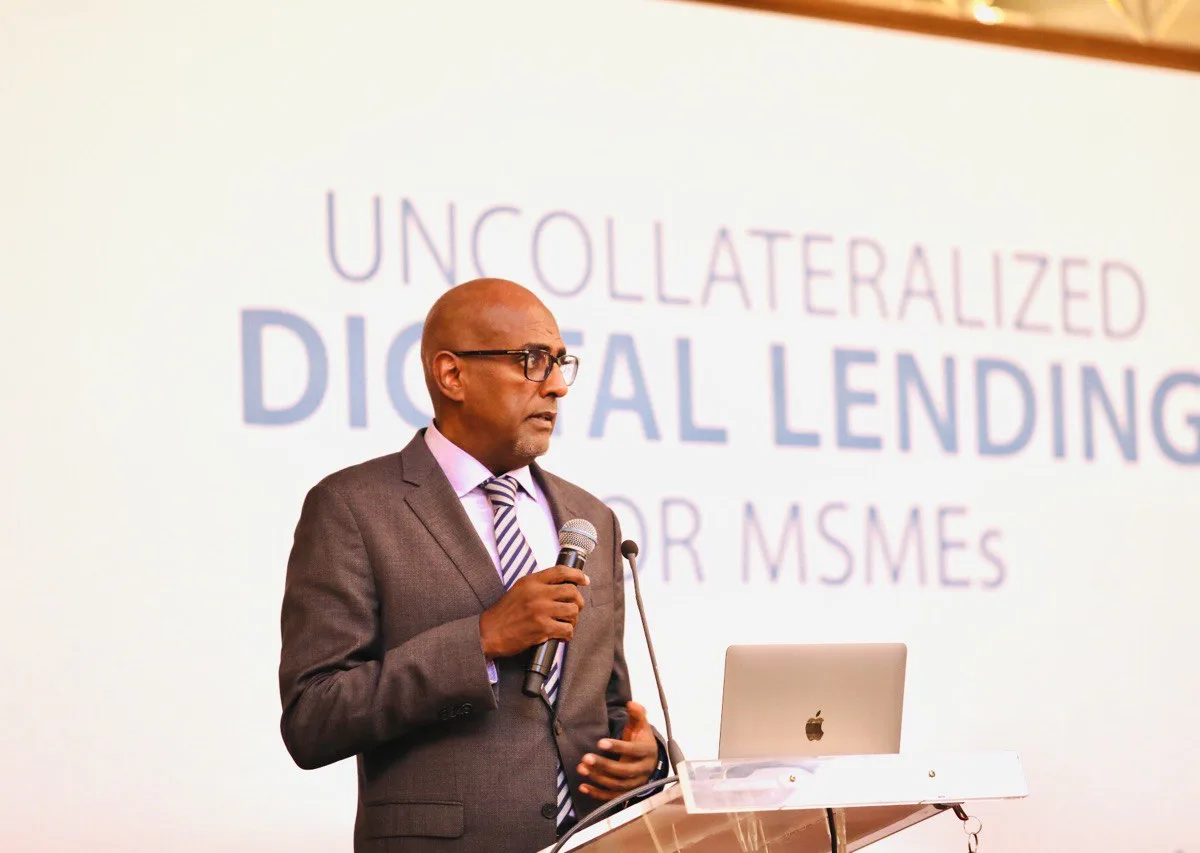
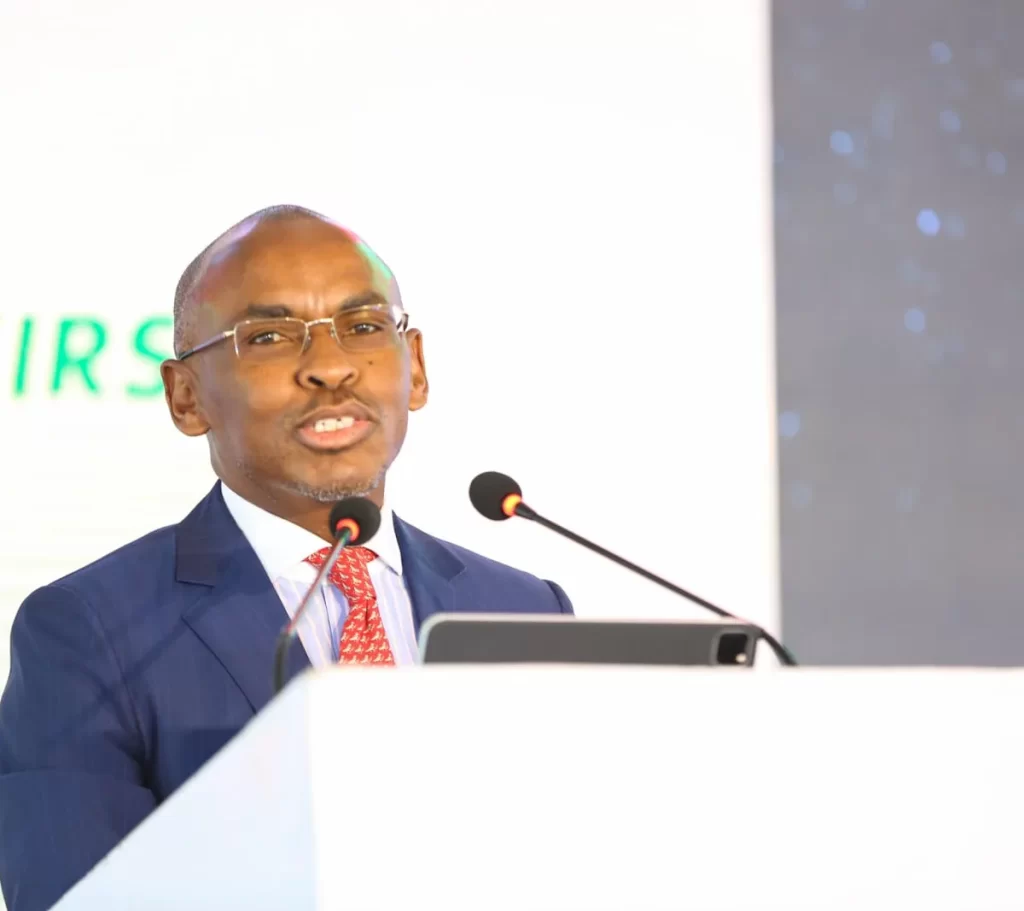
Safaricom Ethiopia Open to Listing on Ethiopian Securities Exchange
Safaricom has expressed openness to listing Safaricom Ethiopia on the Ethiopian Securities Exchange in the future. Peter Ndegwa, CEO of Safaricom, who made the remark today, May 9, 2024, at a media briefing, stated Safaricom Ethiopia’s intention is to set up a business that is Ethiopian. And part of that in the future is to consider further integrating Ethiopian participation into their business model. “We are aware of the Ethiopian government’s efforts to establish frameworks for companies to issue equity and bonds. As these frameworks mature, we will assess when to take advantage of them,” said Peter. Safaricom is the majority shareholder in Safaricom Ethiopia, with 25% of the company listed on the Kenyan Exchange. “All our other partners [in Safaricom Ethiopia] have a lot of experience with listings,” stated Peter. “Currently, we rely primarily on capital from our key shareholder to operate our Ethiopian business. However, as the markets and frameworks mature, we will explore options for local investor participation through corporate bonds or equity offerings,” the CEO added. The state-owned telecom operator, Ethio Telecom, is slated for a 10% listing on the upcoming Ethiopian Securities Exchange (ESX) this year. This initial public offering (IPO) is expected to be a key launchpad for the exchange.
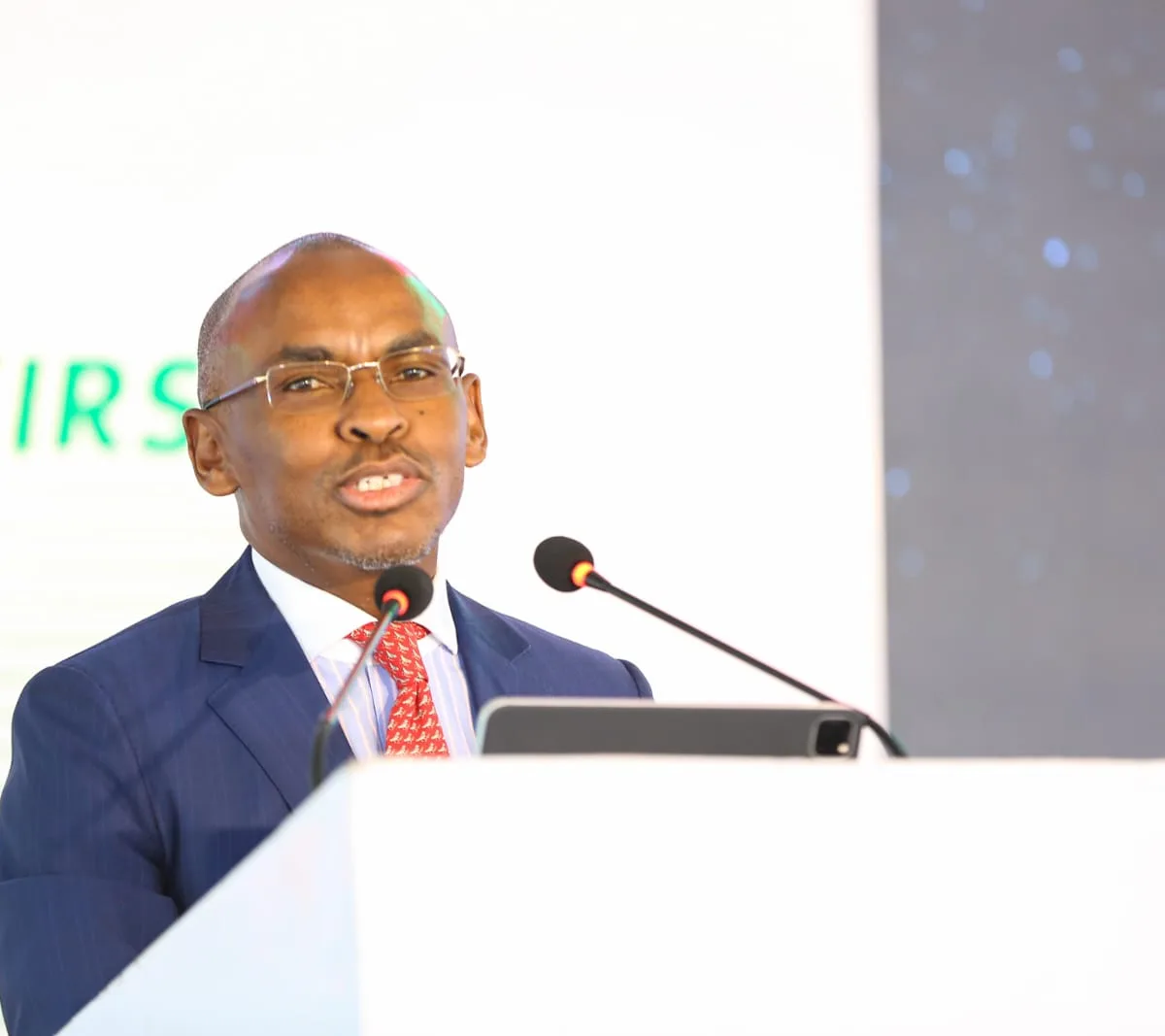

Ethiopia Minister of Water and Energy to Attend South Sudan Energy Summit
Ethiopia’s Minister of Water and Energy Habtamu Itefa Geleta will participate at the South Sudan Oil & Power (SSOP) 2024 conference and exhibition. Minister Geleta is expected to share his country’s experience in developing clean energy capacity and call for more power infrastructure investments. Ethiopia is Africa’s largest hydropower market and has embarked on a strategic diversification of its energy mix. As such, the minister’s attendance during this year’s summit is poised to showcase an efficient, secure, affordable and sustainable power sector as vital to Africa’s economic growth and transformation. Organized by Energy Capital & Power, SSOP 2024 positions South Sudan at the center of investments and partnership in the East African energy landscape. Taking place in Juba on June 25-28, the conference and exhibition invites investors to explore and engage with opportunities across the hydrocarbons, renewable energy and power sectors. In April 2024, the Ethiopian government and the World Bank signed loan agreements worth $1.72 billion to enhance the country’s electricity and water supply. Under the agreement, $523 million will be allocated to expand the country’s electricity network and boost renewable energy generation. $500 million will be directed towards facilitating the movement of food to markets. Meanwhile, the African Development Bank approved a $104 million grant to finance a transmission project to improve Ethiopia’s electricity supply. The project will involve the construction of 157km of transmission lines and will include associated substations near the cities of Harar, Jijiga and Farem.


Ethiopia Weighs on Safaricom Kenya’s Strong Annual Outcome
- Kenyan unit’s operating profit jumps 20% to $1 billion
Safaricom Group Plc reported lower-than-expected annual profit after the Kenyan telecommunications giant’s unit in neighboring Ethiopia booked losses in its first full year of operations.
Net income rose 1.2% to 62.99 billion shillings ($479.2 million) in the year through March 31, the Nairobi-based company said in a statement Thursday, missing the 67.6 billion-shilling median estimate by analysts in a Bloomberg survey. Its Kenyan unit reported $1.07 billion in operating profit, the first time that the measure exceeded the billion-dollar mark.

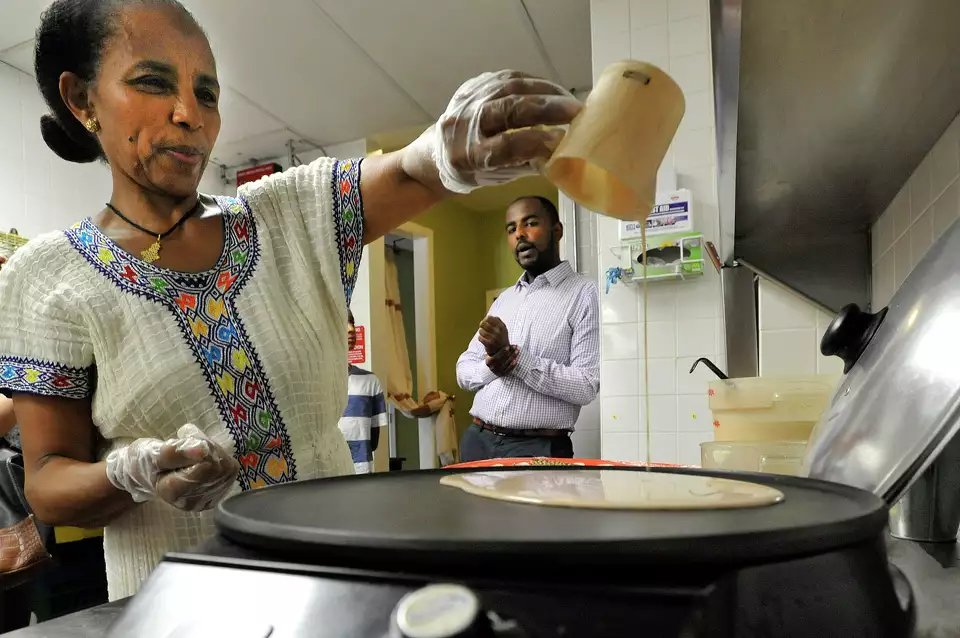
Teff Ethiopian restaurant to reopen in its new downtown Stamford location
Teff, Stamford's Eritrean and Ethiopian restaurant, has announced that it will reopen at its new location on May 16. The restaurant is now accepting reservations for 84 W. Park Place. According to an Instagram post, it's also adding some new items to the menu, but the menu was not immediately available. Teff was at 113 W. Main St. for eight years, according to previous reporting by CT Insider, but it shut its doors at that location in July. "Teff has been fortunate to experience a boom in business during the pandemic via takeout and delivery, especially with the vast number of new Stamford residents,” Teff owner Elsa Mekonen previously told CT Insider via email. “It was time to move to a bigger space that can handle the volume of orders we prepare and with better parking and accessibility in the area.”


Ethiopia earns $835 million in nine months from coffee export
An Ethiopian industry institution has revealed that coffee exports have earned the African country over $835 million in revenue over the past nine months. According to the East African, the country exported 174,596 tons of coffee to the international market during the first nine months of the current Ethiopian 2023/24 fiscal year that started on July 8, 2023, the Ethiopian Coffee and Tea Authority (ECTA) said. Ethiopia in this fiscal year has also managed to create new markets outside of its traditional coffee-importing countries, according to Shafi Oumer, ECTA Deputy Director-General. Data from the ECTA revealed that China, the United Arab Emirates and Sudan are becoming top destinations and massive importers of Ethiopian coffee. Ethiopia’s traditional coffee importers include Saudi Arabia, South Korea, the United States, Germany and Japan. They have been the major destinations of Ethiopia’s coffee exports over the years. Ethiopia is globally recognized as the home of Arabica coffee, a distinct strain of coffee found almost exclusively in the country. The country remains Africa’s largest producer and exporter of coffee. Ethiopia’s economy is led by its agricultural sector, and coffee production is the backbone of the agricultural sector in the country. Ethiopia is globally recognized for its production of rich coffee quality and flavor ranging from winy to fruity and chocolatey. The country’s coffee is in great demand across the globe.


ASU students travel to Ethiopia to address plastic pollution problem
During a two-week trip to Ethiopia, several Arizona State University students will tackle the issue of plastic pollution affecting the country’s Simien Mountains National Park. A partnership with the Addis Ababa Institute of Technology assists students with building and fabricating machinery in order to recycle.
The reason for the plastic pollution stems from tourists.
India Schneider-Crease is an assistant professor at the ASU’s School of Human Evolution and Social Change.
“So basically you have tourists coming in who bring in plastic bottles because the water is unsafe to drink and they largely discard of those plastic bottles in the park in these open trash pits," she said.
Schneider-Crease also said there is significance behind the initiative. “So one of the things that's really important to us is that this project is born out of community need. It's addressing an explicit need in the place where it will be installed," she said. The moonshot goal is to set up micro economies that can turn waste into products that can be used by the community to make a profit.
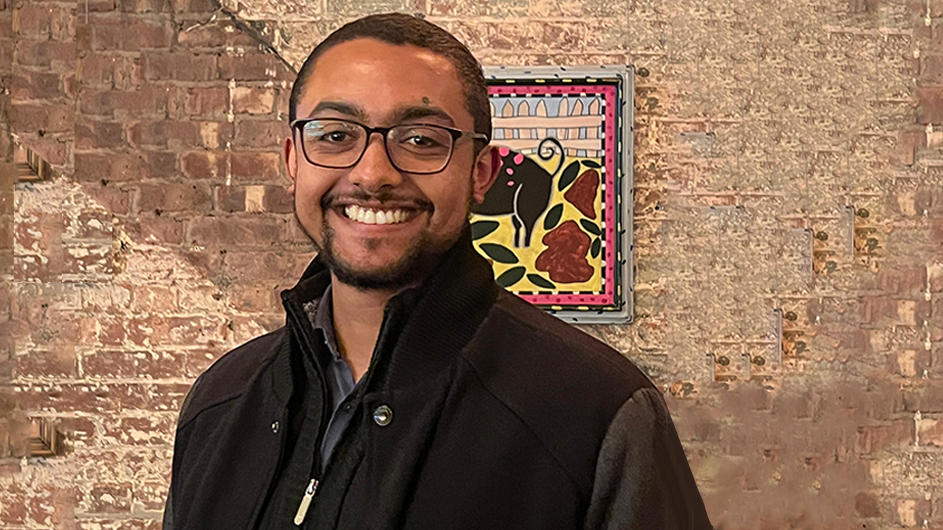
Meet Eskinder Fekade Lakew, a Budding Architect From Ethiopia
Eskinder Fekade Lakew, a student at the Graduate School of Architecture, Planning, and Preservation, who hails from Addis Ababa, Ethiopia, loves the density, history, and energy of New York, among other things. He has appreciated the opportunity to study here, where the entire city is like a living design lab.
When are you graduating from Columbia GSAPP? What is your degree, and which program are you in?
I am graduating this month, with a master's degree in Advanced Architectural Design.What was your path from Ethiopia to New York, and to pursuing graduate work at Columbia?
While I was still in Addis Ababa, Ethiopia, I was managing a mid-rise residential construction project, pursuing a master's in global building information modeling management, and working as a junior architect for an architectural practice. I had started my formative years in design school about a decade ago here in New York, and then returned to Addis Ababa to finalize my undergraduate education. This enabled me to learn from both localities, and appreciate the value of diversity, density, and culture in a metropolis. A desire to understand the impact and the agency of design to build a better future led me to appreciate the value of New York. One can learn a lot about art, cultures, politics, infrastructure, real estate, parks and recreation, history, coastal resilience, and unions in this city. My eagerness to further study the interplay of these factors, and how they shape the built environment, drew me back here.

Flower industry struggling to recover amid complaints from foreign growers
In the past year, several European flower businesses have witnessed their farms being looted and burned amid little protection from the state, compelling many to suspend their operations in Ethiopia’s volatile northern region of Amhara.

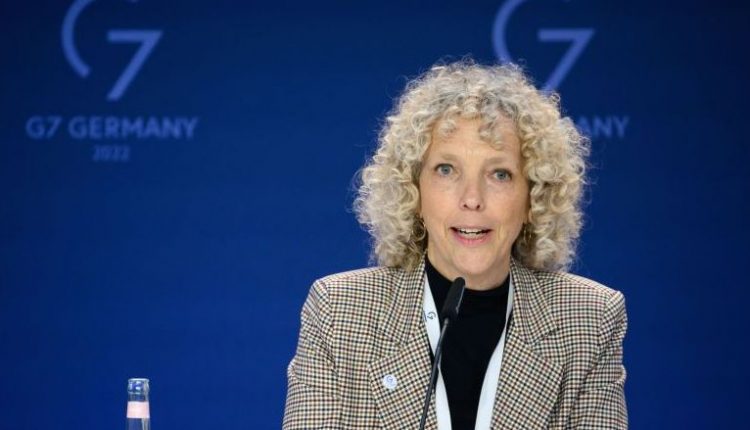
Ethiopia Among Important Partners For Germany, EU In Green Transition – Special Climate Envoy
State Secretary and Special Envoy for International Climate Action at the Federal Foreign Office of Germany Jennifer Morgan issued a statement prior to her visit to Ethiopia, Nigeria and Kenya. In her statement Jennifer Morgan disclosed that she will hold bilateral talks with Ethiopian officials in Addis Ababa, with the focus on the energy transition and climate policy. She added that she will exchange views with the African Union, particularly on climate and security. “At every stage of my trip I will engage in discussion with national and international partners and representatives of civil society and business on the local situation, the extent of climate damage and above all on sustainable and at the same time economically attractive solutions,” she noted. “After all, these countries are important partners for Germany and the EU in the green transition and have considerable scope to benefit from the global energy transition,” the German Special Climate Envoy added. Africa is a continent which has a huge role to play in the energy transition, she affirmed, adding: “The massive potential of renewables opens up opportunities for the people there and for cooperation with us in Europe.”


How the Ethiopian community is celebrating Orthodox Easter in the DC area
Growing up in the tradition
Tesfaye, whose parents immigrated from Ethiopia, has been a mezmuran, or choir singer, at Debre Genet Medhane Alem Ethiopian Orthodox Church, in Temple Hills, Maryland, since she was a child. Tesfaye said she likes how choir allows her to connect with other people. “You build a special bond and sisterhood with other mezmurans, or other choir singers,” Tesfaye said, adding that it’s good to be “able to grow up with each other, learn our religion and our culture together” and see “what the future holds all together for us.”
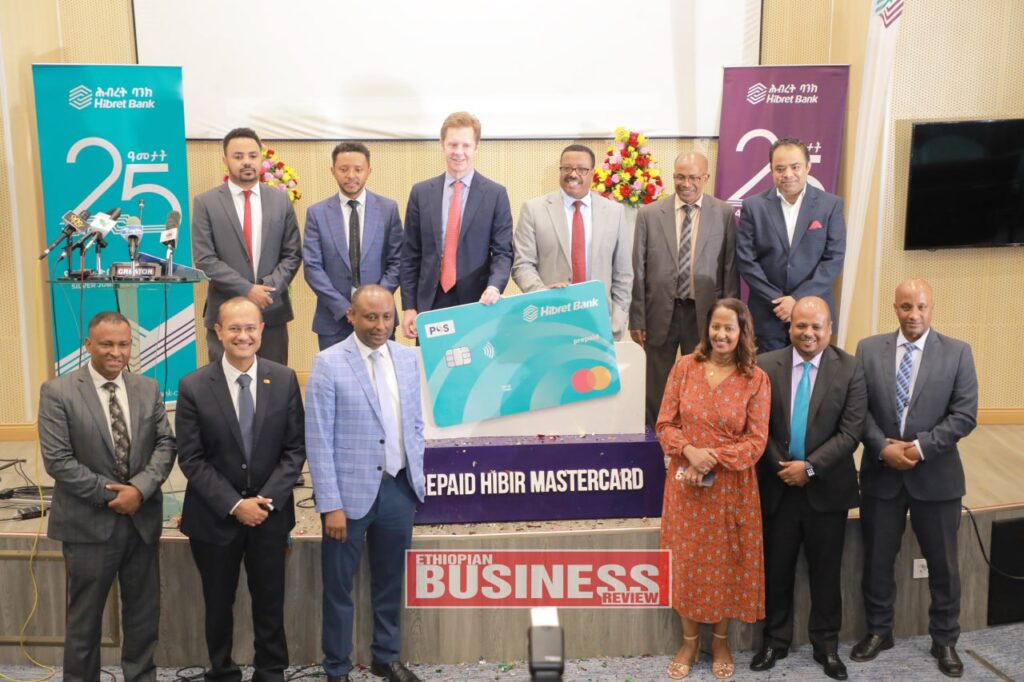
Prepaid Hibir Mastercard Makes its Debut in Ethiopia
Hibret Bank and Mastercard have partnered to introduce Prepaid Hibir Mastercard services in Ethiopia. This collaboration represents a significant milestone in Ethiopia’s journey toward financial digitization. It’s said that the Prepaid Hibir Mastercard offers customers secure and convenient international banking experiences by providing access to foreign currency for overseas travel and international transactions wherever Mastercard is accepted. This card features a dual-interface that supports both contact and contactless transactions, making it a versatile financial tool for ATM withdrawals and point-of-sale purchases. Customers can also reload funds at any Hibret Bank branch, which is aimed to ensure a secure and user-friendly solution for individuals engaged in foreign trade, travel, and cross-border transactions. Hibret Bank’s CEO, Ato Melaku Kebede, emphasized the institution’s commitment to innovation and collaboration. He stated, “Launching the Prepaid Hibir Mastercard is a testament to this, marking a significant step towards our mission of digital financial inclusion.” Melaku highlighted the bank’s investments in technology and partnerships, which have not only fostered local innovation but also improved service security and customer experience. Mastercard’s Senior Vice President and Country Manager for East Africa and Indian Ocean Islands, Shehryar Ali, underscored the importance of the alliance with Hibret Bank, stating, “This service is more than just a payment solution; it is a bridge for Ethiopians to access the global market with ease and security.” The collaboration aims to foster financial inclusion and digitization not only in Ethiopia but across Africa. The launch of the Prepaid Hibir Mastercard is supported by Premier Switch Solutions (PSS), Ethiopia’s trusted third-party processor for electronic transactions between banks.
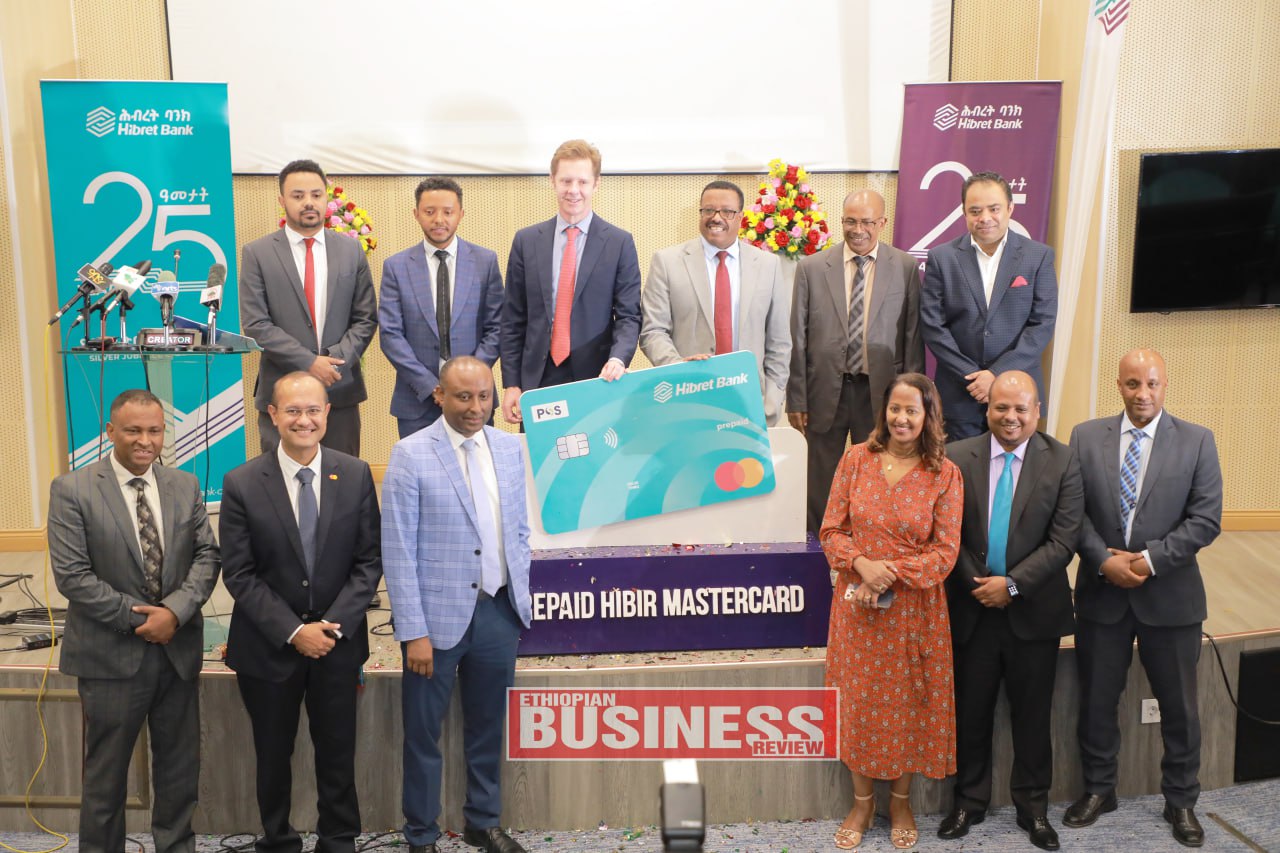
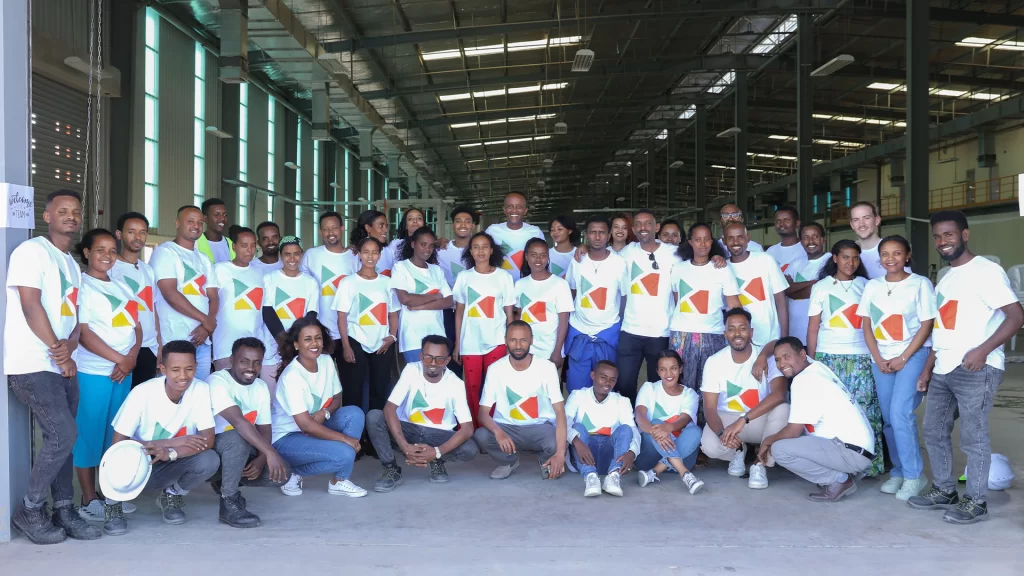
Kubik Reportedly Becomes First Ethiopian Company To Earn A Multi-Million-Dollar Investment In Climate And Sustainability Solutions
Ethiopian sustainable tech startup Kubik has scored a first for the country. According to a press release sent to AFROTECH™, it has raised $5.2 million in a seed round. Investors include East African venture capital firm African Renaissance Partners, Endgame Capital, and King Philanthropies. It will now further its work in using plastic waste to make affordable buildings and removing waste from the environment. “Kubik’s vision to build safe and affordable living for all speaks directly to King Philanthropies’ mission to catalyze solutions at the intersection of climate and livelihoods,” Kartick Kumar, managing director at King Philanthropies, said in a press release. “Kubik is at the forefront of innovation in Ethiopia and across the African market, and we’re proud to support the tremendous impact they’re making combatting plastic waste and providing safe, durable, and affordable housing.”
The funding round makes Kubik the first Ethiopian country to earn a multi-million-dollar investment in the area of climate and sustainability solutions, the press release notes.
“We are thrilled to close our $5.2 million seed funding round and welcome our stellar new investors,” Kidus Asfaw, co-founder and CEO of Kubik, commented in the news release. “They have seen Kubik’s compelling market opportunity, our delivery against our strategy to date, and share our purpose-driven vision — to build sustainably and affordably to a brighter, greener future.”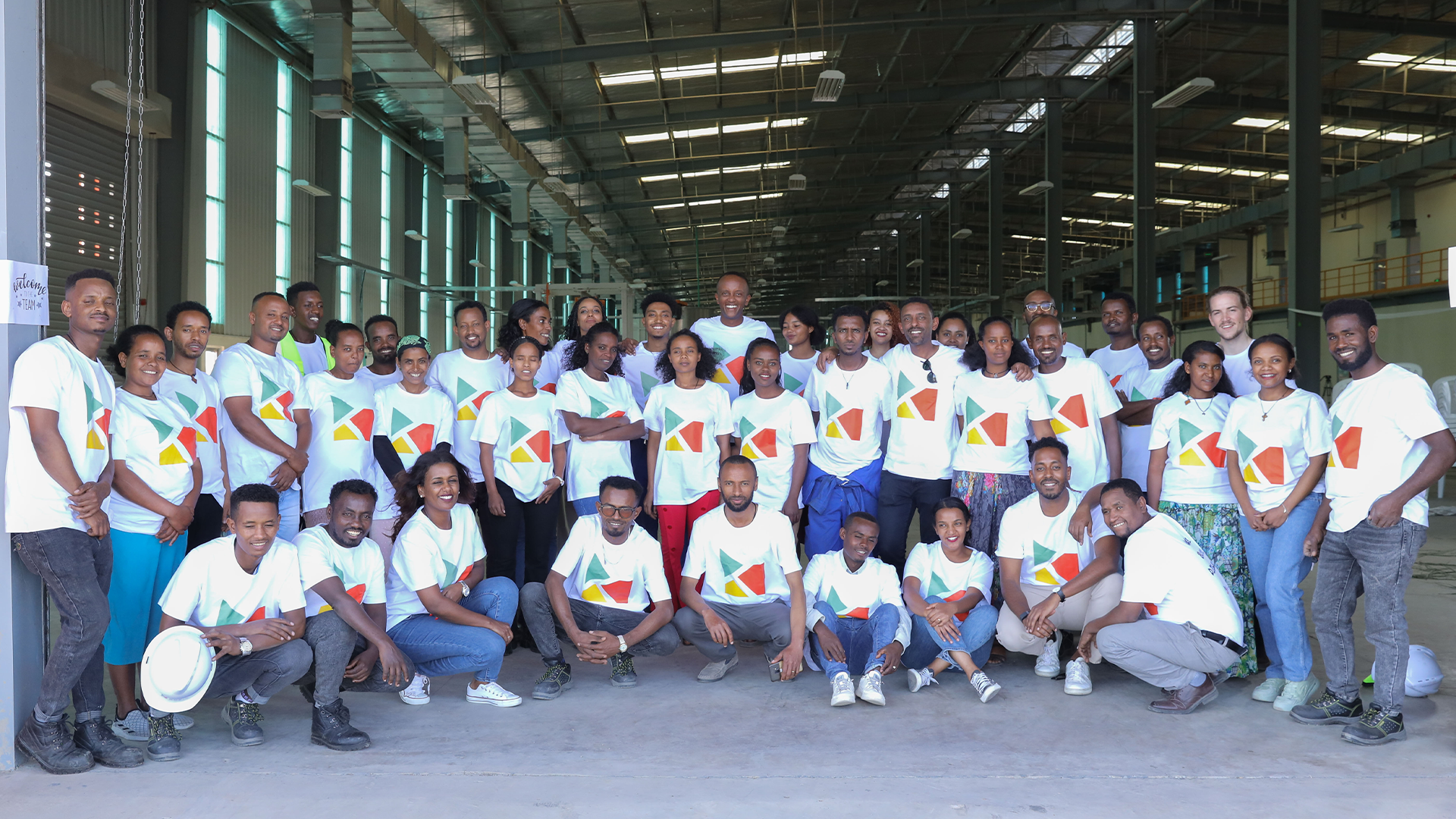
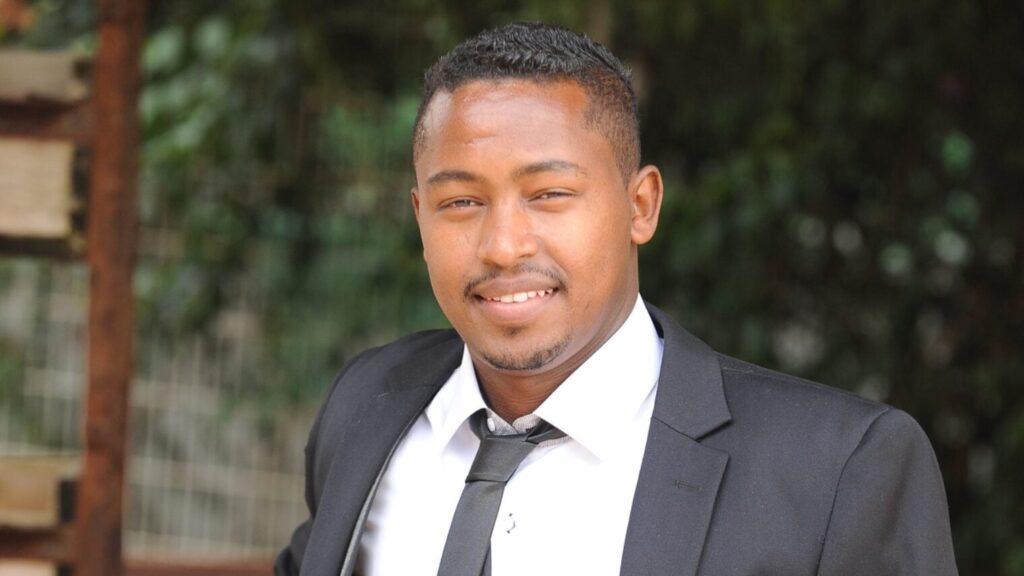
MEET THE MAN BLAZING A HIGH-TECH TRAIL FOR ETHIOPIAN ISRAELIS
Before October 7, Israeli Ethiopian entrepreneur Solomon Geveye was feeling confident about his newest endeavor, Haile Venture Capital Fund, the first investment vehicle for pre-seed startups with disruptive technologies in which at least one founder is from Israel’s Ethiopian community. Haile means “within my power” in Amharic, and Geveye hopes it will empower fellow Israeli Ethiopians to explore high-tech entrepreneurship, a path few take and that he has trailblazed. Many potential backers expressed interest. “Unfortunately, since October 7 there were less meetings and some investors put us on hold. Even though lots of funding opportunities arose to support the startup ecosystem, we didn’t secure our funds yet as it seems it’s much harder to fundraise for a new VC, especially for a minority-dedicated one,” he says candidly. Moreover, the war has made it difficult for him to move forward on his plan for Haile to open an entrepreneurship and acceleration program at Reichman University’s Google and Reichman Tech School, with support from the Israel Innovation Authority. “As an officer in the reserves, it was very hard to focus on Haile as my mind was also troubled with the war. I was supposed to enlist but my wife and I were expecting twins so I needed to be at home. As an entrepreneur, this kind of challenge is part of the process and hopefully we’ll conclude the fundraising by the end of 2024.”
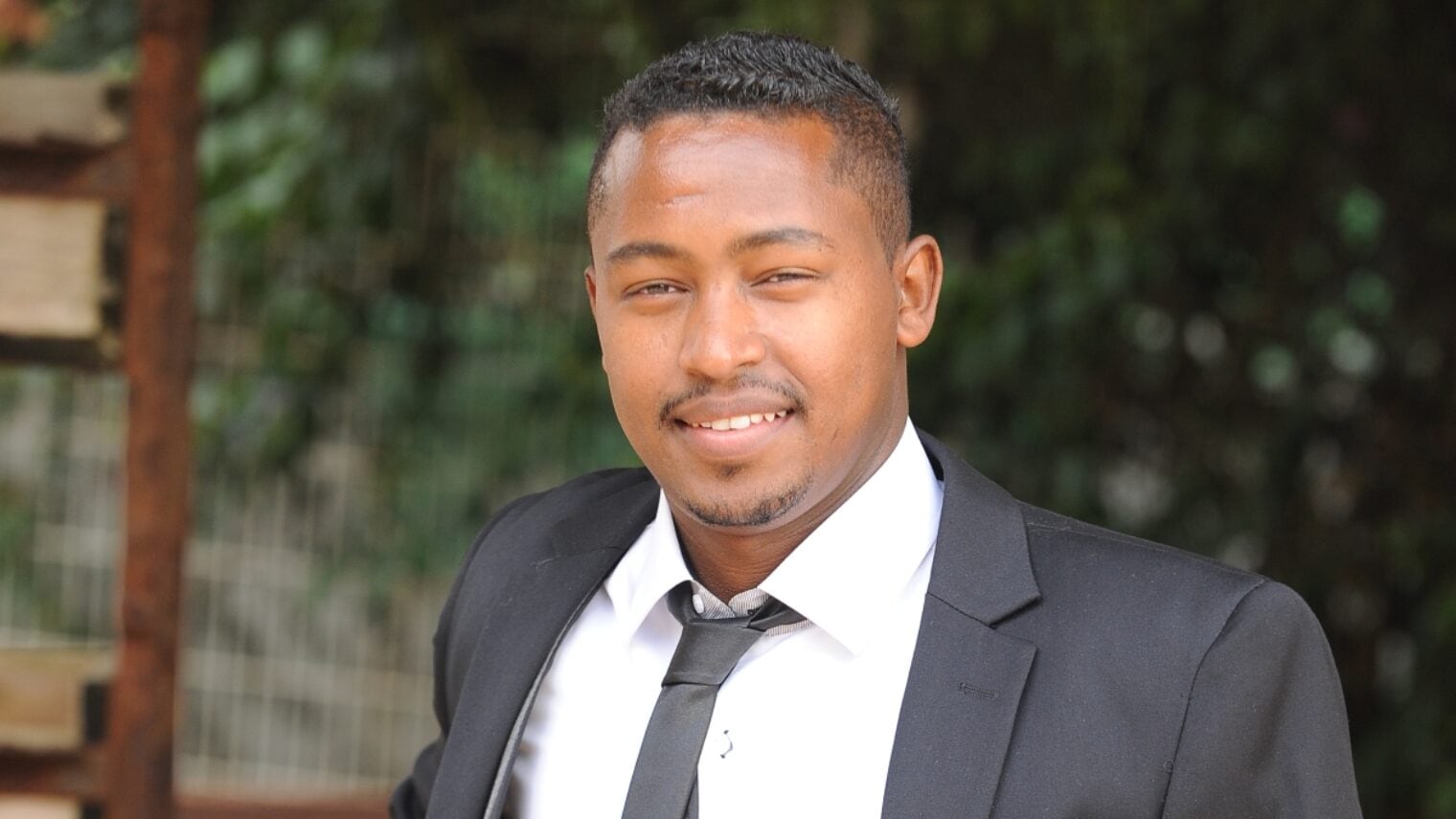

Kenyan retailers ready to pounce as Ethiopia to open up market
Kenyan companies are buzzing with excitement after Ethiopia announced plans to further open its retail and wholesale trade market to foreign investors.
This move by Ethiopia represents a golden opportunity for Kenyan firms looking to expand in the region, experts say. The Ethiopian government has introduced reforms allowing foreign companies to participate in previously restricted sectors, including export, import, wholesale, and retail trade.Kenyan companies are buzzing with excitement after Ethiopia announced plans to further open its retail and wholesale trade market to foreign investors.
This move by Ethiopia represents a golden opportunity for Kenyan firms looking to expand in the region, experts say. The Ethiopian government has introduced reforms allowing foreign companies to participate in previously restricted sectors, including export, import, wholesale, and retail trade. Ethiopia’s population of over 110 million people—the second-largest in Africa after Nigeria—presents a vast, previously untapped market for Kenyan businesses to expand their reach and tap into new customer bases, add analysts. In a major policy change, Ethiopia’s government, led by Prime Minister Abiy Ahmed, will now allow foreign investment in sectors previously closed to outsiders, according to local reports and documents seen by The Standard.

Montana Coffee Traders’ ‘Ethiopia Mulish’ is officially ‘Good Food’
Tasting events for Good Food Award winning blend Montana Coffee Traders received a Good Food Foundation Award for its Ethiopia Mulish at the 14th annual Good Food Awards Weekend, hosted on April 29 in Portland, Oregon, for selecting and roasting an earthly Ethiopian bean produced by Faysel Abdosh. In 2014, Faysel established the Mulish Washing Station in the Guji zone of southern Ethiopia to support the coffee farmers in the region. Built to support and ease the transport of ripe coffee beans from the region, the Mulish washing station receives coffee cherries from 880 Guji smallholder farmers. Dubbed the “Oscars of the food movement” by Newsweek, 200 Good Food Awards judges meticulously evaluated submissions across 18 categories. Montana Coffee Traders’ submission of its Ethiopia Mulish competed in a final round to be selected as the winner in the coffee category. The judging panel comprises industry leaders, technical experts, grocers, chefs, food writers, and general ‘food movement leaders’ to balance professional and consumer palates. This results in everyday consumers and top chefs, food writers, and experts embracing the awardees' taste profiles. For a long time, certifications for responsible practices and awards for superior taste have remained distinct—one honors social and environmental responsibility, while the other celebrates craftsmanship and flavor. The Good Food Awards recognize that truly good food—the kind that brings people together and builds strong, healthy communities—contains all these ingredients. Montana Coffee Traders sent three employees to the ceremony—Alison Chopp, green coffee buyer; Zach Farnes, roast master; and Katie Carlson, coffee educator; all accepted the award.


EU Restricts Visas for Ethiopians, Citing Lack of Govt Deportation Cooperation
The European Union is tightening visa rules for people from Ethiopia in response to what it says is a lack of cooperation from the Ethiopian government with the repatriation of those who have entered Europe illegally.
As a result of the changes, the EU said the visa processing time for Ethiopian nationals will triple, from 15 to 45 days, and that waiving requirements for certain paperwork will no longer be allowed.
Ethiopian officials and diplomats will need to pay to obtain travel visas, the EU said. Multiple entry visas will no longer be allowed.
The European Commission said the new rules were due to a "lack of response from Ethiopian authorities with regard to readmission requests," and shortcomings with "the organization of both voluntary and non-voluntary return operations."
The restrictions come as European governments try to control the influx of refugees leaving war-torn African countries to enter Europe.
The voyage of migrants over the Mediterranean Sea to Europe - typically organized by criminal gangs - is dangerous and often fatal. However, the largest share of migrants entering Europe comes from individuals entering countries legally and overstaying their visas.
Ethiopia is still reeling from its two-year conflict in the northern Tigray region which ended in 2022. Since the conflict, most of the six million living in the region have depended on international aid.


Kiron Interactive Extends Its Partnership with Hulu Sport to Deliver Its Product in Ethiopia
A renowned developer of virtual sports and numbers games, Kiron Interactive strengthens its position in Ethiopia through a deal with Hulu Sport, a leading operator in the market. Deal with Hulu Sport: Thanks to the extended deal with Hulu, Kiron will launch its renowned Mobile Lite Football Leagues product. Before establishing a new deal, Kiron integrated its unique portfolio of products into Hulu through its omnichannel Betman platform, and the products were available in both retail and online channels. Now, the partners went further and decided to publish the new Hulu League. The new product is specifically designed to suit the needs of the players in markets with limited bandwidth. It is actually a customized version of the company’s famous virtual football product, tailored to allow playing on mobile devices where the other ways to play aren’t possible or easily available. Players from Ethiopia will get a chance to enjoy incredible virtual football games, along with unique betting experiences, and Hulu will upgrade their mobile offering with the new product, one of those that made Kiron Entertainment one of the industry leaders. Steven Spartinos, Kiron Co-CEO, said: “We are honored to extend our partnership with Hulu Sport, one of Ethiopia’s leading operators. The launch of the Hulu League demonstrates our commitment to delivering innovative and tailored products that meet the specific needs of our partners and their players. “We look forward to working closely with the Hulu Sport team to ensure the success of this new bespok offering and to exploring further opportunities to enhance their product portfolio with our cutting-edge virtual sports content.”

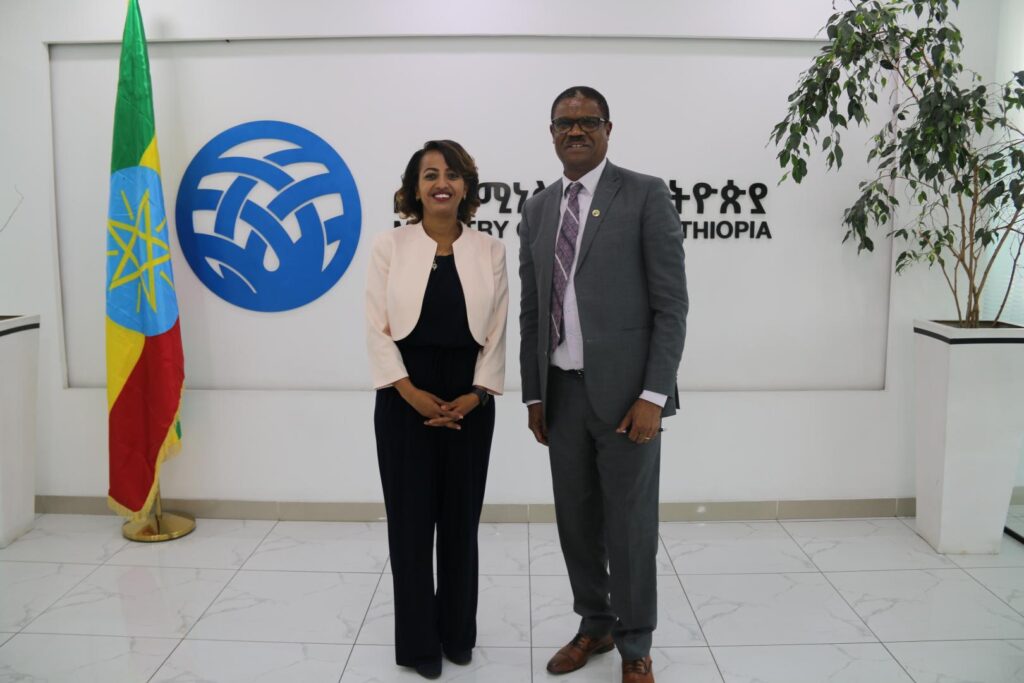
Dr. Owen Kaluwa Assumes Office as WHO Representative to Ethiopia
The recently designated World Health Organization (WHO) Representative to the Federal Democratic Republic of Ethiopia, Dr. Owen Laws Kaluwa, formally presented his credentials to H.E. Melaku Bedada, Director General of Protocol Affairs at the Ministry of Foreign Affairs, marking the official commencement of his tenure in Ethiopia. Offering a warm reception to Dr. Kaluwa, the Director General, H.E. Melaku Bedada, expressed deep appreciation for WHO's strong commitment in deploying expertise and resources towards attainment of universal health coverage in Ethiopia. The Director General underscored WHO's substantial contributions to Ethiopia's healthcare system, emphasizing the anticipation surrounding Dr. Kaluwa's tenure. He expressed confidence in Dr. Kaluwa's ability to further strengthen the strong partnership between WHO and Ethiopia across various health endeavors, including proactive responses to emergencies and addressing humanitarian crises. The two parties discussed the enduring alliance between Ethiopia and the World Health Organization and their commitment to safeguarding public health and advancing the noble aspiration of 'Health for All.' Similarly, Dr. Kaluwa has paid a courtesy visit to the Ethiopian Minister of Health, H.E. Dr. Mekdes Daba, as a gesture of goodwill, collaboration, and dedication between the Ministry of Health Ethiopia and the UN's Health Agency in advancing public healthcare endeavors in Ethiopia. Dr. Mekdes Daba expressed her ministry's resolute dedication to further strengthening the partnership, collaboration, and cooperation with WHO and serving the community collectively. She also expressed readiness to work closely with the new Representative of the country office. The Minister emphasized the World Health Organization's significant role in capacity building for health workers, outbreak and emergency response, and various other health interventions. She stressed the need for enduring support from WHO in emergency preparedness and response activities across the country, particularly in bolstering the capacity to predict, prepare, and respond to diverse emergencies. Furthermore, she solicited WHO Ethiopia's support and collaboration in local pharmaceutical and vaccine manufacturing and quality assurance, anticipating benefits for other countries in the WHO AFRO region. Both parties also discussed intensifying collaboration on healthcare worker capacity development and post-conflict restoration of health facilities in conflict-affected areas, emphasizing the need to collaborate with other partners and agencies.
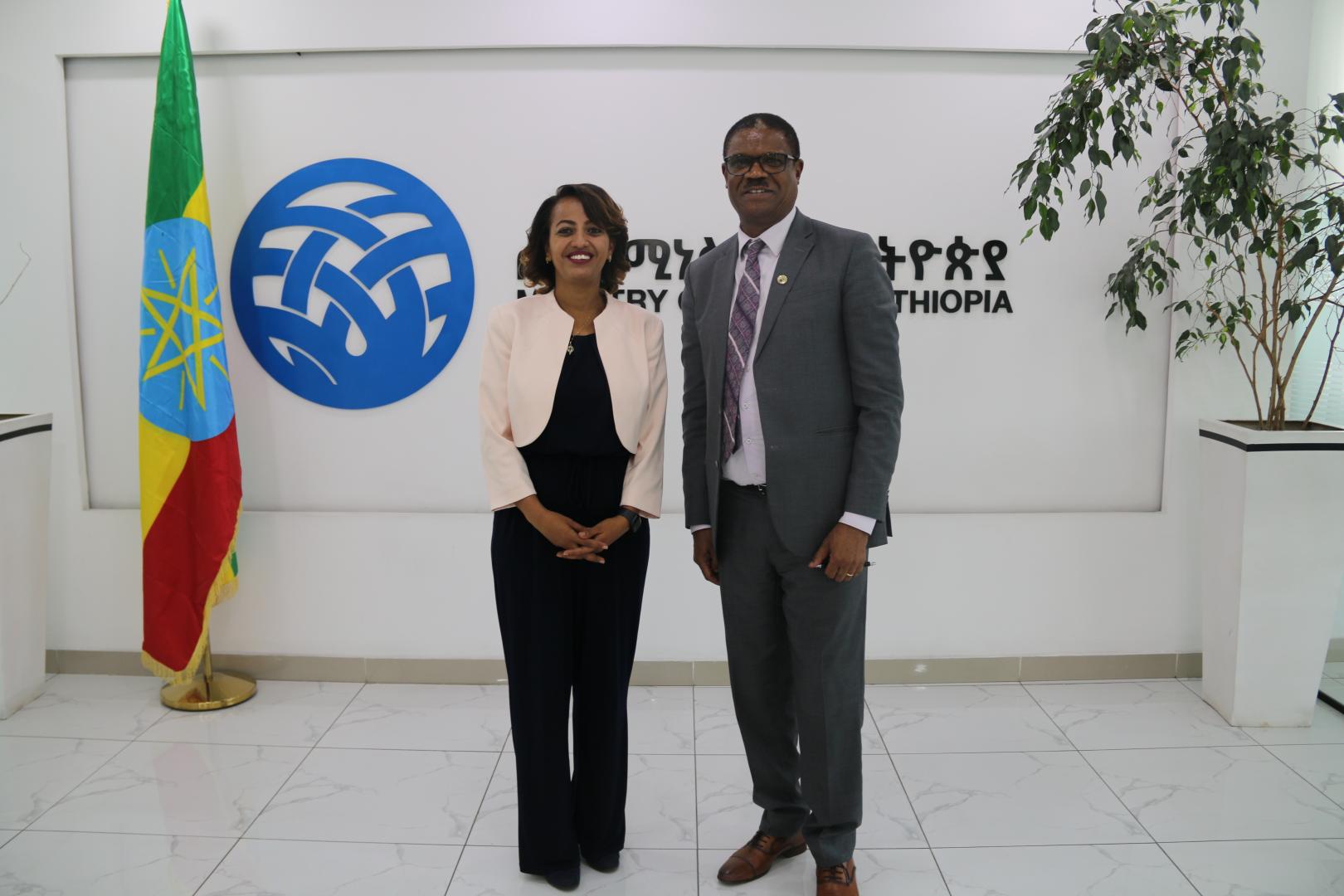
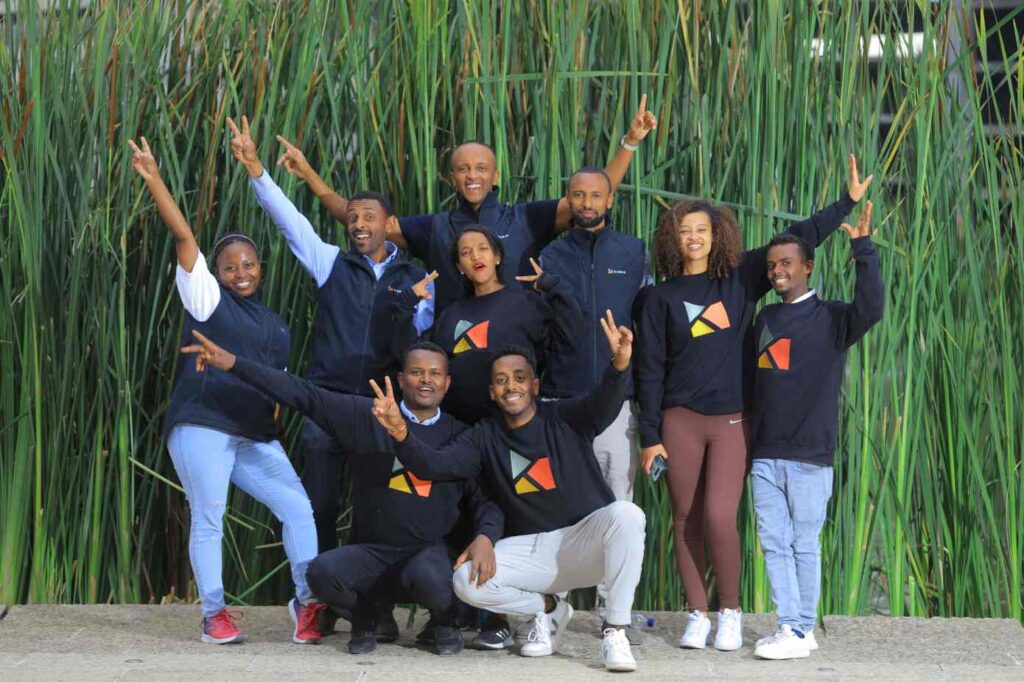
Ethiopia’s Kubik raises an additional $1.9 million seed to scale
- Kubik, an Ethiopian startup that recycles plastic waste into low-cost, environmentally friendly building materials, has raised $1.9 million in a seed extension round to expand its operations.
- The funding comes from African Renaissance Partners, an East African venture capital firm; Endgame Capital, a climate tech investment syndicate; and King Philanthropies, a climate and extreme poverty investor.
- This development comes as the startup expands its operations in Ethiopia following the opening of its factory in Addis Abeba, which converts plastic waste into interlocking building materials such as bricks, columns, beams and jambs.
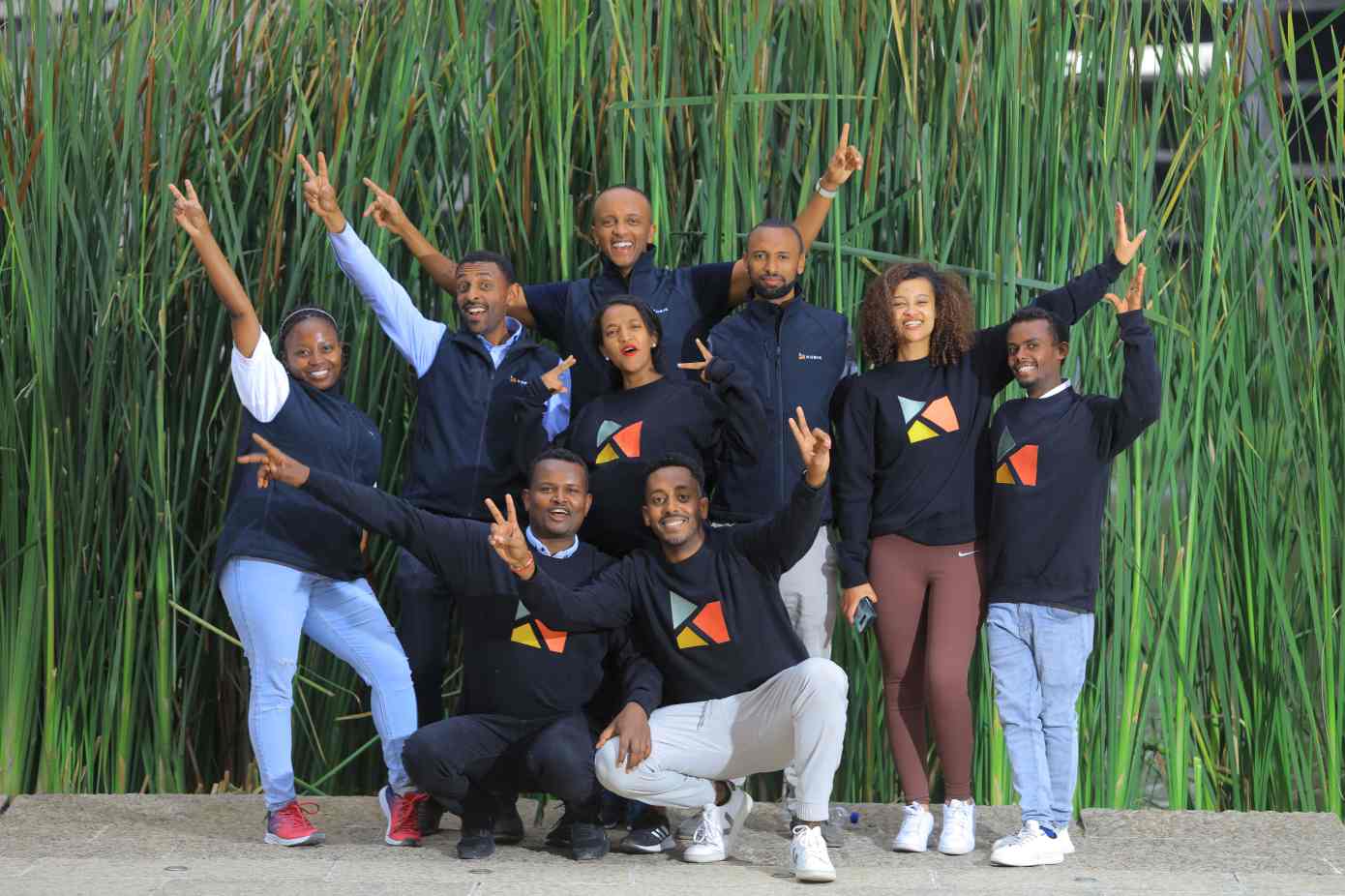
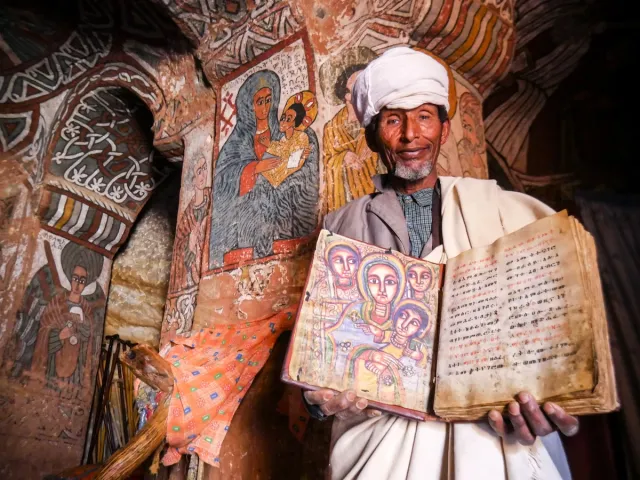
Ethiopia: One of the oldest Christian nations in the world
Right in the Horn of Africa, Ethiopia has a history deeply intertwined with Christianity. As one of the oldest Christian nations in the world, Ethiopia claims faith that can be said to predate the arrival of Christianity in Europe – even if just by a few years. This deep-rooted tradition has fostered a unique variety of Christian spirituality that remains vibrant and very much alive today. The story of the Ethiopian eunuch told in the book of Acts (Acts 8, 26-40) offers a glimpse into the early seeds of Ethiopian Christianity. The text claims that “a eunuch, a court official of Candace, queen of the Ethiopians, who was in charge of all her treasure” met the missionary Philip on a pilgrimage to Jerusalem. Philip explained the Gospel message and the eunuch, filled with joy, converted and was baptized. This encounter is believed to have sparked the spread of Christianity in Ethiopia. In hisAdversus Haereses,St. Irenaeus claims the eunuch “was sent into the regions of Ethiopia, to preach what he had himself believed, that there was one God preached by the prophets, but that the Son of this (God) had already made (His) appearance in human flesh, and had been led as a sheep to the slaughter; and all the other statements which the prophets made regarding Him.”

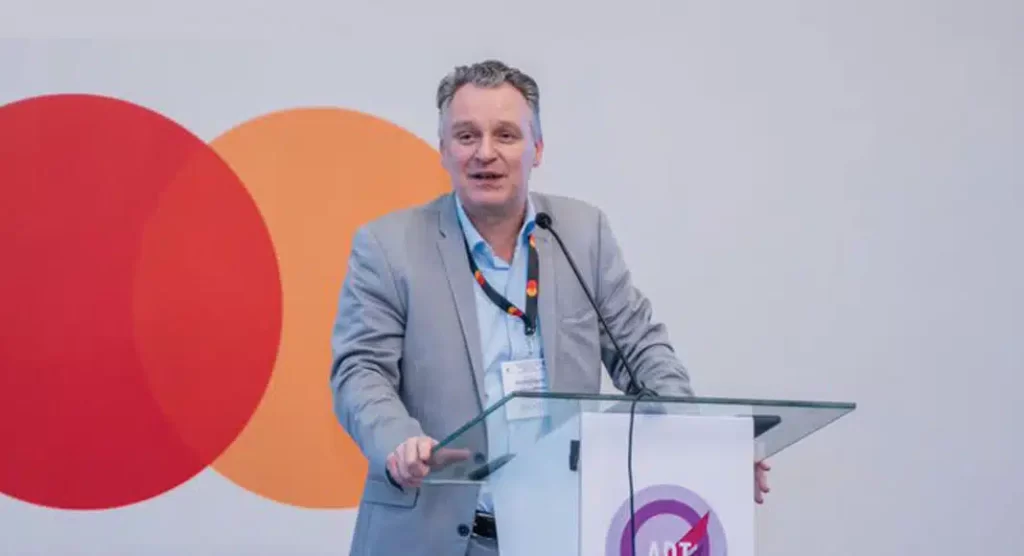
Safaricom Ethiopia out to triple network coverage in three years
Safaricom Telecommunications Ethiopia has ambitious plans to triple its telecom tower network over the coming three years, set to invest more than USD 1.5 billion to extend its coverage across the country despite the obstacles posed by security concerns. The company currently operates a network of 2,500 towers, 1,000 of which it leases from the state-owned Ethio telecom, according to Wim Vanhelleputte, CEO of Safaricom Ethiopia. The private telecom operator has coverage in Addis Ababa and 26 other urban areas as well as on roads. But this is far from the target, according to Vanhelleputte, who was appointed CEO last July. “The country is very big; we aren’t even half way, and we need up to 7000 towers to really cover the entire population” he told The Reporter. Safaricom Ethiopia’s expansion goals, many of which are part of the terms it agreed to when it won the bid for the country’s first private telecom operator’s license in 2021, have been aided by duty exemptions on the import of equipment. But the CEO notes that Ethiopia’s security issues pose a major hurdle. “We would love the whole country to be open, but now there are parts of the country where we cannot provide data services because of unresolved security troubles,” said Vanhelleputte. “I really hope in the next two or three years that the entire country opens up.” The CEO of Safaricom Ethiopia observes the security concerns will make it difficult to achieve the targets set out in the country’s 10-year digitization plan, while limited access to smartphones and limitations in regulation and policymaking also pose challenges. The effectiveness of Safaricom’s network coverage expansion efforts hinges on public access to smartphones, which Vanhelleputte and his team worry is too low. Safaricom Ethiopia estimates 25 million, or one in five Ethiopians owns a smartphone. It is a figure that the CEO wants to see rise by three or four folds. The figure also contrasts with data from Ethio telecom, which estimates there are less than 15 million smartphones active in the country.
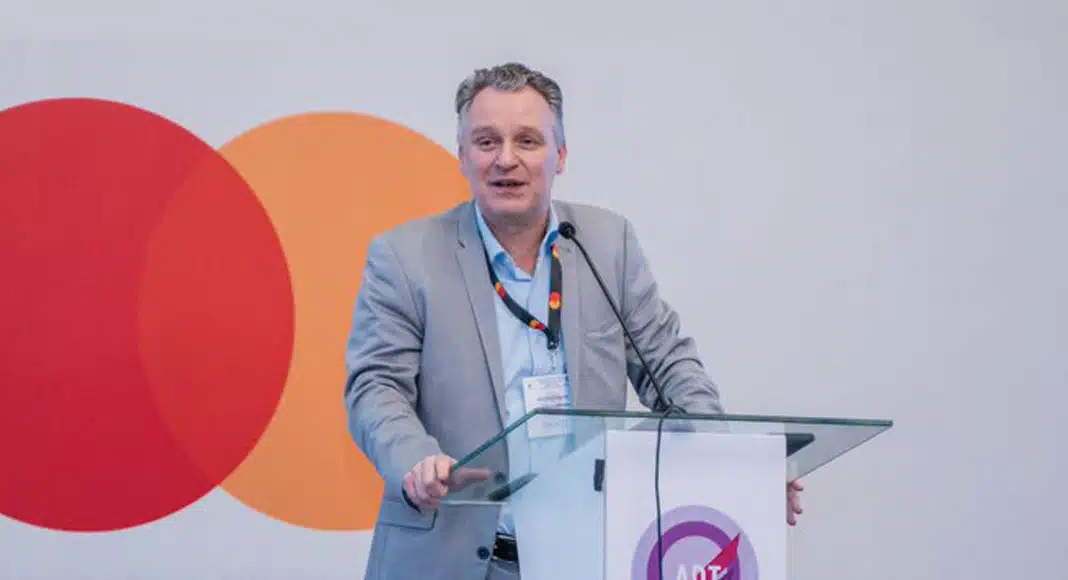
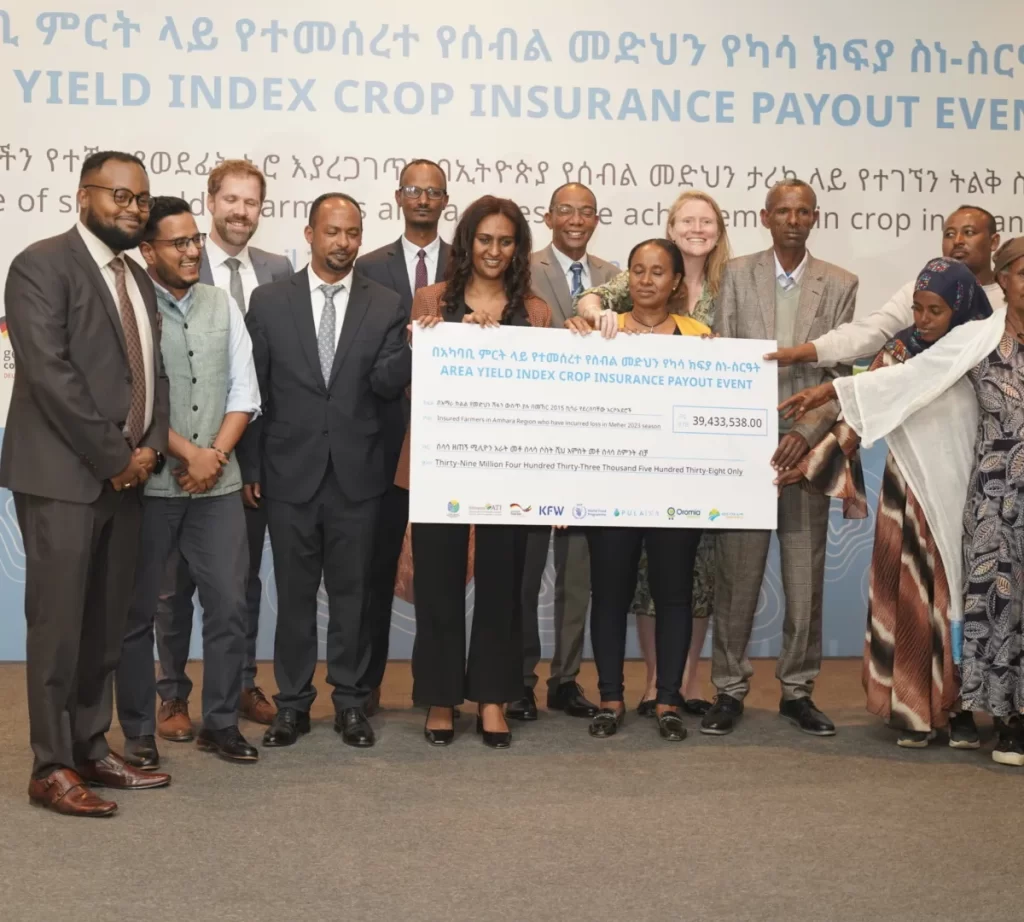
Kenyan Insurtech Pula Makes First payout of 39 million Br for Ethiopian smallholder Farmers
Kenyan Insurtech firm Pula has made its first payout of 39.4 million birr to 51,000 smallholder farmers in Ethiopia.
According to the announcement made at Pula’s Area Yield Index Crop Insurance Payout Event held today, April 25, 2024, the initiative, implemented during the 2023 Meher season, insured over 122,000 farmers against climate risks.
The payout is the result of a public-private partnership (PPP) between the Agricultural Transformation Institute (ATI), the World Food Program (WFP), and Pula. Funding is provided by the German Federal Ministry for Economic Cooperation and Development (BMZ) through the KfW Development Bank.
Pula’s insurance product safeguards farmers’ investments, particularly in fertilizers. In the event of a disaster, the payout ensures they have financial resources to purchase essential agricultural supplies for the next planting season.
To obtain insurance coverage, farmers pay a premium of 338 birr per bag of purchased fertilizer. In the event of a disaster, they receive a payout.
According to Dagmawi Haileyesus, Pula Ethiopia Country Manager, the highest payout is 1400 birr per bag, and the smallest is 400 birr per bag. The insurance product bundles crop insurance with the established Input Voucher System (IVS) the formal input distribution channel in Ethiopia to provide comprehensive and affordable insurance coverage for smallholder farmers.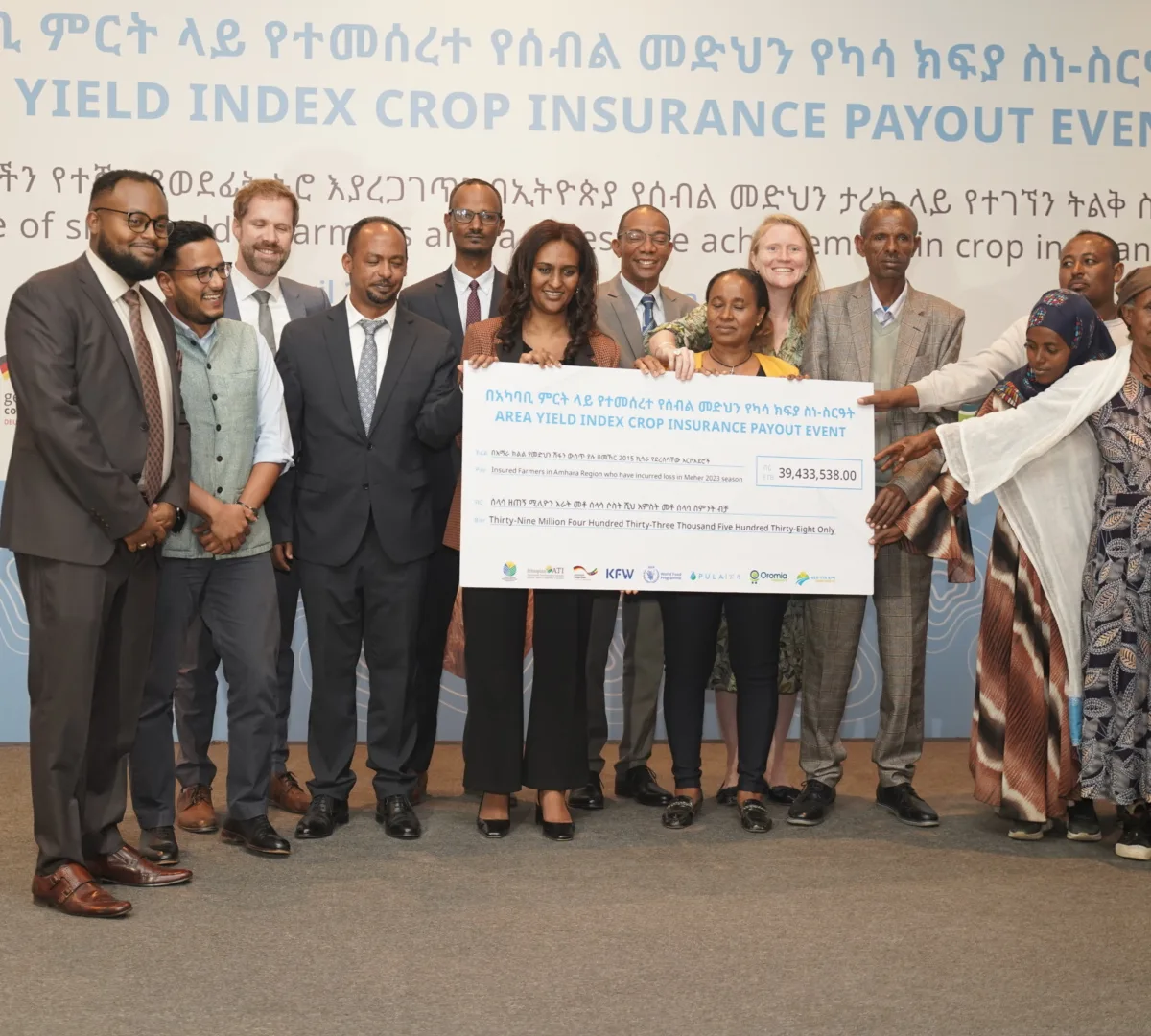
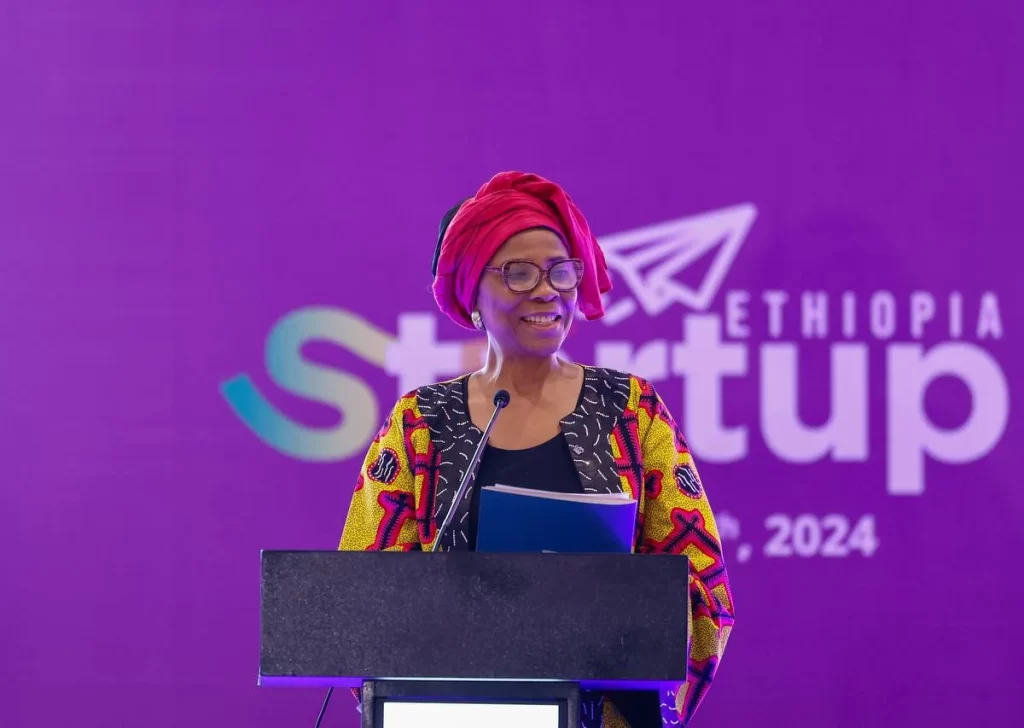
Addis Ababa Close to Joining Billion-Dollar Timbuktu Startup Initiative
Addis Ababa is inching closer to becoming the ninth hub of UNDP’s Timbuktu Initiative, a pan-African program with a one-billion-dollar innovation fund to empower startups.
Announced by Ahunna Eziakonwa, Assistant Secretary-General and Director of UNDP’s Regional Bureau for Africa, at a discussion held at the Startup Ethiopia Event, the inclusion is based on meeting some requirements from UNDP. The discussion explored what Timbuktu could mean for Ethiopia’s startup ecosystem, as well as what Ethiopia can offer to Timbuktu. Continuous support for the growth trajectory and scaling of startups, access to larger specialized markets, absorption of local talent, and outsourcing talent beyond Ethiopia, along with de-risking early-stage capital and access to a broader investor pool, were among the points raised as benefits of joining the initiative during the discussion. The Timbuktu Initiative, launched in January 2024, is an ambitious plan to mobilize and invest one billion dollars to nurture entrepreneurial ventures across Africa.The Initiative represents a new model of development. It convenes key stakeholders to tackle multiple challenges simultaneously, from startup-friendly legislation and “world-class” development programs to mitigating investment risks. Initiatives like UniPods—University Innovation Pods—established across Africa are central to this approach.
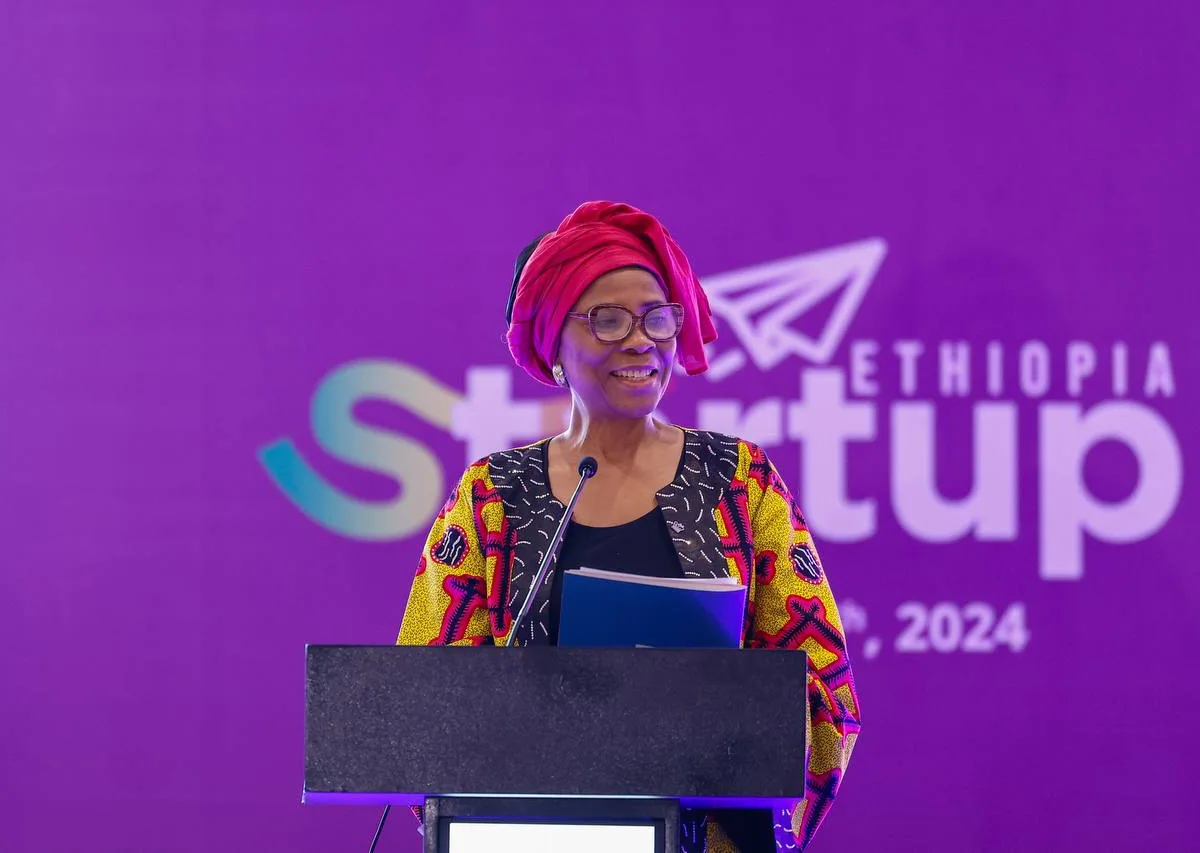
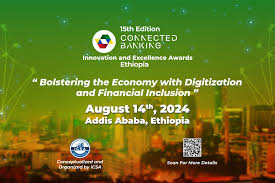
15th Edition Connected Banking Summit – Innovation and Excellence Awards 2024; Ethiopia
The International Center for Strategic Alliances proudly presents the 15th Edition Connected Banking Summit – Innovation and Excellence Awards 2024; Ethiopia in Addis Ababa, scheduled for August 14th, 2024. Under the theme Under the theme “Bolstering the Economy with Digitization and Financial Inclusion”. Esteemed global executives, experts, and leaders will convene to drive the banking industry forward into a new era of innovation and excellence. This summit, in collaboration with the prestigious Connected Banking Innovation & Excellence Awards, will assemble a distinguished cohort of leaders and experts from across the region. From banks to insurance companies, innovative FinTechs and TechFins to digital and neo-banks, non-banking financial organizations, cooperatives, investment funds, and asset management companies, attendees will participate in insightful discussions, deliberations, and knowledge-sharing sessions focusing on the transformative impact of integrated solutions on the future of banking. Accompanied by leading experts from global brands, the summit will explore the profound influence of technologies such as AI, ML, deep learning, cognitive computing, digital assets, and more on the financial services ecosystem, shaping the trajectory of the industry. The Connected Banking Summit Series provides an unparalleled platform for networking and interaction, facilitating engagement with key industry players, C-suite executives, senior managers, decision-makers, and practitioners spearheading the adoption of cutting-edge banking technologies.

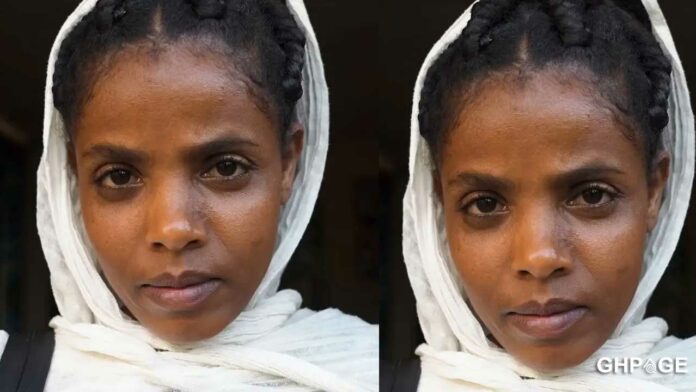
Meet the Ethiopian Woman who has not eaten or drank for 16 years but still looks healthy
In Ethiopia, an extraordinary case has emerged, with reports of a woman who claims she hasn’t eaten or drunk anything for the past 16 years. This woman, known only by her first name, Alemitu, resides in a remote village situated in the Amhara region. According to local media reports, Alemitu fell ill 16 years ago, and since then, she maintains that she has neither consumed any food nor liquids. Despite this astounding claim, she appears to be in good health and displays normal vital signs. Doctors who have examined her are reportedly perplexed by her assertions. While there have been documented cases of individuals surviving for extended periods without food or water under extreme circumstances, such instances are typically associated with medically induced comas or situations involving exceptional medical intervention. Alemitu’s case, if proven true, would defy established medical science. Given the extraordinary nature of her claim, skepticism naturally surrounds it. Some experts suggest that Alemitu may be inadvertently consuming small amounts of fluids or food, which go undetected. Others posit that psychological factors might be influencing her situation.


I Am Doing a PhD at 16—My Mother’s Death Is the Reason
I met my mother only once. Our meeting was brief, leaving behind no photographs or baby books to remember her by. In 2008, in a small, remote village in Southern Ethiopia, she held me for a fleeting moment—our first and last together. Shortly after my birth, she succumbed to tuberculosis (TB), a treatable disease that cruelly robbed us of a future together. I was ten months old and severely underweight when I was adopted and brought to the United States. Diagnosed with TB shortly after arriving, I was thrust into a battle for life that many children in Ethiopia—and around the world—never survive. I am incredibly fortunate to have been adopted by a family not only filled with love but also equipped to fight the disease that claimed my biological mother. My mother, Dr. Myiesha Taylor, an emergency medicine physician, ensured that I received the care necessary to not only survive but also to thrive. I am acutely aware that my story is the exception rather than the rule. It reinforces my commitment to advocate for those who are still caught in the relentless cycle of this preventable disease. Thanks to the life-saving treatment I received at Kaiser Hospital in Oakland and the long-term care provided by our nation's public health infrastructure, I stand here today. But this narrative extends beyond my recovery—it is a stark reminder of the global fight against TB that continues to claim lives.


Centre of Excellence for Fiber Optic Technicians Launched
Safaricom -NSE: SCOM has launched the Connect Academy, a program that will offer premier industrial training for fiber optic technicians. Announced on the sidelines of the Connected Africa Summit 2024, the academy aligns with Safaricom’s commitment to investing in robust fiber optic networks in Kenya and Ethiopia and the ICT Authority’s initiative to roll out extensive fiber networks, public Wi-Fi hotspots, and Digital Village Smart Hubs. Public- private partnerships The Connect Academy is part of the Presidential DigiTalent Program, a Public-Private Partnership Program whose key components are skill development, on-the-job coaching, mentorship, training, certification, and ICT innovations. Chief Consumer Business Officer for Safaricom, Fawzia Ali-Kimanthi, said “Our target is to grow a world-class broadband connectivity talent pool for both public & private sectors in partnership with TVETs. This will create employment and a career path for Kenyan youth who lack higher education. We intend to have the first cohort of 200 begin in May. They will go through a full day of training offered by our engineers every Friday for three months. We will also engage with TVETs to have fixed broadband included as part of their curriculum to grow the workforce.” The Connect Academy, to be implemented in partnership with the ICT Authority, will commence as a training program and evolve into a fully-fledged academy. It aims to provide extensive training programs aimed at cultivating highly skilled fiber optic and fixed wireless technicians. Participants will acquire hands-on experience, theoretical knowledge, and practical skills necessary for successful network deployment.

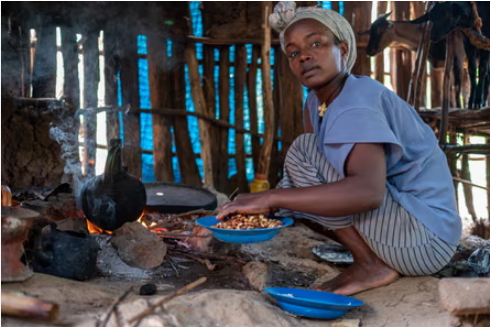
‘It’s rude not to offer three cups’: the lengthy, beloved coffee rituals binding Ethiopians together
Drinking coffee takes time in Ethiopia, a nation of caffeine lovers. In her village in Kafa, Ethiopia’s coffee heartland, Hagre Bekele starts by roasting the raw green beans over an open fire. Then she grinds them by hand and brews them in a jebena, a bulbous, long-necked clay pot. The drink is ready when the coffee boils and almost overflows.
Her son, Abraham, serves the drink in small cups, filled to the brim, alongside thick chunks of bread and handfuls of roasted grains, a snack called kolo. When the first cup is drunk, Hagre brews the grounds twice more. Generally, it is considered rude not to offer three cups. She also burns incense: its aroma enhances the coffee’s taste, and some believe it keeps bad spirits away.
The whole process lasts about an hour. To make things more efficient, and to ensure they get a regular caffeine fix throughout the day, Hagre shares brewing duties with her neighbours. Hagre is in charge of the lunchtime coffee, while her neighbour, Woynitu Gebre, takes care of the morning round. In the evening, everyone goes to Hagre’s mother-in-law’s. It is a system they have had in place for decades and one replicated, in various forms, in millions of homes every day across Ethiopia.
In much of Ethiopia, coffee is sweetened by heaped teaspoons of sugar, but most people in this area of the south-west prefer it without. Some, though, will add salt. On special occasions, butter infused with basil, oregano and cardamom is mixed in – which, says Woynitu, “tastes the best”. Another popular addition is tenadam, or rue, a medicinal herb.
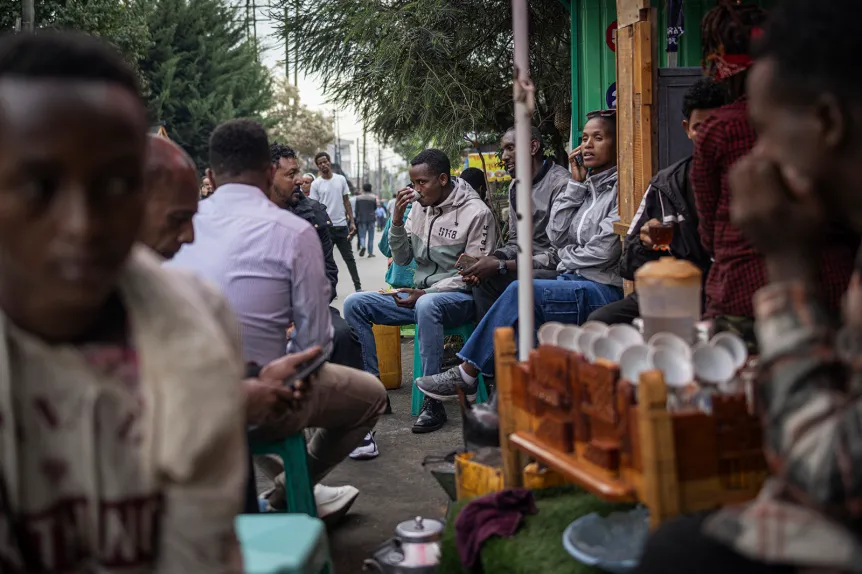
Ethiopia opens door for prized coffee exports to foreigners
Africa’s biggest coffee producer has revised rules to allow foreign companies to buy the commodity directly from farmers and processors, the latest in reforms to liberalize East Africa’s biggest economy.
Until now Ethiopia — which prides itself as the birthplace of coffee — required buyers such as Starbucks Corp., Volcafe Ltd., Louis Dreyfus Co., Olam International Ltd. and Sucafina SA to purchase shipments from local companies.
Controls have also been lifted off other commodities including oilseeds, pulses, hides and skins, forest products, poultry and livestock, but not on fertilizer, which Ethiopia subsidizes.
“The sectors were reserved for local investors to protect and encourage them,” said Hanna Arayaselassie, head of the Ethiopian Investment Commission. “However, we did not see as many local companies engaging with these businesses as we had hoped, nor did we see many local companies upgrading themselves and getting involved in the manufacturing sector.”
Foreign traders that purchased at least $10 million’s worth of coffee annually for the past three years will qualify for the permits, according to the new directive.


Abreham Brioschi debuts Ethiopia-inspired rugs for Nodus
The Dankil Depression is rather inhospitable – one of the hottest, lowest, and driest places on the planet – yet it still inspired Italo-Ethiopian designer Abreham Brioschi when developing the concept for his project with Nodus Rugs. ‘I often focus on the cultural and traditional practices of the people of the Omo Valley in Ethiopia, however, The 'Dancalia' ('Danakil') rug was born from a look further north, towards a place often referred to as the 'Land of Fire' or Danakil Depression,’ says Abreham. The region features rifting and volcanic activity, plus a hydrothermal system that emits an acidic liquid in otherworldly colours. These vibrant salt pools have been realised in a circular rug using a Tibetan hand-knotting technique. 'I’ve never worked on rugs before so I worked very closely with the team at Nodus and especially Andrea Galimberti who has been working in the industry for years,' says Abreham. For the other two rugs in the New Ethnic capsule collection Abreham continues his exploration of the theme of scarification, which is practised by different tribes in Ethiopia and around Africa. ‘The Mursi and Suri rug colours reflect the shade of the skin on which incisions are made,’ he explains. 'For tactile reasons, I didn’t want to use a flat weave with just the shapes and colours depicting the healed incisions, but to raise the scar-shaped forms that would be created by the incisions on the skin.'


Worlds of Music hosting Ethiopian ensemble Qwanqwa
A five piece improvisatory ensemble based in Addis Ababa, Ethiopia, Qwanqwa is dedicated to furthering Ethiopia’s unique string traditions by expanding the range of musical ideas commonly heard in Ethiopian music. The group presents a range of vocal and instrumental music using acoustic instruments that have been electrified and are played in a mix of traditional and contemporary Ethiopian styles.
The members of Qwanqwa are: Selamnesh Zemene Taye, who sings in the azmari improvisational vocal tradition; Endres Hassen Ahmed who plays masinko, a single stringed bowed lute somewhat like a fiddle; Misale Legesse Muleta who plays kebero, a double headed goat skin hand drum; Anteneh Teklemariam Barago who plays bass krar, a five or six stringed lyre; and Kaethe Hostetter, who plays five string electric violin.
Qwanqwa appears as part of Worlds of Music’s ongoing programs offering people in northern Wyoming the opportunity to learn about and listen to various styles of music that would otherwise be unheard in our region. Additionally, Worlds of Music programs in schools and performance venues give students, teachers and community members a chance to interact with music and performers in informal and intimate ways and to learn about the guest musicians’ lives and values.
The performance by Qwanqwa aligns with Worlds of Music’s mission to address the place of music in our lives, what music means to us and why it is central to cultures around the globe and throughout time. Worlds of Music strives to bring to Wyoming some entry into the broad universe of music by presenting music that residents might otherwise never hear or play.

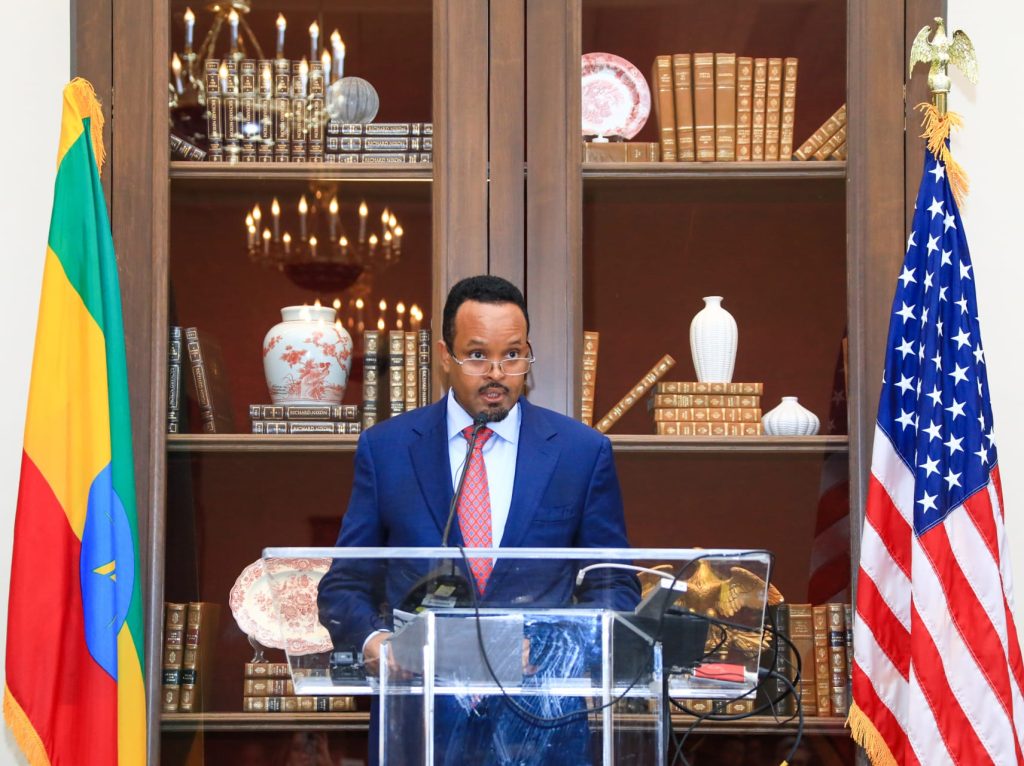
Ethiopia-US Business, Investment Forum Held in Washington
On the sidelines of the 2024 Spring Meetings of the International Monetary Fund (IMF) and the World Bank Group (WBG), an Ethiopia-US Business and Investment Forum was organized by the Ethiopian Embassy in Washington, D.C., in collaboration with Wafa Marketing & Promotion. The forum attracted approximately 150 investors from Ethiopia and the United States, providing a platform to elucidate and deliberate on Ethiopia’s investment prospects and business environment. According to the Embassy, the event also served as a valuable networking opportunity for the investors in attendance. The forum highlighted Ethiopia’s status as a leading trade and investment hub, ranking among the top 5 in Africa for Foreign Direct Investment (FDI). Recent technology collaborations with industry giants such as Google, Meta, Databricks, and Palantir underscore the nation’s favorable business environment. It was indicated during the forum that promising advancements and growth in aviation, IT, AI, as well as workforce development, coupled with abundant opportunities across sectors including textiles, mining, finance, and telecom, position Ethiopia as a key priority for Foreign Direct Investment.


Wingu Africa Becomes the First Tier III Certified Data Center in Ethiopia
Wingu Africa, a data center provider in Ethiopia, has achieved Tier III certification for its facility located in the ICT Park. This designation, awarded by Uptime Institute, the global authority on data center standards, makes Wingu Africa the first company in Ethiopia to have its data center infrastructure certified as Tier III. Data center tiers are a standardized ranking system that reflects the reliability of a facility’s infrastructure. This classification ranges from Tier 1 (least reliable) to Tier 4 (most reliable). “This significant investment underscores our commitment to bringing the highest quality digital infrastructure to Ethiopia and East Africa,” said Nicholas Lodge, Chief Strategic Officer at Wingu Africa Group Limited, in a press release. While Uptime Institute has issued Tier Standard certifications in 114 countries, including 2645 awards globally, Wingu Africa is the only data center operator in Ethiopia to hold facility certification (as opposed to design certification held by Raxio Data Center, Zemen Bank, and Commercial Bank of Ethiopia). Uptime Institute has awarded 2,645 certifications across 114 countries for their Tier Standard. In Ethiopia, Raxio Data Center, Zemen Bank, and Commercial Bank of Ethiopia hold Tier III certification for their data center designs. Meanwhile, Wingu Africa is the sole holder of certification for the facility.

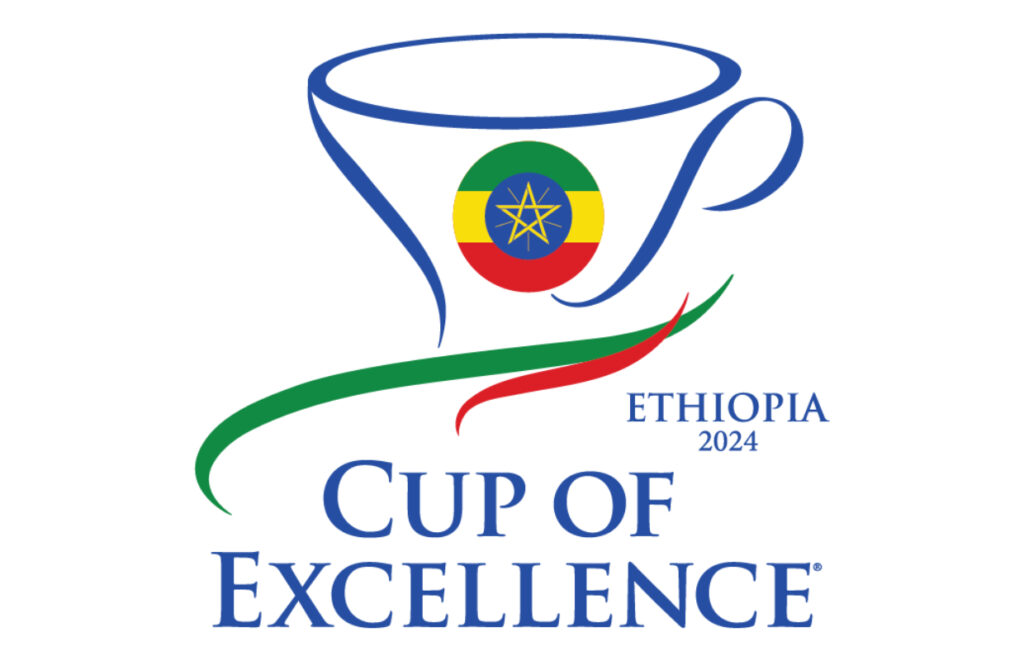
Cup of Excellence Returning to Ethiopia in 2024
With participation from key Ethiopian coffee institutions, the nonprofit Cup of Excellence (CoE) has announced the 2024 return of the Ethiopia Cup of Excellence green coffee competition and auction program. Following the inaugural Ethiopia CoE in 2020, in which the auction of 28 winning lots generated US$1.34 million, the Ethiopia auction in 2022 saw the highest price ever paid for an Ethiopian coffee, at an astounding $400.50 per pound. The Ethiopia CoE was suspended in 2023 after specific funds from the United States government’s Feed the Future’s Value Chain Activity (FTFVCA) were no longer available. This year’s event is being held through a partnership between CoE sibling nonprofit the Alliance for Coffee Excellence (ACE), the Ethiopian Coffee and Tea Authority and the Ethiopian Coffee Association. According to CoE, which announced the Ethiopia program’s return during the 2024 SCA Expo this past weekend in Chicago, the 2024 event will come to Addis Ababa at some point in mid July.
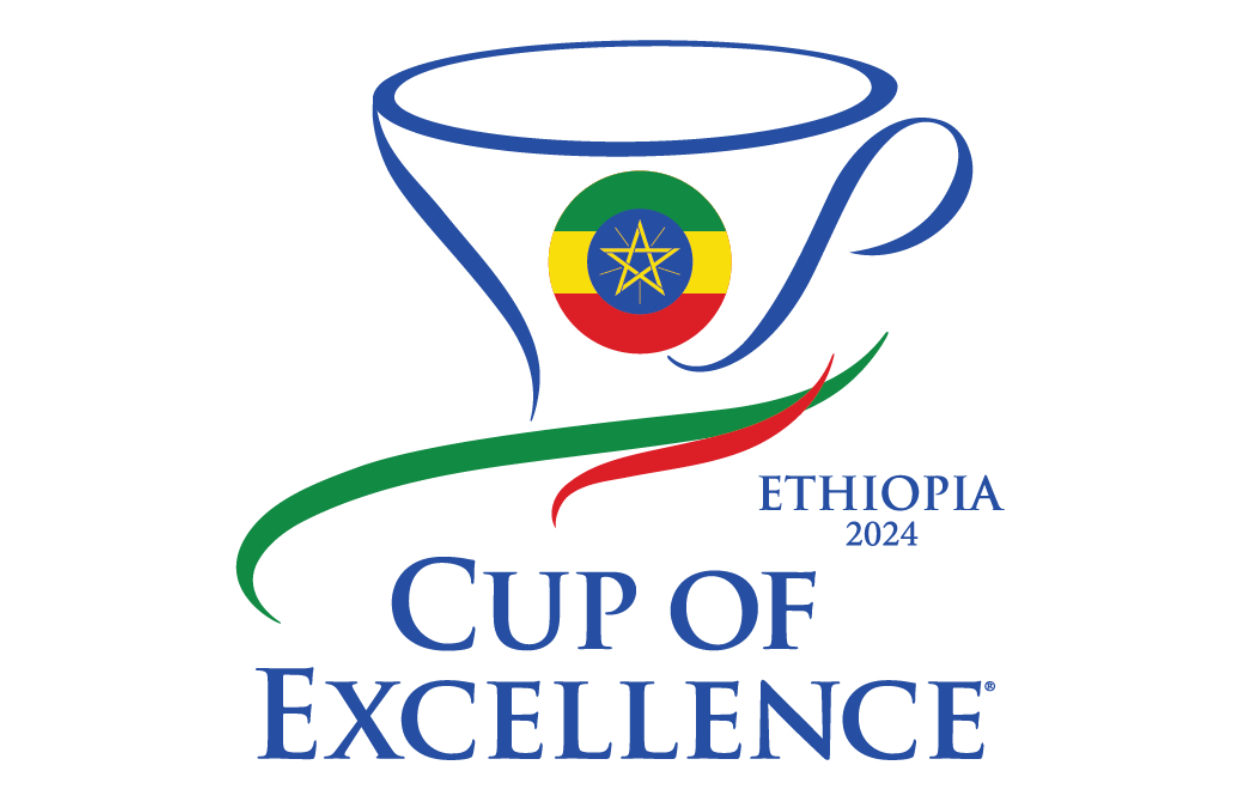

Ethiopia’s Sisay Lemma Wins Boston Marathon in Runaway
Sisay Lemma of Ethiopia set a blistering pace and held on to win the Boston Marathon on Monday, running alone through most of the course to finish in 2 hours, 6 minutes, 17 seconds — the 10th fastest time in the race's 128-year history.
Hellen Obiri defended her title in the women's race, outsprinting fellow Kenyan Sharon Lokedi down Boylston Street to win by eight seconds. Obiri is the first woman to win back-to-back Boston Marathons since 2005.
Lemma arrived in Boston with the fastest time in the field, becoming just the fourth person ever to break 2:02:00 when he won in Valencia last year. And the 2021 London champion showed it on the course, separating himself from the pack in Ashland and opening a lead of more than half of a mile.
Lemma ran the first half in 60:19 — 99 seconds faster than Geoffrey Mutai's course record pace in 2011, when he finished in 2:03:02 — the fastest marathon in history to that point. Fellow Ethiopian Mohamed Esa closed the gap through the last few miles, finishing second by 41 seconds; two-time defending champion Evans Chebet was third.
Lemma dropped to the pavement and rolled onto his back, smiling, after crossing the finish line.
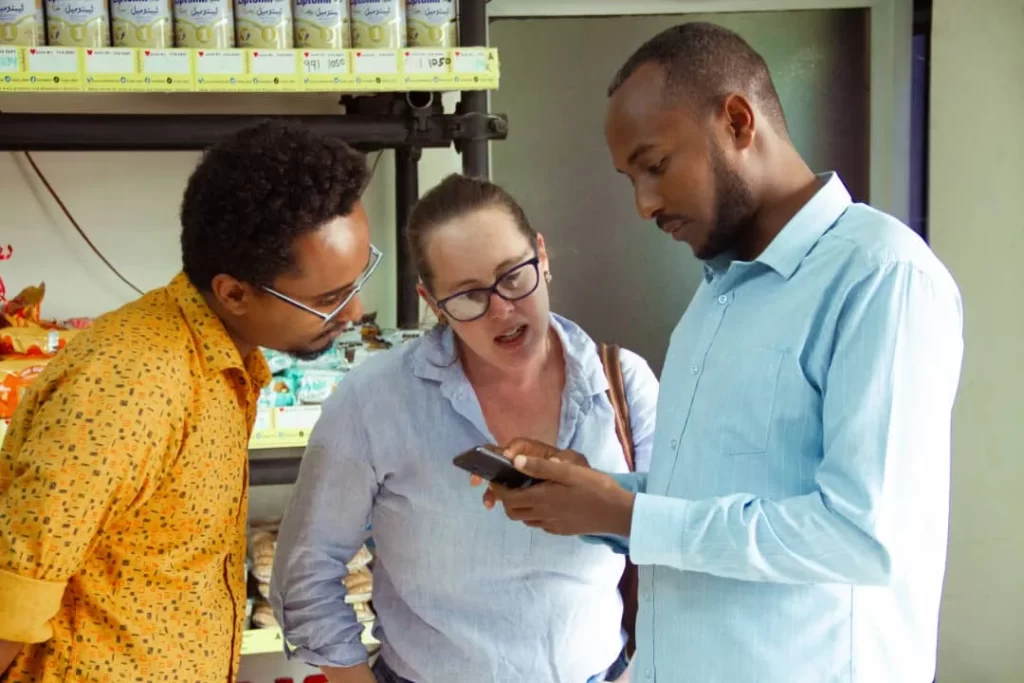
Ethiopian Investment Firms form Alliance to Connect Local Startups with Global Investors
Five Ethiopian investment firms have come together to establish the Madeg Partnership, which aims to source investment opportunities on behalf of a Japanese venture capital (VC) firm. The partners—Icon Solutions, Araya Venture Lab, Melela Partners, Pragma Capital, and Neftalem Consulting—are currently scouting for viable local companies and constructing a due diligence process that utilizes their collective expertise to pinpoint scalable local investments. “We believed there was value in pooling our collective experience to assist investors in identifying investment opportunities and viable companies in Ethiopia, with a foundational understanding of the overall risks of the Ethiopian market, which we all comprehend well,” Amity Weiss, Managing Partner at Melela Partners, told Shega. The team made contact with the potential investor, whose identity will be disclosed next week, at last year’s Enkopa Summit. “This investor, interested in Ethiopia, faced challenges in identifying suitable investment opportunities independently. We saw an opportunity to bridge this gap and facilitate a connection,” added Amity.
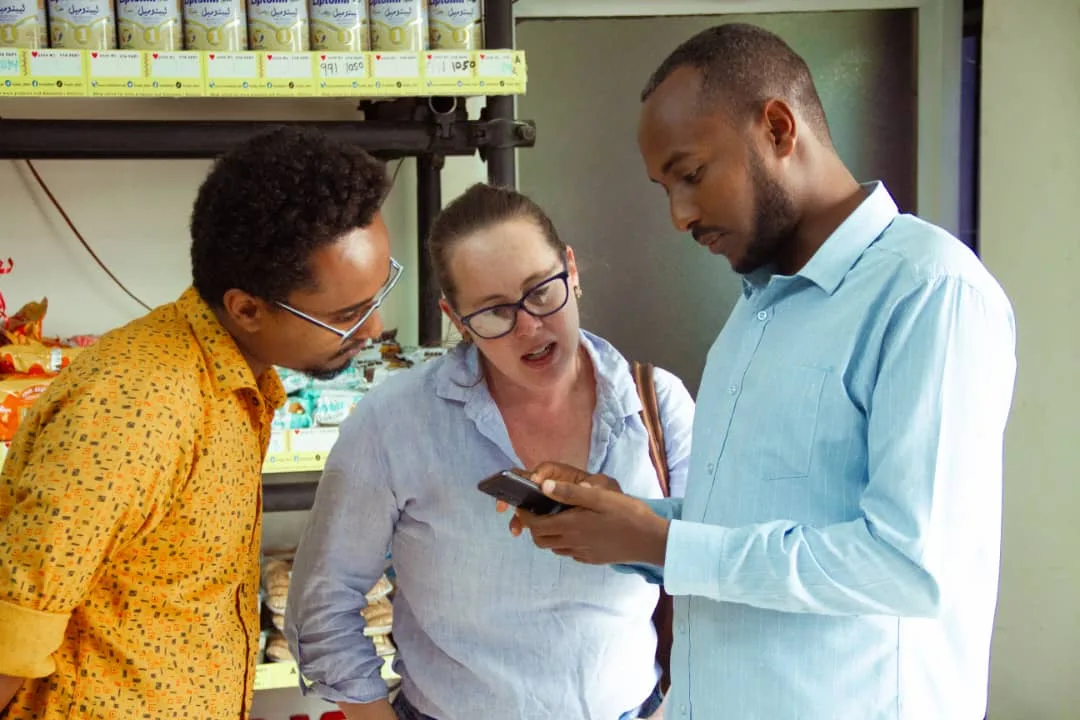

UK Flower Tariff Removal Will Increase Ethiopia’s Horticulture Export
The UK's removal of the 8 percent tariff on cut flowers for two years effective today will increase Ethiopia's flower export, Ethiopian Horticulture Producer Exporters Association Executive Director, Tewodros Zewdie told ENA.
The UK's tariff on cut flowers will be suspended for two years from 11 April 2024 to 30 June 2026, allowing the entry of unlimited quantities of flowers at zero percent tariff, even if they transit via a third country.
Tewodros said the move will boost Ethiopia’s flower export.
The decision will increase the competition of flower producers in Ethiopia in delivering their products to their customers in UK, he stated.
For him, the removal of the tariff is a great opportunity and stressed the need to strive for the maximum benefit.
The support to the sector, including land supply and administrative assistance, should be improved to increase investment in the horticulture sector, he urged.
Ethiopia is the second largest cut flower producer in Africa, making up 23 percent of Sub-Saharan African exports.
In 2023, the value of trade in cut flowers between the UK from Ethiopia was valued at 12.6 million Euros.
The removal of 8 percent duty for cut flowers is a big win for major flower growing countries including Ethiopia, Kenya, Rwanda, Tanzania, and Uganda.


Boston’s Ethiopian groove master delves into electronic soundscapes
In the 2008 Ethiopian film “Teza,” the protagonist returns from Germany a broken man after his medical career is cut short by a hate crime. At the conclusion of the Haile Gerima-directed movie, an elder comforts the man by saying “We are children of the dragon.”
That line inspired the naming of dragonchild, the current project of a Jamaica Plain-based saxophonist and composer who fuses expansive electronic soundscapes with the tones, melodies and rhythms of Ethiopia. Although dragonchild’s debut album just came out last year, the musician behind the project will be familiar to many Boston music fans: D.A. Mekonnen, who led the long-running sprawling Ethiopian funk outfit Debo Band. The album will be celebrated with a local release concert on Saturday, April 13, as part of the opening of the Peabody Essex Museum’s exhibit “Ethiopia at the Crossroads.”
Debo played its last show in 2019 before going on an indefinite hiatus. Looking for a way to escape the logistical nightmares and creative compromises that come with leading a large ensemble, Mekonnen had already started recording the pieces that comprise the “dragonchild” LP. Committed to a life of sobriety, meditation, herbalism and the spiritual jazz of Alice Coltrane and Pharoah Sanders, Mekonnen wanted a new musical challenge. While Debo was inspired by the Ethiopian big bands of the 1960s and ‘70s, “I was starting to imagine a type of project more in line with the way that Ethiopian musicians made music in the ‘80s, when they branched out on their own and did solo records that used the technology of the studio and a strong solo voice,” he says.

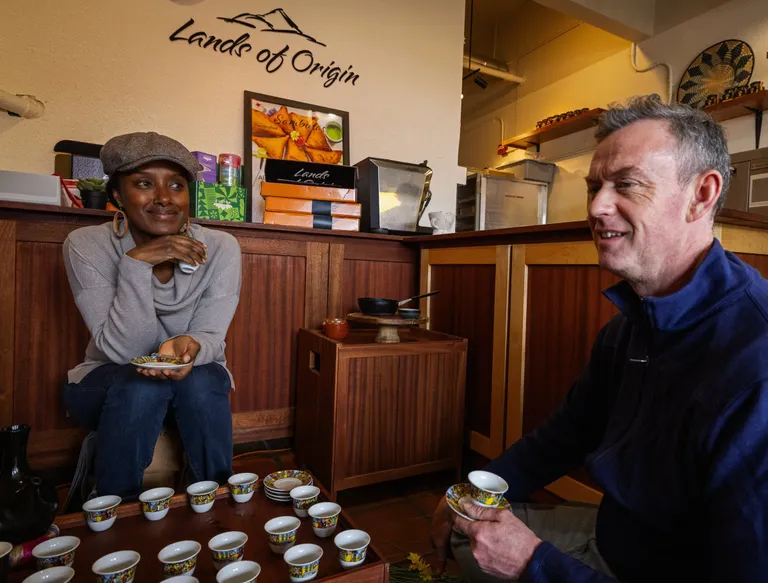
This Pike Place Market shop holds traditional Ethiopian coffee ceremonies
MAKING COFFEE at home in Ethiopia isn’t as simple as popping a Nespresso pod in a machine and clicking it shut. And while there are coffee chains where one can grab a quick cup — named Kaldi in honor of the legendary Ethiopian goat herder who noticed his goats acting up after ingesting coffee beans — making coffee at home is a special ritual that takes nearly two hours. Raw beans are roasted by hand on the stove and taken outside to be pounded with a mortar and pestle. “People will usually hear the sound of the coffee being ground, and they’ll just show up uninvited,” says Meeraf Mamo, owner of Geni’s Ethiopian and Lands of Origin. This coffee ceremony is one of the things she hopes will catch visitors’ eyes when they walk past her Pike Place Market shop, Lands of Origin. Mamo is perched on a low wooden stool in front of a tabletop lined with tiny, beautifully painted coffee cups. She’s holding a clay jebena, a traditional Ethiopian coffee pot, balancing it on a portable coil-top stove as it slowly heats. There’s the hustle and bustle of marketgoers just outside the pocket-size shop, located on Pike Place just a few doors down from Mee Sum Pastry. Mamo continues, speaking of how this trickle of neighbors seeking coffee usually turns into a casual gossip session where one catches up on all the neighborhood news. When she feels the jebena has sufficiently heated, she pours the coffee into cups and stirs in a small amount of sugar — but she’s just as likely to drink her coffee the way her father did, with ghee and a pinch of salt.

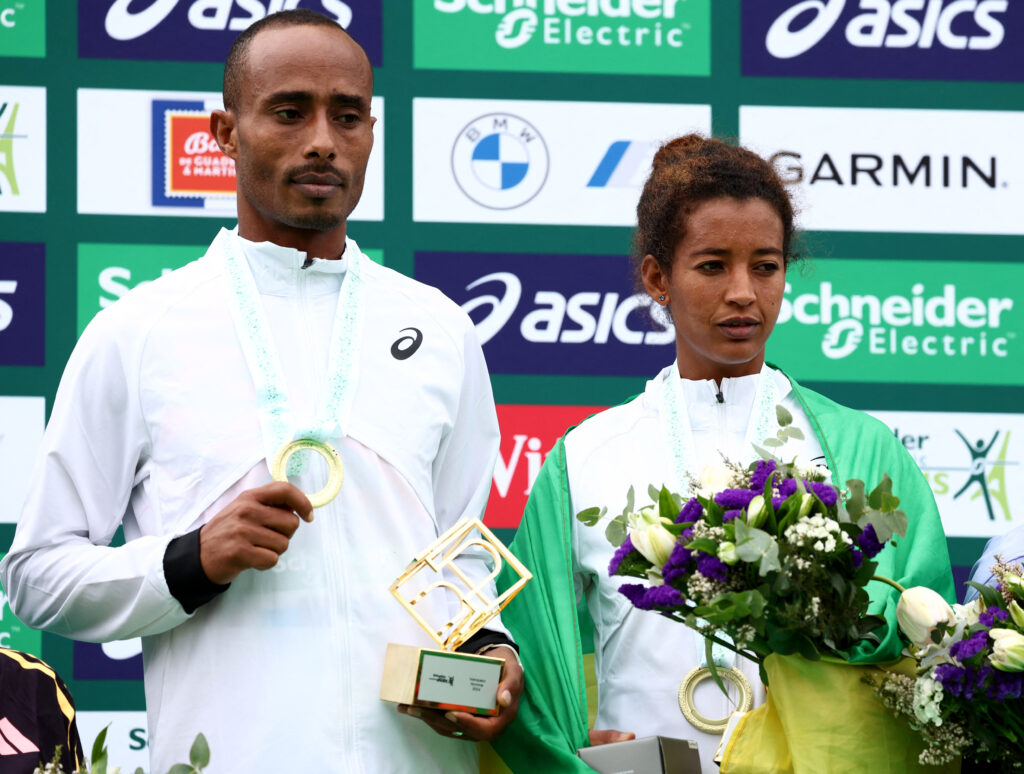
Marathon-Uma and Fikir give Ethiopia double win at Paris Marathon
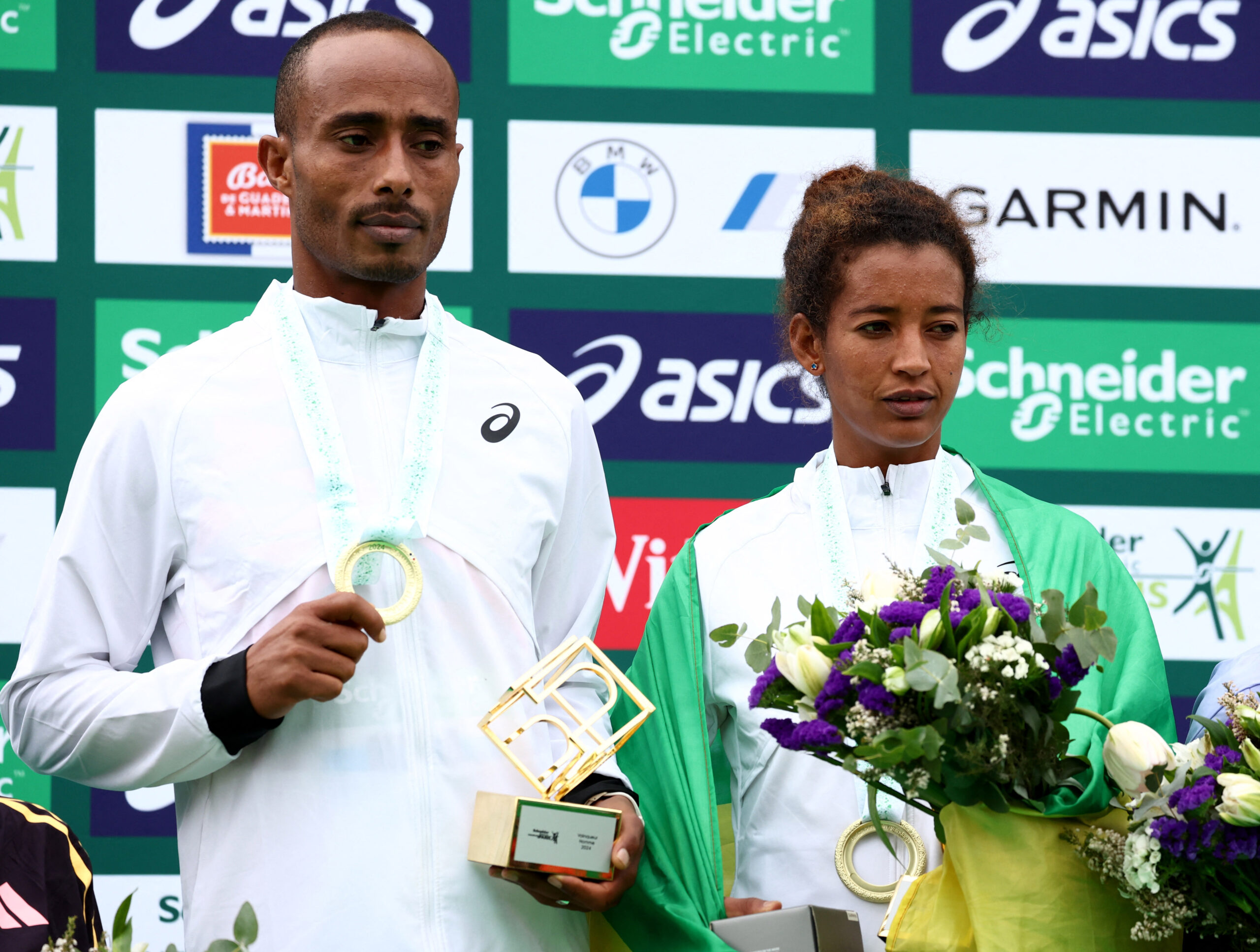
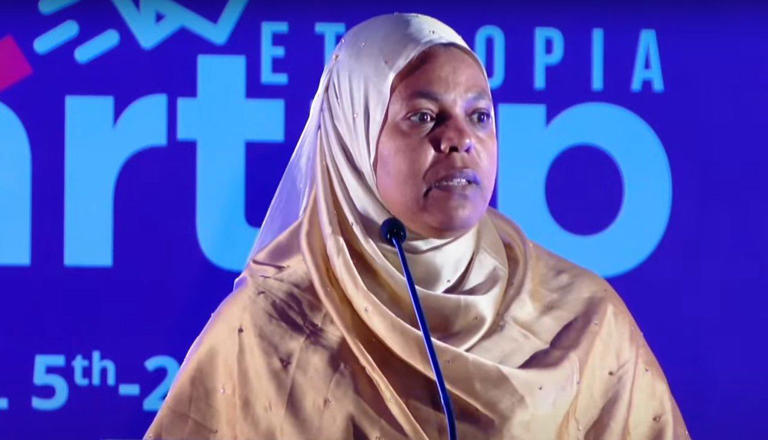
Ethiopia Aims to Become African Leader in Startup Innovation
Ethiopia is setting its sights on becoming a continental leader in startup innovation.
Following the launching of the Startup Ethiopia Forum yesterday in the presence of Prime Minister Abiy Ahmed, a panel discussion was held at the Science Museum today.
Speaking on the occasion, Labor and Skill Minister Muferihat Kamil emphasized the government's proactive approach in supporting startups.
The minister also stressed the crucial role of collaboration between government institutions, the private sector, and international partners in nurturing the young businesses.
Industry Minister Melaku Alebel pointed out on his part the strategic importance of startups, particularly those in the technology sector.
"ICT is among the top priorities of the economic sector, and these startups will catalyze progress in other sectors," he added.
He also underscored the need for an enabling environment, including access to finance and international networks, to empower Ethiopian startups and contribute to the country's economic development.
Innovation and Technology State Minister, Baysa Bedada said "the enabling conditions the government has been creating since the reform implemented has been creating fertile ground for startups in the country to increase into an impressive 900 from 50 before the reform a few years ago."

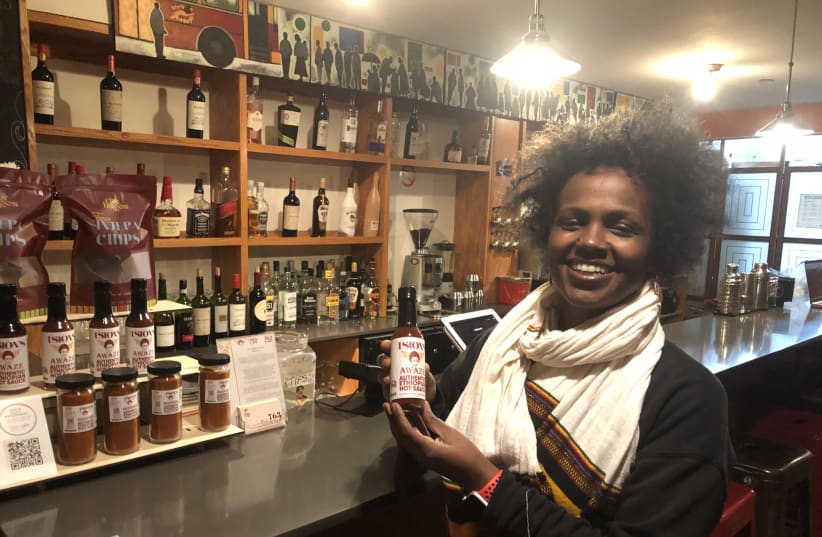
Tsion Café: Ethiopian Israeli kosher vegan food in Harlem, New York
At Tsion Café – an Ethiopian vegan kosher restaurant situated in a somewhat unlikely location for those in search of kosher – the fresh, well-seasoned food, which includes dishes featuring such names as injera, sambusa, wot, messer, shiro, atakilt, and gomen, is only a small part of the experience. The African art, eclectic collection of books, piano, occasional poetry nights, elaborate bar, homemade Ethiopian spices and foods available for purchase – and, of course, the chance to schmooze with the restaurant’s Ethiopian Israeli New Yorker owner Beejhy Barhany – make this restaurant one of a kind in the New York and perhaps North American kosher scene. The café, which opened in 2014, recently came under kosher vegan certification after previously serving such (non-kosher and obviously non-vegan) dishes as filet mignon and shakshuka. It is located in Sugar Hill, the iconic 10-square block historic area in Manhattan’s Harlem and Hamilton Heights neighborhoods. Sugar Hill became a popular place for wealthy African Americans to live during the Harlem Renaissance of the 1920s and ‘30s.

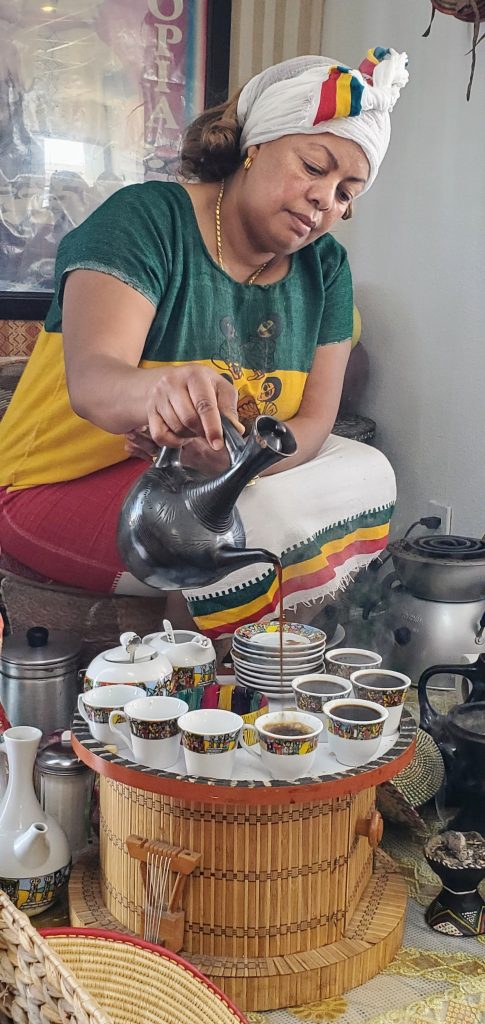
Regaining the art of conversation through an Ethiopian coffee ceremony
Yes, it has been a few years since life returned to pre-pandemic times, but we mostly talked to our housemates, our pets, or ourselves during lockdown. We need to rekindle the art of conversation and coffee may be the answer. Specifically Ethiopian coffee. With the help of conversation cards that are passed around to participants, conversation starts and new friends are met. The Ethiopians use coffee as a daily ritual to connect with neighbors, friends and family gathering to share stories, and news and stay connected. It is a sign of respect, friendship and hospitality to be invited to coffee. The Addis Ethiopian Cafe is recreating the coffee ceremony on Saturday and Sunday mornings to bring people together and create community. Traditionally, a woman presides over the coffee ceremony. This is a high honor and reserved for the matriarch of the family. The ceremony starts with incense while the woman roasts green coffee in a flat roasting pan on a coal burner. The room quickly fills with the fragrance. The roasted beans are carried around the room for all to enjoy the aromas. Guests sit in a semi-circle around the area where the coffee is brewed. Guests pass around conversational question starter notes with questions to encourage thoughtful answers. Some questions like what is your greatest achievement? What do you want to be remembered for? Conversation and laughter are encouraged. Next comes the cooling and the grinding of the beans before being poured into a traditional “jebena” a clay pot with a long spout – to hinder the grounds from escaping into the small, handle less coffee cups. The host pours the coffee along with snacks, which are traditionally popcorn, bread, or roasted barley.

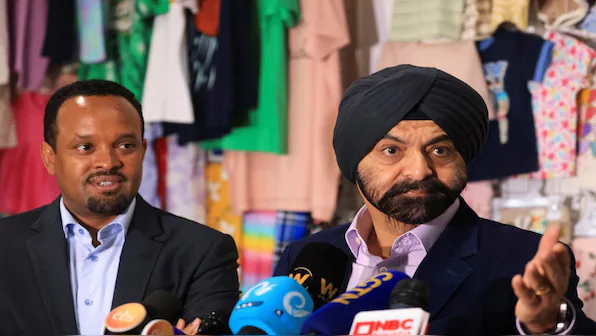
World Bank loans Ethiopia $1.72 billion for power, water supply expansion
According to the finance ministry on Friday, Ethiopia and the World Bank have inked loan agreements worth a combined $1.72 billion to improve the country’s water and energy supplies and to make it easier for food to reach markets. According to a statement from the ministry, the bank would provide $523 million to improve the generation of renewable energy and develop the country’s electrical grid in the Horn of Africa. According to the announcement, an extra $500 million would fund two initiatives that will increase access to food markets by enhancing rural road networks.


Ethiopia exceeds import targets for electric vehicles
From initially planning to import 148,000 electric cars and 48,555 electric buses by 2030, the new target for 2030 is now 439,000 electric vehicles. What is not entirely clear is whether “electric vehicles” include both buses and cars. Either way, it’s a vast increase, owing to the unexpected demand for electric vehicles in Ethiopia.
The Ministry of Transport has created various tax incentives to accelerate the East African country’s transition to electric mobility with imports. According to the Minister of State for Transport and Logistics, Bareo Hassen, these include allowing electric vehicle parts to be imported into the country duty-free. Partially assembled electric vehicles that are finally assembled in Ethiopia are subject to a five per cent import tax, and fully assembled electric vehicles are subject to 15 per cent.
Although the import duties for combustion engines are not specified, Hassen only states that the new electric car rates are “significantly lower compared to the tax on petrol-powered vehicles”. The low tariffs are not only intended to boost the uptake of electric vehicles in the country, but also to encourage the private sector to invest in the import and final assembly of electric vehicles.

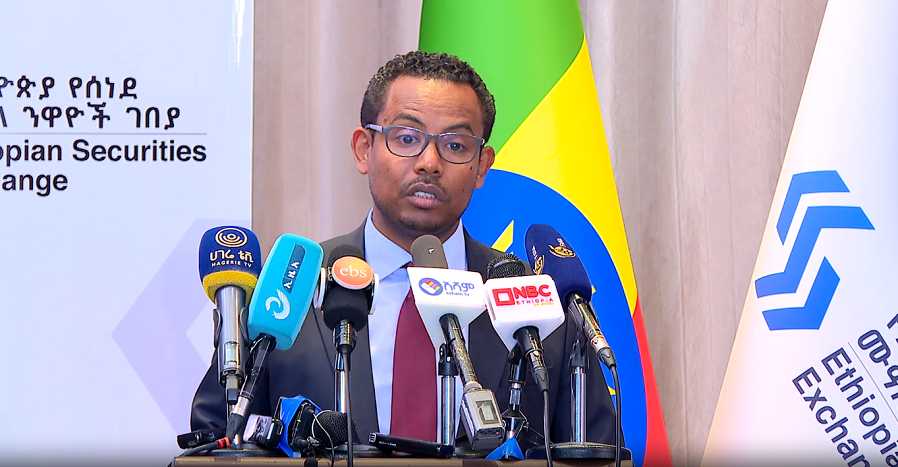
Ethiopia’s Stock Market Surpasses Capital Target by 240%
Ethiopia’s plans to launch a stock market are taking shape, after the Ethiopian Securities Exchange (ESX) announced it had surpassed its capital-raising phase by over 200%.
- ESX was founded in October 2023 and is set to be the country’s first fully fledged securities market.
- Its founding shareholder is an investment arm of the Ethiopian government.
- ESX initially aimed to raise US$11.07 million, but it announced on Thursday that it had obtained US$ 26.6 million.

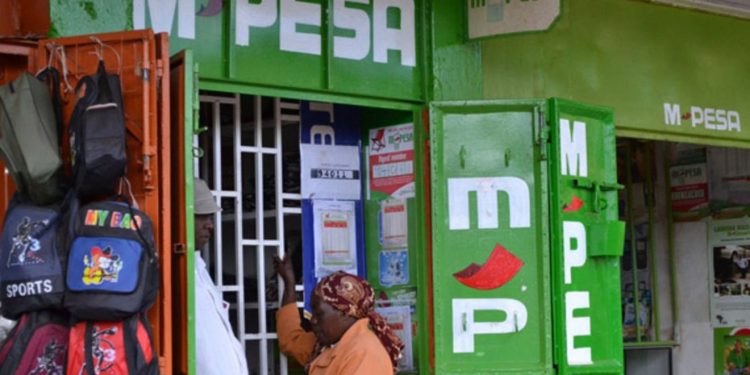
Plan to Separate M-Pesa from Other Safaricom Businesses on Course-CBK
The Central Bank of Kenya (CBK) says plans to separate M-Pesa from other Safaricom businesses is still on course, and a meeting with the telecommunication company’s board over the matter will happen in the near future.
- In 2022, CBK held talks with telecommunication companies with a view to separating mobile money activities from other businesses to enhance governance and minimize shocks on bank-related transactions.
- A bill before Parliament – Kenya Information and Communications (Amendment) Bill 2022 – is also seeking to make telcos have separate accounts and produce different reports for all their businesses.
- Safaricom’s M-PESA services continue to be the key cash cow for the business, contributing 42.1 per cent of the telcos revenue in the six months to 30th September 2023, up from 39.3 per cent in the same period in 2022.

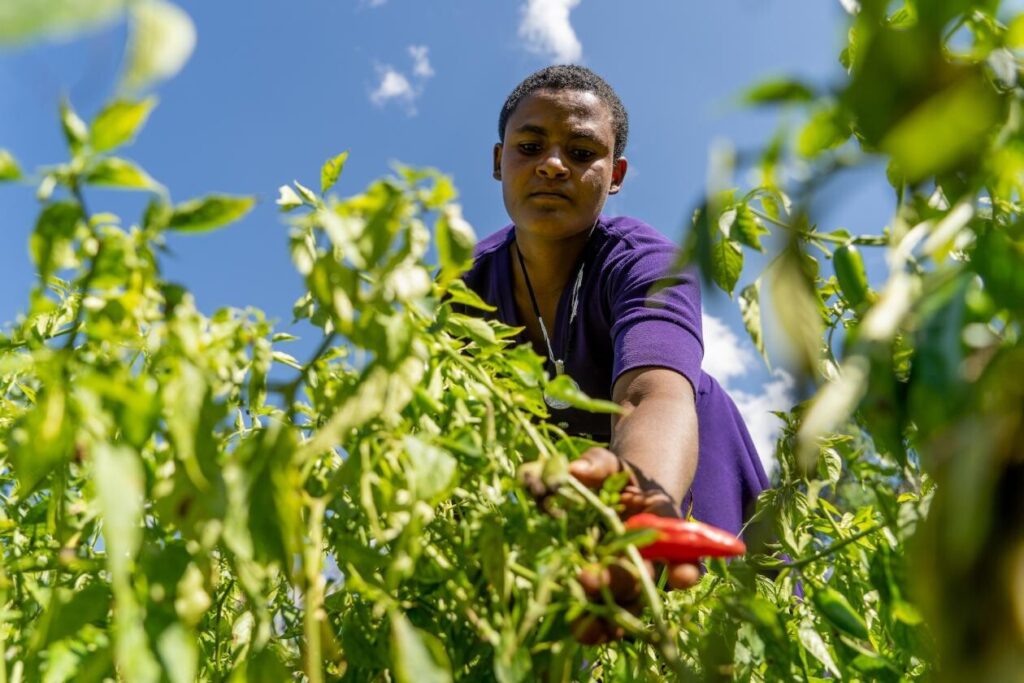
Water inequity lessons from Ethiopia’s Tana Watershed
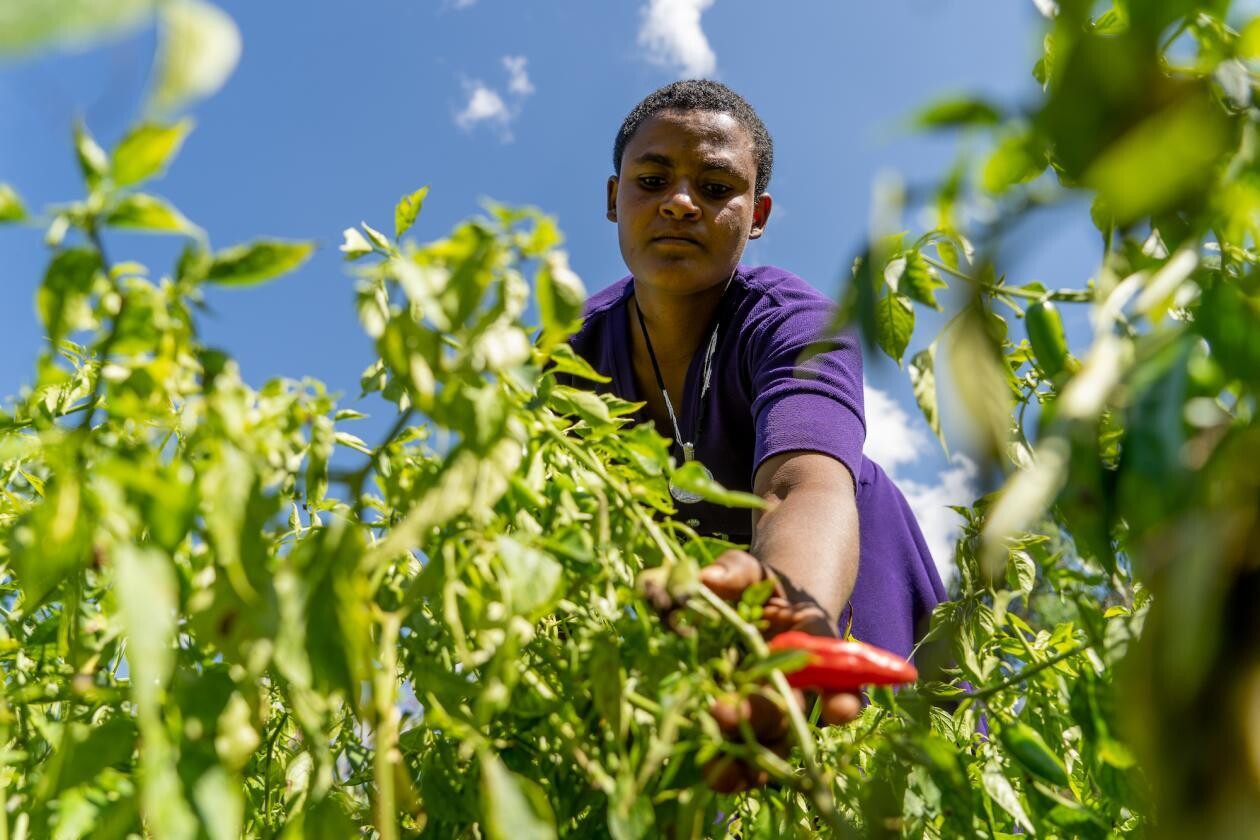

Could Ethiopian emperor’s stolen clothes be found in Manchester?
A historian is trying to solve the puzzle of what happened to an African emperor's garments that were stolen 156 years ago - and believes they may have found their way to Manchester. Emperor Tewodros II had his prized coat and scarf ripped from his body during a British invasion of Ethiopia in 1868. Andrew Heavens is urging people to check their attics as he believes parts of the items may be lost in the city. He said finding any relic of the emperor would be "a huge deal". Ethiopia is appealing for the return of any artefacts taken during the battle "in the same way Greece wants the Elgin Marbles back", Mr Heavens said. Britain's invasion saw soldiers charging into the east African mountain kingdom of Abyssinia - now known as Ethiopia - in a bid to free European captives. Defeating the emperor, who took his own life amid the destruction, the British then fled, taking with them various treasures including gold crowns, illuminated manuscripts and sacred carvings. They also ripped up the emperor's scarf and coat, and cut off locks of his hair for souvenirs.

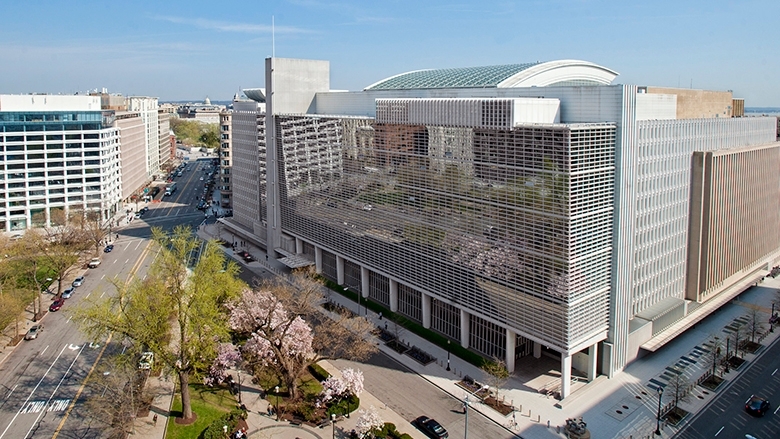
World Bank Boosts Ethiopia’s Electricity Access with New Program
A new World Bank program is set to strengthen and expand the electricity network, improve sector financial viability, and enable renewable energy generation through private sector participation in Ethiopia. Ethiopia has the third largest energy access deficit in Sub-Saharan Africa with about half the population still without access to reliable electricity. Over the past decade, the Government of Ethiopia has made encouraging progress on its electrification program and expanded the grid network coverage to nearly 60% of towns and villages. Yet the electricity deficit in Ethiopia continues to exacerbate the poverty situation, preventing far too many people from fulfilling their basic socio-economic needs and limiting access to opportunity. For Ethiopia to continue to ramp up electricity access through grid connections, it is essential that the electric utilities and backbone infrastructure are fit for purpose. "Transforming the electricity sector in Ethiopia requires a medium-term approach to address interlinked structural and operational challenges and send a strong signal to the private sector. Through this program, the World Bank will partner with Ethiopia over the next 10 years with a financing envelope of up to $1.4 billion, to help the government crowd in other development partners and the private sector," said Wendy Hughes, World Bank Regional Director for Infrastructure for Eastern and Southern Africa.


Ethiopian Airlines Announces Expansion Plans and New Routes
Ethiopian Airlines is taking off for a major expansion, adding new routes in Africa and Europe alongside increased flight frequencies. The airline's CEO recently announced plans to boost its domestic and international reach. More planes are on the horizon too, with Ethiopian Airlines acquiring additional Boeing aircraft to complement existing Airbus orders. The focus on expansion is clear, with Freetown, Sierra Leone, Warsaw, Poland, and cities in Botswana being eyed for new routes. The airline is committed to continual growth, and additional destinations will be evaluated for potential inclusion. Ethiopian Airlines has already hit the ground running this year with new flights to London Gatwick, Madrid, and Bangui, demonstrating its commitment to expansion. Looking ahead, the airline has ambitious plans to become a major global player. Its vision by 2035 includes reaching USD 25 billion in annual revenue and serving a staggering 67 million passengers. To achieve this, the airline plans to double both its fleet and destinations by that same year.


Addis Ababa celebrates Ramadan with its grand annual Iftar
Ethiopian Muslims gathered in large numbers in the country's capital, Addis Ababa, for the annual Grand Street Iftar, the meal that Muslims have when they break their fast in Ramadan. Preparations for the event unfolded throughout Wednesday and members of the community broke bread together later on thursday, celebrating the communal spirit of Ramadan. Muslims around the world are observing the holy month with worship, charity and dawn-to-dusk fasting. Organizers of the mass iftar anticipated a large turnout, mirroring the event's growing popularity over the past four years. Hikma Sani, a 17-year-old participant and volunteer coordinator, emphasized the importance of the spirit of community during Ramadan and the responsibility to support each other during the month of fasting. The exact date of the Grand Street Iftar depends on the sighting of the crescent moon, but it often falls on the 17th day of the holy month. This specific date holds special meaning for Ethiopian Muslims, as it marks the 7th century victory of Prophet Muhammad and his followers in the Battle of Badr, explained Abubeker Ahmed, a respected Islamic scholar and Grand Street Iftar coordinator. The date also coincides with Ethiopia's triumph over the Italian army at Adwa in 1896, when Ethiopian Muslim warriors bravely fought while observing the Ramadan fast, Ahmed said. The mass iftar offers participants a communal experience as they share a meal featuring traditional Ethiopian dishes such as injera bread, stews and vegetables.

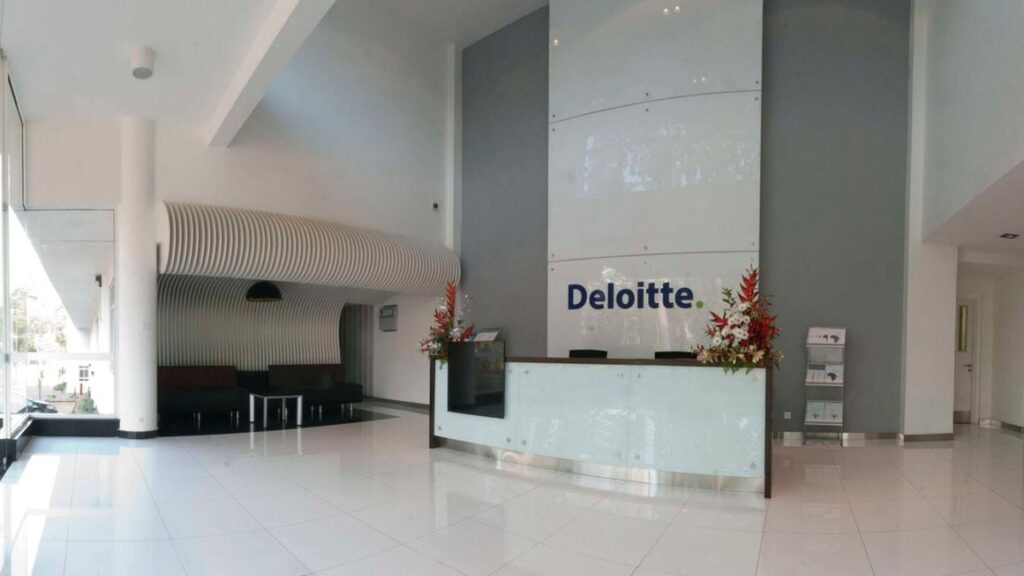
Deloitte gets investment adviser space in Ethiopia
Audit and consultancy firm Deloitte is the first entity to secure a securities investment adviser licence for operation in Ethiopia ahead of the formal launch of the country’s Securities Exchange slated for the third quarter of this year. Deloitte applied for the licence out of its Nairobi office and has registered an office in Ethiopia to start operations in the budding capital markets. “We are thrilled to be the first licensed securities adviser in Ethiopia. This achievement underscores our commitment to the country's capital market growth and demonstrates our dedication to supporting our clients in the region,” said Tewodros Sisay, Deloitte Africa Advisory leader. “We are well-positioned to support businesses in Ethiopia to thrive and succeed in today's fast-paced and ever-changing business environment." According to Ethiopia’s Capital Markets Authority (ECMA), the debut issuance is earmarked to be the listing of 10 percent of the State-owned Ethiotelecom whose latest disclosures reveal that it registered ETB 11.0 billion ($193 million) in net profit for the six months ended December 2023.


Ethiopian scholars foster cultural exchanges between China, Ethiopia
When Melaku Mulualem first arrived in China in 2011 to study at the China Foreign Affairs University, little did he know that this journey would be the beginning of a transformative experience, leading him to become a cultural ambassador between two nations thousands of kilometers apart.
Reflecting on his initial impressions of a "completely different China," Mulualem, now a senior researcher in international relations and diplomacy at the Ethiopian Institute of Foreign Affairs, acknowledged that his time in China not only broadened his academic horizons but also deepened his understanding of Chinese culture and its people.
"Before studying in China, my knowledge of the Chinese people and government was limited. But now, I am proud to be one of the few scholars who have published a book on Ethiopia-China relations," Mulualem said.
The book, "Africa-China Relations - Ethiopia as a Case Study," was published recently with support from the Chinese Embassy in Ethiopia. It highlights the diverse and historic ties between China and Ethiopia, as well as the broader China-Africa relations, exploring various aspects of engagement between the two sides.
Since his initial educational journey to China, Mulualem has returned to the Asian country seven times, participating in international seminars, training programs and other events. Through these experiences and engagements with Chinese counterparts, he has developed a profound understanding of China and its people, fueling his desire to bridge the cultural gap between Ethiopia and China.
Mulualem believes that Ethiopian and Chinese scholars, particularly those familiar with each other's cultures, have a dual responsibility to serve as bridges and shape the narrative of the mutually beneficial relationship between both sides.

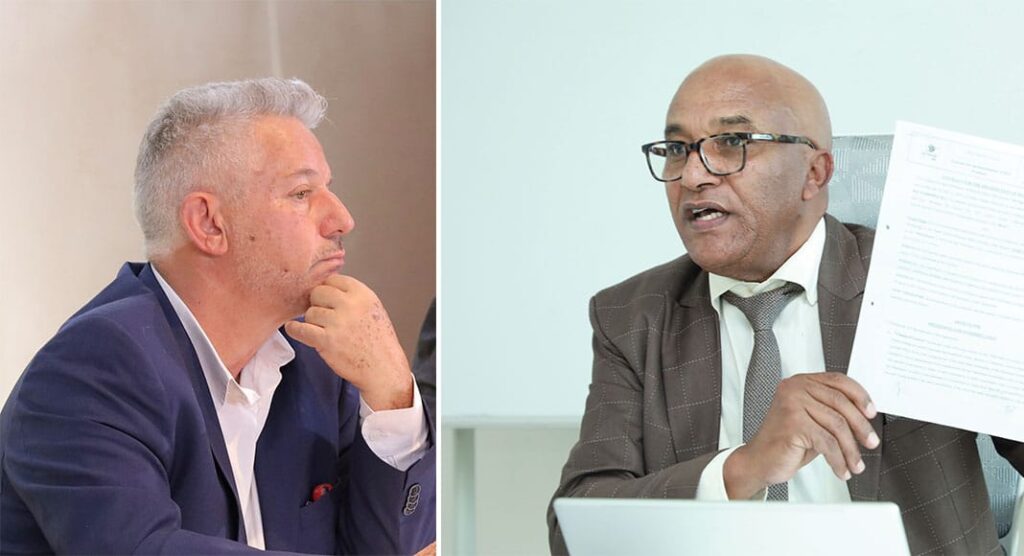
BGI Ethiopia, distributors’ spat escalate as court orders injunction on new distribution contracts
BGI Ethiopia’s legal wrangling pile up as the brewer adds a lawsuit from some of its largest distributors to the property sale saga with Purpose Black. Fourteen leading BGI distributors, accounting for nearly half of its network, accuse the company of a breach of contract by awarding their distribution market segments to new players. The distributors filed a legal suit in December 2023, seeking an injunction order on BGI’s new distribution contracts. The injunction has been granted. “We have a two-year contract with BGI to distribute its products in market segments assigned to us,” said Sintayehu Gebresellassie, president of the distributors’ association. “Legally, we have a year and a half before BGI gets the window to decide whether to onboard new distributors or continue with us. But BGI has overridden the contract and started giving away our market to new distributors.” The Reporter has confirmed BGI and the original distributors entered into a contract in July 2023. Members of the association have presented transaction receipts that indicate the new distributors contracted by BGI have already begun work in market segments assigned to their predecessors. Attorneys representing BGI Ethiopia filed a request for a reversal of the injunction with the Federal First Instance Court last month. Judges have rejected the plea.
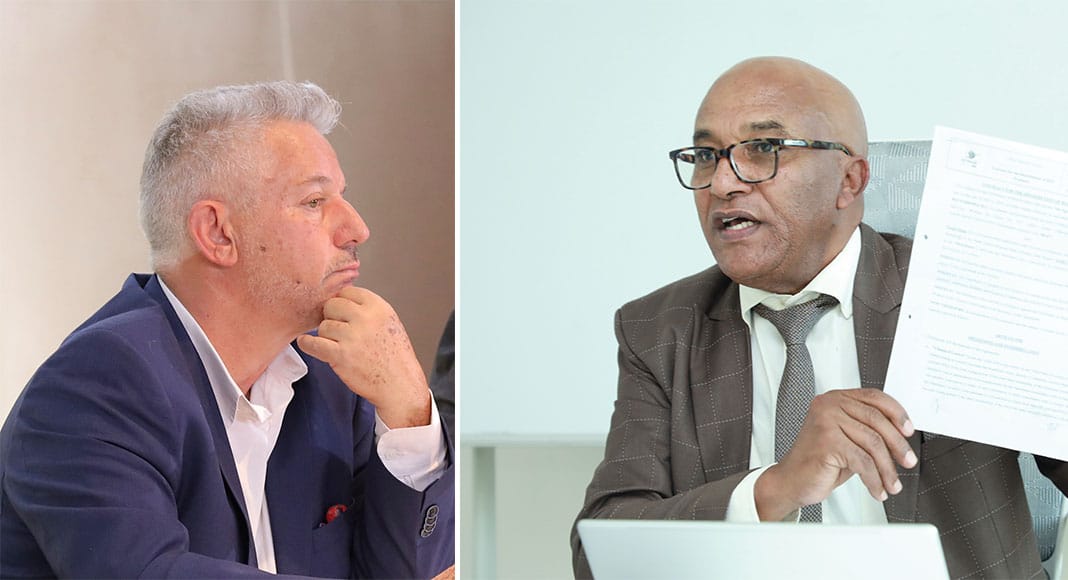

Dutch investment in Ethiopia surpasses one billion USD
Addis Ababa, March 27/2024 (ENA) Dutch businesses in Ethiopia have invested at least one billion USD, making substantial contributions to Ethiopia's economic growth, Henk Jan Bakker, Ambassador of Netherlands to Ethiopia said. Highlighting the significant Dutch business presence in Ethiopia, the ambassador told ENA that nearly a hundred Dutch companies have invested in various sectors. Notably, the horticulture and floral industries have emerged as a prime destination for Dutch investments, contributing significantly to Ethiopia's foreign exchange earnings. These investments have propelled the Netherlands to become one of the largest destinations for Ethiopian exports, accounting for 10% of the country's total exports, Ambassador Bakker said. Dutch investments in Ethiopia primarily focus on agriculture, particularly horticulture and flowers, he said.

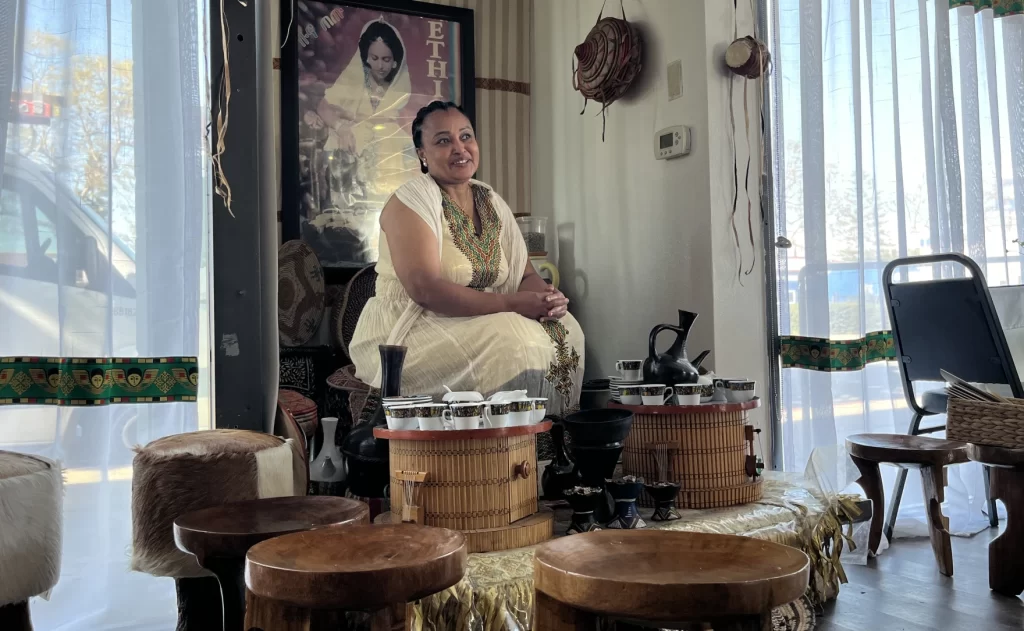
Ethiopian coffee ceremonies served Saturdays in San Diego
From no frills black, to lots of cream, sugar and flavorings, coffee can take many forms. But some are more powerful and sacred than others. That includes the version that comes from the birthplace of coffee. “This is traditional Ethiopian coffee. This is a coffee ceremony,” said Alemtsehay Dagne, while roasting coffee beans over a specialized pan. Dange and her husband Fekadu Engedaw operate Addis Restaurant in San Diego. The couple recently relaunched traditional Ethiopian coffee ceremonies at their establishment. “We're here for everybody. This is welcoming for everybody. This is everybody's house,” Dagne said. They said the ceremonies are a way for them to stay connected to their culture and share it proudly with others.
Engedaw explained how even the word ‘coffee’ ties back to a region in Ethiopia.
“Coffee, from Kaffa. The place Kaffa — so in the name also,” said Engedaw. “We bring from that area the original one, the organic one. And then we produce here and then serve the community.”
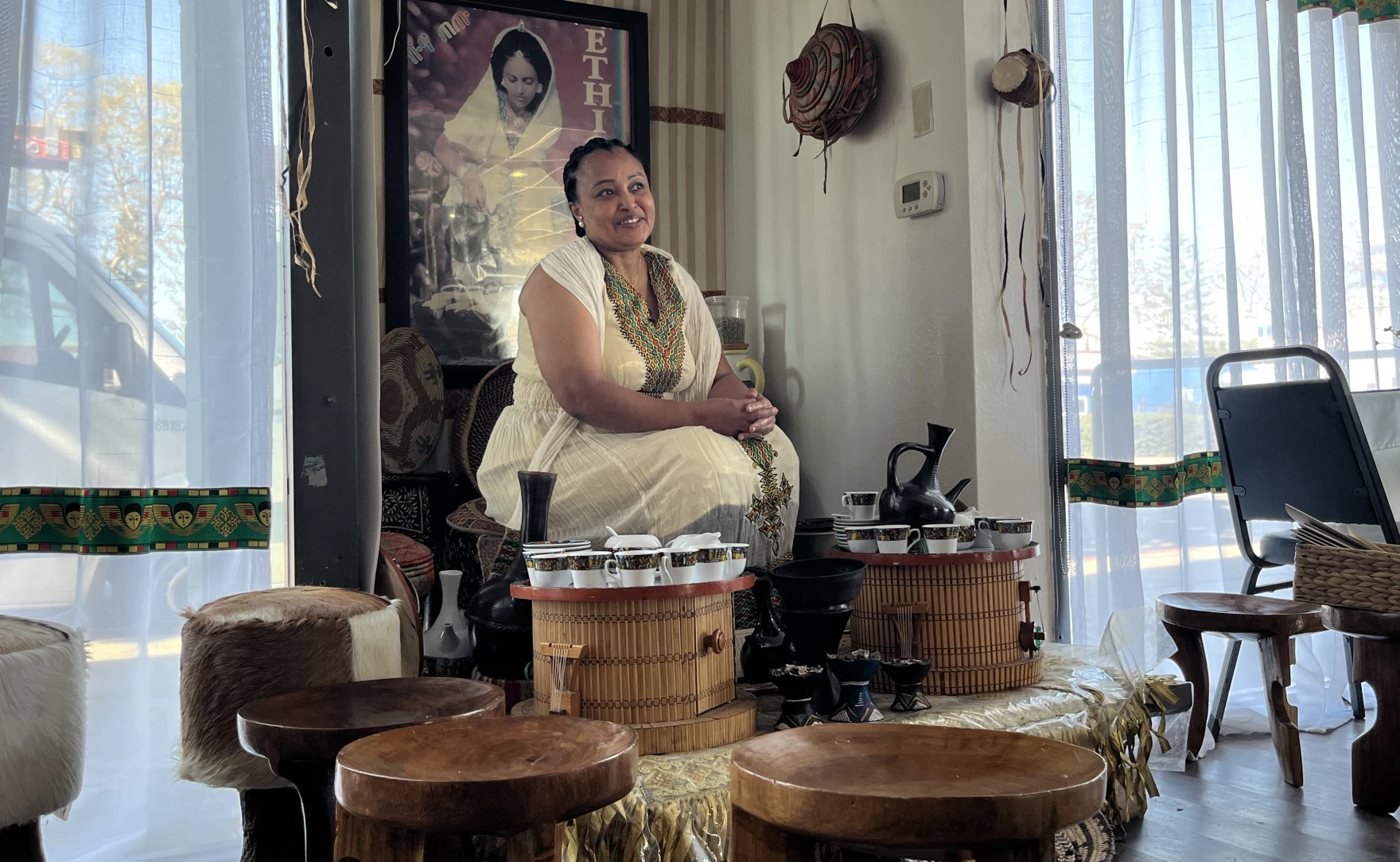
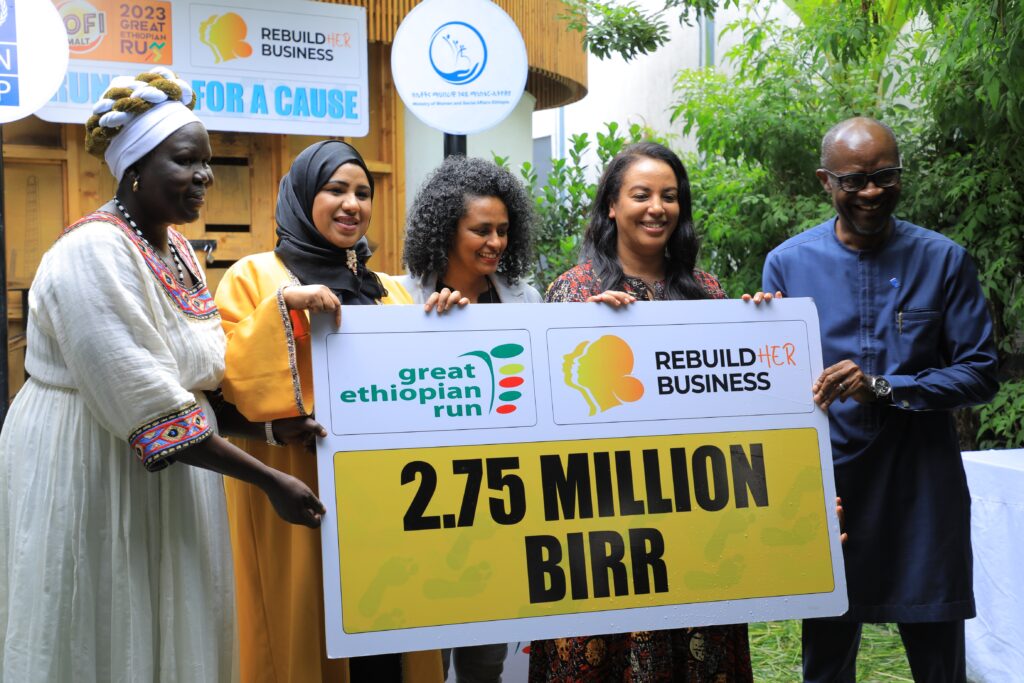
Rebuild Her Business – More than 750 female-led businesses to benefit in northern Ethiopia
28 March 2024, Addis Ababa: More than 750 women-led businesses impacted by the conflict in Afar, Amhara, and Tigray will receive support from resources mobilized through a UNDP crowdfunding campaign in partnership with the Ministry of Women and Social Affairs and the Great Ethiopian Run (GER).
UNDP, with fundraising implemented by GER, and with further contributions from the Ethiopia Diaspora Trust Fund (EDTF), the Japanese government, and other individuals secured $388,922.37 to support approximately 775 women out of an initial target of 1000 women-led business in the Rebuild Her Business crowdfunding campaign.
GER raised USD$50,000 (ETB 2,752,409.00) from its annual charity campaign known as “Running For A Cause” as part of its international 10km road race; USD $50,000 came from the Ethiopia Diaspora Trust Fund (EDTF), a non-for-profit organization incorporated in the USA that creates a powerful connection between those in need in Ethiopia with the diaspora; $288,500 from Japan Government and $1,816 (ETB 109,060.86f) from individual contributors.
“Rebuild Her Business generated one of our best ever responses to our annual charity campaign,” commented Dagmawit Amare, Managing Director of GER. “With our races we are always trying to bring communities together and promote development. These funds will help hundreds of women whose work is vital both to their own families and communities. We are delighted with the results of this initiative.”
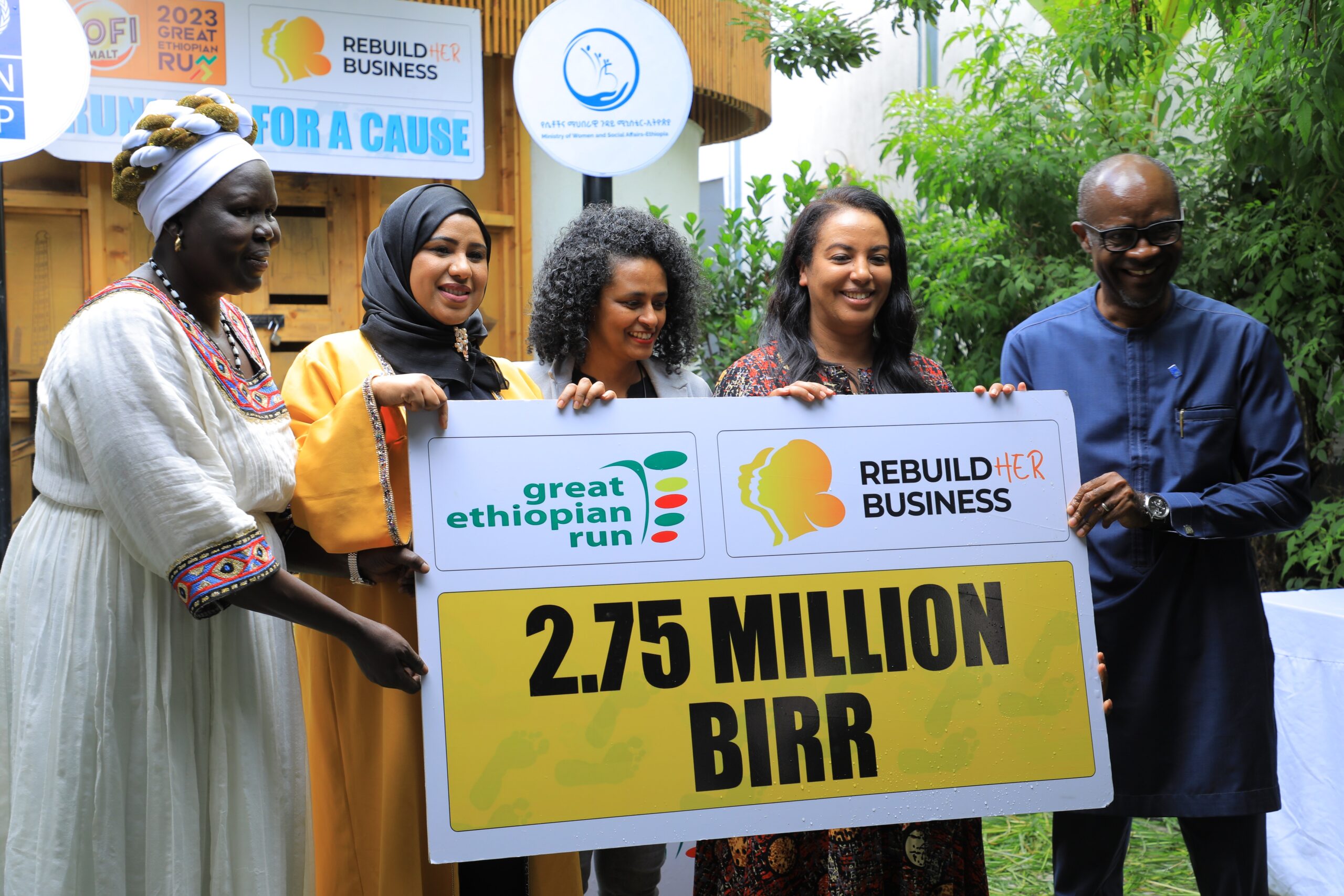

Who Is Ethiopia Habtemariam? The Former Motown CEO Tied To The Diddy Case
As is often the case with those behind the scenes, Ethiopia Habtemariam is not a name many are familiar with. However, the 44-year-old has been actively working in the music industry since she was a teenager in the ‘90s. Over the years, she rose through the ranks and came to command much respect and admiration, eventually becoming the CEO of the renowned Motown Records. However, Habtemariam’s name is now linked to Diddy’s infamous case. As the music mogul remains under investigation following the wave of allegations made against him by Rodney Jones, it’s anyone’s guess how the former Motown CEO is involved. Nonetheless, in an amended complaint filed to the court, Ethiopia Habtemariam reportedly agreed to testify in Jones' lawsuit about Diddy's The Love Album: Off The Grid. Court documents reveal that Habtemariam entered an agreement with Jones to "dismiss all claims" against the Motown CEO in the suit "without prejudice," NBC reports. While we wait for the story to unfold, here’s what we know about Ethiopia Habtemariam. Born on September 24, 1979, Ethiopia Habtemariam is an Ethiopian-American businesswoman and music executive. She was born in Berkeley, California, where she spent her early years and developed an interest in pursuing a career in the music industry. Not one to let her dreams die, she decided to act upon this desire, and very early too.


Only in Oklahoma: Ethiopia’s emperor paid visit to state


Amazon teams with Stripe in retail, M-Pesa adds support for Ethiopia
Safaricom’s M-Pesa to power Ethiopia-bound remittances

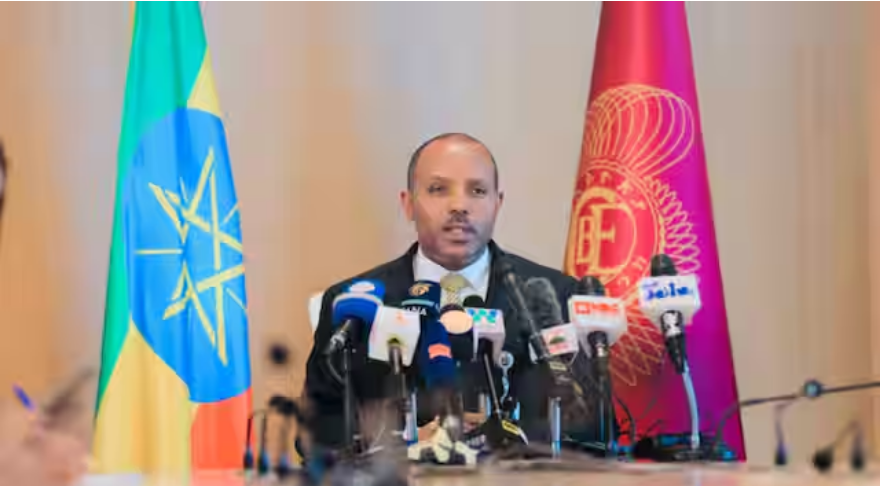
The Commercial Bank of Ethiopia Heist in Figures
Ten days have passed since a glitch rocked the Commercial Bank of Ethiopia, causing significant disruption in Ethiopia’s financial sector. The system error, which occurred on March 16, 2024, allowed users to transfer funds exceeding their account balances and withdraw money from ATMs despite insufficient funds. The bank’s been tight-lipped about the exact numbers, saying they’re still investigating. But today, President Abe Sano of CBE finally held a press conference to spill the tea. The President revealed that retrieving the cash withdrawn from ATMs proved challenging, especially since some of the money had already been spent. And as initially alleged, nearly half of the stolen funds were traced back to university students, prompting the bank to even contact their parents for assistance. The minimum amount stolen was less than 5 birr, while the maximum amount stolen reached 304,000 birr. The glitch lasted from 9:38 p.m. to 2:45 a.m., totaling 5 hours. In total, the amount stolen amounted to 800 million birr. The scale of the illicit transactions was large, with 25,761 accounts involved and a total of 238,000 transactions recorded. Despite these challenges, efforts to recover the stolen funds have seen some success. As of the latest update, 623 million birr, representing 78% of the lost funds, have been recovered.

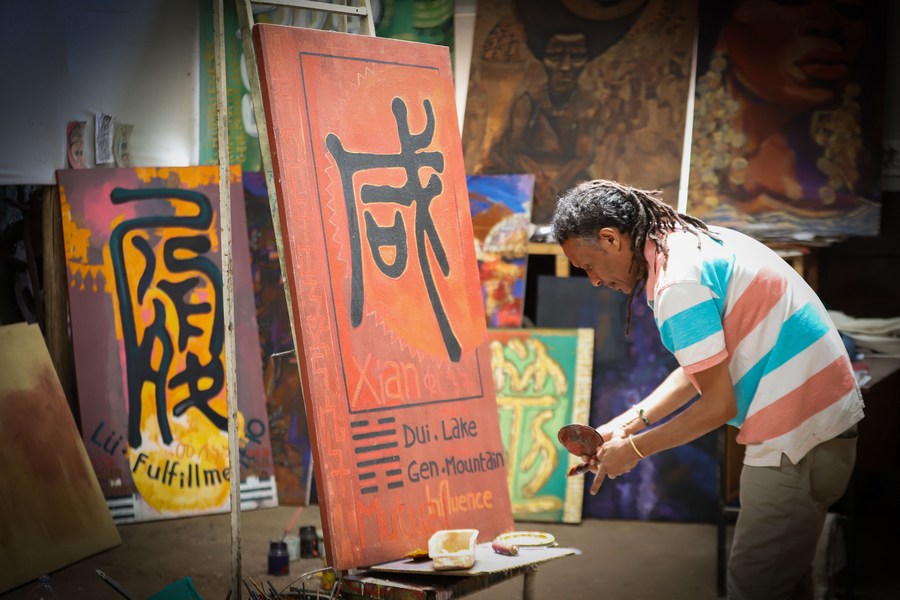
Ethiopian artist’s artwork takes inspiration from Chinese classic I Ching
Standing in front of a canvas in an art gallery in the heart of Addis Ababa, Ethiopia's capital, 50-year-old artist Dawit Muluneh is fully absorbed in the painting of ancient Chinese characters.
ADDIS ABABA, March 26 (Xinhua) -- Standing in front of a canvas in an art gallery in the heart of Addis Ababa, Ethiopia's capital, 50-year-old artist Dawit Muluneh is fully absorbed in the painting of ancient Chinese characters.
Surrounding him are collections of his artwork based on the Chinese classic "I Ching," or the "Book of Changes." The book has existed for more than 2,000 years and remains a source of Chinese culture.
ADDIS ABABA, March 26 (Xinhua) -- Standing in front of a canvas in an art gallery in the heart of Addis Ababa, Ethiopia's capital, 50-year-old artist Dawit Muluneh is fully absorbed in the painting of ancient Chinese characters.
Surrounding him are collections of his artwork based on the Chinese classic "I Ching," or the "Book of Changes." The book has existed for more than 2,000 years and remains a source of Chinese culture.
"I Ching means truth and is founded on the eight gifts of nature, namely heaven, earth, thunder, wind, water, fire, mountain, and lake. In general, I Ching explains the wisdom of nature," said Muluneh in a recent interview with Xinhua at the art gallery called Medemer Africa Art and Sculpture Space.
The artwork collection, consisting of 64 paintings that represent 64 divinatory symbols in the book, portrays the day-to-day interaction between man and nature, and imparts knowledge and feelings to visitors with descriptions written in Chinese, English, and Amharic (Ethiopia's working language).
Although Muluneh does not speak Chinese, he became immediately interested in I Ching a few years ago after his friend Gossa Oda, also the gallery owner, introduced him to "The Complete I Ching," a book that explains the ancient Chinese masterpiece in English.

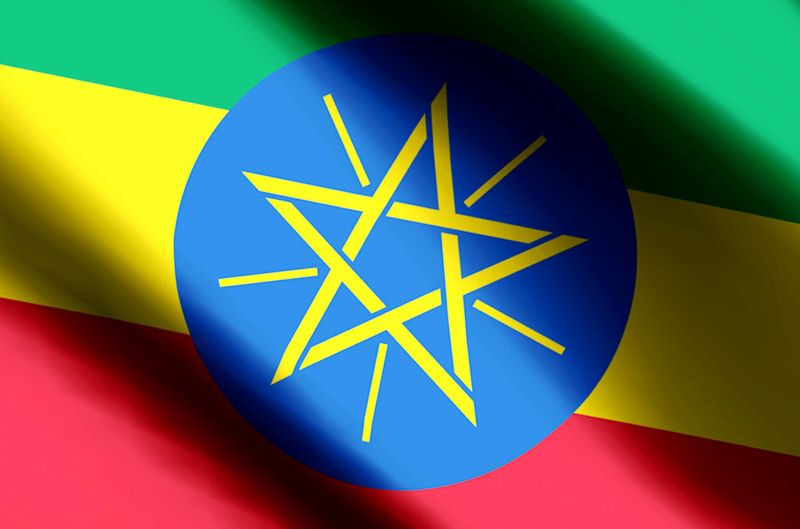
KEFI advances Tulu Kapi Gold Project launch in Ethiopia
KEFI Gold and Copper is preparing for a robust launch in the Tulu Kapi Gold Project in Ethiopia, with key financing milestones and regulatory changes enhancing funding structures. The development budget of $320 million, excluding a $100 million historical equity investment, has been secured at the subsidiary level. Following final approvals from the lead bank, all parties have initiated formal approval processes, including progress with the co-lending bank and local equity-capital investors. Recent regulatory changes have improved the equity funding structure, lowering overall finance costs. These include foreign exchange exemptions, an increase in the debt-to-equity ratio from 70:30 to 80:20, and the re-investment of local currency retained earnings into new business sectors as foreign direct investment. Within the development capital budget of US$320 million, US$100 million will be provided through the issuance of two types of Equity Risk Notes (“ERN”), one type for MNC’s with no operations in Ethiopia and another lower-cost ERN for those with accumulated retained earnings in Ethiopian operations.

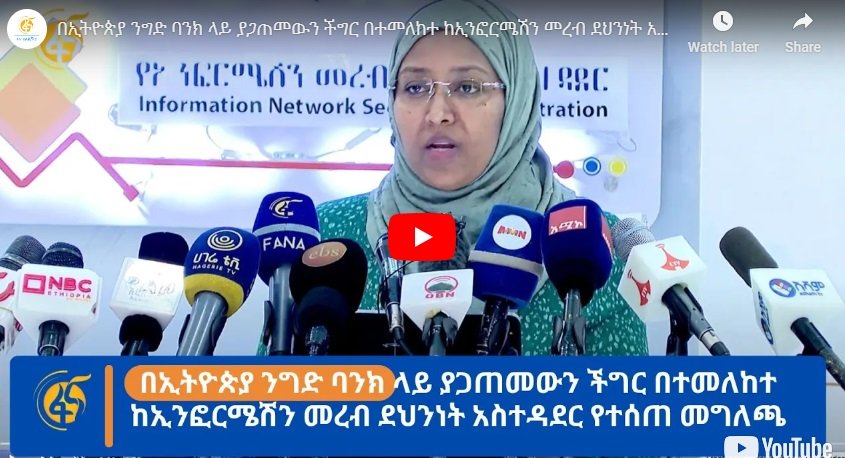
Ethiopia’s Information Network Security Administration says “disordered code” was used in CEB mobile system
Ethiopia’s Information Network Security administration (INSA) – it is like the cyberwing of Ethiopia’s intelligence system – on Friday remarked about the Commercial Bank of Ethiopia “system glitch.” Tigist Hamid, Director, said INSA has been responding to the “system glitch” to the digital banking system of the commercial bank of Ethiopia since it was reported on March 16. She added “We have been doing a cyber security check and we were able to confirm that the glitch has nothing to do with a cyber attack.” However, said INSA, we have done a detailed analysis of the issue that caused the problem. “The bank has made changes to its mobile banking to improve the system…but the logical flow of the source code was disordered.” Earlier this week, Commercial Bank of Ethiopia President , Abe Sano, said there was “a missing code.” It added that the system was releasing money without checking account balances of clients. Why the system was changed without a test of the new system or why the “logical flow” of the source code of the new mobile system was not tested before it was implemented is not addressed. Commercial Bank of Ethiopia has disclosed that over 490,000 transactions were completed in a few hours during the systemic glitch but it has not disclosed the total amount of money it lost. Sources indicate that somewhere between 5 and 10 billion birr was lost. The bank has started a campaign to recover it.

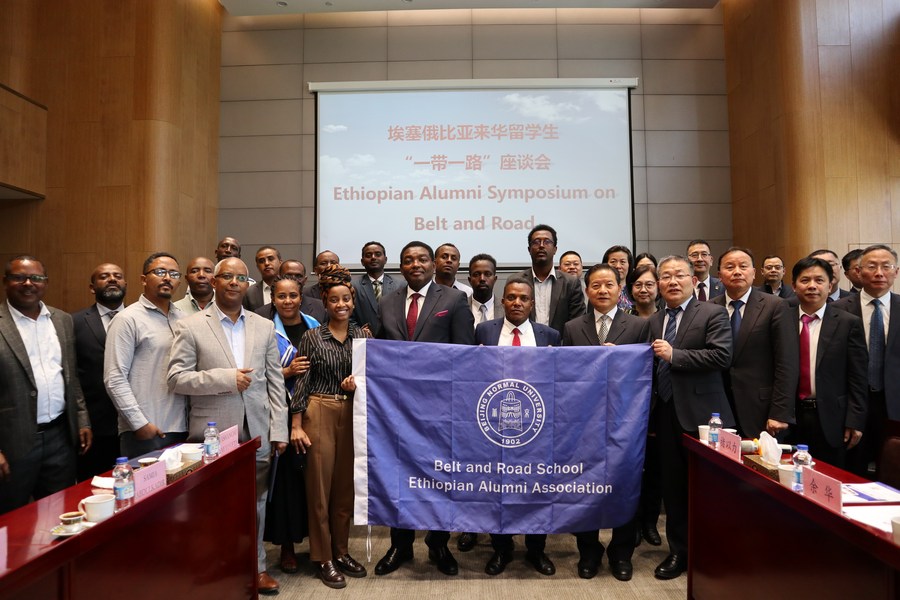
Ethiopian official urges stronger cooperation with China
A senior Ethiopian government official has called for further augmenting Ethiopia-China cooperation through common platforms and initiatives.
Ethiopia and China have enjoyed a longstanding relationship that spans over five decades, and there is a need "to enhance cooperation and foster enduring friendship between our two nations," Gebeyehu Ganga, director-general of the Middle East, Asia and Pacific Affairs at the Ethiopian Ministry of Foreign Affairs, told a symposium on the Belt and Road Initiative (BRI) held Wednesday in Addis Ababa, the Ethiopian capital.
He said Ethiopia is committed to further strengthening cooperation with China by harnessing the opportunities presented through the BRI and other China-proposed initiatives.


Ethiopia’s Chinese-built industrial park generates 20 mln USD in exports in 6 months
The Ethiopian government has generated about 20 million U.S. dollars in export revenue in six months from commodities produced at the country's flagship Chinese-built Hawassa Industrial Park, local media reported Tuesday.
ADDIS ABABA, March 20 (Xinhua) -- The Ethiopian government has generated about 20 million U.S. dollars in export revenue in six months from commodities produced at the country's flagship Chinese-built Hawassa Industrial Park, local media reported Tuesday.
The Hawassa Industrial Park is expected to generate about 44 million U.S. dollars from the export of commodities produced by manufacturers within its premises during the current Ethiopian 2023/2024 fiscal year, which started on July 8, the state-run Ethiopian News Agency (ENA) quoted Mathiwos Ashenafi, the park's general manager, as saying.
Located in Ethiopia's southern city of Hawassa, about 275 km south of the capital, Addis Ababa, the industrial park is regarded as the leading destination for foreign manufacturers in the East African country, mainly dedicated to textile, garment and apparel products.
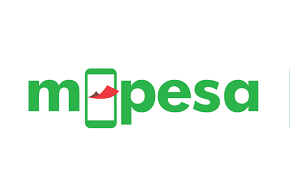
Onafriq and M-PESA sign deal to enhance Ethiopia’s remittance flow
The news:
- Onafriq, a digital payments service, and M-PESA, the Vodacom and Safaricom-owned mobile phone-based banking services, have signed an International Money Transfer Agreement.
- The partnership will see both fintechs collaborate to streamline remittance flows into Ethiopia.
- According to the agreement, Safaricom, which obtained the Payment Instrument Issuer Licence from the National Bank of Ethiopia in 2023, can now assist Ethiopians in receiving remittances via M-PESA, a mobile money transfer service.


Ethiopia shine on first day of athletics


Ethiopia bank glitch allows customers to withdraw millions. Here’s what happened
Over the weekend, Ethiopia’s biggest commercial bank witnessed a “systems glitch” which allowed customers to withdraw millions. The bank has since released a statement saying that there was no cyber attack and its security has not been compromised as it scrambles to recoup the large sums of money withdrawn.
What happened?

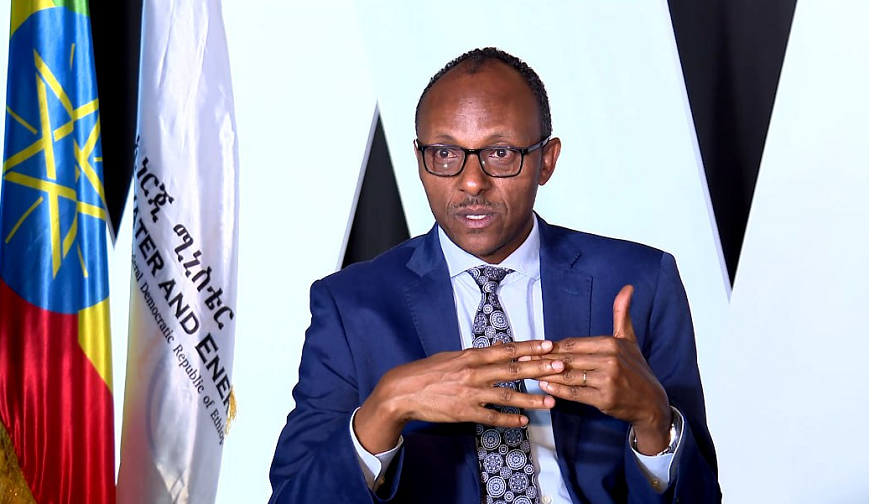
Ethiopia Obtains Over 1 Billion USD from Electricity Export
Addis Ababa, March 15/2024 (ENA) Ethiopia has earned more than 1 billion USD from electric power export to neighboring countries in 18 months, Water and Energy Minister Habtamu Itefa told the Ethiopian News Agency. In an exclusive interview with the agency, the minister stated that the revenue was generated during the months up until the end of 2015 Ethiopian fiscal year. According to him, the performance underscores the nation's burgeoning role as a regional energy powerhouse, catalyzing regional integration. While acknowledging fluctuations, Habtamu highlighted the growing demand for Ethiopian electricity, with recipient countries witnessing a 15 percent annual surge. We are successfully supplying energy to Sudan, Djibouti, and Kenya, the minister noted, lauding the pivotal interconnection between Ethiopia and Kenya's power grids that extend the possibility of exports as far as South Africa via the East African Power Pool. He further pointed out that "Ethiopia is blessed and conveniently positioned to provide clean, inexpensive electricity without harming the environment, fueling escalating demand."

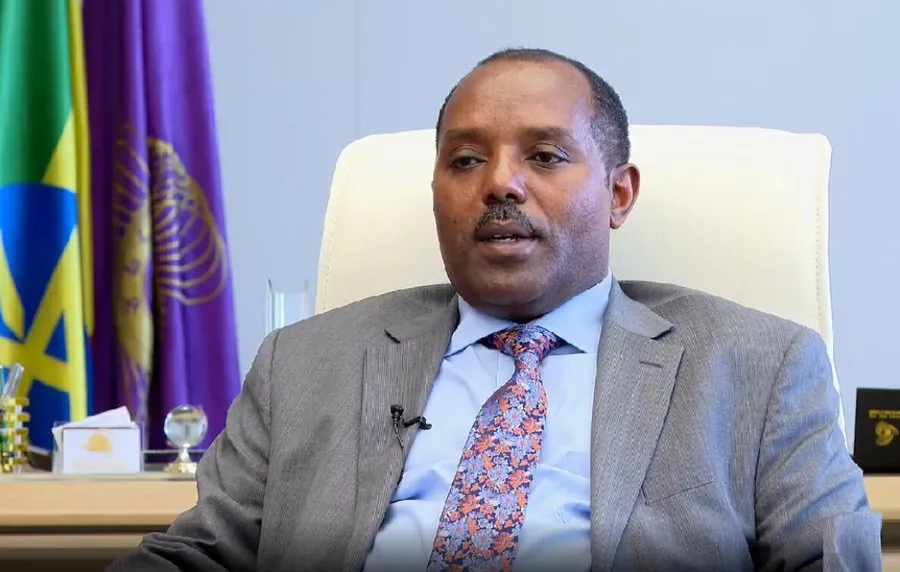
Ethiopia’s State Bank Mobilizes Task Force to Recoup 6 Billion Birr Lost through mysterious “system failure”
A day after the reported compromise of Ethiopia’s state-owned bank – Commercial Bank of Ethiopia – which reportedly led to a loss of over six billion birr within hours due to fraudulence, the bank has reportedly formed a task force to go after those who took advantage of the digital banking “system failure” to withdraw or transfer huge amounts of money. Wazema radio reported on Sunday that it had heard about it from close sources – apparently from within the bank. Members of the task force are drawn from security forces and experts from the National Bank of Ethiopia, and it aims to recover the money that was illegally transferred or withdrawn within six hours starting last Saturday midnight (local time). The source indicated that the Commercial Bank of Ethiopia does not yet know the amount of money it lost, but it indicated that over six billion birr worth of transactions were conducted in a matter of six hours, and over 25,000 money transfers were made. Also, Wazema cited Fortune, a local newspaper, as saying that 66,000 Commercial Bank of Ethiopia clients were affected by the situation. From the report, the bank does not seem to be interested in confirming the amount of money that it said to have lost during the six hours of unexplained failure to the bank’s digital banking system.

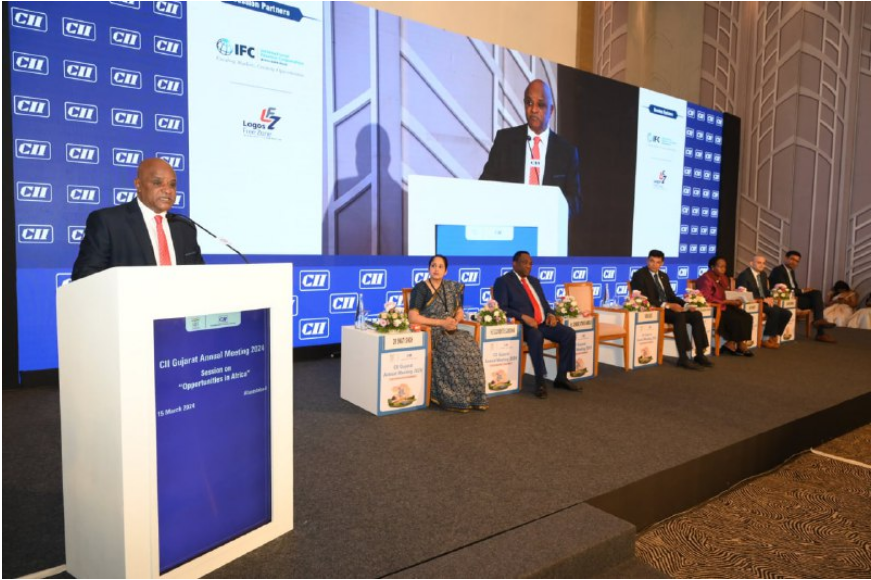
Indian Companies Invited to Seize Investment Opportunities in Ethiopia
Addis Ababa, March 18/2024 (ENA) Ethiopian Ambassador to India, Demeke Atnafu called on Indian companies to further invest in Ethiopia and seize the untapped business opportunities in the east African nation. Ambassador Demeke addressed the CII Gujarat State Annual Session on Opportunities in Africa, by presenting business and investment opportunities in Ethiopia, according to the Ethiopian Embassy in New Delhi. The ambassador underscored that Ethiopia is a preferred destination for investment. Demeke further elaborated the positive factors such as conducive economic climate, favorable market, abundant young and educated labor force, rich and diverse natural resources, cheapest electricity and water rate as well as sheds at nominal rate at industrial parks. Moreover, he elucidated in detail ample opportunities existing in agriculture and agro-processing, manufacturing, mining, ICT and tourism sectors and invited companies to invest in these and other emerging sectors such as telecom, finance, transport and logistics, health and housing development.


Ethiopian Airlines to build housing for 5000 employees
Ethiopian Airlines is building housing for 5000 employees in the capital Addis Ababa. Mesfin Tasew, CEO, and Adanech Abiebie, Addis Ababa city mayor have have laid cornerstone for the construction at the construction in the outskirts of the city. The airline is spending over $460 million in the construction of 16 building blocks. The housing units range from a three bedroom apartment to a Bachelor unit. Ethiopian Airlines has more than 17,000 employees in the country and abroad – in the countries where it is operating. Currently, it flies to more than 131 international destinations and is working on a plan to expand its international destinations to well over 200 by 2035.

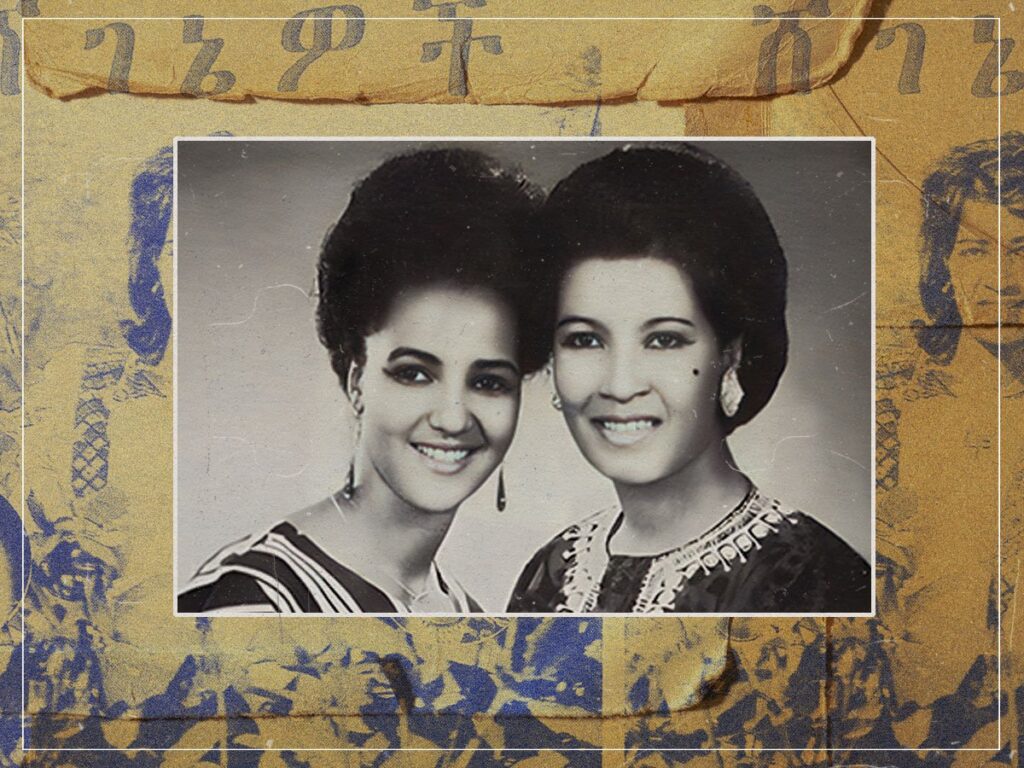
Aselefech Ashine and Getenesh Kebret: when the stars of Ethiopia’s Golden Age collided
Collaborations between prominent musical artists are famously hit-or-miss. While you might end up with the brilliance of The Velvet Underground and Nico, you could just as easily be faced with the terrifying reality of ‘Dancing In the Street’ by Mick Jagger and David Bowie. Fortunately, this was not a concern that plagued Aselefech Ashine and Getenesh Kebret, two of the finest singers to ever hail from Ethiopia, upon their seminal collaboration in 1976. Ethiopia is not usually noted for its musical output, with the vast majority of discourse surrounding the incredibly broad landscape of ‘African music’ centring around West African nations such as Nigeria or Ghana. However, with one of the largest populations across the continent, the incredible range of art produced by the country is almost an inevitability. The ‘Golden Age’ of Ethiopian music occurred in the period between the 1960s and 1970s, witnessing the rise of countless incredible artists, usually focusing on folk styles and traditional Ethiopian rhythms, with some Western influences too. Of that vibrant Golden Age, the unforgettable tones of vocalists Aselefech Ashine and Getenesh Kebret are undoubtedly one of the greatest exports. Both were raised in the capital city of Addis Ababa, and they first encountered each other at the Hager Fikr Theatre, a beacon for art and culture in the East African nation. The pair were trained together in theatre and traditional vocal performance. In 1976, the pair embarked upon a collaborative album that would go down in history as one of the great Ethiopian albums of all time.
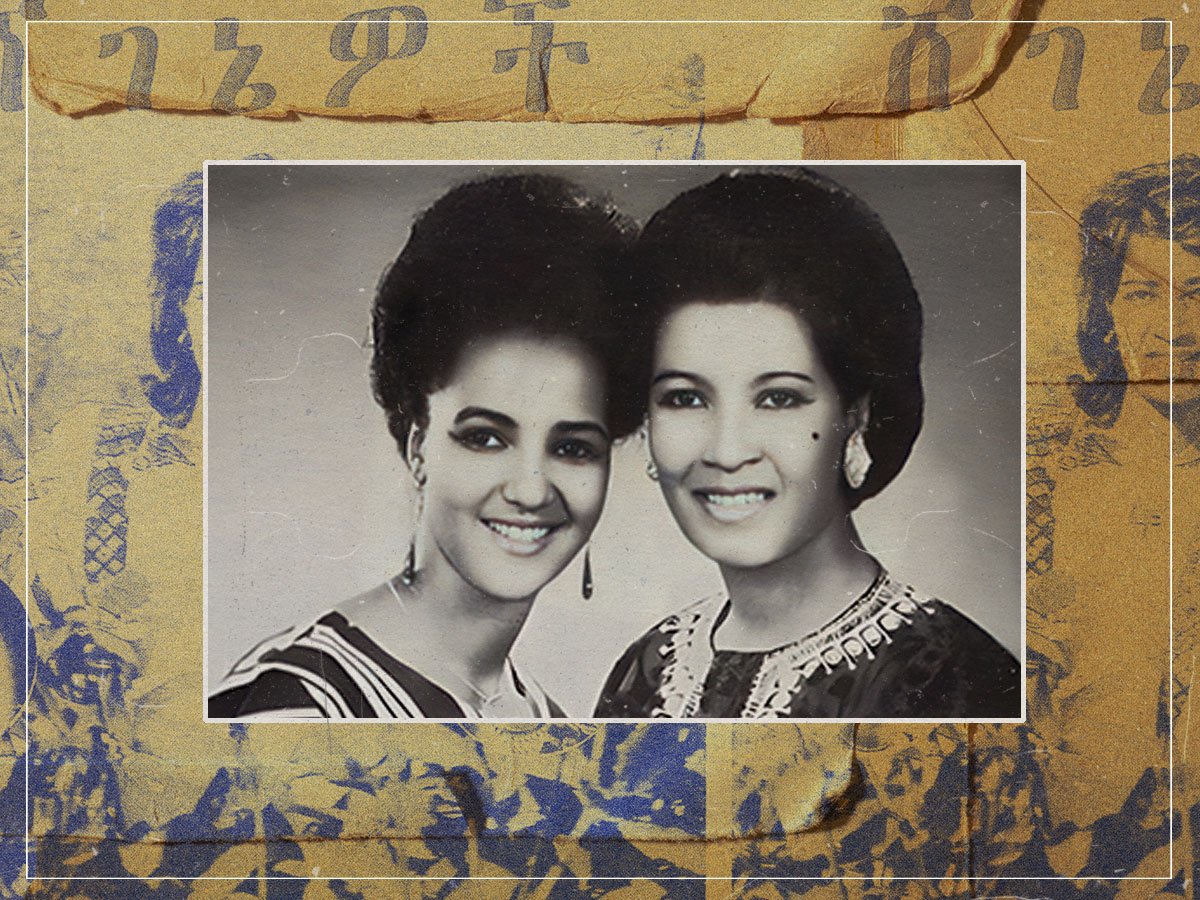

Addis Ababa-based EV Startup Dodai Raises $4 Million in Series A Funding
Dodai, an Addis Ababa-based electric vehicle (EV) startup, has secured $4 million in its Series A round, marking one of the largest amounts raised by startups in Ethiopia in a single round. This latest equity funding brings Dodai’s total raised capital to $6.2 million since its inception, with the startup aiming to secure an additional $2 million in its Series A round. The investors in this round include Nissay Capital, the corporate venture capital arm of Nissay, a $500 billion asset insurance and asset management company, making its first investment in Africa, and Musashi Seimitsu, a $3 billion revenue automotive parts supplier.

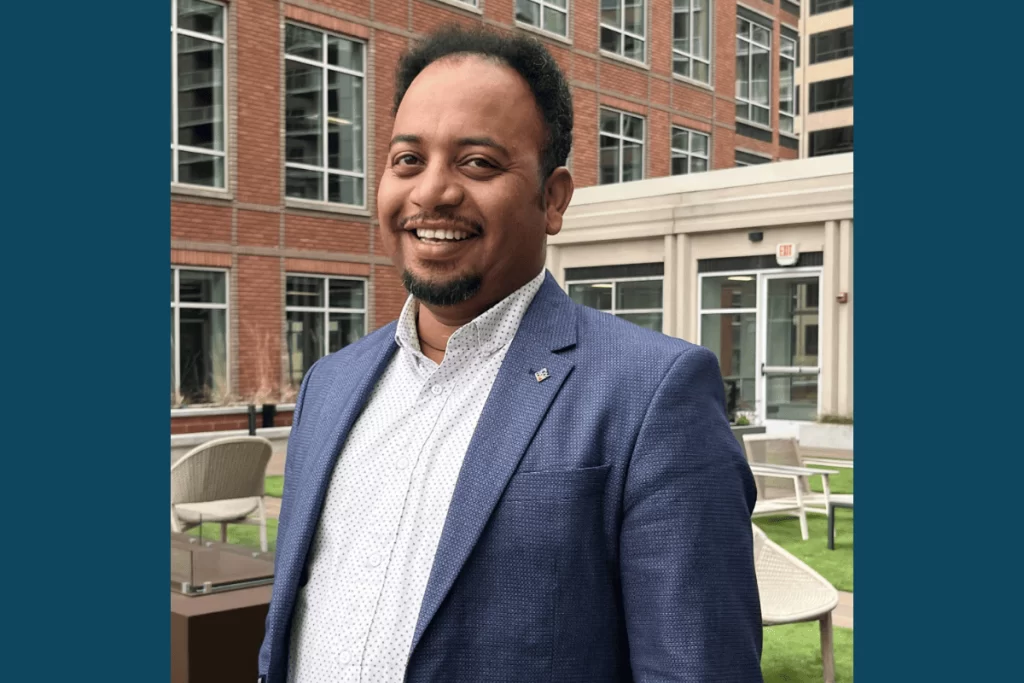
New Digital Health Leadership in Ethiopia
In a move to revolutionize and strengthen Ethiopia’s health system and secure universal health care coverage for its citizens, the Ministry of Health is prioritizing the digital age. Leading the charge is the USAID-funded Digital Health Activity (DHA), led by JSI, who have welcomed a new digital leader chosen by USAID, Naod Wendrad, and whose impressive 15-year tenure in Ethiopia’s national health sector is set to bring a wealth of innovation and expertise. Noad, a visionary in health information systems, has been at the forefront of Ethiopia’s digital health transformation. While with the Ministry of Health, his collaboration with DHA has seen him drive major advancements in health policy, digital infrastructure, and data management, making health care more accessible and efficient across Ethiopia. “I am honored to take on this role and excited to work with all DHA teams, whose hard work is a direct reflection of how much this project has already accomplished,” says Naod. From electronic medical records that streamline patient care to advanced logistics systems that optimize the health supply chain, these innovations are not just about technology – they are about making health care more accessible to clients and reducing the time and cost barriers for every Ethiopian.

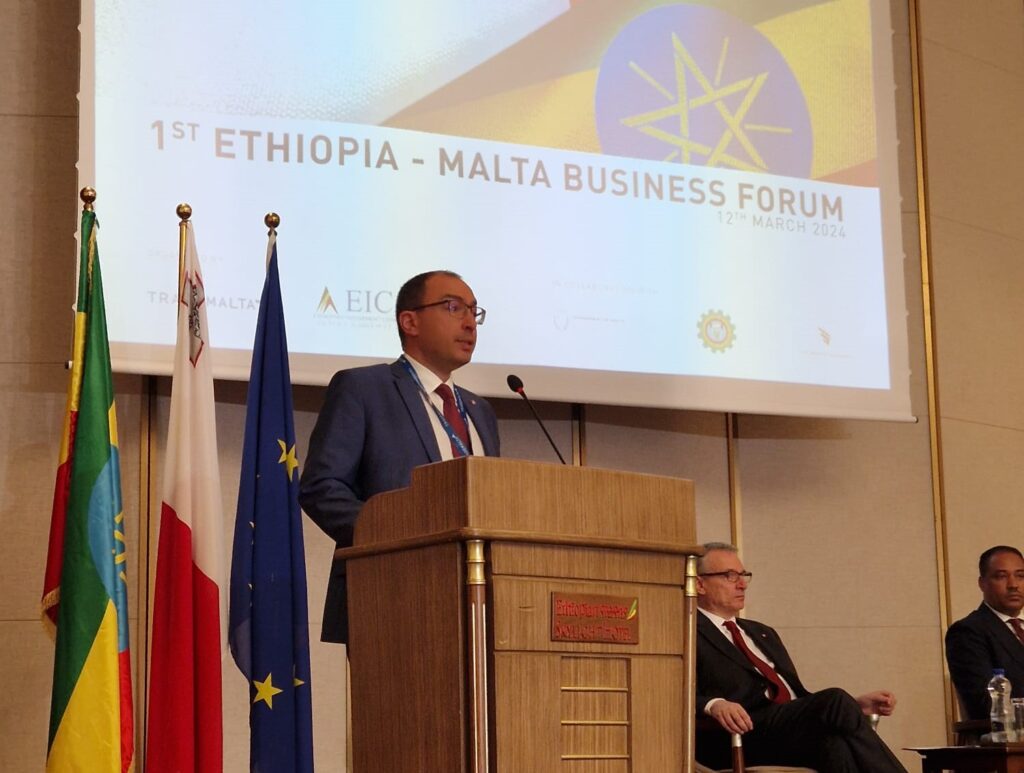
TradeMalta organises its first Trade Mission to Ethiopia
The trade delegation, which is being organised by TradeMalta in collaboration with the Ethiopian Investment Commission, is made up of sixteen enterprises coming from different sectors – education and training, construction and building maintenance services, medical equipment, business consultancy, manufacturing, energy and sustainable solutions, ICT, financial services, and architectural and design professional services. Malta Enterprise, MCAST and the Institute of Tourism Studies are also part of the delegation. Being the seat of the African Union, Ethiopia presents attractive opportunities for Malta-based businesses exploring new avenues for export and international expansion. Moreover, Ethiopia serves as a hub in Eastern Africa, acting as a vital gateway to tap into the broader East African market. This provides huge potential for fostering mutually beneficial economic growth and collaboration between the two nations. The multi-sector business mission currently in Addis Ababa aims to assist Malta-based businesses to extend their reach into this untapped market, whilst capitalising on the significant benefits brought about by the setting up of Malta’s embassy in Addis Ababa two years ago. Through leveraging this diplomatic milestone, delegates can unlock new growth opportunities in the vibrant economic landscape of Addis Ababa and beyond.
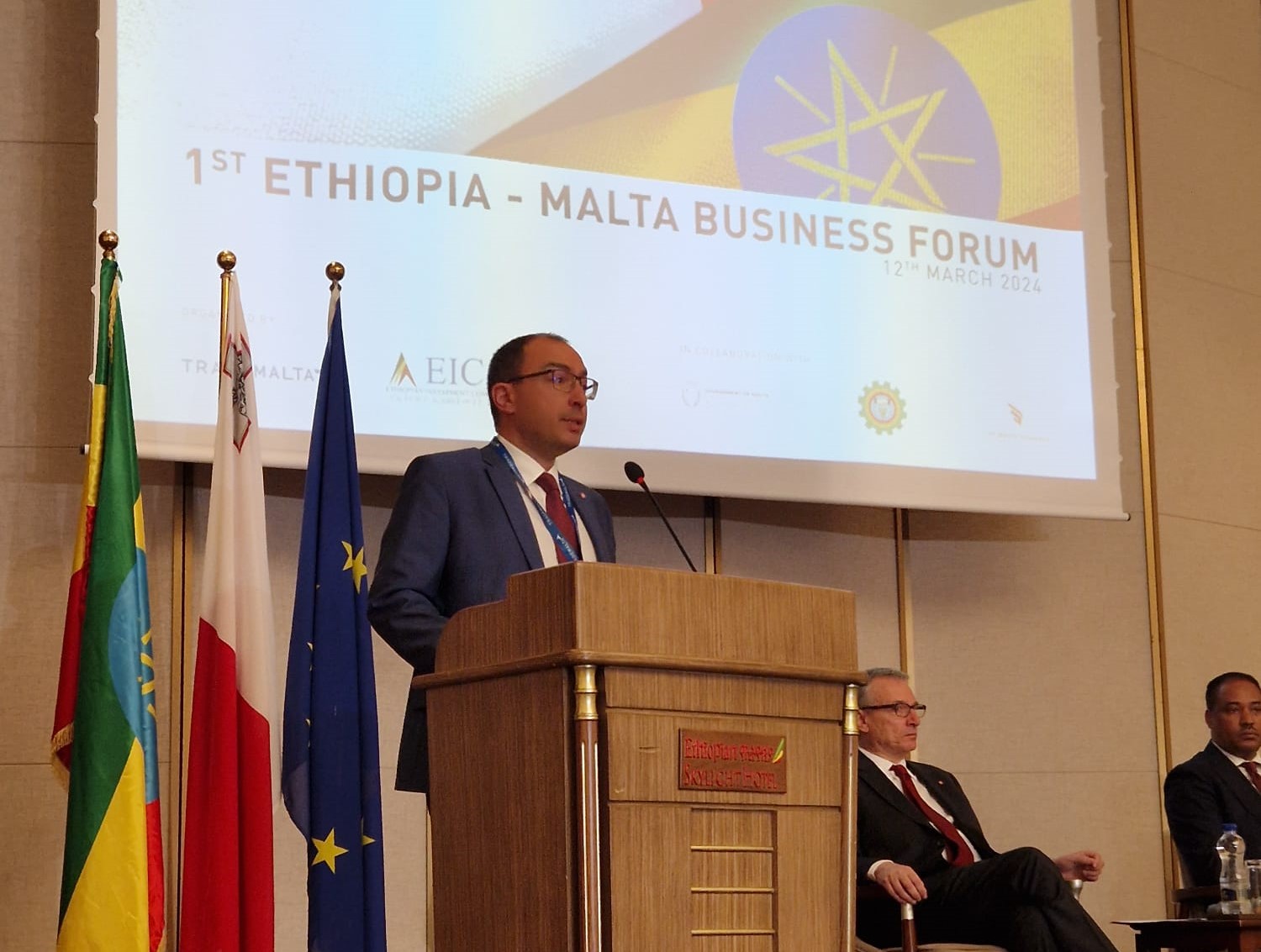
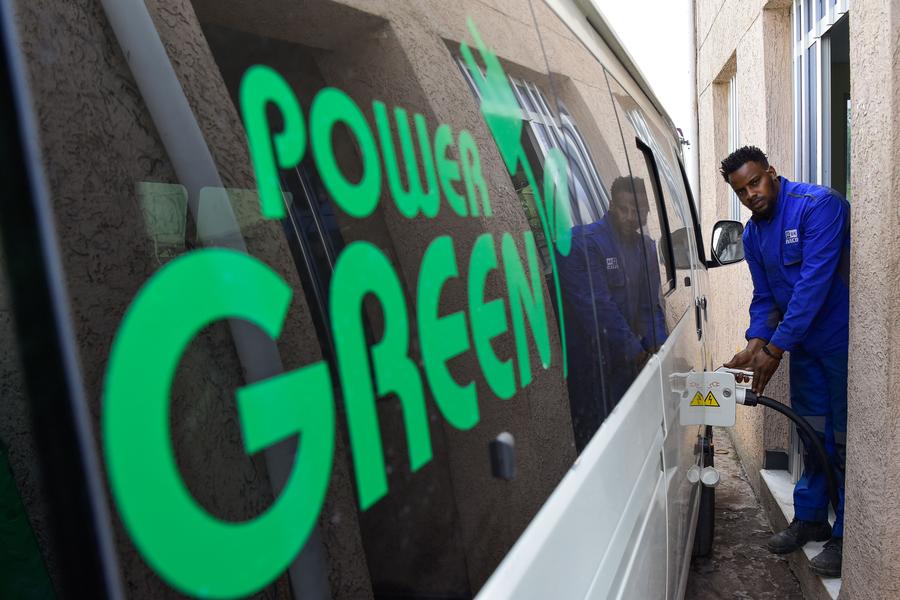
China’s green growth leads global green transition, says Ethiopian expert
Chinese enterprises and startups are currently making great steps in delivering clean energy technologies to the world, such as new energy vehicles and affordable solar panels. ADDIS ABABA, March 12 (Xinhua) -- China's keen commitment to and successes in green development serve as an instructive model in promoting global green transition, said an Ethiopian expert. China's green energy targets are driving the global energy transition momentum, eventually mitigating the adverse effects of climate change, Costantinos Bt. Costantinos, a professor of public policy at Addis Ababa University in Ethiopia, told Xinhua in a recent interview. Noting the urgent need to exert concerted efforts toward the development of clean energy alternatives on a global scale, the expert commended China's leading role and its extensive efforts to fast-track its transition to clean energy. "Definitely, there is going to be a transition, and the one country that is ready to push this development and retiring fossil fuels and coming into alternative green forms of energy is China. I see the blueprint in the Chinese economic development and the efforts that are being undertaken," said Costantinos.

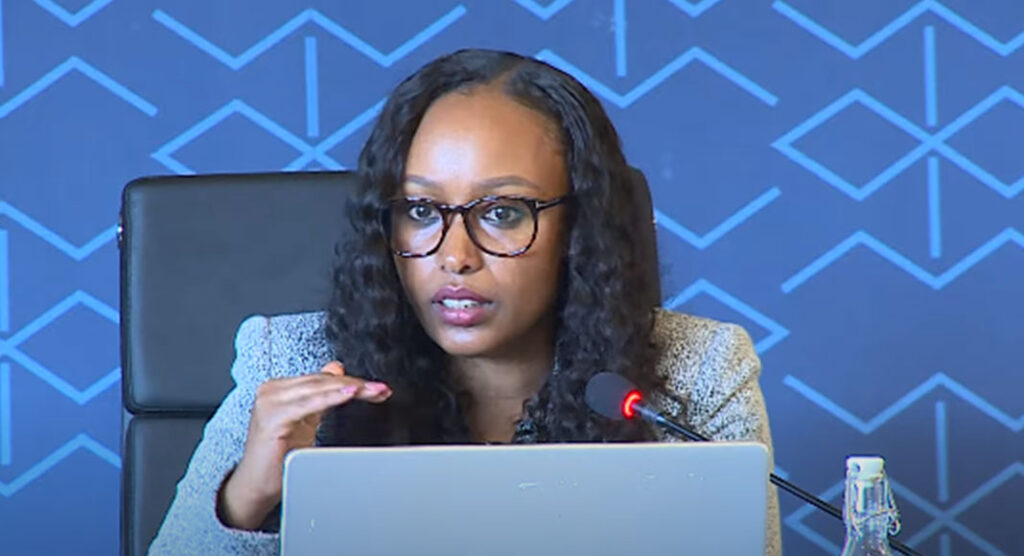
Authorities move to end protectionism over retail, wholesale businesses
A half-year cabinet performance review meeting revealed that Ethiopia’s long-lived protectionism over the wholesale and retail market is coming to an end, pending the approval of a roadmap under preparation by the Ethiopian Investment Commission (EIC) and Ethiopian Investment Board. Liberalization of the retail market is a core macroeconomic objective in the second Homegrown Economic Reform Agenda (HGER 2.0), which looks to alter the existing retail market structure through private sector involvement. The government is working towards “opening up the wholesale and retail sector as outlined in HGER 2.0,” said Fistum Assefa (PhD), minister for Planning and Development, during an overview of macroeconomic trends before the Council of Ministers earlier this week. “We are working to gradually open these businesses to competition,” Fitsum said. Six months into the implementation of HGER 2.0, which is slated to last for the coming two and a half years, the preparation of the roadmap is the most pronounced step on the path to retail and wholesale market liberalization thus far.
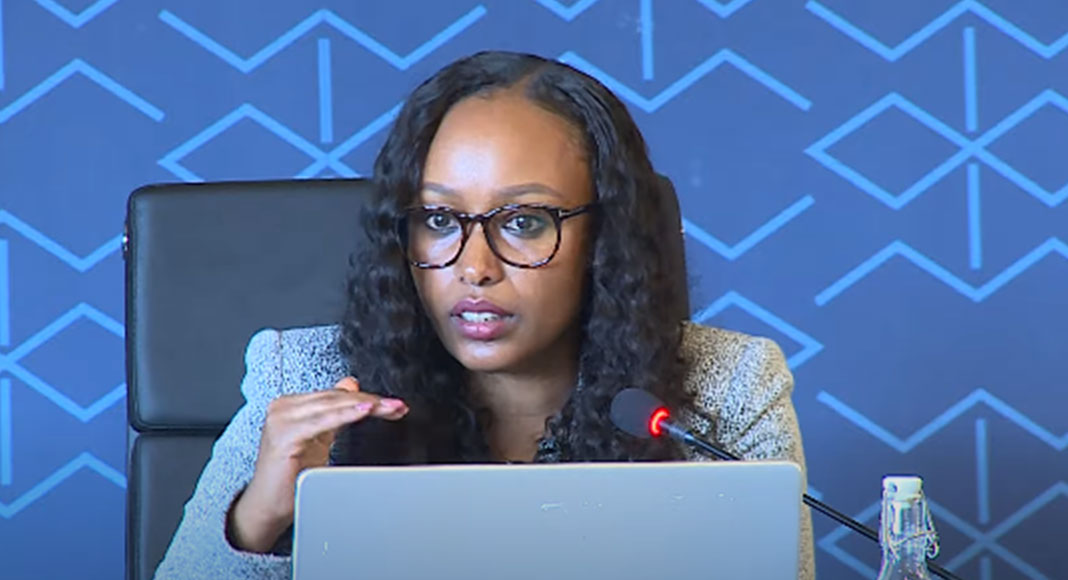
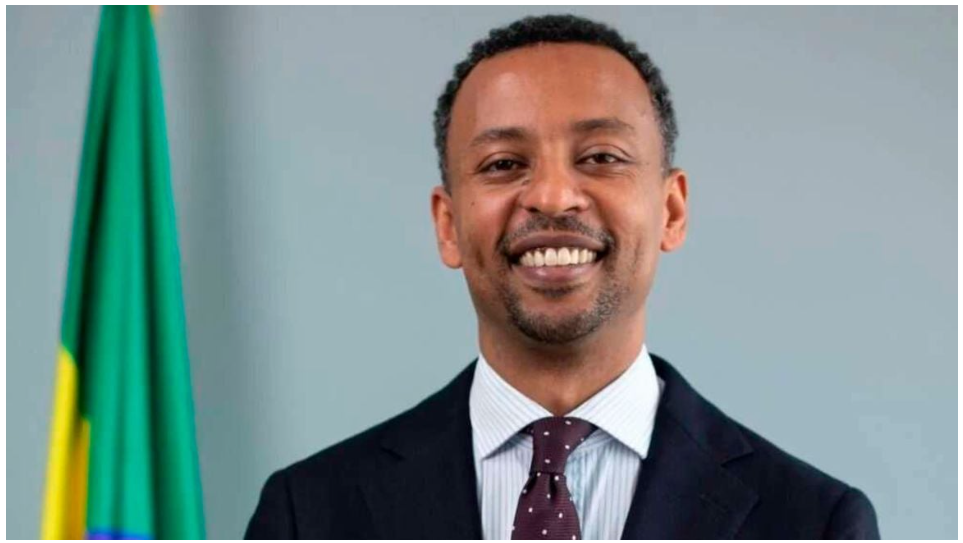
Ethiotelecom IPO expected to launch Ethiopia securities exchange
For decades, Ethiopia has been the only major economy in Africa without a securities exchange, but this is set to change as the $156 billion economy gears up to launch securities exchange in the third quarter of 2024. Ethiopia Capital Markets Authority Director-General Dr Brook Taye spoke with Julians Amboko about opportunities in the budding capital markets. If you look at many jurisdictions, the way capital markets develop is that we have the market growing first and then the regulator develops next to address the emerging legal and regulatory issues. In Ethiopia’s case, the regulator has had a significant head start. Sceptics argue that this creates room for potential regulatory overreach. Our unique advantage is that we are a latecomer, and we can take advantage of understanding what has worked in different jurisdictions. Ultimately, it boils down to one thing — an issuer will come to market if it makes sense, if the pricing is right. So, how do we make that work for Ethiopia? Whenever we design a directive or a regulation, we seek to understand what it will take for an issuer to come to the capital market and raise funding both on the debt and equity side versus them going to the private market.
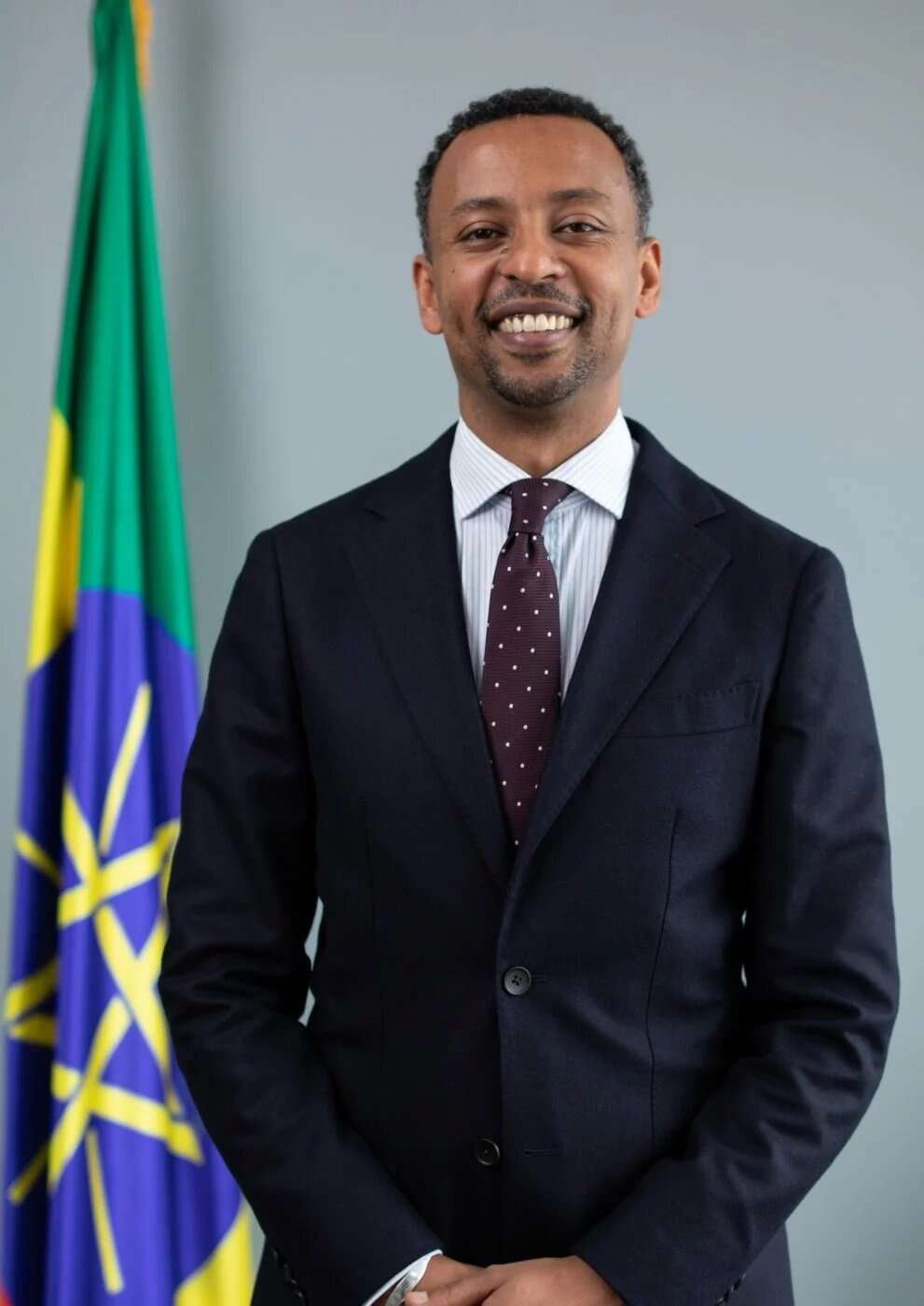

Intermezzo Podcast: From Italy to Ethiopia, Avex the MC blesses the mic
The latest in our Intermezzo Podcast is Avex the MC. A multilinguist and master of morphing his accent, Avex has been rapping since his teens. Born in Italy and raised in Ethiopia, he has been making his unique presence felt in the Italian rap scene for the past 6 years, losing count of the amount of stages he has performed on. He raps fluently in Amharic, Italian and English. His uniqueness of perspective and rap style may be influenced by living between two vastly different worlds and expectations in Ethiopia, and his early and deep connection to Black American culture. The Intermezzo Podcast is a creation of Amanda Agyei, a Black British artist and fine arts scholar of Ghanaian descent who has lived between the U.K. and Italy. She uses her experience to gather the rich experiences of diasporic communities in Europe. Exploring migration stories, language, culture, advocacy, art and culture, she weaves an innovative narrative for audiences across the pond.


Ethiopian Airlines Reaffirms Confidence in Boeing Five Years After Fatal Crash
As Ethiopian Airlines commemorates the fifth anniversary of the 2019 Boeing 737 Max 8 crash, the carrier showcases renewed confidence in Boeing, evident through additional orders, despite recent challenges faced by aircraft within the same family.
Despite the tragic accident involving Flight ET 302 that claimed 157 lives in Addis Ababa, Ethiopian Airlines has emerged as a significant client for Boeing, affirming the carrier's confidence in the manufacturer's offerings.
Just last week, the Bole-based carrier announced the plans to acquire eight Boeing 777X, the latest fuel-efficient variant, with an option for an additional 12 aircraft.
During the Dubai Airshow last year, Ethiopian Airlines committed to acquiring 11 787 Dreamliners and 20 737 MAX jets.
The Ethiopian crash occurred five months after Indonesia's Lion Air Flight 610, which crashed shortly after takeoff, resulting in the loss of all 189 passengers and crew onboard.
On March 10, 2019, at 08:38 local time, Ethiopian Airlines Flight 302 departed from Addis Ababa Bole International Airport en route to Jomo Kenyatta International Airport in Nairobi, Kenya.
However, just a minute after takeoff, the first officer communicated a flight control issue to the control tower in Bole.


Rungo, One of Ethiopia’s Largest Liquor Distributors, Enters Ecommerce Space
Rungo Liquors, one of the largest liquor distributors in Ethiopia, has strategically entered the e-commerce sector with Rungooo Delivery. The platform, launched three months ago aims to address the myriad challenges faced by traditional beverage purchasing methods and enables consumers to buy products at distribution prices with free delivery. “We observed a growing trend of online shopping and a desire for more convenient ways to purchase beverages,” Olivier Poujade, Partner at Rungooo Delivery told Shega in a written statement. Rungooo’s platform introduces a host of features, including personalized recommendations, real-time pricing updates, and a mobile-optimized interface. “Our aim is to emulate the modern liquor shop experience online, fostering a community where consumers can interact with their favorite brands in a meaningful way,” Olivier noted. Rungooo aims to address a market that is proliferated with parallel and counterfeit products. Through its direct integration with the official distributors of these products in Ethiopia, Rungooo guarantees original items. Moreover, as beverages are directly delivered from the distributors, customers are offered distribution store prices.

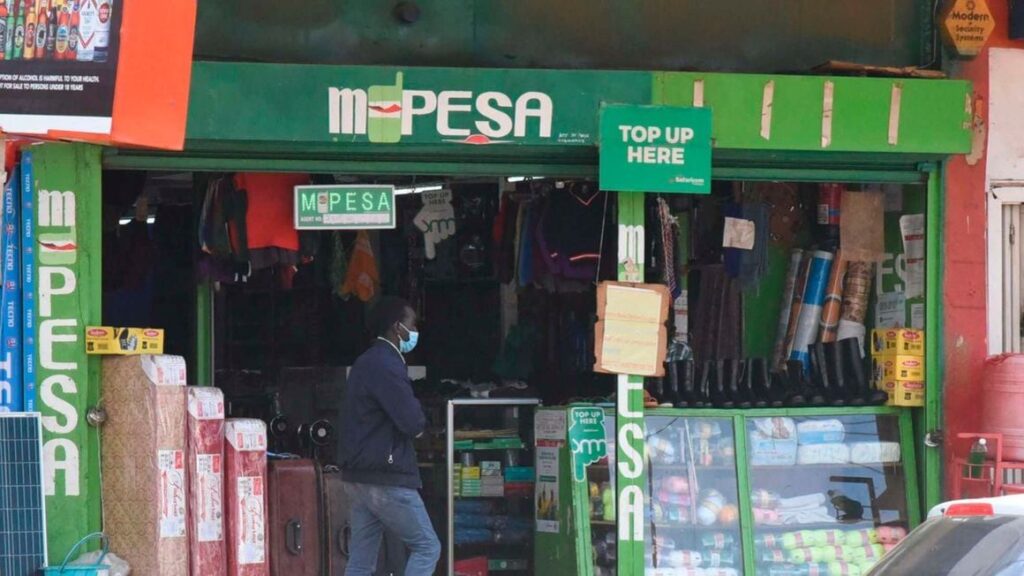
Cash dominance a barrier to M-Pesa uptake in Ethiopia
Dominance of cash, especially for small value transaction, continues to stand in the way of Safaricom Ethiopia’s payments business using its M-Pesa platform, says the telco. “Banking penetration in urban areas is relatively high but 99 percent of small value transactions are in cash,” Safaricom Plc, which is the majority owner of the Ethiopian business, told investors of the subsidiary’s performance last month. Safaricom Ethiopia launched the mobile money service on August 15, 2023 and had acquired 1.1 million customers at the end of September. In that period, the value of transactions reached Ksh43.7 billion ($29.13 million) while active merchants stood at 12,400. The telco earned Ksh7.2 million ($48,000) from the mobile money platform. According to a 2021 report by the World Bank on financial inclusion and digital payments, cash in Ethiopia is a dominant payment method, a sharp contrast to other markets in the region, including Kenya, where non-cash payments have gotten a foothold.
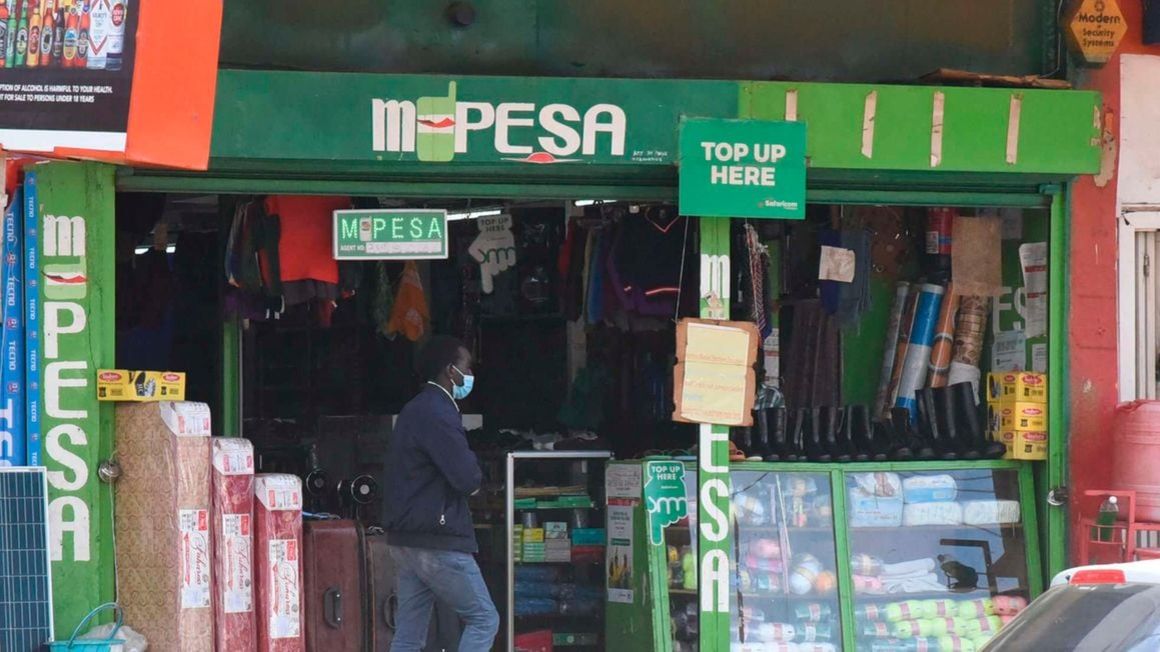

From Ethiopia and Paris via Hearts: Evolve Football Academy spreading through Edinburgh’s streets

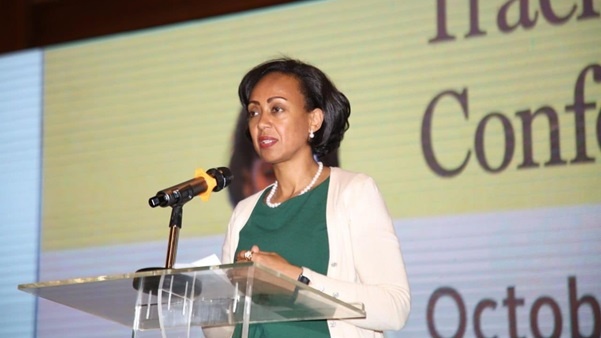
Former Minister of Health of Ethiopia to lead Harvard Ministerial Leadership Program
Lia Tadesse Gebremedhin, who led Ethiopia through the COVID-19 pandemic and other significant public health challenges, looks forward to supporting leaders working to “make the world a better place for everyone, everywhere.” March 6, 2024—Lia Tadesse Gebremedhin was sworn in as Ethiopia’s Minister of Health on March 12, 2020—the day after the World Health Organization (WHO) declared COVID-19 a pandemic. That night, Ethiopia detected its first case of the virus. “It was a very difficult time,” Gebremedhin said. Ethiopia, like many countries in Africa, was both well-positioned and unprepared to respond to COVID-19. In the years prior, the country had invested heavily in its primary health care system and, because of the Ebola epidemic in West Africa, its public health emergency response structures. But intensive care units across Ethiopia—and across the continent—were short on essential resources such as oxygen, personal protective equipment, and staff trained in critical care. Gebremedhin is quick to add that COVID wasn’t the only difficulty she and her country faced during her four-year tenure as Minister. Civil conflicts and the ongoing impacts of climate change, including droughts, were displacing people, damaging health facilities, and causing additional infectious outbreaks across Ethiopia.

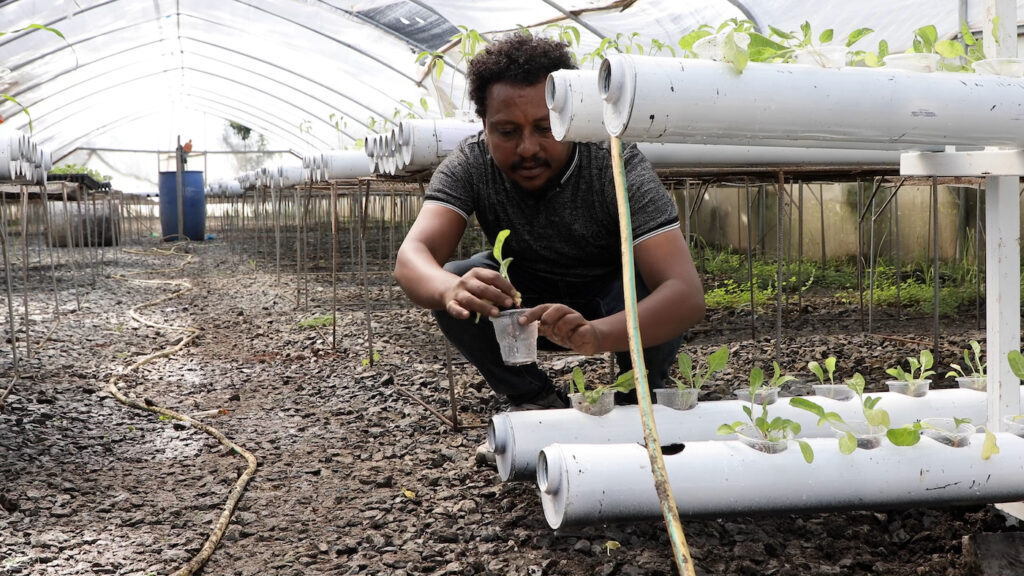
ETHIOPIA TRIES HYDROPONIC FARMING TO IMPROVE ACCESS TO NUTRITIOUS FOOD
UNICEF works with partners to advance local solutions to the many problems vulnerable children face — like malnutrition caused by poor diet, often due to a lack of access to affordable nutritious foods. In Ethiopia, UNICEF has helped launch a pilot program in hydroponic vegetable farming as a way to address child malnutrition while also enhancing the resilience of local food systems. Hydroponic farming is the practice of growing crops without soil, which saves space. And while conventional methods require rainfall and irrigation, with hydroponic farming, very little water is required — which means plantings can thrive regardless of weather or season. "We can produce year round," explains Behailu Abreha, founder and general manager of PLC, an agricultural concern in Mekelle and UNICEF's partner on the project. The new program is being implemented in Mekelle and in central and southern Tigray, where children and families have long suffered the impacts of violent and prolonged civil conflict. Crop yields in Tigray, already severely depleted by drought following several failed rainy seasons, were wiped out yet again, this time by drought driven by El Niño, an increasingly damaging weather pattern associated with climate change.
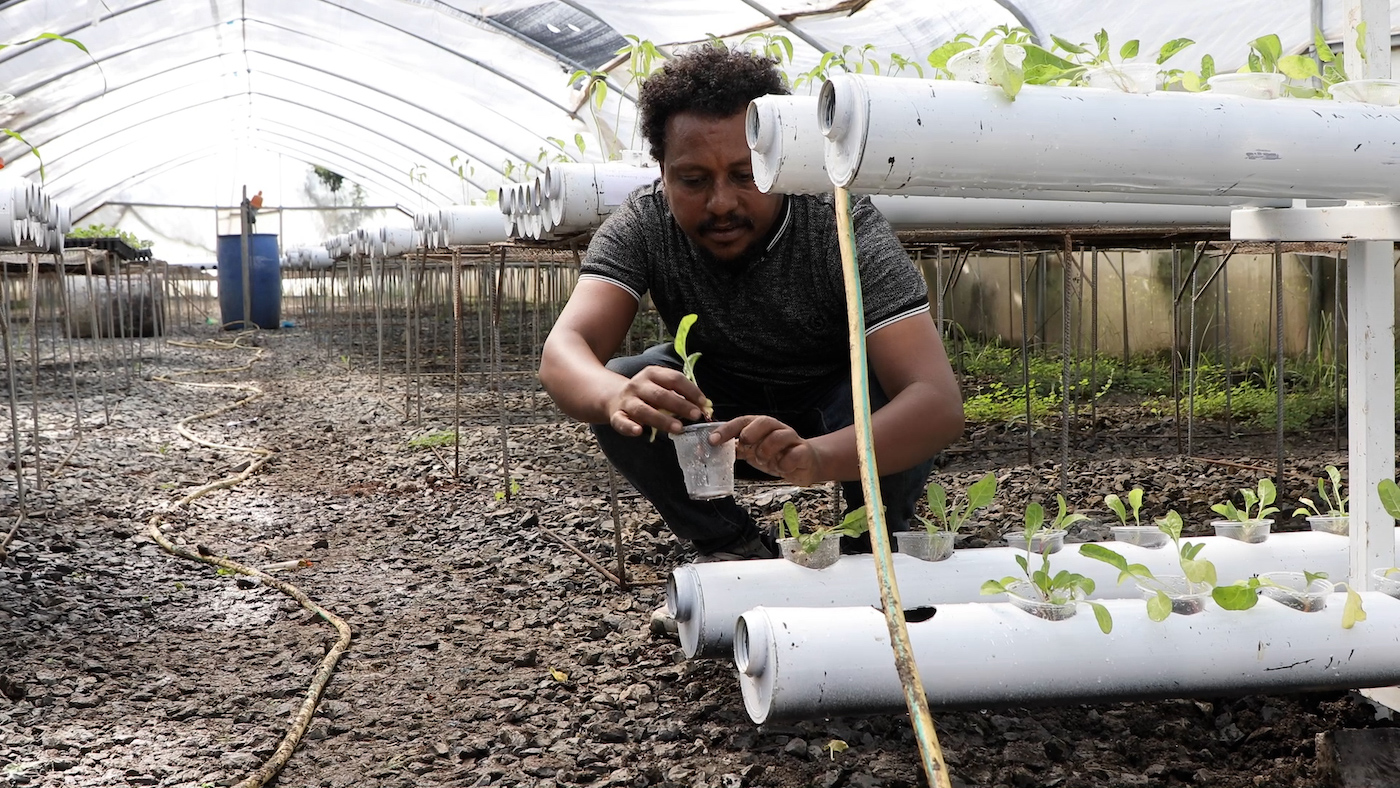
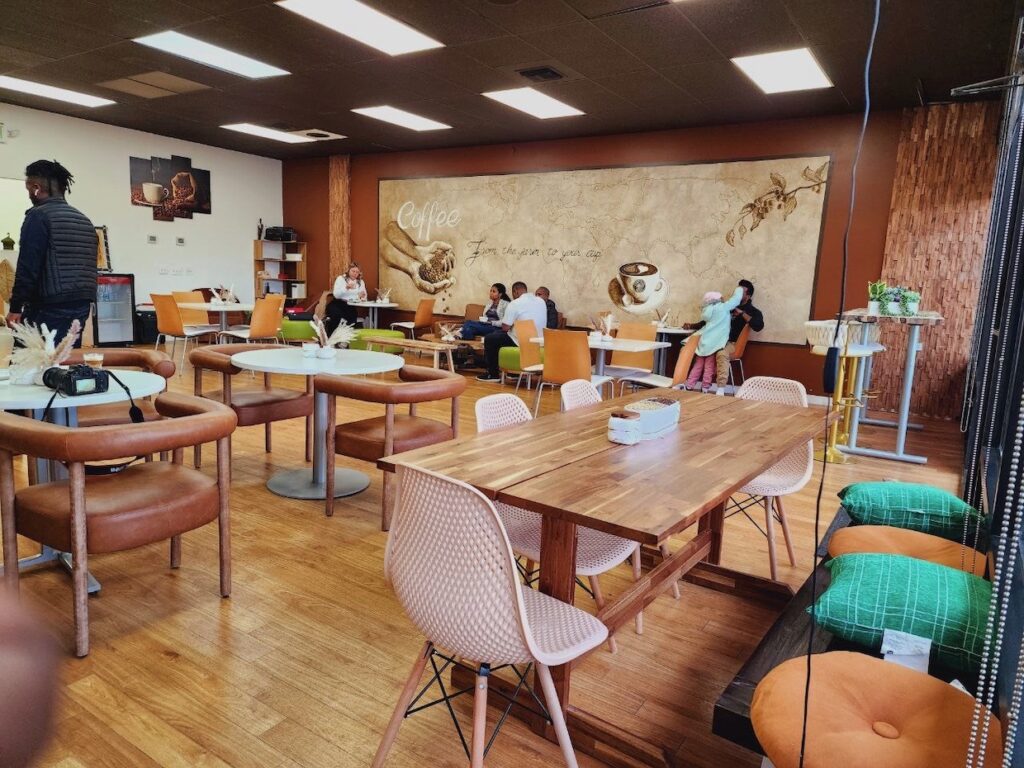
Connecting Colorado to Ethiopia, Lucy Coffee Opens a Cafe in Aurora
Ethiopia-focused roasted and green coffee company Lucy Coffee (Instagram link) recently opened its first retail cafe in Aurora, Colorado, completing a full circle of coffee and cultural connections. The new shop envelopes guests with coffee-brown ceilings and walls, natural wood tables and floors, and brown leather upholstery on modern chairs and couches. A coffee-toned mural showing a map of the Bean Belt with a producer’s hands and a cup of Lucy Coffee fills an entire wall. Centerpieces on larger tables display parchment coffee alongside green and roasted coffees. “I want the people to see how the process went, for coffee,” Lucy Coffee Co-Owner Mickias (Micki) Alamirew told Daily Coffee News. “The color is a very calm color. Everybody that comes inside feels like this is very warming, like you want to sit here.” Once inside, guests can browse a diverse fresh food menu that features Ethiopian Chechebsa and Ful plates, as well as panini, egg sandwiches and salads. The coffee, meanwhile, remains 100% Ethiopian, grown on a single farm in Ethiopia’s Yirgacheffe region. Lucy Coffee Founders Micki and Mehret Alamirew met as members of the Ethiopian expat community in Aurora in the 1990. They started the company in 2018 as a roasting operation, then less than a year later bought a 50% stake in the coffee farm.
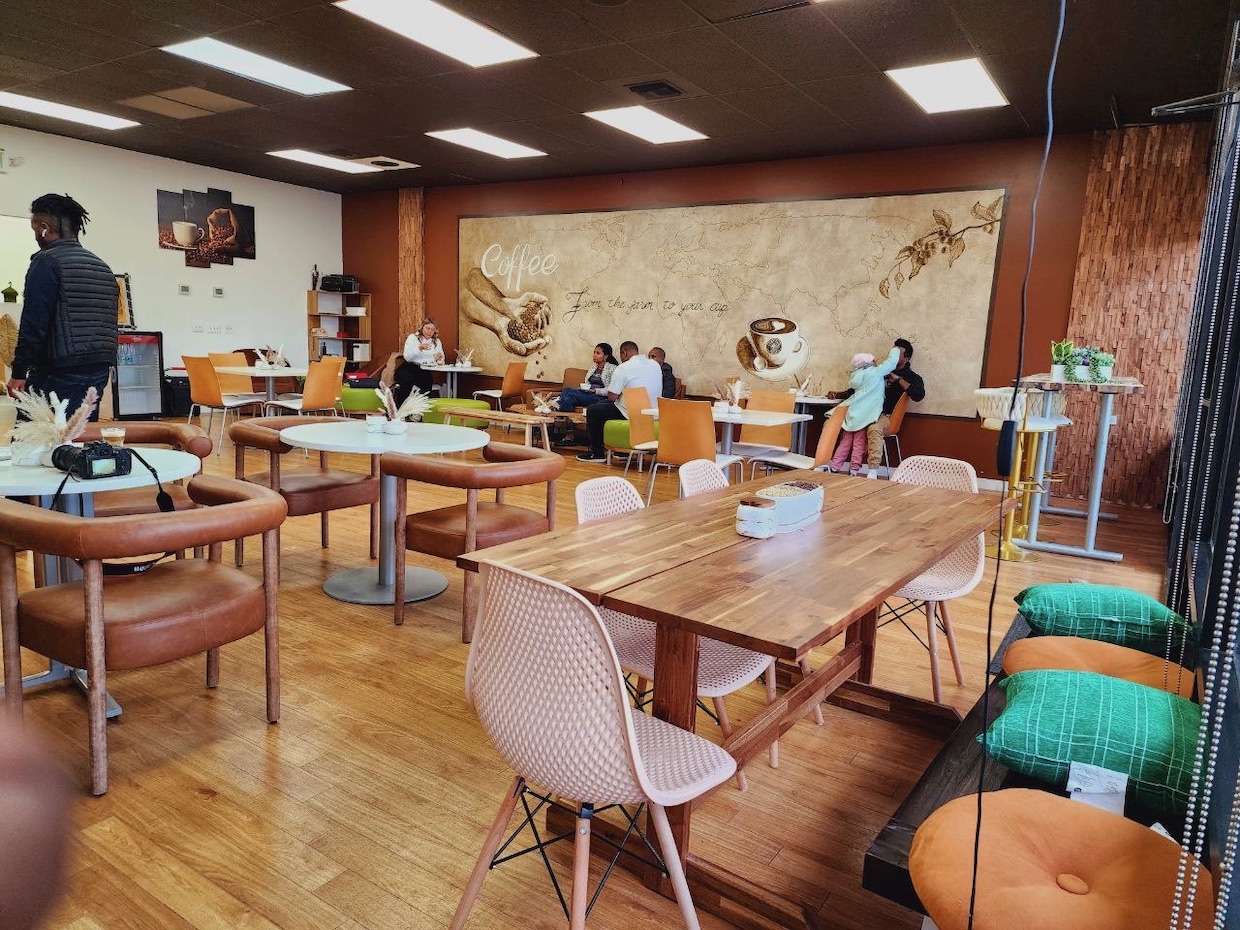
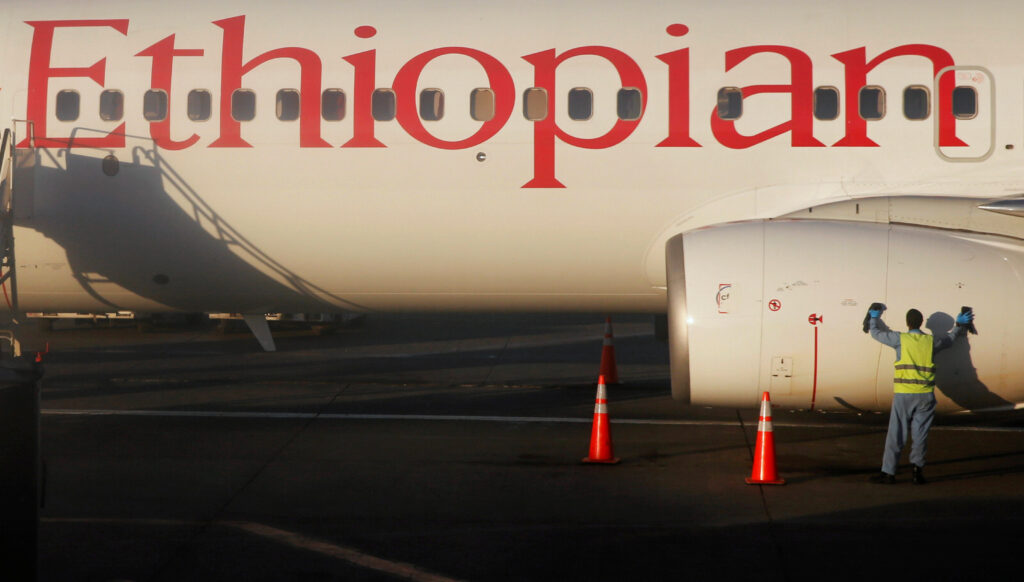
Ethiopian Airlines places order for eight Boeing 777X jets
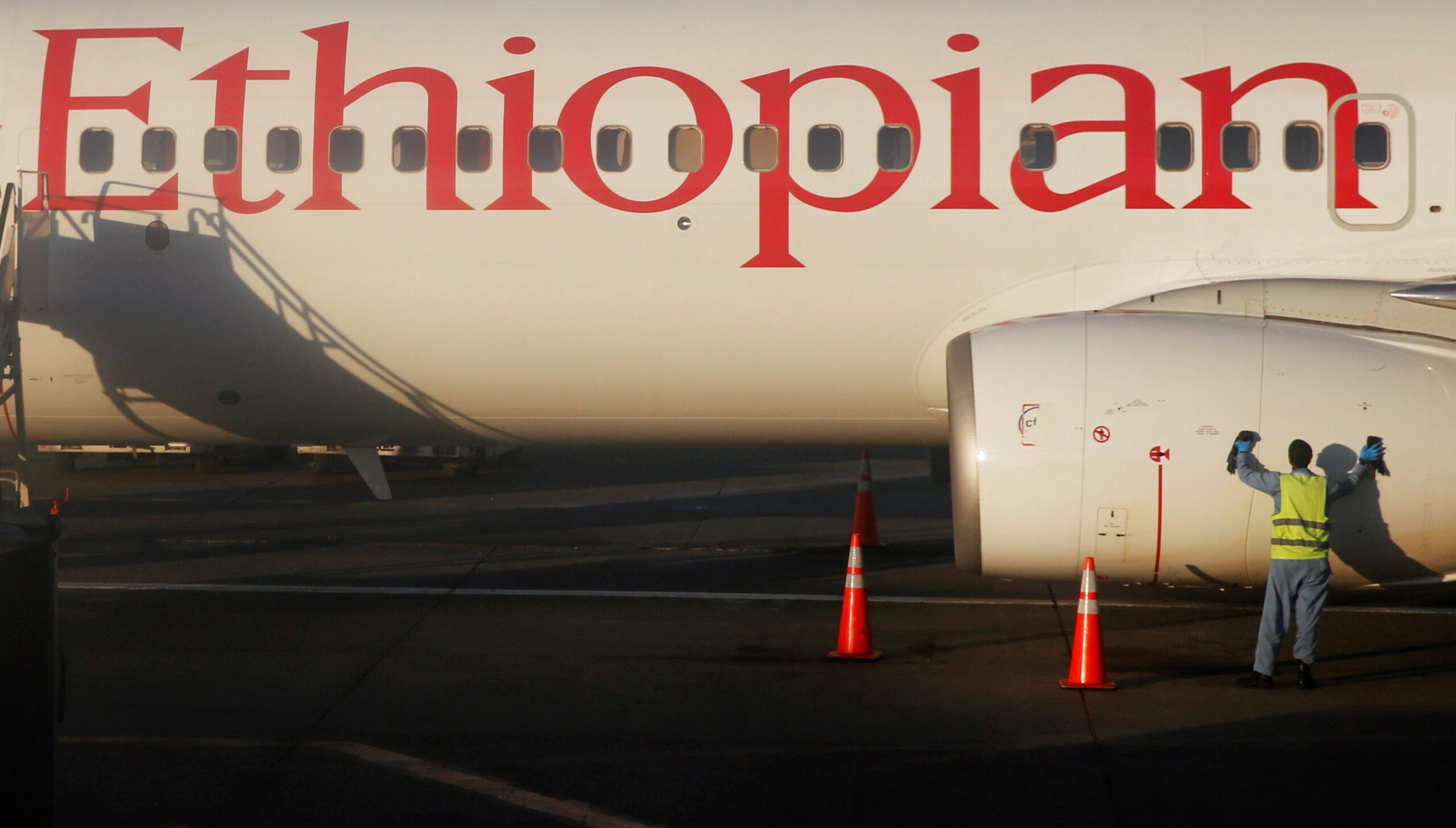

EUROFRUIT Flying Swans’ Ethiopia project secures €11.7m backing
New fresh produce distribution centre near Addis Ababa could make it easier for suppliers of avocados and other fresh produce to reach international export markets


How Chef Fariyal Abdullahi Is Blazing Trails With Talent, Leadership And Drive
Chef Fariyal Abdullahi is firing on all cylinders. She is running Hav & Mar in Chelsea, which is quickly gaining the attention of many; she makes television appearances as a guest or judge; but more importantly, she is creating a community in her kitchen that best reflects our world and values today. James Beard Semi-finalist. Forbes 2023 All Star Eatery. New York Times’s 12 Best. Observer Social Impact Nightlife & Dining Power List. It could easily feel like a dream and yet, Abdullahi has worked incredibly hard to garner the attention she is receiving these days. “My family and closest friends make it a point to remind me to pause and truly take in what’s happening. In those moments, it does feel like I’m dreaming. And, the accolades and attention are new, but it doesn’t feel foreign. I guess when its something you know you deserve, even if you weren’t expecting it, it doesn’t come as a surprise.” All in all, she has a restaurant to run. But not just any restaurant. Hav & Mar is a 140-seat New York hotspot boasting a lot of firsts—that were a long-time coming—so people are watching. When beloved celebrity chef and owner Marcus Samuelsson handed Abdullahi the reigns, to a restaurant he envisioned would celebrate diversity in food and in business, he must have known that pass was an industry-altering move that would break a few ceilings along the way. And he certainly sensed that Abdullahi could not be a more perfect fit for the task, as she had already broken a few of her own before leaving home.


Hailu delivers in 1500m to give Ethiopia golden finish in Glasgow
Ethiopia waited until the closing stages of the World Athletics Indoor Championships Glasgow 24 to win their first gold medal of the weekend. But then, like waiting for a bus, two came along at once. Hot on the heels of Tsige Duguma’s surprise win in the women’s 800m, Freweyni Hailu produced a more expected victory in the women’s 1500m, the closing event of the championships. It was something of an unusual race, though, with the pace and lead changing hands several times. Hailu darted into an early lead, closely followed by her compatriot, world road mile champion Diribe Welteji. Birke Haylom soon made it an Ethiopian trio out in front, and they had a lead of about six metres on the chase pack. The pace settled after three laps and the pack began to bunch up. Hailu spent a brief moment in the middle of the pack while Welteji led the pack through 800m. One lap later, USA’s Nikki Hiltz had moved up into second place. Emily Mackay, Hiltz’s teammate, then darted into the lead with two laps to go, bidding to make a long run for home. At this point, there were two US runners, two Ethiopian athletes and two British runners – Georgia Bell and Revee Walcott-Nolan – in contention for the medals.


West Michigan Ethiopian community celebrates special day
Members of the Ethiopian community gathered in Grand Rapids to celebrate the 128th anniversary of a battle that preserved Ethiopia's 3,000 years of independence.


Chinese-built logistics hub inaugurated in Ethiopia to promote e-commerce
MESFIN TASEW, CEO of the Ethiopian AirlinesSTORYLINE:The Ethiopian Airlines has inaugurated a new e-commerce logistics hub in Addis Ababa, the capital of Ethiopia, to meet the surging demands of online shoppers and retailers. Speaking at the inaugural ceremony that took place on Thursday, Ethiopian Minister of Transport and Logistics Alemu Sime said the new e-commerce facility aims to streamline operations and inventory management before goods are dispatched to customers. Built by China National Aero-Technology International Engineering Cooperation, the e-commerce logistics hub covers about 15,000 square meters and has a capacity to handle 150,000 tonnes of goods annually. SOUNDBITE 1 (English): ALEMU SIME, Ethiopian Minister of Transport and Logistics"Today's inauguration marks the unveiling of a model facility, poised to set a standard for the private sector to emulate. This infrastructure is pivotal in simplifying logistics, reducing costs and enhancing efficiency, ultimately elevating Ethiopia's logistics performance."SOUNDBITE 2 (English): MESFIN TASEW, CEO of the Ethiopian Airlines"When it comes to operation, even today, we work very closely with the two Chinese e-commerce companies. We transport e-commerce goods from China to other parts of the world under the strategic agreement with the two companies, but that is in bulk. We don't do the sorting here. Now, we have started to do sorting here. We can bring the goods from these companies to Addis Ababa. We sort it here and re-aggregate it and we can ship it to African destinations."Xinhua News Agency correspondents reporting from Addis Ababa.


Ethiopian Capital Market Authority Taps into INSA, Al, Digital ID for Technological Support
The Ethiopian Capital Market Authority (ECMA) has partnered with the Information Network Security Administration (INSA), the Ethiopian Artificial Intelligence Institute, and the National ID Project Office to strengthen its technological infrastructure and safeguard investors’ interests. This collaboration, signed today, February 29, 2024, encompasses support related to cybersecurity, transaction protocols, infrastructure, data protection, and personal data theft and aims to enhance the Authority’s ability to monitor the market and foster confidence. “The foundation of capital market operations rests on technology. The system must be safeguarded against crimes and frauds, and there is a need to commence preparations ahead of the launch of the capital market,” stated Dr. Brook Taye, the Director General of the Ethiopian Capital Market Authority. “Information sovereignty is primary and INSA will be supporting us in this road,” he added. According to Tigist Hamid, Director General of INSA, the agency’s digital forensic department has been collaborating with security forces in investigating cybercrimes thus far. “Security audits and clearances on devices and software used by ECMA, as well as cyber protection, will be some of our work,” said Tigist.

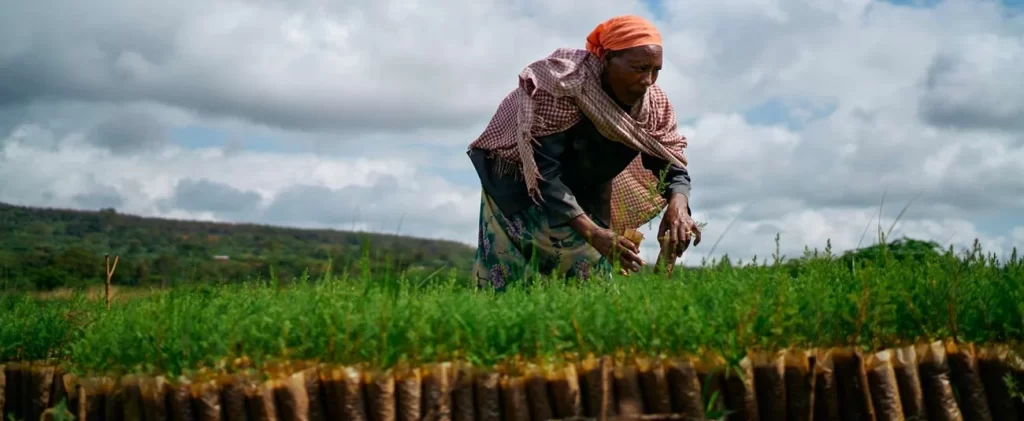
African Development Fund grants $46 million to improve access to water and sanitation for pastoral communities in the Borana region
The Board of Directors of the African Development Fund in Abidjan on 28 February 2024, donated $46.02 million to Ethiopia to implement Phase 2 of the Borana Resilient Water Development for Improved Livelihoods Program in the country’s south. Financial support from the African Development Bank Group’s concessional rate loans window is intended to improve access to integrated, sustainable, climate-smart, gender-sensitive water supply and sanitation services for pastoral communities in the arid lands of the Borana area, in the Oromia region. Borana’s estimated population of 1.2 million people, of whom half are women, is growing rapidly and projected to reach 1.8 million by 2030. Most rely on pastoralism for their livelihood and are therefore subject to the effects of varying rainfall levels and recurrent droughts that lead to water insecurity. As of March 2023, over 3.3 million livestock have died of water scarcity in the region, leaving over 67,000 households without livelihoods. The climate impacts on pasture and water availability also tend to exacerbate tensions over land and water resources. “This is a peace-building program in an environment where the extremes of climate change are increasingly manifesting, millions of livestock are lost, and conflicts are increasing among pastoralist due to limited pastures and water supply,” said Dr Beth Dunford, Vice President, Agriculture, Human and Social Development.
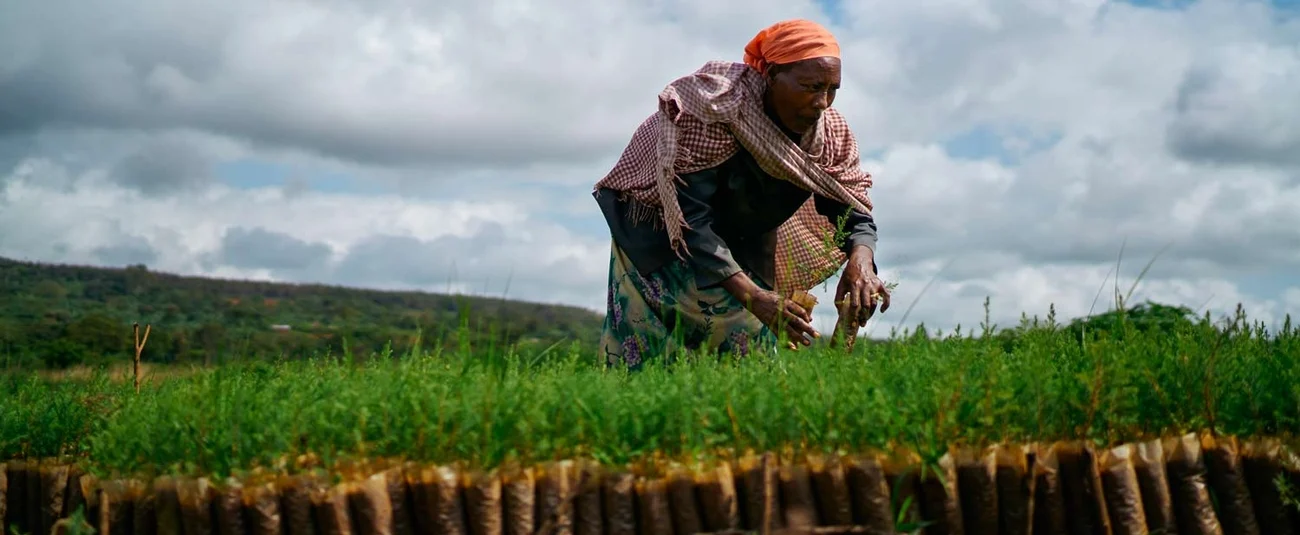

The International Cuisine Marcus Samuelsson Wants To Tackle Next
Chefs are often known for their signature style of cooking, be it a particular cuisine or an eclectic blend of influences. Marcus Samuelsson has combined his Ethiopian origins and Swedish upbringing into menus at a multitude of restaurants, interweaving his unique flair with North American and Japanese foods and techniques. With the recent opening of Marcus Addis in Ethiopia's capital city, Samuelsson continues to explore regional flavors and international twists. In an exclusive interview with Food Republic, the chef shared some of his culinary inspirations and cuisines he hopes to incorporate in the future. Although he is curious about foods from around the world, he is keen to learn more about certain Asian cultures. Samuelsson's restaurant VRÅ in Gothenburg, Sweden, serves a Nordic Japanese menu, sparked by the chef's time in Japan. Still, he remains humble, noting, "I spent a lot of time in Japan, but I don't master it, but I'm always curious to learn more." Not much has changed in that respect, regardless of Samuelsson's ever-expanding collection of restaurants. "I'm in love with cooking and learning and the people behind the food. So my curiosity is just as big today as it was when I started when I was 16-17 years old," he shares.

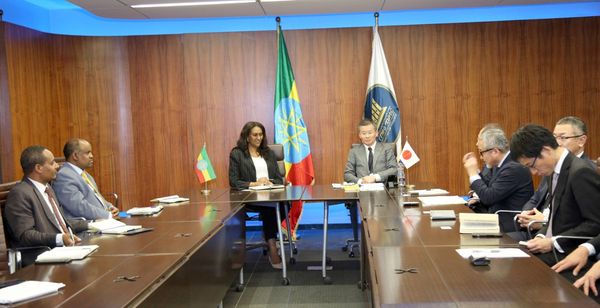
Japan Explores Opportunities to Boost Trade, Investment Ties with Ethiopia


Ethiopia Launches a Bitcoin Project
Ethiopia is embarking on a groundbreaking USD 250 million bitcoin mining and AI data center project, spearheaded by BitCluster. With the goal of becoming a leading force in the global digital economy, the country is utilizing its renewable energy reservoirs to drive forward the progress of bitcoin mining and AI development. An integral part of this ambitious endeavor is Project Mano, designed to tap into Ethiopia's renewable energy sources. Its aim is to set a precedent for the integration of these technologies into Ethiopia's economy. The project involves constructing a large facility near the Kilinto high-voltage substation in Addis Ababa, strategically positioned to capitalize on Ethiopia's abundant hydroelectric power from the Grand Ethiopian Renaissance Dam. With plans to host over 34,000 Antminer S21 200Th miners, the facility is expected to contribute significantly to the bitcoin network hash rate. This move aligns with Ethiopia's vision to become a hub for technological innovation and sustainable development, attracting global attention and investment in its tech sector. By integrating bitcoin mining into its economy, Ethiopia anticipates substantial GDP growth and positioning itself as a leader in clean energy-driven bitcoin mining.


Fashion Takes Center Stage Again with Creative DNA
The British Council, in partnership with Creative Hub Ethiopia, has announced the launch of Creative DNA: Ethiopia 2.0, an incubation program designed to empower early-stage fashion designers and propel them onto the global stage. The incubation program is for emerging talents in the Ethiopian fashion scene who are at the beginning stages of their professional journeys and cater to their entrepreneurial business development needs. The 10 selected designers to take part in the Creative DNA Ethiopia project will be part of a mentorship, incubation, and booth camp program and will receive micro-grants, gain access to UK sales opportunities, and become part of a global digital zine. According to Bezawit Damtew, British Council’s Arts Director, this initiative provides a comprehensive support system, nurturing the talent and entrepreneurial spirit of Ethiopia’s burgeoning fashion scene. Participants will benefit from a tailored business development program, equipping them with the essential skills and knowledge to navigate the industry and take their ventures to the next level.


Ethiopia plans independent insurance regulator to steer industry growth
Ethiopian central bank governor Mamo Mihretu details how an independent regulator can drive increased insurance penetration.

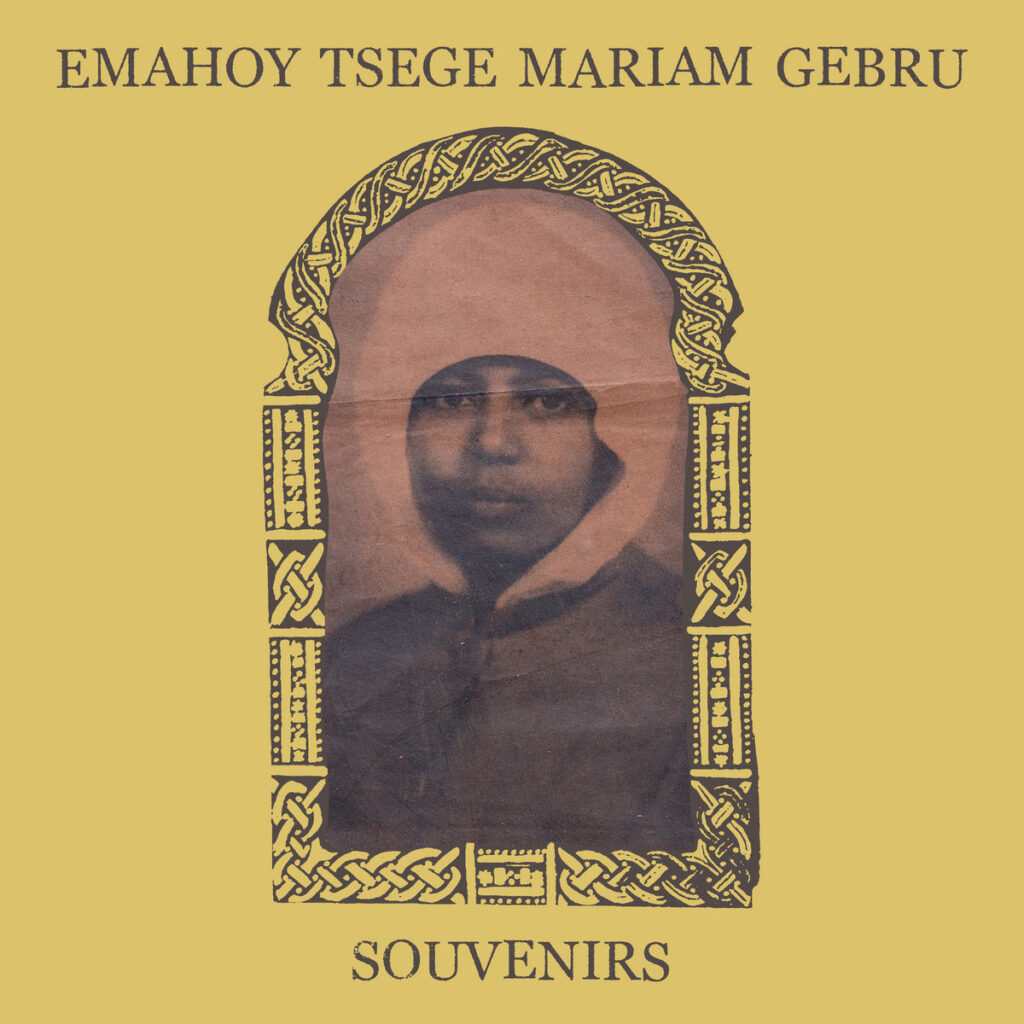
Emahoy Tsege Mariam Gebru Harmony Holiday
Emahoy Tsege Mariam Gebru is often flippantly monikered the “barefoot nun” or the “honky-tonk nun” in accounts of her life. This paradoxically reductive and sensationalizing shrink-wrapping of her path to asceticism is a naive defect of Western musicology. Within its codes, and those of Western popular music, there’s a hint of condescension to the sublime monasticism of any musician who refuses to behave as a traditional entertainer, no matter how drastic the conditions inciting that refusal. It’s pitched as bizarre and destabilizing. In Emahoy’s case, it was a practical act of transmutation. Born into Ethiopia’s high society in 1923, she was one of the first from her country to be sent to boarding school in Switzerland; she then went to study music in Cairo. Back in Addis Ababa, she rode horses in the hills and played her original compositions for Haile Selassie. She chose life as a nun after Italy’s 1936 invasion of Ethiopia and its subsequent violence interrupted her studies, preventing her from taking a position at London’s Royal Academy of Music. She was so disillusioned she stopped eating until she reached the brink of death. You can hear echoes of this waltz between abandonment and abandon in her playing; there’s a sense of gothic disenchantment that she rollicks in until it’s almost mirth, a private defiant smile or taunting song title, like “Why Feel Sorry,” uniting vengeance and resilience. When she absconded to places of worship, it’s as though the threat of death from external forces shocked her into catatonic fearlessness.
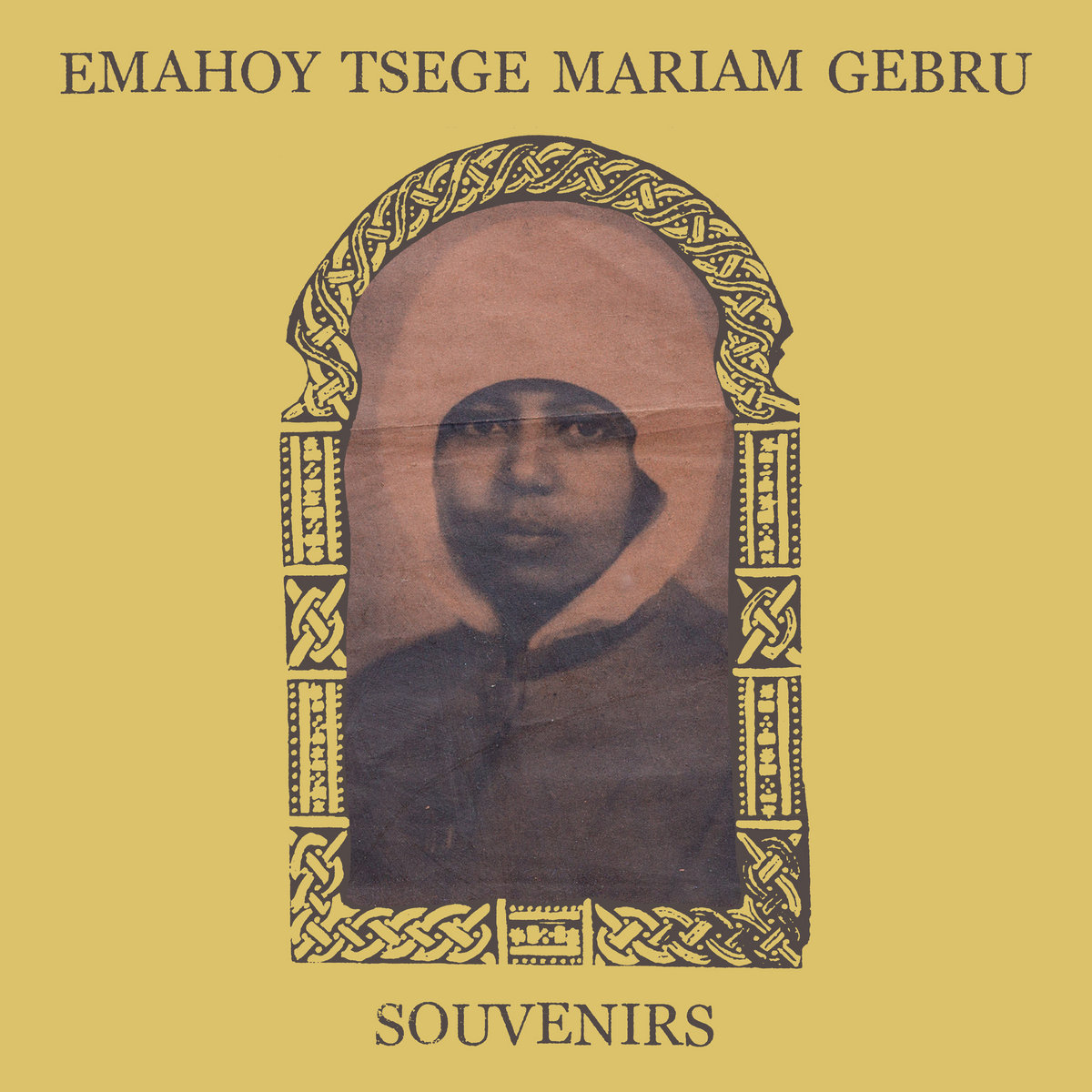
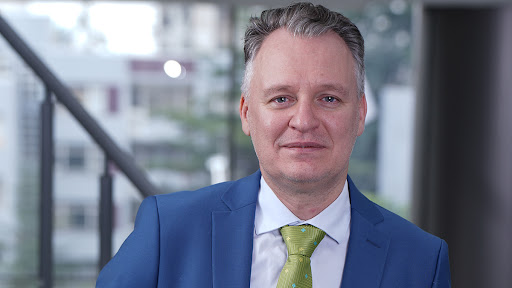
Safaricom bets big on Ethiopia’s digital future
Safaricom Ethiopia is betting on the East African country's digital future, which the business feels will be critical to generating growth. This is according to Safaricom Group CEO Peter Ndegwa, who spoke at Safaricom's second ‘Investor Day’ in Addis Ababa, last week. The investor day, themed "Scaling Operations for Ethiopia's Digital Future," attracted 150 delegates, including analysts, regulators, government representatives, Safaricom Kenya and Safaricom Ethiopia board members and senior management. "Our focus on scaling operations for Ethiopia's digital future has been instrumental in driving our growth, and we remain committed to leveraging our expertise and resources to continue establishing ourselves as a key player in the Ethiopian telecommunications landscape," Ndengwa said. Adil Khawaja, board chairman of Safaricom, said: "Ethiopia represents a significant growth market for Safaricom.” Safaricom Telecoms Ethiopia CEO, Wim Vanhelleputte, stated that the company has made significant progress since beginning commercial operations in October 2022. As of December 31, 2023, Safaricom Ethiopia had approximately 2,200 base sta


Mastercard and Awash Bank partner to launch enhanced payment options in Ethiopia
- Mastercard and Awash Bank, an Ethiopian commercial bank, have announced a new international prepaid card and Payment Gateway Service during a press conference at Awash Bank's headquarters in Ethiopia.
- This development points to an improvement in Ethiopia's card industry, as the cards enable online payments for customers and merchants worldwide while also assisting the bank in diversifying and expanding its service offerings.
- It is also consistent with Ethiopia's National Digital Payments Strategy (NDPS) 2021-2024, which focuses on how responsible payment digitisation can improve service delivery efficiency, promote transparency, encourage women's economic participation, foster financial inclusion, and sustain inclusive growth.

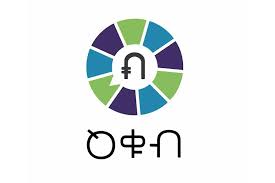
eQub App Vaults to Finals at Mobile World Congress Pitch Battles
eQub, a fintech startup aiming to digitize peer-to-peer saving groups and lending circles, has been selected as one of the top finalists for the 4YFN 2024 pitch battle taking place at the Mobile World Congress (MWC) in Barcelona, Spain. eQub, selected in the FinTech category alongside four startups from Benin, Spain, Azerbaijan, and the US, will participate in the pitch on Monday, February 26, 2024. The winners will be announced on Wednesday. “The competition will shine a spotlight on our startup as a competent player in the fintech landscape. It will also bring great interest towards the Ethiopian startup ecosystem,” says Alexander Hizkias, CEO and Co-founder of eQub. “Furthermore, it will also help us in our fundraising as well as collaboration efforts as the conference brings in industry veterans, investors & fellow startups,” he added. According to Alexander, this is a good nudge for them to keep pushing their objective of providing digital access to savings and credit. eQub is an alternate social savings app that digitizes the traditional rotating practice of savings and credit associations (ROSCAs) for the digital age, enabling easy saving, secured access, and building financial security collectively.
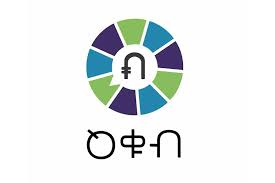
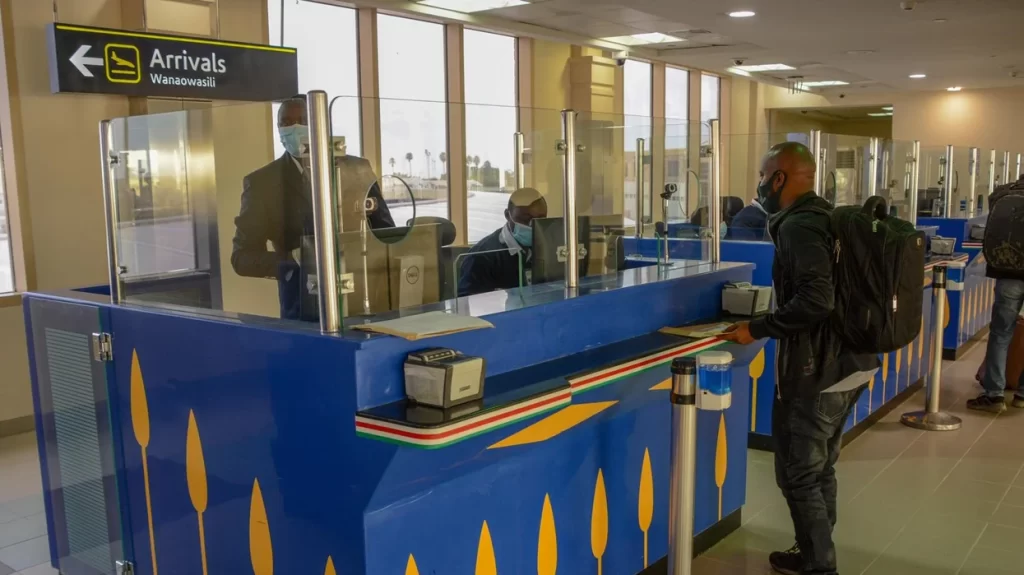
South Africa, Ethiopia and Five Other Countries Exempted From Kenya’s eTA Fee
Apart from member states of the East African Community, seven more countries have now been added to the list of those exempted from the required $30 e-travel authorization fee to enter Kenya. Citizens of South Africa and Ethiopia are among those who will no longer be required to pay the $30 fee required to enter into Kenya. The fee is a prerequisite to be allowed into the East African country via its electronic Travel Authorization (eTA) system. To end 2023, Kenyan President William Ruto announced a new visa-free policy, however, its processes still feel very much like entering the country with a visa. Except for citizens of six East African Partner States — Rwanda, Congo, South Sudan, Tanzania, Burundi and Uganda — all other exemptions from the eTA process are limited to diplomatic persons and bodies. It’s the same for individuals who can apply without paying the $30 fee. The distinctions are listed on the Kenyan Directorate of Immigration Services website.
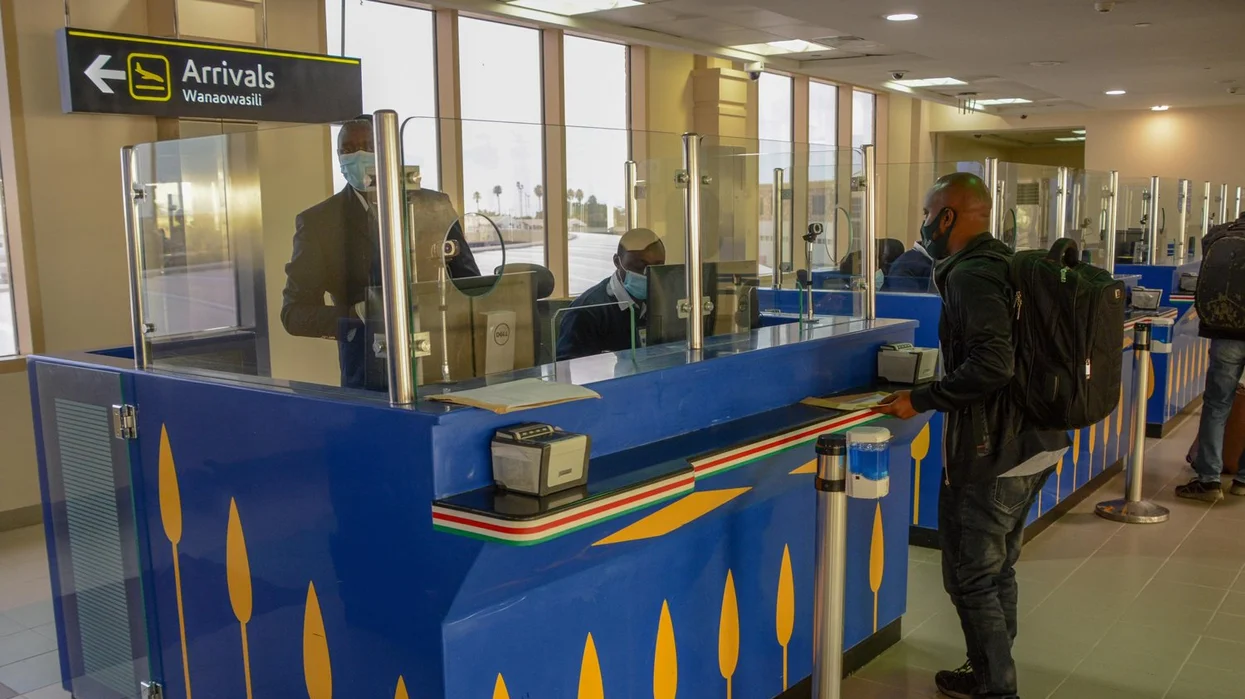
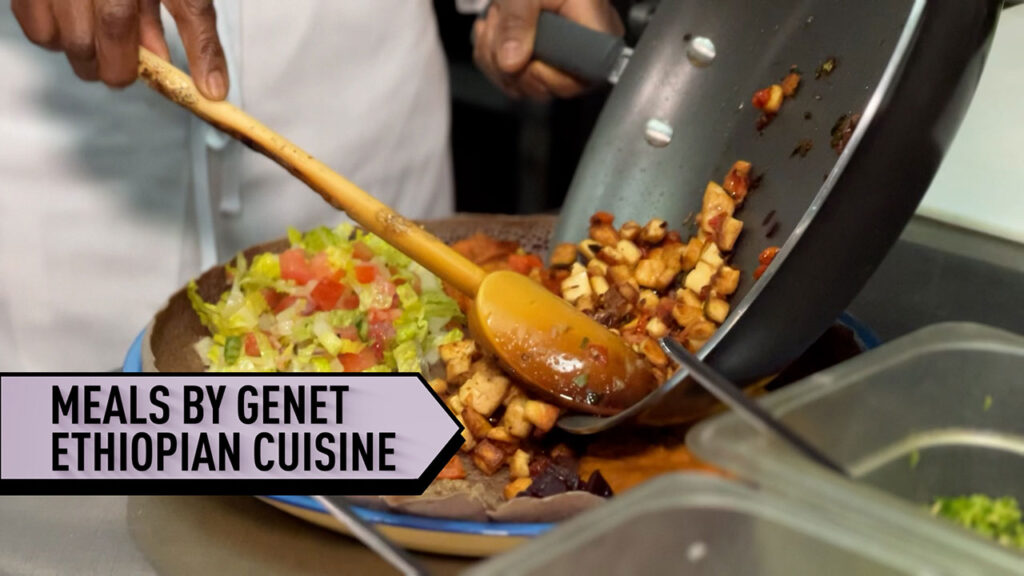
Little Ethiopia’s Meals by Genet featured on Freeform’s Chrissy & Dave Dine Out
Little Ethiopia's Meals by Genet was on the verge of closing when Pulitzer Prize-winning food critic Jonathan Gold featured the restaurant among his list of favorites. Now, the Ethiopian eatery is thriving, with many celebrities as frequent guests.
Most recently, the restaurant and its chef/owner Genet Agonafer were visited by the new Freeform show Chrissy & Dave Dine Out, featuring Chrissy Teigen and celebrity chef Dave Chang.
"Having Chrissy & Dave Dine Out coming here, I was just so excited to be a part of that," said Agonafer. "In Ethiopia, we take the food thing very seriously. It's like you represent your country. I don't want anyone to say 'I hate Ethiopian food,' at least if I can help it."
Meals by Genet will be featured on the season finale of Chrissy & Dave Dine Out on Wednesday, February 21 at 9:30pm on Freeform. The episode will then stream on Hulu.
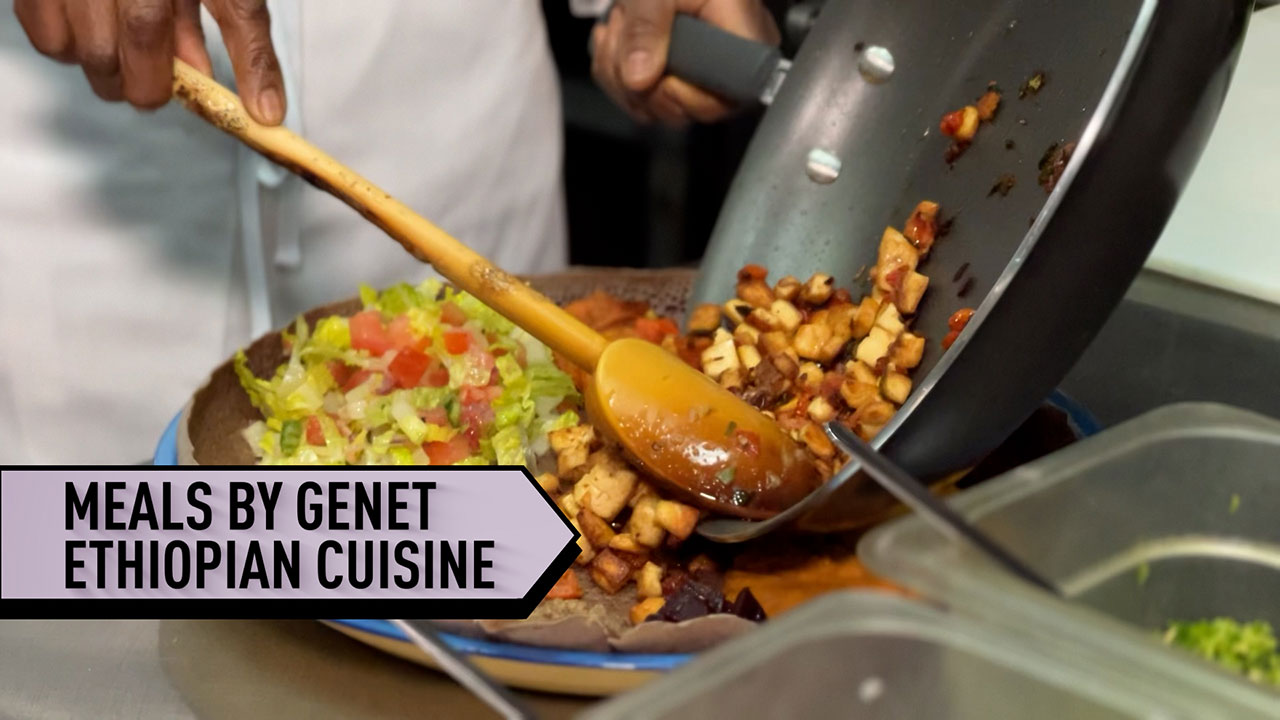

Ethiopian Cargo delivers 250M stems of flowers for Valentine’s Day
Ethiopian Airlines transported more than 250 million stems of flowers from three major flower-producing countries during the 2024 Valentine's Day Season. The national carrier on Wednesday said its Cargo Service delivered the flowers to various destinations in the past two weeks. Ethiopian Airlines Group's Ethiopian Cargo and Logistics Services has the largest cargo network in Africa. It covers more than 135 international destinations with both belly-hold capacity and 68 dedicated freighter services, deploying more than 140 airplanes. In the past couple of weeks, Ethiopian Cargo has been busy transporting flowers for this year's Valentine's Day.


Fariyal Abdullahi Is Making a Difference With Her Mission-Driven Cooking
The most significant moments in life don’t always take your schedule into consideration—just ask Fariyal Abdullahi. At 10:23 a.m. on January 24, Abdullahi, the executive chef at Hav & Mar, was in the middle of filming a television segment when her phone started buzzing and just wouldn’t quit. Abdullahi was doing what she often does—working a long day, even though she wasn’t at her restaurant. (And to be clear, she’s typically at Hav & Mar five days a week, and frequently working on projects for the restaurant when she’s off-site.) On this particular day, however, she was judging Food Network’s Chopped. Abdullahi is used to juggling multiple gigs, events and obligations. But the morning of January 24 was different. It was discombobulating trying to process what was happening, she says. Her phone blew up with congratulatory texts. But she didn’t have much time between shoots to properly react to the news that she had just become a James Beard Awards semifinalist for Emerging Chef. “I had maybe 30 seconds in between them resetting the cameras and repositioning everything,” Abdullahi tells Observer of the moment she found out. “And they’re like, ‘Okay, judges, you’re on camera.’ So I put my phone away, and the buzzing kept going.”


Ethiopia To Become The First African Country To Start Bitcoin Mining
Last week, on Thursday, February 15, the Ethiopian Government's investment arm, Ethiopian Investment Holdings (EIH), signed a memorandum of understanding with Honk-Kong-based West Data Group's Center Service PLC to commence mining bitcoin.
The partnership is under a general agreement for a groundbreaking $250 million data mining project "that is dedicated to establishing cutting-edge infrastructure for data mining and artificial intelligence training operations in Ethiopia," according to the EIH. Ethiopia is positioning itself as a leader in the data centre space in Africa, which is estimated to grow to $5.4 billion by 2027, according to Aritzon Advisory and Intelligence.
As noted by Kal Kassa, CEO for Ethiopia at Hashlabs Mining, “the development is part of the Ethiopian Government's aim to drive economic growth by leveraging technology and energy sources to attract foreign investments.”

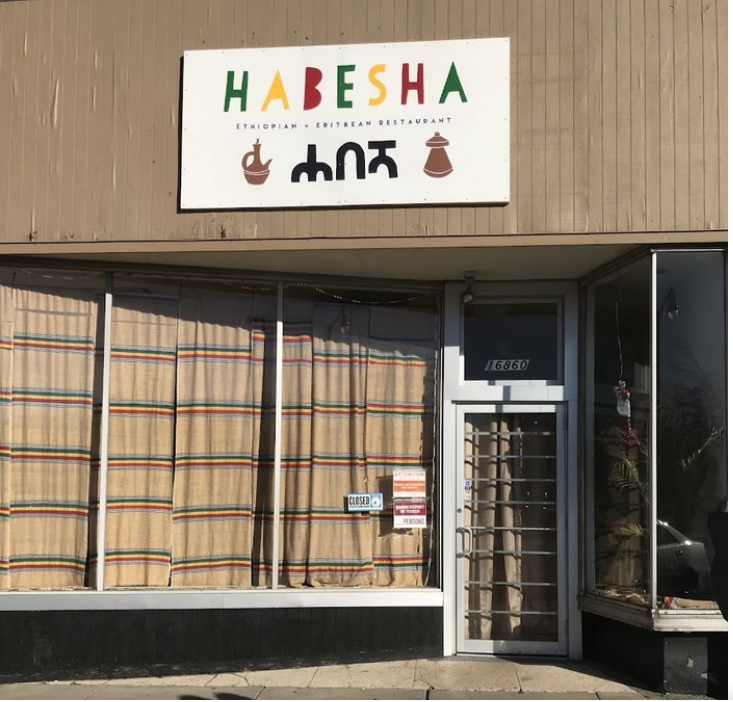
Discover Authentic Ethiopian and Eritrean Eats At Habesha In Cleveland
One of the best parts of living in a place like Cleveland is the easy access to international eats, especially when it comes to foods you’ve never tried before. If you’ve never tried Eritrean cuisine before, you’ll want to step into a world where the aroma of exotic spices dances through the air and every bite tells a story of tradition and culture. Nestled in Kamm’s Corners in Cleveland, Habesha Ethiopian and Eritrean Restaurant invites diners on a culinary journey that will take your taste buds on an international adventure unfolding 7,000 miles from home. With its vibrant ambiance and mouthwatering dishes, this hidden gem promises an unforgettable dining experience that transports guests to the heart of East Africa. In this case, looks aren't deceiving. If you've never had Ethiopian or Eritrean cuisine, you're in for a colorful world of flavor. But there's a deeper story here... in the 1990s and early 2000s, the Eritrean–Ethiopian War humbled two unique East African countries. Habesha is a word that nods to the unified people that span both countries, sharing traditions despite political borders keeping them separate.


Ethiopia discussing selling 10% stake in Ethio Telecom via stock exchange
Ethiopia's telecoms industry, serving a population of about 120 million, was considered a big prize when Abiy took over in 2018 and promised to liberalise the economy.
But recurring security problems, legislative changes and concern about the government's commitment to opening up the tightly controlled economy have since deterred investors. French telecoms firm Orange said in November that it had decided to withdraw from buying a stake of up to 45% in Ethio Telecom, which held a monopoly before a consortium led by Kenya's Safaricom won the country's first private telecoms licence and started commercial operations in 2022. Abiy told a board meeting of government investment arm Ethiopian Investment Holdings on Tuesday that board members would "decide how to proceed regarding the second issue where we said we will sell 10% of Ethio Telecom's shares to the public via the capital market," according to a video clip of the meeting shared by state-affiliated Fana Broadcasting.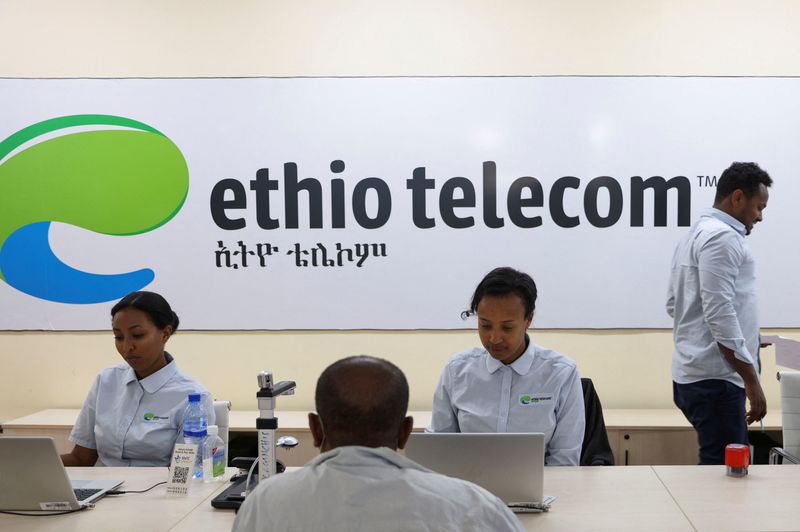

Ethiopian Fintech Startup Arifpay to Raise 160 Million Birr in Second Funding Round
Ethiopian fintech startup Arifpay is raising 160 million birr (2.8 million dollars) in what marks the company’s second round of funding. Shareholders of Arifpay Financial Technologies unanimously passed the resolution last week, aiming to bring the startup’s capital to 300 million birr. Arifpay initially raised 140 million birr in its first round of funding in 2021 from 42 founding shareholders, a mix of industry experts and angel investors. In a press statement sent to Shega CEO of Arifpay, Bernard Laurendeau, explained that the decision to increase the company’s capital comes at a critical time as it strives to expand its product offerings and anticipates both organic and non-organic business expansions in the coming years. The CEO added that this move is part of the strategy defined by the company in 2022, specifically aimed at ensuring a smooth transition from Stage I to Stage II in its maturity model.

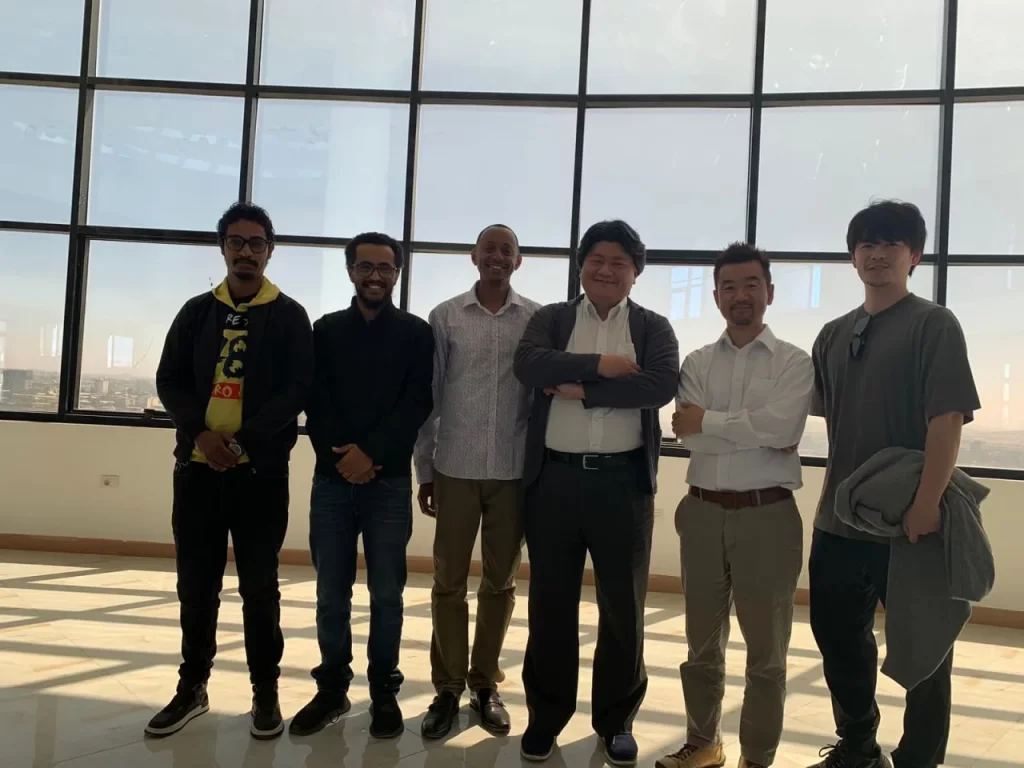
Ethiopian Software Development firm Addis Software Secures Investment from Japanese VC, ICJ
Addis Software, a software development company focusing on custom software solutions, mobile apps, and web development, has announced a capital investment from Inclusion Japan, a Tokiyo based Venture Capital firm, promoting social impact investments. The investment structure primarily involves equity/share-based early-stage investment, indicating that Inclusion Japan sees significant value in the company. According to Abenezer Yakob CEO of Addis Software “While the exact amount of the investment cannot be disclosed at this moment, it represents a significant endorsement of Addis Software’s potential.” Abenezer underscores the significance of Inclusion Japan’s investment in unlocking Addis Software’s aspirations. According to him, the capital will primarily fuel decentralization efforts, enabling the company to expand its geographical reach and tap into diverse talent pools. Additionally, attracting skilled team members will further empower Addis Software to meet surging demand effectively. This strategic expansion, driven by both decentralization and talent acquisition, is crucial for the company’s ambition to solidify its position as an industry leader with an amplified market presence.
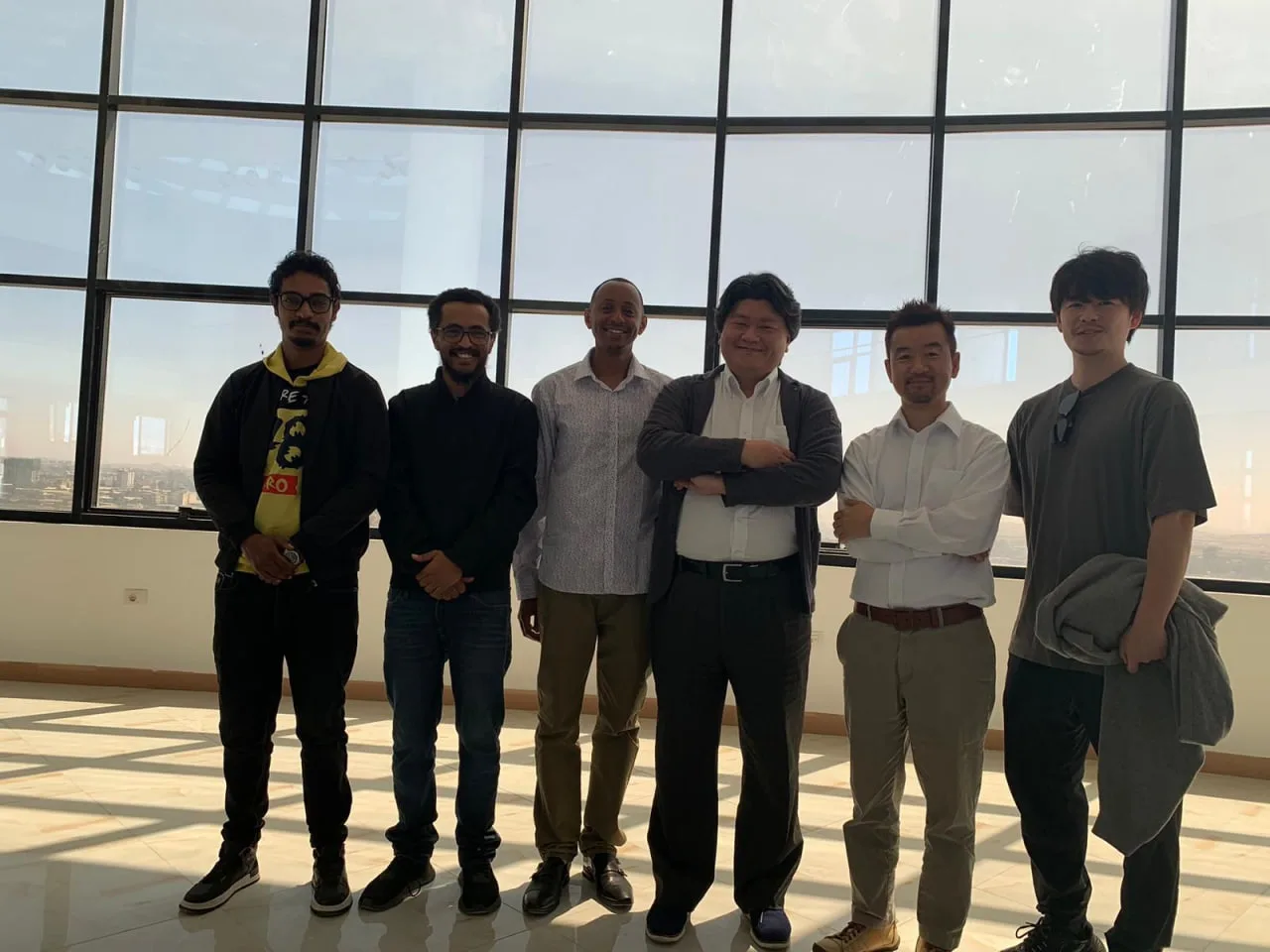

Ethiopia makes data center deal with Hong Kong company, may start mining
The Ethiopian government has entered into a partnership with a Hong Kong data center operator. According to reports, Bitcoin mining will be among the activities the sides develop together. State-owned Ethiopian Investment Holdings has signed a Memorandum of Understanding with Data Center Service, a subsidiary of Hong Kong’s West Data Group, according to an announcement released on Feb. 5. Ethiopia and West Data will cooperate on a $250-million project “dedicated to establishing cutting-edge infrastructure for data mining and artificial intelligence training operations in Ethiopia.” Kal Kassa, CEO for Ethiopia at Hashlabs Mining, stated in an X post that:
“The Ethiopian Government will be mining bitcoin through it's [sic] partnership with Data Center Service.”Indonesian Hashlabs Mining already has operations in Ethiopia, where mining has been permitted since 2022, but cryptocurrency trading is prohibited.


Ethiopia to set up large data centre amid reported bitcoin mining surge
NAIROBI (Reuters) – Ethiopia has signed a preliminary agreement to develop infrastructure for data mining and artificial intelligence training operations, the government’s strategic investment arm said.
Ethiopian Investment Holdings (EIH) initially said in a social media post on Thursday that a memorandum of understanding for a $250 million project had been signed with a subsidiary of Hong Kong-based West Data Group, but it later removed references to the value of the deal and the identity of the company.
The EIH, West Data Group and an official from the Information Network Security Administration, which oversees data mining in Ethiopia, did not respond to requests for comment about the deal.

Ethiopia Names Artist for Its First-Ever National Pavilion at the Venice Biennale
The painter Tesfaye Urgessa will represent Ethiopia for the country’s first-ever national pavilion at this year’s 60th Venice Biennale, which runs from April 20 until November 24, 2024. His exhibition “Prejudice and Belonging” will take place at Palazzo Bolani and is curated by the writer Lemn Sissay. It was commissioned by Ethiopia’s Ministry of Tourism. Urgessa’s work stands out for its focus on classicized human figures, often distorted or entwined with each other in domestic settings. The viewer is invited to contemplate the subjects’ ambiguous psychological states. Born in Addis Ababa in 1983, Urgessa began his studies under the celebrated painter Tadesse Mesfin at the Ale School of Art and Design at Addis Ababa University. He later moved to Stuttgart in Germany to study at the Staatlichen Akademie and remained in the country for 13 years. During this period, Urgessa developed a style that used Ethiopian iconography as well as influences from the German Neo-Expressionists and School of London painters like Freud, Auerbach, and Bacon.

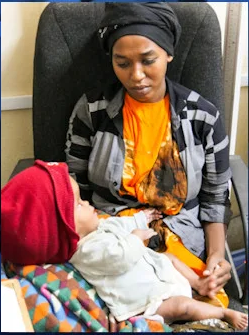
Bend-based ReachAnother Foundation launching first pediatric neurosurgery center in Ethiopia
BEND, Ore. (KTVZ) -- In a big step toward transforming pediatric health care in Ethiopia, the Central Oregon-based nonprofit organization, ReachAnother Foundation, is spearheading the launch of the first stand-alone, state-of-the-art Pediatric Neurosurgery Center in that African country. This groundbreaking initiative expected to be operational by summer 2024 is made possible by a generous grant from The Leona M. and Harry B. Helmsley Charitable Trust. It exemplifies both ReachAnother’s commitment to creating lasting change for Ethiopian children born with spina bifida and hydrocephalus and the Helmsley Charitable Trust’s dedication to increasing access to healthcare for vulnerable children in Sub-Saharan Africa.

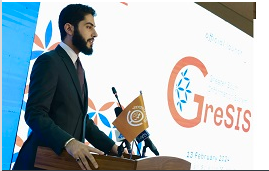
OSC launches greater South Information System
The Secretary-General of the Organization of Southern Cooperation (OSC), Sheikh Manssour Bin Mussallam, today launched the Greater South Information System (GreSIS) digital platform during a ceremony held at the Ethiopian Science Museum in Addis Ababa. The launch of the GreSIS digital platform marks a pivotal milestone in democratizing access to knowledge across the Global South and was graced by the State Minister of the Ministry of Innovation and Technology of Ethiopia, Dr Bayissa Bedada, officials from Member States, officials of the Government of the Federal Democratic Republic of Ethiopia, Ambassadors of Member States of the Organisation of Southern Cooperation (OSC), educational institutions, CSOs, development agencies, intergovernmental agencies, researchers, instructors, and students. The Greater South Information System (GreSIS) stands as a ground-breaking digital, open-access, and collaborative hub of academic and endogenous knowledge. Developed by the Organisation of Southern Cooperation (OSC), GreSIS aims to democratise access to, and the production of, knowledge in the Global South. It is a tool aimed at fostering collaboration and engagement among educational institutions, researchers, instructors, students, government officials, and Indigenous people’s organisations.


Ethiopia welcomes sustainable textile investment
ADDIS ABABA - Ethiopia has signed a $28 million deal with the United Nations Industrial Development Organisation (UNIDO) to drive the sustainable growth of the country's textile and garments sector. Backed by the Global Environmental Facility (GEF), a multilateral environmental fund that provides grants and finance for projects related to biodiversity, climate change and land degradation, the five year project will focus on the promotion of the circular economy in the textile and garment sector including investment in new, resource efficient technologies for manufacturers.


Ethiopia: Seed-cleaning machine generates additional income and services
For the past 19 years, Wirtu Kechema Seed Multiplication Cooperative in Ethiopia has been involved in the seed multiplication business. As a result, this cooperative has developed seed multiplication techniques and has increased members’ income. After production, value addition is an important activity to attract more buyers and maintain the quality of the seed. The processing of the seed involves cleaning, grading, treating, packaging, and storing operations. Processing is a value-adding activity that improves the physical purity and health of seed stock by removing various contaminants like undersized and shriveled grains, inert matter, and seeds of other crops. Spotting opportunities Board members together with the team of Agriterra cooperative advisors claim to have identified an opportunity to enhance sustainable service provision for members and generate additional income for the cooperative. This involves activating a seed-cleaning machine that has remained idle since the cooperative’s establishment due to the lack of three-phase electricity.


Dubai International Chamber supports expansion of UAE’s Mars Food Industries into Ethiopian market
Dubai International Chamber, one of the three chambers operating under the umbrella of Dubai Chambers, has successfully unlocked access to the Ethiopian market for the UAE's Mars Food Industries. The chamber helped facilitate the export of baby food products produced and manufactured in the UAE by the company’s Miralac brand to the East African nation, marking its first deal on the African continent. Dubai Chambers hosted the signing of a commercial cooperation agreement between Mars Food Industries and Tana Ekt Trading, which will market and distribute Miralac baby food products in Ethiopia. The company is set to cater to a growing demand created by the country’s young population and the lack of availability of nutritious ready-made baby foods. The Dubai Business Forum, which was organised by Dubai Chambers last year, served as a valuable platform to introduce Mars Food Industries to the Ethiopian market. During the event, Dubai International Chamber arranged bilateral business meetings between the company and a group of potential partners in Ethiopia, which resulted in the signing of a marketing and distribution agreement for Miralac baby food products with Tana Ekt Trading. The first shipment of Miralac products has since been exported to Ethiopia.


From Ethiopia to Idaho: Brey Steffensen’s Journey to Senior Night at Hillcrest
AMMON, Idaho (KIFI) - Hillcrest Boys Basketball has won back-to-back 4A state championships, and they chase a three-peat this season. Their unsung hero is their team manager, who finally got his chance to play on senior night Wednesday. Brey Steffensen stole the show in his first career start when he scored his first career basket. "It was wonderful," Steffensen said. "The whole gym went wild and they were chanting my name and it was just very special to me." Brey's road to this point has been anything but easy. Growing up in Ethiopia, Brey suffered from a rare disease called Lathyrism, an incurable neurological disorder that causes paralysis of the lower limbs. At one point, Brey couldn't walk. "I've done a lot of hard things in my life," Steffensen said. "And I've also done a lot of things that I couldn't do." By the summer of 2017, he was playing baseball and Sports Line took notice because he was throwing darts. "He pitched the whole season," Skyleur Steffensen said. "You guys did a story on him, and it was cool to see him just excel in that sport.

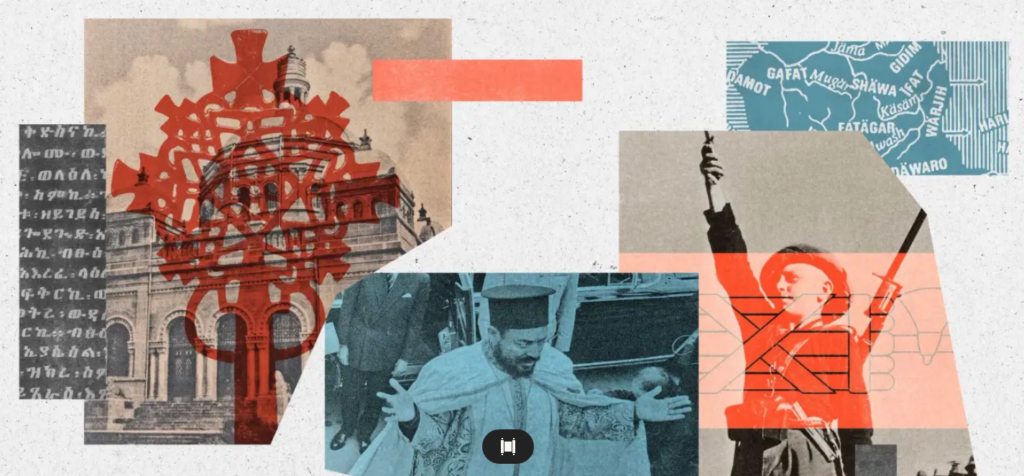
Finding the ‘Real Africa
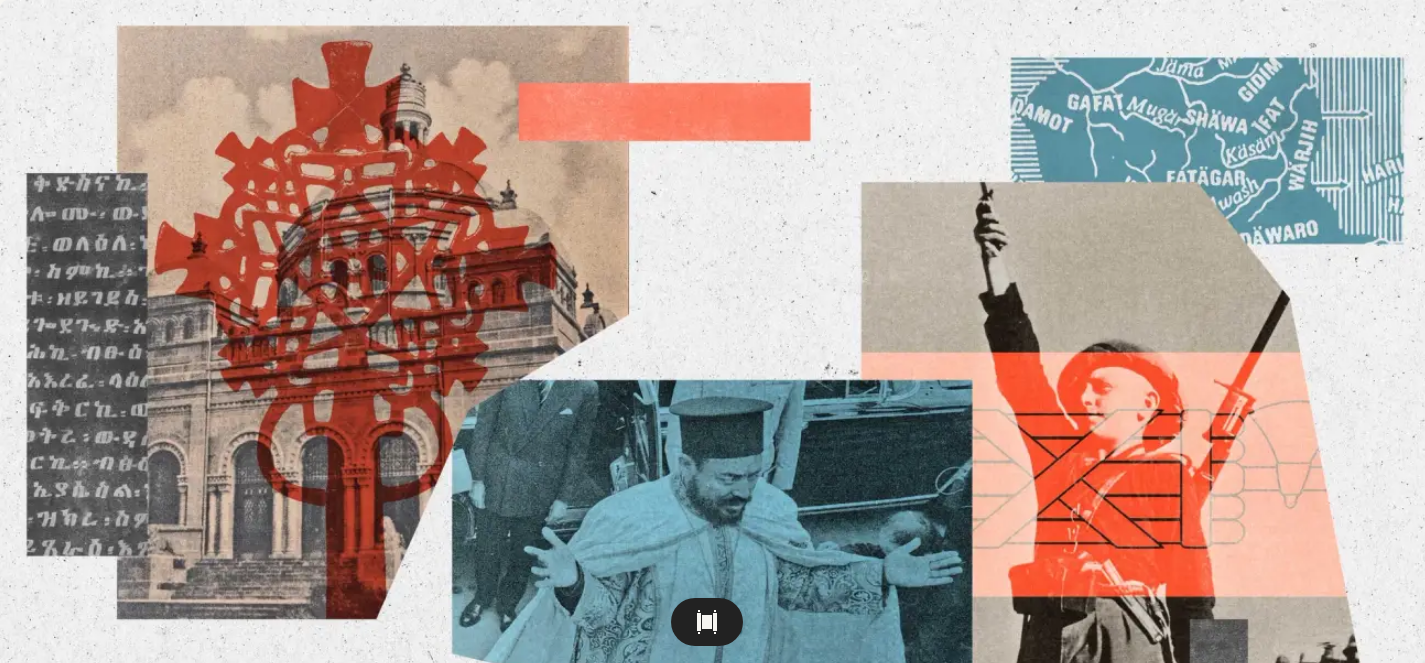

Building virtual bridges between Ethiopia’s diverse cultures
Mahder M. Getaneh, a passionate architecture lecturer at Addis Ababa Science and Technology (AASTU), not only teaches her students but also delves into the realms of design, innovation, and problem-solving for societal issues. In October 2022, she participated in a media literacy training organized by the US embassy in Addis. The training focused on combatting misinformation and disinformation, aiming to equip attendees with the necessary tools to tackle this pervasive problem. With approximately 60 participants, the three-day training concluded with a challenge: each group had to devise an idea addressing Ethiopia’s major challenges. After careful consideration, Mahder’s group saw ethnic tension as the country’s major hurdle, attributing it to the propagation of misinformation and disinformation.

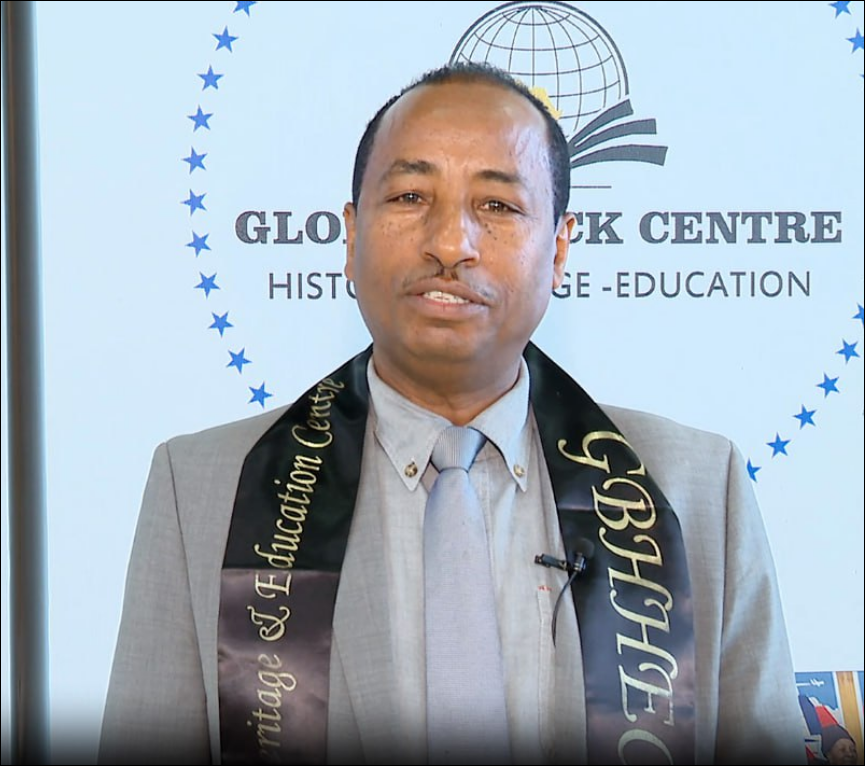
Adwa Victory Memorial Manifestation of Ethiopia’s Pioneer Role for Pan-Africanism, Says World Black People Center
Addis Ababa February 10/20224 (ENA) Adwa Victory Memorial erected in Addis Ababa signifies the contribution that Ethiopia has pioneered to Pan-Africanist movement, according to World Black People Center. President of the Global Black Center, based in Addis Ababa, Tsagaye Chama recalled that historians describe the victory of Adwa as a new departure for changing the old narratives and laying foundation for anti-clonial movement of the black people around the world. The victory of Adwa is a legacy that transcends time for Ethiopia, awakening the Pan-African movement and emancipation of all black people across the world, Tsagaye said. He added the establishment of Adwa Victory Memorial in Addis Ababa has immense contribution serving as hub for history, heritage, and education of the global black people. According to him, the victory memorial attests Ethiopia’s leading role in the movement of Pan-Africanism.


Ethiopia’s cultural reawakening arrives on campus
Addis Ababa University’s storied grounds came alive last week as the country’s premier institution revived its long dormant Cultural Festival. From February 5th through the 7th, students and faculty were treated to performances by renowned artists as well as presentations exploring the influence of culture in academia and society. The festival, which was last held seven decades ago, has resumed with two pillars at its core. The first features artists of all disciplines, from drama and music to poetry, chorus and more. Half of the performers are AAU alumni while the other half are selected guest artists. In an inclusive spirit, students and faculty from any department—whether engineering, medicine or otherwise—were also invited to showcase their artistic talents. Performances took place at AAU’s cultural center, which reopened just six weeks prior after years of dormancy.

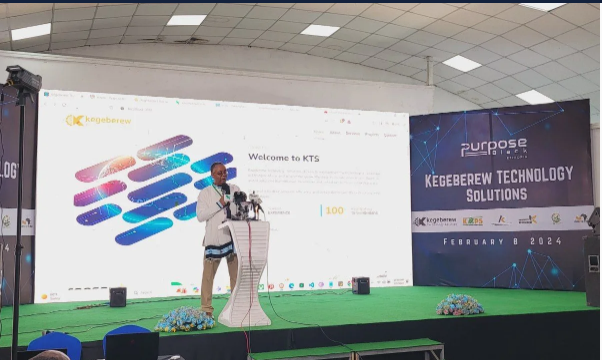
Controversial Purpose Black Marks Entry into Ethiopia’s Digital Economy
Purpose Black Ethiopia, which recently faced public scrutiny regarding its fundraising practices, has unveiled multiple digital platforms aimed at transforming Ethiopia’s agricultural sector and enhancing consumer experience. Founded by Dr. Fiseha Eshetu, Purpose Black Ethiopia has been gaining attention since its launch in May 2020. The company’s flagship project, Kegeberew (“Straight from the Farm”), addresses the issue of rising grocery prices by eliminating middlemen. Through a network of farmers, Kegeberew brings fresh produce directly to consumers, bypassing brokers and offering competitive prices. However, in 2023, Purpose Black’s attempt to raise funding for its Kegebrewu Tower stirred controversy due to the phrasing of its share-selling announcement and advertisements.


A unique educational initiative inaugurated at Rambam
In an exciting collaboration between Rambam Health Care Campus (Rambam) in Haifa, Israel, the Boston-Haifa Connection (BHC), the Ministry of Education, and the Ministry of Aliyah and Integration, a unique educational initiative – a Hebrew literacy course for Rambam employees of Ethiopian descent – has been inaugurated. Thanks to the Haifa chapter of the BHC (The Israeli office of CJP- Combined Jewish Philanthropies of Greater Boston), twenty students, aged 30-50, mainly from Rambam’s Housekeeping and Custodian Department, will immerse themselves in 150 hours of Hebrew language study and develop their computer skills. The BHC sees great importance in promoting equal educational and employment opportunities for Ethiopian immigrants and providing additional opportunities for veteran immigrants who still need to improve their language skills.

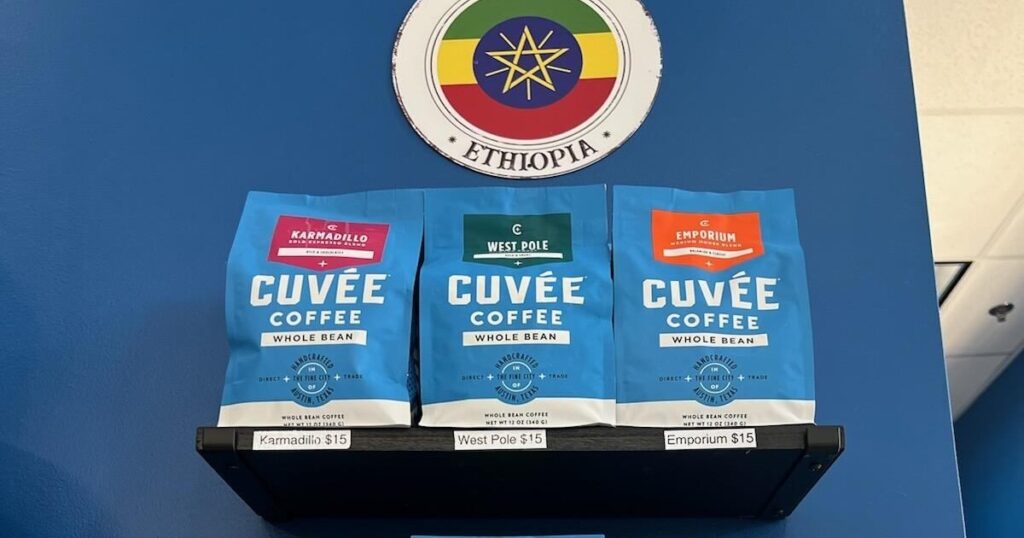
Local coffee shop educating Tulsans on the drink’s Ethiopian roots
Coffee is one beverage many cannot live without. It's often first thing in the morning and throughout the day. To commemorate Black History Month, a Tulsa businessman wants everyone to know that Africa is to thank for the delicious brew. Every blast of steam, every shot of espresso is art for Sean Terrell. He is quick to say he didn't even like coffee until he decided to open his own business.
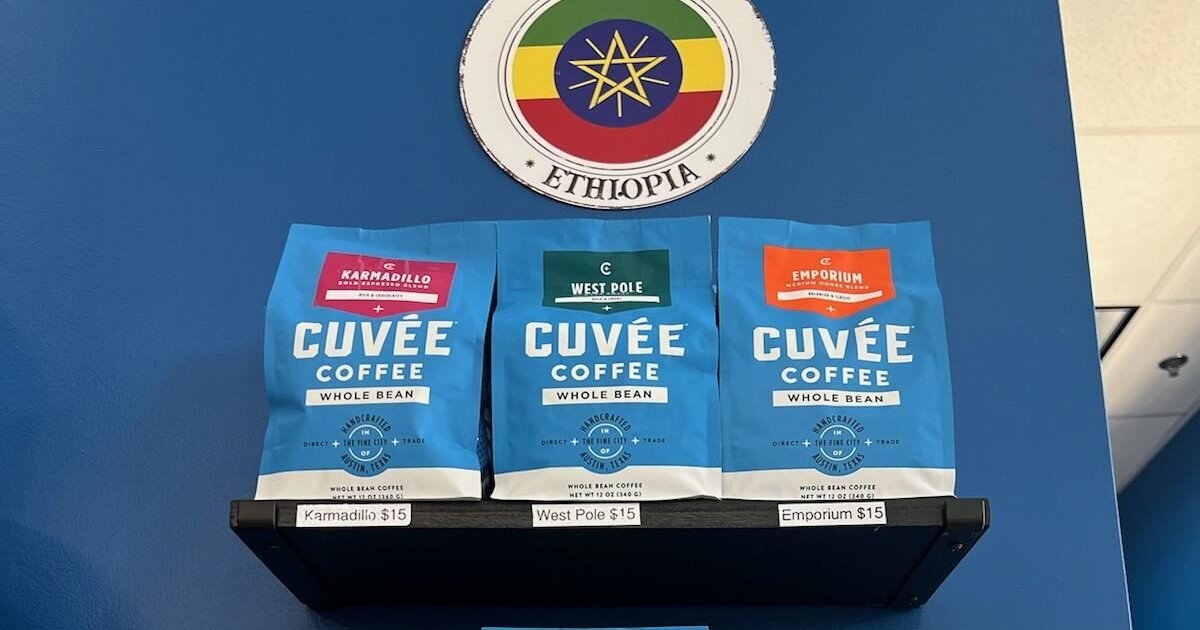

Piedmont cardiologist taking team to Ethiopia to help heart patients
A Piedmont Hospital cardiologist is working to improve heart health in his home country of Ethiopia, which he says suffers from an incredibly high death rate from cardiovascular disease.
Dr. Tesfaye Telila practices at Piedmont hospitals in Newnan and Fayetteville. In a couple weeks, during Heart Health Month, he and his wife, Dr. Obsinet Merid, will lead a team of medical volunteers from metro Atlanta to their home country of Ethiopia, where they say heart attacks and strokes don’t just kill the elderly.
"The vast majority of these patients who are dying from heart attacks and strokes are actually very young," Telila said.
FOX 5 was at Piedmont Newnan Hospital’s cath lab where Dr. Telila was preparing for a full day of procedures.


Akobo Minerals expecting big 2024 with start-up of processing plant in Ethiopia
Akobo Minerals CEO Jorgen Evjen joined Steve Darling from Proactive to discuss the company's notable achievements in 2023 and their ambitious plans for 2024. Akobo Minerals, with a remarkable 13-year history of exploration in Ethiopia's Gambella region, has successfully identified promising gold deposits in a previously untouched area. The key highlight of the past year was the establishment of a full-scale processing plant, demonstrating the company's commitment to sustainable practices. Evjen acknowledged some challenges faced during the year, such as equipment imports from South Africa, but emphasized the rewarding progress made by the company. Notably, the company also made significant strides in advancing an underground mine, achieving a crucial milestone just before Christmas. With plans for commissioning in mid-2024, Evjen outlined the company's strategy to reinvest generated cash into ongoing exploration efforts, placing a strong emphasis on safeguarding shareholder value.


Aunt Yvette’s Kitchen brings the flavors of Ethiopia to Eagle Rock
The artwork, the ambiance - it's the feeling of dining in a family's member's home! That's what Aunt Yvette's Kitchen is all about.
The restaurant is bringing the flavors of Ethiopia to Eagle Rock. It's a passion project for owners Yvette and Russell Platoff, who met more than two decades ago.
"I knew that she was my wife immediately... I knew that if I could just cook her a meal that was going to be it," Russell said.
Since getting married, the couple has been cooking thousands of Ethiopian dishes together.
It's a cuisine very important them.
"The moment I ate it I just felt like, a purpose. Something happened there. You'll try food and something talks to you, just speaks to you. It's in your spirit," said Yvette.
Stew is a staple in the East African country, and their beef awaze is one of their best sellers and is simply a must-try. It includes tender brisket, jalapeño and onion.
Other hot items on the menu include the whole crispy trout. The Kitfo is an Ethiopian beef tartare served with ricotta cheese. A vibrant vegetable combo makes for a great shareable appetizer. Last, but not least, is the lamb stew, which is a delight.

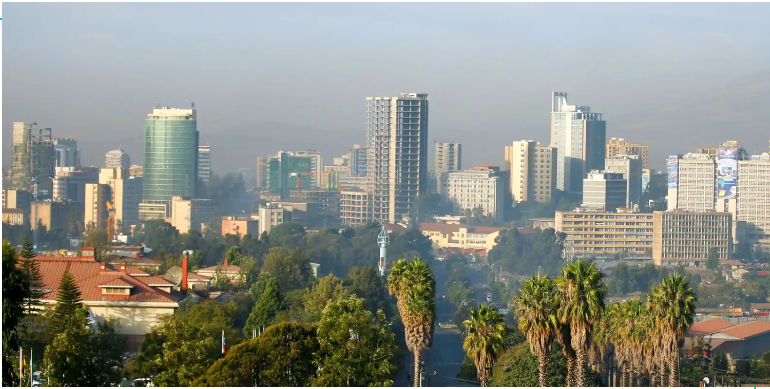
Ethiopia set to become first country to ban internal combustion cars
Ethiopia spent nearly $6 billion to import fossil fuels last year — with more than half of that spending going to fuel vehicles. In response, Ethiopia’s Transport and Logistics Ministries have announced that automobiles cannot enter Ethiopia, unless they are electric. (!) Last February, the European Union approved a law that would ban the sale of combustion engine cars in its member states from 2035 — joining several US states, Canada, Japan, Singapore, India, New Zealand, and a number of other nations with similar bans already on the books (see chart, below). Ethiopia, however, isn’t waiting for 2035. Ethiopia is trying to ban ICE vehicles now. According to a news update from the parliament, Alemu Sime, the Ethiopian Minister for Transport and Logistics, announced the completion of the nations Logistics Master Plan Monday. Details were scarce, but he has announced that, “a decision has been made, that automobiles cannot enter Ethiopia unless they are electric ones.”

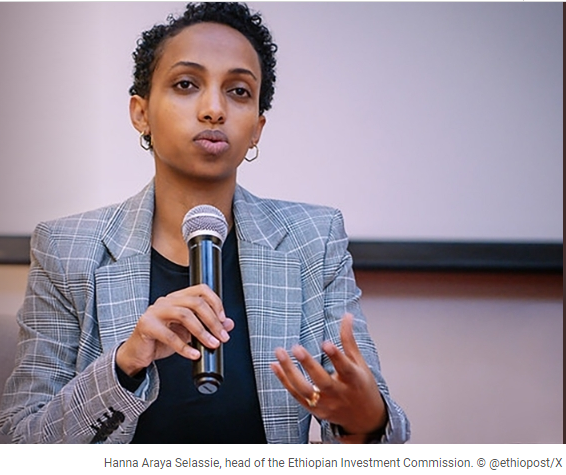
Inner circles | Ethiopia New investment chief Hanna Araya Selassie has allies galore
Her appointment as director of the Ethiopian Investment Commission marks another step up for the well-connected woman who turned around Ethiopost's fortunes. Reviving flagging foreign investment, with help from a revamped team, is now priority number one. [...]

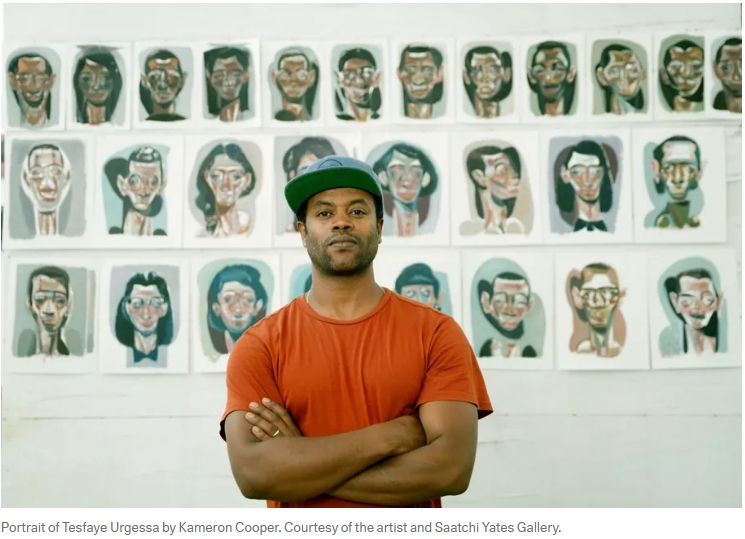
Tesfaye Urgessa will represent Ethiopia at the 2024 Venice Biennale
Tesfaye Urgessa has been selected to represent Ethiopia at the 2024 Venice Biennale, the first time that the nation will be participating with a national pavilion at the event. The exhibition, which is curated by Lemn Sissay OBE, will take place at the 13th-century Palazzo Bolani. In recent years, Urgessa has gained international recognition, presenting “Tesfaye Urgessa in Miami” with Saatchi Yates in 2022 for Miami Art Week and “No Country for Young Men” in 2019 for Addis Fine Art in Addis Abba. This past November, Urgessa was also selected to be featured in the The Artsy Vanguard 2023–2024. Born in 1983, Urgessa is known for his paintings that depict human bodies in the center of domestic scenes. His subjects, often stoic and muscular, staring the viewer directly in the eye, are exposed and vulnerable. Balancing gestural form with a sharp color palette, his paintings reflect on his personal experience with racism once he moved from Ethiopia to Germany. “Representing Ethiopia for the first time, this is really amazing,” the artist said in an interview with Artsy.


The Italian Government has Officially Returned Ethiopia’s First Plane
Built in 1935 during the reign of Selassie, the aircraft was a collaborative effort between the German pilot Herr Ludwig Weber and Ethiopian engineers. In December 1935, Weber embarked on the plane’s maiden flight, covering a distance of about 30 miles (50km) from Addis Ababa. The flight lasted for about seven minutes. By the time it was abandoned in Addis Ababa in May 1936, as Italian forces approached the Ethiopian capital, the aircraft had accumulated about 30 hours of flight time. The official handover of the aircraft, named Tsehay in honour of the princess daughter of Emperor Haile Selassie, was celebrated on Tuesday by the Ethiopian prime minister, Abiy Ahmed.


To Foster Understanding and Respect, U.S. Embassy Hosts Interfaith Christmas Dinner
Addis Ababa, January 31, 2024 – Sharing a holiday meal around a common table is a tradition rooted in the faiths of every major religion. In order to foster understanding, respect, and dialogue among Ethiopians of different religious backgrounds and to promote peace and national unity, on January 30, U.S. Ambassador Ervin Massinga hosted an Interfaith Christmas dinner for Ethiopia’s faith leaders at his residence. The dinner was an opportunity for representatives of diverse faith groups to share their beliefs, build connections, and contribute to a more inclusive society. Religious leaders from Ethiopia’s different faith groups including Ethiopian Orthodox Church, Ethiopian Catholic Church, Protestant churches, Muslim communities, Beta Israel Jewish Community, Waaqeffanna Religion Followers Organization, and Interreligious Council of Ethiopia attended the dinner. In welcoming the faith leaders to his home, Ambassador Massinga praised Ethiopia’s ancient history of religious harmony, acceptance, and diversity. He encouraged the leaders to work together and with the U.S. Embassy in the coming year to bring promote peace among all the people of Ethiopia.


251 Telecom, TouchNet Partner to Offer Cloud Storage Services in Local Currency
251 Telecom, a telecommunications company founded by Addis Alemayehou, has partnered with TouchNet, a South African internet service provider, to bring storage-as-a-service solutions to the Ethiopian market in local currency. The collaboration, which aims to empower businesses and government agencies with cloud solutions and build a self-sufficient local digital ecosystem, was announced last week and brings several advantages to the market. According to the partnership, TouchNet will bring its hardware and technology and host it at the Raxio Data Center. Meanwhile, 251 will manage the business operation. Furthermore, TouchNet has also formed a partnership with Zadara, a U.S. company, to provide the computing, storage, and network resources to avail the service. Zadara is a globally known brand that offers fully managed enterprise-class storage for private and public clouds.


Safaricom Ethiopia is yet to get M-PESA up to speed in race with Ethio Telecom
Safaricom sees “great momentum” for M-PESA and an “untapped” opportunity to grow m-money services in Ethiopia, but the operator’s new venture in the country will need to pick up the pace on customer acquisitions to begin closing the gap on established rival Ethio Telecom. Safaricom Telecommunications Ethiopia (STE) reported that it had signed up 3.1 million customers of M-PESA, parent Safaricom’s flagship fintech offering, between it’s August 2023 debut and the end of the year. Although STE has made a strong start with M-PESA, it remains both dwarfed and outpaced by Ethio, which began offering its Telebirr m-money service in May 2021, in anticipation of STE’s arrival. At the end of 2023, the incumbent operator reported 41 million Telebirr customers. Unsurprisingly, it has a much larger base after more than a two-year headstart, and it is adding customers at a faster clip than STE.


Ethiopian-Owned Lucy Coffee House Opens in Aurora
After years as a coffee roaster and wholesale supplier, Lucy Coffee opened a brick-and-mortar cafe at 14048 East Mississippi Avenue in Aurora earlier this month. Co-owners Mickias (Micki) Alamirew and and his wife, Mehret (Mercy), both emigrated from Ethiopia in the ’90s and met through the Ethiopian community in Aurora. Now they're hoping their shop can provide a gathering place for immigrants not only from Ethiopia, but all over the world. Alamirew also owns a limo service, and the couple has four daughters under the age of eight, including one-year-old twins. They began roasting coffee in 2018, sourcing their beans from a farm in Yirgacheffe, a region in southern Ethiopia that is well known in the coffee world for producing distinctively floral, fruity beans.


Standard Bank signals application for Ethiopian investment bank license
Ethiopia needs investment banks in a hurry as it aims to launch a stock exchange in the second half of this year.

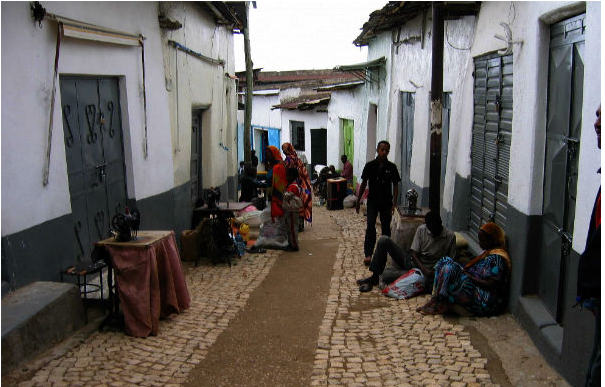
Ethiopia is the Complete Wanderlust Package
The high-walled city of Harar is spectacularly lined with a plethora of mosques and ancient buildings – 99 mosques and shrines to be exact. Known for its famous array of markets, the famous Hyena Men, ancient paintings and artefacts spanning all cultures, it’s easy to get lost in the never-ending maze of the winding streets of Harar.Most travellers from within Ethiopia will come to Harar from one of two places: Dire Dawa or Addis Ababa, and the journey could be up to 15 hours by bus. One activity you can do while you are there is actually feeding hyenas. This activity has its origins in the 20th century when the Harari people started feeding the local hyenas to stop them from killing their livestock.


Ethiopian central bank hard currency directive kickstarts financing for KEFI gold project
Security and currency guarantees provided by Ethiopia are crucial to the success of the Tulu Kapi gold project. Ethiopia's first industrial scale mining project of the century has taken a step closer to fraction as KEFI Gold and Copper secures conditional financing approval from its lead creditor the Trade and Development Bank (TDB), KEFI executive chairman Harry Anagnostaras-Adams tells The Africa Report.


Chinese troupe wins Ethiopians’ hearts for stunning performance
A cultural troupe from central China's Henan Province staged a stunning performance in the Ethiopian capital of Addis Ababa Tuesday as part of the Spring Festival -- the Chinese New Year -- celebrations.
ADDIS ABABA, Jan. 25 (Xinhua) -- A cultural troupe from central China's Henan Province staged a stunning performance in the Ethiopian capital of Addis Ababa Tuesday as part of the Spring Festival -- the Chinese New Year -- celebrations.
Performers performed an array of acrobatics, martial arts, face-changing skills, Chinese dances, and traditional Ethiopian dances to an enchanted audience at the Ethiopian National Theater.
Welcoming the guests at the event, Shen Qinmin, minister counselor at the Chinese Embassy in Ethiopia, said Henan is a province rich in culture and history, and the cultural troupe would show a "great performance" to the delight of the audience.
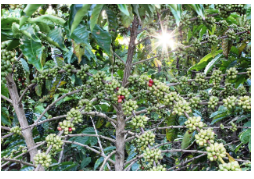
Ethiopia: Coffee Generates USD 571 Million in Exports
Over the past six months, Ethiopia's coffee sector generated more than USD 571.4 million in international trade revenue, according to the Ethiopian Coffee and Tea Authority. The Director General, Mr. Shafi Umer, highlighted the authority's efforts to enhance earnings through initiatives focused on product quality, modernizing the marketing chain, and increasing foreign currency revenue. The country exported over 117,955 tons of coffee, with popular varieties such as Sidamo, Nekemte, Yerga Chife, and Jimma. In related news, the Ministry of Trade and Regional Integration (MoTRI) announced an earning of USD 14.19 million from soybean by-product exports. Primary destinations for these exports were India and the United States, where the soybean by-products are crucial for animal sustenance. The Ministry of Agriculture, on the other hand, shared positive progress in horticulture product exports during the first six months of the current fiscal year. Abdullah Negash, CEO of Horticulture Development, reported earnings of over USD 298.7 million, demonstrating successful exports of more than 29,288 tons of agricultural products, 46,984 tons of flowers, 21,276 tons of fruits, and 74,336 tons of vegetables and incense products.

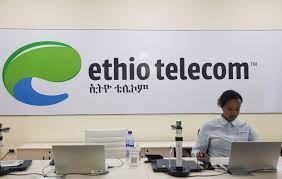
Ethiopia’s Ethio Telecom posts 14% rise in half-year earnings

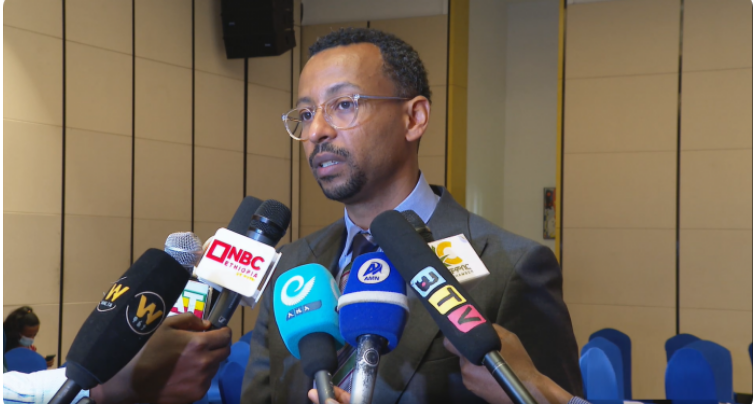
Ethiopia Issues Licensing Directives for Capital Market Service Providers
Ethiopia has issued a legal directive that will govern the licensing of capital market service providers as the nation seeks to consolidate the securities and exchange sector. The directives came into effect on January 18th, 2024.
- Companies interested in acquiring licenses in the capital market are expected to pay an application fee.
- Within 15 days, the authority will determine successful applicants and set a date for certificate inspection.
- They’ll also need compile documents including copies of commercial registration, tax documentation, and articles of association.

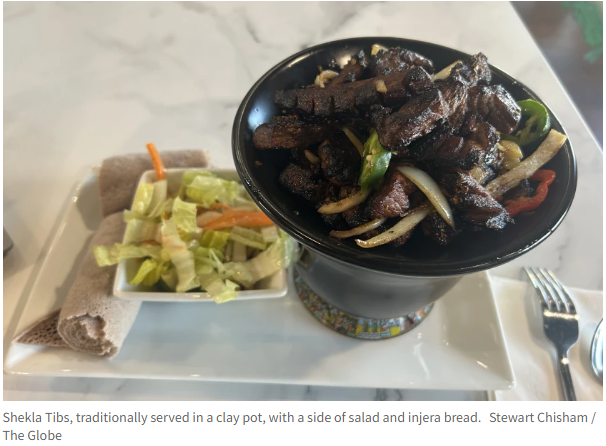
Jebena Ethiopian Cuisine experiences booming business with Worthington opening
WORTHINGTON — Jebena Ethiopian Cuisine in Worthington officially opened its doors Dec. 28, and according to owner Minilik Mersha, business has been booming. “Most people come, they’re thankful for the food. Many here have to travel a long way to find this kind of food, so it is nice to have it at home,” Mersha said. “Some come in almost every single day.” Mersha, who has worked toward this project for nearly seven years, said the restaurant has so far exceeded every expectation. “I was looking at this thing for probably, six, seven years back. After we got into it, we just kept pushing it to make it into this beautiful building. I’m glad we did. Words can’t even describe it.” From the day it opened, Jebena has been busy. Though the recent cold brought business to a crawl, according to Mersha, things are beginning to pick up again following the restaurant’s ribbon cutting ceremony last Friday.


Hong Kong Marathon: Kenya’s Anderson Seroi claims ‘tough’ gold, Ethiopia’s Medina Armino takes women’s title
Anderson Seroi won the Standard Chartered Hong Kong Marathon on Sunday, crossing the finish line in a time of two hours, 12 minutes and 50 seconds, and immediately said he would be back next year trying to go even faster.
The Kenyan narrowly beat out South Africa’s Stephen Mokoka, who was second in 2:12:58, with Mekuant Ayenew third in 2:13:09.
On a day when the temperature was hovering around 15 degrees Celsius (59 degrees Fahrenheit) at the start, Ethiopia’s Medina Armino won the women’s event in 2:28:47, with Beatrice Cheptoo second in 2:29:30 and Gadise Mulu in 2:29:46.
Seroi pushed himself to the point he was sick once he crossed the finish line and said the Hong Kong race, with its regular climbs and descents, had been “tough”.
“First of all, I want to thank God for the win, but also Hong Kong, it’s a beautiful city,” Seroi said. “I feel really good, the course is tough but I enjoy running it.”

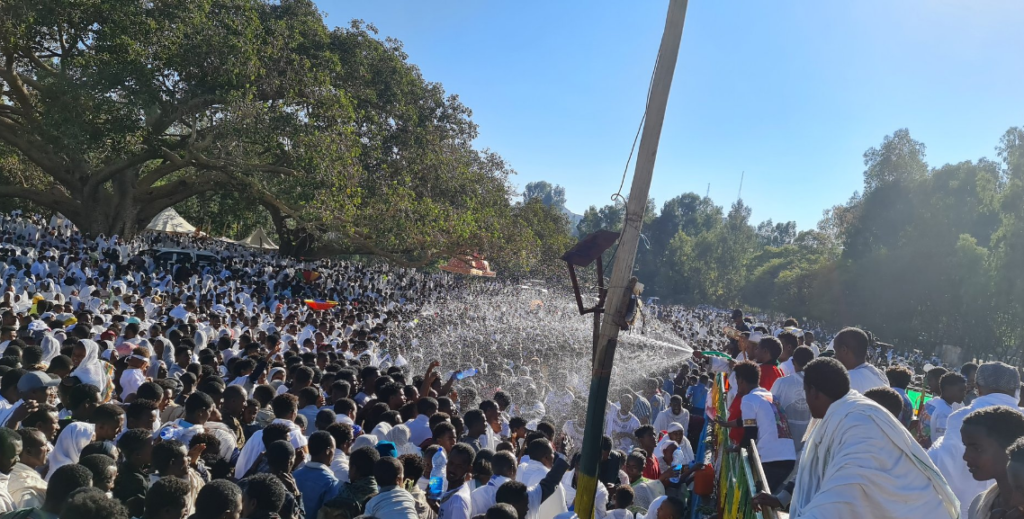
Orthodox Christians in Ethiopia celebrate baptism of Jesus
Orthodox Christians in Ethiopia celebrated Timket - a festival that marks the baptism of Jesus - on Saturday in the capital Addis Ababa. The UNESCO-inscribed festival of the Epiphany began on Friday with the ritual of each church carrying a Tabot - a sacred replica of the Ark of the Covenant. In the ritual, the Tabot is covered with cloth and carried by priests to a nearby water source. There, hundreds of thousands of people in white robes gather to sing spiritual songs and chant. Early Saturday pre-sunrise rituals began in Jan Meda, where thousands of people gathered for prayers and liturgical services. Priests sprinkled holy water on the assembled congregation in commemoration of Christ’s baptism. Ethiopia's Feast of the Epiphany, is one of the highest and holiest holidays in the Ethiopian Orthodox Christian calendar and is celebrated on Jan. 19 every year. Timket used to be very famous in Gondar, a city in the northern Amhara region. But due to ongoing conflict between government forces and rebels in the area, many people now prefer to celebrate in Addis Ababa.
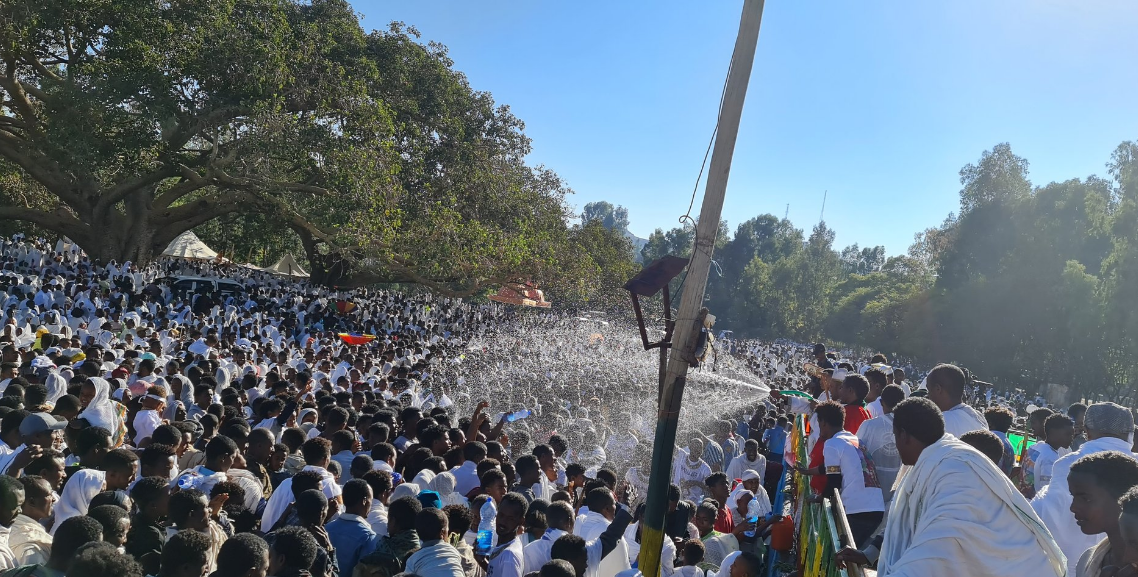
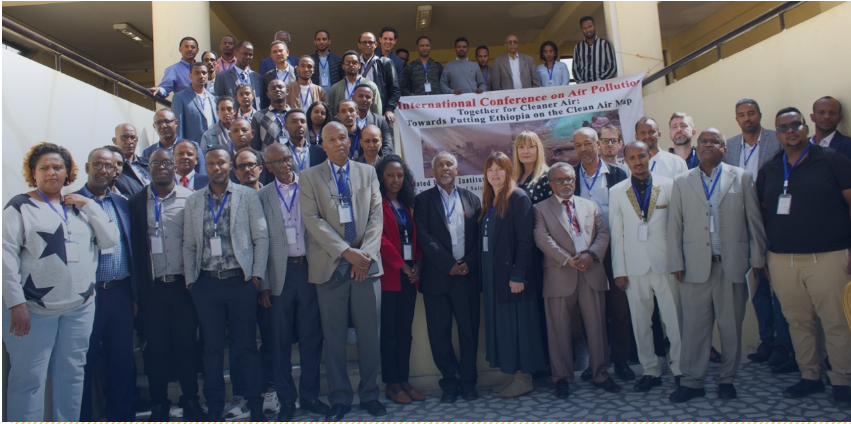
N.C. A&T PROFESSOR CO-ORGANIZES INTERNATIONAL AIR QUALITY CONFERENCE IN ETHIOPIA
EAST GREENSBORO, N.C. (Jan. 17, 2024) — Solomon Bililign, Ph.D., a professor of physics at North Carolina Agricultural and Technical State University, co-organized the “Together for cleaner air in Ethiopia” international conference held at Addis Ababa University. The three-day conference hosted 80 attendees from Ethiopia, Europe and the U.S., including air quality researchers and regulators, health professionals, community members and policymakers. Lund University in collaboration with local universities also co-organized the conference. The goal of the conference, held in December, was to bring experts together to share and discuss “research data on health impacts of air pollution, highlight the urgency for action and discuss the ways forward.” According to the 2022 State of Air Quality and Health Impacts in Africa report, “air pollution is the second leading risk factor for deaths” and “in 2019, air pollution contributed to 1.1 million deaths in Africa — of these more than 63% were linked to exposure to household air pollution.”

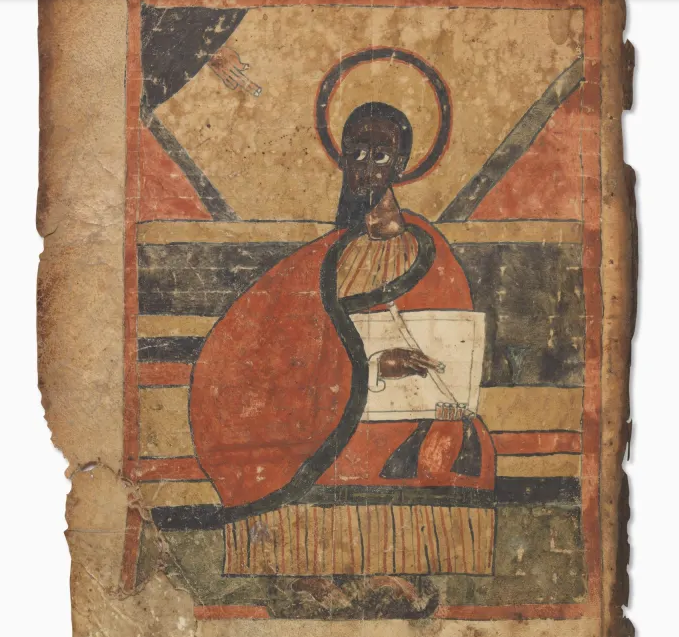
ETHIOPIA AT THE CROSSROADS
When American mixed-media artist Faith Ringgold learned about Lucy, the ancient remains of an early human ancestor, she was so inspired that she traveled to the Ethiopian city where Lucy was found. While on that trip, Ringgold gathered fabrics, which are part of an exhibit now on display at the Walters Art Museum titled Ethiopia at the Crossroads. The exhibition, available to the public until March 3, places contemporary works like Ringgold’s alongside ancient African artifacts. The message is this: we all derive from Ethiopia; it is our first home. According to the museum, this is the first time in this country that an art museum has curated a show that depicts the breadth of Ethiopian art in this way. “Ethiopia at the Crossroads is the first major art exhibition in America to examine an array of Ethiopian cultural and artistic traditions from their origins to the present day and to chart the ways in which engaging with surrounding cultures manifested in Ethiopian artistic practices,” reads the exhibition statement.


Ethiopia: Africa’s sleeping fintech giant?
The fintech sector has been one of Africa’s biggest technology success stories. According to Disrupt Africa, the continent’s 678 fintech startups raised more than US$2.7bn between 2021 and August 2023. Additionally, almost all of the continent’s are in the fintech sector. The majority of that success has, however, come from the continent’s three biggest startup markets: South Africa, Kenya, and Nigeria. In fact, 68% of African fintech startups come from these ‘big three’ markets. But things are steadily changing. More and more countries are realising the benefits that come with an active fintech ecosystem, with a growing number of entrepreneurs in those countries also looking to enter the space. One such country is Ethiopia. Home to more than 120 million people the country has many of the right ingredients to become Africa’s next big fintech giant. In addition to the country’s population size, it’s home to large numbers of unbanked people. At the same time, the country continues to experience high economic growth and rapidly increasing connectivity levels.

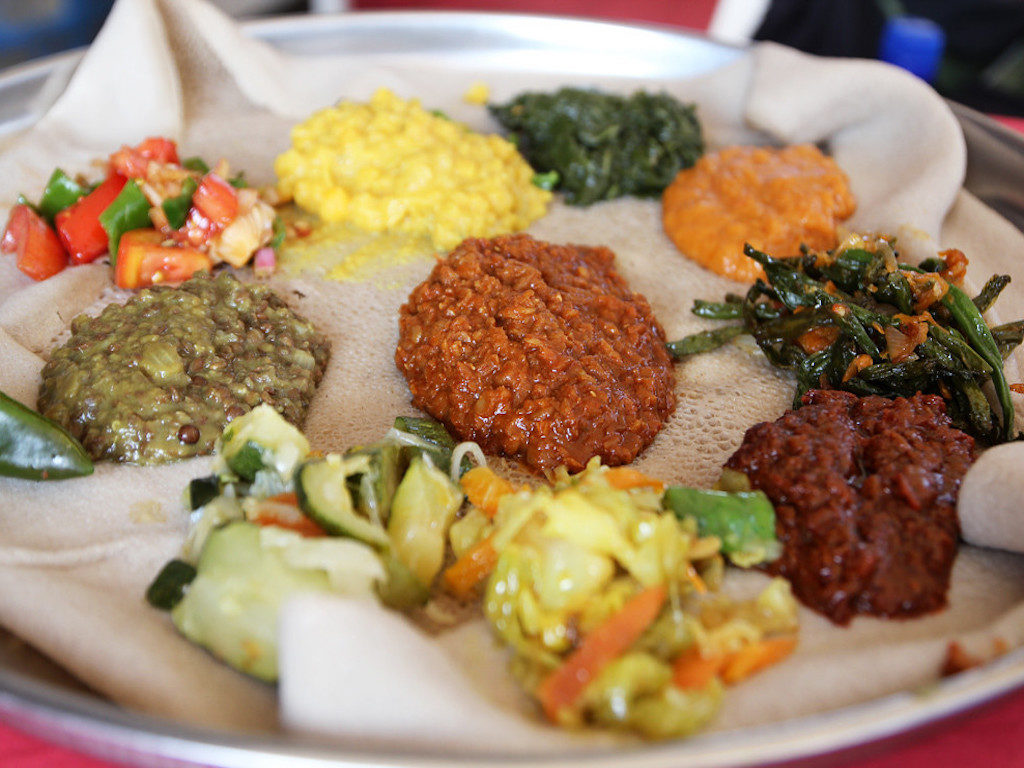
Hacking Traditional Ethiopian Superfood To Make Instant Bread
A former Israel Defense Forces officer is determined to enrich the diet of the combat soldiers he once trained by revolutionizing the recipe for traditional Ethiopian flatbread he ate at home growing up. Injera is a spongy, slightly sour flatbread made from the seeds of teff grass, a staple in the Ethiopian and Eritrean diet and native to both countries. It is eaten as a main meal and as an accompaniment to traditional dishes in both countries.Teff grain is gluten-free and considered a superfood, due to its high iron and fiber content, as well as large amounts of minerals such as calcium, copper and zinc. Because it contains all of the essential amino acids the human body needs for cell growth, it is also classed as a complete protein. But making the flatbread takes up to three days, due to a lengthy fermentation process that occurs when teff flour is mixed with water and left to stand. And for Daniel Ishta, the amount of preparation time was an obstacle he had to overcome in his mission to get the flatbread into the hands – and the bellies – of the troops.

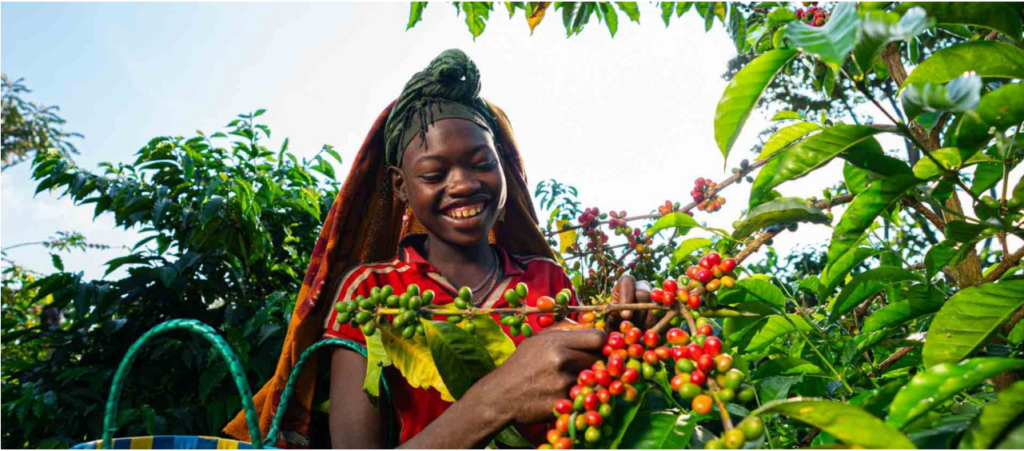
Panama, Colombia, Ethiopia: There is no “best” origin for Gesha coffee
For 20 years, Gesha has remained one of the most sought-after varieties in the world. After its meteoric rise to specialty coffee fame in 2004, it has since received record-breaking bids at numerous renowned coffee auctions – especially in Panama. We often associate Gesha with Panama – and for good reason. It was in this Central American country that producers discovered the variety’s huge potential in terms of quality. Gesha’s origins, however, are in Ethiopia, where it still grows today. Moreover, other countries have also started to produce Gesha – including Colombia and Guatemala. This raises the question: is there a “best” origin for Gesha? Or is that impossible (or potentially even unfair) to answer? To find out, I spoke to Adam Overton, general manager at Gesha Village and Ben Rowe, owner of Just Bru Coffee and Harmony Coffee Roasters. You may also like our article exploring why some roasters are willing to spend more than US $10,000 per kg on Gesha.
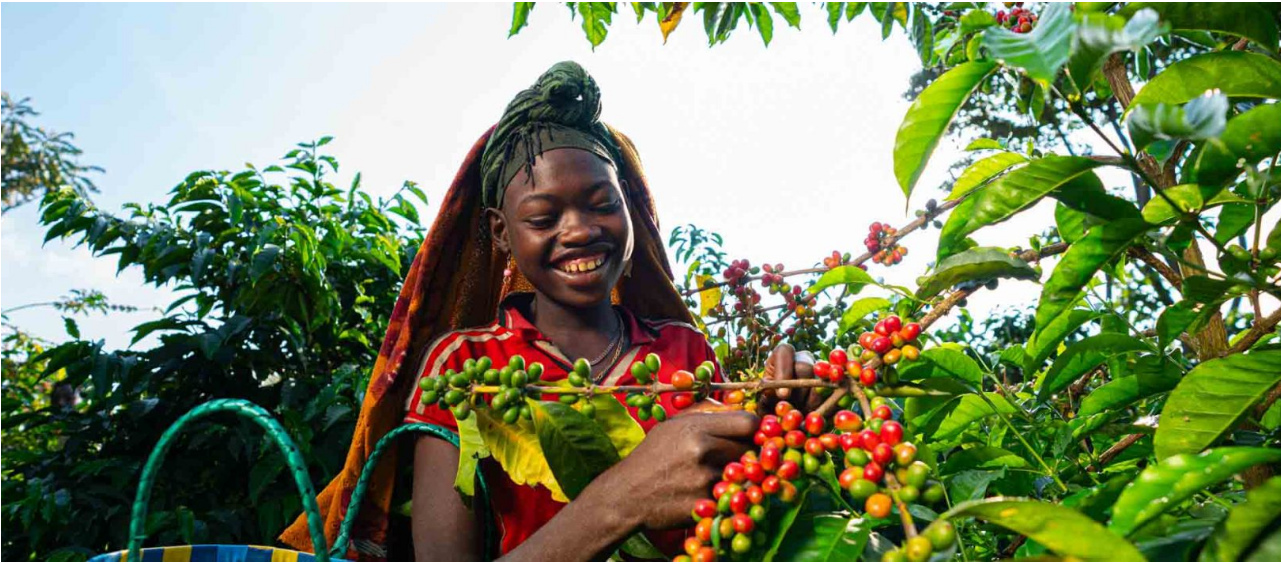

Hundreds marry in traditional Ethiopian mass wedding ceremony

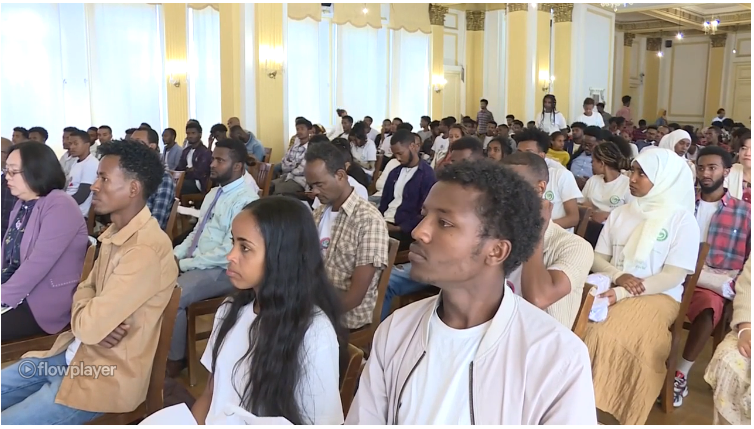
Over 100 Ethiopian students win Chinese scholarships
Over 100 Ethiopian students win Chinese scholarshipsSHOOTING TIME: Jan. 12, 2024DATELINE: Jan. 14, 2024LENGTH: 00:03:27LOCATION: Addis AbabaCATEGORY: EDUCATIONSHOTLIST:1. various of the awards ceremony of the China-Ethiopia Friendship Scholarship2. SOUNDBITE 1 (English): SAMUEL KIFLE, AAU's interim president3. SOUNDBITE 2 (English): ZHAO ZHIYUAN, Chinese Ambassador to Ethiopia4. SOUNDBITE 3 (English): MULUGETA AYELE, Scholarship recipientSTORYLINE:A total of 143 Ethiopian university students have won scholarships provided by the Chinese government to help them pursue graduate and post-graduate studies across different academic fields in the country's largest Addis Ababa University (AAU). Speaking at the awards ceremony of the China-Ethiopia Friendship Scholarship on Friday at the AAU, the university's Interim President Samuel Kifle said the Chinese government and different universities in China have had "strong and meaningful collaboration with the AAU, which helped us to train our faculties, to train our students." He said the collaboration between Chinese and Ethiopian academic institutions is reflected in the robust Sino-Ethiopia ties. SOUNDBITE 1 (English): SAMUEL KIFLE, AAU's interim president"Ethiopia and China treasure a strong, strategic and all-inclusive relation. This cooperation and relation is also supported by the cooperation we have in the education and cultural relations.


A Bright Future Ahead for Local Ethiopian American Photographer Redeat Wondemu
Redeat Wondemu, a local Ethiopian American photographer who also goes by Red Won, hardly got a moment of rest the night her exhibit, Her, opened on Dec. 15 at the gallery Art of Noize. People began walking in to view her work almost an hour before the reception officially started, and by the time it kicked off the small venue was packed. From start to finish, Wondemu stood next to a table where her prints and Hasselblad film camera were on display to talk to visitors as they approached her with compliments and questions about her photography. “We had a big response,” gallery owner Adrian Ferguson says. “Everybody was impressed with the work and Red’s attention to detail.” It’s no surprise that so many people showed up to the reception, at least for those familiar with Wondemu’s work. Dozens of black and white photos as well as two large, cyan-colored self-portraits line the walls of the gallery with the faces of the artist and women she met during her visits to the East African country she calls home. Wondemu’s photos not only capture the subtle emotions of her models, but are also printed in a way that makes them look like paintings. Local painter Adèremi Inniss was one of the first visitors to arrive at Art of Noize and couldn’t contain his excitement. “These are gorgeous!” he said as soon as he laid eyes on her work.

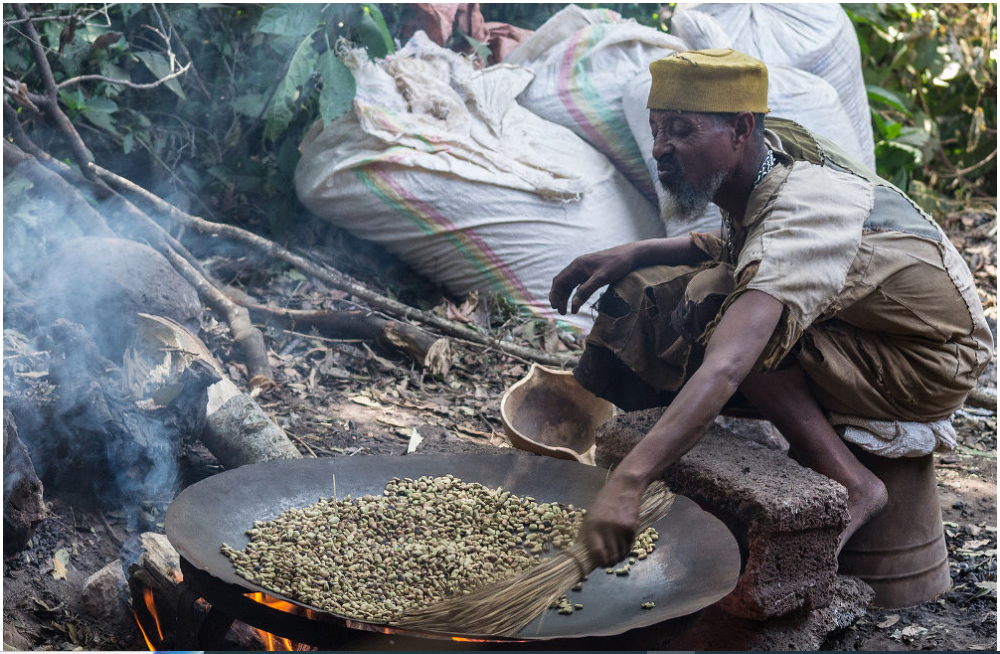
Around The World With Coffee: 6 Places To Visit For The Ultimate Coffee And Experiences
Often referred to as the birthplace of coffee, Ethiopia is a dream destination for any coffee lover. The country’s rich history and cultural significance in the world of coffee make it an ideal place to embark on a tour like no other. Whether you choose to visit bustling cities like Addis Ababa or venture off into rural areas known for their picturesque landscapes, one thing is certain: your journey through Ethiopia will leave you with a newfound appreciation for both luxury travel experiences and exquisite cups of coffee. As you explore different regions within Ethiopia, each with its own unique flavour profile, you’ll have the opportunity to taste some of the finest coffees in the world. From fruity and floral notes to earthy undertones, every sip tells a story of centuries-old traditions and expert craftsmanship. Immerse yourself in traditional Ethiopian ceremonies where coffee is prepared with care and served with pride. Witness the time-honoured ritual that involves roasting green beans over an open flame before grinding them by hand and brewing a cup that embodies tradition and community spirit.

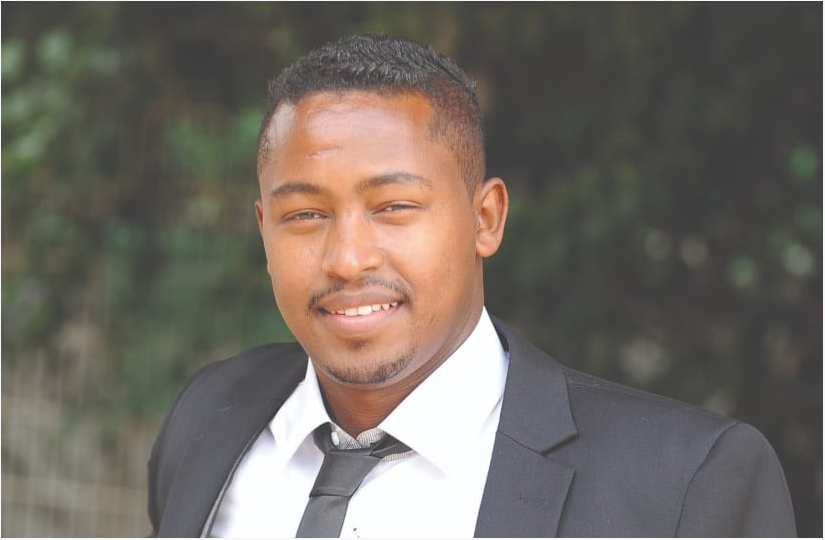
Israel airlifted him from Ethiopia. Now he’s a hi-tech entrepreneur
Solomon Geveye, 38, was born in the mountainous Gondar region of Ethiopia. His family was part of the historic Operation Solomon in 1991, in which more than 14,300 Ethiopian Jews were clandestinely airlifted to Israel over a 36-hour period. Today, Geveye is establishing the Haile Venture Capital Fund, the first fund of its kind to support first-generation Ethiopian-Israeli tech entrepreneurs. “I was six years old when my parents made aliyah with five children. My other four siblings were already in Israel,” says Geveye. “I remember how excited we all were as we began our new life in Ashdod. It was a 2,000-year-old dream come true.” For Geveye, living in Israel was a new adventure. But for his parents, it was very difficult to go from an agrarian lifestyle to a Westernized country. “My parents were such role models for me,” he says. “They had so little and worked really hard, but they accomplished so much in integrating and raising successful children.”


14 Coffee Brands With Unique Flavors
An exceptional cup of coffee can be surprisingly elusive. Between coffee classes, sensory training from Università di Scienze Gastronomiche di Pollenzo, and a never-ending search for a compelling cup, my personal experience has helped me uncover roasters across the country who produce high-quality beans that express a wide range of aromas and flavors going far beyond your basic blend from the grocery store. From light roasts with delicate orange blossom to rich and full-bodied blends full of caramelized dates and Toblerone to natural processed beans with tropical vibes of pineapple and lychee, there is a delicious and vast array of coffee brands with unique flavors to discover in your cup. Finding a coffee brand with unique flavors comes down to investigating every part of the process. The origins of the beans, including their elevation and terroir where they grew, the fermentation and processing, and the way they were roasted, each play a key role in expressing exceptional tastes. Whether you're a trained barista or an enthusiastic coffee drinker ready to elevate your home brewing experience, you'll need to start with freshly roasted coffee beans that pack a punch. You're looking for something well-balanced but with a distinct leading flavor profile. The coffee fermentation method and roasting style should enhance the flavors that are already there, bringing out that zingy strawberry sour candy, white chocolate pistachio nougat, or blood orange syrup. These coffee brands are passionately pushing the envelope to highlight the bean's unique flavors.


A candlelit Orthodox Christmas in D.C. with an Ethiopian vibe
As most of D.C. slept early Sunday morning, incense clouded the massive hall at an Ethiopian cathedral in Northeast Washington, and hundreds of parishioners dressed in white chanted to a rhythmic drumbeat in celebration of Orthodox Christmas. According to the Julian calendar, used by Ethiopians, Russian and some Eastern Orthodox, the birth of Jesus is celebrated Jan. 7, often with an overnight service and Mass.
Late Saturday into the wee hours of Sunday, a meditative veil fell over worshipers at Debre Meheret Kedus Michael Ethiopian Orthodox Cathedral.
Worshipers of all ages in gauzy layers, representing the light of Jesus, began filing into the hall at 6:30 p.m. Saturday, stashing shoes in plastic bags and settling in for eight hours of chanting and declarations in the liturgical language of Ge’ez. White-socked feet shuffled on burgundy carpet.

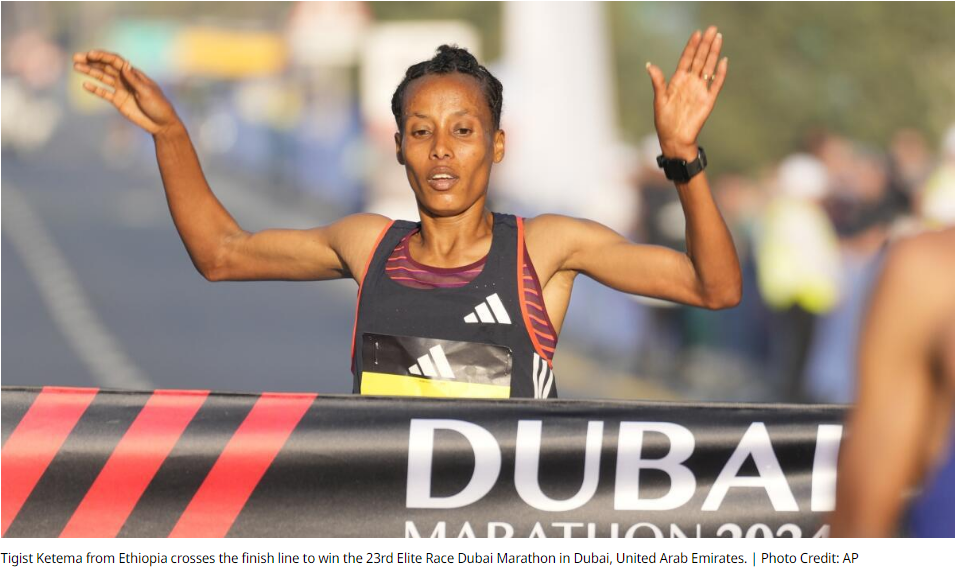
Ketema breaks world record for fastest marathon debut in Dubai
Ethiopian runner Tigist Ketema broke the world record for the fastest marathon debut in Dubai on Sunday, shaving more than a minute off the course record.Clocking a time of 2:16:07, the 25-year-old became the eighth fastest woman in marathon history as she took gold, breaking the Dubai course record by 61 seconds. A former African Under-20 Championships gold medallist in the 800 metres, Ketema established herself as a long distance running prospect by winning the Great Ethiopian Run 10 km race in 2022. Ethiopia swept the women’s podium in Dubai as Ruti Aga (2:18:09) and Dera Dida (2:19:29) finished second and third.

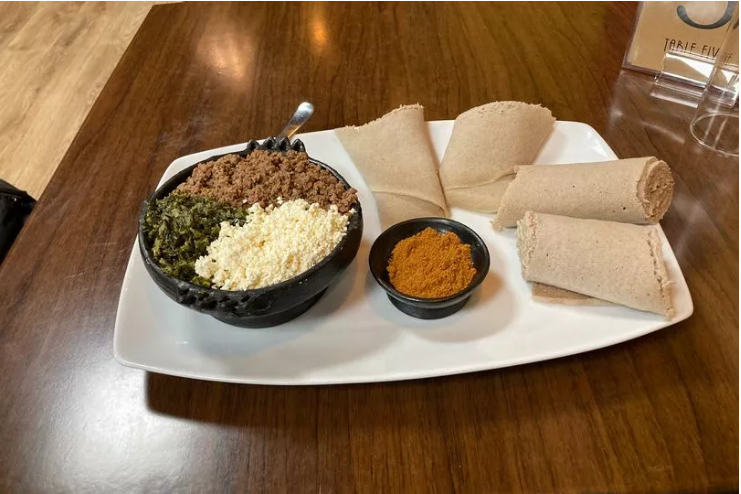
I tried Huddersfield’s new Ethiopian restaurant and it was a steep learning curve
Huddersfield restaurant Ahadu Flavours of Ethiopia has the kind of intriguing menu that raises more questions than answers for the uninitiated. As someone not au fait with Ethiopian cuisine, I had little idea what to order when I entered the restaurant on Friday lunchtime. The menu had plenty of options including vegan dishes but some entries left me puzzled and with questions. One starter is listed simply as 'Gomen - cabbage - £6' which could probably have benefited from a few words of explanation.

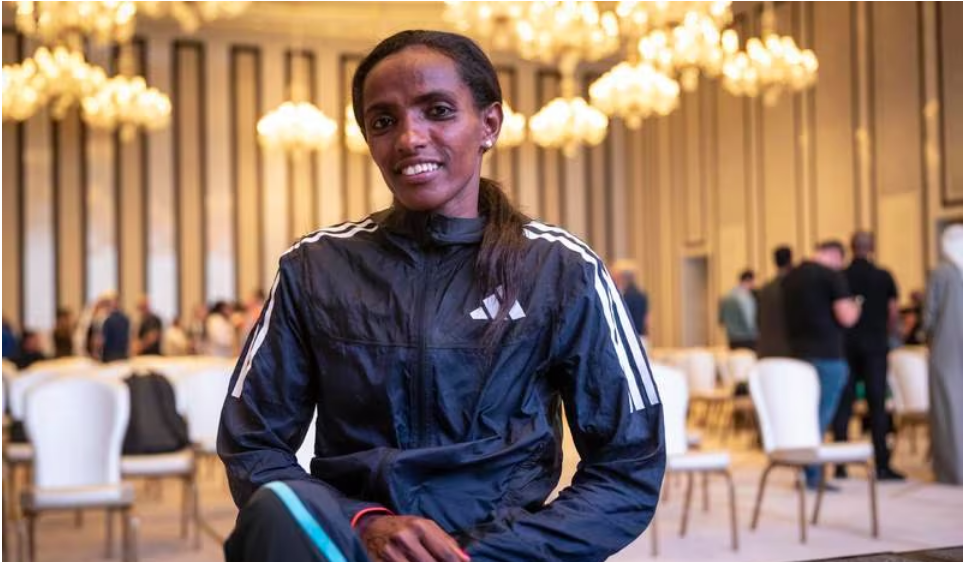
Ethiopia’s Dera Dida out to retain her women’s Dubai Marathon crown
Dera Dida typically shuns the spotlight and is barely heard when speaking. But on the road in running the marathon distance, she is a warrior making her voice heard.
The reigning Dubai Marathon women's champion is back in the emirate for Saturday's event looking to both retain her title and secure a spot on the three-member Ethiopian national team heading for the Paris Olympics this summer.
Dida, 27, kicked for home with around two kilometres to go to win last year's race at Expo City. This time around she tackles the flat and fast roads around the landmark Burj Al Arab and Jumeirah Beach Road area.
“I love running in Dubai. I won it last year and this time I want to win as well as try to better my personal best time so I can be a contender for the national team in the Paris Olympics,” she told The National through a translator at Friday's launch ceremony.
“If I can achieve that, it would be a dream come true for me. It’s not easy to represent Ethiopia in any distance races, though. I’ll do my best, and if I achieve my objective, I’ll keep my fingers crossed for a spot in the national Olympic team.”


The DC-area wine that isn’t made from grapes — it’s made from honey
Vineyards can be found all over the region, and all of them grow grapes and other fruits to make their wines. But it’s not the only way to make wine. An Ethiopian recipe dating back thousands of years for a wine called “tej” uses just three ingredients — water, yeast and honey. One of the few places in the U.S. making tej also operates the only tasting room in the country, and it’s just inside the Beltway in Alexandria, Virginia. Gize Negussie operates Negus Winery with his wife. Ironically, it’s located on Vine Street just off Van Dorn Street in Alexandria. “Ethiopian honey wine, or tej fermented beverage, is made from honey, and dates back more than 3,000 years, the time of Queen of Sheba,” Negussie said. “And it’s part of Ethiopian meals, gatherings and celebrations.” It’s believed the Queen of Sheba brought tej back from a visit to King Solomon in Israel — yes, the one from the Bible.

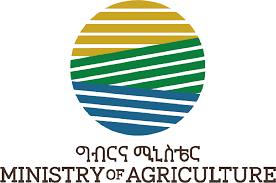
Ethiopia generates USD 214 million from horticulture exports
In the last five months, Ethiopia has generated over USD 214 million from the export of horticultural products, according to the Ministry of Agriculture (MoA). The export, totaling 122,611 tons, includes cut flowers, vegetables, fruits, roots, and aromatic products. Cut flowers contributed the most to revenue, with over USD 184.77 million, followed by vegetables, fruits, and aromatic products at USD 15.54 million, USD 7.225 million, and USD 7.18 million, respectively. Despite a 33% decrease in revenue, the export volume has increased by 7.8%. The main destinations for Ethiopian horticultural products include the United Arab Emirates, Saudi Arabia, The Netherlands, and the United Kingdom.


Ethiopia Coffee beat St George in Sheger derby


Ethiopia cautious over potential revenue losses under AfCFTA
Ethiopia’s trade negotiators are taking cautious steps to minimize revenue losses from the impending full implementation of the African Continental Free Trade Area (AfCFTA). Officials at the Ministry of Trade and Regional Integration are organizing close to 6,500 goods and services into three tariff brackets under the free trade agreement. The first comprises 90 percent of the goods and is designated tariff-free. The second bracket constitutes ‘sensitive’ goods and services that may be subject to tariffs, while the third lists 192 items that are excluded entirely from the free trade agreement. The Ethiopian government submitted its tariff offer to the AfCFTA secretariat in Ghana in November, nearly three years after the free trade agreement was officially initiated in January 2021.


French Dev’t Agency Reaffirms Commitment to Strengthen Partnership with Ethiopia
Addis Ababa, December 27/2023(ENA) The French Development Agency (AFD) has reaffirmed dedication to strengthening its comprehensive development collaboration with the Ethiopian government. Minister of Planning and Development, Fitsum Assefa and State Minister, Nemera Gebeyehu exchanged views with Director of AFD for Ethiopia, Louis Anthony Sochet on the ongoing collaboration. On the occasion Fitsum, highlighting the enduring cooperative relationship between Ethiopia and France, expressed that it is continuously evolving. She particularly emphasized AFD's crucial support for Ethiopia's Home-Grown Economic Reforms. The Minister conveyed gratitude for the technical assistance provided during the program's first phase and requested the continuation of such support in the second phase of the reform.

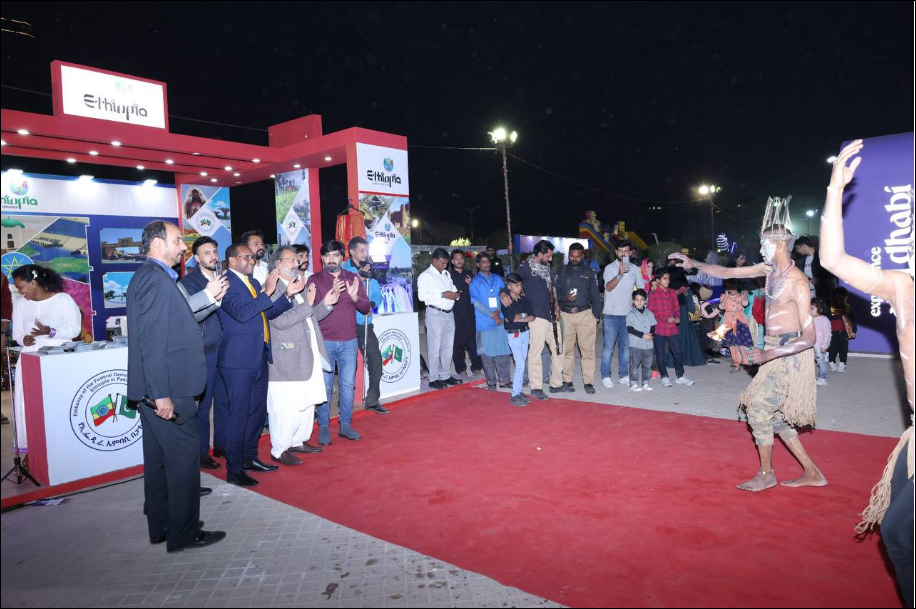
Ethiopian Tourism Pavilion at Karachi Feast Gets Overwhelming Response
Addis Ababa, December 26/2023(ENA) The Ethiopian Tourism Pavilion at the Karachi Feast received an overwhelming response through attracting an impressive influx of more than 25,000 visitors over the three-day extravaganza. The Ethiopian Embassy in Islamabad said that the spectacle which concluded on Sunday was graced by Pakistan’s Minister for Youth Affairs, Sports, Culture and Tourism, Junaid Shah. The minister lauded the Embassy of Ethiopia for introducing tourism and culture of Ethiopia in Pakistan. the Ethiopian Tourism cubicle on Friday in the presence of Ethiopian Ambassador to Pakistan, Jemal Beker, senior government officials of Pakistan, members of the diplomatic corps, business community, media, and representatives from civil society. An industrious endeavor by the Embassy of Ethiopia in Pakistan emerged as a beacon of cultural richness and tourism allure during the Karachi Feast, the press release said.


Ethiopia becomes Africa’s latest sovereign default
LONDON, Dec 26 (Reuters) - Ethiopia became Africa's third default in as many years on Tuesday after it failed to make a $33 million "coupon" payment on its only international government bond.
Africa's second most populous country announced earlier this month that it intended to formally go into default, having been under severe financial strain in the wake of the COVID-19 pandemic and a two-year civil war that ended in November 2022.
It had been supposed to make the payment on Dec. 11, but technically had up until Tuesday to provide the money due to a 14-day 'grace period' clause written into the $1 billion bond.
According to two sources familiar with the situation, bondholders had not been paid the coupon as of the end of Friday Dec. 22, the last international banking working day before the grace period expires.


‘Ethiopia at the Crossroads’ exhibition at the Walters Art Museum explores global connections through art, spirituality, and more
Spanning 1,750 years of Ethiopian history, a new exhibition at the Walters Art Museum explores the interplay of art, culture, and spirituality within Ethiopia and among its neighbors throughout the region. Aptly named “Ethiopia at the Crossroads,” the show which opened Dec. 3 highlights a nation at the junction of cultures throughout Africa, Western Asia, and Europe. Situated on the Horn of Africa, Ethiopia has connections stretching east through the Arabian Sea and north through the Red Sea, up the Nile River, and over the Mediterranean Sea. Spanning 1,750 years of Ethiopian history, a new exhibition at the Walters Art Museum explores the interplay of art, culture, and spirituality within Ethiopia and among its neighbors throughout the region. Aptly named “Ethiopia at the Crossroads,” the show which opened Dec. 3 highlights a nation at the junction of cultures throughout Africa, Western Asia, and Europe. Situated on the Horn of Africa, Ethiopia has connections stretching east through the Arabian Sea and north through the Red Sea, up the Nile River, and over the Mediterranean Sea. “This exhibition is really putting Ethiopia front and center and thinking about Ethiopia in relationship to its surrounding cultures throughout its history,” said Christine Sciacca, curator of European Art from 300–1400 CE.
 “This exhibition is really putting Ethiopia front and center and thinking about Ethiopia in relationship to its surrounding cultures throughout its history,” said Christine Sciacca, curator of European Art from 300–1400 CE.
“This exhibition is really putting Ethiopia front and center and thinking about Ethiopia in relationship to its surrounding cultures throughout its history,” said Christine Sciacca, curator of European Art from 300–1400 CE.

Ethiopia, Russia Have Tremendous Potential for Trade, Investment Cooperation
Addis Ababa December 20/2023 (ENA) Ethiopia and Russia have tremendous potential for trade and investment cooperation growth, Innovation and Technology Minister Yeshurun Alemayehu said. Speaking at the Ethiopian and Russian Business Forum held today in Addis Ababa, he said the forum is pivotal to explore the untapped business potential between the two countries. “The trade and investment forum is one of the combined efforts to realize our shared vision to advance the betterment of livelihood of the two people,” the state minister added. Despite the very cordial and historical friendship that Ethiopia and the Russia are enjoying, the economic cooperation, particularly trade and investment relations, are not to the expected level, according to Yeshurun.


Ethiopian Coffee & Tea Authority, Ethiopian Conformity Assessment Enterprise Sign MoU to Enhance Spices Export
Addis Ababa, December 20/2023(ENA) Ethiopian Coffee and Tea Authority and Ethiopian Conformity Assessment Enterprise (ECAE) have signed Memorandum of Understanding (MoU) to enhance the quality of spices export. Signing the agreement today, Director General of the Ethiopian Coffee and Tea Authority Adugna Debela stated working together from production to the marketing system is crucial to address challenges facing the sector. This collaboration with ECAE will enhance the authority's effort to secure better foreign exchange from export, Adugna said. Ethiopia secures about 20 million US dollar per year from spices export; currently, the country is exporting about 16 types of spices.


Ethiopia Aims to Increase Exports to China
Addis Ababa, December 18/2023 (ENA) State Minister of Foreign Affairs of Ethiopia, Ambassador Mesganu Arga, welcomed a delegation led by the Ethio-China Friendship and Cooperation Committee members in his office today. In the course of their discussion, the state minister appreciated the long-standing relations between Ethiopia and China, which is reflected through their recent decision to scale up the relationships from a Comprehensive Strategic Cooperation to an All-weather Strategic Partnership. He indicated the importance of giving attention to the existing relations, particularly in the fields of trade and investment, according to the Ministry of Foreign Affairs.


Ethiopia’s Dam on the Nile negotiation underway in Addis Ababa
Egypt, Ethiopia and Sudan have started the fourth round of negotiation over “the first filing and annual operation of the Grand Ethiopian Renaissance Dam (GERD)” – the fourth filling of which was completed on the eve of the Ethiopian New Year in early September 2023. The meeting was scheduled after the parties failed to reach an agreement during the last round of the negotiation which was held in Cairo, Egypt. The rounds of negotiation started following a joint declaration by Ethiopian Prime Minister Abiy Ahmed and Egyptian President Abdel Fattah El-Sisi in July 2023 in Cairo. Ethiopia’s Ministry of Foreign Affairs disclosed about the fourth round of the negotiation in a news update it shared on its social media page on Monday. It coincides with the news of Egyptian President Abdel Fattah El-Sisi’s third term election win.


Ethiopia Partakes at 10th Annual High Level Seminar on Peace and Security
Addis Ababa, December 18, 2023 (Addis Ababa) Ethiopia is participating in the 10th Annual High Level Seminar on Peace and Security, known as the Oran Process, which commenced today in Oran, Algeria. The seminar under the theme “Celebrating 10 Years of Progress and Cooperation: A Decade of Transformation and Innovation, Reaching New Heights Together,” expected to assess the achievements made by the African Members of the UN Security Council (A3) in fulfilling their AU-given mandate and reflect on the challenges faced over the past ten years. The annual seminar’s primary objective is to ensure that decisions adopted by the African Union Peace and Security Council are effectively promoted and defended at the UN Security Council. Ethiopian Ambassador to Algeria, Ambassador Nebiat Getachew, leads Ethiopia’s delegation to the seminar.


Zhang Haidi attends key meetings and events in Ethiopia
Zhang Haidi, president of Rehabilitation International (RI), presided over the organization's autumn meetings Dec. 3-5, 2023, in Addis Ababa, Ethiopia's capital. The meetings included sessions for both the Executive Committee and the Governing Assembly of RI members. hang pointed out that this autumn's Executive Committee meeting was the first since Beijing successfully hosted a series of events and forums in May to commemorate RI's 100th anniversary. She emphasized the meeting's significance for the organization's development over the next century. Additionally, she outlined work requirements for the Executive Committee, introduced the progress in building the University of Rehabilitation Sciences in China, and expressed gratitude for the committee's suggestions and support for the university's construction. She noted that the University of Rehabilitation Sciences is a global institution. She proposed hosting RI's spring meeting there next year, a suggestion warmly received by Executive Committee members.

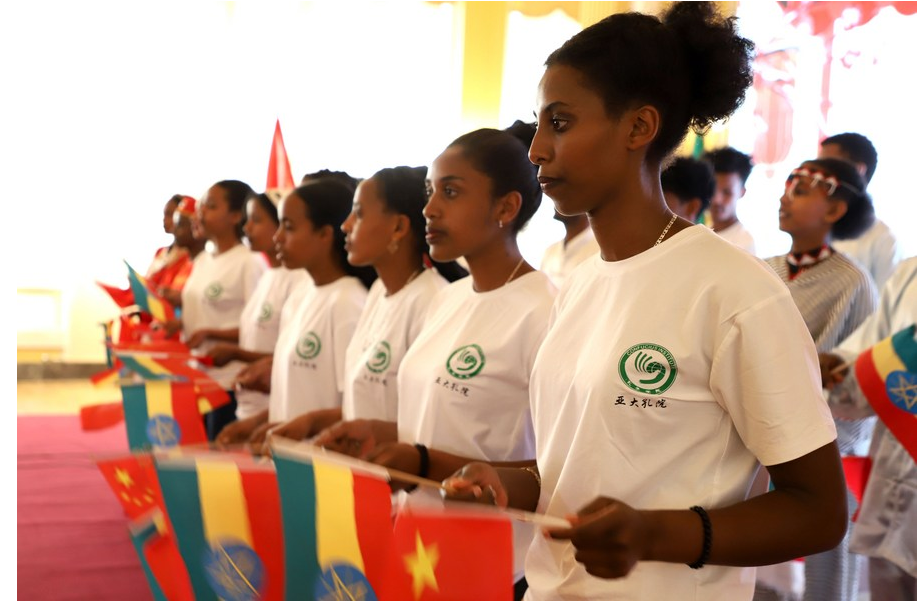
China-backed industry education, integration training center launched in Ethiopia
The Chinese Ministry of Education on Thursday unveiled an Industry Education Integration Training Center in Ethiopia to help local employees working in Chinese-run industries acquire basic Chinese language communications skills and better technical knowledge.
ADDIS ABABA, Dec. 17 (Xinhua) -- The Chinese Ministry of Education on Thursday unveiled an Industry Education Integration Training Center in Ethiopia to help local employees working in Chinese-run industries acquire basic Chinese language communications skills and better technical knowledge.

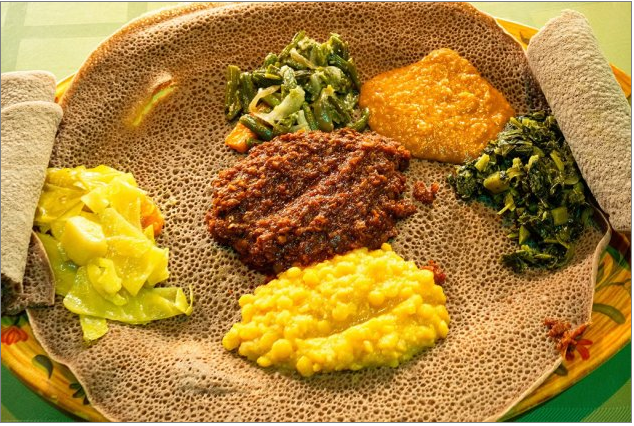
Ethiopian haven brightens the mood and palate in Malden
As the weather turns from bright and autumnal to dull early winter, corners of Boston can feel like rows of endless gray, beige, and brick. This was the oppressively drab mood as we headed through Malden last week, past leafless trees and dead, brown yards in search of some lunch. From the outside, Habesha Restaurant in Malden blends seamlessly into its surrounding row of tan business buildings on Main Street. At first, its inside also appears to be a little dark and a little dated. Once you've settled into your seats and given your eyes some time to adjust, the wooden paneling provides a warm and cozy atmosphere. The darkness is undercut by glowing LED lights and an ornately-decorated and celebratory bar, complete with hanging light bulbs and colorful art and artifacts from Ethiopia, which also liberally adorn the walls. Travel posters of Ethiopia line the back wall, and what appears to be Ethiopian shows and music videos play on a TV. Cheerful, rhythmic music sets an upbeat mood in the background.


GOP picks Ethiopian-born Israeli-American to run for seat of expelled NY Rep. Santos
JTA — Long Island Republicans selected Mazi Melesa Pilip, an Ethiopian Jewish Nassau County legislator, to run in the special election to replace George Santos, who was expelled after he was exposed for alleged fraud and lies, including that he was Jewish. Pilip emerged as a likely contender to replace Santos when his lies were exposed soon after his election last year, and she was officially named Thursday as the candidate, nearly two weeks after the expulsion of Santos. She will face Democrat Tom Suozzi, who is hoping to get his old job back after quitting the seat in an unsuccessful bid for governor. The special election is set for February 13.

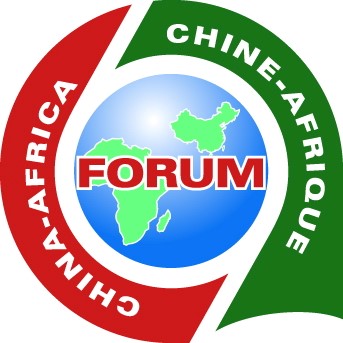
Confucius Institute wins acclaim for cementing China-Ethiopia ties
The Confucius Institute at Addis Ababa University (AAU) on Monday received acclaim for its 10 years of operation, which helps fortify the deepening ties between China and Ethiopia. A special ceremony marked the Confucius Institute's 10th anniversary at AAU, attended by senior Ethiopian government officials, Chinese diplomats in Ethiopia, representatives from AAU and the Chinese host Tianjin University of Technology and Education (TUTE), and academia. Ethiopia's State Minister of Education Kora Tushune emphasized the importance of fostering Sino-Ethiopian cultural and people-to-people ties as a cornerstone for comprehensive cooperation between the two nations.


Ethiopia moves closer to ePassports and digital ID with Toppan agreement
Ethiopia’s Immigration and Citizenship Services (ICS) department has signed an agreement with Toppan Gravity Ethiopia, a joint venture of Ethiopian Investment Holdings (EIH) and the Japanese ID document printing firm Toppan, to initiate security printing in the country. Ethiopian Monitor reports on comments from the EIH saying that the expected outcome of the agreement is a new Ethiopian ePassport with “advanced security features and improved efficiency,” which “signifies a remarkable leap forward in the modernization of Ethiopia’s passport system.” “With the printing plant in Bole-Lemi industrial park, it sets the stage for transformative impacts on travel and security,” the fund says. Ethiopia’s push for centralized digital ID through its Fayda National ID Program (NIPD) is also ramping up ahead of a 2025 milestone, as a directive licensing some hundred local firms to accelerate local production and distribution of new biometric cards is on the cusp of approval, according to Africa Intelligence.

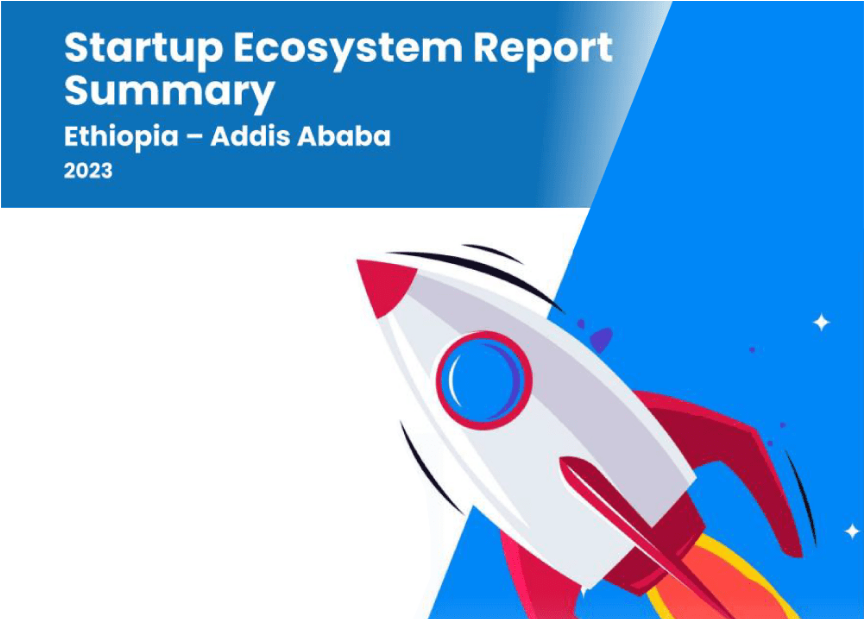
Ethiopia Startup Ecosystem- A Report by JICA & MInT
JICA, in collaboration with the Ministry of Innovation and Technology of Ethiopia (MInT), recently conducted a study called “JICA Ethiopia Startup Ecosystem Study” under JICA’s project NINJA (Next Innovation with Japan). As part of this study, a summary and detailed documents have been released. These documents provide valuable insights into the startup ecosystem and business environment for startups in Ethiopia. As the world continues to undergo digital transformation (DX), there is a growing interest in new businesses that leverage technology. Investors from Europe and the United States are increasingly focusing on the potential market in Africa. Ethiopia, with a population of approximately 112 million, has a large enough market for startups to develop their businesses. Moreover, the country has been transitioning towards a digital economy in recent years, thanks to improvements in the telecommunications environment and government policies. As a result, it is one of the countries with the greatest business potential. This report will provide you access to 300 Ethiopian startups and 80 stakeholders in the startup ecosystem.

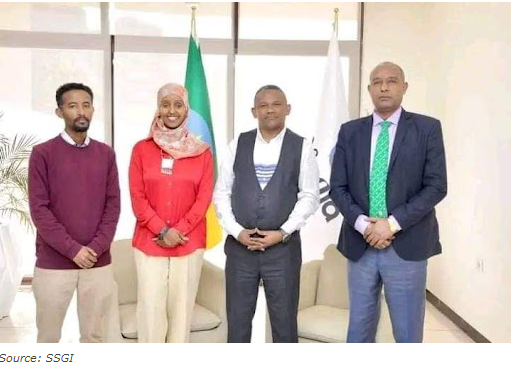
SSGI and the Ministry of Tourism Collaborate to Advance Tourism in Ethiopia
The Space Science and Geospatial Institute (SSGI) has signed an agreement with the Ministry of Tourism to develop and implement an advanced tourist map application, “Visit Ethiopia”, that comprehensively incorporates information about various tourist destinations. This initiative aims to greatly enhance the accessibility of travel information for visitors, enabling them to obtain details about the places they intend to visit effortlessly.


Forthcoming Maltese Trade Mission in Early 2024 Will Consolidate Ties with Ethiopia: Minister
Addis Ababa December 07/2023 (ENA) The forthcoming Maltese trade mission to Ethiopia in March 2024 would be an opportunity to further strengthen the existing relationship between Ethiopia and Malta, Foreign, Trade and European Affairs Minister Ian Borg said. The Maltese minister has also stressed the importance of encouraging engagement between the business communities of the two countries to further explore available opportunities. Ethiopia’s Ambassador to Italy, Demitu Hambissa and Malta Foreign Trade and European Affairs Minister, Ian Borg, have held discussion highlighting the growing relationship between the two countries.

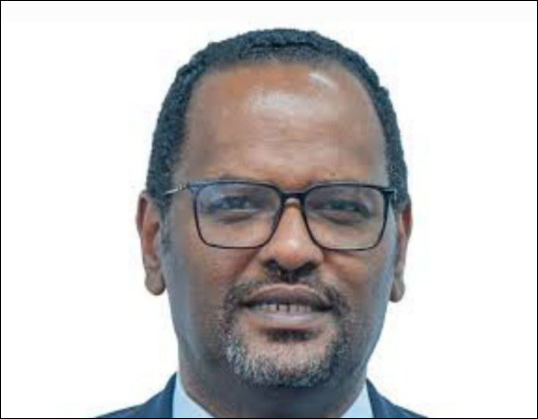
Boeing to open Addis Ababa office in 2024
Henok Teferra appointed Africa managing director American manufacturing giant Boeing has announced plans to open an office in Addis Ababa early next year. Former Ethiopian Airlines exec Henok Teferra Shawl will lead the office as the new managing director for Boeing’s African wing. The announcements come a few weeks after the Ethiopian Airlines Group placed an order for more than 65 aircraft with Boeing – the largest-ever from an African carrier. Henok joins the US manufacturer from Safaricom Telecommunication Ethiopia, where he served as chief external affairs officer for six months. Henok held senior posts at the Ethiopian Ministry of Foreign Affairs for several years in the 2000s before he was appointed to head communications and international affairs for Ethiopian Airlines in 2010.


Safaricom Ethiopia and Chapa launch business-focused payment system
Safaricom continues to enhance the offering of its recently launched Ethiopian service. The latest innovation is a payment system aimed at entrepreneurs, businesses and government. Safaricom M-Pesa Mobile Financial Services, a subsidiary of Safaricom Ethiopia, and Ethiopian payment solution provider Chapa Financial Technologies Share Company have entered into a partnership agreement to provide M-Pesa services for entrepreneurs, businesses and government services on Chapa’s payment aggregator platform. This partnership, say the companies, aims to boost the ease of transactions for both merchants and M-Pesa customers in the Ethiopian market. Through this agreement, merchants using Chapa’s payment gateway system can receive payments from Safaricom M-Pesa customers and M-Pesa customers can make quick and secure payments to merchants on Chapa’s checkout.


Medical drone deliveries trialed in Ethiopia
The trial, which began on 20 October, included 44 flights carrying 6,936 vaccine doses to clinics in remote communities. This included vaccines against tuberculosis, polio, diphtheria, tetanus, pertussis (whooping cough), Hib (haemophilus influenzae type b), and hepatitis B. Following the success of the trial, the medical drone network will double in size, and will run for an additional 90 days from early 2024. The drone project was funded by Red Lightning, a non-profit organization, and operated by Kenya-based logistics firm Freight in Time Group and the Information Network Security Agency of Ethiopia (INSA) government agency. The scheme employed Swoop Aero’s automated Kite drone – which is capable of flying up to 120km with a 3kg payload. To expand the network further, the partners established a battery swap location, extending their trial route’s reach to 240km from the distribution hub.


Ethiopia Inks Landmark Deal to Build Horn of Africa’s Largest 300 MW Onshore Wind Project
Addis Ababa, December 3/2023 (ENA): Ethiopia’s Ministry of Finance and AMEA POWER Partner build the Horn of Africa's largest 300 MW onshore wind power project, which represents a significant milestone in the country's renewable energy sector. The Finance of Ethiopia announced the signing of a landmark agreement with AMEA POWER for the construction of the Aysha Wind Power Project. The Aysha wind energy project is poised to become the largest wind energy project in the Horn of Africa after investing 600 million USD. An expansive 18,000-hectar wind farm located in Ethiopia’s Horn of Africa region, the Aysha Wind Power Project represents a significant milestone in the country's renewable energy sector. AMEA POWER's extensive experience in developing large-scale renewable energy projects makes it a great partner for this venture.

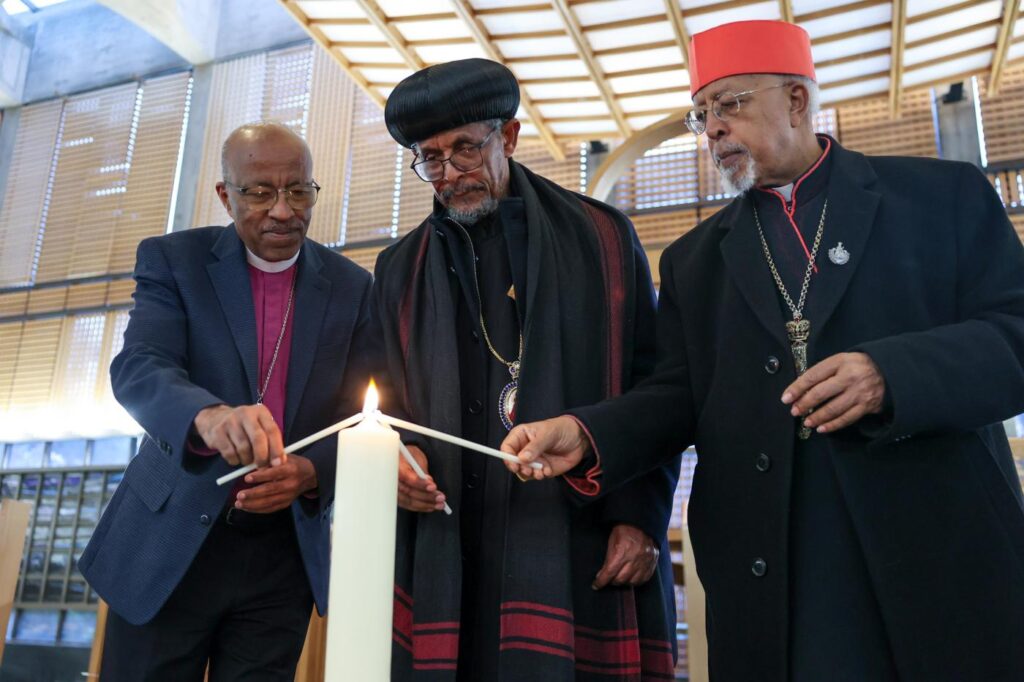
In historic show of unity, Ethiopian churches commit to establishing national council
High-level delegations from the three largest Ethiopian churches—the Ethiopian Orthodox Tewahedo Church, Ethiopian Evangelical Church Mekane Yesus, and Ethiopian Catholic Church—made the move with a view to strengthening ecumenical cooperation “in responding to humanitarian needs and in promoting peace and social cohesion in Ethiopia,” according to a minute released by the gathering. The World Council of Churches (WCC) served as a convener and facilitator of the process. The meeting was supported by the German Federal Foreign Office. The Ethiopian church leaders shared extensively about the dire humanitarian situation in their nation. Currently around 20 million people require food aid, many millions are internally displaced, various parts of the country face severe droughts or floods, and recent malaria outbreaks have worsened the situation. A desire for ecumenical collaboration in advocacy for human rights was also expressed.


Development Bank of Ethiopia Announces Significant Interest Rate Cut of 4.5%
The Development Bank of Ethiopia has made a significant announcement regarding a considerable reduction in interest rates for loans extended to projects within the agricultural sector, particularly targeting small medium-scale endeavors and corporate initiatives. This strategic decision, unveiled through the Bank’s official social media platform on Friday, reflects a noteworthy shift from the previous interest rate of 11.7% to a considerably reduced rate of 7%. Highlighting the rationale behind this interest rate adjustment, the 113-years-old state-owned institution, that prides itself for project-based lending approach, aims to incentivize and invigorate investment in Ethiopia’s agricultural landscape.


Free Digital Ethiopian Sign Language Dictionary Widens Access for Ethiopia’s Deaf Community with U.S. Government Support
Addis Ababa, December 1, 2023 – Deafness is one of the most prevalent disabilities in Ethiopia, with the deaf population growing each year. The December 1 launch of the first digital Ethiopian Sign Language (EthSL) dictionary will lower language barriers, increase the inclusion of the deaf in social and economic activities, and spur economic growth and productivity. The U.S. Embassy in Ethiopia is proud to support the game-changing efforts of Addis Ababa University’s Center for Special Education, led by Dr. Pawlos Kassu, and Gallaudet University (Washington D.C.) to develop the digital EthSL dictionary in four Ethiopian languages (Amharic, Afan Oromo, Somali, and Tigrinya) and English through a $110,000 grant. The development of the digital dictionary combined descriptive and applied linguistic research to minimize the challenges that deaf Ethiopians face in economic development and accessing public and private sector services. The digital Ethiopian Sign Language Dictionary, containing more than 3000 signs, is available online here and as a free downloadable pdf for offline use.


Health Ministry Urges Collaboration of Partners to Eliminate HIV/AIDS from Ethiopia
Addis Ababa, December 1 /2023 (ENA) Health Minister Lia Tadesse has called on further collaboration of development partners to eliminate HIV AIDS from Ethiopia. In her remarks on World AIDS Day commemorated in Addis Ababa today, Health Minister Dr. Lia Tadesse said the day is observed to remember the contributions and leadership of communities in the progress made in HIV AIDS prevention and control globally and in Ethiopia. "Ethiopia has had significant progress and strides in terms of reducing the incidence and reducing mortality from HIV AIDS. This was possible because of the strong political and government commitment, but combined with our strong partnership with diverse partners." The prevalence rate of HIV/AIDS, which was 1.26 percent in 2010 has declined to 0.91 percent in 2022, it was learned.


Orange backs away from Ethiopia
The French operator group was one of the most highly tipped candidates to pick up the 45% stake in the Ethiopian telecoms incumbent that the state has been trying to sell for some time. But more than two years after it first confirmed its participation in the privatisation process, Orange is walking away.
"Orange confirms that it has decided to withdraw from the ongoing process regarding the sale of 45% of Ethio Telecom," the telco said, in a statement. "After analysis, the Group believes that the conditions do not allow for the rapid deployment of our strategy and the completion of a project that would create value for the company."
It's not giving a lot away with regard to the results of its analysis, but it's pretty clear that Ethiopia – be it due to the conditions of the stake sale itself, or the broader market conditions – is not the telecoms land of plenty that it was once considered.


AfCFTA Unleashes market opportunities for Ethiopia’s leather industry
The African Continental Free Trade Area (AfCFTA) provides huge market to Ethiopia’s leather industry considering the country’s enormous potential in the sector, according to the United Nations Economic Commission of Africa (UNECA). ECA’s African Trade Policy Centre (ATPC), the Ethiopian Chamber of Commerce and Sectoral Associations (ECCSA), and the Ethiopian Leather Industries Association (ELIA) co-organized the first workshop on “the Ethiopian Leather Industry and the African Continental Free Trade Area (AfCFTA): Opportunities and Challenges” in Addis Ababa. The workshop aimed to bring all stakeholders together to discuss the opportunities the AfCFTA presents to the Ethiopian leather industry, appreciate the challenges facing it, and offer a platform for resolving the challenges. It also explored options on how best to position the Ethiopian leather industry to take advantage of the AfCFTA. Ethiopia is home to the largest livestock population in Africa that guarantees plentiful supply of raw materials for its leather industry, according to ECA.


Ethiopia Coffee, Bahir Dar cruise in Cup ties
The Ethiopia Premjer League break has allowed Ethiopia Coffee, Adama City and Bahir Dar City to advance in the Ethiopia Cup. The League title looks like St George's to lose even in the early stages, but their rivals have staked strong challenges for success in the Ethiopian Cup Ethiopia Coffee beat lower league side Woldia 4-0, with two goals (including a penalty) from Biruk Beyene. Chala Teshita and Mohammad Nur Nasir scored the other goals. Bahir Dar City beat Sheger City 1-0 thanks to a goal by Frezer Kasa.


Ezra & Kacha team to launch digital lending service in Ethiopia
Ezra, a microlending FinTech, has partnered with Kacha Digital Financial Services S.C. and Global Bank of Ethiopia to launch a digital lending service in Ethiopia.


Foreign Companies Desirous of Increasing Imports of Pulses, Oilseeds from Ethiopia
Addis Ababa,November 25/2023(ENA)-Lured to Ethiopia’s big potential of pulses and oilseeds, foreign companies said that they have big interest to increase their imports of pulses and oilseeds and expand the sector. Senior Trader at UK based TORQ Commodities Ltd, Anna Maria, who participated the 12th International Conference on Pulses and Oilseeds recently held in Addis Ababa told ENA that her company is mainly importing agricultural products, especially sesame soybean from East Africa. She added that Ethiopia is definitely a very important supplier of sesame and soyabean and pulses no less than coffee. “Definitely Ethiopia is one of the biggest producers particularly sesame ... just purely for export. For sure, Ethiopia is a very important supplier of this product.”


ITU Reiterates Commitment to Support Ethiopia’s Digitalization Ambitions
Addis Ababa, November 27/2023 (ENA) The International Telecommunication Union is working in tandem with the government of Ethiopia to get the most out of the nation’s huge potential and realize the national digital strategy, ITU Regional Director for Africa Anne-Rachel Inne said. To use the benefit of the digital world, Ethiopia has adopted a Digital Transformation Strategy 2025. The Digital Ethiopia Strategy 2025 is designed to realize the country’s digital potential and leverage technology to build digital economic development aligned with national development plans. In an exclusive interview with ENA, Inne said Ethiopia is definitely one of the biggest populations on the continent and it is important that we cater with the government and to the priorities of the government.


Appropriate Institutions Fundamental To Exploit Ethiopia’s Minerals Resources, Says Professor Alemayehu
Addis Ababa, November 27/2023(ENA)-Viable institutions with correct incentives structure are relevant to exploit Ethiopia’s mineral resources, according to Professor Alemayehu Geda. As part of the 2nd Annual Mining and Technology Expo opened by Prime Minister Abiy Ahmed last week, a panel discussion was held today with the objective of promoting the sector. It is to be recalled that the government of Ethiopia has given high priority to the mining sector, which had not been given priority until recent time. The mining sector has been considered as one of the critical economic sectors of the country as part of reform measures over the last five years.


GTTC India-Ethiopia Forum Launched to Promote Trade and Investment Opportunities
Addis Ababa November 26/2023 (ENA)The GTTC India-Ethiopia forum, organized by the Ethiopian Embassy in New Delhi, was officially established on Saturday with the main objective of promoting trade and investment opportunities between the two countries by providing a platform for businesses to network and collaborate. The forum also aims to encourage cultural exchanges that can create better understanding and meaning for relationships between people of both nations. It strives to facilitate communication and the exchange of information between members, government officials, and other stakeholders.


Japanese Embassy Donates Skateboards to Ethiopian Girls Skaters
Addis Ababa, November 26/2023 (ENA) Ethiopian Girls Skaters could meet the Japanese skateboarding in the international skateboarding competitions, including the Olympic games and nurture their friendship through sports, Japanese Ambassador to Ethiopia Ito Takako said. Japanese Embassy in Addis Ababa has today donated skateboards to Ethiopian Girl Skaters through UNICEF. Skateboarding is a sport often associated with boys. But in the heart of Addis Ababa, the Ethiopian capital, courageous girls took it upon themselves to break the stereotype and established a girls-only skateboarding group called Ethiopian Girls Skaters (EGS).


Ethiopia’s Yirga stars in Shanghai Marathon, outclasses Kenyan rivals
Siranesh Yirga of Ethiopia managed to beat a strong field of women in the Shanghai Marathon to emerge as the winner on Sunday, November 26, 2023. The World Athletics Platinum Label road race featured five women runners, all of whom carried sub-2:21 records before the Sunday race. Yirga shockingly defeated the field that also had her compatriot Tadu Teshome, who had a personal best of 2:17:36. Meanwhile, before the 15-kilometer mark, the pace was slow as compared to a previous record of 2:20:36 that was set by Ethiopian Yebrgual Melese in 2018. The pre-race favourite Teshome was leading at the five kilometre mark, which they hit at 33:47, before completing the next 10 kilometres in 50:36.


ECA co-organized the first workshop on the Ethiopian leather industry and the African Continental Free Trade Area
ECA’s African Trade Policy Centre (ATPC), the Ethiopian Chamber of Commerce and Sectoral Associations (ECCSA), and the Ethiopian Leather Industries Association (ELIA) co-organized the first workshop on “the Ethiopian Leather Industry and the African Continental Free Trade Area (AfCFTA): Opportunities and Challenges” at the Hilton Hotel, Addis Ababa, Ethiopia, on November 21, 2023. The workshop aimed to bring all stakeholders together to discuss the opportunities the AfCFTA presents to the Ethiopian leather industry, appreciate the challenges facing it, and offer a platform for resolving the challenges. It also explored options on how best to position the Ethiopian leather industry to take advantage of the AfCFTA. Ethiopia has an established leather industry, dating back to the early 20th century. Ethiopia is home to the largest livestock population in Africa that guarantees plentiful supply of raw materials for its leather industry. There are also many businesses operating across different segments of the industry in Ethiopia, both foreign and domestic. The industry has enormous potential to, among others, boost export revenues, create more job opportunities, support women economic empowerment, and contribute to Ethiopia’s overall development.


Ethiopian American Top Young Scientist Challenge Winner Hopes to Change Lives
A 14-year-old Ethiopian-born American in the U.S. state of Virginia has won the 3M Young Scientist Challenge, an annual science competition for U.S. students in grades five through eight. VOA’s Eden Geremew recently spoke with the winner in Fairfax County, Virginia,


Raxio launches new flagship data centre in Ethiopia
Located in the heart of Ethiopia’s economic region Raxio’s newest Tier III certified, data centre will address the growing needs of a growing business and public sector for dependable, always-on IT solutions. “The launch of our flagship facility in Addis Ababa represents a major milestone in our journey at Raxio, and for our country,” said Bewket Taffere, general manager of Raxio Data Centre in Ethiopia. “We anticipate that this facility will be a catalyst for increased economic development in Ethiopia, supporting local businesses and government agencies, as well as attracting regional and international service and content providers into Ethiopia.”


Universal Music expands Africa presence with Sewasew licensing deal in Ethiopia
Universal Music Group (UMG) is set to deepen its footprint in Africa with what it describes as a “first-of-its-kind” licensing agreement with Sewasew Multimedia, an Ethiopian music and entertainment company.
Launched in October 2022, Sewasew is a streaming platform that has signed over 100 artists, including prominent figures in the Ethiopian music scene.
Under the DSP agreement with UMG, Ethiopian consumers will gain access to a broader range of music from UMG’s catalog as Sewasew Multimedia will license and market UMG’s catalog of music in Ethiopia.
The deal encompasses music from Universal Music’s global labels including Def Jam, Interscope Records, Island Records, Motown Records, Republic Records, and Virgin Records.
The agreement also covers music from UMG’s African divisions, such as Def Jam Africa, Motown Gospel Africa, and Republic Records Africa.

World Bank document reveals $350M in donor funding for Ethiopia’s national digital ID
A planning document for Ethiopia’s Fayda ID digital identity supplied to the World Bank reveals that the program has been granted US$350 in funding to supplement its public investment. Details are contained in a Labor Management Procedures (LMP) document by the Ethiopia’s National ID Program (NIDP). The LMP document is intended to establish rules for the relationship between the digital identity project and the people who work for it, including mechanisms for reporting and resolving grievances. In the course of doing so, it reveals a significant breadth of information about the project’s inner workings.


Safaricom Ethiopia makes $43,368 in M-PESA revenue three months after launch
Safaricom Ethiopia has made KES 7.2 million ($43,368) in M-PESA revenue three months after it launched in August 2023. M-PESA Ethiopia has a customer base of 1.2 million users, with 67% actively using the product. The mobile money product registered 22,700 M-PESA agents who have facilitated transactions with a total volume of 2 million and a value of KES 43.7 billion ($287 million). In Kenya, where M-PESA has been in operation since 2007, revenue grew by 16.5% year-on-year (YoY) to KES 66.23 billion ($436 million), aided by a 12.0% YoY increase in average revenue per user (ARPU) to KES 344.05 ($2.26).


Ethiopia sets 2026 deadline for WTO accession
The Ethiopian government has set 2026 as a deadline for its decades-old effort to join the World Trade Organization (WTO). Official documents obtained by The Reporter reveal that around half of the preparations necessary for accession have been finalized, with officials planning to go two-thirds of the way by the end of this year. The preparations include 181 separate queries and demands from WTO member countries. According to the report from the Ministry of Trade and Regional Integration, the federal government is re-aligning legislation based on the requests. Officials are “revising avenues for goods and services” and “finalizing negotiation documents”, according to the document.


Thousands Gather for Great Ethiopian Run in Addis Ababa
Addis Ababa ,November 19/2023(ENA)-Tens of thousands of people have gathered at Meskel Square in Addis Ababa today for the 10-kilometre Great Ethiopian Run, the largest road race in Africa. Today, the streets of the capital city are filled with the energy and excitement of the Great Ethiopian Run which started early morning and attracted more than 45,000 participants from Ethiopia, Africa and all over the world. The runners, including elite athletes, recreational runners, and walkers, made their way through the city's vibrant asphalt streets, cheered on by thousands of spectators. This year's race is particularly significant as it marks the 23rd anniversary of the Great Ethiopian Run.


Ethiopia REDD+ Investment Program Phase II Launched
Addis Ababa ,November 17/2023 2023 (ENA):-Ethiopia is committed to implement REDD+ Investment Program Phase II to realize green economic growth and development by reducing greenhouse gas emission, Agriculture Minister Girma Amente said. Ethiopian Forestry Development REDD+ Investment Program Phase II was launched today in the presence of government officials and development partners. The project funded with 25 million USD by the Norwegian government runs until 2026, it was learned. Speaking on the occasion, Agriculture Minister Girma Amente said the Ethiopian government recognizes the important contribution of forest in realizing green economic growth and development by reducing greenhouse gas emission.


Chinese-funded Africa CDC laboratory opens in Ethiopia as Beijing looks to health diplomacy to boost influence
The new facility will serve as a training and quality assurance centre and provide support for evaluation and validation of diagnostic technologies and tools. It will also support research and development and play an important role in outbreak confirmation.


Ethiopia Hosts 386th Symposium of the International Astronomical Union
The 386th IAU Symposium, organised by the collaboration of the International Astronomical Union (IAU) and the Ethiopian Space Science and Geospatial Institute (SSGI), as well as the partnership with the Ethiopian Space Science Society, Ministry of Innovation, Ministry of Tourism, African Astronomical Society, African Planetarium Society, East African Regional Astronomical Development Office, the Ontoto Observatory, ESA, Uppsala University, EAROD, and EORC, kickstarted on 13th November 2023.


World Cup 2026: Ethiopia’s ‘Johnny Vegas’ dreaming big in new federation role
"I want Ethiopia to make it to the 2026 World Cup in the United States. Yes, it's a long shot, but we do have a chance."
Yohanes Zewdu knows better than most the value of reaching for the stars.
Arriving in Las Vegas aged 10 with his mother, he has sprung himself from the lowest rung of the Vegas strip into a lifestyle fixer for sporting superstars, a social media influencer, and now a role as the international liaison and strategic advisor for the Ethiopian Football Federation (EFF).
"I've been in this role four months now. My job is to be a bridge between the EFF and other leagues, federations and brands," Zewdu, who is professionally known as 'Johnny Vegas', tells BBC Sport.
"To shine a light on Ethiopian football, the image of the potential we have in our country and the resources we have, and say to the outside world 'If you come here and invest in us, you'll get something amazing'.


Natnael Belay ’20: Ethiopia’s New Bright Technology Star
An Ethiopian proverb fits Natnael Belay ‘20 like a glove. It reads, “One who learns will eventually teach.” The proverb speaks to Belay’s personality, creativity, happiness, love, and zest for life. More importantly, it references his inquiring mind and love for education, and his strong sense of social responsibility. Belay’s life journey began in Addis Ababa, the capital city of Ethiopia, where he was born and raised. He fondly recalls viewing himself as a “nerd” in elementary and high school. Today, he is a widely respected and well-loved, leading Technology Program Manager for Google’s Android Jetpack Program in Cambridge, MA, where he shares his wisdom and keen knowledge of one of Google’s most significant products with colleagues and people across the nation.


Meet Rediet Abebe, the First Black Woman to Earn a Computer Science Ph.D. From Cornell University
As one of just few faces of color in the tech world, computer scientist Rediet Abebe is shaking things up and will make history as the first Black woman to earn a computer science Ph.D. from Cornell University later this month. Abebe, who graduates Dec. 21, has focused much of her research on using algorithms and artificial intelligence for social good, but her work doesn’t stop there. According to her online bio, she works to “design and analyze algorithmic, discrete optimizations, network-based, [and] computational techniques to improve access to opportunity for historically disadvantaged communities.” The 28-year-old Abebe is also a Junior Fellow in the Harvard Society of Fellows.

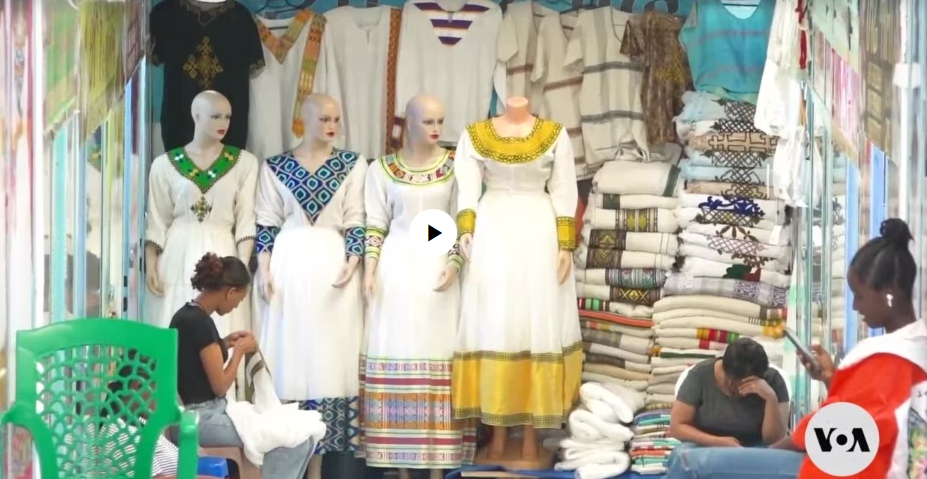
Businesses in Ethiopian Traditional Clothing Market Say Chinese Competition Is Unfair
Businesses in the Ethiopian traditional clothing market say cheaper garments made by Chinese manufacturers is driving them out of work. Kennedy Abate has this report from the capital Addis Ababa, narrated by Vincent Makori.


M-PESA Drives Safaricom Half-Year Profit to Ksh 34.2 billion
Safaricom’s M-PESA services continues to be the key cash cow for the business, contributing 42.1 per cent of the telcos revenue in the six months to 30th September 2023, up from 39.3 per cent in the same period in 2022. The telco recorded a growth in profitability for the six months to 30th September 2023 with the Kenyan business profits growing 10.9 per cent to KSh 41.6 billion. It attributed this growth in profitability to reduced prices for its products and services. “We appreciate that everyone is going through a hard time and are committed as a business to support our customers cope. The reduced prices have seen our customers use more of our services hence the double-digit growth in profitability and revenue,” Peter Ndegwa, Safaricom CEO says.
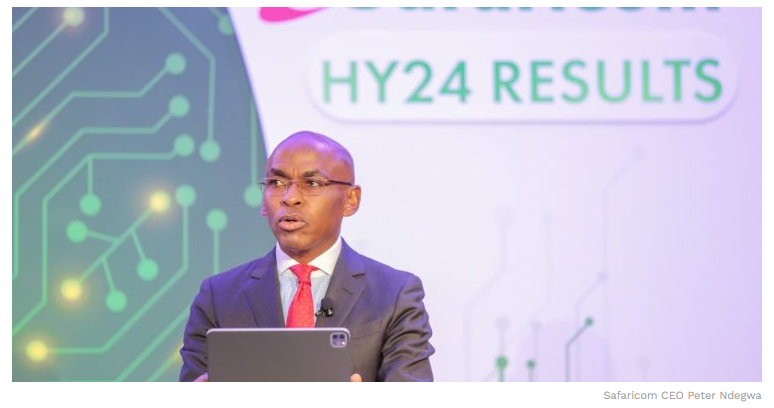

Ethiopia’s largest university inks scholarship cooperation agreement with China
Ethiopia's largest Addis Ababa University (AAU) on Friday signed a scholarship cooperation agreement with China to boost education quality. The Chinese government will offer some 120 scholarship opportunities for graduate and postgraduate students from the AAU during the course of a year, according to the agreement signed between representatives of the university and the Chinese Embassy in Ethiopia. "A very significant number of students will benefit from this particular agreement. It is an extraordinary program with a multitude of benefits to Addis Ababa University," Samson Mekonnen, vice president for Strategic Communication and Internationalization of AAU, told Xinhua.


Whose job will AI replace? Why a clerk in Ethiopia has more to fear than one in California
Artificial intelligence is changing the world—and one of the main areas it will affect in the short-to-medium term is the workforce. AI algorithms imitate real-world systems. The more repetitive a system is, the easier it is for AI to replace it. That's why jobs in customer service, retail and clerical roles are regularly named as being the most at risk. That doesn't mean other jobs won't be affected. The latest advances in AI have shown all kinds of creative work and white-collar professions stand to be impacted to various degrees. However, there's one important point that's usually not addressed in discussions about AI's impact on jobs. That is: where you work may be as important as what you do. Current trends and projections suggest people in developing countries, where a higher proportion of jobs involve repetitive or manual tasks, will be the first and most affected.


LOCAL NEWS Tamirat Tola breaks NYC Marathon record in 2023 men’s race.
NEW YORK — Tamirat Tola of Ethiopia broke the record in the 2023 New York City marathon on Sunday, finishing the 5-borough course in just 2 hours, 4 minutes and 58 seconds. Tola beat the previous course record set in 2011 by Geoffrey Mutai, who finished the race in 2:05:06. Tola pulled away from Jemel Yimer, his countrymate, as the two headed towards the Bronx at mile 20. A mile later, when Tola was headed back into Manhattan, he was up by 19 seconds and chasing Mutai's record. Meanwhile, the women's race came down to the wire. Obiri, Letesenbet Gidey of Ethiopia and Sharon Lokedi, the defending champion, were running together down the stretch. Obiri made a move as the three headed back into Central Park for the last half mile and finished in 2:27:23. Gidey finished 6 seconds later.


Natnael Belay ’20: Ethiopia’s New Bright Technology Star
NNPA NEWSWIRE — At Eastern, Belay studied Computer Science and Business Information Systems, and graduated Summa Cum Laude with a 4.0 GPA in both majors! He also assisted with the development of the University’s web page. In addition to his academic achievements, Belay is also a great photographer. An Ethiopian proverb fits Natnael Belay ‘20 like a glove. It reads, “One who learns will eventually teach.” The proverb speaks to Belay’s personality, creativity, happiness, love, and zest for life. More importantly, it references his inquiring mind and love for education, and his strong sense of social responsibility. Belay’s life journey began in Addis Ababa, the capital city of Ethiopia, where he was born and raised. He fondly recalls viewing himself as a “nerd” in elementary and high school. Today, he is a widely respected and well-loved, leading Technology Program Manager for Google’s Android Jetpack Program in Cambridge, MA, where he shares his wisdom and keen knowledge of one of Google’s most significant products with colleagues and people across the nation. “As a youngster, I spent most of my time in the library. I had a deep question about what reality is, and how our planet and universe came about. I wanted to become an astronomer. People made fun of me because they did not even know what an astronomer was. Nonetheless, I spent all of my time in the library reading, university-level physics and astronomy books.” Belay also credits his success in becoming the highest version of himself to date, to the emotional support of Mom and Dad. “My parents have instilled in me a deep sense of integrity and taught me to do everything that I do with passion. They have also been my biggest supporters with whatever endeavor caught my imagination.” Belay recalls a time when his mother would print research papers at her work and bring them home for him to read.


Mom Who Spends 30 Years Working Abroad to Support Son Is Surprised by Him as Her Pilot on a Trip Home
Many immigrants have incredible stories of hard work, oftentimes involving a parent moving to a place with more opportunities to give their kids a better life. This is certainly true for a woman who left Ethiopia for Lebanon, where she worked as a maid for 30 years. Back home, her son long wished to become a pilot. This further inspired her to work hard and support his dream. As a powerful tribute, the devoted mom got a special surprise on her grand return home. As she boarded the plane, a flight attendant pushed back a curtain to reveal her son was actually the pilot of the plane.
The touching moment was caught on camera. In the clip, which has since gone viral, the mom boards the plane as a regular passenger, unaware of of the surprise to come. Once the team confirms it’s her, the big reveal is set in motion. The pilot greets his unsuspecting mom with a big flower bouquet under his arm, as well as a cake and a bottle of champagne.
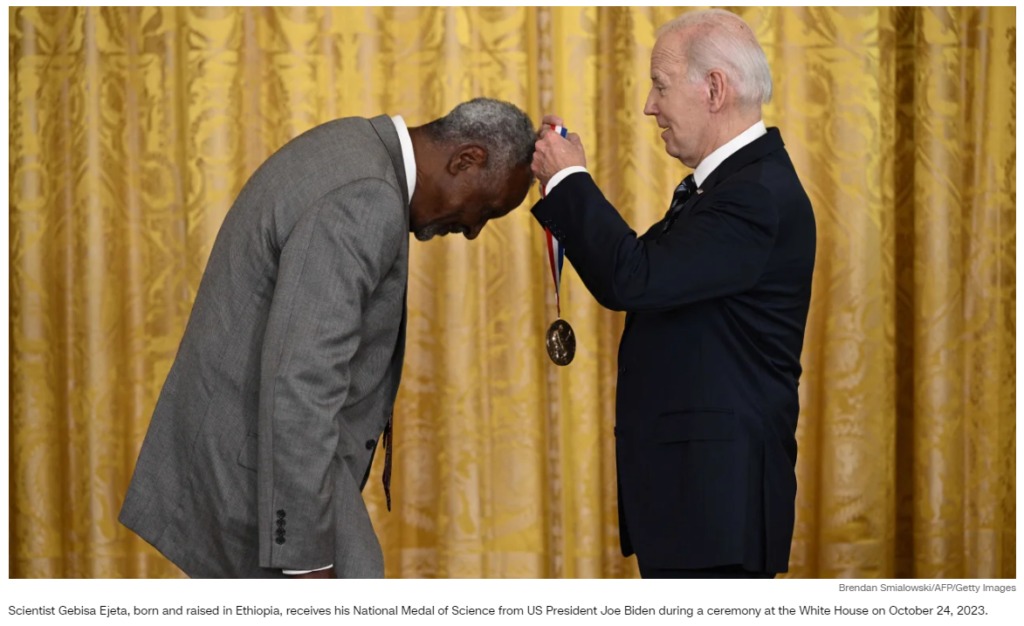
Ethiopian scientist Gebisa Ejeta honored by President Biden with prestigious award
Earlier this week, Ethiopian Gebisa Ejeta joined an elite group of scientists when he was honored by US President Joe Biden in a ceremony at the White House. Ejeta, along with eight others, was awarded the National Medal of Science on Tuesday, the highest scientific honor in the nation.
Born and raised in rural west-central Ethiopia, Ejeta has dedicated his life’s work to food science – specifically the study of sorghum, a gluten-free ancient grain. He was a 2009 recipient of the World Food Prize for his work with drought- and parasite-resistant hybrid strains. That same year, he was awarded Ethiopia’s National Hero Award.
“Gebisa Ejeta is one of the most impactful geneticists in the world,” said Mung Chiang, president of Purdue University in the US, where Ejeta has been a researcher and faculty member since 1984.
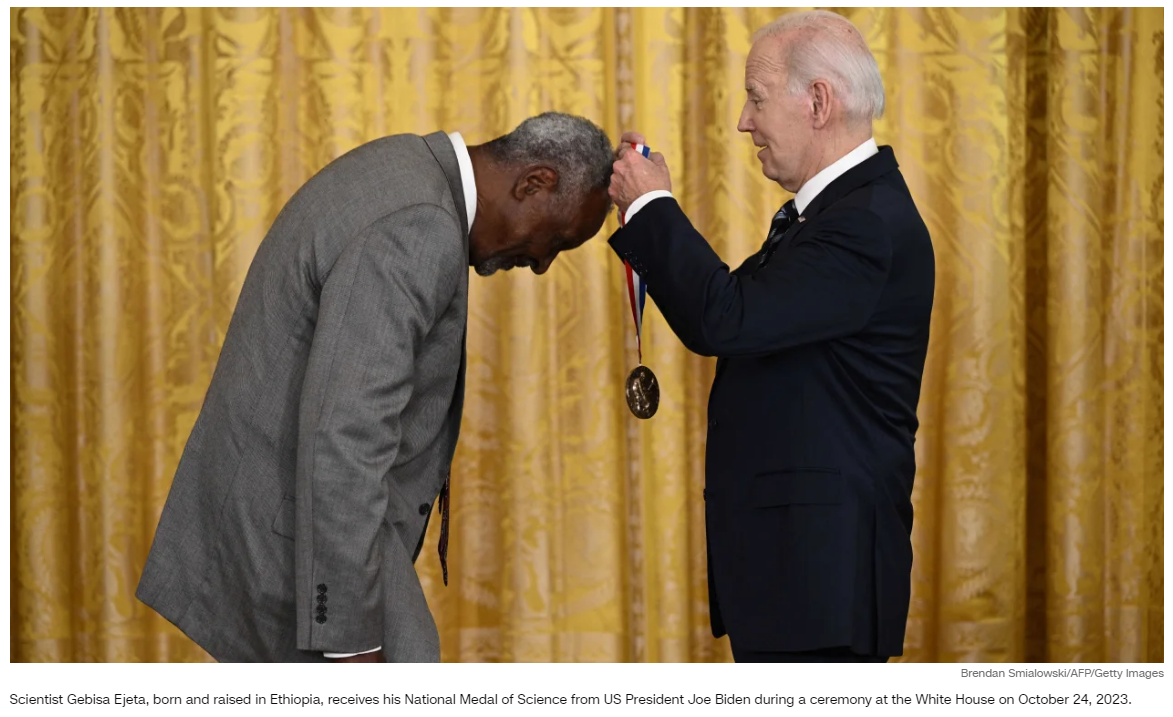
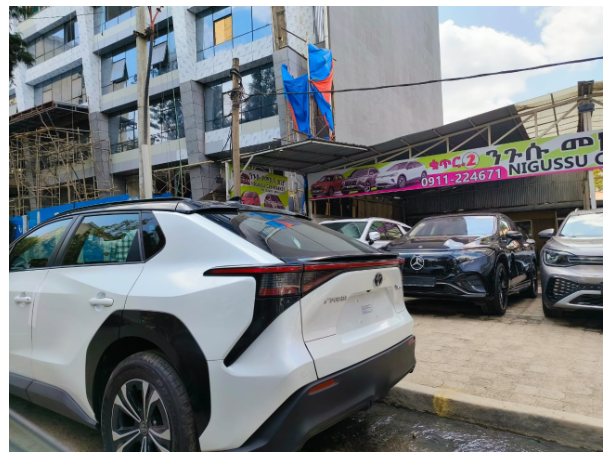
EV Floodgates Open In Ethiopia After Gov’t Exempts All EVs From VAT, Surtax, & Excise Tax
A year ago, the Ethiopian government introduced some incentives to catalyze the adoption of electric vehicles. Ethiopia’s Ministry of Finance exempted all electric vehicles from VAT, surtax, and excise tax! They went further to exempt completely knocked-down kits from customs duty tax. This move was made to encourage the local assembly and component manufacturing sectors for electric vehicles. Semi-knocked-down kits now attract a customs duty tax of 5% and fully built electric vehicles will have a customs duty of 15%. Ethiopia’s Minister of Transport and Logistics has a 10-year plan and intends to support the import of at least 4,800 electric buses and 148,000 electric automobiles as part of that plan to catalyze the adoption of electric vehicles in the country. It’s been a year now, so let us check in to see how this move has affected Ethiopia’s EV scene. Earlier this year, Axel Conrad, founder of e-Car Namibia, gave an insight into how the Chinese EV market is already having some influence in Ethiopia. Axel spotted several made-in-China VW ID models at showrooms of independent dealerships which import cars directly. He also spotted several ID models already driving on the roads of Addis Ababa. These ID models are imported as brand new or low mileage models into Ethiopia from China and include the ID.4 and ID.6. Axel says in a LinkedIn post that the ID.6 models seem to be selling quite well, as he spotted quite a few of them driving on the roads of Addis Ababa.

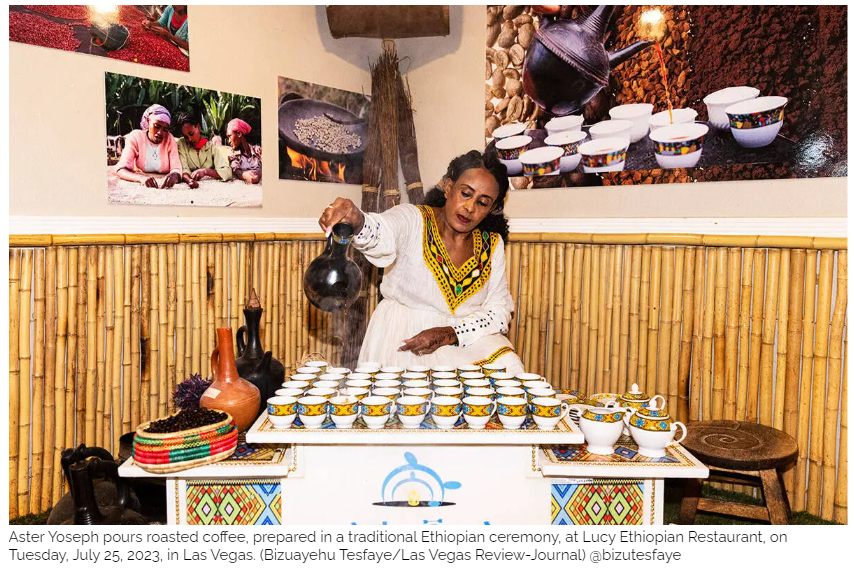
Welcome to Little Ethiopia’: Clark County’s 1st official cultural district inaugurated
Designed in the likeness of an iconic Las Vegas symbol, the green, yellow and red sign states: “Welcome to Little Ethiopia.” Las Vegas Valley’s Ethiopian community on Tuesday celebrated a historic milestone — the inauguration of Clark County’s first official cultural district. County officials attended a morning ceremony, which was followed by an outdoor festival at Clark High School. Commissioner Michael Naft helped to unveil a second sign, a brown and white street sign that signals the hub near Decatur Boulevard — between Twain and University avenues — as Little Ethiopia. The area is an epicenter that houses nearly 80 Ethiopian-owned businesses, where many of the more than 40,000 Ethiopians and Eritreans who call Southern Nevada home tend to congregate.


Minnesota leads nation in new effort to welcome refugees through private sponsor groups
The state already is home to 10 private sponsor circles in the new Welcome Corp. Mathias Shimirimana rang up orders of chicken strips and sandwiches for the college students crowding into the spicy fried chicken restaurant in southeast Minneapolis, quietly maneuvering through the dinner rush.
"For here or to go?" he asked. "Anything else?"
Watching from a nearby table, the sponsors who welcomed Shimirimana to the Twin Cities from Zimbabwe three months ago were impressed at his ease behind the counter, remarking that he was settling into his first job in America well.
Shimirimana, 37, had lived as a refugee for most of his adult life and likely still would be in a camp if not for a novel federal program allowing a group of local Ethiopian natives who had never met him to sponsor him to come to the United States.
Refugees have long come to America through nonprofit resettlement agencies that find them housing, connect them to social services and foster cultural orientation. But after the U.S. began using private sponsor groups to support masses of Afghans and Ukrainians fleeing civil collapse and war, the Biden administration announced a program in January called the Welcome Corps using the same model to resettle people from around the world. Calling it the boldest innovation in refugee resettlement in four decades, the Department of State said the program would tap into the goodwill of American communities.


What You Never Knew About Zahara Jolie-Pitt
Zahara Marley Jolie-Pitt is the eldest daughter of Angelina Jolie and Brad Pitt. Although she manages to keep a relatively low profile, the Ethiopian-born teen has plenty to boast about. From her global humanitarian work to her legendary style, this young powerhouse has achieved quite a lot — and she's just getting started. Although she seems to be the perfect synthesis of her mom's best qualities, it's clear that Zahara has also grown into her own. In a 2020 Time 100 talk with climate activist Vanessa Nakate, Angelina Jolie poured over her love and admiration for her daughter (via People). The filmmaker said, "My daughter is from Ethiopia, one of my children ... and I have learned so much from her. She is my family, but she is an extraordinary African woman and her connection to her country, her continent, is her own, and it's something I only stand back in awe of." Despite being known for her illustrious family ties, there is so much more to her story.


“America’s Top Young Scientist” Heman Bekele Was Born in Ethiopia
W.T. Woodson High School freshman Heman Bekele moved to Virginia as a four-year-old. But he never forgot where he was born: Ethiopia. Heman, newly crowned “America’s Top Young Scientist” after winning this year’s 3M Young Scientist Challenge, says the memories of people working long hours outside under the glaring sun in Ethiopia stayed with him as he made his way through the Fairfax County Public Schools (FCPS) school system. A graduate of Wakefield Forest Elementary School and Frost Middle School, Heman was struck by the dramatic differences in skin cancer survival rates in parts of Sub-Saharan Africa compared to places where high tech cancer treatments are available. “Skin cancer is mostly found on people who live within developing countries,” Heman says. “But the average price for an operation is $40,000. I was devastated by the idea of people having to choose between treatment and putting food on the table for their families. There are so many preventable deaths.”

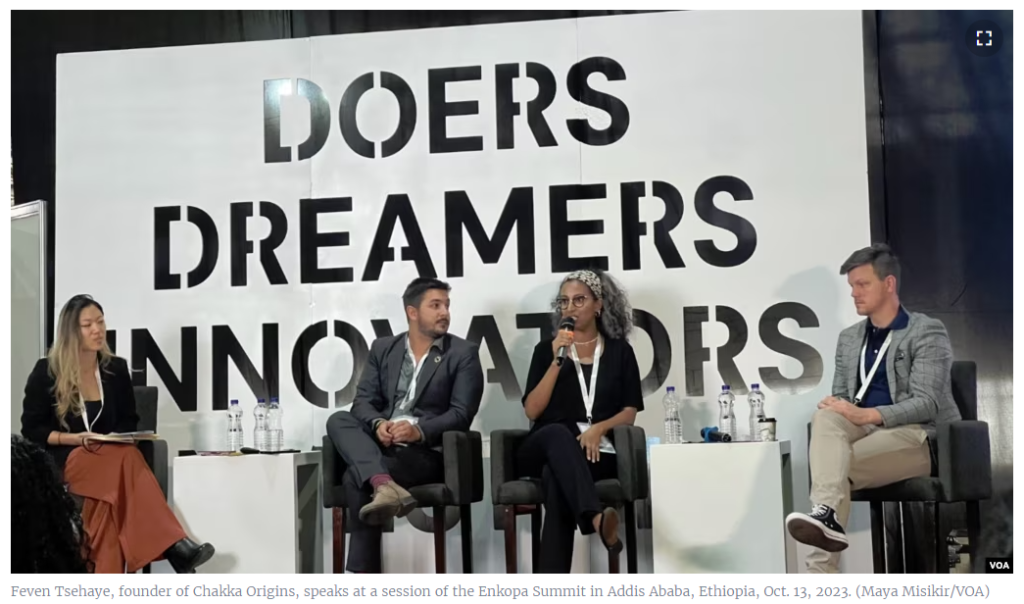
Ethiopia’s Inaugural ‘Innovation Summit’ Sparks Imaginations
ADDIS ABABA, ETHIOPIA — A technology, innovation and entrepreneurship summit sparked imaginations in Ethiopia last week. The inaugural Enkopa summit — a collaboration between the Ethiopian Ministry of Labor and Skills and other partners — brought in speakers and exhibitors from across the world to Addis Ababa to discuss technology, innovation and entrepreneurship. Speaking at the two-day event, Ethiopian State Minister of Labor and Skills Nigussu Tilahun emphasized the important role of the government in clearing a path for job creation in the country. Nigussu said government’s role in building the entrepreneurship ecosystem is to create and facilitate a conducive environment for it. The event, which was October 12 and 13, had 150 speakers from sectors like fintech, health care and agriculture. Feven Tsehaye, founder and CEO of Chakka Origins — which sources natural ingredients in biodiversity hotspots — said land management is crucial to the work the company does in Ethiopia.
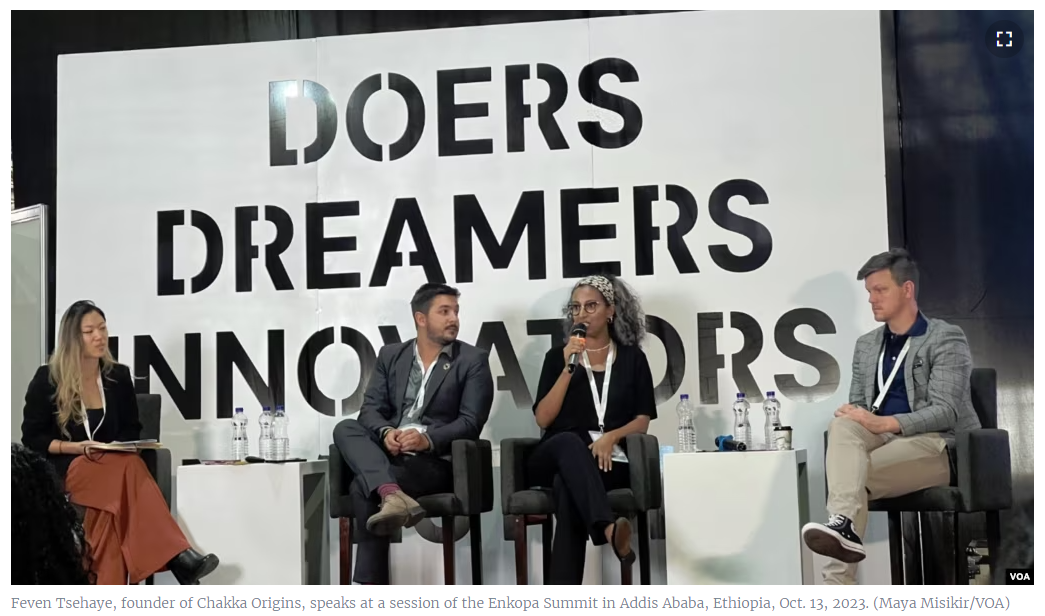
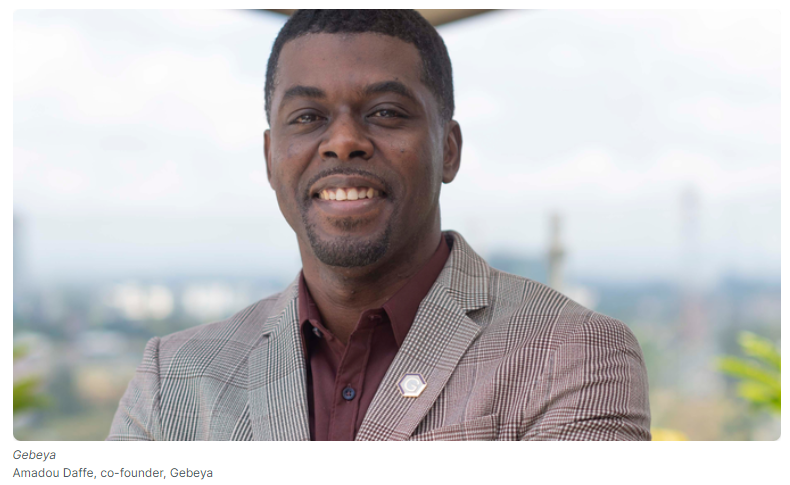
Ethiopia-Headquartered Gebeya Is Making Its Way To Dubai With A Renewed Sense Of Purpose
In a world where virtual hiring has become something of a norm, and online talent hiring options are plenty, Gebeya Dubai sets itself apart with the promise of solely offering African tech talents that are vetted for. "With cities like Cape Town, Nairobi, Lagos, Accra, Cairo, Dakar, and Addis Ababa full of rising tech stars, how was it that the second-largest continent on Earth remained overlooked?" According to Amadou Daffe, this was the conundrum that befuddled him in 2016 and led him to co-found Gebeya, an Ethiopia-headquartered global talent marketplace solely focused on African tech professionals. "The initial spark for Gebeya thus came from seeing Africa's enormous tech talent pool contrasted with the high global demand for skills," Daffe recalls. "When my co-founder Hiruy Amanuel and I first started Gebeya, our focus was primarily on building capacity through upskilling, as many software developers as possible in Africa. Since then, we have worked with the likes of Microsoft, Safaricom, Amazon Web Services, and more to develop and implement upskilling programs, thereby empowering thousands of developers across Africa."


14-year-old Heman Bekele named America’s Top Young Scientist

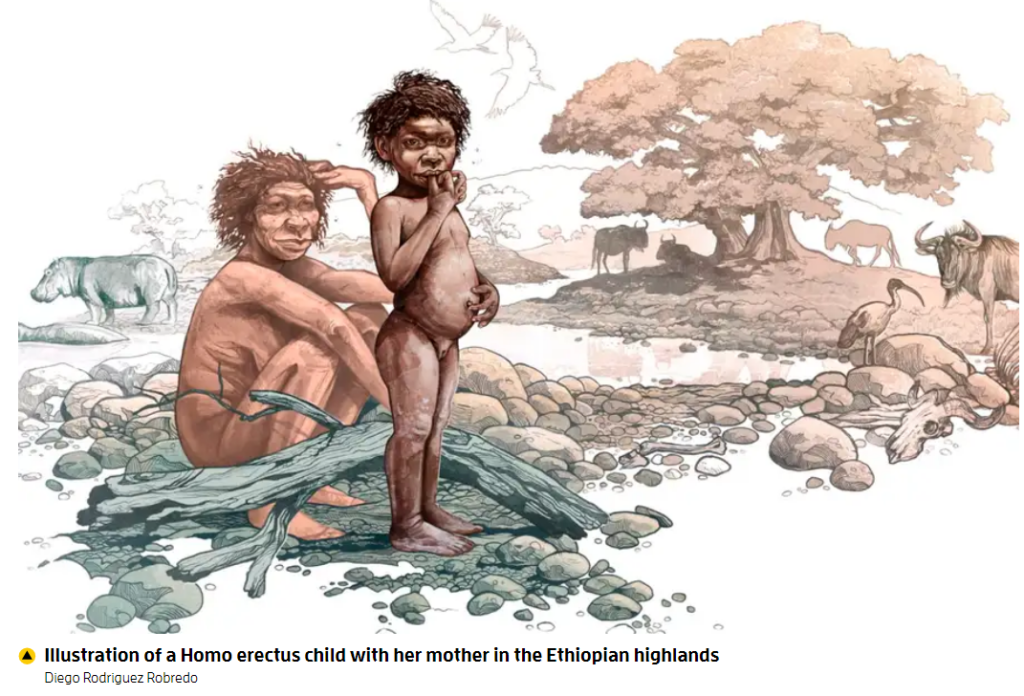
Early humans lived in Ethiopian highlands 2 million years ago
A child’s jawbone found in Ethiopia is one of the earliest fossils identified as Homo erectus, and shows ancient hominins settled in high-altitude areas. Ancient humans were living in the highlands of what is now Ethiopia as early as 2 million years ago. A reanalysis of a fossilised jawbone from the region confirms that it belonged to a Homo erectus, and represents the earliest evidence of hominins living in such high-altitude areas. The highlands represent “a third pole for human evolution in Africa”, says Margherita Mussi of the Italo-Spanish Archaeological Mission at Melka Kunture and Balchit, based in Rome. Hominins have been found in large numbers in eastern and southern Africa, but not to date in upland areas. Mussi and her colleagues re-examined the lower jawbone of an infant, which was discovered in 1981 at a site called Garba IV in the Ethiopian highlands. Garba IV is one of a cluster of sites known collectively as Melka Kunture. Mussi has nicknamed the jawbone “Little Garba”.
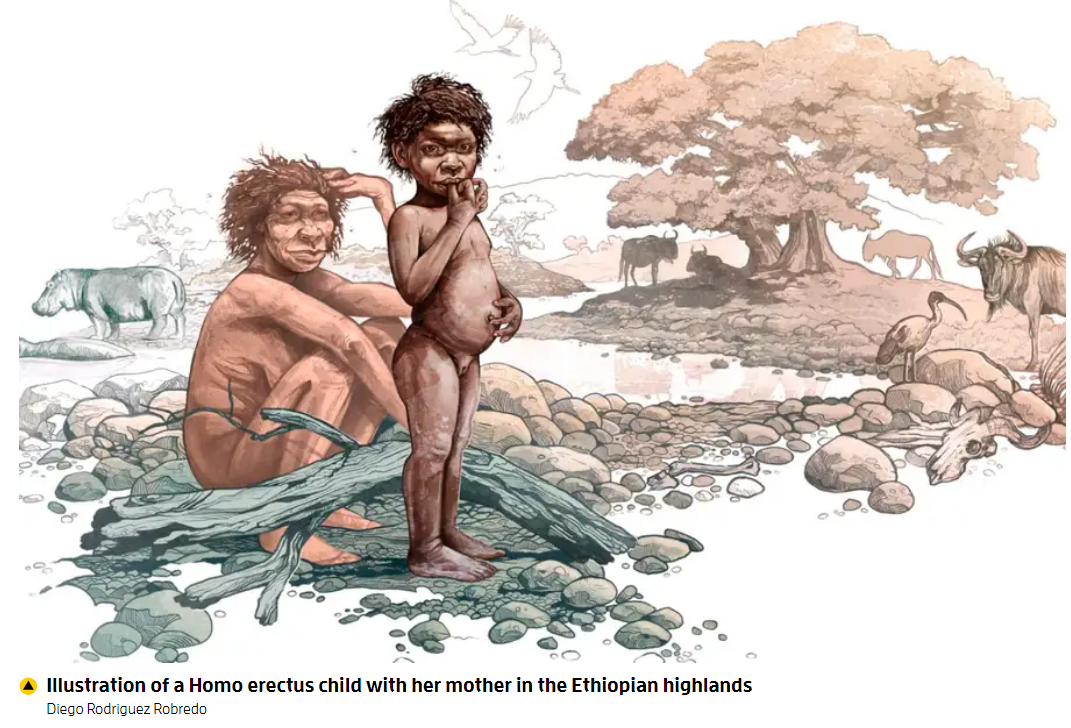
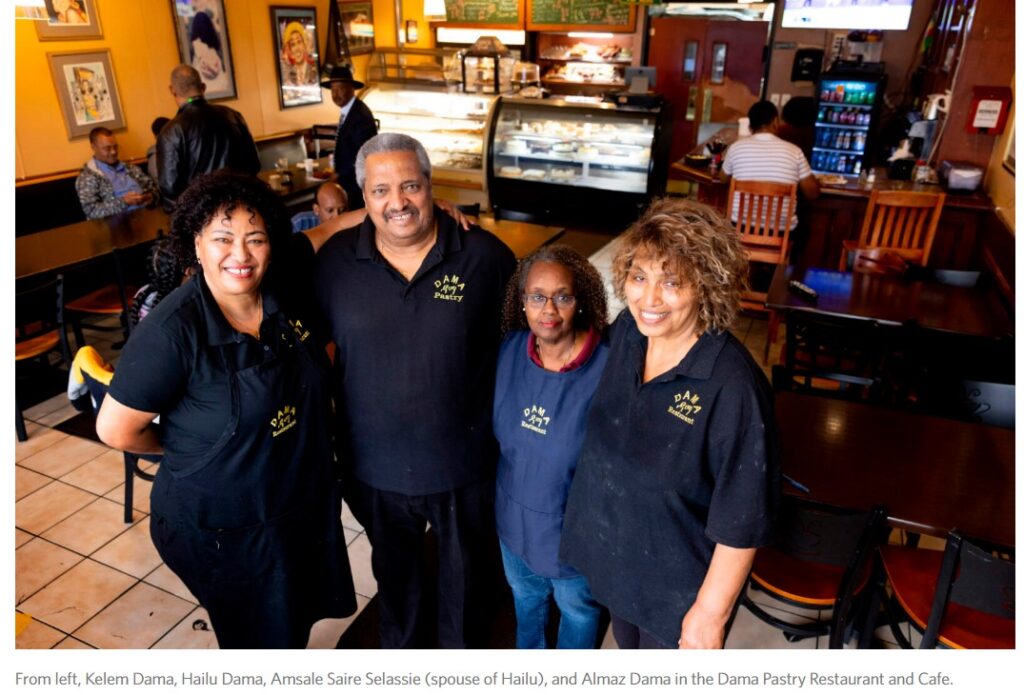
Never Gets Old: Two Decades In, Dama Restaurant Is Still A Hub For The Region’s Ethiopian Community
Walk into Dama Restaurant and Pastry off Columbia Pike in Arlington, and you’ll probably find a group of regulars sipping coffee, splitting pastries, and chatting with one of the owners. People gather at the Ethiopian establishment at all hours of the day because it has a lot to offer, particularly to members the D.C. region’s Ethiopian diaspora. Dama is part café, part restaurant, and part market and was opened decades ago by a group of siblings from central Ethiopia who had their community in mind. At the market, customers can purchase injera or teff flour to make their own spongy bread, along with other Ethiopian staples. They can also pick up newspapers printed in Amharic, plus business cards and flyers of those offering legal and social services in both Amharic and English. The cafe serves traditional American breakfast like French toast or Ethiopian breakfast like chechebsa (which is spiced torn flatbread), while the restaurant has classic Ethiopian dishes like tibs (cubed beef with onions, jalapenos, and spices) and kitfo (a finely chopped raw beef dish). “This is a place where the community comes together and that is the part I love most,” co-owner Hailu Dama tells DCist/WAMU.
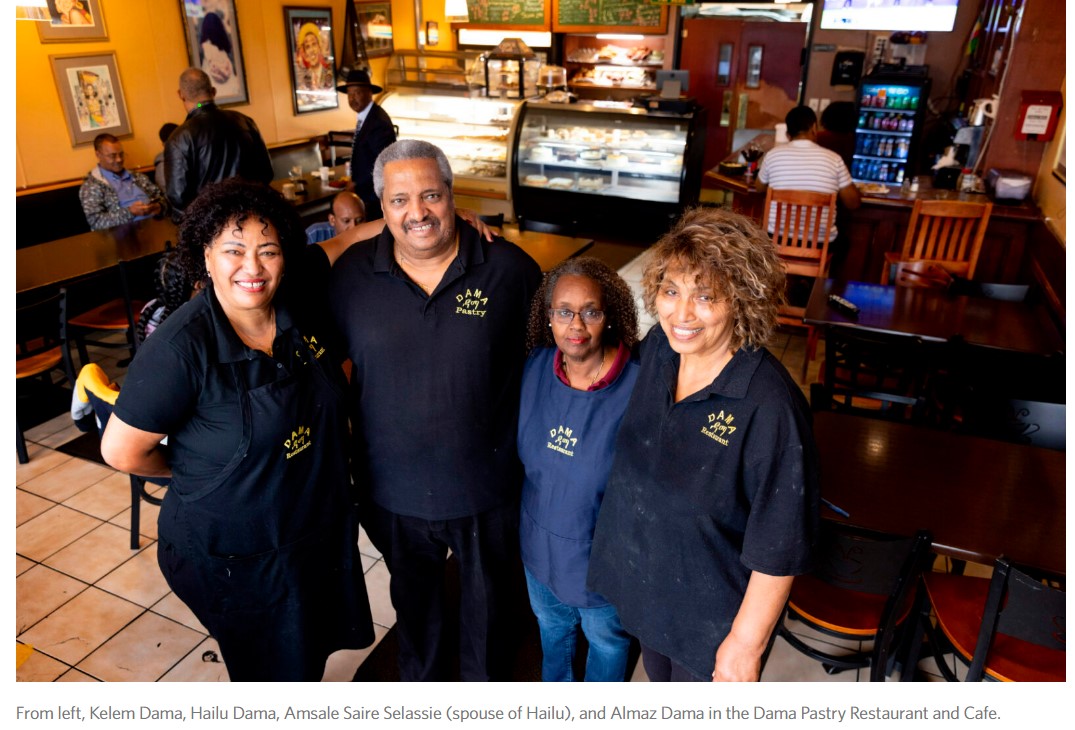
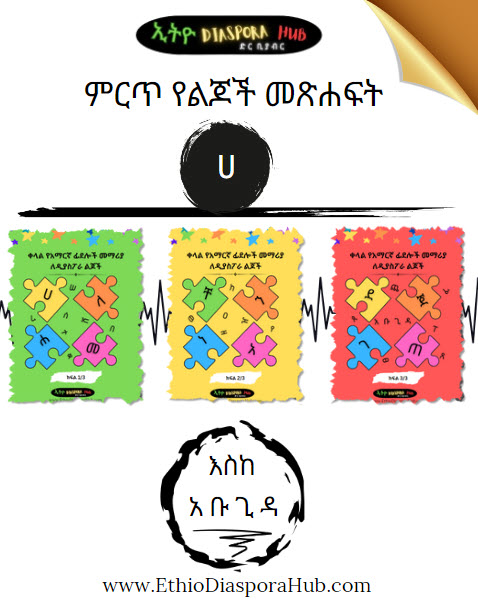
ምርጥ የልጆች ሀ ሁ መማሪያ መጽሐፍት – ለዲያስፖራ ልጆች
Click here to see inside the book
Unlock the rich cultural heritage of Ethiopia with "A simple Amharic alphabets learning book for Diaspora Children," a delightful and straightforward learning book designed specifically for Diaspora children. This colorful and engaging resource introduces young learners to the beauty and elegance of the Amharic script, the official writing system of Ethiopia. Inside this book, children will embark on an exciting journey to discover the twenty-six unique characters of the Amharic alphabet. Each letter is presented with vibrant illustrations and clear, easy-to-follow instructions, making it accessible for children of all ages. Whether your child is just beginning their Amharic language journey or looking to reinforce their existing knowledge, this book offers a perfect starting point. Key Features:
Clear and Concise Instruction: Our book provides a simple, step-by-step guide to learning the Amharic alphabet, making it accessible even for young learners.
Colorful Illustrations: Each letter is accompanied by vivid and engaging illustrations that help children associate the characters with everyday objects, making learning fun and memorable.
Cultural Connection: As Diaspora children, connecting with Ethiopian culture is essential. "Amharic Alphabet Adventures" not only teaches the alphabet but also incorporates cultural elements, fostering a deeper understanding of Ethiopian heritage.
Practice Pages: The book includes ample practice pages for each letter, allowing children to trace and write the characters independently, reinforcing their learning.
Engaging Activities: Interactive activities and games throughout the book keep children excited and engaged as they progress through the alphabet.
Empower your child to embrace their Ethiopian heritage and language with "Amharic Alphabet Adventures." Whether you're part of the Diaspora community or simply interested in introducing your child to a new language and culture, this book is the perfect choice. Start your child's Amharic language journey today, and watch as they embark on an exciting adventure of learning and discovery.
Unlock the doors to Amharic literacy and cultural connection with "A simple Amharic alphabets learning book for Diaspora Children." Order your copy now and let the journey begin!
Key Features:
Clear and Concise Instruction: Our book provides a simple, step-by-step guide to learning the Amharic alphabet, making it accessible even for young learners.
Colorful Illustrations: Each letter is accompanied by vivid and engaging illustrations that help children associate the characters with everyday objects, making learning fun and memorable.
Cultural Connection: As Diaspora children, connecting with Ethiopian culture is essential. "Amharic Alphabet Adventures" not only teaches the alphabet but also incorporates cultural elements, fostering a deeper understanding of Ethiopian heritage.
Practice Pages: The book includes ample practice pages for each letter, allowing children to trace and write the characters independently, reinforcing their learning.
Engaging Activities: Interactive activities and games throughout the book keep children excited and engaged as they progress through the alphabet.
Empower your child to embrace their Ethiopian heritage and language with "Amharic Alphabet Adventures." Whether you're part of the Diaspora community or simply interested in introducing your child to a new language and culture, this book is the perfect choice. Start your child's Amharic language journey today, and watch as they embark on an exciting adventure of learning and discovery.
Unlock the doors to Amharic literacy and cultural connection with "A simple Amharic alphabets learning book for Diaspora Children." Order your copy now and let the journey begin!
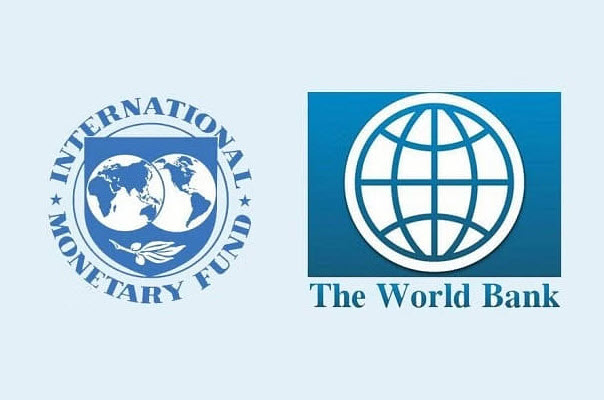
Developing countries facing a debt crunch
High interest rates, growing investor risk aversion and borrowing that ballooned in recent years have left a range of developing economies mired in debt crises. Helping them claw out of this will be a key agenda item at the annual IMF and World Bank meetings in Morocco's tourist hub of Marrakech which kicks off next week.
North Africa's largest economy needs to repay some $100 billion of hard-currency debt over the next five years. Cairo currently spends over 40 percent of revenues on interest payments; financing needs for fiscal 2023/204 stand at $24 billion.


Combatting biopiracy: Ethiopian entrepreneur revives teff farming for ancestral heritage
Teff is the star ingredient of Ethiopian cuisine, yet this grain is also a victim of biopiracy- the unethical exploitation of indigenous knowledge and biological resources. In this episode, we meet Yonas Alemu, a man who is committed to inverting this trend by modernizing teff production.


Exclusive: first color photographs shed fresh light on Ethiopia’s most treasured icon
An Art Newspaper investigation uncovers new details on the infamous seizure in 1868 by Richard Holmes of a 500-year-old painting of Christ, the Kwer’ata Re’esu, which never reached the London institution
Among the greatest Ethiopian cultural losses suffered at the battle of Maqdala in 1868 was a remarkable 500-year-old icon of the suffering Christ. It was looted by a British Museum agent, Richard Holmes, who had been sent to bring back manuscripts and antiquities from Ethiopia. On his return he failed to hand over the masterpiece to the museum, instead secretly keeping the painting, so the museum had no direct involvement in handling it. The heir of Holmes subsequently sold the picture at Christie’s in 1917.
The Art Newspaper tracked down the painting, known as the Kwer’ata Re’esu, in 1998, when it was in a Portuguese bank vault (at that point we reproduced the picture in black and white). This was probably the only occasion when the icon has been seen by anyone in living memory outside the owner’s immediate circle.
We can now finally name the owner, who personally showed me the work: the Coimbra-based Isabel Reis Santos, heir of the Portuguese art historian Luiz Reis Santos. When I travelled to see the Kwer’ata Re’esu, it was boxed and still in the wooden crate in which it had been shipped from London. Kept in a bank vault, the painting was wrapped in a 20 April 1950 copy of the London Evening News. In 1998 The Art Newspaper did not identify the owner, but does so now since she has been named in the official Portuguese government gazette.


Moody’s downgrades Ethiopia’s foreign currency rating on default risks
Sept 15 (Reuters) - Moody's on Friday downgraded Ethiopia's foreign currency rating by a notch to 'Caa3' from 'Caa2', citing a high likelihood of default on foreign currency-denominated private sector debt. "Ethiopia's external profile has deteriorated to very weak levels over the last two years against the backdrop of multiple shocks, including the pandemic and the war in Tigray", the credit ratings agency said in a statement on Friday.

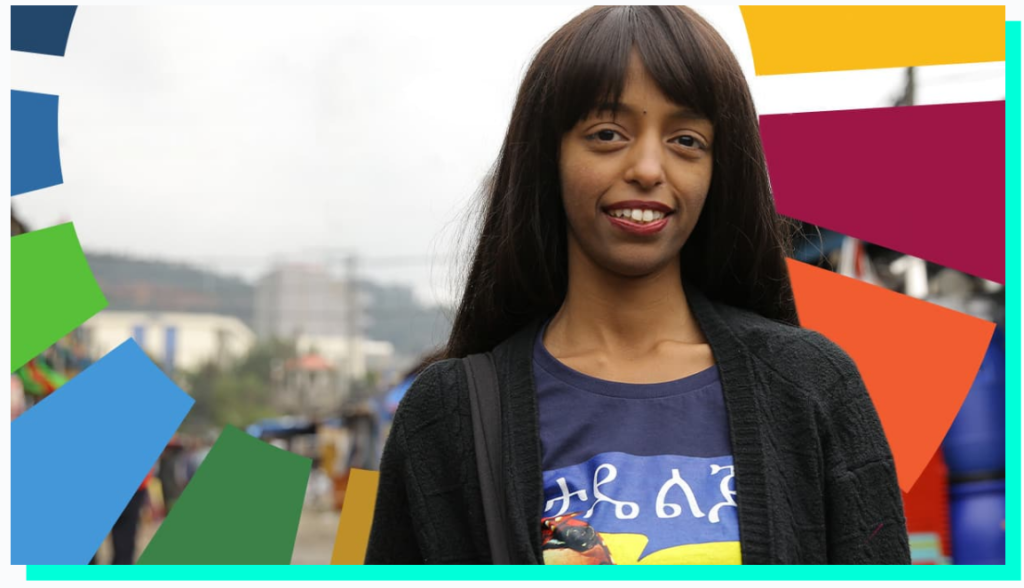
ONE Activist Eden Tadesse wins Goalkeepers Award
Eden Tadesse, a social entrepreneur, human rights advocate, and a ONE activist from Ethiopia, won the 2023 Gates Foundation Goalkeepers Progress Award! She is an advocate for refugee rights and her vision is a world where refugees have equal opportunities to fair wages and good jobs. Eden founded Invicta in 2019. It’s a digital platform that helps refugees learn new skills, find jobs, integrate into their new homes, and connect with international companies. More than 35,000 people from 90 countries have registered on Invicta. 7,000 of them completed online courses, and more than 2,200 of them have found jobs. Watch the video below to learn more about Eden’s story and help us congratulate Eden by sharing her video on social media!


Tigst Assefa shatters women’s marathon world record in Berlin
BERLIN -- Tigst Assefa broke the women's world record by more than two minutes Sunday at the Berlin Marathon, as Eliud Kipchoge won the men's race for the fifth time but couldn't break his own record. Ethiopian runner Assefa, the winner in Berlin a year ago, ran the race in 2 hours, 11 minutes, 53 seconds to break the previous women's record of 2:14:04 set by Kenya's Brigid Kosgei at the Chicago Marathon in 2019. Assefa sank to her knees after crossing the line and raised her arms, then celebrated with the flag of Ethiopia. She was nearly six minutes clear of any other runner in Sunday's marathon, with Sheila Chepkirui of Kenya second in 2:17:49 and Tanzania's Magdalena Shauri third in 2:18:41. Assefa once specialized in shorter events on the track and competed in the heats of the 800 meters at the 2016 Olympics, but found much more success after switching to road running in recent years. She ran her first marathon in March 2022 in Riyadh before winning in Berlin in a course-record time of 2:15:37 last year. The Berlin course is a favorite for runners chasing world records because of its flat terrain and cool weather. It's seen a succession of men's records tumble over the last two decades, but Assefa was the first to break the women's world record in the German capital since 2001

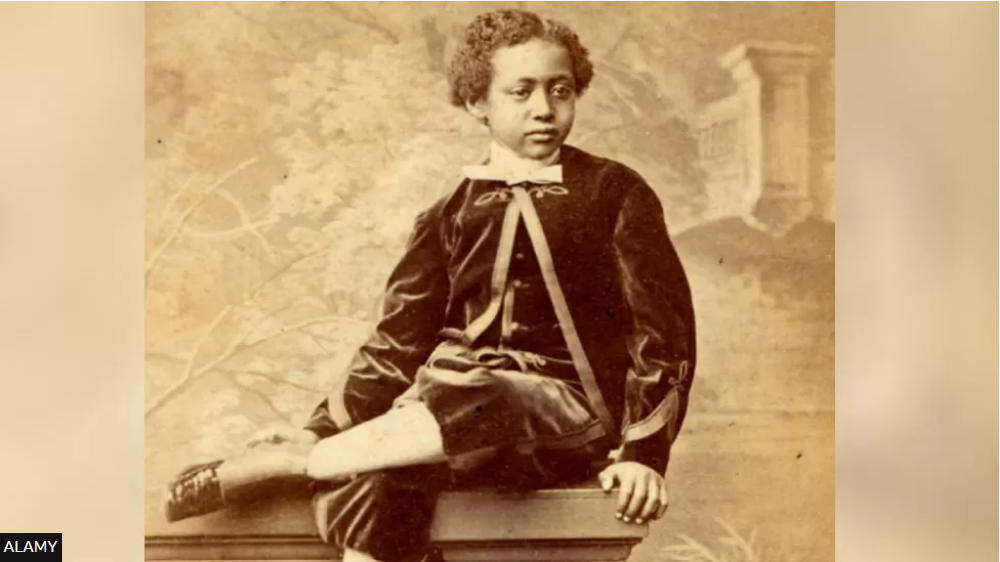
Ethiopian Prince Alemayehu’s lock of hair returned after 140 years in UK
A lock of hair from a young Ethiopian prince, who died over 140 years ago, has been handed over in the UK to representatives from his home country.
In 1868, British soldiers took Prince Alemayehu away after invading the fortress of his father, Emperor Tewodros II, who then killed himself.
The crown prince died aged 18 in 1879 after an unhappy upbringing in Britain.
He was buried at Windsor Castle near London, but recent requests to have his body returned have been turned down.
At a ceremony in London on Thursday evening, Ethiopia's ambassador to the UK Teferi Melesse took possession of the lock of hair, as well as a number of other artefacts that had been looted from Emperor Tewodros's Maqdala fortress.

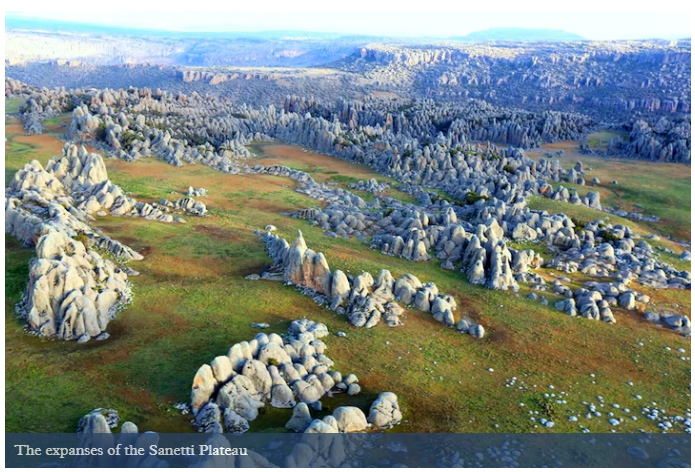
UNESCO registers Ethiopia’s Bale Mountains National Park as world heritage
ADDIS ABABA, Sept. 18 (Xinhua) -- The United Nations Educational, Scientific and Cultural Organization (UNESCO) has registered Ethiopia's Bale Mountains National Park as a world heritage site. The Bale Mountains National Park, located in southeastern Ethiopia some 400 km from the national capital of Addis Ababa, was registered as one of the world's natural heritages on Monday at the extended 45th session of the World Heritage Committee which is underway in Riyadh, Saudi Arabia, state-run Ethiopian News Agency quoted the Ethiopian Ministry of Tourism as saying. The park, founded in 1962, is home to lakes, wetlands, and volcanic remains with spectacular landscapes, making it one of the ideal tourist destinations, according to the Ethiopian Ministry of Tourism. The park is also endowed with several species of plants, mammals, and birds, among which many are said to be endemic to the park. The Bale Mountains National Park is the second Ethiopian tourist attraction site to be granted a world heritage status at the ongoing extended 45th session of the World Heritage Committee.

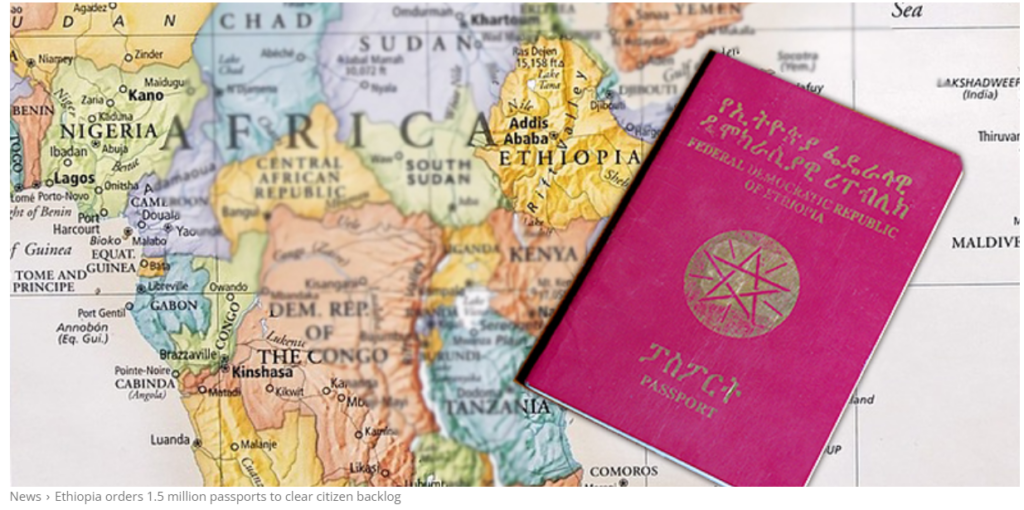
Ethiopia orders 1.5 million passports to clear citizen backlog
New Director vows to clear 300,000+ passport application backlog within a year The Ethiopian Immigration Service (EIS) has placed the country’s largest passport order in years – a whopping 1.5 million new documents from manufacturers in Paris. Around 190,000 passports have already arrived in Ethiopia over the past few weeks. The massive procurement marks a turning point for the long-troubled agency. For the past six months, the office had come to a standstill, grinding applications to a halt. A massive backlog of over 300,000 requests had piled up as a result. However, help may finally be on the way. Newly-appointed director general Selamawit Dawit, who replaced scandal-plagued former officials just one month ago, vows to clear the whole backlog within the next fiscal year. “We will work tirelessly to get passports to the 300,000 waiting applicants, as well as any new requests that come in, by this time next year,” she said.
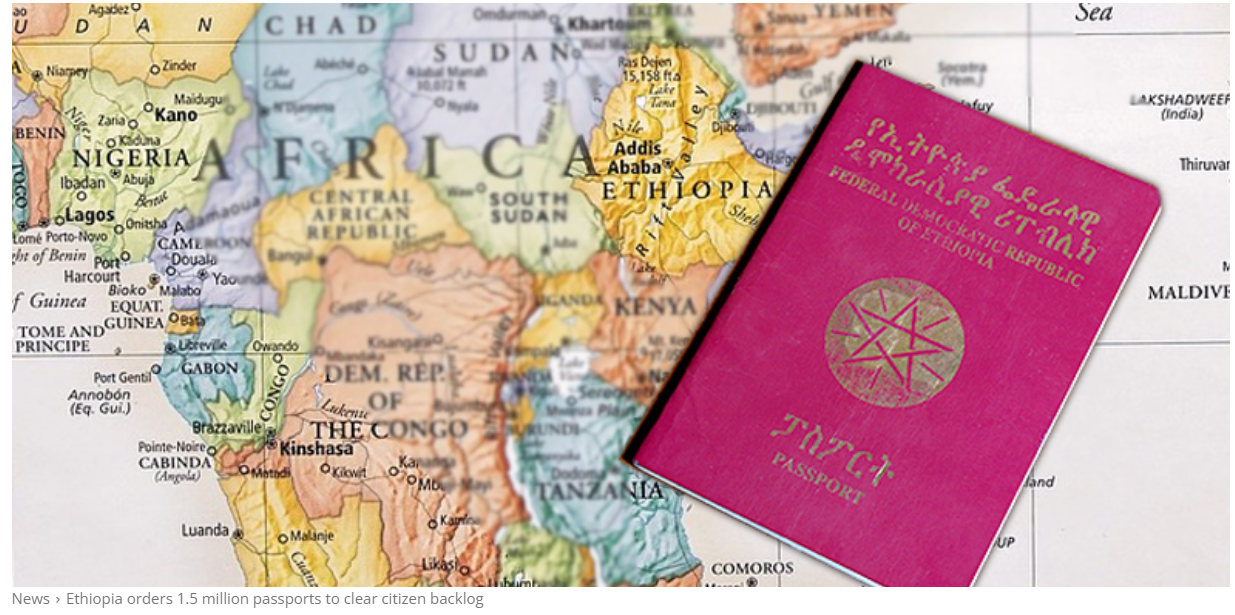
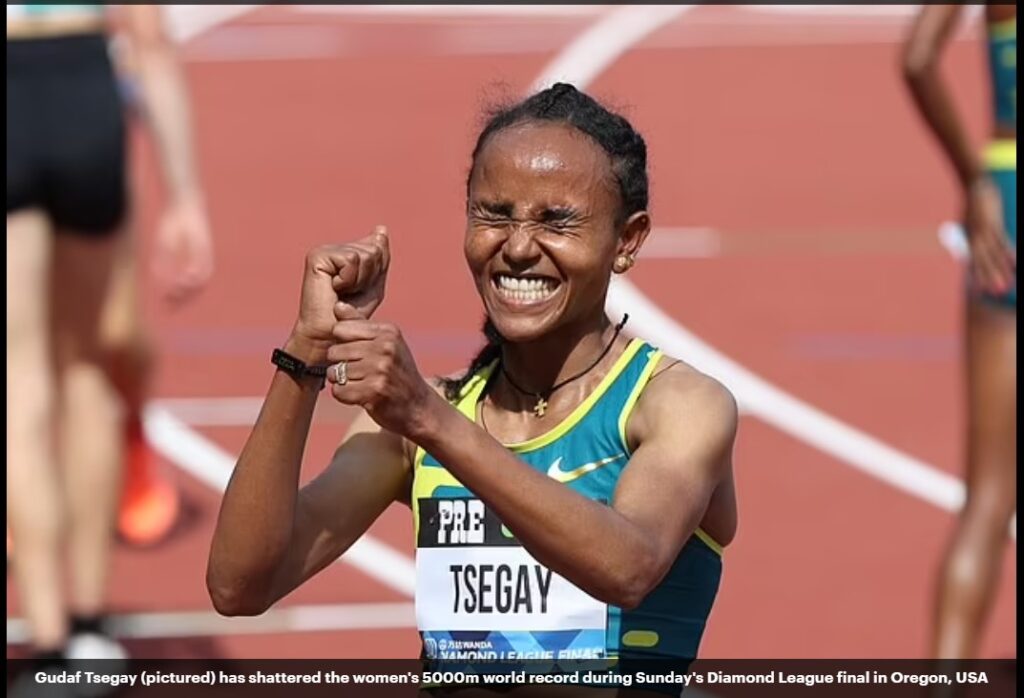
5,000m in 14 minutes! Ethiopia’s Gudaf Tsegay smashes the 5,000m world record
Gudaf Tsegay shattered the women's 5,000m world record during Sunday's Diamond League final in Oregon, USA.
The 26-year-old won the race recording a time of 14 minutes 00.21 seconds, five seconds faster than the previous record of 14 minutes 05.20 seconds, set by Kenyan star Faith Kipyegon in Paris earlier this summer.
Kipyegon's compatriot, Beatrice Chebet, finished second in the race, with a time of 14 minutes 05.92 seconds - just shy of the previous world record.
But it was the reigning 10,000m champion Tsegay who would be victorious, setting a sharp pace throughout, notably meeting the world record pace with three laps to go.
She would subsequently pull away from her immediate chaser, Chebet, with Tsegay going on to beat her previous personal best in the race by 12 seconds.
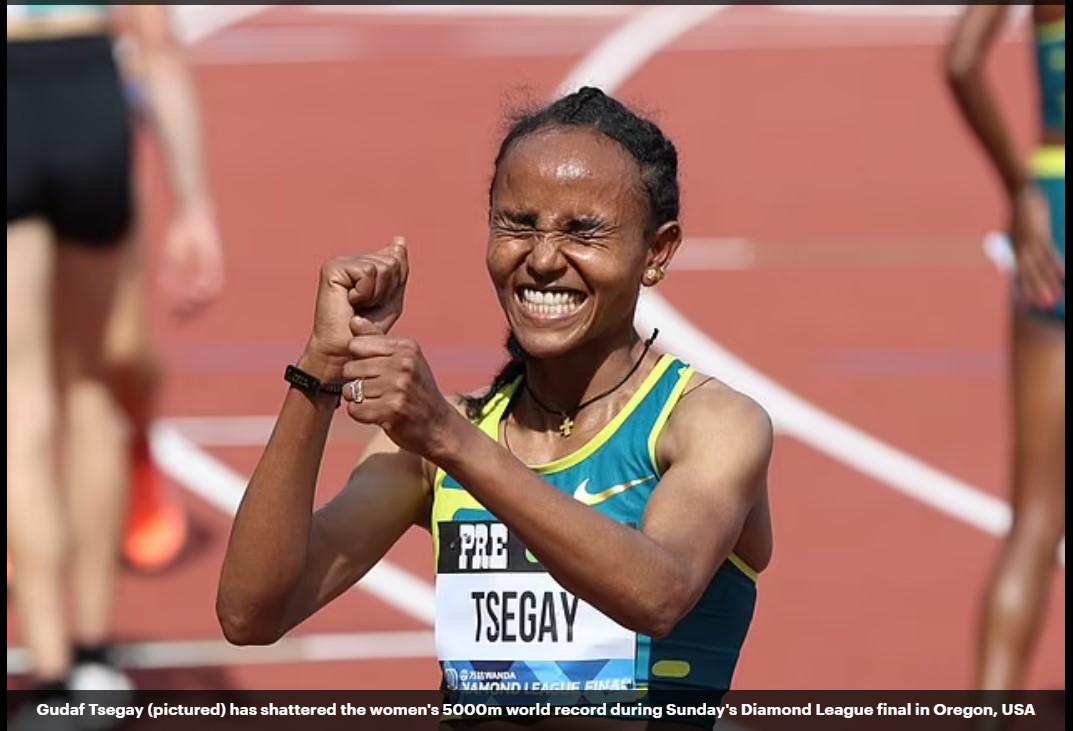

Gilat Awarded Contract for Satellite Network Modernization at Ethio Telecom
PETAH TIKVA, Israel, Sept. 13, 2023 (GLOBE NEWSWIRE) -- Gilat Satellite Networks Ltd. (GILT), a worldwide leader in satellite networking technology, solutions, and services, announced today that the company received a contract for satellite network modernization at Ethio Telecom of Ethiopia. Gilat’s SkyEdge II-c with hundreds of Capricorn and Gemini VSATs will be used to enable enhanced satellite-based 4G cellular backhaul capabilities and enterprise communications for remote regions of the country. "As part of our modernization process, we carefully evaluated our options," said Mr. Tesfaye Tadesse Woldesemayat, Chief Network Infrastructure Officer at Ethio Telecom. "Gilat’s technology, with its long history of proven satellite-based cellular backhaul experience, proved to be the right choice to enable reliable and efficient mobile connectivity and enterprise communications to enable a bright future for the people of Ethiopia."

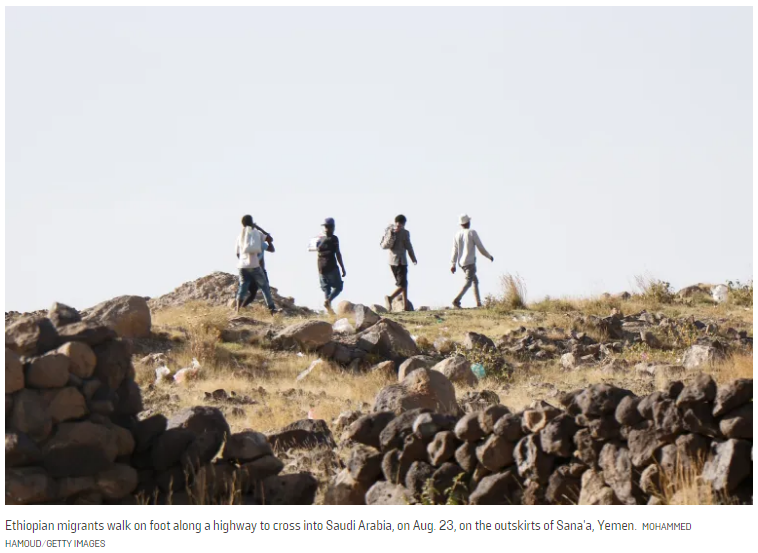
Riyadh’s forces are killing defenseless Ethiopian migrants at its border
The United States and other Western allies have all but rubber-stamped Saudi Arabia’s repression at home and abroad. Repeated U.S. failures to hold Saudi Arabia to account for a litany of human rights violations has emboldened the Saudi government, allowing it to act with unbridled impunity as abuses grow ever more horrifying. In late August, Human Rights Watch reported in gruesome detail how Saudi forces are killing hundreds of migrants, including women and children, on the remote, mountainous border with Yemen. Researchers documented Saudi border guards using explosive weapons against Ethiopian migrants and asylum-seekers attempting to cross into Saudi Arabia. The attacks are widespread and systematic. Details in the evidence collected by Human Rights Watch are utterly devastating: “From 150, only seven people survived that day,” a survivor said. “There were remains of people everywhere, scattered everywhere.” A 17-year-old boy said border guards forced him and other survivors to rape two girls after the guards had executed another migrant who refused to rape another girl.


Egypt angry as Ethiopia fills Nile dam reservoir amid water row
Egypt has voiced anger after Ethiopia announced it had filled the reservoir at a highly controversial hydroelectric dam on the Blue Nile river.
Ethiopia has been in dispute with Egypt and Sudan over the megaproject since its launch in 2011. Egypt relies on the Nile for nearly all its water needs.
Egypt's foreign ministry said Ethiopia was disregarding the interests of the downstream countries.
Ethiopia says the $4.2bn (£3.4bn) dam will not cut their share of Nile water.
"It is with great pleasure that I announce the successful completion of the fourth and final filling of the Renaissance Dam," Ethiopian Prime Minister Abiy Ahmed said on X, formerly Twitter.
He admitted the project had faced "internal and external obstacles" but "we endured all that". The dam began generating electricity in February 2022.
The plan is to generate more than 6,000 MW at the dam, which is about 30km (19 miles) from Ethiopia's border with Sudan.
Egypt and Sudan argue that common rules for the operation of Gerd must be agreed, fearing that energy-hungry Ethiopia may exacerbate their existing water shortages.

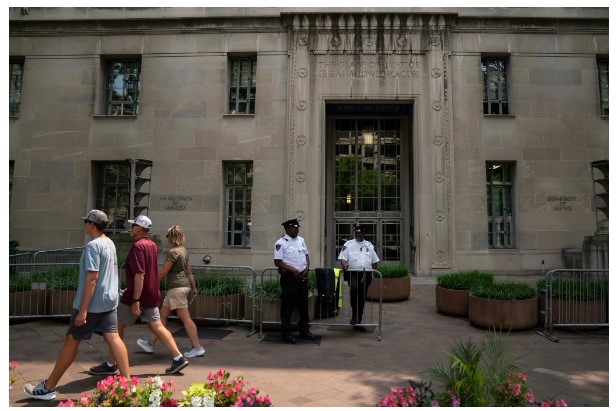
Contractor for U.S. Government Charged With Spying for Ethiopia
The connection of the contractor to Ethiopia, a country that is a significant recipient of aid from the United States, is unusual. A contractor who has worked for the State and Justice Departments has been arrested and charged with spying for Ethiopia, according to several U.S. officials with knowledge of the situation.
The man, Abraham T. Lemma, 50, of Silver Spring, Md., faces two counts under the Espionage Act and was taken into custody last month. Not much was known about the case, which remains sealed in Federal District Court in Washington and could be made public as early as this week.
Efforts to reach Mr. Lemma’s lawyer and family were unsuccessful. The Justice Department declined to comment. Mr. Lemma’s LinkedIn profile describes him as a part-time systems analyst for the State Department who has worked at the department’s Diplomatic Security Service since 2019.


5th Annual Taste of Ethiopia
Taste of Ethiopia is an annual cross-cultural showcase festival that brings our community together to celebrate the unique Ethiopian music and folk dances. Taste of Ethiopia’s mission is to bridge the cross-cultural connections of the young Ethio-American generation with their heritages and introduce the unique Ethiopian culture to the Alexandria communities. Enjoy live musical performances alongside food, drinks, clothing vendors, art activities, games for kids and more.


Ethiopia’s Combined Aircraft Fleet Is Valued At $5.25 Billion
Africa is the world's second-largest continent by land mass and population and a region with immense aviation potential waiting to be unlocked. Its various regions are associated with their own characteristics and players, but overall, Ethiopia is the market leader in aircraft fleet value, standing at $5.25 billion. An analysis of the African air transport market by AviationValues shows the continent's largest markets and the distribution of the passenger aircraft fleet in 2023.

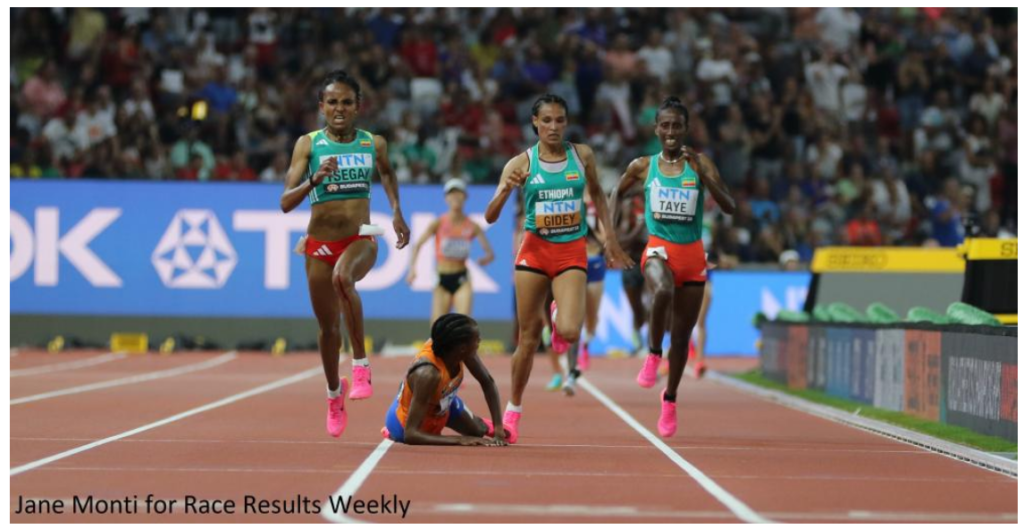
ETHIOPIANS SWEEP WOMEN’S 10,000M AT WORLD ATHLETICS CHAMPIONSHIPS
BUDAPEST (19-Aug) -- In a nail-biting race with a painfully slow start and a rough and tumble finish, the Ethiopian trio of Gudaf Tsegay, Letesenbet Gidey and Ejgayehu Taye took gold, silver and bronze, respectively, in the women's 10,000m on the first day of the 2023 World Athletics Championships at the brand new National Athletics Center here. It was the third podium sweep by Ethiopian women at a world championships in this discipline, a feat achieved previously in Helsinki in 2005 (Tirunesh Dibaba, Birhane Adere and Ejagayou Dibaba), and in Edmonton in 2001 (Derartu Tulu, Birhane Adere and Gete Wami). "We never give up," a delighted Tsegay told reporters after the race. But such an outcome was a long shot given that the powerful Dutchwoman Sifan Hassan was entered in the race and had the audacious goal of winning the 1500m, 5000m and 10,000m at these championships. She won her 1500m preliminary heat earlier today (see below), and had a plan to use her superior speed to win tonight. And she nearly did it, but you'd never know that from her 11th place finish. "It was kind of crazy," said American Alicia Monson, who finished fifth, when asked about the final 800 meters of the race. Until that point, it was a classic championship-style race. The field of 22 women jogged through the first kilometer in 3:37.6 led by American Natosha Rogers, then Finland's Camilla Richardsson took over and ran at the front through 5000m in 16:23.55. Hassan was in 15th place, in no hurry to join the leaders.

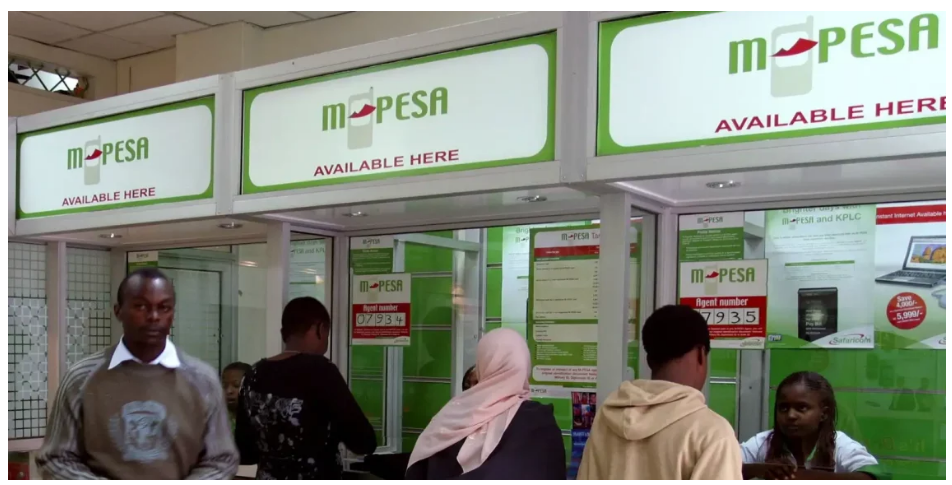
M-Pesa Goes Live in Ethiopia
Safaricom’s mobile money service M-Pesa, has officially launched its operations in Ethiopia, three months after the telco received a license from the National Bank of Ethiopia. Safaricom Ethiopia said M-Pesa underwent a three-month pilot and testing phase where technical readiness was established, crucial partnerships with local banks were forged, and a network of M-Pesa agents was recruited, trained, and onboarded. Ethiopian M-Pesa users can now access an array of financial services such as peer-to-peer money transfers within the country, as well as receiving funds from both domestic and international sources. Additionally, users can conduct transactions such as merchant payments, airtime purchases, and fund transfers between their M-Pesa accounts and traditional bank accounts.

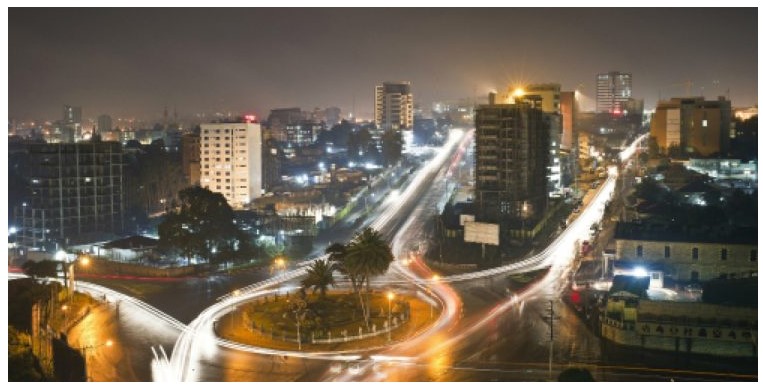
Ethiopia to Award Third Telecoms Licence by February 2024
The Ethiopia Communications Authority (ECA) has announced a plan to award the third telecom license between September 2023 and February 2024. This development is expected to offer stiff competition for Ethio-Telecom as well as Kenya’s giant telco Safaricom which won the second operator license in Ethiopia in October 2022 and has already rolled out its infrastructure. Ethio-Telecom had previously held a monopoly.


Suspect, 65, flew into city from Ethiopia and was arrested when drugs found in his rucksack
Hong Kong customs has arrested a 65-year-old man who arrived from Ethiopia for allegedly trafficking 2kg (4.4lbs) of cocaine worth HK$2.1 million (US$268,623) hidden in three book covers, authorities said on Sunday.
The traveller arrived at the Hong Kong International Airport from Addis Ababa, Ethiopia, on Friday and was arrested as he went through customs.
Customs officers found 2kg of suspected cocaine, with an estimated market value of HK$2.1 million, concealed in the linings of three book covers in his rucksack.
He has been charged with one count of trafficking in a dangerous drug.


‘It will be very emotional’: Yellow Wiggle on the search for her birth mother
The 17-year-old Wiggle talks about her incredible rise to become the new face of the supergroup, and the search for her roots.
One day in 2020, The Wiggles’ choreographer Caterina Mete was scrolling through Instagram when she came across a 13-year-old whose natural exuberance and talent for dance were so obvious that Mete immediately invited her to The Wiggles’ Hot Potato Studios to appear alongside the iconic group as a Wiggly Dancer.
For that 13-year-old, Tsehay Hawkins, the invitation was as surprising as it was surreal. Only a decade before, she had been a Wiggles fan, singing and dancing along to classics like Big Red Car and Dorothy The Dinosaur.
“I remember the first day coming into the studio and seeing all of the Wiggles memorabilia and their history on the walls: ‘Oh my gosh, this is so cool, like a childhood dream’.”
Hawkins had started dancing to Wiggles songs as soon as she could walk, but also started taking lessons at age 2 and her skills quickly took her beyond the Dippy Doo Dinosaur Dance. She trained in ballet, jazz, tap, West African and Latin dance and has since gone on to win multiple Australian and world dance titles.

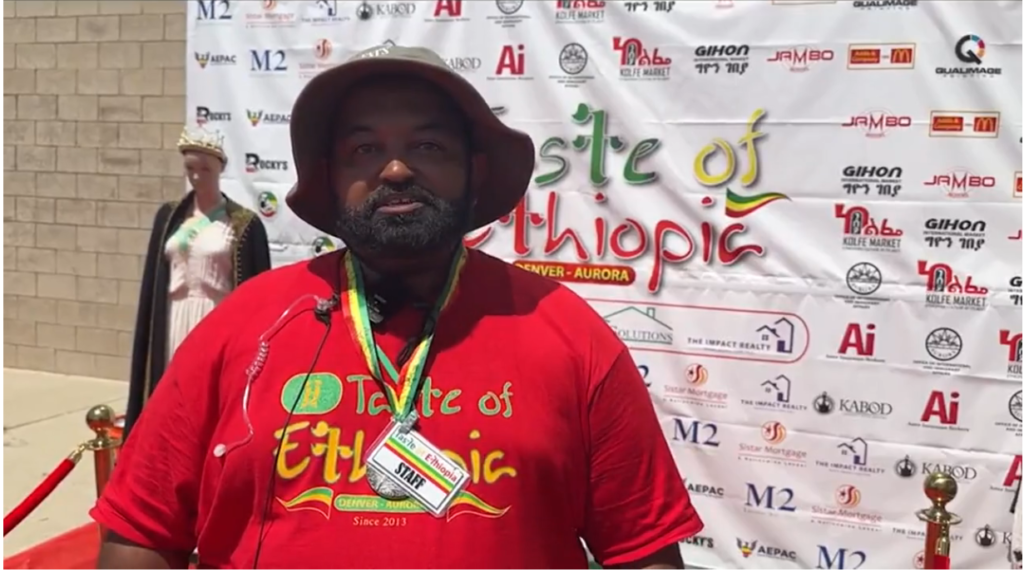
Taste of Ethiopia brings African flavor to Denver area
There was a celebration in northeast Denver Saturday celebrating Ethiopian food and culture. The Taste of Ethiopia festival was held for the ninth time this weekend. It was well attended but that's no surprise to East Colfax Community Collective Co-Director Nebiyu Asfaw, who says the Ethiopian population in the Denver metro area is between 30,000 and 40,000 people. "That makes it the second-largest foreign-born population in Colorado," said Asfaw. He says the migration from Africa to the Rockies started in the 1970s and has only picked up because Colorado has welcomed Ethiopians with open arms. "The people of Denver have completely embraced us. They've embraced our culture, the music, the food. And we're just happy to be part of the Denver festival scene," said Asfaw.
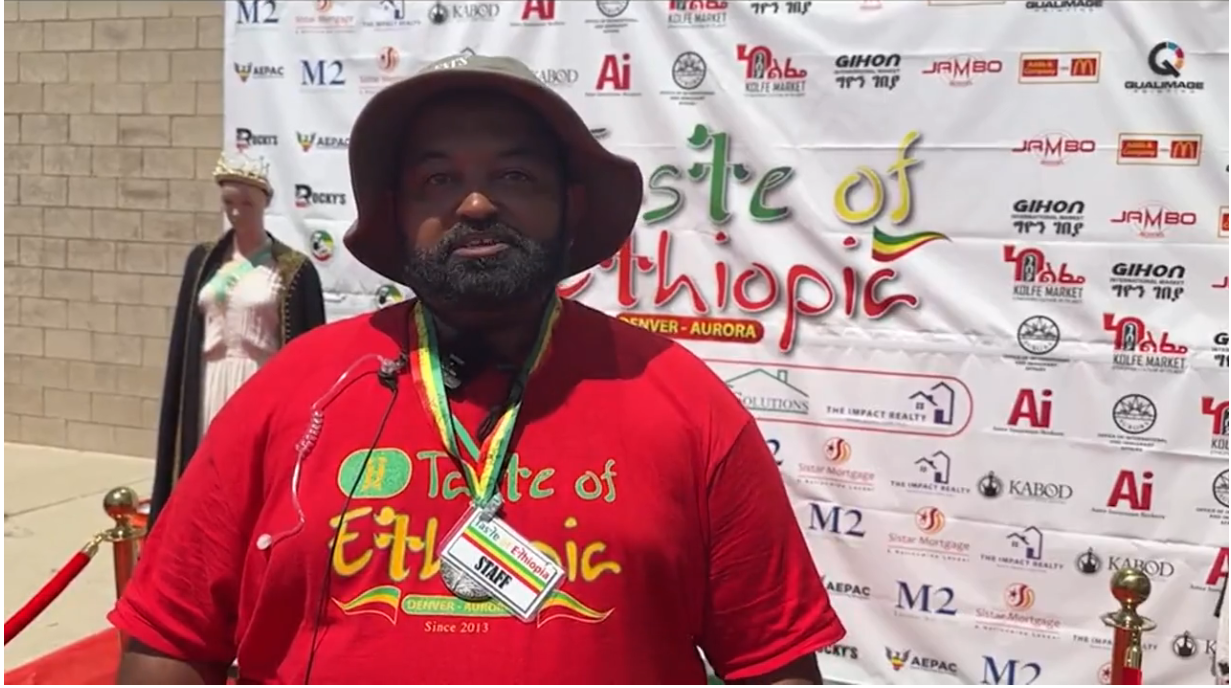
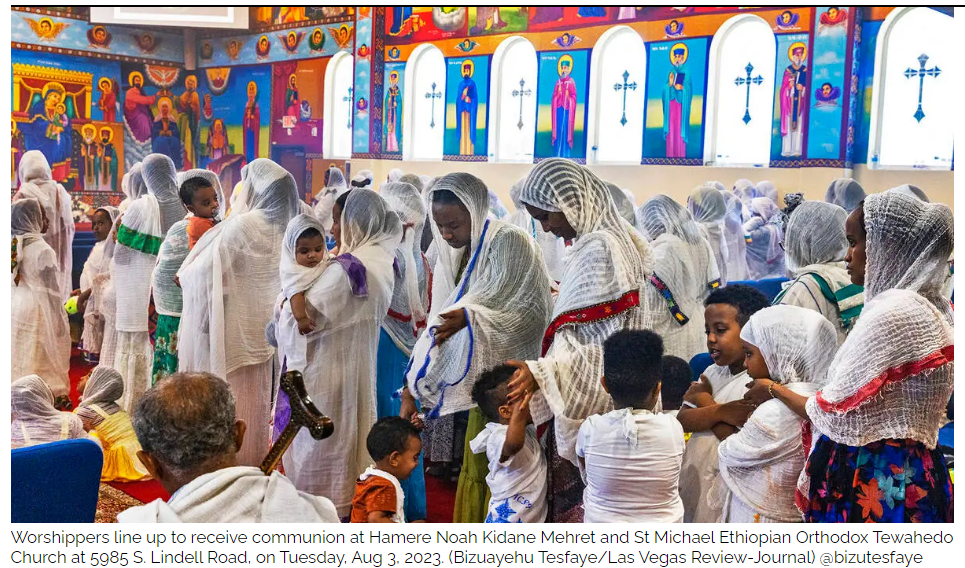
‘Little Ethiopia’ business community ready to feel more at home
The Ethiopia native migrated to America with little more than a dream to further his education and a determination to find “a better quality of life.” “I came here to the United States — in Sept. 18, 1970 — with $75 in my pocket, but with $75 million (worth) of hope and confidence knowing that I’m going to make it here,” Girma Zaid said in a recent interview from his Las Vegas office, which is decorated with artifacts representing his East Africa homeland. The U.S. offers a choice between failure and success, he said, and he chose the latter.

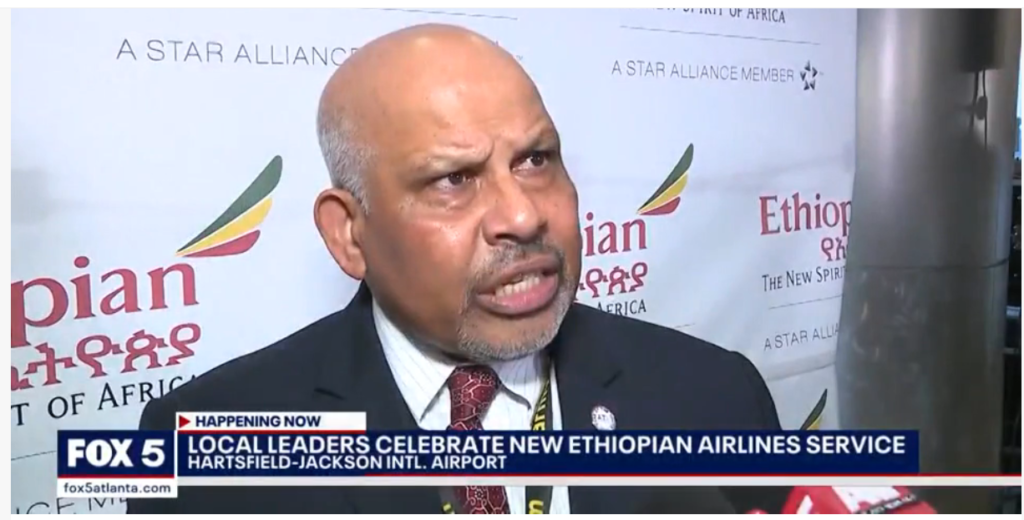
Ethiopian Airlines offering direct flights out of ATL
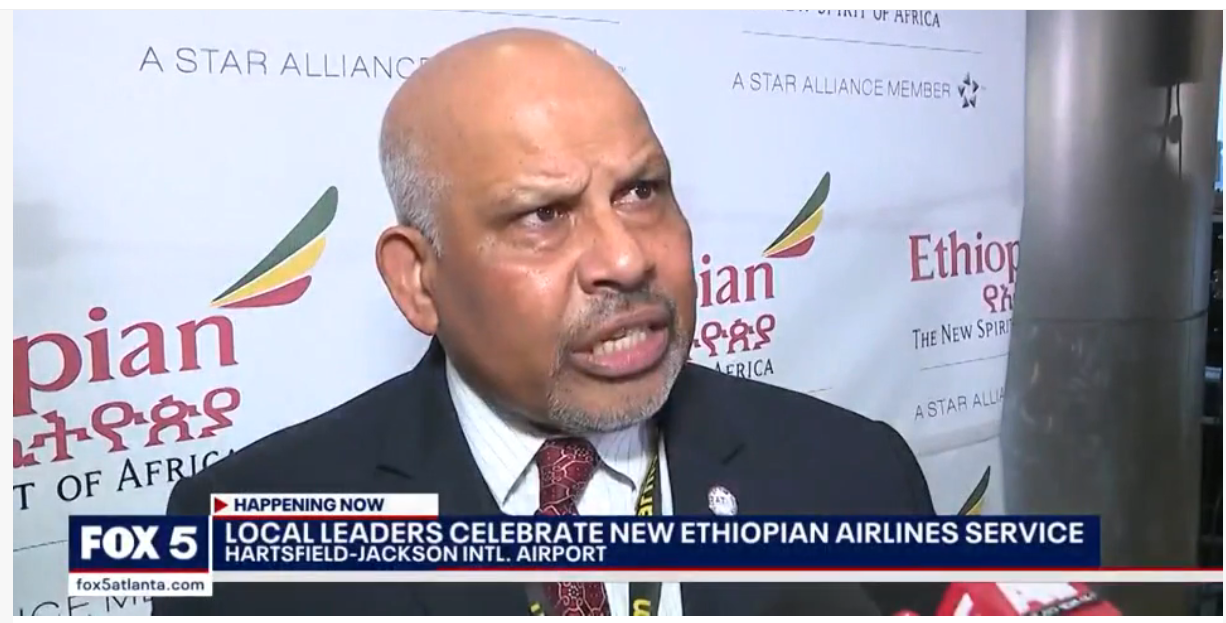

Former Eddie Velado-Tsegaye Accepts Ethiopia Call-Up
Former FC Edmonton forward Marcus Velado-Tsegaye has accepted the call from the Ethiopian national team ahead of their US tour next month. Born in Edmonton to a Salvadoran Mother and Ethiopian Father, he’s had quite a journey en route to what may be his first senior appearance: having initially held out for a Canada U-20 call up, he opted to test the waters the El Salvador U-20 team two years ago, but now looks set to take his first senior steps with Ethiopia instead. The Ethiopian national team will face Guyana on August 2 before facing semi-pro UPSL side Atlanta Rovers three days later.


When former US president Donald Trump told journalist Bob Woodward about Grand Ethiopian Renaissance Dam Deal
An excerpt from ‘Trump Tapes: Bob Woodward’s Twenty Interviews with President Donald Trump’, by Bob Woodward.
BW: So what else would you look at, President Trump? DT: Well, let me tell you a quick one. So for five years, Egypt – the Nile, right? The great Nile. Egypt has a large army. And you know Egypt, Sudan, and Ethiopia. Ethiopia built one of the largest dams in the world. I think the largest dam in Africa, but one of the largest. A massive dam. Hundreds of millions of dollars. And just massive. When I say hundreds of millions, $4 billion. It’s extraordinarily big. And they’ve been building it for years. And they’ve been negotiating with Egypt. Sudan is involved, too. Sudan has no money, but they’re sort of right in the middle. Very warlike. COMMENTARY: Trump is talking about the Grand Ethiopian Renaissance Dam, the biggest in Africa. Egypt and Sudan had been in fraught negotiations with Ethiopia for years about how the dam would affect water supply.
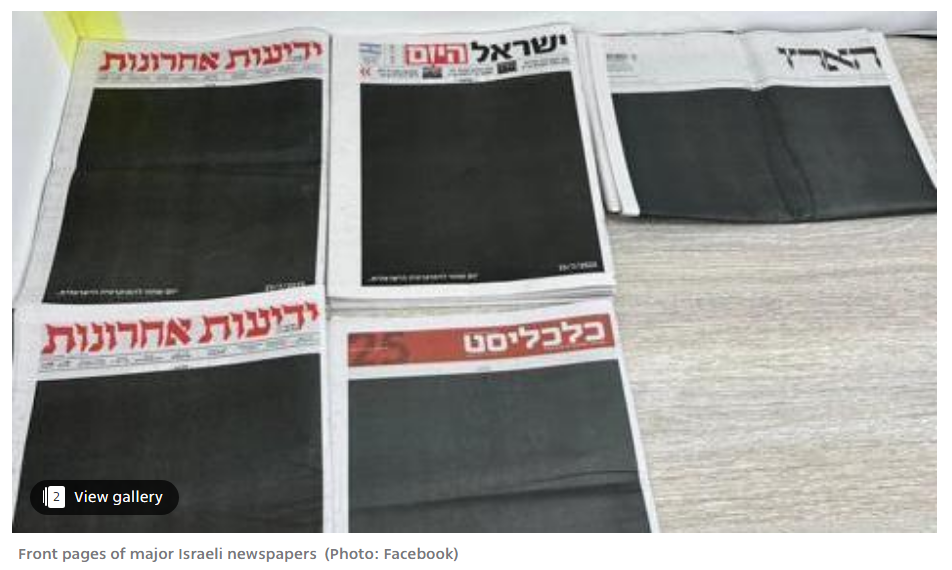
Ethiopian Jews protest all-black Israeli newspaper covers after Knesset vote
Ethiopian activist says Israeli society must stop using the word 'black' as a derogatory term; 'I assume we would never see headlines with the words it's a black day in the US' says lawmaker Pnina Tamano-Shata.
A day after the Knesset passed legislation canceling the Supreme Court's ability to invoke the reasonableness clause, the front pages of major Israeli newspapers were covered in black by an ad placed by protesting high-tech workers, which read in small white print at the bottom: "A Black Day for Israeli Democracy."

Man convicted of lying about his role in “Red Terror” to get citizenship
A Georgia man was convicted Wednesday in a federal court for obtaining American citizenship by lying about his involvement in a brutal crackdown on teenage political dissenters in Ethiopia, the Department of Justice (DOJ) said Thursday. Mezemr Abebe Belayneh, 67, of Snellville, was convicted by the federal jury in the Northern District of Georgia of “one count of procuring citizenship contrary to law and one count of procuring citizenship to which he was not entitled,” according to a statement by the DOJ. Belayneh had “served as a civilian interrogator at a makeshift prison known as Menafesha in the city of Dilla, Ethiopia” during the country’s communist “Red Terror” in the 1970s, the statement noted. Belayneh “detained teenage victims in a crowded prison for weeks or months, interrogated them about their political beliefs, […] directed and participated in severe beatings in which they were whipped or hit with sticks [and] forced prisoners to physically fight one another for the prison guards’ amusement,” per the statement. Belayneh then “concealed that conduct when he obtained a visa to enter the United States in 2001 and when he naturalized to become a U.S. citizen in 2008,” the statement reported.

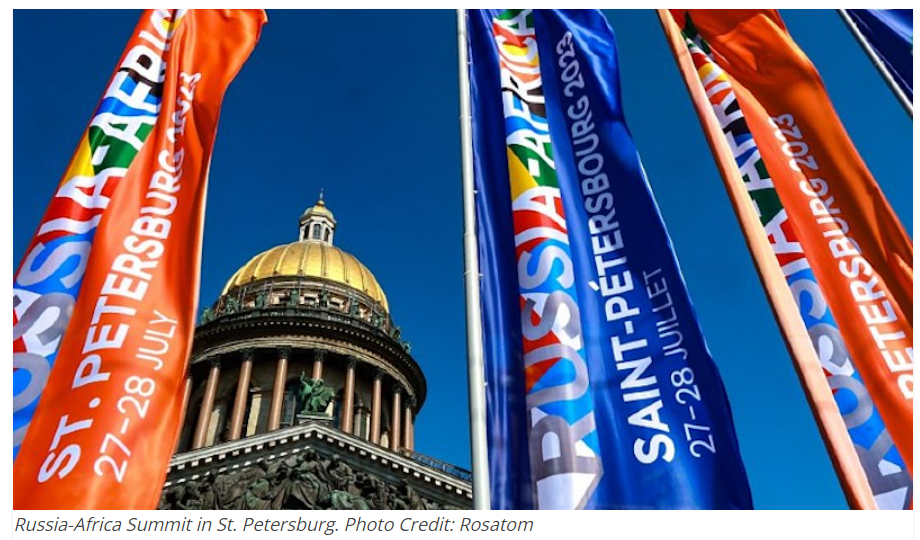
Zimbabwe And Ethiopia Sign Nuclear Energy Cooperation Agreements With Russia
Two more countries – Zimbabwe and Ethiopia – have signed agreements with Russia to cooperate on the peaceful use of nuclear technology on the sidelines of the Russia-Africa Economic and Humanitarian Forum, which has been taking place in St Petersburg. The intergovernmental agreement between Russia and Zimbabwe – which follows a memorandum of understanding concluded in September 2021 – was signed by Rosatom Director General Alexei Likhachev and Zimbabwe’s Energy Minister Soda Zhemu. Rosatom said: “It establishes a legal framework for cooperation between Russia and Zimbabwe in the peaceful use of atomic energy in a wide range of areas, such as assistance in the creation and improvement of Zimbabwe’s nuclear infrastructure in accordance with international guidelines; regulation in the field of nuclear and radiation safety, production of radioisotopes and their use in industry, medicine and agriculture; cooperation in areas of application of radiation technologies and nuclear medicine, education, training and retraining of specialists for the nuclear industry.”


USWNT’s Naomi Girma embraces Ethiopian and American roots on journey to Women’s World Cup
Naomi Girma isn’t just making her Women’s World Cup debut for the United States this summer – she’s inspiring first-generation Americans across the country. The daughter of Ethiopian immigrants, Girma has developed into one of the world’s best women’s soccer players. The 23-year-old California native was the No. 1 overall pick in the 2022 NWSL Draft, joining the San Diego Wave. That was after three seasons at Stanford, where she won the Women’s College Cup in 2019 and graduated with a symbolic systems degree in 2022. In her debut professional season, Girma was named NWSL Rookie of the Year and Defender of the Year. Last month, she signed a new contract extension to remain in San Diego through 2026. While all the accolades and accomplishments are impressive, there’s even more to Girma’s story that most fans don’t know.

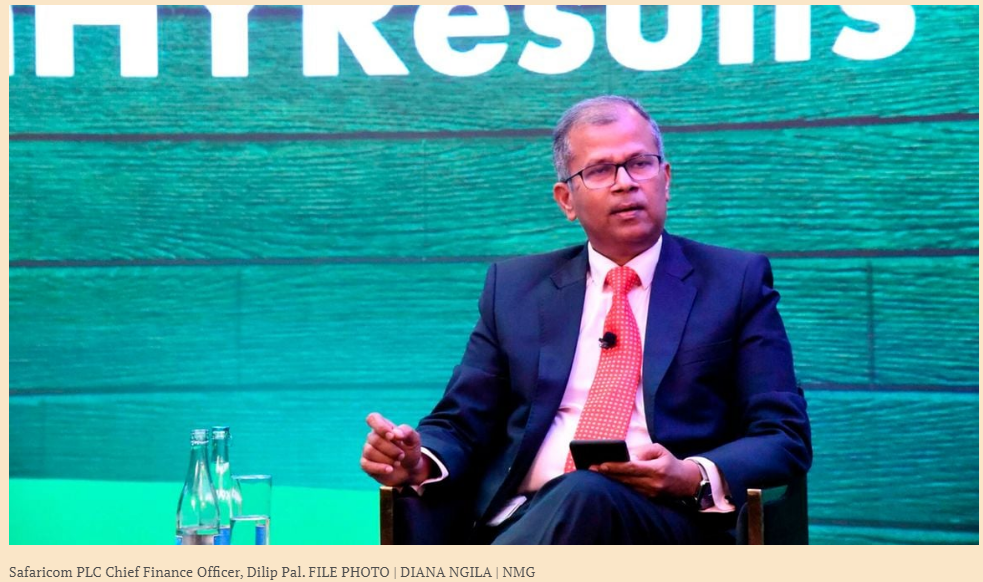
Safaricom eyes two million M-Pesa clients in Ethiopia by March
Safaricom is targeting to sign up at least two million customers on its M-Pesa mobile money service in the Ethiopian market by the end of the current financial year that is set to close in March 2024. The telco said it is also on course to meet its earlier target of onboarding 10 million subscribers by the same date. Safaricom Chief Finance Officer Dilip Pal in a status update webinar, said the company sees optimal competition with rival Ethio Telecom (Ethiotel) when the telco business is combined with mobile money services. Safaricom has lined up plans to launch M-Pesa in the populous country before the close of the quarter ending September this year to take on Ethiotel’s Telebirr service, which was unveiled in May last year. Mr Pal said it will take a shorter time for M-Pesa to gain traction in Ethiopia than it did in Kenya, where it was launched in 2007, due to the huge demand.

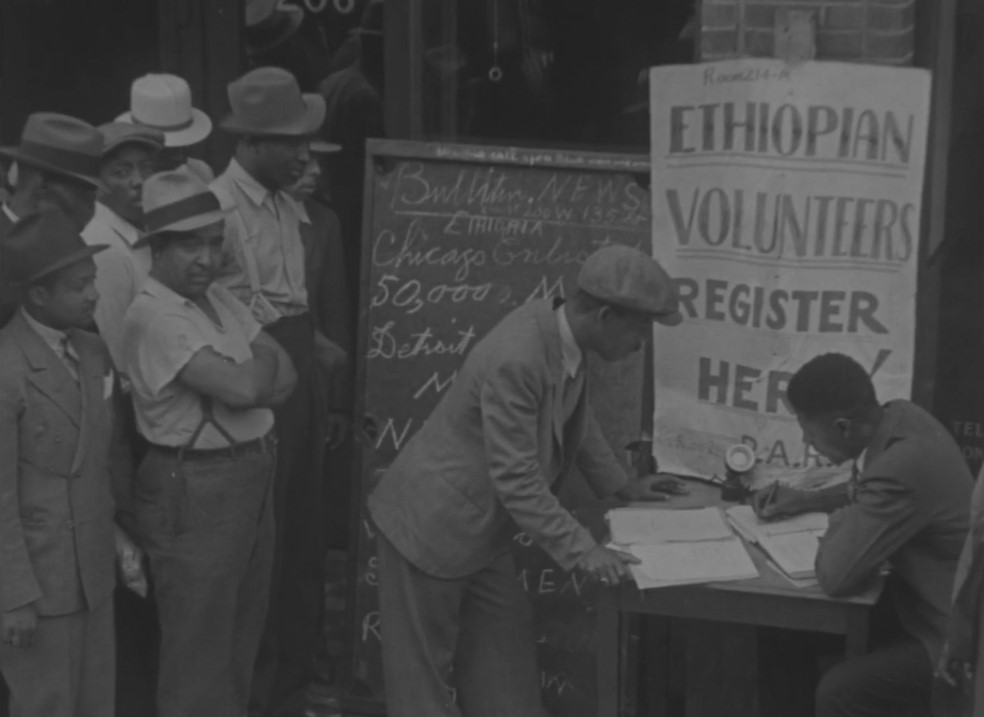
Newsreel 1935: Americans take sides on Italy’s invasion of Ethiopia
In two newsreel clips from 1935, African-American men in Harlem volunteer for service in Ethiopia and three men, Italian-American Frank Magrno, George Haldman of Harlem, and William Reynolds, express their views on Italy's invasion of Ethiopia and the relation of the conflict to the U.S. (abrupt ending in original).


Top runners from Kenya, Ethiopia to highlight 41st Subaru Buffalo 4-Mile Chase


Historic Ethiopian cabaret club saved from demolition
The last of 17 historic venues known as Azmari Bets, the Ethiopian cabaret club Fendika has been saved from demolition in Addis Ababa.
Situated in the Kazanchis district of Ethiopia's capital, the Azmari Bet, or House of Azmari in Amharic, originally hosted performances by Ethiopia's Azmari musicians. The Azmari, itinerant poet-musicians from rural Ethiopia, improvise to the sound of the masinqo, a single-string fiddle whose leather body resonates with horsehair stretched over a wooden neck and rubbed by a bow. While they have they adapted their art for today's modern urban world, the Azmari continue to play with words, using humour to make fun of their audiences, society and even power, in a rare display of freedom of expression in Ethiopia.
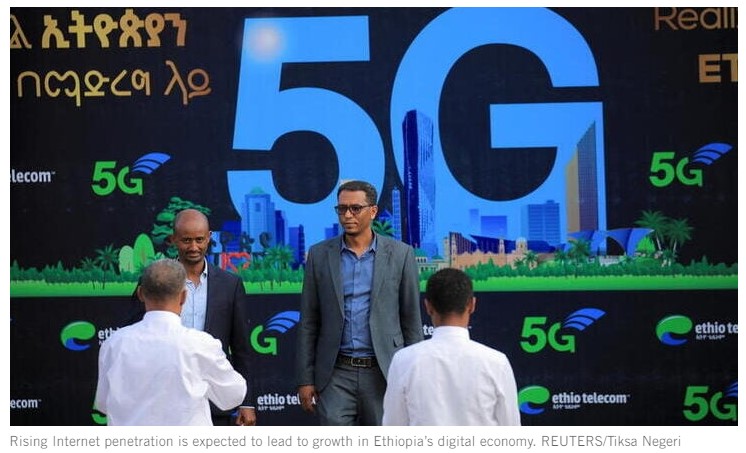
Ethiopia: Chapa fintech to start SME lending, eyes Djibouti, Somalia
Ethiopian fintech Chapa is partnering with local banks to offer loans for small and medium sized enterprises (SMEs), CEO Nael Hailemariam tells The Africa Report. Chapa estimates that there are more than two million micro, small, and medium enterprises in Ethiopia. Most of them have little access to working capital, and the company’s aim is to “democratize finance”, Hailemariam says.


Grocer teaches North Nashville community about Ethiopian coffee tradition
NASHVILLE, Tenn. (WTVF) — Ask most coffee drinkers and they'll say coffee usually tastes best when you have the time enjoy it. On Sunday, the North Nashville community got to see how people in Ethiopia typically enjoy their coffee. A traditional Ethiopian Coffee Ceremony was performed by Martha Lupai, owner of S & E Food Market on Jefferson Street. She demonstrated how making coffee is truly an experience in and of itself.

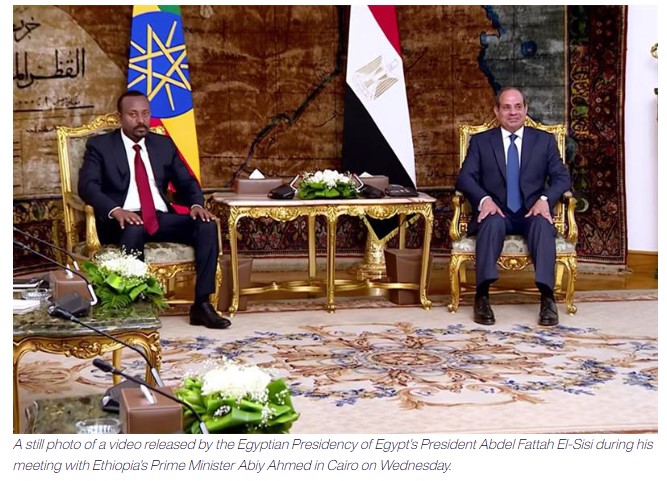
Egypt president, Ethiopia PM agree to start negotiations towards finalizing a deal on GERD filling within 4 months
Egyptian President Abdel-Fattah El-Sisi and Ethiopian Prime Minister Abiy Ahmed agreed on Thursday to start negotiations to finalize an agreement between Egypt, Ethiopia, and Sudan on the filling and the rules of operation of the Grand Ethiopian Renaissance Dam (GERD) soon. According to a joint statement following their meeting in Cairo on Thursday, President El-Sisi and PM Ahmed stressed a joint commitment to exert all efforts to reach a deal on the GERD dispute within four months. Ethiopia has stressed its commitment not to harm Egypt and Sudan's share of water during the filling of the fourth filling of GERD, indicating it would be carried out in a manner that safeguards the water needs of both countries, the statement added.


Inflation cooled significantly in June, bringing price hikes close to normal levels
Consumer prices rose 3% last month compared to a year ago, marking a significant slowdown and raising hopes that a prolonged bout of heightened inflation is nearing its end.
The fresh data Wednesday morning from the Bureau of Labor Statistics arrives days after a government release indicated that hiring slowed last month but remained solid. The economy, the jobs report suggests, continued a gradual downshift in June amid a central bank effort to dial back activity and slash prices while averting a recession.


Ethiopia to make digital ID obligatory for banking operations
The use of Ethiopia’s national digital ID, Fayda, for all transactions with financial institutions will soon be mandatory. According to an announcement of the joint initiative by the National Bank of Ethiopia, the country’s central bank, and the National ID Program, the plan is to get all bank customers enrolled for the digital ID in the course of the 2023/2024 financial year in a move that seeks to accelerate government’s financial inclusion ambition. Bank customers will then use Fayda as their bank ID to carry out KYC checks and complete remote onboarding. Using the Fayda will ease identity verification for bank users in a system which according to the announcement guarantees data privacy and security. The central bank has also assured that the plan to use the Fayda as primary ID for banking operations will significantly improve transparency, stability and security in Ethiopia’s financial sector.

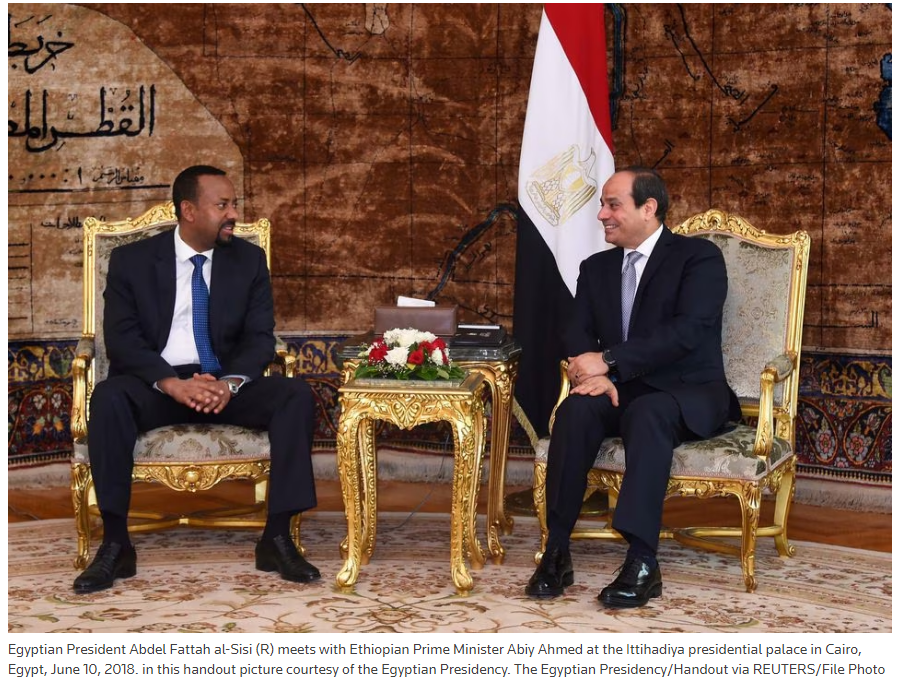
Egypt’s Sisi and Ethiopia’s PM discuss Sudan’s crisis and Ethiopian dam -presidency
CAIRO, July 13 (Reuters) - Egyptian President Abdel Fattah al-Sisi and Ethiopian Prime Minister Abiy Ahmed on Wednesday discussed the Sudanese crisis, bilateral relations and Ethiopia's giant dam on the Blue Nile, the Egyptian presidency said.
Sisi welcomed Ahmed at the presidential palace in Cairo, the presidency added.
Egypt hosts a summit of Sudan's neighbours on Thursday to discuss ways to end a 12-week conflict between rival Sudanese military factions that has triggered a major humanitarian crisis in the region.

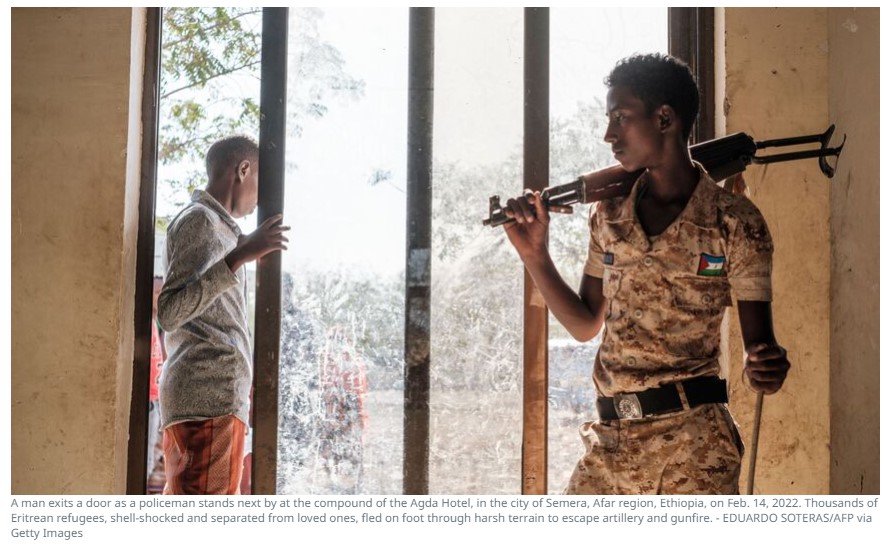
Israeli citizen kidnapped in Ethiopia’s Amhara region
Israel's Foreign Ministry confirmed that an elderly Israeli national has been kidnapped in Ethiopia while visiting the Gondar region.
Israel’s Foreign Ministry confirmed on Tuesday evening that an Israeli citizen was kidnapped while visiting Ethiopia.
‘’Last night we received a report about an Israeli national kidnapped in Ethiopia in the Gondar region," the Foreign Ministry said in a statement. Without identifying his name, the ministry added that the "consular department is in contact with his family members, and also acts vis-a-vis the Interpol. Israel's consul in Ethiopia is in contact with local security authorities in order to bring his release soon and in good health."
Israel’s public broadcaster KAN reported that the person kidnapped is of Ethiopian origin. The 79-year-old Israeli was kidnapped during a trip to Ethiopia a few days ago in the Gondar region. He had sent a voice message to his family members, pleading, "Help me. I'm in the middle of the jungle. It's pouring rain," KAN reported.

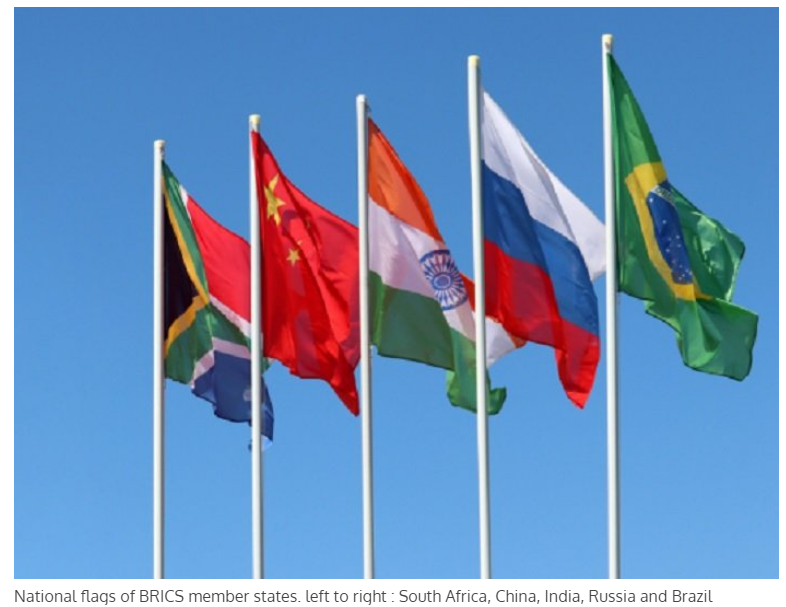
What benefits does Ethiopia get from joining BRICS?
ADDIS ABABA – (BORKENA) – The Ethiopian Ministry of Foreign Affairs said a week ago that it submitted an application for membership of BRICS, an international economic group formed by Brazil, Russia, India, China, and South Africa . What we have not yet been told about is the advantages Ethiopia will get if it registered as a member of that group. What are the objectives of the decision made to become a member? In the other way round what benefits are there this country is aiming to get from BRICS? We have solely been told through the spokesperson of the Ministry that Ethiopia “… will work to be a member of international organisations to safeguard … national interest in view of changing international relations and balance of power…”.


Ethiopia delays filling of flagship dam, vows to heed downstream nations’ concerns
Ethiopia will delay the next round of filling a major new hydroelectric dam on the Nile River, the country's prime minister has declared, reports Anadolu Agency.
The filling of the Grand Ethiopian Renaissance Dam (GERD) will be postponed until September, Abiy Ahmed said Friday during a session at the Ethiopian House of Representatives.
Initially, the fourth filing of the dam had been scheduled for early August.
Abiy emphasized Ethiopia's commitment to addressing the concerns of lower riparian nations, including South Sudan, Sudan, and Egypt, on the dam's filling process.
"This year's filling will be done differently from the previous three rounds by carrying out the filling in such a way as to alleviate the concerns of the neighboring people," he said.
"Instead of completing the filling in early August like in the previous rounds, it will be done at the beginning of September or at the end of August."

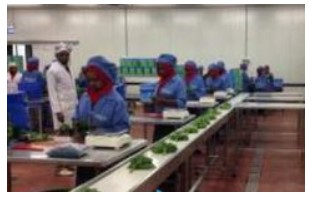
Requirements and steps to invest in Ethiopia
By Woubishet Sisay – The Government of Ethiopian has implemented various initiatives to promote economic growth and attract investment. These include the Homegrown Economic Reform Agenda, which aims to address macroeconomic imbalances and create a more conducive business environment. Additionally, Ethiopia has been focusing on industrialization and diversification of its economy. The government has prioritized sectors such as manufacturing, agriculture, tourism, and renewable energy. These efforts are expected to contribute to sustained economic growth in the coming years. The East African country offers numerous sectors with investment potential. Agriculture is a key sector, accounting for a significant portion of the country’s GDP and employment. Ethiopia’s GDP has grown by 2.4% in 2021 and by 8.7% in 2022, according to the International Monetary Fund (IMF). Opportunities exist in areas such as commercial farming, agro-processing, livestock production, and horticulture.

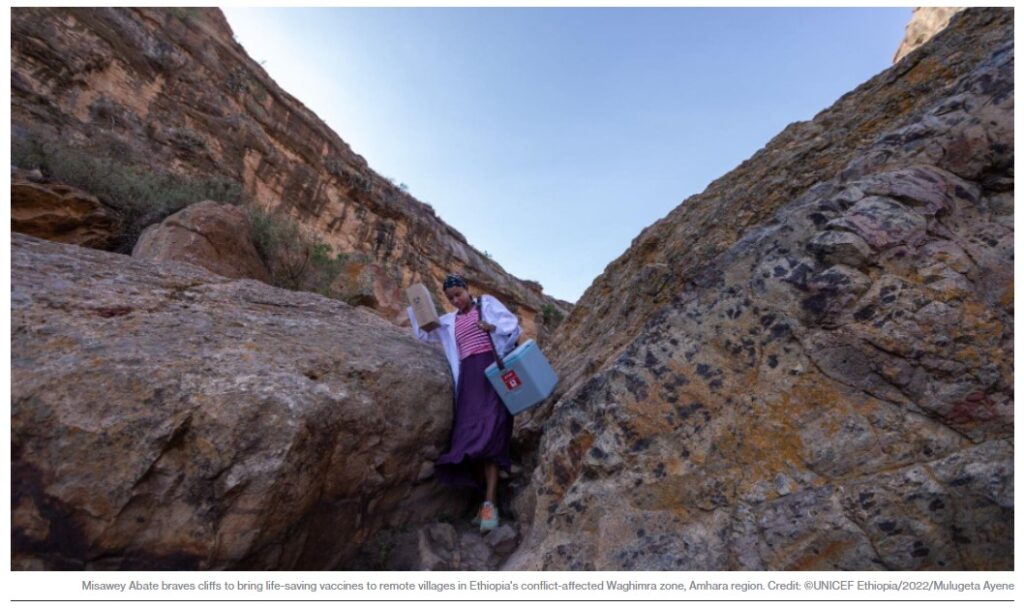
Catching up to the challenge: Lessons learned from Ethiopia’s journey to reach missed children
The pandemic hit routine vaccine coverage hard. In response, Ethiopia developed new guidelines to guide catch-up campaigns, helping to prevent a generation from missing out. What can we learn from their efforts? The COVID-19 pandemic demonstrated how quickly children could fall behind on life-saving vaccinations, highlighting the importance of "catch-up vaccination" – vaccinating individuals who, for various reasons, have missed or not received their eligible doses of vaccines according to the national immunisation schedule. Against a backdrop of ongoing conflict, natural disasters and high numbers of zero-dose children, Ethiopia rose to the challenge by developing national catch-up vaccination guidelines. The development of these guidelines provides invaluable insights for other nations seeking to fortify their immunisation programmes.
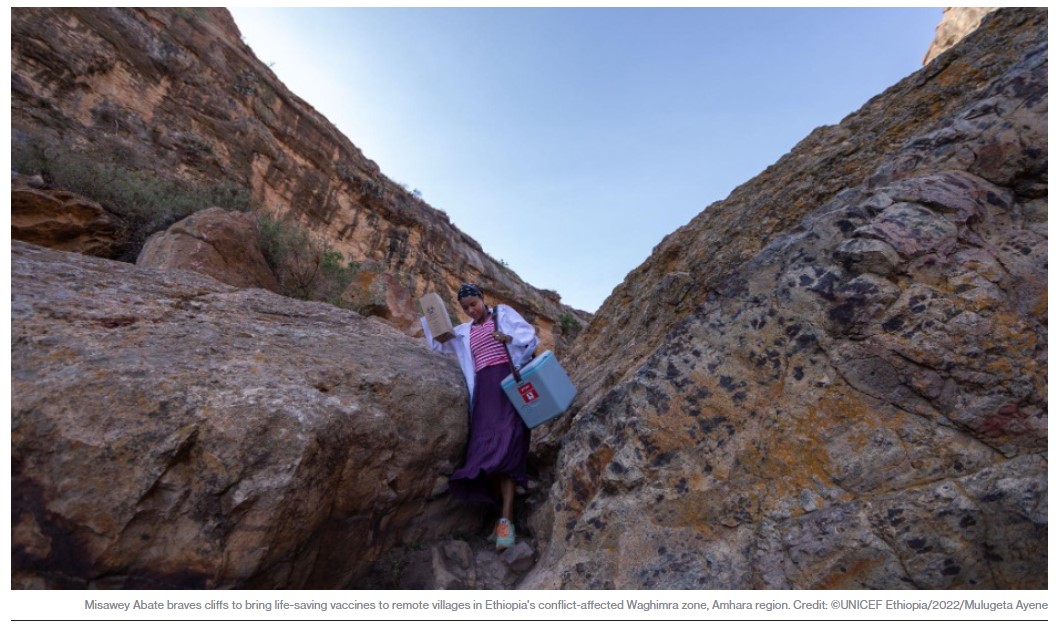

The 4th filling of the GERD will paralyze agriculture in Egypt across one million acres: Professor
A Professor of Water Resources at Cairo University, Abbas Sharaki, warned that storing 25 billion cubic meters in the fourth filling of the Grand Ethiopian Renaissance Dam (GERD) will mean paralyzing agriculture in one million acres in Egypt, impacting the lives of many people there.
The GERD affected the expansion of cultivation in Egypt and especially harmed rice cultivation, Sharaki said, pointing out that one million acres of rice brings a revenue estimated at about six billion dollars.
Sharaki commented on the Ethiopian Prime Minister Abiy Ahmed’s announcement of the imminent launch of the fourth filling of the GERD. “Egypt will not stand idly by until harm reaches its citizens,” Sharaki said, in a telephone interview with the “Yahdoth Fi Masr” program, on MBC Masr.

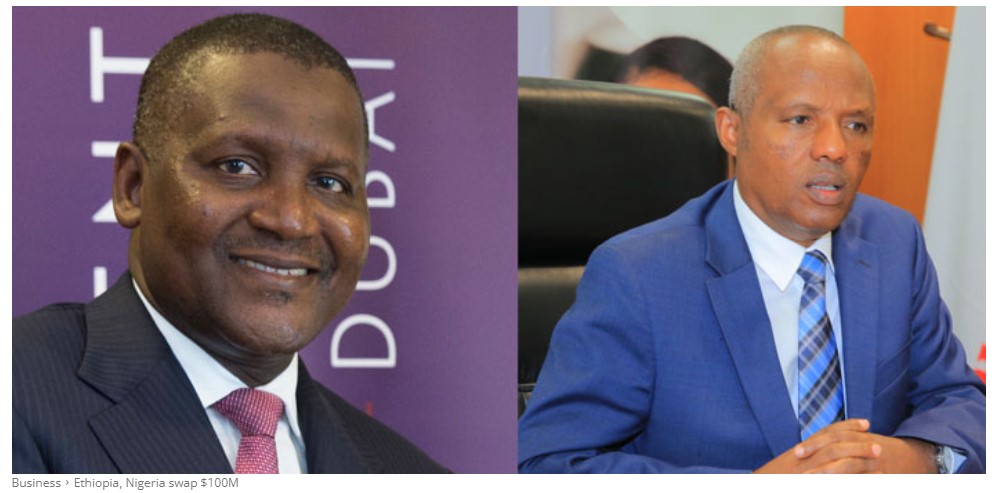
Ethiopia, Nigeria swap $100M
The central banks of Ethiopia and Nigeria have swapped USD 100 million in blocked funds as both countries struggle with severe shortages of hard currency. The currency deal involves swapping revenues of Ethiopian Airlines from Nigeria and earnings of Dangote Cement in Ethiopia, as the two companies struggled to repatriate profits amid forex shortages in both countries. The swap arrangement enables Ethiopia to access funds blocked in Nigerian banks, while Nigeria gains access to money held up in Ethiopia.


St. Cloud man sues USCIS after 7 years of waiting for family
Rabi Mohamed has waited for his family for seven years now, stuck within a process that should have taken months.


Chapa & Telegram team to enhance digital payments in Ethiopia
Chapa, a payment solution provider in Ethiopia, announced its partnership with Telegram to empower merchants using Telegram to seamlessly accept customer payments, for financial inclusion and digital payments in Ethiopia. Chapa’s integration with Telegram’s bot ecosystem allows merchants to accept payments without requiring customers to leave the app. Whether through mobile money, bank transfers, or debit/credit cards, Chapa enables users to make payments instantly, enhancing convenience and accessibility. “We are honoured to represent Ethiopia on the international stage as the exclusive Telegram payment provider in Africa,” said Israel Goytom, CTO and Co-founder of Chapa. “This noteworthy accomplishment speaks to the progress of our emerging fintech sector and reaffirms our commitment to drive financial technology advancements within the region.”

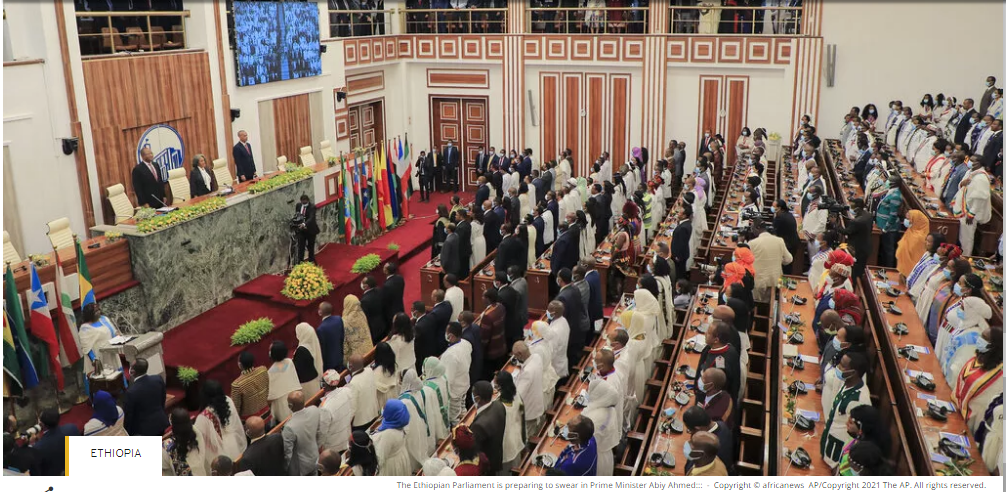
Ethiopia: Upper House votes to form 12th regional state
Ethiopia's upper house of parliament on Wednesday "unanimously" gave the green light to the creation of a 12th regional state, called the "Southern Ethiopian Region", after a recent referendum in the south of the country. "Considering the desire expressed through a referendum by six zones and five special districts previously integrated into the SNNPR (Southern Nations, Nationalities and Peoples' Region), the House of Federation has accepted (...) that they organize themselves in (new) regional state", announces the Upper House in a press release. These six zones and five districts will therefore form the "Southern Ethiopian Region", continues the Chamber, without specifying the terms or deadlines for this future organization. The inhabitants of the areas concerned had been called upon to decide on February 6 by referendum on their regrouping within a new region and had very massively expressed themselves in favor of it.


Man sentenced to life in prison after killing 2 in Virginia, fleeing to Ethiopia
FAIRFAX COUNTY, Va. - A man was sentenced to life in prison after killing two people in Fairfax County over six years ago before fleeing to Ethiopia to evade capture. On December 22, 2016 investigators say Yohannes Nessibu, 29, was with a group who went to buy marijuana from Henok Yohannes, 22, when a dispute of the payment erupted in gunfire. Prosecutors say Nessibu shot Yohannes twice in the back of the head, killing him.

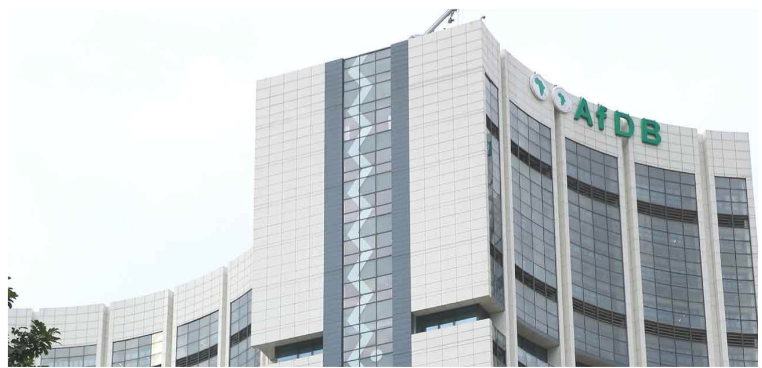
AfDB Approves $28.4 Million Loan for Kenya-Ethiopia Power Transmission Project
The African Development Bank (AfDB) has approved a $28.4 million loan for the construction of an underground power transmission line in the Kenya-Ethiopia electricity highway. The project aims to boost the power supply at the Laikipia Airbase and surrounding areas.
The loan will support the 16.5-kilometer underground cable network, connecting two substations- Nanyuki and Rumuruti. The substation is expected to be completed next year as part of the Ethiopia-Kenya Power Interconnection project, which seeks to increase electricity imports from Ethiopia.
Kenya’s import of electricity from Ethiopia began last year to reduce reliance on expensive thermal power and meet growing demand. Under the 25-year agreement between the two countries, Kenya Power will initially receive a maximum capacity of 200 megawatts, increasing to 400 megawatts thereafter.

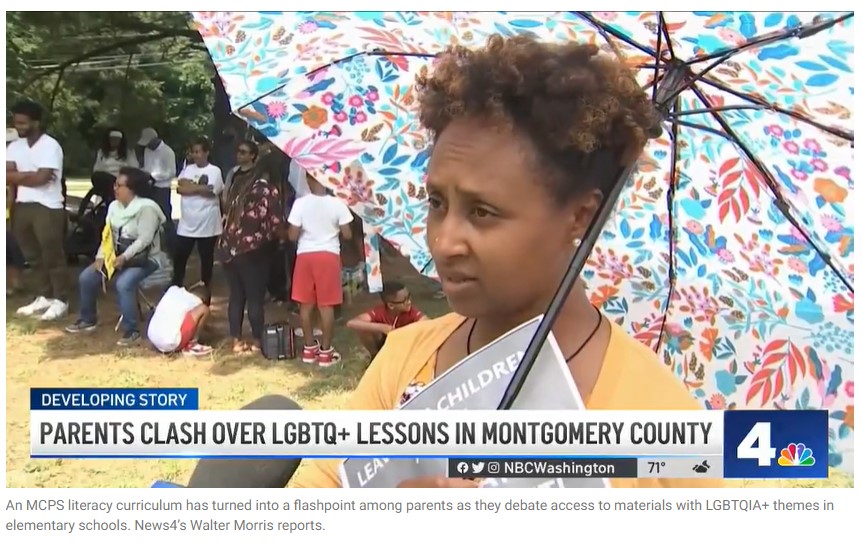
Montgomery County parents protest literacy lessons on gender and LGBTQ+ issues
A Maryland law allows parents to opt their kids out of sex education. Many parents say they should also be able to opt their children out of lessons that involve supplemental texts on LGBTQ+ issues.
Hundreds of parents gathered outside the Montgomery County School Board meeting Tuesday to protest a policy that doesn’t allow students to opt out of lessons on gender and LGBTQ+ issues, which many families argue goes against their religious freedom. Montgomery County Public Schools announced in March all students would be required to participate in the lessons with no option to opt out. “I want to be an advocate for my kids,” said Belinda Aggiyem, a mother of three MCPS students. “What they are imposing on them will not help them.” “It should be the parents’ right,” said Mark Haile, the father of three MCPS students. “Parents should discuss with their kids to decide what they learn.”

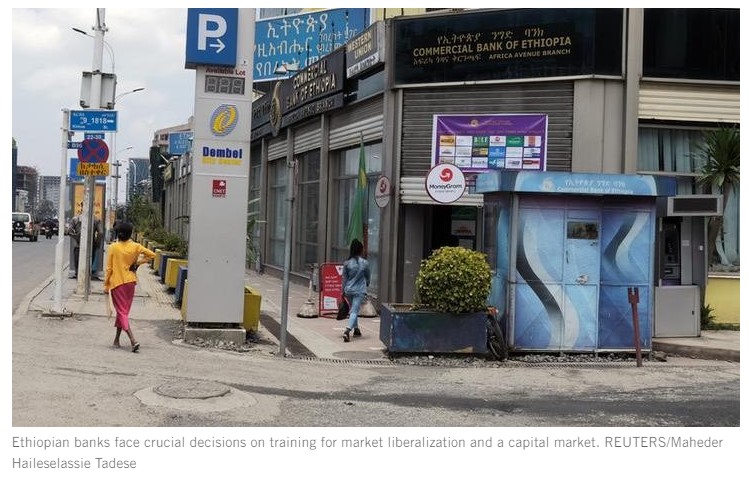
Ethiopia’s SMEs can drive stock market beyond Kenya-style stagnation
Ethiopia’s abundance of small and medium-sized businesses mean the country’s stock market planned for 2024 won’t be a backwater where just a few large stocks are traded, a foreign adviser says. The country is likely to be able to open its first stock market since 1974 as planned in the first half of next year, says Sandy Wade, Africa Advisory’s associate director for the Horn of Africa. “The only thing that would cause a significant delay would be a government decision,” he says.

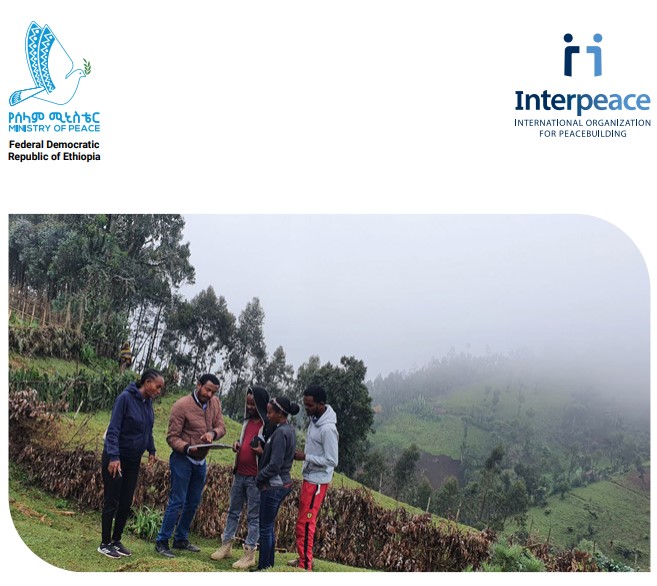
The Ethiopian Peace Index (June 2023)
Addis Ababa, 27 June 2023 – The Ministry of Peace of the Federal Democratic Republic of Ethiopia and Interpeace, in collaboration with the Centre for Sustainable Peace and Democratic Development (SeeD) and ABCON, today launched the pilot Ethiopian Peace Index (EPI) in Sidama, the Southern Nations, Nationalities, and Peoples Region (SNNPR), and the South West Ethiopian Peoples Region (SWEPR). The EPI is a research initiative that offers a unique tool to understand the state of peace and resilience in Ethiopia, with further analysis on the complexities of conflict and peacebuilding. It also operationalized a new approach to bottom-up and participatory measurement that would provide evidence-based strategies for local and international actors dedicated to fostering peace and reconciliation in the country.


Deaths From Conflicts Doubled In 2022, Due To Wars In Ukraine And Ethiopia
Deaths from conflicts around the world have almost doubled in the past year to reach the highest levels this century, according to a new report released today. While Russia’s invasion of Ukraine in February 2022 captured the attention of the western media, other conflicts have received far less coverage, including a brutal two-year war in the Tigray region of northern Ethiopia that ended with a peace deal in November 2022, and ongoing instability in Mali and Myanmar. According to the latest edition of the Global Peace Index, published today by the Institute for Economics & Peace (IEP), the number of deaths from conflicts around the world almost doubled last year – in large part because of those two wars.

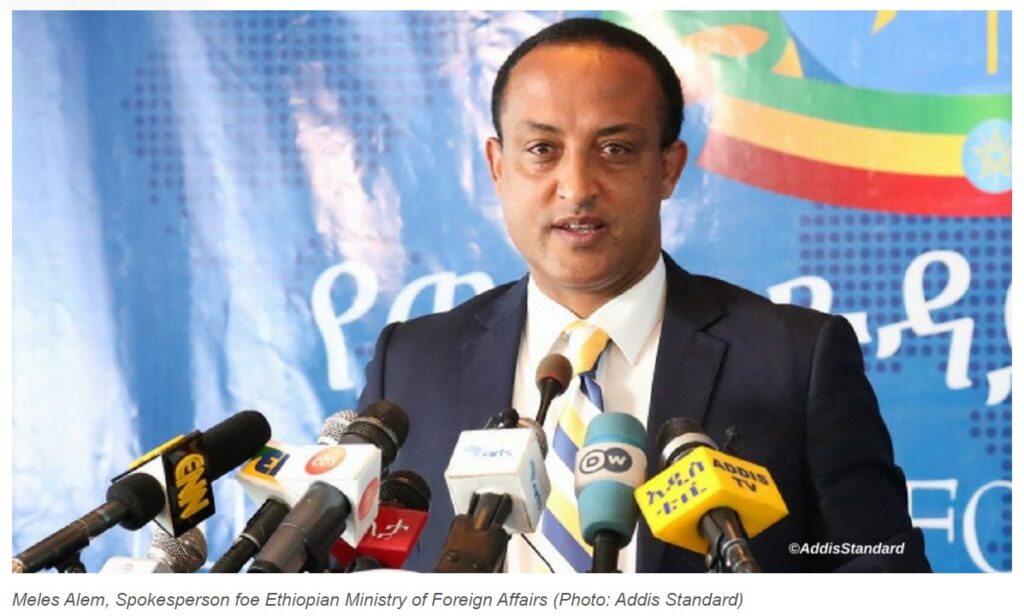
Ethiopia submits application to join BRICS
Addis Abeba – The Ministry of Foreign Affairs has announced that Ethiopia has officially submitted an application to join the BRICS bloc of developing nations. In a press conference held today, Ministry spokesman Meles Alem acknowledged Ethiopia’s desire to join BRICS, emphasizing the importance of aligning with influential blocs such as BRICS, a consortium, comprising Brazil, Russia, India, China, and South Africa.
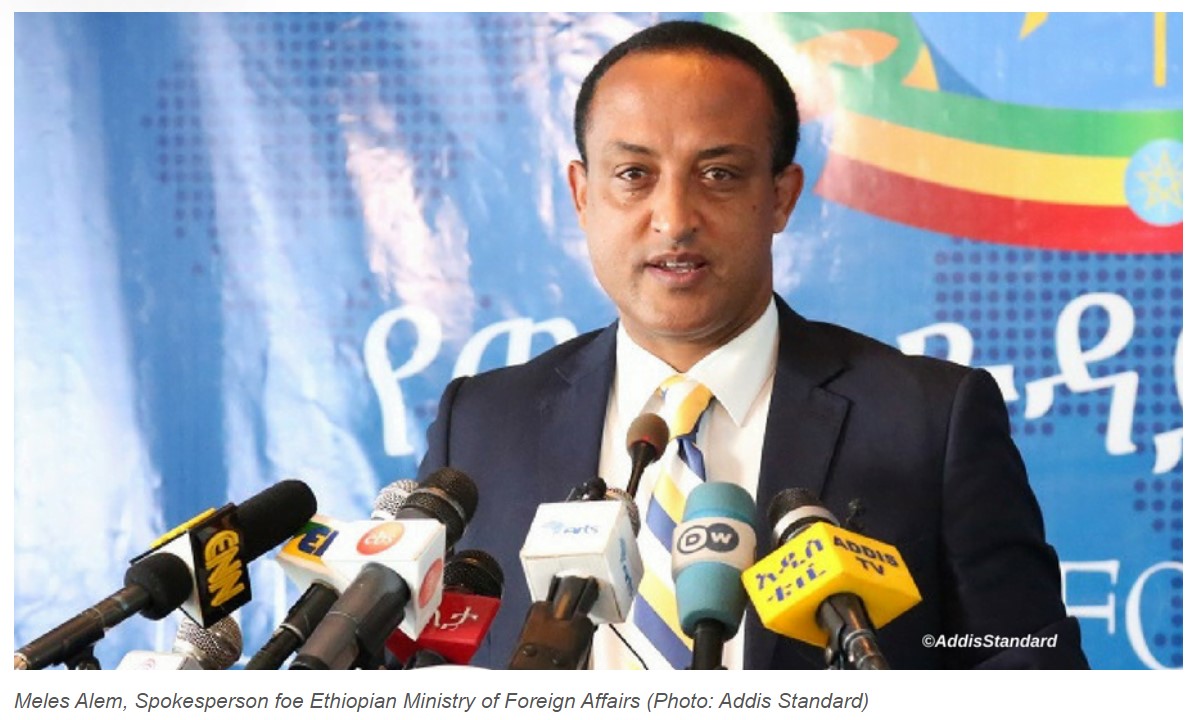
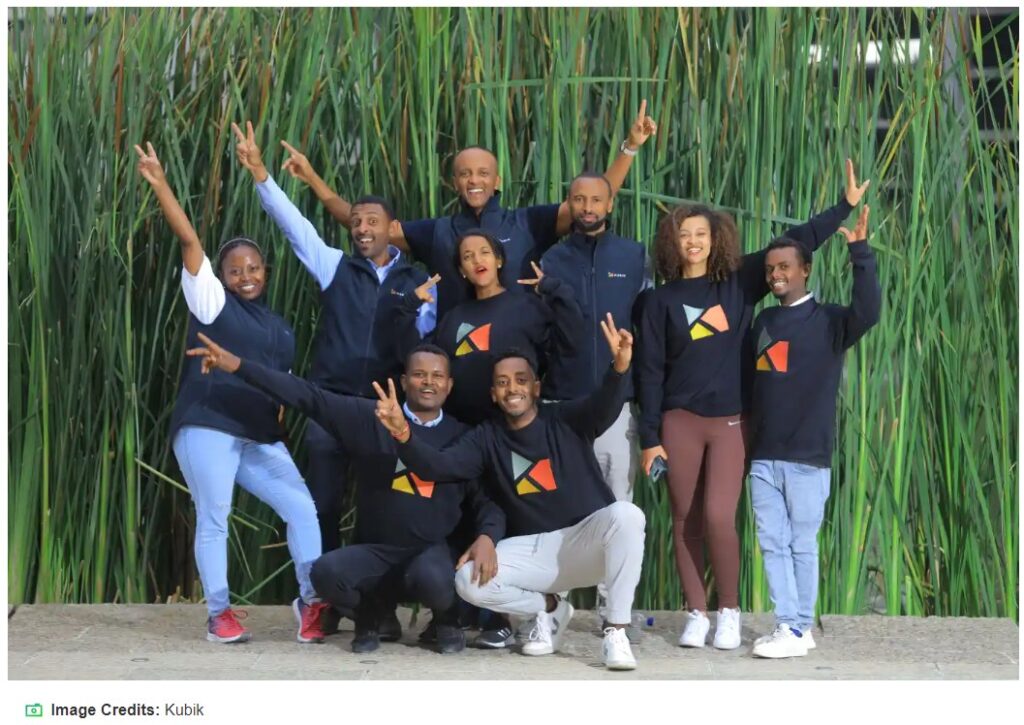
Kubik closes $3.34M seed to scale production in Ethiopia
Plastic upcycling startup Kubik closes $3.34M
Plastic upcycling startup Kubik closes $3.34M seed to scale production in Ethiopia. The amount of plastic waste produced globally is on track to triple to over 1,000 million tons by 2060. The Organisation for Economic Co-operation and Development (OECD) report predicts that developed countries will continue to produce the most plastic waste per person, although emerging regions like Africa and Asia are expected to experience the fastest growth owing to rapid population growth and urbanization. Plastic pollution is already a menace said to be altering environments and endangering lives, but there is a glimmer of hope as the share of recycled plastic is expected to nearly double over the same period to 17% as plastic going through waste management systems increases. In Africa, Kubik, an upcycling startup with operations in Kenya and Ethiopia, is among the companies that are leading plastic waste reuse and sustainability efforts in the continent’s nascent recycling sector, which currently salvages only 4% of the waste produced.
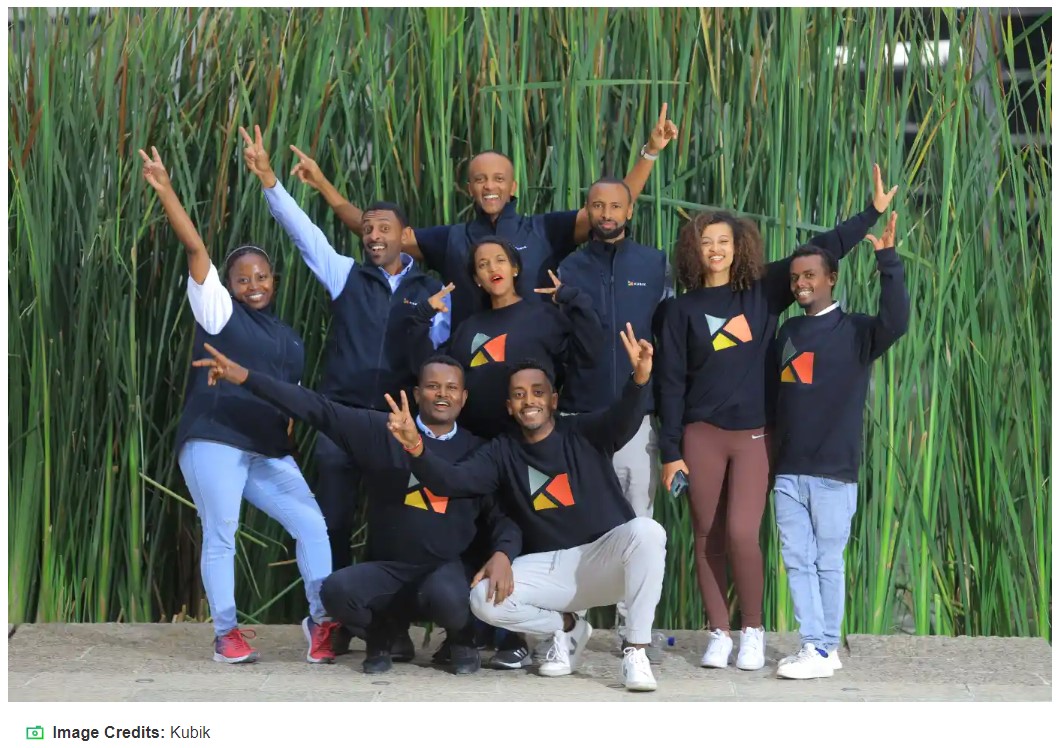

Ethiopian heading to West Point
Immigrated from Ethiopia & heading to West Point
A Dallas ISD student is ready to serve the country that gave him so much in return. He's graduating from W.T. White High School and headed to the United States Military Academy at West Point. It's an enormous accomplishment for a teen who immigrated to the U.S. from Ethiopia just a few years ago. Hamersen Bekele had never traveled outside of his country until he moved to Dallas with him mom, who is from the U.S. He did not know a word of English. Now, he's headed to West Point, the first student from W.T. White High School to do so in more than a decade. Friday was the last day of class for Dallas ISD.

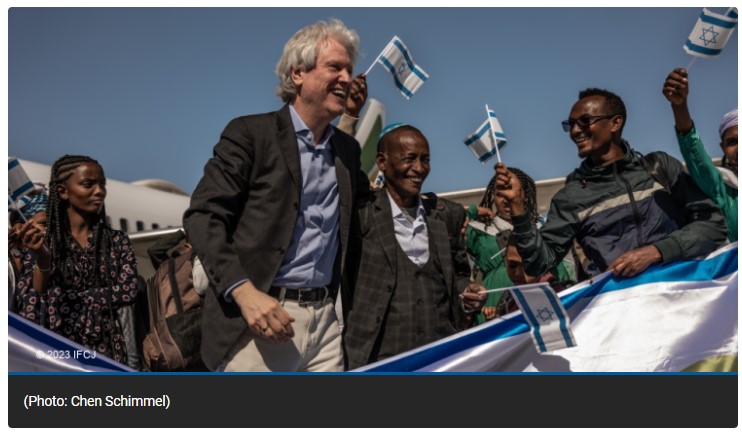
Project Spotlight: Ethiopian Jews Make Aliyah
Heart-Warming and Unforgettable
Marki told us that ever since he found out he was going to finally make aliyah with The Fellowship, the smile has not left his face. “We have been waiting here for aliyah for 17 years. We came here from a tiny village [in Ethiopia] and finally, thanks to The Fellowship, our dream is coming true.” Marki, 32, made aliyah with his wife Nibret, 30, and his two small children Workito, 9, and Havtami, 3. In Ethiopia, the family lived in a small house with no running water in Gondor, which they rented in hopes to make aliyah soon—but they’ve been waiting for years.
“We heard about The Fellowship and understood that there was hope that someone would take us to the Holy Land,” says Nibret. “My father already made aliyah to Israel ten years ago and I have not seen him since. I want to cry from the excitement that I will finally see my father again. My father is also very emotional to see me and the grandchildren. We have been talking on the telephone for so many years. They will come to the airport to meet us.”
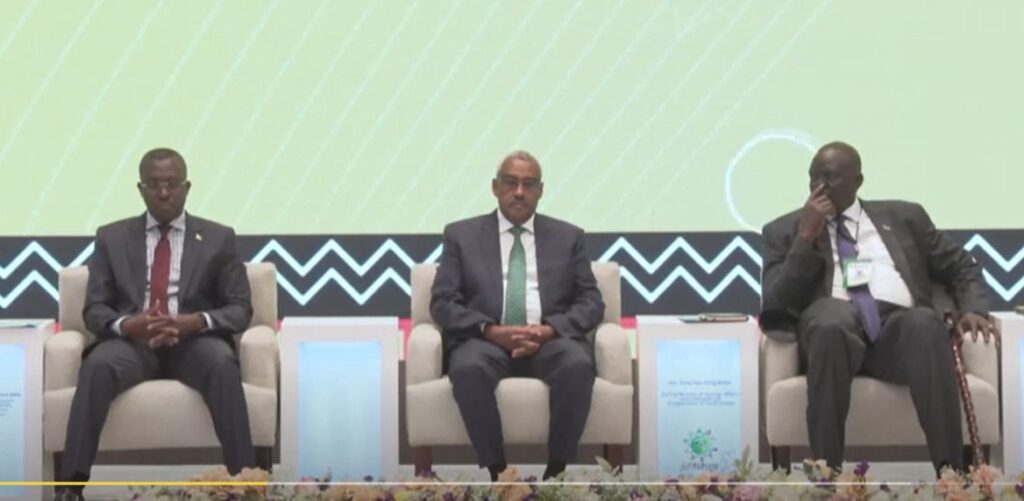
Ethiopia to launch fourth filling
Ethiopia is preparing to launch the fourth filling
Ethiopia is preparing to launch the fourth filling of its mega-dam reservoir on the Blue Nile, the country's deputy prime minister announced Thursday, despite opposition from its downstream neighbour Egypt. The massive $4.2 billion Grand Ethiopian Renaissance Dam (GERD) has been at the centre of a regional dispute ever since Ethiopia broke ground on the project in 2011. Egypt and at times Sudan have repeatedly asked Addis Ababa to stop filling the reservoir. "The GERD is now approaching its fourth filling. The last three fillings have not affected lower riparian states. Likewise, the rest of the fillings will not be any different," said Demeke Mekonnen, who also serves as foreign minister. "The project is near completion, withstanding the rhetoric of some actors that seek to monopolise the use of the shared African river," he said, opening a conference on the Nile in Addis Ababa
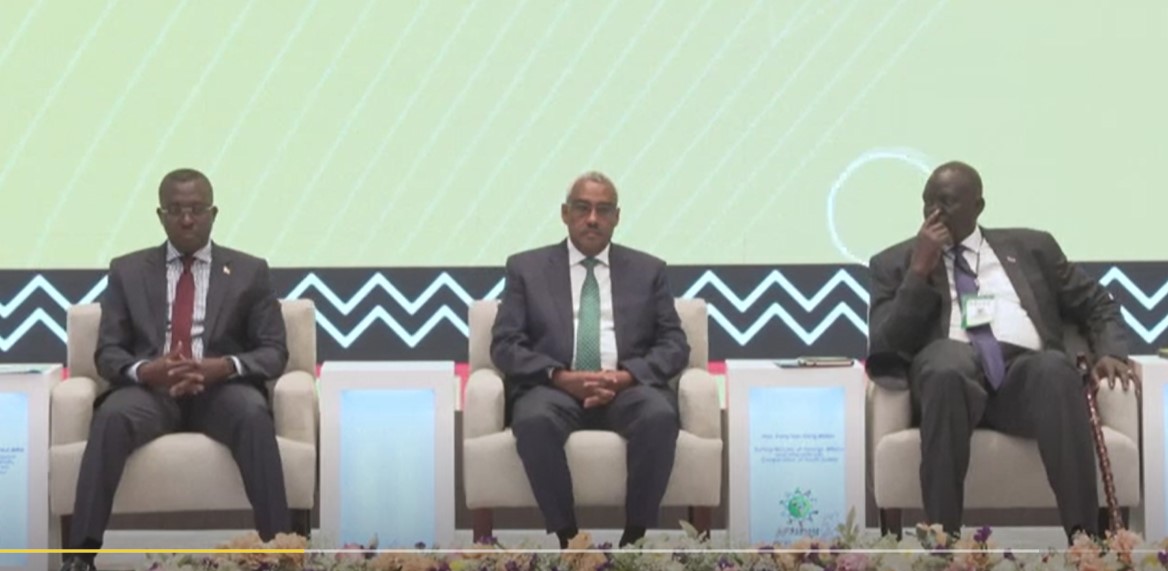
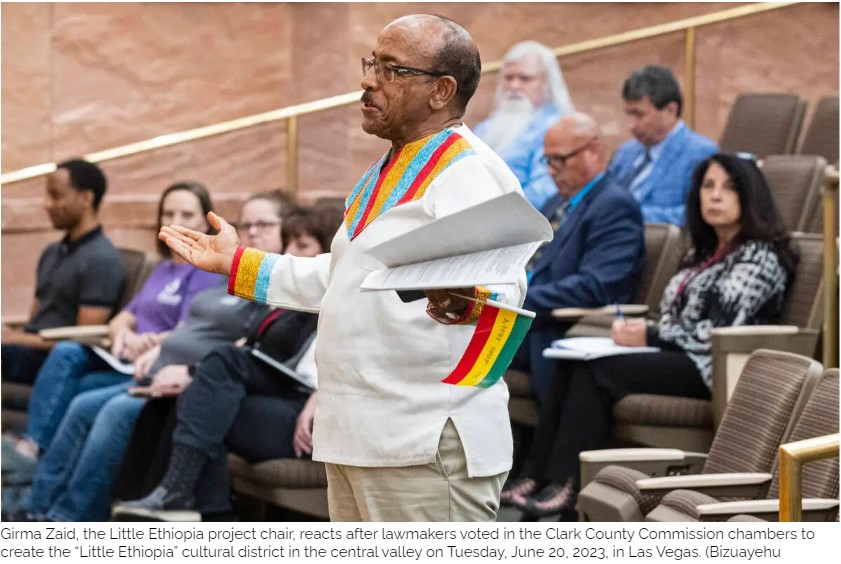
Little Ethiopia: Clark County cultural district
Little Ethiopia
It’s official: “Little Ethiopia” on Tuesday became Clark County’s first cultural district. “Thank you,” project chair Girma Zaid said repeatedly and bowed after county commissioners voted on a resolution to formalize the district. The designation “will help preserve and celebrate the culture, commerce, food, celebrations, and religion of an estimated Forty Thousand Ethiopian immigrants who have made Clark County their home,” the resolution reads.

